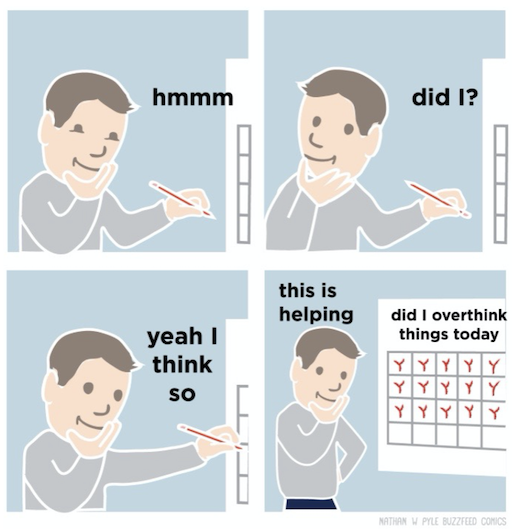I lingered in the café for an hour or so, enjoying the shelter from the weather and looking around at the mixture of tourists and locals. I bought a gigantic chocolate-frosted roll that was really impressive looking, but turned out to be dry and bland – not what I expected from Icelandic baked goods at all – so I ate it slowly with sips of water. I could see the bike parked outside, through the big plate-glass windows.
An older gentleman in a polo shirt walked up to the bike and stared at it. I thought to myself, “I know there’s almost no crime in Iceland. Strong social bonds in this harsh environment. But Borgarnes feels like a busy city. There are people all over the place. Even if I have nothing to fear from the locals, a tourist might come up and try to pick something off the bike. What would I do then?”
I pictured myself dropping the roll, jumping up, and sprinting around through the back door of the restaurant (since it was closer to the street) and confronting the man as he tried to escape. Would I tackle him in the parking lot? How expensive would the item need to be for me to try and reclaim it that way?
Suppose he digs out my camera. Including the lens attached to it, that would cost $4500 to replace. Worth pursuing I guess, but I don’t know if I would resort to violence, even at that price. Then I remembered that the camera strap on the camera was given to me by my father, and it’s the one he wore on his camera for over 30 years, all through Baja and Alaska and Europe. It has our last name written across it with permanent ink, in his big blocky teacher’s lettering. Yes — I would tackle someone to get that back.
That is an item that is absolutely not replaceable. And there it is, sitting on my bike, just inside a drawstring bag. Someone could pull the string and take it out, in less than a minute. I began to feel alarmed, and chewed my bland roll a little faster.
The man finished admiring the bike, and turned to walk away. Looking up, he saw me watching him through the window. My expression was neutral — this was just a curious Icelander, and the bike always draws curious looks. I partially rely on that to stay safe on the road. He dropped the eye contact without acknowledging me, and walked away. Perhaps he felt a little guilty. I didn’t feel like trying to reassure him.
So if that strap is so hard to replace, why didn’t I just leave it at home? Well, traveling with it is sort of the point of having it. Ben used it on his adventures and now I’m using it on mine. It invokes a feeling like I’m stepping into a role, of a curious and somewhat rugged but always friendly adventurer. A role he played when he was my age. I like that feeling.
{"lat":[64.398743885,64.398746316,64.398748327,64.398749585,64.398790991,64.398828207,64.398828207,64.398855196,64.39886953,64.398908673,64.398913618,64.398888305,64.398867518,64.398845138,64.398822088,64.398803648,64.398787219,64.398770875,64.398757296,64.398745896,64.398739526,64.39873039,64.398719913,64.398709268,64.398699712,64.398686553,64.398578845,64.398455799,64.398284557,64.398280449,64.398290424,64.398303164,64.398316492,64.398329819,64.398338787,64.398340548,64.398342895,64.398342811,64.398344236,64.398344822,64.398345242,64.398344739,64.398344655,64.39834323,64.398343649,64.39834323,64.39834323,64.398344655,64.398347169,64.398350438,64.398353372,64.398355887,64.398359072,64.398362508,64.398365023,64.39836628,64.39836737,64.398368208,64.398368795,64.398369214,64.398369549,64.398370052,64.398370387,64.39837089,64.398371393,64.398371812,64.39837198,64.398372231,64.398372231,64.398372399,64.398372483,64.398372818,64.398373237,64.398373489,64.398373572,64.39837374,64.398373908,64.398373908,64.398373991,64.398373991,64.398373656,64.398373572,64.398373405,64.398373405,64.398373405,64.398373405,64.398373069,64.398372734,64.398372399,64.398372064,64.398371645,64.398371393,64.398370974,64.398370555,64.398370136,64.398369717,64.398369381,64.39836913,64.398368962,64.398368711,64.398368627,64.398368543,64.398368376,64.398368292,64.398368292,64.398368124,64.398367873,64.398367705,64.398367537,64.39836737,64.398367118,64.398367034,64.398366867,64.398366615,64.398366448,64.39836628,64.398365945,64.398365777,64.398365861,64.398365861,64.398366029,64.398365945,64.398366196,64.398366532,64.398366867,64.398367202,64.398367537,64.398367789,64.398368124,64.398368376,64.398368459,64.398368376,64.398368543,64.398368627,64.398368627,64.398368543,64.398368208,64.398367956,64.398367537,64.398367286,64.398367034,64.398366867,64.398366783,64.398366448,64.398366112,64.398365693,64.398365358,64.398365023,64.398364688,64.398364352,64.398364017,64.398363598,64.398363095,64.398362844,64.398362592,64.398362424,64.398362341,64.398362341,64.398362257,64.398362341,64.398362424,64.398362676,64.398363011,64.398363095,64.398363179,64.398363346,64.398363263,64.398363346,64.398363346,64.39836343,64.398363346,64.39836343,64.398363263,64.398363179,64.398363095,64.398362927,64.398362508,64.398362089,64.39836167,64.398360664,64.398359575,64.39835882,64.398358066,64.398357563,64.398357144,64.398356809,64.398356222,64.398355719,64.3983553,64.398354713,64.398354294,64.398353875,64.398353204,64.398352366,64.398351696,64.398350857,64.398350103,64.398349349,64.398348846,64.398348343,64.398348008,64.398347756,64.398347672,64.398347505,64.398346666,64.39834608,64.398346247,64.398346164,64.398346247,64.398346247,64.398346164,64.398345996,64.398346499,64.398346918,64.398347337,64.398347924,64.398348343,64.398348762,64.398349097,64.398349516,64.398349684,64.398349852,64.398349852,64.398350103,64.398350354,64.398350438,64.398350606,64.398350857,64.398351193,64.398351444,64.398351696,64.398352031,64.398352198,64.398352366,64.398352618,64.398353037,64.398353204,64.398353372,64.398353707,64.398353791,64.398353791,64.398353875,64.398353959,64.398353959,64.398354378,64.398354126,64.398353707,64.398353372,64.398352953,64.398352618,64.398352282,64.398352031,64.398351863,64.398351612,64.398351444,64.398351193,64.398351025,64.398351025,64.398350941,64.398350857,64.398351025,64.398351109,64.398351193,64.398351528,64.398351863,64.398352198,64.398352618,64.398353288,64.398353791,64.398354378,64.398354881,64.3983553,64.398355719,64.398356222,64.398356641,64.39835706,64.398357479,64.398357898,64.398358233,64.398358233,64.398358569,64.398358653,64.398358904,64.398359072,64.398359155,64.398359323,64.398359491,64.398359826,64.398360245,64.398360413,64.39836058,64.398360999,64.398361335,64.398361838,64.398362257,64.39836276,64.398363263,64.398363766,64.398364436,64.398364855,64.398365107,64.398365358,64.398365526,64.39836561,64.398365693,64.398365777,64.398365861,64.398365861,64.398365861,64.39836561,64.398365442,64.398364939,64.398364688,64.398364352,64.398364017,64.398363598,64.398363179,64.398362927,64.398362676,64.398362592,64.39836276,64.398362676,64.398362676,64.398362676,64.398362676,64.398362676,64.398362508,64.398362424,64.398362257,64.398362089,64.398361838,64.39836167,64.398361167,64.398360748,64.398360329,64.39835991,64.398359407,64.398358988,64.398358653,64.398358233,64.398357898,64.398357563,64.398357228,64.398356809,64.398356222,64.398355887,64.398355467,64.398355132,64.398354797,64.398354629,64.398354126,64.398353707,64.398353288,64.398352785,64.39835245,64.398352031,64.398351696,64.39835136,64.398351193,64.398351109,64.398351025,64.398351025,64.398351025,64.398351109,64.398351276,64.398351444,64.398351696,64.398351947,64.398352198,64.39835245,64.398352534,64.398352618,64.398352534,64.398352618,64.398352366,64.398352282,64.398352115,64.398351779,64.398351276,64.39835069,64.398350019,64.398349684,64.39834893,64.398348678,64.398348427,64.398348427,64.39834851,64.398348678,64.398348762,64.398348846,64.39834893,64.398349097,64.398349349,64.398349516,64.398349768,64.398350019,64.398350438,64.398350774,64.398351109,64.39835136,64.398351612,64.398352031,64.398352366,64.398352701,64.398353037,64.398353456,64.398353791,64.398354126,64.398354545,64.398354965,64.398355467,64.398356138,64.398356725,64.398357228,64.398357898,64.398358401,64.398358904,64.398359407,64.39835991,64.398360497,64.398361083,64.398361921,64.39836276,64.398363514,64.398364352,64.398364855,64.398365274,64.398365526,64.398365777,64.398365777,64.398365945,64.398366112,64.398366196,64.398366364,64.39836628,64.39836628,64.398366196,64.398365945,64.398365777,64.398365526,64.398365526,64.398365274,64.398364939,64.398364688,64.398364101,64.398363598,64.398363263,64.39836276,64.398362005,64.398361083,64.398360497,64.398361083,64.398361502,64.398362005,64.398362257,64.398362424,64.398362676,64.398362927,64.39836343,64.398364101,64.398364604,64.39836519,64.398365274,64.398365526,64.398365693,64.398365945,64.398366029,64.398365693,64.398365693,64.398365861,64.398366029,64.398366112,64.398366196,64.398366364,64.398366532,64.398366615,64.398366615,64.398366783,64.398367034,64.398367118,64.39836737,64.398367537,64.398367705,64.398367789,64.398367789,64.398367789,64.39836804,64.398368208,64.398368292,64.398368459,64.398368627,64.398368962,64.398369046,64.398369549,64.398370052,64.398370387,64.398370387,64.398370471,64.398370722,64.398370471,64.398370136,64.398370052,64.3983698,64.398369633,64.398369465,64.398369214,64.398368962,64.398368962,64.398368795,64.398368627,64.398368376,64.398367956,64.39836804,64.398368459,64.398367789,64.398366783,64.398366029,64.39836519,64.398364185,64.398363682,64.398362592,64.39836167,64.398360748,64.398360245,64.398359742,64.398359155,64.398358401,64.398358066,64.398357731,64.398357228,64.398356641,64.398356222,64.398355887,64.398355467,64.398355048,64.398354629,64.398354294,64.398353959,64.398353623,64.398353288,64.398352953,64.398352701,64.398352618,64.398352198,64.398351863,64.398351528,64.398351109,64.398351025,64.398350774,64.398350522,64.398350522,64.398350103,64.398350271,64.398350606,64.39835136,64.398349349,64.398341805,64.398333591,64.398325376,64.398321018,64.398319844,64.398321605,64.398325795,64.398327304,64.398328981,64.39833007,64.398330238,64.398330992,64.398331076,64.398330908,64.398329986,64.398325963,64.398319425,64.398312804,64.398306517,64.398298973,64.398289669,64.398279192,64.39826553,64.398248095,64.398228063,64.398205515,64.398179196,64.3981512,64.398123121,64.398093617,64.398061263,64.398028406,64.397994124,64.397958668,64.397923464,64.397889601,64.397859007,64.397830844,64.397804776,64.397781223,64.397758927,64.397736548,64.397716012,64.397698829,64.397684328,64.3976736,64.397666978,64.397661781,64.397655998,64.397648286,64.397639485,64.39763102,64.397621883,64.397614088,64.397609059,64.397603275,64.39759724,64.397590367,64.397583159,64.397575699,64.397569077,64.397562707,64.397556588,64.397548374,64.397538902,64.397531778,64.397525743,64.397518786,64.397511829,64.397504704,64.397497663,64.39749255,64.397487857,64.397484085,64.397479559,64.397474697,64.397471093,64.39746707,64.397461537,64.397456508,64.397450725,64.397445696,64.397442846,64.397441505,64.397438403,64.397435134,64.397432788,64.397430022,64.39742692,64.3974234,64.397418371,64.397413509,64.397409067,64.397406971,64.397406468,64.397404205,64.397401858,64.397399679,64.397397751,64.397396075,64.397394147,64.397392806,64.397390543,64.39738895,64.397387693,64.397386352,64.397385514,64.397385933,64.397386436,64.397386519,64.397387441,64.397387861,64.397388363,64.397390207,64.397392806,64.397394818,64.39739532,64.397396075,64.397397667,64.39739993,64.397402445,64.397404121,64.397407558,64.39740957,64.397411246,64.397412084,64.397413928,64.397415856,64.397416862,64.397418287,64.397420131,64.397419879,64.397419879,64.39742055,64.397420801,64.397421472,64.397421137,64.397421053,64.397422813,64.397425328,64.39742801,64.397429519,64.39743086,64.397431949,64.397433542,64.397433793,64.39743371,64.397434799,64.39743547,64.397437146,64.397439325,64.397441253,64.397442175,64.397443433,64.397445025,64.397446701,64.397447372,64.397449635,64.397451228,64.397452988,64.397453491,64.397454161,64.397455167,64.397456173,64.397457347,64.397458352,64.397459693,64.397460783,64.397463046,64.397465561,64.397467489,64.397469165,64.397470758,64.397472937,64.397474026,64.397475871,64.397477295,64.397479726,64.397482408,64.397485929,64.397488611,64.397489282,64.397489198,64.397489365,64.397490455,64.397493137,64.397494562,64.397495736,64.397497077,64.397499424,64.397503866,64.397506129,64.397508392,64.397510655,64.39751141,64.397512499,64.39751426,64.397516774,64.397517277,64.39751778,64.397519121,64.397521049,64.397523312,64.397525408,64.397528425,64.397531023,64.397533119,64.397535717,64.39753907,64.397542926,64.397545189,64.39754829,64.397551224,64.397552733,64.397555163,64.397557929,64.397560779,64.397562875,64.397564635,64.397566647,64.397567904,64.397568993,64.397569832,64.397569832,64.39756958,64.397571089,64.397573604,64.397575867,64.397577711,64.397580644,64.397583159,64.397586176,64.39758802,64.397589361,64.397590283,64.397591792,64.397592798,64.397593888,64.397595564,64.397597157,64.397599001,64.397601767,64.397604533,64.397608137,64.397611322,64.397613837,64.397617106,64.397620542,64.397622973,64.397625404,64.397627918,64.397630768,64.397633283,64.397635462,64.397637222,64.397639066,64.397641581,64.397646275,64.397650298,64.397652226,64.397652896,64.397657003,64.397659015,64.397661446,64.397664128,64.397668068,64.397671085,64.397676282,64.397678796,64.397681982,64.397685418,64.397689358,64.397694471,64.39770126,64.397706289,64.397710648,64.397714084,64.397717688,64.397720035,64.397722298,64.397725232,64.397729088,64.397731686,64.39773529,64.397739146,64.397743672,64.39774736,64.397752306,64.397756161,64.397760101,64.397764208,64.397768231,64.397772171,64.397776613,64.397781642,64.39778751,64.397793964,64.397799496,64.397805531,64.397810728,64.397816176,64.397821205,64.397825396,64.397830676,64.397836376,64.397842663,64.39784744,64.397851715,64.397856828,64.397862779,64.397868479,64.397872837,64.397877364,64.397881555,64.397885578,64.397890188,64.397894882,64.39789966,64.397903767,64.397907371,64.397911394,64.397915166,64.397919106,64.397922794,64.397927236,64.397932014,64.397936288,64.397939474,64.397941569,64.397944335,64.397948023,64.397953052,64.397958333,64.39796244,64.397966379,64.397969984,64.397974007,64.397977108,64.397980629,64.397983814,64.397987921,64.397992112,64.3979958,64.39799932,64.398002254,64.398004433,64.398006864,64.398009965,64.398012815,64.398015414,64.398017341,64.398020107,64.398023712,64.398027567,64.39803268,64.398038464,64.39804232,64.398045924,64.398049696,64.398054138,64.398058413,64.398062688,64.398068471,64.398072997,64.39807635,64.39807987,64.398083223,64.39808733,64.398090767,64.398095628,64.398100155,64.398105771,64.398111303,64.398116416,64.398119433,64.398122451,64.398126055,64.398131252,64.39813561,64.398139466,64.398143405,64.398147429,64.398150614,64.398154134,64.398158074,64.398163103,64.398166456,64.398169892,64.398173412,64.398177184,64.398181543,64.39818498,64.398188668,64.398191936,64.39819663,64.398201157,64.398205934,64.398209119,64.398211718,64.39821725,64.398222028,64.398227308,64.398231834,64.398237283,64.398242563,64.39824667,64.398249939,64.39825346,64.398257567,64.39826159,64.398265697,64.398269888,64.398273912,64.398279444,64.398282713,64.398286652,64.398289669,64.398293358,64.398297465,64.398301572,64.398304422,64.398308277,64.398311211,64.398315905,64.398320934,64.398326298,64.39833116,64.398335686,64.398340296,64.398344403,64.398349097,64.398354629,64.39836058,64.398366532,64.398370722,64.398376506,64.398383798,64.398389498,64.398393773,64.398398047,64.398402825,64.398407854,64.39840995,64.398411794,64.398415398,64.39841984,64.39842445,64.398430653,64.398435766,64.398440376,64.39844616,64.398451189,64.39845605,64.398459738,64.398462923,64.398467114,64.398471641,64.398474826,64.398479101,64.39848413,64.398487902,64.398489913,64.398490332,64.398489746,64.398489326,64.398488404,64.398486979,64.398485974,64.398485387,64.398485052,64.398485052,64.398485471,64.398485806,64.398486225,64.398486728,64.398487231,64.398487399,64.398487566,64.398488069,64.398488237,64.398487985,64.398488069,64.398487063,64.398486979,64.398491757,64.398497038,64.398500391,64.398503576,64.398508856,64.398512796,64.398516316,64.398521681,64.398528135,64.398532996,64.398537522,64.398542887,64.398548838,64.398554119,64.398560321,64.398565937,64.398570631,64.398575241,64.398581108,64.398588903,64.398595441,64.398601728,64.398609523,64.39861933,64.398627209,64.398632992,64.398638021,64.398642967,64.398648247,64.398654031,64.398659898,64.398666268,64.398672974,64.398678841,64.398684792,64.398689235,64.398693426,64.398697449,64.398700886,64.398704909,64.398712034,64.398719577,64.398726953,64.398732402,64.398737682,64.398743885,64.398750004,64.398755452,64.398761487,64.398766935,64.398773389,64.398780178,64.398784789,64.398787471,64.398789818,64.398794009,64.398798786,64.398802139,64.398804318,64.398807336,64.398810269,64.398813958,64.398817897,64.398821501,64.398825022,64.398828877,64.398831979,64.39883617,64.398840361,64.398843378,64.39884606,64.398848826,64.398853017,64.398857627,64.398861734,64.398866093,64.398870452,64.398875732,64.398880761,64.398886042,64.398892161,64.398896519,64.398899956,64.398903476,64.398906997,64.398910685,64.398913954,64.398917474,64.398920827,64.398924934,64.398927868,64.398929544,64.398932142,64.39893516,64.398939016,64.398943458,64.398948319,64.398953516,64.39895821,64.398963072,64.398966508,64.398970112,64.398973214,64.398977656,64.398982434,64.398986457,64.398990229,64.398993498,64.398996012,64.398997605,64.39900012,64.399004059,64.399006993,64.399009759,64.399013363,64.399018141,64.399024092,64.399029456,64.399034066,64.399037754,64.399040772,64.399043203,64.399044292,64.399043789,64.399042448,64.399041861,64.399041359,64.399040856,64.399041526,64.399042029,64.399042532,64.399043035,64.399043454,64.399044041,64.399044125,64.399044041,64.399043873,64.399043789,64.399043622,64.399043538,64.399043706,64.399043789,64.399043706,64.399043454,64.399043622,64.399043454,64.399043286,64.399043286,64.39904337,64.399043119,64.399043286,64.399043286,64.399043203,64.399043035,64.399042783,64.3990427,64.399042364,64.3990427,64.399043035,64.399043286,64.399043873,64.399044711,64.399045382,64.399045969,64.399046388,64.399046723,64.399047058,64.39904731,64.39904731,64.399047561,64.399047813,64.399047813,64.399047896,64.399048064,64.399048148,64.399047896,64.399047896,64.399047813,64.399047561,64.399047477,64.399047394,64.399047226,64.399047226,64.39904731,64.399047394,64.399047645,64.399047813,64.399047645,64.399047645,64.39904731,64.399047058,64.399047058,64.399047142,64.399047142,64.399047058,64.399047142,64.39904731,64.399047645,64.399047896,64.399048316,64.399048735,64.399048986,64.399048902,64.399048651,64.399048483,64.399048399,64.399049573,64.399051417,64.399052674,64.399050998,64.399050662,64.399050914,64.399052255,64.39905477,64.39905829,64.399060972,64.399065582,64.399071701,64.399080418,64.399089135,64.399096847,64.399101792,64.399105145,64.399107743,64.399110258,64.399112689,64.399115958,64.399119226,64.399122328,64.399125429,64.399129704,64.399133308,64.399136912,64.399140014,64.399143702,64.399146551,64.399149653,64.399152754,64.399156777,64.399160298,64.399164824,64.399169183,64.399173206,64.399176978,64.399180247,64.399184102,64.399187874,64.399193155,64.399198435,64.399203381,64.399206734,64.399209332,64.399212014,64.39921587,64.399221737,64.399228359,64.399233975,64.399238333,64.399241435,64.399244871,64.399248811,64.399252666,64.399256019,64.399258701,64.399257612,64.399254091,64.399251661,64.399252163,64.399252247,64.399252666,64.399252834,64.399253002,64.399253337,64.399253756,64.399254091,64.399254427,64.399255013,64.399256019,64.399257109,64.399257863,64.399258534,64.399259456,64.399260713,64.399264485,64.399269514,64.399275465,64.399280997,64.399285691,64.399290217,64.399294744,64.399299018,64.399303042,64.399306311,64.399309412,64.399313519,64.399316788,64.399317961,64.399320224,64.399323074,64.399326511,64.399330367,64.399334222,64.399340006,64.399345789,64.399349729,64.399353668,64.399357608,64.399361966,64.3993649,64.399367666,64.399371186,64.399375377,64.399381245,64.399386022,64.399389291,64.399392225,64.399396081,64.399398344,64.399400188,64.399403624,64.399407312,64.399410162,64.399414689,64.399419382,64.399423825,64.399429105,64.399434721,64.399439164,64.399442097,64.39944436,64.399447881,64.399452659,64.399457855,64.399459364,64.399457772,64.399457772,64.399457939,64.399456682,64.399456682,64.399457017,64.399457017,64.399457017,64.399457101,64.399457101,64.399457269,64.399457436,64.399457269,64.399457101,64.399457101,64.399457269,64.39945752,64.399457855,64.399458023,64.399458358,64.399458777,64.399459113,64.399459196,64.399459196,64.399457855,64.39945643,64.399455844,64.399454922,64.399454503,64.399454419,64.39945685,64.399460873,64.39946322,64.399465734,64.39946959,64.399473278,64.399478223,64.399482833,64.399486102,64.399490126,64.399494065,64.399497753,64.399502112,64.399505381,64.399509572,64.39951326,64.399516445,64.399520301,64.39952315,64.399524994,64.399527928,64.399531029,64.399532957,64.399533795,64.399535053,64.399536729,64.399537903,64.399539411,64.399542345,64.399547123,64.399554247,64.399560869,64.399566569,64.399571765,64.399576962,64.399582327,64.39958744,64.399591966,64.399593223,64.399595402,64.39959733,64.399599845,64.399602276,64.399605628,64.399610155,64.399614513,64.399617614,64.399619626,64.399621805,64.399623985,64.399627254,64.399632618,64.399638402,64.399644017,64.399648292,64.399651729,64.399654411,64.399657093,64.399659608,64.399662374,64.399663715,64.39966581,64.399668744,64.399671678,64.399675114,64.399678718,64.399683831,64.399689699,64.399695063,64.399698919,64.399702272,64.399707552,64.399712246,64.399716689,64.399721718,64.399726663,64.399732698,64.399739152,64.399746025,64.399750384,64.399753569,64.399756,64.399758682,64.399761532,64.39976413,64.399767399,64.399772763,64.399776619,64.399781564,64.399783911,64.399785672,64.39978827,64.39979179,64.399795311,64.39979925,64.399804698,64.399811153,64.399816601,64.399820456,64.39982448,64.399827916,64.399831521,64.39983437,64.399836969,64.399838897,64.399841411,64.399843591,64.39984644,64.39984862,64.399850296,64.399851637,64.399853397,64.399857253,64.399862031,64.399867982,64.39987276,64.399877034,64.399879968,64.399884494,64.399890864,64.399896816,64.399901342,64.399904695,64.399907544,64.399910981,64.399912657,64.39991425,64.399916513,64.399920955,64.399925482,64.399929421,64.399932774,64.399937133,64.399942329,64.399946688,64.399951801,64.399957417,64.39996253,64.399967391,64.399970493,64.39997351,64.399977533,64.399982227,64.39998667,64.399990777,64.399994632,64.399998069,64.400000584,64.400003433,64.400005864,64.400008882,64.400014833,64.400019527,64.400024221,64.40002816,64.400031345,64.400034279,64.400037799,64.400041571,64.400046181,64.400051043,64.400057078,64.400060933,64.400065543,64.400070824,64.400075853,64.400080547,64.400085157,64.400089096,64.40009136,64.40009379,64.400097981,64.40010301,64.400107704,64.400112482,64.40011726,64.400121367,64.400124217,64.40012648,64.400130084,64.400132934,64.400135867,64.400140394,64.400144836,64.400149362,64.400153469,64.400157325,64.40016269,64.400168557,64.400176687,64.40018398,64.400191188,64.400196636,64.400201414,64.400206527,64.400211808,64.400216669,64.400221279,64.400225805,64.400229829,64.400231924,64.400234271,64.400238462,64.400244748,64.400250867,64.400255896,64.400260171,64.400265284,64.400269559,64.400276264,64.40028364,64.400291436,64.400298979,64.400306104,64.400313145,64.400319096,64.400324293,64.400326891,64.400328065,64.400327394,64.400327394,64.400326975,64.40032664,64.400326053,64.400325466,64.400325131,64.400325047,64.400324963,64.400325131,64.40032555,64.40032555,64.400325718,64.400326137,64.400326723,64.400327226,64.400327478,64.400327478,64.400328232,64.400331417,64.400337033,64.400343571,64.400352204,64.400360419,64.400368968,64.400377685,64.400386905,64.400395371,64.400401825,64.400407022,64.400413141,64.40042102,64.400429569,64.400438287,64.400447255,64.400455805,64.400463851,64.40047173,64.40048095,64.400489751,64.400498636,64.400506515,64.400514478,64.400522608,64.400529901,64.400537696,64.400544318,64.400551442,64.400558232,64.40056653,64.40057642,64.400585724,64.400594944,64.400602739,64.400609613,64.40061833,64.400627969,64.400637776,64.400648756,64.400660239,64.400670968,64.400681278,64.400690247,64.400698293,64.400706424,64.400714722,64.400723355,64.400730983,64.400738526,64.400746321,64.400755039,64.400763672,64.400770797,64.400778843,64.400786471,64.400793344,64.40079963,64.400806839,64.400813209,64.40082025,64.400828883,64.400837265,64.400845815,64.400855454,64.400864506,64.400872637,64.4008806,64.400888562,64.400896693,64.400904404,64.400912116,64.400920078,64.400928125,64.400935417,64.400942458,64.400949583,64.400957378,64.40096752,64.400977327,64.400984954,64.400993755,64.401002724,64.401012112,64.401019655,64.401026193,64.401032312,64.401040442,64.401047316,64.401053602,64.401060475,64.401068103,64.401076317,64.401083945,64.401091404,64.401098781,64.401106911,64.40111479,64.401122082,64.401127614,64.401132895,64.401139265,64.40114639,64.401153514,64.40116089,64.401168769,64.40117757,64.401186874,64.401196094,64.401204309,64.401210344,64.401216295,64.401223503,64.401230963,64.401237836,64.401243787,64.401250325,64.401257031,64.401263401,64.40126843,64.401273878,64.401279494,64.401286284,64.401293576,64.401300114,64.40130749,64.401314112,64.401319895,64.401325092,64.401329953,64.401335066,64.401341185,64.401346047,64.401349064,64.401353339,64.401358284,64.401364487,64.401369935,64.401376305,64.401383095,64.401390303,64.401396506,64.401402205,64.401406899,64.401412096,64.401417544,64.401423831,64.401429782,64.401434895,64.401439756,64.401444366,64.401449647,64.401454425,64.401459789,64.401466159,64.401472697,64.401479235,64.401485102,64.401491137,64.401496753,64.401503878,64.401509997,64.401516451,64.401522821,64.401528269,64.401533382,64.401538411,64.401543189,64.401547799,64.401553415,64.401558528,64.401562719,64.401567161,64.401572945,64.401579902,64.401586188,64.401593313,64.401600186,64.401607814,64.401613178,64.401618878,64.40162332,64.401627176,64.40163145,64.401636563,64.401643604,64.401651316,64.401657351,64.401663553,64.401668415,64.401673528,64.401677383,64.401682999,64.401690375,64.401697751,64.401704122,64.401710743,64.401717616,64.401723819,64.40172977,64.401736895,64.4017436,64.401748797,64.401754581,64.401760783,64.401766231,64.401773188,64.401779475,64.401784336,64.401789114,64.401794227,64.401799843,64.401804201,64.40180965,64.401814427,64.401819037,64.401824234,64.401830353,64.401836472,64.401842172,64.401848374,64.401854828,64.401861366,64.40186606,64.401870921,64.401876705,64.401882321,64.401887685,64.401892882,64.401897744,64.401903611,64.401909981,64.401916351,64.401922805,64.40192993,64.40193563,64.401941078,64.401946442,64.401951304,64.401956584,64.401961697,64.401967397,64.401973684,64.401980808,64.401989106,64.401995309,64.401999332,64.402002853,64.402005954,64.402009893,64.402014923,64.402017102,64.402019113,64.402023807,64.402026909,64.402030848,64.40203462,64.402038727,64.402040739,64.402039482,64.402038811,64.402039817,64.402040236,64.402041828,64.402042667,64.402043505,64.402042834,64.402042583,64.402042918,64.402043253,64.402043253,64.40204317,64.40204317,64.40204317,64.402043086,64.402042834,64.402042583,64.402042331,64.402041996,64.402041661,64.402041326,64.40204099,64.402040823,64.402040739,64.402040739,64.402040739,64.402040823,64.402040655,64.402040571,64.402040404,64.402040404,64.402040236,64.402040068,64.402039901,64.402039565,64.40203923,64.402038895,64.402038476,64.402037973,64.40203747,64.402037135,64.402036883,64.402036548,64.402036296,64.402036129,64.402035961,64.402035793,64.40203571,64.402035626,64.40203571,64.402035626,64.402035626,64.402035542,64.402035542,64.402035542,64.402035458,64.402035458,64.402035291,64.402035207,64.402035123,64.402035123,64.402035123,64.402035039,64.402035039,64.402034955,64.402034955,64.402035039,64.402035207,64.402035374,64.40203571,64.402035877,64.402036296,64.402036715,64.402037051,64.40203747,64.402037889,64.402038224,64.402038392,64.402038727,64.402039062,64.402039398,64.402039649,64.402040068,64.402040487,64.402040906,64.402041242,64.402041493,64.402041745,64.402041996,64.402042164,64.402042499,64.402042667,64.402043002,64.40204317,64.402043253,64.402043589,64.402043756,64.402043672,64.402043421,64.402043086,64.402042834,64.402042583,64.402044762,64.402045014,64.402044092,64.402043756,64.402043672,64.402042918,64.402042667,64.402042583,64.402042667,64.402042667,64.402042918,64.402042834,64.402042667,64.402042499,64.402042331,64.402042164,64.402041996,64.402041912,64.402041745,64.402041577,64.402041493,64.402041242,64.40204099,64.402040906,64.402040739,64.402040655,64.402040404,64.402040152,64.402039901,64.402039733,64.402039817,64.402039817,64.402039901,64.402039901,64.402039984,64.402039984,64.402040068,64.402040068,64.402040152,64.402040152,64.402040068,64.402039733,64.402039482,64.402039482,64.40203923,64.40203923,64.402039398,64.40203923,64.40203923,64.402039482,64.402039565,64.402039984,64.402040152,64.402040404,64.402040571,64.402041074,64.402041409,64.402041661,64.402041912,64.40204208,64.402042248,64.402042164,64.402042331,64.402042499,64.402042415,64.402042667,64.402042918,64.402042918,64.402043086,64.402043086,64.40204317,64.402043086,64.402043086,64.40204317,64.40204317,64.402043253,64.402043505,64.402043505,64.402043505,64.402043505,64.402043421,64.402043421,64.402043505,64.402043589,64.402043756,64.40204384,64.40204384,64.402043924,64.402043924,64.402043924,64.402044008,64.402044092,64.402044175,64.402044175,64.402044511,64.402044511,64.402044511,64.402044511,64.402044259,64.402044427,64.402044594,64.402044594,64.402044594,64.402044678,64.402044594,64.402044175,64.40204384,64.402043589,64.402043253,64.402043002,64.402042834,64.402042834,64.402042667,64.402042667,64.402042667,64.402042583,64.402042331,64.402042164,64.402041996,64.402041828,64.402041745,64.402041745,64.402041828,64.402041912,64.40204208,64.402042248,64.402042415,64.402042667,64.402042667,64.402042583,64.402042583,64.402042583,64.402042583,64.402042667,64.402042667,64.402042834,64.402043002,64.402043002,64.402043002,64.402043002,64.402042667,64.402042583,64.402042499,64.402042499,64.402042667,64.40204317,64.402043086,64.402043253,64.402043421,64.402043421,64.402043421,64.402043337,64.402043086,64.402042667,64.402042415,64.402042415,64.402042415,64.402042667,64.402042667,64.402042667,64.402042667,64.402042667,64.402042667,64.402042918,64.402043253,64.402043505,64.402043589,64.402043589,64.402043672,64.40204384,64.402043756,64.402043756,64.402043589,64.402043337,64.402043086,64.402042834,64.402042583,64.402042415,64.40204208,64.402041912,64.402041828,64.402041912,64.402041996,64.40204208,64.402042164,64.402042164,64.402041661,64.402041326,64.402041074,64.40204099,64.402040655,64.402040404,64.402040236,64.402040236,64.402040236,64.402040236,64.40204032,64.402040487,64.402040487,64.402040571,64.402040571,64.402040655,64.402040487,64.402040571,64.402040487,64.402040487,64.402040487,64.402040655,64.402040739,64.402040655,64.402040571,64.402040571,64.402040571,64.402040571,64.402040655,64.402040739,64.402040906,64.402040906,64.402041074,64.402041242,64.402041409,64.402041577,64.402041912,64.402042164,64.402042248,64.402042331,64.402042499,64.402042667,64.402042834,64.402042918,64.402043002,64.40204317,64.402043337,64.402043589,64.402043756,64.402044008,64.402044259,64.402044511,64.402044594,64.402044678,64.402044846,64.402045097,64.402045097,64.402045014,64.40204493,64.402045014,64.402045014,64.402045181,64.402045265,64.402045181,64.402044846,64.402044511,64.402044259,64.402044008,64.402043756,64.402043756,64.402043924,64.402044175,64.402044092,64.402044092,64.402044092,64.402044427,64.402044594,64.402044846,64.402045097,64.402045349,64.4020456,64.402045852,64.402046019,64.402046103,64.402046187,64.402046103,64.402046103,64.402046103,64.402045936,64.402045852,64.402045768,64.402045433,64.402045265,64.402045265,64.402045265,64.402045265,64.402045265,64.402045265,64.402045349,64.402045516,64.402045852,64.402046187,64.402046522,64.402046606,64.402046774,64.402046858,64.402046858,64.402046858,64.402046941,64.402047109,64.402047109,64.402047277,64.402047361,64.402047361,64.402047277,64.402047193,64.402046941,64.402046606,64.402046355,64.402046187,64.402046187,64.402046019,64.402046438,64.402046522,64.402046271,64.402046355,64.402046438,64.402047361,64.402047361,64.40204669,64.402045684,64.402045768,64.402046187,64.40204669,64.40204669,64.402047696,64.402049456,64.402051719,64.402053563,64.402055491,64.402058928,64.402062532,64.402067561,64.402073009,64.402077954,64.402082397,64.402087258,64.40209212,64.402096478,64.402099915,64.402104357,64.40210947,64.40211232,64.402115002,64.402119361,64.402126905,64.402134365,64.402142327,64.40214962,64.402155906,64.402161522,64.40216521,64.402169904,64.402174933,64.40217904,64.402182561,64.402187757,64.402191697,64.402195469,64.402198821,64.402203348,64.402208042,64.402213825,64.40221919,64.402225308,64.402229835,64.402235953,64.402242156,64.402247772,64.402253388,64.402255986,64.40226135,64.40226814,64.402274426,64.402279455,64.402285071,64.402290352,64.402295549,64.402301165,64.402304685,64.402309044,64.402314408,64.402319856,64.402324382,64.402329914,64.402335027,64.402340559,64.40234584,64.402349947,64.402354725,64.402361598,64.402368052,64.402372662,64.402376183,64.402380709,64.402385486,64.402390097,64.40239588,64.402401161,64.402405519,64.402410632,64.402417924,64.402425301,64.402431168,64.402436029,64.402440472,64.402447345,64.402454553,64.40246084,64.402465534,64.402469557,64.402473916,64.402477604,64.402481208,64.402485985,64.402490763,64.402495457,64.402500402,64.402505934,64.40251088,64.402515993,64.402521776,64.402526722,64.402530493,64.402534265,64.402538289,64.402542899,64.402548431,64.402555136,64.402563518,64.402571313,64.40257827,64.402581539,64.402583467,64.402584557,64.402588077,64.402593274,64.402600398,64.402608026,64.402615151,64.40262018,64.402625041,64.402631831,64.402637614,64.402643314,64.402649936,64.402656138,64.402661,64.402666699,64.402673824,64.402681116,64.402687738,64.402692683,64.402696371,64.402700814,64.402705675,64.402711291,64.402717494,64.402723361,64.40272948,64.402735431,64.402740628,64.402746914,64.402752698,64.40275714,64.402761582,64.402766947,64.402773736,64.402780106,64.402785722,64.402790668,64.4027962,64.402801313,64.402804749,64.402808689,64.402811455,64.402814724,64.402819082,64.402825453,64.402832326,64.402839534,64.402846407,64.402853951,64.402862333,64.402869709,64.402877504,64.402883623,64.402889658,64.402895441,64.402900974,64.402907344,64.402914385,64.402922347,64.402930645,64.402938105,64.402945146,64.402951516,64.402958306,64.402963922,64.402969202,64.402975908,64.402982529,64.402989067,64.402996192,64.403003065,64.403010274,64.403016979,64.403023685,64.403030222,64.403037012,64.403043634,64.403050758,64.403058218,64.403065091,64.403071294,64.403077245,64.403082693,64.403087639,64.403092668,64.403099206,64.403108258,64.403116053,64.403123681,64.403131643,64.403139439,64.403146228,64.403151676,64.403158549,64.403166847,64.403173385,64.403179001,64.403183695,64.403187551,64.403190904,64.403194759,64.403198028,64.403201716,64.403206494,64.403210601,64.403213619,64.403217893,64.403223677,64.403231304,64.403238177,64.40324329,64.403248571,64.403254271,64.403260138,64.403265586,64.403269526,64.403273214,64.403276986,64.403282015,64.403286876,64.403289726,64.40329333,64.403299449,64.403305736,64.4033111,64.403315123,64.403319566,64.403324092,64.403328702,64.403331971,64.40333415,64.403338257,64.4033427,64.403347394,64.403352339,64.403358877,64.403365582,64.403372288,64.403378491,64.403383268,64.403386956,64.403390225,64.403394668,64.403399361,64.403406821,64.403413946,64.40341931,64.403425597,64.403432302,64.403439427,64.403444624,64.403449485,64.403454095,64.403459292,64.403464489,64.403469686,64.403474547,64.403478738,64.403483097,64.403488461,64.403494664,64.403501034,64.403506985,64.403511847,64.403516624,64.403521402,64.403526683,64.403531293,64.403536406,64.403541854,64.403547889,64.403554008,64.403558701,64.403562976,64.403568257,64.403573537,64.403579656,64.403585691,64.403591726,64.403597342,64.403602371,64.403606562,64.403611172,64.40361662,64.403620979,64.403625924,64.403631875,64.40364009,64.403648388,64.403655345,64.40366205,64.403669259,64.403675461,64.403680407,64.403684681,64.403688705,64.403693482,64.403697171,64.403701529,64.403706894,64.403712258,64.403717036,64.4037224,64.403728267,64.403734219,64.403740337,64.403747881,64.403756933,64.403764729,64.403770512,64.403774619,64.403779984,64.403787192,64.40379549,64.403803034,64.40380932,64.403815439,64.403821893,64.403829521,64.403837651,64.403845614,64.403852906,64.403860282,64.403868497,64.40387822,64.403887272,64.403895486,64.403903198,64.403910322,64.40391795,64.40392541,64.403931445,64.403938653,64.403947035,64.40395592,64.40396514,64.403973019,64.403981736,64.403990118,64.403997494,64.404007049,64.404018449,64.404028507,64.404038985,64.404050468,64.404062957,64.404074524,64.404083995,64.404094305,64.404105118,64.404116936,64.404128084,64.404139316,64.404149626,64.404159852,64.404171083,64.404182567,64.404194217,64.40420394,64.404213496,64.404222632,64.404232271,64.404243922,64.404256746,64.404269571,64.404284323,64.404299997,64.404313827,64.404326651,64.404339643,64.40435406,64.404369148,64.404385828,64.404401837,64.40441726,64.404432347,64.404448273,64.404464198,64.404480795,64.404497056,64.40451449,64.404533768,64.404554974,64.404578444,64.40460317,64.404628903,64.404655222,64.404682128,64.404707944,64.404731078,64.404754296,64.404777849,64.404803246,64.404830991,64.404858483,64.40488606,64.40491548,64.404945068,64.404974237,64.405001562,64.405027965,64.40505353,64.405080687,64.405107845,64.405133661,64.405158723,64.405184372,64.405211194,64.40523768,64.405263078,64.405288978,64.405316051,64.405343125,64.405371204,64.405397691,64.405424429,64.405451168,64.405477151,64.405503052,64.405527108,64.405550745,64.405574801,64.40560003,64.405625846,64.405652585,64.405677311,64.405701032,64.405725926,64.405750485,64.405773871,64.405797424,64.405820474,64.405843441,64.405867245,64.405890882,64.405912005,64.405931032,64.405950813,64.405971265,64.40599289,64.406012839,64.40603086,64.406048881,64.406066735,64.40608727,64.406107722,64.406127168,64.406148961,64.40617,64.406190703,64.406210317,64.406230768,64.406252058,64.406273516,64.406295141,64.406317689,64.406341577,64.406365885,64.406389941,64.406412069,64.4064347,64.406456744,64.406480549,64.40650427,64.406528494,64.406550789,64.406572247,64.406592699,64.406613402,64.40663377,64.406654725,64.406677356,64.406699317,64.406719852,64.406739298,64.406760253,64.406782465,64.40680451,64.406826135,64.406847928,64.406867709,64.406888413,64.406909032,64.406929568,64.406948678,64.406967454,64.406986984,64.407006011,64.407024702,64.407043478,64.407061834,64.407082034,64.407102989,64.407124028,64.407145234,64.407165099,64.40718488,64.407206673,64.407228131,64.407249253,64.407271465,64.407292839,64.407315303,64.407335587,64.407353943,64.407372719,64.407395601,64.407417059,64.407439523,64.407460645,64.407481097,64.407500459,64.407519235,64.407538178,64.407557456,64.407576902,64.407594588,64.407610597,64.40762711,64.407642951,64.407658793,64.407674048,64.407689722,64.407705816,64.4077204,64.407735236,64.407749988,64.407764489,64.407779409,64.407792401,64.407804638,64.407816541,64.407826515,64.407836657,64.40784814,64.407859372,64.407870017,64.407880746,64.407891475,64.407902288,64.407913352,64.407925673,64.407938749,64.407950986,64.407962218,64.407972276,64.407980239,64.407988873,64.407998596,64.408006894,64.408016198,64.408026675,64.408036063,64.408044864,64.408053162,64.408063136,64.408073865,64.408084342,64.408094233,64.408104375,64.408114266,64.408124073,64.408133879,64.408144105,64.408153242,64.408163132,64.408172688,64.408181489,64.408190709,64.40820018,64.408210742,64.408221973,64.408233121,64.408244102,64.408254244,64.408263296,64.408272851,64.408282826,64.408291627,64.408300679,64.408310486,64.408320796,64.408332028,64.408342337,64.408350636,64.40836237,64.408374356,64.40838542,64.408395227,64.408405537,64.408416601,64.408423223,64.408430767,64.408438562,64.408447614,64.408458343,64.408469826,64.408481896,64.40849472,64.408508634,64.408521543,64.408532271,64.408543755,64.408553142,64.408562195,64.408571834,64.408584072,64.408598488,64.408613911,64.408628077,64.408642074,64.408653893,64.408662358,64.40867074,64.408681134,64.408694377,64.408707537,64.408719942,64.408732012,64.408745758,64.4087616,64.408777526,64.408792529,64.40880594,64.408818513,64.408831924,64.408846174,64.40885992,64.408871906,64.408881629,64.408890598,64.408898141,64.40890602,64.408915576,64.408925634,64.40893477,64.408943404,64.40895254,64.408962514,64.408973998,64.408986487,64.408998389,64.409010375,64.409022864,64.409035856,64.409047172,64.409059158,64.409070054,64.409080783,64.409090925,64.409101235,64.409113137,64.409124369,64.409132835,64.409139708,64.409147838,64.409156639,64.409165273,64.40917466,64.409184048,64.409192598,64.409202237,64.409212882,64.40922294,64.409232998,64.409242973,64.409251606,64.409260575,64.409271304,64.409281194,64.409291839,64.409302568,64.409312878,64.409322936,64.409332911,64.409343723,64.409354033,64.409364259,64.409375491,64.409384879,64.409393847,64.409403403,64.409414383,64.409423687,64.40942947,64.409437349,64.409444893,64.409453778,64.409466351,64.409479091,64.409491161,64.409501387,64.409510439,64.409519911,64.409529383,64.409539692,64.40955017,64.409559474,64.409568945,64.409577327,64.409584619,64.409592163,64.409601383,64.409611274,64.409622589,64.409635246,64.409645975,64.409656452,64.409666678,64.409677826,64.409687717,64.409698948,64.40971018,64.409722669,64.409733147,64.409743624,64.409753431,64.409761729,64.40976944,64.409778157,64.409787797,64.409797603,64.409806907,64.409816966,64.409827527,64.409838591,64.409848398,64.409858624,64.409869772,64.409879998,64.409889804,64.409898438,64.409907825,64.409919476,64.40993448,64.409953004,64.409972785,64.409993069,64.410012851,64.410032045,64.410049647,64.410063813,64.410076805,64.410089294,64.410101028,64.410112176,64.41012148,64.410129862,64.410136651,64.410143022,64.410147967,64.410153751,64.410160205,64.410168084,64.410176633,64.410188284,64.410200857,64.410209406,64.410214938,64.410219716,64.410221895,64.41022441,64.410230193,64.410239246,64.410248634,64.410257267,64.41026523,64.410271265,64.410273109,64.410271516,64.410269588,64.41027051,64.41027051,64.410270343,64.410270343,64.410270594,64.410270678,64.41027093,64.41027093,64.410271013,64.410271265,64.410271265,64.410271516,64.410271684,64.410272019,64.410272187,64.410272271,64.410272271,64.410272354,64.410272271,64.410272271,64.410271935,64.410271684,64.410271516,64.410271349,64.410271181,64.410271181,64.41027093,64.410270678,64.410270427,64.410270175,64.41026984,64.410269672,64.41026984,64.410269924,64.41026984,64.41026984,64.410270008,64.41026984,64.410269756,64.410269924,64.410269924,64.410269672,64.410269756,64.410269505,64.410269421,64.410269505,64.410269505,64.410269421,64.410269588,64.410269421,64.410269337,64.410269337,64.410269169,64.410269002,64.410268918,64.410268666,64.410268666,64.410268415,64.410268499,64.41026875,64.410269169,64.410269505,64.410269672,64.410269672,64.410269002,64.410268918,64.410269002,64.410269086,64.410269253,64.410269337,64.410269421,64.410269588,64.410269756,64.410270008,64.410270343,64.410270762,64.410271097,64.410271516,64.410271852,64.410272438,64.410269672,64.41026523,64.410257518,64.410243353,64.410222734,64.410197588,64.410169928,64.410144111,64.410123408,64.410105052,64.410086863,64.41006792,64.410054509,64.410049899,64.410050569,64.410051324,64.410051491,64.41005409,64.410057023,64.410058197,64.410059119,64.410059789,64.410060879,64.410060208,64.410059119,64.410059119,64.410059119,64.410056772,64.410055012,64.410053419,64.410052581,64.410051659,64.410050737,64.410050234,64.410049312,64.410048725,64.41004839,64.410047803,64.410047719,64.41004839,64.410048809,64.410048893,64.410047468,64.41004554,64.410044031,64.410043445,64.410043528,64.410043193,64.410042774,64.410041768,64.410040511,64.410039505,64.41003917,64.410039421,64.41003984,64.41003984,64.410039589,64.410038918,64.410036991,64.410033805,64.410031039,64.410030117,64.410030788,64.410031375,64.410030285,64.410027351,64.410024837,64.410022574,64.410021736,64.410021233,64.410022071,64.410023999,64.410025843,64.410026178,64.41002358,64.410019472,64.410015784,64.410012683,64.410015449,64.410027268,64.410049396,64.410080157,64.410114188,64.410148218,64.410179399,64.410206305,64.410227595,64.410243856,64.410256932,64.410269253,64.410279731,64.410284005,64.41028543,64.410285514,64.410285011,64.41028476,64.410284424,64.410283754,64.410282999,64.410282329,64.410281742,64.410281407,64.410280988,64.410280653,64.410280401,64.410280066,64.410279898,64.410279731,64.410279647,64.410279479,64.410279228,64.41027906,64.410279144,64.410279228,64.410279311,64.410279311,64.410279395,64.410279311,64.410279228,64.410279228,64.41027906,64.410278976,64.410278809,64.410278725,64.410278725,64.410278725,64.410278641,64.410278557,64.410278306,64.410278138,64.41027797,64.410277635,64.410277635,64.410277384,64.410277048,64.410276629,64.41027621,64.410275791,64.410275288,64.410274785,64.410274534,64.410274366,64.410274282,64.410274282,64.41027445,64.410274701,64.41027512,64.410275456,64.410275791,64.410275875,64.410275875,64.410275875,64.410275959,64.410275959,64.410275959,64.410275875,64.410275791,64.410275791,64.410275959,64.410275875,64.410275791,64.410275791,64.410275791,64.410275875,64.410275959,64.410276042,64.410276294,64.410276378,64.410276462,64.410276378,64.41027621,64.41027621,64.410276126,64.410276126,64.41027621,64.410276042,64.410275791,64.41027554,64.410275372,64.41027512,64.410275037,64.410274953,64.410274785,64.410274701,64.410274618,64.410274534,64.410274534,64.410274366,64.41027445,64.410274366,64.410274198,64.410274031,64.410273779,64.410273612,64.410273528,64.410273696,64.410275288,64.410275288,64.410275456,64.410275204,64.410275372,64.410275456,64.410277467,64.410282999,64.410287442,64.410286688,64.410285598,64.410285849,64.410284005,64.410282832,64.410281658,64.410280569,64.41028015,64.410278976,64.410277887,64.410276964,64.410276629,64.410277216,64.410282497,64.410288196,64.41028937,64.410286604,64.410276797,64.410259195,64.410237318,64.410212424,64.410185099,64.410155595,64.410125587,64.41009558,64.410067668,64.410044451,64.410026681,64.410017964,64.410017964,64.410015701,64.410014108,64.41001218,64.41001042,64.410011342,64.41001218,64.410012599,64.410011593,64.410012348,64.410013773,64.410014192,64.410013437,64.410012348,64.410011007,64.410008995,64.4100069,64.410004972,64.410004469,64.410004385,64.410003463,64.410003212,64.410004888,64.410005978,64.410005475,64.410002709,64.410002625,64.410014527,64.41003917,64.410072698,64.410105722,64.410134305,64.410155762,64.410170514,64.410181746,64.410192391,64.410203204,64.410212675,64.410221225,64.410231199,64.410241593,64.410252406,64.410263218,64.410273947,64.410285598,64.41029683,64.410308061,64.410319628,64.410331279,64.410342343,64.41035324,64.410364136,64.410374781,64.410385845,64.410397496,64.410409985,64.410422558,64.410434963,64.410447452,64.410460277,64.410473352,64.410486177,64.410499001,64.410511909,64.41052465,64.41053672,64.410548622,64.410560608,64.410572427,64.410584413,64.410596064,64.410607714,64.410619701,64.410631519,64.410643757,64.410655575,64.410667645,64.410680637,64.410694048,64.41070704,64.410721038,64.410734533,64.410747189,64.410759594,64.410772503,64.410785495,64.410798487,64.410811311,64.410824219,64.41083654,64.410848024,64.41086001,64.410871409,64.410881551,64.410890687,64.410899321,64.410908373,64.410918012,64.410928825,64.41094123,64.410954977,64.410967717,64.410979452,64.410990097,64.411000239,64.411007447,64.411011387,64.41101365,64.411014656,64.411014991,64.411015745,64.411015159,64.41101474,64.411015745,64.411016416,64.411016332,64.411015326,64.411016416,64.41101826,64.411017673,64.411017254,64.411018679,64.411019601,64.411020188,64.411020523,64.411019936,64.411019685,64.411020355,64.411021697,64.411021361,64.411020691,64.411019685,64.4110165,64.411012477,64.411008537,64.411008034,64.411006525,64.41100552,64.411004765,64.411004011,64.411003424,64.411003089,64.411002921,64.411003173,64.411003676,64.41100443,64.411006106,64.411007447,64.411009627,64.411011471,64.411013399,64.411017254,64.411018428,64.411018931,64.411017506,64.411013818,64.411012141,64.411015159,64.411017506,64.411019936,64.41102111,64.411019769,64.411017925,64.411016667,64.411017841,64.411018679,64.411021948,64.411024295,64.411025888,64.411026307,64.411026977,64.41102748,64.41102639,64.411025468,64.411025804,64.411026474,64.411028234,64.411029408,64.411029659,64.411029324,64.411028737,64.411028151,64.411027899,64.411026307,64.411023457,64.411019853,64.411013315,64.411001161,64.410985487,64.410969813,64.410954641,64.410941063,64.410928406,64.410916588,64.410906194,64.410894795,64.410879959,64.410860848,64.410845844,64.410837546,64.410833355,64.410831846,64.410832014,64.410831679,64.410830002,64.410831008,64.410832601,64.410834445,64.410838887,64.410845593,64.410852717,64.410858082,64.410862105,64.410864955,64.410867302,64.410869062,64.410870487,64.410870319,64.410868056,64.410859842,64.410842994,64.410818016,64.410789937,64.410761187,64.41073185,64.410699664,64.410664292,64.41062473,64.410581563,64.410533535,64.410480309,64.410423061,64.410367489,64.410316695,64.410273528,64.410243856,64.41022265,64.41020379,64.410188368,64.41017789,64.410173951,64.410174286,64.41017546,64.41017613,64.410177387,64.410178226,64.410178477,64.410178645,64.410178729,64.410178729,64.410178561,64.410178561,64.410178477,64.410176382,64.410167497,64.410152912,64.410133215,64.410108153,64.410080744,64.410055598,64.410034644,64.41001897,64.410010755,64.41000866,64.410007654,64.410007654,64.410007822,64.410007151,64.410008492,64.410010755,64.410011845,64.410012599,64.410013437,64.410013354,64.410013186,64.410013186,64.410012767,64.410012264,64.410011677,64.410011174,64.410010755,64.410010671,64.410009498,64.410007822,64.410005056,64.410002792,64.410001451,64.410001116,64.410001703,64.41000187,64.410001451,64.410000278,64.409998434,64.409997763,64.409997344,64.409996171,64.409995835,64.409994243,64.409992734,64.409990555,64.409988878,64.40998804,64.409987705,64.40998737,64.409987537,64.409988208,64.409983933,64.409982424,64.409980999,64.409979826,64.409980245,64.409980329,64.409979491,64.40997815,64.409977563,64.409977647,64.40997706,64.409976473,64.409976976,64.409977395,64.409977982,64.409978485,64.409977814,64.409977898,64.409977814,64.40997706,64.409974965,64.409972534,64.409968594,64.4099639,64.409959626,64.409956692,64.409955016,64.409954764,64.409955938,64.409957111,64.409958787,64.409960715,64.409963146,64.409965912,64.409969097,64.409972282,64.409973707,64.409974713,64.409976054,64.409976222,64.409976641,64.409976725,64.40997706,64.409976641,64.409976138,64.409976725,64.409976809,64.409975887,64.409974043,64.409972618,64.409971863,64.409971444,64.409970522,64.409968343,64.40996608,64.409965242,64.409964571,64.409964236,64.409965577,64.40996675,64.409967337,64.409966834,64.409965996,64.409964236,64.409963817,64.409963481,64.409964236,64.409965661,64.40996499,64.409963314,64.409962559,64.409962308,64.409961637,64.409959877,64.409957949,64.409957865,64.40995753,64.409956105,64.409955602,64.409955183,64.409955183,64.409956021,64.40995686,64.409956105,64.409955519,64.409956357,64.409957698,64.409959458,64.409960715,64.409961805,64.409962308,64.409962308,64.409962978,64.409962811,64.409962895,64.409962895,64.409963314,64.409962895,64.409962056,64.409962308,64.409961973,64.409961051,64.409960799,64.409960799,64.409960715,64.409959709,64.409958201,64.409957279,64.409957111,64.409956943,64.40995577,64.409953339,64.40995007,64.409948729,64.409949316,64.4099494,64.4099494,64.409949651,64.409950992,64.409951747,64.409952501,64.409952669,64.40995183,64.409951495,64.409952501,64.40995225,64.409951328,64.4099494,64.409948142,64.409946718,64.409945293,64.409945293,64.409945041,64.409944119,64.409944119,64.409944454,64.409944454,64.409943784,64.409942527,64.409941353,64.409940431,64.40994018,64.40994085,64.409941437,64.409941437,64.409940515,64.409938922,64.409936995,64.409935486,64.409935318,64.409935402,64.40993624,64.40993624,64.409935486,64.409933223,64.409931798,64.409929786,64.409926517,64.409924003,64.409925595,64.409928864,64.409928361,64.409925847,64.409922745,64.409920734,64.409920147,64.409920817,64.409923416,64.40992526,64.409926601,64.409926349,64.409926936,64.409928529,64.409930373,64.409931379,64.40993096,64.409931714,64.409932133,64.409932887,64.409933306,64.409932384,64.409931965,64.409931546,64.40993096,64.409929535,64.409929032,64.409929535,64.40993163,64.409931798,64.409931127,64.40993054,64.409929535,64.409928194,64.409927691,64.409927691,64.409926769,64.409926098,64.409925427,64.409923835,64.409922159,64.409920566,64.409920817,64.409921153,64.409921488,64.40992132,64.409921237,64.409920398,64.409919225,64.409917968,64.409916878,64.409916626,64.409915704,64.409913944,64.4099121,64.4099121,64.409912519,64.409912519,64.409913106,64.409912855,64.409910843,64.40990858,64.409908077,64.409909334,64.409911765,64.409912771,64.409913693,64.409913693,64.409912938,64.409911933,64.409911094,64.409910089,64.409909753,64.409909586,64.409908915,64.409907909,64.409905227,64.40990288,64.409900952,64.409899108,64.409898438,64.409898857,64.409899108,64.409900617,64.409901288,64.409900952,64.409899779,64.409899024,64.409897683,64.409895839,64.409893744,64.409894247,64.409896091,64.40989718,64.409895336,64.409894498,64.409894834,64.409895588,64.409896007,64.409894834,64.409893157,64.409891984,64.409892068,64.40989366,64.409893995,64.409893325,64.409892403,64.409892403,64.409891732,64.409890391,64.40988905,64.409888463,64.409887625,64.409886871,64.409886116,64.409886284,64.409885697,64.409883267,64.409883267,64.409881842,64.409881422,64.409880752,64.409881758,64.409883015,64.409883602,64.409883099,64.40988268,64.409882009,64.409881506,64.409880668,64.40987874,64.409877399,64.409877064,64.409876896,64.409876561,64.40987589,64.409874633,64.409873292,64.40987237,64.409872621,64.409872119,64.409871029,64.409869855,64.409869017,64.409867425,64.409866838,64.409866084,64.409864407,64.409862228,64.409860552,64.409859881,64.409858037,64.409856444,64.409855187,64.409854265,64.409852756,64.40985108,64.409848649,64.409845464,64.409841944,64.409838591,64.409835993,64.409834232,64.409831718,64.409830963,64.409831634,64.409832807,64.409833729,64.409834316,64.409834065,64.409832388,64.409830628,64.409830125,64.40982979,64.409829119,64.409827946,64.409826856,64.409825683,64.409824258,64.409822917,64.409821743,64.409821827,64.409821073,64.40981948,64.409817636,64.409816379,64.409815038,64.409814619,64.409815373,64.409815625,64.409815289,64.409813613,64.409811769,64.409810763,64.409809254,64.409807243,64.409805566,64.409804728,64.409803219,64.409801291,64.409800118,64.409799615,64.409799531,64.409799028,64.40979643,64.409792239,64.409787964,64.409786623,64.40978721,64.409788886,64.409790898,64.409792071,64.409791652,64.409790144,64.409788132,64.409786623,64.409784109,64.409782851,64.409780253,64.409778157,64.409776397,64.409775559,64.409774721,64.409773044,64.409771787,64.409770949,64.409770446,64.409769943,64.409769105,64.409767764,64.409765752,64.409762902,64.409758544,64.409753431,64.409746558,64.409739517,64.409734739,64.409731303,64.409730213,64.409729794,64.409730716,64.40973365,64.409735158,64.409734152,64.409729878,64.409723424,64.409717137,64.409711857,64.409708169,64.40970381,64.409699284,64.40969635,64.409694674,64.409696266,64.409697607,64.409697607,64.409696685,64.409695177,64.409695763,64.409697021,64.409700038,64.409702134,64.409703391,64.40970096,64.409695847,64.409691656,64.409687381,64.40968361,64.409680089,64.409677072,64.409672965,64.409668857,64.409664415,64.40965947,64.409653435,64.409646813,64.409640946,64.409635414,64.409629127,64.409620745,64.409610352,64.409599958,64.40959057,64.409582691,64.409575902,64.409571376,64.409565844,64.409559054,64.409549834,64.409539776,64.409530053,64.409519995,64.409509266,64.409496106,64.409482863,64.409470625,64.409457969,64.409444055,64.409430728,64.409418574,64.409408264,64.409398625,64.409386136,64.40937197,64.40935747,64.409342969,64.409328636,64.409314051,64.409299802,64.409285218,64.40926837,64.409252612,64.409236603,64.409220174,64.409203327,64.409187066,64.409170721,64.409154795,64.409140546,64.409126129,64.409111042,64.409096038,64.409080783,64.409062678,64.409043065,64.409024289,64.409006268,64.408988917,64.408971232,64.408953881,64.408937536,64.408922784,64.408908954,64.408893364,64.408873499,64.408851287,64.408826811,64.408802923,64.408779454,64.408758331,64.408738466,64.408718936,64.408698987,64.408677697,64.408655821,64.408633776,64.408612821,64.408591783,64.408570493,64.408548616,64.40852632,64.408505617,64.408485081,64.408464797,64.408443842,64.40842163,64.408400256,64.408378631,64.408357173,64.408333872,64.408309564,64.408284838,64.408260195,64.408237731,64.408214346,64.4081892,64.408165815,64.408142932,64.408120049,64.408096496,64.408071434,64.408046792,64.408022987,64.408000356,64.407975545,64.407950735,64.407926511,64.407901701,64.407877058,64.407853505,64.407829616,64.40780774,64.407785528,64.407762729,64.407739595,64.407716964,64.407695255,64.40767497,64.407656027,64.407637336,64.407618728,64.407599617,64.40757992,64.407560557,64.407540357,64.407520408,64.407500375,64.407480594,64.407461735,64.407443462,64.407426531,64.407410521,64.407395601,64.407380765,64.407365091,64.407348663,64.40733215,64.407316225,64.407298874,64.407282362,64.407266436,64.407250175,64.407234417,64.407218492,64.407201644,64.407185216,64.407168536,64.407152275,64.407137523,64.407123525,64.407110533,64.407098798,64.407086645,64.407074072,64.407059739,64.407044316,64.407028558,64.407013722,64.407000395,64.406988325,64.406976422,64.406963347,64.406948175,64.406931998,64.406915402,64.406898136,64.406882042,64.406867877,64.406854214,64.406839378,64.406824375,64.406809958,64.406795541,64.406782046,64.406769809,64.406758828,64.40674877,64.406738544,64.406727312,64.40671432,64.40670158,64.40669018,64.406679033,64.406666963,64.4066533,64.406639051,64.406625556,64.406613486,64.406601919,64.406590352,64.406577025,64.406563362,64.406549197,64.40653478,64.406520782,64.406508545,64.406497145,64.40648583,64.406473676,64.406460433,64.406446183,64.406432102,64.406417769,64.406402178,64.406386001,64.406368735,64.40634954,64.40633001,64.406311654,64.40629489,64.406280641,64.406266643,64.406252394,64.406237893,64.406223644,64.406208556,64.406192212,64.40617637,64.406162037,64.406148961,64.406135131,64.406121217,64.40610856,64.406096742,64.406085678,64.406073859,64.406060616,64.406047708,64.406035135,64.406022646,64.406011582,64.40600035,64.405988783,64.405975791,64.405961709,64.405945365,64.405928433,64.405910663,64.405892391,64.405874789,64.405856349,64.405837489,64.405818798,64.405800358,64.405782337,64.405764986,64.405747887,64.405730536,64.405712683,64.405694746,64.405677227,64.405659793,64.405643113,64.405628445,64.405614782,64.405602042,64.405590391,64.405579075,64.405567844,64.405555774,64.405544291,64.405532137,64.405519229,64.405505063,64.405489054,64.405473128,64.405456448,64.405439181,64.405421077,64.405402385,64.405382352,64.405362403,64.405343376,64.405325523,64.40530658,64.405287469,64.40526685,64.405245643,64.405225694,64.405205159,64.405183533,64.40516107,64.405138187,64.405115305,64.405092422,64.405069037,64.405045232,64.40502017,64.404994857,64.404970298,64.40494599,64.404921012,64.404895866,64.404871056,64.404847168,64.404822441,64.404797211,64.404772233,64.404747591,64.404723786,64.404699814,64.404674752,64.404648684,64.404621694,64.40459328,64.404563608,64.404531589,64.404499319,64.4044673,64.404435197,64.404402927,64.404369232,64.404336207,64.404302931,64.404269403,64.40423554,64.404200588,64.404164545,64.404126743,64.40408827,64.404047869,64.404006966,64.403966062,64.403924069,64.403881405,64.403838657,64.403794652,64.403749138,64.403701864,64.40365568,64.403607484,64.403557528,64.403506901,64.403455017,64.403401625,64.403347645,64.403293247,64.403239099,64.403184617,64.403130302,64.403077077,64.403024104,64.402971801,64.402918827,64.40286577,64.402813466,64.402760744,64.402709279,64.40265882,64.402607775,64.402558405,64.402510544,64.402463019,64.402415494,64.402369477,64.402323544,64.402278114,64.402234277,64.402192116,64.402151631,64.402112236,64.402073009,64.402033782,64.401994387,64.401955411,64.401916016,64.401876956,64.401838903,64.4018011,64.401762963,64.401725663,64.401689286,64.401654082,64.401618459,64.401583925,64.401549895,64.401516032,64.401483761,64.401452497,64.401423747,64.401395416,64.401367421,64.401339844,64.401315285,64.401291145,64.401269855,64.401249403,64.401229538,64.40120917,64.401189305,64.401169105,64.401149156,64.401128704,64.401107917,64.401086543,64.401065588,64.401044047,64.401022002,64.400999036,64.400975902,64.400952852,64.400930053,64.400906835,64.400883198,64.400857801,64.400831985,64.400806504,64.400782447,64.400758894,64.400736431,64.40071271,64.400689911,64.400667364,64.400644062,64.400620258,64.400599135,64.400578516,64.400557729,64.400536187,64.400513472,64.400490254,64.400467623,64.400447339,64.400427306,64.400407022,64.400386319,64.400365867,64.400345331,64.400324628,64.400303338,64.40028188,64.400262183,64.400242737,64.400224548,64.400206275,64.400187584,64.400168641,64.400148776,64.400128408,64.40010762,64.400087588,64.400067471,64.400048444,64.400029082,64.400009049,64.3999891,64.399969487,64.399950292,64.399929673,64.399909724,64.399889691,64.399871167,64.3998539,64.399836298,64.399819451,64.39980143,64.399783157,64.399764968,64.399746947,64.399729429,64.399711827,64.399693052,64.39967436,64.399655752,64.39963706,64.399618788,64.399601354,64.399583752,64.399566904,64.39955014,64.399533292,64.399517115,64.399501441,64.399485348,64.399468584,64.399451653,64.399434135,64.399416868,64.399399685,64.399383592,64.399365822,64.399348639,64.399331624,64.399313603,64.399295749,64.399278315,64.399261216,64.399245123,64.399230203,64.399213523,64.399196759,64.399180917,64.399165495,64.399149737,64.399136242,64.399123334,64.399112689,64.39910372,64.399096428,64.39908813,64.399079161,64.399067594,64.399054937,64.399042448,64.399030211,64.399018225,64.399005065,64.398991822,64.398979249,64.398966257,64.398952091,64.398938513,64.398925437,64.398911439,64.39889786,64.398884952,64.398871793,64.398859136,64.398847318,64.398835834,64.398824854,64.398814712,64.398804905,64.398795601,64.398785459,64.398776658,64.398767689,64.398757631,64.398746232,64.398734497,64.398722176,64.398709938,64.398697533,64.398685044,64.398673309,64.398660988,64.398648247,64.398636177,64.398626203,64.398616228,64.398605332,64.3985941,64.398584126,64.398574989,64.398565686,64.398555879,64.398546323,64.398537774,64.398529392,64.398521345,64.398516065,64.398509024,64.39849972,64.398489829,64.398479771,64.3984703,64.398460409,64.398451524,64.398442555,64.398433,64.398423109,64.398412213,64.398401484,64.39839327,64.398386229,64.398378685,64.398371393,64.398363346,64.398355803,64.398349852,64.398343649,64.398337111,64.398331663,64.398327137,64.398322862,64.398317414,64.398310457,64.398304757,64.398301153,64.398296375,64.398292016,64.398286736,64.398281874,64.398276845,64.3982719,64.398267206,64.39826159,64.398258321,64.398255136,64.398251699,64.398247257,64.398240552,64.398233343,64.398224877,64.398215322,64.398205515,64.398193026,64.398178274,64.398163103,64.398145836,64.398127815,64.39810686,64.398086157,64.398064364,64.398039721,64.398013151,64.397986077,64.39795607,64.397923213,64.39788759,64.397849955,64.397811314,64.397771249,64.397731351,64.397690783,64.397650466,64.397609981,64.397568993,64.397527335,64.397484169,64.397439996,64.397396494,64.397352573,64.397308568,64.397263976,64.397219217,64.39717429,64.39712886,64.397083514,64.397037665,64.396992151,64.396946637,64.396901123,64.396856113,64.396810599,64.39676475,64.396718985,64.396673806,64.396627957,64.396583701,64.396540785,64.396498289,64.396455374,64.396412291,64.396368873,64.396326209,64.396285054,64.396243144,64.39620157,64.396160498,64.396118757,64.396076512,64.396034602,64.395992525,64.395950699,64.39590946,64.395869479,64.395829749,64.395790605,64.395752467,64.395714749,64.395677533,64.395640988,64.395605197,64.395569407,64.395534957,64.39550034,64.395466225,64.395432279,64.3953985,64.395364972,64.395332534,64.39530194,64.395271179,64.395240082,64.395210242,64.395180486,64.395150814,64.395123406,64.395097422,64.395071857,64.395046963,64.395021565,64.39499533,64.394967921,64.394941015,64.39491587,64.394892065,64.394868093,64.394845043,64.394821406,64.394797936,64.394776059,64.394755775,64.394735156,64.394714788,64.394695761,64.394676902,64.394656953,64.394635244,64.39461278,64.394590484,64.394569697,64.394548323,64.394527955,64.394507922,64.394488979,64.394470539,64.39445168,64.394431815,64.394410525,64.394390576,64.394370375,64.394350594,64.394331567,64.394314887,64.394298542,64.394281862,64.394264428,64.394246575,64.39422847,64.3942107,64.394193853,64.394177508,64.394159906,64.394141969,64.39412378,64.394104837,64.394086648,64.394070052,64.394054461,64.394040715,64.394026214,64.394011462,64.39399671,64.393982712,64.393968882,64.393954968,64.393940719,64.393926302,64.393912556,64.393898977,64.393888332,64.393878274,64.393866455,64.393855727,64.393845501,64.393834939,64.393824043,64.39381323,64.393802585,64.393792695,64.393784899,64.393776266,64.393767884,64.39376034,64.393751456,64.393741314,64.39373092,64.393721029,64.393712145,64.393704433,64.393696554,64.393689178,64.39368197,64.393673839,64.393666379,64.393657997,64.39365037,64.393643161,64.393636624,64.393629918,64.393621117,64.393612484,64.393604437,64.393596223,64.39358826,64.393578537,64.393567976,64.393557666,64.393551044,64.393543333,64.393535286,64.393525815,64.39351693,64.393508883,64.393501926,64.393495808,64.393488767,64.393482816,64.393476697,64.393471332,64.393464459,64.393457083,64.393450797,64.39344384,64.393436883,64.393431099,64.393425735,64.393419365,64.393414838,64.393409306,64.393403607,64.393397488,64.393391285,64.393384831,64.393379215,64.393373516,64.393367816,64.393362284,64.393357339,64.393352393,64.393346945,64.393341748,64.393336551,64.393333031,64.393330265,64.393327164,64.39332314,64.393317608,64.393312244,64.393307299,64.393301599,64.393296821,64.393291289,64.393285925,64.393280979,64.393276286,64.393271676,64.393267401,64.393263545,64.393260276,64.393256253,64.393252146,64.393247033,64.393242842,64.393238567,64.393233873,64.393229515,64.393225407,64.393220965,64.393216774,64.393212918,64.393207805,64.393200848,64.39319364,64.39318794,64.393183749,64.393179726,64.3931752,64.393170841,64.393165812,64.393161956,64.393159107,64.393157011,64.393156089,64.393153155,64.393150557,64.39314754,64.393144103,64.393140247,64.393135973,64.393132117,64.393128261,64.393124405,64.393121053,64.393116862,64.393112336,64.393106971,64.39310278,64.39309926,64.393096158,64.393092973,64.393089621,64.393086016,64.393081658,64.393077467,64.393073863,64.393071851,64.393068917,64.393064978,64.393061625,64.393058608,64.393055171,64.393052321,64.393049807,64.393046202,64.393042347,64.393040419,64.393038491,64.393035893,64.393033462,64.393030361,64.39302793,64.393025164,64.39302156,64.393018207,64.393014519,64.393011585,64.39300907,64.39300731,64.393006472,64.393005802,64.393004125,64.39300203,64.39299985,64.392998174,64.39299742,64.392996749,64.392995073,64.392992474,64.39298996,64.392988619,64.392986272,64.392983003,64.392979985,64.392977974,64.392975627,64.392973866,64.392972944,64.392970933,64.392969005,64.392967915,64.392967832,64.392966323,64.392964646,64.392963641,64.392963724,64.392964395,64.392963221,64.392961377,64.392960875,64.392959953,64.392959869,64.392960875,64.392962132,64.392963054,64.392963557,64.392964311,64.392964646,64.39296582,64.39296691,64.392967245,64.39296691,64.392965401,64.392964563,64.392964227,64.392964143,64.392964646,64.392966407,64.392967664,64.392968251,64.392966742,64.392966407,64.392966239,64.392966658,64.392967999,64.392969676,64.39297219,64.392973866,64.392974956,64.392976297,64.392978309,64.392979901,64.392981745,64.392982835,64.392983338,64.392984009,64.392985434,64.39298711,64.392988954,64.392990379,64.392991804,64.392992977,64.392994989,64.39299742,64.392999683,64.393001443,64.393003538,64.393006137,64.393009406,64.39301301,64.393016027,64.393016782,64.393018291,64.393020218,64.393022482,64.393023823,64.393025667,64.393028265,64.393031534,64.393035054,64.393038491,64.39304176,64.393044694,64.393047711,64.39305098,64.393053411,64.393055087,64.393056093,64.393057183,64.393059446,64.393062463,64.393064726,64.393066067,64.393068498,64.393071516,64.393074701,64.393077718,64.39308149,64.393085262,64.393088363,64.393091213,64.393094734,64.393097751,64.393099847,64.393102361,64.39310454,64.393106552,64.393108815,64.393111833,64.393115772,64.393119125,64.393122729,64.393125998,64.393128848,64.393131027,64.393133206,64.393135302,64.393136727,64.393137397,64.393139325,64.393142594,64.393146282,64.393150054,64.393153491,64.39315676,64.393158939,64.393160699,64.393161621,64.393160783,64.393160783,64.393162795,64.393166147,64.393170003,64.39317235,64.393176038,64.393179391,64.393183414,64.393186851,64.393189617,64.393192383,64.393195316,64.393198418,64.393201268,64.393204201,64.393207051,64.39321032,64.393213254,64.393215517,64.393216858,64.393217696,64.39321887,64.393222306,64.393225743,64.393226078,64.393224402,64.393223647,64.393224904,64.393227587,64.393230269,64.393233622,64.393237645,64.393240411,64.393242087,64.393243931,64.393245692,64.393247871,64.393250385,64.3932529,64.393255918,64.393259773,64.393263126,64.393266479,64.393269748,64.393272095,64.393274777,64.393277375,64.393281315,64.393285841,64.39328978,64.39329263,64.393295899,64.393299839,64.393303778,64.393306293,64.393308137,64.393310651,64.393313585,64.393321715,64.393321715,64.393326158,64.393330936,64.393334959,64.393339234,64.393343928,64.393349292,64.393354321,64.393358344,64.393361781,64.393366978,64.393372258,64.393377036,64.393381898,64.393385921,64.39338919,64.393393465,64.393397907,64.393401763,64.393406289,64.393412156,64.393417772,64.393423053,64.393426741,64.393429507,64.393433279,64.393438475,64.393443505,64.393448282,64.393453228,64.393458843,64.393463621,64.39346865,64.393472925,64.393478373,64.393485498,64.39349103,64.39349564,64.393499831,64.393503938,64.39350838,64.393511901,64.393514583,64.393517181,64.393520115,64.393522378,64.393524558,64.393528497,64.3935347,64.393539729,64.393542327,64.393543417,64.393542914,64.39354283,64.393543584,64.393544926,64.393548111,64.393550961,64.393554229,64.393556493,64.393558756,64.393560348,64.39356127,64.393560432,64.39355842,64.393557331,64.393560181,64.393563701,64.393568143,64.393571496,64.393574262,64.393576944,64.393579375,64.393580884,64.393582057,64.393583231,64.393585075,64.393587087,64.393588511,64.393589936,64.393591445,64.393592619,64.393593373,64.393594714,64.393596893,64.393599408,64.393601839,64.393604018,64.39360603,64.39360779,64.393609718,64.393611729,64.393613322,64.393615753,64.393619441,64.393621955,64.393624051,64.393625979,64.393627823,64.393630505,64.393632433,64.393633941,64.393635953,64.393638132,64.39363939,64.393640228,64.393641737,64.393643748,64.393645425,64.393646598,64.393648191,64.393650454,64.393651627,64.393652968,64.393655399,64.393657746,64.39366135,64.393665038,64.393668642,64.393671492,64.393674845,64.393677108,64.393680461,64.393683562,64.393686747,64.393688843,64.393690268,64.393691609,64.393693537,64.393695967,64.393698901,64.393699739,64.393700242,64.393702338,64.393704349,64.393705523,64.393707618,64.393710971,64.393713234,64.393714911,64.393715749,64.393716838,64.393718096,64.393719772,64.393721113,64.393723125,64.393727316,64.393729663,64.393730669,64.393732596,64.393737206,64.393739386,64.393739134,64.393739134,64.393739889,64.393742403,64.393745924,64.39374936,64.393751707,64.393751959,64.393752126,64.393752629,64.393752378,64.393752629,64.393755228,64.393758329,64.39376143,64.39376428,64.393768387,64.393772327,64.393775679,64.39377987,64.393784313,64.393788252,64.393792527,64.393798227,64.393803926,64.393808704,64.393813566,64.39381893,64.393824211,64.393829072,64.393833934,64.393838963,64.393844076,64.39384835,64.393852961,64.393858576,64.393863103,64.393867545,64.393872323,64.3938771,64.393881459,64.39388565,64.393890595,64.393895876,64.393900402,64.393905264,64.393910544,64.39391616,64.393922027,64.393927308,64.393932589,64.393938288,64.393944407,64.393949688,64.39395522,64.393961087,64.393967206,64.393972654,64.393977767,64.393982964,64.393988999,64.393994782,64.394000147,64.394004924,64.394009199,64.394013306,64.394016994,64.394021772,64.394026214,64.39403007,64.394032752,64.394035518,64.394038284,64.394039458,64.394040547,64.394041889,64.394042894,64.394043984,64.394046499,64.39404851,64.394049935,64.394052282,64.394055635,64.394059658,64.394062173,64.394064604,64.394066867,64.394068878,64.394070555,64.394071812,64.394073488,64.394075081,64.394076338,64.394077176,64.394079523,64.394082792,64.394086816,64.394091509,64.394096958,64.394100981,64.394103328,64.394104669,64.394105843,64.3941071,64.394108692,64.394110201,64.394111794,64.394113805,64.394115733,64.394117661,64.39411917,64.394120427,64.394121433,64.39412269,64.394124786,64.394127216,64.394128557,64.39413015,64.39413124,64.394132413,64.394135598,64.394138532,64.394140879,64.394143058,64.394144902,64.394146662,64.394147081,64.394144064,64.394139538,64.394137694,64.394138616,64.394140376,64.394141969,64.394143477,64.394144902,64.394146243,64.394148423,64.394151775,64.39415605,64.394159654,64.394161917,64.394163175,64.394163091,64.394162923,64.394164516,64.394167617,64.394170132,64.394172143,64.394173317,64.394174574,64.394176334,64.394179184,64.394181028,64.394182621,64.394183543,64.394185052,64.394186812,64.394188572,64.394189494,64.394190584,64.394191673,64.39419335,64.394194942,64.394196032,64.394197792,64.394198965,64.394200726,64.394201648,64.394203576,64.394206342,64.394210113,64.39421355,64.394216316,64.394216148,64.394214221,64.394213801,64.3942164,64.394220088,64.394222854,64.394224446,64.394224446,64.394224195,64.394225788,64.394228889,64.394231487,64.394233918,64.394237103,64.39424054,64.39424339,64.39424406,64.394244312,64.394243557,64.394243557,64.394245317,64.394247078,64.394248167,64.394249089,64.394250514,64.394252861,64.39425613,64.394258812,64.394259734,64.394259818,64.394260237,64.394262249,64.394264763,64.394267194,64.39426996,64.394272475,64.394274486,64.394275408,64.394275492,64.394276498,64.39427851,64.394282617,64.394288149,64.394292843,64.394296112,64.394298291,64.394299967,64.394301476,64.394301895,64.394303739,64.394305583,64.394306841,64.39430726,64.394307763,64.39430902,64.39431078,64.394311199,64.394311618,64.394312205,64.394313378,64.394313378,64.394311115,64.394310193,64.394312959,64.394316899,64.394321509,64.394325784,64.394327711,64.394327711,64.394327795,64.394328047,64.394328466,64.394329053,64.394329807,64.394330813,64.394331986,64.394332405,64.394333076,64.394333746,64.394334501,64.394335339,64.394336177,64.394337099,64.39433668,64.394335507,64.39433492,64.394335255,64.39433668,64.394339195,64.394341458,64.394343469,64.394345733,64.394347912,64.39434766,64.394347325,64.394348331,64.394349756,64.394351348,64.394352941,64.394355372,64.394358389,64.394361323,64.394362748,64.39436367,64.394364257,64.394364592,64.394365095,64.394365682,64.39436543,64.394366184,64.394368196,64.394370208,64.394371716,64.394373393,64.394373812,64.394374566,64.394375069,64.394375237,64.394376578,64.394378841,64.39437926,64.394379009,64.394378673,64.394378254,64.394377416,64.394377081,64.394377332,64.394377835,64.394378673,64.394378757,64.394378171,64.394377668,64.394377919,64.394378003,64.394378087,64.394379176,64.394380434,64.394380601,64.394380601,64.394380937,64.394380769,64.394379931,64.394379512,64.394379931,64.394379512,64.394380769,64.394382948,64.394384122,64.394385798,64.394387642,64.394388396,64.394389821,64.394392923,64.39439527,64.394396695,64.394397533,64.394398371,64.394399461,64.394400131,64.394401221,64.39440231,64.394403316,64.394404574,64.394405831,64.39440692,64.394408262,64.3944091,64.394410273,64.394411363,64.394413123,64.394414213,64.394415889,64.394417565,64.394419158,64.394419577,64.394419326,64.394418739,64.394419912,64.394422008,64.39442469,64.394426618,64.394428965,64.394431228,64.394433659,64.394436341,64.394438604,64.394440616,64.394441873,64.394443466,64.394445477,64.394447573,64.394449584,64.39445168,64.394454027,64.394456625,64.394459224,64.394461822,64.394463582,64.394465761,64.394467522,64.394468611,64.394469869,64.394472048,64.394474227,64.394475987,64.39447825,64.394480178,64.394483196,64.394485543,64.394487471,64.394488309,64.394488644,64.394488979,64.394490488,64.394492919,64.394496355,64.394499457,64.39450172,64.394503396,64.394504989,64.394507336,64.394509599,64.394510521,64.39451161,64.39451379,64.394515969,64.394518148,64.394520244,64.394522255,64.394522926,64.394523597,64.394526363,64.39453047,64.394534828,64.394538516,64.394542707,64.394546144,64.39454958,64.394554526,64.394559723,64.394565422,64.394570787,64.394576067,64.394581432,64.394587634,64.394594759,64.394601884,64.394607416,64.394611271,64.394615295,64.394620827,64.394626443,64.394632142,64.394637926,64.394643877,64.39464966,64.394656114,64.394661982,64.394667262,64.394674387,64.39468411,64.394693833,64.394701544,64.394708082,64.394714201,64.394719817,64.394725014,64.394730713,64.394736413,64.394742113,64.394747477,64.394752925,64.394758793,64.394764409,64.394769605,64.394774467,64.394779664,64.394783938,64.394785196,64.394783519,64.394783184,64.394786705,64.394791231,64.394796008,64.394800618,64.394805312,64.394809168,64.394814532,64.394819981,64.394823166,64.394826519,64.394828782,64.394831464,64.394833643,64.394835655,64.394838002,64.394843199,64.394848814,64.394853341,64.394857196,64.394860633,64.394865411,64.394868763,64.394873122,64.3948779,64.39488251,64.394886701,64.394890472,64.394894915,64.394898435,64.394902962,64.394906733,64.394909751,64.394912852,64.394916205,64.394920312,64.394924,64.394926515,64.394928694,64.394931963,64.39493322,64.394936657,64.394942692,64.394946883,64.394948727,64.394950235,64.394952582,64.394953085,64.394952415,64.394950068,64.394947972,64.394946464,64.39494705,64.394946799,64.394944871,64.394943111,64.394941937,64.394941267,64.394939674,64.394937663,64.394935902,64.394934058,64.394933304,64.394931209,64.394928023,64.394923665,64.394919139,64.394913774,64.394907739,64.394900531,64.394891897,64.394883599,64.394874966,64.394865243,64.394854179,64.394841606,64.394827776,64.394812688,64.39479693,64.394781172,64.394764576,64.394746723,64.394726522,64.394704981,64.394683104,64.394660808,64.39463801,64.394614959,64.394590317,64.394565255,64.394540277,64.394516221,64.394493003,64.394470204,64.394446399,64.394422259,64.394398371,64.394374231,64.394350175,64.39432637,64.394301644,64.39427742,64.394252945,64.394227129,64.394200642,64.394173568,64.394146579,64.394120092,64.394093521,64.394066364,64.39403929,64.394011714,64.393983634,64.393955974,64.393930661,64.393905934,64.39388171,64.393857151,64.393831587,64.393803507,64.393771824,64.393741565,64.393713737,64.39368658,64.393660596,64.393634863,64.393608796,64.393582812,64.393556241,64.393528916,64.393500669,64.393473596,64.393448282,64.393423723,64.393397991,64.393371923,64.393345269,64.393318279,64.39329263,64.393267233,64.393241752,64.393217026,64.393193137,64.393170087,64.393148042,64.393126501,64.39310563,64.393084759,64.393062715,64.393041173,64.393020554,64.393001192,64.392981829,64.392962383,64.392945033,64.39292852,64.392910332,64.39289164,64.392873787,64.392856604,64.392839924,64.392823495,64.39280648,64.392790051,64.392774042,64.392757865,64.39274152,64.392726684,64.392711513,64.392697599,64.392683601,64.392669771,64.392656444,64.392643033,64.392629957,64.392617887,64.392606236,64.392594334,64.392582935,64.392571116,64.392559633,64.392547647,64.392535577,64.392524429,64.392514454,64.392504061,64.392493751,64.3924821,64.392469779,64.392457709,64.392445807,64.39243382,64.392421918,64.392411692,64.392401634,64.392391743,64.392382523,64.392372716,64.39236291,64.392353857,64.392344218,64.392334495,64.392326364,64.392319491,64.392313456,64.392305577,64.392295268,64.392285796,64.392275486,64.392264422,64.392254699,64.392246569,64.392237768,64.392230056,64.392221423,64.392212874,64.392205497,64.392198457,64.392191332,64.392183956,64.392177837,64.39217088,64.392162917,64.392156128,64.392150009,64.392143304,64.392137017,64.392129222,64.392120421,64.392111955,64.39210416,64.392098712,64.39209318,64.392087564,64.392083122,64.392078763,64.392071806,64.392063508,64.392057054,64.39205169,64.392047834,64.392041296,64.392033333,64.392026292,64.39202009,64.392014306,64.392009529,64.39200584,64.392003913,64.392000476,64.391995531,64.391989915,64.391983796,64.39197751,64.39197181,64.391965859,64.391959824,64.391953789,64.391948341,64.391940881,64.391935013,64.391930739,64.391926045,64.391921099,64.391919758,64.391917244,64.391912131,64.391906431,64.391899223,64.391892769,64.391887069,64.391881453,64.391875418,64.391869551,64.391864857,64.391861504,64.391857397,64.391854212,64.391850608,64.391845998,64.391840214,64.391834933,64.391830072,64.391825043,64.391820684,64.391816409,64.391810794,64.391805262,64.391800735,64.391794952,64.391789336,64.391783217,64.391778775,64.391774835,64.391771063,64.391766034,64.391761005,64.391756227,64.391751785,64.391747259,64.391742649,64.39173762,64.391731836,64.39172555,64.391719682,64.391713647,64.391706607,64.391699566,64.391692357,64.39168649,64.391681545,64.391675342,64.391668469,64.391662099,64.391655393,64.391648352,64.39164215,64.391635947,64.391629828,64.391623458,64.391616753,64.391610131,64.391604599,64.39160024,64.39159496,64.391589008,64.39158289,64.391577106,64.391571155,64.391565371,64.391558331,64.391550703,64.391543746,64.391537124,64.391531173,64.391525055,64.39151902,64.391512649,64.391506447,64.391500244,64.391494544,64.391487839,64.39148063,64.391473673,64.391466297,64.391460011,64.391454311,64.391448863,64.391441655,64.391433357,64.391426064,64.391418521,64.391411647,64.391404774,64.391397398,64.391390609,64.391384071,64.391377952,64.391372336,64.391366301,64.391361021,64.391354902,64.391348448,64.391341072,64.391333444,64.391326739,64.39132062,64.391314417,64.391306957,64.391299246,64.391291702,64.391284326,64.39127695,64.391270077,64.391264796,64.39126136,64.391256917,64.391250463,64.391242584,64.391235627,64.391229592,64.391223306,64.391216349,64.391209141,64.391201262,64.39119355,64.391186007,64.391178882,64.39117226,64.391166561,64.391160442,64.391154155,64.391148037,64.391141918,64.391136134,64.391130518,64.391124567,64.391118113,64.391111408,64.391104618,64.391097326,64.391090034,64.391083496,64.391076874,64.391069498,64.391062457,64.391055584,64.39104913,64.391042173,64.391034629,64.391027169,64.391020213,64.391013256,64.391005879,64.390998671,64.39099163,64.39098417,64.390976794,64.390969837,64.390962545,64.39095475,64.390947625,64.390940668,64.390933376,64.390925162,64.390917031,64.390910242,64.390904291,64.390898256,64.390891969,64.390884761,64.390877133,64.390869422,64.390860705,64.390852742,64.390844779,64.390837403,64.390830111,64.390823322,64.390817287,64.390810078,64.390802451,64.390794153,64.390786693,64.390778898,64.390771354,64.390762804,64.390754087,64.39074537,64.390737239,64.390729696,64.390722906,64.390715698,64.39070807,64.390700359,64.39069248,64.390684433,64.390676806,64.390669011,64.390659958,64.390651409,64.390642524,64.390633723,64.39062509,64.390616792,64.390608577,64.390599944,64.390590724,64.390581504,64.390572451,64.390563734,64.390554765,64.390545545,64.39053599,64.390525429,64.390515203,64.390504809,64.390494667,64.39048486,64.390475137,64.390465163,64.390455105,64.39044622,64.390437922,64.390428618,64.390419062,64.390409172,64.390398694,64.390388385,64.390377823,64.390367095,64.390357372,64.390347062,64.390336501,64.390325688,64.390315294,64.390305655,64.390296184,64.390286209,64.390276654,64.390266596,64.390255867,64.390245976,64.390236337,64.390226362,64.390216137,64.390205659,64.39019493,64.390184034,64.390173389,64.390162828,64.390151847,64.390141035,64.390130557,64.390119158,64.390107591,64.390096275,64.390085379,64.390074063,64.390062496,64.390050845,64.390039697,64.390029052,64.390018575,64.390007092,64.389994854,64.389983371,64.389971804,64.38995965,64.389947413,64.389935091,64.389922686,64.389910113,64.389897876,64.389886141,64.389874825,64.389863929,64.389853954,64.389843561,64.389831826,64.389819421,64.389806932,64.389794024,64.389781954,64.389769381,64.389757479,64.389744235,64.389730992,64.389717581,64.389704338,64.389690424,64.389676007,64.38966226,64.389649101,64.389636528,64.38962362,64.38961155,64.389599983,64.389588332,64.389576597,64.389564192,64.3895512,64.389538292,64.389526474,64.389514571,64.389501579,64.389489761,64.389478697,64.389466375,64.389454389,64.389444666,64.389436368,64.38942916,64.389422538,64.389416252,64.389411893,64.389410887,64.389410971,64.389410468,64.389410552,64.3894103,64.389410133,64.389410133,64.389410133,64.389409965,64.389409881,64.389409714,64.389409797,64.389410049,64.389407031,64.389399991,64.389390938,64.389381718,64.389370486,64.389356489,64.389340982,64.389325978,64.389310304,64.389295301,64.389280549,64.389266886,64.389254229,64.389240734,64.389225647,64.389210476,64.389195053,64.389179966,64.389165716,64.389150378,64.389134536,64.389118275,64.389102768,64.389087262,64.389071504,64.389055243,64.389039736,64.389025403,64.38900931,64.388991289,64.388973603,64.388956923,64.38894083,64.388924988,64.388908643,64.388891712,64.388875116,64.388858603,64.388841253,64.38882407,64.388807222,64.388791045,64.388776042,64.388761793,64.388747543,64.388733629,64.388719212,64.388705047,64.388691468,64.388677554,64.38866406,64.388650732,64.388637824,64.388625503,64.388613852,64.388601698,64.38858879,64.388577474,64.388565991,64.388554005,64.388542354,64.38853062,64.388518717,64.38850648,64.388494829,64.388482843,64.38847027,64.388456524,64.388443783,64.388431546,64.388420146,64.388409585,64.388399275,64.388388798,64.388379159,64.388369519,64.388358874,64.388349235,64.388340099,64.388330208,64.388320485,64.38830984,64.388303638,64.388297687,64.388289053,64.388280504,64.388272708,64.388264997,64.38825628,64.388248317,64.388240187,64.388231972,64.38822401,64.388215963,64.388208168,64.388200121,64.388191907,64.388183609,64.388174975,64.38816718,64.388159888,64.388152596,64.388145387,64.388137927,64.3881303,64.388123427,64.388115129,64.388105489,64.388094425,64.388082272,64.388070788,64.388059221,64.388046229,64.388033405,64.388021587,64.388011277,64.388000297,64.387988981,64.387976995,64.387964003,64.387952184,64.387940617,64.387926871,64.387911113,64.387896612,64.387883704,64.387869958,64.387853362,64.387835676,64.387817906,64.38780064,64.387786055,64.387771806,64.387757808,64.387744565,64.387729729,64.387711289,64.387691256,64.387672061,64.387652951,64.387634343,64.38761431,64.387592098,64.38757064,64.387549015,64.38752454,64.387499562,64.3874745,64.387449606,64.387424041,64.387397135,64.387369139,64.387340389,64.387312059,64.387283141,64.387252798,64.387222791,64.38719379,64.387164286,64.387133189,64.387102679,64.387073845,64.387045179,64.387017016,64.386990445,64.386963958,64.386934705,64.386904027,64.386874439,64.386845522,64.386817442,64.386789782,64.386762541,64.386735803,64.386709651,64.386682242,64.386654666,64.386627089,64.386597753,64.386567829,64.386538577,64.38651033,64.386483256,64.38645744,64.386432378,64.386406478,64.386379907,64.386355851,64.386334142,64.38631478,64.386296423,64.386280246,64.386265746,64.386252083,64.386241773,64.386230709,64.386221573,64.386212688,64.386203887,64.386193913,64.386183938,64.386176143,64.386170443,64.386166336,64.3861629,64.386159966,64.38615787,64.386157116,64.386157954,64.386160972,64.386164744,64.386167929,64.38617103,64.38617673,64.386185782,64.386194583,64.386203133,64.386211766,64.386218975,64.386226937,64.38623599,64.386247138,64.386259878,64.386275552,64.386293071,64.386308912,64.386324587,64.386341686,64.386358952,64.3863758,64.386394827,64.386413686,64.386431875,64.386452243,64.386477556,64.3865053,64.386531955,64.386556514,64.386576463,64.386600435,64.386619462,64.386642428,64.386664054,64.386686601,64.386712082,64.386739491,64.386767905,64.386795733,64.386822555,64.386847701,64.386869662,64.386888772,64.386905704,64.386916349,64.386922049,64.386925318,64.386928335,64.386930011,64.386930179,64.386928586,64.386926575,64.386923641,64.386919031,64.3869166,64.386921378,64.386932526,64.386952056,64.386979632,64.387015172,64.387058171,64.387105026,64.387154311,64.387205189,64.3872559,64.387306694,64.387357488,64.387408534,64.387460586,64.387513224,64.387566198,64.387619255,64.387673319,64.387726963,64.387780775,64.387835341,64.387890829,64.387945395,64.388000297,64.388055869,64.388112195,64.388169108,64.388226189,64.388283773,64.388341608,64.388400197,64.388458619,64.388516538,64.388574373,64.388632963,64.388692809,64.388752992,64.388813425,64.388874194,64.388932448,64.388989613,64.389047783,64.389104193,64.389156832,64.389205111,64.389250038,64.38929178,64.389332349,64.389371157,64.389410133,64.3894476,64.389483642,64.38951893,64.389552709,64.389582465,64.389605096,64.389623285,64.389641473,64.389660752,64.389681958,64.389701404,64.389715653,64.389728142,64.389733926,64.389734261,64.389733758,64.389733171,64.389731243,64.389729567,64.389733674,64.38973644,64.389736692,64.389737949,64.389741386,64.389742559,64.389741637,64.389741553,64.389743313,64.389745828,64.389748343,64.389750187,64.389751276,64.38975245,64.389753791,64.389754713,64.389756138,64.389757144,64.389758568,64.389759742,64.389760496,64.389761251,64.389762173,64.389762759,64.389763178,64.389763598,64.389764017,64.389764352,64.389764687,64.389765023,64.389765525,64.389765861,64.389766196,64.389766615,64.38976695,64.38976695,64.389766783,64.389766783,64.389747001,64.389747085,64.389747169,64.389747169,64.389747253,64.389747337,64.389747337,64.389747421,64.389747421,64.389747421,64.389747337,64.389747253,64.389747085,64.389747001,64.389746918,64.38974675,64.389746582,64.389746498,64.389746498,64.389746331,64.389746163,64.389746079,64.389745912,64.389745912,64.389745744,64.389745744,64.389745828,64.38974566,64.389745576,64.389745409,64.389745409,64.389745325,64.389745325,64.389745325,64.389745325,64.389745409,64.389745409,64.389745409,64.389745576,64.389745409,64.389745409,64.389745576,64.38974566,64.38974566,64.38974566,64.38974566,64.389745409,64.389745325,64.389745325,64.389745241,64.389745241,64.389745241,64.389745157,64.38974499,64.389744906,64.389744906,64.389744822,64.389744822,64.389744906,64.38974499,64.389745074,64.389745157,64.389745157,64.389745241,64.389745241,64.389745325,64.389745409,64.389745576,64.389745576,64.389745576,64.38974566,64.389745744,64.389745828,64.389745828,64.389745828,64.389745828,64.38974566,64.38974566,64.389745576,64.389745576,64.389745409,64.389745409,64.389745325,64.389745157,64.389745157,64.389745074,64.38974499,64.38974499,64.38974499,64.389744822,64.389744822,64.389744738,64.389744738,64.389744571,64.389744487,64.389744403,64.389744403,64.389744403,64.389744235,64.389744235,64.389744068,64.389744152,64.389744152,64.389744319,64.389744403,64.389744403,64.389744571,64.389744822,64.38974499,64.389745157,64.389745241,64.389745409,64.389745325,64.389745409,64.389745241,64.389745409,64.38974566,64.389745744,64.389745576,64.389745744,64.389745744,64.38974566,64.389745828,64.389745744,64.389745828,64.389745828,64.389745996,64.389745996,64.389745912,64.389745912,64.389745828,64.389745744,64.389745744,64.38974566,64.389745576,64.38974566,64.38974566,64.38974566,64.389745744,64.389745744,64.389745744,64.389745744,64.38974566,64.389745744,64.389745744,64.389745744,64.38974566,64.38974566,64.389745744,64.389745744,64.38974566,64.389745744,64.38974566,64.38974566,64.389745744,64.389745744,64.389745828,64.389746247,64.389745996,64.389746079,64.389745325,64.389741302,64.389734764,64.389726633,64.389719844,64.389713474,64.389707858,64.389705343,64.389705008,64.389705511,64.389706265,64.389707523,64.389707942,64.389708528,64.389709031,64.389709283,64.389709618,64.389709953,64.389710205,64.389710959,64.389711462,64.389711965,64.389712384,64.389712971,64.389713474,64.389713893,64.389714061,64.389714396,64.389714563,64.38971515,64.389715653,64.389716072,64.389716491,64.389716743,64.389717078,64.389717162,64.389717413,64.389717749,64.389717916,64.389718168,64.389718838,64.389719341,64.38971976,64.389720096,64.389720263,64.389720766,64.389721269,64.389721604,64.389721688,64.389721856,64.389722107,64.389722275,64.389722442,64.389722526,64.389722442,64.389722442,64.389722191,64.389722023,64.389721688,64.389721353,64.389721018,64.389720682,64.389720263,64.389720179,64.389719844,64.389719676,64.389719341,64.389719006,64.389718838,64.389718671,64.389718335,64.389718084,64.389717749,64.389717413,64.389717078,64.389716659,64.389716324,64.389716072,64.389716072,64.389716156,64.389715737,64.389715653,64.389715402,64.389715234,64.389715234,64.389714899,64.389714983,64.38971448,64.38971448,64.389714228,64.389714144,64.389713893,64.389713558,64.389713306,64.389713306,64.389713055,64.389713055,64.389712887,64.389712803,64.389712636,64.389712468,64.389712384,64.389712217,64.389712049,64.389711965,64.389711797,64.389711881,64.389711881,64.389711797,64.389711797,64.389711714,64.389711714,64.389711546,64.389711462,64.389711797,64.389711127,64.389711043,64.389711378,64.38971163,64.389711295,64.389711211,64.389711127,64.389710792,64.389711043,64.389710875,64.389711378,64.389711714,64.389712217,64.3897123,64.389712468,64.389712719,64.389712803,64.389712636,64.389712384,64.3897123,64.389712217,64.389711965,64.389712049,64.389712049,64.389711965,64.389711797,64.389711546,64.389711295,64.389710792,64.389710205,64.389709702,64.389709115,64.389708696,64.389708528,64.389708193,64.38970769,64.389707606,64.389707271,64.389707271,64.389707271,64.389707355,64.389707355,64.389707187,64.389706936,64.389706517,64.389706182,64.389705762,64.389705343,64.389704924,64.389704673,64.389704505,64.389704254,64.389704086,64.389703835,64.389703918,64.389703751,64.389703667,64.389703583,64.389703248,64.389703248,64.389703332,64.389703499,64.389703499,64.389703499,64.389703499,64.389703499,64.389703751,64.389703583,64.389703835,64.38970417,64.38970484,64.389705595,64.389705846,64.389705511,64.389705176,64.389704757,64.389705008,64.389704338,64.389703918,64.389703332,64.389703332,64.389702745,64.389702745,64.389702494,64.38970241,64.389702242,64.389702242,64.389702326,64.389702326,64.389702242,64.389702242,64.389702242,64.389702326,64.38970241,64.38970241,64.38970241,64.38970241,64.389702661,64.389702745,64.389702745,64.389702745,64.389702745,64.389702829,64.389702829,64.389702745,64.389702745,64.389702577,64.38970241,64.389702326,64.389702326,64.38970241,64.389702158,64.389702158,64.389702158,64.389701655,64.389701739,64.389701823,64.389702074,64.389702158,64.389702326,64.389701069,64.389698386,64.389694363,64.389688244,64.389677515,64.389662679,64.389646921,64.389630996,64.389615741,64.389601408,64.389593361,64.389588919,64.389587829,64.389590595,64.389597133,64.389604341,64.389613394,64.389624374,64.389636193,64.389649855,64.389662512,64.389675923,64.389690759,64.389706265,64.389722778,64.389739793,64.389759574,64.389783127,64.389809027,64.389833419,64.389853368,64.389868288,64.389881363,64.389894691,64.389908353,64.38992344,64.389939701,64.389955459,64.389970463,64.389985047,64.389996531,64.390008936,64.390025364,64.390043972,64.390062832,64.390082026,64.390099041,64.390116643,64.390133407,64.3901495,64.390164839,64.390178502,64.390192835,64.390205408,64.390218316,64.390232733,64.390247401,64.390261147,64.390273217,64.390282521,64.390290819,64.390300794,64.390311858,64.390321413,64.390331555,64.390341697,64.390351169,64.390361227,64.390370699,64.390381176,64.390392156,64.390402885,64.390414955,64.390427444,64.390440185,64.390452422,64.390464576,64.390479244,64.390493578,64.390507575,64.390521154,64.390533978,64.390543617,64.390546467,64.390545881,64.390544707,64.390544791,64.390544707,64.390542025,64.390541271,64.390541103,64.390541019,64.390540181,64.390540684,64.390537918,64.390536325,64.390536828,64.390537247,64.390537247,64.390537163,64.39053708,64.390537331,64.390537331,64.390537247,64.390537918,64.390540432,64.390543198,64.390543785,64.390546467,64.390552418,64.390558956,64.390565578,64.390572787,64.390579492,64.390585527,64.390591227,64.3905981,64.390604638,64.390610757,64.390616037,64.390618552,64.390618468,64.390617797,64.390617714,64.390617797,64.390617881,64.390617965,64.390617965,64.390618049,64.390618133,64.390617965,64.390617965,64.390618133,64.3906183,64.390618133,64.390618133,64.390618216,64.3906183,64.3906183,64.390618049,64.390617965,64.390617797,64.390617714,64.390618049,64.3906183,64.390618636,64.390623916,64.390628442,64.390633388,64.390635232,64.390634477,64.390633304,64.390631125,64.390631544,64.39063213,64.390635316,64.390638752,64.390639171,64.390637495,64.390636908,64.390636489,64.390635986,64.390635651,64.390635483,64.390635148,64.390635064,64.39063498,64.390634813,64.390634729,64.390634645,64.390634561,64.390634561,64.390634394,64.390634226,64.39063431,64.390634394,64.390634561,64.390634645,64.390634729,64.390634813,64.390634729,64.390634813,64.390634813,64.390634813,64.390634813,64.390634813,64.390634561,64.390630454,64.390623329,64.390616959,64.390612936,64.390610505,64.390610086,64.390611679,64.390613858,64.390617211,64.390622156,64.390629616,64.390638584,64.390646463,64.390651493,64.390654007,64.390655013,64.390656103,64.390656019,64.390655516,64.390656103,64.390656103,64.390656103,64.390656689,64.390656857,64.390656941,64.390656857,64.390656773,64.390656857,64.390656857,64.390656857,64.390656941,64.390656773,64.390656773,64.390656773,64.390656689,64.390658785,64.39066088,64.390662892,64.390670268,64.390682841,64.390697258,64.390713351,64.390728522,64.390740173,64.390751573,64.390763978,64.390778814,64.390796416,64.390815107,64.390832877,64.390848551,64.390864393,64.390880989,64.390897837,64.390915271,64.390932538,64.390950475,64.390967574,64.390985009,64.391002108,64.391020213,64.391038653,64.391057763,64.391075785,64.391093387,64.391111156,64.391128423,64.391145103,64.391161112,64.391178714,64.39119816,64.391218612,64.39123898,64.391259264,64.391279213,64.391299498,64.391320452,64.391341156,64.391361356,64.39138164,64.391401841,64.391422795,64.391443666,64.391464286,64.39148348,64.391499406,64.391511643,64.391518181,64.391519271,64.391519187,64.39151902,64.391519103,64.391519187,64.391519271,64.391519271,64.391519187,64.391519355,64.391519187,64.391518936,64.391518768,64.391519858,64.391526731,64.391537544,64.391552631,64.391573753,64.391599905,64.391629242,64.391657992,64.391686825,64.391717754,64.391750947,64.391785396,64.391820098,64.391856307,64.391892433,64.391928643,64.391965021,64.392002404,64.392039117,64.392075494,64.392111452,64.392147578,64.39218228,64.392217232,64.392251598,64.392286215,64.392321587,64.392356707,64.392392079,64.392427534,64.392463241,64.392499535,64.392535996,64.392573379,64.392609757,64.392645128,64.392680416,64.39271738,64.392753506,64.392790387,64.392827854,64.392865405,64.392902956,64.392941848,64.392980237,64.39301938,64.393058608,64.393098422,64.393138739,64.393179055,64.393219624,64.39326103,64.393301347,64.393342167,64.3933824,64.39342322,64.393464795,64.393507291,64.393550709,64.393594211,64.393637797,64.393681131,64.393724131,64.393766459,64.393808956,64.393851368,64.39389378,64.393935606,64.393979108,64.394022023,64.394063849,64.394104334,64.394144399,64.394184632,64.394224614,64.39426359,64.394300973,64.394337518,64.394374147,64.394411614,64.394449584,64.394487973,64.394524686,64.394560728,64.394596771,64.394631975,64.394666005,64.394699365,64.394731468,64.394762229,64.394791482,64.394820148,64.394847138,64.394871697,64.394894747,64.39491587,64.39493607,64.39495669,64.394977644,64.394997342,64.395015782,64.395033384,64.395051573,64.39507018,64.395087531,64.395104462,64.395121813,64.395139415,64.395157101,64.395175625,64.3951944,64.395212421,64.395229772,64.395246452,64.395262378,64.395278555,64.395295067,64.395310993,64.395326331,64.395341587,64.395357931,64.39537327,64.39538819,64.395402774,64.395417359,64.395431105,64.395445103,64.395459771,64.395475026,64.395489443,64.39550386,64.395517858,64.395531856,64.395547446,64.39556245,64.395576364,64.395590194,64.395604192,64.395617686,64.395631517,64.395646772,64.395662027,64.395677366,64.395692369,64.395708127,64.395723801,64.395738721,64.39575406,64.395768896,64.395783564,64.395798316,64.395813152,64.395828072,64.39584316,64.395858834,64.395874508,64.39589035,64.39590594,64.395922117,64.395938629,64.395955226,64.395971067,64.395987412,64.396003086,64.39601876,64.396034686,64.396050444,64.396066034,64.396082295,64.396099311,64.396115655,64.396131413,64.396147087,64.396163013,64.39617852,64.396193607,64.396209616,64.396225291,64.396241132,64.39625798,64.396275163,64.39629243,64.396309613,64.396326628,64.396344314,64.396361916,64.396379685,64.396397874,64.396415392,64.396433078,64.396451183,64.396469958,64.396488734,64.396507509,64.39652662,64.396546317,64.396565847,64.396585126,64.396604991,64.396623766,64.396643128,64.39666534,64.39668772,64.3967101,64.396733318,64.396756871,64.396781095,64.396805821,64.396830464,64.39685452,64.396878241,64.396901123,64.396924593,64.396948565,64.396972453,64.396995168,64.397017129,64.397038587,64.39706038,64.397080245,64.397097763,64.397115449,64.397134811,64.397154425,64.397174625,64.397192897,64.397209242,64.397225587,64.397241512,64.397256935,64.397271855,64.397286607,64.397301108,64.397315609,64.397329774,64.397343436,64.397357267,64.397370175,64.39738325,64.397396242,64.397409821,64.3974234,64.397436392,64.397448126,64.397458436,64.397469165,64.397481738,64.397493556,64.397505291,64.397517529,64.397529599,64.397541585,64.397553738,64.397565641,64.397577794,64.397589948,64.397602186,64.397614172,64.397624901,64.397635043,64.397645269,64.397656165,64.397667146,64.397677371,64.397687262,64.397697572,64.397708217,64.397717688,64.397726992,64.397736799,64.397747193,64.397757502,64.39776798,64.397777954,64.397788013,64.397797484,64.397806453,64.397815002,64.397825061,64.397834532,64.397843585,64.397852386,64.397860684,64.397869317,64.397877447,64.397885326,64.397893792,64.397902426,64.397911394,64.397920111,64.397926985,64.3979326,64.397938719,64.397945676,64.397951376,64.397957495,64.397963697,64.397970068,64.397976102,64.397982808,64.397989681,64.397995465,64.398001248,64.398007618,64.398013821,64.39801994,64.39802564,64.398030669,64.398036368,64.398042068,64.39804693,64.398051456,64.39805615,64.398060424,64.398064699,64.398069393,64.398074338,64.398079368,64.398084229,64.398088169,64.398091521,64.398094287,64.398097389,64.398100741,64.3981051,64.398110213,64.398115577,64.398120774,64.398125468,64.398130078,64.398134018,64.398137454,64.398142064,64.398146171,64.39815229,64.398157738,64.398162935,64.398167042,64.398170898,64.398175005,64.39817995,64.398184728,64.398189338,64.398193948,64.398198307,64.39820233,64.39820585,64.398209706,64.398215406,64.398221273,64.398226386,64.398230996,64.398236277,64.398240971,64.398245832,64.398249604,64.398254465,64.398259998,64.398263853,64.398267541,64.398271397,64.398276258,64.398281371,64.398285814,64.398290089,64.398293944,64.39829671,64.398299728,64.39830417,64.398309451,64.398314564,64.398319761,64.398324706,64.398329567,64.398334513,64.398339207,64.398343565,64.398347924,64.398352198,64.398356138,64.39835991,64.398364771,64.398369633,64.398374243,64.398378518,64.398383463,64.398388073,64.398393437,64.398397796,64.398401987,64.398406262,64.398411039,64.398414979,64.39841984,64.398425121,64.398431156,64.39843652,64.39844155,64.398446076,64.398451105,64.398456721,64.398462001,64.398467366,64.398472563,64.39847843,64.398485471,64.39849226,64.398498882,64.398505084,64.398511622,64.398517154,64.398522519,64.39852914,64.398536936,64.398544312,64.398550514,64.398557471,64.39856535,64.398573732,64.398581863,64.398589239,64.398597118,64.398605332,64.398613211,64.398620503,64.398627795,64.398635591,64.398643973,64.398652271,64.398660736,64.398668783,64.398676662,64.398684457,64.398692671,64.398700215,64.398707507,64.398715386,64.398723349,64.398731228,64.398739023,64.398747489,64.398756039,64.39876442,64.398772719,64.398780849,64.398789231,64.398797194,64.398804821,64.398812784,64.398820831,64.398829296,64.39883793,64.398846312,64.398855196,64.398865003,64.398875145,64.39888403,64.398892412,64.398901129,64.398910433,64.398921162,64.398932645,64.398944715,64.39895645,64.39896852,64.398980925,64.398993833,64.399006825,64.399020571,64.399034653,64.399048818,64.399062816,64.399075892,64.39908989,64.399104307,64.399120484,64.399137499,64.399154933,64.399172954,64.399190808,64.399209583,64.399228526,64.399246464,64.399263898,64.399281752,64.399300024,64.399318129,64.399334474,64.399349729,64.399366576,64.399384514,64.399403541,64.399424495,64.399445869,64.399466908,64.399486941,64.399505716,64.39952424,64.399543015,64.399561875,64.39958065,64.399599845,64.399619039,64.399637899,64.399655584,64.399672348,64.399689783,64.399707804,64.39972549,64.399741918,64.399757508,64.399772261,64.399786594,64.39980101,64.399817523,64.399834287,64.399852056,64.399868066,64.399883405,64.399898743,64.399913915,64.399929505,64.399943587,64.399958087,64.399973259,64.399988514,64.400004355,64.400020113,64.400035704,64.40005054,64.400065124,64.400080631,64.40009597,64.400110135,64.400124552,64.400139891,64.400154643,64.400168641,64.40018289,64.400198145,64.400213568,64.400229577,64.400245,64.400259836,64.400273163,64.400286323,64.400300572,64.400316665,64.400333177,64.400348349,64.400362347,64.40037559,64.400388833,64.400403166,64.40041817,64.400432838,64.400446333,64.400459744,64.400473323,64.400486147,64.400498888,64.400510203,64.400520513,64.400529817,64.40053954,64.400551107,64.400563009,64.400574995,64.400586479,64.40059771,64.400612127,64.400626544,64.40064029,64.400652779,64.400665604,64.400678344,64.400691839,64.400704161,64.400715728,64.400726289,64.400737185,64.400749758,64.40076384,64.400778676,64.400793512,64.400808431,64.400822262,64.400835421,64.40084967,64.400864003,64.400877414,64.400891664,64.400905494,64.400919659,64.400932903,64.400946565,64.400961233,64.400976656,64.400992498,64.401008424,64.401024601,64.401040945,64.401056955,64.401072461,64.401088136,64.401102888,64.401117556,64.401131386,64.401145803,64.40116131,64.401178157,64.40119425,64.401210511,64.40122585,64.401242027,64.401259545,64.401276142,64.401292067,64.401308244,64.401325008,64.401342275,64.401360296,64.40137773,64.401394159,64.401411342,64.401429111,64.401447803,64.401466746,64.40148527,64.401504046,64.401523659,64.401543692,64.401563054,64.401582333,64.401601276,64.401620554,64.401641006,64.401661625,64.401681742,64.401702361,64.401723735,64.401744355,64.401765142,64.401786516,64.401808728,64.401830353,64.401851895,64.401874861,64.401898498,64.40192138,64.401944766,64.401968319,64.401991705,64.402015509,64.402041158,64.40206689,64.402093796,64.402122798,64.402153475,64.402185578,64.402217513,64.402249867,64.40228306,64.402317258,64.402352462,64.402388336,64.402423624,64.402458493,64.402493445,64.402527644,64.402562428,64.402597465,64.402632836,64.402667873,64.402702993,64.402737778,64.402772982,64.402808102,64.402842803,64.402877923,64.402912121,64.402945062,64.402978925,64.403011363,64.403043466,64.403074814,64.403105324,64.403134661,64.40316207,64.403188557,64.403213367,64.403236585,64.403258797,64.403279584,64.403299198,64.403317973,64.403335743,64.403352088,64.403367594,64.403383352,64.403399026,64.403415119,64.403431213,64.403447222,64.403463064,64.403478151,64.403493826,64.403508326,64.403522743,64.403536825,64.403551661,64.403565491,64.403579991,64.403595666,64.403610669,64.40362517,64.403641766,64.403657943,64.403673869,64.403689292,64.403703625,64.403718796,64.403733716,64.403748635,64.403764226,64.403778726,64.403793898,64.403808063,64.403823067,64.403837651,64.403853158,64.403868832,64.403884674,64.40390018,64.403915016,64.403931109,64.403945945,64.403962458,64.403978802,64.403995147,64.404011157,64.404027082,64.404042505,64.404058263,64.404073518,64.404088773,64.404104363,64.404120792,64.40413655,64.404152392,64.404168066,64.404182734,64.404197989,64.40421249,64.404228835,64.404245347,64.404261692,64.404278958,64.404297063,64.404315252,64.404333692,64.404351797,64.404369986,64.404388091,64.404406112,64.404424133,64.404441316,64.404458331,64.404474843,64.404490434,64.404501414,64.404504432,64.404503426,64.404503007,64.404502252,64.404502001,64.404501833,64.404501749,64.404501498,64.40450133,64.404501246,64.404501079,64.404500911,64.404500827,64.404500744,64.404500492,64.404500492,64.404500408,64.404500324,64.404500241,64.404500241,64.404500157,64.404500073,64.404500073,64.404500073,64.404500157,64.404500241,64.404500324,64.404500324,64.404500241,64.404500073,64.404500744,64.404502755,64.40450351,64.404505018,64.404508036,64.404510047,64.404511724,64.404517591,64.404529158,64.404544329,64.40456168,64.404579701,64.404598896,64.404618677,64.404638039,64.404656982,64.404675842,64.404694282,64.40471289,64.404730911,64.404749183,64.404767372,64.40478598,64.404804085,64.404822441,64.404840462,64.404857645,64.404875582,64.404893855,64.404911038,64.404927885,64.404944062,64.40496091,64.40497759,64.404994019,64.405009609,64.405024696,64.405039616,64.405055374,64.40507197,64.405089237,64.405107174,64.405124944,64.405141708,64.405158136,64.405174397,64.405189401,64.40520365,64.405217145,64.405229969,64.405243883,64.405258216,64.405274477,64.405290235,64.405306664,64.405322505,64.40533776,64.405351842,64.405366007,64.405380257,64.405394506,64.40540842,64.405421999,64.405437337,64.405452509,64.405467596,64.405481929,64.405496178,64.405509757,64.40552342,64.405536328,64.405549152,64.405562395,64.405575555,64.40558905,64.405602712,64.405616291,64.405630708,64.405645376,64.405659625,64.405673288,64.405685526,64.405697596,64.40570866,64.405718215,64.405727016,64.405736571,64.405746043,64.405755431,64.40576398,64.405772697,64.405781498,64.405790635,64.405799855,64.405809913,64.40582039,64.4058307,64.405840507,64.405850984,64.405861043,64.405871604,64.405882836,64.405893313,64.405903455,64.40591343,64.405922985,64.405932456,64.405942263,64.40595207,64.405962128,64.40597227,64.405982329,64.405992974,64.406003535,64.406011665,64.406014599,64.406014851,64.406014851,64.406014683,64.406014683,64.406014264,64.406014012,64.406013761,64.406013761,64.406013761,64.406013677,64.406013593,64.406013677,64.406013677,64.406013845,64.406013845,64.406013761,64.406013677,64.406013761,64.406020634,64.406029854,64.406040164,64.406051563,64.406063466,64.406075536,64.406087857,64.406100514,64.4061125,64.406124402,64.406136472,64.406148374,64.406160528,64.406172849,64.406184752,64.406196235,64.406207802,64.406219201,64.406230685,64.406242419,64.406254657,64.406266978,64.406279383,64.406291537,64.406303523,64.406315929,64.40632825,64.406340739,64.406352641,64.406364711,64.406376781,64.406388851,64.406400586,64.406411817,64.406422043,64.406432437,64.406442411,64.406452721,64.406463115,64.406473508,64.40648474,64.406495804,64.406507287,64.406519776,64.406532014,64.406544587,64.406557076,64.40656923,64.406580964,64.406592783,64.406604937,64.40661709,64.406628071,64.406639302,64.406651205,64.406662688,64.406674925,64.406687079,64.406698981,64.406710465,64.406721696,64.406733431,64.406744998,64.406756398,64.406768132,64.406779951,64.406792188,64.406803671,64.406814903,64.406827476,64.40683963,64.406851867,64.406864105,64.406876259,64.406888413,64.406901237,64.406914564,64.406926969,64.406939877,64.406952702,64.406964688,64.406976087,64.406988576,64.407001317,64.407014141,64.407027133,64.407039706,64.407051441,64.407063762,64.407075664,64.407087399,64.407099134,64.407110617,64.407122184,64.407133416,64.407144983,64.407156717,64.407168536,64.407180522,64.407193011,64.407205835,64.407218576,64.407230478,64.407242296,64.407255707,64.407268532,64.407281943,64.407295438,64.407308262,64.407320751,64.407333072,64.40734531,64.407357464,64.407370372,64.407383364,64.407395937,64.407407336,64.407413539,64.40741555,64.407415969,64.407416472,64.40741664,64.407417478,64.407417814,64.407418233,64.407418568,64.407418484,64.4074184,64.407418568,64.4074184,64.407418484,64.407418484,64.407418568,64.407418568,64.407418568,64.407418652,64.407418652,64.407418652,64.407418652,64.407418568,64.407418316,64.407418316,64.407418233,64.407418233,64.407418316,64.407418316,64.407418316,64.407418316,64.4074184,64.407418316,64.40741949,64.407420328,64.407419071,64.407418652,64.40742016,64.407420831,64.407419658,64.407420831,64.407422675,64.407422926,64.407425357,64.407432985,64.4074443,64.407457125,64.40747129,64.407485036,64.407498867,64.407511607,64.407524264,64.407536334,64.407549074,64.407562569,64.407575058,64.407587882,64.407602048,64.407616129,64.40763063,64.407644544,64.407658626,64.407671953,64.407685699,64.40769911,64.40771294,64.407727357,64.407741355,64.407754347,64.407767507,64.407780498,64.407793826,64.407806901,64.407820229,64.407833724,64.407848308,64.407863395,64.407877561,64.407891223,64.407904802,64.407918213,64.407931624,64.4079447,64.407958111,64.407971857,64.407986107,64.40800044,64.40801494,64.408028435,64.408041427,64.408054419,64.408068082,64.408081576,64.408094485,64.408107393,64.408119546,64.408132538,64.408146285,64.408159612,64.408172604,64.408185261,64.408198672,64.408211244,64.408223817,64.408236893,64.408250472,64.408263212,64.408276372,64.408288861,64.408302104,64.408315348,64.40832901,64.408342757,64.408356251,64.408368908,64.408382487,64.408396568,64.408410398,64.408423893,64.408435879,64.408446105,64.408450715,64.408450632,64.408450548,64.408450213,64.408449123,64.408448871,64.408448871,64.408448871,64.408448955,64.408449039,64.408448955,64.408448788,64.408449039,64.408449207,64.408449291,64.408449374,64.408449374,64.408449291,64.408449374,64.408449291,64.408449291,64.408449374,64.408449374,64.408449458,64.408449542,64.40844971,64.40844971,64.40844971,64.408449793,64.408449877,64.408449961,64.408450129,64.40845038,64.408450548,64.408450632,64.408450548,64.408450632,64.408450715,64.408450715,64.408450799,64.408450799,64.408450799,64.408450715,64.408450715,64.408450632,64.408450548,64.408450632,64.408450715,64.408450883,64.408450799,64.408450715,64.408450632,64.408450548,64.40845038,64.408450045,64.408449877,64.408449793,64.40844971,64.408449626,64.408449626,64.40844971,64.408449961,64.408450129,64.408450464,64.408450967,64.408451302,64.408451637,64.408452057,64.408452643,64.408452979,64.408453398,64.408453817,64.408454236,64.40845432,64.408454403,64.408454571,64.408454739,64.408454823,64.408455074,64.408455325,64.408455409,64.408455493,64.408455577,64.408455661,64.408455493,64.408455409,64.408455409,64.408455409,64.408455325,64.408455493,64.408455493,64.408455493,64.408455661,64.408455577,64.408455577,64.408455661,64.408457002,64.408457924,64.408457337,64.408456918,64.408456415,64.408456164,64.408455745,64.408455493,64.408455242,64.40845499,64.40845499,64.408455074,64.408455074,64.408455158,64.408455158,64.40845499,64.408454906,64.40845499,64.408454823,64.40845499,64.408455074,64.408455074,64.40845499,64.408455242,64.408455325,64.408455493,64.408455996,64.408455912,64.408455996,64.408455996,64.408456164,64.408456415,64.408456583,64.408456583,64.408457589,64.408459936,64.408462031,64.408462031,64.408462366,64.408462031,64.408461612,64.408461528,64.408461863,64.408464462,64.408465887,64.408466054,64.40846597,64.408466054,64.408466306,64.408466641,64.408466809,64.408466809,64.408466893,64.40846706,64.408467144,64.408467312,64.408467479,64.408467647,64.408467898,64.40846815,64.408468401,64.408468737,64.408468988,64.408469156,64.408469239,64.408469239,64.408469156,64.408469072,64.40846882,64.40846882,64.408469994,64.408471083,64.408471,64.408471083,64.408471251,64.408471419,64.408471586,64.408471754,64.408472005,64.408472173,64.408473095,64.408475945,64.408478711,64.408479046,64.408479214,64.408479717,64.408480052,64.408480304,64.408480639,64.40848089,64.408481058,64.408481142,64.408481058,64.408481142,64.408481058,64.408480806,64.408480555,64.408480387,64.40848022,64.408480052,64.408479801,64.408479717,64.408479214,64.408478962,64.408484662,64.40849514,64.40850788,64.408522716,64.408538139,64.408553645,64.408568146,64.408584323,64.408602093,64.4086207,64.408639727,64.408659257,64.408677446,64.408695299,64.408713656,64.408732012,64.408751374,64.408771239,64.408790434,64.408809209,64.408828572,64.408847431,64.408866542,64.408886239,64.408905769,64.408926137,64.408946589,64.408966957,64.408987157,64.409007274,64.409027139,64.409047507,64.409066953,64.409086315,64.409105929,64.409126297,64.409145743,64.409164351,64.409183378,64.409202153,64.40922009,64.409237944,64.409256552,64.409275076,64.409293097,64.409311537,64.409329558,64.40934716,64.409364343,64.409382196,64.409399798,64.409417484,64.409435673,64.409455119,64.409474816,64.409494681,64.409512786,64.409531646,64.409550756,64.409570454,64.409589565,64.409609262,64.409629714,64.40964916,64.40966936,64.409689561,64.409709426,64.409729375,64.409749408,64.409769859,64.409788886,64.409806069,64.409818977,64.409827024,64.409829874,64.409829539,64.409828533,64.409827527,64.409826605,64.409825934,64.409825431,64.409824928,64.409824174,64.409823587,64.409822917,64.409822582,64.409822414,64.409822498,64.40982233,64.409822414,64.409822246,64.409822246,64.409822162,64.409822246,64.40982233,64.40982233,64.409822246,64.409822246,64.409822246,64.409822414,64.409822498,64.409823084,64.409823504,64.409823587,64.409823504,64.409823587,64.409823504,64.409823336,64.409823252,64.409823252,64.409823252,64.409823001,64.409822917,64.409823001,64.409823084,64.409823168,64.409823252,64.409824006,64.409824258,64.409824258,64.409824342,64.409824509,64.409824677,64.409824677,64.409824677,64.409824845,64.409824761,64.409824761,64.409824593,64.409824677,64.409824509,64.409824342,64.409824258,64.40982409,64.409823923,64.409824174,64.40982409,64.409824006,64.409824006,64.409823923,64.409823839,64.409823755,64.409823839,64.409823671,64.409823671,64.40982342,64.409823252,64.409823168,64.409823168,64.409822917,64.409822665,64.409822582,64.409822414,64.409822414,64.409822162,64.409821827,64.409821827,64.409821576,64.409821324,64.409821324,64.409821073,64.409820989,64.409820989,64.409820821,64.409820654,64.409820738,64.409820654,64.409820402,64.409820318,64.409820151,64.409820151,64.409819983,64.409819983,64.409819815,64.409819899,64.409819983,64.409819983,64.409820151,64.409820235,64.409820235,64.409820402,64.40982057,64.409820654,64.409820738,64.409820905,64.409820989,64.40982124,64.409821324,64.409821492,64.409821576,64.409821492,64.409821576,64.409821576,64.409821492,64.409821492,64.40982124,64.409820989,64.409820821,64.40982057,64.409820402,64.409820235,64.409820067,64.409819732,64.409819648,64.409819396,64.409819145,64.409818893,64.409818642,64.409818391,64.409818223,64.409817971,64.409817804,64.40981772,64.409817552,64.409817552,64.409817469,64.409817469,64.409817552,64.40981772,64.409817888,64.409818055,64.409818139,64.409818223,64.409818223,64.409818307,64.409818474,64.409818642,64.409818726,64.409818893,64.409819145,64.409819313,64.409819396,64.409819396,64.409819313,64.409819229,64.409819145,64.409819061,64.409819061,64.409818893,64.409818726,64.409818642,64.409818474,64.409818474,64.409818391,64.409818307,64.409818055,64.40981772,64.409817552,64.409817301,64.409817217,64.409817049,64.409817049,64.409817133,64.409817217,64.409817469,64.409817636,64.409824761,64.409834987,64.409846554,64.40985921,64.40987237,64.4098862,64.409900952,64.409916459,64.409932636,64.4099494,64.409967505,64.409987034,64.410006564,64.41002534,64.410043528,64.410062053,64.410081415,64.410100023,64.410118798,64.410137573,64.410155762,64.410173616,64.410191721,64.410209658,64.410227344,64.410245197,64.410263302,64.410280569,64.410297919,64.410315437,64.410333878,64.410351647,64.410370423,64.410389282,64.41040789,64.410427001,64.410445022,64.41046254,64.410480393,64.410499001,64.410516771,64.410533535,64.410550298,64.410568068,64.410586173,64.410604278,64.410622467,64.410640404,64.410658006,64.410675692,64.41069212,64.410709135,64.410726151,64.410744591,64.410762612,64.410780382,64.410797565,64.41081525,64.410833523,64.410852215,64.410869817,64.410886329,64.410903679,64.410921281,64.410938883,64.410956485,64.410974171,64.41099303,64.411012644,64.411032174,64.411050782,64.411069641,64.411088417,64.411107024,64.411125967,64.411144743,64.411163015,64.411181456,64.411199561,64.411218085,64.411236944,64.411256055,64.411274411,64.411294025,64.411313974,64.411333336,64.411352614,64.411371557,64.411391087,64.411411036,64.411430817,64.411450934,64.411469626,64.411488652,64.411508182,64.411527461,64.411547326,64.411566856,64.411585882,64.411605999,64.411625697,64.411644807,64.411663415,64.411682693,64.411701301,64.411719658,64.411737763,64.41175637,64.411774811,64.411792748,64.411810434,64.411828203,64.411845889,64.411864413,64.411882099,64.411899282,64.411916884,64.411934905,64.411953764,64.411972456,64.411990728,64.412008666,64.412026771,64.412044708,64.412062142,64.412079157,64.412096508,64.412114361,64.412132131,64.412149398,64.412167084,64.412184602,64.412202539,64.41222056,64.412237827,64.412253166,64.412266828,64.412277306,64.412283844,64.412286023,64.412286107,64.412285436,64.412284263,64.412283424,64.412283257,64.412283089,64.412283005,64.412283005,64.412282922,64.412282838,64.41228267,64.412282502,64.412282335,64.412282083,64.412282083,64.412281916,64.412281664,64.41228158,64.412281497,64.41228158,64.41228158,64.412281497,64.412281664,64.412281748,64.412281748,64.412281748,64.412281664,64.41228158,64.412281413,64.412281329,64.412281329,64.412281413,64.412281497,64.412281664,64.412281832,64.412281916,64.412281916,64.412282083,64.412282167,64.412282083,64.412281916,64.412281916,64.412282083,64.412281916,64.412282083,64.412281916,64.412281748,64.41228158,64.41228158,64.412281664,64.41228158,64.412281664,64.412281832,64.412281832,64.412281664,64.412281832,64.412281748,64.412281832,64.412281748,64.412281748,64.412281832,64.412281916,64.412281916,64.412281916,64.412281832,64.412281832,64.412281748,64.412281748,64.412281748,64.412281664,64.412281497,64.412281245,64.412281078,64.41228091,64.412280742,64.412280575,64.412280239,64.412280156,64.412280072,64.41227982,64.41227982,64.41227982,64.412279736,64.412279485,64.412279485,64.412279569,64.412279401,64.412279234,64.412279234,64.41227915,64.41227915,64.412278982,64.412278731,64.412278647,64.412278563,64.412278479,64.412278395,64.412278395,64.412278395,64.412278312,64.412278395,64.412278312,64.412278395,64.412278563,64.412278395,64.412278395,64.412278479,64.412278479,64.412278479,64.412278647,64.412278647,64.412278563,64.412278647,64.412278647,64.412278647,64.412278647,64.412278563,64.412278479,64.412278395,64.412278395,64.412278479,64.412278563,64.412278647,64.412278647,64.412278814,64.412278731,64.412278731,64.412278814,64.412278898,64.412278982,64.412279066,64.41227915,64.412279234,64.412279234,64.412279234,64.412279234,64.412279401,64.412279401,64.412279401,64.412279569,64.412279569,64.412279485,64.412279401,64.412279317,64.412279401,64.412279317,64.412279234,64.412279234,64.41227915,64.412278982,64.412278814,64.412278647,64.412278395,64.412278144,64.412278144,64.41227806,64.412277976,64.412277976,64.412277809,64.412277725,64.412277641,64.41227739,64.412277306,64.412277222,64.412277222,64.412277222,64.412277138,64.412277054,64.412277054,64.412277054,64.412277138,64.412277222,64.412277306,64.412277473,64.412277641,64.412277892,64.412278144,64.412278395,64.412278563,64.412278814,64.412278898,64.412278982,64.412279234,64.412279485,64.412279653,64.412279904,64.412279988,64.412279569,64.412279066,64.412282586,64.41229298,64.412308654,64.412327932,64.412348887,64.412371602,64.412395491,64.412418708,64.412440837,64.412462378,64.412484674,64.412507557,64.412530439,64.41255307,64.412575869,64.412599422,64.412622305,64.412644936,64.412667735,64.412690534,64.412713332,64.412736047,64.412758511,64.412781142,64.412802851,64.412825398,64.412846688,64.412866302,64.412886083,64.412905781,64.412924724,64.412942913,64.412961018,64.412979709,64.413000077,64.413020948,64.413042322,64.41306378,64.413085824,64.413108539,64.413130583,64.413153466,64.413176181,64.413198309,64.413221024,64.413244158,64.413267711,64.413291265,64.413314818,64.413339293,64.413362762,64.413386567,64.41341012,64.413433757,64.413457813,64.413480863,64.413503997,64.413526628,64.413550014,64.41357231,64.413594941,64.413618326,64.41364188,64.413665433,64.413689489,64.413713377,64.413736427,64.413759981,64.413783701,64.413807338,64.413830556,64.41385369,64.413876824,64.413899791,64.413923511,64.413946562,64.413969696,64.413991656,64.414013785,64.414035661,64.414058292,64.414080421,64.414103387,64.414127695,64.414152337,64.414176058,64.41419936,64.414222494,64.414245712,64.414268846,64.414292231,64.414316287,64.414340595,64.414364148,64.41438812,64.41441226,64.41443573,64.414459953,64.414482584,64.414505048,64.414527595,64.414550478,64.414573193,64.414595572,64.414618874,64.414642343,64.41466598,64.414689617,64.414713338,64.414736975,64.414760947,64.414784668,64.414808892,64.414833535,64.414857255,64.41488106,64.414904362,64.414927244,64.414949792,64.414973261,64.41499606,64.41501802,64.41503973,64.415061858,64.415084405,64.415107204,64.415130422,64.415153053,64.415175768,64.41519865,64.415221198,64.415242991,64.415265957,64.415289259,64.41531189,64.415334353,64.415358242,64.415382046,64.415405683,64.415429488,64.41545346,64.415476594,64.415500315,64.415523701,64.415546416,64.415569466,64.415592935,64.415615818,64.4156387,64.415661248,64.415683208,64.415705001,64.415725537,64.415746492,64.415767195,64.41578815,64.415809021,64.415829137,64.415849505,64.415870292,64.415890912,64.415911867,64.415932905,64.415953944,64.415975485,64.415996608,64.416018484,64.416039607,64.416060478,64.4160816,64.416103728,64.416125689,64.416147147,64.41616894,64.416190397,64.416212442,64.416233564,64.416254016,64.416274132,64.416294417,64.416315036,64.41633641,64.416357449,64.416378319,64.416399609,64.416421402,64.416443112,64.416463731,64.416484602,64.416505641,64.416526176,64.416546544,64.416566996,64.416587783,64.416608487,64.416628687,64.416649306,64.416669674,64.416690042,64.41671083,64.416730862,64.416750644,64.416769922,64.416789284,64.41680873,64.416827422,64.416845862,64.416864889,64.416884167,64.416903362,64.416922137,64.416940997,64.41695994,64.416978212,64.416996401,64.417015679,64.417035544,64.417055326,64.41707561,64.417096313,64.417115927,64.417137301,64.417156747,64.417176444,64.417196393,64.417215839,64.417235872,64.417256156,64.417276273,64.417296389,64.417315165,64.41733503,64.417353805,64.417372497,64.417391608,64.417410383,64.417429745,64.417449024,64.417468051,64.417488167,64.417506943,64.417525383,64.417543739,64.41756285,64.41758129,64.417599647,64.417618087,64.417636359,64.417654716,64.417673743,64.417693189,64.417712132,64.417730069,64.417748006,64.41776653,64.417785473,64.417803746,64.417822438,64.417841297,64.417860156,64.417879854,64.4178993,64.417918662,64.417936683,64.417955375,64.417974066,64.41799259,64.418011198,64.418029303,64.418046737,64.418065261,64.418083534,64.418101471,64.418119157,64.418135921,64.418152517,64.4181697,64.418186547,64.418202641,64.418218315,64.418234157,64.418250837,64.418267014,64.418282436,64.418298949,64.418315293,64.418331471,64.418347731,64.418363322,64.418379247,64.418395592,64.418411853,64.418427695,64.418443453,64.418459211,64.418475807,64.418491481,64.418507574,64.418522997,64.418538587,64.418554681,64.418569684,64.41858561,64.418600027,64.418614947,64.418629531,64.418644535,64.418658616,64.418672446,64.418686696,64.418700107,64.418713685,64.41872718,64.418740088,64.418753416,64.418767162,64.418781327,64.418795157,64.418809071,64.418822985,64.41883648,64.418850059,64.418864392,64.418879228,64.418893729,64.418907643,64.418921054,64.418934297,64.41894754,64.418960532,64.418973189,64.418986516,64.419000263,64.419013841,64.419028258,64.419042759,64.419057427,64.419071928,64.419086596,64.419100845,64.419114843,64.419129344,64.419144934,64.419160273,64.419174019,64.419188688,64.419204278,64.419219701,64.419235124,64.419250714,64.419267478,64.419284325,64.419301424,64.419318775,64.419336125,64.419353476,64.419370491,64.419387842,64.419405276,64.419422627,64.419440313,64.419458837,64.419476606,64.419494795,64.419513822,64.419533184,64.419553887,64.419575513,64.419597557,64.419620272,64.419643071,64.419666959,64.419692189,64.419718592,64.419745833,64.419774415,64.419803668,64.41983401,64.419864437,64.419895701,64.419928475,64.419962254,64.419995362,64.420029644,64.420065351,64.42010265,64.420140704,64.420178507,64.420216058,64.420253609,64.420291746,64.420328962,64.420365507,64.420402555,64.420440525,64.420478914,64.420517387,64.420555441,64.420593579,64.420631549,64.420669016,64.420705645,64.420742357,64.420778651,64.420814609,64.4208504,64.420885939,64.420921227,64.42095509,64.420989204,64.421023151,64.421057517,64.421092469,64.4211265,64.421160363,64.421194477,64.421227586,64.421259353,64.421292126,64.421324732,64.42135784,64.4213912,64.421424058,64.421456915,64.421490023,64.421523802,64.421557497,64.421590774,64.421623547,64.421654979,64.421688255,64.42172195,64.421757071,64.421792442,64.421827143,64.421862012,64.421897635,64.421933761,64.421969384,64.422005343,64.42204063,64.422076002,64.422110954,64.422146158,64.422181362,64.422216231,64.42225219,64.42228731,64.422322849,64.422358472,64.422394347,64.422429215,64.422464252,64.422499875,64.42253533,64.422570534,64.422605319,64.422639182,64.422673045,64.422707495,64.422743369,64.422778825,64.422813609,64.422847472,64.422881335,64.422914611,64.422947552,64.42298108,64.423014775,64.423048303,64.423081327,64.423115358,64.423149305,64.423182665,64.4232146,64.423246451,64.423277129,64.423308142,64.423339658,64.423372012,64.423404534,64.42343605,64.423466979,64.42349774,64.423527831,64.423557252,64.423585834,64.423612824,64.423638389,64.423663115,64.42368759,64.423711563,64.423734697,64.423756322,64.423776774,64.423796555,64.423817594,64.423839051,64.423860677,64.423881464,64.423902083,64.423924128,64.423947262,64.423969977,64.423992189,64.424013982,64.424036781,64.424061004,64.42408506,64.42410853,64.424130993,64.424153121,64.424176088,64.424199054,64.424223026,64.424247083,64.424271139,64.424294273,64.424316988,64.424341044,64.424366022,64.424391335,64.424415643,64.424440537,64.42446585,64.424490996,64.42451589,64.424542042,64.424569451,64.42459644,64.424622005,64.424647737,64.424673051,64.424698951,64.42472418,64.424749578,64.424776819,64.42480406,64.424829709,64.42485519,64.424881844,64.424908918,64.424936494,64.424964573,64.424992485,64.425020816,64.425050069,64.425079657,64.425109161,64.425139085,64.425167751,64.425197255,64.425227095,64.42525685,64.425286606,64.425316362,64.425346788,64.425376963,64.425407473,64.425437229,64.425465979,64.42549431,64.425523227,64.425552061,64.425581146,64.425610567,64.425638227,64.425665552,64.42569338,64.425721124,64.425748198,64.42577569,64.425802093,64.425828412,64.425855402,64.425883062,64.425910304,64.425936874,64.42596311,64.425990602,64.426019017,64.426046258,64.426072745,64.426098142,64.426122198,64.426146506,64.426171987,64.42619797,64.42622429,64.426249938,64.426275838,64.426301655,64.426328477,64.426356305,64.426384719,64.426413385,64.426442219,64.426469879,64.426497204,64.426524781,64.426553112,64.426582113,64.426610947,64.426640032,64.426668782,64.426698789,64.426729216,64.426759474,64.426789146,64.426819237,64.426849244,64.426879084,64.42690884,64.426938847,64.426968854,64.426999364,64.427030126,64.42706072,64.427091565,64.427122327,64.427152921,64.427184018,64.427215198,64.427245708,64.427276135,64.427305639,64.427335562,64.427365737,64.427396247,64.427426674,64.427456765,64.427487275,64.427518036,64.427548714,64.427579476,64.427610154,64.427640915,64.427671677,64.427702857,64.427733703,64.427764883,64.427795897,64.427826993,64.427857671,64.4278886,64.42791953,64.427950207,64.427980801,64.428010473,64.428039391,64.428068225,64.428096639,64.428124886,64.428152546,64.428179871,64.428206945,64.428234019,64.42826193,64.428290932,64.42831943,64.428348683,64.428377852,64.428407524,64.428437866,64.428468377,64.428499557,64.428531325,64.428563427,64.428595865,64.428629142,64.428663172,64.42869737,64.428731736,64.428766186,64.428800468,64.42883475,64.428869199,64.4289039,64.42893902,64.428973638,64.429008087,64.429042369,64.429075981,64.429108922,64.429140773,64.429171115,64.429201374,64.429231214,64.429261388,64.429291731,64.429322912,64.429354847,64.429386782,64.429419555,64.429452077,64.42948485,64.429517707,64.429550648,64.42958384,64.429617284,64.42965056,64.429683669,64.429716274,64.429747874,64.429779306,64.429810571,64.429842087,64.429873519,64.429905202,64.429937557,64.429970497,64.430004277,64.430037888,64.430071751,64.430105027,64.430138974,64.430173172,64.430208627,64.430243412,64.430278113,64.430312228,64.430346593,64.430380875,64.430414906,64.430448685,64.430482716,64.430515908,64.430548346,64.430580449,64.430611462,64.430642139,64.430672314,64.430702741,64.430734089,64.430767616,64.430802737,64.430838444,64.430875408,64.43091321,64.430951515,64.430989653,64.431027539,64.431065425,64.43110306,64.431140946,64.431179671,64.431218814,64.431259383,64.431300538,64.431341609,64.431382932,64.431424841,64.431465075,64.431504553,64.431543445,64.431581499,64.431618631,64.431654925,64.431690883,64.431726087,64.431761962,64.431798591,64.431835471,64.4318721,64.431909315,64.431946028,64.431981819,64.432017358,64.432053065,64.432089359,64.432125736,64.43216203,64.432197904,64.432234533,64.432271246,64.432307624,64.432344001,64.432379959,64.43241508,64.432449781,64.432484146,64.432517758,64.43255095,64.432585567,64.432621861,64.432658574,64.432695789,64.432733257,64.432770556,64.432807604,64.432845071,64.43288279,64.432920341,64.432957808,64.43299561,64.433033496,64.433071215,64.433108431,64.43314682,64.433185293,64.433224688,64.433264082,64.433303142,64.433342537,64.433382519,64.43342292,64.433462985,64.433503973,64.433544206,64.433585026,64.433626265,64.433667168,64.433707401,64.433747048,64.433787784,64.433828855,64.433871016,64.433913345,64.433955925,64.433998505,64.434039911,64.434079306,64.434118031,64.434155582,64.434193049,64.434230181,64.434266474,64.434302181,64.434337972,64.434372505,64.434407626,64.434442327,64.43447686,64.434511142,64.434545005,64.434578533,64.434611222,64.434643744,64.434675595,64.434708201,64.43474198,64.434776681,64.434812304,64.434849519,64.434888663,64.434927052,64.434964854,64.435002322,64.435039034,64.43507516,64.435110867,64.435146239,64.435180856,64.435215138,64.43524657,64.43528102,64.435315469,64.435351595,64.435387973,64.435425524,64.43546341,64.435501883,64.435541194,64.43558126,64.435621241,64.435662564,64.435704809,64.435748227,64.435791394,64.435833387,64.435874794,64.43591377,64.435952243,64.435990464,64.436028015,64.436065147,64.436102279,64.436138489,64.436174447,64.436210657,64.436246364,64.436281149,64.436315095,64.436348288,64.436380977,64.436412577,64.436444177,64.436474435,64.436504023,64.43653445,64.436565882,64.436597901,64.436630255,64.436663447,64.436694963,64.436728407,64.436762354,64.436796636,64.436828822,64.436863272,64.436897889,64.436933596,64.436967124,64.437004088,64.437041136,64.43707877,64.437114561,64.437151442,64.437184718,64.437223107,64.437261328,64.437298376,64.437335843,64.437375322,64.437412705,64.43745143,64.43749007,64.437527118,64.437566681,64.437606327,64.437646058,64.437685034,64.437723087,64.437758962,64.437795004,64.437828448,64.437862562,64.437896425,64.437929198,64.43796172,64.437994326,64.438026764,64.438059285,64.438093484,64.43812743,64.438161964,64.438198174,64.438234132,64.438269252,64.438304372,64.438339073,64.438373942,64.438408727,64.438443512,64.4384788,64.438514255,64.438549794,64.438586256,64.43862322,64.43865943,64.438696142,64.438732771,64.438769819,64.438806867,64.438844754,64.438882137,64.438920191,64.438958412,64.43899655,64.439034185,64.439071819,64.43910937,64.439147089,64.439185394,64.439223113,64.439260999,64.439299137,64.439338112,64.439377004,64.439415729,64.439454286,64.439493094,64.439531818,64.439570375,64.439609351,64.439648243,64.439687051,64.43972544,64.439763075,64.439801967,64.439840943,64.439880841,64.43992099,64.439960636,64.440000618,64.440040013,64.440079743,64.440119893,64.440159371,64.440197258,64.440234054,64.44027018,64.440305887,64.440340001,64.440374535,64.44040932,64.440445278,64.440481739,64.440518871,64.440557009,64.440595482,64.440634625,64.44067402,64.44071375,64.440754067,64.440795223,64.440836294,64.440877281,64.440917682,64.440957496,64.440996304,64.441034442,64.441071406,64.441107616,64.441143323,64.441178359,64.441213815,64.44124927,64.441283385,64.441317247,64.441350607,64.441383129,64.44141431,64.441445071,64.441476252,64.441507265,64.441537859,64.441568202,64.441598125,64.441628048,64.441656463,64.441683788,64.441711029,64.441737684,64.441763835,64.441791412,64.441819072,64.441847235,64.441875817,64.441905322,64.441935329,64.441965001,64.44199484,64.442023926,64.442053933,64.442083605,64.442113864,64.442144625,64.442175638,64.442206903,64.44223867,64.442270018,64.442301115,64.442332631,64.442364399,64.442396334,64.442429777,64.442463137,64.442496833,64.442530779,64.442565564,64.44259993,64.44263505,64.442670254,64.44270571,64.442742171,64.442779303,64.442816518,64.442853315,64.442890028,64.442926489,64.442963118,64.442999076,64.44303537,64.443071244,64.443107454,64.443143413,64.443179455,64.44321491,64.443250282,64.44328557,64.443320774,64.443356062,64.443391098,64.443426553,64.443461925,64.443497883,64.443532668,64.443567788,64.443602657,64.44363761,64.443672395,64.443707347,64.443742132,64.443777001,64.443812456,64.443847744,64.443883451,64.443919158,64.443953943,64.443987973,64.444022423,64.444057208,64.444092412,64.444127532,64.444162484,64.444198024,64.444233479,64.444269438,64.444305061,64.444340348,64.44437572,64.444411092,64.44444596,64.444480242,64.444514357,64.444548387,64.444583005,64.444617538,64.444652155,64.44468694,64.444721893,64.444757432,64.444793306,64.444829013,64.444864553,64.444900176,64.444935631,64.44497159,64.445006374,64.445041495,64.445076196,64.4451114,64.44514652,64.445182059,64.445217598,64.445253138,64.445287671,64.44532254,64.445356738,64.445391188,64.445425386,64.445459835,64.44549395,64.445528651,64.445563436,64.445599059,64.445634514,64.445669132,64.445703581,64.445738534,64.445773905,64.445809445,64.445845403,64.445881194,64.445917404,64.445953362,64.445989823,64.446025446,64.446060315,64.446095184,64.44613022,64.446165256,64.446200041,64.446235497,64.446270617,64.446305569,64.446341444,64.446376983,64.446412942,64.446449151,64.446485529,64.446521906,64.446558284,64.446594745,64.446630955,64.446666494,64.446702285,64.446738998,64.44677504,64.446811166,64.446847124,64.446883083,64.44691946,64.446955502,64.446992466,64.447029514,64.447066898,64.447104365,64.447141916,64.447179551,64.447217353,64.447254485,64.447291952,64.447329754,64.447366802,64.447403766,64.447440647,64.447477527,64.447514575,64.447551539,64.447588504,64.4476253,64.447662516,64.447700402,64.447737618,64.447775085,64.447811714,64.447848175,64.447885223,64.447922019,64.447958565,64.447995445,64.44803199,64.448069038,64.448106338,64.448142799,64.448179428,64.448215721,64.448251512,64.448287806,64.448324016,64.44835989,64.448395429,64.448431388,64.448466089,64.448500874,64.448534569,64.448569102,64.448603552,64.448637666,64.448671865,64.448705811,64.448740596,64.448776303,64.448812513,64.448849645,64.448886693,64.448923322,64.448960621,64.448997585,64.449034298,64.449071011,64.449107807,64.44914452,64.449182155,64.44921937,64.449256838,64.449294472,64.449332023,64.449370412,64.449408885,64.449447861,64.449486669,64.449524556,64.449562023,64.449599155,64.449635281,64.449669898,64.449703509,64.449736618,64.449769475,64.449801829,64.449834602,64.449868465,64.449903418,64.44993946,64.449976927,64.450015484,64.450054795,64.45009419,64.450134842,64.450175913,64.450216649,64.450256631,64.45029611,64.450334834,64.450372385,64.450410355,64.45044975,64.450489732,64.450530468,64.450570701,64.450611772,64.450653598,64.450695675,64.450737836,64.450779913,64.450821487,64.450863229,64.450903798,64.450944534,64.45098527,64.45102676,64.451068167,64.451109071,64.451150812,64.451192387,64.451233123,64.451275116,64.45131669,64.4513586,64.451400509,64.451441497,64.451482652,64.451522801,64.451561945,64.451600418,64.451637801,64.4516751,64.451710053,64.451740144,64.451767218,64.451793704,64.451819688,64.451846091,64.451874338,64.451903675,64.451935023,64.451967042,64.451999815,64.452033511,64.452067374,64.452101404,64.452136692,64.452172064,64.452208441,64.452245238,64.452281866,64.452318579,64.45235613,64.452394771,64.452433495,64.452471549,64.452511195,64.452551009,64.452591494,64.452631392,64.452671038,64.452710349,64.452748906,64.452787295,64.452824762,64.452861475,64.452897182,64.452932889,64.452968512,64.4530038,64.453038166,64.453072196,64.453104886,64.453137491,64.453169175,64.453200691,64.453233464,64.453265902,64.453298005,64.453329688,64.453361623,64.453393894,64.453426834,64.453460027,64.453492549,64.453525489,64.453558095,64.453590449,64.453623893,64.453657672,64.453692122,64.453723973,64.453753142,64.453781054,64.453804858,64.453821874,64.453833021,64.453835787,64.453834363,64.453834111,64.45383386,64.453833189,64.453833105,64.453832686,64.453832183,64.453831932,64.453831764,64.45383168,64.453831261,64.453830507,64.45382992,64.453829836,64.453829501,64.453829333,64.453829333,64.453829166,64.45382925,64.453829333,64.453829166,64.453829166,64.453829501,64.453829669,64.453829669,64.453829585,64.453829501,64.45382992,64.453830004,64.453830255,64.453830172,64.453830591,64.453831094,64.453831429,64.453831429,64.453831261,64.453831848,64.453832351,64.45383277,64.453833021,64.453833189,64.453833357,64.453833524,64.453833357,64.453833189,64.453833105,64.453833105,64.453833021,64.453832854,64.453832602,64.453832519,64.453832351,64.453832016,64.453831764,64.453832016,64.453831932,64.453832351,64.453832686,64.45383277,64.453832686,64.453832938,64.453833021,64.453832854,64.453832602,64.453832686,64.453832686,64.453832602,64.453832351,64.453832183,64.453832183,64.453832099,64.453832016,64.45383168,64.453831261,64.453831094,64.45383101,64.453830926,64.453830423,64.453830088,64.45382992,64.45382992,64.453829669,64.453829166,64.453828914,64.453828663,64.453828495,64.453828244,64.453827992,64.453827741,64.453828328,64.45382925,64.453830172,64.453830675,64.45383101,64.453831345,64.453831597,64.45383168,64.453831597,64.453831597,64.45383168,64.453831764,64.453831597,64.453831513,64.453831513,64.453831597,64.453831513,64.453831345,64.453831177,64.453831177,64.453831345,64.453831429,64.453831177,64.453830926,64.453831345,64.453831848,64.453832351,64.453832351,64.453832519,64.453832519,64.453832351,64.453832099,64.453831597,64.453831261,64.453831429,64.453830758,64.453830172,64.453829333,64.45382925,64.453829082,64.453828411,64.453827573,64.453826819,64.453826651,64.4538264,64.453825478,64.453824723,64.453823885,64.45382355,64.453823466,64.453823131,64.453822712,64.453822293,64.453822125,64.453822293,64.453822712,64.453822879,64.453822879,64.453822796,64.453823466,64.453823801,64.453824137,64.45382422,64.45382422,64.453824472,64.453824723,64.453824807,64.453824975,64.453825226,64.453825813,64.453826232,64.453826484,64.453826735,64.45382707,64.453827322,64.453827489,64.453827489,64.453827573,64.453827657,64.453827741,64.453827825,64.453827825,64.453827908,64.453828076,64.453828328,64.453828495,64.453828579,64.453828747,64.45382883,64.453828914,64.453829082,64.453829166,64.45382925,64.45382925,64.453829333,64.453829417,64.453829501,64.453829417,64.453829333,64.453829417,64.453829501,64.453829585,64.453829501,64.453829417,64.453829333,64.45382925,64.453829166,64.453828914,64.453828579,64.453828411,64.453828328,64.453828244,64.453828244,64.453828328,64.453828244,64.453828244,64.453828411,64.453828495,64.453828411,64.453828411,64.453828663,64.45382883,64.453828998,64.453829082,64.453829082,64.453829082,64.453829082,64.45382925,64.453829417,64.453829417,64.453829333,64.453829333,64.45382925,64.453828914,64.453828495,64.45382816,64.453827825,64.453827489,64.453827238,64.453826903,64.453826567,64.453826484,64.4538264,64.453826232,64.453825981,64.453825813,64.453825645,64.453825478,64.453825226,64.453824975,64.453824807,64.453824556,64.453824472,64.453824472,64.45382422,64.453824053,64.453823801,64.453823718,64.45382355,64.453823466,64.453823298,64.453823215,64.453823131,64.453823215,64.453823466,64.453823466,64.45382355,64.453823718,64.453824137,64.453824556,64.453824975,64.45382531,64.453825478,64.453825729,64.453826148,64.453826484,64.453826735,64.453826903,64.453827154,64.453827322,64.453827825,64.453828076,64.453828328,64.453828579,64.45382883,64.45382925,64.453830507,64.453832854,64.45383738,64.453842158,64.453847438,64.453851881,64.453854563,64.453855401,64.453855653,64.453855653,64.453855485,64.453855317,64.453858083,64.453862526,64.453865292,64.453865795,64.453865795,64.453865376,64.453864621,64.453864118,64.453863951,64.453863867,64.453863699,64.453863448,64.453863448,64.453863699,64.453867555,64.453870991,64.453871411,64.453870572,64.453869567,64.453869064,64.453868142,64.45386789,64.453867723,64.453867471,64.453867387,64.453867471,64.453867555,64.453867555,64.45386789,64.453868142,64.453868393,64.453868645,64.45386898,64.453869483,64.453869818,64.453870069,64.453870321,64.453870572,64.453870656,64.453870824,64.453870908,64.453871243,64.453871578,64.453871746,64.453871997,64.453872249,64.453872333,64.453872333,64.453872416,64.453872416,64.4538725,64.4538725,64.453872416,64.4538725,64.453872416,64.453872416,64.453872081,64.453871997,64.453871913,64.453871746,64.453871662,64.453871494,64.453871327,64.453870908,64.45387074,64.453870572,64.453870489,64.453870405,64.453870237,64.453869986,64.453869818,64.45386965,64.453869483,64.453869147,64.45386898,64.453868728,64.453868477,64.453868225,64.453868058,64.45386789,64.453867806,64.453867723,64.453867555,64.453867555,64.453867471,64.453867471,64.453867303,64.453867136,64.453866968,64.453866633,64.453866381,64.453866298,64.453866298,64.453866381,64.453866381,64.453866046,64.453865795,64.453865711,64.453865711,64.453865627,64.453865459,64.45386504,64.453864789,64.453864454,64.453864202,64.453864034,64.453863615,64.453863364,64.453863112,64.453863029,64.453863029,64.453863112,64.45386328,64.453863364,64.453863532,64.453863699,64.453863867,64.453864118,64.453864454,64.453864705,64.453865124,64.453865459,64.453865878,64.45386613,64.453866549,64.453866968,64.453867387,64.453867555,64.453867974,64.453868142,64.453868309,64.453868393,64.453868477,64.453868645,64.453868812,64.453868896,64.453869064,64.453869231,64.453869483,64.45386965,64.453869818,64.453870153,64.453870489,64.453870824,64.453871075,64.453871243,64.453871411,64.453871494,64.453871662,64.453871913,64.453872249,64.453872584,64.453873003,64.453873255,64.45387359,64.453873841,64.453874177,64.453874428,64.453874596,64.453874763,64.453874847,64.453875015,64.453875266,64.453875434,64.453875518,64.453875602,64.453875685,64.453875853,64.453876021,64.453876356,64.453876607,64.453876775,64.453876859,64.453876943,64.453877026,64.45387711,64.453877362,64.453877529,64.453877613,64.453877948,64.453878032,64.453878116,64.4538782,64.453878284,64.453878284,64.4538782,64.453878032,64.453877865,64.453877781,64.453877781,64.453877948,64.453878032,64.453878116,64.4538782,64.4538782,64.4538782,64.453878032,64.453877865,64.453877613,64.453877613,64.453877529,64.453877446,64.453877446,64.453877278,64.453877194,64.45387711,64.453876943,64.453876691,64.45387644,64.453876104,64.453875937,64.453875769,64.453875602,64.453875434,64.45387535,64.453875266,64.45387535,64.45387535,64.453875434,64.453875434,64.453875434,64.45387535,64.453875182,64.453875099,64.453874931,64.453874679,64.453874344,64.453874009,64.453873757,64.45387359,64.45387359,64.45387359,64.453873757,64.453873841,64.453873841,64.453873925,64.453874093,64.453874093,64.45387426,64.453874344,64.453874512,64.453874596,64.453874763,64.453874931,64.453874931,64.453875015,64.453875015,64.453875015,64.453875099,64.453875099,64.453875182,64.453875266,64.45387535,64.45387535,64.453875518,64.453875685,64.453875853,64.453875937,64.453876021,64.453875937,64.453875853,64.453875769,64.453875685,64.453875602,64.453875434,64.453875266,64.453875182,64.453875182,64.45387535,64.45387535,64.453875434,64.45387535,64.453875266,64.453875015,64.453874931,64.453874679,64.453874428,64.45387426,64.453874177,64.453874009,64.453873925,64.453873757,64.45387359,64.453873506,64.453873338,64.453873338,64.453873338,64.453873338,64.453873422,64.453873674,64.453873925,64.45387426,64.453874428,64.453874596,64.453874679,64.453874763,64.453874763,64.453874847,64.453874847,64.453874847,64.453874847,64.453874847,64.453875015,64.453875266,64.453875602,64.453875853,64.453875937,64.453875937,64.453876021,64.453876104,64.453876272,64.453876356,64.45387644,64.453876524,64.453876691,64.453876775,64.453876859,64.453876859,64.453876859,64.453877026,64.453877194,64.453877362,64.453877613,64.453877865,64.453878116,64.453878284,64.453878284,64.453878368,64.453878535,64.453878703,64.453878787,64.453878954,64.453879038,64.45387929,64.453879373,64.45387929,64.453879373,64.453879541,64.453879625,64.453879709,64.453879541,64.453879457,64.453879373,64.45387929,64.453879373,64.453879373,64.453879373,64.45387929,64.453879206,64.453879122,64.453879038,64.453879038,64.453878954,64.453878954,64.453878787,64.453878619,64.453878535,64.453878451,64.453878284,64.4538782,64.453878116,64.453878032,64.453878032,64.453878032,64.453878032,64.453878116,64.4538782,64.453878116,64.453878032,64.453877948,64.453877865,64.453877865,64.453877865,64.453877781,64.453877613,64.453877613,64.453877613,64.453877529,64.453877446,64.453877446,64.453877446,64.453877529,64.453877613,64.453877529,64.453877446,64.453877362,64.453877362,64.453877278,64.453877278,64.453877362,64.453877278,64.45387711,64.453876943,64.453876859,64.453876691,64.453876524,64.453876356,64.453876356,64.453876356,64.45387644,64.45387644,64.453876524,64.453876775,64.45387711,64.453877446,64.453877865,64.453878116,64.453878284,64.453878368,64.453878451,64.453878451,64.453878535,64.453878619,64.453878703,64.453878787,64.453878787,64.45387887,64.45387887,64.453878954,64.453879122,64.453879206,64.453879457,64.453879709,64.453879876,64.453880044,64.453880128,64.453880212,64.453880379,64.453880463,64.453880547,64.453880714,64.453880882,64.453880882,64.45388105,64.453880882,64.453880798,64.453880966,64.453881217,64.453881217,64.453881134,64.45388105,64.453880882,64.453880798,64.453880798,64.453880882,64.453880882,64.453880798,64.453880714,64.453880631,64.453880966,64.453881217,64.453881469,64.45388172,64.453881804,64.453881972,64.453882056,64.453882056,64.453882139,64.453882139,64.453882056,64.453882056,64.453882056,64.453881972,64.453882056,64.453882139,64.453882223,64.453882307,64.453882391,64.453882475,64.453882558,64.453882475,64.453882475,64.453882475,64.453882475,64.453882391,64.453882391,64.453882307,64.453882391,64.453882307,64.453882223,64.453882223,64.453882056,64.453881972,64.453881972,64.453881972,64.453882056,64.453882223,64.453882307,64.453882391,64.453882558,64.45388281,64.453882894,64.453883145,64.453883061,64.453883061,64.453882894,64.45388281,64.453882894,64.45388281,64.453882894,64.453883061,64.453883313,64.453883061,64.453882642,64.453882391,64.453882056,64.453881888,64.45388172,64.453881553,64.453881301,64.45388105,64.453880966,64.453880882,64.453880798,64.453880631,64.453880714,64.453880882,64.453880966,64.45388105,64.453881217,64.453881217,64.453881217,64.453881217,64.453881217,64.453881301,64.453881217,64.45388105,64.453880714,64.453880463,64.453880128,64.453879792,64.453879373,64.453879038,64.453878787,64.453878619,64.453878451,64.453878284,64.453878116,64.453877948,64.453877613,64.453877446,64.453877362,64.45387711,64.453877026,64.453877026,64.453876943,64.453876943,64.453876859,64.453876775,64.453876691,64.453876691,64.453876607,64.453876524,64.453876524,64.453876524,64.453876691,64.453876775,64.453876691,64.453876775,64.453876859,64.453877026,64.453876943,64.453877194,64.453877446,64.453877529,64.453877529,64.453877529,64.453877529,64.453877362,64.453877362,64.453877362,64.453877362,64.453877446,64.453877529,64.453877446,64.453877278,64.453877194,64.453877194,64.45387711,64.453877194,64.453877446,64.453877446,64.453877529,64.453877446,64.453877446,64.453877529,64.453877529,64.453877613,64.453877781,64.453878032,64.453878116,64.453878368,64.453878619,64.45387887,64.453878954,64.45387887,64.453879038,64.453879122,64.453879122,64.453879122,64.453879038,64.453879038,64.453878954,64.45387887,64.453878703,64.453878619,64.453878368,64.453878032,64.453877781,64.453877781,64.453877613,64.453877613,64.453877613,64.453877613,64.453877613,64.453877446,64.453877362,64.453877278,64.453877194,64.453877194,64.453877194,64.453877194,64.453877194,64.453877278,64.453877194,64.453877194,64.453877026,64.453876859,64.453876859,64.453876691,64.453876607,64.453876607,64.453876691,64.453876775,64.453876691,64.453876607,64.453876524,64.45387644,64.453876356,64.453876356,64.453876272,64.453876188,64.453876021,64.453875937,64.453875853,64.453875769,64.453875769,64.453875769,64.453875769,64.453875769,64.453875937,64.453876104,64.453876188,64.453876188,64.453876272,64.453876272,64.453876356,64.453876272,64.453876188,64.453876104,64.453876104,64.453876021,64.453875853,64.453875769,64.453875518,64.453875434,64.453875266,64.453875099,64.453874931,64.453874847,64.453874679,64.453874512,64.453874344,64.45387426,64.453874093,64.453873925,64.453873757,64.453873674,64.453873757,64.453873757,64.453873674,64.453873925,64.453874093,64.453873757,64.453874009,64.453874009,64.453873925,64.453874009,64.453873925,64.453873841,64.453873841,64.453874009,64.453873841,64.45387359,64.453874763,64.453877278,64.453878451,64.453877446,64.45387535,64.453874093,64.453872081,64.453870572,64.453870153,64.453870405,64.45386965,64.453868896,64.453868812,64.453868896,64.453868477,64.453867974,64.453867387,64.453866968,64.453866717,64.453866717,64.453866801,64.453866801,64.453866884,64.453865711,64.453870489,64.453887839,64.453899071,64.45391508,64.453933437,64.453953218,64.453975011,64.453997726,64.454021195,64.454044581,64.454068218,64.454092441,64.454117671,64.454144493,64.454173494,64.454204759,64.454237113,64.454269719,64.454302408,64.45433493,64.454368374,64.454401901,64.454436854,64.4544708,64.454506675,64.454541544,64.454576748,64.454613293,64.454649586,64.454686802,64.454724521,64.454763329,64.454801802,64.45484061,64.454879921,64.454920322,64.454959046,64.454998106,64.455037417,64.455076728,64.455116626,64.455156272,64.455195584,64.455234392,64.455273116,64.455311254,64.455349727,64.455388032,64.455425918,64.455464224,64.45550278,64.455541505,64.45557981,64.455618115,64.455656504,64.455695145,64.455733786,64.455774103,64.455813665,64.455853647,64.455892958,64.455932101,64.455970658,64.456009215,64.456048191,64.456088172,64.456127735,64.456167549,64.456207279,64.456247261,64.456287578,64.456327057,64.456367038,64.456407439,64.456447002,64.456487905,64.456528474,64.456569294,64.456609946,64.456650347,64.456690831,64.456731064,64.456771549,64.456812872,64.456854614,64.456896942,64.456940109,64.456983276,64.457026862,64.457071034,64.457115291,64.457160302,64.457205313,64.457250742,64.45729634,64.457342273,64.457388876,64.457435899,64.457483676,64.457531955,64.4575799,64.457628096,64.457677465,64.457727505,64.457777797,64.457828256,64.457878631,64.457930263,64.457981225,64.458031684,64.458082563,64.458133608,64.458184319,64.458233185,64.458282219,64.458332762,64.458382718,64.458432926,64.458484391,64.458535437,64.458585644,64.458635517,64.458685389,64.458736267,64.458788486,64.458840119,64.458891584,64.458943384,64.458995519,64.459046984,64.459097779,64.459147986,64.459197859,64.459247144,64.45929534,64.459343955,64.459392654,64.459440766,64.459488459,64.459536907,64.459584432,64.45963179,64.459679147,64.459726505,64.459773192,64.459819544,64.45986598,64.459912332,64.4599586,64.460004114,64.460049041,64.460094052,64.460138979,64.460184073,64.460229,64.460273927,64.460318519,64.460363278,64.460408205,64.460452629,64.460496634,64.460540472,64.460582968,64.460626554,64.460669637,64.460713558,64.460757647,64.46080182,64.46084507,64.460889075,64.460932242,64.460976415,64.461021593,64.461066352,64.46111019,64.461154446,64.461200044,64.461247402,64.461297022,64.461346811,64.461397018,64.461449573,64.461503888,64.46155837,64.46161235,64.461666832,64.461721147,64.461775629,64.461830447,64.461885516,64.461941172,64.461996911,64.462052064,64.462108223,64.462164046,64.462220624,64.462277537,64.462335205,64.462392789,64.462449786,64.462506028,64.462561768,64.462617005,64.462671655,64.462726221,64.462779781,64.462832587,64.462885812,64.462940378,64.462995867,64.463052277,64.463108352,64.463165265,64.463224357,64.463283701,64.463343632,64.463402221,64.463461565,64.463520825,64.46358084,64.463643285,64.463708999,64.46377312,64.463836907,64.46390128,64.463965988,64.464032037,64.464098674,64.464164974,64.464232449,64.464301348,64.46437184,64.464440571,64.464510309,64.464580214,64.464649448,64.464718515,64.464787163,64.464854889,64.464922782,64.464991514,64.465059407,64.465128223,64.46519796,64.465267278,64.465336932,64.465407508,64.465478335,64.465548994,64.465620576,64.465692409,64.465764996,64.46583817,64.46591235,64.465987284,64.46606314,64.466137655,64.466209069,64.466281405,64.466353154,64.466424652,64.466497071,64.46656991,64.466640653,64.466709804,64.466779877,64.466849614,64.466918513,64.46698691,64.467054468,64.467121104,64.467188243,64.467255717,64.467322605,64.467388906,64.46745353,64.467518322,64.467583114,64.467647488,64.467711693,64.467774725,64.467837673,64.467900118,64.467961977,64.468022997,64.468082927,64.468143864,64.468203208,64.4682623,64.468320806,64.468379395,64.468438404,64.46849691,64.468555667,64.468613586,64.468672008,64.468730513,64.468787845,64.46884392,64.468898067,64.468953388,64.469008709,64.469063442,64.469118428,64.469173329,64.469228398,64.469281707,64.469333004,64.469383883,64.469434761,64.469484298,64.469533583,64.469582701,64.469630394,64.469676411,64.469722931,64.469769115,64.469815215,64.469861903,64.469909093,64.469956367,64.47000297,64.470049825,64.470096261,64.470143199,64.470189383,64.470235568,64.470282339,64.470328272,64.470374121,64.470420389,64.470464226,64.470511332,64.470558774,64.470605377,64.470651729,64.470698081,64.470743511,64.470789109,64.470834036,64.470877957,64.470921794,64.470965799,64.471008631,64.47105163,64.471094378,64.471137963,64.471180208,64.471217005,64.47126101,64.471301746,64.471342147,64.471382044,64.471421188,64.471459829,64.471497296,64.471531159,64.47156829,64.471605003,64.471641548,64.471678848,64.471712711,64.47174649,64.471779179,64.47180751,64.471840367,64.471873308,64.471906249,64.471938687,64.471970286,64.472001467,64.472032648,64.472063661,64.472094339,64.472125184,64.472151587,64.472179834,64.472209841,64.472238256,64.472266922,64.472295169,64.472326098,64.472356441,64.472386113,64.472414946,64.472444702,64.472473117,64.472501531,64.472527264,64.472551152,64.472573448,64.472594571,64.472615442,64.472636229,64.472656764,64.472676378,64.47269507,64.47271351,64.472732537,64.472750893,64.472768076,64.472790707,64.472808141,64.47282566,64.472839909,64.472857092,64.472873017,64.472889614,64.472907383,64.472924566,64.472942,64.472960105,64.472978797,64.472998914,64.473019617,64.47303965,64.473060437,64.473081894,64.473103436,64.473124475,64.473145345,64.473163283,64.473184405,64.473204857,64.473220783,64.473241654,64.47326286,64.473284485,64.473306949,64.473328993,64.473351205,64.473372495,64.473393031,64.473413566,64.473434521,64.473457068,64.473480119,64.473502247,64.473524878,64.473547174,64.473570392,64.473563519,64.473583635,64.473613307,64.473638201,64.473664018,64.473679105,64.473701401,64.473726128,64.473748842,64.473771055,64.473800726,64.47382889,64.473856969,64.473881193,64.47390768,64.473934418,64.473959061,64.47398538,64.474009603,64.47403366,64.474056794,64.474079928,64.474101469,64.474124016,64.474148911,64.474172715,64.474197358,64.474221917,64.474246476,64.474270784,64.474295175,64.474319315,64.474348819,64.474376396,64.474402715,64.474428112,64.474450072,64.47447153,64.47449743,64.474523079,64.474547219,64.474572029,64.474598097,64.474624081,64.474649981,64.474676216,64.474702368,64.474728268,64.474753749,64.474777051,64.474803873,64.474827007,64.474851482,64.474876292,64.474899594,64.474921638,64.474942845,64.474964386,64.474986766,64.475009397,64.475031944,64.475053905,64.475076117,64.475097072,64.475119032,64.47514116,64.475162953,64.475185417,64.475208048,64.475230595,64.475252137,64.475274014,64.475295555,64.475316175,64.475336878,64.475357665,64.475379206,64.475400413,64.475421703,64.475442406,64.475462606,64.475482723,64.475503342,64.475526141,64.475549611,64.475567213,64.475587497,64.475611469,64.47563125,64.475651283,64.475673327,64.475695456,64.475718674,64.475742897,64.47576754,64.475793356,64.475816742,64.475839457,64.475862423,64.475886731,64.475906261,64.475928975,64.475953283,64.475977088,64.476001814,64.47602302,64.476045232,64.476066271,64.476087226,64.476110779,64.4761345,64.476158221,64.476184121,64.476210607,64.47623701,64.476262994,64.476290571,64.476316219,64.476342539,64.476370199,64.47639744,64.476426274,64.476455694,64.476484947,64.476515206,64.476546135,64.476578405,64.476611765,64.476645377,64.476679323,64.476714276,64.476750234,64.476786863,64.476823995,64.476861462,64.47689851,64.476936313,64.476974953,64.477013342,64.477051983,64.477091126,64.477131024,64.477170168,64.477208808,64.477247868,64.477286676,64.477325065,64.477360185,64.477397233,64.477433779,64.477471581,64.47750888,64.477546599,64.477583228,64.477620779,64.477657911,64.47769521,64.477732091,64.477767881,64.477803169,64.477839211,64.477875924,64.477912469,64.477946835,64.477981117,64.478014477,64.478048675,64.4780817,64.478116065,64.478150431,64.478184713,64.478217487,64.47824917,64.478280435,64.478311196,64.47834355,64.478374982,64.478406415,64.478437511,64.478468273,64.478499202,64.47853097,64.478561731,64.478593666,64.47862426,64.478654351,64.478685029,64.478715707,64.478746133,64.478776057,64.478806064,64.478836658,64.478868341,64.478900528,64.478932295,64.478960375,64.478990298,64.479020976,64.479051821,64.479082918,64.479111416,64.479138741,64.479168162,64.479197918,64.479228847,64.479260447,64.479289867,64.479320713,64.479351642,64.479377542,64.479405118,64.479433952,64.479461361,64.479488099,64.479516095,64.479543587,64.479570242,64.479598405,64.479627574,64.479658084,64.479687672,64.479716338,64.479743412,64.479771659,64.479800912,64.479828907,64.479857741,64.479886407,64.479912643,64.47993804,64.479965868,64.479994618,64.480023032,64.480050944,64.480079526,64.480108779,64.480138535,64.480168123,64.480197963,64.480228054,64.480257977,64.480288236,64.48031774,64.48034825,64.480379515,64.480410192,64.480441038,64.480472554,64.48050231,64.480533323,64.480563414,64.480593672,64.480624518,64.480655615,64.48068713,64.480719233,64.48075142,64.480784361,64.480816799,64.480848817,64.48088092,64.480913609,64.480945461,64.480976558,64.481006313,64.481036488,64.481069261,64.481102454,64.481134724,64.481164899,64.481195577,64.481225668,64.481255591,64.481283754,64.481311666,64.481338907,64.481368914,64.481397329,64.481424151,64.481453404,64.481483495,64.481514592,64.481546108,64.481576953,64.481607883,64.481639734,64.481671836,64.481701341,64.481731851,64.481761774,64.481790608,64.481819442,64.48184727,64.481876439,64.481905775,64.481931843,64.481957659,64.481985906,64.482014489,64.4820424,64.482071318,64.482100487,64.482130662,64.482164692,64.482196376,64.482228227,64.48225639,64.482285392,64.482315483,64.482345406,64.482374072,64.482400978,64.482427968,64.482452527,64.482478092,64.48250307,64.482529557,64.482556043,64.482582446,64.482607592,64.482632989,64.482659225,64.482684119,64.482708259,64.482731728,64.482753856,64.482777829,64.482801549,64.482826863,64.482851506,64.482875729,64.482900288,64.482921746,64.482947059,64.482972875,64.482997686,64.483022748,64.483047139,64.483071363,64.483095251,64.483119391,64.483144118,64.483167671,64.483192314,64.483216118,64.483239671,64.483263057,64.483286107,64.483305805,64.48332567,64.483346205,64.48336825,64.48339021,64.48341192,64.483432539,64.483453075,64.483474532,64.483497499,64.483516023,64.483536558,64.483556591,64.483576037,64.483596405,64.483612331,64.483630436,64.483647954,64.483665807,64.483687936,64.483714506,64.483735461,64.483758344,64.483784076,64.483812239,64.483841073,64.48386823,64.483895052,64.483921036,64.483944003,64.483970238,64.483996222,64.48402405,64.484054141,64.484083059,64.48410921,64.484135362,64.484161765,64.48418909,64.484216582,64.484242985,64.484271148,64.484298473,64.484325798,64.484353459,64.484381119,64.484408109,64.484434679,64.484460077,64.484485222,64.484511709,64.484535095,64.484561833,64.484589074,64.484613884,64.484640371,64.484667193,64.48469016,64.48471715,64.484744307,64.484769788,64.48479552,64.484820917,64.484846901,64.484872885,64.484898534,64.48492435,64.484946311,64.484968774,64.484985622,64.48500138,64.485018227,64.485034656,64.485050414,64.485066256,64.485083103,64.485099448,64.485117888,64.485139262,64.485163234,64.485188129,64.485214113,64.485239426,64.485265829,64.485292232,64.485318719,64.485345708,64.485372531,64.485399688,64.485428773,64.485458445,64.485487614,64.485517202,64.485544276,64.485571349,64.485596663,64.485619629,64.485642595,64.485667238,64.485691713,64.48571644,64.485741586,64.485767151,64.485794392,64.48582222,64.485850383,64.48587863,64.485906039,64.485933364,64.485961192,64.485990109,64.486018859,64.486047609,64.486075437,64.486103349,64.486131512,64.486158837,64.486185575,64.486212313,64.486239806,64.486264533,64.486291187,64.486316165,64.486339048,64.486360505,64.486381879,64.486404091,64.486425214,64.48644642,64.486467961,64.486489419,64.486510961,64.486532502,64.486554127,64.486576004,64.486598719,64.486620764,64.486642054,64.486661332,64.486679269,64.486698548,64.486718497,64.486734925,64.486750432,64.486763507,64.486767698,64.486766776,64.486765519,64.48676401,64.486761915,64.486761747,64.486760993,64.486760658,64.486760322,64.486760406,64.486760322,64.486760238,64.486760238,64.486760238,64.486760071,64.486759987,64.486759903,64.486759735,64.486759735,64.486759903,64.48676049,64.486760993,64.486761077,64.486760825,64.486760574,64.486760322,64.486760238,64.486759987,64.486759819,64.486759652,64.4867594,64.486759233,64.486758981,64.486758981,64.486758897,64.486759484,64.486758981,64.486758981,64.486758981,64.486758981,64.48675873,64.486758813,64.486758897,64.486758981,64.486758981,64.486758897,64.486758897,64.48675873,64.486758562,64.486758646,64.486758646,64.486758562,64.486758478,64.486758478,64.486758394,64.486758227,64.486758059,64.486757808,64.486757305,64.486757137,64.486757053,64.486757053,64.486757053,64.486756886,64.486756802,64.48675655,64.486756383,64.486756383,64.486756467,64.486756383,64.48675655,64.486756634,64.486756802,64.486756634,64.486756383,64.48675655,64.48675655,64.486756215,64.486756047,64.48675588,64.48675588,64.486755545,64.486755712,64.486755628,64.486755461,64.486755377,64.486755293,64.486755042,64.486754539,64.486754455,64.486754455,64.48675412,64.486753952,64.486753784,64.486753449,64.486753281,64.486753198,64.486753365,64.486753281,64.486753114,64.486753114,64.48675303,64.486752695,64.486752443,64.486752192,64.486752024,64.486751857,64.486751605,64.486751102,64.486750767,64.486750515,64.486750348,64.48675018,64.486750012,64.486749761,64.486749258,64.486748755,64.48674842,64.48674842,64.486748504,64.486748755,64.486747498,64.48674733,64.486747582,64.486746744,64.486746492,64.486746492,64.486746408,64.486746157,64.486746324,64.4867449,64.486743307,64.486742888,64.486741798,64.486741295,64.486740457,64.486740206,64.486740122,64.486740206,64.486740122,64.486740373,64.486740373,64.486740541,64.486740457,64.486740206,64.486740038,64.486739703,64.486739367,64.486739284,64.486739116,64.4867392,64.486739032,64.4867392,64.486739284,64.486739535,64.486739619,64.486739619,64.48673987,64.486740122,64.486740289,64.486740457,64.486740625,64.486740876,64.486741211,64.486741714,64.48674205,64.486742469,64.486742972,64.486743307,64.486743391,64.486743726,64.48674381,64.486744061,64.486744313,64.486744648,64.486744983,64.486745235,64.486745486,64.486745654,64.486745905,64.486745989,64.486745989,64.486745989,64.486746073,64.486746157,64.486746241,64.486746324,64.486746324,64.486746408,64.486746492,64.486746576,64.486746492,64.486746576,64.486746744,64.486746744,64.486746827,64.486746827,64.486746995,64.486747079,64.486746995,64.486746995,64.486746911,64.486746911,64.486747079,64.486747163,64.486747246,64.48674733,64.486747582,64.486747917,64.486748252,64.486748336,64.48674842,64.48674842,64.486748504,64.48674842,64.48674842,64.48674842,64.486748588,64.486748755,64.486748923,64.486749174,64.48674951,64.486749845,64.486749593,64.486749342,64.48674909,64.486749258,64.486749258,64.486749258,64.486749174,64.486749174,64.486748923,64.486748839,64.486748755,64.486748588,64.486748504,64.486748336,64.486748085,64.486748001,64.486747833,64.486747582,64.486747666,64.486747498,64.486747414,64.486747414,64.486747414,64.486747414,64.486747498,64.486747666,64.486747833,64.486747917,64.486747917,64.486747749,64.486747582,64.486747582,64.486747582,64.486747498,64.486747498,64.486747498,64.48674733,64.486747163,64.486746995,64.486746827,64.486747079,64.486747246,64.486747414,64.486747498,64.486747749,64.486748085,64.486748336,64.486748336,64.486748085,64.486748085,64.486748168,64.486748168,64.486748085,64.486748085,64.486747917,64.486747917,64.486748168,64.48674842,64.486748755,64.486749174,64.486749593,64.486750012,64.486750851,64.486751521,64.486752024,64.486752359,64.486752359,64.486753281,64.486753952,64.48675412,64.486754371,64.486754874,64.486755125,64.486755293,64.486755461,64.486758059,64.48676686,64.486779098,64.48679385,64.486811117,64.486828216,64.486846153,64.486868281,64.486892756,64.486916812,64.486942545,64.486968026,64.486993339,64.487019658,64.48704581,64.487072297,64.487099203,64.487125857,64.487152511,64.487178579,64.487203641,64.487229374,64.487257285,64.487285616,64.487313695,64.487341523,64.487369854,64.487397682,64.487425762,64.487453506,64.487482591,64.487511844,64.487541013,64.487570601,64.487598345,64.487624832,64.487650983,64.487677889,64.487706974,64.487735305,64.48776439,64.487794062,64.487824405,64.487855502,64.487884922,64.487915013,64.487945607,64.487976453,64.488006208,64.488036467,64.488067145,64.488097152,64.488126656,64.488156077,64.488185162,64.48821299,64.488241153,64.488267221,64.488292869,64.488324134,64.488348693,64.488372497,64.488395883,64.488417508,64.488439804,64.488464028,64.488488671,64.488514403,64.488540974,64.488567796,64.488596546,64.488623619,64.488651699,64.488680365,64.488707522,64.488736104,64.488762927,64.488790754,64.488818582,64.488846829,64.488875915,64.48890324,64.488930397,64.488957471,64.48898446,64.48901145,64.489037266,64.489062999,64.489087139,64.489111195,64.489136843,64.489162827,64.489184704,64.489210353,64.489236085,64.489262572,64.489288975,64.48931521,64.489341194,64.489366172,64.489393665,64.48941923,64.489445297,64.489470694,64.489497181,64.489523668,64.489549736,64.489575133,64.489599943,64.489624335,64.48965057,64.489677644,64.489702957,64.489728103,64.489753751,64.489777472,64.489802869,64.489828099,64.489851987,64.489876714,64.489900435,64.489927005,64.489953157,64.48997847,64.490002778,64.490027588,64.490051309,64.490074275,64.490097409,64.490116855,64.490138397,64.490161531,64.490185,64.490204949,64.490226826,64.490248703,64.490270077,64.490293378,64.490314752,64.490335623,64.490359009,64.490383819,64.490408294,64.490433021,64.490458334,64.490480127,64.490501585,64.49052321,64.490542824,64.490561096,64.490579788,64.490598563,64.490618261,64.490640221,64.490662517,64.490682969,64.490704678,64.490725549,64.490746001,64.490765698,64.490784809,64.490802914,64.490820265,64.49083728,64.490853457,64.490872819,64.490892265,64.490909532,64.490926715,64.490943562,64.490962841,64.490980191,64.490996955,64.491015144,64.4910335,64.491051354,64.491069375,64.491088988,64.491108602,64.491126875,64.491145818,64.491168617,64.491190326,64.491209101,64.491227038,64.491244976,64.491263081,64.491286885,64.491308175,64.491330136,64.491351174,64.491369196,64.491389144,64.491410602,64.491431641,64.491454188,64.491477574,64.491500372,64.491520824,64.49154136,64.49156156,64.491582599,64.491601123,64.491620736,64.491640015,64.491658036,64.491674884,64.491696341,64.491717715,64.491741687,64.491763732,64.491786698,64.491808659,64.491829613,64.491851155,64.491866075,64.491880073,64.491898513,64.491920725,64.491939333,64.491958108,64.491978057,64.492000604,64.492022146,64.492043855,64.492064055,64.49208149,64.49209708,64.49211376,64.492131027,64.492150054,64.492168829,64.492189113,64.492208811,64.492228676,64.492249547,64.492270837,64.492291875,64.492313165,64.492333869,64.492353901,64.492373934,64.492392794,64.49241182,64.49243244,64.492453059,64.492473595,64.492494801,64.492512906,64.492535454,64.492557582,64.492575603,64.492593456,64.492612818,64.492634611,64.492656153,64.492680293,64.492703008,64.492727315,64.492751455,64.49277417,64.492794706,64.492817253,64.492839465,64.492859833,64.492881207,64.492903587,64.492927475,64.492948095,64.492966954,64.492987741,64.493009953,64.493029734,64.493048426,64.49307047,64.493094778,64.493116571,64.493137107,64.493157726,64.493179854,64.493204413,64.493232493,64.493254956,64.493275827,64.493296279,64.493316312,64.493336177,64.493350929,64.493368699,64.493390072,64.493410608,64.493431563,64.493450171,64.493470371,64.493490488,64.493510185,64.493528961,64.493549748,64.493570954,64.49359107,64.49360775,64.493623089,64.493639099,64.493655611,64.493672962,64.493692072,64.493711099,64.493727779,64.493745549,64.493763989,64.493783435,64.493802546,64.493822411,64.493842025,64.493864656,64.493889299,64.493912013,64.493934142,64.49395518,64.493975129,64.493995078,64.494016284,64.494037658,64.494058864,64.494080071,64.494101444,64.494124243,64.494147042,64.494169003,64.494189454,64.4942089,64.49422667,64.4942462,64.494265059,64.494285595,64.494307891,64.494328678,64.49434737,64.494365726,64.494383328,64.494404031,64.494426159,64.494445354,64.494463543,64.494478295,64.494496484,64.494517606,64.494539734,64.494561108,64.4945798,64.49460109,64.494622715,64.494649621,64.494674264,64.494696727,64.494715754,64.494736877,64.494756742,64.49477711,64.494799154,64.494820947,64.494843913,64.494868137,64.494890182,64.494911807,64.494932594,64.494954638,64.494976683,64.494998979,64.495020855,64.495039799,64.495061424,64.495082882,64.495097718,64.495113056,64.495129736,64.495154547,64.495175502,64.495197714,64.495222189,64.495244736,64.495266948,64.495288406,64.495309025,64.495330902,64.495351941,64.495371806,64.495392844,64.495414051,64.495433329,64.49545135,64.495470964,64.495492673,64.495513544,64.495532403,64.495551681,64.495573139,64.495591076,64.495611863,64.495612618,64.495635081,64.495675314,64.495709345,64.495730216,64.495747315,64.495763324,64.495793164,64.495817639,64.495834738,64.49584773,64.495857956,64.495873211,64.495892657,64.495912271,64.495932974,64.49595351,64.495975135,64.495994833,64.49601386,64.496033892,64.496053674,64.496067252,64.496086866,64.496106899,64.496129027,64.496149898,64.496167751,64.496136822,64.496170182,64.496191975,64.496216282,64.496241344,64.496260874,64.496278644,64.496294653,64.496313345,64.496335473,64.496356428,64.496377383,64.496400768,64.496423232,64.496448964,64.496472517,64.496496322,64.496518534,64.496543177,64.496568071,64.496591792,64.496615764,64.496640239,64.496663457,64.496685501,64.496704864,64.496728668,64.49675264,64.496775188,64.496797484,64.496817516,64.496841237,64.496863952,64.496884488,64.496905443,64.496925978,64.496947771,64.496971073,64.496994458,64.497017341,64.497039553,64.497063609,64.497086995,64.497110464,64.497128653,64.497151032,64.4971714,64.497191433,64.497216663,64.497240467,64.497261254,64.497279275,64.497299057,64.497316323,64.49734038,64.497362927,64.49738648,64.497402741,64.497425959,64.497448171,64.497469545,64.497491757,64.497504665,64.497533834,64.497554621,64.497579096,64.497604912,64.497627879,64.497653779,64.497674063,64.497694683,64.497716392,64.497737179,64.497761654,64.497781184,64.497797277,64.497826111,64.497853687,64.497885287,64.497909762,64.497935495,64.497961059,64.497988133,64.498009255,64.498031132,64.498053177,64.498076311,64.498101037,64.498125261,64.498148646,64.498174295,64.498199525,64.498224167,64.498246379,64.498271944,64.498296922,64.498321314,64.498345621,64.498370515,64.498396751,64.49842198,64.498445785,64.498471853,64.498497753,64.498523988,64.498549469,64.498576123,64.498600263,64.498624068,64.498650471,64.498677964,64.498705121,64.498732362,64.498758346,64.498784246,64.498811068,64.498838058,64.498864545,64.498891367,64.498918189,64.49894476,64.498971498,64.498997985,64.499023633,64.499049282,64.499073589,64.499101082,64.499126395,64.499151541,64.49918004,64.499207281,64.49923469,64.49926344,64.499293363,64.499322197,64.499350528,64.499378355,64.49940786,64.499429485,64.49945505,64.499487153,64.4995154,64.499543982,64.499572061,64.499601649,64.499632746,64.499663173,64.499695275,64.499728468,64.49976233,64.499796612,64.499829972,64.499863416,64.499897447,64.499933992,64.499972381,64.500010519,64.500047064,64.500082435,64.500119316,64.500157621,64.500195004,64.50023113,64.500266167,64.500301287,64.500335569,64.500368091,64.500401283,64.50043414,64.500468338,64.50050438,64.500540925,64.500577638,64.500614183,64.500650812,64.500687525,64.500721388,64.500758268,64.500792131,64.500832364,64.50087243,64.500911322,64.50094837,64.500987932,64.501026741,64.501068399,64.501113074,64.501155067,64.501195636,64.501235701,64.501276186,64.50131776,64.501356736,64.501393616,64.501428737,64.501464779,64.50150124,64.501539126,64.501576929,64.501614647,64.501652282,64.501688324,64.501724283,64.501758062,64.50179293,64.501827296,64.501861662,64.501894603,64.501926454,64.501958724,64.501991246,64.50202469,64.502058301,64.502093757,64.502128374,64.502162824,64.502198279,64.50223298,64.502267178,64.50230255,64.502340352,64.502375892,64.50241294,64.502449652,64.502486198,64.502523078,64.502559036,64.502592732,64.502626008,64.502658278,64.502692057,64.502727429,64.502761962,64.502796496,64.502833208,64.502869167,64.502903784,64.502941167,64.502977712,64.503014509,64.503050886,64.503089108,64.503127497,64.503165551,64.503204275,64.503241575,64.503280215,64.503321203,64.503363531,64.503407201,64.50345305,64.503497977,64.503544078,64.503590094,64.503636614,64.503682882,64.503730156,64.503776843,64.503826129,64.503874408,64.503922688,64.503971387,64.504021511,64.504069288,64.504114885,64.504158806,64.504204991,64.504252181,64.504297359,64.504342454,64.504388303,64.504432895,64.504476816,64.504520318,64.504562227,64.504605143,64.504647052,64.504689632,64.504730284,64.504772613,64.504813936,64.504857354,64.504900521,64.504944945,64.504988866,64.505032452,64.505077128,64.505119624,64.505161366,64.505203862,64.505245101,64.505286508,64.505326741,64.505366052,64.50540486,64.505444171,64.505482812,64.505521285,64.505560093,64.505601416,64.505641062,64.505681211,64.505720942,64.505760923,64.50580124,64.505841641,64.505882042,64.505922191,64.505961754,64.506001149,64.506041382,64.506082202,64.506122267,64.506161075,64.506199213,64.506237686,64.506274399,64.506310608,64.506346232,64.506382693,64.506418651,64.506454526,64.506490903,64.506526778,64.506561227,64.506596767,64.506628534,64.506662565,64.50669693,64.506731045,64.506765746,64.506803967,64.506840596,64.506877477,64.506913603,64.506948807,64.506985603,64.507021729,64.507057436,64.507093478,64.507128682,64.507165395,64.507202946,64.507239994,64.507276539,64.507313419,64.507349294,64.507384833,64.507420372,64.507455912,64.507491619,64.507527661,64.507563452,64.507598991,64.507635033,64.507671662,64.5077098,64.507746764,64.507783728,64.507821111,64.507855393,64.507890681,64.507926975,64.507963687,64.507999813,64.508036778,64.508072736,64.508108443,64.508143228,64.508178013,64.508212881,64.508247331,64.508280188,64.508311033,64.50834213,64.50837549,64.508410275,64.508447323,64.508480767,64.508514127,64.50854866,64.508585038,64.508621751,64.50865838,64.508694589,64.508729961,64.508763656,64.508799196,64.508834316,64.50886952,64.508905394,64.508941353,64.508975467,64.509010671,64.509048054,64.509086611,64.509125,64.509162467,64.509201778,64.509242263,64.509272605,64.509313174,64.509353156,64.509392802,64.509430604,64.509470167,64.509508137,64.509545436,64.509581479,64.509615844,64.509649456,64.509682564,64.509715924,64.509749368,64.50978298,64.509815501,64.509847688,64.509880377,64.509912983,64.509946175,64.50997744,64.510005519,64.510033515,64.510061594,64.510087494,64.510114568,64.510143234,64.510174582,64.510205427,64.510237195,64.510270387,64.51030358,64.510336939,64.510369377,64.510401648,64.510432158,64.510460908,64.510488987,64.510516731,64.510543889,64.510570543,64.51059703,64.510623936,64.510649668,64.510676826,64.510702558,64.510727369,64.510751341,64.510772631,64.510791993,64.510809679,64.510828454,64.510846811,64.510862904,64.510883188,64.510898611,64.510916967,64.510933563,64.510948064,64.510960972,64.510972372,64.510984442,64.510993326,64.511002966,64.511011515,64.511020903,64.511030039,64.511039762,64.511049653,64.511059627,64.511069015,64.511077984,64.511086952,64.511095837,64.511103129,64.511111344,64.51111872,64.511126347,64.511133472,64.511140429,64.511147302,64.511155432,64.511163227,64.511171526,64.511179405,64.511186613,64.511193235,64.511199018,64.511202539,64.511208909,64.511217039,64.511223158,64.511231372,64.511236737,64.511243442,64.51125107,64.511260709,64.511269845,64.511278227,64.511286274,64.511292309,64.511301361,64.511308402,64.511314269,64.511318879,64.511327932,64.511333296,64.511341762,64.511349138,64.511358358,64.511368416,64.511375625,64.511382582,64.511391551,64.511397921,64.511405297,64.511412086,64.511418205,64.511424408,64.511431784,64.511438908,64.511446201,64.511451314,64.511456929,64.511465647,64.511473442,64.511480734,64.511485847,64.511491882,64.511499509,64.511508981,64.511515854,64.511523817,64.511533121,64.51154209,64.511550891,64.511557428,64.511563882,64.511570756,64.511577629,64.511584753,64.511592549,64.511602523,64.511612414,64.511620796,64.51162792,64.511635967,64.511645355,64.511655497,64.511666812,64.511675865,64.511684582,64.511693048,64.511702603,64.511712577,64.511720792,64.511728335,64.51173437,64.511738729,64.511742082,64.511742752,64.511742417,64.511742417,64.511741746,64.511740741,64.511740741,64.511739316,64.511736298,64.511735041,64.511735376,64.511736131,64.511735209,64.511734119,64.511734706,64.511736382,64.511737891,64.511738478,64.511739902,64.511738897,64.511736801,64.511736214,64.511735711,64.511735711,64.511735711,64.511735125,64.511735041,64.511735209,64.511735125,64.511734957,64.511736131,64.511737975,64.511739567,64.511740489,64.511741076,64.511744512,64.511749793,64.511754403,64.511759013,64.511764964,64.511771418,64.511778208,64.511786003,64.511794133,64.511801677,64.511810646,64.511820788,64.511829924,64.511839228,64.511848029,64.511855573,64.511863619,64.511873007,64.511883484,64.511893375,64.511901589,64.511907624,64.511913995,64.511920784,64.511930507,64.5119409,64.511951294,64.511960095,64.511968645,64.511975015,64.511982475,64.511989348,64.511996975,64.51200695,64.512018517,64.512027905,64.51203461,64.512042154,64.512053805,64.51206269,64.512072245,64.512081549,64.512087165,64.512093703,64.512102001,64.51211055,64.512120608,64.512131253,64.512143407,64.51215422,64.51216344,64.512170648,64.512178695,64.51218582,64.512195627,64.512202835,64.512210965,64.512218928,64.512226556,64.512233932,64.512242481,64.512249103,64.512255641,64.512262849,64.512269639,64.512274919,64.512281373,64.512288833,64.512295287,64.512301406,64.512307944,64.51231641,64.51232563,64.512334347,64.512342142,64.512348429,64.512354631,64.512361253,64.512367539,64.512373239,64.512378687,64.512384555,64.512390841,64.512397211,64.512403582,64.512410455,64.51241716,64.512424788,64.512432499,64.512440378,64.512448257,64.512454544,64.512460411,64.512467033,64.512473822,64.512479773,64.512483545,64.512487149,64.512491089,64.51249243,64.512490502,64.512489831,64.512488993,64.51248782,64.512488239,64.512488909,64.512490586,64.512491927,64.512493519,64.512493436,64.512493771,64.512494693,64.512496202,64.512496621,64.51249704,64.512496872,64.512498465,64.512495615,64.512493603,64.512487903,64.512483461,64.512487401,64.512491675,64.51249486,64.512500057,64.512506679,64.512513804,64.512520258,64.512523359,64.51252579,64.512527047,64.512529981,64.512534255,64.512539033,64.512546242,64.512550935,64.512551103,64.512550349,64.512550265,64.512551103,64.51255169,64.512551774,64.512551774,64.512551522,64.512551271,64.512551019,64.512550768,64.512550349,64.51254993,64.512549594,64.512549259,64.512548924,64.512548505,64.512548002,64.512547583,64.512547415,64.51254708,64.512547164,64.512547164,64.512546744,64.51254599,64.512545655,64.512544649,64.512544062,64.512544649,64.512545487,64.512545906,64.512545822,64.512546158,64.512546242,64.512546577,64.512546744,64.512546744,64.512546912,64.512547247,64.512547331,64.51254708,64.512546996,64.512546996,64.512547164,64.512547331,64.512547583,64.51254775,64.51254775,64.512547834,64.512547834,64.51254775,64.51254775,64.512547666,64.51254775,64.51254775,64.512547666,64.512547666,64.512547666,64.512547666,64.51254775,64.512547834,64.512547918,64.512547918,64.512547834,64.512547918,64.512547918,64.512548002,64.512548086,64.512548086,64.512548169,64.512548337,64.512548337,64.512548337,64.512548505,64.512548505,64.512548505,64.512548505,64.512548505,64.512548505,64.512548588,64.512548588,64.51254884,64.512549175,64.512549343,64.512549427,64.51254951,64.512549678,64.512549846,64.51254993,64.512550013,64.512550097,64.512550265,64.512550181,64.512550265,64.512550181,64.512550181,64.512550097,64.512550181,64.512550097,64.512550181,64.512550181,64.512550265,64.512550265,64.512550349,64.512550265,64.512550265,64.512550265,64.512550097,64.512550097,64.512550013,64.512550097,64.512550013,64.512550013,64.512550768,64.512553534,64.512551606,64.512549091,64.51254993,64.512550013,64.512549594,64.512549427,64.512549175,64.512548672,64.512548756,64.512548756,64.512550097,64.512551522,64.512552863,64.512552444,64.512552109,64.512552193,64.512552276,64.512552528,64.512552276,64.512552193,64.512552193,64.51255236,64.512552276,64.51255236,64.512552528,64.512552444,64.51255236,64.512552276,64.51255236,64.512552528,64.512552444,64.512552444,64.51255236,64.512552444,64.512552528,64.512552528,64.512552528,64.512552444,64.512552696,64.512552779,64.512552696,64.512552612,64.512552779,64.512552779,64.512552779,64.512552612,64.512552528,64.512552696,64.512552696,64.512552528,64.51255236,64.512552193,64.51255236,64.512552444,64.51255236,64.512552444,64.512553282,64.512554623,64.512554456,64.512554791,64.512554037,64.512555462,64.512555629,64.512555378,64.512553869,64.512553785,64.512553366,64.512553701,64.51255454,64.51255454,64.512554204,64.512553282,64.512553282,64.512553199,64.512552528,64.512552025,64.512552109,64.512552109,64.512551857,64.51255169,64.512551606,64.512551438,64.512551354,64.512551019,64.512551187,64.512551019,64.512551271,64.512551354,64.512551354,64.512551438,64.512551438,64.512551522,64.512551438,64.512551438,64.512551187,64.512551103,64.512551103,64.512551271,64.512551103,64.512551019,64.512550935,64.512550935,64.512550935,64.512550768,64.512550516,64.512550181,64.512550097,64.512550013,64.51254993,64.512549846,64.512549762,64.512549762,64.51254993,64.512550097,64.512550097,64.512550181,64.512550181,64.512550349,64.512550516,64.5125506,64.512550768,64.512550935,64.512550852,64.512550935,64.512550852,64.512550768,64.512550684,64.512550684,64.5125506,64.512550181,64.512550349,64.512550181,64.512550013,64.51254993,64.51254993,64.512550013,64.512550013,64.512550097,64.512550349,64.512550349,64.512550432,64.512550516,64.512550768,64.512550935,64.512550935,64.512551522,64.51255169,64.512551354,64.512552947,64.512552612,64.512553869,64.512555378,64.512556719,64.512556887,64.512559485,64.512560155,64.512560155,64.512559317,64.512559317,64.512559401,64.512558898,64.512558814,64.512558228,64.51255806,64.512557641,64.51255806,64.512557725,64.512554456,64.512553031,64.512551857,64.5125506,64.512552947,64.5125563,64.512562335,64.512566693,64.512569543,64.512570465,64.512570381,64.512571723,64.512571555,64.512570549,64.512569962,64.512568621,64.512567951,64.512567615,64.512567699,64.51256728,64.51256661,64.512566442,64.512566274,64.51256619,64.512566107,64.512566777,64.512568202,64.51256837,64.51256728,64.512566107,64.512564011,64.512563676,64.512563341,64.512562,64.512561916,64.512562,64.512562,64.512562335,64.512562586,64.512562502,64.512562754,64.512562922,64.51256267,64.512562251,64.512562167,64.512562251,64.512562167,64.51256091,64.512559485,64.512558898,64.51255697,64.512558144,64.512562335,64.512564263,64.512567783,64.512568454,64.51256904,64.512569208,64.512569878,64.512570884,64.51257122,64.512571387,64.512572058,64.512571974,64.512571723,64.512572058,64.512571806,64.512571723,64.512571639,64.512571723,64.512571723,64.512571555,64.512571555,64.512571471,64.512571471,64.512571387,64.512571303,64.51257122,64.512571136,64.512571052,64.512570968,64.512570968,64.51257122,64.512571555,64.512572812,64.512574489,64.51257474,64.512574237,64.512573902,64.512573483,64.51257298,64.512572645,64.512572142,64.512571806,64.512571471,64.512571303,64.512570884,64.512570465,64.512569962,64.512569543,64.512569292,64.512568956,64.512568705,64.512568454,64.512568286,64.512568118,64.512567951,64.512567615,64.512567364,64.512567196,64.512567112,64.512567029,64.512566777,64.512566861,64.512566861,64.512566777,64.512567029,64.512566945,64.512566945,64.512566861,64.512566861,64.512566945,64.512567196,64.512567196,64.512567196,64.512567112,64.512567196,64.512567532,64.512567615,64.51256728,64.512566945,64.51256661,64.512566526,64.512566693,64.512566693,64.512566693,64.512566777,64.512566777,64.51256661,64.512566526,64.512566442,64.512566358,64.51256619,64.512566107,64.512566023,64.512565939,64.512566107,64.51256619,64.512566358,64.512566526,64.51256661,64.512566777,64.512566945,64.512567112,64.512567196,64.512567196,64.512567196,64.512567364,64.512567364,64.512567532,64.512567699,64.512567699,64.512567783,64.512567867,64.512567951,64.512568118,64.512568202,64.512568202,64.512568118,64.512568034,64.512568118,64.512568202,64.512568202,64.512568118,64.512568118,64.512568034,64.512567951,64.512567867,64.512567783,64.512567783,64.512567699,64.512567699,64.512567615,64.512567615,64.512567532,64.512567532,64.512567448,64.512567448,64.512567364,64.512567364,64.512567364,64.512567364,64.512567448,64.512567615,64.512567699,64.512567867,64.512567867,64.512567783,64.512567867,64.512568118,64.512567951,64.512568202,64.512568454,64.512568705,64.512568873,64.512569292,64.51256837,64.512569208,64.512567448,64.512564766,64.51256443,64.512563173,64.512563676,64.512563844,64.512563592,64.512564263,64.512564346,64.512569543,64.512579601,64.51259494,64.512609776,64.512621008,64.512631318,64.512643555,64.512656547,64.512669455,64.512679849,64.51268689,64.51269217,64.51269963,64.512706671,64.512715305,64.512724776,64.512733745,64.512745479,64.512753694,64.512761908,64.51277096,64.51277842,64.512786299,64.512793843,64.5128008,64.512807673,64.512815468,64.512822677,64.512830891,64.512840865,64.512850588,64.512859054,64.512866598,64.512874309,64.512883948,64.512894929,64.512908004,64.512920577,64.512930636,64.512939185,64.512948657,64.512973719,64.512984028,64.512995176,64.513006073,64.513017891,64.51302686,64.513036415,64.513045719,64.513054772,64.513063153,64.513071871,64.513084108,64.513094502,64.513103722,64.513115289,64.513127359,64.51313901,64.513152169,64.513165077,64.513181506,64.513198186,64.513217297,64.513233474,64.51324831,64.513262727,64.513275299,64.513288627,64.513301786,64.513315114,64.513330033,64.513344283,64.513358616,64.5133732,64.513390215,64.513409829,64.513427934,64.51344629,64.513464563,64.513483338,64.5135027,64.513522063,64.513543772,64.51356238,64.513579814,64.513599092,64.513619796,64.513639996,64.513661118,64.513682325,64.513704621,64.513729263,64.513755666,64.513777375,64.51380294,64.513829679,64.513858345,64.513888603,64.513918946,64.513950965,64.513985163,64.514022965,64.514060935,64.514097061,64.514134445,64.514172415,64.514209798,64.514250199,64.514295545,64.514339801,64.514387662,64.51444139,64.514492184,64.514547421,64.51460249,64.514656218,64.514710952,64.514768536,64.51482503,64.514883284,64.514939862,64.514999876,64.51506274,64.515130885,64.515201042,64.515275808,64.515351916,64.515428694,64.5155074,64.515586274,64.515664142,64.515745195,64.515824404,64.515906127,64.515990366,64.516074436,64.516157668,64.516242074,64.516326731,64.51640812,64.516494202,64.51657911,64.51666536,64.516745156,64.516828221,64.516913465,64.51699896,64.517080264,64.517161234,64.517243628,64.517324765,64.517403554,64.517484188,64.517567085,64.517649563,64.517728856,64.517811334,64.517891381,64.517971764,64.518051308,64.51813387,64.518218108,64.518301843,64.518385997,64.518468559,64.518551791,64.518632844,64.518713981,64.518794112,64.518871729,64.518949177,64.519025117,64.519100974,64.519175824,64.519249836,64.519322591,64.519394843,64.519465251,64.519535994,64.519606402,64.519677397,64.519749565,64.519822655,64.51989826,64.519976631,64.52005869,64.520141335,64.520225825,64.520311656,64.520400923,64.520489268,64.520579122,64.520672245,64.520767715,64.520865197,64.520962678,64.521060243,64.521160743,64.521262164,64.521364507,64.521468526,64.521574306,64.521682013,64.52179014,64.521897093,64.522004633,64.522112508,64.522219796,64.522329599,64.522437893,64.522547361,64.522656158,64.522764201,64.522870986,64.522980286,64.523088329,64.523196204,64.523303408,64.523410445,64.523516476,64.52362234,64.523726359,64.52382954,64.523929872,64.524028778,64.524124919,64.524221059,64.524318122,64.524412921,64.524508558,64.524600759,64.524690949,64.524781809,64.524870405,64.524956571,64.525043911,64.525130077,64.525214231,64.525297882,64.525380863,64.525462587,64.525542801,64.525621591,64.525698453,64.525772466,64.52584631,64.525918562,64.525990982,64.526062647,64.526132049,64.526200278,64.526265824,64.526330281,64.52639281,64.526453495,64.526511498,64.526568914,64.526626833,64.526683914,64.526741665,64.526797572,64.526854066,64.526911315,64.526969401,64.527025476,64.527081132,64.527134693,64.527186996,64.527237958,64.527288333,64.527337954,64.527386904,64.527435268,64.527482961,64.52753057,64.527578598,64.527625621,64.527673984,64.527721258,64.527769622,64.527815387,64.527860901,64.52790742,64.527952263,64.527996855,64.528041614,64.528085703,64.528128116,64.528169941,64.528212605,64.528255688,64.528301202,64.528343866,64.528386195,64.528425589,64.52846599,64.528504128,64.528544026,64.528586103,64.528625582,64.528666904,64.528703282,64.528738654,64.52877369,64.52880881,64.528841248,64.528873099,64.528904531,64.52893655,64.528970162,64.529004276,64.529037217,64.529066637,64.529097818,64.529126652,64.529155486,64.529184571,64.529210974,64.529236958,64.529263193,64.529288171,64.529314993,64.529341312,64.529366542,64.529392023,64.529417588,64.529445248,64.5294714,64.529498641,64.52952848,64.529556308,64.529582292,64.529608947,64.529634679,64.529661082,64.529686814,64.529714307,64.529741464,64.529767197,64.529792007,64.529818326,64.529842969,64.529869288,64.529895356,64.529921592,64.529948581,64.529975906,64.530003734,64.530031059,64.530057797,64.530081937,64.530108676,64.530135582,64.530159638,64.530186292,64.530212276,64.530237841,64.530263573,64.530289306,64.530317888,64.530343117,64.530365832,64.530389637,64.530411765,64.530435151,64.530456608,64.530479491,64.530500278,64.530521233,64.530542271,64.530563561,64.530586025,64.530607734,64.530629108,64.530652745,64.530675795,64.530698845,64.530721141,64.530743186,64.530766487,64.530789621,64.530811917,64.530835135,64.53085609,64.530878973,64.530901687,64.530925073,64.530948626,64.530971509,64.530994978,64.531018447,64.531041079,64.531064464,64.531088772,64.531113582,64.531137219,64.531161191,64.531185583,64.531208884,64.531232605,64.531256158,64.531278789,64.53130251,64.531326231,64.531350035,64.531373924,64.531396723,64.531420192,64.531444248,64.531467634,64.531491103,64.531514991,64.531539047,64.531562936,64.531586154,64.531609288,64.531633679,64.531657567,64.531681456,64.531705177,64.531728478,64.531751864,64.531775249,64.53179897,64.531821434,64.531843897,64.531867115,64.53188983,64.531913635,64.531937439,64.531961495,64.531986054,64.532011116,64.53203643,64.532061156,64.532086218,64.532107927,64.532131229,64.532156375,64.532179341,64.532203397,64.532228543,64.532252012,64.532275314,64.53229652,64.532320157,64.532342956,64.532365419,64.532386374,64.532408502,64.532430547,64.532452088,64.53247254,64.532492824,64.532515204,64.532536075,64.532556024,64.532575973,64.532596089,64.532616792,64.532636741,64.532656187,64.532675298,64.532696169,64.532715867,64.532736318,64.532756435,64.53277521,64.53279189,64.532810917,64.53283204,64.532852659,64.532872776,64.532893311,64.532913177,64.532932958,64.532953745,64.532973359,64.532993727,64.533014346,64.533035804,64.533056842,64.533077881,64.533099758,64.533120545,64.533140326,64.533162035,64.533182739,64.533203274,64.533223391,64.53324334,64.533264714,64.533287261,64.533309473,64.53333135,64.533352221,64.533373427,64.533395555,64.533418354,64.533439392,64.533460263,64.533479961,64.533500832,64.533522122,64.533543328,64.533565037,64.533585908,64.533608288,64.53362941,64.533649024,64.533670984,64.533693113,64.533718594,64.533740806,64.533760838,64.533782548,64.533804676,64.533826469,64.533847507,64.533869133,64.533889752,64.533911042,64.533932584,64.533954041,64.53397332,64.533993604,64.534013553,64.534032077,64.534050685,64.53407055,64.534092259,64.534114219,64.534135174,64.534157386,64.534177084,64.534195524,64.534214719,64.534233913,64.534254197,64.534276242,64.534299292,64.534322007,64.534343632,64.534366766,64.534389565,64.534410771,64.534432061,64.534454609,64.534476402,64.534498697,64.534521077,64.534542954,64.534563657,64.534586121,64.534608919,64.534631551,64.534654433,64.534675807,64.534697097,64.534718974,64.534740264,64.534761889,64.534781754,64.534803212,64.53482358,64.534843697,64.534863897,64.534884433,64.534905555,64.534926677,64.53494847,64.534969425,64.534989458,64.535011083,64.535031954,64.53505249,64.535073864,64.535094818,64.535117952,64.535141589,64.535162963,64.535184756,64.535205543,64.53522633,64.535245274,64.535264552,64.535284249,64.535304617,64.53532398,64.535343509,64.535363039,64.535383323,64.53540453,64.53542473,64.535445266,64.535466304,64.535486924,64.535506873,64.535528247,64.535550375,64.535572252,64.535593961,64.535616843,64.535640229,64.53566353,64.535687,64.535710301,64.535733603,64.535757827,64.535782051,64.535806945,64.53583251,64.535856147,64.535880286,64.535903588,64.535925884,64.535949521,64.535973745,64.535997466,64.536019594,64.536042393,64.536065275,64.536087403,64.536110118,64.536132247,64.536156973,64.536181448,64.536205169,64.53622956,64.536253784,64.536279684,64.536307931,64.536333831,64.536358726,64.536385129,64.536410358,64.536433576,64.53645847,64.536484873,64.536512366,64.536538517,64.536564837,64.536591072,64.536617475,64.536643543,64.536669024,64.536694924,64.536721075,64.536746975,64.53677254,64.536798189,64.536821658,64.536843283,64.536865579,64.536888713,64.536910674,64.536932802,64.536954595,64.536977645,64.537002204,64.537026679,64.537047886,64.537069846,64.537092477,64.537114522,64.537136818,64.537158443,64.537181242,64.537205214,64.537229857,64.537253661,64.537276125,64.537298588,64.537323315,64.537347539,64.537371092,64.537394477,64.537418282,64.537440997,64.537462706,64.537485002,64.537508136,64.537532192,64.537554655,64.537577035,64.537599331,64.537623219,64.537644761,64.537668985,64.537692873,64.537718438,64.537743751,64.537766466,64.537789265,64.53781265,64.537835617,64.537858919,64.537883058,64.537906444,64.53792874,64.537953969,64.537979283,64.538001579,64.538024294,64.538047428,64.538070394,64.538094785,64.538120602,64.538144825,64.538169133,64.538193273,64.538217413,64.538242642,64.538267369,64.538290503,64.538315062,64.538340794,64.538366443,64.538392678,64.538416818,64.538445149,64.538474234,64.538502062,64.538528214,64.538555119,64.53858278,64.538607674,64.538632736,64.538657714,64.538682608,64.538707419,64.538732816,64.538759638,64.538786711,64.538814036,64.538841697,64.538866926,64.538891066,64.538916044,64.538941944,64.538968683,64.538996427,64.539024506,64.53905158,64.539077731,64.539106565,64.539136404,64.539165825,64.539194156,64.539223576,64.539252159,64.539280489,64.53930882,64.53933757,64.539367158,64.539397668,64.539426083,64.539454246,64.539483583,64.539514261,64.539545022,64.539572766,64.539598583,64.539623644,64.539649796,64.539678378,64.539711487,64.539746104,64.53978047,64.539815506,64.539849704,64.539883567,64.539917849,64.53995188,64.539984653,64.540016169,64.540048942,64.540079871,64.540108789,64.540134186,64.54015271,64.540157572,64.540153297,64.540144077,64.540129408,64.540114489,64.540097809,64.540081129,64.54006579,64.540053133,64.540045087,64.540041482,64.540040393,64.54004341,64.540052463,64.540068724,64.54009169,64.540120524,64.540154219,64.540191015,64.540227644,64.540262765,64.540298052,64.540329233,64.540360078,64.540388493,64.540417243,64.540444903,64.540471809,64.540500643,64.540527381,64.540551856,64.540579098,64.540605333,64.540627796,64.540650511,64.54067264,64.540692589,64.540713292,64.54073475,64.540757045,64.540778922,64.54080214,64.540824268,64.540844301,64.540866597,64.540888055,64.540908674,64.540928539,64.540948069,64.540967599,64.540986374,64.541003557,64.541018645,64.541030463,64.541041443,64.541047395,64.541053262,64.541059045,64.541065583,64.541072037,64.541078324,64.541081425,64.541082431,64.541081006,64.54108109,64.541081174,64.541081341,64.541081425,64.541081425,64.541082096,64.541082263,64.541082599,64.54108285,64.541082934,64.541084945,64.541086119,64.5410857,64.541085784,64.541082431,64.541073211,64.541063907,64.541057704,64.541053178,64.541050747,64.541047395,64.541045048,64.541046389,64.541051334,64.541058794,64.541064745,64.541069607,64.541075809,64.541084275,64.541092824,64.541103469,64.541116545,64.541127861,64.541135991,64.541145211,64.541156695,64.541172033,64.541191731,64.541209501,64.541229198,64.541251242,64.541272449,64.541297008,64.541321483,64.541348305,64.54137563,64.541401865,64.541427179,64.541448636,64.541463807,64.541472357,64.541472022,64.541463137,64.541446289,64.541425921,64.541405972,64.541382335,64.54135719,64.541331373,64.541304887,64.541278651,64.541254847,64.541231629,64.541206148,64.541183852,64.54116231,64.541143283,64.541124508,64.541107157,64.541091483,64.541073546,64.541055441,64.541033313,64.541007497,64.540982602,64.540960474,64.540937508,64.540915966,64.540896017,64.540874811,64.540853186,64.540831728,64.54081027,64.540790154,64.540771462,64.540750927,64.540733911,64.540722512,64.540717818,64.540721087,64.540728798,64.540739779,64.540748244,64.540759476,64.540771462,64.540783365,64.54079292,64.540801889,64.540809684,64.540821083,64.540828794,64.540827789,64.540827705,64.540829297,64.540830639,64.540831058,64.54083089,64.540830471,64.540830639,64.540831393,64.540831477,64.540831309,64.540831309,64.540831477,64.540831728,64.540831896,64.540832063,64.540832483,64.540832902,64.54083374,64.540834159,64.540834494,64.540834997,64.540835249,64.540835416,64.54083659,64.540836673,64.540836925,64.540838266,64.540838685,64.54083835,64.540838266,64.540838434,64.540838685,64.540839272,64.540840697,64.540841451,64.540842457,64.540843128,64.540843379,64.540843463,64.540843463,64.54084363,64.540843798,64.540843882,64.540843966,64.540843882,64.540843798,64.540843798,64.540843882,64.540843882,64.540843798,64.540843798,64.540843798,64.540843798,64.540843966,64.54084405,64.54084405,64.540844217,64.540844552,64.540845055,64.540844552,64.540844972,64.540844469,64.540843044,64.540842708,64.540841367,64.540840697,64.540839775,64.540838518,64.540837512,64.540837512,64.540837344,64.540837931,64.540838434,64.540838937,64.540839104,64.54083902,64.54083902,64.540838937,64.540839104,64.540839188,64.540839356,64.54083944,64.54083944,64.540839607,64.540839607,64.540839607,64.540839942,64.54084011,64.540840362,64.540840613,64.540840948,64.540841284,64.540841451,64.540841703,64.540841954,64.540842373,64.540842625,64.540842876,64.540843128,64.54084363,64.540843882,64.540843966,64.540844133,64.540844385,64.540844469,64.540845223,64.54084648,64.540848576,64.540849665,64.540850504,64.540850839,64.54085109,64.54085109,64.54085109,64.540851258,64.540851342,64.540851342,64.540851258,64.540851258,64.540851258,64.540851258,64.540851258,64.540851258,64.540851174,64.540851258,64.540851258,64.540851342,64.540851593,64.540851677,64.540851761,64.540851761,64.540851593,64.540851509,64.540851509,64.540851342,64.540851174,64.540851174,64.54085109,64.540851007,64.540850923,64.540850839,64.540850923,64.540850923,64.540851007,64.540850923,64.540850923,64.540850755,64.540850755,64.540850755,64.540850504,64.54085042,64.540850336,64.540850252,64.540850252,64.540850001,64.540849917,64.540849833,64.540849665,64.540849665,64.540849582,64.540849582,64.540849498,64.540849414,64.540849246,64.540849163,64.540848995,64.540848743,64.540848492,64.540848241,64.540848073,64.540847989,64.540847989,64.540847905,64.540847905,64.540847821,64.540847738,64.54084757,64.540847486,64.540847318,64.540847151,64.540847067,64.540846732,64.540846396,64.540846229,64.540845977,64.540845726,64.540845307,64.540844888,64.540844636,64.540844385,64.540844385,64.540844133,64.540843882,64.540843211,64.540842876,64.540842541,64.540842625,64.540842373,64.540842289,64.540842206,64.540842038,64.540842038,64.540842038,64.54084187,64.540841786,64.540841703,64.540841703,64.540841703,64.5408412,64.540840781,64.540840445,64.540840445,64.540840278,64.540840026,64.540839942,64.540839942,64.540839607,64.540839523,64.540839775,64.540839607,64.540839607,64.540839607,64.540839859,64.540840026,64.540840194,64.540840362,64.540840445,64.540840529,64.540840445,64.54084011,64.540839942,64.540839607,64.540839523,64.540839356,64.540839188,64.54083902,64.540839104,64.540838769,64.540838937,64.540838853,64.540838853,64.540838518,64.54083835,64.540838434,64.540838518,64.540838601,64.540838601,64.540838769,64.540838853,64.54083902,64.54083944,64.54090398,64.540899202,64.540898029,64.540898616,64.540897694,64.540896688,64.54089652,64.54089652,64.540896101,64.540893754,64.540892665,64.54089124,64.54089015,64.540889228,64.540888809,64.540889731,64.540890318,64.540890653,64.540890988,64.540891323,64.540891491,64.540891659,64.540891826,64.54089191,64.54089191,64.54089191,64.540890737,64.540890653,64.540891323,64.54089191,64.540892665,64.540893587,64.540893838,64.54089191,64.540890737,64.540890401,64.540890737,64.540890821,64.540893587,64.540902052,64.540914625,64.540926192,64.540938262,64.540951422,64.540965839,64.540979082,64.540989643,64.540999953,64.541010766,64.541021327,64.541030379,64.541039096,64.541049574,64.541060386,64.541072876,64.541087795,64.541103889,64.541120652,64.541138506,64.541156527,64.541173794,64.541189719,64.541204555,64.541220146,64.541235987,64.541250907,64.541265492,64.541279238,64.541289799,64.541295834,64.54129508,64.541286279,64.541273874,64.541259708,64.541245794,64.541231126,64.541217212,64.541203298,64.541188797,64.541172453,64.54115527,64.541136327,64.541117803,64.541097518,64.541078408,64.541058626,64.541039851,64.541021159,64.541003054,64.540986374,64.540971538,64.540955529,64.540939939,64.540924013,64.540909177,64.540895347,64.540880762,64.540867267,64.540853018,64.540837595,64.540820664,64.540804655,64.540788813,64.540773977,64.540761488,64.54075101,64.540744975,64.540742964,64.540745395,64.540749502,64.540748077,64.540736929,64.540720081,64.540704742,64.540700048,64.540710861,64.540732906,64.540757381,64.54078194,64.540803733,64.540825023,64.540846313,64.540868022,64.540890653,64.540912614,64.540932311,64.54095293,64.54097246,64.540992242,64.541010933,64.54102996,64.541048903,64.541066673,64.541083269,64.541098859,64.541113612,64.541127358,64.541139512,64.541150492,64.541159963,64.541165244,64.54116625,64.541165076,64.541166334,64.541171866,64.541174967,64.541174799,64.541175051,64.541178404,64.541186283,64.54119676,64.54120992,64.541224337,64.541239005,64.541255433,64.541271862,64.541289715,64.541306982,64.541322992,64.541338582,64.541353585,64.541368002,64.541382168,64.541396249,64.541409828,64.541423658,64.541435812,64.541447211,64.541458778,64.541467998,64.541475877,64.541485265,64.541496162,64.541509824,64.541525666,64.541541424,64.541560535,64.541581657,64.541604037,64.541624656,64.541642091,64.541658771,64.541675283,64.541691628,64.541707805,64.541725239,64.541745272,64.541765975,64.541786427,64.541805957,64.541824313,64.541842502,64.541860607,64.541878209,64.541896146,64.541914586,64.541931937,64.541950209,64.541967476,64.541983988,64.542000249,64.542017265,64.542035118,64.542053055,64.542072585,64.542094546,64.542117344,64.542140479,64.542163696,64.542187082,64.542210467,64.54223335,64.542256819,64.542280037,64.542303674,64.542328568,64.542352876,64.542376178,64.542397803,64.542417584,64.542436611,64.542454632,64.542473743,64.542493021,64.542513557,64.542533925,64.542553958,64.542573236,64.542593269,64.542613302,64.542633167,64.542652026,64.54266946,64.542686308,64.54270106,64.542716399,64.542731989,64.542748083,64.542764427,64.542780688,64.542796446,64.542812456,64.542829555,64.542847827,64.542868028,64.542887725,64.542908428,64.542929216,64.542950254,64.54297079,64.54299208,64.543014376,64.543037091,64.543058213,64.543076569,64.543092579,64.543107331,64.543122418,64.543137422,64.543150917,64.543163071,64.5431738,64.543182433,64.543191821,64.543201125,64.543210345,64.54321814,64.543221241,64.543217637,64.543210512,64.543196598,64.543179751,64.543162987,64.543150582,64.543146894,64.543149241,64.543148821,64.543140942,64.543136249,64.543131052,64.54312376,64.5431163,64.543110013,64.543106241,64.543110432,64.543121832,64.543136081,64.54315251,64.543172123,64.543193246,64.543214033,64.543233311,64.54324974,64.543264156,64.543277651,64.543292655,64.543307826,64.543321992,64.543334145,64.54334697,64.543361973,64.543379072,64.543397261,64.543412768,64.543425676,64.543435063,64.543442775,64.543449899,64.543457276,64.543463394,64.543465825,64.543463478,64.543456605,64.543446966,64.543436488,64.543426598,64.543419138,64.543413187,64.543408577,64.543404553,64.543403548,64.54340405,64.543405308,64.543408828,64.543414528,64.543422155,64.543434812,64.543451157,64.543463059,64.543474542,64.543484684,64.54349491,64.543505052,64.543516452,64.543528019,64.543539251,64.543550566,64.543560708,64.54357018,64.543577304,64.543586441,64.543595996,64.543604713,64.543612257,64.543620052,64.543630697,64.543640336,64.54365073,64.54365886,64.543668248,64.543677384,64.543683922,64.54369155,64.543697668,64.543703368,64.543708481,64.543714684,64.543721557,64.543726083,64.543727424,64.54372843,64.543727927,64.543727424,64.543727592,64.543727676,64.54372776,64.54372776,64.54372843,64.543728765,64.543729352,64.543729771,64.543730274,64.543730609,64.543730945,64.543731196,64.543731364,64.543731531,64.543731699,64.543731699,64.543731699,64.543731615,64.543731448,64.543731615,64.543731531,64.543736561,64.543745194,64.543752067,64.543759778,64.543762461,64.543763215,64.543761036,64.543752654,64.543737734,64.543720048,64.543700267,64.543680234,64.543661542,64.543640923,64.543625416,64.543608736,64.543589458,64.543565067,64.543543525,64.543526175,64.543507148,64.543491893,64.543476638,64.543460628,64.54344705,64.543432297,64.543415534,64.543396674,64.543381,64.543364991,64.543349987,64.543334145,64.543316879,64.543301204,64.54328553,64.543273293,64.543263737,64.543253595,64.543239011,64.543221325,64.543202885,64.543184445,64.543159634,64.543140104,64.543115126,64.543089561,64.543068188,64.543051508,64.543036001,64.543017309,64.54300021,64.542983698,64.542965342,64.542947488,64.542929216,64.542908512,64.542890659,64.542874063,64.542857969,64.542839278,64.542817904,64.54279829,64.542778844,64.542755962,64.542729559,64.542708101,64.542687984,64.542670299,64.542655211,64.54264289,64.542631323,64.542622522,64.542615984,64.542611458,64.542607015,64.542600813,64.542591844,64.542583714,64.542574074,64.542563681,64.542553706,64.542547336,64.5425382,64.542528561,64.542519508,64.542511042,64.542503499,64.542496542,64.542488495,64.5424807,64.54247215,64.542463685,64.542454884,64.542446669,64.542438874,64.542430576,64.542423787,64.542417249,64.542409454,64.542400653,64.542392019,64.542382464,64.542373412,64.542364275,64.542356564,64.542349356,64.542342818,64.542336531,64.542330412,64.54232312,64.542315157,64.542308368,64.542300992,64.542294622,64.542287497,64.54228163,64.542275176,64.542268973,64.542261429,64.542253634,64.542245336,64.542235613,64.542224214,64.542214072,64.542204852,64.54219647,64.542189513,64.542183478,64.542178365,64.542172078,64.542165624,64.542158583,64.542149699,64.542142658,64.54213503,64.542127235,64.542119859,64.542110471,64.54210167,64.542094127,64.54208784,64.542079877,64.542072501,64.54206588,64.542058504,64.542049535,64.54204241,64.542033525,64.542025646,64.542016594,64.542006955,64.541997399,64.541989353,64.541981139,64.541971332,64.54196295,64.541953311,64.541946102,64.541938139,64.54193026,64.541922046,64.541913245,64.541904947,64.541896649,64.54189053,64.541883154,64.541874688,64.541866558,64.541857673,64.541847866,64.541838814,64.541829594,64.541820457,64.541810148,64.541799754,64.541787349,64.541775111,64.541764466,64.541756084,64.541748541,64.541741081,64.541734291,64.541726245,64.541719204,64.541713001,64.541705542,64.541698417,64.541691879,64.541684,64.541673942,64.541664303,64.541652065,64.541639995,64.541629518,64.541619879,64.54160982,64.541600097,64.54159029,64.541578304,64.541566737,64.541554416,64.541542681,64.541532288,64.541520888,64.541508232,64.541497251,64.541486439,64.54147571,64.541464813,64.541454923,64.541447714,64.541440087,64.541432292,64.541424413,64.541413516,64.541402284,64.541389795,64.5413763,64.541363811,64.541351071,64.541335229,64.541319052,64.541306395,64.541295164,64.541284519,64.541273119,64.541260965,64.541248141,64.541236071,64.541224504,64.541211931,64.54119785,64.54118469,64.541171028,64.541157197,64.541143283,64.541129202,64.541114366,64.54110062,64.541087628,64.541074636,64.541061392,64.541051083,64.541041192,64.541032475,64.541022249,64.541010849,64.541001462,64.54099199,64.540981429,64.54096894,64.54095796,64.540944632,64.540932311,64.540921079,64.540910267,64.540901885,64.540893419,64.540883864,64.540873805,64.540860897,64.540848073,64.540833656,64.540820161,64.540799793,64.540784706,64.540770624,64.540757045,64.540744305,64.540732319,64.540722596,64.540712621,64.540700468,64.540687979,64.540674735,64.540658809,64.540639028,64.540622097,64.540607848,64.540594017,64.54058002,64.540565016,64.540550431,64.540536769,64.540523609,64.5405076,64.540491674,64.540474575,64.540457309,64.540439455,64.540420931,64.540400144,64.540381033,64.540361755,64.54034013,64.540314984,64.540285396,64.54025103,64.540212725,64.540170396,64.540121613,64.540068891,64.5400129,64.539951712,64.539888848,64.539820954,64.539748283,64.539672259,64.539596236,64.539519541,64.539442931,64.539365985,64.539290548,64.539217625,64.539145792,64.539074797,64.539004473,64.538936496,64.538869273,64.538803811,64.538738013,64.538673388,64.538610021,64.538546905,64.538484544,64.538423607,64.538361162,64.538297544,64.538232249,64.538170725,64.538107023,64.538043153,64.537979869,64.537916921,64.537852548,64.537790355,64.537730005,64.53767041,64.537609892,64.537553063,64.537501095,64.537455414,64.53741912,64.53738467,64.537338402,64.537290877,64.537248045,64.537209489,64.537168585,64.53712634,64.537080575,64.537031709,64.536981333,64.536927354,64.536872536,64.536816797,64.536759632,64.536702635,64.536646057,64.536591072,64.53653726,64.536486969,64.536440617,64.536391331,64.536341878,64.536291335,64.536242971,64.536196368,64.536153117,64.536112549,64.536069047,64.536027557,64.535989251,64.535958825,64.535935942,64.535918843,64.535904343,64.535896044,64.53588959,64.535877018,64.53586763,64.535862098,64.535864109,64.535867378,64.535866373,64.535867378,64.535870731,64.535873162,64.535872575,64.535872324,64.535872659,64.535872827,64.53587291,64.535873916,64.535874335,64.535873665,64.535870396,64.535868217,64.535843658,64.535874838,64.535877018,64.535889087,64.535896044,64.535904845,64.535918173,64.535936026,64.535949437,64.535963686,64.535979277,64.535993191,64.53600568,64.536018085,64.536030825,64.536043734,64.536056726,64.536070975,64.536084134,64.536097545,64.536111459,64.536124116,64.536136354,64.536146915,64.536155381,64.536162086,64.536166612,64.536170719,64.536173066,64.536176587,64.536183208,64.536196284,64.536207432,64.53621791,64.536226459,64.53623417,64.536243726,64.536254874,64.536265938,64.536273733,64.536282785,64.536290497,64.536295777,64.536299801,64.53630483,64.536310949,64.536318828,64.536327293,64.536338693,64.536355289,64.536376244,64.536400384,64.536425613,64.536454531,64.536484119,64.536511276,64.536538936,64.536566681,64.536592916,64.536619822,64.53664656,64.53666785,64.536676735,64.536671371,64.536660306,64.536649494,64.536638765,64.536629796,64.53662066,64.536610099,64.536599202,64.536587971,64.536576906,64.536563915,64.536552096,64.53654011,64.536530052,64.536522843,64.536515719,64.536506415,64.536495015,64.536483448,64.536471127,64.536460649,64.536448999,64.536435755,64.536425529,64.536417399,64.536417818,64.536424104,64.536432738,64.536458722,64.536485963,64.536507085,64.536527537,64.536546732,64.536565004,64.536586294,64.536613368,64.536638597,64.536655026,64.536663743,64.536671035,64.53667422,64.536673215,64.536665419,64.536651002,64.536633652,64.536617559,64.536601298,64.53658554,64.536569866,64.53655746,64.536547318,64.536536841,64.536527369,64.536517227,64.53650566,64.536494261,64.536482359,64.536471211,64.536460649,64.536452687,64.536442545,64.536434163,64.536425613,64.536417315,64.536411699,64.536405999,64.536400803,64.53639812,64.536396025,64.53639636,64.536396863,64.536399462,64.536404826,64.536408263,64.536408011,64.536410442,64.53640843,64.536403988,64.536396612,64.536384039,64.536369203,64.536354367,64.536338358,64.536324108,64.536308099,64.53629385,64.536281696,64.536268872,64.536257556,64.536247414,64.536238026,64.536226962,64.536221095,64.536210869,64.536200643,64.536192429,64.536187232,64.536181113,64.536178179,64.536171139,64.536164684,64.536158901,64.536151441,64.536141634,64.536135096,64.536134677,64.536132247,64.536130067,64.536126798,64.536123865,64.536120763,64.536118668,64.536116908,64.536112381,64.536108861,64.536104083,64.536102323,64.536101066,64.536100479,64.53610006,64.536099389,64.536099389,64.536098887,64.536098048,64.536097713,64.536096875,64.536095785,64.536094779,64.536094025,64.536093438,64.536092516,64.536091594,64.536089499,64.536089415,64.536089331,64.536089499,64.536089499,64.536088912,64.536088577,64.536088828,64.536088996,64.536089834,64.536090086,64.536090588,64.536091427,64.536092181,64.5360926,64.536093103,64.536093354,64.536093438,64.536093606,64.53609369,64.536093857,64.536093857,64.536093857,64.536093941,64.536094276,64.536094528,64.538052876,64.53805296,64.538052876,64.538052708,64.538052876,64.537403614,64.537378384,64.537349047,64.537322393,64.537297499,64.537273862,64.537242178,64.53722533,64.537218122,64.537216697,64.537213009,64.537211249,64.537203789,64.537201694,64.537202867,64.537201274,64.53720404,64.537202951,64.53720446,64.537205382,64.537206387,64.53720622,64.537207729,64.537208734,64.537212003,64.537213428,64.537213596,64.537214099,64.537214099,64.537214769,64.537215943,64.537219296,64.537225163,64.53722751,64.537229438,64.537230024,64.53722927,64.537226923,64.537226169,64.5372229,64.53721829,64.537216865,64.537213177,64.537178727,64.537182499,64.537190378,64.53720337,64.537211417,64.537212506,64.537213847,64.537214769,64.537211752,64.537212925,64.537214853,64.537212422,64.537212171,64.537211668,64.537202364,64.537190546,64.537181409,64.537172022,64.537162466,64.53715048,64.537139165,64.537129609,64.537120641,64.537111085,64.537104463,64.537101614,64.53709935,64.537093651,64.53708661,64.537074708,64.537064398,64.537053585,64.537042773,64.53703548,64.537030954,64.537026931,64.537030032,64.537029613,64.537032295,64.537033553,64.537031709,64.537029362,64.537028775,64.537028691,64.537028272,64.537027685,64.537027098,64.537026931,64.537026847,64.537026009,64.537025422,64.537025254,64.537025003,64.537148301,64.537151151,64.537152492,64.537151402,64.53715157,64.537127681,64.537123658,64.537121143,64.537118797,64.537112007,64.53708309,64.537087448,64.537094657,64.537102787,64.537087113,64.537059704,64.537036319,64.537019974,64.537013017,64.537009664,64.537004384,64.53701176,64.53700958,64.537007652,64.537012346,64.53701528,64.537019555,64.53702274,64.537028943,64.537035061,64.53704403,64.537057106,64.537070014,64.537083676,64.537093651,64.537098596,64.537104547,64.537108654,64.537116869,64.537123239,64.537131286,64.537140841,64.537149893,64.53715685,64.537162466,64.537170094,64.537178643,64.537181996,64.537184092,64.537184008,64.53718845,64.537194485,64.537200269,64.537203538,64.537207812,64.537214266,64.53722072,64.537226504,64.537231198,64.537234299,64.537238742,64.537241088,64.53724025,64.537239831,64.537236143,64.537235137,64.537236311,64.537236562,64.537236227,64.537231282,64.537220888,64.537205801,64.537187947,64.537166406,64.537137488,64.537103039,64.537064566,64.537026847,64.537000109,64.536987452,64.536984351,64.536982926,64.53698192,64.53697907,64.536975215,64.536971191,64.536965324,64.536961049,64.536960714,64.536962055,64.536960295,64.536959205,64.53695887,64.536958618,64.536957864,64.536957613,64.536957193],"lon":[-21.508501499,-21.508505271,-21.508504851,-21.508499655,-21.508838451,-21.509030229,-21.509030229,-21.509151348,-21.50923173,-21.509337426,-21.509393836,-21.509393417,-21.509397859,-21.509399871,-21.509396183,-21.509392244,-21.509388975,-21.509385287,-21.509384281,-21.509388723,-21.509403811,-21.509415461,-21.509425771,-21.50943935,-21.509455527,-21.50947447,-21.509465585,-21.509583938,-21.509666667,-21.509696171,-21.509713857,-21.509726933,-21.509742356,-21.509762221,-21.509770435,-21.509759455,-21.509758617,-21.509757695,-21.509758449,-21.509757695,-21.509757024,-21.50975409,-21.509748474,-21.509738751,-21.509722826,-21.509707571,-21.50969416,-21.509680162,-21.509669517,-21.509657615,-21.509646634,-21.509639426,-21.509634732,-21.509630709,-21.509625009,-21.509619142,-21.509616459,-21.509614532,-21.509612855,-21.509611095,-21.509610089,-21.509608497,-21.509607491,-21.509606736,-21.50960615,-21.50960506,-21.509604054,-21.509602965,-21.509601372,-21.509599947,-21.509598941,-21.50959869,-21.509598774,-21.50959869,-21.509598606,-21.509598774,-21.509598857,-21.509598606,-21.509598438,-21.50959869,-21.509598522,-21.509598606,-21.509598522,-21.509598774,-21.509599025,-21.509599193,-21.509599612,-21.509599696,-21.509600199,-21.509600366,-21.509600618,-21.509600785,-21.509600869,-21.509600618,-21.509600534,-21.50960045,-21.509600366,-21.509600366,-21.50960045,-21.509600115,-21.50959978,-21.509599444,-21.509599025,-21.509598606,-21.509598103,-21.509597433,-21.509596259,-21.509595086,-21.509593996,-21.509592906,-21.509591984,-21.509590979,-21.509589805,-21.509588967,-21.50958838,-21.509587626,-21.509587123,-21.509587207,-21.509587961,-21.509588129,-21.509588129,-21.509588129,-21.509588296,-21.509588632,-21.509589218,-21.509589554,-21.509590056,-21.509590308,-21.509590895,-21.509591146,-21.509591314,-21.509591146,-21.509591314,-21.509591649,-21.509591984,-21.509592068,-21.509591817,-21.509591649,-21.509591314,-21.509591565,-21.509591817,-21.509592487,-21.509592823,-21.509593158,-21.509593325,-21.509593745,-21.509594499,-21.509595756,-21.509596511,-21.509597265,-21.509597433,-21.509599277,-21.509601204,-21.509602881,-21.50960506,-21.509606736,-21.50960791,-21.509609083,-21.509609754,-21.509611598,-21.509612939,-21.50961428,-21.509615537,-21.509616543,-21.509617633,-21.509618052,-21.509618387,-21.509618806,-21.509619142,-21.509619309,-21.509619477,-21.509619812,-21.509620483,-21.509620902,-21.50962107,-21.509621321,-21.509622075,-21.509622578,-21.509623249,-21.509624003,-21.509624255,-21.509624255,-21.509624171,-21.509624003,-21.509623584,-21.509623249,-21.509622914,-21.509622494,-21.509622075,-21.509621321,-21.509620483,-21.509619812,-21.509619226,-21.509618555,-21.509617801,-21.50961713,-21.509616543,-21.509615789,-21.509615202,-21.509614364,-21.509613442,-21.509612436,-21.509611263,-21.509610089,-21.50960967,-21.509609251,-21.509608329,-21.509607575,-21.509607156,-21.509606653,-21.509606317,-21.509605982,-21.509605228,-21.509604557,-21.509603887,-21.509603551,-21.5096033,-21.509602546,-21.509601791,-21.509601121,-21.509600282,-21.509599612,-21.50959869,-21.509598438,-21.509598187,-21.509597516,-21.509596846,-21.509596427,-21.509596343,-21.509596175,-21.509595756,-21.509595589,-21.509595086,-21.509594918,-21.509594667,-21.509594667,-21.509595253,-21.50959584,-21.509595756,-21.509596008,-21.509596678,-21.509597349,-21.509598355,-21.50959936,-21.509599863,-21.509600953,-21.509601707,-21.509602881,-21.509604473,-21.509606066,-21.509607826,-21.509609251,-21.509610508,-21.509611933,-21.509613274,-21.509614448,-21.509615705,-21.509616711,-21.509617717,-21.509618723,-21.509619477,-21.509620064,-21.50962065,-21.509620986,-21.509621321,-21.509621656,-21.509622327,-21.509622997,-21.509623836,-21.509624674,-21.509625344,-21.50962568,-21.509625931,-21.509626099,-21.509626015,-21.509626182,-21.509626182,-21.509626099,-21.50962568,-21.509625596,-21.509625596,-21.509625177,-21.509625177,-21.509624506,-21.509624003,-21.5096235,-21.509622662,-21.509621824,-21.509620734,-21.509619728,-21.50961889,-21.509618136,-21.509617214,-21.509616292,-21.509615621,-21.509615035,-21.509614196,-21.509613107,-21.509611514,-21.509610089,-21.509608413,-21.509606653,-21.509604641,-21.509602965,-21.509601121,-21.509599612,-21.5095976,-21.509595672,-21.509593242,-21.509590727,-21.50958838,-21.509586117,-21.509583938,-21.509581842,-21.509579998,-21.509577987,-21.509576143,-21.509574131,-21.509572454,-21.509571197,-21.509570443,-21.509569605,-21.509568599,-21.509567761,-21.509567006,-21.509566168,-21.509565414,-21.509564743,-21.509563989,-21.509563151,-21.509562229,-21.50956139,-21.509560385,-21.509559714,-21.50955896,-21.509558373,-21.509558038,-21.509558038,-21.509558038,-21.509558289,-21.509558541,-21.509558876,-21.509559379,-21.509559798,-21.509560301,-21.509560636,-21.509560887,-21.509561223,-21.509561726,-21.509562229,-21.509562648,-21.509563234,-21.509563737,-21.509564073,-21.509564743,-21.509565162,-21.509565833,-21.509566671,-21.509567342,-21.509567761,-21.509568431,-21.509568934,-21.509569772,-21.50957061,-21.5095717,-21.509573041,-21.509574215,-21.509575388,-21.509576645,-21.5095774,-21.509578322,-21.509579663,-21.509581004,-21.509582261,-21.509583602,-21.509584944,-21.509586201,-21.509587207,-21.509587877,-21.509588632,-21.509589889,-21.509591314,-21.509592739,-21.509594164,-21.509595337,-21.509596511,-21.509597768,-21.509598522,-21.509599109,-21.50959978,-21.509600366,-21.509600618,-21.509600785,-21.509600869,-21.509600785,-21.509600618,-21.509600115,-21.509599444,-21.50959869,-21.509598019,-21.509597433,-21.509597097,-21.509597013,-21.509597013,-21.509597013,-21.509597097,-21.509597181,-21.5095976,-21.509597768,-21.509598103,-21.509598522,-21.509599277,-21.509599863,-21.509600115,-21.509600282,-21.509600115,-21.509600282,-21.509600702,-21.509601121,-21.509601624,-21.50960221,-21.509603551,-21.509604641,-21.509605563,-21.509606401,-21.509606485,-21.509606485,-21.509606653,-21.509606736,-21.509606401,-21.509605982,-21.509605395,-21.509604222,-21.509603048,-21.509601875,-21.509600534,-21.50959936,-21.509598271,-21.509597852,-21.509597433,-21.509596762,-21.509596259,-21.509596175,-21.509596343,-21.509596511,-21.509596008,-21.509596343,-21.509597097,-21.509597684,-21.509597935,-21.509599025,-21.509599696,-21.50959978,-21.50960045,-21.509600115,-21.50959978,-21.509599528,-21.509599528,-21.509600031,-21.509600953,-21.509601959,-21.509602713,-21.509604222,-21.509604725,-21.509605228,-21.509605563,-21.509606066,-21.509606988,-21.509607239,-21.509607491,-21.509607658,-21.509607575,-21.509607156,-21.509607072,-21.509606653,-21.509606066,-21.509605563,-21.50960506,-21.509604138,-21.509602965,-21.509602126,-21.509601624,-21.509600953,-21.509600115,-21.509599277,-21.509598522,-21.509597684,-21.509597013,-21.509596594,-21.509596008,-21.509595421,-21.509594918,-21.509594499,-21.509595086,-21.509595756,-21.509596008,-21.509595505,-21.509595337,-21.509595169,-21.509595337,-21.509595589,-21.509596259,-21.509597181,-21.509597852,-21.509598271,-21.509598774,-21.509599612,-21.509600366,-21.509601121,-21.509602462,-21.509603887,-21.509605228,-21.509606317,-21.509607575,-21.509608664,-21.509610089,-21.50961076,-21.50961143,-21.509612604,-21.509613861,-21.509613945,-21.509614448,-21.509614699,-21.509615789,-21.509616795,-21.509617968,-21.509618387,-21.509619309,-21.509619309,-21.509619477,-21.509619477,-21.509619645,-21.509619226,-21.509618806,-21.50961822,-21.50961713,-21.509615957,-21.509614699,-21.509613107,-21.509611514,-21.509610257,-21.509609419,-21.509608497,-21.509608916,-21.509609503,-21.509610425,-21.509610425,-21.509611011,-21.509611263,-21.509611933,-21.509613023,-21.509613358,-21.509614783,-21.509615537,-21.509617298,-21.509613274,-21.509597516,-21.509575807,-21.509545884,-21.509509087,-21.509467932,-21.509425939,-21.509381431,-21.50933927,-21.509295014,-21.509250673,-21.509206165,-21.509164423,-21.509123352,-21.509084041,-21.509046742,-21.509014555,-21.508983374,-21.508950769,-21.508916068,-21.508883127,-21.508849264,-21.508816323,-21.508782544,-21.508750525,-21.508723284,-21.50870015,-21.508683721,-21.508673579,-21.508662934,-21.508653966,-21.508647176,-21.508646003,-21.508645332,-21.508638627,-21.508633011,-21.508628149,-21.508627311,-21.508627479,-21.50863343,-21.508650278,-21.508672322,-21.508697971,-21.5087289,-21.508766283,-21.508808612,-21.5088584,-21.508915397,-21.508980524,-21.509051854,-21.509124861,-21.509201388,-21.509282944,-21.509368942,-21.509457958,-21.509549823,-21.509642862,-21.509737327,-21.509832545,-21.5099255,-21.510018875,-21.510114428,-21.510210569,-21.510308972,-21.510405699,-21.510500415,-21.510595214,-21.510689762,-21.510783137,-21.510873996,-21.510960833,-21.511047334,-21.511132327,-21.51121514,-21.511298707,-21.511381269,-21.511463663,-21.511546057,-21.51162535,-21.511701626,-21.51177723,-21.511850069,-21.511923075,-21.511993651,-21.512067831,-21.512150225,-21.512233793,-21.512321719,-21.512408388,-21.512497739,-21.512587677,-21.512678704,-21.512772162,-21.51286671,-21.512964862,-21.51306335,-21.513161418,-21.513264012,-21.513368702,-21.513478254,-21.513592583,-21.513708421,-21.513828617,-21.513948059,-21.514068675,-21.514186022,-21.514299094,-21.514407723,-21.514512664,-21.514617187,-21.514722044,-21.514827573,-21.514929916,-21.515031839,-21.51513368,-21.51523619,-21.515340629,-21.515441631,-21.515538693,-21.51562729,-21.515710271,-21.515788558,-21.515856703,-21.515910095,-21.51596793,-21.516024089,-21.516076392,-21.516126181,-21.516171192,-21.516216622,-21.516259285,-21.516300273,-21.516341344,-21.51638317,-21.516419128,-21.516453159,-21.516485848,-21.516516945,-21.516546449,-21.516573188,-21.51659716,-21.516623563,-21.516649212,-21.516674357,-21.516700844,-21.516729929,-21.516758092,-21.516788854,-21.516816682,-21.516845348,-21.516873008,-21.516898908,-21.516925982,-21.516955235,-21.516984488,-21.517014076,-21.517042407,-21.517070235,-21.517097308,-21.517122035,-21.517147935,-21.517172997,-21.517197891,-21.517221779,-21.517245416,-21.51726855,-21.517295708,-21.51732429,-21.517351196,-21.517376509,-21.51740484,-21.517434512,-21.517463094,-21.517492347,-21.517519421,-21.517546578,-21.517576082,-21.517606593,-21.517637773,-21.517669373,-21.517698961,-21.517725616,-21.517751851,-21.517782277,-21.517810943,-21.517839442,-21.517865342,-21.517893673,-21.517923764,-21.517953184,-21.517980928,-21.518003476,-21.518028957,-21.518053264,-21.51808126,-21.518106573,-21.518133647,-21.518162061,-21.518189973,-21.518218891,-21.518247138,-21.518277229,-21.518307152,-21.518336237,-21.518362892,-21.518387199,-21.518412177,-21.518440424,-21.518468923,-21.518497002,-21.518524662,-21.518553161,-21.518582581,-21.518609823,-21.518628766,-21.518656761,-21.518688193,-21.518716524,-21.518744017,-21.518769749,-21.518795733,-21.518819202,-21.518844683,-21.518869494,-21.518895645,-21.518922551,-21.518947529,-21.518974184,-21.519002515,-21.519030929,-21.519057416,-21.519084909,-21.519111144,-21.519137966,-21.519165878,-21.519198232,-21.519224216,-21.519247685,-21.51927149,-21.519290517,-21.51931298,-21.519344245,-21.519378192,-21.519410378,-21.519442481,-21.519476427,-21.519506602,-21.519538956,-21.5195724,-21.519604503,-21.519636773,-21.519668122,-21.519696788,-21.519724699,-21.519754874,-21.519782954,-21.519811285,-21.519843471,-21.519873143,-21.519904575,-21.519933241,-21.519960315,-21.519999291,-21.520031812,-21.520060311,-21.520088725,-21.520120577,-21.520148824,-21.520183106,-21.520210598,-21.52024136,-21.520273211,-21.520308583,-21.520347223,-21.520386199,-21.520428612,-21.520470689,-21.520511173,-21.52054797,-21.520582001,-21.520622066,-21.520656851,-21.520692809,-21.520728851,-21.520772018,-21.52081091,-21.520849886,-21.520887018,-21.520923815,-21.520963042,-21.521002437,-21.521044514,-21.521086088,-21.521126405,-21.521167309,-21.521208129,-21.521250457,-21.521301922,-21.521348609,-21.521395464,-21.521441816,-21.521482887,-21.52152354,-21.52156327,-21.521599899,-21.521636695,-21.521674665,-21.521712384,-21.521751779,-21.521790503,-21.521831072,-21.521871053,-21.521911454,-21.521950514,-21.521989741,-21.522030645,-21.522071129,-21.522112871,-21.522153188,-21.522193589,-21.522233403,-21.522273049,-21.522312277,-21.522351253,-21.522389055,-21.522426187,-21.522463151,-21.522496846,-21.522528865,-21.522561219,-21.522589969,-21.522617713,-21.522646799,-21.522675548,-21.522703963,-21.522731623,-21.522757859,-21.522785351,-21.522812928,-21.52284151,-21.52287202,-21.522899429,-21.522925162,-21.522950223,-21.522975118,-21.523002275,-21.523032115,-21.523061535,-21.523089614,-21.523117945,-21.52314636,-21.523176032,-21.523207883,-21.523238896,-21.523267562,-21.523293798,-21.523320704,-21.523349118,-21.52337594,-21.523403852,-21.523431261,-21.523459508,-21.523487252,-21.523515248,-21.523545674,-21.523576016,-21.523605688,-21.523636869,-21.523666709,-21.523694788,-21.523723203,-21.523749186,-21.52377274,-21.5237947,-21.5238206,-21.523849685,-21.523877597,-21.523907521,-21.523934762,-21.523957728,-21.523980611,-21.524007601,-21.52403744,-21.524068705,-21.524101645,-21.524133664,-21.524164342,-21.52419502,-21.524227123,-21.524258136,-21.524286718,-21.52431354,-21.524341452,-21.524370705,-21.524399538,-21.524429126,-21.524458798,-21.524489308,-21.52452292,-21.524553346,-21.524581258,-21.524610511,-21.524640518,-21.524668765,-21.524697766,-21.524725175,-21.524756104,-21.524786615,-21.524818298,-21.524849144,-21.524879905,-21.524907985,-21.524935142,-21.52496012,-21.524984092,-21.525007729,-21.525034384,-21.525062714,-21.525094482,-21.525126668,-21.525163297,-21.525197495,-21.525232532,-21.525263545,-21.52529439,-21.525321212,-21.525344933,-21.525368989,-21.525394303,-21.525420538,-21.525452473,-21.525483654,-21.525512404,-21.525540483,-21.525567137,-21.525596306,-21.525630086,-21.525666547,-21.525701248,-21.525735362,-21.525768806,-21.525803172,-21.525837286,-21.525872742,-21.5259087,-21.525942647,-21.525973408,-21.526002745,-21.526031914,-21.526062424,-21.526093186,-21.526122355,-21.526151608,-21.526179184,-21.526208772,-21.526237103,-21.526263841,-21.526292172,-21.526323353,-21.526355288,-21.526386217,-21.526410525,-21.526424271,-21.526426534,-21.526423936,-21.526421086,-21.526417314,-21.526416559,-21.526416476,-21.52641614,-21.52641614,-21.526415973,-21.52641614,-21.526415805,-21.526416057,-21.526416224,-21.526416476,-21.526416811,-21.526416643,-21.526416392,-21.526415554,-21.526413542,-21.526411363,-21.526406836,-21.526404573,-21.526409519,-21.526432485,-21.526468192,-21.526510604,-21.526549748,-21.526585622,-21.526620826,-21.526654522,-21.526690564,-21.5267313,-21.526773377,-21.526816125,-21.52685837,-21.526902207,-21.526942775,-21.526984098,-21.527025253,-21.527066744,-21.52710639,-21.527145366,-21.527187695,-21.527230191,-21.527271262,-21.527310406,-21.52735265,-21.527396236,-21.527438733,-21.52747863,-21.527516852,-21.527553481,-21.527590194,-21.527626739,-21.527662194,-21.527701589,-21.527740397,-21.527781888,-21.527823294,-21.527863108,-21.527902922,-21.527942569,-21.527980371,-21.528017671,-21.528058407,-21.528099227,-21.528139376,-21.528177681,-21.528215819,-21.528257477,-21.528298213,-21.528337859,-21.528377841,-21.528414218,-21.528446656,-21.528478591,-21.528507425,-21.528538354,-21.528565763,-21.528595519,-21.528624018,-21.528655869,-21.528685541,-21.528713117,-21.528738598,-21.528762654,-21.528785704,-21.528809844,-21.528835661,-21.528860722,-21.528881845,-21.528905063,-21.528930292,-21.528957701,-21.528985697,-21.529010591,-21.529037664,-21.529067085,-21.52909617,-21.529126429,-21.529155179,-21.52918309,-21.529208236,-21.529233801,-21.529262216,-21.529293061,-21.529322314,-21.529351064,-21.5293804,-21.529409402,-21.529437146,-21.529465141,-21.529491125,-21.529515852,-21.529541501,-21.529567987,-21.529590367,-21.5296104,-21.529631187,-21.529654153,-21.529678042,-21.529701763,-21.529725316,-21.529747779,-21.529770913,-21.52979631,-21.529819277,-21.529841321,-21.52986345,-21.529886332,-21.529911226,-21.529936204,-21.529961266,-21.529986161,-21.530011725,-21.53003729,-21.530059586,-21.530081882,-21.530104932,-21.530127815,-21.530152038,-21.530176514,-21.530201576,-21.530226051,-21.53024206,-21.53024491,-21.530243904,-21.530242312,-21.530240635,-21.530241306,-21.530240803,-21.53024097,-21.530240887,-21.530240551,-21.530239965,-21.530239378,-21.53023854,-21.530237953,-21.53023854,-21.530238791,-21.53023854,-21.530238959,-21.530238959,-21.530238624,-21.530238121,-21.530237785,-21.530237953,-21.530237366,-21.530236779,-21.530236696,-21.530236612,-21.530236025,-21.530235941,-21.530235941,-21.530235438,-21.530234516,-21.530233511,-21.530232253,-21.530230493,-21.53022999,-21.530229487,-21.530227811,-21.530225799,-21.530224542,-21.53022362,-21.530222614,-21.530221692,-21.530220938,-21.530221022,-21.530221105,-21.530221273,-21.530221189,-21.530221441,-21.530221524,-21.530221692,-21.530222195,-21.530222195,-21.530222111,-21.530222279,-21.530222614,-21.530222111,-21.530221944,-21.53022186,-21.530221608,-21.530221105,-21.530220351,-21.530219261,-21.530218675,-21.530218004,-21.530217753,-21.530217836,-21.530217417,-21.530216495,-21.530216495,-21.53021616,-21.530215489,-21.530214987,-21.530215573,-21.530216663,-21.530218423,-21.530219429,-21.5302201,-21.530220938,-21.530221273,-21.530222111,-21.530222949,-21.530223871,-21.530224542,-21.530227476,-21.530240048,-21.530262177,-21.530289921,-21.53031624,-21.530343313,-21.530370052,-21.530394275,-21.530417912,-21.530442471,-21.530467114,-21.530488237,-21.530505671,-21.530525368,-21.530547413,-21.530568116,-21.530592507,-21.530618575,-21.530643637,-21.530669956,-21.530694683,-21.530716895,-21.530738017,-21.530759224,-21.530785375,-21.530813203,-21.530839606,-21.530866512,-21.530889227,-21.530913031,-21.530938261,-21.530964748,-21.530988636,-21.531017302,-21.531045633,-21.531070444,-21.53109232,-21.531113275,-21.531137666,-21.531163567,-21.531189886,-21.531214109,-21.531237998,-21.531262305,-21.531287283,-21.531315195,-21.531343358,-21.531369845,-21.531396667,-21.531422903,-21.531447713,-21.531472021,-21.531496747,-21.53152248,-21.531546536,-21.531568999,-21.53159163,-21.531609316,-21.531615016,-21.53161225,-21.531604874,-21.531603533,-21.531600515,-21.531599761,-21.531599677,-21.531600515,-21.531601018,-21.531601018,-21.531601102,-21.531601353,-21.531602024,-21.531602611,-21.53160127,-21.531600515,-21.531600431,-21.531600012,-21.531600012,-21.531616189,-21.531640748,-21.531663212,-21.531687352,-21.531714928,-21.531744516,-21.531775865,-21.531805536,-21.531835041,-21.531865299,-21.531895893,-21.531927661,-21.531958674,-21.531989603,-21.532021203,-21.532055233,-21.532087588,-21.532116924,-21.532144417,-21.532163108,-21.532179705,-21.532200743,-21.532223207,-21.532247263,-21.532270648,-21.532297554,-21.532326807,-21.532357736,-21.532387827,-21.532417835,-21.532447506,-21.532473239,-21.532497798,-21.532525793,-21.532556052,-21.53258388,-21.532609696,-21.532634842,-21.532660155,-21.532685133,-21.532709776,-21.532738358,-21.532767947,-21.532797786,-21.532826788,-21.532853358,-21.53287842,-21.532901973,-21.532925862,-21.532946146,-21.5329583,-21.532962658,-21.532964754,-21.53296467,-21.532966346,-21.532967101,-21.532967101,-21.532967352,-21.53296752,-21.532967436,-21.532967687,-21.532967604,-21.532967268,-21.532966849,-21.532966262,-21.532965592,-21.532965173,-21.532964418,-21.532963916,-21.532963748,-21.532963329,-21.53296291,-21.532962994,-21.53296291,-21.532962826,-21.532964083,-21.532966682,-21.532967017,-21.532969783,-21.532977075,-21.533001215,-21.533030887,-21.53305796,-21.533083274,-21.533107414,-21.533133481,-21.533158376,-21.533181594,-21.53320347,-21.533226101,-21.533248313,-21.533272453,-21.533297851,-21.533321488,-21.533345376,-21.533367169,-21.533389129,-21.533413102,-21.533437409,-21.53346289,-21.533490048,-21.533516199,-21.533542267,-21.533567077,-21.533592894,-21.53361762,-21.533643353,-21.533671181,-21.533697332,-21.533722897,-21.533746282,-21.533765812,-21.533786348,-21.533805291,-21.533827587,-21.53384544,-21.533865641,-21.533886679,-21.533908975,-21.533932612,-21.533956333,-21.53397888,-21.534000589,-21.534024059,-21.534047444,-21.534071919,-21.534097149,-21.534124809,-21.534153978,-21.534179375,-21.534203934,-21.534226817,-21.534248945,-21.534271157,-21.534290184,-21.534309462,-21.534331339,-21.534354138,-21.534375512,-21.534397975,-21.534418679,-21.534443741,-21.534469389,-21.534495038,-21.534522447,-21.534550107,-21.534576678,-21.534603332,-21.534629735,-21.53465421,-21.534678601,-21.534702071,-21.534726965,-21.5347532,-21.534779017,-21.534804917,-21.534832661,-21.534859651,-21.534887311,-21.534910445,-21.534934333,-21.534958054,-21.534983535,-21.535008346,-21.535035838,-21.535060649,-21.53508613,-21.535103145,-21.535123932,-21.535146982,-21.535168524,-21.535192077,-21.535219569,-21.535246056,-21.535271202,-21.535294923,-21.535319314,-21.535340772,-21.535361894,-21.535386705,-21.5354147,-21.53544739,-21.535481085,-21.535515618,-21.535544452,-21.535571023,-21.535595833,-21.53561838,-21.535640844,-21.535665235,-21.535688537,-21.535710246,-21.535731201,-21.535752659,-21.535775457,-21.535797586,-21.53581963,-21.535842345,-21.535864222,-21.535887859,-21.535912334,-21.535936055,-21.535961116,-21.535990369,-21.536018281,-21.53604569,-21.536073685,-21.53610034,-21.536125821,-21.536151469,-21.536177621,-21.536205784,-21.536235205,-21.536265715,-21.536294884,-21.536323466,-21.536352384,-21.53638172,-21.536408794,-21.53643394,-21.536460846,-21.536488506,-21.536515076,-21.536540306,-21.536565452,-21.536592693,-21.53662161,-21.536650109,-21.53667626,-21.536701238,-21.536726887,-21.536755218,-21.53678489,-21.5368154,-21.536846413,-21.536872816,-21.536900644,-21.53692646,-21.536950349,-21.536975159,-21.537003071,-21.537031569,-21.537059397,-21.537085549,-21.537111784,-21.5371376,-21.537165093,-21.537193089,-21.537218234,-21.537242793,-21.537269196,-21.537297108,-21.537325858,-21.537354524,-21.537384447,-21.537413784,-21.537439768,-21.537464662,-21.537492239,-21.537520318,-21.537549739,-21.537577231,-21.537604975,-21.537633641,-21.537665074,-21.537694159,-21.537719388,-21.537745372,-21.537778732,-21.53781293,-21.537846123,-21.537880237,-21.537913848,-21.537949052,-21.537984927,-21.538022729,-21.538059777,-21.538094814,-21.538128509,-21.538161953,-21.538195816,-21.538232109,-21.538267984,-21.538302098,-21.538333698,-21.538367226,-21.538402932,-21.538439729,-21.538479459,-21.538518854,-21.538556321,-21.538593453,-21.538632848,-21.538671908,-21.538708537,-21.538741142,-21.538766539,-21.538790009,-21.53880409,-21.53880233,-21.538796295,-21.538794703,-21.538794786,-21.538796128,-21.538799229,-21.538800989,-21.538801911,-21.538803085,-21.538803923,-21.538804845,-21.53880627,-21.538806689,-21.538805683,-21.538804342,-21.538804258,-21.538808365,-21.538827644,-21.538859243,-21.538897129,-21.538938285,-21.538984553,-21.53903476,-21.539086058,-21.539135427,-21.539183791,-21.539234417,-21.539286217,-21.539340784,-21.539400379,-21.539459555,-21.539517307,-21.539573884,-21.539629456,-21.539682598,-21.539734985,-21.539787371,-21.539839423,-21.539892313,-21.539946628,-21.540001361,-21.540061292,-21.540120971,-21.540179896,-21.540240078,-21.540299254,-21.54035667,-21.540412829,-21.540468066,-21.540520956,-21.540573426,-21.540625897,-21.540681637,-21.540739472,-21.540798061,-21.540856567,-21.540916162,-21.540975087,-21.54103418,-21.541094445,-21.541149431,-21.541207433,-21.54126485,-21.541320589,-21.541376832,-21.541433074,-21.54148806,-21.541544386,-21.541600042,-21.541655027,-21.541707163,-21.541759382,-21.541812188,-21.541865413,-21.541919141,-21.541972869,-21.542024753,-21.542079487,-21.542134723,-21.542187781,-21.54224109,-21.542296578,-21.542351144,-21.542406884,-21.542461785,-21.542515094,-21.542570079,-21.542625903,-21.542682062,-21.542738723,-21.542799073,-21.542855232,-21.542912396,-21.542969561,-21.543030917,-21.543093362,-21.543152957,-21.543212888,-21.543268627,-21.543326546,-21.54338589,-21.543444983,-21.543500135,-21.543557384,-21.543616895,-21.543680263,-21.543738265,-21.543799788,-21.543860138,-21.543921158,-21.54398352,-21.544047977,-21.544111176,-21.544174124,-21.544233803,-21.544292644,-21.544350563,-21.544410913,-21.544473777,-21.544539324,-21.544606295,-21.544672177,-21.544734622,-21.54479296,-21.544848867,-21.544905278,-21.544960179,-21.545015584,-21.545074927,-21.545133601,-21.545194705,-21.545257653,-21.545318757,-21.545381454,-21.545442977,-21.545503746,-21.545562167,-21.545617823,-21.545672306,-21.545724525,-21.545776493,-21.545824102,-21.545871292,-21.545919153,-21.545967013,-21.546016215,-21.54606416,-21.546114283,-21.546168347,-21.546222997,-21.546279658,-21.546336655,-21.546393317,-21.546448135,-21.546502533,-21.546555758,-21.546605547,-21.546656509,-21.546708309,-21.546760025,-21.546813837,-21.546867397,-21.54692364,-21.546979799,-21.547034449,-21.547090188,-21.547146347,-21.547199488,-21.547251289,-21.547298646,-21.547345417,-21.547392105,-21.54743569,-21.547480031,-21.547524706,-21.547570388,-21.547620428,-21.547669043,-21.547718663,-21.547772391,-21.547824778,-21.547875237,-21.547927876,-21.547981101,-21.548033739,-21.548085288,-21.548135496,-21.548187882,-21.548241359,-21.548294333,-21.548345881,-21.548398268,-21.548451745,-21.548503545,-21.548553501,-21.548604547,-21.548656598,-21.548708231,-21.548762294,-21.548818034,-21.548873606,-21.548928424,-21.54898366,-21.549040322,-21.549095559,-21.549149287,-21.549202344,-21.549254983,-21.549308291,-21.549362355,-21.549417005,-21.549472325,-21.549526975,-21.549580703,-21.549634264,-21.549689919,-21.549744989,-21.549801147,-21.549859737,-21.549917656,-21.549976413,-21.550038271,-21.550100297,-21.550162994,-21.550226026,-21.550286962,-21.550345887,-21.550401878,-21.550455774,-21.55050464,-21.550549987,-21.550592315,-21.550633554,-21.550677727,-21.550726342,-21.550775292,-21.550827092,-21.550880066,-21.550934884,-21.550988695,-21.551042926,-21.551097325,-21.551150298,-21.551203859,-21.551257838,-21.551310896,-21.55136454,-21.551417514,-21.551470236,-21.551523545,-21.551577692,-21.551632928,-21.5516885,-21.551744994,-21.551800231,-21.551854127,-21.551906262,-21.551958817,-21.55201112,-21.552064261,-21.552118073,-21.552172472,-21.552226786,-21.552280263,-21.552335332,-21.552389311,-21.552439351,-21.552481177,-21.552518644,-21.552548316,-21.552574216,-21.552597853,-21.552625597,-21.552649905,-21.552673039,-21.552699693,-21.552728359,-21.552751829,-21.552765659,-21.552773538,-21.55277731,-21.552782255,-21.55279181,-21.552801198,-21.55281243,-21.552815447,-21.552814358,-21.552814525,-21.552813184,-21.552812849,-21.552812933,-21.552812933,-21.552812514,-21.55281243,-21.552811843,-21.552811508,-21.552810921,-21.552810502,-21.552810083,-21.552809412,-21.552808658,-21.552808155,-21.55280782,-21.552807568,-21.552807652,-21.552808155,-21.552809161,-21.552809999,-21.552810586,-21.552810921,-21.552811759,-21.552812346,-21.552812262,-21.552812011,-21.552811675,-21.552811759,-21.552812011,-21.552812011,-21.552811927,-21.552812262,-21.552812346,-21.55281243,-21.552812011,-21.552811927,-21.552811675,-21.552811424,-21.552811508,-21.552811508,-21.55281134,-21.552811256,-21.552810921,-21.552810837,-21.55281067,-21.55281067,-21.552810502,-21.552810251,-21.552809999,-21.552809245,-21.552808658,-21.55280782,-21.552807065,-21.552805641,-21.552804551,-21.552803126,-21.552801869,-21.552800528,-21.55279927,-21.552798432,-21.552798097,-21.552798264,-21.552798348,-21.552798684,-21.552799186,-21.55279927,-21.552799689,-21.552799857,-21.552800025,-21.552800025,-21.552799857,-21.552799522,-21.552798935,-21.552798097,-21.552797678,-21.552797175,-21.552797007,-21.55279684,-21.552797007,-21.552797175,-21.55279751,-21.552797929,-21.552798516,-21.552798767,-21.552799103,-21.552799103,-21.552799019,-21.552798851,-21.552798935,-21.552798684,-21.552798097,-21.552797426,-21.552797845,-21.552798181,-21.552808071,-21.552818213,-21.552821231,-21.552821734,-21.552821734,-21.552821063,-21.552820644,-21.55282056,-21.552820728,-21.552821231,-21.552821734,-21.552822404,-21.552823326,-21.5528245,-21.552825422,-21.552826595,-21.552827936,-21.552828858,-21.552829697,-21.5528302,-21.552830535,-21.55283087,-21.552831541,-21.552832044,-21.552832546,-21.552832882,-21.552832798,-21.552832798,-21.552832546,-21.55283263,-21.552832714,-21.552832798,-21.552832546,-21.552832295,-21.55283196,-21.552831373,-21.552830786,-21.552830367,-21.552830032,-21.552829529,-21.552828775,-21.55282802,-21.552827769,-21.552827601,-21.552827517,-21.552827601,-21.552827601,-21.552827853,-21.552827769,-21.552827601,-21.552827936,-21.552828272,-21.552828691,-21.552829026,-21.552829361,-21.552828775,-21.55282911,-21.552829361,-21.55282911,-21.552828775,-21.552828355,-21.552828355,-21.552828523,-21.552828355,-21.552828188,-21.552828272,-21.552828523,-21.552828355,-21.552828523,-21.552828691,-21.552828691,-21.552828607,-21.552828523,-21.55282802,-21.552827936,-21.552827601,-21.552827433,-21.552827014,-21.552826428,-21.552825925,-21.552825422,-21.552824919,-21.552824751,-21.552824835,-21.552825087,-21.55282517,-21.552825254,-21.552825589,-21.552825841,-21.552826176,-21.552825925,-21.552825841,-21.552825757,-21.552825925,-21.552825925,-21.55282626,-21.552826511,-21.552826511,-21.552826344,-21.552826176,-21.552826009,-21.552825422,-21.552824751,-21.552824081,-21.552823578,-21.55282341,-21.552822991,-21.552822572,-21.552821985,-21.552821315,-21.552820728,-21.552820141,-21.552819554,-21.552819387,-21.552818884,-21.552818632,-21.552818213,-21.55281771,-21.552817208,-21.552816956,-21.552816956,-21.552816788,-21.552816453,-21.552816369,-21.552816369,-21.552816286,-21.552816537,-21.552816956,-21.552816956,-21.552816369,-21.552816286,-21.552816034,-21.552815866,-21.552815615,-21.552815699,-21.552815783,-21.55281595,-21.55281595,-21.552816369,-21.552816202,-21.552816034,-21.552816034,-21.552816286,-21.552816537,-21.552816872,-21.552817124,-21.552817543,-21.552818213,-21.5528188,-21.552819219,-21.552819806,-21.552820644,-21.552820812,-21.552820644,-21.552820393,-21.55281989,-21.552819974,-21.552820141,-21.552819974,-21.552820057,-21.552820309,-21.552820644,-21.552820896,-21.552821315,-21.552822069,-21.552822907,-21.552823745,-21.552824751,-21.552825338,-21.552826176,-21.552826763,-21.552827266,-21.552827182,-21.552827098,-21.552827182,-21.552827517,-21.552827769,-21.55282802,-21.552828272,-21.552828523,-21.552829026,-21.552829277,-21.552829948,-21.552830702,-21.552831457,-21.552831876,-21.552831457,-21.552831792,-21.552832379,-21.552832546,-21.552832463,-21.552832295,-21.552832463,-21.552832798,-21.552833301,-21.552833804,-21.552833971,-21.552834307,-21.552834307,-21.552834558,-21.552834558,-21.55283439,-21.552833888,-21.552833468,-21.552832966,-21.552832966,-21.552833049,-21.552833385,-21.552833971,-21.552833888,-21.552833301,-21.55283263,-21.55283196,-21.552830954,-21.552829948,-21.552828942,-21.552827936,-21.552827014,-21.552826344,-21.552825841,-21.552825841,-21.552825589,-21.552825757,-21.552825925,-21.552825841,-21.552825673,-21.552825757,-21.552825254,-21.552824751,-21.552824165,-21.552823745,-21.552823745,-21.552824165,-21.552824584,-21.552825254,-21.552825925,-21.552826344,-21.552826595,-21.552827182,-21.552827433,-21.552827601,-21.552827685,-21.552827601,-21.552827433,-21.552827014,-21.552827098,-21.552827182,-21.552827182,-21.552827601,-21.552827601,-21.552827182,-21.552826679,-21.552825925,-21.552825506,-21.552825338,-21.55282517,-21.552825003,-21.552825338,-21.552825422,-21.552825589,-21.552825506,-21.552825506,-21.552825254,-21.552824919,-21.552824667,-21.552824835,-21.552825087,-21.552825087,-21.552824751,-21.552824416,-21.552824416,-21.552824835,-21.552825254,-21.552825422,-21.552825506,-21.552825673,-21.552826092,-21.552827266,-21.552827517,-21.552827685,-21.552827769,-21.552827769,-21.55282802,-21.552828272,-21.552829026,-21.5528302,-21.552831373,-21.55283263,-21.552833552,-21.552834055,-21.552834307,-21.552834307,-21.552834223,-21.552833804,-21.55283372,-21.552833636,-21.552833804,-21.552834139,-21.552834139,-21.552834055,-21.552833636,-21.552833133,-21.55283263,-21.552832295,-21.552831792,-21.552831792,-21.552831792,-21.552831457,-21.552831038,-21.55282978,-21.552828691,-21.552828355,-21.552829697,-21.55282978,-21.552826344,-21.552822991,-21.552819135,-21.552820476,-21.552823913,-21.552826092,-21.552827517,-21.552841431,-21.552871355,-21.552907062,-21.552947211,-21.552990461,-21.553034299,-21.553076627,-21.553117028,-21.553158267,-21.553198836,-21.553239069,-21.55327553,-21.553316434,-21.553357337,-21.553400253,-21.553444342,-21.553488598,-21.553532268,-21.553575518,-21.55361659,-21.553659505,-21.55370175,-21.553744665,-21.553788419,-21.553833178,-21.55388062,-21.553926552,-21.553971312,-21.554013892,-21.554057059,-21.554099806,-21.554144817,-21.554189577,-21.554234923,-21.554279598,-21.554323436,-21.554365261,-21.554407925,-21.554451679,-21.55449736,-21.554544047,-21.554592076,-21.55463826,-21.55468369,-21.554730293,-21.554777316,-21.554823835,-21.554871109,-21.554919054,-21.554967082,-21.555015781,-21.555066827,-21.555118124,-21.555169589,-21.555219629,-21.555269836,-21.555319792,-21.555372095,-21.55542113,-21.555472511,-21.555523556,-21.555573596,-21.555623804,-21.555673425,-21.55572204,-21.555772248,-21.555820276,-21.555868472,-21.555917003,-21.55596545,-21.556012473,-21.556059328,-21.556105344,-21.556152367,-21.556198635,-21.556246496,-21.556291758,-21.55633702,-21.556382534,-21.556430478,-21.556478171,-21.556524942,-21.556571546,-21.556618652,-21.556665758,-21.556715463,-21.556762653,-21.556810262,-21.556855189,-21.556900955,-21.556947893,-21.556996592,-21.557046548,-21.55709466,-21.55714403,-21.557193064,-21.557242182,-21.557291384,-21.557340083,-21.55739029,-21.55744142,-21.557493555,-21.557544182,-21.557591456,-21.557639316,-21.557684998,-21.557734032,-21.55778424,-21.557835202,-21.557885074,-21.557932515,-21.557978867,-21.558023124,-21.558066794,-21.558111301,-21.558156061,-21.558200317,-21.558247004,-21.558294195,-21.558342893,-21.558391089,-21.558439201,-21.558485889,-21.558535007,-21.558583622,-21.558631063,-21.558678002,-21.558723683,-21.558768778,-21.558813873,-21.558857794,-21.558900961,-21.558943708,-21.558987965,-21.559032975,-21.559077232,-21.559120734,-21.559165326,-21.559209163,-21.559252078,-21.559294659,-21.559337155,-21.559380824,-21.559424159,-21.559469337,-21.559514264,-21.55955894,-21.559603699,-21.559647118,-21.559691709,-21.559734876,-21.559777708,-21.559819701,-21.559861191,-21.559901844,-21.559945094,-21.559987088,-21.560028578,-21.560070907,-21.560113906,-21.560157827,-21.560202,-21.560246927,-21.56029001,-21.560335607,-21.560380366,-21.560426886,-21.560473489,-21.560518919,-21.560565271,-21.56061112,-21.560657556,-21.56070307,-21.560748081,-21.560792337,-21.560836845,-21.560879928,-21.560922676,-21.560965759,-21.56100792,-21.561051505,-21.561097857,-21.561144545,-21.56119274,-21.561239847,-21.561287288,-21.561334311,-21.561381836,-21.561428775,-21.561475127,-21.561520557,-21.561566238,-21.561612087,-21.561657266,-21.561701019,-21.561742677,-21.561785844,-21.561827837,-21.561868154,-21.561907884,-21.561944513,-21.561981729,-21.562016849,-21.562052556,-21.562089269,-21.562126652,-21.562164119,-21.562200078,-21.562233689,-21.562261852,-21.56228792,-21.562311725,-21.562335864,-21.562360591,-21.562387497,-21.562416582,-21.562443572,-21.562471651,-21.562499312,-21.562525631,-21.562553794,-21.562577766,-21.56260199,-21.562625208,-21.562649934,-21.562679774,-21.562708524,-21.562736939,-21.562764012,-21.562790247,-21.562817824,-21.562842802,-21.562866607,-21.562893177,-21.562919496,-21.562947157,-21.562976912,-21.563005579,-21.563033826,-21.563064168,-21.563092583,-21.563119069,-21.563146394,-21.563173719,-21.563199703,-21.563226945,-21.563252174,-21.563279248,-21.563307998,-21.563335993,-21.56336533,-21.563393325,-21.563419728,-21.563445293,-21.563472953,-21.563500865,-21.563527436,-21.56355342,-21.563580661,-21.563608321,-21.563637993,-21.563666492,-21.563694403,-21.563722064,-21.563748969,-21.563778725,-21.563809571,-21.56383874,-21.563867741,-21.563896491,-21.563925828,-21.563953991,-21.563981651,-21.564010904,-21.564042588,-21.56407184,-21.564100087,-21.564130011,-21.564160772,-21.564189355,-21.56421735,-21.564243837,-21.56427418,-21.564305696,-21.564334697,-21.564364034,-21.56439337,-21.564424719,-21.564453468,-21.564481632,-21.564511974,-21.564541395,-21.564567965,-21.564593279,-21.564622448,-21.564649856,-21.564676092,-21.564701824,-21.564731077,-21.564760665,-21.564790505,-21.564819506,-21.564847502,-21.564874743,-21.56490123,-21.564930315,-21.56496049,-21.564989743,-21.565019163,-21.565048919,-21.565079261,-21.565111196,-21.565143886,-21.565177833,-21.56521136,-21.565242792,-21.565273889,-21.565309261,-21.565345387,-21.56537992,-21.565412023,-21.565445886,-21.565480503,-21.565515372,-21.565550492,-21.565586199,-21.565624085,-21.565659624,-21.565693487,-21.565728272,-21.565766494,-21.565805637,-21.565842517,-21.565880068,-21.565919296,-21.56595978,-21.566002193,-21.566045108,-21.566086012,-21.566129095,-21.566172764,-21.566214003,-21.566256248,-21.566300588,-21.566348114,-21.566394214,-21.566439477,-21.566486164,-21.566539054,-21.566594039,-21.566645504,-21.566694286,-21.566745081,-21.566792858,-21.566839126,-21.566886986,-21.566937529,-21.566987569,-21.567037525,-21.567086476,-21.567136767,-21.567188567,-21.567239781,-21.567291916,-21.567344135,-21.567396606,-21.567450166,-21.567504649,-21.567560221,-21.567617218,-21.5676774,-21.567733559,-21.567793992,-21.567852414,-21.567910668,-21.5679737,-21.568035642,-21.568101524,-21.568170088,-21.568241167,-21.568314257,-21.568391203,-21.568470747,-21.568553728,-21.568638637,-21.568726982,-21.568819434,-21.568915491,-21.569013224,-21.569115315,-21.569218413,-21.569324779,-21.569434163,-21.569547654,-21.569665503,-21.569786873,-21.569912015,-21.57004336,-21.57017856,-21.57031728,-21.570458096,-21.570598493,-21.570740483,-21.570881634,-21.571025635,-21.571168546,-21.571310955,-21.571453028,-21.571594263,-21.571735414,-21.571873213,-21.572010928,-21.57214772,-21.572281244,-21.572413091,-21.572542508,-21.572671422,-21.572799162,-21.57292774,-21.573060761,-21.573193027,-21.573324791,-21.573457644,-21.573591335,-21.57372268,-21.573852264,-21.573981345,-21.574108415,-21.574238083,-21.574367919,-21.574496665,-21.574621471,-21.574742087,-21.574863457,-21.574984827,-21.575108125,-21.57522589,-21.575344997,-21.575461757,-21.575577344,-21.575690248,-21.575800554,-21.575909518,-21.576013286,-21.576117054,-21.576220655,-21.576322579,-21.57642291,-21.576522906,-21.576625165,-21.57672843,-21.576835719,-21.576943761,-21.577048284,-21.577151465,-21.57725649,-21.577360258,-21.577461093,-21.577564274,-21.577665192,-21.577769211,-21.577875829,-21.577982112,-21.578088813,-21.578200879,-21.578312023,-21.578425514,-21.578538921,-21.578656352,-21.578772777,-21.578889872,-21.579007135,-21.579121212,-21.579235625,-21.579353978,-21.579474677,-21.579595544,-21.579713142,-21.579829399,-21.579943561,-21.580054872,-21.580165514,-21.580275903,-21.580387383,-21.580495928,-21.580604642,-21.580711595,-21.58081838,-21.580924579,-21.581030275,-21.581137647,-21.581243762,-21.581351134,-21.581454818,-21.581556826,-21.581657325,-21.581756566,-21.581855976,-21.581952703,-21.582049346,-21.582147498,-21.582247495,-21.582349418,-21.582450001,-21.582555194,-21.582661058,-21.582765831,-21.582870438,-21.582977558,-21.583085098,-21.583188615,-21.583293305,-21.583399252,-21.583504361,-21.583609051,-21.583716004,-21.583817509,-21.583917673,-21.584017166,-21.584114144,-21.584206681,-21.58429863,-21.58439058,-21.584478925,-21.584569617,-21.584657962,-21.584747481,-21.584832306,-21.584916292,-21.584996507,-21.585072866,-21.585147968,-21.585220891,-21.585294149,-21.585366065,-21.585436893,-21.5855073,-21.585572176,-21.585637639,-21.585701761,-21.585764793,-21.585829333,-21.585893539,-21.585956235,-21.586018094,-21.586082131,-21.586144157,-21.586202663,-21.586263348,-21.586319004,-21.586373403,-21.58642755,-21.586483373,-21.586541124,-21.58659963,-21.586657717,-21.586713959,-21.586766598,-21.586814458,-21.586860726,-21.586906072,-21.58695167,-21.5869971,-21.58704077,-21.587085445,-21.587128947,-21.587173455,-21.587219556,-21.587265991,-21.587311505,-21.587357103,-21.587404209,-21.587452237,-21.587500601,-21.587548713,-21.587596825,-21.587646614,-21.587695396,-21.587744514,-21.587796063,-21.587846187,-21.587893964,-21.587942243,-21.587993541,-21.58804643,-21.58810041,-21.588150534,-21.588200406,-21.588250111,-21.588299899,-21.588347508,-21.588397632,-21.588452282,-21.588506178,-21.58855781,-21.588607264,-21.588658812,-21.588712792,-21.588763418,-21.588814213,-21.58885914,-21.588907922,-21.588961986,-21.589015211,-21.589071621,-21.589129372,-21.589189387,-21.58925091,-21.58931369,-21.589379153,-21.589445286,-21.589511839,-21.589577972,-21.589642093,-21.589703784,-21.589764888,-21.589824819,-21.589885671,-21.58994644,-21.590008634,-21.590074516,-21.590142828,-21.590213069,-21.590284063,-21.590353717,-21.590424712,-21.590497383,-21.590568126,-21.590635349,-21.590696956,-21.590756635,-21.590818577,-21.5908801,-21.590941624,-21.590999878,-21.591053606,-21.591107418,-21.591161146,-21.591214455,-21.591266255,-21.591316378,-21.591363904,-21.591410926,-21.591460463,-21.591512683,-21.59156574,-21.591619384,-21.591673448,-21.591725583,-21.59177797,-21.591831614,-21.591884755,-21.591936556,-21.591988607,-21.592039401,-21.592091369,-21.592142499,-21.592193377,-21.592244339,-21.592293373,-21.592342156,-21.592392866,-21.592443493,-21.592495712,-21.592547177,-21.592598391,-21.592647509,-21.592695621,-21.592743733,-21.592791007,-21.592838616,-21.592886393,-21.592931907,-21.592977923,-21.5930257,-21.593075572,-21.593123433,-21.593170875,-21.593216975,-21.593266093,-21.593315211,-21.593365419,-21.593417135,-21.593470528,-21.593522831,-21.593573206,-21.593624168,-21.593675465,-21.59372517,-21.593774875,-21.593821646,-21.593868333,-21.593916445,-21.593964976,-21.594015435,-21.59406405,-21.594113084,-21.594161364,-21.594206291,-21.594254236,-21.594305198,-21.594356159,-21.594404691,-21.594451629,-21.594494629,-21.594541064,-21.594587416,-21.594632846,-21.59467903,-21.594722113,-21.594766286,-21.594811213,-21.594861002,-21.594912718,-21.59496544,-21.595021096,-21.595077674,-21.595131988,-21.595187309,-21.595241037,-21.595296944,-21.595349499,-21.595403059,-21.595454776,-21.595508252,-21.595563573,-21.595621743,-21.595680165,-21.595740012,-21.595801954,-21.595867081,-21.595933131,-21.595999013,-21.596065481,-21.596133374,-21.596204118,-21.59627528,-21.596345269,-21.596413246,-21.59648072,-21.596549117,-21.596614244,-21.596675767,-21.596734944,-21.596792024,-21.596847429,-21.596900821,-21.596950861,-21.596996878,-21.597044487,-21.597092683,-21.597137862,-21.597181531,-21.597221345,-21.59725831,-21.597294436,-21.597331903,-21.597372723,-21.59741304,-21.597454698,-21.597495518,-21.597535751,-21.597572128,-21.597601549,-21.597632478,-21.597666173,-21.597701042,-21.597740856,-21.597777233,-21.597819143,-21.597866333,-21.59791193,-21.597952247,-21.597990301,-21.598028187,-21.598063727,-21.598099685,-21.598136398,-21.598166824,-21.598187192,-21.598191467,-21.598191048,-21.598192473,-21.59819482,-21.598195742,-21.59819658,-21.598197586,-21.598198424,-21.598199011,-21.598200771,-21.598202363,-21.598203956,-21.598205381,-21.598206806,-21.598207895,-21.598208482,-21.598208817,-21.598209404,-21.598209907,-21.598210326,-21.598210745,-21.5982115,-21.598211751,-21.598212841,-21.598213679,-21.59821393,-21.598214517,-21.598215104,-21.598215439,-21.598215188,-21.598214601,-21.598214685,-21.598214852,-21.598215272,-21.59821611,-21.598216445,-21.598216361,-21.598215858,-21.598216696,-21.598217535,-21.598217199,-21.598216696,-21.598216948,-21.598217535,-21.598217535,-21.59821787,-21.598218038,-21.598218289,-21.598218373,-21.598218373,-21.598218289,-21.598219127,-21.59821963,-21.598219379,-21.598218792,-21.59821854,-21.598218457,-21.598218289,-21.598218373,-21.598218792,-21.598219882,-21.598220049,-21.598220133,-21.598220301,-21.598220217,-21.598220217,-21.598220217,-21.598220468,-21.598220552,-21.598220552,-21.598220468,-21.59822072,-21.598221055,-21.598221055,-21.598221307,-21.598221642,-21.598221893,-21.598221893,-21.598222229,-21.598222648,-21.598238238,-21.598261707,-21.598286182,-21.598317698,-21.598351226,-21.598385424,-21.59842725,-21.598487683,-21.598571586,-21.598670493,-21.598772668,-21.598874592,-21.598979701,-21.599086067,-21.599190674,-21.599298213,-21.599406927,-21.599517484,-21.599628041,-21.599739437,-21.599853095,-21.599969352,-21.600086699,-21.600205554,-21.60032156,-21.600438907,-21.600559522,-21.600680641,-21.600803687,-21.600924638,-21.601045924,-21.601167378,-21.601290089,-21.601412548,-21.601534673,-21.601656797,-21.601780095,-21.601905321,-21.602032809,-21.602160885,-21.60228896,-21.602418042,-21.602545782,-21.602670672,-21.602793467,-21.602915256,-21.603035956,-21.603153973,-21.603272493,-21.603389756,-21.603504923,-21.603617408,-21.603729977,-21.603840953,-21.603952014,-21.604060559,-21.604167177,-21.604271783,-21.604374043,-21.604474374,-21.604573699,-21.604670175,-21.604764304,-21.604856421,-21.604947113,-21.605034034,-21.605119445,-21.605204941,-21.605289933,-21.605375009,-21.605461427,-21.605548431,-21.605636106,-21.605722272,-21.605807935,-21.605893514,-21.605976914,-21.606060649,-21.606145893,-21.606227449,-21.606298695,-21.606357285,-21.60639844,-21.606420484,-21.606426435,-21.606425932,-21.606424172,-21.606419981,-21.606414114,-21.606408079,-21.606404307,-21.606402882,-21.606399446,-21.606395338,-21.606390393,-21.606388717,-21.60638704,-21.60638528,-21.606383436,-21.606381173,-21.606379161,-21.606377485,-21.60637606,-21.606374551,-21.606373043,-21.606371534,-21.606370109,-21.606368433,-21.606366924,-21.606365918,-21.606364828,-21.60636399,-21.606363571,-21.606362901,-21.606362314,-21.606361727,-21.60636114,-21.606360386,-21.606359883,-21.60635938,-21.60635871,-21.606358207,-21.606357704,-21.606357452,-21.606357452,-21.606357368,-21.606357033,-21.606356949,-21.606357201,-21.606357704,-21.606357955,-21.606358374,-21.60635871,-21.606359129,-21.606359548,-21.606359883,-21.606360218,-21.60636047,-21.606360805,-21.606360889,-21.606360889,-21.606360889,-21.606361056,-21.606361476,-21.606362398,-21.606363236,-21.606364158,-21.606364661,-21.606365164,-21.606365331,-21.606365583,-21.606366086,-21.606366421,-21.606366421,-21.606366169,-21.606366002,-21.606365667,-21.606365415,-21.606365583,-21.606365499,-21.606365499,-21.606365331,-21.606365247,-21.606365499,-21.606366002,-21.606366337,-21.606366672,-21.606366924,-21.606367175,-21.606367259,-21.606367175,-21.606367259,-21.606367008,-21.606366756,-21.606366505,-21.60636575,-21.60636508,-21.606364577,-21.60636399,-21.606363487,-21.60636332,-21.606362984,-21.606363068,-21.606363068,-21.606362984,-21.606362901,-21.606363152,-21.606363571,-21.606363906,-21.606364158,-21.606364158,-21.606364074,-21.60636399,-21.606364325,-21.606364661,-21.606365331,-21.6063686,-21.606370528,-21.606372875,-21.606376312,-21.606377736,-21.606379078,-21.606381257,-21.606385113,-21.606387879,-21.606390728,-21.606392824,-21.606395171,-21.606394752,-21.606393411,-21.606391315,-21.606387879,-21.606385196,-21.606383269,-21.606381844,-21.606381592,-21.606380586,-21.606381508,-21.606397769,-21.606424424,-21.606454263,-21.606483768,-21.606512015,-21.606530455,-21.606538669,-21.606539842,-21.606539759,-21.606550571,-21.606573957,-21.606609328,-21.606660207,-21.606731872,-21.606812841,-21.606898169,-21.606984419,-21.607073015,-21.607162786,-21.607254735,-21.607349367,-21.607447435,-21.60754785,-21.607648852,-21.607752955,-21.607858064,-21.60796376,-21.60807021,-21.608176241,-21.608283697,-21.608390651,-21.608495089,-21.608599779,-21.608703882,-21.60880765,-21.608911586,-21.609016108,-21.609122055,-21.609227667,-21.60933219,-21.609433192,-21.60953126,-21.609628071,-21.609716332,-21.609785064,-21.609831248,-21.609854047,-21.609863016,-21.609860585,-21.609856478,-21.609854382,-21.609851952,-21.609844911,-21.609837535,-21.609836026,-21.609835188,-21.609836277,-21.609839462,-21.609843821,-21.609850191,-21.609858406,-21.609865195,-21.609869218,-21.609872571,-21.609873996,-21.60987232,-21.609868129,-21.609861004,-21.609855304,-21.609850862,-21.609847677,-21.60984709,-21.609846503,-21.609845246,-21.609845246,-21.609845414,-21.609847509,-21.609850778,-21.609855304,-21.609858322,-21.609860669,-21.609859663,-21.609857064,-21.6098517,-21.609844659,-21.609838708,-21.609829488,-21.609818759,-21.609808952,-21.609801157,-21.609794033,-21.609787746,-21.609782466,-21.60977752,-21.609775257,-21.609774335,-21.609773916,-21.609775676,-21.609776766,-21.609776347,-21.609777185,-21.6097797,-21.609782801,-21.609786154,-21.609789842,-21.609790931,-21.609782046,-21.60976939,-21.609758577,-21.609747848,-21.60973603,-21.609720859,-21.609706526,-21.609694791,-21.609688085,-21.609685403,-21.609684397,-21.609683475,-21.609678781,-21.60967216,-21.609661096,-21.609645841,-21.609621868,-21.609594459,-21.60956814,-21.609542827,-21.609517765,-21.609492116,-21.609465881,-21.60943973,-21.609413494,-21.609386924,-21.609360772,-21.609334956,-21.609310145,-21.609284329,-21.609257423,-21.60923102,-21.609202857,-21.609173436,-21.609143178,-21.609114596,-21.609085762,-21.609056928,-21.609029603,-21.608999763,-21.608972858,-21.60894855,-21.608923488,-21.60890882,-21.608897588,-21.608897672,-21.608898007,-21.608897839,-21.60889742,-21.608897001,-21.608897504,-21.608898175,-21.608898594,-21.608899013,-21.608901108,-21.608905299,-21.608912256,-21.608920387,-21.608926925,-21.608933965,-21.608938492,-21.608946287,-21.608948215,-21.608949388,-21.608952909,-21.6089571,-21.608959698,-21.608964559,-21.608965984,-21.60896808,-21.608965398,-21.608969002,-21.608979731,-21.608997333,-21.609019712,-21.609046786,-21.609073692,-21.609101771,-21.609129515,-21.609159187,-21.609188943,-21.609216184,-21.60924309,-21.609271589,-21.609299249,-21.609326658,-21.609353815,-21.609381475,-21.609410644,-21.6094404,-21.609472419,-21.609505108,-21.609540731,-21.60957736,-21.609615498,-21.609655899,-21.609694623,-21.609725133,-21.609744412,-21.609751872,-21.609752375,-21.609747848,-21.609742903,-21.609738796,-21.609734102,-21.609731168,-21.609736365,-21.609749944,-21.609778023,-21.609820938,-21.609866955,-21.609913642,-21.609955971,-21.609992935,-21.610023529,-21.610050938,-21.610074491,-21.610097374,-21.610124363,-21.610148755,-21.610167446,-21.610184294,-21.610201645,-21.610220085,-21.610239782,-21.610262246,-21.61028605,-21.610311783,-21.610340114,-21.610364673,-21.61037867,-21.610376826,-21.610351597,-21.610313208,-21.610273729,-21.610234418,-21.610201058,-21.610176164,-21.6101537,-21.610134086,-21.610126543,-21.610136601,-21.610156466,-21.610175996,-21.610187144,-21.610187479,-21.610183121,-21.610181109,-21.610180187,-21.610178678,-21.610177086,-21.610177337,-21.610177421,-21.610178678,-21.610180271,-21.610181109,-21.610181612,-21.610182031,-21.610182199,-21.610182366,-21.61018245,-21.610182282,-21.610181947,-21.610181277,-21.610182366,-21.61018597,-21.61019276,-21.610202147,-21.610224779,-21.610263838,-21.610318907,-21.610389064,-21.610462825,-21.610535915,-21.610603808,-21.610669103,-21.610728782,-21.610787037,-21.610844034,-21.610902204,-21.610962135,-21.611024161,-21.611086941,-21.611150392,-21.611216525,-21.611283581,-21.611351809,-21.611422133,-21.61149338,-21.611562866,-21.61163386,-21.611706699,-21.611777694,-21.611847766,-21.611916247,-21.611986571,-21.612056141,-21.612128728,-21.612200812,-21.612273483,-21.612346825,-21.61242025,-21.61249661,-21.612574394,-21.612653519,-21.612734907,-21.612817637,-21.612902378,-21.612988963,-21.613078398,-21.613170515,-21.61326699,-21.613367825,-21.613472347,-21.613579719,-21.61368969,-21.613798906,-21.613916253,-21.614036281,-21.614159747,-21.614288241,-21.614417658,-21.614546655,-21.614677246,-21.614806662,-21.614934738,-21.615061137,-21.615187703,-21.615310917,-21.615432455,-21.615550724,-21.615668154,-21.615782986,-21.615894382,-21.616004101,-21.616112395,-21.61621742,-21.616321188,-21.616422358,-21.616520678,-21.616617908,-21.61671321,-21.616807255,-21.616900294,-21.616992243,-21.6170826,-21.617172706,-21.61726147,-21.617349732,-21.61743573,-21.617521477,-21.617606469,-21.617692132,-21.617776035,-21.617864129,-21.617950882,-21.618038724,-21.618125896,-21.61821357,-21.618299317,-21.61838322,-21.618467375,-21.61855111,-21.618632582,-21.618713467,-21.618792257,-21.618869035,-21.618943467,-21.619016138,-21.61908839,-21.619157457,-21.619224847,-21.619286789,-21.619349989,-21.619412686,-21.619473873,-21.619533385,-21.619588873,-21.619640925,-21.619692306,-21.619742011,-21.61979138,-21.61983966,-21.619887688,-21.619933453,-21.619980727,-21.620028169,-21.620075694,-21.620124393,-21.620173092,-21.620222294,-21.620272334,-21.6203212,-21.620369983,-21.620420274,-21.620470901,-21.620521444,-21.620571819,-21.620623032,-21.620672402,-21.620720262,-21.620768375,-21.620812547,-21.620848338,-21.620879016,-21.620902988,-21.620918411,-21.620923188,-21.620923607,-21.620923691,-21.620924781,-21.620925451,-21.62092629,-21.620935174,-21.620944395,-21.620945736,-21.620950346,-21.620963673,-21.620985382,-21.621015389,-21.621051934,-21.621092251,-21.621134328,-21.621176909,-21.621221752,-21.621268858,-21.621314539,-21.62136173,-21.621405986,-21.621449404,-21.621493242,-21.62153842,-21.621583179,-21.621628525,-21.621676721,-21.621724331,-21.621772527,-21.621820639,-21.621867745,-21.621917366,-21.621967909,-21.6220182,-21.622068492,-21.622117442,-21.622167398,-21.6222166,-21.622264712,-21.622312656,-21.622360517,-21.622410222,-21.622460094,-21.622508542,-21.62255724,-21.622605604,-21.622653465,-21.622701996,-21.622751198,-21.622801321,-21.622852954,-21.622905257,-21.622958063,-21.623009528,-21.62306049,-21.623110781,-21.623159396,-21.623209017,-21.623258387,-21.623307672,-21.623357544,-21.623408926,-21.623458546,-21.623507664,-21.623557788,-21.623606236,-21.623652755,-21.623700951,-21.623751242,-21.623802204,-21.623852663,-21.623900776,-21.623947798,-21.623994318,-21.624043771,-21.624098505,-21.624152736,-21.624209062,-21.62426455,-21.624319703,-21.62437209,-21.624424645,-21.624478289,-21.624530759,-21.624584487,-21.624639557,-21.624696218,-21.624755311,-21.62481566,-21.624875172,-21.62493351,-21.624990423,-21.625043816,-21.625094359,-21.62514465,-21.625199803,-21.625254704,-21.625310276,-21.625368279,-21.625427036,-21.625485877,-21.625542874,-21.625600374,-21.625657874,-21.625716044,-21.625772958,-21.625827272,-21.625878569,-21.625926263,-21.625973034,-21.626017541,-21.626061966,-21.626104881,-21.626148383,-21.626192639,-21.626241254,-21.626292803,-21.626346364,-21.626402355,-21.626458178,-21.626513415,-21.626569574,-21.62662481,-21.626680969,-21.626738804,-21.626798064,-21.626858665,-21.626918512,-21.626975844,-21.627034266,-21.627092688,-21.627148679,-21.627203832,-21.627256471,-21.627309444,-21.627364346,-21.627422181,-21.627483872,-21.627545981,-21.627609768,-21.627674225,-21.627738598,-21.627801881,-21.627865248,-21.62792543,-21.627985445,-21.62804613,-21.628107569,-21.62816817,-21.628228939,-21.628291552,-21.628353578,-21.628416526,-21.628478803,-21.628541249,-21.62860361,-21.628667564,-21.62873135,-21.628796059,-21.628861773,-21.628933606,-21.629008875,-21.629085569,-21.629162264,-21.629239377,-21.629316742,-21.629394778,-21.629470886,-21.629545736,-21.629622514,-21.629700298,-21.629775903,-21.629851173,-21.629924849,-21.629998945,-21.630073377,-21.630148143,-21.630224251,-21.630300694,-21.630377556,-21.630456681,-21.630538908,-21.630623649,-21.630710485,-21.630890445,-21.630890445,-21.630985663,-21.631084821,-21.631188421,-21.631295207,-21.631405848,-21.631520177,-21.631638781,-21.631761157,-21.631888813,-21.63202108,-21.63215804,-21.632299778,-21.632444114,-21.632590881,-21.632740498,-21.632890786,-21.63304342,-21.633198318,-21.63335464,-21.633511466,-21.633667872,-21.633824446,-21.633979092,-21.634131391,-21.634284529,-21.634436074,-21.634587618,-21.634737319,-21.634886601,-21.635034541,-21.635181309,-21.635328411,-21.635475849,-21.635623202,-21.635770724,-21.635920173,-21.636071886,-21.636225861,-21.636380675,-21.636537333,-21.636693823,-21.63684914,-21.637003367,-21.63715642,-21.63730939,-21.637462444,-21.637617425,-21.637769305,-21.637920682,-21.638073065,-21.638226789,-21.638381687,-21.63853474,-21.638687291,-21.638839087,-21.638989123,-21.639137902,-21.639286681,-21.639434286,-21.639580048,-21.639724719,-21.639868972,-21.640012218,-21.640153956,-21.640294018,-21.640431565,-21.640570705,-21.640713281,-21.640856528,-21.641001786,-21.641149056,-21.641296997,-21.641445943,-21.641595225,-21.641744674,-21.641894291,-21.642041226,-21.64218749,-21.642333419,-21.642478761,-21.642624858,-21.6427702,-21.642914872,-21.643061052,-21.643207148,-21.643351904,-21.643494648,-21.643634458,-21.643772592,-21.643907876,-21.644044333,-21.644177689,-21.644308279,-21.644432415,-21.644549426,-21.644660151,-21.644766266,-21.644866095,-21.644964414,-21.645059381,-21.645151918,-21.645242107,-21.645328524,-21.645414607,-21.645497168,-21.64557688,-21.645654497,-21.645729766,-21.645804952,-21.645879215,-21.645953898,-21.646026821,-21.646098151,-21.646166379,-21.646233267,-21.646298646,-21.646364444,-21.64643108,-21.646496962,-21.646560161,-21.646620679,-21.646678681,-21.646732661,-21.646787059,-21.64684062,-21.646886217,-21.646928211,-21.646967438,-21.647006246,-21.647043629,-21.647080594,-21.647115378,-21.647154019,-21.647195677,-21.647234821,-21.647271198,-21.647303217,-21.647331632,-21.647364153,-21.647396591,-21.647434478,-21.647473034,-21.6475131,-21.647551237,-21.647590465,-21.647629944,-21.647674451,-21.647720468,-21.647770424,-21.64782256,-21.647877629,-21.647933033,-21.647990449,-21.648048284,-21.648107461,-21.648169654,-21.648232435,-21.64829664,-21.648360426,-21.648425135,-21.648489927,-21.648555138,-21.648619511,-21.648686902,-21.648756723,-21.648829813,-21.648906843,-21.648982783,-21.649060902,-21.649140614,-21.649222421,-21.649307079,-21.649395675,-21.649488379,-21.649579742,-21.649669931,-21.649759031,-21.649847376,-21.649933291,-21.650016607,-21.650101851,-21.650186592,-21.65027083,-21.650356828,-21.650444084,-21.650532932,-21.650624965,-21.650720351,-21.650818168,-21.650918332,-21.65101925,-21.651118827,-21.651218404,-21.651317562,-21.651415127,-21.651510094,-21.651602044,-21.65169349,-21.651782422,-21.65187127,-21.651960202,-21.652049134,-21.652138821,-21.65222792,-21.652312075,-21.65239296,-21.652473175,-21.652551965,-21.652629749,-21.652707198,-21.652784479,-21.65286067,-21.652936862,-21.653014227,-21.6530931,-21.653169208,-21.653247244,-21.653325363,-21.653406667,-21.653487972,-21.653571372,-21.653656783,-21.653740183,-21.653824421,-21.653905726,-21.653986192,-21.654066239,-21.654146706,-21.654226082,-21.654305626,-21.654385338,-21.654463458,-21.654535626,-21.654608381,-21.65468298,-21.654755148,-21.654828657,-21.654905016,-21.654983555,-21.655061926,-21.655142476,-21.655222774,-21.655304079,-21.655386641,-21.655469454,-21.655551513,-21.655631811,-21.655710098,-21.655790313,-21.65586969,-21.655944875,-21.656016624,-21.656089966,-21.656165906,-21.656245283,-21.656321893,-21.656399426,-21.656477797,-21.656555078,-21.656636634,-21.656718609,-21.656797985,-21.656877697,-21.656955314,-21.657031002,-21.65710359,-21.657174333,-21.657244238,-21.657313389,-21.657382539,-21.657451941,-21.65752017,-21.657588064,-21.65765822,-21.657727119,-21.657791576,-21.657857542,-21.657922082,-21.657988299,-21.658049404,-21.658110089,-21.658169768,-21.658230788,-21.658293317,-21.658354924,-21.658415022,-21.658472522,-21.658531195,-21.658587941,-21.658642842,-21.658696738,-21.658750466,-21.658805703,-21.658857084,-21.658905699,-21.658952889,-21.658998822,-21.659039558,-21.659082222,-21.659125053,-21.659170818,-21.659218595,-21.659268803,-21.65931901,-21.659366703,-21.659412804,-21.659459323,-21.659500898,-21.659543142,-21.659587064,-21.659633416,-21.659680354,-21.659728047,-21.659771382,-21.659812621,-21.65985277,-21.659892249,-21.659931057,-21.659973302,-21.660018648,-21.660064329,-21.660106825,-21.66015192,-21.66019626,-21.660239679,-21.66028184,-21.660322995,-21.660361803,-21.660396001,-21.660425841,-21.660461548,-21.660500021,-21.66054017,-21.66058342,-21.660629353,-21.660673358,-21.660716022,-21.660759273,-21.660805038,-21.66085139,-21.660897071,-21.660944178,-21.660989524,-21.661035792,-21.661082395,-21.661127406,-21.661171327,-21.661216506,-21.661262271,-21.66130812,-21.661354639,-21.6614025,-21.661449858,-21.661493276,-21.661536527,-21.661575419,-21.661612551,-21.661646581,-21.661679857,-21.661717743,-21.661762754,-21.661811788,-21.661861996,-21.661913461,-21.661966183,-21.662017061,-21.662066514,-21.662113705,-21.662161984,-21.662212862,-21.662262819,-21.662307829,-21.662348649,-21.66238553,-21.662419728,-21.662452501,-21.662484688,-21.662518299,-21.662553252,-21.662591389,-21.662633215,-21.662679986,-21.662727008,-21.662772271,-21.662819461,-21.662869249,-21.6629182,-21.662966815,-21.663013083,-21.663060692,-21.663109139,-21.663158341,-21.663208549,-21.663256577,-21.663306617,-21.66335825,-21.663409798,-21.663463275,-21.663516081,-21.66356939,-21.663619933,-21.663667039,-21.663710709,-21.663752115,-21.663791259,-21.663829564,-21.663866193,-21.663899804,-21.663929057,-21.663955293,-21.663984294,-21.664018576,-21.664056714,-21.664095857,-21.664134246,-21.664173138,-21.664214545,-21.664259304,-21.664305488,-21.664351673,-21.664397941,-21.664445969,-21.664495087,-21.664547558,-21.6646038,-21.664655768,-21.664705557,-21.664756351,-21.664811755,-21.664868752,-21.664927258,-21.664984003,-21.665041336,-21.665099758,-21.665160191,-21.665220038,-21.665278795,-21.66533772,-21.665395639,-21.665453642,-21.665512482,-21.665574173,-21.665635194,-21.665695795,-21.665758994,-21.665821523,-21.665884136,-21.665943983,-21.666003997,-21.666063174,-21.666122182,-21.666181442,-21.666240535,-21.66629837,-21.66635763,-21.6664215,-21.666488555,-21.666555946,-21.66662518,-21.666697432,-21.666770019,-21.666843026,-21.666916787,-21.666990715,-21.667067996,-21.667146451,-21.667226414,-21.667307132,-21.667386844,-21.667467561,-21.667547441,-21.667627656,-21.667709882,-21.667795294,-21.667886405,-21.667980785,-21.668076255,-21.668171055,-21.668266944,-21.668365347,-21.66846417,-21.668564669,-21.668664078,-21.66876399,-21.668863819,-21.668963731,-21.669063057,-21.669163723,-21.669264139,-21.669366146,-21.669467986,-21.669572341,-21.669675774,-21.669778871,-21.669880125,-21.669979366,-21.670077267,-21.670175168,-21.670270218,-21.670362922,-21.670456213,-21.670545145,-21.670632233,-21.670717309,-21.670801463,-21.670882097,-21.670962061,-21.671041605,-21.671117629,-21.671192144,-21.67126691,-21.671339833,-21.671407559,-21.671474027,-21.671539909,-21.671607132,-21.671674271,-21.671743003,-21.671811902,-21.671879544,-21.671945426,-21.67201005,-21.672075345,-21.672139215,-21.6721999,-21.672256729,-21.672310709,-21.67236209,-21.672410202,-21.672459488,-21.672510198,-21.672562082,-21.672608937,-21.672653529,-21.672696276,-21.672737934,-21.672776659,-21.672815467,-21.672852096,-21.672886127,-21.672920744,-21.672956199,-21.67299199,-21.673028451,-21.67306332,-21.67309953,-21.673137835,-21.673178739,-21.673219223,-21.673259876,-21.673301869,-21.673342605,-21.673383592,-21.673423407,-21.673461712,-21.673502616,-21.673544525,-21.67358677,-21.673629098,-21.673674445,-21.673718366,-21.673761281,-21.673801766,-21.673840909,-21.673879214,-21.673915424,-21.673952137,-21.673991532,-21.674032184,-21.674066885,-21.674098401,-21.674131174,-21.674168474,-21.674208707,-21.674249024,-21.674290347,-21.674329742,-21.674368047,-21.674405682,-21.674441053,-21.674475084,-21.674510204,-21.674548509,-21.674589413,-21.674631071,-21.67467231,-21.674713465,-21.674755626,-21.674795692,-21.674834081,-21.674870123,-21.674908596,-21.674951092,-21.674993924,-21.67503642,-21.675078078,-21.675119317,-21.675161981,-21.67520322,-21.675243704,-21.675282429,-21.675322243,-21.67536256,-21.675403296,-21.675444535,-21.675485439,-21.675527013,-21.675567749,-21.675609239,-21.675652825,-21.675697501,-21.675743014,-21.675787187,-21.675830605,-21.675874359,-21.675918867,-21.67596262,-21.676005955,-21.676050295,-21.676093881,-21.676135958,-21.676180214,-21.676224387,-21.676269985,-21.676316085,-21.676362437,-21.676409292,-21.676456482,-21.676502582,-21.676549186,-21.676593945,-21.676644153,-21.67669545,-21.676747166,-21.676797374,-21.676846073,-21.67689167,-21.676938274,-21.676988984,-21.677042545,-21.677097111,-21.677147905,-21.677195431,-21.677242118,-21.677288302,-21.677332139,-21.677376228,-21.677416545,-21.677457784,-21.677498185,-21.677538083,-21.677576975,-21.677615699,-21.677656016,-21.677699099,-21.677744948,-21.677792976,-21.677842094,-21.677893224,-21.677946868,-21.678002692,-21.678057845,-21.678112578,-21.678167228,-21.67822213,-21.678277618,-21.67833143,-21.678382727,-21.678432013,-21.67847979,-21.678530332,-21.678582552,-21.678632256,-21.678681374,-21.678731331,-21.678778437,-21.678827806,-21.678882372,-21.67893719,-21.678992427,-21.679049927,-21.679110025,-21.679170961,-21.679230221,-21.679291493,-21.679355196,-21.679420072,-21.67948369,-21.679547309,-21.679609419,-21.679671361,-21.679733555,-21.67979491,-21.679855511,-21.679916699,-21.679978642,-21.680040416,-21.680102861,-21.680167151,-21.680232194,-21.68030101,-21.680369993,-21.68043973,-21.680511814,-21.680585072,-21.680660342,-21.680736617,-21.680813479,-21.680891179,-21.680969718,-21.681051106,-21.681132746,-21.681212625,-21.68129284,-21.681375989,-21.681459808,-21.681545555,-21.68163281,-21.68172191,-21.681813021,-21.681905976,-21.682001362,-21.682097587,-21.682195152,-21.682295064,-21.682398832,-21.682507126,-21.682615924,-21.682726229,-21.682838882,-21.682956145,-21.683073575,-21.683193688,-21.683314639,-21.683438775,-21.683566348,-21.683697608,-21.683833814,-21.683973624,-21.684119721,-21.684272858,-21.684428845,-21.684587431,-21.684750124,-21.684916169,-21.685087244,-21.685265192,-21.685446744,-21.68563366,-21.685824516,-21.686021156,-21.686220142,-21.686421643,-21.686627335,-21.686835541,-21.687042826,-21.687247763,-21.687451779,-21.687652442,-21.687851093,-21.688048319,-21.688245545,-21.688441095,-21.688634717,-21.688826579,-21.689017686,-21.68920653,-21.689392944,-21.689578435,-21.689760993,-21.689940701,-21.69011714,-21.69029249,-21.690466246,-21.690638578,-21.690809569,-21.690980141,-21.691150377,-21.691321452,-21.691492024,-21.691664188,-21.691835179,-21.692005164,-21.69217364,-21.692342368,-21.692510425,-21.692677895,-21.692844528,-21.693009232,-21.693172176,-21.693333779,-21.693494796,-21.69365665,-21.693817164,-21.693976336,-21.694134083,-21.694290238,-21.69444413,-21.694597938,-21.694752584,-21.694908068,-21.695061709,-21.695213589,-21.695363373,-21.695510811,-21.695657159,-21.695803507,-21.695946083,-21.696087235,-21.696226877,-21.696365011,-21.69650348,-21.69663935,-21.696774467,-21.696906901,-21.697037239,-21.697166321,-21.69729448,-21.697419789,-21.697542501,-21.697663451,-21.697785408,-21.697902419,-21.698020269,-21.698136777,-21.698246916,-21.698357054,-21.698464929,-21.698571798,-21.69867741,-21.698784196,-21.698890143,-21.698993827,-21.699095164,-21.699195077,-21.699290295,-21.699380568,-21.699471512,-21.699563796,-21.699652812,-21.699740236,-21.699825144,-21.699907287,-21.699989597,-21.700072243,-21.700153631,-21.700231918,-21.700306098,-21.700380529,-21.70045253,-21.700523189,-21.700592088,-21.700660904,-21.700734245,-21.700808509,-21.700882186,-21.700957539,-21.701032474,-21.701107156,-21.701183096,-21.701258282,-21.701331288,-21.701402618,-21.70147705,-21.701551062,-21.70162214,-21.701692297,-21.701764046,-21.701835041,-21.701905281,-21.701973677,-21.702040062,-21.702107872,-21.702177106,-21.702244245,-21.70230887,-21.702370477,-21.702431916,-21.702490925,-21.702546329,-21.70259947,-21.702655797,-21.70271162,-21.70276912,-21.702825782,-21.702882611,-21.702940279,-21.702999203,-21.70305838,-21.703116969,-21.703172457,-21.703226353,-21.703282176,-21.703339425,-21.703393991,-21.703447384,-21.703500022,-21.703550565,-21.703599683,-21.7036457,-21.703692806,-21.70373832,-21.703783247,-21.703827922,-21.703871508,-21.703914423,-21.703955495,-21.703995309,-21.704036129,-21.704077535,-21.70411802,-21.704159929,-21.704201755,-21.704242323,-21.704284484,-21.704325137,-21.704364867,-21.704403591,-21.704444579,-21.704487326,-21.704530661,-21.704574498,-21.704618084,-21.704661335,-21.704704418,-21.70474792,-21.704791673,-21.704835846,-21.704880102,-21.704923856,-21.704968029,-21.705011782,-21.705054614,-21.705098786,-21.70514145,-21.705182773,-21.705225018,-21.705267346,-21.705308334,-21.705347142,-21.70538704,-21.705425597,-21.705466249,-21.705506566,-21.705546967,-21.705585859,-21.705623074,-21.705655261,-21.705687699,-21.705720975,-21.705754251,-21.705787527,-21.705819462,-21.705851816,-21.705881572,-21.705912418,-21.705946532,-21.705981065,-21.706011156,-21.706042589,-21.706075362,-21.706108889,-21.706144177,-21.7061798,-21.706214837,-21.706251466,-21.706288346,-21.706324053,-21.70636043,-21.706398065,-21.706434694,-21.70647191,-21.706508958,-21.706542569,-21.706576767,-21.70661063,-21.706642062,-21.706674836,-21.706707944,-21.706741304,-21.706774496,-21.706805593,-21.706834846,-21.706868374,-21.706903494,-21.706940709,-21.706978596,-21.707016398,-21.707053111,-21.707088147,-21.707123016,-21.707158304,-21.707194681,-21.707232484,-21.707272717,-21.707312363,-21.707349495,-21.707386878,-21.70742753,-21.707466506,-21.707499112,-21.707528449,-21.707558288,-21.707589469,-21.707622158,-21.707657111,-21.707693907,-21.707730285,-21.707766327,-21.707803123,-21.707840339,-21.707877303,-21.707916698,-21.707956931,-21.707999009,-21.708042427,-21.708086097,-21.708129347,-21.708171676,-21.708214088,-21.708255243,-21.708294806,-21.70833353,-21.708373428,-21.708411901,-21.708449284,-21.708487674,-21.708526649,-21.708563446,-21.708602254,-21.708643577,-21.708683894,-21.708725217,-21.708767378,-21.708810796,-21.708856142,-21.708904338,-21.708953959,-21.709005927,-21.709057224,-21.709105336,-21.709149173,-21.709190328,-21.709227712,-21.709262748,-21.70929812,-21.709338521,-21.70937934,-21.709419406,-21.709459723,-21.709499453,-21.709539351,-21.709579752,-21.709621494,-21.70966575,-21.709711515,-21.709758705,-21.709807237,-21.70985736,-21.709907568,-21.709955177,-21.70999935,-21.710041343,-21.71008451,-21.710127593,-21.710170927,-21.710212334,-21.710255249,-21.71029917,-21.710342924,-21.710387348,-21.710431102,-21.710474268,-21.710519698,-21.710565631,-21.710610977,-21.71065515,-21.71069664,-21.71073855,-21.710780208,-21.710819603,-21.710856986,-21.71089395,-21.710928316,-21.710962766,-21.710999143,-21.711041053,-21.711087656,-21.711141384,-21.711201901,-21.711266358,-21.711331318,-21.711395188,-21.711459813,-21.711525359,-21.711591157,-21.711656871,-21.711722082,-21.711790227,-21.711860551,-21.71193163,-21.71200581,-21.712081917,-21.712159701,-21.712235474,-21.712309318,-21.712381822,-21.712454325,-21.712525823,-21.712597069,-21.712670411,-21.712744423,-21.712818854,-21.712894962,-21.712970567,-21.713046423,-21.713121106,-21.713195202,-21.713268292,-21.713340376,-21.713414221,-21.713488066,-21.713561323,-21.713635419,-21.713711695,-21.713790233,-21.713869023,-21.713947478,-21.71402501,-21.714102124,-21.71417798,-21.714253501,-21.714328267,-21.714402196,-21.714475621,-21.714548376,-21.714621466,-21.714694808,-21.714769239,-21.714847526,-21.714927322,-21.715007705,-21.715088255,-21.715169308,-21.715248433,-21.715327055,-21.715406935,-21.715484802,-21.71556091,-21.715636347,-21.715713461,-21.715791161,-21.715870789,-21.715954105,-21.716039768,-21.716127024,-21.716215788,-21.716305558,-21.716396837,-21.716489709,-21.716583586,-21.716677883,-21.716773101,-21.716870163,-21.716967896,-21.717066384,-21.717164955,-21.717263694,-21.717362768,-21.717461758,-21.717559994,-21.717657811,-21.717755041,-21.717851936,-21.717948328,-21.718043127,-21.718134993,-21.718224511,-21.718312605,-21.718400028,-21.718485272,-21.718568588,-21.718649055,-21.718729018,-21.718810239,-21.718892717,-21.718977039,-21.719063121,-21.71914979,-21.719236542,-21.719321954,-21.71940812,-21.719494034,-21.7195802,-21.719667205,-21.719755466,-21.71984423,-21.719930229,-21.720015724,-21.720099962,-21.720184536,-21.720269528,-21.720353934,-21.72043834,-21.720521907,-21.720604469,-21.720686779,-21.720768587,-21.720851316,-21.720935889,-21.721018451,-21.721102019,-21.721185419,-21.721269154,-21.721351464,-21.721434613,-21.721516923,-21.721600071,-21.721685064,-21.721771733,-21.72185815,-21.721947166,-21.722037188,-21.722127545,-21.722217734,-21.722308007,-21.722396771,-21.722486039,-21.722576228,-21.722667004,-21.722759205,-21.722852747,-21.722946959,-21.723043016,-21.723140833,-21.723241332,-21.723344429,-21.723450712,-21.723558838,-21.723669647,-21.723779953,-21.723893025,-21.724007019,-21.724122018,-21.724237186,-21.724353778,-21.724473975,-21.724598111,-21.724725013,-21.724854681,-21.725119968,-21.725119968,-21.725256844,-21.7253959,-21.725536045,-21.72567661,-21.725817845,-21.725959667,-21.726102495,-21.726247753,-21.726396867,-21.726545813,-21.726696771,-21.726850244,-21.72700489,-21.727161967,-21.727319547,-21.727478552,-21.727639149,-21.727802009,-21.727966211,-21.728130831,-21.728296458,-21.728464012,-21.728631315,-21.728800462,-21.72896986,-21.72913909,-21.72930765,-21.729472522,-21.729634629,-21.729790951,-21.72994258,-21.730091275,-21.730237455,-21.730380534,-21.730519757,-21.730653281,-21.730782027,-21.730905744,-21.731024767,-21.731137168,-21.731243535,-21.731344537,-21.73144118,-21.731534135,-21.731626085,-21.73171619,-21.731803949,-21.73188869,-21.731971503,-21.732052472,-21.732130843,-21.732209214,-21.732283645,-21.73235464,-21.73242245,-21.732487996,-21.732552788,-21.732616993,-21.732680528,-21.732744985,-21.732808352,-21.732870043,-21.732931147,-21.732989737,-21.733045979,-21.733099121,-21.733152094,-21.733205738,-21.733259466,-21.73331353,-21.733366168,-21.733416376,-21.733467924,-21.733518635,-21.733569178,-21.733619972,-21.733673281,-21.733727847,-21.733785096,-21.733842512,-21.733901101,-21.73396011,-21.734019621,-21.734078714,-21.734137722,-21.734196731,-21.734255991,-21.734315754,-21.734375768,-21.734437375,-21.734500323,-21.734564361,-21.734628734,-21.734694364,-21.73476142,-21.734827804,-21.73489444,-21.734960657,-21.735027629,-21.735090996,-21.735160147,-21.735229465,-21.735299286,-21.735372125,-21.735445215,-21.735518641,-21.735589635,-21.73565778,-21.735724333,-21.735788287,-21.735849642,-21.735910746,-21.735973108,-21.736036642,-21.736103278,-21.736171088,-21.736241664,-21.736314586,-21.736389101,-21.736462275,-21.736533941,-21.736603846,-21.736674086,-21.736743488,-21.736812304,-21.736881538,-21.736950354,-21.737020929,-21.737093852,-21.737168032,-21.737245816,-21.737324689,-21.737401216,-21.737476821,-21.737553348,-21.737629288,-21.737705144,-21.737780246,-21.737853839,-21.737928438,-21.738003037,-21.73807772,-21.738152486,-21.738227253,-21.738301097,-21.738375277,-21.738449038,-21.738522044,-21.738595218,-21.738668057,-21.738743075,-21.7388222,-21.738902499,-21.73898548,-21.739072316,-21.739161667,-21.739253952,-21.739348165,-21.739446652,-21.739546145,-21.739650165,-21.739755944,-21.739862311,-21.739971778,-21.740084012,-21.740201023,-21.740321387,-21.740444098,-21.740569995,-21.740700249,-21.740834611,-21.740971991,-21.741112471,-21.741255551,-21.741400893,-21.741548833,-21.741697864,-21.741848654,-21.74200263,-21.742157946,-21.742316029,-21.742475872,-21.742638565,-21.742803939,-21.742973002,-21.743144496,-21.743317415,-21.743492932,-21.743669874,-21.743847989,-21.744029038,-21.744210926,-21.744395663,-21.744581071,-21.744768993,-21.744956496,-21.745145173,-21.745333933,-21.745522442,-21.7457107,-21.745898203,-21.7460847,-21.746270946,-21.746454845,-21.746637068,-21.746816943,-21.746993634,-21.747168061,-21.747338968,-21.747507109,-21.74767173,-21.74783174,-21.747989404,-21.748143463,-21.748292913,-21.748436495,-21.748573455,-21.748704296,-21.748826421,-21.748941169,-21.749051894,-21.749156081,-21.749253563,-21.749346685,-21.749434947,-21.74951776,-21.74959479,-21.749666707,-21.749735271,-21.749802326,-21.749868207,-21.749934089,-21.750000725,-21.75006602,-21.750131735,-21.750198538,-21.750263582,-21.750327284,-21.750389478,-21.750449828,-21.750509339,-21.750566504,-21.750623585,-21.750682509,-21.750742272,-21.75080061,-21.750859032,-21.750918125,-21.750974954,-21.751034549,-21.751094564,-21.751154494,-21.751214676,-21.751277205,-21.751337974,-21.751398827,-21.751458422,-21.751517012,-21.751575936,-21.751634945,-21.751694289,-21.751755812,-21.751816832,-21.751877853,-21.751938873,-21.751999306,-21.752060159,-21.75212185,-21.75218287,-21.752244561,-21.752306419,-21.752367188,-21.752428963,-21.752490905,-21.752553015,-21.752615628,-21.752677654,-21.752739512,-21.752801622,-21.752863229,-21.752923327,-21.752984264,-21.753044697,-21.753105215,-21.753164223,-21.753224741,-21.753285007,-21.753345021,-21.753405538,-21.753465385,-21.753526154,-21.753586671,-21.753646937,-21.753708796,-21.753770319,-21.753830585,-21.753891605,-21.753953128,-21.754013729,-21.754073576,-21.754133423,-21.754192934,-21.754251356,-21.754310281,-21.754370295,-21.754431316,-21.75449133,-21.754551847,-21.754611946,-21.754672044,-21.754731052,-21.754790564,-21.754847896,-21.75490548,-21.754962058,-21.755018468,-21.7550758,-21.755133216,-21.755190129,-21.755245198,-21.755300435,-21.755355337,-21.755412334,-21.755469247,-21.755525741,-21.755582319,-21.755638393,-21.755694385,-21.755749705,-21.755806115,-21.755864453,-21.755922456,-21.755978783,-21.756030415,-21.756080623,-21.756130411,-21.756178859,-21.756225797,-21.756270221,-21.756314478,-21.756357225,-21.756399554,-21.756440961,-21.75648287,-21.756524025,-21.756565851,-21.756609688,-21.756653358,-21.756697698,-21.756742374,-21.756787217,-21.75683424,-21.756880592,-21.756926189,-21.756972541,-21.757018725,-21.757065412,-21.75711277,-21.75715996,-21.757208072,-21.757257023,-21.757306308,-21.757355929,-21.757405131,-21.757453243,-21.757500685,-21.757548629,-21.757598418,-21.757648625,-21.757699587,-21.757751471,-21.757802349,-21.757852222,-21.757903854,-21.757955487,-21.758007622,-21.758059758,-21.75811248,-21.758165202,-21.758216415,-21.758262851,-21.758306186,-21.758347173,-21.758387406,-21.758427891,-21.758467873,-21.758509028,-21.758549345,-21.758591338,-21.758634169,-21.758676582,-21.758719413,-21.758761658,-21.758802562,-21.758845142,-21.758887638,-21.758929799,-21.758972295,-21.75901563,-21.759059803,-21.759103808,-21.759147393,-21.759190812,-21.759232386,-21.75927329,-21.759315031,-21.759356354,-21.759397593,-21.759438748,-21.759478395,-21.75951955,-21.75956104,-21.759602531,-21.759645446,-21.759688697,-21.759728762,-21.759767738,-21.759808055,-21.759846947,-21.759880978,-21.759907883,-21.759931353,-21.759954654,-21.759976867,-21.75999824,-21.76002171,-21.76004585,-21.760070995,-21.7600948,-21.760119191,-21.760143164,-21.760163615,-21.760185492,-21.760209883,-21.760236622,-21.760263276,-21.760289763,-21.760317172,-21.760345251,-21.760372157,-21.760400572,-21.760428903,-21.760455892,-21.76048372,-21.760512051,-21.760542394,-21.760571395,-21.760601654,-21.760631661,-21.760661417,-21.760691508,-21.760722102,-21.760751438,-21.760781194,-21.760811536,-21.760842969,-21.760874233,-21.76090357,-21.760932823,-21.760962578,-21.760991831,-21.761021335,-21.761052349,-21.761082942,-21.761113285,-21.761144298,-21.761175814,-21.761206659,-21.761237505,-21.761267261,-21.761293999,-21.761320737,-21.761351834,-21.761385864,-21.76142132,-21.761455015,-21.761487705,-21.76152316,-21.761559202,-21.761595328,-21.761631957,-21.761667916,-21.761703958,-21.761740503,-21.761776713,-21.76181309,-21.761850138,-21.761888108,-21.761925994,-21.761963629,-21.762002521,-21.762042084,-21.762080389,-21.76211618,-21.762151216,-21.762184492,-21.762216176,-21.762252805,-21.762293205,-21.762332433,-21.762369565,-21.762408457,-21.762451456,-21.762496886,-21.762544746,-21.762594703,-21.762645581,-21.762697381,-21.7627496,-21.762802574,-21.762856134,-21.762910114,-21.762965015,-21.763018743,-21.76307222,-21.763126786,-21.76318152,-21.763238684,-21.763295849,-21.763351253,-21.763408837,-21.763468181,-21.763529871,-21.76358888,-21.763647218,-21.763705724,-21.763767582,-21.763833799,-21.763903704,-21.763973861,-21.764043095,-21.764112833,-21.764184833,-21.76425566,-21.764325482,-21.764393543,-21.764461269,-21.764529497,-21.764597726,-21.76466696,-21.764737871,-21.764811213,-21.764887572,-21.764967787,-21.765049846,-21.765136263,-21.765226369,-21.765318905,-21.765412363,-21.76550733,-21.765605398,-21.765706568,-21.765810504,-21.765918714,-21.766029271,-21.766143097,-21.76626036,-21.766381563,-21.766507123,-21.766638803,-21.766774003,-21.76691264,-21.767054546,-21.767202067,-21.767355037,-21.767513371,-21.767674304,-21.767839846,-21.768008741,-21.768181157,-21.768358686,-21.768539986,-21.768725478,-21.768913065,-21.769104256,-21.769297962,-21.769494015,-21.769694929,-21.769899615,-21.770107067,-21.770317201,-21.770527587,-21.770738308,-21.770950287,-21.771161175,-21.771372148,-21.77158245,-21.771790489,-21.771996935,-21.772200531,-21.772403122,-21.772602527,-21.772800089,-21.772992956,-21.773181884,-21.773367125,-21.773548509,-21.773726038,-21.773900465,-21.774070534,-21.774237166,-21.774401368,-21.774563976,-21.774723233,-21.774880142,-21.775034872,-21.775188764,-21.775341733,-21.775494535,-21.775644991,-21.775793937,-21.775940536,-21.776085292,-21.776229293,-21.776370444,-21.776511595,-21.776652328,-21.776792222,-21.776928847,-21.777063041,-21.77719514,-21.777327909,-21.77745917,-21.777588838,-21.777716997,-21.777844821,-21.777971974,-21.778098709,-21.778225946,-21.778352345,-21.778478493,-21.778603383,-21.778728693,-21.778852158,-21.778974031,-21.779095652,-21.779215765,-21.779334201,-21.779450375,-21.779565458,-21.779679452,-21.779790428,-21.779899142,-21.780004418,-21.78010475,-21.780203991,-21.780301389,-21.780397111,-21.780492413,-21.780586542,-21.780681006,-21.78077438,-21.780867,-21.780960458,-21.781055509,-21.781151314,-21.781247538,-21.781346026,-21.781446106,-21.781546605,-21.781646936,-21.781749698,-21.781853382,-21.781957821,-21.782064187,-21.782174242,-21.782285553,-21.782396949,-21.78251044,-21.782627116,-21.782747396,-21.782870945,-21.782996506,-21.783123576,-21.783253076,-21.783387187,-21.783526494,-21.783671585,-21.783819777,-21.783974172,-21.784133847,-21.784296875,-21.784461914,-21.784629888,-21.784799957,-21.784969774,-21.785137915,-21.785306643,-21.785477214,-21.78564854,-21.785818442,-21.785987253,-21.786156484,-21.78632387,-21.786493436,-21.786660991,-21.78682821,-21.786995931,-21.78716139,-21.787324921,-21.787489961,-21.787654665,-21.787821717,-21.787993965,-21.788168979,-21.788346172,-21.788525964,-21.788706762,-21.788890661,-21.789075985,-21.78926265,-21.789448057,-21.789634052,-21.789819459,-21.790004364,-21.790188263,-21.790372246,-21.790554888,-21.790737948,-21.790919752,-21.79110122,-21.791281179,-21.791460217,-21.791637662,-21.791810664,-21.791982745,-21.792155999,-21.792329253,-21.792503764,-21.792679616,-21.792857899,-21.793039787,-21.793225027,-21.793412697,-21.793600703,-21.793789296,-21.793979146,-21.794167153,-21.794351973,-21.794533358,-21.794711725,-21.794887577,-21.795062591,-21.795234253,-21.795402561,-21.795569026,-21.795731719,-21.795889382,-21.796042939,-21.796195238,-21.796345274,-21.796492544,-21.79663621,-21.796776607,-21.796914824,-21.79705103,-21.797184051,-21.797313551,-21.797443471,-21.797571798,-21.797697359,-21.797820573,-21.797939344,-21.798056607,-21.798171691,-21.798285349,-21.798399008,-21.798510487,-21.798621128,-21.798729003,-21.798833526,-21.798937797,-21.799041481,-21.799143656,-21.799242143,-21.799339038,-21.799433083,-21.799524278,-21.79961321,-21.799700047,-21.799784704,-21.799867936,-21.799950498,-21.800030378,-21.800111766,-21.800193322,-21.80027471,-21.800356098,-21.800437151,-21.800519126,-21.800599509,-21.800681568,-21.800763878,-21.800845266,-21.800922799,-21.801001253,-21.801079205,-21.801153972,-21.801229912,-21.801303924,-21.801375673,-21.801447757,-21.801518417,-21.80158631,-21.80165479,-21.801723773,-21.801791332,-21.801859728,-21.801930052,-21.801999287,-21.802066761,-21.802131302,-21.802194334,-21.802257114,-21.802318721,-21.802377813,-21.802435649,-21.802490215,-21.802543105,-21.802592642,-21.802642095,-21.802690877,-21.802740666,-21.802789616,-21.8028415,-21.802895731,-21.80294837,-21.803002098,-21.80305373,-21.803103519,-21.803154229,-21.803204101,-21.803252046,-21.803300577,-21.803349695,-21.803400406,-21.803451535,-21.803502916,-21.803553962,-21.803605678,-21.803656221,-21.80370492,-21.803751188,-21.803797205,-21.803842635,-21.803888232,-21.803930142,-21.803972219,-21.804013207,-21.804048243,-21.804086045,-21.80412259,-21.804161063,-21.804200374,-21.804239518,-21.804277153,-21.804314536,-21.804351416,-21.804387542,-21.804424087,-21.804461052,-21.804496759,-21.804527855,-21.804561215,-21.804598515,-21.804636485,-21.80467479,-21.804713347,-21.80475358,-21.804792556,-21.804832873,-21.804870172,-21.804906885,-21.804943598,-21.804980394,-21.805017526,-21.805053485,-21.805086845,-21.805122216,-21.80515742,-21.805192205,-21.805225062,-21.805258338,-21.805291363,-21.80532422,-21.805357664,-21.805391024,-21.805423294,-21.805456067,-21.805491188,-21.805527816,-21.80556411,-21.80560141,-21.80563896,-21.80567626,-21.805712134,-21.805747925,-21.805783297,-21.805819339,-21.805854627,-21.805888909,-21.805922353,-21.805957892,-21.80599494,-21.806032156,-21.806069706,-21.806106754,-21.806144054,-21.806181689,-21.806220162,-21.806259892,-21.80629979,-21.806341029,-21.806382435,-21.806425351,-21.806468098,-21.806511014,-21.806553761,-21.806595336,-21.806636491,-21.8066784,-21.806722657,-21.8067675,-21.80681117,-21.806855761,-21.806901191,-21.8069488,-21.806996494,-21.807043181,-21.807087521,-21.807131861,-21.807176453,-21.807221212,-21.807265385,-21.807309809,-21.807354317,-21.807397568,-21.807440315,-21.80748256,-21.80752447,-21.807567888,-21.80761206,-21.807656652,-21.807701412,-21.807745417,-21.807789841,-21.807834181,-21.807878354,-21.807922778,-21.807967956,-21.808014643,-21.808060157,-21.808105168,-21.808150011,-21.8081941,-21.808238692,-21.80828387,-21.808330306,-21.808379005,-21.808425273,-21.80847196,-21.808519653,-21.808567011,-21.808615793,-21.80866466,-21.808713526,-21.808758872,-21.808803129,-21.808848224,-21.80889424,-21.808941849,-21.808987196,-21.809031871,-21.809074954,-21.809118959,-21.809163886,-21.809208394,-21.809255752,-21.809303109,-21.809350551,-21.809399501,-21.80944535,-21.809488685,-21.809531181,-21.809577365,-21.809622963,-21.809668728,-21.809712482,-21.8097559,-21.809799905,-21.809845251,-21.809890178,-21.809935692,-21.809981205,-21.810027306,-21.810072484,-21.810118417,-21.810165523,-21.810212294,-21.810259066,-21.810306172,-21.81035311,-21.810400301,-21.810447323,-21.810494681,-21.810540949,-21.810587468,-21.810632815,-21.810677239,-21.810720489,-21.810762734,-21.81080632,-21.810851666,-21.810898689,-21.810944621,-21.810992482,-21.811039169,-21.811084432,-21.811129191,-21.811173699,-21.81121762,-21.811262547,-21.811308815,-21.811354245,-21.811399423,-21.811444518,-21.811490116,-21.811533366,-21.811576114,-21.811620538,-21.811666303,-21.81171408,-21.811760181,-21.81180561,-21.811849867,-21.81189295,-21.811935698,-21.811979703,-21.812022869,-21.812066791,-21.812110376,-21.812153962,-21.812197548,-21.812240715,-21.812283714,-21.812323277,-21.812364013,-21.812406174,-21.812450346,-21.812495357,-21.812538021,-21.812580685,-21.812621505,-21.81266157,-21.812700295,-21.81274145,-21.812781767,-21.812823844,-21.812866089,-21.812909088,-21.81295259,-21.812997601,-21.813041438,-21.813086533,-21.813129867,-21.813171777,-21.813213183,-21.813253584,-21.813292728,-21.813331117,-21.813369925,-21.813412086,-21.813456007,-21.813499845,-21.813543263,-21.813587855,-21.81363253,-21.813677541,-21.813722552,-21.813767814,-21.813813747,-21.813859009,-21.813903098,-21.813945846,-21.81398809,-21.814031341,-21.814076436,-21.814120357,-21.814163021,-21.814205685,-21.814247846,-21.814289336,-21.814332,-21.814375837,-21.81441892,-21.814460746,-21.814501901,-21.81454205,-21.814582116,-21.814622517,-21.814663253,-21.814703737,-21.814743803,-21.81478479,-21.814826113,-21.814867687,-21.814908759,-21.814950584,-21.814992829,-21.815034571,-21.815075726,-21.815115373,-21.815154684,-21.815194749,-21.815232468,-21.815269432,-21.815307737,-21.815345791,-21.815384599,-21.81542433,-21.81546473,-21.815506137,-21.815546202,-21.815585849,-21.815625914,-21.815667069,-21.815709985,-21.815752481,-21.81579481,-21.815838982,-21.815882401,-21.815925986,-21.815970075,-21.816012907,-21.816055152,-21.816099324,-21.816145425,-21.81618943,-21.816232764,-21.816272997,-21.816309291,-21.816345584,-21.816384309,-21.816425045,-21.816467876,-21.816511462,-21.816554881,-21.816598802,-21.816643896,-21.816688823,-21.816733918,-21.816779348,-21.81682461,-21.816867945,-21.816911614,-21.816955284,-21.816998619,-21.817042456,-21.817086377,-21.81712661,-21.817165502,-21.817201796,-21.81723767,-21.817274048,-21.817311934,-21.817349904,-21.817388629,-21.817429951,-21.817472615,-21.817514692,-21.817555847,-21.817597506,-21.817638409,-21.817679229,-21.817721809,-21.817759779,-21.817790373,-21.817815435,-21.817840581,-21.817856255,-21.817859691,-21.817857428,-21.817856255,-21.817854159,-21.817852399,-21.81785131,-21.817850807,-21.817850136,-21.817849298,-21.817848711,-21.817848124,-21.817847705,-21.817846197,-21.817857177,-21.81787503,-21.817902439,-21.817941331,-21.817985923,-21.818033951,-21.818083991,-21.818133612,-21.818184406,-21.818235117,-21.818285325,-21.818333101,-21.818379286,-21.818428907,-21.818482048,-21.818535273,-21.818586738,-21.818638035,-21.818690087,-21.818742306,-21.818793268,-21.81884423,-21.818896365,-21.818950093,-21.819003486,-21.819056208,-21.819109936,-21.819164251,-21.819217979,-21.819270282,-21.819322585,-21.819375475,-21.81943155,-21.81948905,-21.819546047,-21.819602876,-21.819660376,-21.819717959,-21.819777136,-21.819834971,-21.819891381,-21.819946618,-21.820001938,-21.820055918,-21.820108053,-21.820158848,-21.82020939,-21.820260352,-21.820311398,-21.820362779,-21.82041064,-21.820455902,-21.820498398,-21.820541649,-21.82058733,-21.820635023,-21.820683806,-21.820733092,-21.820781874,-21.820830825,-21.820877596,-21.820921768,-21.82096569,-21.821012293,-21.821059818,-21.821108517,-21.821157132,-21.821205915,-21.82125453,-21.821302726,-21.821351257,-21.821400962,-21.821451002,-21.82150012,-21.821548483,-21.821594751,-21.821641355,-21.821685946,-21.821726766,-21.821768676,-21.82181134,-21.821855429,-21.821900858,-21.821946037,-21.821990461,-21.822034885,-21.822079393,-21.822122727,-21.822165056,-21.822207804,-21.822252898,-21.822300591,-21.82234929,-21.822397654,-21.822445431,-21.822492453,-21.822538554,-21.822583229,-21.822624887,-21.822666545,-21.822707868,-21.822748939,-21.822789592,-21.82282949,-21.822870309,-21.822914147,-21.822963768,-21.823021267,-21.823083042,-21.823147834,-21.823215476,-21.823282112,-21.823346821,-21.823411697,-21.823477997,-21.823547064,-21.823618813,-21.823692826,-21.823770107,-21.823848226,-21.823926681,-21.824006812,-21.824087781,-21.824168499,-21.824248462,-21.824332449,-21.824417693,-21.82450235,-21.824588013,-21.824677867,-21.824773001,-21.824871992,-21.824975927,-21.825084892,-21.825198802,-21.825314808,-21.825432406,-21.825553189,-21.825676738,-21.8258054,-21.825938086,-21.826073202,-21.826211336,-21.826356511,-21.826504954,-21.826659013,-21.826817851,-21.82698113,-21.82714793,-21.827318082,-21.827492845,-21.8276692,-21.827850501,-21.828036244,-21.828225759,-21.828416615,-21.828608141,-21.828801512,-21.828995804,-21.829187415,-21.829375002,-21.829561667,-21.829747661,-21.829931979,-21.830116381,-21.830299777,-21.830479736,-21.830657265,-21.830834375,-21.831011652,-21.831189097,-21.831366542,-21.831543735,-21.83172118,-21.831899463,-21.832078668,-21.832258376,-21.832440934,-21.832625755,-21.832810744,-21.832997995,-21.833186085,-21.833374594,-21.833563103,-21.833751948,-21.833937607,-21.83412117,-21.834303812,-21.834484107,-21.834663228,-21.83484017,-21.835015687,-21.835188857,-21.835361021,-21.835530336,-21.835700908,-21.835871396,-21.836042219,-21.836212371,-21.836381099,-21.836548653,-21.836716459,-21.836884684,-21.837050981,-21.83721535,-21.837377791,-21.837537466,-21.837695884,-21.837853297,-21.838009032,-21.838164768,-21.838319749,-21.838473809,-21.83862636,-21.838777821,-21.838928443,-21.839078982,-21.839229689,-21.839379474,-21.839528001,-21.839675019,-21.839821367,-21.839966123,-21.84011004,-21.840254293,-21.840401228,-21.840549084,-21.84069736,-21.840845217,-21.840991062,-21.841135398,-21.841281076,-21.841426334,-21.84157285,-21.84171903,-21.841867139,-21.842018935,-21.842175509,-21.842336022,-21.842493099,-21.842653277,-21.842812785,-21.842975226,-21.84314035,-21.84330782,-21.84347747,-21.843649383,-21.84382557,-21.844004272,-21.844184567,-21.844366203,-21.844551192,-21.844737437,-21.844924941,-21.845113533,-21.845295421,-21.845455096,-21.845599516,-21.845739745,-21.845876873,-21.846005117,-21.846109639,-21.846188429,-21.846259926,-21.846331759,-21.846404095,-21.84647576,-21.846541475,-21.84659428,-21.846633843,-21.846659324,-21.846678519,-21.846697965,-21.846717578,-21.846738533,-21.846764601,-21.846792596,-21.846821179,-21.846852611,-21.846886641,-21.84692436,-21.846963839,-21.847004239,-21.847047825,-21.847091746,-21.847137763,-21.847188977,-21.847245471,-21.847304731,-21.847366841,-21.847431549,-21.847498017,-21.847566581,-21.847635732,-21.84770505,-21.847775877,-21.847849722,-21.847926835,-21.848004871,-21.848083326,-21.848161445,-21.848239229,-21.848312571,-21.848364958,-21.848390941,-21.848393372,-21.848369987,-21.84832112,-21.848254149,-21.848178628,-21.84810185,-21.848028005,-21.847956843,-21.847889704,-21.847827678,-21.847770345,-21.84771645,-21.847664398,-21.847613436,-21.847565827,-21.847520732,-21.847477817,-21.847443032,-21.847421155,-21.847410175,-21.847403134,-21.847397434,-21.847395842,-21.847398273,-21.847397602,-21.847396429,-21.84739601,-21.847397518,-21.847406655,-21.847414617,-21.847422077,-21.847430962,-21.847437668,-21.847443703,-21.847447307,-21.847446972,-21.847447223,-21.847452504,-21.847460215,-21.847464238,-21.847467004,-21.847470273,-21.847473794,-21.847476476,-21.847480248,-21.84748293,-21.847486283,-21.847489635,-21.847491647,-21.847493072,-21.847494245,-21.847495251,-21.847495922,-21.847496425,-21.847497095,-21.84749785,-21.847498185,-21.847499023,-21.847499526,-21.847500532,-21.847501789,-21.847502292,-21.847502544,-21.847502292,-21.847502208,-21.847504052,-21.847437584,-21.847437584,-21.847437835,-21.847437751,-21.847437668,-21.847437248,-21.847435488,-21.847433728,-21.84743289,-21.847432387,-21.847431549,-21.847431381,-21.847430878,-21.847430627,-21.847430459,-21.847430375,-21.847430375,-21.847429453,-21.847429034,-21.84743004,-21.84743113,-21.847431968,-21.847433393,-21.847434566,-21.84743574,-21.847436829,-21.8474375,-21.847438003,-21.847438422,-21.84743926,-21.847439512,-21.847440098,-21.847440769,-21.847441272,-21.84744211,-21.847443032,-21.847443786,-21.847444541,-21.847445127,-21.847445714,-21.847446133,-21.84744672,-21.847447223,-21.847447726,-21.84744848,-21.847449151,-21.84744957,-21.847450324,-21.847451246,-21.847452168,-21.847453174,-21.847454348,-21.847455186,-21.847456108,-21.847456695,-21.847457617,-21.847458539,-21.84745988,-21.847461053,-21.847462227,-21.847463484,-21.847464741,-21.847466166,-21.84746734,-21.847468513,-21.847469686,-21.847470441,-21.847471195,-21.847471447,-21.847471866,-21.847472452,-21.847472788,-21.847473123,-21.847473626,-21.847473877,-21.847473961,-21.847473877,-21.84747371,-21.847473207,-21.847472955,-21.84747262,-21.847472285,-21.847471866,-21.84747153,-21.847471111,-21.847470692,-21.847469938,-21.847469519,-21.847469016,-21.847468932,-21.847468429,-21.847468262,-21.84746801,-21.847467926,-21.847467675,-21.847467591,-21.847467591,-21.847467842,-21.84746801,-21.847468094,-21.847468178,-21.847468262,-21.847468429,-21.847468513,-21.847468681,-21.847468848,-21.847469267,-21.847469267,-21.847469267,-21.847470022,-21.847471111,-21.847471447,-21.847471447,-21.84747195,-21.847473458,-21.847473542,-21.84747438,-21.847475219,-21.84747656,-21.84747723,-21.847478236,-21.847479326,-21.847479912,-21.847480918,-21.847481253,-21.847481673,-21.847481505,-21.847482008,-21.847482343,-21.847482595,-21.847483349,-21.847483517,-21.847484271,-21.847484355,-21.847485109,-21.847485444,-21.847485864,-21.84748645,-21.847486786,-21.847487205,-21.847487372,-21.847488043,-21.847488294,-21.847488881,-21.847489216,-21.847489384,-21.8474893,-21.847489468,-21.847489468,-21.847489635,-21.847489719,-21.847489719,-21.847489719,-21.847489384,-21.847489384,-21.847489132,-21.847488965,-21.847487708,-21.847486786,-21.847483684,-21.847476979,-21.847467423,-21.847457868,-21.847450073,-21.847440517,-21.84743465,-21.847431465,-21.847426268,-21.847425179,-21.847424508,-21.847424424,-21.847423837,-21.847423837,-21.847424173,-21.847424676,-21.847425011,-21.847425681,-21.847425849,-21.847426184,-21.847425346,-21.847424676,-21.847424089,-21.847423586,-21.847423167,-21.847423083,-21.847423418,-21.847423502,-21.847423251,-21.847423167,-21.84742434,-21.847425011,-21.847425849,-21.84742652,-21.847427023,-21.847427609,-21.847428196,-21.847428615,-21.847429286,-21.84743004,-21.847430962,-21.847432136,-21.84743356,-21.847434902,-21.847435656,-21.847435907,-21.847436159,-21.847436494,-21.847436829,-21.847437416,-21.847437751,-21.847438087,-21.847438673,-21.847438925,-21.847439093,-21.84743926,-21.847439344,-21.847439512,-21.847439847,-21.847440015,-21.847440266,-21.847440266,-21.847440601,-21.84744102,-21.847441272,-21.847441356,-21.847441775,-21.847441942,-21.847442278,-21.847442529,-21.847442948,-21.847443283,-21.847443619,-21.847443954,-21.847444373,-21.847445127,-21.847445714,-21.847446552,-21.847446804,-21.847447223,-21.847447558,-21.847448229,-21.84744848,-21.847448983,-21.847449235,-21.84744957,-21.847449905,-21.847450408,-21.847450995,-21.847450911,-21.847451079,-21.847451162,-21.847451749,-21.847452001,-21.847452168,-21.847452168,-21.847452084,-21.847451917,-21.847451833,-21.847451665,-21.847451917,-21.847452168,-21.84745242,-21.847452671,-21.847452923,-21.847453342,-21.847453761,-21.847453677,-21.847453761,-21.847453426,-21.847453342,-21.84745309,-21.847452504,-21.847452168,-21.84745242,-21.847451749,-21.847451414,-21.847451162,-21.847450157,-21.84745024,-21.847450324,-21.847450073,-21.847449989,-21.847449738,-21.847449067,-21.847448564,-21.847448061,-21.847447223,-21.847445714,-21.847445295,-21.847445211,-21.847444625,-21.847443703,-21.847442613,-21.847441942,-21.847441104,-21.847440434,-21.847439428,-21.847437835,-21.847436662,-21.847436494,-21.847435488,-21.847434315,-21.847432471,-21.847432555,-21.847431633,-21.847430543,-21.847429118,-21.847428112,-21.847426017,-21.847424759,-21.847424927,-21.847423586,-21.847422832,-21.847422077,-21.847420736,-21.847419814,-21.847418138,-21.847417048,-21.847415204,-21.84741445,-21.847414031,-21.847413612,-21.847412773,-21.847412438,-21.847411516,-21.847410426,-21.847409756,-21.847409169,-21.847409169,-21.847409001,-21.847409085,-21.847409504,-21.847409337,-21.847410091,-21.847410343,-21.847411348,-21.847411432,-21.84741227,-21.847412857,-21.847412857,-21.847413276,-21.847413528,-21.84741445,-21.847414869,-21.847415539,-21.847416545,-21.847417132,-21.847415875,-21.847414198,-21.847412857,-21.847415707,-21.847415875,-21.847415958,-21.847415875,-21.847414869,-21.847414031,-21.847414701,-21.847415791,-21.847416042,-21.847416378,-21.847416294,-21.847416713,-21.847416964,-21.847417048,-21.847416964,-21.847417216,-21.847417551,-21.847417551,-21.847417635,-21.847417719,-21.84741797,-21.847418892,-21.847419646,-21.847420652,-21.847421574,-21.847422329,-21.847423251,-21.847424173,-21.847425011,-21.847425765,-21.847426352,-21.84742652,-21.847426855,-21.847427525,-21.847427945,-21.847428196,-21.847428028,-21.847428364,-21.847427442,-21.847427945,-21.847427609,-21.847427442,-21.847426939,-21.84742652,-21.847426771,-21.847429789,-21.847440266,-21.847462562,-21.847490976,-21.847518218,-21.847541603,-21.84755602,-21.847571191,-21.847588877,-21.847619052,-21.84765149,-21.847687281,-21.847723826,-21.847764227,-21.847805633,-21.847844106,-21.847887776,-21.847936056,-21.847982659,-21.848020964,-21.848049211,-21.848069579,-21.848087097,-21.848105202,-21.848128169,-21.848154739,-21.848185501,-21.848221459,-21.84826362,-21.848300501,-21.848333861,-21.848364287,-21.848391612,-21.848419356,-21.848445005,-21.848471659,-21.84849999,-21.848525052,-21.848549024,-21.84857484,-21.848601662,-21.848631334,-21.848669724,-21.848711968,-21.848756392,-21.848797799,-21.848837026,-21.848875835,-21.848911877,-21.84894641,-21.848980776,-21.849014555,-21.849047412,-21.849080688,-21.849113378,-21.849143301,-21.849170375,-21.849191329,-21.8492122,-21.84923349,-21.849252769,-21.849274226,-21.849297277,-21.849318567,-21.849339941,-21.849362572,-21.849382185,-21.849400793,-21.849418898,-21.849438176,-21.849454521,-21.84946986,-21.849484696,-21.849499783,-21.849515877,-21.849529791,-21.849543872,-21.849558373,-21.84957061,-21.849583519,-21.849596343,-21.849611263,-21.849616711,-21.849622159,-21.849629032,-21.849633559,-21.849634564,-21.849633391,-21.849632469,-21.849632301,-21.849631212,-21.84963029,-21.849630373,-21.849629368,-21.849629535,-21.849631128,-21.849632888,-21.849632972,-21.84963205,-21.849631547,-21.849630793,-21.849630038,-21.849630038,-21.849630038,-21.84963096,-21.84963029,-21.849629619,-21.849628781,-21.849629284,-21.849629284,-21.849634397,-21.849640348,-21.849645461,-21.849651077,-21.849656776,-21.849663901,-21.84967178,-21.849679659,-21.849686784,-21.849695585,-21.849698518,-21.849697177,-21.849695166,-21.849695249,-21.849694076,-21.849692819,-21.849691394,-21.849690388,-21.849689969,-21.849689885,-21.84968955,-21.849689382,-21.849689131,-21.849689298,-21.849689466,-21.849689885,-21.849690723,-21.849691142,-21.849691729,-21.849692483,-21.849692567,-21.8496924,-21.849692567,-21.849692902,-21.84969198,-21.849691729,-21.849687287,-21.849688209,-21.849686281,-21.849678821,-21.849660129,-21.8496494,-21.84963951,-21.849638169,-21.849647053,-21.849661806,-21.849665661,-21.849663733,-21.849662644,-21.849661051,-21.849658453,-21.84965795,-21.849657363,-21.849656944,-21.849656693,-21.849656441,-21.849656525,-21.849656693,-21.849657028,-21.849656776,-21.849656609,-21.849656106,-21.849656022,-21.849655184,-21.84965443,-21.849653759,-21.849653088,-21.849652502,-21.849652083,-21.84965158,-21.849651077,-21.849650574,-21.849649903,-21.849649484,-21.849649233,-21.849649149,-21.849649484,-21.849655938,-21.849670104,-21.849689801,-21.849714863,-21.8497385,-21.849759119,-21.849778733,-21.849797592,-21.849818044,-21.849836652,-21.849847297,-21.84985241,-21.849854673,-21.849855428,-21.849855176,-21.849856014,-21.849853081,-21.849848135,-21.849845202,-21.849843944,-21.849842687,-21.849842687,-21.849843441,-21.849843777,-21.849844615,-21.849844363,-21.84984428,-21.849843861,-21.849843609,-21.84984319,-21.849842687,-21.849842352,-21.849842017,-21.849841765,-21.849841597,-21.849843944,-21.849846543,-21.849848471,-21.849855679,-21.849864648,-21.849873449,-21.849881328,-21.849887195,-21.849890883,-21.849896667,-21.849903456,-21.849910664,-21.849919298,-21.849927763,-21.849936481,-21.84994612,-21.849955005,-21.84996523,-21.849973361,-21.849981072,-21.849991298,-21.850001692,-21.85001108,-21.850022814,-21.850039662,-21.850054582,-21.850063969,-21.850071094,-21.850077213,-21.850085008,-21.850094228,-21.850104538,-21.850115769,-21.850125241,-21.850133204,-21.850137479,-21.850142005,-21.850148124,-21.850155835,-21.850165809,-21.850176622,-21.850187351,-21.850198415,-21.850210988,-21.850224064,-21.850238313,-21.850250131,-21.850261279,-21.850273014,-21.850284246,-21.850292711,-21.850297908,-21.850300674,-21.850300926,-21.85030168,-21.850301932,-21.850301932,-21.85030168,-21.850301848,-21.850301932,-21.850302434,-21.850302267,-21.850302267,-21.85030277,-21.850302937,-21.850302183,-21.850307464,-21.850320875,-21.850336381,-21.850352139,-21.850368316,-21.85038793,-21.850408968,-21.850429504,-21.850450124,-21.850471162,-21.850495973,-21.850522962,-21.850550036,-21.850578534,-21.850607787,-21.850637627,-21.850668305,-21.850698898,-21.850729073,-21.850761511,-21.850793698,-21.850827477,-21.850861591,-21.85089713,-21.850933592,-21.850969215,-21.851005844,-21.851043562,-21.851082287,-21.851122604,-21.851164932,-21.851209273,-21.851255205,-21.851300384,-21.851343718,-21.851389903,-21.851437596,-21.85148663,-21.851537089,-21.851589811,-21.851644042,-21.851697854,-21.85175309,-21.851810926,-21.851871359,-21.851934559,-21.852001865,-21.852068753,-21.852139245,-21.852211916,-21.852284335,-21.852356839,-21.852434036,-21.852514838,-21.852597819,-21.852681135,-21.852766463,-21.85285288,-21.852941225,-21.853031582,-21.853123615,-21.853220007,-21.853320925,-21.853423352,-21.853527288,-21.853634828,-21.85374505,-21.853858038,-21.853972535,-21.854090552,-21.854211922,-21.85433522,-21.85445835,-21.85458433,-21.854713495,-21.854845342,-21.854977776,-21.855114401,-21.855254547,-21.855396955,-21.85553995,-21.855685041,-21.855831976,-21.855979581,-21.856128192,-21.856278899,-21.856429354,-21.856578971,-21.856725738,-21.856868817,-21.857005694,-21.857134859,-21.857257319,-21.857377347,-21.857493856,-21.857609526,-21.857722263,-21.857832317,-21.857939689,-21.858045888,-21.858152171,-21.858257112,-21.858362305,-21.858468336,-21.858574116,-21.858678889,-21.858783244,-21.858886425,-21.858989439,-21.859091698,-21.859194125,-21.859295295,-21.859394117,-21.859491599,-21.859588494,-21.85968388,-21.859778344,-21.859873897,-21.859970624,-21.860067352,-21.86015972,-21.860253346,-21.86034496,-21.860434982,-21.860524165,-21.860611589,-21.860697755,-21.860784843,-21.860872853,-21.860958516,-21.861045268,-21.861131267,-21.861216343,-21.861300581,-21.861385909,-21.861471069,-21.861555307,-21.861638372,-21.861722778,-21.86180777,-21.861892092,-21.861976665,-21.862060149,-21.86214489,-21.862230805,-21.862317641,-21.862403807,-21.862490476,-21.862576558,-21.862663814,-21.8627535,-21.862846288,-21.862940165,-21.863033372,-21.863128758,-21.863222635,-21.86331844,-21.863414246,-21.863509967,-21.86360485,-21.863697973,-21.863792269,-21.863887991,-21.863982539,-21.864078092,-21.864173143,-21.864268613,-21.864363999,-21.86445972,-21.864553849,-21.86464714,-21.864739341,-21.86483305,-21.864927263,-21.865020386,-21.865113844,-21.865209985,-21.865307298,-21.865405618,-21.865506033,-21.865608209,-21.865711893,-21.86581499,-21.865917669,-21.866020347,-21.866121852,-21.866226206,-21.866331064,-21.866438269,-21.866546898,-21.866655108,-21.866765163,-21.866875301,-21.866984517,-21.867096164,-21.867209907,-21.867322559,-21.867437978,-21.867554403,-21.867674348,-21.867800747,-21.867931169,-21.868066286,-21.868205425,-21.868349259,-21.868494852,-21.868640027,-21.868784531,-21.868929622,-21.869073036,-21.869213936,-21.869354668,-21.869495652,-21.869636049,-21.869777284,-21.869921033,-21.87006428,-21.870206772,-21.870349684,-21.870490667,-21.870629555,-21.870766767,-21.870900459,-21.871030713,-21.871161052,-21.871293151,-21.871428016,-21.871564473,-21.87170202,-21.871839735,-21.871977449,-21.872116254,-21.872256567,-21.872396628,-21.872538785,-21.872681697,-21.872823686,-21.872964502,-21.873103726,-21.873242027,-21.873380328,-21.873514858,-21.873650142,-21.873785677,-21.873923141,-21.874064208,-21.87420955,-21.874359083,-21.8745144,-21.874673488,-21.874836936,-21.875002143,-21.875167518,-21.875330043,-21.875489886,-21.875646125,-21.875798759,-21.875947202,-21.87609179,-21.876231014,-21.87636722,-21.876500157,-21.876630328,-21.876758152,-21.876886059,-21.877012459,-21.877137433,-21.877262072,-21.877387633,-21.877509254,-21.87763054,-21.877751826,-21.877872274,-21.877992219,-21.8781125,-21.87823102,-21.878347863,-21.878462444,-21.8785756,-21.878687917,-21.878796882,-21.87890635,-21.879012297,-21.879118747,-21.879222766,-21.879325277,-21.879425525,-21.879523509,-21.87961856,-21.879708162,-21.879798687,-21.879884434,-21.879968001,-21.88005006,-21.880131029,-21.880213507,-21.880294979,-21.880372009,-21.880447865,-21.880522381,-21.880594549,-21.880666298,-21.880738298,-21.880809712,-21.880880372,-21.880951283,-21.881020852,-21.881088159,-21.881155549,-21.881222018,-21.881285218,-21.881343723,-21.881399882,-21.881455705,-21.881510942,-21.881566766,-21.881622422,-21.881678329,-21.881732392,-21.881786372,-21.881841524,-21.881897767,-21.881955686,-21.882013186,-21.882070267,-21.882128102,-21.882186356,-21.882245113,-21.88230496,-21.882366483,-21.882429096,-21.882490032,-21.882549376,-21.882606122,-21.882663538,-21.882719613,-21.882777532,-21.882836205,-21.882893453,-21.882949528,-21.883007028,-21.883065618,-21.883124459,-21.883183802,-21.883243314,-21.883303161,-21.88336175,-21.883419921,-21.883479013,-21.883537267,-21.883595605,-21.883653692,-21.883709599,-21.883767099,-21.883825605,-21.883884278,-21.883940269,-21.883997601,-21.884054515,-21.884110003,-21.884165742,-21.884221063,-21.884278395,-21.884335644,-21.884393227,-21.884450057,-21.884506299,-21.884560698,-21.884612665,-21.884666058,-21.884719032,-21.884771503,-21.8848228,-21.88487569,-21.884928579,-21.884981888,-21.885034443,-21.885088674,-21.885143575,-21.885198393,-21.885256396,-21.885315656,-21.885371898,-21.885428895,-21.885485808,-21.885542889,-21.885601395,-21.885659733,-21.885721088,-21.885782192,-21.885843799,-21.885906161,-21.885969863,-21.886034152,-21.886096346,-21.886157702,-21.886219728,-21.886282927,-21.886348474,-21.886417708,-21.886489541,-21.886563134,-21.88663723,-21.886709901,-21.886785925,-21.886862955,-21.886941074,-21.8870202,-21.887101672,-21.887185742,-21.887272662,-21.887363271,-21.887455053,-21.887547756,-21.887641131,-21.887736014,-21.887832657,-21.887930558,-21.88802762,-21.888125689,-21.888223338,-21.888324172,-21.888427521,-21.888530367,-21.888631704,-21.888734383,-21.888837815,-21.88894284,-21.889048117,-21.889152053,-21.889254731,-21.889355817,-21.889454891,-21.889551031,-21.889648094,-21.889748341,-21.889849679,-21.889951016,-21.890052353,-21.890152684,-21.890254273,-21.890353179,-21.890450661,-21.890549232,-21.89064948,-21.890750985,-21.890850813,-21.890950139,-21.891049799,-21.89114879,-21.891246187,-21.89134325,-21.891441402,-21.891540225,-21.891638796,-21.891737618,-21.891834849,-21.89193342,-21.892034254,-21.892136178,-21.892238689,-21.892341702,-21.892443878,-21.892545885,-21.892648647,-21.892750655,-21.892850651,-21.892948971,-21.893046704,-21.893143012,-21.893238398,-21.893332946,-21.893428751,-21.893524892,-21.893621954,-21.893719184,-21.893816414,-21.89391465,-21.89401121,-21.894107099,-21.894202317,-21.89429653,-21.894389234,-21.894481518,-21.894572546,-21.894663154,-21.894754517,-21.894845209,-21.894936237,-21.89502651,-21.895114268,-21.895200686,-21.895286181,-21.895372515,-21.895458681,-21.895546942,-21.895635371,-21.895723297,-21.895811056,-21.895898144,-21.895983388,-21.896066955,-21.896149685,-21.896232749,-21.896317155,-21.896398376,-21.896477249,-21.896555788,-21.896633823,-21.896711775,-21.896788469,-21.896863571,-21.896934566,-21.89700665,-21.897075717,-21.89714579,-21.897216366,-21.897287193,-21.897357936,-21.897428512,-21.897499422,-21.897569579,-21.897640406,-21.897711568,-21.897782144,-21.89785054,-21.897920026,-21.897989261,-21.898060675,-21.898131502,-21.898203921,-21.898275168,-21.898346246,-21.898415397,-21.898484128,-21.898553195,-21.898624022,-21.898692922,-21.898761737,-21.898830888,-21.898899536,-21.898968602,-21.899039178,-21.899107658,-21.899173456,-21.899237075,-21.899297844,-21.899356266,-21.899413262,-21.899470092,-21.899527927,-21.899583164,-21.899638317,-21.899691625,-21.899745353,-21.89980059,-21.899856833,-21.89991207,-21.899967809,-21.900021453,-21.9000756,-21.900130418,-21.900186577,-21.900244244,-21.900301325,-21.900358154,-21.900416073,-21.900474495,-21.900535264,-21.900599469,-21.900665854,-21.900733496,-21.900800719,-21.900866852,-21.900932315,-21.900997777,-21.901063492,-21.901130798,-21.901196177,-21.901261388,-21.901325175,-21.901389212,-21.901454088,-21.901517707,-21.901581661,-21.901645531,-21.90170915,-21.901773858,-21.901836471,-21.901901011,-21.901967815,-21.902034619,-21.90210159,-21.902168645,-21.902236036,-21.902304097,-21.902375343,-21.902446589,-21.902518003,-21.902589082,-21.902660244,-21.902731155,-21.902802569,-21.902875659,-21.902948498,-21.903022845,-21.90309736,-21.903171624,-21.903245133,-21.903320151,-21.90339584,-21.903472283,-21.903549061,-21.903624079,-21.903699013,-21.903772606,-21.903845697,-21.90391929,-21.903991458,-21.904063794,-21.904134202,-21.904206202,-21.904279125,-21.904352718,-21.90442606,-21.904499317,-21.904572324,-21.904645414,-21.904718337,-21.904791092,-21.90486502,-21.904937691,-21.905012122,-21.905085213,-21.905157129,-21.905228375,-21.905298029,-21.905367766,-21.905437336,-21.905506152,-21.905574297,-21.905642861,-21.905709329,-21.905776468,-21.905843691,-21.905909154,-21.905975454,-21.906042929,-21.906109146,-21.90617662,-21.906245519,-21.906314,-21.906383653,-21.90645624,-21.906530672,-21.906606276,-21.906683222,-21.906760503,-21.906840802,-21.906921771,-21.907000058,-21.907078513,-21.907158476,-21.907238523,-21.90731899,-21.907398031,-21.907473971,-21.907549492,-21.90762384,-21.907694667,-21.90776541,-21.907837159,-21.907906896,-21.907975628,-21.908040504,-21.908104458,-21.908167071,-21.908229013,-21.908290955,-21.908350802,-21.908408553,-21.908466556,-21.908522212,-21.908573928,-21.908625728,-21.908675098,-21.908723378,-21.908769059,-21.908811304,-21.908848687,-21.908883556,-21.908916748,-21.908948683,-21.908979948,-21.909009536,-21.90903619,-21.909059576,-21.909083632,-21.909106179,-21.909126547,-21.909147921,-21.909167954,-21.909187735,-21.909208187,-21.909228387,-21.909248504,-21.909269123,-21.909288569,-21.909309105,-21.909328802,-21.909348835,-21.909366856,-21.909384207,-21.909400719,-21.909417399,-21.909435923,-21.909455872,-21.909477581,-21.909497782,-21.909519742,-21.909542541,-21.909565507,-21.909586378,-21.909605238,-21.909624432,-21.909644381,-21.909665084,-21.909685117,-21.909704898,-21.909724344,-21.909743036,-21.909761812,-21.909780838,-21.909800955,-21.90982082,-21.909840518,-21.909860634,-21.909883601,-21.909907238,-21.909929031,-21.909948477,-21.909970018,-21.90999047,-21.910010586,-21.910031457,-21.910052412,-21.910072026,-21.910090717,-21.910111253,-21.910133046,-21.910151989,-21.910174369,-21.91019591,-21.910216614,-21.91023673,-21.910256344,-21.91027688,-21.91029817,-21.910320298,-21.910343935,-21.910368075,-21.910391209,-21.910413505,-21.910435633,-21.910458096,-21.910480476,-21.910502856,-21.910522553,-21.910537305,-21.910547783,-21.910552728,-21.910552644,-21.910551303,-21.910550632,-21.910550297,-21.910550381,-21.910551135,-21.910551303,-21.910551135,-21.9105508,-21.910550381,-21.910550046,-21.910549627,-21.91054904,-21.910548621,-21.910548453,-21.910548286,-21.910548202,-21.910547783,-21.910547028,-21.910546944,-21.910547028,-21.910546609,-21.91054619,-21.910546106,-21.910545939,-21.910545603,-21.91054552,-21.910545184,-21.910545017,-21.91054552,-21.910549962,-21.910552979,-21.910554237,-21.910561529,-21.910566558,-21.910570833,-21.910583657,-21.910600756,-21.910621376,-21.910644761,-21.910668398,-21.910692454,-21.910717181,-21.910741908,-21.910766047,-21.910790858,-21.910814327,-21.910837461,-21.910859757,-21.910884065,-21.91090921,-21.910934524,-21.910959502,-21.91098272,-21.911005937,-21.911030496,-21.911054469,-21.911075759,-21.911095708,-21.911116914,-21.911136276,-21.911154465,-21.911173995,-21.911192854,-21.9112123,-21.911231662,-21.911249096,-21.911264268,-21.911278265,-21.911292682,-21.911309279,-21.911326964,-21.911347165,-21.911369964,-21.911394439,-21.911419417,-21.911441713,-21.91146141,-21.911479347,-21.911495441,-21.91150969,-21.911523269,-21.911539278,-21.911556628,-21.911575069,-21.91159661,-21.911618235,-21.911637095,-21.911655954,-21.911675316,-21.91169493,-21.911713454,-21.911731391,-21.911748909,-21.911767936,-21.911788137,-21.911809762,-21.911832561,-21.911853013,-21.911872878,-21.911891821,-21.91191001,-21.911927947,-21.911946136,-21.911964324,-21.911981423,-21.911998103,-21.912011347,-21.912023249,-21.912037331,-21.912055184,-21.912073289,-21.912090053,-21.912106649,-21.912122072,-21.912136069,-21.912146044,-21.912154677,-21.912166077,-21.912178314,-21.912189462,-21.912202957,-21.912217542,-21.912231036,-21.912245202,-21.912258697,-21.912270348,-21.912285351,-21.912299936,-21.912312509,-21.912326339,-21.912336816,-21.912347126,-21.912360704,-21.912372942,-21.912386185,-21.912401524,-21.91241921,-21.912436393,-21.912451229,-21.912464137,-21.912475872,-21.912487606,-21.912499509,-21.912504622,-21.912504119,-21.912502694,-21.912501101,-21.912499425,-21.912497665,-21.912497246,-21.912497246,-21.912497581,-21.912497497,-21.912497246,-21.912496827,-21.912496659,-21.91249691,-21.912497078,-21.912496994,-21.912496743,-21.912496575,-21.912496743,-21.912507723,-21.912524319,-21.912541837,-21.912559272,-21.912575868,-21.912591794,-21.912608641,-21.912625656,-21.912642253,-21.912658178,-21.91267402,-21.912690784,-21.912705871,-21.912721462,-21.912736465,-21.91275105,-21.912765634,-21.91278223,-21.912797737,-21.912810561,-21.912826319,-21.912840988,-21.912854734,-21.912869067,-21.912884993,-21.912899242,-21.912913323,-21.91292707,-21.91294266,-21.9129554,-21.912968728,-21.912981971,-21.91299555,-21.913008793,-21.913021785,-21.913035196,-21.913050116,-21.91306512,-21.913079201,-21.913093618,-21.913106107,-21.913116584,-21.913127313,-21.913141227,-21.91315665,-21.913171151,-21.9131854,-21.913201409,-21.91321482,-21.913226304,-21.913237703,-21.913250024,-21.913263855,-21.913278607,-21.913292688,-21.913304339,-21.913318337,-21.913333676,-21.9133465,-21.913360582,-21.913374915,-21.913387907,-21.913397714,-21.913407939,-21.913418417,-21.913429649,-21.913441551,-21.913453286,-21.913465858,-21.913478683,-21.913488909,-21.913499135,-21.913509444,-21.913520508,-21.913532495,-21.913544732,-21.913557724,-21.913569962,-21.913581948,-21.913594353,-21.913606926,-21.913620588,-21.913632826,-21.913645063,-21.913658475,-21.913672305,-21.913684626,-21.913697869,-21.913712789,-21.913727458,-21.913740366,-21.913752352,-21.913764673,-21.91377557,-21.913787053,-21.913799626,-21.913812702,-21.913824939,-21.913837093,-21.913848408,-21.913858718,-21.913869531,-21.913884032,-21.913898365,-21.913912781,-21.913925522,-21.913938262,-21.913952344,-21.913964414,-21.913974891,-21.913985955,-21.913997942,-21.914008419,-21.914017388,-21.914024848,-21.914032643,-21.914038342,-21.914040857,-21.914040186,-21.914038761,-21.914037588,-21.914036331,-21.914036079,-21.914036498,-21.914036582,-21.914037253,-21.91403742,-21.914037085,-21.914036917,-21.91403675,-21.914036247,-21.914035744,-21.914035157,-21.914034738,-21.914034487,-21.914032727,-21.914031134,-21.914030212,-21.914029709,-21.914029625,-21.914029458,-21.914028871,-21.914028871,-21.914028871,-21.914028871,-21.914028955,-21.914029374,-21.91402996,-21.914030463,-21.914030715,-21.914034738,-21.914038091,-21.914038091,-21.914039348,-21.914042282,-21.914046473,-21.914047562,-21.914050664,-21.914055777,-21.914057369,-21.914060219,-21.91407078,-21.914083605,-21.914097602,-21.914111935,-21.914123335,-21.91413683,-21.9141489,-21.914162562,-21.914173291,-21.914181254,-21.914190558,-21.914200197,-21.914210004,-21.914222325,-21.914234395,-21.914245375,-21.914257613,-21.914271778,-21.914284435,-21.914296002,-21.914309497,-21.914322824,-21.914335229,-21.914347132,-21.914359118,-21.914370098,-21.914380408,-21.914389712,-21.914399267,-21.914409912,-21.914421312,-21.91443137,-21.914440841,-21.914451319,-21.914462383,-21.914474872,-21.914486942,-21.914497922,-21.914509824,-21.914518206,-21.914526588,-21.914533713,-21.914540418,-21.914548549,-21.914558942,-21.914570007,-21.914580065,-21.914587776,-21.91459532,-21.914604791,-21.914615604,-21.914624824,-21.914633374,-21.914642761,-21.914653742,-21.914666063,-21.914677463,-21.914690203,-21.914699255,-21.91471032,-21.914721635,-21.914731861,-21.914742171,-21.914753151,-21.914763461,-21.914773854,-21.914783242,-21.914791959,-21.914800676,-21.914808136,-21.914816351,-21.914825403,-21.914836467,-21.91484619,-21.914853566,-21.914857506,-21.914861948,-21.914863708,-21.914859601,-21.914858176,-21.914856919,-21.914856248,-21.914855829,-21.91485541,-21.914854572,-21.914853147,-21.91485256,-21.914852309,-21.914852225,-21.91485189,-21.914851555,-21.914851722,-21.914851722,-21.914851806,-21.914852393,-21.91485298,-21.914853399,-21.914853315,-21.914852728,-21.914852309,-21.914851722,-21.914851806,-21.914851722,-21.914852225,-21.914852393,-21.914852309,-21.91485256,-21.914853315,-21.914854321,-21.914855159,-21.914855746,-21.914856332,-21.914856835,-21.914857254,-21.91485759,-21.914857506,-21.914857673,-21.914858176,-21.914859098,-21.914859937,-21.914860523,-21.914861026,-21.914861194,-21.914861361,-21.914861781,-21.914862283,-21.914862451,-21.91486287,-21.914863541,-21.914864127,-21.914864547,-21.914864463,-21.91486463,-21.914864882,-21.914864882,-21.914864882,-21.914864882,-21.914865133,-21.914865385,-21.914865636,-21.914865972,-21.914866139,-21.914866139,-21.914866055,-21.91486572,-21.914865217,-21.914864463,-21.914863708,-21.914863373,-21.914863038,-21.914862535,-21.914862451,-21.914862367,-21.914862283,-21.914862116,-21.914862032,-21.914862116,-21.914862032,-21.914861697,-21.914861781,-21.914861864,-21.914861697,-21.914861697,-21.914861445,-21.914860942,-21.914860356,-21.914859937,-21.914859685,-21.914859182,-21.914858763,-21.914858679,-21.91485826,-21.914858093,-21.914860272,-21.914862283,-21.9148622,-21.914862786,-21.914863205,-21.914863792,-21.914864966,-21.914865888,-21.914866642,-21.91486748,-21.914867899,-21.914868318,-21.914868738,-21.91486924,-21.914869827,-21.914869911,-21.914869995,-21.914870079,-21.914870162,-21.91487033,-21.914870749,-21.914871084,-21.914871671,-21.914872174,-21.914872761,-21.914873012,-21.91487318,-21.914873515,-21.914874186,-21.914874102,-21.914874353,-21.914874773,-21.914874689,-21.914874773,-21.914875862,-21.914879885,-21.914882735,-21.914882316,-21.914882987,-21.914882065,-21.914881562,-21.914881897,-21.914881562,-21.914881981,-21.914882735,-21.914882316,-21.914881646,-21.914881143,-21.914880975,-21.914881059,-21.914881394,-21.914881478,-21.914881478,-21.914881729,-21.914882149,-21.914882232,-21.914881981,-21.914881813,-21.914881478,-21.914881059,-21.91488064,-21.914880137,-21.914879383,-21.914879131,-21.91487888,-21.914879047,-21.914879215,-21.914879466,-21.914879885,-21.914880388,-21.914881813,-21.914883071,-21.91488349,-21.914883825,-21.914883993,-21.914884076,-21.914883909,-21.914883909,-21.914884076,-21.914884412,-21.914885166,-21.914887429,-21.914890111,-21.91488986,-21.914890028,-21.91488986,-21.914888854,-21.914887932,-21.914887262,-21.914886507,-21.914886088,-21.914885418,-21.914884998,-21.914884831,-21.914884496,-21.914884412,-21.914883993,-21.91488349,-21.914883825,-21.914884496,-21.914885166,-21.914885669,-21.914885837,-21.914886004,-21.914892542,-21.914904696,-21.914917855,-21.914931853,-21.914943672,-21.914954317,-21.914964962,-21.914976194,-21.91498818,-21.915000836,-21.915015756,-21.915030341,-21.915039645,-21.915051212,-21.915065796,-21.915076944,-21.915089349,-21.915102257,-21.915114914,-21.915128325,-21.915140227,-21.915150789,-21.915163445,-21.915176856,-21.915191106,-21.915204852,-21.915218598,-21.915232093,-21.915246342,-21.915260005,-21.915272997,-21.915285905,-21.915298897,-21.915312727,-21.915324797,-21.915335945,-21.915348015,-21.915360336,-21.915373244,-21.915386572,-21.915400318,-21.915412472,-21.91542144,-21.915428062,-21.915437282,-21.915448011,-21.915460081,-21.915473492,-21.915486149,-21.915500649,-21.915513138,-21.915524538,-21.915534428,-21.915545409,-21.91555773,-21.915569213,-21.915580864,-21.915592599,-21.915602489,-21.915612883,-21.915624198,-21.915636436,-21.915649428,-21.915662923,-21.915675663,-21.915688488,-21.915700725,-21.915712125,-21.915721764,-21.915728469,-21.915729056,-21.915728218,-21.915729224,-21.915733582,-21.915734672,-21.915734337,-21.915733834,-21.91573375,-21.915733079,-21.915733498,-21.915733498,-21.915732912,-21.915732157,-21.9157309,-21.915728972,-21.91572738,-21.915726877,-21.91572629,-21.915725955,-21.915726039,-21.915725787,-21.915726206,-21.915726039,-21.915725955,-21.915725787,-21.915725536,-21.915725536,-21.915725536,-21.915725703,-21.915726542,-21.915726709,-21.91572738,-21.915727296,-21.915726877,-21.915726458,-21.915726709,-21.915726709,-21.915726542,-21.915726793,-21.915726709,-21.915727296,-21.915727715,-21.915727883,-21.915727883,-21.915727547,-21.91572738,-21.915727883,-21.915728218,-21.915728386,-21.915728721,-21.915728721,-21.915729056,-21.915729391,-21.91572981,-21.915729978,-21.915730397,-21.915730313,-21.915731152,-21.915731487,-21.915731738,-21.915731235,-21.915731487,-21.91573199,-21.91573199,-21.915732325,-21.91573266,-21.915732493,-21.915732074,-21.915731654,-21.915730816,-21.915730313,-21.915729643,-21.91572914,-21.915729056,-21.915729224,-21.915729308,-21.915729727,-21.915729727,-21.915729894,-21.915730146,-21.915730565,-21.915730732,-21.9157309,-21.915730984,-21.9157309,-21.915730984,-21.915731235,-21.915730984,-21.915731571,-21.915731654,-21.915731571,-21.915731487,-21.915731319,-21.915731403,-21.915731319,-21.915731235,-21.915731319,-21.915731738,-21.915732409,-21.915732493,-21.915732241,-21.915732241,-21.915732325,-21.915731822,-21.915731906,-21.915731571,-21.915730984,-21.915731152,-21.915730984,-21.915730481,-21.915730732,-21.915730816,-21.9157309,-21.915731235,-21.915731235,-21.915731487,-21.915731822,-21.915731906,-21.915732157,-21.915732912,-21.915733666,-21.915734253,-21.91573484,-21.915735259,-21.915735762,-21.915736097,-21.915736432,-21.915736684,-21.915737103,-21.915737354,-21.915737773,-21.915737857,-21.915738192,-21.915738528,-21.915738863,-21.915738863,-21.915738863,-21.915738947,-21.915738863,-21.915738611,-21.915738276,-21.915738109,-21.915737773,-21.91573727,-21.915737187,-21.915736684,-21.915736684,-21.915736348,-21.915736013,-21.915735678,-21.91573551,-21.91573551,-21.915735845,-21.915736013,-21.915736265,-21.915736432,-21.915736767,-21.915736935,-21.915737019,-21.915736851,-21.915736432,-21.915736013,-21.915735845,-21.915735845,-21.915735929,-21.915736013,-21.915736181,-21.915736265,-21.915735845,-21.915735929,-21.915735929,-21.915735929,-21.915735929,-21.915736013,-21.915736181,-21.915736432,-21.915736684,-21.915736935,-21.915737019,-21.915736935,-21.915736935,-21.915736767,-21.915736432,-21.915736265,-21.915736097,-21.915736097,-21.91574297,-21.915751268,-21.915762584,-21.915775995,-21.915789406,-21.915802649,-21.91581539,-21.915829304,-21.915843134,-21.915858054,-21.915871716,-21.91588387,-21.915896275,-21.915907926,-21.915921253,-21.915935502,-21.915950674,-21.915961654,-21.915971293,-21.915982273,-21.915995014,-21.916010185,-21.91602368,-21.916035918,-21.916047401,-21.916057962,-21.916065757,-21.916073552,-21.916083108,-21.916093836,-21.91610708,-21.916118898,-21.916131052,-21.916143876,-21.916155276,-21.916167849,-21.916181092,-21.916195006,-21.916209339,-21.916220655,-21.916233563,-21.916245884,-21.916259463,-21.916273377,-21.916287458,-21.916301205,-21.916313861,-21.916327189,-21.916338756,-21.916351329,-21.916365578,-21.91638033,-21.916394076,-21.916407487,-21.916418887,-21.916431627,-21.9164442,-21.916456857,-21.916470435,-21.91648393,-21.916496922,-21.91651092,-21.916524247,-21.916537994,-21.916551656,-21.91656733,-21.916582501,-21.916599433,-21.916615275,-21.916631536,-21.916649221,-21.916668081,-21.916684258,-21.916699345,-21.916715103,-21.916730023,-21.916746116,-21.916763131,-21.916778554,-21.916794145,-21.916809316,-21.916825577,-21.916843095,-21.916859859,-21.916876036,-21.916894224,-21.916911659,-21.916927668,-21.916943175,-21.916960022,-21.916976032,-21.916994388,-21.917013918,-21.917033532,-21.917052307,-21.917069993,-21.917086757,-21.917104359,-21.917123386,-21.917140988,-21.917155153,-21.917170324,-21.917187591,-21.917203517,-21.917218436,-21.917235284,-21.917253305,-21.91727074,-21.917288258,-21.917306866,-21.917326982,-21.91734844,-21.91736864,-21.917386745,-21.917403006,-21.917419602,-21.917437204,-21.917456734,-21.917476096,-21.917495123,-21.917513899,-21.917531501,-21.917549773,-21.917567962,-21.917585983,-21.917604088,-21.917623115,-21.917642645,-21.917661755,-21.91767986,-21.917697211,-21.917715148,-21.917735432,-21.917755968,-21.917773738,-21.917788741,-21.917800308,-21.91780869,-21.917813384,-21.917813468,-21.917811456,-21.917809696,-21.917808439,-21.917808187,-21.917807265,-21.917807098,-21.917807349,-21.917807181,-21.917807181,-21.917807014,-21.91780693,-21.917806595,-21.917806343,-21.917806175,-21.917806092,-21.917806259,-21.91780584,-21.91780584,-21.917805589,-21.917805337,-21.917804918,-21.917804834,-21.917805337,-21.917805505,-21.917805756,-21.917805924,-21.917806175,-21.917806511,-21.917806092,-21.917806259,-21.917807181,-21.917807684,-21.917808355,-21.917808606,-21.917808606,-21.917809193,-21.917809361,-21.917809277,-21.917809109,-21.917809025,-21.917808774,-21.917808606,-21.917808355,-21.917808187,-21.917807684,-21.917807433,-21.917806846,-21.917806343,-21.917805924,-21.91780517,-21.917804834,-21.917804583,-21.917804331,-21.917804331,-21.917804331,-21.917804583,-21.917805002,-21.917805002,-21.917805002,-21.917805002,-21.917805253,-21.917805505,-21.91780584,-21.917806427,-21.91780693,-21.917807433,-21.917808187,-21.917808942,-21.917809193,-21.917809193,-21.917809193,-21.917809361,-21.917809528,-21.917809696,-21.917809864,-21.91780978,-21.917809696,-21.917809612,-21.917809528,-21.91780978,-21.917809947,-21.91780978,-21.917809696,-21.917809361,-21.917809109,-21.917808942,-21.917808355,-21.917808187,-21.91780802,-21.917807684,-21.917807349,-21.917807014,-21.917806595,-21.917806678,-21.917806678,-21.917806511,-21.917806678,-21.917806762,-21.917806762,-21.917806595,-21.917806343,-21.917806427,-21.917806427,-21.917806259,-21.917806343,-21.917806092,-21.917806343,-21.917806511,-21.917806678,-21.917806762,-21.917806678,-21.917806678,-21.917806427,-21.917806259,-21.917805924,-21.917805253,-21.917804499,-21.917804164,-21.917803661,-21.917803326,-21.917803577,-21.917803829,-21.917804331,-21.917804751,-21.917805253,-21.917805337,-21.917805086,-21.917805086,-21.917804834,-21.917804583,-21.917804583,-21.917804751,-21.917805086,-21.917805253,-21.917805337,-21.917805505,-21.91780584,-21.917806175,-21.917806259,-21.917806343,-21.917806343,-21.917806427,-21.917806595,-21.917806678,-21.917806762,-21.91780693,-21.917807181,-21.917807265,-21.9178076,-21.9178076,-21.917807517,-21.917807349,-21.917807014,-21.917806846,-21.917806595,-21.917806343,-21.917806259,-21.917806259,-21.917806427,-21.917806427,-21.917806343,-21.917806511,-21.91780693,-21.917807349,-21.917807768,-21.91780802,-21.917808187,-21.917808103,-21.917808271,-21.917808355,-21.917808522,-21.91780869,-21.917808522,-21.917808606,-21.917808606,-21.917808942,-21.917809193,-21.917809025,-21.917809109,-21.917808942,-21.917808355,-21.917807936,-21.917807433,-21.917807014,-21.917806846,-21.917806846,-21.917806678,-21.917806595,-21.917806678,-21.917813468,-21.917830483,-21.91785127,-21.917873817,-21.917896784,-21.917920337,-21.917947075,-21.917973814,-21.91799854,-21.918022848,-21.918047658,-21.918072804,-21.918098704,-21.918124855,-21.918150923,-21.918175482,-21.918200293,-21.918226276,-21.918254691,-21.918282184,-21.918308671,-21.918335241,-21.918361225,-21.918389975,-21.918418641,-21.918447056,-21.918476225,-21.91850355,-21.918528947,-21.918552165,-21.918574377,-21.918595164,-21.918617125,-21.918639337,-21.918661549,-21.918683845,-21.918709912,-21.918737992,-21.91876582,-21.918795156,-21.918823822,-21.918851986,-21.918880316,-21.918909234,-21.918939493,-21.918970757,-21.919002105,-21.919032616,-21.919063293,-21.919095312,-21.919126158,-21.919156416,-21.919186843,-21.919217269,-21.919251635,-21.919286001,-21.919318858,-21.919350541,-21.919382476,-21.919414411,-21.919448945,-21.919482472,-21.91951709,-21.919551874,-21.919585402,-21.919619265,-21.919653631,-21.919688164,-21.919723955,-21.919760416,-21.919795453,-21.919829651,-21.919862424,-21.919895533,-21.919929312,-21.919963929,-21.919999217,-21.920033499,-21.920069373,-21.920105332,-21.920138692,-21.920174231,-21.92021153,-21.920252769,-21.920291913,-21.920331643,-21.920370786,-21.920408673,-21.920446307,-21.920483523,-21.920521577,-21.920559798,-21.920598355,-21.920636074,-21.920674463,-21.920713271,-21.920752331,-21.920789211,-21.920822487,-21.920859954,-21.920899433,-21.920939079,-21.920979145,-21.921018205,-21.92105651,-21.921094731,-21.921134126,-21.92117394,-21.921214593,-21.921257927,-21.921302351,-21.921346188,-21.921390445,-21.921435037,-21.921480718,-21.921525477,-21.921569147,-21.921611811,-21.921653469,-21.92169387,-21.921734103,-21.921775258,-21.921816329,-21.921858658,-21.921902579,-21.921946584,-21.921990505,-21.922033924,-21.922077342,-21.922122437,-21.922169375,-21.922214386,-21.922259564,-21.922305916,-21.922351849,-21.922396776,-21.922443547,-21.922489983,-21.922537927,-21.922586962,-21.922636415,-21.922684527,-21.922732304,-21.922778907,-21.922825343,-21.92287136,-21.92291746,-21.922965572,-21.92301293,-21.923059785,-21.923106891,-21.9231545,-21.923200182,-21.923245528,-21.923291796,-21.923337058,-21.923381566,-21.923426242,-21.923470582,-21.923514252,-21.923558424,-21.923604357,-21.923652888,-21.923702509,-21.923752214,-21.923801835,-21.923851372,-21.923901244,-21.923951619,-21.924001743,-21.924052454,-21.924102745,-21.924154294,-21.924207016,-21.924256721,-21.924306006,-21.924355459,-21.924405751,-21.924456964,-21.924506501,-21.924557547,-21.924610437,-21.924662069,-21.924713031,-21.924765921,-21.924817302,-21.924868013,-21.924920148,-21.924973625,-21.925028442,-21.925081667,-21.925135228,-21.92518904,-21.925242097,-21.92529373,-21.925345697,-21.925398839,-21.925451728,-21.925502607,-21.925552311,-21.925603692,-21.925655409,-21.925706287,-21.925758506,-21.925812234,-21.925865794,-21.925918098,-21.925969814,-21.926022871,-21.926078108,-21.92613259,-21.926188582,-21.926246752,-21.926303665,-21.926359824,-21.926414139,-21.926469711,-21.926526791,-21.926583369,-21.926639863,-21.926696441,-21.926752348,-21.926808926,-21.926866845,-21.926925686,-21.926984024,-21.927041943,-21.927099611,-21.92715644,-21.92721679,-21.927277558,-21.927338746,-21.927399264,-21.927458608,-21.927517281,-21.927575703,-21.927633706,-21.927691792,-21.927752226,-21.927813078,-21.927872841,-21.927933526,-21.927993792,-21.928055064,-21.928116,-21.928177691,-21.928240304,-21.928303755,-21.928365781,-21.928427304,-21.928488743,-21.928550434,-21.928614137,-21.928678929,-21.928741877,-21.928806501,-21.928871126,-21.928937846,-21.929005739,-21.929072711,-21.929139431,-21.929202882,-21.929266584,-21.929330287,-21.929394492,-21.929459871,-21.929524831,-21.929588114,-21.929651146,-21.929716106,-21.929784334,-21.929849126,-21.929913751,-21.929979046,-21.930045933,-21.93011433,-21.930182726,-21.930249195,-21.930316585,-21.930383808,-21.930448516,-21.930511967,-21.930576089,-21.930641049,-21.930707601,-21.930773483,-21.930839029,-21.930906001,-21.930973307,-21.931041368,-21.93110901,-21.931177155,-21.931244546,-21.931311852,-21.931379997,-21.931448477,-21.931516035,-21.931582755,-21.931650481,-21.931717955,-21.93178434,-21.931850054,-21.931918702,-21.931983997,-21.932049544,-21.932117186,-21.932184576,-21.932251296,-21.932318686,-21.932385239,-21.932451456,-21.932517002,-21.932583974,-21.932650023,-21.932714061,-21.932775081,-21.932837359,-21.932900977,-21.932964261,-21.933026873,-21.933089738,-21.933152686,-21.933215299,-21.933279923,-21.933346643,-21.933413698,-21.933481173,-21.93354915,-21.933616121,-21.933684099,-21.933754171,-21.933825501,-21.933896747,-21.933969754,-21.934043179,-21.934117191,-21.934189276,-21.934259851,-21.934330427,-21.93440117,-21.934469986,-21.934540813,-21.934611808,-21.934684395,-21.934758072,-21.934833844,-21.934913053,-21.934995699,-21.935078428,-21.935160738,-21.935242127,-21.935323431,-21.935404568,-21.935486375,-21.935566506,-21.93564647,-21.935728026,-21.935807989,-21.935888204,-21.935968586,-21.936050058,-21.936131782,-21.936213841,-21.936296319,-21.936379467,-21.936463119,-21.936549117,-21.936637714,-21.936727735,-21.936818763,-21.936912556,-21.937006517,-21.937104334,-21.937204749,-21.9373055,-21.937407508,-21.937512449,-21.937620911,-21.937727696,-21.937838505,-21.937950068,-21.93806314,-21.938180403,-21.938298588,-21.938414845,-21.938531102,-21.938647862,-21.938762442,-21.938877274,-21.938988754,-21.939096293,-21.939200145,-21.939303829,-21.939406172,-21.939509773,-21.939613205,-21.93971404,-21.939815209,-21.939915792,-21.940014112,-21.940111258,-21.940206225,-21.940298258,-21.940387274,-21.940474614,-21.940560863,-21.940644934,-21.940725316,-21.9408031,-21.940880884,-21.940959674,-21.941038213,-21.941116667,-21.941193529,-21.941271565,-21.941345996,-21.941421098,-21.941495948,-21.941571302,-21.941645482,-21.941718739,-21.941792584,-21.941868273,-21.941945554,-21.942022751,-21.942098943,-21.942173961,-21.942251326,-21.942330199,-21.942409241,-21.942487611,-21.942564725,-21.942640916,-21.942717527,-21.94279749,-21.942878627,-21.942961105,-21.943045595,-21.943130252,-21.943216334,-21.943305937,-21.943397383,-21.943489165,-21.943581869,-21.943674824,-21.943770294,-21.943869201,-21.943968945,-21.944071037,-21.944172709,-21.944276226,-21.944378401,-21.944482672,-21.94458929,-21.944697333,-21.944805459,-21.944916184,-21.945032022,-21.945148111,-21.945262105,-21.945376518,-21.945490763,-21.945608362,-21.945726463,-21.945845989,-21.945967191,-21.946089734,-21.946213786,-21.946338844,-21.946465411,-21.946591643,-21.946718712,-21.946844608,-21.94697084,-21.947097491,-21.947223554,-21.947350456,-21.947475095,-21.947598645,-21.947719092,-21.947837445,-21.947955546,-21.948071049,-21.948184875,-21.948295181,-21.948400457,-21.948503303,-21.948604557,-21.948704469,-21.948801615,-21.948892894,-21.948979815,-21.949062879,-21.94914301,-21.949221381,-21.949300841,-21.949379883,-21.949458421,-21.949539307,-21.949619354,-21.949698479,-21.949776682,-21.949851616,-21.94992412,-21.949997042,-21.950069294,-21.950140624,-21.950209356,-21.95028077,-21.950353273,-21.950426112,-21.950498867,-21.950569945,-21.950641694,-21.950713527,-21.950786869,-21.950860211,-21.950932882,-21.951002452,-21.951069339,-21.951137233,-21.951205545,-21.95127369,-21.951344014,-21.951414254,-21.951485501,-21.9515544,-21.951620785,-21.951686834,-21.951752632,-21.951819687,-21.951887329,-21.951952373,-21.95201574,-21.952078772,-21.952139624,-21.952197962,-21.952256217,-21.952314639,-21.952371971,-21.952430057,-21.95248806,-21.952545979,-21.952606161,-21.95266584,-21.952725184,-21.952785115,-21.952844207,-21.952902964,-21.952963985,-21.953024921,-21.953084935,-21.953143525,-21.953202282,-21.953259279,-21.95331418,-21.95336816,-21.953422391,-21.953475951,-21.953529931,-21.953583072,-21.953634202,-21.953682649,-21.953726402,-21.953770743,-21.95381634,-21.953863866,-21.953913906,-21.95396009,-21.954005268,-21.954050112,-21.954093614,-21.954136613,-21.954179109,-21.954218253,-21.954256474,-21.954294612,-21.954334761,-21.954373821,-21.954409779,-21.954444983,-21.9544796,-21.954513212,-21.9545485,-21.954583955,-21.954617986,-21.954648579,-21.954681017,-21.95471706,-21.954753186,-21.954789312,-21.954824599,-21.954857624,-21.954888302,-21.954918141,-21.954948484,-21.954980587,-21.955012186,-21.955043199,-21.955073793,-21.955102711,-21.955133389,-21.955165324,-21.955197762,-21.95522802,-21.955255513,-21.955283341,-21.955310834,-21.955336985,-21.955363891,-21.955391216,-21.955418373,-21.955445112,-21.95547185,-21.955497499,-21.955522896,-21.955546952,-21.9555726,-21.955599003,-21.955626077,-21.955653402,-21.955679386,-21.955704699,-21.955728504,-21.955751554,-21.955775945,-21.955799079,-21.955818442,-21.955838474,-21.955859262,-21.95587854,-21.955894466,-21.955910056,-21.955927993,-21.955948864,-21.955970908,-21.955989935,-21.956009381,-21.95602581,-21.956038215,-21.956049447,-21.956059338,-21.956068306,-21.956076185,-21.956085489,-21.956096386,-21.956108791,-21.956122872,-21.956138127,-21.956152293,-21.956166877,-21.956178528,-21.956189928,-21.956204093,-21.956217923,-21.956230328,-21.956242482,-21.956254804,-21.956267209,-21.956284392,-21.956304592,-21.956324122,-21.956338539,-21.9563491,-21.956357901,-21.956367708,-21.956378353,-21.95638816,-21.956397464,-21.95640375,-21.956407941,-21.956413473,-21.956421101,-21.956428812,-21.956437864,-21.956445157,-21.956449683,-21.956453119,-21.956457478,-21.956463178,-21.956469548,-21.956476673,-21.956482288,-21.956487485,-21.956495113,-21.956503327,-21.956510871,-21.9565159,-21.956518666,-21.956522857,-21.956529059,-21.956535681,-21.956539704,-21.956543895,-21.956548338,-21.956552277,-21.956555546,-21.956558061,-21.956562084,-21.956565353,-21.956569963,-21.956574406,-21.956578429,-21.956582704,-21.956585386,-21.956588152,-21.956594019,-21.956600222,-21.956605838,-21.956610867,-21.956615644,-21.956620087,-21.956626541,-21.956632744,-21.956639617,-21.956646155,-21.956650429,-21.956653447,-21.956656883,-21.956661577,-21.956667277,-21.956673983,-21.956678425,-21.95668446,-21.956690998,-21.95669653,-21.956700721,-21.956705666,-21.956710863,-21.956711701,-21.956714551,-21.956721508,-21.956728633,-21.956733326,-21.956738356,-21.956743804,-21.956750593,-21.956755455,-21.956761657,-21.956768195,-21.956773727,-21.956777918,-21.956781355,-21.956788228,-21.956793844,-21.956800046,-21.956805075,-21.956810608,-21.956815972,-21.956823432,-21.956831898,-21.956838855,-21.956846147,-21.956851847,-21.956857127,-21.956861653,-21.956867437,-21.956872634,-21.95687607,-21.956880094,-21.956884452,-21.956889565,-21.956895349,-21.956900126,-21.956903563,-21.956907502,-21.956913286,-21.956920243,-21.956928206,-21.956936671,-21.956942371,-21.956947819,-21.956953351,-21.956958297,-21.956963577,-21.956970115,-21.956975312,-21.956979838,-21.956986125,-21.956991321,-21.956996686,-21.95700381,-21.957010264,-21.957016802,-21.957021412,-21.957023256,-21.957027615,-21.957035326,-21.957042954,-21.95704857,-21.957053264,-21.957058628,-21.957063909,-21.957071369,-21.957078661,-21.957084863,-21.957090479,-21.957095425,-21.957099867,-21.957105986,-21.957113362,-21.957121576,-21.957130796,-21.95713725,-21.957143788,-21.957149656,-21.95715502,-21.957159546,-21.957166587,-21.95717279,-21.957178992,-21.957185949,-21.957193158,-21.957199528,-21.957205647,-21.957210257,-21.95721604,-21.957220986,-21.957226434,-21.957233475,-21.957243198,-21.957254932,-21.957266835,-21.957275636,-21.957280832,-21.957282425,-21.957283347,-21.957286113,-21.957291561,-21.95729944,-21.957306649,-21.957312181,-21.957315533,-21.95731721,-21.957320227,-21.957323412,-21.957329112,-21.957336321,-21.957345038,-21.957353252,-21.957359622,-21.957364735,-21.957370854,-21.957377559,-21.957382924,-21.957387618,-21.957392563,-21.957399855,-21.957406142,-21.957413099,-21.957418882,-21.957422319,-21.957425504,-21.957430198,-21.957435814,-21.957438244,-21.957438328,-21.957440088,-21.957445034,-21.957450985,-21.957455679,-21.957460708,-21.957467078,-21.957473281,-21.957478981,-21.957486524,-21.957494738,-21.957500354,-21.957505551,-21.957511167,-21.957518124,-21.957526087,-21.957534469,-21.957541007,-21.957545365,-21.957548886,-21.957554501,-21.957559531,-21.957563889,-21.957567242,-21.957570427,-21.957574534,-21.957580318,-21.957586017,-21.957592304,-21.957597836,-21.957603703,-21.957607978,-21.957612923,-21.957619629,-21.957627256,-21.957632956,-21.957635219,-21.957637482,-21.957641254,-21.957646451,-21.957651061,-21.957654917,-21.957660281,-21.95766531,-21.957671597,-21.957677045,-21.957683834,-21.957689366,-21.957693809,-21.957698083,-21.957702945,-21.957708393,-21.957716524,-21.957723816,-21.957730186,-21.9577384,-21.957748375,-21.957757176,-21.957764803,-21.957771509,-21.957774443,-21.957778634,-21.957783579,-21.957791877,-21.957798666,-21.957803695,-21.957808305,-21.95781191,-21.957815933,-21.957821717,-21.957828674,-21.957834289,-21.957838564,-21.957841833,-21.957845018,-21.957846946,-21.957850886,-21.957855496,-21.957861782,-21.957868068,-21.957874271,-21.957879552,-21.957885251,-21.95788961,-21.95789422,-21.957899668,-21.957905116,-21.957910062,-21.95791442,-21.95792012,-21.957924562,-21.957928837,-21.957934285,-21.957938979,-21.957944511,-21.957950546,-21.957956414,-21.957961946,-21.957967813,-21.957973261,-21.957977871,-21.957982481,-21.957987762,-21.957994719,-21.958002766,-21.958009974,-21.958017266,-21.958022798,-21.958027576,-21.958033611,-21.95803973,-21.958045932,-21.958052554,-21.958057751,-21.958061774,-21.95806672,-21.958073677,-21.958080214,-21.95808516,-21.958089686,-21.958096811,-21.958105276,-21.958113155,-21.958120531,-21.958126483,-21.958132518,-21.958138972,-21.958145342,-21.958153137,-21.958160597,-21.958167135,-21.958173505,-21.958180294,-21.958186832,-21.958192029,-21.958194376,-21.958198064,-21.958205021,-21.958211391,-21.958215247,-21.958219438,-21.958224383,-21.95823067,-21.958237878,-21.958244584,-21.958249948,-21.958254809,-21.958259839,-21.958265622,-21.958271825,-21.958278446,-21.95828314,-21.958287247,-21.958293199,-21.958299401,-21.958306442,-21.958315243,-21.958322954,-21.958329576,-21.958335276,-21.958339718,-21.9583424,-21.958346675,-21.958351453,-21.958355392,-21.958359499,-21.958366456,-21.958375257,-21.958382047,-21.958386824,-21.958389842,-21.958393362,-21.958397218,-21.95840166,-21.958405265,-21.958408869,-21.958413982,-21.958418676,-21.958423118,-21.958428902,-21.958432673,-21.958434601,-21.958437284,-21.958442313,-21.958447426,-21.958453209,-21.958458071,-21.958465195,-21.958473074,-21.958480115,-21.958484977,-21.958491263,-21.95849646,-21.958499896,-21.958502746,-21.958505847,-21.958508027,-21.958511631,-21.958514146,-21.958516325,-21.958520348,-21.958523952,-21.95852873,-21.958535603,-21.958541303,-21.958548511,-21.95855572,-21.958562258,-21.958567874,-21.958572651,-21.958577429,-21.958580866,-21.958586062,-21.958591846,-21.958597713,-21.95860291,-21.958608777,-21.958615064,-21.958622272,-21.95863057,-21.958638282,-21.958643059,-21.958647083,-21.95865186,-21.958657225,-21.958663343,-21.958668373,-21.958674072,-21.958681197,-21.95868807,-21.958695111,-21.958700224,-21.958704666,-21.958709109,-21.958712964,-21.958716988,-21.958722017,-21.95872713,-21.958733332,-21.958738529,-21.958741714,-21.958744732,-21.95874733,-21.958750683,-21.958753617,-21.958758729,-21.958765016,-21.958771219,-21.95877608,-21.958780187,-21.95878354,-21.958788904,-21.958794353,-21.958798963,-21.958804495,-21.958808769,-21.958813882,-21.958818492,-21.958823605,-21.958828718,-21.958836094,-21.958843051,-21.958849086,-21.958853026,-21.958857301,-21.95886124,-21.958866437,-21.958871801,-21.958877082,-21.958881441,-21.958887308,-21.958893175,-21.958899126,-21.958904323,-21.958909185,-21.958914465,-21.958919997,-21.95892335,-21.958926787,-21.95892972,-21.95893433,-21.958940282,-21.958946316,-21.958952016,-21.958958135,-21.958965595,-21.958972636,-21.958979425,-21.958986131,-21.958991914,-21.95899753,-21.959002224,-21.959010354,-21.959020664,-21.959028375,-21.959034159,-21.959038517,-21.959044804,-21.959052012,-21.959059053,-21.959063747,-21.959066262,-21.959070536,-21.959075398,-21.959080595,-21.959085288,-21.959090569,-21.959096436,-21.959102471,-21.959107249,-21.959113116,-21.959119403,-21.959126024,-21.959132981,-21.959139603,-21.959145387,-21.959149661,-21.959153433,-21.95915863,-21.959163324,-21.959168605,-21.959173885,-21.959180423,-21.959187296,-21.959195594,-21.959203557,-21.959210095,-21.959215711,-21.959220824,-21.959226021,-21.959231301,-21.959235995,-21.959241276,-21.95924664,-21.959250747,-21.959255609,-21.959263572,-21.959270864,-21.959277402,-21.95928176,-21.959286538,-21.959291148,-21.959296512,-21.959302966,-21.959310091,-21.959316713,-21.959322748,-21.959327777,-21.9593318,-21.959336829,-21.959342864,-21.959348732,-21.959354599,-21.959360466,-21.95936625,-21.959373961,-21.959381589,-21.959387372,-21.959391731,-21.959396509,-21.959401454,-21.959406567,-21.959411931,-21.959419056,-21.959426432,-21.959434311,-21.959442106,-21.959447387,-21.959450153,-21.95945426,-21.95945954,-21.959466581,-21.959471107,-21.959473622,-21.959477059,-21.959483429,-21.959491224,-21.959497427,-21.959501701,-21.959505809,-21.959511927,-21.959518465,-21.959523997,-21.959529529,-21.959533972,-21.959539839,-21.959546628,-21.959553418,-21.959560375,-21.959567248,-21.959574624,-21.959582419,-21.959589628,-21.959596752,-21.959603458,-21.959609576,-21.959615611,-21.959621982,-21.959627514,-21.959632543,-21.959635979,-21.959640757,-21.959646541,-21.959652827,-21.959657521,-21.959663304,-21.959668669,-21.959673111,-21.959677554,-21.95968384,-21.9596913,-21.959700269,-21.95970798,-21.959713931,-21.959719631,-21.959723822,-21.959728264,-21.959734718,-21.959741172,-21.959748046,-21.959753326,-21.959758691,-21.959764558,-21.959770593,-21.959776125,-21.959782495,-21.95978853,-21.959794649,-21.959801019,-21.959808563,-21.959815352,-21.959819878,-21.959825578,-21.95983287,-21.959839827,-21.959845946,-21.959851227,-21.959856759,-21.959861956,-21.959867823,-21.95987302,-21.959879977,-21.959886263,-21.95989255,-21.959899171,-21.959906044,-21.959912498,-21.959919288,-21.959925658,-21.959930939,-21.959936387,-21.959942087,-21.959947954,-21.959953486,-21.959957425,-21.959960611,-21.959966729,-21.959971675,-21.959977039,-21.959980895,-21.959985505,-21.959992378,-21.959998413,-21.960003694,-21.960008723,-21.960015931,-21.960022637,-21.960030264,-21.960036132,-21.960042167,-21.960049626,-21.96005717,-21.960063876,-21.960071252,-21.960079047,-21.960086004,-21.960092458,-21.960100085,-21.960106288,-21.960111904,-21.960117855,-21.960124644,-21.960131937,-21.960138642,-21.960145432,-21.960153813,-21.960161609,-21.960169655,-21.96017787,-21.960185162,-21.960192789,-21.960201506,-21.960209553,-21.960215672,-21.960221791,-21.960227909,-21.960235453,-21.960241572,-21.960245847,-21.960246685,-21.960246266,-21.960248445,-21.960250289,-21.960250457,-21.960248864,-21.960246936,-21.960248278,-21.960251966,-21.960260012,-21.960268143,-21.960274345,-21.960276776,-21.960274932,-21.960273088,-21.96026831,-21.960273591,-21.960281973,-21.960291109,-21.96029421,-21.96029136,-21.960284655,-21.96028038,-21.960278369,-21.960279626,-21.960280129,-21.960280464,-21.960280883,-21.960280883,-21.96028038,-21.960279961,-21.960281554,-21.960284068,-21.960285828,-21.960285828,-21.960285828,-21.960285912,-21.960285996,-21.960285661,-21.960285577,-21.960285828,-21.960286248,-21.960286583,-21.960287086,-21.960287672,-21.960287756,-21.960288259,-21.960288511,-21.960287672,-21.960286834,-21.96028717,-21.960287756,-21.960287505,-21.960286918,-21.960286499,-21.960284739,-21.960282895,-21.960280296,-21.960278452,-21.960277279,-21.960277279,-21.960277447,-21.960276944,-21.960276525,-21.960276357,-21.960276189,-21.960276022,-21.960276022,-21.960276105,-21.960277027,-21.960277614,-21.960277866,-21.960278452,-21.960279291,-21.960280213,-21.96027971,-21.960279374,-21.960277698,-21.960276608,-21.960276105,-21.960275686,-21.960275603,-21.960275686,-21.960275603,-21.960275016,-21.960273591,-21.96027292,-21.960273088,-21.960273423,-21.960273507,-21.960273507,-21.960273591,-21.960273926,-21.960274764,-21.960275351,-21.960275854,-21.960276273,-21.960277111,-21.960277698,-21.960278452,-21.960278704,-21.960278955,-21.960279374,-21.96027971,-21.960279793,-21.960279793,-21.960279626,-21.960279626,-21.96027971,-21.960279961,-21.960278871,-21.960277614,-21.960276525,-21.960276189,-21.960276273,-21.960276105,-21.960275686,-21.960275435,-21.960275519,-21.960276105,-21.960276441,-21.960277027,-21.960278117,-21.960278955,-21.960279626,-21.960280129,-21.960280967,-21.960282476,-21.960284152,-21.960285158,-21.960285493,-21.960285661,-21.960286499,-21.960287337,-21.960286834,-21.960285828,-21.96028499,-21.960284823,-21.960284655,-21.960284655,-21.960284571,-21.960284906,-21.960285493,-21.960285996,-21.960285326,-21.96028608,-21.960287086,-21.960288343,-21.960288343,-21.960288259,-21.960289181,-21.960290941,-21.960292618,-21.96029354,-21.960293791,-21.960295468,-21.960297144,-21.960298234,-21.960297982,-21.960297731,-21.960297647,-21.960297982,-21.96029815,-21.960297982,-21.96029706,-21.960295635,-21.960294797,-21.960293959,-21.960292785,-21.960291277,-21.960290019,-21.960289097,-21.960288343,-21.960287337,-21.960286583,-21.960285912,-21.960285326,-21.960284823,-21.960283817,-21.960281889,-21.960280632,-21.960279374,-21.96027862,-21.960278033,-21.960277363,-21.960276776,-21.960276273,-21.960275603,-21.960275016,-21.960274597,-21.960274597,-21.960274764,-21.960274848,-21.960274513,-21.960273842,-21.960273339,-21.960272836,-21.960272836,-21.96027292,-21.960273172,-21.960273256,-21.960273507,-21.960273675,-21.960273842,-21.960274094,-21.960274429,-21.96027468,-21.9602751,-21.960275603,-21.960275854,-21.96027577,-21.960275938,-21.960276273,-21.96027686,-21.960277363,-21.960277782,-21.960278117,-21.960278452,-21.960278871,-21.960279207,-21.960279458,-21.960279626,-21.960279877,-21.960280129,-21.960280296,-21.960280213,-21.960280129,-21.96028038,-21.960280464,-21.960280213,-21.960280129,-21.960280296,-21.96028038,-21.960280715,-21.960280799,-21.960280967,-21.960280799,-21.96028038,-21.960279961,-21.960279626,-21.960279374,-21.960279039,-21.960278788,-21.960278871,-21.960279039,-21.960279039,-21.960278955,-21.960278871,-21.96027862,-21.960278285,-21.960278285,-21.960278369,-21.960278285,-21.960278201,-21.960278033,-21.960277866,-21.96027753,-21.960277363,-21.960277447,-21.960277782,-21.96027753,-21.960277447,-21.960277195,-21.960276776,-21.960275938,-21.960275854,-21.96027577,-21.960275854,-21.960275435,-21.960275267,-21.960275686,-21.960276357,-21.960276944,-21.960277614,-21.960278201,-21.960278788,-21.96027971,-21.96028038,-21.960281218,-21.960281973,-21.960282811,-21.960283733,-21.960284571,-21.960285409,-21.960285661,-21.960285912,-21.960286248,-21.960286667,-21.960286918,-21.960287253,-21.960287589,-21.960287924,-21.960288175,-21.960288175,-21.960288594,-21.960288427,-21.960287589,-21.960286834,-21.960285409,-21.960283984,-21.960283481,-21.960283481,-21.960282979,-21.960281721,-21.960281554,-21.960283314,-21.960283649,-21.960283146,-21.960283146,-21.960287421,-21.960291863,-21.960296138,-21.96029706,-21.96029421,-21.960291193,-21.960291025,-21.96029136,-21.960290438,-21.960289684,-21.960289768,-21.960289768,-21.960290774,-21.960296054,-21.96030167,-21.960305861,-21.960308376,-21.960311058,-21.960312902,-21.960313824,-21.960314327,-21.960312399,-21.96031089,-21.960309801,-21.960309214,-21.96030913,-21.96030913,-21.960309298,-21.960309465,-21.960309465,-21.960309801,-21.960309968,-21.960310304,-21.960310723,-21.960311477,-21.96031198,-21.960312148,-21.960312231,-21.960311812,-21.960311309,-21.960310555,-21.960309717,-21.960308879,-21.960307873,-21.960307035,-21.960306196,-21.960305945,-21.960305274,-21.960304772,-21.960304352,-21.96030385,-21.960303095,-21.960302508,-21.960302257,-21.960301754,-21.96030167,-21.960301503,-21.960301503,-21.960301419,-21.960301167,-21.960301083,-21.960301251,-21.960301419,-21.960301419,-21.96030167,-21.960302257,-21.960303095,-21.960303682,-21.960304185,-21.96030452,-21.960305023,-21.960305107,-21.960305358,-21.960305358,-21.960305358,-21.960305358,-21.960305274,-21.960305107,-21.960304939,-21.960304939,-21.96030452,-21.960304352,-21.960304101,-21.960304101,-21.960304017,-21.960303766,-21.96030343,-21.960302844,-21.96030276,-21.960301167,-21.960299742,-21.96029815,-21.960296809,-21.960295635,-21.9602953,-21.960294797,-21.960294462,-21.96029354,-21.960293205,-21.960292869,-21.960292785,-21.960292702,-21.960292869,-21.960292869,-21.960293372,-21.960292534,-21.96029178,-21.960290858,-21.960290187,-21.960289852,-21.960289936,-21.960290019,-21.960290103,-21.960290271,-21.960290019,-21.960290103,-21.960290438,-21.960291277,-21.960292031,-21.960292953,-21.960293372,-21.960293707,-21.960294127,-21.960294713,-21.960295551,-21.960296306,-21.960297312,-21.960298317,-21.960299323,-21.960300161,-21.960300664,-21.960301167,-21.960301838,-21.96030276,-21.960303766,-21.960304604,-21.960305358,-21.960306113,-21.960306699,-21.960306616,-21.960306616,-21.960306616,-21.960306699,-21.960306616,-21.96030628,-21.960306196,-21.960306113,-21.960306196,-21.960306029,-21.960305777,-21.960305274,-21.960305107,-21.960304772,-21.960304604,-21.960304269,-21.960303933,-21.960303598,-21.960303179,-21.960303011,-21.960302844,-21.96030276,-21.960302676,-21.960302173,-21.960302173,-21.960302006,-21.960302006,-21.960302173,-21.960301922,-21.960301838,-21.960301586,-21.960301251,-21.960301251,-21.960301335,-21.960301419,-21.960301838,-21.960302089,-21.960302425,-21.960302928,-21.960303011,-21.960303347,-21.96030385,-21.960304185,-21.96030452,-21.960304772,-21.960304688,-21.960304688,-21.960304269,-21.960303766,-21.96030343,-21.960303179,-21.960303347,-21.960303179,-21.960302928,-21.960302844,-21.960302508,-21.960302006,-21.960301419,-21.960300497,-21.960299659,-21.960298988,-21.960298904,-21.960299156,-21.960299156,-21.960299575,-21.960299826,-21.960299826,-21.960299491,-21.960299491,-21.960299659,-21.960299659,-21.960299742,-21.960300078,-21.960300581,-21.960300748,-21.960300832,-21.960300916,-21.960300581,-21.960300413,-21.960300161,-21.960299826,-21.960299659,-21.960299575,-21.960299407,-21.960299323,-21.960298988,-21.960298485,-21.960298066,-21.960297563,-21.960297312,-21.960297144,-21.960297312,-21.960297563,-21.960297479,-21.960297731,-21.960297479,-21.960297647,-21.960297479,-21.96029706,-21.960296809,-21.960297228,-21.960297312,-21.960297312,-21.960297563,-21.960297647,-21.960295887,-21.960294043,-21.960293037,-21.960291863,-21.960290522,-21.9602896,-21.960288846,-21.960288427,-21.960288259,-21.960288427,-21.960288594,-21.96028893,-21.960289014,-21.96028893,-21.960288511,-21.960288511,-21.960288427,-21.960288343,-21.960287924,-21.960288008,-21.960288427,-21.96028893,-21.960289516,-21.960290187,-21.960290774,-21.960291277,-21.960291277,-21.960291444,-21.960289516,-21.96028784,-21.960286667,-21.960285661,-21.960285074,-21.960284906,-21.960285661,-21.960286918,-21.960287505,-21.960287589,-21.960287253,-21.96028717,-21.960287337,-21.960287589,-21.960287589,-21.960287505,-21.960287505,-21.960287756,-21.960288427,-21.960289097,-21.960289936,-21.960290858,-21.960291277,-21.960291612,-21.960291947,-21.960292031,-21.960291863,-21.960291863,-21.960291947,-21.96029245,-21.960292869,-21.960293456,-21.960293624,-21.960293707,-21.960293959,-21.96029421,-21.960294629,-21.960294965,-21.960295384,-21.960295384,-21.960295384,-21.960295132,-21.960294881,-21.960294629,-21.960294629,-21.960294713,-21.960295049,-21.960294965,-21.960294629,-21.960294629,-21.960294797,-21.960295049,-21.960295635,-21.960296054,-21.960296641,-21.960296976,-21.960297395,-21.960297731,-21.960298317,-21.960299239,-21.960300161,-21.960301335,-21.960301922,-21.960302089,-21.960301922,-21.960301586,-21.960301419,-21.960301251,-21.960301419,-21.960302173,-21.96030343,-21.960304772,-21.960305777,-21.960306448,-21.960306783,-21.960307286,-21.960307621,-21.960307705,-21.960307454,-21.960307202,-21.960307035,-21.96030737,-21.960307957,-21.960308795,-21.960309298,-21.960309382,-21.960309214,-21.960308879,-21.960308124,-21.96030737,-21.960306616,-21.960305442,-21.960304688,-21.960303933,-21.960303682,-21.960303347,-21.960303263,-21.96030343,-21.960304185,-21.960304772,-21.960305274,-21.960305107,-21.960304939,-21.960304604,-21.96030385,-21.960302928,-21.960302173,-21.960301335,-21.960300581,-21.960299575,-21.960298401,-21.960297563,-21.960296809,-21.960296306,-21.9602953,-21.960294797,-21.960294378,-21.960293624,-21.960293037,-21.960292534,-21.960292282,-21.960292534,-21.96029245,-21.960292366,-21.960292366,-21.960292534,-21.960292618,-21.960292618,-21.960292869,-21.960293121,-21.960293372,-21.960293707,-21.960293959,-21.960294462,-21.960295049,-21.960295887,-21.960296473,-21.960296976,-21.960297144,-21.960297228,-21.960297479,-21.960297731,-21.960297815,-21.960297731,-21.960297731,-21.960297563,-21.960297312,-21.960296893,-21.960296222,-21.960295803,-21.960295132,-21.960294797,-21.960294127,-21.960294127,-21.960294127,-21.960294629,-21.960295551,-21.960296138,-21.960296557,-21.960297815,-21.960299072,-21.960300161,-21.96029991,-21.960300245,-21.960300497,-21.960300581,-21.960300832,-21.960301335,-21.960301335,-21.960301083,-21.960301419,-21.960301083,-21.960301167,-21.960301167,-21.960301335,-21.960301503,-21.960301503,-21.960302006,-21.960302676,-21.960300748,-21.960299826,-21.960299239,-21.960299323,-21.960298988,-21.960298988,-21.960299575,-21.960299742,-21.960299407,-21.960299156,-21.960298988,-21.960298569,-21.960298317,-21.960297982,-21.960298066,-21.960298317,-21.960298485,-21.960298653,-21.960299072,-21.960299575,-21.960300078,-21.960300664,-21.960301167,-21.96030167,-21.960302173,-21.960302508,-21.960302508,-21.960302508,-21.960302508,-21.960302592,-21.960302676,-21.96030276,-21.960303095,-21.960303179,-21.96030343,-21.96030385,-21.960304017,-21.960304101,-21.960303766,-21.960303514,-21.960302844,-21.960302257,-21.960302006,-21.960302089,-21.960302173,-21.960302592,-21.960303011,-21.960303514,-21.960304436,-21.960305107,-21.960305107,-21.96030561,-21.960306113,-21.960306364,-21.960307035,-21.960307454,-21.960307538,-21.960307286,-21.960306783,-21.960306783,-21.960306113,-21.960306448,-21.960306196,-21.960305694,-21.960304939,-21.960304101,-21.960303011,-21.960302089,-21.960301838,-21.960301838,-21.96030167,-21.960301754,-21.960302006,-21.960302257,-21.960302508,-21.960302508,-21.960302676,-21.960303095,-21.960303514,-21.960303682,-21.960303598,-21.960303347,-21.960303347,-21.960303095,-21.960303011,-21.960302676,-21.960302592,-21.960302676,-21.960303179,-21.960303598,-21.960303933,-21.960304604,-21.960305526,-21.960306364,-21.960307202,-21.960308124,-21.960308795,-21.960309382,-21.960309465,-21.960309465,-21.960309549,-21.960309549,-21.960309214,-21.960308879,-21.96030846,-21.96030804,-21.960307286,-21.960306699,-21.960306364,-21.960305777,-21.960305442,-21.960305023,-21.960304688,-21.960304436,-21.960304185,-21.960304101,-21.960304101,-21.960304185,-21.960304101,-21.960304017,-21.960304017,-21.960303933,-21.960303598,-21.960304436,-21.960303347,-21.960301754,-21.960300413,-21.960299575,-21.960298988,-21.960298904,-21.960299323,-21.960299994,-21.960300245,-21.960300497,-21.960301,-21.96030167,-21.960302508,-21.96030276,-21.960303011,-21.960303179,-21.960303179,-21.960303263,-21.960303263,-21.960303263,-21.96030343,-21.960303682,-21.960304101,-21.960304352,-21.960304436,-21.960302508,-21.960301083,-21.960300161,-21.960299491,-21.960299575,-21.96029991,-21.960299156,-21.96029815,-21.960297815,-21.960297312,-21.960296893,-21.96029639,-21.960296222,-21.960296222,-21.960296138,-21.960296138,-21.960295887,-21.960295551,-21.9602953,-21.960295132,-21.960293959,-21.960293037,-21.960292282,-21.960291612,-21.96029136,-21.960291612,-21.960291947,-21.96029245,-21.960293288,-21.960293959,-21.960294378,-21.960293707,-21.960294462,-21.960293875,-21.960294043,-21.96029421,-21.960294462,-21.960295132,-21.960295719,-21.96029639,-21.960297563,-21.960298737,-21.960299994,-21.960301335,-21.960302341,-21.960303598,-21.960303766,-21.96030452,-21.960305191,-21.960306113,-21.960307118,-21.960308376,-21.960309382,-21.960310136,-21.960309298,-21.960308627,-21.960307957,-21.960307873,-21.96030804,-21.960308543,-21.960309298,-21.960309884,-21.960310052,-21.960310471,-21.960310974,-21.960311477,-21.960311729,-21.960311812,-21.960311896,-21.960311896,-21.960311645,-21.960311226,-21.96031089,-21.960310639,-21.960310555,-21.960310136,-21.96031022,-21.960310723,-21.960310974,-21.960310974,-21.960311058,-21.960310387,-21.960311058,-21.960310471,-21.960310304,-21.960309968,-21.960310136,-21.960309717,-21.960309465,-21.960308124,-21.960306448,-21.960306783,-21.960306951,-21.96030804,-21.960312148,-21.960315249,-21.960314075,-21.960311812,-21.960310974,-21.960310052,-21.960308376,-21.960308376,-21.960307957,-21.96030804,-21.960309046,-21.960309717,-21.960310304,-21.960310052,-21.960309884,-21.960309801,-21.960309801,-21.960310136,-21.960310304,-21.960310555,-21.960310555,-21.960310639,-21.960308795,-21.960314997,-21.960335868,-21.960349196,-21.960359924,-21.96036948,-21.960380712,-21.960390686,-21.960396637,-21.960402421,-21.96040636,-21.960409964,-21.960415077,-21.960420693,-21.960421951,-21.960423878,-21.960428908,-21.960433098,-21.960445252,-21.9604507,-21.960457741,-21.960461765,-21.960466542,-21.960472158,-21.960479199,-21.960487581,-21.960494789,-21.960501662,-21.960508703,-21.960516498,-21.960524796,-21.960531837,-21.96054089,-21.960551199,-21.960558743,-21.960564778,-21.960570981,-21.960578608,-21.960587158,-21.960596294,-21.960603586,-21.960611801,-21.960622362,-21.960633761,-21.960641556,-21.960649687,-21.960658153,-21.960667205,-21.960677263,-21.960684723,-21.960690842,-21.960698889,-21.96070484,-21.960712803,-21.960721939,-21.960731746,-21.960742139,-21.960751276,-21.960761585,-21.96077047,-21.960780864,-21.96079285,-21.960805255,-21.960815313,-21.960822522,-21.960828054,-21.960835681,-21.960844315,-21.960854289,-21.96086418,-21.960873065,-21.960880441,-21.960891421,-21.960903407,-21.96091246,-21.960921261,-21.960931151,-21.960941042,-21.960951603,-21.960963086,-21.960974234,-21.960986639,-21.960998206,-21.961007007,-21.961016814,-21.961028046,-21.961039278,-21.961050761,-21.961060819,-21.961072051,-21.961085797,-21.961099544,-21.961110356,-21.961120079,-21.961129383,-21.961139525,-21.96115126,-21.961163246,-21.961176825,-21.961188643,-21.961201048,-21.961212448,-21.961222422,-21.961233151,-21.961247149,-21.961262069,-21.961276737,-21.961290819,-21.961302553,-21.961314456,-21.961327364,-21.961340691,-21.961351671,-21.961363741,-21.96137908,-21.961393916,-21.961407662,-21.961418475,-21.961428533,-21.961438927,-21.961450662,-21.961464911,-21.96147916,-21.961494499,-21.961510424,-21.961526602,-21.961540348,-21.961555771,-21.961568511,-21.961584018,-21.961596339,-21.961609918,-21.961622658,-21.961634393,-21.961645792,-21.961656102,-21.961669094,-21.961682086,-21.961696922,-21.961710501,-21.96172257,-21.961734054,-21.961746543,-21.961758613,-21.961770766,-21.961781663,-21.961791637,-21.961802115,-21.961814688,-21.961824327,-21.961835475,-21.961845784,-21.961856346,-21.961867829,-21.961879312,-21.961889789,-21.961900686,-21.961912923,-21.961924826,-21.961936141,-21.961947541,-21.961959694,-21.961971848,-21.961984337,-21.961994647,-21.962005627,-21.962015686,-21.962027839,-21.962042256,-21.96205902,-21.962074862,-21.962086429,-21.96209632,-21.962104618,-21.962112748,-21.962124818,-21.962139905,-21.962154406,-21.96216656,-21.962178546,-21.962191454,-21.96220453,-21.962219031,-21.96223152,-21.962244763,-21.962255827,-21.962267394,-21.962280386,-21.962293965,-21.962308633,-21.962321709,-21.962335707,-21.962351884,-21.962368564,-21.962384992,-21.962401924,-21.962418185,-21.962435116,-21.962452634,-21.962470152,-21.962487419,-21.96250477,-21.962521869,-21.962538716,-21.962554726,-21.962571741,-21.962589762,-21.962609292,-21.962632342,-21.962651118,-21.962669893,-21.962689255,-21.962706354,-21.962725968,-21.962748767,-21.962773661,-21.96279998,-21.962823282,-21.962846081,-21.962871143,-21.96289478,-21.962921853,-21.962949011,-21.962975833,-21.963003912,-21.963030315,-21.963059652,-21.963088569,-21.963119079,-21.963152775,-21.963186554,-21.963216309,-21.963238186,-21.963269115,-21.963297362,-21.963327202,-21.96335788,-21.963389396,-21.963422504,-21.963454942,-21.963486961,-21.96352007,-21.96355301,-21.963586119,-21.963621994,-21.963658203,-21.963692485,-21.963725761,-21.963758702,-21.963790973,-21.963825171,-21.96385962,-21.963893651,-21.963928017,-21.963963724,-21.963996413,-21.964027426,-21.964059697,-21.964098002,-21.964133457,-21.964166147,-21.964196573,-21.964225742,-21.964255833,-21.964286259,-21.964314171,-21.964343256,-21.964370581,-21.964400756,-21.96443135,-21.964462615,-21.964494717,-21.964520869,-21.964544087,-21.964568562,-21.964590355,-21.964613992,-21.964637377,-21.964657494,-21.964678113,-21.9646989,-21.964715832,-21.964735865,-21.9647564,-21.964771907,-21.964790515,-21.964804261,-21.964819348,-21.964832173,-21.964844662,-21.964859498,-21.964872909,-21.964885063,-21.964897132,-21.964909119,-21.964920518,-21.964930157,-21.964941137,-21.964950525,-21.96495941,-21.964963433,-21.96497215,-21.964980532,-21.964985059,-21.964987741,-21.96499168,-21.964992016,-21.964991513,-21.964993776,-21.964996961,-21.964996458,-21.96499562,-21.964995452,-21.964994698,-21.964996123,-21.964996793,-21.964997129,-21.964995368,-21.964990591,-21.964982796,-21.964974246,-21.964965864,-21.964960081,-21.964954548,-21.96494843,-21.964940299,-21.96493175,-21.96492253,-21.964911801,-21.96490015,-21.964888499,-21.964877686,-21.964869221,-21.964854217,-21.964837286,-21.964820773,-21.964802501,-21.964784899,-21.964767632,-21.964751204,-21.964735278,-21.964718011,-21.964696386,-21.964674509,-21.964655566,-21.964636371,-21.964614579,-21.964596725,-21.964579123,-21.964562862,-21.964533358,-21.964510308,-21.964486419,-21.964459262,-21.964434032,-21.964409473,-21.964383741,-21.964363205,-21.964338227,-21.964310986,-21.964284164,-21.964256168,-21.964229933,-21.964204536,-21.964179893,-21.964161201,-21.964135217,-21.964110575,-21.96408568,-21.964058942,-21.964032958,-21.964007645,-21.963984259,-21.963961964,-21.963938494,-21.963916031,-21.963895327,-21.963873702,-21.96384688,-21.963821315,-21.963795918,-21.963768844,-21.963740849,-21.963713859,-21.963688378,-21.963664825,-21.963637835,-21.96360808,-21.963589388,-21.963574301,-21.963556112,-21.963536414,-21.96351546,-21.963496852,-21.963478579,-21.963459133,-21.963443878,-21.963427282,-21.963410602,-21.963394592,-21.963378415,-21.9633614,-21.963334997,-21.963318904,-21.96330323,-21.963292501,-21.963276408,-21.963259979,-21.96325034,-21.963237348,-21.963218824,-21.963199965,-21.9631801,-21.963159061,-21.963140788,-21.963121175,-21.963098627,-21.963075745,-21.963053533,-21.963031069,-21.963009276,-21.962987148,-21.962969462,-21.962948508,-21.962925876,-21.962909364,-21.962887236,-21.962866281,-21.962849517,-21.962828395,-21.962805093,-21.962783887,-21.962762932,-21.962740804,-21.962719765,-21.962698978,-21.962677521,-21.962657656,-21.962636952,-21.962618512,-21.962598647,-21.962581548,-21.962578447,-21.962559084,-21.962527317,-21.962502926,-21.962477612,-21.962456322,-21.962429081,-21.962408545,-21.96239329,-21.962381304,-21.962349537,-21.962322631,-21.96229891,-21.962280135,-21.962254989,-21.962230095,-21.962206458,-21.962181228,-21.962155496,-21.962130937,-21.962104366,-21.962079556,-21.962056086,-21.962036137,-21.962018703,-21.961997497,-21.96197671,-21.961956845,-21.961936225,-21.961913343,-21.961891969,-21.961869421,-21.961844611,-21.961818795,-21.961795325,-21.961773616,-21.961754841,-21.961734724,-21.961712847,-21.961690635,-21.961667585,-21.961645876,-21.961622574,-21.961595836,-21.961568595,-21.961543282,-21.961518555,-21.96149299,-21.961466755,-21.961448482,-21.9614256,-21.96140146,-21.961376482,-21.961356114,-21.961333818,-21.961313031,-21.96129392,-21.961273552,-21.96125243,-21.961231139,-21.961209933,-21.961187721,-21.961164,-21.961140112,-21.961118403,-21.961098957,-21.961079595,-21.961057969,-21.961037937,-21.961018155,-21.960996865,-21.960977922,-21.960959147,-21.960940287,-21.96092168,-21.960903742,-21.960884464,-21.960865856,-21.960846075,-21.960823695,-21.960802908,-21.960780947,-21.960758149,-21.960734596,-21.960713473,-21.960700314,-21.960686232,-21.960665948,-21.960649603,-21.960633342,-21.96061574,-21.960593109,-21.960567879,-21.960544997,-21.960520354,-21.960498729,-21.96047878,-21.960460172,-21.960441397,-21.960421029,-21.960406779,-21.960387417,-21.960363864,-21.96034425,-21.960321787,-21.960301419,-21.96028147,-21.960260347,-21.960241907,-21.960220952,-21.960200417,-21.960176948,-21.960148533,-21.960119951,-21.960093464,-21.960067647,-21.960039736,-21.960016099,-21.959991707,-21.959964382,-21.959937393,-21.959909816,-21.959881737,-21.959851981,-21.959821722,-21.959788614,-21.959758858,-21.959729354,-21.959698508,-21.959665735,-21.95963204,-21.95959692,-21.959561632,-21.959529278,-21.959497091,-21.959463648,-21.959428611,-21.959394664,-21.959358622,-21.959322245,-21.959285364,-21.959249741,-21.959212945,-21.959175142,-21.959137005,-21.959098699,-21.959059975,-21.959026783,-21.958990154,-21.958955034,-21.958921925,-21.958884542,-21.958848081,-21.958813882,-21.958779014,-21.95874272,-21.958704079,-21.958668289,-21.958636857,-21.958601736,-21.958560581,-21.958529652,-21.95849998,-21.95847123,-21.958440469,-21.958409791,-21.958375844,-21.958343071,-21.958308537,-21.958280458,-21.958252546,-21.958223126,-21.958194795,-21.958161016,-21.958126231,-21.958092871,-21.95806169,-21.958031516,-21.957999832,-21.957968232,-21.957939147,-21.957909643,-21.957878965,-21.957849964,-21.957823058,-21.957795816,-21.957767318,-21.957739742,-21.957712333,-21.957686516,-21.957659359,-21.957629855,-21.95760253,-21.957575959,-21.95754612,-21.95752198,-21.957494236,-21.957466491,-21.957438915,-21.957411422,-21.957385271,-21.957360209,-21.95733104,-21.957301368,-21.957273121,-21.957244958,-21.957219477,-21.957193074,-21.957164492,-21.957137586,-21.957109925,-21.957081762,-21.957054353,-21.957029711,-21.957004397,-21.956981179,-21.956957878,-21.956932313,-21.956902892,-21.956874226,-21.956845728,-21.956815721,-21.956789318,-21.956764675,-21.956738523,-21.956711031,-21.956682784,-21.95665395,-21.956629978,-21.956605335,-21.956576585,-21.956548673,-21.95652051,-21.95649352,-21.956465776,-21.956436942,-21.956408444,-21.956378018,-21.956347926,-21.956319009,-21.956288666,-21.956261509,-21.956234519,-21.956206775,-21.956178109,-21.956147515,-21.95611952,-21.9560932,-21.956069144,-21.956041149,-21.956013656,-21.95598499,-21.955953139,-21.955923467,-21.955892873,-21.955861944,-21.955834535,-21.955806958,-21.955777622,-21.955746693,-21.955715344,-21.955686008,-21.955657593,-21.955626748,-21.95559783,-21.955569583,-21.955537313,-21.955507305,-21.955474365,-21.955446788,-21.955419379,-21.955390462,-21.955362131,-21.95533665,-21.955308571,-21.955282754,-21.955251238,-21.955224668,-21.955198097,-21.95517094,-21.95514462,-21.955113943,-21.95508469,-21.955057365,-21.955029369,-21.955002799,-21.954981676,-21.954955609,-21.954927864,-21.954902551,-21.954878076,-21.954850919,-21.954826276,-21.954802052,-21.954774224,-21.954745474,-21.954721167,-21.954694009,-21.954666768,-21.954640449,-21.954610526,-21.95458186,-21.954549673,-21.954512876,-21.954482702,-21.954457807,-21.954430147,-21.954401313,-21.954378431,-21.954353034,-21.954327888,-21.954298384,-21.954268376,-21.954247589,-21.954223282,-21.954202746,-21.954178606,-21.954156729,-21.95413326,-21.954105851,-21.954077772,-21.95405447,-21.954031588,-21.95400837,-21.95398599,-21.95396646,-21.953944416,-21.95392388,-21.953901417,-21.953881384,-21.953859591,-21.95383478,-21.953816508,-21.953797146,-21.953773341,-21.953749117,-21.953723553,-21.953698658,-21.953676111,-21.953653312,-21.953631184,-21.953611235,-21.953588939,-21.953564213,-21.953538899,-21.95351258,-21.953488776,-21.953465558,-21.953449045,-21.953433623,-21.953413925,-21.953392887,-21.953373021,-21.953350223,-21.953323736,-21.953297752,-21.953269337,-21.953232792,-21.953216364,-21.9531996,-21.953180657,-21.953164815,-21.953146291,-21.953128437,-21.953113099,-21.953093401,-21.953073033,-21.953047552,-21.953025675,-21.953004804,-21.95298846,-21.952976976,-21.952958369,-21.952935821,-21.952915034,-21.952893828,-21.952868766,-21.952844962,-21.952820319,-21.952795424,-21.952769273,-21.952741445,-21.952714874,-21.952689729,-21.952669193,-21.952647316,-21.952624098,-21.9526013,-21.952576573,-21.952551846,-21.95252997,-21.952503315,-21.952475403,-21.952446151,-21.952416395,-21.952388902,-21.952366271,-21.95234364,-21.952315812,-21.952291924,-21.952261833,-21.952236854,-21.952213804,-21.952189832,-21.952164183,-21.952140211,-21.952114814,-21.952089333,-21.95206469,-21.952036695,-21.952011717,-21.951985481,-21.951959246,-21.951932843,-21.951907446,-21.951886239,-21.951864363,-21.951848437,-21.951833014,-21.95181558,-21.951796469,-21.951783813,-21.951775514,-21.951768055,-21.95175238,-21.951730336,-21.951708795,-21.951686583,-21.951663868,-21.951639225,-21.951618186,-21.951594214,-21.951567308,-21.951538726,-21.951513245,-21.951488099,-21.951463121,-21.951435796,-21.951409142,-21.951382236,-21.951357509,-21.951331106,-21.951306463,-21.95128115,-21.951257513,-21.951234798,-21.95121267,-21.951190877,-21.95116548,-21.951138406,-21.951112254,-21.951087612,-21.951062801,-21.951037823,-21.951011755,-21.950982754,-21.950952915,-21.950925841,-21.950900863,-21.950876136,-21.950851577,-21.950828359,-21.950805728,-21.950783181,-21.950758538,-21.950733309,-21.950709839,-21.95068461,-21.950665164,-21.950642449,-21.950620153,-21.950597187,-21.950576819,-21.9505593,-21.950540441,-21.950521582,-21.950502639,-21.95048336,-21.950462741,-21.950440445,-21.950419239,-21.950397613,-21.950376323,-21.950354279,-21.950331313,-21.950307592,-21.950283536,-21.950260066,-21.950238357,-21.950219582,-21.950204578,-21.950187814,-21.9501739,-21.950169626,-21.950169374,-21.950173314,-21.950176247,-21.950179265,-21.950180774,-21.950181025,-21.950181696,-21.950181779,-21.950181779,-21.950181612,-21.95018136,-21.950180941,-21.950180438,-21.950180187,-21.950180438,-21.950181109,-21.950181863,-21.950183121,-21.950183121,-21.950182534,-21.950181193,-21.950180857,-21.950181528,-21.950182199,-21.950182869,-21.950183288,-21.950183372,-21.95018354,-21.950183372,-21.950183456,-21.950183204,-21.950182953,-21.950183121,-21.950183372,-21.950183372,-21.950183204,-21.950183959,-21.950183959,-21.950183707,-21.950183623,-21.950183707,-21.950184043,-21.95018421,-21.950183875,-21.950184126,-21.950184378,-21.950184545,-21.950184545,-21.95018421,-21.950183959,-21.950183623,-21.950183456,-21.950183456,-21.950183875,-21.950184126,-21.950184294,-21.950184126,-21.950183875,-21.950183623,-21.950182953,-21.950182199,-21.950181696,-21.950181444,-21.950182115,-21.950183121,-21.950183288,-21.950183204,-21.950182869,-21.950182534,-21.95018245,-21.95018245,-21.950182785,-21.95018245,-21.950182115,-21.950182618,-21.950182869,-21.950183204,-21.950183288,-21.950182701,-21.950182618,-21.950182869,-21.950183456,-21.950183875,-21.950184378,-21.950184797,-21.950185216,-21.950185887,-21.950186222,-21.950186222,-21.950186222,-21.950186473,-21.950186976,-21.950187731,-21.950188569,-21.950189323,-21.950189575,-21.950189826,-21.950190161,-21.950190329,-21.950189575,-21.950190078,-21.950190329,-21.950190329,-21.950190161,-21.95018991,-21.95018991,-21.950190413,-21.950191167,-21.950191922,-21.950192257,-21.950192676,-21.950193095,-21.950193514,-21.950193933,-21.95019452,-21.95019519,-21.95019561,-21.95019561,-21.950195945,-21.950196532,-21.950194939,-21.95019343,-21.950192341,-21.950191586,-21.950190916,-21.950190413,-21.950189994,-21.950189407,-21.950190664,-21.950191754,-21.950192592,-21.950194939,-21.950196029,-21.950196029,-21.950196029,-21.950196029,-21.950195861,-21.950195861,-21.950195526,-21.95019519,-21.950194771,-21.950194268,-21.950194017,-21.950193766,-21.950193682,-21.950193849,-21.950194185,-21.950194268,-21.950194352,-21.950194268,-21.950194268,-21.950194185,-21.950194185,-21.950194185,-21.950194604,-21.95019519,-21.950195023,-21.950194855,-21.950194604,-21.950194604,-21.950194436,-21.950194185,-21.950193682,-21.950193179,-21.950192676,-21.950192257,-21.950192089,-21.950192173,-21.950191838,-21.950191922,-21.950191922,-21.950192341,-21.95019276,-21.950193179,-21.950193179,-21.950193095,-21.950192927,-21.950192844,-21.950192927,-21.950193263,-21.950193598,-21.950194101,-21.950194436,-21.950194352,-21.950194101,-21.950193849,-21.950193514,-21.950193179,-21.950192676,-21.950192592,-21.950192676,-21.95019276,-21.950192844,-21.950192844,-21.950192927,-21.950192844,-21.950192508,-21.950192592,-21.950193263,-21.95019343,-21.950193682,-21.950193849,-21.950194101,-21.950194436,-21.950194855,-21.950194939,-21.950195107,-21.950195442,-21.950196029,-21.95019628,-21.950196364,-21.950196867,-21.95019737,-21.950197789,-21.950197957,-21.950197873,-21.950197621,-21.950197454,-21.950197118,-21.950196951,-21.950196532,-21.950196364,-21.950196951,-21.950197537,-21.950198292,-21.950198459,-21.950198459,-21.950198543,-21.950198627,-21.950198459,-21.950198376,-21.950198124,-21.950198124,-21.950197789,-21.950196951,-21.950196364,-21.950196029,-21.950195777,-21.950195861,-21.950196364,-21.95019628,-21.950195777,-21.950195107,-21.950194688,-21.950194436,-21.950194185,-21.950193933,-21.950194352,-21.950195023,-21.950195442,-21.950195442,-21.950194939,-21.95019452,-21.950193933,-21.950193514,-21.950193011,-21.950193011,-21.950193346,-21.950193346,-21.950193682,-21.950193766,-21.950193598,-21.950193346,-21.950193263,-21.950193346,-21.950193263,-21.950193263,-21.95019343,-21.950193766,-21.950194101,-21.950194604,-21.950194771,-21.950194436,-21.950193682,-21.950192592,-21.95019167,-21.95019058,-21.950190161,-21.95019058,-21.950191502,-21.950193263,-21.950195023,-21.950196783,-21.950197873,-21.950197118,-21.950196364,-21.950195777,-21.950195526,-21.950195777,-21.950187898,-21.950185048,-21.950184294,-21.950185216,-21.950186138,-21.950186306,-21.950185635,-21.950183037,-21.950174571,-21.950167279,-21.950158981,-21.950147581,-21.950135008,-21.950118915,-21.950103576,-21.950085304,-21.95006678,-21.950047418,-21.9500242,-21.950003077,-21.949979692,-21.949955217,-21.949932083,-21.949906769,-21.949881288,-21.949859244,-21.949832506,-21.949808282,-21.949781795,-21.949754721,-21.949729827,-21.949704933,-21.949678865,-21.949654222,-21.949629328,-21.949606026,-21.949579624,-21.949553137,-21.94952489,-21.949496475,-21.949469066,-21.9494404,-21.9494145,-21.949386924,-21.949365131,-21.949343505,-21.949317773,-21.949292543,-21.949263877,-21.949235379,-21.949209562,-21.949181232,-21.94915399,-21.949127923,-21.949098167,-21.949067824,-21.94903765,-21.949006804,-21.948974785,-21.94894503,-21.948916364,-21.948886608,-21.948856936,-21.948831706,-21.948804046,-21.948777559,-21.948752916,-21.94873632,-21.948716539,-21.948695249,-21.94867245,-21.948651663,-21.948633139,-21.948613861,-21.948591732,-21.948568766,-21.948544878,-21.948520486,-21.948496095,-21.948471871,-21.948448402,-21.948424513,-21.948397608,-21.948370702,-21.948342455,-21.948313453,-21.948284536,-21.948257462,-21.948233993,-21.948210104,-21.948185964,-21.948160064,-21.948137014,-21.948111533,-21.948086639,-21.948060236,-21.94803509,-21.948008436,-21.947984044,-21.947957139,-21.947932747,-21.947907518,-21.947882791,-21.947856388,-21.947832332,-21.947805761,-21.947779526,-21.947753961,-21.947728313,-21.947705095,-21.947679949,-21.947657988,-21.947634519,-21.947612978,-21.947589592,-21.947564446,-21.947540977,-21.947519687,-21.947494709,-21.947468138,-21.947444417,-21.947420781,-21.947397898,-21.947371579,-21.947347355,-21.947322377,-21.947301087,-21.947279545,-21.94725683,-21.947224728,-21.947192709,-21.947165635,-21.947141998,-21.947118529,-21.947094808,-21.947075362,-21.947052899,-21.947040829,-21.947024065,-21.947005206,-21.946982994,-21.946969918,-21.946947874,-21.946923398,-21.946904455,-21.946885009,-21.946865479,-21.946847039,-21.946829521,-21.946805968,-21.946782415,-21.946757353,-21.946734219,-21.94671603,-21.946694656,-21.946676551,-21.946665739,-21.946651322,-21.946632546,-21.946611843,-21.946591224,-21.946570269,-21.946551493,-21.946531796,-21.946511009,-21.946490389,-21.946470692,-21.946449988,-21.946435655,-21.946420819,-21.946406067,-21.946391064,-21.946377653,-21.946353261,-21.946331385,-21.946313699,-21.946295007,-21.946278579,-21.946262569,-21.946248068,-21.94623164,-21.946208338,-21.946192832,-21.946175481,-21.946159891,-21.946150671,-21.946135583,-21.946119574,-21.946099793,-21.946083951,-21.946066181,-21.946045226,-21.946028043,-21.946016057,-21.945997952,-21.945968029,-21.945938692,-21.945915055,-21.945890916,-21.945870883,-21.945854203,-21.945829979,-21.945806929,-21.945786728,-21.945766193,-21.945743729,-21.94572026,-21.945696288,-21.945675668,-21.94565463,-21.945628813,-21.945603081,-21.945578187,-21.945564524,-21.945548431,-21.945522866,-21.945497637,-21.945464277,-21.945435108,-21.945408202,-21.945384816,-21.945362772,-21.945338297,-21.94531818,-21.945302757,-21.945277276,-21.945246515,-21.945220615,-21.945200666,-21.945175436,-21.945153979,-21.945133611,-21.945116512,-21.94509782,-21.945094635,-21.945074351,-21.94506094,-21.945051803,-21.945033614,-21.945024143,-21.945008636,-21.944989107,-21.944969661,-21.944946024,-21.944921213,-21.944896738,-21.944872263,-21.944850302,-21.94482742,-21.944805878,-21.944787187,-21.944771009,-21.94474754,-21.94472273,-21.944698674,-21.94467554,-21.944661039,-21.944636396,-21.944616531,-21.944602282,-21.944582081,-21.944561881,-21.944541094,-21.94451511,-21.94447999,-21.944436991,-21.944402457,-21.944368678,-21.944338252,-21.944318135,-21.944299611,-21.944275136,-21.944250074,-21.944225515,-21.94419995,-21.944175643,-21.944150832,-21.9441308,-21.944108336,-21.944090734,-21.944075144,-21.944058799,-21.944039437,-21.944019572,-21.943993839,-21.943964754,-21.943937262,-21.943901303,-21.943853023,-21.943810024,-21.943782113,-21.943757889,-21.943737688,-21.943715644,-21.943692259,-21.943670549,-21.94364884,-21.943615899,-21.943588574,-21.943560579,-21.94353711,-21.943511796,-21.943489752,-21.943469384,-21.94344868,-21.943426552,-21.943399982,-21.943375339,-21.943347427,-21.943325383,-21.943302668,-21.943276768,-21.94325355,-21.943229326,-21.943207449,-21.943191607,-21.943173251,-21.943153889,-21.943130168,-21.943110806,-21.943091695,-21.943073004,-21.943049115,-21.943011648,-21.942975271,-21.942944341,-21.942916262,-21.942889607,-21.942861444,-21.942832527,-21.942803022,-21.942771758,-21.942740996,-21.942710738,-21.942683077,-21.942654327,-21.942628008,-21.942607892,-21.942589368,-21.942576208,-21.942558355,-21.942536646,-21.942510075,-21.942483672,-21.9424597,-21.942435979,-21.942416365,-21.942398344,-21.94237169,-21.942340928,-21.942312262,-21.942286362,-21.942265659,-21.942246464,-21.942213607,-21.9421836,-21.942151916,-21.942120819,-21.942089974,-21.942060218,-21.942016884,-21.941978495,-21.941946895,-21.941920492,-21.941884701,-21.94184648,-21.941805744,-21.941767857,-21.941730223,-21.941692504,-21.941659898,-21.941628131,-21.941596196,-21.941559399,-21.941524363,-21.941493685,-21.941457727,-21.941425205,-21.941400479,-21.941370052,-21.94134323,-21.941326885,-21.94131381,-21.941296459,-21.941261339,-21.941232924,-21.941200822,-21.941162935,-21.941130665,-21.941102167,-21.941075093,-21.941043996,-21.941014827,-21.940993118,-21.940976019,-21.940948526,-21.940921872,-21.940892619,-21.940863701,-21.94083009,-21.94079782,-21.940762029,-21.9407254,-21.940699919,-21.940653148,-21.94061543,-21.940560612,-21.94068282,-21.940611155,-21.940523815,-21.940450055,-21.94041594,-21.94041242,-21.940370846,-21.94031695,-21.940280908,-21.940253583,-21.940234975,-21.940223743,-21.940202369,-21.940170099,-21.940140176,-21.940111929,-21.940078233,-21.940009586,-21.939983518,-21.939972118,-21.939949403,-21.93991663,-21.939904644,-21.939872793,-21.939846138,-21.939817137,-21.939785034,-21.939759553,-21.939732899,-21.939697024,-21.939743712,-21.939699371,-21.939629718,-21.939583953,-21.939539696,-21.939502313,-21.939468282,-21.939423774,-21.939383038,-21.939349594,-21.939312966,-21.939280863,-21.93924876,-21.939215484,-21.939178604,-21.939136107,-21.939091767,-21.939051031,-21.93901281,-21.938972996,-21.938936031,-21.938899402,-21.938864031,-21.938828408,-21.938788594,-21.938751378,-21.938721622,-21.938690609,-21.938650628,-21.938601174,-21.938555577,-21.938512997,-21.938480726,-21.938441918,-21.938399422,-21.93836338,-21.938332283,-21.938290792,-21.938250392,-21.93820756,-21.938172524,-21.938134554,-21.938103457,-21.938063056,-21.938033133,-21.938000779,-21.937958618,-21.937918804,-21.937881839,-21.937847725,-21.937812018,-21.937790225,-21.937768097,-21.937726607,-21.937693917,-21.937664245,-21.937626024,-21.937606494,-21.937563243,-21.937523262,-21.93747934,-21.937430222,-21.937395186,-21.937358809,-21.937320336,-21.937288652,-21.937248503,-21.937217657,-21.937184297,-21.937150602,-21.937115901,-21.937070052,-21.937037195,-21.93701448,-21.936972822,-21.936925632,-21.936868216,-21.936827312,-21.936786409,-21.936741984,-21.936701081,-21.936654813,-21.936616591,-21.936575101,-21.936540819,-21.936505279,-21.936473512,-21.936433614,-21.936389525,-21.936342587,-21.936301767,-21.936257678,-21.936217193,-21.936169333,-21.93612977,-21.936094901,-21.936051986,-21.936010244,-21.935966155,-21.935917708,-21.935870015,-21.935824585,-21.935776138,-21.93573691,-21.935691397,-21.935636663,-21.93558897,-21.935540858,-21.935494338,-21.935448405,-21.935403059,-21.935359138,-21.935314965,-21.935269116,-21.935225111,-21.935180771,-21.935136012,-21.935092342,-21.935047667,-21.934996621,-21.934950856,-21.93490333,-21.934854464,-21.934811548,-21.934767795,-21.934719431,-21.93467727,-21.934637121,-21.934591691,-21.934548189,-21.93450343,-21.934458586,-21.934416509,-21.934369571,-21.934323135,-21.934274939,-21.934236801,-21.934195059,-21.934143343,-21.934097243,-21.934047705,-21.934001605,-21.93394947,-21.933903369,-21.93385006,-21.933794823,-21.933739503,-21.933684518,-21.933629784,-21.933574379,-21.933519646,-21.933464576,-21.933414788,-21.933354187,-21.933295011,-21.933238433,-21.933179508,-21.933111447,-21.933058389,-21.932994519,-21.932926794,-21.932859571,-21.932793857,-21.932732501,-21.932671648,-21.932615573,-21.932561594,-21.932503256,-21.932447181,-21.932386748,-21.93232095,-21.932255906,-21.932189857,-21.932131519,-21.93208106,-21.932016603,-21.931959187,-21.931891712,-21.931824741,-21.931759781,-21.931701527,-21.931637992,-21.931573116,-21.931504217,-21.931433893,-21.931367005,-21.931297519,-21.931229207,-21.931166091,-21.931100628,-21.931034914,-21.930966266,-21.930897619,-21.930834084,-21.93077122,-21.930708188,-21.930647,-21.930585141,-21.930524121,-21.930463604,-21.93040208,-21.930341312,-21.930281213,-21.93022187,-21.930163615,-21.930104858,-21.930046436,-21.929989272,-21.929936633,-21.929884079,-21.929829429,-21.929771678,-21.92971401,-21.929659779,-21.929610158,-21.929555676,-21.929494572,-21.929437407,-21.929382087,-21.929325928,-21.929267841,-21.929210593,-21.929155105,-21.929104478,-21.929050163,-21.928995765,-21.928939857,-21.928876826,-21.928816811,-21.928757635,-21.928695776,-21.928632242,-21.92857164,-21.928510453,-21.928445409,-21.928387574,-21.928327224,-21.92826503,-21.928200993,-21.928139218,-21.928077946,-21.92801525,-21.927951631,-21.927886671,-21.92782037,-21.927755159,-21.927686092,-21.927610236,-21.927529938,-21.927450729,-21.927375291,-21.927295663,-21.9272157,-21.927137078,-21.927057953,-21.926976313,-21.92689811,-21.926807501,-21.926723682,-21.926647239,-21.926567527,-21.926484798,-21.926404164,-21.926319675,-21.926242896,-21.926169471,-21.926090178,-21.926009293,-21.925933688,-21.925861939,-21.925787005,-21.925713411,-21.925635544,-21.925562453,-21.925490621,-21.925418704,-21.925345614,-21.92527311,-21.925197338,-21.925123409,-21.925046463,-21.924971278,-21.924896427,-21.924821158,-21.924748403,-21.924675816,-21.924602893,-21.924531982,-21.924463083,-21.924396782,-21.924329308,-21.924261917,-21.924195533,-21.924130405,-21.924065362,-21.924000737,-21.923936699,-21.923872746,-21.923806277,-21.923740814,-21.923672418,-21.923604106,-21.923533949,-21.923467397,-21.923398246,-21.923330185,-21.923261537,-21.923193728,-21.923127511,-21.923063054,-21.922998932,-21.922932631,-21.922866414,-21.922802377,-21.922739093,-21.922676899,-21.922611688,-21.922545052,-21.922482272,-21.922419324,-21.922361572,-21.922306587,-21.922248249,-21.922189156,-21.922128639,-21.922067535,-21.922006263,-21.921944405,-21.921882463,-21.921826388,-21.921770313,-21.921713064,-21.921653301,-21.921591946,-21.921531512,-21.921470995,-21.921411148,-21.921352559,-21.921293802,-21.921235044,-21.921175365,-21.921118201,-21.921061371,-21.921003201,-21.920942516,-21.920881496,-21.920819134,-21.92075627,-21.920692484,-21.920629033,-21.920567426,-21.920501712,-21.920438345,-21.920375396,-21.92031555,-21.920253188,-21.920191833,-21.920130058,-21.920068284,-21.920006593,-21.919945489,-21.919887905,-21.919827304,-21.919767289,-21.919706185,-21.919646758,-21.91958624,-21.919527986,-21.919472079,-21.919415752,-21.919355067,-21.91928885,-21.919224896,-21.91916505,-21.919106125,-21.919049128,-21.918995903,-21.918943851,-21.918893476,-21.918845196,-21.918798006,-21.918746709,-21.918694993,-21.918636906,-21.918574377,-21.918510758,-21.918445882,-21.918380504,-21.918314873,-21.918247315,-21.918178248,-21.918110187,-21.918043719,-21.917978675,-21.91791162,-21.917843643,-21.917774157,-21.917704419,-21.917631664,-21.917556479,-21.917480119,-21.91740376,-21.917328658,-21.917251713,-21.917173761,-21.917098575,-21.917022635,-21.916946444,-21.916869582,-21.91679272,-21.916718959,-21.916643773,-21.916568504,-21.91649139,-21.916412852,-21.916333475,-21.916256948,-21.91618302,-21.916108756,-21.916033068,-21.915955451,-21.915871548,-21.915780605,-21.915686308,-21.91559218,-21.915498302,-21.915401324,-21.915299986,-21.915199236,-21.91509639,-21.914994215,-21.914894051,-21.914792462,-21.914689616,-21.914585262,-21.914478644,-21.914370182,-21.914264989,-21.914159796,-21.914055022,-21.913949662,-21.913842206,-21.913732151,-21.913624612,-21.91351791,-21.913412969,-21.913308949,-21.91320845,-21.91311231,-21.913016085,-21.91292489,-21.912837635,-21.912749038,-21.912656167,-21.912566899,-21.912480314,-21.912392053,-21.912311335,-21.91223506,-21.91216197,-21.912089298,-21.912017549,-21.911949321,-21.911883104,-21.911816132,-21.911749245,-21.911683531,-21.911621504,-21.911558892,-21.911497285,-21.911437354,-21.911379016,-21.911320091,-21.911264854,-21.911209869,-21.911156225,-21.911104257,-21.911053044,-21.911003423,-21.910954724,-21.910908037,-21.910860176,-21.910811226,-21.910763449,-21.910717851,-21.910672589,-21.91062607,-21.910575359,-21.91052951,-21.910478129,-21.910432615,-21.91038794,-21.910340163,-21.910300181,-21.910256428,-21.910220385,-21.910180404,-21.910137908,-21.910090717,-21.910042522,-21.909997008,-21.909948057,-21.909895587,-21.909838674,-21.90978746,-21.909738007,-21.909689392,-21.909639603,-21.909592246,-21.909541116,-21.909491076,-21.909442629,-21.909392924,-21.909338777,-21.909287312,-21.909233835,-21.909182371,-21.90913275,-21.909080111,-21.909026132,-21.908962932,-21.908900739,-21.908848436,-21.908788086,-21.908731257,-21.908674343,-21.908618352,-21.908564624,-21.908512824,-21.90845281,-21.908394723,-21.908336301,-21.908279388,-21.908219877,-21.908157683,-21.908094986,-21.908031787,-21.907968252,-21.907903292,-21.907840176,-21.907777983,-21.907715957,-21.907652254,-21.907586875,-21.907520323,-21.90745419,-21.907389062,-21.907321756,-21.907253778,-21.907184879,-21.907115645,-21.907048841,-21.906982205,-21.906918083,-21.906855219,-21.906801491,-21.906760503,-21.90673452,-21.906727898,-21.906730245,-21.90672949,-21.906726557,-21.906725635,-21.906729826,-21.906733681,-21.906729155,-21.906729826,-21.906724126,-21.906722198,-21.90672136,-21.906715996,-21.906711302,-21.906709039,-21.906702501,-21.906687665,-21.906680205,-21.90667945,-21.90667945,-21.906678696,-21.906678612,-21.906678109,-21.906676517,-21.906678277,-21.906678864,-21.906679115,-21.906679618,-21.906679702,-21.906678612,-21.90667023,-21.906661513,-21.906652964,-21.906643492,-21.906625639,-21.906597056,-21.906560847,-21.906517428,-21.906466885,-21.906413409,-21.906356663,-21.906298661,-21.906240406,-21.906181733,-21.906122724,-21.906062962,-21.906003282,-21.905941927,-21.905875877,-21.905809325,-21.905744365,-21.905674544,-21.90561168,-21.905549905,-21.905481844,-21.905411101,-21.905340609,-21.90526886,-21.905205325,-21.905142377,-21.905079513,-21.905002818,-21.904935344,-21.90486611,-21.904789834,-21.90471775,-21.904649856,-21.904583137,-21.904514153,-21.904450367,-21.904387671,-21.904325561,-21.904263283,-21.904205029,-21.904146775,-21.904086593,-21.90402398,-21.903962037,-21.903901101,-21.903841003,-21.903783419,-21.903726422,-21.903668252,-21.903609998,-21.903549732,-21.903492399,-21.903439761,-21.903383016,-21.903328114,-21.903274219,-21.903219401,-21.903165673,-21.903113621,-21.903065761,-21.903021923,-21.902973979,-21.902923436,-21.902872222,-21.902819836,-21.902765688,-21.902712631,-21.902657646,-21.902603331,-21.902551615,-21.90250015,-21.902449439,-21.902399064,-21.902349443,-21.902300241,-21.902246765,-21.902196641,-21.90214526,-21.902095807,-21.902047695,-21.90200084,-21.90195256,-21.901903358,-21.901853318,-21.901802105,-21.901751562,-21.901702276,-21.901654583,-21.901604292,-21.901556012,-21.901507984,-21.901458447,-21.901409077,-21.901356607,-21.901305812,-21.901254767,-21.90120305,-21.901155022,-21.901110765,-21.901070113,-21.901024264,-21.900980846,-21.900938098,-21.900903146,-21.900874396,-21.900848831,-21.900823434,-21.900794935,-21.90077616,-21.900747829,-21.90071866,-21.900700723,-21.900674823,-21.900650515,-21.90062319,-21.900595362,-21.900568205,-21.900541215,-21.900515147,-21.900488996,-21.900460414,-21.900426802,-21.900394364,-21.900362094,-21.900329572,-21.900299397,-21.900270312,-21.900240808,-21.900212812,-21.900187666,-21.900165538,-21.900141482,-21.900120695,-21.900102171,-21.900083396,-21.900071326,-21.900067302,-21.90007099,-21.900072834,-21.90007032,-21.900069146,-21.900067554,-21.900067051,-21.900066799,-21.900066967,-21.90006747,-21.900067889,-21.900068392,-21.900068476,-21.900069146,-21.900069649,-21.900070152,-21.900070571,-21.900070571,-21.900070823,-21.900070739,-21.900070907,-21.90007032,-21.900070236,-21.900069733,-21.900070655,-21.900069398,-21.900065961,-21.900062776,-21.900058501,-21.900056406,-21.900054646,-21.900053388,-21.900052383,-21.900052969,-21.900054478,-21.900054143,-21.900053556,-21.900053221,-21.90005364,-21.90005364,-21.900052969,-21.900052885,-21.900053221,-21.900053556,-21.900053975,-21.900053891,-21.900054394,-21.900054981,-21.900055149,-21.900054981,-21.900054897,-21.900054813,-21.900054729,-21.90005431,-21.900053891,-21.900053472,-21.900053305,-21.900053388,-21.900053388,-21.900053221,-21.900053137,-21.900053053,-21.900053556,-21.900053975,-21.900053724,-21.900053891,-21.900054143,-21.900054143,-21.900054143,-21.900053975,-21.900054059,-21.900054059,-21.900054394,-21.900054646,-21.900055065,-21.900055232,-21.900055568,-21.900055987,-21.900056071,-21.900056071,-21.900056154,-21.900056322,-21.900056657,-21.900057328,-21.900057747,-21.900058418,-21.900059004,-21.900059507,-21.900060262,-21.900060681,-21.900061016,-21.900061435,-21.900061938,-21.900061854,-21.900061938,-21.900062022,-21.900062357,-21.900062608,-21.900063111,-21.900063279,-21.900063866,-21.900064369,-21.900064704,-21.900064788,-21.90006462,-21.900064536,-21.900064201,-21.900063698,-21.900063363,-21.900062944,-21.900062692,-21.900062608,-21.900062525,-21.900061938,-21.90006353,-21.900067638,-21.900069146,-21.900070068,-21.900076187,-21.900075265,-21.900075181,-21.900074678,-21.900074176,-21.900075181,-21.900075098,-21.900072834,-21.900067805,-21.900065039,-21.900064369,-21.90006395,-21.900063698,-21.900062357,-21.900061351,-21.900060848,-21.900060848,-21.90006177,-21.900062273,-21.90006286,-21.900063195,-21.900063279,-21.900063111,-21.900063363,-21.900063279,-21.90006353,-21.90006353,-21.900063866,-21.900064369,-21.900064369,-21.900064201,-21.900064117,-21.900064201,-21.900064536,-21.900064369,-21.900064285,-21.900064201,-21.900064453,-21.900064955,-21.900064788,-21.900064704,-21.900064453,-21.90006462,-21.900064704,-21.90006462,-21.900064453,-21.900064285,-21.900064453,-21.900064788,-21.900064453,-21.900064872,-21.900064955,-21.900064788,-21.900060681,-21.900058334,-21.900059591,-21.900063866,-21.900063614,-21.900064201,-21.900069146,-21.900072667,-21.900075098,-21.900076522,-21.90007845,-21.900080881,-21.900080797,-21.900082138,-21.900082474,-21.900083563,-21.900083312,-21.900082557,-21.900081552,-21.900080797,-21.900080378,-21.900080378,-21.900079372,-21.900077947,-21.900080043,-21.900079791,-21.900078115,-21.900076606,-21.900075265,-21.900074762,-21.900074343,-21.900074008,-21.900073254,-21.900073254,-21.900072583,-21.900071912,-21.900071493,-21.900071326,-21.900070907,-21.900070571,-21.900070739,-21.900070823,-21.900071326,-21.900071912,-21.90007208,-21.900072499,-21.900072834,-21.900072834,-21.900072248,-21.90007208,-21.900071745,-21.900071829,-21.900071912,-21.900071745,-21.900071661,-21.900072248,-21.900072751,-21.900072918,-21.900073086,-21.900073254,-21.900073421,-21.900074427,-21.90007493,-21.900075014,-21.900075517,-21.900075517,-21.900075517,-21.900076187,-21.900075936,-21.900075684,-21.9000756,-21.900075349,-21.900075181,-21.900075098,-21.900074259,-21.900074259,-21.900074092,-21.900074092,-21.900074343,-21.900074427,-21.900074427,-21.900074678,-21.900074427,-21.900074343,-21.900074511,-21.900074762,-21.900074678,-21.900074343,-21.900074343,-21.90007602,-21.900074511,-21.900074259,-21.900070404,-21.900065961,-21.900063111,-21.900064788,-21.900067051,-21.900066883,-21.900068476,-21.900067889,-21.900065877,-21.900066799,-21.900066967,-21.90007032,-21.900070823,-21.900071996,-21.900072248,-21.90007208,-21.900071912,-21.900072331,-21.900073673,-21.900072918,-21.900073337,-21.900073756,-21.900068392,-21.900069146,-21.900067051,-21.900066716,-21.900065626,-21.900066716,-21.900067386,-21.900068727,-21.900071493,-21.900074259,-21.900078199,-21.900080378,-21.900082893,-21.900083479,-21.900083312,-21.900084318,-21.900084318,-21.900083228,-21.900081887,-21.900080797,-21.900080043,-21.900080881,-21.900081803,-21.900082222,-21.90008239,-21.900081216,-21.900077864,-21.900076606,-21.900076271,-21.900076522,-21.900075684,-21.900074762,-21.900074427,-21.900074092,-21.900073673,-21.900073337,-21.90007384,-21.90007384,-21.900072751,-21.900072667,-21.900073924,-21.900074762,-21.90007384,-21.900073924,-21.900072331,-21.900073505,-21.900071829,-21.900076355,-21.900077277,-21.900072248,-21.900064285,-21.900065039,-21.900064788,-21.90006571,-21.900067135,-21.900069565,-21.900070823,-21.900071661,-21.900071577,-21.900073086,-21.900073673,-21.900073505,-21.900074343,-21.90007669,-21.900078618,-21.90007954,-21.90007954,-21.900079708,-21.900079791,-21.900080378,-21.900081384,-21.900082138,-21.900082725,-21.900083396,-21.900084066,-21.900084821,-21.900085659,-21.900086581,-21.900086748,-21.900087251,-21.90008767,-21.900087922,-21.900088173,-21.900087922,-21.900087419,-21.900086245,-21.900085323,-21.900084485,-21.900083815,-21.900082977,-21.900081971,-21.900081132,-21.90008063,-21.900080462,-21.900080127,-21.90007954,-21.900078869,-21.900078031,-21.900077444,-21.900076774,-21.900076439,-21.900076187,-21.9000756,-21.900075265,-21.900074511,-21.900074259,-21.900073924,-21.900073421,-21.900072834,-21.90007208,-21.900071493,-21.900071326,-21.900071074,-21.900070487,-21.900069985,-21.900069649,-21.900069063,-21.900068811,-21.900068476,-21.900068476,-21.900068224,-21.900067721,-21.900067302,-21.900066883,-21.900066883,-21.900066883,-21.900066716,-21.900065877,-21.900065291,-21.900064872,-21.900064872,-21.900065123,-21.900065207,-21.900065039,-21.900065123,-21.900065123,-21.900065375,-21.900065794,-21.900065877,-21.900066129,-21.900066716,-21.900067219,-21.900067721,-21.900068141,-21.90006856,-21.900068811,-21.900069482,-21.900070236,-21.900070823,-21.900071493,-21.900071996,-21.900072248,-21.900072751,-21.900073254,-21.900073505,-21.900073924,-21.900074343,-21.900074511,-21.900074595,-21.900075014,-21.900075265,-21.900075684,-21.900076187,-21.900076522,-21.900077025,-21.900077444,-21.900078366,-21.900079205,-21.900079624,-21.900079875,-21.90008021,-21.900080546,-21.900081049,-21.900081468,-21.900081971,-21.900082306,-21.900082474,-21.900082725,-21.900082893,-21.900082977,-21.900083312,-21.900083731,-21.900083899,-21.90008415,-21.900084401,-21.900084821,-21.900085323,-21.900085826,-21.900086413,-21.900087084,-21.900087587,-21.900088006,-21.900088425,-21.900089011,-21.900089514,-21.900090185,-21.900090688,-21.900091275,-21.900091107,-21.900091275,-21.900090772,-21.900090017,-21.900089766,-21.900092951,-21.900091107,-21.900093538,-21.900094879,-21.900096304,-21.90009446,-21.900092113,-21.900091275,-21.900089766,-21.900089095,-21.900085323,-21.90008876,-21.900088006,-21.900083144,-21.900070236,-21.900047689,-21.900012569,-21.899972922,-21.899931935,-21.899888097,-21.899841829,-21.899795645,-21.899751891,-21.899707886,-21.899663881,-21.899618703,-21.899570088,-21.89951745,-21.899463805,-21.89941234,-21.899358445,-21.89930522,-21.899252414,-21.899198602,-21.899142946,-21.899087039,-21.899031131,-21.898977236,-21.89892334,-21.898867517,-21.898809933,-21.898754696,-21.898696358,-21.898638691,-21.898578676,-21.898518327,-21.898454959,-21.898389916,-21.898331494,-21.898270138,-21.898207526,-21.898146505,-21.898084396,-21.898027566,-21.897970402,-21.897915835,-21.89786261,-21.897811062,-21.897759764,-21.897704611,-21.897648117,-21.897589193,-21.897529514,-21.897467404,-21.897405713,-21.897342178,-21.897279481,-21.897217874,-21.897151909,-21.897086027,-21.897019307,-21.896951497,-21.896884778,-21.896817052,-21.896749494,-21.896682019,-21.896612869,-21.896542125,-21.896474064,-21.896406506,-21.896336014,-21.896264684,-21.89619084,-21.896115822,-21.89604248,-21.895967127,-21.895899066,-21.895829161,-21.895757412,-21.895680801,-21.895602933,-21.895527412,-21.895450466,-21.895373772,-21.895295904,-21.895216444,-21.895137737,-21.895060037,-21.894980158,-21.894897596,-21.894813777,-21.894725348,-21.894637422,-21.894546646,-21.894456792,-21.894365261,-21.894280855,-21.894184799,-21.894087317,-21.893988914,-21.89388984,-21.89379043,-21.893685405,-21.893574932,-21.893468146,-21.893358343,-21.89324787,-21.893141,-21.893030611,-21.892917036,-21.892802539,-21.892687037,-21.892570361,-21.892451924,-21.89232804,-21.892201389,-21.892074403,-21.89194264,-21.891807691,-21.891671904,-21.891536453,-21.891404186,-21.891272171,-21.891139318,-21.891003531,-21.890862548,-21.890726342,-21.890587957,-21.890448817,-21.890311102,-21.890175064,-21.890040534,-21.889908771,-21.889779019,-21.889648681,-21.889518593,-21.889386662,-21.889258922,-21.889132942,-21.889010734,-21.8888928,-21.888775957,-21.888661963,-21.888551825,-21.888448308,-21.888341355,-21.888235827,-21.888137004,-21.88804187,-21.887944472,-21.887851684,-21.887765686,-21.887689411,-21.887617913,-21.88755245,-21.88749143,-21.887433008,-21.887372994,-21.887314991,-21.887258916,-21.887202757,-21.887147688,-21.887092535,-21.887034952,-21.886979799,-21.886930932,-21.88688567,-21.886842,-21.886804198,-21.886767569,-21.886730437,-21.886698083,-21.886669584,-21.886641924,-21.886615521,-21.8865918,-21.886573612,-21.886555339,-21.886537234,-21.886522398,-21.886510664,-21.886496833,-21.886483925,-21.886470514,-21.88645593,-21.886443022,-21.886433131,-21.886424749,-21.88641578,-21.886408488,-21.886405974,-21.886399017,-21.886393485,-21.886385773,-21.886378732,-21.886378146,-21.886373536,-21.886369093,-21.886366076,-21.886357191,-21.886342774,-21.886329615,-21.886314024,-21.886297344,-21.886282592,-21.886263984,-21.886240347,-21.886210843,-21.886172286,-21.886131885,-21.886084779,-21.886033314,-21.885976317,-21.885921332,-21.885864587,-21.885801219,-21.885731901,-21.885657554,-21.885581111,-21.885501818,-21.885421771,-21.885339209,-21.885254887,-21.885169056,-21.88508289,-21.88499664,-21.884913492,-21.884831182,-21.884750045,-21.884669914,-21.884591292,-21.884508897,-21.884431365,-21.884352575,-21.884274204,-21.884197761,-21.884132802,-21.884073877,-21.884016377,-21.883962984,-21.883916297,-21.883874555,-21.883836669,-21.88380004,-21.883763914,-21.88373047,-21.883694428,-21.883663247,-21.883636593,-21.883612537,-21.88358957,-21.883563922,-21.883542716,-21.883524611,-21.883508182,-21.883493598,-21.883479767,-21.883467781,-21.883454538,-21.883445821,-21.883440792,-21.883440372,-21.883442887,-21.883442133,-21.883438277,-21.883432745,-21.883432661,-21.883435008,-21.883440875,-21.883447497,-21.883450598,-21.883453113,-21.88345613,-21.883463255,-21.883471386,-21.883479013,-21.883488149,-21.883499968,-21.88351187,-21.883521593,-21.883533076,-21.883546068,-21.883560653,-21.883576327,-21.883593594,-21.883614129,-21.883636928,-21.883658973,-21.883685711,-21.883708929,-21.883728458,-21.883748324,-21.883766596,-21.883784953,-21.883805488,-21.88382418,-21.883847733,-21.883866844,-21.883889978,-21.88390934,-21.883932809,-21.883959631,-21.883983017,-21.884002714,-21.884023082,-21.884048647,-21.884077816,-21.884106566,-21.884137663,-21.884162641,-21.884187116,-21.884209161,-21.884230534,-21.884251405,-21.884274707,-21.884301697,-21.884333129,-21.884359951,-21.884383337,-21.884406806,-21.884430778,-21.884448883,-21.884472771,-21.8844949,-21.884514765,-21.884534546,-21.884556507,-21.884579054,-21.88460135,-21.884625238,-21.884652563,-21.884678463,-21.884705872,-21.884731521,-21.884760103,-21.884789356,-21.884818776,-21.884849622,-21.884877701,-21.884906116,-21.884937213,-21.884968645,-21.88499949,-21.885026648,-21.885055481,-21.885081968,-21.885111221,-21.885141564,-21.885172325,-21.885208619,-21.88524223,-21.885277267,-21.885314147,-21.885351949,-21.885386902,-21.885419424,-21.885451526,-21.885481114,-21.885514223,-21.885547164,-21.885578596,-21.885608687,-21.885641293,-21.885672892,-21.885708264,-21.885741792,-21.885772469,-21.885799711,-21.885829047,-21.885857127,-21.885887134,-21.885920745,-21.88595377,-21.885989477,-21.886025938,-21.886059298,-21.886091401,-21.886129538,-21.886167006,-21.886202461,-21.886238419,-21.886273623,-21.886310923,-21.886345708,-21.886380493,-21.886415278,-21.886452409,-21.886490379,-21.886526841,-21.886563134,-21.886597584,-21.886636141,-21.8866752,-21.886712165,-21.886751392,-21.886791206,-21.886830852,-21.886873432,-21.886916432,-21.886958341,-21.887001508,-21.887045513,-21.887091278,-21.887135451,-21.887179791,-21.887223544,-21.887267382,-21.887313818,-21.887362181,-21.887410964,-21.887461171,-21.887511379,-21.887560665,-21.887608525,-21.887655883,-21.887705755,-21.887755209,-21.887802902,-21.8878516,-21.887900718,-21.887949082,-21.88799644,-21.888043546,-21.888090401,-21.888139184,-21.888190565,-21.888244209,-21.888298607,-21.888352922,-21.88840665,-21.888460797,-21.888514106,-21.888567499,-21.888620975,-21.888672943,-21.888724492,-21.888772185,-21.888824656,-21.888881066,-21.888930184,-21.888982571,-21.88903194,-21.889078963,-21.889126153,-21.889173846,-21.889222796,-21.889270824,-21.889311896,-21.889358918,-21.889403845,-21.889450281,-21.889494956,-21.889539213,-21.889581374,-21.889624708,-21.889671144,-21.889715065,-21.889759322,-21.889806176,-21.889852948,-21.889899467,-21.88994716,-21.889993261,-21.890038607,-21.890085461,-21.89013064,-21.890174477,-21.890217728,-21.890267768,-21.890318898,-21.890369943,-21.890421492,-21.890470778,-21.89051671,-21.890565828,-21.890611677,-21.890655431,-21.890701364,-21.890744028,-21.89079214,-21.89083824,-21.890881072,-21.890923652,-21.890971932,-21.891020547,-21.891068407,-21.891116352,-21.891165973,-21.891213414,-21.891262951,-21.89130704,-21.891348866,-21.891394799,-21.891437295,-21.891483982,-21.891535028,-21.891586325,-21.89164064,-21.89169353,-21.891742983,-21.891794699,-21.891848595,-21.891900982,-21.891950686,-21.892000894,-21.892053365,-21.892103991,-21.892156714,-21.892207424,-21.892255788,-21.892304738,-21.892348492,-21.89239476,-21.892444632,-21.892495091,-21.892547143,-21.89259953,-21.892652503,-21.89270598,-21.892758618,-21.892809077,-21.89286423,-21.89291603,-21.892967579,-21.893016697,-21.893062294,-21.893112753,-21.893164637,-21.893217779,-21.893270417,-21.89332205,-21.893376029,-21.893431853,-21.893488263,-21.893544589,-21.893600077,-21.893653135,-21.893708791,-21.89376101,-21.893811469,-21.893867628,-21.893924206,-21.893979945,-21.89403535,-21.894090167,-21.894143476,-21.894198713,-21.894254285,-21.894312036,-21.894370374,-21.894428293,-21.894484871,-21.894543377,-21.894600374,-21.894654772,-21.894709171,-21.894762061,-21.89481319,-21.894863062,-21.894911761,-21.894963813,-21.895018882,-21.895069509,-21.895125165,-21.895183167,-21.895243517,-21.895299424,-21.895352733,-21.895406377,-21.895459686,-21.895513666,-21.895568483,-21.895622882,-21.895675772,-21.895734445,-21.895789514,-21.895845589,-21.895906609,-21.895963606,-21.896025046,-21.896086317,-21.896143231,-21.896201317,-21.89625647,-21.896315227,-21.896371051,-21.896430227,-21.896484123,-21.896542461,-21.896596105,-21.896646648,-21.896699621,-21.896751421,-21.896803557,-21.896857285,-21.896907241,-21.896960885,-21.897015284,-21.897070353,-21.897123243,-21.89718024,-21.89724017,-21.89730052,-21.897366402,-21.897430942,-21.89749674,-21.897564215,-21.897631521,-21.897700085,-21.897770242,-21.897839392,-21.897909214,-21.89798113,-21.898051119,-21.89812312,-21.898195037,-21.898262846,-21.898332081,-21.898398382,-21.898465102,-21.898528804,-21.898593428,-21.898659143,-21.898725611,-21.898789649,-21.898851591,-21.898917557,-21.89898478,-21.899052254,-21.899122578,-21.899190304,-21.899259957,-21.899334389,-21.899404881,-21.899475121,-21.899546032,-21.8996182,-21.89968844,-21.899757842,-21.899827161,-21.899905532,-21.899981891,-21.900063111,-21.900138968,-21.900210298,-21.900285567,-21.900355221,-21.900420516,-21.900486314,-21.900556554,-21.900627213,-21.900691251,-21.900752355,-21.900817483,-21.900879509,-21.900935835,-21.900991575,-21.901048907,-21.901101545,-21.901159213,-21.901215204,-21.90127614,-21.901337328,-21.901396421,-21.901457776,-21.901515695,-21.901576883,-21.901641424,-21.901704456,-21.901766985,-21.901828592,-21.901889109,-21.901949626,-21.902008886,-21.902069152,-21.902123551,-21.902177111,-21.902233354,-21.902291189,-21.902346593,-21.902400237,-21.902450948,-21.90250543,-21.902562763,-21.902619257,-21.90267684,-21.90273367,-21.902788236,-21.902842718,-21.902892507,-21.90294548,-21.902997029,-21.903047153,-21.903098115,-21.903148155,-21.903199284,-21.903251755,-21.903300286,-21.903345968,-21.903395002,-21.90344588,-21.903497848,-21.903544619,-21.903591138,-21.903639753,-21.903688452,-21.903738073,-21.903787023,-21.903833543,-21.903877045,-21.903923984,-21.903971258,-21.904019873,-21.904065722,-21.904115342,-21.904166975,-21.90421844,-21.904268983,-21.904317598,-21.904365375,-21.904415498,-21.904464533,-21.9045165,-21.904563104,-21.904606606,-21.904652036,-21.904697969,-21.904747254,-21.904793941,-21.904839455,-21.904886142,-21.904933249,-21.90497893,-21.905023606,-21.905069538,-21.905113627,-21.905158806,-21.905201889,-21.905246648,-21.905295514,-21.905341699,-21.90538914,-21.90543918,-21.905485867,-21.905529034,-21.905570273,-21.905609249,-21.905646884,-21.905685441,-21.905726512,-21.905768757,-21.905807146,-21.905848469,-21.905886942,-21.90592575,-21.905964809,-21.906000516,-21.906035888,-21.906071092,-21.906107553,-21.906145272,-21.906185505,-21.90623303,-21.906292626,-21.906364291,-21.906434364,-21.906502089,-21.906555985,-21.906600242,-21.90663729,-21.90667484,-21.906711386,-21.906747595,-21.90678347,-21.90681398,-21.906844574,-21.906873743,-21.906904169,-21.906935266,-21.906974913,-21.907033586,-21.907095528,-21.907165266,-21.907237434,-21.907313039,-21.907383363,-21.907448658,-21.907512612,-21.907579583,-21.907646303,-21.907715202,-21.907789298,-21.907870687,-21.907956769,-21.908044443,-21.908126083,-21.908202861,-21.908272766,-21.908328255,-21.908365889,-21.908381144,-21.908382988,-21.908377708,-21.908365554,-21.908346443,-21.908321382,-21.908292129,-21.908261702,-21.908232366,-21.908202945,-21.908176123,-21.908154163,-21.908145026,-21.908148714,-21.908153827,-21.908154498,-21.908156845,-21.90816531,-21.908178554,-21.908190791,-21.908212165,-21.908242424,-21.908271928,-21.908303947,-21.90833496,-21.908357591,-21.908372511,-21.908375864,-21.908370751,-21.908358346,-21.908348371,-21.908345773,-21.908351053,-21.908361447,-21.908377205,-21.908404195,-21.908437052,-21.908470579,-21.908502263,-21.908537383,-21.908572755,-21.908599745,-21.908617095,-21.908621621,-21.908624639,-21.908626734,-21.908628746,-21.908631093,-21.908633021,-21.908634446,-21.908637295,-21.908639894,-21.90864333,-21.908647102,-21.908650204,-21.908662693,-21.908682558,-21.908702171,-21.908716169,-21.908737459,-21.908751708,-21.908775513,-21.908801078,-21.908829744,-21.908865451,-21.908901744,-21.908929321,-21.908957065,-21.908968129,-21.908992185,-21.909022025,-21.90905463,-21.909084554,-21.909114477,-21.909146999,-21.90917072,-21.909176839,-21.90917357,-21.90915865,-21.909132247,-21.909091175,-21.909056642,-21.909020013,-21.908981875,-21.908950192,-21.908920771,-21.908889842,-21.908858745,-21.90883075,-21.908804682,-21.908782973,-21.908766293,-21.908747853,-21.908724048,-21.908695885,-21.908661854,-21.908620113,-21.908575688,-21.908532103,-21.908500503,-21.908480638,-21.908473848,-21.908478207,-21.908490612,-21.908511315,-21.908532186,-21.908553476,-21.908575437,-21.908600918,-21.908624052,-21.908646767,-21.908669314,-21.908691526,-21.908709967,-21.908731089,-21.908753217,-21.908771909,-21.908786745,-21.908795797,-21.908789092,-21.908770484,-21.908756318,-21.908745506,-21.908743578,-21.908747015,-21.908750535,-21.90875548,-21.908760593,-21.908761767,-21.908757743,-21.908753888,-21.90875724,-21.908772412,-21.908807532,-21.908853632,-21.908899649,-21.908942397,-21.908978942,-21.909010542,-21.909029736,-21.909038872,-21.909039208,-21.909032837,-21.909021187,-21.909004088,-21.908987743,-21.908973913,-21.908968297,-21.908968632,-21.908968297,-21.908965698,-21.908965028,-21.908964693,-21.90896486,-21.908964441,-21.908963351,-21.9089631,-21.908962681,-21.908962681,-21.908961424,-21.908960166,-21.908959496,-21.908958574,-21.908957652,-21.908957652,-21.908956814,-21.908956059,-21.908954802,-21.908954131,-21.908953209,-21.908951784,-21.908947593,-21.908943319,-21.908939547,-21.908935943,-21.908934434,-21.908934266,-21.908934182,-21.908933093,-21.90893259,-21.908931081,-21.908930494,-21.90892865,-21.908931836,-21.908929489,-21.908928399,-21.908926303,-21.908924879,-21.908923286,-21.908922029,-21.908921107,-21.908920436,-21.908919682,-21.908918844,-21.908919598,-21.908920268,-21.908920101,-21.908919346,-21.908919179,-21.908919263,-21.908919766,-21.908919682,-21.908919514,-21.908919766,-21.908920604,-21.908922029,-21.90892161,-21.908921358,-21.908922196,-21.908922196,-21.908919682,-21.908919766,-21.908919011,-21.908917167,-21.908916497,-21.908916329,-21.90891482,-21.908915072,-21.908913312,-21.908912557,-21.908911551,-21.908910713,-21.908910294,-21.908910545,-21.908910126,-21.908909372,-21.908908366,-21.908907025,-21.908905516,-21.908905097,-21.908904091,-21.908903337,-21.908901577,-21.908901158,-21.908900236,-21.908899481,-21.908898727,-21.908897637,-21.908896212,-21.908895123,-21.908894368,-21.908892943,-21.908892357,-21.908891854,-21.908890848,-21.908890429,-21.908889842,-21.908888753,-21.908888417,-21.908887328,-21.908886909,-21.908885567,-21.908884897,-21.908886825,-21.908884897,-21.9088854,-21.908881125,-21.908879197,-21.908878108,-21.908876012,-21.908875509,-21.908875006,-21.908873246,-21.908871989,-21.908870731,-21.908869474,-21.908868385,-21.908868133,-21.908867379,-21.908866792,-21.908866792,-21.908865702,-21.908863942,-21.908863272,-21.908862769,-21.908861847,-21.908861763,-21.908861511,-21.908861008,-21.908860506,-21.908859919,-21.908859164,-21.908858578,-21.908857991,-21.908857739,-21.90885732,-21.908856734,-21.908856315,-21.908856315,-21.908855812,-21.908854638,-21.908854219,-21.908853465,-21.908852962,-21.908851705,-21.908851537,-21.908851788,-21.908851285,-21.908851118,-21.908851453,-21.908850531,-21.908849441,-21.908848855,-21.908847933,-21.908847849,-21.908847765,-21.908846759,-21.908846675,-21.908846089,-21.908845921,-21.908845753,-21.908845502,-21.908845502,-21.908845334,-21.90884525,-21.908845334,-21.908844496,-21.908844831,-21.908844831,-21.908845167,-21.908845167,-21.908845334,-21.90884567,-21.908845837,-21.908846508,-21.908846843,-21.90884743,-21.908847514,-21.908847765,-21.908847765,-21.9088481,-21.908848855,-21.90884919,-21.90884919,-21.908849106,-21.908848436,-21.908848938,-21.908848855,-21.908848938,-21.908848938,-21.908849022,-21.908849106,-21.908849274,-21.90885028,-21.908850699,-21.908851202,-21.908851537,-21.90885204,-21.90885271,-21.908852794,-21.908852878,-21.908852627,-21.908852627,-21.908852962,-21.908853046,-21.908853213,-21.908853884,-21.908854051,-21.908854051,-21.908854303,-21.908854471,-21.908854806,-21.908855057,-21.90885556,-21.908856985,-21.90885665,-21.908857823,-21.908858075,-21.90885841,-21.90886017,-21.908860589,-21.908860841,-21.908860338,-21.90886017,-21.908860254,-21.90886017,-21.90886017,-21.908859248,-21.908858913,-21.908858578,-21.908858075,-21.908857739,-21.908857069,-21.908856566,-21.908856734,-21.908856147,-21.908855393,-21.908854638,-21.908854303,-21.908853884,-21.908853129,-21.908852878,-21.908853213,-21.908853129,-21.908853213,-21.908852124,-21.908852543,-21.90885204,-21.908851369,-21.908660178,-21.908670069,-21.908701082,-21.908729161,-21.908750032,-21.908767885,-21.908781967,-21.908794205,-21.908800743,-21.908812812,-21.908812393,-21.908811388,-21.908814908,-21.908813902,-21.908814657,-21.90881407,-21.908813232,-21.908813064,-21.908812645,-21.908812393,-21.908811807,-21.908811471,-21.908811052,-21.908810717,-21.908810382,-21.908808454,-21.90880485,-21.908802084,-21.908801329,-21.908800826,-21.908795713,-21.908794205,-21.90879102,-21.9087906,-21.908791522,-21.908793199,-21.908793115,-21.90879278,-21.908793115,-21.908793786,-21.908793869,-21.908794456,-21.908800575,-21.908798396,-21.908798982,-21.908802251,-21.908803257,-21.90880376,-21.908798396,-21.90879521,-21.908777106,-21.90876009,-21.908746009,-21.908719857,-21.908690353,-21.908656155,-21.908626483,-21.908603349,-21.908583148,-21.90856672,-21.908552554,-21.908534785,-21.908521122,-21.908511064,-21.908498826,-21.908490696,-21.908483488,-21.908472172,-21.908451385,-21.908420959,-21.90839137,-21.908365303,-21.908343929,-21.908332027,-21.908323477,-21.908322471,-21.908325656,-21.9083332,-21.908340157,-21.908346108,-21.908348958,-21.908350048,-21.908354658,-21.908356921,-21.90835734,-21.90836086,-21.908367398,-21.908377624,-21.908385587,-21.908394639,-21.908405536,-21.908414924,-21.908418947,-21.90841199,-21.908398746,-21.908386509,-21.908375193,-21.908365722,-21.90835625,-21.908347533,-21.908339654,-21.908329763,-21.908318196,-21.908305204,-21.908283076,-21.908252063,-21.90821644,-21.908185176,-21.908154582,-21.908125077,-21.9080944,-21.908066069,-21.908060285,-21.908078222,-21.908117534,-21.908159862,-21.908195485,-21.908224822,-21.908250219,-21.908276035,-21.90829632,-21.908307132,-21.908314089,-21.908317693,-21.908316185,-21.908307048,-21.908297912,-21.908290871,-21.90828425,-21.908278466,-21.908272599,-21.908265558,-21.908256841,-21.908252315,-21.908245777,-21.908239155,-21.9082296,-21.908218536,-21.908215853,-21.908213171,-21.908209818,-21.908207555,-21.908203867,-21.908200766,-21.908198419,-21.908196156,-21.908194228,-21.908192887,-21.90819163,-21.908191127,-21.908191881,-21.908193809,-21.908195821,-21.908199844,-21.908204286,-21.90820722,-21.908210824,-21.908215183,-21.908218033,-21.908221134,-21.908224822,-21.908228761,-21.908231025,-21.90823312,-21.908236305,-21.908240245,-21.908243346,-21.908245609,-21.908249632,-21.908253404,-21.908256841,-21.90826078,-21.90826363,-21.908269078,-21.908280897,-21.908298331,-21.908316436,-21.908324315,-21.908319537,-21.908313335,-21.908310904,-21.908310066,-21.90830554,-21.908299337,-21.908294811,-21.908294476,-21.908295817,-21.908299924,-21.90830621,-21.90831191,-21.908318951,-21.908324148,-21.908327919,-21.908330183,-21.908328758,-21.90833144,-21.908336972,-21.908341079,-21.908342504,-21.908341498,-21.908342252,-21.908342839,-21.90834988,-21.908364548,-21.908383827,-21.908404614,-21.908423473,-21.908441075,-21.90846203,-21.908488181,-21.908515003,-21.908544256,-21.908576862,-21.90860821,-21.908631512,-21.908645761,-21.908645091,-21.908636876,-21.908626315,-21.908620364,-21.908617011,-21.908614329,-21.908615,-21.908616257,-21.908619191,-21.908620113,-21.908623298,-21.908629081,-21.908636793,-21.908644252,-21.90865012,-21.908657915,-21.908669901,-21.908686162,-21.908709296,-21.90873419,-21.908759839,-21.908784649,-21.908809292,-21.908833432,-21.90885665,-21.908876263,-21.908892189,-21.908905768,-21.908918257,-21.908927058,-21.908934602,-21.908943067,-21.908948767,-21.908957652,-21.908967291,-21.908977517,-21.908991263,-21.909008781,-21.90903837,-21.909071478,-21.909105676,-21.909138366,-21.909171893,-21.90920299,-21.909232997,-21.909259903,-21.909283959,-21.909309021,-21.909335508,-21.909371047,-21.909406084,-21.909446987,-21.909486634,-21.909522341,-21.909547402,-21.909555533,-21.909542709,-21.909506164,-21.909461488,-21.909410694,-21.909360151,-21.909305752,-21.90925588,-21.909211204,-21.909166948,-21.909122356,-21.909076759,-21.909029904,-21.908981875,-21.908941978,-21.90891591,-21.908903169,-21.908901493,-21.90891306,-21.908942732,-21.90898087,-21.909013308,-21.909052116,-21.909095534,-21.909143646,-21.909190669,-21.909242553,-21.909291754,-21.909346656,-21.909407592,-21.909474145,-21.909540781,-21.909606998,-21.909671706,-21.909738845,-21.909806487,-21.909875386,-21.909944118,-21.910014023,-21.910083509,-21.910146122,-21.910199263,-21.910240083,-21.910279394,-21.910315604,-21.910353993,-21.91039255,-21.910430017,-21.910464718,-21.910498246,-21.9105306,-21.910564966,-21.910600086,-21.910636882,-21.910673092,-21.910710056,-21.910749451,-21.91078608,-21.910821116,-21.910855985,-21.910888758,-21.910916167,-21.910941062,-21.910967045,-21.910991772,-21.911018426,-21.911048685,-21.911080201,-21.911117165,-21.911147592,-21.91117785,-21.911208947,-21.911243648,-21.911278685,-21.911305255,-21.911330988,-21.91135563,-21.911381614,-21.911409694,-21.911435929,-21.911468367,-21.911505331,-21.911547744,-21.911589402,-21.911628126,-21.911660564,-21.911686297,-21.911708425,-21.911726111,-21.911728793,-21.91172544,-21.911723596,-21.911722087,-21.91172083,-21.911719321,-21.911718148,-21.911717812,-21.911716807,-21.911715633,-21.911714879,-21.911714544,-21.911714041,-21.911713454,-21.911712867,-21.911712616,-21.911712951,-21.91171337,-21.911713286,-21.911713202,-21.911712867,-21.9117127,-21.911712867,-21.911712867,-21.911713789,-21.911729212,-21.911757207,-21.911795429,-21.911840021,-21.9118883,-21.911947309,-21.912004809,-21.912050239,-21.912083096,-21.912110505,-21.912134142,-21.912157443,-21.912173369,-21.912192144,-21.91221159,-21.912231707,-21.912263391,-21.912302283,-21.912347629,-21.912392723,-21.912424072,-21.912448547,-21.912466065,-21.912475201,-21.912484421,-21.912500598,-21.912529013,-21.912567821,-21.912604618,-21.912641414,-21.912679049,-21.912723306,-21.912763287,-21.912800335,-21.912831935,-21.912858673,-21.912892369,-21.912926567,-21.912958921,-21.912980043,-21.913001166,-21.91301114,-21.913030083,-21.913037376,-21.913047099,-21.913062521,-21.913073502,-21.913085404,-21.913100072,-21.913123541,-21.913149861,-21.913177269,-21.913209456,-21.913241559,-21.913273661,-21.913311967,-21.913353038,-21.913392181,-21.913430235,-21.913459656,-21.913508606,-21.913548001,-21.913568621,-21.913582702,-21.913601897,-21.913617571,-21.91363643,-21.913657636,-21.91367901,-21.913700552,-21.913722428,-21.913744138,-21.913761656,-21.913782108,-21.913802476,-21.913823682,-21.913840529,-21.913859556,-21.913876153,-21.913890737,-21.913908591,-21.913926528,-21.913943208,-21.91395796,-21.913973802,-21.913989811,-21.914005485,-21.914019483,-21.914033313,-21.914045551,-21.914059381,-21.914070445,-21.914082683,-21.914094669,-21.914106655,-21.914117719,-21.914127945,-21.91413683,-21.914144625,-21.914153929,-21.914161389,-21.914170525,-21.914179158,-21.91419039,-21.91420355,-21.914213189,-21.914223415,-21.914238418,-21.914257362,-21.914272281,-21.914283765,-21.914295667,-21.914309916,-21.914321232,-21.914330452,-21.91434227,-21.914355681,-21.914366494,-21.914380659,-21.914394238,-21.91440547,-21.914414438,-21.914423826,-21.914436734,-21.914449056,-21.914464562,-21.914483589,-21.91450161,-21.914515859,-21.914529438,-21.914545364,-21.914556763,-21.914568749,-21.914578891,-21.914592386,-21.914606887,-21.914618538,-21.914631111,-21.914645276,-21.914659525,-21.914672098,-21.914687269,-21.914700764,-21.914714175,-21.914728257,-21.914740243,-21.91475357,-21.914765389,-21.91477662,-21.914791875,-21.914808555,-21.914826577,-21.914845687,-21.914861613,-21.914877371,-21.914892961,-21.91490763,-21.914924812,-21.914942498,-21.914959514,-21.914976613,-21.914990443,-21.915010727,-21.915029335,-21.91504744,-21.915064371,-21.915085745,-21.915109885,-21.915130923,-21.915147939,-21.915168558,-21.915189262,-21.915205941,-21.915222035,-21.915240726,-21.915259334,-21.915272913,-21.915285989,-21.915299316,-21.915321612,-21.915345584,-21.91536788,-21.915394618,-21.915418507,-21.915438455,-21.915459746,-21.915480365,-21.915500984,-21.91551624,-21.915533255,-21.915548342,-21.915571812,-21.915590671,-21.915611542,-21.91562512,-21.915638951,-21.915663761,-21.915691002,-21.915715477,-21.915736851,-21.915761494,-21.915782868,-21.915804996,-21.915828717,-21.915855707,-21.915883283,-21.915908596,-21.915932736,-21.915957379,-21.915981603,-21.916008006,-21.916032649,-21.916052765,-21.916073888,-21.916094172,-21.91612091,-21.916149241,-21.916179919,-21.916210932,-21.916246974,-21.916285614,-21.916324423,-21.91635443,-21.916378402,-21.916406398,-21.916434729,-21.916462976,-21.916496503,-21.916529863,-21.91656557,-21.916602869,-21.916637571,-21.916674283,-21.916710745,-21.916746116,-21.916778889,-21.916812166,-21.916847453,-21.916880227,-21.916910653,-21.916933116,-21.916957005,-21.916983408,-21.917006207,-21.917032526,-21.917060605,-21.917084745,-21.917108047,-21.917126738,-21.917152722,-21.917172755,-21.917199577,-21.917224723,-21.917253389,-21.917270572,-21.917286581,-21.917304686,-21.917327317,-21.91734735,-21.917374759,-21.917401246,-21.917425386,-21.917455896,-21.917491603,-21.917519263,-21.917553713,-21.917582127,-21.917607357,-21.917626887,-21.917644405,-21.917666365,-21.917697965,-21.917740294,-21.917783796,-21.917827046,-21.917860826,-21.917897874,-21.917934251,-21.917968198,-21.918001809,-21.918038941,-21.918078084,-21.918114294,-21.918143212,-21.918161736,-21.918183026,-21.918215631,-21.918251841,-21.918286291,-21.918327614,-21.918358794,-21.918394082,-21.918432555,-21.918477566,-21.918526349,-21.918578987,-21.918637241,-21.91869449,-21.91875551,-21.918819967,-21.918889034,-21.918961286,-21.919032196,-21.919115345,-21.919203774,-21.91929807,-21.91939354,-21.919489429,-21.919587917,-21.919689841,-21.919792519,-21.919893437,-21.919997037,-21.920094854,-21.92019024,-21.920282357,-21.920371373,-21.920458796,-21.920538341,-21.920612856,-21.920684689,-21.920744368,-21.920796252,-21.920840089,-21.920883507,-21.920912425,-21.920941678,-21.920965818,-21.92097948,-21.920996579,-21.921008063,-21.921023988,-21.921034968,-21.921042009,-21.921059024,-21.921076375,-21.921089702,-21.921105544,-21.921132534,-21.921163379,-21.92120487,-21.921257424,-21.921336465,-21.921374855,-21.921415507,-21.921464373,-21.921524052,-21.921579792,-21.921643159,-21.921715244,-21.921790848,-21.921868716,-21.921952954,-21.922045407,-21.922142972,-21.922240286,-21.922333325,-21.922424437,-21.922514877,-21.922605905,-21.922695591,-21.922786451,-21.922876473,-21.922963058,-21.923044614,-21.923122649,-21.923190962,-21.923258771,-21.923324401,-21.923387098,-21.923438731,-21.923475695,-21.923491453,-21.923488771,-21.923482317,-21.923479131,-21.923480305,-21.923484244,-21.923490531,-21.923498661,-21.923514587,-21.923542331,-21.923564208,-21.923562448,-21.923552389,-21.923542331,-21.923533698,-21.923529088,-21.923527663,-21.923527579,-21.923527663,-21.923527663,-21.923528836,-21.923542163,-21.923528585,-21.923517353,-21.923506959,-21.923520035,-21.92354275,-21.923537218,-21.923543588,-21.923527746,-21.923513497,-21.923501008,-21.923488519,-21.923472258,-21.923448621,-21.923430852,-21.923404532,-21.923373771,-21.92334083,-21.923308895,-21.923282743,-21.923257598,-21.923229015,-21.923208396,-21.923193476,-21.923175706,-21.923154249,-21.923129019,-21.923096414,-21.923058276,-21.923015612,-21.922973954,-21.922933805,-21.92289332,-21.922860463,-21.92282593,-21.922790139,-21.922754181,-21.922718306,-21.92267866,-21.92263851,-21.922598948,-21.92256014,-21.922518984,-21.922482104,-21.922444888,-21.922402811,-21.922358136,-21.922310778,-21.922257385,-21.92220064,-21.92214314,-21.922079437,-21.922017327,-21.921960498,-21.921909536,-21.921861927,-21.921813983,-21.921778192,-21.921739048,-21.921694373,-21.921646847,-21.92160301,-21.921557412,-21.921513491,-21.921472839,-21.921421542,-21.921359683,-21.921303692,-21.921260861,-21.921228171,-21.921196488,-21.921169666,-21.921142927,-21.921120296,-21.921105041,-21.921092217,-21.921087188,-21.921086517,-21.921094312,-21.92110085,-21.921107891,-21.921114932,-21.921119458,-21.92112675,-21.921133121,-21.921141083,-21.921149298,-21.921153069,-21.921158853,-21.921162122,-21.921185256,-21.921224316,-21.921266644,-21.921301681,-21.921319618,-21.921323222,-21.921309308,-21.921290281,-21.921267985,-21.921232698,-21.921205205,-21.921179556,-21.921191878,-21.921220292,-21.921250719,-21.921285168,-21.921323222,-21.921363455,-21.921405281,-21.92144476,-21.921477281,-21.921506618,-21.921538721,-21.921566716,-21.921595634,-21.921627401,-21.921659001,-21.921691523,-21.921717926,-21.92174106,-21.921765451,-21.921785316,-21.921804595,-21.921824292,-21.921850695,-21.921871315,-21.921901741,-21.921921941,-21.921947506,-21.921967958,-21.921991008,-21.922016741,-21.922049095,-21.922083042,-21.922111121,-21.92213853,-21.922167699,-21.922195191,-21.922223774,-21.922251518,-21.922279597,-21.922302815,-21.922336427,-21.922366937,-21.922395519,-21.922418653,-21.922431645,-21.922429801,-21.922420832,-21.922410942,-21.922407757,-21.922398788,-21.922390574,-21.922380767,-21.922374732,-21.922375067,-21.922379342,-21.922385209,-21.92240147,-21.922409349,-21.922433992,-21.922461568,-21.922488893,-21.922518146,-21.922548405,-21.92257397,-21.922600121,-21.922634319,-21.922667596,-21.922695759,-21.9227173,-21.922739009,-21.922749068,-21.92276558,-21.92277413,-21.922791815,-21.922799359,-21.922810423,-21.922812435,-21.922826516,-21.922844957,-21.922856691,-21.922881586,-21.92288125,-21.922881586,-21.922878149,-21.922875634,-21.92287379,-21.922873287,-21.922871527,-21.922870354,-21.922871611,-21.922871276,-21.922870605,-21.922869851,-21.922869264,-21.922868426,-21.922868258,-21.922869599,-21.922866498,-21.922869348,-21.922872617,-21.92287597,-21.922876808,-21.922876892,-21.922876305,-21.92287597,-21.922875215,-21.922874796,-21.92287379,-21.922873539,-21.922873539,-21.922872952,-21.922872282,-21.922871779,-21.922871024,-21.922870102,-21.922869599,-21.922869013,-21.922868258,-21.922867672,-21.92286633,-21.922865828,-21.922865744,-21.922864486,-21.920916448,-21.920916364,-21.92091737,-21.920918795,-21.920918795,-21.921263375,-21.921300088,-21.921315427,-21.921346188,-21.921374855,-21.921417267,-21.921418357,-21.921487926,-21.92157602,-21.921664282,-21.921745838,-21.92182555,-21.921893191,-21.921963767,-21.922032247,-21.922092346,-21.9221506,-21.922201646,-21.922252188,-21.922296612,-21.922342126,-21.922386634,-21.92243374,-21.922481517,-21.922533569,-21.922590985,-21.922649826,-21.922711433,-21.922776309,-21.922840514,-21.922902289,-21.922962806,-21.923025754,-21.923089541,-21.92315165,-21.923213593,-21.923278385,-21.923341836,-21.923405203,-21.923468067,-21.923531518,-21.923593796,-21.92365599,-21.923729834,-21.92378658,-21.9238419,-21.923902334,-21.923959331,-21.924018758,-21.924080114,-21.924135267,-21.924193353,-21.924248003,-21.924300893,-21.924356381,-21.924413546,-21.924469872,-21.924527121,-21.924585543,-21.924640025,-21.924694926,-21.924751588,-21.924806825,-21.92485896,-21.924907994,-21.924958873,-21.925006314,-21.92505166,-21.925093654,-21.925134306,-21.925173365,-21.925209827,-21.925241427,-21.925272775,-21.925301776,-21.925327341,-21.925348547,-21.925367574,-21.925378806,-21.925380231,-21.925381404,-21.925382913,-21.925385511,-21.925384757,-21.92539339,-21.92539909,-21.92539909,-21.92539733,-21.925399258,-21.925401102,-21.925402359,-21.925403868,-21.925406131,-21.925408226,-21.925409735,-21.925410909,-21.925592377,-21.925595897,-21.925595394,-21.925594388,-21.92559288,-21.925567483,-21.925563124,-21.925561028,-21.925560023,-21.925562621,-21.925578882,-21.925580223,-21.925579385,-21.925569578,-21.925559017,-21.92553605,-21.925494309,-21.92543178,-21.925378219,-21.925348547,-21.925317031,-21.925307727,-21.925300184,-21.925296244,-21.925298256,-21.925299932,-21.925303453,-21.925295238,-21.925262465,-21.925204211,-21.925136485,-21.925061886,-21.924990137,-21.924918807,-21.924845717,-21.924776147,-21.924711858,-21.924649916,-21.924586381,-21.924528713,-21.924474818,-21.924419162,-21.924362752,-21.924309275,-21.924254877,-21.924203412,-21.924155551,-21.924110875,-21.924057567,-21.924005012,-21.923949608,-21.92390116,-21.923847181,-21.923775348,-21.923697564,-21.923622127,-21.923549372,-21.923462787,-21.923362623,-21.923250808,-21.923137569,-21.923020138,-21.9229214,-21.922819811,-21.922707745,-21.92259769,-21.922486379,-21.922371044,-21.922251434,-21.922140961,-21.922043395,-21.921964019,-21.921907692,-21.921872404,-21.921861005,-21.921863855,-21.921869722,-21.921869638,-21.921866956,-21.92186067,-21.921862933,-21.921860921,-21.921862598,-21.921859245,-21.921854635,-21.921859161,-21.921867208,-21.921872488,-21.9218688,-21.921872488,-21.921876679,-21.921878691,-21.921881457,-21.921883049,-21.921883888,-21.921884726,-21.921886905],"el":[112.4,112.4,112.0,111.6,111.6,111.8,112.0,112.4,112.4,112.2,112.2,112.0,112.0,112.0,112.0,112.2,112.2,112.2,112.2,112.2,112.2,112.2,112.2,112.4,112.4,112.4,112.2,112.2,112.2,112.2,112.2,112.2,112.2,112.2,112.2,112.2,112.2,112.2,112.2,112.0,112.0,112.0,112.0,112.0,112.0,112.0,112.0,112.0,112.0,112.0,112.0,112.0,112.0,112.2,112.2,112.2,112.2,112.2,112.2,112.2,112.2,112.2,112.2,112.2,112.2,112.2,112.2,112.2,112.0,112.0,112.0,112.0,112.0,112.0,112.0,112.0,112.0,112.0,112.0,112.0,112.0,112.0,112.0,112.2,112.2,112.2,112.0,112.2,112.2,112.0,112.0,112.0,112.0,112.0,112.0,112.0,112.0,112.0,112.0,112.0,112.0,112.0,112.0,112.0,112.0,112.0,112.0,112.0,112.0,112.0,112.0,112.0,112.0,112.0,112.0,112.0,112.0,112.0,112.2,112.2,112.2,112.2,112.2,112.2,112.2,112.2,112.2,112.2,112.2,112.2,112.2,112.2,112.2,112.2,112.2,112.2,112.2,112.4,112.4,112.4,112.2,112.2,112.2,112.2,112.2,112.2,112.2,112.2,112.2,112.2,112.2,112.0,112.0,112.0,112.0,112.0,112.0,112.0,112.0,112.0,112.0,112.0,112.0,112.0,112.0,112.0,112.0,112.0,112.0,112.0,112.0,112.0,112.0,112.0,112.0,112.0,112.0,112.0,111.8,111.8,111.8,111.8,111.8,111.8,111.8,111.8,111.8,111.8,111.8,111.8,111.8,111.8,112.0,112.0,112.0,112.0,112.0,112.0,112.0,112.0,111.8,111.8,111.8,111.8,111.8,111.8,111.8,112.0,112.0,112.0,112.0,111.8,111.8,111.8,111.8,111.8,111.8,111.8,111.8,111.8,111.8,111.8,111.8,111.8,111.8,111.8,111.8,111.8,111.8,112.0,112.0,112.0,112.0,112.0,112.0,112.0,112.0,112.0,112.0,112.0,112.0,112.0,112.0,112.0,112.0,112.0,112.0,112.0,112.0,112.0,112.0,112.0,112.0,112.0,112.0,112.0,112.0,112.0,112.0,112.0,112.0,112.0,112.0,112.0,112.0,112.0,112.0,112.0,112.0,112.2,112.2,112.2,112.2,112.2,112.2,112.2,112.2,112.2,112.2,112.2,112.2,112.2,112.2,112.2,112.0,112.0,112.0,112.0,112.0,112.0,112.0,112.0,112.0,112.0,112.0,112.0,112.0,112.0,112.0,112.0,112.0,112.0,112.0,112.0,112.0,112.0,112.0,111.8,111.8,111.8,111.8,111.8,111.8,112.0,112.0,112.0,112.0,112.0,111.8,111.8,111.8,111.8,111.8,111.8,112.0,112.0,112.0,112.2,112.2,112.2,112.2,112.2,112.2,112.0,112.0,112.0,112.0,112.0,112.0,112.0,112.0,112.0,112.0,112.0,112.0,112.0,112.0,112.0,112.0,112.0,112.0,112.0,112.0,112.0,112.0,112.0,112.0,112.0,112.0,112.0,112.0,112.0,112.0,112.0,112.0,112.0,112.0,112.0,112.0,112.0,112.0,112.0,112.0,112.0,112.0,112.0,112.0,112.0,112.0,112.0,112.0,112.0,112.0,112.0,112.0,112.0,112.0,112.0,112.0,112.0,112.0,112.0,112.0,112.0,112.0,112.0,112.0,112.0,112.0,112.0,112.0,112.0,112.0,112.0,112.0,112.0,112.2,112.2,112.2,112.2,112.2,112.2,112.2,112.2,112.2,112.2,112.2,112.0,112.0,112.0,112.0,112.0,112.0,112.0,112.0,112.0,112.0,112.0,112.0,112.0,112.0,112.0,112.0,112.2,112.2,112.2,112.2,112.2,112.2,112.2,112.2,112.2,112.2,112.2,112.2,112.2,112.2,112.2,112.2,112.2,112.0,112.2,112.2,112.2,112.0,112.0,112.0,112.0,112.0,112.0,112.0,112.0,112.0,112.0,112.0,112.0,112.0,112.0,112.0,112.0,112.2,112.2,112.0,112.0,112.0,112.0,112.0,112.2,112.2,112.2,112.2,112.2,112.2,112.2,112.0,112.0,112.0,112.0,112.0,112.0,112.0,112.0,112.0,112.0,112.0,112.0,112.0,112.0,112.2,112.2,112.2,112.0,112.0,112.0,112.0,112.0,112.0,112.0,112.0,112.0,112.0,112.0,112.0,112.0,112.0,112.0,112.0,112.0,112.0,112.0,112.0,112.0,112.0,112.0,112.0,111.8,111.8,111.8,112.0,112.0,112.0,112.0,111.8,111.8,111.8,111.8,111.8,111.8,111.8,111.8,111.8,111.8,111.8,111.8,111.8,111.8,111.8,111.8,111.8,112.0,112.0,112.0,112.0,112.0,112.0,112.0,111.8,111.8,111.8,111.8,111.8,111.8,111.6,111.4,111.4,111.4,111.4,111.4,111.6,111.6,111.4,111.4,111.4,111.4,111.4,111.4,111.4,111.2,111.2,111.2,111.2,111.0,111.0,111.0,111.0,111.0,110.8,110.8,110.6,110.6,110.4,110.4,110.4,110.2,110.2,110.0,110.0,110.0,110.0,110.0,110.0,109.8,109.4,109.2,109.0,109.0,108.8,108.6,108.2,108.0,108.0,107.8,107.8,107.6,107.4,107.2,107.2,107.2,107.2,107.2,107.2,107.2,107.2,107.2,107.2,107.2,107.2,107.2,107.2,107.2,107.2,107.0,107.0,107.0,107.0,107.0,107.0,107.2,107.2,107.0,107.0,107.0,107.0,107.0,107.0,106.8,106.8,106.8,106.6,106.6,106.6,106.4,106.4,106.4,106.2,106.0,106.0,105.6,105.4,105.2,105.2,105.2,105.2,105.2,105.4,105.4,105.4,105.4,105.4,105.4,105.6,105.6,105.8,105.8,105.8,106.0,106.0,106.2,106.4,106.6,106.6,106.8,107.0,107.0,107.2,107.4,107.4,107.6,107.8,107.8,107.8,108.0,108.0,108.2,108.4,108.4,108.6,108.6,108.6,108.8,108.8,108.8,108.8,108.8,109.0,109.2,109.2,109.4,109.6,109.6,109.8,109.8,110.0,110.0,110.0,110.2,110.2,110.2,110.4,110.6,110.6,110.8,110.8,111.0,111.0,111.0,111.2,111.2,111.4,111.6,111.8,112.0,112.0,112.2,112.2,112.4,112.6,112.6,112.8,112.8,112.8,113.0,113.0,113.2,113.2,113.4,113.4,113.6,113.8,114.0,114.0,114.2,114.4,114.4,114.4,114.6,114.6,114.8,115.0,115.0,115.0,115.0,115.2,115.2,115.4,115.6,115.6,115.8,116.0,116.0,116.2,116.2,116.2,116.4,116.6,116.6,116.8,117.0,117.0,117.2,117.2,117.2,117.2,117.4,117.6,117.6,117.8,117.8,118.0,118.0,118.2,118.2,118.2,118.4,118.4,118.4,118.6,118.6,118.6,118.8,118.8,118.8,118.8,119.0,119.0,119.2,119.2,119.2,119.4,119.4,119.4,119.6,119.6,119.6,119.8,119.8,119.8,120.0,120.0,120.0,120.0,120.0,120.0,120.0,120.0,120.0,120.0,120.2,120.2,120.4,120.4,120.4,120.4,120.4,120.4,120.6,120.6,120.6,120.6,120.6,120.6,120.8,120.8,120.8,120.8,120.8,121.0,121.0,121.0,121.0,121.2,121.2,121.2,121.4,121.4,121.4,121.4,121.4,121.4,121.4,121.4,121.4,121.6,121.6,121.8,122.0,122.0,122.0,122.2,122.2,122.2,122.4,122.4,122.4,122.4,122.6,122.6,122.6,122.6,122.8,122.8,122.8,123.0,123.0,123.2,123.2,123.4,123.6,123.6,123.6,123.6,123.6,123.8,123.8,124.0,124.0,124.0,124.2,124.2,124.4,124.4,124.4,124.4,124.6,124.6,124.8,124.8,124.8,125.0,125.0,125.0,125.0,125.2,125.2,125.2,125.4,125.4,125.6,125.6,125.8,125.8,125.8,126.0,126.0,126.2,126.2,126.2,126.2,126.4,126.4,126.4,126.6,126.6,126.6,126.8,126.8,127.0,127.0,127.0,127.2,127.2,127.2,127.4,127.4,127.4,127.4,127.6,127.6,127.6,127.8,127.8,128.0,128.0,128.0,128.2,128.2,128.4,128.4,128.6,128.8,128.8,129.0,129.0,129.2,129.2,129.4,129.4,129.6,129.6,129.6,129.8,129.8,129.8,130.0,130.0,130.2,130.2,130.4,130.4,130.4,130.4,130.6,130.6,130.6,130.8,130.8,130.8,130.8,131.0,131.0,131.0,131.2,131.4,131.4,131.4,131.4,131.6,131.6,131.6,131.6,131.8,131.8,131.8,131.8,131.8,131.8,131.8,132.0,132.2,132.2,132.2,132.4,132.4,132.6,132.6,132.8,132.8,132.8,132.8,133.0,133.0,133.0,133.0,132.8,132.8,132.8,133.0,133.0,133.0,133.0,133.0,132.8,133.0,133.0,133.0,133.0,133.0,133.0,133.0,133.0,133.0,133.0,133.0,133.0,133.0,133.0,133.0,133.2,133.2,133.4,133.4,133.4,133.4,133.4,133.4,133.6,133.6,133.8,133.8,133.8,133.8,133.8,133.8,133.8,134.0,134.0,134.2,134.2,134.4,134.4,134.4,134.6,134.6,134.6,134.6,134.8,134.8,134.8,134.8,135.0,135.0,135.0,135.2,135.2,135.2,135.4,135.4,135.6,135.6,135.6,135.8,135.8,136.0,136.0,136.2,136.2,136.2,136.4,136.4,136.4,136.4,136.4,136.6,136.6,136.8,136.8,136.8,136.8,137.0,137.0,137.0,137.0,137.2,137.2,137.4,137.6,137.6,137.6,137.8,137.8,137.8,137.8,138.0,138.2,138.2,138.4,138.4,138.4,138.4,138.6,138.6,138.8,138.8,139.0,139.0,139.0,139.2,139.2,139.2,139.2,139.4,139.4,139.4,139.6,139.6,139.8,139.8,139.8,139.8,140.0,140.2,140.2,140.4,140.4,140.6,140.6,140.6,140.8,140.8,140.8,141.0,141.0,141.0,141.2,141.2,141.2,141.2,141.2,141.4,141.4,141.4,141.4,141.4,141.4,141.4,141.4,141.4,141.2,141.2,141.2,141.2,141.2,141.2,141.2,141.2,141.2,141.2,141.2,141.2,141.2,141.2,141.2,141.2,141.2,141.2,141.2,141.2,141.2,141.2,141.0,141.0,141.0,141.0,141.0,141.0,141.0,141.0,141.0,141.0,141.0,141.0,141.0,141.2,141.2,141.2,141.2,141.2,141.0,141.0,141.0,141.0,141.0,141.2,141.0,141.0,141.0,141.0,141.0,141.0,141.0,141.0,141.0,141.0,140.8,141.0,141.0,141.0,141.0,141.0,141.0,141.0,141.0,141.0,141.0,140.8,140.8,141.0,141.0,141.2,141.2,141.2,141.4,141.4,141.6,141.6,141.8,141.8,142.0,142.0,142.0,142.2,142.2,142.4,142.4,142.4,142.6,142.6,142.8,142.8,142.8,143.0,143.0,143.0,143.0,143.2,143.2,143.4,143.4,143.6,143.6,143.6,143.8,144.0,144.0,144.2,144.2,144.2,144.4,144.4,144.6,144.6,144.8,144.8,145.0,145.2,145.2,145.4,145.4,145.4,145.6,145.8,145.8,146.0,146.0,146.2,146.2,146.2,146.2,146.2,146.2,146.2,146.2,146.2,146.4,146.4,146.4,146.2,146.2,146.2,146.2,146.2,146.2,146.0,146.0,146.0,146.0,146.0,146.2,146.2,146.4,146.6,146.6,147.0,147.0,147.2,147.2,147.4,147.4,147.4,147.6,147.6,147.8,148.0,148.0,148.0,148.2,148.2,148.4,148.6,148.6,148.8,148.8,149.0,149.0,149.2,149.4,149.4,149.6,149.6,149.8,149.8,150.0,150.0,150.0,150.2,150.2,150.4,150.4,150.6,150.8,150.8,151.0,151.0,151.0,151.2,151.2,151.2,151.2,151.2,151.2,151.0,151.0,151.0,151.0,151.0,151.0,151.0,151.0,150.8,150.8,150.8,150.8,150.8,151.0,151.0,151.0,151.0,151.0,150.8,150.8,150.8,150.8,150.8,151.0,151.0,151.0,151.2,151.2,151.2,151.4,151.4,151.4,151.6,151.6,151.8,151.8,151.8,152.0,152.0,152.2,152.2,152.4,152.4,152.4,152.6,152.6,152.6,152.6,152.8,152.8,152.8,152.8,153.0,153.2,153.2,153.4,153.4,153.6,153.6,153.8,153.8,153.8,154.0,154.0,154.0,154.2,154.2,154.4,154.4,154.6,154.6,154.6,154.6,154.8,155.0,155.0,155.2,155.2,155.4,155.4,155.6,155.6,155.8,155.8,156.0,156.0,156.0,156.2,156.2,156.4,156.4,156.6,156.6,156.8,157.0,157.0,157.2,157.2,157.2,157.2,157.2,157.4,157.4,157.6,157.8,157.8,157.8,157.8,158.0,158.0,158.0,158.2,158.2,158.4,158.4,158.6,158.6,158.8,159.0,159.0,159.2,159.2,159.2,159.4,159.4,159.6,159.6,159.8,159.8,159.8,159.8,160.0,160.0,160.0,160.2,160.2,160.4,160.4,160.4,160.4,160.6,160.6,160.6,160.6,160.6,160.8,160.8,161.0,161.2,161.2,161.2,161.4,161.4,161.6,161.6,161.8,161.8,162.0,162.0,162.0,162.2,162.4,162.4,162.6,162.6,162.6,162.8,162.8,162.8,163.0,163.0,163.0,163.2,163.2,163.2,163.2,163.4,163.4,163.4,163.6,163.6,163.8,163.8,163.8,163.8,164.0,164.0,164.0,164.0,164.2,164.2,164.2,164.4,164.4,164.4,164.6,164.6,164.8,164.8,164.8,165.0,165.0,165.0,165.2,165.2,165.2,165.2,165.2,165.2,165.4,165.6,165.6,165.6,165.6,165.6,165.6,165.8,165.8,166.0,166.0,166.2,166.2,166.2,166.4,166.4,166.4,166.4,166.6,166.8,166.8,166.8,167.0,167.0,167.0,167.0,167.0,167.0,167.0,167.2,167.4,167.4,167.4,167.6,167.6,167.8,167.8,167.8,167.6,167.6,167.6,167.6,167.6,167.6,167.6,167.4,167.4,167.2,167.2,167.2,167.2,167.2,167.2,167.2,167.4,167.4,167.6,167.6,167.6,167.8,167.8,167.8,167.8,167.8,167.8,167.8,167.8,167.8,168.0,168.0,168.0,168.0,168.2,168.2,168.2,168.2,168.2,168.2,168.0,168.0,168.0,168.0,168.2,168.2,168.2,168.2,168.4,168.4,168.4,168.4,168.4,168.4,168.4,168.6,168.4,168.4,168.4,168.4,168.4,168.4,168.2,168.2,168.4,168.4,168.4,168.6,168.6,168.6,168.8,168.8,168.8,169.0,169.0,169.0,169.2,169.2,169.0,169.0,169.0,169.0,168.8,168.8,168.8,168.8,168.8,168.8,168.8,168.8,168.8,168.8,168.8,168.8,168.8,168.8,169.0,169.0,169.2,169.2,169.2,169.0,169.0,169.0,168.8,168.8,168.8,168.8,168.6,168.6,168.6,168.4,168.4,168.4,168.4,168.4,168.4,168.4,168.2,168.2,168.2,168.2,168.4,168.4,168.4,168.4,168.2,168.2,168.0,168.0,167.8,167.8,167.8,167.8,167.8,167.8,167.8,167.6,167.6,167.6,167.6,167.6,167.8,167.8,167.8,167.8,167.8,167.6,167.6,167.6,167.6,167.6,167.6,167.6,167.6,167.8,167.8,167.8,167.8,167.8,167.8,167.6,167.6,167.6,167.4,167.4,167.4,167.4,167.4,167.4,167.4,167.4,167.4,167.4,167.4,167.4,167.4,167.4,167.4,167.4,167.4,167.4,167.4,167.4,167.6,167.6,167.6,167.6,167.6,167.6,167.6,167.8,167.8,168.0,168.0,168.0,168.0,168.0,168.2,168.4,168.6,168.6,168.8,168.8,168.6,168.6,168.6,168.6,168.6,168.8,168.8,169.0,169.0,169.2,169.2,169.2,169.2,169.2,169.2,169.2,169.2,169.2,169.4,169.4,169.4,169.6,169.6,169.6,169.4,169.4,169.4,169.4,169.2,169.2,169.0,169.0,169.0,169.0,169.0,169.0,169.0,168.8,168.8,168.8,168.8,168.8,168.6,168.6,168.6,168.4,168.4,168.2,168.2,168.2,168.2,168.2,168.2,168.4,168.4,168.6,168.6,168.8,168.8,168.8,168.8,168.8,168.8,168.8,168.8,168.8,168.8,168.8,168.8,168.8,169.0,169.0,169.0,169.0,169.0,169.0,169.0,169.0,168.8,168.8,168.8,169.0,169.0,169.2,169.2,169.2,169.2,169.2,169.0,169.0,169.0,169.0,169.0,169.0,169.0,169.0,169.0,169.2,169.2,169.2,169.2,169.2,169.2,169.2,169.2,169.2,169.4,169.4,169.6,169.6,169.6,169.6,169.6,169.6,169.6,169.6,169.6,169.6,169.6,169.6,169.4,169.4,169.4,169.4,169.4,169.4,169.4,169.4,169.4,169.2,169.2,169.2,169.2,169.2,169.2,169.2,169.4,169.4,169.2,169.2,169.2,169.2,169.2,169.4,169.4,169.4,169.4,169.4,169.4,169.2,169.2,169.2,169.0,169.0,169.0,169.0,169.0,169.0,169.0,169.0,169.0,169.0,169.0,168.8,169.0,169.0,169.0,169.0,169.0,169.0,169.0,168.8,168.8,168.8,168.8,168.8,168.8,168.8,168.8,168.8,168.8,168.8,168.8,168.8,168.8,168.8,168.8,168.8,168.8,168.8,168.8,168.8,168.8,168.8,168.8,168.8,168.8,168.8,168.8,168.8,169.0,169.0,169.0,169.0,169.0,169.2,169.2,169.2,169.2,169.2,169.0,169.0,169.0,169.0,169.0,168.8,168.8,168.8,168.8,168.8,168.8,168.8,168.8,168.8,168.8,168.8,168.8,168.8,168.8,168.8,168.8,168.8,168.8,168.8,168.8,169.0,169.0,169.0,169.0,169.2,169.2,169.4,169.6,169.6,169.6,169.6,169.4,169.4,169.2,169.2,169.0,168.8,168.8,168.8,168.8,169.0,169.0,169.0,169.0,169.0,169.0,169.0,169.0,169.0,169.0,169.2,169.2,169.2,169.2,169.2,169.2,169.2,169.2,169.2,169.2,169.2,169.2,169.2,169.2,169.2,169.2,169.0,169.0,169.0,169.0,169.0,169.0,169.2,169.2,169.2,169.2,169.2,169.2,169.2,169.4,169.4,169.4,169.4,169.4,169.4,169.4,169.2,169.2,169.2,169.2,169.4,169.2,169.2,169.2,169.2,169.2,169.2,169.2,169.2,169.2,169.2,169.2,169.2,169.2,169.2,169.4,169.4,169.4,169.4,169.4,169.4,169.6,169.6,169.6,169.4,169.4,169.2,169.2,169.2,169.2,169.4,169.4,169.4,169.2,169.2,169.2,169.2,169.2,169.2,169.2,169.2,169.4,169.4,169.4,169.4,169.6,169.6,169.6,169.6,169.6,169.6,169.6,169.6,169.6,169.6,169.6,169.6,169.6,169.4,169.6,169.6,169.6,169.6,169.6,169.6,169.6,169.6,169.6,169.6,169.6,169.6,169.6,169.6,169.6,169.6,169.6,169.6,169.6,169.6,169.4,169.4,169.2,169.4,169.4,169.4,169.4,169.4,169.4,169.4,169.4,169.4,169.4,169.4,169.4,169.4,169.4,169.4,169.4,169.4,169.6,169.6,169.6,169.6,169.6,169.6,169.6,169.6,169.6,169.6,169.6,169.6,169.6,169.6,169.6,169.6,169.4,169.4,169.4,169.4,169.4,169.4,169.4,169.4,169.4,169.4,169.6,169.6,169.6,169.6,169.4,169.4,169.4,169.4,169.4,169.4,169.4,169.4,169.4,169.4,169.2,169.2,169.2,169.2,169.2,169.2,169.2,169.2,169.2,169.2,169.4,169.4,169.4,169.4,169.4,169.4,169.4,169.4,169.2,169.2,169.2,169.2,169.4,169.4,169.4,169.4,169.4,169.4,169.4,169.4,169.4,169.4,169.4,169.4,169.4,169.4,169.4,169.4,169.4,169.4,169.4,169.4,169.4,169.2,169.4,169.4,169.4,169.4,169.4,169.4,169.4,169.4,169.4,169.4,169.4,169.4,169.4,169.4,169.4,169.4,169.4,169.4,169.4,169.6,169.6,169.6,169.6,169.6,169.8,169.8,169.8,169.8,169.8,169.8,169.8,169.8,169.8,169.8,169.8,169.8,169.8,169.8,170.0,170.0,170.0,170.0,170.2,170.2,170.2,170.2,170.2,170.4,170.4,170.4,170.4,170.4,170.4,170.4,170.4,170.4,170.4,170.4,170.4,170.6,170.6,170.6,170.6,170.6,170.6,170.6,170.6,170.6,170.6,170.6,170.6,170.6,170.6,170.6,170.6,170.8,170.8,170.8,170.8,170.8,170.8,170.8,170.8,170.8,171.0,171.0,171.0,171.0,171.0,171.0,171.0,171.2,171.2,171.2,171.4,171.4,171.4,171.4,171.4,171.4,171.6,171.8,171.8,171.8,171.8,171.8,171.8,171.8,172.0,172.0,172.2,172.4,172.4,172.4,172.4,172.4,172.4,172.4,172.4,172.4,172.4,172.6,172.6,172.6,172.6,172.8,172.8,172.8,172.8,172.8,172.8,172.8,172.8,173.0,173.0,173.2,173.2,173.4,173.4,173.4,173.4,173.6,173.6,173.6,173.8,173.8,174.0,174.2,174.4,174.6,174.8,174.8,174.8,174.8,174.8,174.8,174.8,175.0,175.0,175.0,175.0,175.0,175.0,175.0,175.0,175.0,174.8,174.8,174.8,174.8,174.8,174.8,174.8,174.8,175.0,175.0,175.0,175.0,174.8,174.8,174.8,174.8,174.8,174.8,174.8,174.8,175.0,175.0,175.0,175.0,175.0,175.0,175.0,175.0,175.0,175.2,175.4,175.4,175.4,175.6,175.6,175.6,175.6,175.8,175.8,176.0,176.0,176.0,176.2,176.2,176.2,176.4,176.4,176.4,176.6,176.8,177.0,177.0,177.2,177.4,177.8,178.0,178.2,178.2,178.2,178.0,178.0,177.8,177.8,177.8,177.8,177.8,177.8,177.8,177.8,178.0,178.2,178.2,178.4,178.4,178.6,178.6,178.6,178.6,178.6,178.8,178.8,178.8,178.8,178.8,178.8,178.8,179.0,179.0,179.2,179.2,179.4,179.6,179.6,179.8,179.8,180.0,180.0,180.2,180.2,180.2,180.4,180.4,180.4,180.6,180.6,180.6,180.8,180.8,180.8,180.8,180.8,180.8,180.8,180.8,180.8,180.8,180.8,180.8,180.8,180.8,181.0,181.0,181.0,180.8,180.8,181.0,181.0,181.0,181.0,181.2,181.2,181.2,181.2,181.2,181.4,181.4,181.4,181.4,181.4,181.4,181.4,181.6,181.6,181.6,181.8,181.8,181.8,181.8,181.8,181.8,182.0,182.0,182.2,182.2,182.2,182.2,182.2,182.4,182.4,182.2,182.2,182.2,182.2,182.2,182.2,182.4,182.6,182.6,182.6,182.4,182.4,182.4,182.4,182.6,182.6,182.6,182.6,182.6,182.6,182.6,182.6,182.6,182.8,182.8,182.8,182.8,182.8,182.8,182.8,182.8,182.8,182.8,182.8,182.6,182.6,182.4,182.2,182.2,182.0,182.0,182.0,181.8,181.8,181.8,181.8,181.6,181.6,181.6,181.6,181.6,181.6,181.6,181.6,181.4,181.4,181.4,181.2,181.0,181.0,181.0,181.0,180.8,180.8,180.6,180.2,180.2,180.0,179.8,179.6,179.6,179.4,179.0,178.8,178.4,178.2,177.8,177.6,177.2,177.2,177.0,176.6,176.4,176.0,175.8,175.4,175.2,175.0,174.6,174.6,174.4,174.2,174.2,174.2,174.0,173.8,173.8,173.6,173.6,173.6,173.4,173.2,173.0,172.8,172.6,172.6,172.4,172.4,172.4,172.4,172.2,172.2,172.0,172.0,172.0,172.0,172.0,172.0,172.2,172.2,172.4,172.4,172.4,172.4,172.4,172.4,172.2,172.2,172.0,172.0,172.0,172.0,172.0,172.0,171.8,171.8,171.4,171.2,171.0,170.8,170.4,170.2,170.0,170.0,170.0,169.8,169.8,169.6,169.6,169.4,169.2,169.0,168.6,168.6,168.2,168.2,168.2,168.0,168.0,167.8,167.8,168.0,168.0,168.0,168.2,168.2,168.2,168.2,168.2,168.2,168.0,168.0,167.8,167.6,167.6,167.4,167.4,167.4,167.4,167.4,167.4,167.2,167.2,167.2,167.2,167.2,167.2,167.2,167.2,167.0,167.0,166.8,166.8,166.8,166.8,166.8,166.8,166.8,166.6,166.6,166.6,166.6,166.6,166.4,166.4,166.4,166.4,166.4,166.4,166.6,166.6,166.6,166.6,166.8,166.6,166.6,166.6,166.6,166.6,166.8,166.8,166.8,166.8,167.0,167.0,167.0,167.2,167.2,167.4,167.4,167.6,167.6,167.6,167.6,167.6,167.6,167.6,167.6,167.6,167.8,167.8,167.8,168.0,168.0,168.0,168.0,168.0,168.0,168.0,168.2,168.0,168.0,168.0,168.0,168.0,168.0,168.0,168.0,168.0,168.0,168.0,168.2,168.2,168.2,168.4,168.4,168.4,168.2,168.2,168.2,168.2,168.4,168.4,168.4,168.4,168.2,168.2,168.4,168.4,168.4,168.4,168.4,168.4,168.4,168.6,168.6,168.6,168.6,168.6,168.4,168.4,168.4,168.4,168.4,168.2,168.2,168.2,168.2,168.2,168.0,168.0,168.0,168.0,168.0,168.0,168.0,167.8,167.8,167.8,167.8,167.6,167.6,167.6,167.6,167.4,167.4,167.4,167.4,167.4,167.4,167.4,167.4,167.4,167.4,167.4,167.4,167.4,167.4,167.4,167.2,167.2,167.2,167.2,167.2,167.2,167.0,167.0,167.0,167.0,167.0,167.0,167.0,167.0,167.2,167.2,167.2,167.2,167.2,167.2,167.2,167.0,167.0,167.0,167.2,167.2,167.2,167.4,167.4,167.6,167.6,167.6,167.4,167.4,167.4,167.4,167.4,167.4,167.4,167.4,167.4,167.4,167.4,167.4,167.4,167.6,167.6,167.6,167.4,167.4,167.4,167.4,167.4,167.4,167.4,167.4,167.4,167.4,167.6,167.6,167.6,167.6,167.6,167.6,167.6,167.6,167.4,167.4,167.4,167.2,167.2,167.2,167.2,167.0,167.0,167.0,167.0,167.0,167.0,167.0,167.0,167.0,167.0,167.0,167.0,167.0,167.0,167.0,167.0,167.0,166.8,166.8,166.6,166.6,166.6,166.6,166.4,166.4,166.4,166.4,166.4,166.4,166.4,166.6,166.6,166.8,166.8,166.8,167.0,167.0,166.8,166.8,166.8,166.8,166.8,166.8,166.8,166.8,167.0,167.0,167.0,167.0,167.0,167.0,167.0,167.0,167.0,167.0,166.8,166.8,166.8,166.8,166.8,166.8,166.8,167.0,167.2,167.2,167.2,167.2,167.2,167.2,167.2,167.2,167.2,167.2,167.2,167.2,167.2,167.4,167.4,167.4,167.4,167.2,167.2,167.0,167.0,166.8,166.8,166.8,166.8,166.8,166.8,166.8,166.8,166.6,166.6,166.6,166.8,166.8,166.8,166.8,166.8,166.8,166.8,166.8,166.8,167.0,167.0,167.0,167.0,166.8,166.8,166.8,166.8,166.8,166.8,166.8,166.8,166.8,166.8,166.8,166.8,166.8,167.0,167.0,167.0,167.0,167.0,166.8,166.8,166.8,166.8,166.8,166.8,166.6,166.6,166.6,166.6,166.6,166.6,166.6,166.8,166.8,166.8,166.8,166.6,166.6,166.2,166.0,165.8,165.4,165.2,165.0,165.0,164.8,164.8,164.6,164.4,164.4,164.2,164.0,163.8,163.8,163.6,163.4,163.4,163.4,163.6,163.6,163.6,163.4,163.2,162.8,162.6,162.6,162.4,162.4,162.4,162.4,162.2,162.0,161.8,161.8,161.6,161.6,161.4,161.4,161.4,161.4,161.6,161.6,161.6,161.6,161.8,161.8,161.8,161.6,161.6,161.4,161.2,161.2,161.2,161.4,161.6,161.6,161.8,161.8,161.8,161.8,161.8,161.8,161.6,161.6,161.6,161.4,161.4,161.2,161.2,161.2,161.2,161.2,161.0,161.0,160.6,160.4,160.0,159.8,160.0,160.2,160.4,160.6,160.6,160.8,161.0,161.0,161.2,161.4,161.4,161.4,161.4,161.4,161.4,161.4,161.4,161.4,161.4,161.4,161.4,161.4,161.4,161.4,161.4,161.4,161.4,161.4,161.2,161.2,161.0,161.0,161.0,161.0,161.2,161.2,161.2,161.2,161.4,161.4,161.4,161.4,161.4,161.4,161.4,161.2,161.4,161.4,161.4,161.4,161.4,161.4,161.4,161.4,161.4,161.4,161.2,161.2,161.4,161.4,161.4,161.4,161.6,161.6,161.6,161.6,161.6,161.8,161.8,161.8,161.8,161.6,161.4,161.4,161.4,161.4,161.4,161.6,161.6,161.6,161.6,161.6,161.6,161.6,161.6,161.6,161.8,161.8,161.8,161.6,161.6,161.6,161.6,161.6,161.6,161.6,161.6,161.4,161.4,161.6,161.6,161.8,161.8,162.0,162.0,162.0,162.0,162.0,162.0,162.0,162.0,162.0,162.0,161.8,161.8,162.0,162.0,162.0,162.0,162.0,162.0,162.0,162.0,161.8,161.8,161.8,161.8,161.8,161.8,161.8,161.8,162.0,162.0,162.0,162.2,162.2,162.2,162.2,162.2,162.0,161.8,161.6,161.4,161.2,161.2,161.0,161.0,161.0,161.0,161.0,160.8,160.8,160.6,160.6,160.6,160.6,160.4,160.2,160.0,159.8,159.8,159.8,159.8,159.8,159.8,160.0,160.0,160.0,160.0,159.8,159.8,159.6,159.6,159.4,159.4,159.2,159.0,158.8,158.6,158.8,158.8,159.0,159.2,159.4,159.4,159.6,159.6,159.6,159.6,159.8,160.0,160.2,160.4,160.4,160.4,160.4,160.4,160.4,160.4,160.4,160.4,160.4,160.4,160.6,160.8,161.0,161.2,161.4,161.6,161.8,161.8,162.0,162.0,162.2,162.2,162.2,162.2,162.2,162.4,162.4,162.4,162.6,162.8,162.8,163.0,163.0,163.2,163.2,163.4,163.4,163.6,163.6,163.6,163.6,163.6,163.6,163.6,163.4,163.4,163.4,163.4,163.4,163.4,163.4,163.6,163.8,164.0,164.0,164.2,164.6,164.8,165.0,165.0,165.0,164.8,164.8,164.6,164.6,164.6,164.6,164.6,164.6,164.6,164.6,164.8,165.0,165.0,165.2,165.2,165.2,165.2,165.2,165.2,165.2,165.2,165.2,165.2,165.4,165.4,165.4,165.4,165.4,165.4,165.4,165.4,165.4,165.4,165.4,165.2,165.2,165.2,165.2,165.0,165.0,165.2,165.2,165.2,165.2,165.2,165.4,165.4,165.4,165.6,165.6,165.4,165.4,165.4,165.6,165.6,165.6,165.6,165.4,165.4,165.4,165.4,165.4,165.2,165.2,165.2,165.2,165.4,165.4,165.4,165.4,165.4,165.4,165.4,165.4,165.4,165.4,165.4,165.6,165.6,165.6,165.6,165.6,165.6,165.4,165.4,165.4,165.4,165.4,165.4,165.4,165.2,165.0,164.8,164.6,164.6,164.6,164.6,164.6,164.8,164.8,164.8,164.8,164.8,164.8,164.8,164.8,164.8,165.0,165.0,165.0,164.8,165.0,164.8,164.8,164.8,164.4,164.0,163.4,163.4,163.0,162.8,162.6,162.4,162.4,162.2,162.0,161.2,160.8,160.4,160.2,159.8,159.8,159.6,159.6,159.6,159.8,159.8,159.8,159.8,159.8,159.8,159.8,159.8,159.8,159.8,159.8,159.8,159.8,159.8,159.6,159.6,159.4,159.4,159.0,158.8,158.8,158.6,158.6,158.6,158.8,158.8,158.8,158.8,158.8,158.8,159.0,159.0,159.0,158.8,158.8,158.8,158.8,158.8,158.8,158.8,158.8,158.8,159.0,159.0,159.0,159.0,158.8,158.8,158.8,158.8,158.6,158.6,158.6,158.6,158.4,158.4,158.4,158.4,158.2,158.2,158.2,158.0,157.8,157.6,157.2,156.8,156.6,156.4,156.4,156.2,156.0,155.8,155.6,155.6,155.6,155.4,155.4,155.4,155.4,155.4,155.4,155.4,155.4,155.4,155.4,155.4,155.4,155.4,155.6,155.6,155.6,155.6,155.6,155.6,155.6,155.6,155.6,155.6,155.4,155.4,155.4,155.4,155.4,155.4,155.4,155.4,155.4,155.4,155.4,155.4,155.6,155.6,155.6,155.8,155.8,156.0,156.0,156.2,156.4,156.4,156.6,156.6,156.8,156.8,156.8,156.8,157.0,157.0,157.0,157.2,157.2,157.4,157.4,157.4,157.6,157.6,157.6,157.6,157.8,157.8,157.8,158.0,158.0,158.2,158.2,158.4,158.4,158.6,158.6,158.8,159.0,159.0,159.0,159.0,159.0,159.2,159.2,159.4,159.4,159.4,159.6,159.6,159.8,159.8,159.8,159.8,159.8,159.8,159.6,159.6,159.6,159.6,159.8,160.0,160.0,160.0,160.0,160.2,160.2,160.2,160.4,160.4,160.6,160.6,160.6,160.6,160.6,160.6,160.8,160.8,160.8,161.0,161.0,161.2,161.4,161.4,161.6,161.6,161.6,161.6,161.6,161.6,161.6,161.8,161.8,162.0,162.2,162.2,162.2,162.4,162.4,162.4,162.4,162.6,162.6,162.8,162.8,162.8,163.0,163.0,163.0,163.0,163.0,163.2,163.2,163.2,163.2,163.2,163.2,163.2,163.6,163.6,163.8,164.0,164.0,163.8,163.8,163.8,163.6,163.6,163.6,163.6,163.6,163.4,163.4,163.4,163.4,163.4,163.4,163.4,163.4,163.6,163.6,163.6,163.6,163.4,163.6,163.6,163.8,163.8,163.8,163.8,163.8,163.8,164.0,164.0,164.0,164.0,164.0,164.0,164.0,164.0,164.0,164.0,164.0,164.0,164.0,164.0,164.0,164.0,164.0,164.0,164.0,163.8,163.8,163.8,164.0,164.0,164.0,164.0,164.0,164.0,164.0,164.0,164.0,163.8,163.8,163.8,163.8,163.6,163.6,163.6,163.6,163.6,163.6,163.6,163.4,163.4,163.4,163.4,163.4,163.4,163.4,163.4,163.4,163.4,163.4,163.4,163.2,163.2,163.2,163.2,163.0,163.0,163.0,163.0,162.8,162.8,163.0,163.0,163.0,163.0,163.0,163.0,163.0,163.0,163.0,162.8,162.8,162.8,162.8,162.6,162.6,162.6,162.6,162.2,162.2,162.0,161.8,161.6,161.4,161.4,161.0,160.8,160.4,160.2,160.0,159.8,159.6,159.4,159.4,159.2,159.2,159.2,159.0,159.0,158.8,158.6,158.4,158.2,158.2,158.0,158.0,158.0,158.0,157.8,157.6,157.6,157.6,157.6,157.4,157.4,157.2,157.2,157.0,157.0,157.0,157.0,157.0,157.0,157.2,157.2,157.2,157.0,156.8,156.6,156.4,156.4,156.2,156.0,156.0,156.0,156.0,156.2,156.2,156.0,155.8,155.6,155.4,155.4,155.2,155.2,155.2,155.2,155.0,155.0,154.8,154.6,154.6,154.8,154.8,154.8,155.0,155.0,155.0,155.0,155.2,155.2,155.2,155.2,155.0,155.0,155.0,155.0,155.0,154.8,154.8,155.0,155.0,155.2,155.4,155.6,155.8,155.8,156.0,156.0,156.0,156.2,156.4,156.4,156.4,156.4,156.4,156.4,156.4,156.4,156.6,156.6,156.6,156.6,156.8,156.8,157.0,157.0,157.0,157.0,157.0,157.2,157.2,157.2,157.2,157.2,157.4,157.4,157.4,157.4,157.4,157.4,157.2,157.2,157.2,157.6,157.6,157.8,157.8,157.8,157.8,157.8,157.8,157.8,157.8,157.8,157.6,157.6,157.8,157.8,157.8,157.8,157.8,157.8,157.6,157.6,157.6,157.6,157.6,157.6,157.6,157.6,157.6,157.6,157.6,157.6,157.6,157.4,157.4,157.4,157.4,157.2,157.2,157.2,157.2,157.2,157.2,157.2,157.2,157.2,157.2,157.2,157.0,157.0,157.0,157.0,157.0,156.8,156.8,156.8,156.6,156.6,156.6,156.6,156.6,156.6,156.6,156.6,156.4,156.4,156.4,156.4,156.4,156.4,156.4,156.4,156.4,156.6,156.6,156.6,156.6,156.6,156.6,156.6,156.6,156.4,156.2,156.2,156.2,156.2,156.2,156.2,156.2,156.2,156.2,156.2,156.2,156.2,156.2,156.2,156.2,156.2,156.2,156.2,156.0,156.0,156.0,156.0,156.0,155.8,155.8,155.8,155.8,155.8,155.8,155.8,155.8,155.8,155.6,155.6,155.6,155.6,155.6,155.6,155.6,155.6,155.6,155.6,155.6,155.6,155.6,155.8,155.8,155.8,155.8,156.0,156.0,156.0,156.2,156.2,156.2,156.2,156.2,156.2,156.2,156.2,156.2,156.2,156.4,156.4,156.4,156.4,156.4,156.4,156.4,156.6,156.6,156.8,156.8,156.8,156.8,156.8,156.8,156.8,157.0,157.0,157.0,157.0,157.0,157.0,157.2,157.4,157.4,157.4,157.6,157.6,157.6,157.6,157.6,157.6,157.6,157.6,157.6,157.6,157.6,157.6,157.8,157.8,157.8,157.8,157.8,158.0,158.0,158.2,158.2,158.2,158.2,158.2,158.2,158.2,158.2,158.2,158.2,158.2,158.2,158.2,158.2,158.2,158.2,158.2,158.4,158.4,158.6,158.6,158.6,158.6,158.6,158.6,158.6,158.6,158.6,158.8,158.8,158.8,159.0,159.0,159.0,159.0,159.0,159.0,159.2,159.2,159.4,159.4,159.2,159.2,159.2,159.2,159.2,159.4,159.4,159.4,159.6,159.6,159.8,159.8,159.8,159.8,159.8,159.8,159.8,159.8,159.8,159.8,159.8,159.8,159.8,159.8,159.8,159.8,159.8,159.8,159.8,159.8,160.0,160.0,160.0,160.0,160.0,160.0,160.2,160.4,160.6,160.6,160.6,160.6,160.6,160.6,160.6,160.6,160.6,160.6,160.6,160.6,160.6,160.6,160.6,160.6,160.6,160.6,160.6,160.6,160.4,160.4,160.4,160.4,160.4,160.4,160.4,160.4,160.4,160.4,160.4,160.4,160.4,160.4,160.4,160.4,160.4,160.4,160.4,160.6,160.6,160.6,160.6,160.4,160.4,160.4,160.4,160.4,160.2,160.2,160.0,160.0,159.8,159.8,159.6,159.6,159.6,159.4,159.4,159.4,159.2,159.2,159.0,159.0,158.8,158.6,158.6,158.4,158.4,158.2,158.0,157.8,157.6,157.4,157.0,156.8,156.6,156.6,156.2,156.0,155.8,155.8,155.6,155.4,155.4,155.2,155.0,154.8,154.8,154.8,154.8,154.8,154.6,154.4,154.2,154.2,154.2,154.2,154.2,154.2,154.2,154.2,154.4,154.4,154.4,154.6,154.6,154.6,154.6,154.8,154.8,155.0,155.0,155.0,155.0,155.0,155.0,155.0,155.0,155.2,155.2,155.2,155.2,155.4,155.4,155.6,155.6,155.8,155.8,155.8,156.0,156.0,156.0,156.0,156.0,156.2,156.2,156.2,156.2,156.2,156.2,156.2,156.2,156.2,156.2,156.0,156.0,156.0,156.0,156.0,155.8,155.8,155.8,155.8,155.8,155.8,155.8,155.8,155.8,156.0,156.0,156.2,156.2,156.2,156.4,156.4,156.4,156.4,156.4,156.4,156.4,156.4,156.4,156.4,156.4,156.4,156.6,156.6,156.6,156.4,156.6,156.6,156.6,156.6,156.6,156.6,156.6,156.8,156.8,156.8,157.0,157.0,157.0,157.2,157.2,157.2,157.2,157.2,157.2,157.2,157.2,157.2,157.2,157.2,157.2,157.2,157.2,157.2,157.2,157.2,157.2,157.2,157.2,157.4,157.4,157.4,157.4,157.6,157.4,157.4,157.4,157.6,157.6,157.6,157.6,157.6,157.6,157.6,157.6,157.6,157.6,157.6,157.8,157.8,157.8,157.8,157.8,157.8,157.8,157.8,157.8,157.8,157.8,157.8,157.8,157.8,158.0,158.0,157.8,157.8,157.8,157.8,157.8,157.8,157.8,157.8,157.8,157.8,157.8,157.8,157.8,158.0,158.0,158.2,158.2,158.0,158.0,158.0,158.0,158.0,158.0,158.0,158.0,158.0,158.0,158.0,157.8,157.8,157.8,157.8,157.8,157.8,157.8,157.8,157.8,157.8,157.8,157.8,157.8,157.6,157.6,157.6,157.6,157.6,157.4,157.4,157.4,157.4,157.4,157.4,157.2,157.2,157.2,157.2,157.0,157.0,157.0,157.0,157.0,156.8,156.8,156.6,156.6,156.6,156.4,156.4,156.4,156.4,156.4,156.2,156.2,156.0,155.8,155.8,155.4,155.2,155.2,155.0,155.0,154.8,154.8,154.6,154.4,154.2,153.8,153.6,153.0,152.8,152.4,152.2,152.0,151.6,151.4,150.8,150.4,149.8,149.4,148.8,148.2,148.0,147.2,146.8,146.2,146.0,145.6,145.4,145.4,145.2,145.0,144.6,144.6,144.2,144.2,144.2,144.0,144.0,144.0,144.0,143.8,143.8,143.8,143.6,143.6,143.4,143.2,143.0,142.8,142.6,142.4,142.4,142.4,142.4,142.2,142.0,141.8,141.6,141.4,141.2,141.2,141.0,141.0,140.8,140.8,140.6,140.4,140.4,140.2,140.0,140.0,140.0,139.8,139.8,139.8,140.0,140.0,140.2,140.2,140.2,140.0,140.0,140.0,140.0,140.0,140.0,140.0,140.0,140.0,140.0,140.0,140.0,140.0,140.2,140.2,140.4,140.4,140.4,140.4,140.2,140.2,140.2,140.4,140.4,140.4,140.4,140.4,140.4,140.2,140.2,140.2,140.2,140.2,140.2,140.4,140.4,140.4,140.4,140.4,140.4,140.4,140.4,140.4,140.4,140.4,140.4,140.4,140.4,140.4,140.4,140.4,140.4,140.2,140.4,140.4,140.4,140.4,140.4,140.4,140.4,140.4,140.4,140.4,140.6,140.6,140.6,140.6,140.8,140.8,140.8,140.8,140.8,140.8,140.8,140.8,140.8,140.8,140.8,141.0,141.0,141.0,141.0,140.8,140.8,140.8,141.0,141.0,141.0,141.0,141.0,141.0,141.0,141.2,141.2,141.2,141.2,141.2,141.2,141.4,141.4,141.4,141.4,141.4,141.4,141.4,141.4,141.4,141.6,141.6,141.6,141.6,141.6,141.6,141.6,141.6,141.8,141.8,141.8,141.8,142.0,142.0,142.0,142.2,142.2,142.2,142.4,142.4,142.4,142.6,142.6,142.8,142.8,143.0,143.0,143.0,143.0,143.0,143.2,143.2,143.2,143.4,143.4,143.4,143.6,143.6,143.8,143.8,143.8,143.8,143.8,143.8,143.8,143.8,144.0,144.0,144.0,144.0,144.0,144.2,144.2,144.2,144.2,144.2,144.2,144.2,144.2,144.2,144.4,144.4,144.4,144.6,144.6,144.6,144.6,144.6,144.6,144.6,144.6,144.6,144.6,144.6,144.6,144.6,144.8,144.8,145.0,145.0,145.2,145.2,145.2,145.2,145.2,145.2,145.2,145.2,145.2,145.2,145.2,145.2,145.2,145.2,145.2,145.4,145.4,145.4,145.4,145.4,145.4,145.4,145.6,145.6,145.6,145.6,145.6,145.6,145.6,145.6,145.8,145.8,145.8,145.8,145.8,145.8,145.8,145.8,145.8,145.8,146.0,146.0,146.0,146.0,146.0,146.0,146.0,146.0,146.0,146.0,146.0,146.0,146.0,146.0,146.2,146.2,146.2,146.2,146.2,146.2,146.2,146.2,146.2,146.2,146.2,146.2,146.4,146.4,146.4,146.4,146.4,146.4,146.4,146.2,146.2,146.2,146.2,146.2,146.2,146.2,146.2,146.2,146.2,146.2,146.2,146.2,146.2,146.2,146.2,146.2,146.2,146.2,146.2,146.2,146.2,146.2,146.2,146.2,146.2,146.2,146.2,146.2,146.2,146.0,146.0,146.0,146.0,146.0,146.0,146.0,146.0,146.0,145.8,145.8,145.8,145.6,145.6,145.6,145.6,145.6,145.6,145.6,145.6,145.4,145.4,145.4,145.4,145.4,145.4,145.6,145.6,145.6,145.4,145.4,145.4,145.4,145.4,145.4,145.4,145.4,145.2,145.2,145.2,145.2,145.2,145.2,145.0,145.0,145.0,145.0,145.0,145.0,145.0,145.0,145.0,145.0,145.0,144.8,144.8,144.8,144.8,144.8,144.6,144.6,144.6,144.6,144.6,144.6,144.6,144.6,144.6,144.6,144.6,144.6,144.6,144.6,144.6,144.6,144.6,144.6,144.6,144.6,144.6,144.6,144.6,144.6,144.6,144.6,144.6,144.8,144.8,144.8,144.8,144.8,144.8,144.8,144.8,144.8,144.8,144.8,144.8,145.0,145.0,145.0,145.0,145.0,145.0,145.2,145.2,145.0,145.2,145.2,145.2,145.2,145.2,145.2,145.2,145.2,145.2,145.2,145.2,145.4,145.2,145.2,145.2,145.2,145.2,145.0,145.0,145.0,144.8,144.8,144.8,144.6,144.6,144.6,144.4,144.4,144.2,144.0,144.0,143.8,143.8,143.6,143.4,143.2,143.2,143.0,142.8,142.8,142.6,142.4,142.2,142.2,141.8,141.6,141.6,141.4,141.4,141.2,141.0,140.8,140.8,140.6,140.4,140.4,140.2,140.0,139.8,139.8,139.4,139.2,139.0,139.0,138.8,138.8,138.6,138.2,138.0,138.0,137.8,137.8,137.8,138.0,138.2,138.4,138.4,138.4,138.4,138.6,138.6,139.0,139.0,139.2,139.4,139.4,139.6,139.8,139.8,140.0,140.2,140.2,140.2,140.2,140.4,140.4,140.4,140.6,140.8,140.8,140.8,141.0,141.0,141.0,141.0,141.0,141.0,141.0,141.0,141.2,141.2,141.2,141.4,141.4,141.6,141.6,141.6,141.6,141.6,141.6,141.8,141.8,141.8,141.8,141.8,141.8,142.0,142.0,142.0,142.0,142.0,142.0,142.0,142.0,142.0,142.0,142.0,142.0,142.0,142.0,142.0,142.0,142.0,142.0,142.0,142.0,142.0,142.0,141.8,141.8,141.8,141.8,141.8,141.8,141.8,142.0,142.0,142.0,142.0,142.0,142.0,142.0,142.0,142.0,142.0,141.8,141.8,141.8,141.8,141.6,141.6,141.6,141.6,141.6,141.8,141.8,141.8,141.8,141.6,141.6,141.6,141.6,141.6,141.6,141.6,141.6,141.6,141.4,141.4,141.4,141.2,141.2,141.2,141.2,141.0,141.0,141.0,140.8,140.6,140.6,140.6,140.6,140.4,140.4,140.4,140.2,140.0,139.8,139.6,139.4,139.4,139.2,139.0,138.6,138.4,138.2,138.0,137.8,137.6,137.4,137.2,137.0,136.8,136.6,136.4,136.4,136.2,136.0,135.6,135.2,135.0,134.6,134.6,134.2,134.0,133.8,133.4,133.2,133.0,132.8,132.4,132.2,132.0,131.6,131.6,131.4,131.4,131.4,131.4,131.2,131.2,131.4,131.6,131.6,131.8,131.8,131.8,131.8,132.0,132.0,132.2,132.4,132.6,132.6,132.8,133.0,133.4,133.4,133.6,133.8,133.8,133.8,134.0,134.0,134.0,134.0,134.0,134.2,134.2,134.2,134.2,134.2,134.4,134.4,134.6,134.6,134.6,134.8,134.8,135.0,135.0,135.0,135.0,135.0,135.0,135.0,135.0,135.0,135.2,135.2,135.4,135.4,135.4,135.6,135.6,135.6,135.8,135.8,135.8,136.0,136.0,136.0,136.2,136.2,136.2,136.2,136.4,136.4,136.4,136.4,136.4,136.6,136.6,136.8,136.8,136.8,136.8,136.8,136.8,137.0,137.0,137.0,137.2,137.2,137.2,137.2,137.4,137.4,137.4,137.4,137.4,137.6,137.6,137.6,137.6,137.6,137.8,137.8,137.8,137.8,137.8,138.0,138.0,138.0,138.0,138.0,138.0,138.2,138.2,138.4,138.4,138.4,138.4,138.4,138.6,138.6,138.6,138.8,138.8,139.0,139.0,139.0,139.0,139.2,139.2,139.2,139.4,139.4,139.6,139.6,139.6,139.6,139.6,139.8,139.8,139.8,139.8,139.8,140.0,140.0,140.0,140.0,140.0,140.0,140.0,140.0,140.2,140.2,140.2,140.4,140.4,140.4,140.6,140.6,140.6,140.6,140.6,140.6,140.6,140.6,140.6,140.6,140.6,140.8,140.8,140.8,140.8,140.8,140.8,141.0,141.0,141.0,141.2,141.2,141.2,141.4,141.4,141.6,141.6,141.6,141.6,141.6,141.6,141.8,141.8,141.8,142.0,142.0,142.0,142.0,142.2,142.2,142.2,142.4,142.4,142.4,142.4,142.6,142.6,142.6,142.8,142.8,142.8,142.8,143.0,143.0,143.2,143.2,143.4,143.4,143.4,143.6,143.6,143.8,143.8,143.8,143.8,143.8,144.0,144.0,144.2,144.2,144.2,144.2,144.2,144.2,144.2,144.2,144.2,144.2,144.2,144.4,144.4,144.6,144.6,144.6,144.6,144.6,144.6,144.6,144.6,144.8,144.8,144.8,145.0,145.0,145.0,145.0,145.0,145.0,145.2,145.2,145.2,145.2,145.2,145.4,145.4,145.6,145.6,145.6,145.6,145.6,145.6,145.6,145.8,146.0,146.0,146.2,146.2,146.2,146.2,146.4,146.4,146.6,146.6,146.6,146.6,146.6,146.6,146.6,146.6,146.6,146.6,146.6,146.6,146.8,146.8,146.8,146.8,146.8,146.8,147.0,147.0,147.0,147.0,147.0,147.0,147.0,147.0,147.0,147.0,147.0,147.2,147.2,147.2,147.4,147.6,147.6,147.6,147.4,147.4,147.4,147.4,147.6,147.6,147.6,147.6,147.6,147.6,147.6,147.6,147.6,147.6,147.6,147.4,147.4,147.2,147.2,147.2,147.2,147.4,147.2,147.2,147.2,147.2,147.0,147.0,147.0,146.6,146.6,146.4,146.4,146.2,146.2,146.0,145.8,145.6,145.4,145.4,145.4,145.2,144.8,144.2,144.0,143.8,143.6,143.2,143.0,142.6,142.0,141.8,141.4,141.2,140.6,140.4,140.0,139.6,139.4,138.8,138.6,137.8,137.4,137.0,136.6,136.0,135.6,135.4,135.2,135.0,134.8,134.8,134.8,134.6,134.6,134.6,134.6,134.6,134.6,134.8,135.0,135.0,135.2,135.2,135.2,135.2,135.2,135.2,135.4,135.4,135.4,135.4,135.6,135.6,135.6,135.6,135.4,135.4,135.4,135.4,135.4,135.2,135.2,135.2,135.2,135.4,135.4,135.4,135.4,135.6,135.6,135.4,135.4,135.4,135.4,135.4,135.4,135.4,135.4,135.4,135.6,135.6,135.8,135.8,135.8,135.8,135.8,135.8,136.0,136.0,136.2,136.2,136.2,136.2,136.2,136.2,136.2,136.2,136.2,136.2,136.2,136.2,136.0,136.0,136.0,136.0,135.8,135.8,135.8,135.6,135.6,135.6,135.6,135.4,135.4,135.2,135.0,134.8,134.4,134.4,134.0,134.0,133.6,133.2,132.8,132.4,132.2,132.0,131.8,131.6,131.4,131.2,131.0,130.8,130.8,130.6,130.4,130.2,130.0,130.0,130.0,130.0,130.0,129.8,129.8,129.6,129.4,128.8,128.4,128.2,127.8,127.4,127.0,126.8,126.4,126.0,126.0,125.8,125.8,125.6,125.4,125.2,125.0,125.0,124.8,124.8,124.6,124.4,124.0,124.0,123.8,123.4,123.4,122.6,122.4,121.8,121.6,121.2,120.8,120.8,120.6,120.6,120.4,120.4,120.2,120.2,120.2,120.2,120.2,120.4,120.4,120.4,120.4,120.2,120.4,120.4,120.2,120.2,120.2,120.2,120.2,120.2,120.2,120.2,120.2,120.2,120.2,120.2,120.2,120.2,120.4,120.4,120.4,120.4,120.4,120.4,120.4,120.6,120.6,120.4,120.4,120.4,120.4,120.4,120.6,120.6,120.6,120.6,120.6,120.6,120.6,120.6,120.6,120.6,120.6,120.6,120.6,120.6,120.6,120.6,120.8,120.8,120.8,120.8,120.8,120.8,120.8,120.8,120.8,121.0,121.0,121.0,121.0,121.0,120.8,120.8,121.0,121.0,121.0,121.0,121.2,121.2,121.2,121.2,121.2,121.2,121.2,121.4,121.4,121.4,121.4,121.4,121.4,121.4,121.4,121.4,121.6,121.6,121.6,121.6,121.6,121.6,121.6,121.6,121.6,121.6,121.6,121.6,121.8,121.8,121.8,121.8,121.8,121.8,121.8,121.8,121.8,121.8,121.8,121.8,121.8,121.8,121.8,122.0,122.0,122.0,122.0,122.2,122.2,122.2,122.2,122.4,122.4,122.4,122.4,122.6,122.6,122.6,122.6,122.6,122.4,122.4,122.4,122.4,122.4,122.6,122.6,122.8,122.8,122.8,123.0,123.0,123.0,123.0,123.0,123.0,123.0,123.0,123.0,123.0,123.2,123.2,123.2,123.4,123.4,123.4,123.6,123.6,123.6,123.6,123.6,123.6,123.6,123.8,123.8,123.8,123.8,123.8,123.8,123.8,123.8,123.8,123.8,124.0,124.0,124.0,124.0,124.0,124.0,124.2,124.2,124.4,124.4,124.4,124.4,124.4,124.4,124.4,124.6,124.6,124.6,124.6,124.6,124.6,124.6,124.8,124.8,124.8,125.0,125.0,125.0,125.2,125.2,125.2,125.2,125.2,125.4,125.4,125.6,125.8,125.8,126.0,126.0,126.0,126.2,126.2,126.2,126.2,126.2,126.2,126.4,126.4,126.6,126.6,126.6,126.8,126.8,126.8,126.8,126.8,126.8,126.8,127.0,127.0,127.0,127.0,127.0,127.2,127.2,127.2,127.2,127.4,127.4,127.4,127.6,127.6,127.8,127.8,127.6,127.6,127.6,127.6,127.8,127.8,127.8,127.8,128.0,128.0,128.2,128.2,128.2,128.4,128.4,128.4,128.4,128.6,128.6,128.6,128.6,128.6,128.6,128.6,128.6,128.8,128.8,129.0,129.0,129.0,129.2,129.2,129.2,129.2,129.2,129.2,129.4,129.4,129.6,129.8,129.8,130.0,130.0,130.0,130.0,130.0,130.2,130.2,130.4,130.4,130.4,130.4,130.4,130.4,130.4,130.4,130.4,130.6,130.6,130.6,130.6,130.8,130.8,130.8,130.8,131.0,131.0,131.0,131.2,131.2,131.4,131.4,131.4,131.4,131.4,131.6,131.6,131.8,131.8,132.0,132.0,132.2,132.2,132.2,132.2,132.2,132.4,132.4,132.4,132.4,132.4,132.6,132.6,132.6,132.6,132.8,132.8,132.8,133.0,133.0,133.0,133.0,133.0,133.2,133.2,133.2,133.2,133.2,133.4,133.4,133.4,133.4,133.6,133.6,133.6,133.8,133.8,133.8,133.8,134.0,134.0,134.0,134.0,134.0,134.0,134.0,134.0,134.0,134.0,134.0,134.0,134.2,134.2,134.2,134.2,134.2,134.2,134.4,134.4,134.4,134.4,134.4,134.6,134.6,134.6,134.6,134.6,134.6,134.6,134.6,134.6,134.6,134.6,134.8,134.8,134.8,134.8,134.8,134.8,134.8,134.8,135.0,135.0,135.0,135.0,135.0,135.0,135.0,135.2,135.2,135.2,135.2,135.2,135.2,135.4,135.4,135.4,135.4,135.4,135.4,135.4,135.4,135.6,135.6,135.6,135.6,135.8,135.8,135.8,135.8,135.8,135.8,136.0,136.0,136.0,136.0,136.0,136.0,135.8,135.8,135.8,135.6,135.6,135.6,135.6,135.6,135.6,135.6,135.6,135.6,135.6,135.6,135.6,135.6,135.6,135.6,135.6,135.6,135.6,135.6,135.6,135.6,135.8,135.8,135.8,136.0,136.0,135.8,135.8,135.8,135.8,135.8,136.0,136.0,136.0,136.0,136.0,136.0,136.0,136.0,136.0,136.0,136.0,136.0,136.0,136.0,136.0,136.0,136.0,136.0,136.0,136.0,136.0,136.0,136.2,136.2,136.2,136.2,136.2,136.2,136.0,136.0,136.0,136.0,136.0,136.0,136.0,136.0,136.0,136.0,136.0,136.0,136.0,136.0,136.0,136.0,136.0,136.0,135.8,135.8,135.8,136.0,136.0,136.0,136.0,135.8,135.8,135.8,135.8,135.8,135.8,135.8,135.8,135.8,135.6,135.6,135.6,135.6,135.6,135.6,135.6,135.6,135.6,135.6,135.6,135.6,135.6,135.4,135.4,135.4,135.4,135.4,135.4,135.4,135.4,135.2,135.2,135.2,135.0,135.0,134.8,134.8,134.6,134.6,134.6,134.4,134.4,134.2,134.0,133.8,133.8,133.6,133.4,133.0,132.8,132.4,132.4,132.0,131.4,131.2,131.0,130.6,130.0,129.8,129.4,128.6,128.4,127.8,127.6,127.2,126.8,126.0,125.2,124.8,124.0,123.8,123.4,123.2,122.8,122.6,122.6,122.6,122.6,122.6,122.6,122.6,122.4,122.2,121.8,121.6,121.4,121.2,121.2,121.0,120.8,120.2,120.0,119.6,119.4,119.0,119.0,118.8,118.4,118.4,118.2,118.0,117.8,117.6,117.6,117.6,117.6,117.8,117.8,117.8,117.8,117.8,117.8,117.8,117.6,117.6,117.4,117.4,117.2,117.2,117.2,117.2,117.2,117.2,117.2,117.2,117.0,116.8,116.6,116.6,116.4,116.4,116.4,116.4,116.2,116.2,116.0,116.0,116.0,115.8,115.8,115.8,115.8,115.6,115.4,115.2,115.2,115.2,115.0,114.8,114.4,114.2,114.0,113.8,113.6,113.4,113.4,113.0,112.8,112.4,112.2,112.0,111.4,111.2,110.8,110.6,110.2,110.0,110.0,110.0,110.0,110.0,110.2,110.4,110.6,110.6,110.8,111.0,111.2,111.2,111.2,111.2,111.0,111.0,111.0,110.8,111.0,110.8,110.8,110.8,110.6,110.6,110.4,110.2,110.0,109.8,109.4,109.2,109.0,108.8,108.8,108.6,108.6,108.4,108.0,108.0,107.6,107.4,107.2,107.0,106.8,106.6,106.2,105.8,105.6,105.6,105.4,105.4,105.2,105.0,104.8,104.6,104.4,104.4,104.2,104.0,103.8,103.8,103.8,104.2,104.2,104.6,104.6,104.8,104.6,104.8,104.8,104.8,105.0,105.0,105.0,105.0,105.2,105.0,105.0,105.0,105.0,105.0,105.2,105.2,105.0,105.2,105.2,105.2,105.4,105.4,105.4,105.4,105.2,105.2,105.2,105.4,105.4,105.4,105.4,105.4,105.2,105.2,105.2,105.2,105.2,105.2,105.2,105.2,105.2,105.2,105.2,105.2,105.2,105.2,105.2,105.2,105.2,105.4,105.4,104.0,104.0,104.0,104.0,104.0,104.0,104.0,104.0,104.0,103.8,103.8,103.8,103.8,103.8,103.8,103.8,103.8,103.8,104.0,104.0,104.0,104.0,104.0,104.0,104.2,104.2,104.2,104.0,104.0,104.0,104.0,104.0,104.2,104.2,104.2,104.2,104.2,104.2,104.0,104.0,104.0,104.0,104.0,104.2,104.2,104.2,104.2,104.2,104.2,104.2,104.2,104.2,104.2,104.2,104.2,104.2,104.2,104.2,104.2,104.2,104.2,104.2,104.2,104.0,104.0,104.0,104.0,104.0,104.0,104.0,104.0,104.0,104.0,104.0,104.0,104.0,104.0,104.0,104.0,104.0,104.0,104.0,104.2,104.2,104.2,104.0,104.0,104.0,104.0,104.0,104.0,104.0,104.0,104.0,104.0,104.0,104.0,104.0,104.0,104.0,104.0,104.0,104.0,104.0,104.0,104.2,104.2,104.2,104.0,104.0,104.0,104.0,104.0,104.0,104.0,104.0,104.0,104.2,104.2,104.2,104.2,104.2,104.0,104.0,104.0,104.0,104.2,104.2,104.2,104.2,104.2,104.2,104.2,104.2,104.2,104.2,104.2,104.2,104.0,104.0,104.0,104.0,104.0,104.0,104.0,104.0,104.2,104.2,104.2,104.2,104.2,104.2,104.2,104.2,104.2,104.2,104.2,104.2,104.2,104.2,104.2,104.4,104.4,104.2,104.2,104.2,104.2,104.2,104.0,104.0,104.2,104.2,104.2,104.2,104.2,104.2,104.2,104.2,104.2,104.0,104.0,104.0,104.0,104.0,104.0,104.0,104.0,104.0,104.0,104.2,104.2,104.2,104.2,104.2,104.2,104.2,104.2,104.2,104.2,104.2,104.2,104.2,104.2,104.2,104.2,104.0,104.0,104.0,104.0,104.0,104.2,104.2,104.2,104.2,104.2,104.2,104.0,104.0,104.0,104.0,104.0,104.0,104.0,104.0,104.0,104.0,104.0,104.0,104.0,104.2,104.2,104.2,104.2,104.0,104.0,104.0,104.0,104.0,104.0,104.0,104.0,104.0,104.2,104.2,104.0,104.0,104.0,104.0,104.0,104.0,104.0,104.0,104.0,104.0,104.0,104.2,104.2,104.2,104.2,104.2,104.0,104.0,104.0,104.0,104.0,104.0,104.0,104.0,104.0,104.0,104.0,104.0,104.0,104.0,104.0,104.0,104.0,104.0,104.0,104.0,104.0,104.0,104.2,104.2,104.2,104.2,104.2,104.2,104.2,104.2,104.0,104.0,104.2,104.2,104.2,104.2,104.2,104.2,104.2,104.2,104.2,104.2,104.2,104.0,104.0,104.0,103.8,103.8,103.8,104.0,104.0,104.0,104.0,104.0,104.0,104.0,104.2,104.2,104.2,104.2,104.2,104.2,104.2,104.2,104.2,104.2,104.2,104.0,104.0,104.0,104.0,104.0,104.0,104.0,104.0,104.0,104.0,103.8,103.8,103.8,103.8,103.8,103.8,104.0,104.0,103.8,103.8,103.8,103.8,103.8,103.8,103.8,103.8,103.8,103.8,104.0,104.0,104.0,104.0,104.0,104.0,104.0,104.0,104.0,103.8,103.8,103.8,103.8,103.8,104.0,104.0,104.0,104.0,104.0,103.8,103.8,104.0,104.0,104.0,104.0,104.0,104.0,104.0,104.0,104.0,103.8,103.8,103.8,103.8,103.8,103.8,103.8,104.0,103.8,104.0,104.0,104.0,104.0,103.8,103.8,103.8,103.8,103.8,103.8,103.8,103.8,103.8,103.8,103.8,103.8,103.8,103.8,103.8,103.6,103.6,103.4,103.4,103.2,103.2,103.2,103.0,103.0,102.8,102.8,102.6,102.6,102.4,102.4,102.4,102.2,102.2,102.0,102.0,101.8,101.8,101.8,101.8,101.6,101.6,101.6,101.4,101.6,101.6,101.4,101.4,101.6,101.6,101.4,101.4,101.2,101.2,101.2,101.2,101.2,101.2,101.2,101.2,101.2,101.2,101.0,101.0,101.0,101.0,101.2,101.4,101.4,101.6,101.4,101.4,101.4,101.6,101.6,101.8,101.8,102.0,102.0,102.0,102.0,102.0,102.0,102.2,102.2,102.2,102.2,102.2,102.2,102.4,102.4,102.4,102.6,102.6,102.6,102.6,102.6,102.6,102.6,102.6,102.4,102.4,102.4,102.4,102.4,102.6,102.6,102.6,102.6,102.6,102.4,102.4,102.6,102.8,102.8,103.0,103.0,103.0,103.0,103.2,103.2,103.2,103.2,103.2,103.2,103.2,103.2,103.2,103.2,103.2,103.2,103.4,103.4,103.4,103.4,103.4,103.4,103.4,103.4,103.4,103.4,103.4,103.4,103.2,103.2,103.2,103.2,103.0,103.0,102.8,102.8,102.8,102.8,102.8,102.8,102.8,102.8,103.0,103.0,103.0,103.0,102.8,102.8,102.8,102.8,102.8,102.8,102.8,102.8,102.8,102.8,102.8,103.0,103.0,103.0,103.0,103.0,103.0,103.0,103.0,103.0,103.0,103.0,103.0,102.8,102.8,102.8,102.8,103.0,103.2,103.2,103.6,103.6,103.8,103.8,103.8,103.8,103.8,104.0,104.2,104.2,104.2,104.4,104.4,104.4,104.4,104.4,104.4,104.4,104.4,104.4,104.4,104.4,104.4,104.2,104.2,104.2,104.2,104.2,104.2,104.4,104.4,104.4,104.4,104.4,104.4,104.4,104.4,104.4,104.4,104.6,104.6,104.6,104.6,104.6,104.8,104.8,104.8,104.8,105.0,105.0,105.0,105.2,105.2,105.4,105.4,105.6,105.6,105.8,106.0,106.0,106.0,106.0,106.2,106.2,106.2,106.2,106.2,106.2,106.4,106.6,106.6,106.8,106.8,106.8,106.8,107.0,107.0,107.0,107.0,107.0,107.2,107.4,107.4,107.4,107.4,107.4,107.4,107.4,107.4,107.4,107.4,107.2,107.4,107.4,107.4,107.4,107.4,107.4,107.4,107.4,107.4,107.4,107.4,107.4,107.4,107.6,107.6,107.6,107.6,107.8,107.8,107.8,107.8,108.0,108.0,108.0,108.0,108.0,108.0,108.0,108.0,108.2,108.2,108.4,108.4,108.4,108.4,108.4,108.4,108.6,108.6,108.6,108.6,108.6,108.6,108.6,108.6,108.6,108.6,108.4,108.4,108.4,108.4,108.4,108.4,108.2,108.0,107.8,107.6,107.6,107.4,107.4,107.2,107.0,107.0,106.8,106.6,106.4,106.2,106.0,105.6,105.4,105.0,104.8,104.2,104.2,103.8,103.6,103.4,103.2,103.0,103.0,103.0,102.8,102.6,102.2,101.8,101.6,101.6,101.6,101.6,101.6,101.8,102.2,102.4,102.6,102.8,103.4,103.6,103.8,104.2,104.2,104.6,104.6,104.8,105.0,105.2,105.4,105.6,105.6,105.8,105.8,105.8,106.0,106.0,106.0,106.0,106.0,106.0,106.0,106.0,106.0,106.0,106.2,106.2,106.2,106.2,106.2,106.2,106.2,106.2,106.2,106.4,106.4,106.4,106.4,106.6,106.4,106.4,106.4,106.4,106.6,106.6,106.8,106.8,106.8,106.6,106.6,106.8,106.8,106.8,107.0,107.0,107.2,107.4,107.4,107.4,107.4,107.4,107.4,107.4,107.2,107.0,107.0,107.0,107.0,107.0,107.2,107.2,107.2,107.2,107.2,107.2,107.2,107.2,107.2,107.2,107.2,107.4,107.4,107.6,107.6,107.6,107.6,107.4,107.2,107.2,107.2,107.2,107.0,106.4,106.4,106.0,105.8,105.8,105.8,105.8,105.8,105.8,105.6,105.4,105.4,105.4,105.2,105.2,105.2,105.0,104.8,104.6,104.4,104.0,103.8,103.4,103.0,102.8,102.4,102.2,102.0,101.8,101.4,101.2,101.2,101.0,100.8,100.8,100.6,100.6,100.4,100.4,100.4,100.4,100.4,100.2,100.2,100.0,100.0,99.8,99.8,99.8,99.6,99.4,99.4,99.2,99.2,99.2,99.4,99.6,100.0,100.0,100.2,100.0,100.0,100.0,100.0,99.8,99.6,99.2,98.2,98.0,97.4,97.4,97.2,97.0,97.0,97.0,97.2,97.2,97.2,97.2,97.2,97.2,97.4,97.6,97.6,97.8,97.8,97.8,97.8,97.6,97.6,97.4,97.4,97.4,97.2,97.4,97.4,97.4,97.4,97.6,97.6,97.6,97.8,97.8,97.8,97.8,97.8,97.8,97.8,98.2,98.2,98.6,98.8,99.0,99.0,99.0,99.2,99.2,99.4,99.4,99.6,99.8,99.8,100.0,100.0,100.0,100.2,100.4,100.6,100.6,100.8,100.8,101.0,101.0,101.2,101.2,101.4,101.8,102.0,102.2,102.4,102.8,102.8,103.0,103.0,103.0,103.0,103.0,103.2,103.2,103.2,103.4,103.4,103.4,103.4,103.6,103.6,103.8,104.0,104.2,104.6,104.8,105.0,105.2,105.4,105.4,105.4,105.4,105.6,105.6,105.6,105.6,105.6,105.4,105.4,105.4,105.4,105.4,105.6,105.4,105.6,105.6,105.6,105.8,106.0,106.0,106.2,106.2,106.2,106.4,106.4,106.4,106.4,106.6,106.8,106.8,106.8,106.8,106.8,106.6,106.6,106.6,106.8,107.0,107.2,107.4,107.6,107.8,107.8,107.8,107.8,107.8,107.8,107.8,107.8,107.6,107.6,107.4,107.2,107.0,107.0,106.8,106.6,106.6,106.2,106.0,106.0,105.8,105.8,105.6,105.4,105.2,105.0,104.8,104.6,104.4,104.2,104.0,103.6,103.4,103.0,103.0,103.0,102.8,102.8,102.6,102.4,102.4,102.2,102.0,101.8,101.8,101.8,101.8,101.8,101.8,102.0,101.8,101.8,101.4,101.4,101.2,101.2,101.2,101.2,101.2,101.4,101.4,101.6,101.6,101.6,101.6,101.4,101.4,101.6,101.6,101.6,101.8,101.8,101.6,101.4,101.2,101.0,101.0,101.0,101.0,101.0,101.0,101.2,101.4,101.4,101.6,101.6,101.6,101.8,101.6,101.6,101.6,101.4,101.4,101.4,101.6,101.6,101.6,101.6,101.6,101.6,101.6,101.6,101.6,101.4,101.4,101.6,101.6,101.8,101.8,102.0,102.0,102.0,102.2,102.2,102.2,102.2,102.2,102.2,102.2,102.2,102.2,102.2,102.2,102.2,102.2,102.2,102.2,102.2,102.2,102.2,102.4,102.4,102.4,102.4,102.4,102.4,102.2,102.2,102.2,102.2,102.2,102.2,102.2,102.0,101.8,101.8,102.0,102.2,102.4,102.6,102.6,102.6,102.6,102.4,102.4,102.4,102.4,102.4,102.6,102.6,102.8,102.8,103.0,103.0,103.2,103.2,103.4,103.4,103.4,103.4,103.4,103.4,103.4,103.4,103.4,103.4,103.6,103.4,103.4,103.4,103.0,103.0,102.8,102.8,102.8,102.6,102.6,102.6,102.8,102.8,102.8,102.8,102.8,102.8,103.0,103.0,103.0,103.0,103.0,103.2,103.2,103.2,103.2,103.4,103.4,103.4,103.4,103.4,103.4,103.6,103.4,103.4,103.4,103.4,103.4,103.4,103.4,103.4,103.4,103.4,103.4,103.4,103.4,103.4,103.4,103.4,103.4,103.6,103.8,103.8,104.0,104.0,104.0,104.0,103.8,103.8,103.8,103.8,103.8,103.8,103.8,104.0,104.2,104.4,104.4,104.6,104.6,104.4,104.4,104.2,104.2,104.2,104.0,103.8,103.6,103.6,103.8,104.4,104.8,105.0,105.0,105.0,105.2,105.2,105.0,104.8,104.4,104.0,103.8,103.8,103.8,103.8,103.8,103.8,103.8,103.6,103.6,103.2,103.2,103.0,103.2,103.4,103.6,103.6,104.0,104.2,104.2,104.4,104.6,104.8,104.8,105.0,105.0,105.0,105.0,104.8,104.6,104.8,105.0,105.2,105.4,105.4,105.6,105.6,105.8,106.0,106.0,106.0,106.0,106.0,106.0,106.2,106.4,106.4,106.6,106.8,106.8,106.8,107.0,107.0,107.0,107.2,107.2,107.2,107.2,107.2,107.2,107.4,107.4,107.6,107.6,107.6,107.8,107.8,107.8,107.8,107.8,107.8,107.8,108.0,108.0,108.0,108.0,108.0,108.0,108.0,108.0,108.0,108.2,108.2,108.2,108.4,108.4,108.4,108.4,108.6,108.6,108.8,108.8,108.8,108.8,108.8,108.8,108.8,108.8,108.8,108.8,109.0,109.0,109.0,109.0,109.2,109.2,109.2,109.2,109.2,109.4,109.6,109.8,110.0,110.0,110.0,110.0,110.0,110.0,110.0,110.0,110.0,110.0,110.0,110.0,110.0,110.0,110.0,110.0,110.0,110.0,110.0,110.0,110.0,110.0,110.0,110.0,110.0,110.0,110.0,110.0,110.0,110.0,110.0,109.8,110.0,110.0,110.0,110.0,110.0,110.0,109.8,109.8,109.8,109.8,109.8,109.8,109.6,109.8,109.8,109.8,109.8,109.8,109.8,110.0,110.0,110.2,110.2,110.4,110.4,110.4,110.6,110.6,110.6,110.6,110.6,110.6,110.6,110.6,110.8,110.8,111.0,111.0,111.0,111.2,111.2,111.2,111.2,111.2,111.4,111.4,111.4,111.4,111.6,111.6,111.6,111.6,111.8,111.8,111.8,111.8,112.0,112.0,112.0,112.0,112.0,112.0,112.2,112.2,112.4,112.4,112.4,112.4,112.6,112.6,112.6,112.8,112.8,112.8,113.0,113.0,113.0,113.0,113.0,113.2,113.2,113.4,113.4,113.6,113.6,113.8,113.8,113.8,114.0,114.0,114.0,114.2,114.4,114.4,114.4,114.4,114.6,114.6,114.6,114.6,114.6,114.6,114.6,114.6,114.4,114.6,114.4,114.4,114.4,114.6,114.6,114.8,115.0,115.4,115.6,116.0,116.0,116.0,116.0,116.0,116.0,116.0,116.0,116.0,115.8,115.8,115.8,115.8,115.8,115.8,115.8,116.0,116.0,116.0,116.0,116.0,116.0,115.8,116.0,116.0,116.2,116.4,116.4,116.6,116.6,116.8,116.8,116.8,116.8,117.0,117.2,117.2,117.4,117.4,117.6,117.6,117.6,117.6,117.8,117.8,117.8,118.0,118.0,118.0,118.0,118.2,118.4,118.4,118.6,118.6,118.8,118.8,119.0,119.0,119.0,119.2,119.2,119.4,119.4,119.6,119.8,119.8,119.8,119.8,120.0,120.0,120.0,120.0,120.0,120.2,120.2,120.4,120.4,120.6,120.6,120.8,120.8,120.8,121.0,121.0,121.0,121.2,121.4,121.6,121.6,121.8,121.8,121.8,121.8,121.8,122.0,122.0,122.0,122.0,122.2,122.2,122.4,122.4,122.4,122.6,122.6,122.6,122.6,122.8,122.8,122.8,122.8,123.0,123.0,123.2,123.2,123.2,123.4,123.4,123.4,123.6,123.6,123.6,123.6,123.8,123.8,124.0,124.0,124.0,124.2,124.2,124.4,124.6,124.6,124.8,124.8,125.0,125.0,125.2,125.2,125.4,125.4,125.4,125.4,125.4,125.4,125.4,125.2,125.2,125.2,125.0,125.0,125.0,125.0,125.0,125.0,125.2,125.2,125.2,125.2,125.2,125.2,125.2,125.2,125.2,125.2,125.0,125.0,125.0,125.0,125.0,125.0,125.0,125.0,125.0,125.0,125.0,125.0,125.0,125.2,125.2,125.2,125.2,125.4,125.4,125.4,125.6,125.8,126.0,126.2,126.2,126.2,126.4,126.4,126.6,126.6,126.8,126.8,126.8,126.8,127.0,127.0,127.2,127.2,127.2,127.4,127.4,127.6,127.6,127.8,127.8,127.8,127.8,127.8,128.0,128.0,128.2,128.2,128.2,128.4,128.4,128.6,128.6,128.8,129.0,129.0,129.0,129.2,129.2,129.2,129.2,129.4,129.4,129.4,129.6,129.6,129.8,129.8,129.8,129.8,129.8,129.8,129.8,129.8,129.8,130.0,130.0,130.0,130.2,130.2,130.4,130.4,130.4,130.4,130.6,130.6,130.8,130.8,130.8,130.8,131.0,131.0,131.0,131.0,131.0,131.0,131.0,131.0,131.0,131.0,131.0,131.0,131.0,130.8,130.8,130.8,130.8,130.8,130.8,131.0,131.0,131.0,131.0,131.0,131.0,131.0,131.0,131.0,131.0,131.0,131.0,131.0,131.0,131.0,131.0,131.0,131.0,131.0,131.0,131.0,131.0,131.0,131.0,131.0,131.0,131.0,131.0,131.0,130.8,130.8,130.8,130.8,130.8,130.8,130.8,130.8,130.8,130.8,130.8,130.8,130.8,130.8,130.6,130.6,130.6,130.6,130.6,130.6,130.6,130.6,130.6,130.6,130.6,130.6,130.6,130.6,130.6,130.6,130.6,130.6,130.6,130.6,130.6,130.6,130.6,130.6,130.6,130.8,130.8,130.8,130.6,130.8,130.8,130.8,131.0,131.0,131.0,131.0,131.0,130.8,130.8,130.8,130.8,130.8,130.8,130.8,130.8,130.8,130.8,131.0,131.0,131.0,131.0,131.0,130.8,130.8,130.8,130.8,131.0,131.0,131.0,131.0,131.0,131.0,131.0,131.0,131.0,130.8,130.8,130.8,130.8,130.6,130.6,130.6,130.8,130.8,130.8,130.8,130.8,130.8,130.8,130.8,130.8,130.8,130.8,130.8,130.8,130.8,131.0,131.0,131.0,131.0,131.0,131.0,131.0,131.0,131.0,130.8,130.8,130.8,130.8,130.8,130.6,130.6,130.6,130.6,130.6,130.6,130.6,130.6,130.6,130.6,130.6,130.6,130.6,130.6,130.6,130.6,130.6,130.6,130.6,130.8,130.8,130.8,130.8,130.8,131.0,131.0,131.0,130.8,130.8,130.8,130.6,130.8,130.8,130.8,130.8,130.8,130.8,130.8,130.8,130.8,130.8,130.8,130.8,130.8,130.8,131.0,131.0,131.2,131.2,131.2,131.2,131.2,131.2,131.4,131.6,131.8,131.8,131.8,131.8,131.8,131.8,132.0,132.0,132.0,132.0,132.0,132.2,132.4,132.4,132.6,132.6,132.8,132.8,133.0,133.0,133.0,133.0,133.0,133.0,133.2,133.2,133.4,133.4,133.4,133.4,133.4,133.4,133.4,133.4,133.6,133.6,133.6,133.8,133.6,133.6,133.6,133.6,133.8,133.8,134.0,134.0,134.0,134.2,134.4,134.6,134.6,134.8,134.8,135.0,135.0,135.2,135.2,135.2,135.2,135.2,135.2,135.2,135.2,135.0,135.0,135.0,135.0,135.0,135.0,135.0,135.0,135.0,135.2,135.2,135.2,135.2,135.2,135.2,135.2,135.2,135.2,135.0,135.0,135.0,135.0,135.2,135.2,135.2,135.2,135.2,135.2,135.2,135.2,135.2,135.2,135.2,135.2,135.2,135.2,135.2,135.2,135.0,135.0,135.0,134.8,134.8,134.8,134.8,134.8,134.8,134.8,134.8,134.8,134.8,134.8,134.8,135.0,135.0,135.0,135.0,135.0,135.0,135.0,135.0,135.0,135.0,135.0,135.0,135.0,135.0,135.0,135.0,135.0,135.0,135.0,135.0,135.0,135.0,135.0,135.0,135.0,135.0,135.0,135.2,135.2,135.2,135.0,135.0,135.0,135.0,135.0,135.0,135.0,135.0,135.0,135.0,135.0,134.8,134.8,134.8,134.8,134.8,134.8,134.8,134.8,134.8,134.8,134.8,134.8,134.8,134.8,134.8,134.8,134.8,134.8,134.8,134.8,134.8,134.8,134.8,134.8,134.8,134.8,134.8,134.8,134.8,134.8,134.8,134.8,134.8,134.8,134.8,134.8,134.8,134.8,134.8,134.8,134.8,135.0,135.0,135.0,135.0,135.0,135.0,134.8,134.8,134.8,134.8,134.8,134.8,134.8,134.8,134.8,135.0,135.0,135.0,135.0,135.0,135.0,135.0,135.0,135.0,135.0,134.8,135.0,135.0,135.0,135.0,135.0,134.8,134.8,134.8,134.8,135.0,135.0,135.0,135.0,135.0,135.0,135.2,135.2,135.2,135.4,135.4,135.6,135.6,135.8,135.8,135.8,135.8,135.8,135.8,135.8,136.0,136.0,136.2,136.2,136.2,136.4,136.4,136.6,136.6,136.6,136.6,136.8,137.0,137.0,137.2,137.4,137.4,137.6,137.8,137.8,137.8,137.8,137.8,138.0,138.4,138.4,138.6,138.6,138.6,138.8,138.8,138.8,138.8,139.0,139.0,139.2,139.2,139.2,139.6,139.6,139.8,140.0,140.2,140.2,140.4,140.8,140.8,141.0,141.0,141.2,141.2,141.2,141.2,141.2,141.4,141.4,141.4,141.4,141.6,141.6,141.8,142.0,142.0,142.2,142.2,142.4,142.4,142.4,142.6,142.6,142.8,142.8,143.0,143.0,143.2,143.2,143.2,143.4,143.4,143.4,143.6,143.6,143.6,143.8,143.8,143.8,144.0,144.0,144.2,144.2,144.4,144.4,144.4,144.4,144.6,144.6,144.6,144.8,144.8,145.0,145.0,145.0,145.0,145.0,145.0,145.2,145.2,145.4,145.4,145.4,145.4,145.6,145.6,145.8,145.8,146.0,146.0,146.0,146.0,146.2,146.2,146.4,146.4,146.4,146.4,146.4,146.4,146.4,146.4,146.4,146.4,146.4,146.4,146.4,146.4,146.4,146.4,146.4,146.4,146.4,146.4,146.4,146.4,146.4,146.4,146.4,146.2,146.2,146.2,146.2,146.2,146.2,146.2,146.2,146.2,146.2,146.2,146.2,146.2,146.2,146.0,146.0,146.0,146.0,146.2,146.2,146.2,146.2,146.2,146.2,146.2,146.2,146.2,146.2,146.2,146.2,146.2,146.2,146.2,146.4,146.4,146.4,146.2,146.2,146.2,146.2,146.2,146.2,146.2,146.2,146.4,146.4,146.4,146.4,146.2,146.2,146.2,146.2,146.2,146.2,146.2,146.4,146.4,146.4,146.4,146.2,146.2,146.2,146.2,146.2,146.2,146.2,146.4,146.2,146.2,146.4,146.2,146.2,146.2,146.2,146.2,146.2,146.0,146.0,146.0,146.0,146.0,146.0,146.2,146.2,146.2,146.2,146.2,146.2,146.2,146.2,146.2,146.2,146.2,146.2,146.2,146.2,146.2,146.2,146.2,146.2,146.2,146.2,146.2,146.2,146.2,146.2,146.2,146.2,146.2,146.0,146.0,146.0,146.0,146.2,146.2,146.2,146.2,146.2,146.2,146.2,146.2,146.2,146.2,146.2,146.2,146.2,146.2,146.2,146.2,146.2,146.0,146.0,146.0,146.0,146.0,146.0,146.0,146.0,146.0,146.0,146.0,146.2,146.2,146.2,146.2,146.0,146.0,146.0,146.0,146.0,146.0,146.0,146.0,146.0,146.0,146.0,146.2,146.2,146.2,146.2,146.2,146.2,146.2,146.2,146.2,146.2,146.2,146.2,146.2,146.2,146.0,146.0,146.0,146.0,146.2,146.2,146.2,146.4,146.4,146.6,146.6,146.8,146.8,147.0,147.0,147.0,147.2,147.2,147.2,147.2,147.2,147.2,147.2,147.4,147.4,147.6,147.6,147.6,147.8,147.8,148.0,148.0,148.0,148.0,148.0,148.2,148.2,148.2,148.4,148.4,148.6,148.6,148.6,148.6,148.6,148.6,148.8,148.8,149.0,149.2,149.2,149.4,149.4,149.6,149.6,149.6,149.4,149.4,149.4,149.4,149.4,149.6,149.6,149.6,149.6,149.8,149.8,150.0,150.0,150.2,150.2,150.2,150.4,150.4,150.6,150.8,151.0,151.0,151.2,151.2,151.2,151.0,151.0,151.0,150.8,150.8,150.8,150.8,150.8,150.8,151.0,151.2,151.2,151.4,151.4,151.4,151.4,151.6,151.6,151.4,151.4,151.4,151.4,151.6,151.6,151.6,151.6,151.6,151.8,151.8,151.8,152.0,152.0,152.0,152.2,152.2,152.2,152.2,152.2,152.2,152.2,152.0,152.0,152.2,152.2,152.4,152.4,152.6,152.6,152.8,153.0,153.0,153.0,153.0,152.6,152.6,152.4,152.6,152.6,152.8,152.8,153.0,153.0,153.2,153.4,153.6,153.8,153.8,154.0,154.0,154.0,154.2,154.2,154.2,154.0,154.0,154.0,154.2,154.2,154.4,154.4,154.4,154.4,154.4,154.4,154.4,154.4,154.4,154.4,154.4,154.4,154.4,154.4,154.4,154.4,154.4,154.6,154.6,154.6,154.6,154.8,154.8,154.8,154.8,154.8,155.0,155.0,155.0,155.0,155.0,154.8,154.8,154.8,154.8,154.8,154.8,154.8,155.0,155.2,155.4,155.6,155.8,155.8,156.0,156.0,156.0,156.2,156.2,156.2,156.2,156.2,156.2,156.2,156.2,156.2,156.2,156.0,156.0,156.0,156.0,156.2,156.2,156.4,156.4,156.6,156.6,156.6,156.6,156.6,156.6,156.6,156.6,156.6,156.6,156.6,156.6,156.6,156.6,156.6,156.6,156.6,156.6,156.6,156.6,156.6,156.6,156.6,156.6,156.6,156.8,156.8,156.8,156.6,156.6,156.4,156.4,156.4,156.4,156.4,156.6,156.8,156.8,156.8,156.8,156.6,156.6,156.6,156.6,156.6,156.6,156.6,156.6,156.6,156.6,156.6,156.4,156.4,156.4,156.6,156.6,156.6,156.6,156.6,156.6,156.8,156.8,156.8,157.0,157.0,157.0,157.2,157.2,157.2,157.2,157.2,157.2,157.2,157.2,157.2,157.2,157.2,157.2,157.2,157.4,157.4,157.4,157.4,157.4,157.4,157.4,157.4,157.6,157.6,157.6,157.8,157.8,157.8,157.8,157.6,157.6,157.6,157.4,157.4,157.4,157.6,157.6,157.6,157.6,157.6,157.4,157.4,157.4,157.4,157.4,157.4,157.4,157.4,157.4,157.4,157.2,157.2,157.0,156.6,156.4,156.2,156.0,156.0,156.0,156.0,156.0,156.0,156.0,156.0,155.8,155.8,155.8,155.6,155.4,155.0,154.8,154.4,154.4,154.2,154.2,154.2,154.2,154.2,154.0,154.0,154.0,154.0,154.0,153.8,153.6,153.4,153.2,152.8,152.8,152.8,152.4,152.2,152.0,151.8,151.8,151.8,151.6,151.6,151.6,151.6,151.6,151.6,151.6,151.6,151.6,151.4,151.4,151.4,151.4,151.4,151.4,151.4,151.6,151.6,151.8,151.8,152.0,152.2,152.2,152.2,152.2,152.2,152.4,152.4,152.4,152.6,152.6,152.6,152.4,152.4,152.2,152.2,152.2,152.2,152.2,152.2,152.2,152.2,152.2,152.0,152.0,152.0,152.0,152.0,151.8,151.6,151.4,151.2,151.2,151.2,151.0,151.0,150.8,150.8,150.8,150.6,150.6,150.4,150.2,150.0,150.0,149.6,149.6,149.2,149.2,148.8,148.4,148.2,147.8,147.8,147.6,147.4,147.4,147.4,147.4,147.4,147.4,147.2,147.0,146.4,146.2,146.0,145.8,145.8,145.8,145.8,145.6,145.4,145.2,145.0,145.0,145.0,145.0,145.0,145.0,145.2,145.6,145.6,145.8,146.0,146.2,146.2,146.4,146.6,146.6,146.6,146.6,146.4,146.4,146.6,146.6,146.8,146.8,146.8,146.8,147.0,147.0,147.0,147.0,147.2,147.2,147.2,147.4,147.4,147.4,147.4,147.4,147.4,147.4,147.4,147.4,147.4,147.4,147.4,147.4,147.4,147.4,147.4,147.4,147.2,147.2,147.2,147.0,147.2,147.2,147.4,147.4,147.4,147.6,147.6,147.6,147.6,147.6,147.6,147.6,147.6,147.6,147.8,147.8,147.6,147.4,147.2,147.0,147.0,147.2,147.4,147.4,147.6,147.6,147.6,147.6,147.6,147.8,147.8,148.0,148.0,148.2,148.2,148.2,148.2,148.2,148.2,148.2,148.2,148.2,148.4,148.4,148.4,148.4,148.4,148.4,148.4,148.2,148.2,148.2,148.4,148.4,148.6,148.6,148.8,148.8,148.8,148.8,148.8,148.8,148.8,148.8,148.8,149.0,149.0,149.0,148.8,148.8,148.8,148.8,148.8,148.8,148.8,148.8,148.8,148.8,148.8,148.8,148.8,148.8,148.8,148.8,148.8,148.8,148.8,148.8,148.8,148.8,148.8,148.8,148.8,148.8,148.8,148.8,148.8,149.0,149.0,149.0,149.0,149.0,149.0,149.0,149.0,149.0,149.0,149.0,149.0,149.0,148.8,148.8,148.8,148.8,149.0,148.8,148.8,148.8,148.8,149.0,149.0,149.2,149.2,149.4,149.4,149.4,149.4,149.4,149.4,149.4,149.4,149.4,149.4,149.4,149.4,149.4,149.4,149.4,149.4,149.4,149.4,149.4,149.4,149.4,149.6,149.6,149.6,149.6,149.6,149.8,149.8,149.8,149.8,149.6,149.6,149.6,149.6,149.6,149.6,149.6,149.6,149.6,149.6,149.6,149.6,149.6,149.6,149.8,149.8,149.8,150.0,150.0,150.0,150.2,150.2,150.0,150.0,150.0,149.8,149.8,150.0,150.2,150.2,150.2,150.2,150.2,150.2,150.2,150.0,150.0,150.4,150.4,150.4,150.2,150.2,150.2,150.2,150.2,150.2,150.2,150.2,150.2,150.2,150.2,150.2,150.2,150.0,150.0,150.0,150.0,150.0,149.8,149.8,149.8,149.6,149.6,149.6,149.4,149.4,149.2,149.2,149.2,149.2,149.2,149.2,149.2,149.0,148.8,148.8,148.8,148.8,149.0,149.2,149.6,149.6,149.4,149.4,149.2,149.0,149.0,148.8,148.8,148.8,148.8,149.0,149.0,149.2,149.4,149.4,149.4,149.2,149.0,149.0,149.0,148.8,148.8,148.8,148.8,148.8,148.6,148.6,148.6,148.6,148.8,148.8,148.8,148.8,149.0,149.0,149.0,149.0,149.0,149.0,148.8,148.8,148.6,148.6,148.6,148.6,148.6,148.4,148.4,148.0,148.0,148.0,148.0,148.2,148.4,148.4,148.4,148.4,148.4,148.4,148.4,148.4,148.4,148.6,148.6,148.6,148.6,148.8,148.8,148.8,148.8,148.6,148.4,148.4,148.2,148.2,148.2,148.2,148.2,148.2,148.0,148.0,148.0,148.0,148.0,148.0,148.0,148.0,147.8,147.8,147.6,147.6,147.6,147.6,147.6,147.6,147.6,147.4,147.2,147.0,147.0,147.0,147.2,147.2,147.4,147.4,147.4,147.4,147.4,147.4,147.4,147.4,147.4,147.2,147.2,147.2,147.2,147.2,147.2,147.0,147.0,147.0,147.0,147.0,147.0,147.0,147.0,146.8,146.8,146.6,146.6,146.6,146.6,146.6,146.6,146.6,146.6,146.6,146.6,146.8,146.8,146.8,147.0,147.0,146.8,146.8,146.8,146.8,146.6,146.6,146.6,146.6,146.4,146.4,146.4,146.8,147.0,147.4,147.4,147.4,147.4,147.2,147.2,147.2,147.0,147.0,146.8,146.6,146.2,146.2,146.0,146.0,146.0,146.0,146.2,146.4,146.6,146.8,146.8,146.6,146.6,146.6,146.4,146.4,146.4,146.4,146.4,146.4,146.4,146.4,146.4,146.4,146.4,146.4,146.2,146.2,146.2,146.4,146.4,146.6,146.6,146.4,146.4,146.4,146.4,146.4,146.6,146.8,147.0,147.0,147.0,147.0,146.6,146.4,146.2,146.0,146.0,146.0,146.0,146.0,146.0,146.0,146.2,146.2,146.2,146.0,146.0,146.0,145.8,145.8,145.8,145.8,145.8,146.0,146.0,146.0,146.0,146.0,146.0,145.8,145.8,145.6,145.6,145.8,146.0,146.2,146.2,146.2,146.2,146.2,146.0,146.0,146.0,146.0,146.0,146.0,146.0,146.0,146.0,146.0,146.2,146.2,146.2,146.2,146.0,146.0,146.0,145.8,145.8,145.8,145.8,145.8,146.0,146.0,146.0,146.0,146.0,146.0,145.8,145.8,145.8,145.8,145.8,145.8,145.6,145.6,145.6,145.8,145.8,146.0,146.0,146.0,145.8,145.8,145.8,145.6,145.6,145.6,145.6,145.6,145.6,145.6,145.6,145.8,145.8,145.8,145.8,145.6,145.6,145.6,145.6,145.6,145.6,145.6,145.6,145.6,145.6,145.6,145.6,145.6,145.6,145.6,145.6,145.6,145.6,145.6,145.6,145.4,145.4,145.4,145.4,145.4,145.4,145.4,145.6,145.6,145.6,145.6,145.6,145.6,145.6,145.6,145.6,145.4,145.4,145.4,145.4,145.6,145.6,145.8,145.8,146.0,146.0,145.8,145.8,145.8,145.6,145.6,145.6,145.8,145.8,145.8,145.8,145.8,145.8,145.8,145.6,145.6,145.6,145.6,145.6,145.6,145.6,145.6,145.6,145.4,145.2,145.2,145.2,145.2,145.2,145.2,145.4,145.4,145.4,145.2,145.2,145.2,145.2,145.2,145.2,145.2,145.4,145.6,145.6,145.6,145.8,146.0,146.2,146.2,146.0,146.0,146.0,146.0,146.0,145.8,145.6,145.6,145.6,145.6,145.8,145.8,145.8,145.8,145.8,145.8,145.8,145.8,145.8,145.6,145.6,145.8,145.6,145.6,145.8,145.8,145.8,145.8,145.6,145.6,145.6,145.6,145.6,145.6,145.6,145.4,145.4,145.4,145.4,145.4,145.2,145.2,145.2,145.0,145.0,145.0,145.0,145.2,145.2,145.2,145.2,145.2,145.2,145.2,145.2,145.2,145.2,145.2,145.2,145.2,145.2,145.4,145.6,145.6,145.6,145.6,145.6,145.4,145.2,145.2,145.4,145.4,145.6,145.6,145.8,145.8,145.8,145.8,146.0,146.0,146.0,146.0,145.8,145.8,145.8,145.6,145.6,145.6,145.4,145.4,145.4,145.6,145.6,145.6,145.6,145.6,145.4,145.4,145.4,145.6,145.6,145.6,145.6,145.4,145.4,145.4,145.2,145.2,145.2,145.2,145.0,145.0,145.0,145.0,145.0,145.0,145.0,144.8,144.6,144.6,144.6,144.8,144.8,144.8,144.8,144.8,144.8,144.8,144.8,144.8,144.8,144.8,144.8,144.6,144.4,144.2,144.2,144.4,144.4,144.6,144.8,145.2,145.4,145.4,145.4,145.4,145.4,145.4,145.4,145.4,145.4,145.4,145.2,145.0,145.0,144.8,144.8,144.8,144.6,144.6,144.8,144.8,144.8,144.8,145.0,145.0,145.0,145.2,145.2,145.0,145.0,144.8,144.8,144.6,144.6,144.4,144.2,144.2,144.0,144.0,144.0,144.0,144.4,144.4,144.4,144.4,144.4,144.2,144.2,144.0,144.0,144.0,144.0,144.0,143.8,143.8,143.8,143.6,143.6,143.8,143.8,144.0,144.0,144.2,144.2,144.2,144.2,144.2,144.0,144.0,144.0,144.0,144.0,144.0,144.0,144.0,143.8,144.0,144.0,144.0,144.0,144.2,144.0,144.0,144.0,144.0,144.0,144.0,144.0,144.0,144.0,143.8,143.8,143.6,143.6,143.6,143.6,143.6,143.6,143.6,143.6,143.6,143.6,143.6,143.8,143.8,143.8,143.8,143.8,143.8,143.8,143.8,143.8,143.8,143.8,143.8,143.8,143.8,143.8,143.8,143.8,143.8,143.8,143.8,144.0,143.8,143.8,143.8,143.8,144.0,144.0,144.0,144.0,144.0,143.8,143.8,143.8,143.6,143.6,143.6,143.8,143.8,144.0,144.0,144.0,144.0,144.0,144.0,144.0,144.0,143.8,143.8,143.8,143.8,143.8,143.8,143.8,143.8,143.8,143.8,143.8,143.8,143.8,143.8,143.8,143.6,143.6,143.6,143.6,143.6,143.6,143.8,143.8,143.8,143.8,143.8,143.8,143.8,143.8,143.6,143.6,143.6,143.6,143.6,143.6,143.6,143.6,143.6,143.6,143.6,143.6,143.6,143.6,143.6,143.6,143.6,143.8,143.8,143.6,143.6,143.6,143.8,143.8,143.8,143.8,143.8,143.8,143.8,144.0,144.0,144.0,144.0,144.0,143.8,143.8,143.6,143.6,143.6,143.8,143.8,143.8,143.8,143.8,144.0,144.0,144.0,144.0,144.0,144.0,144.0,144.0,144.0,144.0,144.0,144.0,144.0,144.0,144.0,143.8,143.8,143.8,143.8,143.6,143.6,143.6,143.6,143.8,143.8,143.8,143.8,143.8,143.8,143.8,143.8,143.8,143.8,143.8,143.8,143.8,143.6,143.6,143.6,143.6,143.8,143.8,143.8,143.8,143.8,143.8,143.8,143.8,143.8,143.8,143.8,143.8,143.8,143.6,143.8,143.8,143.8,143.8,143.8,143.8,143.8,143.8,143.8,143.6,143.6,143.8,143.8,143.8,143.8,143.8,144.0,144.0,144.2,144.2,144.0,143.8,143.8,143.8,143.8,143.8,143.8,143.8,143.6,143.6,143.6,143.6,143.6,143.6,143.6,143.8,143.8,143.8,143.8,143.8,143.8,143.6,143.6,143.6,143.6,143.6,143.6,143.6,143.6,143.6,143.4,143.4,143.6,143.6,143.6,143.8,143.8,143.8,143.8,143.8,143.8,143.8,143.8,143.8,143.8,143.8,143.8,143.8,143.8,143.6,143.6,143.6,143.6,143.6,143.6,143.6,143.6,143.6,143.6,143.6,143.6,143.6,143.6,143.6,143.6,143.6,143.6,143.6,143.6,143.6,143.6,143.6,143.6,143.6,143.6,143.6,143.6,143.8,143.8,143.8,143.6,143.6,143.6,143.8,143.8,143.8,143.8,143.6,143.6,143.6,143.6,143.6,143.6,143.6,143.6,143.6,143.6,143.6,143.6,143.4,143.4,143.4,143.4,143.4,143.4,143.6,143.6,143.6,143.6,143.6,143.8,143.6,143.6,143.6,143.6,143.6,143.6,143.4,143.4,143.4,143.4,143.4,143.4,143.4,143.4,143.4,143.4,143.4,143.2,143.2,143.2,143.2,143.2,143.2,143.2,143.4,143.4,143.4,143.4,143.4,143.4,143.4,143.4,143.4,143.4,143.4,143.4,143.4,143.4,143.4,143.4,143.4,143.6,143.4,143.4,143.4,143.4,143.6,143.6,143.6,143.6,143.6,143.6,143.6,143.4,143.4,143.4,143.6,143.6,143.6,143.6,143.4,143.4,143.4,143.4,143.4,143.4,143.4,143.4,143.4,143.4,143.4,143.6,143.4,143.4,143.4,143.4,143.4,143.4,143.4,143.6,143.6,143.6,143.6,143.6,143.6,143.6,143.6,143.6,143.6,143.6,143.4,143.4,143.4,143.4,143.6,143.6,143.6,143.6,143.6,143.4,143.4,143.4,143.4,143.4,143.4,143.4,143.4,143.4,143.4,143.4,143.4,143.4,143.4,143.4,143.2,143.2,143.2,143.4,143.4,143.4,143.4,143.4,143.4,143.4,143.4,143.4,143.4,143.4,143.4,143.4,143.4,143.4,143.2,143.2,143.2,143.2,143.8,144.0,144.2,144.2,144.2,144.2,144.2,144.0,144.0,144.0,143.8,143.8,143.8,143.8,143.8,143.8,143.6,143.6,143.4,143.4,143.4,143.4,143.4,143.6,143.6,143.8,143.8,143.8,143.8,143.8,143.8,143.6,143.4,143.4,143.2,143.2,143.2,143.2,143.4,143.4,143.4,143.4,143.4,143.4,143.2,143.2,143.2,143.2,143.4,143.4,143.4,143.2,143.2,143.2,143.2,143.2,143.2,143.4,143.4,143.4,143.4,143.4,143.4,143.4,143.2,143.2,143.4,143.4,143.4,143.4,143.4,143.4,143.4,143.4,143.4,143.4,143.4,143.4,143.4,143.4,143.4,143.4,143.4,143.4,143.4,143.4,143.4,143.4,143.4,143.4,143.4,143.4,143.4,143.2,143.2,143.2,143.2,143.2,143.4,143.2,143.2,143.2,143.2,143.2,143.2,143.2,143.2,143.2,143.2,143.2,143.2,143.4,143.4,143.4,143.4,143.4,143.6,143.6,143.6,143.6,143.6,143.6,143.6,143.6,143.6,143.6,143.6,143.6,143.6,143.6,143.8,144.0,144.2,144.2,144.0,144.0,143.8,143.8,143.8,143.8,143.8,143.6,143.6,143.6,143.6,143.4,143.4,143.2,143.2,143.2,143.4,143.4,143.4,143.4,143.4,143.4,143.4,143.4,143.4,143.4,143.4,143.4,143.4,143.4,143.4,143.4,143.4,143.4,143.4,143.4,143.4,143.4,143.4,143.4,143.6,143.6,143.6,143.6,143.6,143.6,143.6,143.6,143.6,143.6,143.4,143.4,143.4,143.4,143.4,143.4,143.4,143.4,143.4,143.4,143.4,143.4,143.4,143.4,143.4,143.4,143.6,143.6,143.6,143.6,143.4,143.6,143.6,143.6,143.6,143.6,143.6,143.4,143.4,143.4,143.4,143.4,143.6,143.6,143.6,143.6,143.6,143.6,143.6,143.6,143.6,143.8,143.6,143.6,143.6,143.6,143.6,143.6,143.6,143.6,143.6,143.6,143.6,143.6,143.6,143.6,143.6,143.6,143.6,143.6,143.6,143.8,143.8,143.6,143.6,143.6,143.4,143.4,143.4,143.4,143.4,143.6,143.6,143.6,143.6,143.6,143.4,143.4,143.4,143.4,143.4,143.4,143.4,143.4,143.4,143.4,143.4,143.6,143.6,143.6,143.6,143.6,143.6,143.8,143.8,143.8,143.8,143.8,143.8,143.8,143.8,143.6,143.6,143.6,143.6,143.4,143.6,143.6,143.6,143.6,143.6,143.6,143.6,143.6,143.6,143.6,143.6,143.6,143.6,143.8,143.8,143.8,143.8,143.8,143.8,143.8,143.8,143.8,143.8,143.8,143.8,143.8,143.8,143.6,143.6,143.6,143.6,143.6,143.4,143.4,143.4,143.4,143.4,143.4,143.4,143.4,143.4,143.4,143.4,143.6,143.6,143.6,143.4,143.4,143.4,143.4,143.4,143.4,143.4,143.4,143.2,143.2,143.4,143.2,143.4,143.4,143.4,143.4,143.4,143.4,143.4,143.4,143.4,143.4,143.4,143.2,143.2,143.2,143.2,143.2,143.2,143.2,143.4,143.4,143.4,143.4,143.4,143.4,143.4,143.4,143.4,143.4,143.4,143.4,143.4,143.4,143.4,143.4,143.4,143.4,143.4,143.2,143.2,143.2,143.2,143.2,143.2,143.2,143.2,143.2,143.2,143.2,143.2,143.2,143.2,143.2,143.2,143.4,143.4,143.4,143.4,143.4,143.4,143.4,143.4,143.4,143.2,143.2,143.2,143.2,143.2,143.2,143.2,143.2,143.2,143.4,143.4,143.4,143.2,143.2,143.2,143.2,143.2,143.2,143.2,143.2,143.0,143.0,143.0,143.0,143.0,143.0,143.0,143.0,143.0,143.0,143.0,143.0,143.0,143.0,143.0,143.0,143.0,143.0,143.0,143.2,143.2,143.2,143.2,143.2,143.2,143.2,143.2,143.2,143.2,143.2,143.2,143.0,143.2,143.0,143.0,143.2,143.2,143.2,143.2,143.2,143.2,143.2,143.0,143.2,143.2,143.2,143.2,143.2,143.2,143.2,143.0,143.0,143.0,143.0,143.0,143.0,143.0,143.0,143.0,143.0,143.0,143.2,143.2,143.2,143.2,143.2,143.2,143.2,143.2,143.2,143.2,143.2,143.2,143.4,143.4,143.2,143.2,143.2,143.2,143.2,143.2,143.2,143.2,143.2,143.2,143.2,143.2,143.2,143.2,143.2,143.2,143.2,143.2,143.2,143.2,143.2,143.2,143.2,143.2,143.2,143.0,143.0,142.8,142.8,142.8,142.8,142.8,142.8,142.8,142.6,142.6,142.6,142.4,142.2,141.6,141.4,141.2,141.2,141.2,141.2,141.2,141.2,141.2,141.2,141.4,141.4,141.4,141.4,141.4,141.4,141.2,141.0,140.8,140.8,140.8,141.0,141.0,141.0,141.2,141.2,141.2,141.2,141.0,141.0,140.8,140.8,140.6,140.6,140.6,140.4,140.4,140.4,140.4,140.4,140.4,140.4,140.4,140.4,140.4,140.4,140.2,140.2,140.0,140.0,140.0,140.0,140.0,140.0,140.0,140.2,140.2,140.2,140.0,140.0,140.0,139.8,139.8,139.6,139.4,139.4,139.4,139.2,139.2,139.0,139.0,139.0,139.0,138.8,138.8,138.8,138.6,138.6,138.6,138.6,138.6,138.4,138.4,138.2,138.2,138.4,138.4,138.4,138.4,138.4,138.4,138.4,138.2,138.2,138.0,138.0,137.8,137.8,137.6,137.6,137.8,137.8,138.0,138.0,138.0,138.0,137.8,137.8,137.6,137.6,137.2,137.0,136.8,136.4,136.2,136.0,136.0,136.0,135.8,135.8,135.8,135.8,135.6,135.4,135.4,135.2,135.2,135.2,135.2,135.2,135.2,135.2,135.2,135.4,135.4,135.6,135.8,135.8,135.8,135.8,135.8,135.8,135.8,135.8,135.8,135.8,135.8,135.6,135.4,135.4,135.4,135.4,135.4,135.4,135.4,135.4,135.4,135.4,135.4,135.4,135.2,135.0,135.0,135.0,134.8,134.6,134.4,134.2,134.0,134.0,133.6,133.4,133.2,132.8,132.6,132.2,131.8,131.4,131.0,131.0,130.6,130.4,130.0,129.8,129.6,129.6,129.6,129.6,129.6,129.8,129.8,129.4,129.2,128.6,128.4,128.4,128.2,128.2,128.0,128.0,128.0,127.8,127.6,127.4,127.4,127.4,127.4,127.2,127.2,127.2,127.0,126.8,126.2,125.8,125.4,125.2,124.8,124.2,124.0,123.8,123.8,123.8,124.0,124.2,124.4,124.4,124.2,124.2,124.0,124.0,123.8,123.4,123.2,122.8,122.6,122.2,122.0,121.4,120.8,120.6,120.2,120.0,120.0,119.8,119.8,120.0,120.2,120.4,120.4,120.4,120.4,120.4,120.6,120.6,120.8,121.0,121.2,121.2,121.4,121.4,121.4,121.2,121.2,121.0,120.8,120.6,120.6,120.4,120.4,120.4,120.4,120.6,120.6,120.8,120.8,121.0,121.2,121.2,121.2,121.2,121.0,121.0,120.8,120.6,120.4,120.4,120.4,120.2,120.2,120.2,120.2,120.0,120.0,120.0,120.0,120.0,120.0,120.2,120.4,120.6,120.8,120.8,120.8,121.0,121.0,121.2,121.2,121.2,121.2,121.2,121.2,121.2,121.0,120.8,120.8,120.6,120.6,120.6,120.4,120.4,120.4,120.2,120.2,120.4,120.4,120.6,120.6,120.8,120.8,121.0,121.0,121.0,121.0,121.0,120.8,120.8,120.6,120.6,120.6,120.8,120.8,120.8,120.8,121.0,121.2,121.4,121.6,121.6,121.6,121.6,121.6,121.8,121.8,121.8,122.0,122.0,122.0,122.0,122.0,122.2,122.2,122.2,122.2,122.2,122.2,122.2,122.2,122.2,122.2,122.2,122.2,122.2,122.4,122.4,122.6,122.6,122.6,122.6,122.6,122.8,122.8,122.8,123.0,123.0,123.0,123.2,123.2,123.2,123.2,123.4,123.4,123.4,123.4,123.4,123.4,123.6,123.6,123.6,123.6,123.8,123.8,123.8,124.0,124.0,123.8,123.8,123.8,123.8,123.8,123.8,123.8,123.8,123.8,124.0,124.0,124.0,124.0,124.0,124.0,124.2,124.2,124.4,124.4,124.4,124.6,124.6,124.8,124.8,124.8,125.0,125.0,125.0,125.0,125.0,125.0,125.0,125.2,125.2,125.2,125.4,125.4,125.4,125.4,125.4,125.4,125.4,125.6,125.6,125.6,125.8,125.8,125.8,126.0,126.0,126.0,126.0,126.0,126.2,126.2,126.2,126.4,126.4,126.4,126.4,126.4,126.4,126.4,126.4,126.4,126.4,126.4,126.4,126.6,126.6,126.6,126.6,126.6,126.6,126.6,126.6,126.6,126.6,126.4,126.4,126.4,126.4,126.4,126.6,126.6,126.6,126.8,126.8,126.8,127.0,127.0,127.0,127.0,127.0,127.0,127.0,127.0,127.0,127.0,127.0,127.0,127.0,126.8,126.8,126.8,126.6,126.6,126.6,126.6,126.6,126.6,126.6,126.8,126.8,126.8,126.8,126.8,126.8,126.8,126.6,126.6,126.6,126.6,126.6,126.6,126.6,126.6,126.8,126.8,126.6,126.6,126.4,126.4,126.2,126.2,126.2,126.2,126.2,126.2,126.2,126.2,126.2,126.2,126.4,126.2,126.2,126.2,126.2,126.2,126.2,126.2,126.2,126.2,126.0,126.0,126.0,126.0,126.0,125.8,125.8,125.8,125.6,125.6,125.6,125.6,125.4,125.4,125.4,125.4,125.4,125.4,125.4,125.4,125.6,125.6,125.6,125.6,125.6,125.6,125.6,125.6,125.6,125.8,125.8,125.8,125.8,125.8,125.8,125.6,125.8,125.8,125.8,125.8,125.8,125.6,125.6,125.8,125.8,125.8,125.8,125.8,125.8,125.8,125.8,125.8,126.0,126.2,126.2,126.2,126.2,126.2,126.4,126.4,126.4,126.4,126.4,126.4,126.4,126.4,126.4,126.4,126.4,126.4,126.4,126.4,126.4,126.4,126.4,126.4,126.4,126.4,126.4,126.4,126.6,126.6,126.8,126.8,126.8,126.8,126.8,126.8,126.8,126.8,126.8,126.8,126.8,126.8,126.8,126.8,126.8,126.8,127.0,127.0,127.0,127.0,127.0,127.0,127.0,127.0,127.0,127.0,127.0,127.2,127.2,127.2,127.2,127.2,127.2,127.2,127.2,127.2,127.4,127.4,127.4,127.2,127.2,127.2,127.2,127.2,127.2,127.2,127.2,127.2,127.0,127.0,127.2,127.2,127.2,127.2,127.2,127.0,127.0,126.8,126.8,126.8,127.0,127.0,127.2,127.2,127.4,127.4,127.4,127.6,127.6,127.6,127.6,127.6,127.6,127.8,127.8,127.8,127.8,128.0,128.0,128.0,128.0,128.0,128.2,128.2,128.2,128.2,128.2,128.4,128.4,128.4,128.4,128.6,128.6,128.6,128.8,128.8,128.8,128.6,128.6,128.6,128.6,128.8,128.8,128.8,128.6,128.6,128.6,128.6,128.6,128.6,128.6,128.6,128.6,128.6,128.6,128.8,128.8,128.8,129.0,129.0,129.0,129.0,129.0,129.0,129.0,129.0,129.0,129.0,129.0,129.0,129.0,129.0,129.0,129.2,129.2,129.2,129.2,129.2,129.2,129.2,129.2,129.2,129.4,129.4,129.4,129.6,129.6,129.6,129.6,129.6,129.8,129.8,129.8,130.0,130.0,130.0,130.2,130.2,130.2,130.2,130.2,130.2,130.0,130.0,130.0,130.0,130.2,130.2,130.2,130.2,130.2,130.2,130.2,130.2,130.2,130.2,130.2,130.2,130.4,130.4,130.4,130.6,130.6,130.6,130.6,130.6,130.6,130.6,130.6,130.8,130.8,130.8,130.8,130.8,130.8,130.8,130.8,130.8,131.0,131.2,131.4,131.4,131.4,131.2,131.2,131.2,131.4,131.4,131.4,131.4,131.4,131.4,131.2,131.2,131.2,131.0,131.0,131.0,131.0,131.0,131.0,131.0,131.0,131.0,131.0,131.2,131.2,131.2,131.2,131.2,131.2,131.2,131.2,131.2,131.2,131.2,131.2,131.2,131.2,131.2,131.2,131.2,131.2,131.2,131.2,131.2,131.2,131.2,131.2,131.2,131.4,131.4,131.4,131.4,131.4,131.4,131.6,131.6,131.6,131.6,131.6,131.6,131.6,131.6,131.4,131.4,131.4,131.4,131.4,131.4,131.4,131.4,131.4,131.4,131.4,131.4,131.4,131.4,131.6,131.8,132.0,132.0,132.0,132.0,132.0,132.0,131.8,131.8,131.8,131.8,131.8,131.8,131.8,131.8,131.8,131.8,131.8,131.8,131.8,131.8,131.8,131.8,131.8,131.8,131.8,131.8,131.8,131.8,131.8,131.8,131.8,131.8,132.0,132.0,132.0,132.0,132.0,132.0,131.8,131.8,131.8,131.8,131.8,131.8,131.6,131.6,131.6,131.6,131.6,131.6,131.6,131.6,131.6,131.6,131.6,131.6,131.6,131.6,131.8,131.8,131.8,131.8,131.8,131.8,131.8,131.6,131.6,131.8,131.8,131.8,131.8,131.8,131.8,131.8,132.0,132.0,132.0,132.0,132.0,132.0,132.0,131.8,131.8,131.8,131.8,131.8,131.8,131.8,131.8,131.8,131.8,131.8,131.8,131.6,131.6,131.6,131.6,131.6,131.6,131.6,131.6,131.6,131.6,131.6,131.6,131.6,131.6,131.6,131.6,131.6,131.6,131.6,131.6,131.6,131.6,131.6,131.6,131.6,131.6,131.6,131.6,131.6,131.6,131.6,131.6,131.6,131.6,131.6,131.6,131.6,131.6,131.6,131.6,131.6,131.6,131.6,131.6,131.6,131.6,131.4,131.4,131.4,131.6,131.6,131.6,131.6,131.6,131.4,131.4,131.4,131.4,131.4,131.4,131.4,131.4,131.4,131.4,131.6,131.6,131.6,131.4,131.4,131.4,131.4,131.4,131.4,131.4,131.4,131.4,131.4,131.4,131.4,131.4,131.4,131.4,131.4,131.4,131.4,131.4,131.4,131.6,131.6,131.6,131.4,131.4,131.4,131.4,131.4,131.4,131.4,131.2,131.2,131.4,131.4,131.4,131.4,131.4,131.4,131.4,131.4,131.4,131.4,131.6,131.6,131.6,131.6,131.6,131.6,131.6,131.6,131.4,131.4,131.4,131.4,131.4,131.6,131.6,131.6,131.6,131.6,131.6,131.6,131.6,131.6,131.4,131.4,131.4,131.4,131.4,131.4,131.4,131.4,131.4,131.4,131.4,131.4,131.4,131.4,131.4,131.6,131.6,131.6,131.6,131.6,131.6,131.6,131.6,131.6,131.6,131.6,131.8,131.8,131.8,131.8,132.0,132.0,132.2,132.2,132.2,132.0,132.0,131.8,131.8,131.8,131.8,131.8,131.8,131.8,131.8,131.8,131.8,131.8,131.6,131.6,131.6,131.6,131.6,131.6,131.6,131.6,131.8,131.8,131.8,131.8,131.8,131.8,131.8,131.8,131.8,131.8,131.8,131.8,131.8,132.0,132.0,132.0,132.0,132.0,131.8,131.8,131.8,131.8,131.6,131.6,131.6,131.6,131.6,131.6,131.6,131.6,131.6,131.6,131.6,131.6,131.6,131.6,131.6,131.6,131.4,131.6,131.6,131.6,131.6,131.6,131.6,131.6,131.6,131.4,131.4,131.4,131.4,131.4,131.4,131.4,131.4,131.4,131.4,131.6,131.4,131.2,131.2,131.2,131.2,131.2,131.2,131.2,131.2,131.2,131.2,131.2,131.2,131.6,131.6,131.6,131.6,131.6,131.4,131.4,131.4,131.6,131.6,131.6,131.8,131.8,131.8,131.6,131.6,131.6,131.6,131.6,131.6,131.6,131.6,131.4,131.2,131.2,131.2,131.2,131.2,131.2,131.2,131.2,131.0,131.0,131.0,131.2,131.2,131.4,131.4,131.6,131.6,131.6,131.8,131.8,131.8,131.8,132.0,132.0,132.2,132.2,132.2,132.2,132.2,132.2,132.2,132.2,132.2,132.2,132.4,132.4,132.2,132.2,132.0,132.0,132.0,132.4,132.6,133.0,133.0,133.2,133.0,133.0,133.0,133.0,133.0,133.0,133.0,133.0,133.0,132.8,132.8,133.0,133.0,133.0,133.0,133.0,133.0,133.0,133.0,133.0,133.0,133.0,133.0,133.0,133.2,133.2,133.4,133.4,133.4,133.4,133.4,133.6,133.6,133.6,133.4,133.4,133.4,133.4,133.6,133.6,133.6,133.6,133.6,133.6,133.6,133.6,133.6,133.6,133.8,133.8,133.8,133.8,133.8,133.8,134.0,134.0,134.0,134.2,134.2,134.2,134.2,134.2,134.2,134.0,134.0,134.2,134.2,134.2,134.2,134.4,134.6,134.8,134.8,134.8,135.0,134.8,134.8,134.8,134.8,134.8,134.6,134.6,134.6,134.6,134.8,134.8,135.0,135.0,135.0,134.8,134.8,134.8,135.0,135.0,135.2,135.2,135.2,135.4,135.2,135.2,135.2,135.4,135.4,135.4,135.4,135.2,135.2,135.0,135.0,135.0,135.0,135.0,135.2,135.2,135.2,135.2,135.2,135.4,135.4,135.6,135.6,135.6,135.8,136.0,136.2,136.4,136.4,136.4,136.4,136.4,136.4,136.4,136.4,136.4,136.4,136.6,136.6,136.6,136.6,136.6,136.6,136.6,136.6,136.6,136.4,136.4,136.4,136.4,136.4,136.6,136.6,136.8,136.8,136.8,136.8,137.0,137.0,137.0,137.0,137.0,137.0,137.0,137.0,137.0,137.0,137.0,137.0,137.2,137.2,137.2,137.4,137.4,137.4,137.4,137.4,137.4,137.4,137.4,137.4,137.4,137.4,137.4,137.6,137.6,137.8,137.8,137.8,137.8,137.8,137.8,137.8,137.8,137.8,138.0,138.0,138.2,138.2,138.2,138.2,138.2,138.2,138.2,138.4,138.4,138.4,138.4,138.4,138.4,138.4,138.4,138.4,138.4,138.4,138.4,138.4,138.6,138.6,138.6,138.8,138.8,138.8,138.8,138.8,138.8,138.8,138.8,138.8,138.8,138.8,138.8,138.8,138.8,138.8,138.8,139.0,139.0,139.0,139.2,139.2,139.4,139.4,139.4,139.4,139.4,139.4,139.4,139.4,139.4,139.4,139.6,139.6,139.6,139.8,139.8,140.0,140.0,140.0,140.0,140.0,140.0,140.0,140.0,140.0,140.0,140.0,140.0,140.0,140.0,140.0,140.0,140.0,140.0,140.0,140.2,140.2,140.2,140.2,140.4,140.4,140.4,140.4,140.4,140.4,140.4,140.4,140.6,140.6,140.6,140.6,140.6,140.6,140.6,140.6,140.6,140.8,140.8,140.8,140.8,140.8,140.8,140.8,140.8,140.8,140.8,140.6,140.4,140.4,140.4,140.6,140.6,140.6,140.6,140.6,140.6,140.6,140.8,140.8,141.0,141.0,141.0,141.0,141.2,141.2,141.2,141.2,141.2,141.2,141.2,141.2,141.4,141.4,141.6,141.6,141.6,141.6,141.6,141.6,141.6,141.6,141.6,141.6,141.6,141.6,141.6,141.6,141.8,141.8,141.8,142.0,142.0,142.0,142.0,142.0,142.0,142.0,142.0,142.0,142.0,142.0,142.0,141.8,141.8,141.8,141.8,142.0,142.0,142.0,142.0,142.0,142.0,142.2,142.0,142.0,142.0,142.0,142.2,142.2,142.0,142.0,142.2,142.2,142.2,142.2,142.2,142.2,142.2,142.4,142.4,142.6,142.6,142.6,142.8,142.8,142.6,142.6,142.6,142.6,142.8,143.0,143.0,142.8,142.8,142.8,142.6,142.6,142.6,142.4,142.4,142.4,142.4,142.4,142.4,142.2,142.0,142.0,142.0,142.0,142.0,142.0,142.0,142.2,142.4,142.4,142.6,142.6,142.6,142.6,142.6,142.6,142.6,142.6,142.6,142.6,142.6,142.6,142.6,142.6,142.8,142.8,142.8,142.6,142.6,142.6,142.6,142.6,142.6,142.4,142.4,142.4,142.4,142.2,142.2,142.0,141.8,141.6,141.6,141.6,141.6,141.4,141.4,141.4,141.4,141.2,141.2,141.0,140.8,140.8,140.6,140.6,140.6,140.6,140.6,140.8,140.8,140.8,140.8,140.8,140.8,140.6,140.6,140.6,140.6,140.4,140.4,140.4,140.2,140.2,140.2,140.0,140.0,140.0,140.2,140.2,140.2,140.2,140.2,140.2,140.2,140.0,140.0,140.0,140.0,140.0,140.2,140.2,140.4,140.2,140.2,140.2,140.2,140.0,140.0,140.2,140.2,140.0,140.0,140.0,140.0,140.0,140.0,139.8,139.6,139.6,139.6,139.6,139.6,139.6,139.6,139.4,139.4,139.4,139.2,139.2,139.0,139.0,139.0,139.0,138.8,138.8,138.8,138.6,138.6,138.6,138.4,138.2,138.2,138.0,138.0,138.0,137.8,137.8,137.6,137.4,137.2,137.2,137.0,137.0,137.0,136.8,136.8,136.6,136.4,136.2,136.2,136.2,136.0,135.8,135.8,135.6,135.6,135.6,135.4,135.4,135.4,135.4,135.4,135.4,135.6,135.6,135.8,135.8,135.8,136.0,136.0,136.0,136.0,136.0,136.0,136.0,135.8,135.8,135.8,135.6,135.6,135.6,135.6,135.6,135.6,135.6,135.6,135.4,135.4,135.4,135.4,135.4,135.4,135.2,135.2,135.2,135.0,135.0,134.8,134.8,134.6,134.6,134.6,134.6,134.6,134.6,134.6,134.4,134.4,134.4,134.2,134.4,134.6,134.6,134.8,134.8,134.8,135.0,135.0,135.0,135.0,135.2,135.2,135.0,135.0,134.8,134.6,134.6,134.6,134.6,134.6,134.6,134.6,134.6,134.8,134.8,134.8,134.8,134.8,134.8,134.8,134.8,134.8,134.6,134.6,134.6,134.6,134.6,134.6,134.6,134.6,134.6,134.6,134.6,134.6,134.6,134.6,134.6,134.6,134.6,134.8,134.8,134.8,134.8,134.8,134.6,134.6,134.4,134.4,134.6,134.6,134.6,134.8,134.8,134.8,134.8,134.6,134.6,134.6,134.4,134.2,134.0,134.0,134.0,134.0,134.0,134.0,134.0,133.8,133.8,133.8,133.8,133.6,133.6,133.6,133.6,133.6,133.6,133.6,133.4,133.4,133.4,133.4,133.4,133.4,133.4,133.4,133.4,133.4,133.4,133.4,133.4,133.4,133.2,133.2,133.2,133.0,133.0,133.0,133.0,132.8,132.8,132.8,133.0,133.0,132.8,132.8,132.4,132.4,132.4,132.4,132.6,132.6,132.6,132.6,132.6,132.6,132.6,132.8,132.8,133.0,133.0,133.0,133.2,133.2,133.4,133.4,133.6,133.8,133.8,134.0,134.0,134.2,134.2,134.4,134.6,134.8,134.8,135.0,135.0,135.0,135.0,135.0,135.2,135.2,135.2,135.2,135.4,135.4,135.4,135.6,135.6,135.6,135.6,135.8,135.8,135.8,135.8,136.0,136.0,136.0,136.0,136.0,136.2,136.2,136.4,136.2,136.2,136.2,136.2,136.2,136.2,136.2,136.4,136.4,136.6,136.6,136.6,136.6,136.6,136.6,136.6,136.6,136.6,136.6,136.6,136.6,136.6,136.6,136.6,136.8,136.8,136.8,136.8,136.8,136.8,136.8,136.8,136.8,137.0,137.0,136.8,136.8,136.8,136.8,136.8,136.8,136.8,136.8,136.8,136.8,136.8,136.8,136.8,136.8,136.8,136.8,136.8,136.8,136.8,136.8,136.8,136.8,136.8,136.8,136.8,136.8,136.6,136.8,136.8,136.8,137.0,137.0,137.2,137.4,137.4,137.4,137.2,137.2,137.2,137.0,137.0,137.0,137.0,137.0,137.0,137.0,137.0,137.0,137.0,137.0,137.0,137.0,137.0,137.2,137.2,137.2,137.2,137.0,137.0,137.0,137.0,137.0,137.0,137.0,137.0,136.8,136.8,136.8,136.8,136.8,136.8,137.0,137.0,137.0,137.0,137.0,137.2,137.2,137.2,137.2,137.2,137.0,137.0,137.0,137.0,137.0,136.8,137.0,137.0,137.2,137.2,137.2,137.2,137.2,137.2,137.2,137.4,137.4,137.4,137.4,137.4,137.4,137.4,137.4,137.6,137.6,137.6,137.6,137.8,137.8,137.8,137.8,137.8,138.0,138.0,138.0,138.2,138.2,138.4,138.4,138.4,138.4,138.6,138.6,138.6,138.8,138.8,138.8,139.0,139.0,139.0,139.0,139.2,139.2,139.2,139.2,139.4,139.4,139.6,139.6,139.6,139.6,139.8,139.8,139.8,140.0,140.0,140.0,140.2,140.2,140.2,140.2,140.2,140.2,140.4,140.4,140.4,140.6,140.6,140.6,140.8,140.8,140.8,141.0,141.0,141.0,141.2,141.2,141.2,141.2,141.4,141.4,141.4,141.4,141.4,141.4,141.4,141.6,141.6,141.6,141.6,141.6,141.6,141.6,141.6,141.6,141.6,141.6,141.6,141.6,141.6,141.6,141.6,141.6,141.8,141.8,141.8,141.8,141.8,141.8,141.8,141.8,141.8,141.8,141.8,141.8,142.0,142.0,142.0,142.0,142.0,142.0,142.0,142.0,142.0,142.0,142.0,142.0,142.0,142.0,142.0,142.0,142.0,142.0,142.0,142.0,142.0,142.0,142.0,142.0,142.0,142.0,142.0,142.0,142.0,142.0,142.0,142.0,142.0,142.0,142.0,142.2,142.2,142.2,142.2,142.2,142.2,142.2,142.2,142.2,142.2,142.2,142.2,142.2,142.2,142.2,142.2,142.0,142.0,142.0,142.2,142.2,142.2,142.2,142.2,142.2,142.2,142.0,142.0,142.2,142.0,142.0,142.0,142.0,142.0,142.0,142.0,142.0,142.2,142.2,142.2,142.2,142.2,142.2,142.2,142.2,142.2,142.2,142.2,142.2,142.2,142.2,142.2,142.2,142.2,142.2,142.2,142.2,142.2,142.2,142.2,142.2,142.2,142.2,142.2,142.2,142.2,142.0,142.0,142.0,142.0,142.0,142.0,142.0,142.0,142.0,142.0,142.0,142.0,142.0,142.0,141.8,141.8,141.8,141.8,142.0,142.0,142.0,142.0,142.0,142.0,142.0,142.2,142.2,142.2,142.2,142.2,142.2,142.2,142.2,142.2,142.2,142.2,142.2,142.2,142.2,142.2,142.2,142.0,142.0,142.0,142.0,142.2,142.2,142.2,142.2,142.2,142.2,142.2,142.0,142.0,142.0,142.0,142.0,142.0,142.0,142.0,142.0,141.8,141.8,141.8,142.0,142.0,142.0,142.0,142.2,142.2,142.2,142.0,142.0,142.0,142.0,142.2,142.2,142.2,142.2,142.2,142.0,142.0,142.0,142.0,142.0,142.0,142.0,142.2,142.2,142.2,142.2,142.2,142.2,142.2,142.2,142.2,142.2,142.2,142.2,142.2,142.2,142.2,142.2,142.2,142.2,142.2,142.2,142.2,142.2,142.2,142.2,142.2,142.2,142.0,142.0,142.0,142.0,142.2,142.2,142.2,142.2,142.2,142.2,142.2,142.0,142.0,142.0,142.0,142.2,142.2,142.2,142.2,142.2,142.2,142.2,142.2,142.2,142.2,142.2,142.2,142.2,142.2,142.2,142.2,142.2,142.2,142.2,142.2,142.2,142.2,142.2,142.2,142.2,142.2,142.2,142.2,142.2,142.2,142.2,142.2,142.2,142.2,142.2,142.2,142.2,142.0,142.0,142.0,142.0,142.0,142.0,142.0,142.0,142.0,142.0,142.0,142.0,142.2,142.2,142.2,142.2,142.2,142.0,142.0,142.0,142.0,142.0,142.0,142.0,142.0,142.0,142.0,142.0,142.2,142.2,142.0,142.0,142.0,142.0,142.0,142.0,142.0,142.0,142.0,142.0,142.0,142.0,142.0,142.0,141.8,141.8,141.8,141.8,141.8,142.0,142.0,142.0,142.0,142.0,142.0,142.0,142.0,142.0,141.8,142.0,142.0,141.8,141.8,141.8,142.0,142.0,142.0,142.0,142.0,142.0,142.0,141.8,141.8,141.8,141.8,141.8,141.8,142.0,142.0,142.0,142.0,142.0,142.0,142.0,141.8,141.8,141.8,141.8,141.8,141.8,141.8,141.8,141.8,142.0,142.0,142.0,142.0,141.8,141.8,141.8,141.8,141.8,141.8,141.8,141.8,141.8,141.8,141.8,141.8,141.8,141.8,141.8,141.8,141.8,141.8,141.8,141.8,141.8,141.8,141.8,141.8,141.8,141.8,141.8,141.8,141.8,141.8,141.8,141.8,141.8,141.6,141.6,141.6,141.6,141.6,141.6,141.6,141.6,141.6,141.6,141.8,141.8,141.8,141.8,141.8,141.8,141.8,141.8,141.8,141.8,141.8,141.8,141.8,141.8,141.8,141.8,141.8,142.0,142.0,141.8,142.0,141.8,141.8,141.8,141.8,141.8,141.8,141.8,141.8,141.8,141.8,141.8,141.8,141.8,141.8,141.8,141.8,141.8,141.8,141.8,141.8,141.8,141.8,141.8,141.8,141.8,141.8,141.8,141.8,141.8,141.8,141.8,142.0,142.0,142.0,141.8,141.8,141.8,141.8,141.8,141.8,141.8,141.8,141.8,141.8,141.8,141.8,141.8,141.8,141.8,141.8,141.8,141.8,141.8,141.8,141.8,141.8,141.8,141.6,141.6,141.6,141.6,141.8,141.8,141.8,141.8,141.8,141.8,141.8,141.8,141.8,141.6,141.6,141.6,141.6,141.6,141.6,141.6,141.6,141.6,141.6,141.6,141.6,141.6,141.6,141.6,141.6,141.6,141.6,141.6,141.6,141.6,141.6,141.6,141.6,141.6,141.6,141.6,141.6,141.6,141.6,141.6,141.6,141.6,141.6,141.6,141.6,141.6,141.8,141.8,141.8,141.6,141.6,141.6,141.6,141.6,141.8,141.8,141.8,141.8,141.6,141.6,141.6,141.6,141.4,141.2,141.2,141.2,141.2,141.2,141.0,140.8,140.8,140.8,140.8,140.8,140.6,140.4,140.2,140.2,140.2,140.2,140.2,140.2,140.0,140.0,139.8,139.8,139.6,139.6,139.6,139.4,139.4,139.2,139.0,139.0,139.0,138.8,138.6,138.4,138.2,138.0,137.8,137.4,137.4,137.2,137.0,137.0,136.8,136.4,136.0,135.8,135.6,135.4,135.0,134.8,134.4,134.0,133.8,133.2,133.0,132.4,132.0,131.4,130.6,130.4,129.8,129.6,128.8,128.6,127.6,127.0,126.2,125.2,124.6,123.6,123.2,122.0,121.6,120.6,119.8,119.4,119.0,118.8,118.0,117.6,117.0,116.6,116.6,116.4,116.2,116.2,116.2,116.0,116.0,116.0,116.2,116.4,116.8,116.8,117.0,117.0,116.6,116.0,115.8,115.4,115.4,115.2,115.0,114.4,114.0,113.8,113.8,113.6,113.6,113.6,113.6,113.6,113.4,112.4,112.0,111.8,111.8,112.2,112.4,113.0,113.2,113.2,113.2,113.2,113.0,113.0,112.8,112.6,112.4,111.8,111.6,111.0,110.8,110.0,109.2,108.8,108.2,108.0,107.6,107.2,106.0,105.6,105.0,104.0,103.6,102.8,102.4,102.0,101.8,101.4,100.6,100.2,99.6,99.2,98.2,97.8,97.2,96.6,96.2,95.4,94.8,94.2,94.0,93.6,93.6,93.8,93.8,93.8,93.8,93.8,93.6,93.6,93.2,93.0,93.0,92.8,92.8,92.8,92.6,92.4,92.4,92.4,92.4,92.4,92.6,92.6,92.6,92.4,92.4,92.4,92.6,93.0,93.2,93.4,93.6,93.8,94.0,94.0,94.2,94.2,94.2,94.2,94.0,94.0,94.0,93.8,93.8,93.8,93.8,94.0,94.0,94.2,94.4,94.6,94.8,94.8,94.8,95.0,95.0,95.0,95.0,95.0,95.0,94.8,94.8,95.0,95.0,95.2,95.2,95.2,95.2,95.2,95.0,95.0,95.0,95.0,95.2,95.2,95.2,95.2,95.0,95.0,95.2,95.2,95.4,95.4,95.4,95.4,95.4,95.6,95.6,95.8,95.8,95.8,95.8,95.6,95.8,95.8,96.0,96.0,96.2,96.2,96.2,96.2,96.2,96.2,96.2,96.2,96.2,96.0,95.8,95.6,95.6,95.6,95.8,95.8,95.8,96.0,96.0,96.0,96.0,96.0,96.0,96.0,96.0,96.0,96.0,96.0,96.0,96.0,96.2,96.2,96.2,96.2,96.4,96.2,96.2,96.4,96.4,96.4,96.4,96.4,96.4,96.4,96.4,96.4,96.4,96.4,96.6,96.6,96.6,96.6,96.6,96.6,96.6,96.6,96.6,96.6,96.6,96.6,96.6,96.6,96.6,96.6,96.8,96.8,96.8,96.8,96.8,96.8,96.8,97.0,97.0,97.0,96.8,96.8,97.0,97.0,97.2,97.2,97.2,97.2,97.2,97.2,97.4,97.4,97.4,97.4,97.2,97.0,97.0,97.0,97.0,97.2,97.2,97.2,97.0,96.8,96.8,96.6,96.6,96.8,97.0,97.2,97.4,97.4,97.6,97.4,97.4,97.4,97.4,97.4,97.2,97.2,97.2,97.4,97.4,97.6,97.6,97.6,97.4,97.4,97.4,97.4,97.4,97.4,97.4,97.4,97.4,97.6,97.6,97.4,97.4,97.4,97.6,97.6,97.8,97.8,97.8,97.8,97.8,97.6,97.6,97.6,97.8,97.8,97.8,97.8,97.8,97.6,97.6,97.6,97.6,97.4,97.6,97.6,97.6,97.6,97.8,97.8,97.8,98.0,98.0,98.2,98.2,98.0,98.0,98.0,98.0,98.0,98.0,98.0,98.0,98.2,98.2,98.2,98.2,98.2,98.2,98.2,98.2,98.2,98.0,97.8,97.8,97.8,97.8,97.8,97.8,97.8,97.8,97.8,97.8,98.0,98.0,98.2,98.2,98.2,98.0,98.0,97.8,97.8,97.8,97.8,97.8,97.6,97.6,97.6,97.6,97.6,97.6,97.6,97.6,97.6,97.4,97.4,97.4,97.4,97.4,97.4,97.4,97.4,97.4,97.4,97.4,97.6,97.6,97.6,97.6,97.6,97.6,97.6,97.6,97.4,97.4,97.2,97.2,97.2,97.2,97.4,97.4,97.4,97.4,97.4,97.4,97.4,97.4,97.4,97.4,97.6,97.6,97.6,97.6,97.6,97.6,97.6,97.6,97.4,97.2,97.2,97.2,97.2,97.2,97.2,97.2,97.2,97.2,97.2,97.2,97.4,97.4,97.4,97.4,97.2,97.0,97.0,97.0,97.0,97.0,97.0,97.2,97.2,97.2,97.2,97.2,97.0,97.0,97.0,97.0,97.0,97.0,97.0,96.8,96.8,96.8,96.8,96.8,96.8,96.8,96.8,96.8,96.8,96.6,96.6,96.6,96.6,96.6,96.6,96.6,96.4,96.4,96.4,96.4,96.6,96.6,96.6,96.6,96.4,96.4,96.4,96.6,96.6,96.6,96.6,96.6,96.6,96.4,96.4,96.2,96.2,96.2,96.2,96.2,96.0,96.0,95.8,95.8,95.8,96.0,96.0,96.0,96.0,96.0,95.8,95.8,95.6,95.6,95.6,95.6,95.6,95.6,95.8,95.8,95.8,95.8,95.8,95.8,95.8,95.8,95.8,95.8,96.0,96.0,96.0,96.0,96.0,96.0,96.0,96.0,96.0,96.0,95.8,95.8,95.8,95.8,95.8,95.8,95.8,95.8,95.8,95.8,95.8,95.8,95.8,95.8,95.8,95.8,95.6,95.6,95.6,95.6,95.8,95.8,95.8,95.8,95.8,95.8,95.8,95.8,95.6,95.6,95.6,95.6,95.6,95.6,95.6,95.6,95.8,95.8,95.8,95.8,95.8,95.8,95.8,96.0,96.0,96.2,96.2,96.2,96.2,96.0,96.0,96.0,96.0,96.0,96.0,96.0,96.0,96.0,96.0,96.0,96.0,96.0,96.0,96.0,96.0,96.0,96.2,96.2,96.2,96.0,95.8,95.8,95.6,95.6,95.6,95.6,95.8,95.8,95.8,95.8,95.6,95.6,95.6,95.6,95.8,95.8,95.8,95.8,95.8,95.8,95.8,95.8,95.8,96.0,96.0,96.0,96.0,96.0,95.8,95.8,95.8,95.6,95.6,95.4,95.4,95.4,95.4,95.4,95.4,95.4,95.4,95.4,95.6,95.6,95.6,95.8,95.8,96.0,96.2,96.2,96.2,96.2,96.2,96.2,96.2,96.2,96.0,96.0,96.0,96.0,96.0,95.8,95.8,95.8,95.8,95.8,95.8,95.8,95.8,95.8,95.8,95.8,96.0,96.0,96.0,96.0,95.8,95.8,95.8,95.8,95.8,95.8,95.8,95.8,95.8,95.8,95.8,95.8,95.8,95.8,95.8,95.8,95.8,95.8,95.8,95.8,95.8,95.6,95.6,95.6,95.6,95.8,95.8,95.8,95.8,96.0,96.0,96.0,96.0,96.0,96.0,96.0,96.0,96.0,96.0,96.0,96.0,96.0,95.8,95.8,95.8,95.8,95.8,95.8,95.8,95.6,95.6,95.6,95.6,95.4,95.4,95.6,95.8,95.8,95.8,95.8,95.8,95.8,95.8,95.6,95.6,95.4,95.4,95.4,95.4,95.2,95.2,95.2,95.2,95.2,95.2,95.4,95.4,95.4,95.4,95.4,95.4,95.4,95.6,95.6,95.6,95.6,95.6,95.8,95.8,95.8,96.0,96.0,96.0,96.0,96.0,95.8,95.6,95.6,95.6,95.8,95.8,96.0,96.0,96.2,96.2,96.2,96.2,96.2,96.2,96.2,96.2,96.2,96.2,96.2,96.2,96.2,96.2,96.2,96.2,96.2,96.4,96.4,96.4,96.4,96.4,96.4,96.4,96.4,96.4,96.4,96.6,96.6,96.6,96.6,96.6,96.4,96.4,96.4,96.4,96.4,96.4,96.4,96.4,96.4,96.4,96.6,96.6,96.6,96.6,96.6,96.6,96.6,96.6,96.6,96.4,96.4,96.4,96.4,96.4,96.6,96.6,96.6,96.4,96.4,96.4,96.4,96.4,96.4,96.4,96.4,96.4,96.4,96.4,96.4,96.4,96.4,96.4,96.4,96.4,96.4,96.4,96.4,96.4,96.4,96.4,96.4,96.4,96.4,96.4,96.4,96.2,96.2,96.2,96.2,96.2,96.2,96.2,96.2,96.2,96.2,96.2,96.2,96.2,96.2,96.2,96.2,96.2,96.2,96.2,96.2,96.2,96.2,96.2,96.2,96.2,96.0,96.0,96.0,96.0,96.0,96.0,96.2,96.2,96.2,96.2,96.0,96.2,96.2,96.2,96.2,96.2,96.2,96.2,96.2,96.2,96.2,96.2,96.2,96.2,96.2,96.2,96.0,96.0,96.2,96.0,96.0,96.2,96.2,96.2,96.2,96.2,96.2,96.2,96.2,96.2,96.2,96.2,96.2,96.2,96.2,96.2,96.2,96.2,96.2,96.2,96.2,96.2,96.2,96.2,96.2,96.2,96.2,96.2,96.2,96.2,96.2,96.2,96.2,96.2,96.2,96.2,96.2,96.2,96.2,96.2,96.2,96.2,96.2,96.2,96.0,96.0,96.0,96.2,96.2,96.2,96.0,96.0,96.0,96.0,96.0,96.2,96.2,96.2,96.2,96.2,96.2,96.2,96.2,96.2,96.2,96.2,96.2,96.2,96.2,96.2,96.2,96.2,96.2,96.2,96.2,96.2,96.2,96.2,96.2,96.2,96.2,96.2,96.2,96.2,96.2,96.2,96.2,96.2,96.2,96.0,96.0,96.0,96.0,96.0,96.0,96.0,96.0,96.0,96.2,96.2,96.2,96.2,96.2,96.2,96.2,96.2,96.2,96.2,96.2,96.2,96.2,96.2,96.2,96.2,96.2,93.0,93.0,93.0,93.0,92.8,92.8,92.8,92.8,92.8,92.8,92.8,92.8,92.8,92.8,92.8,92.8,92.8,92.8,92.8,92.8,92.8,92.8,92.8,92.8,92.8,92.8,92.8,92.8,92.8,92.8,92.8,92.8,92.8,92.8,92.8,92.8,92.8,92.8,92.8,92.8,92.6,92.6,92.6,92.6,92.6,92.6,92.8,92.8,92.8,92.6,92.6,92.6,92.6,92.6,92.6,92.6,92.6,92.4,92.4,92.4,92.4,92.2,92.2,92.2,92.2,92.2,92.2,92.2,92.2,92.4,92.4,92.4,92.4,92.4,92.4,92.4,92.4,92.4,92.4,92.4,92.4,92.4,92.4,92.4,92.4,92.4,92.4,92.4,92.4,92.4,92.4,92.4,92.4,92.4,92.4,92.4,92.4,92.4,92.4,92.4,92.4,92.4,92.4,92.4,92.4,92.4,92.4,92.4,92.6,92.6,92.6,92.8,92.8,92.8,92.8,92.8,92.8,92.6,92.6,92.6,92.6,92.6,92.6,92.6,92.6,92.4,92.4,92.4,92.4,92.4,92.4,92.4,92.4,92.4,92.6,92.6,92.6,92.6,92.6,92.6,92.6,92.6,92.6,92.6,92.6,92.6,92.8,92.8,92.8,92.8,92.8,92.8,92.8,92.8,92.8,92.8,92.8,92.8,92.8,92.8,92.8,92.8,92.8,92.8,92.8,92.8,92.6,92.6,92.6,92.6,92.8,92.8,92.8,92.8,92.6,92.6,92.6,92.6,92.6,92.4,92.4,92.4,92.4,92.6,92.6,92.6,92.6,92.6,92.6,92.6,92.6,92.6,92.6,92.6,92.6,92.6,92.6,92.6,92.6,92.6,92.4,92.4,92.4,92.4,92.4,92.6,92.4,92.4,92.4,92.4,92.2,92.2,92.2,92.2,92.2,92.2,92.2,92.2,92.2,92.2,92.2,92.2,92.2,92.2,92.2,92.2,92.2,92.2,92.2,92.2,92.2,92.4,92.4,92.4,92.4,92.4,92.4,92.4,92.4,92.4,92.4,92.4,92.6,92.6,92.6,92.6,92.6,92.6,92.6,92.6,92.6,92.4,92.4,92.4,92.4,92.4,92.4,92.4,92.4,92.4,92.4,92.4,92.4,92.4,92.6,92.6,92.6,92.6,92.6,92.6,92.6,92.6,92.6,92.4,92.4,92.4,92.4,92.4,92.2,92.0,92.0,92.0,92.0,92.0,92.0,92.0,92.0,92.0,92.2,92.2,92.4,92.4,92.4,92.4,92.4,92.4,92.4,92.4,92.4,92.4,92.4,92.4,92.4,92.4,92.4,92.4,92.4,92.4,92.6,92.6,92.6,92.8,92.8,93.0,93.0,93.2,93.4,93.4,93.6,93.6,93.8,94.0,94.0,94.0,94.2,94.2,94.2,94.2,94.4,94.4,94.6,94.6,94.6,94.8,94.8,94.8,94.8,94.8,94.8,95.0,95.0,95.0,95.0,95.0,95.2,95.2,95.2,95.2,95.2,95.2,95.0,95.0,95.0,95.2,95.2,95.2,95.2,95.2,95.2,95.2,95.2,95.2,95.4,95.4,95.4,95.4,95.2,95.2,95.2,95.2,95.2,95.4,95.4,95.4,95.4,95.2,95.2,95.2,95.2,95.2,95.2,95.2,95.2,95.2,95.2,95.2,95.2,95.2,95.2,95.2,95.2,95.2,95.0,95.0,95.0,95.0,95.0,95.0,95.0,95.2,95.2,95.2,95.2,95.2,95.4,95.4,95.2,95.2,95.2,95.2,95.4,95.4,95.4,95.4,95.4,95.4,95.4,95.6,95.6,95.6,95.6,95.8,95.8,95.8,95.8,95.8,95.8,95.8,95.8,95.8,95.6,95.6,95.6,95.6,95.4,95.4,95.4,95.4,95.4,95.4,95.4,95.4,95.6,95.6,95.6,95.6,95.6,95.6,95.8,95.8,95.8,96.0,96.2,96.2,96.4,96.4,96.4,96.6,96.6,96.6,96.8,96.8,96.8,97.0,97.2,97.2,97.4,97.4,97.6,97.6,97.6,97.8,97.8,98.0,98.0,98.0,98.0,98.2,98.2,98.2,98.4,98.4,98.6,98.8,98.8,99.0,99.0,99.2,99.2,99.2,99.2,99.4,99.4,99.6,99.6,99.6,99.8,99.8,99.8,100.0,100.0,100.0,100.0,100.2,100.2,100.4,100.4,100.4,100.4,100.6,100.6,100.6,100.8,100.8,101.0,101.0,101.2,101.2,101.2,101.4,101.4,101.4,101.4,101.6,101.6,101.6,101.8,101.8,102.0,102.0,102.0,102.0,102.0,102.0,102.2,102.2,102.2,102.2,102.2,102.4,102.4,102.4,102.4,102.4,102.6,102.6,102.6,102.6,102.6,102.6,102.6,102.6,102.6,102.6,102.6,102.6,102.6,102.8,102.8,102.8,103.0,103.0,103.0,103.0,103.0,103.0,103.0,103.0,103.0,103.0,103.0,103.2,103.0,103.0,103.0,103.0,103.0,103.0,103.2,103.2,103.2,103.2,103.2,103.2,103.2,103.2,103.2,103.4,103.4,103.4,103.4,103.2,103.2,103.2,103.2,103.2,103.2,103.2,103.2,103.2,103.4,103.4,103.4,103.4,103.4,103.4,103.4,103.4,103.4,103.4,103.4,103.4,103.4,103.2,103.2,103.4,103.4,103.4,103.4,103.4,103.4,103.4,103.4,103.4,103.4,103.4,103.4,103.4,103.4,103.6,103.6,103.6,103.6,103.6,103.6,103.6,103.6,103.6,103.6,103.6,103.8,103.8,103.8,103.8,103.8,103.8,103.6,103.6,103.6,103.6,103.6,103.6,103.8,103.8,103.8,103.8,103.8,103.8,103.8,103.8,104.0,104.0,103.8,103.8,103.8,103.6,103.6,103.8,103.8,103.8,103.8,103.8,103.8,103.8,103.8,103.6,103.6,103.4,103.4,103.0,102.6,102.4,102.0,101.6,101.0,100.6,99.8,98.8,98.4,97.4,96.8,95.6,95.0,94.4,94.2,94.0,94.0,94.0,94.0,94.0,94.0,94.0,93.8,93.8,93.6,93.4,93.4,93.0,93.0,93.0,93.0,93.0,93.0,93.0,92.8,92.6,92.6,92.4,92.4,92.4,92.4,92.6,92.6,92.6,92.6,92.6,92.6,92.6,92.8,93.0,93.2,93.2,93.2,92.8,92.6,92.4,92.2,91.8,91.2,90.6,90.0,89.8,89.6,89.4,89.4,89.2,89.2,89.2,89.2,89.2,89.2,89.4,89.4,89.8,89.8,90.0,90.2,90.4,90.8,91.0,91.2,91.4,91.4,91.6,91.6,91.6,91.6,91.6,91.6,91.6,91.6,91.4,91.4,91.6,91.6,91.6,91.6,91.6,91.6,91.6,91.6,91.6,91.6,91.6,91.6,91.6,91.6,91.6,91.4,91.4,91.2,91.2,91.0,91.0,91.2,91.2,91.2,91.2,91.2,91.2,91.2,91.0,91.0,91.0,91.0,91.0,91.0,91.0,91.0,91.2,91.2,91.2,91.2,91.2,91.2,91.4,91.4,91.4,91.4,91.4,91.2,91.2,91.2,91.2,91.0,91.0,91.0,91.0,90.8,90.8,90.6,90.6,90.4,90.4,90.2,90.0,89.8,89.8,89.8,89.8,89.8,89.8,89.8,89.8,89.6,89.8,89.8,89.8,90.0,90.0,90.2,90.2,90.4,90.6,90.6,90.6,90.8,90.8,90.8,90.8,90.8,90.8,91.0,91.0,91.0,91.0,91.2,91.2,91.0,91.2,91.2,91.2,91.2,91.2,91.2,91.0,91.0,91.0,90.8,90.8,90.6,90.6,90.6,90.6,90.6,90.6,90.6,90.4,90.2,90.2,90.0,90.0,90.0,90.0,90.0,90.0,90.2,90.2,90.2,90.2,90.2,90.4,90.4,90.4,90.4,90.4,90.4,90.6,90.6,90.6,90.8,90.8,90.8,90.8,90.8,90.8,90.8,91.0,91.0,91.0,91.0,91.0,91.0,90.8,90.8,90.8,90.8,90.8,90.8,90.8,91.0,91.0,91.0,91.0,91.0,91.2,91.2,91.2,91.4,91.4,91.4,91.4,91.4,91.6,91.6,91.6,91.6,91.6,91.6,91.6,91.6,91.6,91.6,91.6,91.6,91.6,91.6,91.6,91.6,91.6,91.6,91.6,91.6,91.6,91.6,91.6,91.6,91.6,91.6,91.6,91.6,91.6,91.6,91.6,91.6,91.6,91.6,91.6,91.6,91.6,91.6,91.6,91.6,91.6,91.6,91.6,91.6,91.6,91.6,91.6,91.6,91.4,91.4,91.4,91.4,91.4,91.4,91.4,91.6,91.6,91.6,91.6,91.4,94.8,94.8,94.8,94.8,94.6,93.6,93.6,93.6,93.8,93.8,93.8,93.8,93.6,93.6,93.6,93.6,93.8,93.8,94.0,94.4,94.6,94.8,95.0,95.0,95.2,95.2,95.4,95.4,95.4,95.6,95.6,95.6,95.6,95.6,95.6,95.8,95.8,95.8,95.8,95.8,96.0,96.0,96.0,96.0,96.0,96.0,96.0,96.0,96.0,96.0,96.2,96.2,96.2,96.2,96.2,96.4,96.4,96.4,96.4,96.4,96.4,96.4,96.4,96.6,96.6,96.6,96.6,96.6,96.6,96.6,96.6,96.6,96.6,96.6,96.8,96.8,97.0,97.0,97.0,97.0,97.0,96.8,96.8,96.8,96.8,97.0,97.0,97.0,97.0,97.0,97.0,97.0,97.0,97.0,97.0,97.0,97.0,97.0,97.0,96.8,96.8,85.0,85.2,85.4,85.4,85.6,85.4,85.4,85.4,85.4,85.4,85.2,85.2,85.4,85.4,85.4,85.0,84.8,84.2,84.0,83.8,83.8,84.0,84.0,84.0,84.2,84.2,84.2,84.2,84.0,83.8,83.6,83.6,83.6,83.6,83.4,83.0,83.0,82.8,82.6,82.4,82.2,82.2,82.2,82.2,82.4,82.4,82.6,82.8,82.8,83.0,83.0,83.0,82.8,82.8,82.6,82.4,82.4,82.4,82.4,82.4,82.4,82.4,82.2,82.0,81.8,81.4,81.2,81.0,80.8,80.4,80.2,80.0,79.8,79.6,79.8,80.0,80.4,80.4,80.4,80.2,80.0,80.0,79.8,79.8,79.8,79.6,79.6,79.6,79.6,79.6,79.6,79.6,79.6,79.6,79.4,79.4,79.4],"t":["2019-07-25T09:17:16+00:00","2019-07-25T09:17:17+00:00","2019-07-25T09:17:18+00:00","2019-07-25T09:17:19+00:00","2019-07-25T09:17:20+00:00","2019-07-25T09:17:21+00:00","2019-07-25T09:17:22+00:00","2019-07-25T09:17:23+00:00","2019-07-25T09:17:24+00:00","2019-07-25T09:17:25+00:00","2019-07-25T09:17:26+00:00","2019-07-25T09:17:27+00:00","2019-07-25T09:17:28+00:00","2019-07-25T09:17:29+00:00","2019-07-25T09:17:30+00:00","2019-07-25T09:17:31+00:00","2019-07-25T09:17:32+00:00","2019-07-25T09:17:33+00:00","2019-07-25T09:17:34+00:00","2019-07-25T09:17:35+00:00","2019-07-25T09:17:36+00:00","2019-07-25T09:17:37+00:00","2019-07-25T09:17:38+00:00","2019-07-25T09:17:39+00:00","2019-07-25T09:17:40+00:00","2019-07-25T09:17:41+00:00","2019-07-25T09:17:42+00:00","2019-07-25T09:17:43+00:00","2019-07-25T09:17:44+00:00","2019-07-25T09:17:45+00:00","2019-07-25T09:17:46+00:00","2019-07-25T09:17:47+00:00","2019-07-25T09:17:48+00:00","2019-07-25T09:17:49+00:00","2019-07-25T09:17:50+00:00","2019-07-25T09:17:51+00:00","2019-07-25T09:17:52+00:00","2019-07-25T09:17:53+00:00","2019-07-25T09:17:54+00:00","2019-07-25T09:17:55+00:00","2019-07-25T09:17:56+00:00","2019-07-25T09:17:57+00:00","2019-07-25T09:17:58+00:00","2019-07-25T09:17:59+00:00","2019-07-25T09:18:00+00:00","2019-07-25T09:18:01+00:00","2019-07-25T09:18:02+00:00","2019-07-25T09:18:03+00:00","2019-07-25T09:18:04+00:00","2019-07-25T09:18:05+00:00","2019-07-25T09:18:06+00:00","2019-07-25T09:18:07+00:00","2019-07-25T09:18:08+00:00","2019-07-25T09:18:09+00:00","2019-07-25T09:18:10+00:00","2019-07-25T09:18:11+00:00","2019-07-25T09:18:12+00:00","2019-07-25T09:18:13+00:00","2019-07-25T09:18:14+00:00","2019-07-25T09:18:15+00:00","2019-07-25T09:18:16+00:00","2019-07-25T09:18:17+00:00","2019-07-25T09:18:18+00:00","2019-07-25T09:18:19+00:00","2019-07-25T09:18:20+00:00","2019-07-25T09:18:21+00:00","2019-07-25T09:18:22+00:00","2019-07-25T09:18:23+00:00","2019-07-25T09:18:24+00:00","2019-07-25T09:18:25+00:00","2019-07-25T09:18:26+00:00","2019-07-25T09:18:27+00:00","2019-07-25T09:18:28+00:00","2019-07-25T09:18:29+00:00","2019-07-25T09:18:30+00:00","2019-07-25T09:18:31+00:00","2019-07-25T09:18:32+00:00","2019-07-25T09:18:33+00:00","2019-07-25T09:18:34+00:00","2019-07-25T09:18:35+00:00","2019-07-25T09:18:36+00:00","2019-07-25T09:18:37+00:00","2019-07-25T09:18:38+00:00","2019-07-25T09:18:39+00:00","2019-07-25T09:18:40+00:00","2019-07-25T09:18:41+00:00","2019-07-25T09:18:42+00:00","2019-07-25T09:18:43+00:00","2019-07-25T09:18:44+00:00","2019-07-25T09:18:45+00:00","2019-07-25T09:18:46+00:00","2019-07-25T09:18:47+00:00","2019-07-25T09:18:48+00:00","2019-07-25T09:18:49+00:00","2019-07-25T09:18:50+00:00","2019-07-25T09:18:51+00:00","2019-07-25T09:18:52+00:00","2019-07-25T09:18:53+00:00","2019-07-25T09:18:54+00:00","2019-07-25T09:18:55+00:00","2019-07-25T09:18:56+00:00","2019-07-25T09:18:57+00:00","2019-07-25T09:18:58+00:00","2019-07-25T09:18:59+00:00","2019-07-25T09:19:00+00:00","2019-07-25T09:19:01+00:00","2019-07-25T09:19:02+00:00","2019-07-25T09:19:03+00:00","2019-07-25T09:19:04+00:00","2019-07-25T09:19:05+00:00","2019-07-25T09:19:06+00:00","2019-07-25T09:19:07+00:00","2019-07-25T09:19:08+00:00","2019-07-25T09:19:09+00:00","2019-07-25T09:19:10+00:00","2019-07-25T09:19:11+00:00","2019-07-25T09:19:12+00:00","2019-07-25T09:19:13+00:00","2019-07-25T09:19:14+00:00","2019-07-25T09:19:15+00:00","2019-07-25T09:19:16+00:00","2019-07-25T09:19:17+00:00","2019-07-25T09:19:18+00:00","2019-07-25T09:19:19+00:00","2019-07-25T09:19:20+00:00","2019-07-25T09:19:21+00:00","2019-07-25T09:19:22+00:00","2019-07-25T09:19:23+00:00","2019-07-25T09:19:24+00:00","2019-07-25T09:19:25+00:00","2019-07-25T09:19:26+00:00","2019-07-25T09:19:27+00:00","2019-07-25T09:19:28+00:00","2019-07-25T09:19:29+00:00","2019-07-25T09:19:30+00:00","2019-07-25T09:19:31+00:00","2019-07-25T09:19:32+00:00","2019-07-25T09:19:33+00:00","2019-07-25T09:19:34+00:00","2019-07-25T09:19:35+00:00","2019-07-25T09:19:36+00:00","2019-07-25T09:19:37+00:00","2019-07-25T09:19:38+00:00","2019-07-25T09:19:39+00:00","2019-07-25T09:19:40+00:00","2019-07-25T09:19:41+00:00","2019-07-25T09:19:42+00:00","2019-07-25T09:19:43+00:00","2019-07-25T09:19:44+00:00","2019-07-25T09:19:45+00:00","2019-07-25T09:19:46+00:00","2019-07-25T09:19:47+00:00","2019-07-25T09:19:48+00:00","2019-07-25T09:19:49+00:00","2019-07-25T09:19:50+00:00","2019-07-25T09:19:51+00:00","2019-07-25T09:19:52+00:00","2019-07-25T09:19:53+00:00","2019-07-25T09:19:54+00:00","2019-07-25T09:19:55+00:00","2019-07-25T09:19:56+00:00","2019-07-25T09:19:57+00:00","2019-07-25T09:19:58+00:00","2019-07-25T09:19:59+00:00","2019-07-25T09:20:00+00:00","2019-07-25T09:20:01+00:00","2019-07-25T09:20:02+00:00","2019-07-25T09:20:03+00:00","2019-07-25T09:20:04+00:00","2019-07-25T09:20:05+00:00","2019-07-25T09:20:06+00:00","2019-07-25T09:20:07+00:00","2019-07-25T09:20:08+00:00","2019-07-25T09:20:09+00:00","2019-07-25T09:20:10+00:00","2019-07-25T09:20:11+00:00","2019-07-25T09:20:12+00:00","2019-07-25T09:20:13+00:00","2019-07-25T09:20:14+00:00","2019-07-25T09:20:15+00:00","2019-07-25T09:20:16+00:00","2019-07-25T09:20:17+00:00","2019-07-25T09:20:18+00:00","2019-07-25T09:20:19+00:00","2019-07-25T09:20:20+00:00","2019-07-25T09:20:21+00:00","2019-07-25T09:20:22+00:00","2019-07-25T09:20:23+00:00","2019-07-25T09:20:24+00:00","2019-07-25T09:20:25+00:00","2019-07-25T09:20:26+00:00","2019-07-25T09:20:27+00:00","2019-07-25T09:20:28+00:00","2019-07-25T09:20:29+00:00","2019-07-25T09:20:30+00:00","2019-07-25T09:20:31+00:00","2019-07-25T09:20:32+00:00","2019-07-25T09:20:33+00:00","2019-07-25T09:20:34+00:00","2019-07-25T09:20:35+00:00","2019-07-25T09:20:36+00:00","2019-07-25T09:20:37+00:00","2019-07-25T09:20:38+00:00","2019-07-25T09:20:39+00:00","2019-07-25T09:20:40+00:00","2019-07-25T09:20:41+00:00","2019-07-25T09:20:42+00:00","2019-07-25T09:20:43+00:00","2019-07-25T09:20:44+00:00","2019-07-25T09:20:45+00:00","2019-07-25T09:20:46+00:00","2019-07-25T09:20:47+00:00","2019-07-25T09:20:48+00:00","2019-07-25T09:20:49+00:00","2019-07-25T09:20:50+00:00","2019-07-25T09:20:51+00:00","2019-07-25T09:20:52+00:00","2019-07-25T09:20:53+00:00","2019-07-25T09:20:54+00:00","2019-07-25T09:20:55+00:00","2019-07-25T09:20:56+00:00","2019-07-25T09:20:57+00:00","2019-07-25T09:20:58+00:00","2019-07-25T09:20:59+00:00","2019-07-25T09:21:00+00:00","2019-07-25T09:21:01+00:00","2019-07-25T09:21:02+00:00","2019-07-25T09:21:03+00:00","2019-07-25T09:21:04+00:00","2019-07-25T09:21:05+00:00","2019-07-25T09:21:06+00:00","2019-07-25T09:21:07+00:00","2019-07-25T09:21:08+00:00","2019-07-25T09:21:09+00:00","2019-07-25T09:21:10+00:00","2019-07-25T09:21:11+00:00","2019-07-25T09:21:12+00:00","2019-07-25T09:21:13+00:00","2019-07-25T09:21:14+00:00","2019-07-25T09:21:15+00:00","2019-07-25T09:21:16+00:00","2019-07-25T09:21:17+00:00","2019-07-25T09:21:18+00:00","2019-07-25T09:21:19+00:00","2019-07-25T09:21:20+00:00","2019-07-25T09:21:21+00:00","2019-07-25T09:21:22+00:00","2019-07-25T09:21:23+00:00","2019-07-25T09:21:24+00:00","2019-07-25T09:21:25+00:00","2019-07-25T09:21:26+00:00","2019-07-25T09:21:27+00:00","2019-07-25T09:21:28+00:00","2019-07-25T09:21:29+00:00","2019-07-25T09:21:30+00:00","2019-07-25T09:21:31+00:00","2019-07-25T09:21:32+00:00","2019-07-25T09:21:33+00:00","2019-07-25T09:21:34+00:00","2019-07-25T09:21:35+00:00","2019-07-25T09:21:36+00:00","2019-07-25T09:21:37+00:00","2019-07-25T09:21:38+00:00","2019-07-25T09:21:39+00:00","2019-07-25T09:21:40+00:00","2019-07-25T09:21:41+00:00","2019-07-25T09:21:42+00:00","2019-07-25T09:21:43+00:00","2019-07-25T09:21:44+00:00","2019-07-25T09:21:45+00:00","2019-07-25T09:21:46+00:00","2019-07-25T09:21:47+00:00","2019-07-25T09:21:48+00:00","2019-07-25T09:21:49+00:00","2019-07-25T09:21:50+00:00","2019-07-25T09:21:51+00:00","2019-07-25T09:21:52+00:00","2019-07-25T09:21:53+00:00","2019-07-25T09:21:54+00:00","2019-07-25T09:21:55+00:00","2019-07-25T09:21:56+00:00","2019-07-25T09:21:57+00:00","2019-07-25T09:21:58+00:00","2019-07-25T09:21:59+00:00","2019-07-25T09:22:00+00:00","2019-07-25T09:22:01+00:00","2019-07-25T09:22:02+00:00","2019-07-25T09:22:03+00:00","2019-07-25T09:22:04+00:00","2019-07-25T09:22:05+00:00","2019-07-25T09:22:06+00:00","2019-07-25T09:22:07+00:00","2019-07-25T09:22:08+00:00","2019-07-25T09:22:09+00:00","2019-07-25T09:22:10+00:00","2019-07-25T09:22:11+00:00","2019-07-25T09:22:12+00:00","2019-07-25T09:22:13+00:00","2019-07-25T09:22:14+00:00","2019-07-25T09:22:15+00:00","2019-07-25T09:22:16+00:00","2019-07-25T09:22:17+00:00","2019-07-25T09:22:18+00:00","2019-07-25T09:22:19+00:00","2019-07-25T09:22:20+00:00","2019-07-25T09:22:21+00:00","2019-07-25T09:22:22+00:00","2019-07-25T09:22:23+00:00","2019-07-25T09:22:24+00:00","2019-07-25T09:22:25+00:00","2019-07-25T09:22:26+00:00","2019-07-25T09:22:27+00:00","2019-07-25T09:22:28+00:00","2019-07-25T09:22:29+00:00","2019-07-25T09:22:30+00:00","2019-07-25T09:22:31+00:00","2019-07-25T09:22:32+00:00","2019-07-25T09:22:33+00:00","2019-07-25T09:22:34+00:00","2019-07-25T09:22:35+00:00","2019-07-25T09:22:36+00:00","2019-07-25T09:22:37+00:00","2019-07-25T09:22:38+00:00","2019-07-25T09:22:39+00:00","2019-07-25T09:22:40+00:00","2019-07-25T09:22:41+00:00","2019-07-25T09:22:42+00:00","2019-07-25T09:22:43+00:00","2019-07-25T09:22:44+00:00","2019-07-25T09:22:45+00:00","2019-07-25T09:22:46+00:00","2019-07-25T09:22:47+00:00","2019-07-25T09:22:48+00:00","2019-07-25T09:22:49+00:00","2019-07-25T09:22:50+00:00","2019-07-25T09:22:51+00:00","2019-07-25T09:22:52+00:00","2019-07-25T09:22:53+00:00","2019-07-25T09:22:54+00:00","2019-07-25T09:22:55+00:00","2019-07-25T09:22:56+00:00","2019-07-25T09:22:57+00:00","2019-07-25T09:22:58+00:00","2019-07-25T09:22:59+00:00","2019-07-25T09:23:00+00:00","2019-07-25T09:23:01+00:00","2019-07-25T09:23:02+00:00","2019-07-25T09:23:03+00:00","2019-07-25T09:23:04+00:00","2019-07-25T09:23:05+00:00","2019-07-25T09:23:06+00:00","2019-07-25T09:23:07+00:00","2019-07-25T09:23:08+00:00","2019-07-25T09:23:09+00:00","2019-07-25T09:23:10+00:00","2019-07-25T09:23:11+00:00","2019-07-25T09:23:12+00:00","2019-07-25T09:23:13+00:00","2019-07-25T09:23:14+00:00","2019-07-25T09:23:15+00:00","2019-07-25T09:23:16+00:00","2019-07-25T09:23:17+00:00","2019-07-25T09:23:18+00:00","2019-07-25T09:23:19+00:00","2019-07-25T09:23:20+00:00","2019-07-25T09:23:21+00:00","2019-07-25T09:23:22+00:00","2019-07-25T09:23:23+00:00","2019-07-25T09:23:24+00:00","2019-07-25T09:23:25+00:00","2019-07-25T09:23:26+00:00","2019-07-25T09:23:27+00:00","2019-07-25T09:23:28+00:00","2019-07-25T09:23:29+00:00","2019-07-25T09:23:30+00:00","2019-07-25T09:23:31+00:00","2019-07-25T09:23:32+00:00","2019-07-25T09:23:33+00:00","2019-07-25T09:23:34+00:00","2019-07-25T09:23:35+00:00","2019-07-25T09:23:36+00:00","2019-07-25T09:23:37+00:00","2019-07-25T09:23:38+00:00","2019-07-25T09:23:39+00:00","2019-07-25T09:23:40+00:00","2019-07-25T09:23:41+00:00","2019-07-25T09:23:42+00:00","2019-07-25T09:23:43+00:00","2019-07-25T09:23:44+00:00","2019-07-25T09:23:45+00:00","2019-07-25T09:23:46+00:00","2019-07-25T09:23:47+00:00","2019-07-25T09:23:48+00:00","2019-07-25T09:23:49+00:00","2019-07-25T09:23:50+00:00","2019-07-25T09:23:51+00:00","2019-07-25T09:23:52+00:00","2019-07-25T09:23:53+00:00","2019-07-25T09:23:54+00:00","2019-07-25T09:23:55+00:00","2019-07-25T09:23:56+00:00","2019-07-25T09:23:57+00:00","2019-07-25T09:23:58+00:00","2019-07-25T09:23:59+00:00","2019-07-25T09:24:00+00:00","2019-07-25T09:24:01+00:00","2019-07-25T09:24:02+00:00","2019-07-25T09:24:03+00:00","2019-07-25T09:24:04+00:00","2019-07-25T09:24:05+00:00","2019-07-25T09:24:06+00:00","2019-07-25T09:24:07+00:00","2019-07-25T09:24:08+00:00","2019-07-25T09:24:09+00:00","2019-07-25T09:24:10+00:00","2019-07-25T09:24:11+00:00","2019-07-25T09:24:12+00:00","2019-07-25T09:24:13+00:00","2019-07-25T09:24:14+00:00","2019-07-25T09:24:15+00:00","2019-07-25T09:24:16+00:00","2019-07-25T09:24:17+00:00","2019-07-25T09:24:18+00:00","2019-07-25T09:24:19+00:00","2019-07-25T09:24:20+00:00","2019-07-25T09:24:21+00:00","2019-07-25T09:24:22+00:00","2019-07-25T09:24:23+00:00","2019-07-25T09:24:24+00:00","2019-07-25T09:24:25+00:00","2019-07-25T09:24:26+00:00","2019-07-25T09:24:27+00:00","2019-07-25T09:24:28+00:00","2019-07-25T09:24:29+00:00","2019-07-25T09:24:30+00:00","2019-07-25T09:24:31+00:00","2019-07-25T09:24:32+00:00","2019-07-25T09:24:33+00:00","2019-07-25T09:24:34+00:00","2019-07-25T09:24:35+00:00","2019-07-25T09:24:36+00:00","2019-07-25T09:24:37+00:00","2019-07-25T09:24:38+00:00","2019-07-25T09:24:39+00:00","2019-07-25T09:24:40+00:00","2019-07-25T09:24:41+00:00","2019-07-25T09:24:42+00:00","2019-07-25T09:24:43+00:00","2019-07-25T09:24:44+00:00","2019-07-25T09:24:45+00:00","2019-07-25T09:24:46+00:00","2019-07-25T09:24:47+00:00","2019-07-25T09:24:48+00:00","2019-07-25T09:24:49+00:00","2019-07-25T09:24:50+00:00","2019-07-25T09:24:51+00:00","2019-07-25T09:24:52+00:00","2019-07-25T09:24:53+00:00","2019-07-25T09:24:54+00:00","2019-07-25T09:24:55+00:00","2019-07-25T09:24:56+00:00","2019-07-25T09:24:57+00:00","2019-07-25T09:24:58+00:00","2019-07-25T09:24:59+00:00","2019-07-25T09:25:00+00:00","2019-07-25T09:25:01+00:00","2019-07-25T09:25:02+00:00","2019-07-25T09:25:03+00:00","2019-07-25T09:25:04+00:00","2019-07-25T09:25:05+00:00","2019-07-25T09:25:06+00:00","2019-07-25T09:25:07+00:00","2019-07-25T09:25:08+00:00","2019-07-25T09:25:09+00:00","2019-07-25T09:25:10+00:00","2019-07-25T09:25:11+00:00","2019-07-25T09:25:12+00:00","2019-07-25T09:25:13+00:00","2019-07-25T09:25:14+00:00","2019-07-25T09:25:15+00:00","2019-07-25T09:25:16+00:00","2019-07-25T09:25:17+00:00","2019-07-25T09:25:18+00:00","2019-07-25T09:25:19+00:00","2019-07-25T09:25:20+00:00","2019-07-25T09:25:21+00:00","2019-07-25T09:25:22+00:00","2019-07-25T09:25:23+00:00","2019-07-25T09:25:24+00:00","2019-07-25T09:25:25+00:00","2019-07-25T09:25:26+00:00","2019-07-25T09:25:27+00:00","2019-07-25T09:25:28+00:00","2019-07-25T09:25:29+00:00","2019-07-25T09:25:30+00:00","2019-07-25T09:25:31+00:00","2019-07-25T09:25:32+00:00","2019-07-25T09:25:33+00:00","2019-07-25T09:25:34+00:00","2019-07-25T09:25:35+00:00","2019-07-25T09:25:36+00:00","2019-07-25T09:25:37+00:00","2019-07-25T09:25:38+00:00","2019-07-25T09:25:39+00:00","2019-07-25T09:25:40+00:00","2019-07-25T09:25:41+00:00","2019-07-25T09:25:42+00:00","2019-07-25T09:25:43+00:00","2019-07-25T09:25:44+00:00","2019-07-25T09:25:45+00:00","2019-07-25T09:25:46+00:00","2019-07-25T09:25:47+00:00","2019-07-25T09:25:48+00:00","2019-07-25T09:25:49+00:00","2019-07-25T09:25:50+00:00","2019-07-25T09:25:51+00:00","2019-07-25T09:25:52+00:00","2019-07-25T09:25:53+00:00","2019-07-25T09:25:54+00:00","2019-07-25T09:25:55+00:00","2019-07-25T09:25:56+00:00","2019-07-25T09:25:57+00:00","2019-07-25T09:25:58+00:00","2019-07-25T09:25:59+00:00","2019-07-25T09:26:00+00:00","2019-07-25T09:26:01+00:00","2019-07-25T09:26:02+00:00","2019-07-25T09:26:03+00:00","2019-07-25T09:26:04+00:00","2019-07-25T09:26:05+00:00","2019-07-25T09:26:06+00:00","2019-07-25T09:26:07+00:00","2019-07-25T09:26:08+00:00","2019-07-25T09:26:09+00:00","2019-07-25T09:26:10+00:00","2019-07-25T09:26:11+00:00","2019-07-25T09:26:12+00:00","2019-07-25T09:26:13+00:00","2019-07-25T09:26:14+00:00","2019-07-25T09:26:15+00:00","2019-07-25T09:26:16+00:00","2019-07-25T09:26:17+00:00","2019-07-25T09:26:18+00:00","2019-07-25T09:26:19+00:00","2019-07-25T09:26:20+00:00","2019-07-25T09:26:21+00:00","2019-07-25T09:26:22+00:00","2019-07-25T09:26:23+00:00","2019-07-25T09:26:24+00:00","2019-07-25T09:26:25+00:00","2019-07-25T09:26:26+00:00","2019-07-25T09:26:27+00:00","2019-07-25T09:26:28+00:00","2019-07-25T09:26:29+00:00","2019-07-25T09:26:30+00:00","2019-07-25T09:26:31+00:00","2019-07-25T09:26:32+00:00","2019-07-25T09:26:33+00:00","2019-07-25T09:26:34+00:00","2019-07-25T09:26:35+00:00","2019-07-25T09:26:36+00:00","2019-07-25T09:26:37+00:00","2019-07-25T09:26:38+00:00","2019-07-25T09:26:39+00:00","2019-07-25T09:26:40+00:00","2019-07-25T09:26:41+00:00","2019-07-25T09:26:42+00:00","2019-07-25T09:26:43+00:00","2019-07-25T09:26:44+00:00","2019-07-25T09:26:45+00:00","2019-07-25T09:26:46+00:00","2019-07-25T09:26:47+00:00","2019-07-25T09:26:48+00:00","2019-07-25T09:26:49+00:00","2019-07-25T09:26:50+00:00","2019-07-25T09:26:51+00:00","2019-07-25T09:26:52+00:00","2019-07-25T09:26:53+00:00","2019-07-25T09:26:54+00:00","2019-07-25T09:26:55+00:00","2019-07-25T09:26:56+00:00","2019-07-25T09:26:57+00:00","2019-07-25T09:26:58+00:00","2019-07-25T09:26:59+00:00","2019-07-25T09:27:00+00:00","2019-07-25T09:27:01+00:00","2019-07-25T09:27:02+00:00","2019-07-25T09:27:03+00:00","2019-07-25T09:27:04+00:00","2019-07-25T09:27:05+00:00","2019-07-25T09:27:06+00:00","2019-07-25T09:27:07+00:00","2019-07-25T09:27:08+00:00","2019-07-25T09:27:09+00:00","2019-07-25T09:27:10+00:00","2019-07-25T09:27:11+00:00","2019-07-25T09:27:12+00:00","2019-07-25T09:27:13+00:00","2019-07-25T09:27:14+00:00","2019-07-25T09:27:15+00:00","2019-07-25T09:27:16+00:00","2019-07-25T09:27:17+00:00","2019-07-25T09:27:18+00:00","2019-07-25T09:27:19+00:00","2019-07-25T09:27:20+00:00","2019-07-25T09:27:21+00:00","2019-07-25T09:27:22+00:00","2019-07-25T09:27:23+00:00","2019-07-25T09:27:24+00:00","2019-07-25T09:27:25+00:00","2019-07-25T09:27:26+00:00","2019-07-25T09:27:27+00:00","2019-07-25T09:27:28+00:00","2019-07-25T09:27:29+00:00","2019-07-25T09:27:30+00:00","2019-07-25T09:27:31+00:00","2019-07-25T09:27:32+00:00","2019-07-25T09:27:33+00:00","2019-07-25T09:27:34+00:00","2019-07-25T09:27:35+00:00","2019-07-25T09:27:36+00:00","2019-07-25T09:27:37+00:00","2019-07-25T09:27:38+00:00","2019-07-25T09:27:39+00:00","2019-07-25T09:27:40+00:00","2019-07-25T09:27:41+00:00","2019-07-25T09:27:42+00:00","2019-07-25T09:27:43+00:00","2019-07-25T09:27:44+00:00","2019-07-25T09:27:45+00:00","2019-07-25T09:27:46+00:00","2019-07-25T09:27:47+00:00","2019-07-25T09:27:48+00:00","2019-07-25T09:27:49+00:00","2019-07-25T09:27:50+00:00","2019-07-25T09:27:51+00:00","2019-07-25T09:27:52+00:00","2019-07-25T09:27:53+00:00","2019-07-25T09:27:54+00:00","2019-07-25T09:27:55+00:00","2019-07-25T09:27:56+00:00","2019-07-25T09:27:57+00:00","2019-07-25T09:27:58+00:00","2019-07-25T09:27:59+00:00","2019-07-25T09:28:00+00:00","2019-07-25T09:28:01+00:00","2019-07-25T09:28:02+00:00","2019-07-25T09:28:03+00:00","2019-07-25T09:28:04+00:00","2019-07-25T09:28:05+00:00","2019-07-25T09:28:06+00:00","2019-07-25T09:28:07+00:00","2019-07-25T09:28:08+00:00","2019-07-25T09:28:09+00:00","2019-07-25T09:28:10+00:00","2019-07-25T09:28:11+00:00","2019-07-25T09:28:12+00:00","2019-07-25T09:28:13+00:00","2019-07-25T09:28:14+00:00","2019-07-25T09:28:15+00:00","2019-07-25T09:28:16+00:00","2019-07-25T09:28:17+00:00","2019-07-25T09:28:18+00:00","2019-07-25T09:28:19+00:00","2019-07-25T09:28:20+00:00","2019-07-25T09:28:21+00:00","2019-07-25T09:28:22+00:00","2019-07-25T09:28:23+00:00","2019-07-25T09:28:24+00:00","2019-07-25T09:28:25+00:00","2019-07-25T09:28:26+00:00","2019-07-25T09:28:27+00:00","2019-07-25T09:28:28+00:00","2019-07-25T09:28:29+00:00","2019-07-25T09:28:30+00:00","2019-07-25T09:28:31+00:00","2019-07-25T09:28:32+00:00","2019-07-25T09:28:33+00:00","2019-07-25T09:28:34+00:00","2019-07-25T09:28:35+00:00","2019-07-25T09:28:36+00:00","2019-07-25T09:28:37+00:00","2019-07-25T09:28:38+00:00","2019-07-25T09:28:39+00:00","2019-07-25T09:28:40+00:00","2019-07-25T09:28:41+00:00","2019-07-25T09:28:42+00:00","2019-07-25T09:28:43+00:00","2019-07-25T09:28:44+00:00","2019-07-25T09:28:45+00:00","2019-07-25T09:28:46+00:00","2019-07-25T09:28:47+00:00","2019-07-25T09:28:48+00:00","2019-07-25T09:28:49+00:00","2019-07-25T09:28:50+00:00","2019-07-25T09:28:51+00:00","2019-07-25T09:28:52+00:00","2019-07-25T09:28:53+00:00","2019-07-25T09:28:54+00:00","2019-07-25T09:28:55+00:00","2019-07-25T09:28:56+00:00","2019-07-25T09:28:57+00:00","2019-07-25T09:28:58+00:00","2019-07-25T09:28:59+00:00","2019-07-25T09:29:00+00:00","2019-07-25T09:29:01+00:00","2019-07-25T09:29:02+00:00","2019-07-25T09:29:03+00:00","2019-07-25T09:29:04+00:00","2019-07-25T09:29:05+00:00","2019-07-25T09:29:06+00:00","2019-07-25T09:29:07+00:00","2019-07-25T09:29:08+00:00","2019-07-25T09:29:09+00:00","2019-07-25T09:29:10+00:00","2019-07-25T09:29:11+00:00","2019-07-25T09:29:12+00:00","2019-07-25T09:29:13+00:00","2019-07-25T09:29:14+00:00","2019-07-25T09:29:15+00:00","2019-07-25T09:29:16+00:00","2019-07-25T09:29:17+00:00","2019-07-25T09:29:18+00:00","2019-07-25T09:29:19+00:00","2019-07-25T09:29:20+00:00","2019-07-25T09:29:21+00:00","2019-07-25T09:29:22+00:00","2019-07-25T09:29:23+00:00","2019-07-25T09:29:24+00:00","2019-07-25T09:29:25+00:00","2019-07-25T09:29:26+00:00","2019-07-25T09:29:27+00:00","2019-07-25T09:29:28+00:00","2019-07-25T09:29:29+00:00","2019-07-25T09:29:30+00:00","2019-07-25T09:29:31+00:00","2019-07-25T09:29:32+00:00","2019-07-25T09:29:33+00:00","2019-07-25T09:29:34+00:00","2019-07-25T09:29:35+00:00","2019-07-25T09:29:36+00:00","2019-07-25T09:29:37+00:00","2019-07-25T09:29:38+00:00","2019-07-25T09:29:39+00:00","2019-07-25T09:29:40+00:00","2019-07-25T09:29:41+00:00","2019-07-25T09:29:42+00:00","2019-07-25T09:29:43+00:00","2019-07-25T09:29:44+00:00","2019-07-25T09:29:45+00:00","2019-07-25T09:29:46+00:00","2019-07-25T09:29:47+00:00","2019-07-25T09:29:48+00:00","2019-07-25T09:29:49+00:00","2019-07-25T09:29:50+00:00","2019-07-25T09:29:51+00:00","2019-07-25T09:29:52+00:00","2019-07-25T09:29:53+00:00","2019-07-25T09:29:54+00:00","2019-07-25T09:29:55+00:00","2019-07-25T09:29:56+00:00","2019-07-25T09:29:57+00:00","2019-07-25T09:29:58+00:00","2019-07-25T09:29:59+00:00","2019-07-25T09:30:00+00:00","2019-07-25T09:30:01+00:00","2019-07-25T09:30:02+00:00","2019-07-25T09:30:03+00:00","2019-07-25T09:30:04+00:00","2019-07-25T09:30:05+00:00","2019-07-25T09:30:06+00:00","2019-07-25T09:30:07+00:00","2019-07-25T09:30:08+00:00","2019-07-25T09:30:09+00:00","2019-07-25T09:30:10+00:00","2019-07-25T09:30:11+00:00","2019-07-25T09:30:12+00:00","2019-07-25T09:30:13+00:00","2019-07-25T09:30:14+00:00","2019-07-25T09:30:15+00:00","2019-07-25T09:30:16+00:00","2019-07-25T09:30:17+00:00","2019-07-25T09:30:18+00:00","2019-07-25T09:30:19+00:00","2019-07-25T09:30:20+00:00","2019-07-25T09:30:21+00:00","2019-07-25T09:30:22+00:00","2019-07-25T09:30:23+00:00","2019-07-25T09:30:24+00:00","2019-07-25T09:30:25+00:00","2019-07-25T09:30:26+00:00","2019-07-25T09:30:27+00:00","2019-07-25T09:30:28+00:00","2019-07-25T09:30:29+00:00","2019-07-25T09:30:30+00:00","2019-07-25T09:30:31+00:00","2019-07-25T09:30:32+00:00","2019-07-25T09:30:33+00:00","2019-07-25T09:30:34+00:00","2019-07-25T09:30:35+00:00","2019-07-25T09:30:36+00:00","2019-07-25T09:30:37+00:00","2019-07-25T09:30:38+00:00","2019-07-25T09:30:39+00:00","2019-07-25T09:30:40+00:00","2019-07-25T09:30:41+00:00","2019-07-25T09:30:42+00:00","2019-07-25T09:30:43+00:00","2019-07-25T09:30:44+00:00","2019-07-25T09:30:45+00:00","2019-07-25T09:30:46+00:00","2019-07-25T09:30:47+00:00","2019-07-25T09:30:48+00:00","2019-07-25T09:30:49+00:00","2019-07-25T09:30:50+00:00","2019-07-25T09:30:51+00:00","2019-07-25T09:30:52+00:00","2019-07-25T09:30:53+00:00","2019-07-25T09:30:54+00:00","2019-07-25T09:30:55+00:00","2019-07-25T09:30:56+00:00","2019-07-25T09:30:57+00:00","2019-07-25T09:30:58+00:00","2019-07-25T09:30:59+00:00","2019-07-25T09:31:00+00:00","2019-07-25T09:31:01+00:00","2019-07-25T09:31:02+00:00","2019-07-25T09:31:03+00:00","2019-07-25T09:31:04+00:00","2019-07-25T09:31:05+00:00","2019-07-25T09:31:06+00:00","2019-07-25T09:31:07+00:00","2019-07-25T09:31:08+00:00","2019-07-25T09:31:09+00:00","2019-07-25T09:31:10+00:00","2019-07-25T09:31:11+00:00","2019-07-25T09:31:12+00:00","2019-07-25T09:31:13+00:00","2019-07-25T09:31:14+00:00","2019-07-25T09:31:15+00:00","2019-07-25T09:31:16+00:00","2019-07-25T09:31:17+00:00","2019-07-25T09:31:18+00:00","2019-07-25T09:31:19+00:00","2019-07-25T09:31:20+00:00","2019-07-25T09:31:21+00:00","2019-07-25T09:31:22+00:00","2019-07-25T09:31:23+00:00","2019-07-25T09:31:24+00:00","2019-07-25T09:31:25+00:00","2019-07-25T09:31:26+00:00","2019-07-25T09:31:27+00:00","2019-07-25T09:31:28+00:00","2019-07-25T09:31:29+00:00","2019-07-25T09:31:30+00:00","2019-07-25T09:31:31+00:00","2019-07-25T09:31:32+00:00","2019-07-25T09:31:33+00:00","2019-07-25T09:31:34+00:00","2019-07-25T09:31:35+00:00","2019-07-25T09:31:36+00:00","2019-07-25T09:31:37+00:00","2019-07-25T09:31:38+00:00","2019-07-25T09:31:39+00:00","2019-07-25T09:31:40+00:00","2019-07-25T09:31:41+00:00","2019-07-25T09:31:42+00:00","2019-07-25T09:31:43+00:00","2019-07-25T09:31:44+00:00","2019-07-25T09:31:45+00:00","2019-07-25T09:31:46+00:00","2019-07-25T09:31:47+00:00","2019-07-25T09:31:48+00:00","2019-07-25T09:31:49+00:00","2019-07-25T09:31:50+00:00","2019-07-25T09:31:51+00:00","2019-07-25T09:31:52+00:00","2019-07-25T09:31:53+00:00","2019-07-25T09:31:54+00:00","2019-07-25T09:31:55+00:00","2019-07-25T09:31:56+00:00","2019-07-25T09:31:57+00:00","2019-07-25T09:31:58+00:00","2019-07-25T09:31:59+00:00","2019-07-25T09:32:00+00:00","2019-07-25T09:32:01+00:00","2019-07-25T09:32:02+00:00","2019-07-25T09:32:03+00:00","2019-07-25T09:32:04+00:00","2019-07-25T09:32:05+00:00","2019-07-25T09:32:06+00:00","2019-07-25T09:32:07+00:00","2019-07-25T09:32:08+00:00","2019-07-25T09:32:09+00:00","2019-07-25T09:32:10+00:00","2019-07-25T09:32:11+00:00","2019-07-25T09:32:12+00:00","2019-07-25T09:32:13+00:00","2019-07-25T09:32:14+00:00","2019-07-25T09:32:15+00:00","2019-07-25T09:32:16+00:00","2019-07-25T09:32:17+00:00","2019-07-25T09:32:18+00:00","2019-07-25T09:32:19+00:00","2019-07-25T09:32:20+00:00","2019-07-25T09:32:21+00:00","2019-07-25T09:32:22+00:00","2019-07-25T09:32:23+00:00","2019-07-25T09:32:24+00:00","2019-07-25T09:32:25+00:00","2019-07-25T09:32:26+00:00","2019-07-25T09:32:27+00:00","2019-07-25T09:32:28+00:00","2019-07-25T09:32:29+00:00","2019-07-25T09:32:30+00:00","2019-07-25T09:32:31+00:00","2019-07-25T09:32:32+00:00","2019-07-25T09:32:33+00:00","2019-07-25T09:32:34+00:00","2019-07-25T09:32:35+00:00","2019-07-25T09:32:36+00:00","2019-07-25T09:32:37+00:00","2019-07-25T09:32:38+00:00","2019-07-25T09:32:39+00:00","2019-07-25T09:32:40+00:00","2019-07-25T09:32:41+00:00","2019-07-25T09:32:42+00:00","2019-07-25T09:32:43+00:00","2019-07-25T09:32:44+00:00","2019-07-25T09:32:45+00:00","2019-07-25T09:32:46+00:00","2019-07-25T09:32:47+00:00","2019-07-25T09:32:48+00:00","2019-07-25T09:32:49+00:00","2019-07-25T09:32:50+00:00","2019-07-25T09:32:51+00:00","2019-07-25T09:32:52+00:00","2019-07-25T09:32:53+00:00","2019-07-25T09:32:54+00:00","2019-07-25T09:32:55+00:00","2019-07-25T09:32:56+00:00","2019-07-25T09:32:57+00:00","2019-07-25T09:32:58+00:00","2019-07-25T09:32:59+00:00","2019-07-25T09:33:00+00:00","2019-07-25T09:33:01+00:00","2019-07-25T09:33:02+00:00","2019-07-25T09:33:03+00:00","2019-07-25T09:33:04+00:00","2019-07-25T09:33:05+00:00","2019-07-25T09:33:06+00:00","2019-07-25T09:33:07+00:00","2019-07-25T09:33:08+00:00","2019-07-25T09:33:09+00:00","2019-07-25T09:33:10+00:00","2019-07-25T09:33:11+00:00","2019-07-25T09:33:12+00:00","2019-07-25T09:33:13+00:00","2019-07-25T09:33:14+00:00","2019-07-25T09:33:15+00:00","2019-07-25T09:33:16+00:00","2019-07-25T09:33:17+00:00","2019-07-25T09:33:18+00:00","2019-07-25T09:33:19+00:00","2019-07-25T09:33:20+00:00","2019-07-25T09:33:21+00:00","2019-07-25T09:33:22+00:00","2019-07-25T09:33:23+00:00","2019-07-25T09:33:24+00:00","2019-07-25T09:33:25+00:00","2019-07-25T09:33:26+00:00","2019-07-25T09:33:27+00:00","2019-07-25T09:33:28+00:00","2019-07-25T09:33:29+00:00","2019-07-25T09:33:30+00:00","2019-07-25T09:33:31+00:00","2019-07-25T09:33:32+00:00","2019-07-25T09:33:33+00:00","2019-07-25T09:33:34+00:00","2019-07-25T09:33:35+00:00","2019-07-25T09:33:36+00:00","2019-07-25T09:33:37+00:00","2019-07-25T09:33:38+00:00","2019-07-25T09:33:39+00:00","2019-07-25T09:33:40+00:00","2019-07-25T09:33:41+00:00","2019-07-25T09:33:42+00:00","2019-07-25T09:33:43+00:00","2019-07-25T09:33:44+00:00","2019-07-25T09:33:45+00:00","2019-07-25T09:33:46+00:00","2019-07-25T09:33:47+00:00","2019-07-25T09:33:48+00:00","2019-07-25T09:33:49+00:00","2019-07-25T09:33:50+00:00","2019-07-25T09:33:51+00:00","2019-07-25T09:33:52+00:00","2019-07-25T09:33:53+00:00","2019-07-25T09:33:54+00:00","2019-07-25T09:33:55+00:00","2019-07-25T09:33:56+00:00","2019-07-25T09:33:57+00:00","2019-07-25T09:33:58+00:00","2019-07-25T09:33:59+00:00","2019-07-25T09:34:00+00:00","2019-07-25T09:34:01+00:00","2019-07-25T09:34:02+00:00","2019-07-25T09:34:03+00:00","2019-07-25T09:34:04+00:00","2019-07-25T09:34:05+00:00","2019-07-25T09:34:06+00:00","2019-07-25T09:34:07+00:00","2019-07-25T09:34:08+00:00","2019-07-25T09:34:09+00:00","2019-07-25T09:34:10+00:00","2019-07-25T09:34:11+00:00","2019-07-25T09:34:12+00:00","2019-07-25T09:34:13+00:00","2019-07-25T09:34:14+00:00","2019-07-25T09:34:15+00:00","2019-07-25T09:34:16+00:00","2019-07-25T09:34:17+00:00","2019-07-25T09:34:18+00:00","2019-07-25T09:34:19+00:00","2019-07-25T09:34:20+00:00","2019-07-25T09:34:21+00:00","2019-07-25T09:34:22+00:00","2019-07-25T09:34:23+00:00","2019-07-25T09:34:24+00:00","2019-07-25T09:34:25+00:00","2019-07-25T09:34:26+00:00","2019-07-25T09:34:27+00:00","2019-07-25T09:34:28+00:00","2019-07-25T09:34:29+00:00","2019-07-25T09:34:30+00:00","2019-07-25T09:34:31+00:00","2019-07-25T09:34:32+00:00","2019-07-25T09:34:33+00:00","2019-07-25T09:34:34+00:00","2019-07-25T09:34:35+00:00","2019-07-25T09:34:36+00:00","2019-07-25T09:34:37+00:00","2019-07-25T09:34:38+00:00","2019-07-25T09:34:39+00:00","2019-07-25T09:34:40+00:00","2019-07-25T09:34:41+00:00","2019-07-25T09:34:42+00:00","2019-07-25T09:34:43+00:00","2019-07-25T09:34:44+00:00","2019-07-25T09:34:45+00:00","2019-07-25T09:34:46+00:00","2019-07-25T09:34:47+00:00","2019-07-25T09:34:48+00:00","2019-07-25T09:34:49+00:00","2019-07-25T09:34:50+00:00","2019-07-25T09:34:51+00:00","2019-07-25T09:34:52+00:00","2019-07-25T09:34:53+00:00","2019-07-25T09:34:54+00:00","2019-07-25T09:34:55+00:00","2019-07-25T09:34:56+00:00","2019-07-25T09:34:57+00:00","2019-07-25T09:34:58+00:00","2019-07-25T09:34:59+00:00","2019-07-25T09:35:00+00:00","2019-07-25T09:35:01+00:00","2019-07-25T09:35:02+00:00","2019-07-25T09:35:03+00:00","2019-07-25T09:35:04+00:00","2019-07-25T09:35:05+00:00","2019-07-25T09:35:06+00:00","2019-07-25T09:35:07+00:00","2019-07-25T09:35:08+00:00","2019-07-25T09:35:09+00:00","2019-07-25T09:35:10+00:00","2019-07-25T09:35:11+00:00","2019-07-25T09:35:12+00:00","2019-07-25T09:35:13+00:00","2019-07-25T09:35:14+00:00","2019-07-25T09:35:15+00:00","2019-07-25T09:35:16+00:00","2019-07-25T09:35:17+00:00","2019-07-25T09:35:18+00:00","2019-07-25T09:35:19+00:00","2019-07-25T09:35:20+00:00","2019-07-25T09:35:21+00:00","2019-07-25T09:35:22+00:00","2019-07-25T09:35:23+00:00","2019-07-25T09:35:24+00:00","2019-07-25T09:35:25+00:00","2019-07-25T09:35:26+00:00","2019-07-25T09:35:27+00:00","2019-07-25T09:35:28+00:00","2019-07-25T09:35:29+00:00","2019-07-25T09:35:30+00:00","2019-07-25T09:35:31+00:00","2019-07-25T09:35:32+00:00","2019-07-25T09:35:33+00:00","2019-07-25T09:35:34+00:00","2019-07-25T09:35:35+00:00","2019-07-25T09:35:36+00:00","2019-07-25T09:35:37+00:00","2019-07-25T09:35:38+00:00","2019-07-25T09:35:39+00:00","2019-07-25T09:35:40+00:00","2019-07-25T09:35:41+00:00","2019-07-25T09:35:42+00:00","2019-07-25T09:35:43+00:00","2019-07-25T09:35:44+00:00","2019-07-25T09:35:45+00:00","2019-07-25T09:35:46+00:00","2019-07-25T09:35:47+00:00","2019-07-25T09:35:48+00:00","2019-07-25T09:35:49+00:00","2019-07-25T09:35:50+00:00","2019-07-25T09:35:51+00:00","2019-07-25T09:35:52+00:00","2019-07-25T09:35:53+00:00","2019-07-25T09:35:54+00:00","2019-07-25T09:35:55+00:00","2019-07-25T09:35:56+00:00","2019-07-25T09:35:57+00:00","2019-07-25T09:35:58+00:00","2019-07-25T09:35:59+00:00","2019-07-25T09:36:00+00:00","2019-07-25T09:36:01+00:00","2019-07-25T09:36:02+00:00","2019-07-25T09:36:03+00:00","2019-07-25T09:36:04+00:00","2019-07-25T09:36:05+00:00","2019-07-25T09:36:06+00:00","2019-07-25T09:36:07+00:00","2019-07-25T09:36:08+00:00","2019-07-25T09:36:09+00:00","2019-07-25T09:36:10+00:00","2019-07-25T09:36:11+00:00","2019-07-25T09:36:12+00:00","2019-07-25T09:36:13+00:00","2019-07-25T09:36:14+00:00","2019-07-25T09:36:15+00:00","2019-07-25T09:36:16+00:00","2019-07-25T09:36:17+00:00","2019-07-25T09:36:18+00:00","2019-07-25T09:36:19+00:00","2019-07-25T09:36:20+00:00","2019-07-25T09:36:21+00:00","2019-07-25T09:36:22+00:00","2019-07-25T09:36:23+00:00","2019-07-25T09:36:24+00:00","2019-07-25T09:36:25+00:00","2019-07-25T09:36:26+00:00","2019-07-25T09:36:27+00:00","2019-07-25T09:36:28+00:00","2019-07-25T09:36:29+00:00","2019-07-25T09:36:30+00:00","2019-07-25T09:36:31+00:00","2019-07-25T09:36:32+00:00","2019-07-25T09:36:33+00:00","2019-07-25T09:36:34+00:00","2019-07-25T09:36:35+00:00","2019-07-25T09:36:36+00:00","2019-07-25T09:36:37+00:00","2019-07-25T09:36:38+00:00","2019-07-25T09:36:39+00:00","2019-07-25T09:36:40+00:00","2019-07-25T09:36:41+00:00","2019-07-25T09:36:42+00:00","2019-07-25T09:36:43+00:00","2019-07-25T09:36:44+00:00","2019-07-25T09:36:45+00:00","2019-07-25T09:36:46+00:00","2019-07-25T09:36:47+00:00","2019-07-25T09:36:48+00:00","2019-07-25T09:36:49+00:00","2019-07-25T09:36:50+00:00","2019-07-25T09:36:51+00:00","2019-07-25T09:36:52+00:00","2019-07-25T09:36:53+00:00","2019-07-25T09:36:54+00:00","2019-07-25T09:36:55+00:00","2019-07-25T09:36:56+00:00","2019-07-25T09:36:57+00:00","2019-07-25T09:36:58+00:00","2019-07-25T09:36:59+00:00","2019-07-25T09:37:00+00:00","2019-07-25T09:37:01+00:00","2019-07-25T09:37:02+00:00","2019-07-25T09:37:03+00:00","2019-07-25T09:37:04+00:00","2019-07-25T09:37:05+00:00","2019-07-25T09:37:06+00:00","2019-07-25T09:37:07+00:00","2019-07-25T09:37:08+00:00","2019-07-25T09:37:09+00:00","2019-07-25T09:37:10+00:00","2019-07-25T09:37:11+00:00","2019-07-25T09:37:12+00:00","2019-07-25T09:37:13+00:00","2019-07-25T09:37:14+00:00","2019-07-25T09:37:15+00:00","2019-07-25T09:37:16+00:00","2019-07-25T09:37:17+00:00","2019-07-25T09:37:18+00:00","2019-07-25T09:37:19+00:00","2019-07-25T09:37:20+00:00","2019-07-25T09:37:21+00:00","2019-07-25T09:37:22+00:00","2019-07-25T09:37:23+00:00","2019-07-25T09:37:24+00:00","2019-07-25T09:37:25+00:00","2019-07-25T09:37:26+00:00","2019-07-25T09:37:27+00:00","2019-07-25T09:37:28+00:00","2019-07-25T09:37:29+00:00","2019-07-25T09:37:30+00:00","2019-07-25T09:37:31+00:00","2019-07-25T09:37:32+00:00","2019-07-25T09:37:33+00:00","2019-07-25T09:37:34+00:00","2019-07-25T09:37:35+00:00","2019-07-25T09:37:36+00:00","2019-07-25T09:37:37+00:00","2019-07-25T09:37:38+00:00","2019-07-25T09:37:39+00:00","2019-07-25T09:37:40+00:00","2019-07-25T09:37:41+00:00","2019-07-25T09:37:42+00:00","2019-07-25T09:37:43+00:00","2019-07-25T09:37:44+00:00","2019-07-25T09:37:45+00:00","2019-07-25T09:37:46+00:00","2019-07-25T09:37:47+00:00","2019-07-25T09:37:48+00:00","2019-07-25T09:37:49+00:00","2019-07-25T09:37:50+00:00","2019-07-25T09:37:51+00:00","2019-07-25T09:37:52+00:00","2019-07-25T09:37:53+00:00","2019-07-25T09:37:54+00:00","2019-07-25T09:37:55+00:00","2019-07-25T09:37:56+00:00","2019-07-25T09:37:57+00:00","2019-07-25T09:37:58+00:00","2019-07-25T09:37:59+00:00","2019-07-25T09:38:00+00:00","2019-07-25T09:38:01+00:00","2019-07-25T09:38:02+00:00","2019-07-25T09:38:03+00:00","2019-07-25T09:38:04+00:00","2019-07-25T09:38:05+00:00","2019-07-25T09:38:06+00:00","2019-07-25T09:38:07+00:00","2019-07-25T09:38:08+00:00","2019-07-25T09:38:09+00:00","2019-07-25T09:38:10+00:00","2019-07-25T09:38:11+00:00","2019-07-25T09:38:12+00:00","2019-07-25T09:38:13+00:00","2019-07-25T09:38:14+00:00","2019-07-25T09:38:15+00:00","2019-07-25T09:38:16+00:00","2019-07-25T09:38:17+00:00","2019-07-25T09:38:18+00:00","2019-07-25T09:38:19+00:00","2019-07-25T09:38:20+00:00","2019-07-25T09:38:21+00:00","2019-07-25T09:38:22+00:00","2019-07-25T09:38:23+00:00","2019-07-25T09:38:24+00:00","2019-07-25T09:38:25+00:00","2019-07-25T09:38:26+00:00","2019-07-25T09:38:27+00:00","2019-07-25T09:38:28+00:00","2019-07-25T09:38:29+00:00","2019-07-25T09:38:30+00:00","2019-07-25T09:38:31+00:00","2019-07-25T09:38:32+00:00","2019-07-25T09:38:33+00:00","2019-07-25T09:38:34+00:00","2019-07-25T09:38:35+00:00","2019-07-25T09:38:36+00:00","2019-07-25T09:38:37+00:00","2019-07-25T09:38:38+00:00","2019-07-25T09:38:39+00:00","2019-07-25T09:38:40+00:00","2019-07-25T09:38:41+00:00","2019-07-25T09:38:42+00:00","2019-07-25T09:38:43+00:00","2019-07-25T09:38:44+00:00","2019-07-25T09:38:45+00:00","2019-07-25T09:38:46+00:00","2019-07-25T09:38:47+00:00","2019-07-25T09:38:48+00:00","2019-07-25T09:38:49+00:00","2019-07-25T09:38:50+00:00","2019-07-25T09:38:51+00:00","2019-07-25T09:38:52+00:00","2019-07-25T09:38:53+00:00","2019-07-25T09:38:54+00:00","2019-07-25T09:38:55+00:00","2019-07-25T09:38:56+00:00","2019-07-25T09:38:57+00:00","2019-07-25T09:38:58+00:00","2019-07-25T09:38:59+00:00","2019-07-25T09:39:00+00:00","2019-07-25T09:39:01+00:00","2019-07-25T09:39:02+00:00","2019-07-25T09:39:03+00:00","2019-07-25T09:39:04+00:00","2019-07-25T09:39:05+00:00","2019-07-25T09:39:06+00:00","2019-07-25T09:39:07+00:00","2019-07-25T09:39:08+00:00","2019-07-25T09:39:09+00:00","2019-07-25T09:39:10+00:00","2019-07-25T09:39:11+00:00","2019-07-25T09:39:12+00:00","2019-07-25T09:39:13+00:00","2019-07-25T09:39:14+00:00","2019-07-25T09:39:15+00:00","2019-07-25T09:39:16+00:00","2019-07-25T09:39:17+00:00","2019-07-25T09:39:18+00:00","2019-07-25T09:39:19+00:00","2019-07-25T09:39:20+00:00","2019-07-25T09:39:21+00:00","2019-07-25T09:39:22+00:00","2019-07-25T09:39:23+00:00","2019-07-25T09:39:24+00:00","2019-07-25T09:39:25+00:00","2019-07-25T09:39:26+00:00","2019-07-25T09:39:27+00:00","2019-07-25T09:39:28+00:00","2019-07-25T09:39:29+00:00","2019-07-25T09:39:30+00:00","2019-07-25T09:39:31+00:00","2019-07-25T09:39:32+00:00","2019-07-25T09:39:33+00:00","2019-07-25T09:39:34+00:00","2019-07-25T09:39:35+00:00","2019-07-25T09:39:36+00:00","2019-07-25T09:39:37+00:00","2019-07-25T09:39:38+00:00","2019-07-25T09:39:39+00:00","2019-07-25T09:39:40+00:00","2019-07-25T09:39:41+00:00","2019-07-25T09:39:42+00:00","2019-07-25T09:39:43+00:00","2019-07-25T09:39:44+00:00","2019-07-25T09:39:45+00:00","2019-07-25T09:39:46+00:00","2019-07-25T09:39:47+00:00","2019-07-25T09:39:48+00:00","2019-07-25T09:39:49+00:00","2019-07-25T09:39:50+00:00","2019-07-25T09:39:51+00:00","2019-07-25T09:39:52+00:00","2019-07-25T09:39:53+00:00","2019-07-25T09:39:54+00:00","2019-07-25T09:39:55+00:00","2019-07-25T09:39:56+00:00","2019-07-25T09:39:57+00:00","2019-07-25T09:39:58+00:00","2019-07-25T09:39:59+00:00","2019-07-25T09:40:00+00:00","2019-07-25T09:40:01+00:00","2019-07-25T09:40:02+00:00","2019-07-25T09:40:03+00:00","2019-07-25T09:40:04+00:00","2019-07-25T09:40:05+00:00","2019-07-25T09:40:06+00:00","2019-07-25T09:40:07+00:00","2019-07-25T09:40:08+00:00","2019-07-25T09:40:09+00:00","2019-07-25T09:40:10+00:00","2019-07-25T09:40:11+00:00","2019-07-25T09:40:12+00:00","2019-07-25T09:40:13+00:00","2019-07-25T09:40:14+00:00","2019-07-25T09:40:15+00:00","2019-07-25T09:40:16+00:00","2019-07-25T09:40:17+00:00","2019-07-25T09:40:18+00:00","2019-07-25T09:40:19+00:00","2019-07-25T09:40:20+00:00","2019-07-25T09:40:21+00:00","2019-07-25T09:40:22+00:00","2019-07-25T09:40:23+00:00","2019-07-25T09:40:24+00:00","2019-07-25T09:40:25+00:00","2019-07-25T09:40:26+00:00","2019-07-25T09:40:27+00:00","2019-07-25T09:40:28+00:00","2019-07-25T09:40:29+00:00","2019-07-25T09:40:30+00:00","2019-07-25T09:40:31+00:00","2019-07-25T09:40:32+00:00","2019-07-25T09:40:33+00:00","2019-07-25T09:40:34+00:00","2019-07-25T09:40:35+00:00","2019-07-25T09:40:36+00:00","2019-07-25T09:40:37+00:00","2019-07-25T09:40:38+00:00","2019-07-25T09:40:39+00:00","2019-07-25T09:40:40+00:00","2019-07-25T09:40:41+00:00","2019-07-25T09:40:42+00:00","2019-07-25T09:40:43+00:00","2019-07-25T09:40:44+00:00","2019-07-25T09:40:45+00:00","2019-07-25T09:40:46+00:00","2019-07-25T09:40:47+00:00","2019-07-25T09:40:48+00:00","2019-07-25T09:40:49+00:00","2019-07-25T09:40:50+00:00","2019-07-25T09:40:51+00:00","2019-07-25T09:40:52+00:00","2019-07-25T09:40:53+00:00","2019-07-25T09:40:54+00:00","2019-07-25T09:40:55+00:00","2019-07-25T09:40:56+00:00","2019-07-25T09:40:57+00:00","2019-07-25T09:40:58+00:00","2019-07-25T09:40:59+00:00","2019-07-25T09:41:00+00:00","2019-07-25T09:41:01+00:00","2019-07-25T09:41:02+00:00","2019-07-25T09:41:03+00:00","2019-07-25T09:41:04+00:00","2019-07-25T09:41:05+00:00","2019-07-25T09:41:06+00:00","2019-07-25T09:41:07+00:00","2019-07-25T09:41:08+00:00","2019-07-25T09:41:09+00:00","2019-07-25T09:41:10+00:00","2019-07-25T09:41:11+00:00","2019-07-25T09:41:12+00:00","2019-07-25T09:41:13+00:00","2019-07-25T09:41:14+00:00","2019-07-25T09:41:15+00:00","2019-07-25T09:41:16+00:00","2019-07-25T09:41:17+00:00","2019-07-25T09:41:18+00:00","2019-07-25T09:41:19+00:00","2019-07-25T09:41:20+00:00","2019-07-25T09:41:21+00:00","2019-07-25T09:41:22+00:00","2019-07-25T09:41:23+00:00","2019-07-25T09:41:24+00:00","2019-07-25T09:41:25+00:00","2019-07-25T09:41:26+00:00","2019-07-25T09:41:27+00:00","2019-07-25T09:41:28+00:00","2019-07-25T09:41:29+00:00","2019-07-25T09:41:30+00:00","2019-07-25T09:41:31+00:00","2019-07-25T09:41:32+00:00","2019-07-25T09:41:33+00:00","2019-07-25T09:41:34+00:00","2019-07-25T09:41:35+00:00","2019-07-25T09:41:36+00:00","2019-07-25T09:41:37+00:00","2019-07-25T09:41:38+00:00","2019-07-25T09:41:39+00:00","2019-07-25T09:41:40+00:00","2019-07-25T09:41:41+00:00","2019-07-25T09:41:42+00:00","2019-07-25T09:41:43+00:00","2019-07-25T09:41:44+00:00","2019-07-25T09:41:45+00:00","2019-07-25T09:41:46+00:00","2019-07-25T09:41:47+00:00","2019-07-25T09:41:48+00:00","2019-07-25T09:41:49+00:00","2019-07-25T09:41:50+00:00","2019-07-25T09:41:51+00:00","2019-07-25T09:41:52+00:00","2019-07-25T09:41:53+00:00","2019-07-25T09:41:54+00:00","2019-07-25T09:41:55+00:00","2019-07-25T09:41:56+00:00","2019-07-25T09:41:57+00:00","2019-07-25T09:41:58+00:00","2019-07-25T09:41:59+00:00","2019-07-25T09:42:00+00:00","2019-07-25T09:42:01+00:00","2019-07-25T09:42:02+00:00","2019-07-25T09:42:03+00:00","2019-07-25T09:42:04+00:00","2019-07-25T09:42:05+00:00","2019-07-25T09:42:06+00:00","2019-07-25T09:42:07+00:00","2019-07-25T09:42:08+00:00","2019-07-25T09:42:09+00:00","2019-07-25T09:42:10+00:00","2019-07-25T09:42:11+00:00","2019-07-25T09:42:12+00:00","2019-07-25T09:42:13+00:00","2019-07-25T09:42:14+00:00","2019-07-25T09:42:15+00:00","2019-07-25T09:42:16+00:00","2019-07-25T09:42:17+00:00","2019-07-25T09:42:18+00:00","2019-07-25T09:42:19+00:00","2019-07-25T09:42:20+00:00","2019-07-25T09:42:21+00:00","2019-07-25T09:42:22+00:00","2019-07-25T09:42:23+00:00","2019-07-25T09:42:24+00:00","2019-07-25T09:42:25+00:00","2019-07-25T09:42:26+00:00","2019-07-25T09:42:27+00:00","2019-07-25T09:42:28+00:00","2019-07-25T09:42:29+00:00","2019-07-25T09:42:30+00:00","2019-07-25T09:42:31+00:00","2019-07-25T09:42:32+00:00","2019-07-25T09:42:33+00:00","2019-07-25T09:42:34+00:00","2019-07-25T09:42:35+00:00","2019-07-25T09:42:36+00:00","2019-07-25T09:42:37+00:00","2019-07-25T09:42:38+00:00","2019-07-25T09:42:39+00:00","2019-07-25T09:42:40+00:00","2019-07-25T09:42:41+00:00","2019-07-25T09:42:42+00:00","2019-07-25T09:42:43+00:00","2019-07-25T09:42:44+00:00","2019-07-25T09:42:45+00:00","2019-07-25T09:42:46+00:00","2019-07-25T09:42:47+00:00","2019-07-25T09:42:48+00:00","2019-07-25T09:42:49+00:00","2019-07-25T09:42:50+00:00","2019-07-25T09:42:51+00:00","2019-07-25T09:42:52+00:00","2019-07-25T09:42:53+00:00","2019-07-25T09:42:54+00:00","2019-07-25T09:42:55+00:00","2019-07-25T09:42:56+00:00","2019-07-25T09:42:57+00:00","2019-07-25T09:42:58+00:00","2019-07-25T09:42:59+00:00","2019-07-25T09:43:00+00:00","2019-07-25T09:43:01+00:00","2019-07-25T09:43:02+00:00","2019-07-25T09:43:03+00:00","2019-07-25T09:43:04+00:00","2019-07-25T09:43:05+00:00","2019-07-25T09:43:06+00:00","2019-07-25T09:43:07+00:00","2019-07-25T09:43:08+00:00","2019-07-25T09:43:09+00:00","2019-07-25T09:43:10+00:00","2019-07-25T09:43:11+00:00","2019-07-25T09:43:12+00:00","2019-07-25T09:43:13+00:00","2019-07-25T09:43:14+00:00","2019-07-25T09:43:15+00:00","2019-07-25T09:43:16+00:00","2019-07-25T09:43:17+00:00","2019-07-25T09:43:18+00:00","2019-07-25T09:43:19+00:00","2019-07-25T09:43:20+00:00","2019-07-25T09:43:21+00:00","2019-07-25T09:43:22+00:00","2019-07-25T09:43:23+00:00","2019-07-25T09:43:24+00:00","2019-07-25T09:43:25+00:00","2019-07-25T09:43:26+00:00","2019-07-25T09:43:27+00:00","2019-07-25T09:43:28+00:00","2019-07-25T09:43:29+00:00","2019-07-25T09:43:30+00:00","2019-07-25T09:43:31+00:00","2019-07-25T09:43:32+00:00","2019-07-25T09:43:33+00:00","2019-07-25T09:43:34+00:00","2019-07-25T09:43:35+00:00","2019-07-25T09:43:36+00:00","2019-07-25T09:43:37+00:00","2019-07-25T09:43:38+00:00","2019-07-25T09:43:39+00:00","2019-07-25T09:43:40+00:00","2019-07-25T09:43:41+00:00","2019-07-25T09:43:42+00:00","2019-07-25T09:43:43+00:00","2019-07-25T09:43:44+00:00","2019-07-25T09:43:45+00:00","2019-07-25T09:43:46+00:00","2019-07-25T09:43:47+00:00","2019-07-25T09:43:48+00:00","2019-07-25T09:43:49+00:00","2019-07-25T09:43:50+00:00","2019-07-25T09:43:51+00:00","2019-07-25T09:43:52+00:00","2019-07-25T09:43:53+00:00","2019-07-25T09:43:54+00:00","2019-07-25T09:43:55+00:00","2019-07-25T09:43:56+00:00","2019-07-25T09:43:57+00:00","2019-07-25T09:43:58+00:00","2019-07-25T09:43:59+00:00","2019-07-25T09:44:00+00:00","2019-07-25T09:44:01+00:00","2019-07-25T09:44:02+00:00","2019-07-25T09:44:03+00:00","2019-07-25T09:44:04+00:00","2019-07-25T09:44:05+00:00","2019-07-25T09:44:06+00:00","2019-07-25T09:44:07+00:00","2019-07-25T09:44:08+00:00","2019-07-25T09:44:09+00:00","2019-07-25T09:44:10+00:00","2019-07-25T09:44:11+00:00","2019-07-25T09:44:12+00:00","2019-07-25T09:44:13+00:00","2019-07-25T09:44:14+00:00","2019-07-25T09:44:15+00:00","2019-07-25T09:44:16+00:00","2019-07-25T09:44:17+00:00","2019-07-25T09:44:18+00:00","2019-07-25T09:44:19+00:00","2019-07-25T09:44:20+00:00","2019-07-25T09:44:21+00:00","2019-07-25T09:44:22+00:00","2019-07-25T09:44:23+00:00","2019-07-25T09:44:24+00:00","2019-07-25T09:44:25+00:00","2019-07-25T09:44:26+00:00","2019-07-25T09:44:27+00:00","2019-07-25T09:44:28+00:00","2019-07-25T09:44:29+00:00","2019-07-25T09:44:30+00:00","2019-07-25T09:44:31+00:00","2019-07-25T09:44:32+00:00","2019-07-25T09:44:33+00:00","2019-07-25T09:44:34+00:00","2019-07-25T09:44:35+00:00","2019-07-25T09:44:36+00:00","2019-07-25T09:44:37+00:00","2019-07-25T09:44:38+00:00","2019-07-25T09:44:39+00:00","2019-07-25T09:44:40+00:00","2019-07-25T09:44:41+00:00","2019-07-25T09:44:42+00:00","2019-07-25T09:44:43+00:00","2019-07-25T09:44:44+00:00","2019-07-25T09:44:45+00:00","2019-07-25T09:44:46+00:00","2019-07-25T09:44:47+00:00","2019-07-25T09:44:48+00:00","2019-07-25T09:44:49+00:00","2019-07-25T09:44:50+00:00","2019-07-25T09:44:51+00:00","2019-07-25T09:44:52+00:00","2019-07-25T09:44:53+00:00","2019-07-25T09:44:54+00:00","2019-07-25T09:44:55+00:00","2019-07-25T09:44:56+00:00","2019-07-25T09:44:57+00:00","2019-07-25T09:44:58+00:00","2019-07-25T09:44:59+00:00","2019-07-25T09:45:00+00:00","2019-07-25T09:45:01+00:00","2019-07-25T09:45:02+00:00","2019-07-25T09:45:03+00:00","2019-07-25T09:45:04+00:00","2019-07-25T09:45:05+00:00","2019-07-25T09:45:06+00:00","2019-07-25T09:45:07+00:00","2019-07-25T09:45:08+00:00","2019-07-25T09:45:09+00:00","2019-07-25T09:45:10+00:00","2019-07-25T09:45:11+00:00","2019-07-25T09:45:12+00:00","2019-07-25T09:45:13+00:00","2019-07-25T09:45:14+00:00","2019-07-25T09:45:15+00:00","2019-07-25T09:45:16+00:00","2019-07-25T09:45:17+00:00","2019-07-25T09:45:18+00:00","2019-07-25T09:45:19+00:00","2019-07-25T09:45:20+00:00","2019-07-25T09:45:21+00:00","2019-07-25T09:45:22+00:00","2019-07-25T09:45:23+00:00","2019-07-25T09:45:24+00:00","2019-07-25T09:45:25+00:00","2019-07-25T09:45:26+00:00","2019-07-25T09:45:27+00:00","2019-07-25T09:45:28+00:00","2019-07-25T09:45:29+00:00","2019-07-25T09:45:30+00:00","2019-07-25T09:45:31+00:00","2019-07-25T09:45:32+00:00","2019-07-25T09:45:33+00:00","2019-07-25T09:45:34+00:00","2019-07-25T09:45:35+00:00","2019-07-25T09:45:36+00:00","2019-07-25T09:45:37+00:00","2019-07-25T09:45:38+00:00","2019-07-25T09:45:39+00:00","2019-07-25T09:45:40+00:00","2019-07-25T09:45:41+00:00","2019-07-25T09:45:42+00:00","2019-07-25T09:45:43+00:00","2019-07-25T09:45:44+00:00","2019-07-25T09:45:45+00:00","2019-07-25T09:45:46+00:00","2019-07-25T09:45:47+00:00","2019-07-25T09:45:48+00:00","2019-07-25T09:45:49+00:00","2019-07-25T09:45:50+00:00","2019-07-25T09:45:51+00:00","2019-07-25T09:45:52+00:00","2019-07-25T09:45:53+00:00","2019-07-25T09:45:54+00:00","2019-07-25T09:45:55+00:00","2019-07-25T09:45:56+00:00","2019-07-25T09:45:57+00:00","2019-07-25T09:45:58+00:00","2019-07-25T09:45:59+00:00","2019-07-25T09:46:00+00:00","2019-07-25T09:46:01+00:00","2019-07-25T09:46:02+00:00","2019-07-25T09:46:03+00:00","2019-07-25T09:46:04+00:00","2019-07-25T09:46:05+00:00","2019-07-25T09:46:06+00:00","2019-07-25T09:46:07+00:00","2019-07-25T09:46:08+00:00","2019-07-25T09:46:09+00:00","2019-07-25T09:46:10+00:00","2019-07-25T09:46:11+00:00","2019-07-25T09:46:12+00:00","2019-07-25T09:46:13+00:00","2019-07-25T09:46:14+00:00","2019-07-25T09:46:15+00:00","2019-07-25T09:46:16+00:00","2019-07-25T09:46:17+00:00","2019-07-25T09:46:18+00:00","2019-07-25T09:46:19+00:00","2019-07-25T09:46:20+00:00","2019-07-25T09:46:21+00:00","2019-07-25T09:46:22+00:00","2019-07-25T09:46:23+00:00","2019-07-25T09:46:24+00:00","2019-07-25T09:46:25+00:00","2019-07-25T09:46:26+00:00","2019-07-25T09:46:27+00:00","2019-07-25T09:46:28+00:00","2019-07-25T09:46:29+00:00","2019-07-25T09:46:30+00:00","2019-07-25T09:46:31+00:00","2019-07-25T09:46:32+00:00","2019-07-25T09:46:33+00:00","2019-07-25T09:46:34+00:00","2019-07-25T09:46:35+00:00","2019-07-25T09:46:36+00:00","2019-07-25T09:46:37+00:00","2019-07-25T09:46:38+00:00","2019-07-25T09:46:39+00:00","2019-07-25T09:46:40+00:00","2019-07-25T09:46:41+00:00","2019-07-25T09:46:42+00:00","2019-07-25T09:46:43+00:00","2019-07-25T09:46:44+00:00","2019-07-25T09:46:45+00:00","2019-07-25T09:46:46+00:00","2019-07-25T09:46:47+00:00","2019-07-25T09:46:48+00:00","2019-07-25T09:46:49+00:00","2019-07-25T09:46:50+00:00","2019-07-25T09:46:51+00:00","2019-07-25T09:46:52+00:00","2019-07-25T09:46:53+00:00","2019-07-25T09:46:54+00:00","2019-07-25T09:46:55+00:00","2019-07-25T09:46:56+00:00","2019-07-25T09:46:57+00:00","2019-07-25T09:46:58+00:00","2019-07-25T09:46:59+00:00","2019-07-25T09:47:00+00:00","2019-07-25T09:47:01+00:00","2019-07-25T09:47:02+00:00","2019-07-25T09:47:03+00:00","2019-07-25T09:47:04+00:00","2019-07-25T09:47:05+00:00","2019-07-25T09:47:06+00:00","2019-07-25T09:47:07+00:00","2019-07-25T09:47:08+00:00","2019-07-25T09:47:09+00:00","2019-07-25T09:47:10+00:00","2019-07-25T09:47:11+00:00","2019-07-25T09:47:12+00:00","2019-07-25T09:47:13+00:00","2019-07-25T09:47:14+00:00","2019-07-25T09:47:15+00:00","2019-07-25T09:47:16+00:00","2019-07-25T09:47:17+00:00","2019-07-25T09:47:18+00:00","2019-07-25T09:47:19+00:00","2019-07-25T09:47:20+00:00","2019-07-25T09:47:21+00:00","2019-07-25T09:47:22+00:00","2019-07-25T09:47:23+00:00","2019-07-25T09:47:24+00:00","2019-07-25T09:47:25+00:00","2019-07-25T09:47:26+00:00","2019-07-25T09:47:27+00:00","2019-07-25T09:47:28+00:00","2019-07-25T09:47:29+00:00","2019-07-25T09:47:30+00:00","2019-07-25T09:47:31+00:00","2019-07-25T09:47:32+00:00","2019-07-25T09:47:33+00:00","2019-07-25T09:47:34+00:00","2019-07-25T09:47:35+00:00","2019-07-25T09:47:36+00:00","2019-07-25T09:47:37+00:00","2019-07-25T09:47:38+00:00","2019-07-25T09:47:39+00:00","2019-07-25T09:47:40+00:00","2019-07-25T09:47:41+00:00","2019-07-25T09:47:42+00:00","2019-07-25T09:47:43+00:00","2019-07-25T09:47:44+00:00","2019-07-25T09:47:45+00:00","2019-07-25T09:47:46+00:00","2019-07-25T09:47:47+00:00","2019-07-25T09:47:48+00:00","2019-07-25T09:47:49+00:00","2019-07-25T09:47:50+00:00","2019-07-25T09:47:51+00:00","2019-07-25T09:47:52+00:00","2019-07-25T09:47:53+00:00","2019-07-25T09:47:54+00:00","2019-07-25T09:47:55+00:00","2019-07-25T09:47:56+00:00","2019-07-25T09:47:57+00:00","2019-07-25T09:47:58+00:00","2019-07-25T09:47:59+00:00","2019-07-25T09:48:00+00:00","2019-07-25T09:48:01+00:00","2019-07-25T09:48:02+00:00","2019-07-25T09:48:03+00:00","2019-07-25T09:48:04+00:00","2019-07-25T09:48:05+00:00","2019-07-25T09:48:06+00:00","2019-07-25T09:48:07+00:00","2019-07-25T09:48:08+00:00","2019-07-25T09:48:09+00:00","2019-07-25T09:48:10+00:00","2019-07-25T09:48:11+00:00","2019-07-25T09:48:12+00:00","2019-07-25T09:48:13+00:00","2019-07-25T09:48:14+00:00","2019-07-25T09:48:15+00:00","2019-07-25T09:48:16+00:00","2019-07-25T09:48:17+00:00","2019-07-25T09:48:18+00:00","2019-07-25T09:48:19+00:00","2019-07-25T09:48:20+00:00","2019-07-25T09:48:21+00:00","2019-07-25T09:48:22+00:00","2019-07-25T09:48:23+00:00","2019-07-25T09:48:24+00:00","2019-07-25T09:48:25+00:00","2019-07-25T09:48:26+00:00","2019-07-25T09:48:27+00:00","2019-07-25T09:48:28+00:00","2019-07-25T09:48:29+00:00","2019-07-25T09:48:30+00:00","2019-07-25T09:48:31+00:00","2019-07-25T09:48:32+00:00","2019-07-25T09:48:33+00:00","2019-07-25T09:48:34+00:00","2019-07-25T09:48:35+00:00","2019-07-25T09:48:36+00:00","2019-07-25T09:48:37+00:00","2019-07-25T09:48:38+00:00","2019-07-25T09:48:39+00:00","2019-07-25T09:48:40+00:00","2019-07-25T09:48:41+00:00","2019-07-25T09:48:42+00:00","2019-07-25T09:48:43+00:00","2019-07-25T09:48:44+00:00","2019-07-25T09:48:45+00:00","2019-07-25T09:48:46+00:00","2019-07-25T09:48:47+00:00","2019-07-25T09:48:48+00:00","2019-07-25T09:48:49+00:00","2019-07-25T09:48:50+00:00","2019-07-25T09:48:51+00:00","2019-07-25T09:48:52+00:00","2019-07-25T09:48:53+00:00","2019-07-25T09:48:54+00:00","2019-07-25T09:48:55+00:00","2019-07-25T09:48:56+00:00","2019-07-25T09:48:57+00:00","2019-07-25T09:48:58+00:00","2019-07-25T09:48:59+00:00","2019-07-25T09:49:00+00:00","2019-07-25T09:49:01+00:00","2019-07-25T09:49:02+00:00","2019-07-25T09:49:03+00:00","2019-07-25T09:49:04+00:00","2019-07-25T09:49:05+00:00","2019-07-25T09:49:06+00:00","2019-07-25T09:49:07+00:00","2019-07-25T09:49:08+00:00","2019-07-25T09:49:09+00:00","2019-07-25T09:49:10+00:00","2019-07-25T09:49:11+00:00","2019-07-25T09:49:12+00:00","2019-07-25T09:49:13+00:00","2019-07-25T09:49:14+00:00","2019-07-25T09:49:15+00:00","2019-07-25T09:49:16+00:00","2019-07-25T09:49:17+00:00","2019-07-25T09:49:18+00:00","2019-07-25T09:49:19+00:00","2019-07-25T09:49:20+00:00","2019-07-25T09:49:21+00:00","2019-07-25T09:49:22+00:00","2019-07-25T09:49:23+00:00","2019-07-25T09:49:24+00:00","2019-07-25T09:49:25+00:00","2019-07-25T09:49:26+00:00","2019-07-25T09:49:27+00:00","2019-07-25T09:49:28+00:00","2019-07-25T09:49:29+00:00","2019-07-25T09:49:30+00:00","2019-07-25T09:49:31+00:00","2019-07-25T09:49:32+00:00","2019-07-25T09:49:33+00:00","2019-07-25T09:49:34+00:00","2019-07-25T09:49:35+00:00","2019-07-25T09:49:36+00:00","2019-07-25T09:49:37+00:00","2019-07-25T09:49:38+00:00","2019-07-25T09:49:39+00:00","2019-07-25T09:49:40+00:00","2019-07-25T09:49:41+00:00","2019-07-25T09:49:42+00:00","2019-07-25T09:49:43+00:00","2019-07-25T09:49:44+00:00","2019-07-25T09:49:45+00:00","2019-07-25T09:49:46+00:00","2019-07-25T09:49:47+00:00","2019-07-25T09:49:48+00:00","2019-07-25T09:49:49+00:00","2019-07-25T09:49:50+00:00","2019-07-25T09:49:51+00:00","2019-07-25T09:49:52+00:00","2019-07-25T09:49:53+00:00","2019-07-25T09:49:54+00:00","2019-07-25T09:49:55+00:00","2019-07-25T09:49:56+00:00","2019-07-25T09:49:57+00:00","2019-07-25T09:49:58+00:00","2019-07-25T09:49:59+00:00","2019-07-25T09:50:00+00:00","2019-07-25T09:50:01+00:00","2019-07-25T09:50:02+00:00","2019-07-25T09:50:03+00:00","2019-07-25T09:50:04+00:00","2019-07-25T09:50:05+00:00","2019-07-25T09:50:06+00:00","2019-07-25T09:50:07+00:00","2019-07-25T09:50:08+00:00","2019-07-25T09:50:09+00:00","2019-07-25T09:50:10+00:00","2019-07-25T09:50:11+00:00","2019-07-25T09:50:12+00:00","2019-07-25T09:50:13+00:00","2019-07-25T09:50:14+00:00","2019-07-25T09:50:15+00:00","2019-07-25T09:50:16+00:00","2019-07-25T09:50:17+00:00","2019-07-25T09:50:18+00:00","2019-07-25T09:50:19+00:00","2019-07-25T09:50:20+00:00","2019-07-25T09:50:21+00:00","2019-07-25T09:50:22+00:00","2019-07-25T09:50:23+00:00","2019-07-25T09:50:24+00:00","2019-07-25T09:50:25+00:00","2019-07-25T09:50:26+00:00","2019-07-25T09:50:27+00:00","2019-07-25T09:50:28+00:00","2019-07-25T09:50:29+00:00","2019-07-25T09:50:30+00:00","2019-07-25T09:50:31+00:00","2019-07-25T09:50:32+00:00","2019-07-25T09:50:33+00:00","2019-07-25T09:50:34+00:00","2019-07-25T09:50:35+00:00","2019-07-25T09:50:36+00:00","2019-07-25T09:50:37+00:00","2019-07-25T09:50:38+00:00","2019-07-25T09:50:39+00:00","2019-07-25T09:50:40+00:00","2019-07-25T09:50:41+00:00","2019-07-25T09:50:42+00:00","2019-07-25T09:50:43+00:00","2019-07-25T09:50:44+00:00","2019-07-25T09:50:45+00:00","2019-07-25T09:50:46+00:00","2019-07-25T09:50:47+00:00","2019-07-25T09:50:48+00:00","2019-07-25T09:50:49+00:00","2019-07-25T09:50:50+00:00","2019-07-25T09:50:51+00:00","2019-07-25T09:50:52+00:00","2019-07-25T09:50:53+00:00","2019-07-25T09:50:54+00:00","2019-07-25T09:50:55+00:00","2019-07-25T09:50:56+00:00","2019-07-25T09:50:57+00:00","2019-07-25T09:50:58+00:00","2019-07-25T09:50:59+00:00","2019-07-25T09:51:00+00:00","2019-07-25T09:51:01+00:00","2019-07-25T09:51:02+00:00","2019-07-25T09:51:03+00:00","2019-07-25T09:51:04+00:00","2019-07-25T09:51:05+00:00","2019-07-25T09:51:06+00:00","2019-07-25T09:51:07+00:00","2019-07-25T09:51:08+00:00","2019-07-25T09:51:09+00:00","2019-07-25T09:51:10+00:00","2019-07-25T09:51:11+00:00","2019-07-25T09:51:12+00:00","2019-07-25T09:51:13+00:00","2019-07-25T09:51:14+00:00","2019-07-25T09:51:15+00:00","2019-07-25T09:51:16+00:00","2019-07-25T09:51:17+00:00","2019-07-25T09:51:18+00:00","2019-07-25T09:51:19+00:00","2019-07-25T09:51:20+00:00","2019-07-25T09:51:21+00:00","2019-07-25T09:51:22+00:00","2019-07-25T09:51:23+00:00","2019-07-25T09:51:24+00:00","2019-07-25T09:51:25+00:00","2019-07-25T09:51:26+00:00","2019-07-25T09:51:27+00:00","2019-07-25T09:51:28+00:00","2019-07-25T09:51:29+00:00","2019-07-25T09:51:30+00:00","2019-07-25T09:51:31+00:00","2019-07-25T09:51:32+00:00","2019-07-25T09:51:33+00:00","2019-07-25T09:51:34+00:00","2019-07-25T09:51:35+00:00","2019-07-25T09:51:36+00:00","2019-07-25T09:51:37+00:00","2019-07-25T09:51:38+00:00","2019-07-25T09:51:39+00:00","2019-07-25T09:51:40+00:00","2019-07-25T09:51:41+00:00","2019-07-25T09:51:42+00:00","2019-07-25T09:51:43+00:00","2019-07-25T09:51:44+00:00","2019-07-25T09:51:45+00:00","2019-07-25T09:51:46+00:00","2019-07-25T09:51:47+00:00","2019-07-25T09:51:48+00:00","2019-07-25T09:51:49+00:00","2019-07-25T09:51:50+00:00","2019-07-25T09:51:51+00:00","2019-07-25T09:51:52+00:00","2019-07-25T09:51:53+00:00","2019-07-25T09:51:54+00:00","2019-07-25T09:51:55+00:00","2019-07-25T09:51:56+00:00","2019-07-25T09:51:57+00:00","2019-07-25T09:51:58+00:00","2019-07-25T09:51:59+00:00","2019-07-25T09:52:00+00:00","2019-07-25T09:52:01+00:00","2019-07-25T09:52:02+00:00","2019-07-25T09:52:03+00:00","2019-07-25T09:52:04+00:00","2019-07-25T09:52:05+00:00","2019-07-25T09:52:06+00:00","2019-07-25T09:52:07+00:00","2019-07-25T09:52:08+00:00","2019-07-25T09:52:09+00:00","2019-07-25T09:52:10+00:00","2019-07-25T09:52:11+00:00","2019-07-25T09:52:12+00:00","2019-07-25T09:52:13+00:00","2019-07-25T09:52:14+00:00","2019-07-25T09:52:15+00:00","2019-07-25T09:52:16+00:00","2019-07-25T09:52:17+00:00","2019-07-25T09:52:18+00:00","2019-07-25T09:52:19+00:00","2019-07-25T09:52:20+00:00","2019-07-25T09:52:21+00:00","2019-07-25T09:52:22+00:00","2019-07-25T09:52:23+00:00","2019-07-25T09:52:24+00:00","2019-07-25T09:52:25+00:00","2019-07-25T09:52:26+00:00","2019-07-25T09:52:27+00:00","2019-07-25T09:52:28+00:00","2019-07-25T09:52:29+00:00","2019-07-25T09:52:30+00:00","2019-07-25T09:52:31+00:00","2019-07-25T09:52:32+00:00","2019-07-25T09:52:33+00:00","2019-07-25T09:52:34+00:00","2019-07-25T09:52:35+00:00","2019-07-25T09:52:36+00:00","2019-07-25T09:52:37+00:00","2019-07-25T09:52:38+00:00","2019-07-25T09:52:39+00:00","2019-07-25T09:52:40+00:00","2019-07-25T09:52:41+00:00","2019-07-25T09:52:42+00:00","2019-07-25T09:52:43+00:00","2019-07-25T09:52:44+00:00","2019-07-25T09:52:45+00:00","2019-07-25T09:52:46+00:00","2019-07-25T09:52:47+00:00","2019-07-25T09:52:48+00:00","2019-07-25T09:52:49+00:00","2019-07-25T09:52:50+00:00","2019-07-25T09:52:51+00:00","2019-07-25T09:52:52+00:00","2019-07-25T09:52:53+00:00","2019-07-25T09:52:54+00:00","2019-07-25T09:52:55+00:00","2019-07-25T09:52:56+00:00","2019-07-25T09:52:57+00:00","2019-07-25T09:52:58+00:00","2019-07-25T09:52:59+00:00","2019-07-25T09:53:00+00:00","2019-07-25T09:53:01+00:00","2019-07-25T09:53:02+00:00","2019-07-25T09:53:03+00:00","2019-07-25T09:53:04+00:00","2019-07-25T09:53:05+00:00","2019-07-25T09:53:06+00:00","2019-07-25T09:53:07+00:00","2019-07-25T09:53:08+00:00","2019-07-25T09:53:09+00:00","2019-07-25T09:53:10+00:00","2019-07-25T09:53:11+00:00","2019-07-25T09:53:12+00:00","2019-07-25T09:53:13+00:00","2019-07-25T09:53:14+00:00","2019-07-25T09:53:15+00:00","2019-07-25T09:53:16+00:00","2019-07-25T09:53:17+00:00","2019-07-25T09:53:18+00:00","2019-07-25T09:53:19+00:00","2019-07-25T09:53:20+00:00","2019-07-25T09:53:21+00:00","2019-07-25T09:53:22+00:00","2019-07-25T09:53:23+00:00","2019-07-25T09:53:24+00:00","2019-07-25T09:53:25+00:00","2019-07-25T09:53:26+00:00","2019-07-25T09:53:27+00:00","2019-07-25T09:53:28+00:00","2019-07-25T09:53:29+00:00","2019-07-25T09:53:30+00:00","2019-07-25T09:53:31+00:00","2019-07-25T09:53:32+00:00","2019-07-25T09:53:33+00:00","2019-07-25T09:53:34+00:00","2019-07-25T09:53:35+00:00","2019-07-25T09:53:36+00:00","2019-07-25T09:53:37+00:00","2019-07-25T09:53:38+00:00","2019-07-25T09:53:39+00:00","2019-07-25T09:53:40+00:00","2019-07-25T09:53:41+00:00","2019-07-25T09:53:42+00:00","2019-07-25T09:53:43+00:00","2019-07-25T09:53:44+00:00","2019-07-25T09:53:45+00:00","2019-07-25T09:53:46+00:00","2019-07-25T09:53:47+00:00","2019-07-25T09:53:48+00:00","2019-07-25T09:53:49+00:00","2019-07-25T09:53:50+00:00","2019-07-25T09:53:51+00:00","2019-07-25T09:53:52+00:00","2019-07-25T09:53:53+00:00","2019-07-25T09:53:54+00:00","2019-07-25T09:53:55+00:00","2019-07-25T09:53:56+00:00","2019-07-25T09:53:57+00:00","2019-07-25T09:53:58+00:00","2019-07-25T09:53:59+00:00","2019-07-25T09:54:00+00:00","2019-07-25T09:54:01+00:00","2019-07-25T09:54:02+00:00","2019-07-25T09:54:03+00:00","2019-07-25T09:54:04+00:00","2019-07-25T09:54:05+00:00","2019-07-25T09:54:06+00:00","2019-07-25T09:54:07+00:00","2019-07-25T09:54:08+00:00","2019-07-25T09:54:09+00:00","2019-07-25T09:54:10+00:00","2019-07-25T09:54:11+00:00","2019-07-25T09:54:12+00:00","2019-07-25T09:54:13+00:00","2019-07-25T09:54:14+00:00","2019-07-25T09:54:15+00:00","2019-07-25T09:54:16+00:00","2019-07-25T09:54:17+00:00","2019-07-25T09:54:18+00:00","2019-07-25T09:54:19+00:00","2019-07-25T09:54:20+00:00","2019-07-25T09:54:21+00:00","2019-07-25T09:54:22+00:00","2019-07-25T09:54:23+00:00","2019-07-25T09:54:24+00:00","2019-07-25T09:54:25+00:00","2019-07-25T09:54:26+00:00","2019-07-25T09:54:27+00:00","2019-07-25T09:54:28+00:00","2019-07-25T09:54:29+00:00","2019-07-25T09:54:30+00:00","2019-07-25T09:54:31+00:00","2019-07-25T09:54:32+00:00","2019-07-25T09:54:33+00:00","2019-07-25T09:54:34+00:00","2019-07-25T09:54:35+00:00","2019-07-25T09:54:36+00:00","2019-07-25T09:54:37+00:00","2019-07-25T09:54:38+00:00","2019-07-25T09:54:39+00:00","2019-07-25T09:54:40+00:00","2019-07-25T09:54:41+00:00","2019-07-25T09:54:42+00:00","2019-07-25T09:54:43+00:00","2019-07-25T09:54:44+00:00","2019-07-25T09:54:45+00:00","2019-07-25T09:54:46+00:00","2019-07-25T09:54:47+00:00","2019-07-25T09:54:48+00:00","2019-07-25T09:54:49+00:00","2019-07-25T09:54:50+00:00","2019-07-25T09:54:51+00:00","2019-07-25T09:54:52+00:00","2019-07-25T09:54:53+00:00","2019-07-25T09:54:54+00:00","2019-07-25T09:54:55+00:00","2019-07-25T09:54:56+00:00","2019-07-25T09:54:57+00:00","2019-07-25T09:54:58+00:00","2019-07-25T09:54:59+00:00","2019-07-25T09:55:00+00:00","2019-07-25T09:55:01+00:00","2019-07-25T09:55:02+00:00","2019-07-25T09:55:03+00:00","2019-07-25T09:55:04+00:00","2019-07-25T09:55:05+00:00","2019-07-25T09:55:06+00:00","2019-07-25T09:55:07+00:00","2019-07-25T09:55:08+00:00","2019-07-25T09:55:09+00:00","2019-07-25T09:55:10+00:00","2019-07-25T09:55:11+00:00","2019-07-25T09:55:12+00:00","2019-07-25T09:55:13+00:00","2019-07-25T09:55:14+00:00","2019-07-25T09:55:15+00:00","2019-07-25T09:55:16+00:00","2019-07-25T09:55:17+00:00","2019-07-25T09:55:18+00:00","2019-07-25T09:55:19+00:00","2019-07-25T09:55:20+00:00","2019-07-25T09:55:21+00:00","2019-07-25T09:55:22+00:00","2019-07-25T09:55:23+00:00","2019-07-25T09:55:24+00:00","2019-07-25T09:55:25+00:00","2019-07-25T09:55:26+00:00","2019-07-25T09:55:27+00:00","2019-07-25T09:55:28+00:00","2019-07-25T09:55:29+00:00","2019-07-25T09:55:30+00:00","2019-07-25T09:55:31+00:00","2019-07-25T09:55:32+00:00","2019-07-25T09:55:33+00:00","2019-07-25T09:55:34+00:00","2019-07-25T09:55:35+00:00","2019-07-25T09:55:36+00:00","2019-07-25T09:55:37+00:00","2019-07-25T09:55:38+00:00","2019-07-25T09:55:39+00:00","2019-07-25T09:55:40+00:00","2019-07-25T09:55:41+00:00","2019-07-25T09:55:42+00:00","2019-07-25T09:55:43+00:00","2019-07-25T09:55:44+00:00","2019-07-25T09:55:45+00:00","2019-07-25T09:55:46+00:00","2019-07-25T09:55:47+00:00","2019-07-25T09:55:48+00:00","2019-07-25T09:55:49+00:00","2019-07-25T09:55:50+00:00","2019-07-25T09:55:51+00:00","2019-07-25T09:55:52+00:00","2019-07-25T09:55:53+00:00","2019-07-25T09:55:54+00:00","2019-07-25T09:55:55+00:00","2019-07-25T09:55:56+00:00","2019-07-25T09:55:57+00:00","2019-07-25T09:55:58+00:00","2019-07-25T09:55:59+00:00","2019-07-25T09:56:00+00:00","2019-07-25T09:56:01+00:00","2019-07-25T09:56:02+00:00","2019-07-25T09:56:03+00:00","2019-07-25T09:56:04+00:00","2019-07-25T09:56:05+00:00","2019-07-25T09:56:06+00:00","2019-07-25T09:56:07+00:00","2019-07-25T09:56:08+00:00","2019-07-25T09:56:09+00:00","2019-07-25T09:56:10+00:00","2019-07-25T09:56:11+00:00","2019-07-25T09:56:12+00:00","2019-07-25T09:56:13+00:00","2019-07-25T09:56:14+00:00","2019-07-25T09:56:15+00:00","2019-07-25T09:56:16+00:00","2019-07-25T09:56:17+00:00","2019-07-25T09:56:18+00:00","2019-07-25T09:56:19+00:00","2019-07-25T09:56:20+00:00","2019-07-25T09:56:21+00:00","2019-07-25T09:56:22+00:00","2019-07-25T09:56:23+00:00","2019-07-25T09:56:24+00:00","2019-07-25T09:56:25+00:00","2019-07-25T09:56:26+00:00","2019-07-25T09:56:27+00:00","2019-07-25T09:56:28+00:00","2019-07-25T09:56:29+00:00","2019-07-25T09:56:30+00:00","2019-07-25T09:56:31+00:00","2019-07-25T09:56:32+00:00","2019-07-25T09:56:33+00:00","2019-07-25T09:56:34+00:00","2019-07-25T09:56:35+00:00","2019-07-25T09:56:36+00:00","2019-07-25T09:56:37+00:00","2019-07-25T09:56:38+00:00","2019-07-25T09:56:39+00:00","2019-07-25T09:56:40+00:00","2019-07-25T09:56:41+00:00","2019-07-25T09:56:42+00:00","2019-07-25T09:56:43+00:00","2019-07-25T09:56:44+00:00","2019-07-25T09:56:45+00:00","2019-07-25T09:56:46+00:00","2019-07-25T09:56:47+00:00","2019-07-25T09:56:48+00:00","2019-07-25T09:56:49+00:00","2019-07-25T09:56:50+00:00","2019-07-25T09:56:51+00:00","2019-07-25T09:56:52+00:00","2019-07-25T09:56:53+00:00","2019-07-25T09:56:54+00:00","2019-07-25T09:56:55+00:00","2019-07-25T09:56:56+00:00","2019-07-25T09:56:57+00:00","2019-07-25T09:56:58+00:00","2019-07-25T09:56:59+00:00","2019-07-25T09:57:00+00:00","2019-07-25T09:57:01+00:00","2019-07-25T09:57:02+00:00","2019-07-25T09:57:03+00:00","2019-07-25T09:57:04+00:00","2019-07-25T09:57:05+00:00","2019-07-25T09:57:06+00:00","2019-07-25T09:57:07+00:00","2019-07-25T09:57:08+00:00","2019-07-25T09:57:09+00:00","2019-07-25T09:57:10+00:00","2019-07-25T09:57:11+00:00","2019-07-25T09:57:12+00:00","2019-07-25T09:57:13+00:00","2019-07-25T09:57:14+00:00","2019-07-25T09:57:15+00:00","2019-07-25T09:57:16+00:00","2019-07-25T09:57:17+00:00","2019-07-25T09:57:18+00:00","2019-07-25T09:57:19+00:00","2019-07-25T09:57:20+00:00","2019-07-25T09:57:21+00:00","2019-07-25T09:57:22+00:00","2019-07-25T09:57:23+00:00","2019-07-25T09:57:24+00:00","2019-07-25T09:57:25+00:00","2019-07-25T09:57:26+00:00","2019-07-25T09:57:27+00:00","2019-07-25T09:57:28+00:00","2019-07-25T09:57:29+00:00","2019-07-25T09:57:30+00:00","2019-07-25T09:57:31+00:00","2019-07-25T09:57:32+00:00","2019-07-25T09:57:33+00:00","2019-07-25T09:57:34+00:00","2019-07-25T09:57:35+00:00","2019-07-25T09:57:36+00:00","2019-07-25T09:57:37+00:00","2019-07-25T09:57:38+00:00","2019-07-25T09:57:39+00:00","2019-07-25T09:57:40+00:00","2019-07-25T09:57:41+00:00","2019-07-25T09:57:42+00:00","2019-07-25T09:57:43+00:00","2019-07-25T09:57:44+00:00","2019-07-25T09:57:45+00:00","2019-07-25T09:57:46+00:00","2019-07-25T09:57:47+00:00","2019-07-25T09:57:48+00:00","2019-07-25T09:57:49+00:00","2019-07-25T09:57:50+00:00","2019-07-25T09:57:51+00:00","2019-07-25T09:57:52+00:00","2019-07-25T09:57:53+00:00","2019-07-25T09:57:54+00:00","2019-07-25T09:57:55+00:00","2019-07-25T09:57:56+00:00","2019-07-25T09:57:57+00:00","2019-07-25T09:57:58+00:00","2019-07-25T09:57:59+00:00","2019-07-25T09:58:00+00:00","2019-07-25T09:58:01+00:00","2019-07-25T09:58:02+00:00","2019-07-25T09:58:03+00:00","2019-07-25T09:58:04+00:00","2019-07-25T09:58:05+00:00","2019-07-25T09:58:06+00:00","2019-07-25T09:58:07+00:00","2019-07-25T09:58:08+00:00","2019-07-25T09:58:09+00:00","2019-07-25T09:58:10+00:00","2019-07-25T09:58:11+00:00","2019-07-25T09:58:12+00:00","2019-07-25T09:58:13+00:00","2019-07-25T09:58:14+00:00","2019-07-25T09:58:15+00:00","2019-07-25T09:58:16+00:00","2019-07-25T09:58:17+00:00","2019-07-25T09:58:18+00:00","2019-07-25T09:58:19+00:00","2019-07-25T09:58:20+00:00","2019-07-25T09:58:21+00:00","2019-07-25T09:58:22+00:00","2019-07-25T09:58:23+00:00","2019-07-25T09:58:24+00:00","2019-07-25T09:58:25+00:00","2019-07-25T09:58:26+00:00","2019-07-25T09:58:27+00:00","2019-07-25T09:58:28+00:00","2019-07-25T09:58:29+00:00","2019-07-25T09:58:30+00:00","2019-07-25T09:58:31+00:00","2019-07-25T09:58:32+00:00","2019-07-25T09:58:33+00:00","2019-07-25T09:58:34+00:00","2019-07-25T09:58:35+00:00","2019-07-25T09:58:36+00:00","2019-07-25T09:58:37+00:00","2019-07-25T09:58:38+00:00","2019-07-25T09:58:39+00:00","2019-07-25T09:58:40+00:00","2019-07-25T09:58:41+00:00","2019-07-25T09:58:42+00:00","2019-07-25T09:58:43+00:00","2019-07-25T09:58:44+00:00","2019-07-25T09:58:45+00:00","2019-07-25T09:58:46+00:00","2019-07-25T09:58:47+00:00","2019-07-25T09:58:48+00:00","2019-07-25T09:58:49+00:00","2019-07-25T09:58:50+00:00","2019-07-25T09:58:51+00:00","2019-07-25T09:58:52+00:00","2019-07-25T09:58:53+00:00","2019-07-25T09:58:54+00:00","2019-07-25T09:58:55+00:00","2019-07-25T09:58:56+00:00","2019-07-25T09:58:57+00:00","2019-07-25T09:58:58+00:00","2019-07-25T09:58:59+00:00","2019-07-25T09:59:00+00:00","2019-07-25T09:59:01+00:00","2019-07-25T09:59:02+00:00","2019-07-25T09:59:03+00:00","2019-07-25T09:59:04+00:00","2019-07-25T09:59:05+00:00","2019-07-25T09:59:06+00:00","2019-07-25T09:59:07+00:00","2019-07-25T09:59:08+00:00","2019-07-25T09:59:09+00:00","2019-07-25T09:59:10+00:00","2019-07-25T09:59:11+00:00","2019-07-25T09:59:12+00:00","2019-07-25T09:59:13+00:00","2019-07-25T09:59:14+00:00","2019-07-25T09:59:15+00:00","2019-07-25T09:59:16+00:00","2019-07-25T09:59:17+00:00","2019-07-25T09:59:18+00:00","2019-07-25T09:59:19+00:00","2019-07-25T09:59:20+00:00","2019-07-25T09:59:21+00:00","2019-07-25T09:59:22+00:00","2019-07-25T09:59:23+00:00","2019-07-25T09:59:24+00:00","2019-07-25T09:59:25+00:00","2019-07-25T09:59:26+00:00","2019-07-25T09:59:27+00:00","2019-07-25T09:59:28+00:00","2019-07-25T09:59:29+00:00","2019-07-25T09:59:30+00:00","2019-07-25T09:59:31+00:00","2019-07-25T09:59:32+00:00","2019-07-25T09:59:33+00:00","2019-07-25T09:59:34+00:00","2019-07-25T09:59:35+00:00","2019-07-25T09:59:36+00:00","2019-07-25T09:59:37+00:00","2019-07-25T09:59:38+00:00","2019-07-25T09:59:39+00:00","2019-07-25T09:59:40+00:00","2019-07-25T09:59:41+00:00","2019-07-25T09:59:42+00:00","2019-07-25T09:59:43+00:00","2019-07-25T09:59:44+00:00","2019-07-25T09:59:45+00:00","2019-07-25T09:59:46+00:00","2019-07-25T09:59:47+00:00","2019-07-25T09:59:48+00:00","2019-07-25T09:59:49+00:00","2019-07-25T09:59:50+00:00","2019-07-25T09:59:51+00:00","2019-07-25T09:59:52+00:00","2019-07-25T09:59:53+00:00","2019-07-25T09:59:54+00:00","2019-07-25T09:59:55+00:00","2019-07-25T09:59:56+00:00","2019-07-25T09:59:57+00:00","2019-07-25T09:59:58+00:00","2019-07-25T09:59:59+00:00","2019-07-25T10:00:00+00:00","2019-07-25T10:00:01+00:00","2019-07-25T10:00:02+00:00","2019-07-25T10:00:03+00:00","2019-07-25T10:00:04+00:00","2019-07-25T10:00:05+00:00","2019-07-25T10:00:06+00:00","2019-07-25T10:00:07+00:00","2019-07-25T10:00:08+00:00","2019-07-25T10:00:09+00:00","2019-07-25T10:00:10+00:00","2019-07-25T10:00:11+00:00","2019-07-25T10:00:12+00:00","2019-07-25T10:00:13+00:00","2019-07-25T10:00:14+00:00","2019-07-25T10:00:15+00:00","2019-07-25T10:00:16+00:00","2019-07-25T10:00:17+00:00","2019-07-25T10:00:18+00:00","2019-07-25T10:00:19+00:00","2019-07-25T10:00:20+00:00","2019-07-25T10:00:21+00:00","2019-07-25T10:00:22+00:00","2019-07-25T10:00:23+00:00","2019-07-25T10:00:24+00:00","2019-07-25T10:00:25+00:00","2019-07-25T10:00:26+00:00","2019-07-25T10:00:27+00:00","2019-07-25T10:00:28+00:00","2019-07-25T10:00:29+00:00","2019-07-25T10:00:30+00:00","2019-07-25T10:00:31+00:00","2019-07-25T10:00:32+00:00","2019-07-25T10:00:33+00:00","2019-07-25T10:00:34+00:00","2019-07-25T10:00:35+00:00","2019-07-25T10:00:36+00:00","2019-07-25T10:00:37+00:00","2019-07-25T10:00:38+00:00","2019-07-25T10:00:39+00:00","2019-07-25T10:00:40+00:00","2019-07-25T10:00:41+00:00","2019-07-25T10:00:42+00:00","2019-07-25T10:00:43+00:00","2019-07-25T10:00:44+00:00","2019-07-25T10:00:45+00:00","2019-07-25T10:00:46+00:00","2019-07-25T10:00:47+00:00","2019-07-25T10:00:48+00:00","2019-07-25T10:00:49+00:00","2019-07-25T10:00:50+00:00","2019-07-25T10:00:51+00:00","2019-07-25T10:00:52+00:00","2019-07-25T10:00:53+00:00","2019-07-25T10:00:54+00:00","2019-07-25T10:00:55+00:00","2019-07-25T10:00:56+00:00","2019-07-25T10:00:57+00:00","2019-07-25T10:00:58+00:00","2019-07-25T10:00:59+00:00","2019-07-25T10:01:00+00:00","2019-07-25T10:01:01+00:00","2019-07-25T10:01:02+00:00","2019-07-25T10:01:03+00:00","2019-07-25T10:01:04+00:00","2019-07-25T10:01:05+00:00","2019-07-25T10:01:06+00:00","2019-07-25T10:01:07+00:00","2019-07-25T10:01:08+00:00","2019-07-25T10:01:09+00:00","2019-07-25T10:01:10+00:00","2019-07-25T10:01:11+00:00","2019-07-25T10:01:12+00:00","2019-07-25T10:01:13+00:00","2019-07-25T10:01:14+00:00","2019-07-25T10:01:15+00:00","2019-07-25T10:01:16+00:00","2019-07-25T10:01:17+00:00","2019-07-25T10:01:18+00:00","2019-07-25T10:01:19+00:00","2019-07-25T10:01:20+00:00","2019-07-25T10:01:21+00:00","2019-07-25T10:01:22+00:00","2019-07-25T10:01:23+00:00","2019-07-25T10:01:24+00:00","2019-07-25T10:01:25+00:00","2019-07-25T10:01:26+00:00","2019-07-25T10:01:27+00:00","2019-07-25T10:01:28+00:00","2019-07-25T10:01:29+00:00","2019-07-25T10:01:30+00:00","2019-07-25T10:01:31+00:00","2019-07-25T10:01:32+00:00","2019-07-25T10:01:33+00:00","2019-07-25T10:01:34+00:00","2019-07-25T10:01:35+00:00","2019-07-25T10:01:36+00:00","2019-07-25T10:01:37+00:00","2019-07-25T10:01:38+00:00","2019-07-25T10:01:39+00:00","2019-07-25T10:01:40+00:00","2019-07-25T10:01:41+00:00","2019-07-25T10:01:42+00:00","2019-07-25T10:01:43+00:00","2019-07-25T10:01:44+00:00","2019-07-25T10:01:45+00:00","2019-07-25T10:01:46+00:00","2019-07-25T10:01:47+00:00","2019-07-25T10:01:48+00:00","2019-07-25T10:01:49+00:00","2019-07-25T10:01:50+00:00","2019-07-25T10:01:51+00:00","2019-07-25T10:01:52+00:00","2019-07-25T10:01:53+00:00","2019-07-25T10:01:54+00:00","2019-07-25T10:01:55+00:00","2019-07-25T10:01:56+00:00","2019-07-25T10:01:57+00:00","2019-07-25T10:01:58+00:00","2019-07-25T10:01:59+00:00","2019-07-25T10:02:00+00:00","2019-07-25T10:02:01+00:00","2019-07-25T10:02:02+00:00","2019-07-25T10:02:03+00:00","2019-07-25T10:02:04+00:00","2019-07-25T10:02:05+00:00","2019-07-25T10:02:06+00:00","2019-07-25T10:02:07+00:00","2019-07-25T10:02:08+00:00","2019-07-25T10:02:09+00:00","2019-07-25T10:02:10+00:00","2019-07-25T10:02:11+00:00","2019-07-25T10:02:12+00:00","2019-07-25T10:02:13+00:00","2019-07-25T10:02:14+00:00","2019-07-25T10:02:15+00:00","2019-07-25T10:02:16+00:00","2019-07-25T10:02:17+00:00","2019-07-25T10:02:18+00:00","2019-07-25T10:02:19+00:00","2019-07-25T10:02:20+00:00","2019-07-25T10:02:21+00:00","2019-07-25T10:02:22+00:00","2019-07-25T10:02:23+00:00","2019-07-25T10:02:24+00:00","2019-07-25T10:02:25+00:00","2019-07-25T10:02:26+00:00","2019-07-25T10:02:27+00:00","2019-07-25T10:02:28+00:00","2019-07-25T10:02:29+00:00","2019-07-25T10:02:30+00:00","2019-07-25T10:02:31+00:00","2019-07-25T10:02:32+00:00","2019-07-25T10:02:33+00:00","2019-07-25T10:02:34+00:00","2019-07-25T10:02:35+00:00","2019-07-25T10:02:36+00:00","2019-07-25T10:02:37+00:00","2019-07-25T10:02:38+00:00","2019-07-25T10:02:39+00:00","2019-07-25T10:02:40+00:00","2019-07-25T10:02:41+00:00","2019-07-25T10:02:42+00:00","2019-07-25T10:02:43+00:00","2019-07-25T10:02:44+00:00","2019-07-25T10:02:45+00:00","2019-07-25T10:02:46+00:00","2019-07-25T10:02:47+00:00","2019-07-25T10:02:48+00:00","2019-07-25T10:02:49+00:00","2019-07-25T10:02:50+00:00","2019-07-25T10:02:51+00:00","2019-07-25T10:02:52+00:00","2019-07-25T10:02:53+00:00","2019-07-25T10:02:54+00:00","2019-07-25T10:02:55+00:00","2019-07-25T10:02:56+00:00","2019-07-25T10:02:57+00:00","2019-07-25T10:02:58+00:00","2019-07-25T10:02:59+00:00","2019-07-25T10:03:00+00:00","2019-07-25T10:03:01+00:00","2019-07-25T10:03:02+00:00","2019-07-25T10:03:03+00:00","2019-07-25T10:03:04+00:00","2019-07-25T10:03:05+00:00","2019-07-25T10:03:06+00:00","2019-07-25T10:03:07+00:00","2019-07-25T10:03:08+00:00","2019-07-25T10:03:09+00:00","2019-07-25T10:03:10+00:00","2019-07-25T10:03:11+00:00","2019-07-25T10:03:12+00:00","2019-07-25T10:03:13+00:00","2019-07-25T10:03:14+00:00","2019-07-25T10:03:15+00:00","2019-07-25T10:03:16+00:00","2019-07-25T10:03:17+00:00","2019-07-25T10:03:18+00:00","2019-07-25T10:03:19+00:00","2019-07-25T10:03:20+00:00","2019-07-25T10:03:21+00:00","2019-07-25T10:03:22+00:00","2019-07-25T10:03:23+00:00","2019-07-25T10:03:24+00:00","2019-07-25T10:03:25+00:00","2019-07-25T10:03:26+00:00","2019-07-25T10:03:27+00:00","2019-07-25T10:03:28+00:00","2019-07-25T10:03:29+00:00","2019-07-25T10:03:30+00:00","2019-07-25T10:03:31+00:00","2019-07-25T10:03:32+00:00","2019-07-25T10:03:33+00:00","2019-07-25T10:03:34+00:00","2019-07-25T10:03:35+00:00","2019-07-25T10:03:36+00:00","2019-07-25T10:03:37+00:00","2019-07-25T10:03:38+00:00","2019-07-25T10:03:39+00:00","2019-07-25T10:03:40+00:00","2019-07-25T10:03:41+00:00","2019-07-25T10:03:42+00:00","2019-07-25T10:03:43+00:00","2019-07-25T10:03:44+00:00","2019-07-25T10:03:45+00:00","2019-07-25T10:03:46+00:00","2019-07-25T10:03:47+00:00","2019-07-25T10:03:48+00:00","2019-07-25T10:03:49+00:00","2019-07-25T10:03:50+00:00","2019-07-25T10:03:51+00:00","2019-07-25T10:03:52+00:00","2019-07-25T10:03:53+00:00","2019-07-25T10:03:54+00:00","2019-07-25T10:03:55+00:00","2019-07-25T10:03:56+00:00","2019-07-25T10:03:57+00:00","2019-07-25T10:03:58+00:00","2019-07-25T10:03:59+00:00","2019-07-25T10:04:00+00:00","2019-07-25T10:04:01+00:00","2019-07-25T10:04:02+00:00","2019-07-25T10:04:03+00:00","2019-07-25T10:04:04+00:00","2019-07-25T10:04:05+00:00","2019-07-25T10:04:06+00:00","2019-07-25T10:04:07+00:00","2019-07-25T10:04:08+00:00","2019-07-25T10:04:09+00:00","2019-07-25T10:04:10+00:00","2019-07-25T10:04:11+00:00","2019-07-25T10:04:12+00:00","2019-07-25T10:04:13+00:00","2019-07-25T10:04:14+00:00","2019-07-25T10:04:15+00:00","2019-07-25T10:04:16+00:00","2019-07-25T10:04:17+00:00","2019-07-25T10:04:18+00:00","2019-07-25T10:04:19+00:00","2019-07-25T10:04:20+00:00","2019-07-25T10:04:21+00:00","2019-07-25T10:04:22+00:00","2019-07-25T10:04:23+00:00","2019-07-25T10:04:24+00:00","2019-07-25T10:04:25+00:00","2019-07-25T10:04:26+00:00","2019-07-25T10:04:27+00:00","2019-07-25T10:04:28+00:00","2019-07-25T10:04:29+00:00","2019-07-25T10:04:30+00:00","2019-07-25T10:04:31+00:00","2019-07-25T10:04:32+00:00","2019-07-25T10:04:33+00:00","2019-07-25T10:04:34+00:00","2019-07-25T10:04:35+00:00","2019-07-25T10:04:36+00:00","2019-07-25T10:04:37+00:00","2019-07-25T10:04:38+00:00","2019-07-25T10:04:39+00:00","2019-07-25T10:04:40+00:00","2019-07-25T10:04:41+00:00","2019-07-25T10:04:42+00:00","2019-07-25T10:04:43+00:00","2019-07-25T10:04:44+00:00","2019-07-25T10:04:45+00:00","2019-07-25T10:04:46+00:00","2019-07-25T10:04:47+00:00","2019-07-25T10:04:48+00:00","2019-07-25T10:04:49+00:00","2019-07-25T10:04:50+00:00","2019-07-25T10:04:51+00:00","2019-07-25T10:04:52+00:00","2019-07-25T10:04:53+00:00","2019-07-25T10:04:54+00:00","2019-07-25T10:04:55+00:00","2019-07-25T10:04:56+00:00","2019-07-25T10:04:57+00:00","2019-07-25T10:04:58+00:00","2019-07-25T10:04:59+00:00","2019-07-25T10:05:00+00:00","2019-07-25T10:05:01+00:00","2019-07-25T10:05:02+00:00","2019-07-25T10:05:03+00:00","2019-07-25T10:05:04+00:00","2019-07-25T10:05:05+00:00","2019-07-25T10:05:06+00:00","2019-07-25T10:05:07+00:00","2019-07-25T10:05:08+00:00","2019-07-25T10:05:09+00:00","2019-07-25T10:05:10+00:00","2019-07-25T10:05:11+00:00","2019-07-25T10:05:12+00:00","2019-07-25T10:05:13+00:00","2019-07-25T10:05:14+00:00","2019-07-25T10:05:15+00:00","2019-07-25T10:05:16+00:00","2019-07-25T10:05:17+00:00","2019-07-25T10:05:18+00:00","2019-07-25T10:05:19+00:00","2019-07-25T10:05:20+00:00","2019-07-25T10:05:21+00:00","2019-07-25T10:05:22+00:00","2019-07-25T10:05:23+00:00","2019-07-25T10:05:24+00:00","2019-07-25T10:05:25+00:00","2019-07-25T10:05:26+00:00","2019-07-25T10:05:27+00:00","2019-07-25T10:05:28+00:00","2019-07-25T10:05:29+00:00","2019-07-25T10:05:30+00:00","2019-07-25T10:05:31+00:00","2019-07-25T10:05:32+00:00","2019-07-25T10:05:33+00:00","2019-07-25T10:05:34+00:00","2019-07-25T10:05:35+00:00","2019-07-25T10:05:36+00:00","2019-07-25T10:05:37+00:00","2019-07-25T10:05:38+00:00","2019-07-25T10:05:39+00:00","2019-07-25T10:05:40+00:00","2019-07-25T10:05:41+00:00","2019-07-25T10:05:42+00:00","2019-07-25T10:05:43+00:00","2019-07-25T10:05:44+00:00","2019-07-25T10:05:45+00:00","2019-07-25T10:05:46+00:00","2019-07-25T10:05:47+00:00","2019-07-25T10:05:48+00:00","2019-07-25T10:05:49+00:00","2019-07-25T10:05:50+00:00","2019-07-25T10:05:51+00:00","2019-07-25T10:05:52+00:00","2019-07-25T10:05:53+00:00","2019-07-25T10:05:54+00:00","2019-07-25T10:05:55+00:00","2019-07-25T10:05:56+00:00","2019-07-25T10:05:57+00:00","2019-07-25T10:05:58+00:00","2019-07-25T10:05:59+00:00","2019-07-25T10:06:00+00:00","2019-07-25T10:06:01+00:00","2019-07-25T10:06:02+00:00","2019-07-25T10:06:03+00:00","2019-07-25T10:06:04+00:00","2019-07-25T10:06:05+00:00","2019-07-25T10:06:06+00:00","2019-07-25T10:06:07+00:00","2019-07-25T10:06:08+00:00","2019-07-25T10:06:09+00:00","2019-07-25T10:06:10+00:00","2019-07-25T10:06:11+00:00","2019-07-25T10:06:12+00:00","2019-07-25T10:06:13+00:00","2019-07-25T10:06:14+00:00","2019-07-25T10:06:15+00:00","2019-07-25T10:06:16+00:00","2019-07-25T10:06:17+00:00","2019-07-25T10:06:18+00:00","2019-07-25T10:06:19+00:00","2019-07-25T10:06:20+00:00","2019-07-25T10:06:21+00:00","2019-07-25T10:06:22+00:00","2019-07-25T10:06:23+00:00","2019-07-25T10:06:24+00:00","2019-07-25T10:06:25+00:00","2019-07-25T10:06:26+00:00","2019-07-25T10:06:27+00:00","2019-07-25T10:06:28+00:00","2019-07-25T10:06:29+00:00","2019-07-25T10:06:30+00:00","2019-07-25T10:06:31+00:00","2019-07-25T10:06:32+00:00","2019-07-25T10:06:33+00:00","2019-07-25T10:06:34+00:00","2019-07-25T10:06:35+00:00","2019-07-25T10:06:36+00:00","2019-07-25T10:06:37+00:00","2019-07-25T10:06:38+00:00","2019-07-25T10:06:39+00:00","2019-07-25T10:06:40+00:00","2019-07-25T10:06:41+00:00","2019-07-25T10:06:42+00:00","2019-07-25T10:06:43+00:00","2019-07-25T10:06:44+00:00","2019-07-25T10:06:45+00:00","2019-07-25T10:06:46+00:00","2019-07-25T10:06:47+00:00","2019-07-25T10:06:48+00:00","2019-07-25T10:06:49+00:00","2019-07-25T10:06:50+00:00","2019-07-25T10:06:51+00:00","2019-07-25T10:06:52+00:00","2019-07-25T10:06:53+00:00","2019-07-25T10:06:54+00:00","2019-07-25T10:06:55+00:00","2019-07-25T10:06:56+00:00","2019-07-25T10:06:57+00:00","2019-07-25T10:06:58+00:00","2019-07-25T10:06:59+00:00","2019-07-25T10:07:00+00:00","2019-07-25T10:07:01+00:00","2019-07-25T10:07:02+00:00","2019-07-25T10:07:03+00:00","2019-07-25T10:07:04+00:00","2019-07-25T10:07:05+00:00","2019-07-25T10:07:06+00:00","2019-07-25T10:07:07+00:00","2019-07-25T10:07:08+00:00","2019-07-25T10:07:09+00:00","2019-07-25T10:07:10+00:00","2019-07-25T10:07:11+00:00","2019-07-25T10:07:12+00:00","2019-07-25T10:07:13+00:00","2019-07-25T10:07:14+00:00","2019-07-25T10:07:15+00:00","2019-07-25T10:07:16+00:00","2019-07-25T10:07:17+00:00","2019-07-25T10:07:18+00:00","2019-07-25T10:07:19+00:00","2019-07-25T10:07:20+00:00","2019-07-25T10:07:21+00:00","2019-07-25T10:07:22+00:00","2019-07-25T10:07:23+00:00","2019-07-25T10:07:24+00:00","2019-07-25T10:07:25+00:00","2019-07-25T10:07:26+00:00","2019-07-25T10:07:27+00:00","2019-07-25T10:07:28+00:00","2019-07-25T10:07:29+00:00","2019-07-25T10:07:30+00:00","2019-07-25T10:07:31+00:00","2019-07-25T10:07:32+00:00","2019-07-25T10:07:33+00:00","2019-07-25T10:07:34+00:00","2019-07-25T10:07:35+00:00","2019-07-25T10:07:36+00:00","2019-07-25T10:07:37+00:00","2019-07-25T10:07:38+00:00","2019-07-25T10:07:39+00:00","2019-07-25T10:07:40+00:00","2019-07-25T10:07:41+00:00","2019-07-25T10:07:42+00:00","2019-07-25T10:07:43+00:00","2019-07-25T10:07:44+00:00","2019-07-25T10:07:45+00:00","2019-07-25T10:07:46+00:00","2019-07-25T10:07:47+00:00","2019-07-25T10:07:48+00:00","2019-07-25T10:07:49+00:00","2019-07-25T10:07:50+00:00","2019-07-25T10:07:51+00:00","2019-07-25T10:07:52+00:00","2019-07-25T10:07:53+00:00","2019-07-25T10:07:54+00:00","2019-07-25T10:07:55+00:00","2019-07-25T10:07:56+00:00","2019-07-25T10:07:57+00:00","2019-07-25T10:07:58+00:00","2019-07-25T10:07:59+00:00","2019-07-25T10:08:00+00:00","2019-07-25T10:08:01+00:00","2019-07-25T10:08:02+00:00","2019-07-25T10:08:03+00:00","2019-07-25T10:08:04+00:00","2019-07-25T10:08:05+00:00","2019-07-25T10:08:06+00:00","2019-07-25T10:08:07+00:00","2019-07-25T10:08:08+00:00","2019-07-25T10:08:09+00:00","2019-07-25T10:08:10+00:00","2019-07-25T10:08:11+00:00","2019-07-25T10:08:12+00:00","2019-07-25T10:08:13+00:00","2019-07-25T10:08:14+00:00","2019-07-25T10:08:15+00:00","2019-07-25T10:08:16+00:00","2019-07-25T10:08:17+00:00","2019-07-25T10:08:18+00:00","2019-07-25T10:08:19+00:00","2019-07-25T10:08:20+00:00","2019-07-25T10:08:21+00:00","2019-07-25T10:08:22+00:00","2019-07-25T10:08:23+00:00","2019-07-25T10:08:24+00:00","2019-07-25T10:08:25+00:00","2019-07-25T10:08:26+00:00","2019-07-25T10:08:27+00:00","2019-07-25T10:08:28+00:00","2019-07-25T10:08:29+00:00","2019-07-25T10:08:30+00:00","2019-07-25T10:08:31+00:00","2019-07-25T10:08:32+00:00","2019-07-25T10:08:33+00:00","2019-07-25T10:08:34+00:00","2019-07-25T10:08:35+00:00","2019-07-25T10:08:36+00:00","2019-07-25T10:08:37+00:00","2019-07-25T10:08:38+00:00","2019-07-25T10:08:39+00:00","2019-07-25T10:08:40+00:00","2019-07-25T10:08:41+00:00","2019-07-25T10:08:42+00:00","2019-07-25T10:08:43+00:00","2019-07-25T10:08:44+00:00","2019-07-25T10:08:45+00:00","2019-07-25T10:08:46+00:00","2019-07-25T10:08:47+00:00","2019-07-25T10:08:48+00:00","2019-07-25T10:08:49+00:00","2019-07-25T10:08:50+00:00","2019-07-25T10:08:51+00:00","2019-07-25T10:08:52+00:00","2019-07-25T10:08:53+00:00","2019-07-25T10:08:54+00:00","2019-07-25T10:08:55+00:00","2019-07-25T10:08:56+00:00","2019-07-25T10:08:57+00:00","2019-07-25T10:08:58+00:00","2019-07-25T10:08:59+00:00","2019-07-25T10:09:00+00:00","2019-07-25T10:09:01+00:00","2019-07-25T10:09:02+00:00","2019-07-25T10:09:03+00:00","2019-07-25T10:09:04+00:00","2019-07-25T10:09:05+00:00","2019-07-25T10:09:06+00:00","2019-07-25T10:09:07+00:00","2019-07-25T10:09:08+00:00","2019-07-25T10:09:09+00:00","2019-07-25T10:09:10+00:00","2019-07-25T10:09:11+00:00","2019-07-25T10:09:12+00:00","2019-07-25T10:09:13+00:00","2019-07-25T10:09:14+00:00","2019-07-25T10:09:15+00:00","2019-07-25T10:09:16+00:00","2019-07-25T10:09:17+00:00","2019-07-25T10:09:18+00:00","2019-07-25T10:09:19+00:00","2019-07-25T10:09:20+00:00","2019-07-25T10:09:21+00:00","2019-07-25T10:09:22+00:00","2019-07-25T10:09:23+00:00","2019-07-25T10:09:24+00:00","2019-07-25T10:09:25+00:00","2019-07-25T10:09:26+00:00","2019-07-25T10:09:27+00:00","2019-07-25T10:09:28+00:00","2019-07-25T10:09:29+00:00","2019-07-25T10:09:30+00:00","2019-07-25T10:09:31+00:00","2019-07-25T10:09:32+00:00","2019-07-25T10:09:33+00:00","2019-07-25T10:09:34+00:00","2019-07-25T10:09:35+00:00","2019-07-25T10:09:36+00:00","2019-07-25T10:09:37+00:00","2019-07-25T10:09:38+00:00","2019-07-25T10:09:39+00:00","2019-07-25T10:09:40+00:00","2019-07-25T10:09:41+00:00","2019-07-25T10:09:42+00:00","2019-07-25T10:09:43+00:00","2019-07-25T10:09:44+00:00","2019-07-25T10:09:45+00:00","2019-07-25T10:09:46+00:00","2019-07-25T10:09:47+00:00","2019-07-25T10:09:48+00:00","2019-07-25T10:09:49+00:00","2019-07-25T10:09:50+00:00","2019-07-25T10:09:51+00:00","2019-07-25T10:09:52+00:00","2019-07-25T10:09:53+00:00","2019-07-25T10:09:54+00:00","2019-07-25T10:09:55+00:00","2019-07-25T10:09:56+00:00","2019-07-25T10:09:57+00:00","2019-07-25T10:09:58+00:00","2019-07-25T10:09:59+00:00","2019-07-25T10:10:00+00:00","2019-07-25T10:10:01+00:00","2019-07-25T10:10:02+00:00","2019-07-25T10:10:03+00:00","2019-07-25T10:10:04+00:00","2019-07-25T10:10:05+00:00","2019-07-25T10:10:06+00:00","2019-07-25T10:10:07+00:00","2019-07-25T10:10:08+00:00","2019-07-25T10:10:09+00:00","2019-07-25T10:10:10+00:00","2019-07-25T10:10:11+00:00","2019-07-25T10:10:12+00:00","2019-07-25T10:10:13+00:00","2019-07-25T10:10:14+00:00","2019-07-25T10:10:15+00:00","2019-07-25T10:10:16+00:00","2019-07-25T10:10:17+00:00","2019-07-25T10:10:18+00:00","2019-07-25T10:10:19+00:00","2019-07-25T10:10:20+00:00","2019-07-25T10:10:21+00:00","2019-07-25T10:10:22+00:00","2019-07-25T10:10:23+00:00","2019-07-25T10:10:24+00:00","2019-07-25T10:10:25+00:00","2019-07-25T10:10:26+00:00","2019-07-25T10:10:27+00:00","2019-07-25T10:10:28+00:00","2019-07-25T10:10:29+00:00","2019-07-25T10:10:30+00:00","2019-07-25T10:10:31+00:00","2019-07-25T10:10:32+00:00","2019-07-25T10:10:33+00:00","2019-07-25T10:10:34+00:00","2019-07-25T10:10:35+00:00","2019-07-25T10:10:36+00:00","2019-07-25T10:10:37+00:00","2019-07-25T10:10:38+00:00","2019-07-25T10:10:39+00:00","2019-07-25T10:10:40+00:00","2019-07-25T10:10:41+00:00","2019-07-25T10:10:42+00:00","2019-07-25T10:10:43+00:00","2019-07-25T10:10:44+00:00","2019-07-25T10:10:45+00:00","2019-07-25T10:10:46+00:00","2019-07-25T10:10:47+00:00","2019-07-25T10:10:48+00:00","2019-07-25T10:10:49+00:00","2019-07-25T10:10:50+00:00","2019-07-25T10:10:51+00:00","2019-07-25T10:10:52+00:00","2019-07-25T10:10:53+00:00","2019-07-25T10:10:54+00:00","2019-07-25T10:10:55+00:00","2019-07-25T10:10:56+00:00","2019-07-25T10:10:57+00:00","2019-07-25T10:10:58+00:00","2019-07-25T10:10:59+00:00","2019-07-25T10:11:00+00:00","2019-07-25T10:11:01+00:00","2019-07-25T10:11:02+00:00","2019-07-25T10:11:03+00:00","2019-07-25T10:11:04+00:00","2019-07-25T10:11:05+00:00","2019-07-25T10:11:06+00:00","2019-07-25T10:11:07+00:00","2019-07-25T10:11:08+00:00","2019-07-25T10:11:09+00:00","2019-07-25T10:11:10+00:00","2019-07-25T10:11:11+00:00","2019-07-25T10:11:12+00:00","2019-07-25T10:11:13+00:00","2019-07-25T10:11:14+00:00","2019-07-25T10:11:15+00:00","2019-07-25T10:11:16+00:00","2019-07-25T10:11:17+00:00","2019-07-25T10:11:18+00:00","2019-07-25T10:11:19+00:00","2019-07-25T10:11:20+00:00","2019-07-25T10:11:21+00:00","2019-07-25T10:11:22+00:00","2019-07-25T10:11:23+00:00","2019-07-25T10:11:24+00:00","2019-07-25T10:11:25+00:00","2019-07-25T10:11:26+00:00","2019-07-25T10:11:27+00:00","2019-07-25T10:11:28+00:00","2019-07-25T10:11:29+00:00","2019-07-25T10:11:30+00:00","2019-07-25T10:11:31+00:00","2019-07-25T10:11:32+00:00","2019-07-25T10:11:33+00:00","2019-07-25T10:11:34+00:00","2019-07-25T10:11:35+00:00","2019-07-25T10:11:36+00:00","2019-07-25T10:11:37+00:00","2019-07-25T10:11:38+00:00","2019-07-25T10:11:39+00:00","2019-07-25T10:11:40+00:00","2019-07-25T10:11:41+00:00","2019-07-25T10:11:42+00:00","2019-07-25T10:11:43+00:00","2019-07-25T10:11:44+00:00","2019-07-25T10:11:45+00:00","2019-07-25T10:11:46+00:00","2019-07-25T10:11:47+00:00","2019-07-25T10:11:48+00:00","2019-07-25T10:11:49+00:00","2019-07-25T10:11:50+00:00","2019-07-25T10:11:51+00:00","2019-07-25T10:11:52+00:00","2019-07-25T10:11:53+00:00","2019-07-25T10:11:54+00:00","2019-07-25T10:11:55+00:00","2019-07-25T10:11:56+00:00","2019-07-25T10:11:57+00:00","2019-07-25T10:11:58+00:00","2019-07-25T10:11:59+00:00","2019-07-25T10:12:00+00:00","2019-07-25T10:12:01+00:00","2019-07-25T10:12:02+00:00","2019-07-25T10:12:03+00:00","2019-07-25T10:12:04+00:00","2019-07-25T10:12:05+00:00","2019-07-25T10:12:06+00:00","2019-07-25T10:12:07+00:00","2019-07-25T10:12:08+00:00","2019-07-25T10:12:09+00:00","2019-07-25T10:12:10+00:00","2019-07-25T10:12:11+00:00","2019-07-25T10:12:12+00:00","2019-07-25T10:12:13+00:00","2019-07-25T10:12:14+00:00","2019-07-25T10:12:15+00:00","2019-07-25T10:12:16+00:00","2019-07-25T10:12:17+00:00","2019-07-25T10:12:18+00:00","2019-07-25T10:12:19+00:00","2019-07-25T10:12:20+00:00","2019-07-25T10:12:21+00:00","2019-07-25T10:12:22+00:00","2019-07-25T10:12:23+00:00","2019-07-25T10:12:24+00:00","2019-07-25T10:12:25+00:00","2019-07-25T10:12:26+00:00","2019-07-25T10:12:27+00:00","2019-07-25T10:12:28+00:00","2019-07-25T10:12:29+00:00","2019-07-25T10:12:30+00:00","2019-07-25T10:12:31+00:00","2019-07-25T10:12:32+00:00","2019-07-25T10:12:33+00:00","2019-07-25T10:12:34+00:00","2019-07-25T10:12:35+00:00","2019-07-25T10:12:36+00:00","2019-07-25T10:12:37+00:00","2019-07-25T10:12:38+00:00","2019-07-25T10:12:39+00:00","2019-07-25T10:12:40+00:00","2019-07-25T10:12:41+00:00","2019-07-25T10:12:42+00:00","2019-07-25T10:12:43+00:00","2019-07-25T10:12:44+00:00","2019-07-25T10:12:45+00:00","2019-07-25T10:12:46+00:00","2019-07-25T10:12:47+00:00","2019-07-25T10:12:48+00:00","2019-07-25T10:12:49+00:00","2019-07-25T10:12:50+00:00","2019-07-25T10:12:51+00:00","2019-07-25T10:12:52+00:00","2019-07-25T10:12:53+00:00","2019-07-25T10:12:54+00:00","2019-07-25T10:12:55+00:00","2019-07-25T10:12:56+00:00","2019-07-25T10:12:57+00:00","2019-07-25T10:12:58+00:00","2019-07-25T10:12:59+00:00","2019-07-25T10:13:00+00:00","2019-07-25T10:13:01+00:00","2019-07-25T10:13:02+00:00","2019-07-25T10:13:03+00:00","2019-07-25T10:13:04+00:00","2019-07-25T10:13:05+00:00","2019-07-25T10:13:06+00:00","2019-07-25T10:13:07+00:00","2019-07-25T10:13:08+00:00","2019-07-25T10:13:09+00:00","2019-07-25T10:13:10+00:00","2019-07-25T10:13:11+00:00","2019-07-25T10:13:12+00:00","2019-07-25T10:13:13+00:00","2019-07-25T10:13:14+00:00","2019-07-25T10:13:15+00:00","2019-07-25T10:13:16+00:00","2019-07-25T10:13:17+00:00","2019-07-25T10:13:18+00:00","2019-07-25T10:13:19+00:00","2019-07-25T10:13:20+00:00","2019-07-25T10:13:21+00:00","2019-07-25T10:13:22+00:00","2019-07-25T10:13:23+00:00","2019-07-25T10:13:24+00:00","2019-07-25T10:13:25+00:00","2019-07-25T10:13:26+00:00","2019-07-25T10:13:27+00:00","2019-07-25T10:13:28+00:00","2019-07-25T10:13:29+00:00","2019-07-25T10:13:30+00:00","2019-07-25T10:13:31+00:00","2019-07-25T10:13:32+00:00","2019-07-25T10:13:33+00:00","2019-07-25T10:13:34+00:00","2019-07-25T10:13:35+00:00","2019-07-25T10:13:36+00:00","2019-07-25T10:13:37+00:00","2019-07-25T10:13:38+00:00","2019-07-25T10:13:39+00:00","2019-07-25T10:13:40+00:00","2019-07-25T10:13:41+00:00","2019-07-25T10:13:42+00:00","2019-07-25T10:13:43+00:00","2019-07-25T10:13:44+00:00","2019-07-25T10:13:45+00:00","2019-07-25T10:13:46+00:00","2019-07-25T10:13:47+00:00","2019-07-25T10:13:48+00:00","2019-07-25T10:13:49+00:00","2019-07-25T10:13:50+00:00","2019-07-25T10:13:51+00:00","2019-07-25T10:13:52+00:00","2019-07-25T10:13:53+00:00","2019-07-25T10:13:54+00:00","2019-07-25T10:13:55+00:00","2019-07-25T10:13:56+00:00","2019-07-25T10:13:57+00:00","2019-07-25T10:13:58+00:00","2019-07-25T10:13:59+00:00","2019-07-25T10:14:00+00:00","2019-07-25T10:14:01+00:00","2019-07-25T10:14:02+00:00","2019-07-25T10:14:03+00:00","2019-07-25T10:14:04+00:00","2019-07-25T10:14:05+00:00","2019-07-25T10:14:06+00:00","2019-07-25T10:14:07+00:00","2019-07-25T10:14:08+00:00","2019-07-25T10:14:09+00:00","2019-07-25T10:14:10+00:00","2019-07-25T10:14:11+00:00","2019-07-25T10:14:12+00:00","2019-07-25T10:14:13+00:00","2019-07-25T10:14:14+00:00","2019-07-25T10:14:15+00:00","2019-07-25T10:14:16+00:00","2019-07-25T10:14:17+00:00","2019-07-25T10:14:18+00:00","2019-07-25T10:14:19+00:00","2019-07-25T10:14:20+00:00","2019-07-25T10:14:21+00:00","2019-07-25T10:14:22+00:00","2019-07-25T10:14:23+00:00","2019-07-25T10:14:24+00:00","2019-07-25T10:14:25+00:00","2019-07-25T10:14:26+00:00","2019-07-25T10:14:27+00:00","2019-07-25T10:14:28+00:00","2019-07-25T10:14:29+00:00","2019-07-25T10:14:30+00:00","2019-07-25T10:14:31+00:00","2019-07-25T10:14:32+00:00","2019-07-25T10:14:33+00:00","2019-07-25T10:14:34+00:00","2019-07-25T10:14:35+00:00","2019-07-25T10:14:36+00:00","2019-07-25T10:14:37+00:00","2019-07-25T10:14:38+00:00","2019-07-25T10:14:39+00:00","2019-07-25T10:14:40+00:00","2019-07-25T10:14:41+00:00","2019-07-25T10:14:42+00:00","2019-07-25T10:14:43+00:00","2019-07-25T10:14:44+00:00","2019-07-25T10:14:45+00:00","2019-07-25T10:14:46+00:00","2019-07-25T10:14:47+00:00","2019-07-25T10:14:48+00:00","2019-07-25T10:14:49+00:00","2019-07-25T10:14:50+00:00","2019-07-25T10:14:51+00:00","2019-07-25T10:14:52+00:00","2019-07-25T10:14:53+00:00","2019-07-25T10:14:54+00:00","2019-07-25T10:14:55+00:00","2019-07-25T10:14:56+00:00","2019-07-25T10:14:57+00:00","2019-07-25T10:14:58+00:00","2019-07-25T10:14:59+00:00","2019-07-25T10:15:00+00:00","2019-07-25T10:15:01+00:00","2019-07-25T10:15:02+00:00","2019-07-25T10:15:03+00:00","2019-07-25T10:15:04+00:00","2019-07-25T10:15:05+00:00","2019-07-25T10:15:06+00:00","2019-07-25T10:15:07+00:00","2019-07-25T10:15:08+00:00","2019-07-25T10:15:09+00:00","2019-07-25T10:15:10+00:00","2019-07-25T10:15:11+00:00","2019-07-25T10:15:12+00:00","2019-07-25T10:15:13+00:00","2019-07-25T10:15:14+00:00","2019-07-25T10:15:15+00:00","2019-07-25T10:15:16+00:00","2019-07-25T10:15:17+00:00","2019-07-25T10:15:18+00:00","2019-07-25T10:15:19+00:00","2019-07-25T10:15:20+00:00","2019-07-25T10:15:21+00:00","2019-07-25T10:15:22+00:00","2019-07-25T10:15:23+00:00","2019-07-25T10:15:24+00:00","2019-07-25T10:15:25+00:00","2019-07-25T10:15:26+00:00","2019-07-25T10:15:27+00:00","2019-07-25T10:15:28+00:00","2019-07-25T10:15:29+00:00","2019-07-25T10:15:30+00:00","2019-07-25T10:15:31+00:00","2019-07-25T10:15:32+00:00","2019-07-25T10:15:33+00:00","2019-07-25T10:15:34+00:00","2019-07-25T10:15:35+00:00","2019-07-25T10:15:36+00:00","2019-07-25T10:15:37+00:00","2019-07-25T10:15:38+00:00","2019-07-25T10:15:39+00:00","2019-07-25T10:15:40+00:00","2019-07-25T10:15:41+00:00","2019-07-25T10:15:42+00:00","2019-07-25T10:15:43+00:00","2019-07-25T10:15:44+00:00","2019-07-25T10:15:45+00:00","2019-07-25T10:15:46+00:00","2019-07-25T10:15:47+00:00","2019-07-25T10:15:48+00:00","2019-07-25T10:15:49+00:00","2019-07-25T10:15:50+00:00","2019-07-25T10:15:51+00:00","2019-07-25T10:15:52+00:00","2019-07-25T10:15:53+00:00","2019-07-25T10:15:54+00:00","2019-07-25T10:15:55+00:00","2019-07-25T10:15:56+00:00","2019-07-25T10:15:57+00:00","2019-07-25T10:15:58+00:00","2019-07-25T10:15:59+00:00","2019-07-25T10:16:00+00:00","2019-07-25T10:16:01+00:00","2019-07-25T10:16:02+00:00","2019-07-25T10:16:03+00:00","2019-07-25T10:16:04+00:00","2019-07-25T10:16:05+00:00","2019-07-25T10:16:06+00:00","2019-07-25T10:16:07+00:00","2019-07-25T10:16:08+00:00","2019-07-25T10:16:09+00:00","2019-07-25T10:16:10+00:00","2019-07-25T10:16:11+00:00","2019-07-25T10:16:12+00:00","2019-07-25T10:16:13+00:00","2019-07-25T10:16:14+00:00","2019-07-25T10:16:15+00:00","2019-07-25T10:16:16+00:00","2019-07-25T10:16:17+00:00","2019-07-25T10:16:18+00:00","2019-07-25T10:16:19+00:00","2019-07-25T10:16:20+00:00","2019-07-25T10:16:21+00:00","2019-07-25T10:16:22+00:00","2019-07-25T10:16:23+00:00","2019-07-25T10:16:24+00:00","2019-07-25T10:16:25+00:00","2019-07-25T10:16:26+00:00","2019-07-25T10:16:27+00:00","2019-07-25T10:16:28+00:00","2019-07-25T10:16:29+00:00","2019-07-25T10:16:30+00:00","2019-07-25T10:16:31+00:00","2019-07-25T10:16:32+00:00","2019-07-25T10:16:33+00:00","2019-07-25T10:16:34+00:00","2019-07-25T10:16:35+00:00","2019-07-25T10:16:36+00:00","2019-07-25T10:16:37+00:00","2019-07-25T10:16:38+00:00","2019-07-25T10:16:39+00:00","2019-07-25T10:16:40+00:00","2019-07-25T10:16:41+00:00","2019-07-25T10:16:42+00:00","2019-07-25T10:16:43+00:00","2019-07-25T10:16:44+00:00","2019-07-25T10:16:45+00:00","2019-07-25T10:16:46+00:00","2019-07-25T10:16:47+00:00","2019-07-25T10:16:48+00:00","2019-07-25T10:16:49+00:00","2019-07-25T10:16:50+00:00","2019-07-25T10:16:51+00:00","2019-07-25T10:16:52+00:00","2019-07-25T10:16:53+00:00","2019-07-25T10:16:54+00:00","2019-07-25T10:16:55+00:00","2019-07-25T10:16:56+00:00","2019-07-25T10:16:57+00:00","2019-07-25T10:16:58+00:00","2019-07-25T10:16:59+00:00","2019-07-25T10:17:00+00:00","2019-07-25T10:17:01+00:00","2019-07-25T10:17:02+00:00","2019-07-25T10:17:03+00:00","2019-07-25T10:17:04+00:00","2019-07-25T10:17:05+00:00","2019-07-25T10:17:06+00:00","2019-07-25T10:17:07+00:00","2019-07-25T10:17:08+00:00","2019-07-25T10:17:09+00:00","2019-07-25T10:17:10+00:00","2019-07-25T10:17:11+00:00","2019-07-25T10:17:12+00:00","2019-07-25T10:17:13+00:00","2019-07-25T10:17:14+00:00","2019-07-25T10:17:15+00:00","2019-07-25T10:17:16+00:00","2019-07-25T10:17:17+00:00","2019-07-25T10:17:18+00:00","2019-07-25T10:17:19+00:00","2019-07-25T10:17:20+00:00","2019-07-25T10:17:21+00:00","2019-07-25T10:17:22+00:00","2019-07-25T10:17:23+00:00","2019-07-25T10:17:24+00:00","2019-07-25T10:17:25+00:00","2019-07-25T10:17:26+00:00","2019-07-25T10:17:27+00:00","2019-07-25T10:17:28+00:00","2019-07-25T10:17:29+00:00","2019-07-25T10:17:30+00:00","2019-07-25T10:17:31+00:00","2019-07-25T10:17:32+00:00","2019-07-25T10:17:33+00:00","2019-07-25T10:17:34+00:00","2019-07-25T10:17:35+00:00","2019-07-25T10:17:36+00:00","2019-07-25T10:17:37+00:00","2019-07-25T10:17:38+00:00","2019-07-25T10:17:39+00:00","2019-07-25T10:17:40+00:00","2019-07-25T10:17:41+00:00","2019-07-25T10:17:42+00:00","2019-07-25T10:17:43+00:00","2019-07-25T10:17:44+00:00","2019-07-25T10:17:45+00:00","2019-07-25T10:17:46+00:00","2019-07-25T10:17:47+00:00","2019-07-25T10:17:48+00:00","2019-07-25T10:17:49+00:00","2019-07-25T10:17:50+00:00","2019-07-25T10:17:51+00:00","2019-07-25T10:17:52+00:00","2019-07-25T10:17:53+00:00","2019-07-25T10:17:54+00:00","2019-07-25T10:17:55+00:00","2019-07-25T10:17:56+00:00","2019-07-25T10:17:57+00:00","2019-07-25T10:17:58+00:00","2019-07-25T10:17:59+00:00","2019-07-25T10:18:00+00:00","2019-07-25T10:18:01+00:00","2019-07-25T10:18:02+00:00","2019-07-25T10:18:03+00:00","2019-07-25T10:18:04+00:00","2019-07-25T10:18:05+00:00","2019-07-25T10:18:06+00:00","2019-07-25T10:18:07+00:00","2019-07-25T10:18:08+00:00","2019-07-25T10:18:09+00:00","2019-07-25T10:18:10+00:00","2019-07-25T10:18:11+00:00","2019-07-25T10:18:12+00:00","2019-07-25T10:18:13+00:00","2019-07-25T10:18:14+00:00","2019-07-25T10:18:15+00:00","2019-07-25T10:18:16+00:00","2019-07-25T10:18:17+00:00","2019-07-25T10:18:18+00:00","2019-07-25T10:18:19+00:00","2019-07-25T10:18:20+00:00","2019-07-25T10:18:21+00:00","2019-07-25T10:18:22+00:00","2019-07-25T10:18:23+00:00","2019-07-25T10:18:24+00:00","2019-07-25T10:18:25+00:00","2019-07-25T10:18:26+00:00","2019-07-25T10:18:27+00:00","2019-07-25T10:18:28+00:00","2019-07-25T10:18:29+00:00","2019-07-25T10:18:30+00:00","2019-07-25T10:18:31+00:00","2019-07-25T10:18:32+00:00","2019-07-25T10:18:33+00:00","2019-07-25T10:18:34+00:00","2019-07-25T10:18:35+00:00","2019-07-25T10:18:36+00:00","2019-07-25T10:18:37+00:00","2019-07-25T10:18:38+00:00","2019-07-25T10:18:39+00:00","2019-07-25T10:18:40+00:00","2019-07-25T10:18:41+00:00","2019-07-25T10:18:42+00:00","2019-07-25T10:18:43+00:00","2019-07-25T10:18:44+00:00","2019-07-25T10:18:45+00:00","2019-07-25T10:18:46+00:00","2019-07-25T10:18:47+00:00","2019-07-25T10:18:48+00:00","2019-07-25T10:18:49+00:00","2019-07-25T10:18:50+00:00","2019-07-25T10:18:51+00:00","2019-07-25T10:18:52+00:00","2019-07-25T10:18:53+00:00","2019-07-25T10:18:54+00:00","2019-07-25T10:18:55+00:00","2019-07-25T10:18:56+00:00","2019-07-25T10:18:57+00:00","2019-07-25T10:18:58+00:00","2019-07-25T10:18:59+00:00","2019-07-25T10:19:00+00:00","2019-07-25T10:19:01+00:00","2019-07-25T10:19:02+00:00","2019-07-25T10:19:03+00:00","2019-07-25T10:19:04+00:00","2019-07-25T10:19:05+00:00","2019-07-25T10:19:06+00:00","2019-07-25T10:19:07+00:00","2019-07-25T10:19:08+00:00","2019-07-25T10:19:09+00:00","2019-07-25T10:19:10+00:00","2019-07-25T10:19:11+00:00","2019-07-25T10:19:12+00:00","2019-07-25T10:19:13+00:00","2019-07-25T10:19:14+00:00","2019-07-25T10:19:15+00:00","2019-07-25T10:19:16+00:00","2019-07-25T10:19:17+00:00","2019-07-25T10:19:18+00:00","2019-07-25T10:19:19+00:00","2019-07-25T10:19:20+00:00","2019-07-25T10:19:21+00:00","2019-07-25T10:19:22+00:00","2019-07-25T10:19:23+00:00","2019-07-25T10:19:24+00:00","2019-07-25T10:19:25+00:00","2019-07-25T10:19:26+00:00","2019-07-25T10:19:27+00:00","2019-07-25T10:19:28+00:00","2019-07-25T10:19:29+00:00","2019-07-25T10:19:30+00:00","2019-07-25T10:19:31+00:00","2019-07-25T10:19:32+00:00","2019-07-25T10:19:33+00:00","2019-07-25T10:19:34+00:00","2019-07-25T10:19:35+00:00","2019-07-25T10:19:36+00:00","2019-07-25T10:19:37+00:00","2019-07-25T10:19:38+00:00","2019-07-25T10:19:39+00:00","2019-07-25T10:19:40+00:00","2019-07-25T10:19:41+00:00","2019-07-25T10:19:42+00:00","2019-07-25T10:19:43+00:00","2019-07-25T10:19:44+00:00","2019-07-25T10:19:45+00:00","2019-07-25T10:19:46+00:00","2019-07-25T10:19:47+00:00","2019-07-25T10:19:48+00:00","2019-07-25T10:19:49+00:00","2019-07-25T10:19:50+00:00","2019-07-25T10:19:51+00:00","2019-07-25T10:19:52+00:00","2019-07-25T10:19:53+00:00","2019-07-25T10:19:54+00:00","2019-07-25T10:19:55+00:00","2019-07-25T10:19:56+00:00","2019-07-25T10:19:57+00:00","2019-07-25T10:19:58+00:00","2019-07-25T10:19:59+00:00","2019-07-25T10:20:00+00:00","2019-07-25T10:20:01+00:00","2019-07-25T10:20:02+00:00","2019-07-25T10:20:03+00:00","2019-07-25T10:20:04+00:00","2019-07-25T10:20:05+00:00","2019-07-25T10:20:06+00:00","2019-07-25T10:20:07+00:00","2019-07-25T10:20:08+00:00","2019-07-25T10:20:09+00:00","2019-07-25T10:20:10+00:00","2019-07-25T10:20:11+00:00","2019-07-25T10:20:12+00:00","2019-07-25T10:20:13+00:00","2019-07-25T10:20:14+00:00","2019-07-25T10:20:15+00:00","2019-07-25T10:20:16+00:00","2019-07-25T10:20:17+00:00","2019-07-25T10:20:18+00:00","2019-07-25T10:20:19+00:00","2019-07-25T10:20:20+00:00","2019-07-25T10:20:21+00:00","2019-07-25T10:20:22+00:00","2019-07-25T10:20:23+00:00","2019-07-25T10:20:24+00:00","2019-07-25T10:20:25+00:00","2019-07-25T10:20:26+00:00","2019-07-25T10:20:27+00:00","2019-07-25T10:20:28+00:00","2019-07-25T10:20:29+00:00","2019-07-25T10:20:30+00:00","2019-07-25T10:20:31+00:00","2019-07-25T10:20:32+00:00","2019-07-25T10:20:33+00:00","2019-07-25T10:20:34+00:00","2019-07-25T10:20:35+00:00","2019-07-25T10:20:36+00:00","2019-07-25T10:20:37+00:00","2019-07-25T10:20:38+00:00","2019-07-25T10:20:39+00:00","2019-07-25T10:20:40+00:00","2019-07-25T10:20:41+00:00","2019-07-25T10:20:42+00:00","2019-07-25T10:20:43+00:00","2019-07-25T10:20:44+00:00","2019-07-25T10:20:45+00:00","2019-07-25T10:20:46+00:00","2019-07-25T10:20:47+00:00","2019-07-25T10:20:48+00:00","2019-07-25T10:20:49+00:00","2019-07-25T10:20:50+00:00","2019-07-25T10:20:51+00:00","2019-07-25T10:20:52+00:00","2019-07-25T10:20:53+00:00","2019-07-25T10:20:54+00:00","2019-07-25T10:20:55+00:00","2019-07-25T10:20:56+00:00","2019-07-25T10:20:57+00:00","2019-07-25T10:20:58+00:00","2019-07-25T10:20:59+00:00","2019-07-25T10:21:00+00:00","2019-07-25T10:21:01+00:00","2019-07-25T10:21:02+00:00","2019-07-25T10:21:03+00:00","2019-07-25T10:21:04+00:00","2019-07-25T10:21:05+00:00","2019-07-25T10:21:06+00:00","2019-07-25T10:21:07+00:00","2019-07-25T10:21:08+00:00","2019-07-25T10:21:09+00:00","2019-07-25T10:21:10+00:00","2019-07-25T10:21:11+00:00","2019-07-25T10:21:12+00:00","2019-07-25T10:21:13+00:00","2019-07-25T10:21:14+00:00","2019-07-25T10:21:15+00:00","2019-07-25T10:21:16+00:00","2019-07-25T10:21:17+00:00","2019-07-25T10:21:18+00:00","2019-07-25T10:21:19+00:00","2019-07-25T10:21:20+00:00","2019-07-25T10:21:21+00:00","2019-07-25T10:21:22+00:00","2019-07-25T10:21:23+00:00","2019-07-25T10:21:24+00:00","2019-07-25T10:21:25+00:00","2019-07-25T10:21:26+00:00","2019-07-25T10:21:27+00:00","2019-07-25T10:21:28+00:00","2019-07-25T10:21:29+00:00","2019-07-25T10:21:30+00:00","2019-07-25T10:21:31+00:00","2019-07-25T10:21:32+00:00","2019-07-25T10:21:33+00:00","2019-07-25T10:21:34+00:00","2019-07-25T10:21:35+00:00","2019-07-25T10:21:36+00:00","2019-07-25T10:21:37+00:00","2019-07-25T10:21:38+00:00","2019-07-25T10:21:39+00:00","2019-07-25T10:21:40+00:00","2019-07-25T10:21:41+00:00","2019-07-25T10:21:42+00:00","2019-07-25T10:21:43+00:00","2019-07-25T10:21:44+00:00","2019-07-25T10:21:45+00:00","2019-07-25T10:21:46+00:00","2019-07-25T10:21:47+00:00","2019-07-25T10:21:48+00:00","2019-07-25T10:21:49+00:00","2019-07-25T10:21:50+00:00","2019-07-25T10:21:51+00:00","2019-07-25T10:21:52+00:00","2019-07-25T10:21:53+00:00","2019-07-25T10:21:54+00:00","2019-07-25T10:21:55+00:00","2019-07-25T10:21:56+00:00","2019-07-25T10:21:57+00:00","2019-07-25T10:21:58+00:00","2019-07-25T10:21:59+00:00","2019-07-25T10:22:00+00:00","2019-07-25T10:22:01+00:00","2019-07-25T10:22:02+00:00","2019-07-25T10:22:03+00:00","2019-07-25T10:22:04+00:00","2019-07-25T10:22:05+00:00","2019-07-25T10:22:06+00:00","2019-07-25T10:22:07+00:00","2019-07-25T10:22:08+00:00","2019-07-25T10:22:09+00:00","2019-07-25T10:22:10+00:00","2019-07-25T10:22:11+00:00","2019-07-25T10:22:12+00:00","2019-07-25T10:22:13+00:00","2019-07-25T10:22:14+00:00","2019-07-25T10:22:15+00:00","2019-07-25T10:22:16+00:00","2019-07-25T10:22:17+00:00","2019-07-25T10:22:18+00:00","2019-07-25T10:22:19+00:00","2019-07-25T10:22:20+00:00","2019-07-25T10:22:21+00:00","2019-07-25T10:22:22+00:00","2019-07-25T10:22:23+00:00","2019-07-25T10:22:24+00:00","2019-07-25T10:22:25+00:00","2019-07-25T10:22:26+00:00","2019-07-25T10:22:27+00:00","2019-07-25T10:22:28+00:00","2019-07-25T10:22:29+00:00","2019-07-25T10:22:30+00:00","2019-07-25T10:22:31+00:00","2019-07-25T10:22:32+00:00","2019-07-25T10:22:33+00:00","2019-07-25T10:22:34+00:00","2019-07-25T10:22:35+00:00","2019-07-25T10:22:36+00:00","2019-07-25T10:22:37+00:00","2019-07-25T10:22:38+00:00","2019-07-25T10:22:39+00:00","2019-07-25T10:22:40+00:00","2019-07-25T10:22:41+00:00","2019-07-25T10:22:42+00:00","2019-07-25T10:22:43+00:00","2019-07-25T10:22:44+00:00","2019-07-25T10:22:45+00:00","2019-07-25T10:22:46+00:00","2019-07-25T10:22:47+00:00","2019-07-25T10:22:48+00:00","2019-07-25T10:22:49+00:00","2019-07-25T10:22:50+00:00","2019-07-25T10:22:51+00:00","2019-07-25T10:22:52+00:00","2019-07-25T10:22:53+00:00","2019-07-25T10:22:54+00:00","2019-07-25T10:22:55+00:00","2019-07-25T10:22:56+00:00","2019-07-25T10:22:57+00:00","2019-07-25T10:22:58+00:00","2019-07-25T10:22:59+00:00","2019-07-25T10:23:00+00:00","2019-07-25T10:23:01+00:00","2019-07-25T10:23:02+00:00","2019-07-25T10:23:03+00:00","2019-07-25T10:23:04+00:00","2019-07-25T10:23:05+00:00","2019-07-25T10:23:06+00:00","2019-07-25T10:23:07+00:00","2019-07-25T10:23:08+00:00","2019-07-25T10:23:09+00:00","2019-07-25T10:23:10+00:00","2019-07-25T10:23:11+00:00","2019-07-25T10:23:12+00:00","2019-07-25T10:23:13+00:00","2019-07-25T10:23:14+00:00","2019-07-25T10:23:15+00:00","2019-07-25T10:23:16+00:00","2019-07-25T10:23:17+00:00","2019-07-25T10:23:18+00:00","2019-07-25T10:23:19+00:00","2019-07-25T10:23:20+00:00","2019-07-25T10:23:21+00:00","2019-07-25T10:23:22+00:00","2019-07-25T10:23:23+00:00","2019-07-25T10:23:24+00:00","2019-07-25T10:23:25+00:00","2019-07-25T10:23:26+00:00","2019-07-25T10:23:27+00:00","2019-07-25T10:23:28+00:00","2019-07-25T10:23:29+00:00","2019-07-25T10:23:30+00:00","2019-07-25T10:23:31+00:00","2019-07-25T10:23:32+00:00","2019-07-25T10:23:33+00:00","2019-07-25T10:23:34+00:00","2019-07-25T10:23:35+00:00","2019-07-25T10:23:36+00:00","2019-07-25T10:23:37+00:00","2019-07-25T10:23:38+00:00","2019-07-25T10:23:39+00:00","2019-07-25T10:23:40+00:00","2019-07-25T10:23:41+00:00","2019-07-25T10:23:42+00:00","2019-07-25T10:23:43+00:00","2019-07-25T10:23:44+00:00","2019-07-25T10:23:45+00:00","2019-07-25T10:23:46+00:00","2019-07-25T10:23:47+00:00","2019-07-25T10:23:48+00:00","2019-07-25T10:23:49+00:00","2019-07-25T10:23:50+00:00","2019-07-25T10:23:51+00:00","2019-07-25T10:23:52+00:00","2019-07-25T10:23:53+00:00","2019-07-25T10:23:54+00:00","2019-07-25T10:23:55+00:00","2019-07-25T10:23:56+00:00","2019-07-25T10:23:57+00:00","2019-07-25T10:23:58+00:00","2019-07-25T10:23:59+00:00","2019-07-25T10:24:00+00:00","2019-07-25T10:24:01+00:00","2019-07-25T10:24:02+00:00","2019-07-25T10:24:03+00:00","2019-07-25T10:24:04+00:00","2019-07-25T10:24:05+00:00","2019-07-25T10:24:06+00:00","2019-07-25T10:24:07+00:00","2019-07-25T10:24:08+00:00","2019-07-25T10:24:09+00:00","2019-07-25T10:24:10+00:00","2019-07-25T10:24:11+00:00","2019-07-25T10:24:12+00:00","2019-07-25T10:24:13+00:00","2019-07-25T10:24:14+00:00","2019-07-25T10:24:15+00:00","2019-07-25T10:24:16+00:00","2019-07-25T10:24:17+00:00","2019-07-25T10:24:18+00:00","2019-07-25T10:24:19+00:00","2019-07-25T10:24:20+00:00","2019-07-25T10:24:21+00:00","2019-07-25T10:24:22+00:00","2019-07-25T10:24:23+00:00","2019-07-25T10:24:24+00:00","2019-07-25T10:24:25+00:00","2019-07-25T10:24:26+00:00","2019-07-25T10:24:27+00:00","2019-07-25T10:24:28+00:00","2019-07-25T10:24:29+00:00","2019-07-25T10:24:30+00:00","2019-07-25T10:24:31+00:00","2019-07-25T10:24:32+00:00","2019-07-25T10:24:33+00:00","2019-07-25T10:24:34+00:00","2019-07-25T10:24:35+00:00","2019-07-25T10:24:36+00:00","2019-07-25T10:24:37+00:00","2019-07-25T10:24:38+00:00","2019-07-25T10:24:39+00:00","2019-07-25T10:24:40+00:00","2019-07-25T10:24:41+00:00","2019-07-25T10:24:42+00:00","2019-07-25T10:24:43+00:00","2019-07-25T10:24:44+00:00","2019-07-25T10:24:45+00:00","2019-07-25T10:24:46+00:00","2019-07-25T10:24:47+00:00","2019-07-25T10:24:48+00:00","2019-07-25T10:24:49+00:00","2019-07-25T10:24:50+00:00","2019-07-25T10:24:51+00:00","2019-07-25T10:24:52+00:00","2019-07-25T10:24:53+00:00","2019-07-25T10:24:54+00:00","2019-07-25T10:24:55+00:00","2019-07-25T10:24:56+00:00","2019-07-25T10:24:57+00:00","2019-07-25T10:24:58+00:00","2019-07-25T10:24:59+00:00","2019-07-25T10:25:00+00:00","2019-07-25T10:25:01+00:00","2019-07-25T10:25:02+00:00","2019-07-25T10:25:03+00:00","2019-07-25T10:25:04+00:00","2019-07-25T10:25:05+00:00","2019-07-25T10:25:06+00:00","2019-07-25T10:25:07+00:00","2019-07-25T10:25:08+00:00","2019-07-25T10:25:09+00:00","2019-07-25T10:25:10+00:00","2019-07-25T10:25:11+00:00","2019-07-25T10:25:12+00:00","2019-07-25T10:25:13+00:00","2019-07-25T10:25:14+00:00","2019-07-25T10:25:15+00:00","2019-07-25T10:25:16+00:00","2019-07-25T10:25:17+00:00","2019-07-25T10:25:18+00:00","2019-07-25T10:25:19+00:00","2019-07-25T10:25:20+00:00","2019-07-25T10:25:21+00:00","2019-07-25T10:25:22+00:00","2019-07-25T10:25:23+00:00","2019-07-25T10:25:24+00:00","2019-07-25T10:25:25+00:00","2019-07-25T10:25:26+00:00","2019-07-25T10:25:27+00:00","2019-07-25T10:25:28+00:00","2019-07-25T10:25:29+00:00","2019-07-25T10:25:30+00:00","2019-07-25T10:25:31+00:00","2019-07-25T10:25:32+00:00","2019-07-25T10:25:33+00:00","2019-07-25T10:25:34+00:00","2019-07-25T10:25:35+00:00","2019-07-25T10:25:36+00:00","2019-07-25T10:25:37+00:00","2019-07-25T10:25:38+00:00","2019-07-25T10:25:39+00:00","2019-07-25T10:25:40+00:00","2019-07-25T10:25:41+00:00","2019-07-25T10:25:42+00:00","2019-07-25T10:25:43+00:00","2019-07-25T10:25:44+00:00","2019-07-25T10:25:45+00:00","2019-07-25T10:25:46+00:00","2019-07-25T10:25:47+00:00","2019-07-25T10:25:48+00:00","2019-07-25T10:25:49+00:00","2019-07-25T10:25:50+00:00","2019-07-25T10:25:51+00:00","2019-07-25T10:25:52+00:00","2019-07-25T10:25:53+00:00","2019-07-25T10:25:54+00:00","2019-07-25T10:25:55+00:00","2019-07-25T10:25:56+00:00","2019-07-25T10:25:57+00:00","2019-07-25T10:25:58+00:00","2019-07-25T10:25:59+00:00","2019-07-25T10:26:00+00:00","2019-07-25T10:26:01+00:00","2019-07-25T10:26:02+00:00","2019-07-25T10:26:03+00:00","2019-07-25T10:26:04+00:00","2019-07-25T10:26:05+00:00","2019-07-25T10:26:06+00:00","2019-07-25T10:26:07+00:00","2019-07-25T10:26:08+00:00","2019-07-25T10:26:09+00:00","2019-07-25T10:26:10+00:00","2019-07-25T10:26:11+00:00","2019-07-25T10:26:12+00:00","2019-07-25T10:26:13+00:00","2019-07-25T10:26:14+00:00","2019-07-25T10:26:15+00:00","2019-07-25T10:26:16+00:00","2019-07-25T10:26:17+00:00","2019-07-25T10:26:18+00:00","2019-07-25T10:26:19+00:00","2019-07-25T10:26:20+00:00","2019-07-25T10:26:21+00:00","2019-07-25T10:26:22+00:00","2019-07-25T10:26:23+00:00","2019-07-25T10:26:24+00:00","2019-07-25T10:26:25+00:00","2019-07-25T10:26:26+00:00","2019-07-25T10:26:27+00:00","2019-07-25T10:26:28+00:00","2019-07-25T10:26:29+00:00","2019-07-25T10:26:30+00:00","2019-07-25T10:26:31+00:00","2019-07-25T10:26:32+00:00","2019-07-25T10:26:33+00:00","2019-07-25T10:26:34+00:00","2019-07-25T10:26:35+00:00","2019-07-25T10:26:36+00:00","2019-07-25T10:26:37+00:00","2019-07-25T10:26:38+00:00","2019-07-25T10:26:39+00:00","2019-07-25T10:26:40+00:00","2019-07-25T10:26:41+00:00","2019-07-25T10:26:42+00:00","2019-07-25T10:26:43+00:00","2019-07-25T10:26:44+00:00","2019-07-25T10:26:45+00:00","2019-07-25T10:26:46+00:00","2019-07-25T10:26:47+00:00","2019-07-25T10:26:48+00:00","2019-07-25T10:26:49+00:00","2019-07-25T10:26:50+00:00","2019-07-25T10:26:51+00:00","2019-07-25T10:26:52+00:00","2019-07-25T10:26:53+00:00","2019-07-25T10:26:54+00:00","2019-07-25T10:26:55+00:00","2019-07-25T10:26:56+00:00","2019-07-25T10:26:57+00:00","2019-07-25T10:26:58+00:00","2019-07-25T10:26:59+00:00","2019-07-25T10:27:00+00:00","2019-07-25T10:27:01+00:00","2019-07-25T10:27:02+00:00","2019-07-25T10:27:03+00:00","2019-07-25T10:27:04+00:00","2019-07-25T10:27:05+00:00","2019-07-25T10:27:06+00:00","2019-07-25T10:27:07+00:00","2019-07-25T10:27:08+00:00","2019-07-25T10:27:09+00:00","2019-07-25T10:27:10+00:00","2019-07-25T10:27:11+00:00","2019-07-25T10:27:12+00:00","2019-07-25T10:27:13+00:00","2019-07-25T10:27:14+00:00","2019-07-25T10:27:15+00:00","2019-07-25T10:27:16+00:00","2019-07-25T10:27:17+00:00","2019-07-25T10:27:18+00:00","2019-07-25T10:27:19+00:00","2019-07-25T10:27:20+00:00","2019-07-25T10:27:21+00:00","2019-07-25T10:27:22+00:00","2019-07-25T10:27:23+00:00","2019-07-25T10:27:24+00:00","2019-07-25T10:27:25+00:00","2019-07-25T10:27:26+00:00","2019-07-25T10:27:27+00:00","2019-07-25T10:27:28+00:00","2019-07-25T10:27:29+00:00","2019-07-25T10:27:30+00:00","2019-07-25T10:27:31+00:00","2019-07-25T10:27:32+00:00","2019-07-25T10:27:33+00:00","2019-07-25T10:27:34+00:00","2019-07-25T10:27:35+00:00","2019-07-25T10:27:36+00:00","2019-07-25T10:27:37+00:00","2019-07-25T10:27:38+00:00","2019-07-25T10:27:39+00:00","2019-07-25T10:27:40+00:00","2019-07-25T10:27:41+00:00","2019-07-25T10:27:42+00:00","2019-07-25T10:27:43+00:00","2019-07-25T10:27:44+00:00","2019-07-25T10:27:45+00:00","2019-07-25T10:27:46+00:00","2019-07-25T10:27:47+00:00","2019-07-25T10:27:48+00:00","2019-07-25T10:27:49+00:00","2019-07-25T10:27:50+00:00","2019-07-25T10:27:51+00:00","2019-07-25T10:27:52+00:00","2019-07-25T10:27:53+00:00","2019-07-25T10:27:54+00:00","2019-07-25T10:27:55+00:00","2019-07-25T10:27:56+00:00","2019-07-25T10:27:57+00:00","2019-07-25T10:27:58+00:00","2019-07-25T10:27:59+00:00","2019-07-25T10:28:00+00:00","2019-07-25T10:28:01+00:00","2019-07-25T10:28:02+00:00","2019-07-25T10:28:03+00:00","2019-07-25T10:28:04+00:00","2019-07-25T10:28:05+00:00","2019-07-25T10:28:06+00:00","2019-07-25T10:28:07+00:00","2019-07-25T10:28:08+00:00","2019-07-25T10:28:09+00:00","2019-07-25T10:28:10+00:00","2019-07-25T10:28:11+00:00","2019-07-25T10:28:12+00:00","2019-07-25T10:28:13+00:00","2019-07-25T10:28:14+00:00","2019-07-25T10:28:15+00:00","2019-07-25T10:28:16+00:00","2019-07-25T10:28:17+00:00","2019-07-25T10:28:18+00:00","2019-07-25T10:28:19+00:00","2019-07-25T10:28:20+00:00","2019-07-25T10:28:21+00:00","2019-07-25T10:28:22+00:00","2019-07-25T10:28:23+00:00","2019-07-25T10:28:24+00:00","2019-07-25T10:28:25+00:00","2019-07-25T10:28:26+00:00","2019-07-25T10:28:27+00:00","2019-07-25T10:28:28+00:00","2019-07-25T10:28:29+00:00","2019-07-25T10:28:30+00:00","2019-07-25T10:28:31+00:00","2019-07-25T10:28:32+00:00","2019-07-25T10:28:33+00:00","2019-07-25T10:28:34+00:00","2019-07-25T10:28:35+00:00","2019-07-25T10:28:36+00:00","2019-07-25T10:28:37+00:00","2019-07-25T10:28:38+00:00","2019-07-25T10:28:39+00:00","2019-07-25T10:28:40+00:00","2019-07-25T10:28:41+00:00","2019-07-25T10:28:42+00:00","2019-07-25T10:28:43+00:00","2019-07-25T10:28:44+00:00","2019-07-25T10:28:45+00:00","2019-07-25T10:28:46+00:00","2019-07-25T10:28:47+00:00","2019-07-25T10:28:48+00:00","2019-07-25T10:28:49+00:00","2019-07-25T10:28:50+00:00","2019-07-25T10:28:51+00:00","2019-07-25T10:28:52+00:00","2019-07-25T10:28:53+00:00","2019-07-25T10:28:54+00:00","2019-07-25T10:28:55+00:00","2019-07-25T10:28:56+00:00","2019-07-25T10:28:57+00:00","2019-07-25T10:28:58+00:00","2019-07-25T10:28:59+00:00","2019-07-25T10:29:00+00:00","2019-07-25T10:29:01+00:00","2019-07-25T10:29:02+00:00","2019-07-25T10:29:03+00:00","2019-07-25T10:29:04+00:00","2019-07-25T10:29:05+00:00","2019-07-25T10:29:06+00:00","2019-07-25T10:29:07+00:00","2019-07-25T10:29:08+00:00","2019-07-25T10:29:09+00:00","2019-07-25T10:29:10+00:00","2019-07-25T10:29:11+00:00","2019-07-25T10:29:12+00:00","2019-07-25T10:29:13+00:00","2019-07-25T10:29:14+00:00","2019-07-25T10:29:15+00:00","2019-07-25T10:29:16+00:00","2019-07-25T10:29:17+00:00","2019-07-25T10:29:18+00:00","2019-07-25T10:29:19+00:00","2019-07-25T10:29:20+00:00","2019-07-25T10:29:21+00:00","2019-07-25T10:29:22+00:00","2019-07-25T10:29:23+00:00","2019-07-25T10:29:24+00:00","2019-07-25T10:29:25+00:00","2019-07-25T10:29:26+00:00","2019-07-25T10:29:27+00:00","2019-07-25T10:29:28+00:00","2019-07-25T10:29:29+00:00","2019-07-25T10:29:30+00:00","2019-07-25T10:29:31+00:00","2019-07-25T10:29:32+00:00","2019-07-25T10:29:33+00:00","2019-07-25T10:29:34+00:00","2019-07-25T10:29:35+00:00","2019-07-25T10:29:36+00:00","2019-07-25T10:29:37+00:00","2019-07-25T10:29:38+00:00","2019-07-25T10:29:39+00:00","2019-07-25T10:29:40+00:00","2019-07-25T10:29:41+00:00","2019-07-25T10:29:42+00:00","2019-07-25T10:29:43+00:00","2019-07-25T10:29:44+00:00","2019-07-25T10:29:45+00:00","2019-07-25T10:29:46+00:00","2019-07-25T10:29:47+00:00","2019-07-25T10:29:48+00:00","2019-07-25T10:29:49+00:00","2019-07-25T10:29:50+00:00","2019-07-25T10:29:51+00:00","2019-07-25T10:29:52+00:00","2019-07-25T10:29:53+00:00","2019-07-25T10:29:54+00:00","2019-07-25T10:29:55+00:00","2019-07-25T10:29:56+00:00","2019-07-25T10:29:57+00:00","2019-07-25T10:29:58+00:00","2019-07-25T10:29:59+00:00","2019-07-25T10:30:00+00:00","2019-07-25T10:30:01+00:00","2019-07-25T10:30:02+00:00","2019-07-25T10:30:03+00:00","2019-07-25T10:30:04+00:00","2019-07-25T10:30:05+00:00","2019-07-25T10:30:06+00:00","2019-07-25T10:30:07+00:00","2019-07-25T10:30:08+00:00","2019-07-25T10:30:09+00:00","2019-07-25T10:30:10+00:00","2019-07-25T10:30:11+00:00","2019-07-25T10:30:12+00:00","2019-07-25T10:30:13+00:00","2019-07-25T10:30:14+00:00","2019-07-25T10:30:15+00:00","2019-07-25T10:30:16+00:00","2019-07-25T10:30:17+00:00","2019-07-25T10:30:18+00:00","2019-07-25T10:30:19+00:00","2019-07-25T10:30:20+00:00","2019-07-25T10:30:21+00:00","2019-07-25T10:30:22+00:00","2019-07-25T10:30:23+00:00","2019-07-25T10:30:24+00:00","2019-07-25T10:30:25+00:00","2019-07-25T10:30:26+00:00","2019-07-25T10:30:27+00:00","2019-07-25T10:30:28+00:00","2019-07-25T10:30:29+00:00","2019-07-25T10:30:30+00:00","2019-07-25T10:30:31+00:00","2019-07-25T10:30:32+00:00","2019-07-25T10:30:33+00:00","2019-07-25T10:30:34+00:00","2019-07-25T10:30:35+00:00","2019-07-25T10:30:36+00:00","2019-07-25T10:30:37+00:00","2019-07-25T10:30:38+00:00","2019-07-25T10:30:39+00:00","2019-07-25T10:30:40+00:00","2019-07-25T10:30:41+00:00","2019-07-25T10:30:42+00:00","2019-07-25T10:30:43+00:00","2019-07-25T10:30:44+00:00","2019-07-25T10:30:45+00:00","2019-07-25T10:30:46+00:00","2019-07-25T10:30:47+00:00","2019-07-25T10:30:48+00:00","2019-07-25T10:30:49+00:00","2019-07-25T10:30:50+00:00","2019-07-25T10:30:51+00:00","2019-07-25T10:30:52+00:00","2019-07-25T10:30:53+00:00","2019-07-25T10:30:54+00:00","2019-07-25T10:30:55+00:00","2019-07-25T10:30:56+00:00","2019-07-25T10:30:57+00:00","2019-07-25T10:30:58+00:00","2019-07-25T10:30:59+00:00","2019-07-25T10:31:00+00:00","2019-07-25T10:31:01+00:00","2019-07-25T10:31:02+00:00","2019-07-25T10:31:03+00:00","2019-07-25T10:31:04+00:00","2019-07-25T10:31:05+00:00","2019-07-25T10:31:06+00:00","2019-07-25T10:31:07+00:00","2019-07-25T10:31:08+00:00","2019-07-25T10:31:09+00:00","2019-07-25T10:31:10+00:00","2019-07-25T10:31:11+00:00","2019-07-25T10:31:12+00:00","2019-07-25T10:31:13+00:00","2019-07-25T10:31:14+00:00","2019-07-25T10:31:15+00:00","2019-07-25T10:31:16+00:00","2019-07-25T10:31:17+00:00","2019-07-25T10:31:18+00:00","2019-07-25T10:31:19+00:00","2019-07-25T10:31:20+00:00","2019-07-25T10:31:21+00:00","2019-07-25T10:31:22+00:00","2019-07-25T10:31:23+00:00","2019-07-25T10:31:24+00:00","2019-07-25T10:31:25+00:00","2019-07-25T10:31:26+00:00","2019-07-25T10:31:27+00:00","2019-07-25T10:31:28+00:00","2019-07-25T10:31:29+00:00","2019-07-25T10:31:30+00:00","2019-07-25T10:31:31+00:00","2019-07-25T10:31:32+00:00","2019-07-25T10:31:33+00:00","2019-07-25T10:31:34+00:00","2019-07-25T10:31:35+00:00","2019-07-25T10:31:36+00:00","2019-07-25T10:31:37+00:00","2019-07-25T10:31:38+00:00","2019-07-25T10:31:39+00:00","2019-07-25T10:31:40+00:00","2019-07-25T10:31:41+00:00","2019-07-25T10:31:42+00:00","2019-07-25T10:31:43+00:00","2019-07-25T10:31:44+00:00","2019-07-25T10:31:45+00:00","2019-07-25T10:31:46+00:00","2019-07-25T10:31:47+00:00","2019-07-25T10:31:48+00:00","2019-07-25T10:31:49+00:00","2019-07-25T10:31:50+00:00","2019-07-25T10:31:51+00:00","2019-07-25T10:31:52+00:00","2019-07-25T10:31:53+00:00","2019-07-25T10:31:54+00:00","2019-07-25T10:31:55+00:00","2019-07-25T10:31:56+00:00","2019-07-25T10:31:57+00:00","2019-07-25T10:31:58+00:00","2019-07-25T10:31:59+00:00","2019-07-25T10:32:00+00:00","2019-07-25T10:32:01+00:00","2019-07-25T10:32:02+00:00","2019-07-25T10:32:03+00:00","2019-07-25T10:32:04+00:00","2019-07-25T10:32:05+00:00","2019-07-25T10:32:06+00:00","2019-07-25T10:32:07+00:00","2019-07-25T10:32:08+00:00","2019-07-25T10:32:09+00:00","2019-07-25T10:32:10+00:00","2019-07-25T10:32:11+00:00","2019-07-25T10:32:12+00:00","2019-07-25T10:32:13+00:00","2019-07-25T10:32:14+00:00","2019-07-25T10:32:15+00:00","2019-07-25T10:32:16+00:00","2019-07-25T10:32:17+00:00","2019-07-25T10:32:18+00:00","2019-07-25T10:32:19+00:00","2019-07-25T10:32:20+00:00","2019-07-25T10:32:21+00:00","2019-07-25T10:32:22+00:00","2019-07-25T10:32:23+00:00","2019-07-25T10:32:24+00:00","2019-07-25T10:32:25+00:00","2019-07-25T10:32:26+00:00","2019-07-25T10:32:27+00:00","2019-07-25T10:32:28+00:00","2019-07-25T10:32:29+00:00","2019-07-25T10:32:30+00:00","2019-07-25T10:32:31+00:00","2019-07-25T10:32:32+00:00","2019-07-25T10:32:33+00:00","2019-07-25T10:32:34+00:00","2019-07-25T10:32:35+00:00","2019-07-25T10:32:36+00:00","2019-07-25T10:32:37+00:00","2019-07-25T10:32:38+00:00","2019-07-25T10:32:39+00:00","2019-07-25T10:32:40+00:00","2019-07-25T10:32:41+00:00","2019-07-25T10:32:42+00:00","2019-07-25T10:32:43+00:00","2019-07-25T10:32:44+00:00","2019-07-25T10:32:45+00:00","2019-07-25T10:32:46+00:00","2019-07-25T10:32:47+00:00","2019-07-25T10:32:48+00:00","2019-07-25T10:32:49+00:00","2019-07-25T10:32:50+00:00","2019-07-25T10:32:51+00:00","2019-07-25T10:32:52+00:00","2019-07-25T10:32:53+00:00","2019-07-25T10:32:54+00:00","2019-07-25T10:32:55+00:00","2019-07-25T10:32:56+00:00","2019-07-25T10:32:57+00:00","2019-07-25T10:32:58+00:00","2019-07-25T10:32:59+00:00","2019-07-25T10:33:00+00:00","2019-07-25T10:33:01+00:00","2019-07-25T10:33:02+00:00","2019-07-25T10:33:03+00:00","2019-07-25T10:33:04+00:00","2019-07-25T10:33:05+00:00","2019-07-25T10:33:06+00:00","2019-07-25T10:33:07+00:00","2019-07-25T10:33:08+00:00","2019-07-25T10:33:09+00:00","2019-07-25T10:33:10+00:00","2019-07-25T10:33:11+00:00","2019-07-25T10:33:12+00:00","2019-07-25T10:33:13+00:00","2019-07-25T10:33:14+00:00","2019-07-25T10:33:15+00:00","2019-07-25T10:33:16+00:00","2019-07-25T10:33:17+00:00","2019-07-25T10:33:18+00:00","2019-07-25T10:33:19+00:00","2019-07-25T10:33:20+00:00","2019-07-25T10:33:21+00:00","2019-07-25T10:33:22+00:00","2019-07-25T10:33:23+00:00","2019-07-25T10:33:24+00:00","2019-07-25T10:33:25+00:00","2019-07-25T10:33:26+00:00","2019-07-25T10:33:27+00:00","2019-07-25T10:33:28+00:00","2019-07-25T10:33:29+00:00","2019-07-25T10:33:30+00:00","2019-07-25T10:33:31+00:00","2019-07-25T10:33:32+00:00","2019-07-25T10:33:33+00:00","2019-07-25T10:33:34+00:00","2019-07-25T10:33:35+00:00","2019-07-25T10:33:36+00:00","2019-07-25T10:33:37+00:00","2019-07-25T10:33:38+00:00","2019-07-25T10:33:39+00:00","2019-07-25T10:33:40+00:00","2019-07-25T10:33:41+00:00","2019-07-25T10:33:42+00:00","2019-07-25T10:33:43+00:00","2019-07-25T10:33:44+00:00","2019-07-25T10:33:45+00:00","2019-07-25T10:33:46+00:00","2019-07-25T10:33:47+00:00","2019-07-25T10:33:48+00:00","2019-07-25T10:33:49+00:00","2019-07-25T10:33:50+00:00","2019-07-25T10:33:51+00:00","2019-07-25T10:33:52+00:00","2019-07-25T10:33:53+00:00","2019-07-25T10:33:54+00:00","2019-07-25T10:33:55+00:00","2019-07-25T10:33:56+00:00","2019-07-25T10:33:57+00:00","2019-07-25T10:33:58+00:00","2019-07-25T10:33:59+00:00","2019-07-25T10:34:00+00:00","2019-07-25T10:34:01+00:00","2019-07-25T10:34:02+00:00","2019-07-25T10:34:03+00:00","2019-07-25T10:34:04+00:00","2019-07-25T10:34:05+00:00","2019-07-25T10:34:06+00:00","2019-07-25T10:34:07+00:00","2019-07-25T10:34:08+00:00","2019-07-25T10:34:09+00:00","2019-07-25T10:34:10+00:00","2019-07-25T10:34:11+00:00","2019-07-25T10:34:12+00:00","2019-07-25T10:34:13+00:00","2019-07-25T10:34:14+00:00","2019-07-25T10:34:15+00:00","2019-07-25T10:34:16+00:00","2019-07-25T10:34:17+00:00","2019-07-25T10:34:18+00:00","2019-07-25T10:34:19+00:00","2019-07-25T10:34:20+00:00","2019-07-25T10:34:21+00:00","2019-07-25T10:34:22+00:00","2019-07-25T10:34:23+00:00","2019-07-25T10:34:24+00:00","2019-07-25T10:34:25+00:00","2019-07-25T10:34:26+00:00","2019-07-25T10:34:27+00:00","2019-07-25T10:34:28+00:00","2019-07-25T10:34:29+00:00","2019-07-25T10:34:30+00:00","2019-07-25T10:34:31+00:00","2019-07-25T10:34:32+00:00","2019-07-25T10:34:33+00:00","2019-07-25T10:34:34+00:00","2019-07-25T10:34:35+00:00","2019-07-25T10:34:36+00:00","2019-07-25T10:34:37+00:00","2019-07-25T10:34:38+00:00","2019-07-25T10:34:39+00:00","2019-07-25T10:34:40+00:00","2019-07-25T10:34:41+00:00","2019-07-25T10:34:42+00:00","2019-07-25T10:34:43+00:00","2019-07-25T10:34:44+00:00","2019-07-25T10:34:45+00:00","2019-07-25T10:34:46+00:00","2019-07-25T10:34:47+00:00","2019-07-25T10:34:48+00:00","2019-07-25T10:34:49+00:00","2019-07-25T10:34:50+00:00","2019-07-25T10:34:51+00:00","2019-07-25T10:34:52+00:00","2019-07-25T10:34:53+00:00","2019-07-25T10:34:54+00:00","2019-07-25T10:34:55+00:00","2019-07-25T10:34:56+00:00","2019-07-25T10:34:57+00:00","2019-07-25T10:34:58+00:00","2019-07-25T10:34:59+00:00","2019-07-25T10:35:00+00:00","2019-07-25T10:35:01+00:00","2019-07-25T10:35:02+00:00","2019-07-25T10:35:03+00:00","2019-07-25T10:35:04+00:00","2019-07-25T10:35:05+00:00","2019-07-25T10:35:06+00:00","2019-07-25T10:35:07+00:00","2019-07-25T10:35:08+00:00","2019-07-25T10:35:09+00:00","2019-07-25T10:35:10+00:00","2019-07-25T10:35:11+00:00","2019-07-25T10:35:12+00:00","2019-07-25T10:35:13+00:00","2019-07-25T10:35:14+00:00","2019-07-25T10:35:15+00:00","2019-07-25T10:35:16+00:00","2019-07-25T10:35:17+00:00","2019-07-25T10:35:18+00:00","2019-07-25T10:35:19+00:00","2019-07-25T10:35:20+00:00","2019-07-25T10:35:21+00:00","2019-07-25T10:35:22+00:00","2019-07-25T10:35:23+00:00","2019-07-25T10:35:24+00:00","2019-07-25T10:35:25+00:00","2019-07-25T10:35:26+00:00","2019-07-25T10:35:27+00:00","2019-07-25T10:35:28+00:00","2019-07-25T10:35:29+00:00","2019-07-25T10:35:30+00:00","2019-07-25T10:35:31+00:00","2019-07-25T10:35:32+00:00","2019-07-25T10:35:33+00:00","2019-07-25T10:35:34+00:00","2019-07-25T10:35:35+00:00","2019-07-25T10:35:36+00:00","2019-07-25T10:35:37+00:00","2019-07-25T10:35:38+00:00","2019-07-25T10:35:39+00:00","2019-07-25T10:35:40+00:00","2019-07-25T10:35:41+00:00","2019-07-25T10:35:42+00:00","2019-07-25T10:35:43+00:00","2019-07-25T10:35:44+00:00","2019-07-25T10:35:45+00:00","2019-07-25T10:35:46+00:00","2019-07-25T10:35:47+00:00","2019-07-25T10:35:48+00:00","2019-07-25T10:35:49+00:00","2019-07-25T10:35:50+00:00","2019-07-25T10:35:51+00:00","2019-07-25T10:35:52+00:00","2019-07-25T10:35:53+00:00","2019-07-25T10:35:54+00:00","2019-07-25T10:35:55+00:00","2019-07-25T10:35:56+00:00","2019-07-25T10:35:57+00:00","2019-07-25T10:35:58+00:00","2019-07-25T10:35:59+00:00","2019-07-25T10:36:00+00:00","2019-07-25T10:36:01+00:00","2019-07-25T10:36:02+00:00","2019-07-25T10:36:03+00:00","2019-07-25T10:36:04+00:00","2019-07-25T10:36:05+00:00","2019-07-25T10:36:06+00:00","2019-07-25T10:36:07+00:00","2019-07-25T10:36:08+00:00","2019-07-25T10:36:09+00:00","2019-07-25T10:36:10+00:00","2019-07-25T10:36:11+00:00","2019-07-25T10:36:12+00:00","2019-07-25T10:36:13+00:00","2019-07-25T10:36:14+00:00","2019-07-25T10:36:15+00:00","2019-07-25T10:36:16+00:00","2019-07-25T10:36:17+00:00","2019-07-25T10:36:18+00:00","2019-07-25T10:36:19+00:00","2019-07-25T10:36:20+00:00","2019-07-25T10:36:21+00:00","2019-07-25T10:36:22+00:00","2019-07-25T10:36:23+00:00","2019-07-25T10:36:24+00:00","2019-07-25T10:36:25+00:00","2019-07-25T10:36:26+00:00","2019-07-25T10:36:27+00:00","2019-07-25T10:36:28+00:00","2019-07-25T10:36:29+00:00","2019-07-25T10:36:30+00:00","2019-07-25T10:36:31+00:00","2019-07-25T10:36:32+00:00","2019-07-25T10:36:33+00:00","2019-07-25T10:36:34+00:00","2019-07-25T10:36:35+00:00","2019-07-25T10:36:36+00:00","2019-07-25T10:36:37+00:00","2019-07-25T10:36:38+00:00","2019-07-25T10:36:39+00:00","2019-07-25T10:36:40+00:00","2019-07-25T10:36:41+00:00","2019-07-25T10:36:42+00:00","2019-07-25T10:36:43+00:00","2019-07-25T10:36:44+00:00","2019-07-25T10:36:45+00:00","2019-07-25T10:36:46+00:00","2019-07-25T10:36:47+00:00","2019-07-25T10:36:48+00:00","2019-07-25T10:36:49+00:00","2019-07-25T10:36:50+00:00","2019-07-25T10:36:51+00:00","2019-07-25T10:36:52+00:00","2019-07-25T10:36:53+00:00","2019-07-25T10:36:54+00:00","2019-07-25T10:36:55+00:00","2019-07-25T10:36:56+00:00","2019-07-25T10:36:57+00:00","2019-07-25T10:36:58+00:00","2019-07-25T10:36:59+00:00","2019-07-25T10:37:00+00:00","2019-07-25T10:37:01+00:00","2019-07-25T10:37:02+00:00","2019-07-25T10:37:03+00:00","2019-07-25T10:37:04+00:00","2019-07-25T10:37:05+00:00","2019-07-25T10:37:06+00:00","2019-07-25T10:37:07+00:00","2019-07-25T10:37:08+00:00","2019-07-25T10:37:09+00:00","2019-07-25T10:37:10+00:00","2019-07-25T10:37:11+00:00","2019-07-25T10:37:12+00:00","2019-07-25T10:37:13+00:00","2019-07-25T10:37:14+00:00","2019-07-25T10:37:15+00:00","2019-07-25T10:37:16+00:00","2019-07-25T10:37:17+00:00","2019-07-25T10:37:18+00:00","2019-07-25T10:37:19+00:00","2019-07-25T10:37:20+00:00","2019-07-25T10:37:21+00:00","2019-07-25T10:37:22+00:00","2019-07-25T10:37:23+00:00","2019-07-25T10:37:24+00:00","2019-07-25T10:37:25+00:00","2019-07-25T10:37:26+00:00","2019-07-25T10:37:27+00:00","2019-07-25T10:37:28+00:00","2019-07-25T10:37:29+00:00","2019-07-25T10:37:30+00:00","2019-07-25T10:37:31+00:00","2019-07-25T10:37:32+00:00","2019-07-25T10:37:33+00:00","2019-07-25T10:37:34+00:00","2019-07-25T10:37:35+00:00","2019-07-25T10:37:36+00:00","2019-07-25T10:37:37+00:00","2019-07-25T10:37:38+00:00","2019-07-25T10:37:39+00:00","2019-07-25T10:37:40+00:00","2019-07-25T10:37:41+00:00","2019-07-25T10:37:42+00:00","2019-07-25T10:37:43+00:00","2019-07-25T10:37:44+00:00","2019-07-25T10:37:45+00:00","2019-07-25T10:37:46+00:00","2019-07-25T10:37:47+00:00","2019-07-25T10:37:48+00:00","2019-07-25T10:37:49+00:00","2019-07-25T10:37:50+00:00","2019-07-25T10:37:51+00:00","2019-07-25T10:37:52+00:00","2019-07-25T10:37:53+00:00","2019-07-25T10:37:54+00:00","2019-07-25T10:37:55+00:00","2019-07-25T10:37:56+00:00","2019-07-25T10:37:57+00:00","2019-07-25T10:37:58+00:00","2019-07-25T10:37:59+00:00","2019-07-25T10:38:00+00:00","2019-07-25T10:38:01+00:00","2019-07-25T10:38:02+00:00","2019-07-25T10:38:03+00:00","2019-07-25T10:38:04+00:00","2019-07-25T10:38:05+00:00","2019-07-25T10:38:06+00:00","2019-07-25T10:38:07+00:00","2019-07-25T10:38:08+00:00","2019-07-25T10:38:09+00:00","2019-07-25T10:38:10+00:00","2019-07-25T10:38:11+00:00","2019-07-25T10:38:12+00:00","2019-07-25T10:38:13+00:00","2019-07-25T10:38:14+00:00","2019-07-25T10:38:15+00:00","2019-07-25T10:38:16+00:00","2019-07-25T10:38:17+00:00","2019-07-25T10:38:18+00:00","2019-07-25T10:38:19+00:00","2019-07-25T10:38:20+00:00","2019-07-25T10:38:21+00:00","2019-07-25T10:38:22+00:00","2019-07-25T10:38:23+00:00","2019-07-25T10:38:24+00:00","2019-07-25T10:38:25+00:00","2019-07-25T10:38:26+00:00","2019-07-25T10:38:27+00:00","2019-07-25T10:38:28+00:00","2019-07-25T10:38:29+00:00","2019-07-25T10:38:30+00:00","2019-07-25T10:38:31+00:00","2019-07-25T10:38:32+00:00","2019-07-25T10:38:33+00:00","2019-07-25T10:38:34+00:00","2019-07-25T10:38:35+00:00","2019-07-25T10:38:36+00:00","2019-07-25T10:38:37+00:00","2019-07-25T10:38:38+00:00","2019-07-25T10:38:39+00:00","2019-07-25T10:38:40+00:00","2019-07-25T10:38:41+00:00","2019-07-25T10:38:42+00:00","2019-07-25T10:38:43+00:00","2019-07-25T10:38:44+00:00","2019-07-25T10:38:45+00:00","2019-07-25T10:38:46+00:00","2019-07-25T10:38:47+00:00","2019-07-25T10:38:48+00:00","2019-07-25T10:38:49+00:00","2019-07-25T10:38:50+00:00","2019-07-25T10:38:51+00:00","2019-07-25T10:38:52+00:00","2019-07-25T10:38:53+00:00","2019-07-25T10:38:54+00:00","2019-07-25T10:38:55+00:00","2019-07-25T10:38:56+00:00","2019-07-25T10:38:57+00:00","2019-07-25T10:38:58+00:00","2019-07-25T10:38:59+00:00","2019-07-25T10:39:00+00:00","2019-07-25T10:39:01+00:00","2019-07-25T10:39:02+00:00","2019-07-25T10:39:03+00:00","2019-07-25T10:39:04+00:00","2019-07-25T10:39:05+00:00","2019-07-25T10:39:06+00:00","2019-07-25T10:39:07+00:00","2019-07-25T10:39:08+00:00","2019-07-25T10:39:09+00:00","2019-07-25T10:39:10+00:00","2019-07-25T10:39:11+00:00","2019-07-25T10:39:12+00:00","2019-07-25T10:39:13+00:00","2019-07-25T10:39:14+00:00","2019-07-25T10:39:15+00:00","2019-07-25T10:39:16+00:00","2019-07-25T10:39:17+00:00","2019-07-25T10:39:18+00:00","2019-07-25T10:39:19+00:00","2019-07-25T10:39:20+00:00","2019-07-25T10:39:21+00:00","2019-07-25T10:39:22+00:00","2019-07-25T10:39:23+00:00","2019-07-25T10:39:24+00:00","2019-07-25T10:39:25+00:00","2019-07-25T10:39:26+00:00","2019-07-25T10:39:27+00:00","2019-07-25T10:39:28+00:00","2019-07-25T10:39:29+00:00","2019-07-25T10:39:30+00:00","2019-07-25T10:39:31+00:00","2019-07-25T10:39:32+00:00","2019-07-25T10:39:33+00:00","2019-07-25T10:39:34+00:00","2019-07-25T10:39:35+00:00","2019-07-25T10:39:36+00:00","2019-07-25T10:39:37+00:00","2019-07-25T10:39:38+00:00","2019-07-25T10:39:39+00:00","2019-07-25T10:39:40+00:00","2019-07-25T10:39:41+00:00","2019-07-25T10:39:42+00:00","2019-07-25T10:39:43+00:00","2019-07-25T10:39:44+00:00","2019-07-25T10:39:45+00:00","2019-07-25T10:39:46+00:00","2019-07-25T10:39:47+00:00","2019-07-25T10:39:48+00:00","2019-07-25T10:39:49+00:00","2019-07-25T10:39:50+00:00","2019-07-25T10:39:51+00:00","2019-07-25T10:39:52+00:00","2019-07-25T10:39:53+00:00","2019-07-25T10:39:54+00:00","2019-07-25T10:39:55+00:00","2019-07-25T10:39:56+00:00","2019-07-25T10:39:57+00:00","2019-07-25T10:39:58+00:00","2019-07-25T10:39:59+00:00","2019-07-25T10:40:00+00:00","2019-07-25T10:40:01+00:00","2019-07-25T10:40:02+00:00","2019-07-25T10:40:03+00:00","2019-07-25T10:40:04+00:00","2019-07-25T10:40:05+00:00","2019-07-25T10:40:06+00:00","2019-07-25T10:40:07+00:00","2019-07-25T10:40:08+00:00","2019-07-25T10:40:09+00:00","2019-07-25T10:40:10+00:00","2019-07-25T10:40:11+00:00","2019-07-25T10:40:12+00:00","2019-07-25T10:40:13+00:00","2019-07-25T10:40:14+00:00","2019-07-25T10:40:15+00:00","2019-07-25T10:40:16+00:00","2019-07-25T10:40:17+00:00","2019-07-25T10:40:18+00:00","2019-07-25T10:40:19+00:00","2019-07-25T10:40:20+00:00","2019-07-25T10:40:21+00:00","2019-07-25T10:40:22+00:00","2019-07-25T10:40:23+00:00","2019-07-25T10:40:24+00:00","2019-07-25T10:40:25+00:00","2019-07-25T10:40:26+00:00","2019-07-25T10:40:27+00:00","2019-07-25T10:40:28+00:00","2019-07-25T10:40:29+00:00","2019-07-25T10:40:30+00:00","2019-07-25T10:40:31+00:00","2019-07-25T10:40:32+00:00","2019-07-25T10:40:33+00:00","2019-07-25T10:40:34+00:00","2019-07-25T10:40:35+00:00","2019-07-25T10:40:36+00:00","2019-07-25T10:40:37+00:00","2019-07-25T10:40:38+00:00","2019-07-25T10:40:39+00:00","2019-07-25T10:40:40+00:00","2019-07-25T10:40:41+00:00","2019-07-25T10:40:42+00:00","2019-07-25T10:40:43+00:00","2019-07-25T10:40:44+00:00","2019-07-25T10:40:45+00:00","2019-07-25T10:40:46+00:00","2019-07-25T10:40:47+00:00","2019-07-25T10:40:48+00:00","2019-07-25T10:40:49+00:00","2019-07-25T10:40:50+00:00","2019-07-25T10:40:51+00:00","2019-07-25T10:40:52+00:00","2019-07-25T10:40:53+00:00","2019-07-25T10:40:54+00:00","2019-07-25T10:40:55+00:00","2019-07-25T10:40:56+00:00","2019-07-25T10:40:57+00:00","2019-07-25T10:40:58+00:00","2019-07-25T10:40:59+00:00","2019-07-25T10:41:00+00:00","2019-07-25T10:41:01+00:00","2019-07-25T10:41:02+00:00","2019-07-25T10:41:03+00:00","2019-07-25T10:41:04+00:00","2019-07-25T10:41:05+00:00","2019-07-25T10:41:06+00:00","2019-07-25T10:41:07+00:00","2019-07-25T10:41:08+00:00","2019-07-25T10:41:09+00:00","2019-07-25T10:41:10+00:00","2019-07-25T10:41:11+00:00","2019-07-25T10:41:12+00:00","2019-07-25T10:41:13+00:00","2019-07-25T10:41:14+00:00","2019-07-25T10:41:15+00:00","2019-07-25T10:41:16+00:00","2019-07-25T10:41:17+00:00","2019-07-25T10:41:18+00:00","2019-07-25T10:41:19+00:00","2019-07-25T10:41:20+00:00","2019-07-25T10:41:21+00:00","2019-07-25T10:41:22+00:00","2019-07-25T10:41:23+00:00","2019-07-25T10:41:24+00:00","2019-07-25T10:41:25+00:00","2019-07-25T10:41:26+00:00","2019-07-25T10:41:27+00:00","2019-07-25T10:41:28+00:00","2019-07-25T10:41:29+00:00","2019-07-25T10:41:30+00:00","2019-07-25T10:41:31+00:00","2019-07-25T10:41:32+00:00","2019-07-25T10:41:33+00:00","2019-07-25T10:41:34+00:00","2019-07-25T10:41:35+00:00","2019-07-25T10:41:36+00:00","2019-07-25T10:41:37+00:00","2019-07-25T10:41:38+00:00","2019-07-25T10:41:39+00:00","2019-07-25T10:41:40+00:00","2019-07-25T10:41:41+00:00","2019-07-25T10:41:42+00:00","2019-07-25T10:41:43+00:00","2019-07-25T10:41:44+00:00","2019-07-25T10:41:45+00:00","2019-07-25T10:41:46+00:00","2019-07-25T10:41:47+00:00","2019-07-25T10:41:48+00:00","2019-07-25T10:41:49+00:00","2019-07-25T10:41:50+00:00","2019-07-25T10:41:51+00:00","2019-07-25T10:41:52+00:00","2019-07-25T10:41:53+00:00","2019-07-25T10:41:54+00:00","2019-07-25T10:41:55+00:00","2019-07-25T10:41:56+00:00","2019-07-25T10:41:57+00:00","2019-07-25T10:41:58+00:00","2019-07-25T10:41:59+00:00","2019-07-25T10:42:00+00:00","2019-07-25T10:42:01+00:00","2019-07-25T10:42:02+00:00","2019-07-25T10:42:03+00:00","2019-07-25T10:42:04+00:00","2019-07-25T10:42:05+00:00","2019-07-25T10:42:06+00:00","2019-07-25T10:42:07+00:00","2019-07-25T10:42:08+00:00","2019-07-25T10:42:09+00:00","2019-07-25T10:42:10+00:00","2019-07-25T10:42:11+00:00","2019-07-25T10:42:12+00:00","2019-07-25T10:42:13+00:00","2019-07-25T10:42:14+00:00","2019-07-25T10:42:15+00:00","2019-07-25T10:42:16+00:00","2019-07-25T10:42:17+00:00","2019-07-25T10:42:18+00:00","2019-07-25T10:42:19+00:00","2019-07-25T10:42:20+00:00","2019-07-25T10:42:21+00:00","2019-07-25T10:42:22+00:00","2019-07-25T10:42:23+00:00","2019-07-25T10:42:24+00:00","2019-07-25T10:42:25+00:00","2019-07-25T10:42:26+00:00","2019-07-25T10:42:27+00:00","2019-07-25T10:42:28+00:00","2019-07-25T10:42:29+00:00","2019-07-25T10:42:30+00:00","2019-07-25T10:42:31+00:00","2019-07-25T10:42:32+00:00","2019-07-25T10:42:33+00:00","2019-07-25T10:42:34+00:00","2019-07-25T10:42:35+00:00","2019-07-25T10:42:36+00:00","2019-07-25T10:42:37+00:00","2019-07-25T10:42:38+00:00","2019-07-25T10:42:39+00:00","2019-07-25T10:42:40+00:00","2019-07-25T10:42:41+00:00","2019-07-25T10:42:42+00:00","2019-07-25T10:42:43+00:00","2019-07-25T10:42:44+00:00","2019-07-25T10:42:45+00:00","2019-07-25T10:42:46+00:00","2019-07-25T10:42:47+00:00","2019-07-25T10:42:48+00:00","2019-07-25T10:42:49+00:00","2019-07-25T10:42:50+00:00","2019-07-25T10:42:51+00:00","2019-07-25T10:42:52+00:00","2019-07-25T10:42:53+00:00","2019-07-25T10:42:54+00:00","2019-07-25T10:42:55+00:00","2019-07-25T10:42:56+00:00","2019-07-25T10:42:57+00:00","2019-07-25T10:42:58+00:00","2019-07-25T10:42:59+00:00","2019-07-25T10:43:00+00:00","2019-07-25T10:43:01+00:00","2019-07-25T10:43:02+00:00","2019-07-25T10:43:03+00:00","2019-07-25T10:43:04+00:00","2019-07-25T10:43:05+00:00","2019-07-25T10:43:06+00:00","2019-07-25T10:43:07+00:00","2019-07-25T10:43:08+00:00","2019-07-25T10:43:09+00:00","2019-07-25T10:43:10+00:00","2019-07-25T10:43:11+00:00","2019-07-25T10:43:12+00:00","2019-07-25T10:43:13+00:00","2019-07-25T10:43:14+00:00","2019-07-25T10:43:15+00:00","2019-07-25T10:43:16+00:00","2019-07-25T10:43:17+00:00","2019-07-25T10:43:18+00:00","2019-07-25T10:43:19+00:00","2019-07-25T10:43:20+00:00","2019-07-25T10:43:21+00:00","2019-07-25T10:43:22+00:00","2019-07-25T10:43:23+00:00","2019-07-25T10:43:24+00:00","2019-07-25T10:43:25+00:00","2019-07-25T10:43:26+00:00","2019-07-25T10:43:27+00:00","2019-07-25T10:43:28+00:00","2019-07-25T10:43:29+00:00","2019-07-25T10:43:30+00:00","2019-07-25T10:43:31+00:00","2019-07-25T10:43:32+00:00","2019-07-25T10:43:33+00:00","2019-07-25T10:43:34+00:00","2019-07-25T10:43:35+00:00","2019-07-25T10:43:36+00:00","2019-07-25T10:43:37+00:00","2019-07-25T10:43:38+00:00","2019-07-25T10:43:39+00:00","2019-07-25T10:43:40+00:00","2019-07-25T10:43:41+00:00","2019-07-25T10:43:42+00:00","2019-07-25T10:43:43+00:00","2019-07-25T10:43:44+00:00","2019-07-25T10:43:45+00:00","2019-07-25T10:43:46+00:00","2019-07-25T10:43:47+00:00","2019-07-25T10:43:48+00:00","2019-07-25T10:43:49+00:00","2019-07-25T10:43:50+00:00","2019-07-25T10:43:51+00:00","2019-07-25T10:43:52+00:00","2019-07-25T10:43:53+00:00","2019-07-25T10:43:54+00:00","2019-07-25T10:43:55+00:00","2019-07-25T10:43:56+00:00","2019-07-25T10:43:57+00:00","2019-07-25T10:43:58+00:00","2019-07-25T10:43:59+00:00","2019-07-25T10:44:00+00:00","2019-07-25T10:44:01+00:00","2019-07-25T10:44:02+00:00","2019-07-25T10:44:03+00:00","2019-07-25T10:44:04+00:00","2019-07-25T10:44:05+00:00","2019-07-25T10:44:06+00:00","2019-07-25T10:44:07+00:00","2019-07-25T10:44:08+00:00","2019-07-25T10:44:09+00:00","2019-07-25T10:44:10+00:00","2019-07-25T10:44:11+00:00","2019-07-25T10:44:12+00:00","2019-07-25T10:44:13+00:00","2019-07-25T10:44:14+00:00","2019-07-25T10:44:15+00:00","2019-07-25T10:44:16+00:00","2019-07-25T10:44:17+00:00","2019-07-25T10:44:18+00:00","2019-07-25T10:44:19+00:00","2019-07-25T10:44:20+00:00","2019-07-25T10:44:21+00:00","2019-07-25T10:44:22+00:00","2019-07-25T10:44:23+00:00","2019-07-25T10:44:24+00:00","2019-07-25T10:44:25+00:00","2019-07-25T10:44:26+00:00","2019-07-25T10:44:27+00:00","2019-07-25T10:44:28+00:00","2019-07-25T10:44:29+00:00","2019-07-25T10:44:30+00:00","2019-07-25T10:44:31+00:00","2019-07-25T10:44:32+00:00","2019-07-25T10:44:33+00:00","2019-07-25T10:44:34+00:00","2019-07-25T10:44:35+00:00","2019-07-25T10:44:36+00:00","2019-07-25T10:44:37+00:00","2019-07-25T10:44:38+00:00","2019-07-25T10:44:39+00:00","2019-07-25T10:44:40+00:00","2019-07-25T10:44:41+00:00","2019-07-25T10:44:42+00:00","2019-07-25T10:44:43+00:00","2019-07-25T10:44:44+00:00","2019-07-25T10:44:45+00:00","2019-07-25T10:44:46+00:00","2019-07-25T10:44:47+00:00","2019-07-25T10:44:48+00:00","2019-07-25T10:44:49+00:00","2019-07-25T10:44:50+00:00","2019-07-25T10:44:51+00:00","2019-07-25T10:44:52+00:00","2019-07-25T10:44:53+00:00","2019-07-25T10:44:54+00:00","2019-07-25T10:44:55+00:00","2019-07-25T10:44:56+00:00","2019-07-25T10:44:57+00:00","2019-07-25T10:44:58+00:00","2019-07-25T10:44:59+00:00","2019-07-25T10:45:00+00:00","2019-07-25T10:45:01+00:00","2019-07-25T10:45:02+00:00","2019-07-25T10:45:03+00:00","2019-07-25T10:45:04+00:00","2019-07-25T10:45:05+00:00","2019-07-25T10:45:06+00:00","2019-07-25T10:45:07+00:00","2019-07-25T10:45:08+00:00","2019-07-25T10:45:09+00:00","2019-07-25T10:45:10+00:00","2019-07-25T10:45:11+00:00","2019-07-25T10:45:12+00:00","2019-07-25T10:45:13+00:00","2019-07-25T10:45:14+00:00","2019-07-25T10:45:15+00:00","2019-07-25T10:45:16+00:00","2019-07-25T10:45:17+00:00","2019-07-25T10:45:18+00:00","2019-07-25T10:45:19+00:00","2019-07-25T10:45:20+00:00","2019-07-25T10:45:21+00:00","2019-07-25T10:45:22+00:00","2019-07-25T10:45:23+00:00","2019-07-25T10:45:24+00:00","2019-07-25T10:45:25+00:00","2019-07-25T10:45:26+00:00","2019-07-25T10:45:27+00:00","2019-07-25T10:45:28+00:00","2019-07-25T10:45:29+00:00","2019-07-25T10:45:30+00:00","2019-07-25T10:45:31+00:00","2019-07-25T10:45:32+00:00","2019-07-25T10:45:33+00:00","2019-07-25T10:45:34+00:00","2019-07-25T10:45:35+00:00","2019-07-25T10:45:36+00:00","2019-07-25T10:45:37+00:00","2019-07-25T10:45:38+00:00","2019-07-25T10:45:39+00:00","2019-07-25T10:45:40+00:00","2019-07-25T10:45:41+00:00","2019-07-25T10:45:42+00:00","2019-07-25T10:45:43+00:00","2019-07-25T10:45:44+00:00","2019-07-25T10:45:45+00:00","2019-07-25T10:45:46+00:00","2019-07-25T10:45:47+00:00","2019-07-25T10:45:48+00:00","2019-07-25T10:45:49+00:00","2019-07-25T10:45:50+00:00","2019-07-25T10:45:51+00:00","2019-07-25T10:45:52+00:00","2019-07-25T10:45:53+00:00","2019-07-25T10:45:54+00:00","2019-07-25T10:45:55+00:00","2019-07-25T10:45:56+00:00","2019-07-25T10:45:57+00:00","2019-07-25T10:45:58+00:00","2019-07-25T10:45:59+00:00","2019-07-25T10:46:00+00:00","2019-07-25T10:46:01+00:00","2019-07-25T10:46:02+00:00","2019-07-25T10:46:03+00:00","2019-07-25T10:46:04+00:00","2019-07-25T10:46:05+00:00","2019-07-25T10:46:06+00:00","2019-07-25T10:46:07+00:00","2019-07-25T10:46:08+00:00","2019-07-25T10:46:09+00:00","2019-07-25T10:46:10+00:00","2019-07-25T10:46:11+00:00","2019-07-25T10:46:12+00:00","2019-07-25T10:46:13+00:00","2019-07-25T10:46:14+00:00","2019-07-25T10:46:15+00:00","2019-07-25T10:46:16+00:00","2019-07-25T10:46:17+00:00","2019-07-25T10:46:18+00:00","2019-07-25T10:46:19+00:00","2019-07-25T10:46:20+00:00","2019-07-25T10:46:21+00:00","2019-07-25T10:46:22+00:00","2019-07-25T10:46:23+00:00","2019-07-25T10:46:24+00:00","2019-07-25T10:46:25+00:00","2019-07-25T10:46:26+00:00","2019-07-25T10:46:27+00:00","2019-07-25T10:46:28+00:00","2019-07-25T10:46:29+00:00","2019-07-25T10:46:30+00:00","2019-07-25T10:46:31+00:00","2019-07-25T10:46:32+00:00","2019-07-25T10:46:33+00:00","2019-07-25T10:46:34+00:00","2019-07-25T10:46:35+00:00","2019-07-25T10:46:36+00:00","2019-07-25T10:46:37+00:00","2019-07-25T10:46:38+00:00","2019-07-25T10:46:39+00:00","2019-07-25T10:46:40+00:00","2019-07-25T10:46:41+00:00","2019-07-25T10:46:42+00:00","2019-07-25T10:46:43+00:00","2019-07-25T10:46:44+00:00","2019-07-25T10:46:45+00:00","2019-07-25T10:46:46+00:00","2019-07-25T10:46:47+00:00","2019-07-25T10:46:48+00:00","2019-07-25T10:46:49+00:00","2019-07-25T10:46:50+00:00","2019-07-25T10:46:51+00:00","2019-07-25T10:46:52+00:00","2019-07-25T10:46:53+00:00","2019-07-25T10:46:54+00:00","2019-07-25T10:46:55+00:00","2019-07-25T10:46:56+00:00","2019-07-25T10:46:57+00:00","2019-07-25T10:46:58+00:00","2019-07-25T10:46:59+00:00","2019-07-25T10:47:00+00:00","2019-07-25T10:47:01+00:00","2019-07-25T10:47:02+00:00","2019-07-25T10:47:03+00:00","2019-07-25T10:47:04+00:00","2019-07-25T10:47:05+00:00","2019-07-25T10:47:06+00:00","2019-07-25T10:47:07+00:00","2019-07-25T10:47:08+00:00","2019-07-25T10:47:09+00:00","2019-07-25T10:47:10+00:00","2019-07-25T10:47:11+00:00","2019-07-25T10:47:12+00:00","2019-07-25T10:47:13+00:00","2019-07-25T10:47:14+00:00","2019-07-25T10:47:15+00:00","2019-07-25T10:47:16+00:00","2019-07-25T10:47:17+00:00","2019-07-25T10:47:18+00:00","2019-07-25T10:47:19+00:00","2019-07-25T10:47:20+00:00","2019-07-25T10:47:21+00:00","2019-07-25T10:47:22+00:00","2019-07-25T10:47:23+00:00","2019-07-25T10:47:24+00:00","2019-07-25T10:47:25+00:00","2019-07-25T10:47:26+00:00","2019-07-25T10:47:27+00:00","2019-07-25T10:47:28+00:00","2019-07-25T10:47:29+00:00","2019-07-25T10:47:30+00:00","2019-07-25T10:47:31+00:00","2019-07-25T10:47:32+00:00","2019-07-25T10:47:33+00:00","2019-07-25T10:47:34+00:00","2019-07-25T10:47:35+00:00","2019-07-25T10:47:36+00:00","2019-07-25T10:47:37+00:00","2019-07-25T10:47:38+00:00","2019-07-25T10:47:39+00:00","2019-07-25T10:47:40+00:00","2019-07-25T10:47:41+00:00","2019-07-25T10:47:42+00:00","2019-07-25T10:47:43+00:00","2019-07-25T10:47:44+00:00","2019-07-25T10:47:45+00:00","2019-07-25T10:47:46+00:00","2019-07-25T10:47:47+00:00","2019-07-25T10:47:48+00:00","2019-07-25T10:47:49+00:00","2019-07-25T10:47:50+00:00","2019-07-25T10:47:51+00:00","2019-07-25T10:47:52+00:00","2019-07-25T10:47:53+00:00","2019-07-25T10:47:54+00:00","2019-07-25T10:47:55+00:00","2019-07-25T10:47:56+00:00","2019-07-25T10:47:57+00:00","2019-07-25T10:47:58+00:00","2019-07-25T10:47:59+00:00","2019-07-25T10:48:00+00:00","2019-07-25T10:48:01+00:00","2019-07-25T10:48:02+00:00","2019-07-25T10:48:03+00:00","2019-07-25T10:48:04+00:00","2019-07-25T10:48:05+00:00","2019-07-25T10:48:06+00:00","2019-07-25T10:48:07+00:00","2019-07-25T10:48:08+00:00","2019-07-25T10:48:09+00:00","2019-07-25T10:48:10+00:00","2019-07-25T10:48:11+00:00","2019-07-25T10:48:12+00:00","2019-07-25T10:48:13+00:00","2019-07-25T10:48:14+00:00","2019-07-25T10:48:15+00:00","2019-07-25T10:48:16+00:00","2019-07-25T10:48:17+00:00","2019-07-25T10:48:18+00:00","2019-07-25T10:48:19+00:00","2019-07-25T10:48:20+00:00","2019-07-25T10:48:21+00:00","2019-07-25T10:48:22+00:00","2019-07-25T10:48:23+00:00","2019-07-25T10:48:24+00:00","2019-07-25T10:48:25+00:00","2019-07-25T10:48:26+00:00","2019-07-25T10:48:27+00:00","2019-07-25T10:48:28+00:00","2019-07-25T10:48:29+00:00","2019-07-25T10:48:30+00:00","2019-07-25T10:48:31+00:00","2019-07-25T10:48:32+00:00","2019-07-25T10:48:33+00:00","2019-07-25T10:48:34+00:00","2019-07-25T10:48:35+00:00","2019-07-25T10:48:36+00:00","2019-07-25T10:48:37+00:00","2019-07-25T10:48:38+00:00","2019-07-25T10:48:39+00:00","2019-07-25T10:48:40+00:00","2019-07-25T10:48:41+00:00","2019-07-25T10:48:42+00:00","2019-07-25T10:48:43+00:00","2019-07-25T10:48:44+00:00","2019-07-25T10:48:45+00:00","2019-07-25T10:48:46+00:00","2019-07-25T10:48:47+00:00","2019-07-25T10:48:48+00:00","2019-07-25T10:48:49+00:00","2019-07-25T10:48:50+00:00","2019-07-25T10:48:51+00:00","2019-07-25T10:48:52+00:00","2019-07-25T10:48:53+00:00","2019-07-25T10:48:54+00:00","2019-07-25T10:48:55+00:00","2019-07-25T10:48:56+00:00","2019-07-25T10:48:57+00:00","2019-07-25T10:48:58+00:00","2019-07-25T10:48:59+00:00","2019-07-25T10:49:00+00:00","2019-07-25T10:49:01+00:00","2019-07-25T10:49:02+00:00","2019-07-25T10:49:03+00:00","2019-07-25T10:49:04+00:00","2019-07-25T10:49:05+00:00","2019-07-25T10:49:06+00:00","2019-07-25T10:49:07+00:00","2019-07-25T10:49:08+00:00","2019-07-25T10:49:09+00:00","2019-07-25T10:49:10+00:00","2019-07-25T10:49:11+00:00","2019-07-25T10:49:12+00:00","2019-07-25T10:49:13+00:00","2019-07-25T10:49:14+00:00","2019-07-25T10:49:15+00:00","2019-07-25T10:49:16+00:00","2019-07-25T10:49:17+00:00","2019-07-25T10:49:18+00:00","2019-07-25T10:49:19+00:00","2019-07-25T10:49:20+00:00","2019-07-25T10:49:21+00:00","2019-07-25T10:49:22+00:00","2019-07-25T10:49:23+00:00","2019-07-25T10:49:24+00:00","2019-07-25T10:49:25+00:00","2019-07-25T10:49:26+00:00","2019-07-25T10:49:27+00:00","2019-07-25T10:49:28+00:00","2019-07-25T10:49:29+00:00","2019-07-25T10:49:30+00:00","2019-07-25T10:49:31+00:00","2019-07-25T10:49:32+00:00","2019-07-25T10:49:33+00:00","2019-07-25T10:49:34+00:00","2019-07-25T10:49:35+00:00","2019-07-25T10:49:36+00:00","2019-07-25T10:49:37+00:00","2019-07-25T10:49:38+00:00","2019-07-25T10:49:39+00:00","2019-07-25T10:49:40+00:00","2019-07-25T10:49:41+00:00","2019-07-25T10:49:42+00:00","2019-07-25T10:49:43+00:00","2019-07-25T10:49:44+00:00","2019-07-25T10:49:45+00:00","2019-07-25T10:49:46+00:00","2019-07-25T10:49:47+00:00","2019-07-25T10:49:48+00:00","2019-07-25T10:49:49+00:00","2019-07-25T10:49:50+00:00","2019-07-25T10:49:51+00:00","2019-07-25T10:49:52+00:00","2019-07-25T10:49:53+00:00","2019-07-25T10:49:54+00:00","2019-07-25T10:49:55+00:00","2019-07-25T10:49:56+00:00","2019-07-25T10:49:57+00:00","2019-07-25T10:49:58+00:00","2019-07-25T10:49:59+00:00","2019-07-25T10:50:00+00:00","2019-07-25T10:50:01+00:00","2019-07-25T10:50:02+00:00","2019-07-25T10:50:03+00:00","2019-07-25T10:50:04+00:00","2019-07-25T10:50:05+00:00","2019-07-25T10:50:06+00:00","2019-07-25T10:50:07+00:00","2019-07-25T10:50:08+00:00","2019-07-25T10:50:09+00:00","2019-07-25T10:50:10+00:00","2019-07-25T10:50:11+00:00","2019-07-25T10:50:12+00:00","2019-07-25T10:50:13+00:00","2019-07-25T10:50:14+00:00","2019-07-25T10:50:15+00:00","2019-07-25T10:50:16+00:00","2019-07-25T10:50:17+00:00","2019-07-25T10:50:18+00:00","2019-07-25T10:50:19+00:00","2019-07-25T10:50:20+00:00","2019-07-25T10:50:21+00:00","2019-07-25T10:50:22+00:00","2019-07-25T10:50:23+00:00","2019-07-25T10:50:24+00:00","2019-07-25T10:50:25+00:00","2019-07-25T10:50:26+00:00","2019-07-25T10:50:27+00:00","2019-07-25T10:50:28+00:00","2019-07-25T10:50:29+00:00","2019-07-25T10:50:30+00:00","2019-07-25T10:50:31+00:00","2019-07-25T10:50:32+00:00","2019-07-25T10:50:33+00:00","2019-07-25T10:50:34+00:00","2019-07-25T10:50:35+00:00","2019-07-25T10:50:36+00:00","2019-07-25T10:50:37+00:00","2019-07-25T10:50:38+00:00","2019-07-25T10:50:39+00:00","2019-07-25T10:50:40+00:00","2019-07-25T10:50:41+00:00","2019-07-25T10:50:42+00:00","2019-07-25T10:50:43+00:00","2019-07-25T10:50:44+00:00","2019-07-25T10:50:45+00:00","2019-07-25T10:50:46+00:00","2019-07-25T10:50:47+00:00","2019-07-25T10:50:48+00:00","2019-07-25T10:50:49+00:00","2019-07-25T10:50:50+00:00","2019-07-25T10:50:51+00:00","2019-07-25T10:50:52+00:00","2019-07-25T10:50:53+00:00","2019-07-25T10:50:54+00:00","2019-07-25T10:50:55+00:00","2019-07-25T10:50:56+00:00","2019-07-25T10:50:57+00:00","2019-07-25T10:50:58+00:00","2019-07-25T10:50:59+00:00","2019-07-25T10:51:00+00:00","2019-07-25T10:51:01+00:00","2019-07-25T10:51:02+00:00","2019-07-25T10:51:03+00:00","2019-07-25T10:51:04+00:00","2019-07-25T10:51:05+00:00","2019-07-25T10:51:06+00:00","2019-07-25T10:51:07+00:00","2019-07-25T10:51:08+00:00","2019-07-25T10:51:09+00:00","2019-07-25T10:51:10+00:00","2019-07-25T10:51:11+00:00","2019-07-25T10:51:12+00:00","2019-07-25T10:51:13+00:00","2019-07-25T10:51:14+00:00","2019-07-25T10:51:15+00:00","2019-07-25T10:51:16+00:00","2019-07-25T10:51:17+00:00","2019-07-25T10:51:18+00:00","2019-07-25T10:51:19+00:00","2019-07-25T10:51:20+00:00","2019-07-25T10:51:21+00:00","2019-07-25T10:51:22+00:00","2019-07-25T10:51:23+00:00","2019-07-25T10:51:24+00:00","2019-07-25T10:51:25+00:00","2019-07-25T10:51:26+00:00","2019-07-25T10:51:27+00:00","2019-07-25T10:51:28+00:00","2019-07-25T10:51:29+00:00","2019-07-25T10:51:30+00:00","2019-07-25T10:51:31+00:00","2019-07-25T10:51:32+00:00","2019-07-25T10:51:33+00:00","2019-07-25T10:51:34+00:00","2019-07-25T10:51:35+00:00","2019-07-25T10:51:36+00:00","2019-07-25T10:51:37+00:00","2019-07-25T10:51:38+00:00","2019-07-25T10:51:39+00:00","2019-07-25T10:51:40+00:00","2019-07-25T10:51:41+00:00","2019-07-25T10:51:42+00:00","2019-07-25T10:51:43+00:00","2019-07-25T10:51:44+00:00","2019-07-25T10:51:45+00:00","2019-07-25T10:51:46+00:00","2019-07-25T10:51:47+00:00","2019-07-25T10:51:48+00:00","2019-07-25T10:51:49+00:00","2019-07-25T10:51:50+00:00","2019-07-25T10:51:51+00:00","2019-07-25T10:51:52+00:00","2019-07-25T10:51:53+00:00","2019-07-25T10:51:54+00:00","2019-07-25T10:51:55+00:00","2019-07-25T10:51:56+00:00","2019-07-25T10:51:57+00:00","2019-07-25T10:51:58+00:00","2019-07-25T10:51:59+00:00","2019-07-25T10:52:00+00:00","2019-07-25T10:52:01+00:00","2019-07-25T10:52:02+00:00","2019-07-25T10:52:03+00:00","2019-07-25T10:52:04+00:00","2019-07-25T10:52:05+00:00","2019-07-25T10:52:06+00:00","2019-07-25T10:52:07+00:00","2019-07-25T10:52:08+00:00","2019-07-25T10:52:09+00:00","2019-07-25T10:52:10+00:00","2019-07-25T10:52:11+00:00","2019-07-25T10:52:12+00:00","2019-07-25T10:52:13+00:00","2019-07-25T10:52:14+00:00","2019-07-25T10:52:15+00:00","2019-07-25T10:52:16+00:00","2019-07-25T10:52:17+00:00","2019-07-25T10:52:18+00:00","2019-07-25T10:52:19+00:00","2019-07-25T10:52:20+00:00","2019-07-25T10:52:21+00:00","2019-07-25T10:52:22+00:00","2019-07-25T10:52:23+00:00","2019-07-25T10:52:24+00:00","2019-07-25T10:52:25+00:00","2019-07-25T10:52:26+00:00","2019-07-25T10:52:27+00:00","2019-07-25T10:52:28+00:00","2019-07-25T10:52:29+00:00","2019-07-25T10:52:30+00:00","2019-07-25T10:52:31+00:00","2019-07-25T10:52:32+00:00","2019-07-25T10:52:33+00:00","2019-07-25T10:52:34+00:00","2019-07-25T10:52:35+00:00","2019-07-25T10:52:36+00:00","2019-07-25T10:52:37+00:00","2019-07-25T10:52:38+00:00","2019-07-25T10:52:39+00:00","2019-07-25T10:52:40+00:00","2019-07-25T10:52:41+00:00","2019-07-25T10:52:42+00:00","2019-07-25T10:52:43+00:00","2019-07-25T10:52:44+00:00","2019-07-25T10:52:45+00:00","2019-07-25T10:52:46+00:00","2019-07-25T10:52:47+00:00","2019-07-25T10:52:48+00:00","2019-07-25T10:52:49+00:00","2019-07-25T10:52:50+00:00","2019-07-25T10:52:51+00:00","2019-07-25T10:52:52+00:00","2019-07-25T10:52:53+00:00","2019-07-25T10:52:54+00:00","2019-07-25T10:52:55+00:00","2019-07-25T10:52:56+00:00","2019-07-25T10:52:57+00:00","2019-07-25T10:52:58+00:00","2019-07-25T10:52:59+00:00","2019-07-25T10:53:00+00:00","2019-07-25T10:53:01+00:00","2019-07-25T10:53:02+00:00","2019-07-25T10:53:03+00:00","2019-07-25T10:53:04+00:00","2019-07-25T10:53:05+00:00","2019-07-25T10:53:06+00:00","2019-07-25T10:53:07+00:00","2019-07-25T10:53:08+00:00","2019-07-25T10:53:09+00:00","2019-07-25T10:53:10+00:00","2019-07-25T10:53:11+00:00","2019-07-25T10:53:12+00:00","2019-07-25T10:53:13+00:00","2019-07-25T10:53:14+00:00","2019-07-25T10:53:15+00:00","2019-07-25T10:53:16+00:00","2019-07-25T10:53:17+00:00","2019-07-25T10:53:18+00:00","2019-07-25T10:53:19+00:00","2019-07-25T10:53:20+00:00","2019-07-25T10:53:21+00:00","2019-07-25T10:53:22+00:00","2019-07-25T10:53:23+00:00","2019-07-25T10:53:24+00:00","2019-07-25T10:53:25+00:00","2019-07-25T10:53:26+00:00","2019-07-25T10:53:27+00:00","2019-07-25T10:53:28+00:00","2019-07-25T10:53:29+00:00","2019-07-25T10:53:30+00:00","2019-07-25T10:53:31+00:00","2019-07-25T10:53:32+00:00","2019-07-25T10:53:33+00:00","2019-07-25T10:53:34+00:00","2019-07-25T10:53:35+00:00","2019-07-25T10:53:36+00:00","2019-07-25T10:53:37+00:00","2019-07-25T10:53:38+00:00","2019-07-25T10:53:39+00:00","2019-07-25T10:53:40+00:00","2019-07-25T10:53:41+00:00","2019-07-25T10:53:42+00:00","2019-07-25T10:53:43+00:00","2019-07-25T10:53:44+00:00","2019-07-25T10:53:45+00:00","2019-07-25T10:53:46+00:00","2019-07-25T10:53:47+00:00","2019-07-25T10:53:48+00:00","2019-07-25T10:53:49+00:00","2019-07-25T10:53:50+00:00","2019-07-25T10:53:51+00:00","2019-07-25T10:53:52+00:00","2019-07-25T10:53:53+00:00","2019-07-25T10:53:54+00:00","2019-07-25T10:53:55+00:00","2019-07-25T10:53:56+00:00","2019-07-25T10:53:57+00:00","2019-07-25T10:53:58+00:00","2019-07-25T10:53:59+00:00","2019-07-25T10:54:00+00:00","2019-07-25T10:54:01+00:00","2019-07-25T10:54:02+00:00","2019-07-25T10:54:03+00:00","2019-07-25T10:54:04+00:00","2019-07-25T10:54:05+00:00","2019-07-25T10:54:06+00:00","2019-07-25T10:54:07+00:00","2019-07-25T10:54:08+00:00","2019-07-25T10:54:09+00:00","2019-07-25T10:54:10+00:00","2019-07-25T10:54:11+00:00","2019-07-25T10:54:12+00:00","2019-07-25T10:54:13+00:00","2019-07-25T10:54:14+00:00","2019-07-25T10:54:15+00:00","2019-07-25T10:54:16+00:00","2019-07-25T10:54:17+00:00","2019-07-25T10:54:18+00:00","2019-07-25T10:54:19+00:00","2019-07-25T10:54:20+00:00","2019-07-25T10:54:21+00:00","2019-07-25T10:54:22+00:00","2019-07-25T10:54:23+00:00","2019-07-25T10:54:24+00:00","2019-07-25T10:54:25+00:00","2019-07-25T10:54:26+00:00","2019-07-25T10:54:27+00:00","2019-07-25T10:54:28+00:00","2019-07-25T10:54:29+00:00","2019-07-25T10:54:30+00:00","2019-07-25T10:54:31+00:00","2019-07-25T10:54:32+00:00","2019-07-25T10:54:33+00:00","2019-07-25T10:54:34+00:00","2019-07-25T10:54:35+00:00","2019-07-25T10:54:36+00:00","2019-07-25T10:54:37+00:00","2019-07-25T10:54:38+00:00","2019-07-25T10:54:39+00:00","2019-07-25T10:54:40+00:00","2019-07-25T10:54:41+00:00","2019-07-25T10:54:42+00:00","2019-07-25T10:54:43+00:00","2019-07-25T10:54:44+00:00","2019-07-25T10:54:45+00:00","2019-07-25T10:54:46+00:00","2019-07-25T10:54:47+00:00","2019-07-25T10:54:48+00:00","2019-07-25T10:54:49+00:00","2019-07-25T10:54:50+00:00","2019-07-25T10:54:51+00:00","2019-07-25T10:54:52+00:00","2019-07-25T10:54:53+00:00","2019-07-25T10:54:54+00:00","2019-07-25T10:54:55+00:00","2019-07-25T10:54:56+00:00","2019-07-25T10:54:57+00:00","2019-07-25T10:54:58+00:00","2019-07-25T10:54:59+00:00","2019-07-25T10:55:00+00:00","2019-07-25T10:55:01+00:00","2019-07-25T10:55:02+00:00","2019-07-25T10:55:03+00:00","2019-07-25T10:55:04+00:00","2019-07-25T10:55:05+00:00","2019-07-25T10:55:06+00:00","2019-07-25T10:55:07+00:00","2019-07-25T10:55:08+00:00","2019-07-25T10:55:09+00:00","2019-07-25T10:55:10+00:00","2019-07-25T10:55:11+00:00","2019-07-25T10:55:12+00:00","2019-07-25T10:55:13+00:00","2019-07-25T10:55:14+00:00","2019-07-25T10:55:15+00:00","2019-07-25T10:55:16+00:00","2019-07-25T10:55:17+00:00","2019-07-25T10:55:18+00:00","2019-07-25T10:55:19+00:00","2019-07-25T10:55:20+00:00","2019-07-25T10:55:21+00:00","2019-07-25T10:55:22+00:00","2019-07-25T10:55:23+00:00","2019-07-25T10:55:24+00:00","2019-07-25T10:55:25+00:00","2019-07-25T10:55:26+00:00","2019-07-25T10:55:27+00:00","2019-07-25T10:55:28+00:00","2019-07-25T10:55:29+00:00","2019-07-25T10:55:30+00:00","2019-07-25T10:55:31+00:00","2019-07-25T10:55:32+00:00","2019-07-25T10:55:33+00:00","2019-07-25T10:55:34+00:00","2019-07-25T10:55:35+00:00","2019-07-25T10:55:36+00:00","2019-07-25T10:55:37+00:00","2019-07-25T10:55:38+00:00","2019-07-25T10:55:39+00:00","2019-07-25T10:55:40+00:00","2019-07-25T10:55:41+00:00","2019-07-25T10:55:42+00:00","2019-07-25T10:55:43+00:00","2019-07-25T10:55:44+00:00","2019-07-25T10:55:45+00:00","2019-07-25T10:55:46+00:00","2019-07-25T10:55:47+00:00","2019-07-25T10:55:48+00:00","2019-07-25T10:55:49+00:00","2019-07-25T10:55:50+00:00","2019-07-25T10:55:51+00:00","2019-07-25T10:55:52+00:00","2019-07-25T10:55:53+00:00","2019-07-25T10:55:54+00:00","2019-07-25T10:55:55+00:00","2019-07-25T10:55:56+00:00","2019-07-25T10:55:57+00:00","2019-07-25T10:55:58+00:00","2019-07-25T10:55:59+00:00","2019-07-25T10:56:00+00:00","2019-07-25T10:56:01+00:00","2019-07-25T10:56:02+00:00","2019-07-25T10:56:03+00:00","2019-07-25T10:56:04+00:00","2019-07-25T10:56:05+00:00","2019-07-25T10:56:06+00:00","2019-07-25T10:56:07+00:00","2019-07-25T10:56:08+00:00","2019-07-25T10:56:09+00:00","2019-07-25T10:56:10+00:00","2019-07-25T10:56:11+00:00","2019-07-25T10:56:12+00:00","2019-07-25T10:56:13+00:00","2019-07-25T10:56:14+00:00","2019-07-25T10:56:15+00:00","2019-07-25T10:56:16+00:00","2019-07-25T10:56:17+00:00","2019-07-25T10:56:18+00:00","2019-07-25T10:56:19+00:00","2019-07-25T10:56:20+00:00","2019-07-25T10:56:21+00:00","2019-07-25T10:56:22+00:00","2019-07-25T10:56:23+00:00","2019-07-25T10:56:24+00:00","2019-07-25T10:56:25+00:00","2019-07-25T10:56:26+00:00","2019-07-25T10:56:27+00:00","2019-07-25T10:56:28+00:00","2019-07-25T10:56:29+00:00","2019-07-25T10:56:30+00:00","2019-07-25T10:56:31+00:00","2019-07-25T10:56:32+00:00","2019-07-25T10:56:33+00:00","2019-07-25T10:56:34+00:00","2019-07-25T10:56:35+00:00","2019-07-25T10:56:36+00:00","2019-07-25T10:56:37+00:00","2019-07-25T10:56:38+00:00","2019-07-25T10:56:39+00:00","2019-07-25T10:56:40+00:00","2019-07-25T10:56:41+00:00","2019-07-25T10:56:42+00:00","2019-07-25T10:56:43+00:00","2019-07-25T10:56:44+00:00","2019-07-25T10:56:45+00:00","2019-07-25T10:56:46+00:00","2019-07-25T10:56:47+00:00","2019-07-25T10:56:48+00:00","2019-07-25T10:56:49+00:00","2019-07-25T10:56:50+00:00","2019-07-25T10:56:51+00:00","2019-07-25T10:56:52+00:00","2019-07-25T10:56:53+00:00","2019-07-25T10:56:54+00:00","2019-07-25T10:56:55+00:00","2019-07-25T10:56:56+00:00","2019-07-25T10:56:57+00:00","2019-07-25T10:56:58+00:00","2019-07-25T10:56:59+00:00","2019-07-25T10:57:00+00:00","2019-07-25T10:57:01+00:00","2019-07-25T10:57:02+00:00","2019-07-25T10:57:03+00:00","2019-07-25T10:57:04+00:00","2019-07-25T10:57:05+00:00","2019-07-25T10:57:06+00:00","2019-07-25T10:57:07+00:00","2019-07-25T10:57:08+00:00","2019-07-25T10:57:09+00:00","2019-07-25T10:57:10+00:00","2019-07-25T10:57:11+00:00","2019-07-25T10:57:12+00:00","2019-07-25T10:57:13+00:00","2019-07-25T10:57:14+00:00","2019-07-25T10:57:15+00:00","2019-07-25T10:57:16+00:00","2019-07-25T10:57:17+00:00","2019-07-25T10:57:18+00:00","2019-07-25T10:57:19+00:00","2019-07-25T10:57:20+00:00","2019-07-25T10:57:21+00:00","2019-07-25T10:57:22+00:00","2019-07-25T10:57:23+00:00","2019-07-25T10:57:24+00:00","2019-07-25T10:57:25+00:00","2019-07-25T10:57:26+00:00","2019-07-25T10:57:27+00:00","2019-07-25T10:57:28+00:00","2019-07-25T10:57:29+00:00","2019-07-25T10:57:30+00:00","2019-07-25T10:57:31+00:00","2019-07-25T10:57:32+00:00","2019-07-25T10:57:33+00:00","2019-07-25T10:57:34+00:00","2019-07-25T10:57:35+00:00","2019-07-25T10:57:36+00:00","2019-07-25T10:57:37+00:00","2019-07-25T10:57:38+00:00","2019-07-25T10:57:39+00:00","2019-07-25T10:57:40+00:00","2019-07-25T10:57:41+00:00","2019-07-25T10:57:42+00:00","2019-07-25T10:57:43+00:00","2019-07-25T10:57:44+00:00","2019-07-25T10:57:45+00:00","2019-07-25T10:57:46+00:00","2019-07-25T10:57:47+00:00","2019-07-25T10:57:48+00:00","2019-07-25T10:57:49+00:00","2019-07-25T10:57:50+00:00","2019-07-25T10:57:51+00:00","2019-07-25T10:57:52+00:00","2019-07-25T10:57:53+00:00","2019-07-25T10:57:54+00:00","2019-07-25T10:57:55+00:00","2019-07-25T10:57:56+00:00","2019-07-25T10:57:57+00:00","2019-07-25T10:57:58+00:00","2019-07-25T10:57:59+00:00","2019-07-25T10:58:00+00:00","2019-07-25T10:58:01+00:00","2019-07-25T10:58:02+00:00","2019-07-25T10:58:03+00:00","2019-07-25T10:58:04+00:00","2019-07-25T10:58:05+00:00","2019-07-25T10:58:06+00:00","2019-07-25T10:58:07+00:00","2019-07-25T10:58:08+00:00","2019-07-25T10:58:09+00:00","2019-07-25T10:58:10+00:00","2019-07-25T10:58:11+00:00","2019-07-25T10:58:12+00:00","2019-07-25T10:58:13+00:00","2019-07-25T10:58:14+00:00","2019-07-25T10:58:15+00:00","2019-07-25T10:58:16+00:00","2019-07-25T10:58:17+00:00","2019-07-25T10:58:18+00:00","2019-07-25T10:58:19+00:00","2019-07-25T10:58:20+00:00","2019-07-25T10:58:21+00:00","2019-07-25T10:58:22+00:00","2019-07-25T10:58:23+00:00","2019-07-25T10:58:24+00:00","2019-07-25T10:58:25+00:00","2019-07-25T10:58:26+00:00","2019-07-25T10:58:27+00:00","2019-07-25T10:58:28+00:00","2019-07-25T10:58:29+00:00","2019-07-25T10:58:30+00:00","2019-07-25T10:58:31+00:00","2019-07-25T10:58:32+00:00","2019-07-25T10:58:33+00:00","2019-07-25T10:58:34+00:00","2019-07-25T10:58:35+00:00","2019-07-25T10:58:36+00:00","2019-07-25T10:58:37+00:00","2019-07-25T10:58:38+00:00","2019-07-25T10:58:39+00:00","2019-07-25T10:58:40+00:00","2019-07-25T10:58:41+00:00","2019-07-25T10:58:42+00:00","2019-07-25T10:58:43+00:00","2019-07-25T10:58:44+00:00","2019-07-25T10:58:45+00:00","2019-07-25T10:58:46+00:00","2019-07-25T10:58:47+00:00","2019-07-25T10:58:48+00:00","2019-07-25T10:58:49+00:00","2019-07-25T10:58:50+00:00","2019-07-25T10:58:51+00:00","2019-07-25T10:58:52+00:00","2019-07-25T10:58:53+00:00","2019-07-25T10:58:54+00:00","2019-07-25T10:58:55+00:00","2019-07-25T10:58:56+00:00","2019-07-25T10:58:57+00:00","2019-07-25T10:58:58+00:00","2019-07-25T10:58:59+00:00","2019-07-25T10:59:00+00:00","2019-07-25T10:59:01+00:00","2019-07-25T10:59:02+00:00","2019-07-25T10:59:03+00:00","2019-07-25T10:59:04+00:00","2019-07-25T10:59:05+00:00","2019-07-25T10:59:06+00:00","2019-07-25T10:59:07+00:00","2019-07-25T10:59:08+00:00","2019-07-25T10:59:09+00:00","2019-07-25T10:59:10+00:00","2019-07-25T10:59:11+00:00","2019-07-25T10:59:12+00:00","2019-07-25T10:59:13+00:00","2019-07-25T10:59:14+00:00","2019-07-25T10:59:15+00:00","2019-07-25T10:59:16+00:00","2019-07-25T10:59:17+00:00","2019-07-25T10:59:18+00:00","2019-07-25T10:59:19+00:00","2019-07-25T10:59:20+00:00","2019-07-25T10:59:21+00:00","2019-07-25T10:59:22+00:00","2019-07-25T10:59:23+00:00","2019-07-25T10:59:24+00:00","2019-07-25T10:59:25+00:00","2019-07-25T10:59:26+00:00","2019-07-25T10:59:27+00:00","2019-07-25T10:59:28+00:00","2019-07-25T10:59:29+00:00","2019-07-25T10:59:30+00:00","2019-07-25T10:59:31+00:00","2019-07-25T10:59:32+00:00","2019-07-25T10:59:33+00:00","2019-07-25T10:59:34+00:00","2019-07-25T10:59:35+00:00","2019-07-25T10:59:36+00:00","2019-07-25T10:59:37+00:00","2019-07-25T10:59:38+00:00","2019-07-25T10:59:39+00:00","2019-07-25T10:59:40+00:00","2019-07-25T10:59:41+00:00","2019-07-25T10:59:42+00:00","2019-07-25T10:59:43+00:00","2019-07-25T10:59:44+00:00","2019-07-25T10:59:45+00:00","2019-07-25T10:59:46+00:00","2019-07-25T10:59:47+00:00","2019-07-25T10:59:48+00:00","2019-07-25T10:59:49+00:00","2019-07-25T10:59:50+00:00","2019-07-25T10:59:51+00:00","2019-07-25T10:59:52+00:00","2019-07-25T10:59:53+00:00","2019-07-25T10:59:54+00:00","2019-07-25T10:59:55+00:00","2019-07-25T10:59:56+00:00","2019-07-25T10:59:57+00:00","2019-07-25T10:59:58+00:00","2019-07-25T10:59:59+00:00","2019-07-25T11:00:00+00:00","2019-07-25T11:00:01+00:00","2019-07-25T11:00:02+00:00","2019-07-25T11:00:03+00:00","2019-07-25T11:00:04+00:00","2019-07-25T11:00:05+00:00","2019-07-25T11:00:06+00:00","2019-07-25T11:00:07+00:00","2019-07-25T11:00:08+00:00","2019-07-25T11:00:09+00:00","2019-07-25T11:00:10+00:00","2019-07-25T11:00:11+00:00","2019-07-25T11:00:12+00:00","2019-07-25T11:00:13+00:00","2019-07-25T11:00:14+00:00","2019-07-25T11:00:15+00:00","2019-07-25T11:00:16+00:00","2019-07-25T11:00:17+00:00","2019-07-25T11:00:18+00:00","2019-07-25T11:00:19+00:00","2019-07-25T11:00:20+00:00","2019-07-25T11:00:21+00:00","2019-07-25T11:00:22+00:00","2019-07-25T11:00:23+00:00","2019-07-25T11:00:24+00:00","2019-07-25T11:00:25+00:00","2019-07-25T11:00:26+00:00","2019-07-25T11:00:27+00:00","2019-07-25T11:00:28+00:00","2019-07-25T11:00:29+00:00","2019-07-25T11:00:30+00:00","2019-07-25T11:00:31+00:00","2019-07-25T11:00:32+00:00","2019-07-25T11:00:33+00:00","2019-07-25T11:00:34+00:00","2019-07-25T11:00:35+00:00","2019-07-25T11:00:36+00:00","2019-07-25T11:00:37+00:00","2019-07-25T11:00:38+00:00","2019-07-25T11:00:39+00:00","2019-07-25T11:00:40+00:00","2019-07-25T11:00:41+00:00","2019-07-25T11:00:42+00:00","2019-07-25T11:00:43+00:00","2019-07-25T11:00:44+00:00","2019-07-25T11:00:45+00:00","2019-07-25T11:00:46+00:00","2019-07-25T11:00:47+00:00","2019-07-25T11:00:48+00:00","2019-07-25T11:00:49+00:00","2019-07-25T11:00:50+00:00","2019-07-25T11:00:51+00:00","2019-07-25T11:00:52+00:00","2019-07-25T11:00:53+00:00","2019-07-25T11:00:54+00:00","2019-07-25T11:00:55+00:00","2019-07-25T11:00:56+00:00","2019-07-25T11:00:57+00:00","2019-07-25T11:00:58+00:00","2019-07-25T11:00:59+00:00","2019-07-25T11:01:00+00:00","2019-07-25T11:01:01+00:00","2019-07-25T11:01:02+00:00","2019-07-25T11:01:03+00:00","2019-07-25T11:01:04+00:00","2019-07-25T11:01:05+00:00","2019-07-25T11:01:06+00:00","2019-07-25T11:01:07+00:00","2019-07-25T11:01:08+00:00","2019-07-25T11:01:09+00:00","2019-07-25T11:01:10+00:00","2019-07-25T11:01:11+00:00","2019-07-25T11:01:12+00:00","2019-07-25T11:01:13+00:00","2019-07-25T11:01:14+00:00","2019-07-25T11:01:15+00:00","2019-07-25T11:01:16+00:00","2019-07-25T11:01:17+00:00","2019-07-25T11:01:18+00:00","2019-07-25T11:01:19+00:00","2019-07-25T11:01:20+00:00","2019-07-25T11:01:21+00:00","2019-07-25T11:01:22+00:00","2019-07-25T11:01:23+00:00","2019-07-25T11:01:24+00:00","2019-07-25T11:01:25+00:00","2019-07-25T11:01:26+00:00","2019-07-25T11:01:27+00:00","2019-07-25T11:01:28+00:00","2019-07-25T11:01:29+00:00","2019-07-25T11:01:30+00:00","2019-07-25T11:01:31+00:00","2019-07-25T11:01:32+00:00","2019-07-25T11:01:33+00:00","2019-07-25T11:01:34+00:00","2019-07-25T11:01:35+00:00","2019-07-25T11:01:36+00:00","2019-07-25T11:01:37+00:00","2019-07-25T11:01:38+00:00","2019-07-25T11:01:39+00:00","2019-07-25T11:01:40+00:00","2019-07-25T11:01:41+00:00","2019-07-25T11:01:42+00:00","2019-07-25T11:01:43+00:00","2019-07-25T11:01:44+00:00","2019-07-25T11:01:45+00:00","2019-07-25T11:01:46+00:00","2019-07-25T11:01:47+00:00","2019-07-25T11:01:48+00:00","2019-07-25T11:01:49+00:00","2019-07-25T11:01:50+00:00","2019-07-25T11:01:51+00:00","2019-07-25T11:01:52+00:00","2019-07-25T11:01:53+00:00","2019-07-25T11:01:54+00:00","2019-07-25T11:01:55+00:00","2019-07-25T11:01:56+00:00","2019-07-25T11:01:57+00:00","2019-07-25T11:01:58+00:00","2019-07-25T11:01:59+00:00","2019-07-25T11:02:00+00:00","2019-07-25T11:02:01+00:00","2019-07-25T11:02:02+00:00","2019-07-25T11:02:03+00:00","2019-07-25T11:02:04+00:00","2019-07-25T11:02:05+00:00","2019-07-25T11:02:06+00:00","2019-07-25T11:02:07+00:00","2019-07-25T11:02:08+00:00","2019-07-25T11:02:09+00:00","2019-07-25T11:02:10+00:00","2019-07-25T11:02:11+00:00","2019-07-25T11:02:12+00:00","2019-07-25T11:02:13+00:00","2019-07-25T11:02:14+00:00","2019-07-25T11:02:15+00:00","2019-07-25T11:02:16+00:00","2019-07-25T11:02:17+00:00","2019-07-25T11:02:18+00:00","2019-07-25T11:02:19+00:00","2019-07-25T11:02:20+00:00","2019-07-25T11:02:21+00:00","2019-07-25T11:02:22+00:00","2019-07-25T11:02:23+00:00","2019-07-25T11:02:24+00:00","2019-07-25T11:02:25+00:00","2019-07-25T11:02:26+00:00","2019-07-25T11:02:27+00:00","2019-07-25T11:02:28+00:00","2019-07-25T11:02:29+00:00","2019-07-25T11:02:30+00:00","2019-07-25T11:02:31+00:00","2019-07-25T11:02:32+00:00","2019-07-25T11:02:33+00:00","2019-07-25T11:02:34+00:00","2019-07-25T11:02:35+00:00","2019-07-25T11:02:36+00:00","2019-07-25T11:02:37+00:00","2019-07-25T11:02:38+00:00","2019-07-25T11:02:39+00:00","2019-07-25T11:02:40+00:00","2019-07-25T11:02:41+00:00","2019-07-25T11:02:42+00:00","2019-07-25T11:02:43+00:00","2019-07-25T11:02:44+00:00","2019-07-25T11:02:45+00:00","2019-07-25T11:02:46+00:00","2019-07-25T11:02:47+00:00","2019-07-25T11:02:48+00:00","2019-07-25T11:02:49+00:00","2019-07-25T11:02:50+00:00","2019-07-25T11:02:51+00:00","2019-07-25T11:02:52+00:00","2019-07-25T11:02:53+00:00","2019-07-25T11:02:54+00:00","2019-07-25T11:02:55+00:00","2019-07-25T11:02:56+00:00","2019-07-25T11:02:57+00:00","2019-07-25T11:02:58+00:00","2019-07-25T11:02:59+00:00","2019-07-25T11:03:00+00:00","2019-07-25T11:03:01+00:00","2019-07-25T11:03:02+00:00","2019-07-25T11:03:03+00:00","2019-07-25T11:03:04+00:00","2019-07-25T11:03:05+00:00","2019-07-25T11:03:06+00:00","2019-07-25T11:03:07+00:00","2019-07-25T11:03:08+00:00","2019-07-25T11:03:09+00:00","2019-07-25T11:03:10+00:00","2019-07-25T11:03:11+00:00","2019-07-25T11:03:12+00:00","2019-07-25T11:03:13+00:00","2019-07-25T11:03:14+00:00","2019-07-25T11:03:15+00:00","2019-07-25T11:03:16+00:00","2019-07-25T11:03:17+00:00","2019-07-25T11:03:18+00:00","2019-07-25T11:03:19+00:00","2019-07-25T11:03:20+00:00","2019-07-25T11:03:21+00:00","2019-07-25T11:03:22+00:00","2019-07-25T11:03:23+00:00","2019-07-25T11:03:24+00:00","2019-07-25T11:03:25+00:00","2019-07-25T11:03:26+00:00","2019-07-25T11:03:27+00:00","2019-07-25T11:03:28+00:00","2019-07-25T11:03:29+00:00","2019-07-25T11:03:30+00:00","2019-07-25T11:03:31+00:00","2019-07-25T11:03:32+00:00","2019-07-25T11:03:33+00:00","2019-07-25T11:03:34+00:00","2019-07-25T11:03:35+00:00","2019-07-25T11:03:36+00:00","2019-07-25T11:03:37+00:00","2019-07-25T11:03:38+00:00","2019-07-25T11:03:39+00:00","2019-07-25T11:03:40+00:00","2019-07-25T11:03:41+00:00","2019-07-25T11:03:42+00:00","2019-07-25T11:03:43+00:00","2019-07-25T11:03:44+00:00","2019-07-25T11:03:45+00:00","2019-07-25T11:03:46+00:00","2019-07-25T11:03:47+00:00","2019-07-25T11:03:48+00:00","2019-07-25T11:03:49+00:00","2019-07-25T11:03:50+00:00","2019-07-25T11:03:51+00:00","2019-07-25T11:03:52+00:00","2019-07-25T11:03:53+00:00","2019-07-25T11:03:54+00:00","2019-07-25T11:03:55+00:00","2019-07-25T11:03:56+00:00","2019-07-25T11:03:57+00:00","2019-07-25T11:03:58+00:00","2019-07-25T11:03:59+00:00","2019-07-25T11:04:00+00:00","2019-07-25T11:04:01+00:00","2019-07-25T11:04:02+00:00","2019-07-25T11:04:03+00:00","2019-07-25T11:04:04+00:00","2019-07-25T11:04:05+00:00","2019-07-25T11:04:06+00:00","2019-07-25T11:04:07+00:00","2019-07-25T11:04:08+00:00","2019-07-25T11:04:09+00:00","2019-07-25T11:04:10+00:00","2019-07-25T11:04:11+00:00","2019-07-25T11:04:12+00:00","2019-07-25T11:04:13+00:00","2019-07-25T11:04:14+00:00","2019-07-25T11:04:15+00:00","2019-07-25T11:04:16+00:00","2019-07-25T11:04:17+00:00","2019-07-25T11:04:18+00:00","2019-07-25T11:04:19+00:00","2019-07-25T11:04:20+00:00","2019-07-25T11:04:21+00:00","2019-07-25T11:04:22+00:00","2019-07-25T11:04:23+00:00","2019-07-25T11:04:24+00:00","2019-07-25T11:04:25+00:00","2019-07-25T11:04:26+00:00","2019-07-25T11:04:27+00:00","2019-07-25T11:04:28+00:00","2019-07-25T11:04:29+00:00","2019-07-25T11:04:30+00:00","2019-07-25T11:04:31+00:00","2019-07-25T11:04:32+00:00","2019-07-25T11:04:33+00:00","2019-07-25T11:04:34+00:00","2019-07-25T11:04:35+00:00","2019-07-25T11:04:36+00:00","2019-07-25T11:04:37+00:00","2019-07-25T11:04:38+00:00","2019-07-25T11:04:39+00:00","2019-07-25T11:04:40+00:00","2019-07-25T11:04:41+00:00","2019-07-25T11:04:42+00:00","2019-07-25T11:04:43+00:00","2019-07-25T11:04:44+00:00","2019-07-25T11:04:45+00:00","2019-07-25T11:04:46+00:00","2019-07-25T11:04:47+00:00","2019-07-25T11:04:48+00:00","2019-07-25T11:04:49+00:00","2019-07-25T11:04:50+00:00","2019-07-25T11:04:51+00:00","2019-07-25T11:04:52+00:00","2019-07-25T11:04:53+00:00","2019-07-25T11:04:54+00:00","2019-07-25T11:04:55+00:00","2019-07-25T11:04:56+00:00","2019-07-25T11:04:57+00:00","2019-07-25T11:04:58+00:00","2019-07-25T11:04:59+00:00","2019-07-25T11:05:00+00:00","2019-07-25T11:05:01+00:00","2019-07-25T11:05:02+00:00","2019-07-25T11:05:03+00:00","2019-07-25T11:05:04+00:00","2019-07-25T11:05:05+00:00","2019-07-25T11:05:06+00:00","2019-07-25T11:05:07+00:00","2019-07-25T11:05:08+00:00","2019-07-25T11:05:09+00:00","2019-07-25T11:05:10+00:00","2019-07-25T11:05:11+00:00","2019-07-25T11:05:12+00:00","2019-07-25T11:05:13+00:00","2019-07-25T11:05:14+00:00","2019-07-25T11:05:15+00:00","2019-07-25T11:05:16+00:00","2019-07-25T11:05:17+00:00","2019-07-25T11:05:18+00:00","2019-07-25T11:05:19+00:00","2019-07-25T11:05:20+00:00","2019-07-25T11:05:21+00:00","2019-07-25T11:05:22+00:00","2019-07-25T11:05:23+00:00","2019-07-25T11:05:24+00:00","2019-07-25T11:05:25+00:00","2019-07-25T11:05:26+00:00","2019-07-25T11:05:27+00:00","2019-07-25T11:05:28+00:00","2019-07-25T11:05:29+00:00","2019-07-25T11:05:30+00:00","2019-07-25T11:05:31+00:00","2019-07-25T11:05:32+00:00","2019-07-25T11:05:33+00:00","2019-07-25T11:05:34+00:00","2019-07-25T11:05:35+00:00","2019-07-25T11:05:36+00:00","2019-07-25T11:05:37+00:00","2019-07-25T11:05:38+00:00","2019-07-25T11:05:39+00:00","2019-07-25T11:05:40+00:00","2019-07-25T11:05:41+00:00","2019-07-25T11:05:42+00:00","2019-07-25T11:05:43+00:00","2019-07-25T11:05:44+00:00","2019-07-25T11:05:45+00:00","2019-07-25T11:05:46+00:00","2019-07-25T11:05:47+00:00","2019-07-25T11:05:48+00:00","2019-07-25T11:05:49+00:00","2019-07-25T11:05:50+00:00","2019-07-25T11:05:51+00:00","2019-07-25T11:05:52+00:00","2019-07-25T11:05:53+00:00","2019-07-25T11:05:54+00:00","2019-07-25T11:05:55+00:00","2019-07-25T11:05:56+00:00","2019-07-25T11:05:57+00:00","2019-07-25T11:05:58+00:00","2019-07-25T11:05:59+00:00","2019-07-25T11:06:00+00:00","2019-07-25T11:06:01+00:00","2019-07-25T11:06:02+00:00","2019-07-25T11:06:03+00:00","2019-07-25T11:06:04+00:00","2019-07-25T11:06:05+00:00","2019-07-25T11:06:06+00:00","2019-07-25T11:06:07+00:00","2019-07-25T11:06:08+00:00","2019-07-25T11:06:09+00:00","2019-07-25T11:06:10+00:00","2019-07-25T11:06:11+00:00","2019-07-25T11:06:12+00:00","2019-07-25T11:06:13+00:00","2019-07-25T11:06:14+00:00","2019-07-25T11:06:15+00:00","2019-07-25T11:06:16+00:00","2019-07-25T11:06:17+00:00","2019-07-25T11:06:18+00:00","2019-07-25T11:06:19+00:00","2019-07-25T11:06:20+00:00","2019-07-25T11:06:21+00:00","2019-07-25T11:06:22+00:00","2019-07-25T11:06:23+00:00","2019-07-25T11:06:24+00:00","2019-07-25T11:06:25+00:00","2019-07-25T11:06:26+00:00","2019-07-25T11:06:27+00:00","2019-07-25T11:06:28+00:00","2019-07-25T11:06:29+00:00","2019-07-25T11:06:30+00:00","2019-07-25T11:06:31+00:00","2019-07-25T11:06:32+00:00","2019-07-25T11:06:33+00:00","2019-07-25T11:06:34+00:00","2019-07-25T11:06:35+00:00","2019-07-25T11:06:36+00:00","2019-07-25T11:06:37+00:00","2019-07-25T11:06:38+00:00","2019-07-25T11:06:39+00:00","2019-07-25T11:06:40+00:00","2019-07-25T11:06:41+00:00","2019-07-25T11:06:42+00:00","2019-07-25T11:06:43+00:00","2019-07-25T11:06:44+00:00","2019-07-25T11:06:45+00:00","2019-07-25T11:06:46+00:00","2019-07-25T11:06:47+00:00","2019-07-25T11:06:48+00:00","2019-07-25T11:06:49+00:00","2019-07-25T11:06:50+00:00","2019-07-25T11:06:51+00:00","2019-07-25T11:06:52+00:00","2019-07-25T11:06:53+00:00","2019-07-25T11:06:54+00:00","2019-07-25T11:06:55+00:00","2019-07-25T11:06:56+00:00","2019-07-25T11:06:57+00:00","2019-07-25T11:06:58+00:00","2019-07-25T11:06:59+00:00","2019-07-25T11:07:00+00:00","2019-07-25T11:07:01+00:00","2019-07-25T11:07:02+00:00","2019-07-25T11:07:03+00:00","2019-07-25T11:07:04+00:00","2019-07-25T11:07:05+00:00","2019-07-25T11:07:06+00:00","2019-07-25T11:07:07+00:00","2019-07-25T11:07:08+00:00","2019-07-25T11:07:09+00:00","2019-07-25T11:07:10+00:00","2019-07-25T11:07:11+00:00","2019-07-25T11:07:12+00:00","2019-07-25T11:07:13+00:00","2019-07-25T11:07:14+00:00","2019-07-25T11:07:15+00:00","2019-07-25T11:07:16+00:00","2019-07-25T11:07:17+00:00","2019-07-25T11:07:18+00:00","2019-07-25T11:07:19+00:00","2019-07-25T11:07:20+00:00","2019-07-25T11:07:21+00:00","2019-07-25T11:07:22+00:00","2019-07-25T11:07:23+00:00","2019-07-25T11:07:24+00:00","2019-07-25T11:07:25+00:00","2019-07-25T11:07:26+00:00","2019-07-25T11:07:27+00:00","2019-07-25T11:07:28+00:00","2019-07-25T11:07:29+00:00","2019-07-25T11:07:30+00:00","2019-07-25T11:07:31+00:00","2019-07-25T11:07:32+00:00","2019-07-25T11:07:33+00:00","2019-07-25T11:07:34+00:00","2019-07-25T11:07:35+00:00","2019-07-25T11:07:36+00:00","2019-07-25T11:07:37+00:00","2019-07-25T11:07:38+00:00","2019-07-25T11:07:39+00:00","2019-07-25T11:07:40+00:00","2019-07-25T11:07:41+00:00","2019-07-25T11:07:42+00:00","2019-07-25T11:07:43+00:00","2019-07-25T11:07:44+00:00","2019-07-25T11:07:45+00:00","2019-07-25T11:07:46+00:00","2019-07-25T11:07:47+00:00","2019-07-25T11:07:48+00:00","2019-07-25T11:07:49+00:00","2019-07-25T11:07:50+00:00","2019-07-25T11:07:51+00:00","2019-07-25T11:07:52+00:00","2019-07-25T11:07:53+00:00","2019-07-25T11:07:54+00:00","2019-07-25T11:07:55+00:00","2019-07-25T11:07:56+00:00","2019-07-25T11:07:57+00:00","2019-07-25T11:07:58+00:00","2019-07-25T11:07:59+00:00","2019-07-25T11:08:00+00:00","2019-07-25T11:08:01+00:00","2019-07-25T11:08:02+00:00","2019-07-25T11:08:03+00:00","2019-07-25T11:08:04+00:00","2019-07-25T11:08:05+00:00","2019-07-25T11:08:06+00:00","2019-07-25T11:08:07+00:00","2019-07-25T11:08:08+00:00","2019-07-25T11:08:09+00:00","2019-07-25T11:08:10+00:00","2019-07-25T11:08:11+00:00","2019-07-25T11:08:12+00:00","2019-07-25T11:08:13+00:00","2019-07-25T11:08:14+00:00","2019-07-25T11:08:15+00:00","2019-07-25T11:08:16+00:00","2019-07-25T11:08:17+00:00","2019-07-25T11:08:18+00:00","2019-07-25T11:08:19+00:00","2019-07-25T11:08:20+00:00","2019-07-25T11:08:21+00:00","2019-07-25T11:08:22+00:00","2019-07-25T11:08:23+00:00","2019-07-25T11:08:24+00:00","2019-07-25T11:08:25+00:00","2019-07-25T11:08:26+00:00","2019-07-25T11:08:27+00:00","2019-07-25T11:08:28+00:00","2019-07-25T11:08:29+00:00","2019-07-25T11:08:30+00:00","2019-07-25T11:08:31+00:00","2019-07-25T11:08:32+00:00","2019-07-25T11:08:33+00:00","2019-07-25T11:08:34+00:00","2019-07-25T11:08:35+00:00","2019-07-25T11:08:36+00:00","2019-07-25T11:08:37+00:00","2019-07-25T11:08:38+00:00","2019-07-25T11:08:39+00:00","2019-07-25T11:08:40+00:00","2019-07-25T11:08:41+00:00","2019-07-25T11:08:42+00:00","2019-07-25T11:08:43+00:00","2019-07-25T11:08:44+00:00","2019-07-25T11:08:45+00:00","2019-07-25T11:08:46+00:00","2019-07-25T11:08:47+00:00","2019-07-25T11:08:48+00:00","2019-07-25T11:08:49+00:00","2019-07-25T11:08:50+00:00","2019-07-25T11:08:51+00:00","2019-07-25T11:08:52+00:00","2019-07-25T11:08:53+00:00","2019-07-25T11:08:54+00:00","2019-07-25T11:08:55+00:00","2019-07-25T11:08:56+00:00","2019-07-25T11:08:57+00:00","2019-07-25T11:08:58+00:00","2019-07-25T11:08:59+00:00","2019-07-25T11:09:00+00:00","2019-07-25T11:09:01+00:00","2019-07-25T11:09:02+00:00","2019-07-25T11:09:03+00:00","2019-07-25T11:09:04+00:00","2019-07-25T11:09:05+00:00","2019-07-25T11:09:06+00:00","2019-07-25T11:09:07+00:00","2019-07-25T11:09:08+00:00","2019-07-25T11:09:09+00:00","2019-07-25T11:09:10+00:00","2019-07-25T11:09:11+00:00","2019-07-25T11:09:12+00:00","2019-07-25T11:09:13+00:00","2019-07-25T11:09:14+00:00","2019-07-25T11:09:15+00:00","2019-07-25T11:09:16+00:00","2019-07-25T11:09:17+00:00","2019-07-25T11:09:18+00:00","2019-07-25T11:09:19+00:00","2019-07-25T11:09:20+00:00","2019-07-25T11:09:21+00:00","2019-07-25T11:09:22+00:00","2019-07-25T11:09:23+00:00","2019-07-25T11:09:24+00:00","2019-07-25T11:09:25+00:00","2019-07-25T11:09:26+00:00","2019-07-25T11:09:27+00:00","2019-07-25T11:09:28+00:00","2019-07-25T11:09:29+00:00","2019-07-25T11:09:30+00:00","2019-07-25T11:09:31+00:00","2019-07-25T11:09:32+00:00","2019-07-25T11:09:33+00:00","2019-07-25T11:09:34+00:00","2019-07-25T11:09:35+00:00","2019-07-25T11:09:36+00:00","2019-07-25T11:09:37+00:00","2019-07-25T11:09:38+00:00","2019-07-25T11:09:39+00:00","2019-07-25T11:09:40+00:00","2019-07-25T11:09:41+00:00","2019-07-25T11:09:42+00:00","2019-07-25T11:09:43+00:00","2019-07-25T11:09:44+00:00","2019-07-25T11:09:45+00:00","2019-07-25T11:09:46+00:00","2019-07-25T11:09:47+00:00","2019-07-25T11:09:48+00:00","2019-07-25T11:09:49+00:00","2019-07-25T11:09:50+00:00","2019-07-25T11:09:51+00:00","2019-07-25T11:09:52+00:00","2019-07-25T11:09:53+00:00","2019-07-25T11:09:54+00:00","2019-07-25T11:09:55+00:00","2019-07-25T11:09:56+00:00","2019-07-25T11:09:57+00:00","2019-07-25T11:09:58+00:00","2019-07-25T11:09:59+00:00","2019-07-25T11:10:00+00:00","2019-07-25T11:10:01+00:00","2019-07-25T11:10:02+00:00","2019-07-25T11:10:03+00:00","2019-07-25T11:10:04+00:00","2019-07-25T11:10:05+00:00","2019-07-25T11:10:06+00:00","2019-07-25T11:10:07+00:00","2019-07-25T11:10:08+00:00","2019-07-25T11:10:09+00:00","2019-07-25T11:10:10+00:00","2019-07-25T11:10:11+00:00","2019-07-25T11:10:12+00:00","2019-07-25T11:10:13+00:00","2019-07-25T11:10:14+00:00","2019-07-25T11:10:15+00:00","2019-07-25T11:10:16+00:00","2019-07-25T11:10:17+00:00","2019-07-25T11:10:18+00:00","2019-07-25T11:10:19+00:00","2019-07-25T11:10:20+00:00","2019-07-25T11:10:21+00:00","2019-07-25T11:10:22+00:00","2019-07-25T11:10:23+00:00","2019-07-25T11:10:24+00:00","2019-07-25T11:10:25+00:00","2019-07-25T11:10:26+00:00","2019-07-25T11:10:27+00:00","2019-07-25T11:10:28+00:00","2019-07-25T11:10:29+00:00","2019-07-25T11:10:30+00:00","2019-07-25T11:10:31+00:00","2019-07-25T11:10:32+00:00","2019-07-25T11:10:33+00:00","2019-07-25T11:10:34+00:00","2019-07-25T11:10:35+00:00","2019-07-25T11:10:36+00:00","2019-07-25T11:10:37+00:00","2019-07-25T11:10:38+00:00","2019-07-25T11:10:39+00:00","2019-07-25T11:10:40+00:00","2019-07-25T11:10:41+00:00","2019-07-25T11:10:42+00:00","2019-07-25T11:10:43+00:00","2019-07-25T11:10:44+00:00","2019-07-25T11:10:45+00:00","2019-07-25T11:10:46+00:00","2019-07-25T11:10:47+00:00","2019-07-25T11:10:48+00:00","2019-07-25T11:10:49+00:00","2019-07-25T11:10:50+00:00","2019-07-25T11:10:51+00:00","2019-07-25T11:10:52+00:00","2019-07-25T11:10:53+00:00","2019-07-25T11:10:54+00:00","2019-07-25T13:37:52+00:00","2019-07-25T13:37:53+00:00","2019-07-25T13:37:54+00:00","2019-07-25T13:37:55+00:00","2019-07-25T13:37:56+00:00","2019-07-25T13:37:57+00:00","2019-07-25T13:37:58+00:00","2019-07-25T13:37:59+00:00","2019-07-25T13:38:00+00:00","2019-07-25T13:38:01+00:00","2019-07-25T13:38:02+00:00","2019-07-25T13:38:03+00:00","2019-07-25T13:38:04+00:00","2019-07-25T13:38:05+00:00","2019-07-25T13:38:06+00:00","2019-07-25T13:38:07+00:00","2019-07-25T13:38:08+00:00","2019-07-25T13:38:09+00:00","2019-07-25T13:38:10+00:00","2019-07-25T13:38:11+00:00","2019-07-25T13:38:12+00:00","2019-07-25T13:38:13+00:00","2019-07-25T13:38:14+00:00","2019-07-25T13:38:15+00:00","2019-07-25T13:38:16+00:00","2019-07-25T13:38:17+00:00","2019-07-25T13:38:18+00:00","2019-07-25T13:38:19+00:00","2019-07-25T13:38:20+00:00","2019-07-25T13:38:21+00:00","2019-07-25T13:38:22+00:00","2019-07-25T13:38:23+00:00","2019-07-25T13:38:24+00:00","2019-07-25T13:38:25+00:00","2019-07-25T13:38:26+00:00","2019-07-25T13:38:27+00:00","2019-07-25T13:38:28+00:00","2019-07-25T13:38:29+00:00","2019-07-25T13:38:30+00:00","2019-07-25T13:38:31+00:00","2019-07-25T13:38:32+00:00","2019-07-25T13:38:33+00:00","2019-07-25T13:38:34+00:00","2019-07-25T13:38:35+00:00","2019-07-25T13:38:36+00:00","2019-07-25T13:38:37+00:00","2019-07-25T13:38:38+00:00","2019-07-25T13:38:39+00:00","2019-07-25T13:38:40+00:00","2019-07-25T13:38:41+00:00","2019-07-25T13:38:42+00:00","2019-07-25T13:38:43+00:00","2019-07-25T13:38:44+00:00","2019-07-25T13:38:45+00:00","2019-07-25T13:38:46+00:00","2019-07-25T13:38:47+00:00","2019-07-25T13:38:48+00:00","2019-07-25T13:38:49+00:00","2019-07-25T13:38:50+00:00","2019-07-25T13:38:51+00:00","2019-07-25T13:38:52+00:00","2019-07-25T13:38:53+00:00","2019-07-25T13:38:54+00:00","2019-07-25T13:38:55+00:00","2019-07-25T13:38:56+00:00","2019-07-25T13:38:57+00:00","2019-07-25T13:38:58+00:00","2019-07-25T13:38:59+00:00","2019-07-25T13:39:00+00:00","2019-07-25T13:39:01+00:00","2019-07-25T13:39:02+00:00","2019-07-25T13:39:03+00:00","2019-07-25T13:39:04+00:00","2019-07-25T13:39:05+00:00","2019-07-25T13:39:06+00:00","2019-07-25T13:39:07+00:00","2019-07-25T13:39:08+00:00","2019-07-25T13:39:09+00:00","2019-07-25T13:39:10+00:00","2019-07-25T13:39:11+00:00","2019-07-25T13:39:12+00:00","2019-07-25T13:39:13+00:00","2019-07-25T13:39:14+00:00","2019-07-25T13:39:15+00:00","2019-07-25T13:39:16+00:00","2019-07-25T13:39:17+00:00","2019-07-25T13:39:18+00:00","2019-07-25T13:39:19+00:00","2019-07-25T13:39:20+00:00","2019-07-25T13:39:21+00:00","2019-07-25T13:39:22+00:00","2019-07-25T13:39:23+00:00","2019-07-25T13:39:24+00:00","2019-07-25T13:39:25+00:00","2019-07-25T13:39:26+00:00","2019-07-25T13:39:27+00:00","2019-07-25T13:39:28+00:00","2019-07-25T13:39:29+00:00","2019-07-25T13:39:30+00:00","2019-07-25T13:39:31+00:00","2019-07-25T13:39:32+00:00","2019-07-25T13:39:33+00:00","2019-07-25T13:39:34+00:00","2019-07-25T13:39:35+00:00","2019-07-25T13:39:36+00:00","2019-07-25T13:39:37+00:00","2019-07-25T13:39:38+00:00","2019-07-25T13:39:39+00:00","2019-07-25T13:39:40+00:00","2019-07-25T13:39:41+00:00","2019-07-25T13:39:42+00:00","2019-07-25T13:39:43+00:00","2019-07-25T13:39:44+00:00","2019-07-25T13:39:45+00:00","2019-07-25T13:39:46+00:00","2019-07-25T13:39:47+00:00","2019-07-25T13:39:48+00:00","2019-07-25T13:39:49+00:00","2019-07-25T13:39:50+00:00","2019-07-25T13:39:51+00:00","2019-07-25T13:39:52+00:00","2019-07-25T13:39:53+00:00","2019-07-25T13:39:54+00:00","2019-07-25T13:39:55+00:00","2019-07-25T13:39:56+00:00","2019-07-25T13:39:57+00:00","2019-07-25T13:39:58+00:00","2019-07-25T13:39:59+00:00","2019-07-25T13:40:00+00:00","2019-07-25T13:40:01+00:00","2019-07-25T13:40:02+00:00","2019-07-25T13:40:03+00:00","2019-07-25T13:40:04+00:00","2019-07-25T13:40:05+00:00","2019-07-25T13:40:06+00:00","2019-07-25T13:40:07+00:00","2019-07-25T13:40:08+00:00","2019-07-25T13:40:09+00:00","2019-07-25T13:40:10+00:00","2019-07-25T13:40:11+00:00","2019-07-25T13:40:12+00:00","2019-07-25T13:40:13+00:00","2019-07-25T13:40:14+00:00","2019-07-25T13:40:15+00:00","2019-07-25T13:40:16+00:00","2019-07-25T13:40:17+00:00","2019-07-25T13:40:18+00:00","2019-07-25T13:40:19+00:00","2019-07-25T13:40:20+00:00","2019-07-25T13:40:21+00:00","2019-07-25T13:40:22+00:00","2019-07-25T13:40:23+00:00","2019-07-25T13:40:24+00:00","2019-07-25T13:40:25+00:00","2019-07-25T13:40:26+00:00","2019-07-25T13:40:27+00:00","2019-07-25T13:40:28+00:00","2019-07-25T13:40:29+00:00","2019-07-25T13:40:30+00:00","2019-07-25T13:40:31+00:00","2019-07-25T13:40:32+00:00","2019-07-25T13:40:33+00:00","2019-07-25T13:40:34+00:00","2019-07-25T13:40:35+00:00","2019-07-25T13:40:36+00:00","2019-07-25T13:40:37+00:00","2019-07-25T13:40:38+00:00","2019-07-25T13:40:39+00:00","2019-07-25T13:40:40+00:00","2019-07-25T13:40:41+00:00","2019-07-25T13:40:42+00:00","2019-07-25T13:40:43+00:00","2019-07-25T13:40:44+00:00","2019-07-25T13:40:45+00:00","2019-07-25T13:40:46+00:00","2019-07-25T13:40:47+00:00","2019-07-25T13:40:48+00:00","2019-07-25T13:40:49+00:00","2019-07-25T13:40:50+00:00","2019-07-25T13:40:51+00:00","2019-07-25T13:40:52+00:00","2019-07-25T13:40:53+00:00","2019-07-25T13:40:54+00:00","2019-07-25T13:40:55+00:00","2019-07-25T13:40:56+00:00","2019-07-25T13:40:57+00:00","2019-07-25T13:40:58+00:00","2019-07-25T13:40:59+00:00","2019-07-25T13:41:00+00:00","2019-07-25T13:41:01+00:00","2019-07-25T13:41:02+00:00","2019-07-25T13:41:03+00:00","2019-07-25T13:41:04+00:00","2019-07-25T13:41:05+00:00","2019-07-25T13:41:06+00:00","2019-07-25T13:41:07+00:00","2019-07-25T13:41:08+00:00","2019-07-25T13:41:09+00:00","2019-07-25T13:41:10+00:00","2019-07-25T13:41:11+00:00","2019-07-25T13:41:12+00:00","2019-07-25T13:41:13+00:00","2019-07-25T13:41:14+00:00","2019-07-25T13:41:15+00:00","2019-07-25T13:41:16+00:00","2019-07-25T13:41:17+00:00","2019-07-25T13:41:18+00:00","2019-07-25T13:41:19+00:00","2019-07-25T13:41:20+00:00","2019-07-25T13:41:21+00:00","2019-07-25T13:41:22+00:00","2019-07-25T13:41:23+00:00","2019-07-25T13:41:24+00:00","2019-07-25T13:41:25+00:00","2019-07-25T13:41:26+00:00","2019-07-25T13:41:27+00:00","2019-07-25T13:41:28+00:00","2019-07-25T13:41:29+00:00","2019-07-25T13:41:30+00:00","2019-07-25T13:41:31+00:00","2019-07-25T13:41:32+00:00","2019-07-25T13:41:33+00:00","2019-07-25T13:41:34+00:00","2019-07-25T13:41:35+00:00","2019-07-25T13:41:36+00:00","2019-07-25T13:41:37+00:00","2019-07-25T13:41:38+00:00","2019-07-25T13:41:39+00:00","2019-07-25T13:41:40+00:00","2019-07-25T13:41:41+00:00","2019-07-25T13:41:42+00:00","2019-07-25T13:41:43+00:00","2019-07-25T13:41:44+00:00","2019-07-25T13:41:45+00:00","2019-07-25T13:41:46+00:00","2019-07-25T13:41:47+00:00","2019-07-25T13:41:48+00:00","2019-07-25T13:41:49+00:00","2019-07-25T13:41:50+00:00","2019-07-25T13:41:51+00:00","2019-07-25T13:41:52+00:00","2019-07-25T13:41:53+00:00","2019-07-25T13:41:54+00:00","2019-07-25T13:41:55+00:00","2019-07-25T13:41:56+00:00","2019-07-25T13:41:57+00:00","2019-07-25T13:41:58+00:00","2019-07-25T13:41:59+00:00","2019-07-25T13:42:00+00:00","2019-07-25T13:42:01+00:00","2019-07-25T13:42:02+00:00","2019-07-25T13:42:03+00:00","2019-07-25T13:42:04+00:00","2019-07-25T13:42:05+00:00","2019-07-25T13:42:06+00:00","2019-07-25T13:42:07+00:00","2019-07-25T13:42:08+00:00","2019-07-25T13:42:09+00:00","2019-07-25T13:42:10+00:00","2019-07-25T13:42:11+00:00","2019-07-25T13:42:12+00:00","2019-07-25T13:42:13+00:00","2019-07-25T13:42:14+00:00","2019-07-25T13:42:15+00:00","2019-07-25T13:42:16+00:00","2019-07-25T13:42:17+00:00","2019-07-25T13:42:18+00:00","2019-07-25T13:42:19+00:00","2019-07-25T13:42:20+00:00","2019-07-25T13:42:21+00:00","2019-07-25T13:42:22+00:00","2019-07-25T13:42:23+00:00","2019-07-25T13:42:24+00:00","2019-07-25T13:42:25+00:00","2019-07-25T13:42:26+00:00","2019-07-25T13:42:27+00:00","2019-07-25T13:42:28+00:00","2019-07-25T13:42:29+00:00","2019-07-25T13:42:30+00:00","2019-07-25T13:42:31+00:00","2019-07-25T13:42:32+00:00","2019-07-25T13:42:33+00:00","2019-07-25T13:42:34+00:00","2019-07-25T13:42:35+00:00","2019-07-25T13:42:36+00:00","2019-07-25T13:42:37+00:00","2019-07-25T13:42:38+00:00","2019-07-25T13:42:39+00:00","2019-07-25T13:42:40+00:00","2019-07-25T13:42:41+00:00","2019-07-25T13:42:42+00:00","2019-07-25T13:42:43+00:00","2019-07-25T13:42:44+00:00","2019-07-25T13:42:45+00:00","2019-07-25T13:42:46+00:00","2019-07-25T13:42:47+00:00","2019-07-25T13:42:48+00:00","2019-07-25T13:42:49+00:00","2019-07-25T13:42:50+00:00","2019-07-25T13:42:51+00:00","2019-07-25T13:42:52+00:00","2019-07-25T13:42:53+00:00","2019-07-25T13:42:54+00:00","2019-07-25T13:42:55+00:00","2019-07-25T13:42:56+00:00","2019-07-25T13:42:57+00:00","2019-07-25T13:42:58+00:00","2019-07-25T13:42:59+00:00","2019-07-25T13:43:00+00:00","2019-07-25T13:43:01+00:00","2019-07-25T13:43:02+00:00","2019-07-25T13:43:03+00:00","2019-07-25T13:43:04+00:00","2019-07-25T13:43:05+00:00","2019-07-25T13:43:06+00:00","2019-07-25T13:43:07+00:00","2019-07-25T13:43:08+00:00","2019-07-25T13:43:09+00:00","2019-07-25T13:43:10+00:00","2019-07-25T13:43:11+00:00","2019-07-25T13:43:12+00:00","2019-07-25T13:43:13+00:00","2019-07-25T13:43:14+00:00","2019-07-25T13:43:15+00:00","2019-07-25T13:43:16+00:00","2019-07-25T13:43:17+00:00","2019-07-25T13:43:18+00:00","2019-07-25T13:43:19+00:00","2019-07-25T13:43:20+00:00","2019-07-25T13:43:21+00:00","2019-07-25T13:43:22+00:00","2019-07-25T13:43:23+00:00","2019-07-25T13:43:24+00:00","2019-07-25T13:43:25+00:00","2019-07-25T13:43:26+00:00","2019-07-25T13:43:27+00:00","2019-07-25T13:43:28+00:00","2019-07-25T13:43:29+00:00","2019-07-25T13:43:30+00:00","2019-07-25T13:43:31+00:00","2019-07-25T13:43:32+00:00","2019-07-25T13:43:33+00:00","2019-07-25T13:43:34+00:00","2019-07-25T13:43:35+00:00","2019-07-25T13:43:36+00:00","2019-07-25T13:43:37+00:00","2019-07-25T13:43:38+00:00","2019-07-25T13:43:39+00:00","2019-07-25T13:43:40+00:00","2019-07-25T13:43:41+00:00","2019-07-25T13:43:42+00:00","2019-07-25T13:43:43+00:00","2019-07-25T13:43:44+00:00","2019-07-25T13:43:45+00:00","2019-07-25T13:43:46+00:00","2019-07-25T13:43:47+00:00","2019-07-25T13:43:48+00:00","2019-07-25T13:43:49+00:00","2019-07-25T13:43:50+00:00","2019-07-25T13:43:51+00:00","2019-07-25T13:43:52+00:00","2019-07-25T13:43:53+00:00","2019-07-25T13:43:54+00:00","2019-07-25T13:43:55+00:00","2019-07-25T13:43:56+00:00","2019-07-25T13:43:57+00:00","2019-07-25T13:43:58+00:00","2019-07-25T13:43:59+00:00","2019-07-25T13:44:00+00:00","2019-07-25T13:44:01+00:00","2019-07-25T13:44:02+00:00","2019-07-25T13:44:03+00:00","2019-07-25T13:44:04+00:00","2019-07-25T13:44:05+00:00","2019-07-25T13:44:06+00:00","2019-07-25T13:44:07+00:00","2019-07-25T13:44:08+00:00","2019-07-25T13:44:09+00:00","2019-07-25T13:44:10+00:00","2019-07-25T13:44:11+00:00","2019-07-25T13:44:12+00:00","2019-07-25T13:44:13+00:00","2019-07-25T13:44:14+00:00","2019-07-25T13:44:15+00:00","2019-07-25T13:44:16+00:00","2019-07-25T13:44:17+00:00","2019-07-25T13:44:18+00:00","2019-07-25T13:44:19+00:00","2019-07-25T13:44:20+00:00","2019-07-25T13:44:21+00:00","2019-07-25T13:44:22+00:00","2019-07-25T13:44:23+00:00","2019-07-25T13:44:24+00:00","2019-07-25T13:44:25+00:00","2019-07-25T13:44:26+00:00","2019-07-25T13:44:27+00:00","2019-07-25T13:44:28+00:00","2019-07-25T13:44:29+00:00","2019-07-25T13:44:30+00:00","2019-07-25T13:44:31+00:00","2019-07-25T13:44:32+00:00","2019-07-25T13:44:33+00:00","2019-07-25T13:44:34+00:00","2019-07-25T13:44:35+00:00","2019-07-25T13:44:36+00:00","2019-07-25T13:44:37+00:00","2019-07-25T13:44:38+00:00","2019-07-25T13:44:39+00:00","2019-07-25T13:44:40+00:00","2019-07-25T13:44:41+00:00","2019-07-25T13:44:42+00:00","2019-07-25T13:44:43+00:00","2019-07-25T13:44:44+00:00","2019-07-25T13:44:45+00:00","2019-07-25T13:44:46+00:00","2019-07-25T13:44:47+00:00","2019-07-25T13:44:48+00:00","2019-07-25T13:44:49+00:00","2019-07-25T13:44:50+00:00","2019-07-25T13:44:51+00:00","2019-07-25T13:44:52+00:00","2019-07-25T13:44:53+00:00","2019-07-25T13:44:54+00:00","2019-07-25T13:44:55+00:00","2019-07-25T13:44:56+00:00","2019-07-25T13:44:57+00:00","2019-07-25T13:44:58+00:00","2019-07-25T13:44:59+00:00","2019-07-25T13:45:00+00:00","2019-07-25T13:45:01+00:00","2019-07-25T13:45:02+00:00","2019-07-25T13:45:03+00:00","2019-07-25T13:45:04+00:00","2019-07-25T13:45:05+00:00","2019-07-25T13:45:06+00:00","2019-07-25T13:45:07+00:00","2019-07-25T13:45:08+00:00","2019-07-25T13:45:09+00:00","2019-07-25T13:45:10+00:00","2019-07-25T13:45:11+00:00","2019-07-25T13:45:12+00:00","2019-07-25T13:45:13+00:00","2019-07-25T13:45:14+00:00","2019-07-25T13:45:15+00:00","2019-07-25T13:45:16+00:00","2019-07-25T13:45:17+00:00","2019-07-25T13:45:18+00:00","2019-07-25T13:45:19+00:00","2019-07-25T13:45:20+00:00","2019-07-25T13:45:21+00:00","2019-07-25T13:45:22+00:00","2019-07-25T13:45:23+00:00","2019-07-25T13:45:24+00:00","2019-07-25T13:45:25+00:00","2019-07-25T13:45:26+00:00","2019-07-25T13:45:27+00:00","2019-07-25T13:45:28+00:00","2019-07-25T13:45:29+00:00","2019-07-25T13:45:30+00:00","2019-07-25T13:45:31+00:00","2019-07-25T13:45:32+00:00","2019-07-25T13:45:33+00:00","2019-07-25T13:45:34+00:00","2019-07-25T13:45:35+00:00","2019-07-25T13:45:36+00:00","2019-07-25T13:45:37+00:00","2019-07-25T13:45:38+00:00","2019-07-25T13:45:39+00:00","2019-07-25T13:45:40+00:00","2019-07-25T13:45:41+00:00","2019-07-25T13:45:42+00:00","2019-07-25T13:45:43+00:00","2019-07-25T13:45:44+00:00","2019-07-25T13:45:45+00:00","2019-07-25T13:45:46+00:00","2019-07-25T13:45:47+00:00","2019-07-25T13:45:48+00:00","2019-07-25T13:45:49+00:00","2019-07-25T13:45:50+00:00","2019-07-25T13:45:51+00:00","2019-07-25T13:45:52+00:00","2019-07-25T13:45:53+00:00","2019-07-25T13:45:54+00:00","2019-07-25T13:45:55+00:00","2019-07-25T13:45:56+00:00","2019-07-25T13:45:57+00:00","2019-07-25T13:45:58+00:00","2019-07-25T13:45:59+00:00","2019-07-25T13:46:00+00:00","2019-07-25T13:46:01+00:00","2019-07-25T13:46:02+00:00","2019-07-25T13:46:03+00:00","2019-07-25T13:46:04+00:00","2019-07-25T13:46:05+00:00","2019-07-25T13:46:06+00:00","2019-07-25T13:46:07+00:00","2019-07-25T13:46:08+00:00","2019-07-25T13:46:09+00:00","2019-07-25T13:46:10+00:00","2019-07-25T13:46:11+00:00","2019-07-25T13:46:12+00:00","2019-07-25T13:46:13+00:00","2019-07-25T13:46:14+00:00","2019-07-25T13:46:15+00:00","2019-07-25T13:46:16+00:00","2019-07-25T13:46:17+00:00","2019-07-25T13:46:18+00:00","2019-07-25T13:46:19+00:00","2019-07-25T13:46:20+00:00","2019-07-25T13:46:21+00:00","2019-07-25T13:46:22+00:00","2019-07-25T13:46:23+00:00","2019-07-25T13:46:24+00:00","2019-07-25T13:46:25+00:00","2019-07-25T13:46:26+00:00","2019-07-25T13:46:27+00:00","2019-07-25T13:46:28+00:00","2019-07-25T13:46:29+00:00","2019-07-25T13:46:30+00:00","2019-07-25T13:46:31+00:00","2019-07-25T13:46:32+00:00","2019-07-25T13:46:33+00:00","2019-07-25T13:46:34+00:00","2019-07-25T13:46:35+00:00","2019-07-25T13:46:36+00:00","2019-07-25T13:46:37+00:00","2019-07-25T13:46:38+00:00","2019-07-25T13:46:39+00:00","2019-07-25T13:46:40+00:00","2019-07-25T13:46:41+00:00","2019-07-25T13:46:42+00:00","2019-07-25T13:46:43+00:00","2019-07-25T13:46:44+00:00","2019-07-25T13:46:45+00:00","2019-07-25T13:46:46+00:00","2019-07-25T13:46:47+00:00","2019-07-25T13:46:48+00:00","2019-07-25T13:46:49+00:00","2019-07-25T13:46:50+00:00","2019-07-25T13:46:51+00:00","2019-07-25T13:46:52+00:00","2019-07-25T13:46:53+00:00","2019-07-25T13:46:54+00:00","2019-07-25T13:46:55+00:00","2019-07-25T13:46:56+00:00","2019-07-25T13:46:57+00:00","2019-07-25T13:46:58+00:00","2019-07-25T13:46:59+00:00","2019-07-25T13:47:00+00:00","2019-07-25T13:47:01+00:00","2019-07-25T13:47:02+00:00","2019-07-25T13:47:03+00:00","2019-07-25T13:47:04+00:00","2019-07-25T13:47:05+00:00","2019-07-25T13:47:06+00:00","2019-07-25T13:47:07+00:00","2019-07-25T13:47:08+00:00","2019-07-25T13:47:09+00:00","2019-07-25T13:47:10+00:00","2019-07-25T13:47:11+00:00","2019-07-25T13:47:12+00:00","2019-07-25T13:47:13+00:00","2019-07-25T13:47:14+00:00","2019-07-25T13:47:15+00:00","2019-07-25T13:47:16+00:00","2019-07-25T13:47:17+00:00","2019-07-25T13:47:18+00:00","2019-07-25T13:47:19+00:00","2019-07-25T13:47:20+00:00","2019-07-25T13:47:21+00:00","2019-07-25T13:47:22+00:00","2019-07-25T13:47:23+00:00","2019-07-25T13:47:24+00:00","2019-07-25T13:47:25+00:00","2019-07-25T13:47:26+00:00","2019-07-25T13:47:27+00:00","2019-07-25T13:47:28+00:00","2019-07-25T13:47:29+00:00","2019-07-25T13:47:30+00:00","2019-07-25T13:47:31+00:00","2019-07-25T13:47:32+00:00","2019-07-25T13:47:33+00:00","2019-07-25T13:47:34+00:00","2019-07-25T13:47:35+00:00","2019-07-25T13:47:36+00:00","2019-07-25T13:47:37+00:00","2019-07-25T13:47:38+00:00","2019-07-25T13:47:39+00:00","2019-07-25T13:47:40+00:00","2019-07-25T13:47:41+00:00","2019-07-25T13:47:42+00:00","2019-07-25T13:47:43+00:00","2019-07-25T13:47:44+00:00","2019-07-25T13:47:45+00:00","2019-07-25T13:47:46+00:00","2019-07-25T13:47:47+00:00","2019-07-25T13:47:48+00:00","2019-07-25T13:47:49+00:00","2019-07-25T13:47:50+00:00","2019-07-25T13:47:51+00:00","2019-07-25T13:47:52+00:00","2019-07-25T13:47:53+00:00","2019-07-25T13:47:54+00:00","2019-07-25T13:47:55+00:00","2019-07-25T13:47:56+00:00","2019-07-25T13:47:57+00:00","2019-07-25T13:47:58+00:00","2019-07-25T13:47:59+00:00","2019-07-25T13:48:00+00:00","2019-07-25T13:48:01+00:00","2019-07-25T13:48:02+00:00","2019-07-25T13:48:03+00:00","2019-07-25T13:48:04+00:00","2019-07-25T13:48:05+00:00","2019-07-25T13:48:06+00:00","2019-07-25T13:48:07+00:00","2019-07-25T13:48:08+00:00","2019-07-25T13:48:09+00:00","2019-07-25T13:48:10+00:00","2019-07-25T13:48:11+00:00","2019-07-25T13:48:12+00:00","2019-07-25T13:48:13+00:00","2019-07-25T13:48:14+00:00","2019-07-25T13:48:15+00:00","2019-07-25T13:48:16+00:00","2019-07-25T13:48:17+00:00","2019-07-25T13:48:18+00:00","2019-07-25T13:48:19+00:00","2019-07-25T13:48:20+00:00","2019-07-25T13:48:21+00:00","2019-07-25T13:48:22+00:00","2019-07-25T13:48:23+00:00","2019-07-25T13:48:24+00:00","2019-07-25T13:48:25+00:00","2019-07-25T13:48:26+00:00","2019-07-25T13:48:27+00:00","2019-07-25T13:48:28+00:00","2019-07-25T13:48:29+00:00","2019-07-25T13:48:30+00:00","2019-07-25T13:48:31+00:00","2019-07-25T13:48:32+00:00","2019-07-25T13:48:33+00:00","2019-07-25T13:48:34+00:00","2019-07-25T13:48:35+00:00","2019-07-25T13:48:36+00:00","2019-07-25T13:48:37+00:00","2019-07-25T13:48:38+00:00","2019-07-25T13:48:39+00:00","2019-07-25T13:48:40+00:00","2019-07-25T13:48:41+00:00","2019-07-25T13:48:42+00:00","2019-07-25T13:48:43+00:00","2019-07-25T13:48:44+00:00","2019-07-25T13:48:45+00:00","2019-07-25T13:48:46+00:00","2019-07-25T13:48:47+00:00","2019-07-25T13:48:48+00:00","2019-07-25T13:48:49+00:00","2019-07-25T13:48:50+00:00","2019-07-25T13:48:51+00:00","2019-07-25T13:48:52+00:00","2019-07-25T13:48:53+00:00","2019-07-25T13:48:54+00:00","2019-07-25T13:48:55+00:00","2019-07-25T13:48:56+00:00","2019-07-25T13:48:57+00:00","2019-07-25T13:48:58+00:00","2019-07-25T13:48:59+00:00","2019-07-25T13:49:00+00:00","2019-07-25T13:49:01+00:00","2019-07-25T13:49:02+00:00","2019-07-25T13:49:03+00:00","2019-07-25T13:49:04+00:00","2019-07-25T13:49:05+00:00","2019-07-25T13:49:06+00:00","2019-07-25T13:49:07+00:00","2019-07-25T13:49:08+00:00","2019-07-25T13:49:09+00:00","2019-07-25T13:49:10+00:00","2019-07-25T13:49:11+00:00","2019-07-25T13:49:12+00:00","2019-07-25T13:49:13+00:00","2019-07-25T13:49:14+00:00","2019-07-25T13:49:15+00:00","2019-07-25T13:49:16+00:00","2019-07-25T13:49:17+00:00","2019-07-25T13:49:18+00:00","2019-07-25T13:49:19+00:00","2019-07-25T13:49:20+00:00","2019-07-25T13:49:21+00:00","2019-07-25T13:49:22+00:00","2019-07-25T13:49:23+00:00","2019-07-25T13:49:24+00:00","2019-07-25T13:49:25+00:00","2019-07-25T13:49:26+00:00","2019-07-25T13:49:27+00:00","2019-07-25T13:49:28+00:00","2019-07-25T13:49:29+00:00","2019-07-25T13:49:30+00:00","2019-07-25T13:49:31+00:00","2019-07-25T13:49:32+00:00","2019-07-25T13:49:33+00:00","2019-07-25T13:49:34+00:00","2019-07-25T13:49:35+00:00","2019-07-25T13:49:36+00:00","2019-07-25T13:49:37+00:00","2019-07-25T13:49:38+00:00","2019-07-25T13:49:39+00:00","2019-07-25T13:49:40+00:00","2019-07-25T13:49:41+00:00","2019-07-25T13:49:42+00:00","2019-07-25T13:49:43+00:00","2019-07-25T13:49:44+00:00","2019-07-25T13:49:45+00:00","2019-07-25T13:49:46+00:00","2019-07-25T13:49:47+00:00","2019-07-25T13:49:48+00:00","2019-07-25T13:49:49+00:00","2019-07-25T13:49:50+00:00","2019-07-25T13:49:51+00:00","2019-07-25T13:49:52+00:00","2019-07-25T13:49:53+00:00","2019-07-25T13:49:54+00:00","2019-07-25T13:49:55+00:00","2019-07-25T13:49:56+00:00","2019-07-25T13:49:57+00:00","2019-07-25T13:49:58+00:00","2019-07-25T13:49:59+00:00","2019-07-25T13:50:00+00:00","2019-07-25T13:50:01+00:00","2019-07-25T13:50:02+00:00","2019-07-25T13:50:03+00:00","2019-07-25T13:50:04+00:00","2019-07-25T13:50:05+00:00","2019-07-25T13:50:06+00:00","2019-07-25T13:50:07+00:00","2019-07-25T13:50:08+00:00","2019-07-25T13:50:09+00:00","2019-07-25T13:50:10+00:00","2019-07-25T13:50:11+00:00","2019-07-25T13:50:12+00:00","2019-07-25T13:50:13+00:00","2019-07-25T13:50:14+00:00","2019-07-25T13:50:15+00:00","2019-07-25T13:50:16+00:00","2019-07-25T13:50:17+00:00","2019-07-25T13:50:18+00:00","2019-07-25T13:50:19+00:00","2019-07-25T13:50:20+00:00","2019-07-25T13:50:21+00:00","2019-07-25T13:50:22+00:00","2019-07-25T13:50:23+00:00","2019-07-25T13:50:24+00:00","2019-07-25T13:50:25+00:00","2019-07-25T13:50:26+00:00","2019-07-25T13:50:27+00:00","2019-07-25T13:50:28+00:00","2019-07-25T13:50:29+00:00","2019-07-25T13:50:30+00:00","2019-07-25T13:50:31+00:00","2019-07-25T13:50:32+00:00","2019-07-25T13:50:33+00:00","2019-07-25T13:50:34+00:00","2019-07-25T13:50:35+00:00","2019-07-25T13:50:36+00:00","2019-07-25T13:50:37+00:00","2019-07-25T13:50:38+00:00","2019-07-25T13:50:39+00:00","2019-07-25T13:50:40+00:00","2019-07-25T13:50:41+00:00","2019-07-25T13:50:42+00:00","2019-07-25T13:50:43+00:00","2019-07-25T13:50:44+00:00","2019-07-25T13:50:45+00:00","2019-07-25T13:50:46+00:00","2019-07-25T13:50:47+00:00","2019-07-25T13:50:48+00:00","2019-07-25T13:50:49+00:00","2019-07-25T13:50:50+00:00","2019-07-25T13:50:51+00:00","2019-07-25T13:50:52+00:00","2019-07-25T13:50:53+00:00","2019-07-25T13:50:54+00:00","2019-07-25T13:50:55+00:00","2019-07-25T13:50:56+00:00","2019-07-25T13:50:57+00:00","2019-07-25T13:50:58+00:00","2019-07-25T13:50:59+00:00","2019-07-25T13:51:00+00:00","2019-07-25T13:51:01+00:00","2019-07-25T13:51:02+00:00","2019-07-25T13:51:03+00:00","2019-07-25T13:51:04+00:00","2019-07-25T13:51:05+00:00","2019-07-25T13:51:06+00:00","2019-07-25T13:51:07+00:00","2019-07-25T13:51:08+00:00","2019-07-25T13:51:09+00:00","2019-07-25T13:51:10+00:00","2019-07-25T13:51:11+00:00","2019-07-25T13:51:12+00:00","2019-07-25T13:51:13+00:00","2019-07-25T13:51:14+00:00","2019-07-25T13:51:15+00:00","2019-07-25T13:51:16+00:00","2019-07-25T13:51:17+00:00","2019-07-25T13:51:18+00:00","2019-07-25T13:51:19+00:00","2019-07-25T13:51:20+00:00","2019-07-25T13:51:21+00:00","2019-07-25T13:51:22+00:00","2019-07-25T13:51:23+00:00","2019-07-25T13:51:24+00:00","2019-07-25T13:51:25+00:00","2019-07-25T13:51:26+00:00","2019-07-25T13:51:27+00:00","2019-07-25T13:51:28+00:00","2019-07-25T13:51:29+00:00","2019-07-25T13:51:30+00:00","2019-07-25T13:51:31+00:00","2019-07-25T13:51:32+00:00","2019-07-25T13:51:33+00:00","2019-07-25T13:51:34+00:00","2019-07-25T13:51:35+00:00","2019-07-25T13:51:36+00:00","2019-07-25T13:51:37+00:00","2019-07-25T13:51:38+00:00","2019-07-25T13:51:39+00:00","2019-07-25T13:51:40+00:00","2019-07-25T13:51:41+00:00","2019-07-25T13:51:42+00:00","2019-07-25T13:51:43+00:00","2019-07-25T13:51:44+00:00","2019-07-25T13:51:45+00:00","2019-07-25T13:51:46+00:00","2019-07-25T13:51:47+00:00","2019-07-25T13:51:48+00:00","2019-07-25T13:51:49+00:00","2019-07-25T13:51:50+00:00","2019-07-25T13:51:51+00:00","2019-07-25T13:51:52+00:00","2019-07-25T13:51:53+00:00","2019-07-25T13:51:54+00:00","2019-07-25T13:51:55+00:00","2019-07-25T13:51:56+00:00","2019-07-25T13:51:57+00:00","2019-07-25T13:51:58+00:00","2019-07-25T13:51:59+00:00","2019-07-25T13:52:00+00:00","2019-07-25T13:52:01+00:00","2019-07-25T13:52:02+00:00","2019-07-25T13:52:03+00:00","2019-07-25T13:52:04+00:00","2019-07-25T13:52:05+00:00","2019-07-25T13:52:06+00:00","2019-07-25T13:52:07+00:00","2019-07-25T13:52:08+00:00","2019-07-25T13:52:09+00:00","2019-07-25T13:52:10+00:00","2019-07-25T13:52:11+00:00","2019-07-25T13:52:12+00:00","2019-07-25T13:52:13+00:00","2019-07-25T13:52:14+00:00","2019-07-25T13:52:15+00:00","2019-07-25T13:52:16+00:00","2019-07-25T13:52:17+00:00","2019-07-25T13:52:18+00:00","2019-07-25T13:52:19+00:00","2019-07-25T13:52:20+00:00","2019-07-25T13:52:21+00:00","2019-07-25T13:52:22+00:00","2019-07-25T13:52:23+00:00","2019-07-25T13:52:24+00:00","2019-07-25T13:52:25+00:00","2019-07-25T13:52:26+00:00","2019-07-25T13:52:27+00:00","2019-07-25T13:52:28+00:00","2019-07-25T13:52:29+00:00","2019-07-25T13:52:30+00:00","2019-07-25T13:52:31+00:00","2019-07-25T13:52:32+00:00","2019-07-25T13:52:33+00:00","2019-07-25T13:52:34+00:00","2019-07-25T13:52:35+00:00","2019-07-25T13:52:36+00:00","2019-07-25T13:52:37+00:00","2019-07-25T13:52:38+00:00","2019-07-25T13:52:39+00:00","2019-07-25T13:52:40+00:00","2019-07-25T13:52:41+00:00","2019-07-25T13:52:42+00:00","2019-07-25T13:52:43+00:00","2019-07-25T13:52:44+00:00","2019-07-25T13:52:45+00:00","2019-07-25T13:52:46+00:00","2019-07-25T13:52:47+00:00","2019-07-25T13:52:48+00:00","2019-07-25T13:52:49+00:00","2019-07-25T13:52:50+00:00","2019-07-25T13:52:51+00:00","2019-07-25T13:52:52+00:00","2019-07-25T13:52:53+00:00","2019-07-25T13:52:54+00:00","2019-07-25T13:52:55+00:00","2019-07-25T13:52:56+00:00","2019-07-25T13:52:57+00:00","2019-07-25T13:52:58+00:00","2019-07-25T13:52:59+00:00","2019-07-25T13:53:00+00:00","2019-07-25T13:53:01+00:00","2019-07-25T13:53:02+00:00","2019-07-25T13:53:03+00:00","2019-07-25T13:53:04+00:00","2019-07-25T13:53:05+00:00","2019-07-25T13:53:06+00:00","2019-07-25T13:53:07+00:00","2019-07-25T13:53:08+00:00","2019-07-25T13:53:09+00:00","2019-07-25T13:53:10+00:00","2019-07-25T13:53:11+00:00","2019-07-25T13:53:12+00:00","2019-07-25T13:53:13+00:00","2019-07-25T13:53:14+00:00","2019-07-25T13:53:15+00:00","2019-07-25T13:53:16+00:00","2019-07-25T13:53:17+00:00","2019-07-25T13:53:18+00:00","2019-07-25T13:53:19+00:00","2019-07-25T13:53:20+00:00","2019-07-25T13:53:21+00:00","2019-07-25T13:53:22+00:00","2019-07-25T13:53:23+00:00","2019-07-25T13:53:24+00:00","2019-07-25T13:53:25+00:00","2019-07-25T13:53:26+00:00","2019-07-25T13:53:27+00:00","2019-07-25T13:53:28+00:00","2019-07-25T13:53:29+00:00","2019-07-25T13:53:30+00:00","2019-07-25T13:53:31+00:00","2019-07-25T13:53:32+00:00","2019-07-25T13:53:33+00:00","2019-07-25T13:53:34+00:00","2019-07-25T13:53:35+00:00","2019-07-25T13:53:36+00:00","2019-07-25T13:53:37+00:00","2019-07-25T13:53:38+00:00","2019-07-25T13:53:39+00:00","2019-07-25T13:53:40+00:00","2019-07-25T13:53:41+00:00","2019-07-25T13:53:42+00:00","2019-07-25T13:53:43+00:00","2019-07-25T13:53:44+00:00","2019-07-25T13:53:45+00:00","2019-07-25T13:53:46+00:00","2019-07-25T13:53:47+00:00","2019-07-25T13:53:48+00:00","2019-07-25T13:53:49+00:00","2019-07-25T13:53:50+00:00","2019-07-25T13:53:51+00:00","2019-07-25T13:53:52+00:00","2019-07-25T13:53:53+00:00","2019-07-25T13:53:54+00:00","2019-07-25T13:53:55+00:00","2019-07-25T13:53:56+00:00","2019-07-25T13:53:57+00:00","2019-07-25T13:53:58+00:00","2019-07-25T13:53:59+00:00","2019-07-25T13:54:00+00:00","2019-07-25T13:54:01+00:00","2019-07-25T13:54:02+00:00","2019-07-25T13:54:03+00:00","2019-07-25T13:54:04+00:00","2019-07-25T13:54:05+00:00","2019-07-25T13:54:06+00:00","2019-07-25T13:54:07+00:00","2019-07-25T13:54:08+00:00","2019-07-25T13:54:09+00:00","2019-07-25T13:54:10+00:00","2019-07-25T13:54:11+00:00","2019-07-25T13:54:12+00:00","2019-07-25T13:54:13+00:00","2019-07-25T13:54:14+00:00","2019-07-25T13:54:15+00:00","2019-07-25T13:54:16+00:00","2019-07-25T13:54:17+00:00","2019-07-25T13:54:18+00:00","2019-07-25T13:54:19+00:00","2019-07-25T13:54:20+00:00","2019-07-25T13:54:21+00:00","2019-07-25T13:54:22+00:00","2019-07-25T13:54:23+00:00","2019-07-25T13:54:24+00:00","2019-07-25T13:54:25+00:00","2019-07-25T13:54:26+00:00","2019-07-25T13:54:27+00:00","2019-07-25T13:54:28+00:00","2019-07-25T13:54:29+00:00","2019-07-25T13:54:30+00:00","2019-07-25T13:54:31+00:00","2019-07-25T13:54:32+00:00","2019-07-25T13:54:33+00:00","2019-07-25T13:54:34+00:00","2019-07-25T13:54:35+00:00","2019-07-25T13:54:36+00:00","2019-07-25T13:54:37+00:00","2019-07-25T13:54:38+00:00","2019-07-25T13:54:39+00:00","2019-07-25T13:54:40+00:00","2019-07-25T13:54:41+00:00","2019-07-25T13:54:42+00:00","2019-07-25T13:54:43+00:00","2019-07-25T13:54:44+00:00","2019-07-25T13:54:45+00:00","2019-07-25T13:54:46+00:00","2019-07-25T13:54:47+00:00","2019-07-25T13:54:48+00:00","2019-07-25T13:54:49+00:00","2019-07-25T13:54:50+00:00","2019-07-25T13:54:51+00:00","2019-07-25T13:54:52+00:00","2019-07-25T13:54:53+00:00","2019-07-25T13:54:54+00:00","2019-07-25T13:54:55+00:00","2019-07-25T13:54:56+00:00","2019-07-25T13:54:57+00:00","2019-07-25T13:54:58+00:00","2019-07-25T13:54:59+00:00","2019-07-25T13:55:00+00:00","2019-07-25T13:55:01+00:00","2019-07-25T13:55:02+00:00","2019-07-25T13:55:03+00:00","2019-07-25T13:55:04+00:00","2019-07-25T13:55:05+00:00","2019-07-25T13:55:06+00:00","2019-07-25T13:55:07+00:00","2019-07-25T13:55:08+00:00","2019-07-25T13:55:09+00:00","2019-07-25T13:55:10+00:00","2019-07-25T13:55:11+00:00","2019-07-25T13:55:12+00:00","2019-07-25T13:55:13+00:00","2019-07-25T13:55:14+00:00","2019-07-25T13:55:15+00:00","2019-07-25T13:55:16+00:00","2019-07-25T13:55:17+00:00","2019-07-25T13:55:18+00:00","2019-07-25T13:55:19+00:00","2019-07-25T13:55:20+00:00","2019-07-25T13:55:21+00:00","2019-07-25T13:55:22+00:00","2019-07-25T13:55:23+00:00","2019-07-25T13:55:24+00:00","2019-07-25T13:55:25+00:00","2019-07-25T13:55:26+00:00","2019-07-25T13:55:27+00:00","2019-07-25T13:55:28+00:00","2019-07-25T13:55:29+00:00","2019-07-25T13:55:30+00:00","2019-07-25T13:55:31+00:00","2019-07-25T13:55:32+00:00","2019-07-25T13:55:33+00:00","2019-07-25T13:55:34+00:00","2019-07-25T13:55:35+00:00","2019-07-25T13:55:36+00:00","2019-07-25T13:55:37+00:00","2019-07-25T13:55:38+00:00","2019-07-25T13:55:39+00:00","2019-07-25T13:55:40+00:00","2019-07-25T13:55:41+00:00","2019-07-25T13:55:42+00:00","2019-07-25T13:55:43+00:00","2019-07-25T13:55:44+00:00","2019-07-25T13:55:45+00:00","2019-07-25T13:55:46+00:00","2019-07-25T13:55:47+00:00","2019-07-25T13:55:48+00:00","2019-07-25T13:55:49+00:00","2019-07-25T13:55:50+00:00","2019-07-25T13:55:51+00:00","2019-07-25T13:55:52+00:00","2019-07-25T13:55:53+00:00","2019-07-25T13:55:54+00:00","2019-07-25T13:55:55+00:00","2019-07-25T13:55:56+00:00","2019-07-25T13:55:57+00:00","2019-07-25T13:55:58+00:00","2019-07-25T13:55:59+00:00","2019-07-25T13:56:00+00:00","2019-07-25T13:56:01+00:00","2019-07-25T13:56:02+00:00","2019-07-25T13:56:03+00:00","2019-07-25T13:56:04+00:00","2019-07-25T13:56:05+00:00","2019-07-25T13:56:06+00:00","2019-07-25T13:56:07+00:00","2019-07-25T13:56:08+00:00","2019-07-25T13:56:09+00:00","2019-07-25T13:56:10+00:00","2019-07-25T13:56:11+00:00","2019-07-25T13:56:12+00:00","2019-07-25T13:56:13+00:00","2019-07-25T13:56:14+00:00","2019-07-25T13:56:15+00:00","2019-07-25T13:56:16+00:00","2019-07-25T13:56:17+00:00","2019-07-25T13:56:18+00:00","2019-07-25T13:56:19+00:00","2019-07-25T13:56:20+00:00","2019-07-25T13:56:21+00:00","2019-07-25T13:56:22+00:00","2019-07-25T13:56:23+00:00","2019-07-25T13:56:24+00:00","2019-07-25T13:56:25+00:00","2019-07-25T13:56:26+00:00","2019-07-25T13:56:27+00:00","2019-07-25T13:56:28+00:00","2019-07-25T13:56:29+00:00","2019-07-25T13:56:30+00:00","2019-07-25T13:56:31+00:00","2019-07-25T13:56:32+00:00","2019-07-25T13:56:33+00:00","2019-07-25T13:56:34+00:00","2019-07-25T13:56:35+00:00","2019-07-25T13:56:36+00:00","2019-07-25T13:56:37+00:00","2019-07-25T13:56:38+00:00","2019-07-25T13:56:39+00:00","2019-07-25T13:56:40+00:00","2019-07-25T13:56:41+00:00","2019-07-25T13:56:42+00:00","2019-07-25T13:56:43+00:00","2019-07-25T13:56:44+00:00","2019-07-25T13:56:45+00:00","2019-07-25T13:56:46+00:00","2019-07-25T13:56:47+00:00","2019-07-25T13:56:48+00:00","2019-07-25T13:56:49+00:00","2019-07-25T13:56:50+00:00","2019-07-25T13:56:51+00:00","2019-07-25T13:56:52+00:00","2019-07-25T13:56:53+00:00","2019-07-25T13:56:54+00:00","2019-07-25T13:56:55+00:00","2019-07-25T13:56:56+00:00","2019-07-25T13:56:57+00:00","2019-07-25T13:56:58+00:00","2019-07-25T13:56:59+00:00","2019-07-25T13:57:00+00:00","2019-07-25T13:57:01+00:00","2019-07-25T13:57:02+00:00","2019-07-25T13:57:03+00:00","2019-07-25T13:57:04+00:00","2019-07-25T13:57:05+00:00","2019-07-25T13:57:06+00:00","2019-07-25T13:57:07+00:00","2019-07-25T13:57:08+00:00","2019-07-25T13:57:09+00:00","2019-07-25T13:57:10+00:00","2019-07-25T13:57:11+00:00","2019-07-25T13:57:12+00:00","2019-07-25T13:57:13+00:00","2019-07-25T13:57:14+00:00","2019-07-25T13:57:15+00:00","2019-07-25T13:57:16+00:00","2019-07-25T13:57:17+00:00","2019-07-25T13:57:18+00:00","2019-07-25T13:57:19+00:00","2019-07-25T13:57:20+00:00","2019-07-25T13:57:21+00:00","2019-07-25T13:57:22+00:00","2019-07-25T13:57:23+00:00","2019-07-25T13:57:24+00:00","2019-07-25T13:57:25+00:00","2019-07-25T13:57:26+00:00","2019-07-25T13:57:27+00:00","2019-07-25T13:57:28+00:00","2019-07-25T13:57:29+00:00","2019-07-25T13:57:30+00:00","2019-07-25T13:57:31+00:00","2019-07-25T13:57:32+00:00","2019-07-25T13:57:33+00:00","2019-07-25T13:57:34+00:00","2019-07-25T13:57:35+00:00","2019-07-25T13:57:36+00:00","2019-07-25T13:57:37+00:00","2019-07-25T13:57:38+00:00","2019-07-25T13:57:39+00:00","2019-07-25T13:57:40+00:00","2019-07-25T13:57:41+00:00","2019-07-25T13:57:42+00:00","2019-07-25T13:57:43+00:00","2019-07-25T13:57:44+00:00","2019-07-25T13:57:45+00:00","2019-07-25T13:57:46+00:00","2019-07-25T13:57:47+00:00","2019-07-25T13:57:48+00:00","2019-07-25T13:57:49+00:00","2019-07-25T13:57:50+00:00","2019-07-25T13:57:51+00:00","2019-07-25T13:57:52+00:00","2019-07-25T13:57:53+00:00","2019-07-25T13:57:54+00:00","2019-07-25T13:57:55+00:00","2019-07-25T13:57:56+00:00","2019-07-25T13:57:57+00:00","2019-07-25T13:57:58+00:00","2019-07-25T13:57:59+00:00","2019-07-25T13:58:00+00:00","2019-07-25T13:58:01+00:00","2019-07-25T13:58:02+00:00","2019-07-25T13:58:03+00:00","2019-07-25T13:58:04+00:00","2019-07-25T13:58:05+00:00","2019-07-25T13:58:06+00:00","2019-07-25T13:58:07+00:00","2019-07-25T13:58:08+00:00","2019-07-25T13:58:09+00:00","2019-07-25T13:58:10+00:00","2019-07-25T13:58:11+00:00","2019-07-25T13:58:12+00:00","2019-07-25T13:58:13+00:00","2019-07-25T13:58:14+00:00","2019-07-25T13:58:15+00:00","2019-07-25T13:58:16+00:00","2019-07-25T13:58:17+00:00","2019-07-25T13:58:18+00:00","2019-07-25T13:58:19+00:00","2019-07-25T13:58:20+00:00","2019-07-25T13:58:21+00:00","2019-07-25T13:58:22+00:00","2019-07-25T13:58:23+00:00","2019-07-25T13:58:24+00:00","2019-07-25T13:58:25+00:00","2019-07-25T13:58:26+00:00","2019-07-25T13:58:27+00:00","2019-07-25T13:58:28+00:00","2019-07-25T13:58:29+00:00","2019-07-25T13:58:30+00:00","2019-07-25T13:58:31+00:00","2019-07-25T13:58:32+00:00","2019-07-25T13:58:33+00:00","2019-07-25T13:58:34+00:00","2019-07-25T13:58:35+00:00","2019-07-25T13:58:36+00:00","2019-07-25T13:58:37+00:00","2019-07-25T13:58:38+00:00","2019-07-25T13:58:39+00:00","2019-07-25T13:58:40+00:00","2019-07-25T13:58:41+00:00","2019-07-25T13:58:42+00:00","2019-07-25T13:58:43+00:00","2019-07-25T13:58:44+00:00","2019-07-25T13:58:45+00:00","2019-07-25T13:58:46+00:00","2019-07-25T13:58:47+00:00","2019-07-25T13:58:48+00:00","2019-07-25T13:58:49+00:00","2019-07-25T13:58:50+00:00","2019-07-25T13:58:51+00:00","2019-07-25T13:58:52+00:00","2019-07-25T13:58:53+00:00","2019-07-25T13:58:54+00:00","2019-07-25T13:58:55+00:00","2019-07-25T13:58:56+00:00","2019-07-25T13:58:57+00:00","2019-07-25T13:58:58+00:00","2019-07-25T13:58:59+00:00","2019-07-25T13:59:00+00:00","2019-07-25T13:59:01+00:00","2019-07-25T13:59:02+00:00","2019-07-25T13:59:03+00:00","2019-07-25T13:59:04+00:00","2019-07-25T13:59:05+00:00","2019-07-25T13:59:06+00:00","2019-07-25T13:59:07+00:00","2019-07-25T13:59:08+00:00","2019-07-25T13:59:09+00:00","2019-07-25T13:59:10+00:00","2019-07-25T13:59:11+00:00","2019-07-25T13:59:12+00:00","2019-07-25T13:59:13+00:00","2019-07-25T13:59:14+00:00","2019-07-25T13:59:15+00:00","2019-07-25T13:59:16+00:00","2019-07-25T13:59:17+00:00","2019-07-25T13:59:18+00:00","2019-07-25T13:59:19+00:00","2019-07-25T13:59:20+00:00","2019-07-25T13:59:21+00:00","2019-07-25T13:59:22+00:00","2019-07-25T13:59:23+00:00","2019-07-25T13:59:24+00:00","2019-07-25T13:59:25+00:00","2019-07-25T13:59:26+00:00","2019-07-25T13:59:27+00:00","2019-07-25T13:59:28+00:00","2019-07-25T13:59:29+00:00","2019-07-25T13:59:30+00:00","2019-07-25T13:59:31+00:00","2019-07-25T13:59:32+00:00","2019-07-25T13:59:33+00:00","2019-07-25T13:59:34+00:00","2019-07-25T13:59:35+00:00","2019-07-25T13:59:36+00:00","2019-07-25T13:59:37+00:00","2019-07-25T13:59:38+00:00","2019-07-25T13:59:39+00:00","2019-07-25T13:59:40+00:00","2019-07-25T13:59:41+00:00","2019-07-25T13:59:42+00:00","2019-07-25T13:59:43+00:00","2019-07-25T13:59:44+00:00","2019-07-25T13:59:45+00:00","2019-07-25T13:59:46+00:00","2019-07-25T13:59:47+00:00","2019-07-25T13:59:48+00:00","2019-07-25T13:59:49+00:00","2019-07-25T13:59:50+00:00","2019-07-25T13:59:51+00:00","2019-07-25T13:59:52+00:00","2019-07-25T13:59:53+00:00","2019-07-25T13:59:54+00:00","2019-07-25T13:59:55+00:00","2019-07-25T13:59:56+00:00","2019-07-25T13:59:57+00:00","2019-07-25T13:59:58+00:00","2019-07-25T13:59:59+00:00","2019-07-25T14:00:00+00:00","2019-07-25T14:00:01+00:00","2019-07-25T14:00:02+00:00","2019-07-25T14:00:03+00:00","2019-07-25T14:00:04+00:00","2019-07-25T14:00:05+00:00","2019-07-25T14:00:06+00:00","2019-07-25T14:00:07+00:00","2019-07-25T14:00:08+00:00","2019-07-25T14:00:09+00:00","2019-07-25T14:00:10+00:00","2019-07-25T14:00:11+00:00","2019-07-25T14:00:12+00:00","2019-07-25T14:00:13+00:00","2019-07-25T14:00:14+00:00","2019-07-25T14:00:15+00:00","2019-07-25T14:00:16+00:00","2019-07-25T14:00:17+00:00","2019-07-25T14:00:18+00:00","2019-07-25T14:00:19+00:00","2019-07-25T14:00:20+00:00","2019-07-25T14:00:21+00:00","2019-07-25T14:00:22+00:00","2019-07-25T14:00:23+00:00","2019-07-25T14:00:24+00:00","2019-07-25T14:00:25+00:00","2019-07-25T14:00:26+00:00","2019-07-25T14:00:27+00:00","2019-07-25T14:00:28+00:00","2019-07-25T14:00:29+00:00","2019-07-25T14:00:30+00:00","2019-07-25T14:00:31+00:00","2019-07-25T14:00:32+00:00","2019-07-25T14:00:33+00:00","2019-07-25T14:00:34+00:00","2019-07-25T14:00:35+00:00","2019-07-25T14:00:36+00:00","2019-07-25T14:00:37+00:00","2019-07-25T14:00:38+00:00","2019-07-25T14:00:39+00:00","2019-07-25T14:00:40+00:00","2019-07-25T14:00:41+00:00","2019-07-25T14:00:42+00:00","2019-07-25T14:00:43+00:00","2019-07-25T14:00:44+00:00","2019-07-25T14:00:45+00:00","2019-07-25T14:00:46+00:00","2019-07-25T14:00:47+00:00","2019-07-25T14:00:48+00:00","2019-07-25T14:00:49+00:00","2019-07-25T14:00:50+00:00","2019-07-25T14:00:51+00:00","2019-07-25T14:00:52+00:00","2019-07-25T14:00:53+00:00","2019-07-25T14:00:54+00:00","2019-07-25T14:00:55+00:00","2019-07-25T14:00:56+00:00","2019-07-25T14:00:57+00:00","2019-07-25T14:00:58+00:00","2019-07-25T14:00:59+00:00","2019-07-25T14:01:00+00:00","2019-07-25T14:01:01+00:00","2019-07-25T14:01:02+00:00","2019-07-25T14:01:03+00:00","2019-07-25T14:01:04+00:00","2019-07-25T14:01:05+00:00","2019-07-25T14:01:06+00:00","2019-07-25T14:01:07+00:00","2019-07-25T14:01:08+00:00","2019-07-25T14:01:09+00:00","2019-07-25T14:01:10+00:00","2019-07-25T14:01:11+00:00","2019-07-25T14:01:12+00:00","2019-07-25T14:01:13+00:00","2019-07-25T14:01:14+00:00","2019-07-25T14:01:15+00:00","2019-07-25T14:01:16+00:00","2019-07-25T14:01:17+00:00","2019-07-25T14:01:18+00:00","2019-07-25T14:01:19+00:00","2019-07-25T14:01:20+00:00","2019-07-25T14:01:21+00:00","2019-07-25T14:01:22+00:00","2019-07-25T14:01:23+00:00","2019-07-25T14:01:24+00:00","2019-07-25T14:01:25+00:00","2019-07-25T14:01:26+00:00","2019-07-25T14:01:27+00:00","2019-07-25T14:01:28+00:00","2019-07-25T14:01:29+00:00","2019-07-25T14:01:30+00:00","2019-07-25T14:01:31+00:00","2019-07-25T14:01:32+00:00","2019-07-25T14:01:33+00:00","2019-07-25T14:01:34+00:00","2019-07-25T14:01:35+00:00","2019-07-25T14:01:36+00:00","2019-07-25T14:01:37+00:00","2019-07-25T14:01:38+00:00","2019-07-25T14:01:39+00:00","2019-07-25T14:01:40+00:00","2019-07-25T14:01:41+00:00","2019-07-25T14:01:42+00:00","2019-07-25T14:01:43+00:00","2019-07-25T14:01:44+00:00","2019-07-25T14:01:45+00:00","2019-07-25T14:01:46+00:00","2019-07-25T14:01:47+00:00","2019-07-25T14:01:48+00:00","2019-07-25T14:01:49+00:00","2019-07-25T14:01:50+00:00","2019-07-25T14:01:51+00:00","2019-07-25T14:01:52+00:00","2019-07-25T14:01:53+00:00","2019-07-25T14:01:54+00:00","2019-07-25T14:01:55+00:00","2019-07-25T14:01:56+00:00","2019-07-25T14:01:57+00:00","2019-07-25T14:01:58+00:00","2019-07-25T14:01:59+00:00","2019-07-25T14:02:00+00:00","2019-07-25T14:02:01+00:00","2019-07-25T14:02:02+00:00","2019-07-25T14:02:03+00:00","2019-07-25T14:02:04+00:00","2019-07-25T14:02:05+00:00","2019-07-25T14:02:06+00:00","2019-07-25T14:02:07+00:00","2019-07-25T14:02:08+00:00","2019-07-25T14:02:09+00:00","2019-07-25T14:02:10+00:00","2019-07-25T14:02:11+00:00","2019-07-25T14:02:12+00:00","2019-07-25T14:02:13+00:00","2019-07-25T14:02:14+00:00","2019-07-25T14:02:15+00:00","2019-07-25T14:02:16+00:00","2019-07-25T14:02:17+00:00","2019-07-25T14:02:18+00:00","2019-07-25T14:02:19+00:00","2019-07-25T14:02:20+00:00","2019-07-25T14:02:21+00:00","2019-07-25T14:02:22+00:00","2019-07-25T14:02:23+00:00","2019-07-25T14:02:24+00:00","2019-07-25T14:02:25+00:00","2019-07-25T14:02:26+00:00","2019-07-25T14:02:27+00:00","2019-07-25T14:02:28+00:00","2019-07-25T14:02:29+00:00","2019-07-25T14:02:30+00:00","2019-07-25T14:02:31+00:00","2019-07-25T14:02:32+00:00","2019-07-25T14:02:33+00:00","2019-07-25T14:02:34+00:00","2019-07-25T14:02:35+00:00","2019-07-25T14:02:36+00:00","2019-07-25T14:02:37+00:00","2019-07-25T14:02:38+00:00","2019-07-25T14:02:39+00:00","2019-07-25T14:02:40+00:00","2019-07-25T14:02:41+00:00","2019-07-25T14:02:42+00:00","2019-07-25T14:02:43+00:00","2019-07-25T14:02:44+00:00","2019-07-25T14:02:45+00:00","2019-07-25T14:02:46+00:00","2019-07-25T14:02:47+00:00","2019-07-25T14:02:48+00:00","2019-07-25T14:02:49+00:00","2019-07-25T14:02:50+00:00","2019-07-25T14:02:51+00:00","2019-07-25T14:02:52+00:00","2019-07-25T14:02:53+00:00","2019-07-25T14:02:54+00:00","2019-07-25T14:02:55+00:00","2019-07-25T14:02:56+00:00","2019-07-25T14:02:57+00:00","2019-07-25T14:02:58+00:00","2019-07-25T14:02:59+00:00","2019-07-25T14:03:00+00:00","2019-07-25T14:03:01+00:00","2019-07-25T14:03:02+00:00","2019-07-25T14:03:03+00:00","2019-07-25T14:03:04+00:00","2019-07-25T14:03:05+00:00","2019-07-25T14:03:06+00:00","2019-07-25T14:03:07+00:00","2019-07-25T14:03:08+00:00","2019-07-25T14:03:09+00:00","2019-07-25T14:03:10+00:00","2019-07-25T14:03:11+00:00","2019-07-25T14:03:12+00:00","2019-07-25T14:03:13+00:00","2019-07-25T14:03:14+00:00","2019-07-25T14:03:15+00:00","2019-07-25T14:03:16+00:00","2019-07-25T14:03:17+00:00","2019-07-25T14:03:18+00:00","2019-07-25T14:03:19+00:00","2019-07-25T14:03:20+00:00","2019-07-25T14:03:21+00:00","2019-07-25T14:03:22+00:00","2019-07-25T14:03:23+00:00","2019-07-25T14:03:24+00:00","2019-07-25T14:03:25+00:00","2019-07-25T14:03:26+00:00","2019-07-25T14:03:27+00:00","2019-07-25T14:03:28+00:00","2019-07-25T14:03:29+00:00","2019-07-25T14:03:30+00:00","2019-07-25T14:03:31+00:00","2019-07-25T14:03:32+00:00","2019-07-25T14:03:33+00:00","2019-07-25T14:03:34+00:00","2019-07-25T14:03:35+00:00","2019-07-25T14:03:36+00:00","2019-07-25T14:03:37+00:00","2019-07-25T14:03:38+00:00","2019-07-25T14:03:39+00:00","2019-07-25T14:03:40+00:00","2019-07-25T14:03:41+00:00","2019-07-25T14:03:42+00:00","2019-07-25T14:03:43+00:00","2019-07-25T14:03:44+00:00","2019-07-25T14:03:45+00:00","2019-07-25T14:03:46+00:00","2019-07-25T14:03:47+00:00","2019-07-25T14:03:48+00:00","2019-07-25T14:03:49+00:00","2019-07-25T14:03:50+00:00","2019-07-25T14:03:51+00:00","2019-07-25T14:03:52+00:00","2019-07-25T14:03:53+00:00","2019-07-25T14:03:54+00:00","2019-07-25T14:03:55+00:00","2019-07-25T14:03:56+00:00","2019-07-25T14:03:57+00:00","2019-07-25T14:03:58+00:00","2019-07-25T14:03:59+00:00","2019-07-25T14:04:00+00:00","2019-07-25T14:04:01+00:00","2019-07-25T14:04:02+00:00","2019-07-25T14:04:03+00:00","2019-07-25T14:04:04+00:00","2019-07-25T14:04:05+00:00","2019-07-25T14:04:06+00:00","2019-07-25T14:04:07+00:00","2019-07-25T14:04:08+00:00","2019-07-25T14:04:09+00:00","2019-07-25T14:04:10+00:00","2019-07-25T14:04:11+00:00","2019-07-25T14:04:12+00:00","2019-07-25T14:04:13+00:00","2019-07-25T14:04:14+00:00","2019-07-25T14:04:15+00:00","2019-07-25T14:04:16+00:00","2019-07-25T14:04:17+00:00","2019-07-25T14:04:18+00:00","2019-07-25T14:04:19+00:00","2019-07-25T14:04:20+00:00","2019-07-25T14:04:21+00:00","2019-07-25T14:04:22+00:00","2019-07-25T14:04:23+00:00","2019-07-25T14:04:24+00:00","2019-07-25T14:04:25+00:00","2019-07-25T14:04:26+00:00","2019-07-25T14:04:27+00:00","2019-07-25T14:04:28+00:00","2019-07-25T14:04:29+00:00","2019-07-25T14:04:30+00:00","2019-07-25T14:04:31+00:00","2019-07-25T14:04:32+00:00","2019-07-25T14:04:33+00:00","2019-07-25T14:04:34+00:00","2019-07-25T14:04:35+00:00","2019-07-25T14:04:36+00:00","2019-07-25T14:04:37+00:00","2019-07-25T14:04:38+00:00","2019-07-25T14:04:39+00:00","2019-07-25T14:04:40+00:00","2019-07-25T14:04:41+00:00","2019-07-25T14:04:42+00:00","2019-07-25T14:04:43+00:00","2019-07-25T14:04:44+00:00","2019-07-25T14:04:45+00:00","2019-07-25T14:04:46+00:00","2019-07-25T14:04:47+00:00","2019-07-25T14:04:48+00:00","2019-07-25T14:04:49+00:00","2019-07-25T14:04:50+00:00","2019-07-25T14:04:51+00:00","2019-07-25T14:04:52+00:00","2019-07-25T14:04:53+00:00","2019-07-25T14:04:54+00:00","2019-07-25T14:04:55+00:00","2019-07-25T14:04:56+00:00","2019-07-25T14:04:57+00:00","2019-07-25T14:04:58+00:00","2019-07-25T14:04:59+00:00","2019-07-25T14:05:00+00:00","2019-07-25T14:05:01+00:00","2019-07-25T14:05:02+00:00","2019-07-25T14:05:03+00:00","2019-07-25T14:05:04+00:00","2019-07-25T14:05:05+00:00","2019-07-25T14:05:06+00:00","2019-07-25T14:05:07+00:00","2019-07-25T14:05:08+00:00","2019-07-25T14:05:09+00:00","2019-07-25T14:05:10+00:00","2019-07-25T14:05:11+00:00","2019-07-25T14:05:12+00:00","2019-07-25T14:05:13+00:00","2019-07-25T14:05:14+00:00","2019-07-25T14:05:15+00:00","2019-07-25T14:05:16+00:00","2019-07-25T14:05:17+00:00","2019-07-25T14:05:18+00:00","2019-07-25T14:05:19+00:00","2019-07-25T14:05:20+00:00","2019-07-25T14:05:21+00:00","2019-07-25T14:05:22+00:00","2019-07-25T14:05:23+00:00","2019-07-25T14:05:24+00:00","2019-07-25T14:05:25+00:00","2019-07-25T14:05:26+00:00","2019-07-25T14:05:27+00:00","2019-07-25T14:05:28+00:00","2019-07-25T14:05:29+00:00","2019-07-25T14:05:30+00:00","2019-07-25T14:05:31+00:00","2019-07-25T14:05:32+00:00","2019-07-25T14:05:33+00:00","2019-07-25T14:05:34+00:00","2019-07-25T14:05:35+00:00","2019-07-25T14:05:36+00:00","2019-07-25T14:05:37+00:00","2019-07-25T14:05:38+00:00","2019-07-25T14:05:39+00:00","2019-07-25T14:05:40+00:00","2019-07-25T14:05:41+00:00","2019-07-25T14:05:42+00:00","2019-07-25T14:05:43+00:00","2019-07-25T14:05:44+00:00","2019-07-25T14:05:45+00:00","2019-07-25T14:05:46+00:00","2019-07-25T14:05:47+00:00","2019-07-25T14:05:48+00:00","2019-07-25T14:05:49+00:00","2019-07-25T14:05:50+00:00","2019-07-25T14:05:51+00:00","2019-07-25T14:05:52+00:00","2019-07-25T14:05:53+00:00","2019-07-25T14:05:54+00:00","2019-07-25T14:05:55+00:00","2019-07-25T14:05:56+00:00","2019-07-25T14:05:57+00:00","2019-07-25T14:05:58+00:00","2019-07-25T14:05:59+00:00","2019-07-25T14:06:00+00:00","2019-07-25T14:06:01+00:00","2019-07-25T14:06:02+00:00","2019-07-25T14:06:03+00:00","2019-07-25T14:06:04+00:00","2019-07-25T14:06:05+00:00","2019-07-25T14:06:06+00:00","2019-07-25T14:06:07+00:00","2019-07-25T14:06:08+00:00","2019-07-25T14:06:09+00:00","2019-07-25T14:06:10+00:00","2019-07-25T14:06:11+00:00","2019-07-25T14:06:12+00:00","2019-07-25T14:06:13+00:00","2019-07-25T14:06:14+00:00","2019-07-25T14:06:15+00:00","2019-07-25T14:06:16+00:00","2019-07-25T14:06:17+00:00","2019-07-25T14:06:18+00:00","2019-07-25T14:06:19+00:00","2019-07-25T14:06:20+00:00","2019-07-25T14:06:21+00:00","2019-07-25T14:06:22+00:00","2019-07-25T14:06:23+00:00","2019-07-25T14:06:24+00:00","2019-07-25T14:06:25+00:00","2019-07-25T14:06:26+00:00","2019-07-25T14:06:27+00:00","2019-07-25T14:06:28+00:00","2019-07-25T14:06:29+00:00","2019-07-25T14:06:30+00:00","2019-07-25T14:06:31+00:00","2019-07-25T14:06:32+00:00","2019-07-25T14:06:33+00:00","2019-07-25T14:06:34+00:00","2019-07-25T14:06:35+00:00","2019-07-25T14:06:36+00:00","2019-07-25T14:06:37+00:00","2019-07-25T14:06:38+00:00","2019-07-25T14:06:39+00:00","2019-07-25T14:06:40+00:00","2019-07-25T14:06:41+00:00","2019-07-25T14:06:42+00:00","2019-07-25T14:06:43+00:00","2019-07-25T14:06:44+00:00","2019-07-25T14:06:45+00:00","2019-07-25T14:06:46+00:00","2019-07-25T14:06:47+00:00","2019-07-25T14:06:48+00:00","2019-07-25T14:06:49+00:00","2019-07-25T14:06:50+00:00","2019-07-25T14:06:51+00:00","2019-07-25T14:06:52+00:00","2019-07-25T14:06:53+00:00","2019-07-25T14:06:54+00:00","2019-07-25T14:06:55+00:00","2019-07-25T14:06:56+00:00","2019-07-25T14:06:57+00:00","2019-07-25T14:06:58+00:00","2019-07-25T14:06:59+00:00","2019-07-25T14:07:00+00:00","2019-07-25T14:07:01+00:00","2019-07-25T14:07:02+00:00","2019-07-25T14:07:03+00:00","2019-07-25T14:07:04+00:00","2019-07-25T14:07:05+00:00","2019-07-25T14:07:06+00:00","2019-07-25T14:07:07+00:00","2019-07-25T14:07:08+00:00","2019-07-25T14:07:09+00:00","2019-07-25T14:07:10+00:00","2019-07-25T14:07:11+00:00","2019-07-25T14:07:12+00:00","2019-07-25T14:07:13+00:00","2019-07-25T14:07:14+00:00","2019-07-25T14:07:15+00:00","2019-07-25T14:07:16+00:00","2019-07-25T14:07:17+00:00","2019-07-25T14:07:18+00:00","2019-07-25T14:07:19+00:00","2019-07-25T14:07:20+00:00","2019-07-25T14:07:21+00:00","2019-07-25T14:07:22+00:00","2019-07-25T14:07:23+00:00","2019-07-25T14:07:24+00:00","2019-07-25T14:07:25+00:00","2019-07-25T14:07:26+00:00","2019-07-25T14:07:27+00:00","2019-07-25T14:07:28+00:00","2019-07-25T14:07:29+00:00","2019-07-25T14:07:30+00:00","2019-07-25T14:07:31+00:00","2019-07-25T14:07:32+00:00","2019-07-25T14:07:33+00:00","2019-07-25T14:07:34+00:00","2019-07-25T14:07:35+00:00","2019-07-25T14:07:36+00:00","2019-07-25T14:07:37+00:00","2019-07-25T14:07:38+00:00","2019-07-25T14:07:39+00:00","2019-07-25T14:07:40+00:00","2019-07-25T14:07:41+00:00","2019-07-25T14:07:42+00:00","2019-07-25T14:07:43+00:00","2019-07-25T14:07:44+00:00","2019-07-25T14:07:45+00:00","2019-07-25T14:07:46+00:00","2019-07-25T14:07:47+00:00","2019-07-25T14:07:48+00:00","2019-07-25T14:07:49+00:00","2019-07-25T14:07:50+00:00","2019-07-25T14:07:51+00:00","2019-07-25T14:07:52+00:00","2019-07-25T14:07:53+00:00","2019-07-25T14:07:54+00:00","2019-07-25T14:07:55+00:00","2019-07-25T14:07:56+00:00","2019-07-25T14:07:57+00:00","2019-07-25T14:07:58+00:00","2019-07-25T14:07:59+00:00","2019-07-25T14:08:00+00:00","2019-07-25T14:08:01+00:00","2019-07-25T14:08:02+00:00","2019-07-25T14:08:03+00:00","2019-07-25T14:08:04+00:00","2019-07-25T14:08:05+00:00","2019-07-25T14:08:06+00:00","2019-07-25T14:08:07+00:00","2019-07-25T14:08:08+00:00","2019-07-25T14:08:09+00:00","2019-07-25T14:08:10+00:00","2019-07-25T14:08:11+00:00","2019-07-25T14:08:12+00:00","2019-07-25T14:08:13+00:00","2019-07-25T14:08:14+00:00","2019-07-25T14:08:15+00:00","2019-07-25T14:08:16+00:00","2019-07-25T14:08:17+00:00","2019-07-25T14:08:18+00:00","2019-07-25T14:08:19+00:00","2019-07-25T14:08:20+00:00","2019-07-25T14:08:21+00:00","2019-07-25T14:08:22+00:00","2019-07-25T14:08:23+00:00","2019-07-25T14:08:24+00:00","2019-07-25T14:08:25+00:00","2019-07-25T14:08:26+00:00","2019-07-25T14:08:27+00:00","2019-07-25T14:08:28+00:00","2019-07-25T14:08:29+00:00","2019-07-25T14:08:30+00:00","2019-07-25T14:08:31+00:00","2019-07-25T14:08:32+00:00","2019-07-25T14:08:33+00:00","2019-07-25T14:08:34+00:00","2019-07-25T14:08:35+00:00","2019-07-25T14:08:36+00:00","2019-07-25T14:08:37+00:00","2019-07-25T14:08:38+00:00","2019-07-25T14:08:39+00:00","2019-07-25T14:08:40+00:00","2019-07-25T14:08:41+00:00","2019-07-25T14:08:42+00:00","2019-07-25T14:08:43+00:00","2019-07-25T14:08:44+00:00","2019-07-25T14:08:45+00:00","2019-07-25T14:08:46+00:00","2019-07-25T14:08:47+00:00","2019-07-25T14:08:48+00:00","2019-07-25T14:08:49+00:00","2019-07-25T14:08:50+00:00","2019-07-25T14:08:51+00:00","2019-07-25T14:08:52+00:00","2019-07-25T14:08:53+00:00","2019-07-25T14:08:54+00:00","2019-07-25T14:08:55+00:00","2019-07-25T14:08:56+00:00","2019-07-25T14:08:57+00:00","2019-07-25T14:08:58+00:00","2019-07-25T14:08:59+00:00","2019-07-25T14:09:00+00:00","2019-07-25T14:09:01+00:00","2019-07-25T14:09:02+00:00","2019-07-25T14:09:03+00:00","2019-07-25T14:09:04+00:00","2019-07-25T14:09:05+00:00","2019-07-25T14:09:06+00:00","2019-07-25T14:09:07+00:00","2019-07-25T14:09:08+00:00","2019-07-25T14:09:09+00:00","2019-07-25T14:09:10+00:00","2019-07-25T14:09:11+00:00","2019-07-25T14:09:12+00:00","2019-07-25T14:09:13+00:00","2019-07-25T14:09:14+00:00","2019-07-25T14:09:15+00:00","2019-07-25T14:09:16+00:00","2019-07-25T14:09:17+00:00","2019-07-25T14:09:18+00:00","2019-07-25T14:09:19+00:00","2019-07-25T14:09:20+00:00","2019-07-25T14:09:21+00:00","2019-07-25T14:09:22+00:00","2019-07-25T14:09:23+00:00","2019-07-25T14:09:24+00:00","2019-07-25T14:09:25+00:00","2019-07-25T14:09:26+00:00","2019-07-25T14:09:27+00:00","2019-07-25T14:09:28+00:00","2019-07-25T14:09:29+00:00","2019-07-25T14:09:30+00:00","2019-07-25T14:09:31+00:00","2019-07-25T14:09:32+00:00","2019-07-25T14:09:33+00:00","2019-07-25T14:09:34+00:00","2019-07-25T14:09:35+00:00","2019-07-25T14:09:36+00:00","2019-07-25T14:09:37+00:00","2019-07-25T14:09:38+00:00","2019-07-25T14:09:39+00:00","2019-07-25T14:09:40+00:00","2019-07-25T14:09:41+00:00","2019-07-25T14:09:42+00:00","2019-07-25T14:09:43+00:00","2019-07-25T14:09:44+00:00","2019-07-25T14:09:45+00:00","2019-07-25T14:09:46+00:00","2019-07-25T14:09:47+00:00","2019-07-25T14:09:48+00:00","2019-07-25T14:09:49+00:00","2019-07-25T14:09:50+00:00","2019-07-25T14:09:51+00:00","2019-07-25T14:09:52+00:00","2019-07-25T14:09:53+00:00","2019-07-25T14:09:54+00:00","2019-07-25T14:09:55+00:00","2019-07-25T14:09:56+00:00","2019-07-25T14:09:57+00:00","2019-07-25T14:09:58+00:00","2019-07-25T14:09:59+00:00","2019-07-25T14:10:00+00:00","2019-07-25T14:10:01+00:00","2019-07-25T14:10:02+00:00","2019-07-25T14:10:03+00:00","2019-07-25T14:10:04+00:00","2019-07-25T14:10:05+00:00","2019-07-25T14:10:06+00:00","2019-07-25T14:10:07+00:00","2019-07-25T14:10:08+00:00","2019-07-25T14:10:09+00:00","2019-07-25T14:10:10+00:00","2019-07-25T14:10:11+00:00","2019-07-25T14:10:12+00:00","2019-07-25T14:10:13+00:00","2019-07-25T14:10:14+00:00","2019-07-25T14:10:15+00:00","2019-07-25T14:10:16+00:00","2019-07-25T14:10:17+00:00","2019-07-25T14:10:18+00:00","2019-07-25T14:10:19+00:00","2019-07-25T14:10:20+00:00","2019-07-25T14:10:21+00:00","2019-07-25T14:10:22+00:00","2019-07-25T14:10:23+00:00","2019-07-25T14:10:24+00:00","2019-07-25T14:10:25+00:00","2019-07-25T14:10:26+00:00","2019-07-25T14:10:27+00:00","2019-07-25T14:10:28+00:00","2019-07-25T14:10:29+00:00","2019-07-25T14:10:30+00:00","2019-07-25T14:10:31+00:00","2019-07-25T14:10:32+00:00","2019-07-25T14:10:33+00:00","2019-07-25T14:10:34+00:00","2019-07-25T14:10:35+00:00","2019-07-25T14:10:36+00:00","2019-07-25T14:10:37+00:00","2019-07-25T14:10:38+00:00","2019-07-25T14:10:39+00:00","2019-07-25T14:10:40+00:00","2019-07-25T14:10:41+00:00","2019-07-25T14:10:42+00:00","2019-07-25T14:10:43+00:00","2019-07-25T14:10:44+00:00","2019-07-25T14:10:45+00:00","2019-07-25T14:10:46+00:00","2019-07-25T14:10:47+00:00","2019-07-25T14:10:48+00:00","2019-07-25T14:10:49+00:00","2019-07-25T14:10:50+00:00","2019-07-25T14:10:51+00:00","2019-07-25T14:10:52+00:00","2019-07-25T14:10:53+00:00","2019-07-25T14:10:54+00:00","2019-07-25T14:10:55+00:00","2019-07-25T14:10:56+00:00","2019-07-25T14:10:57+00:00","2019-07-25T14:10:58+00:00","2019-07-25T14:10:59+00:00","2019-07-25T14:11:00+00:00","2019-07-25T14:11:01+00:00","2019-07-25T14:11:02+00:00","2019-07-25T14:11:03+00:00","2019-07-25T14:11:04+00:00","2019-07-25T14:11:05+00:00","2019-07-25T14:11:06+00:00","2019-07-25T14:11:07+00:00","2019-07-25T14:11:08+00:00","2019-07-25T14:11:09+00:00","2019-07-25T14:11:10+00:00","2019-07-25T14:11:11+00:00","2019-07-25T14:11:12+00:00","2019-07-25T14:11:13+00:00","2019-07-25T14:11:14+00:00","2019-07-25T14:11:15+00:00","2019-07-25T14:11:16+00:00","2019-07-25T14:11:17+00:00","2019-07-25T14:11:18+00:00","2019-07-25T14:11:19+00:00","2019-07-25T14:11:20+00:00","2019-07-25T14:11:21+00:00","2019-07-25T14:11:22+00:00","2019-07-25T14:11:23+00:00","2019-07-25T14:11:24+00:00","2019-07-25T14:11:25+00:00","2019-07-25T14:11:26+00:00","2019-07-25T14:11:27+00:00","2019-07-25T14:11:28+00:00","2019-07-25T14:11:29+00:00","2019-07-25T14:11:30+00:00","2019-07-25T14:11:31+00:00","2019-07-25T14:11:32+00:00","2019-07-25T14:11:33+00:00","2019-07-25T14:11:34+00:00","2019-07-25T14:11:35+00:00","2019-07-25T14:11:36+00:00","2019-07-25T14:11:37+00:00","2019-07-25T14:11:38+00:00","2019-07-25T14:11:39+00:00","2019-07-25T14:11:40+00:00","2019-07-25T14:11:41+00:00","2019-07-25T14:11:42+00:00","2019-07-25T14:11:43+00:00","2019-07-25T14:11:44+00:00","2019-07-25T14:11:45+00:00","2019-07-25T14:11:46+00:00","2019-07-25T14:11:47+00:00","2019-07-25T14:11:48+00:00","2019-07-25T14:11:49+00:00","2019-07-25T14:11:50+00:00","2019-07-25T14:11:51+00:00","2019-07-25T14:11:52+00:00","2019-07-25T14:11:53+00:00","2019-07-25T14:11:54+00:00","2019-07-25T14:11:55+00:00","2019-07-25T14:11:56+00:00","2019-07-25T14:11:57+00:00","2019-07-25T14:11:58+00:00","2019-07-25T14:11:59+00:00","2019-07-25T14:12:00+00:00","2019-07-25T14:12:01+00:00","2019-07-25T14:12:02+00:00","2019-07-25T14:12:03+00:00","2019-07-25T14:12:04+00:00","2019-07-25T14:12:05+00:00","2019-07-25T14:12:06+00:00","2019-07-25T14:12:07+00:00","2019-07-25T14:12:08+00:00","2019-07-25T14:12:09+00:00","2019-07-25T14:12:10+00:00","2019-07-25T14:12:11+00:00","2019-07-25T14:12:12+00:00","2019-07-25T14:12:13+00:00","2019-07-25T14:12:14+00:00","2019-07-25T14:12:15+00:00","2019-07-25T14:12:16+00:00","2019-07-25T14:12:17+00:00","2019-07-25T14:12:18+00:00","2019-07-25T14:12:19+00:00","2019-07-25T14:12:20+00:00","2019-07-25T14:12:21+00:00","2019-07-25T14:12:22+00:00","2019-07-25T14:12:23+00:00","2019-07-25T14:12:24+00:00","2019-07-25T14:12:25+00:00","2019-07-25T14:12:26+00:00","2019-07-25T14:12:27+00:00","2019-07-25T14:12:28+00:00","2019-07-25T14:12:29+00:00","2019-07-25T14:12:30+00:00","2019-07-25T14:12:31+00:00","2019-07-25T14:12:32+00:00","2019-07-25T14:12:33+00:00","2019-07-25T14:12:34+00:00","2019-07-25T14:12:35+00:00","2019-07-25T14:12:36+00:00","2019-07-25T14:12:37+00:00","2019-07-25T14:12:38+00:00","2019-07-25T14:12:39+00:00","2019-07-25T14:12:40+00:00","2019-07-25T14:12:41+00:00","2019-07-25T14:12:42+00:00","2019-07-25T14:12:43+00:00","2019-07-25T14:12:44+00:00","2019-07-25T14:12:45+00:00","2019-07-25T14:12:46+00:00","2019-07-25T14:12:47+00:00","2019-07-25T14:12:48+00:00","2019-07-25T14:12:49+00:00","2019-07-25T14:12:50+00:00","2019-07-25T14:12:51+00:00","2019-07-25T14:12:52+00:00","2019-07-25T14:12:53+00:00","2019-07-25T14:12:54+00:00","2019-07-25T14:12:55+00:00","2019-07-25T14:12:56+00:00","2019-07-25T14:12:57+00:00","2019-07-25T14:12:58+00:00","2019-07-25T14:12:59+00:00","2019-07-25T14:13:00+00:00","2019-07-25T14:13:01+00:00","2019-07-25T14:13:02+00:00","2019-07-25T14:13:03+00:00","2019-07-25T14:13:04+00:00","2019-07-25T14:13:05+00:00","2019-07-25T14:13:06+00:00","2019-07-25T14:13:07+00:00","2019-07-25T14:13:08+00:00","2019-07-25T14:13:09+00:00","2019-07-25T14:13:10+00:00","2019-07-25T14:13:11+00:00","2019-07-25T14:13:12+00:00","2019-07-25T14:13:13+00:00","2019-07-25T14:13:14+00:00","2019-07-25T14:13:15+00:00","2019-07-25T14:13:16+00:00","2019-07-25T14:13:17+00:00","2019-07-25T14:13:18+00:00","2019-07-25T14:13:19+00:00","2019-07-25T14:13:20+00:00","2019-07-25T14:13:21+00:00","2019-07-25T14:13:22+00:00","2019-07-25T14:13:23+00:00","2019-07-25T14:13:24+00:00","2019-07-25T14:13:25+00:00","2019-07-25T14:13:26+00:00","2019-07-25T14:13:27+00:00","2019-07-25T14:13:28+00:00","2019-07-25T14:13:29+00:00","2019-07-25T14:13:30+00:00","2019-07-25T14:13:31+00:00","2019-07-25T14:13:32+00:00","2019-07-25T14:13:33+00:00","2019-07-25T14:13:34+00:00","2019-07-25T14:13:35+00:00","2019-07-25T14:13:36+00:00","2019-07-25T14:13:37+00:00","2019-07-25T14:13:38+00:00","2019-07-25T14:13:39+00:00","2019-07-25T14:13:40+00:00","2019-07-25T14:13:41+00:00","2019-07-25T14:13:42+00:00","2019-07-25T14:13:43+00:00","2019-07-25T14:13:44+00:00","2019-07-25T14:13:45+00:00","2019-07-25T14:13:46+00:00","2019-07-25T14:13:47+00:00","2019-07-25T14:13:48+00:00","2019-07-25T14:13:49+00:00","2019-07-25T14:13:50+00:00","2019-07-25T14:13:51+00:00","2019-07-25T14:13:52+00:00","2019-07-25T14:13:53+00:00","2019-07-25T14:13:54+00:00","2019-07-25T14:13:55+00:00","2019-07-25T14:13:56+00:00","2019-07-25T14:13:57+00:00","2019-07-25T14:13:58+00:00","2019-07-25T14:13:59+00:00","2019-07-25T14:14:00+00:00","2019-07-25T14:14:01+00:00","2019-07-25T14:14:02+00:00","2019-07-25T14:14:03+00:00","2019-07-25T14:14:04+00:00","2019-07-25T14:14:05+00:00","2019-07-25T14:14:06+00:00","2019-07-25T14:14:07+00:00","2019-07-25T14:14:08+00:00","2019-07-25T14:14:09+00:00","2019-07-25T14:14:10+00:00","2019-07-25T14:14:11+00:00","2019-07-25T14:14:12+00:00","2019-07-25T14:14:13+00:00","2019-07-25T14:14:14+00:00","2019-07-25T14:14:15+00:00","2019-07-25T14:14:16+00:00","2019-07-25T14:14:17+00:00","2019-07-25T14:14:18+00:00","2019-07-25T14:14:19+00:00","2019-07-25T14:14:20+00:00","2019-07-25T14:14:21+00:00","2019-07-25T14:14:22+00:00","2019-07-25T14:14:23+00:00","2019-07-25T14:14:24+00:00","2019-07-25T14:14:25+00:00","2019-07-25T14:14:26+00:00","2019-07-25T14:14:27+00:00","2019-07-25T14:14:28+00:00","2019-07-25T14:14:29+00:00","2019-07-25T14:14:30+00:00","2019-07-25T14:14:31+00:00","2019-07-25T14:14:32+00:00","2019-07-25T14:14:33+00:00","2019-07-25T14:14:34+00:00","2019-07-25T14:14:35+00:00","2019-07-25T14:14:36+00:00","2019-07-25T14:14:37+00:00","2019-07-25T14:14:38+00:00","2019-07-25T14:14:39+00:00","2019-07-25T14:14:40+00:00","2019-07-25T14:14:41+00:00","2019-07-25T14:14:42+00:00","2019-07-25T14:14:43+00:00","2019-07-25T14:14:44+00:00","2019-07-25T14:14:45+00:00","2019-07-25T14:14:46+00:00","2019-07-25T14:14:47+00:00","2019-07-25T14:14:48+00:00","2019-07-25T14:14:49+00:00","2019-07-25T14:14:50+00:00","2019-07-25T14:14:51+00:00","2019-07-25T14:14:52+00:00","2019-07-25T14:14:53+00:00","2019-07-25T14:14:54+00:00","2019-07-25T14:14:55+00:00","2019-07-25T14:14:56+00:00","2019-07-25T14:14:57+00:00","2019-07-25T14:14:58+00:00","2019-07-25T14:14:59+00:00","2019-07-25T14:15:00+00:00","2019-07-25T14:15:01+00:00","2019-07-25T14:15:02+00:00","2019-07-25T14:15:03+00:00","2019-07-25T14:15:04+00:00","2019-07-25T14:15:05+00:00","2019-07-25T14:15:06+00:00","2019-07-25T14:15:07+00:00","2019-07-25T14:15:08+00:00","2019-07-25T14:15:09+00:00","2019-07-25T14:15:10+00:00","2019-07-25T14:15:11+00:00","2019-07-25T14:15:12+00:00","2019-07-25T14:15:13+00:00","2019-07-25T14:15:14+00:00","2019-07-25T14:15:15+00:00","2019-07-25T14:15:16+00:00","2019-07-25T14:15:17+00:00","2019-07-25T14:15:18+00:00","2019-07-25T14:15:19+00:00","2019-07-25T14:15:20+00:00","2019-07-25T14:15:21+00:00","2019-07-25T14:15:22+00:00","2019-07-25T14:15:23+00:00","2019-07-25T14:15:24+00:00","2019-07-25T14:15:25+00:00","2019-07-25T14:15:26+00:00","2019-07-25T14:15:27+00:00","2019-07-25T14:15:28+00:00","2019-07-25T14:15:29+00:00","2019-07-25T14:15:30+00:00","2019-07-25T14:15:31+00:00","2019-07-25T14:15:32+00:00","2019-07-25T14:15:33+00:00","2019-07-25T14:15:34+00:00","2019-07-25T14:15:35+00:00","2019-07-25T14:15:36+00:00","2019-07-25T14:15:37+00:00","2019-07-25T14:15:38+00:00","2019-07-25T14:15:39+00:00","2019-07-25T14:15:40+00:00","2019-07-25T14:15:41+00:00","2019-07-25T14:15:42+00:00","2019-07-25T14:15:43+00:00","2019-07-25T14:15:44+00:00","2019-07-25T14:15:45+00:00","2019-07-25T14:15:46+00:00","2019-07-25T14:15:47+00:00","2019-07-25T14:15:48+00:00","2019-07-25T14:15:49+00:00","2019-07-25T14:15:50+00:00","2019-07-25T14:15:51+00:00","2019-07-25T14:15:52+00:00","2019-07-25T14:15:53+00:00","2019-07-25T14:15:54+00:00","2019-07-25T14:15:55+00:00","2019-07-25T14:15:56+00:00","2019-07-25T14:15:57+00:00","2019-07-25T14:15:58+00:00","2019-07-25T14:15:59+00:00","2019-07-25T14:16:00+00:00","2019-07-25T14:16:01+00:00","2019-07-25T14:16:02+00:00","2019-07-25T14:16:03+00:00","2019-07-25T14:16:04+00:00","2019-07-25T14:16:05+00:00","2019-07-25T14:16:06+00:00","2019-07-25T14:16:07+00:00","2019-07-25T14:16:08+00:00","2019-07-25T14:16:09+00:00","2019-07-25T14:16:10+00:00","2019-07-25T14:16:11+00:00","2019-07-25T14:16:12+00:00","2019-07-25T14:16:13+00:00","2019-07-25T14:16:14+00:00","2019-07-25T14:16:15+00:00","2019-07-25T14:16:16+00:00","2019-07-25T14:16:17+00:00","2019-07-25T14:16:18+00:00","2019-07-25T14:16:19+00:00","2019-07-25T14:16:20+00:00","2019-07-25T14:16:21+00:00","2019-07-25T14:16:22+00:00","2019-07-25T14:16:23+00:00","2019-07-25T14:16:24+00:00","2019-07-25T14:16:25+00:00","2019-07-25T14:16:26+00:00","2019-07-25T14:16:27+00:00","2019-07-25T14:16:28+00:00","2019-07-25T14:16:29+00:00","2019-07-25T14:16:30+00:00","2019-07-25T14:16:31+00:00","2019-07-25T14:16:32+00:00","2019-07-25T14:16:33+00:00","2019-07-25T14:16:34+00:00","2019-07-25T14:16:35+00:00","2019-07-25T14:16:36+00:00","2019-07-25T14:16:37+00:00","2019-07-25T14:16:38+00:00","2019-07-25T14:16:39+00:00","2019-07-25T14:16:40+00:00","2019-07-25T14:16:41+00:00","2019-07-25T14:16:42+00:00","2019-07-25T14:16:43+00:00","2019-07-25T14:16:44+00:00","2019-07-25T14:16:45+00:00","2019-07-25T14:16:46+00:00","2019-07-25T14:16:47+00:00","2019-07-25T14:16:48+00:00","2019-07-25T14:16:49+00:00","2019-07-25T14:16:50+00:00","2019-07-25T14:16:51+00:00","2019-07-25T14:16:52+00:00","2019-07-25T14:16:53+00:00","2019-07-25T14:16:54+00:00","2019-07-25T14:16:55+00:00","2019-07-25T14:16:56+00:00","2019-07-25T14:16:57+00:00","2019-07-25T14:16:58+00:00","2019-07-25T14:16:59+00:00","2019-07-25T14:17:00+00:00","2019-07-25T14:17:01+00:00","2019-07-25T14:17:02+00:00","2019-07-25T14:17:03+00:00","2019-07-25T14:17:04+00:00","2019-07-25T14:17:05+00:00","2019-07-25T14:17:06+00:00","2019-07-25T14:17:07+00:00","2019-07-25T14:17:08+00:00","2019-07-25T14:17:09+00:00","2019-07-25T14:17:10+00:00","2019-07-25T14:17:11+00:00","2019-07-25T14:17:12+00:00","2019-07-25T14:17:13+00:00","2019-07-25T14:17:14+00:00","2019-07-25T14:17:15+00:00","2019-07-25T14:17:16+00:00","2019-07-25T14:17:17+00:00","2019-07-25T14:17:18+00:00","2019-07-25T14:17:19+00:00","2019-07-25T14:17:20+00:00","2019-07-25T14:17:21+00:00","2019-07-25T14:17:22+00:00","2019-07-25T14:17:23+00:00","2019-07-25T14:17:24+00:00","2019-07-25T14:17:25+00:00","2019-07-25T14:17:26+00:00","2019-07-25T14:17:27+00:00","2019-07-25T14:17:28+00:00","2019-07-25T14:17:29+00:00","2019-07-25T14:17:30+00:00","2019-07-25T14:17:31+00:00","2019-07-25T14:17:32+00:00","2019-07-25T14:17:33+00:00","2019-07-25T14:17:34+00:00","2019-07-25T14:17:35+00:00","2019-07-25T14:17:36+00:00","2019-07-25T14:17:37+00:00","2019-07-25T14:17:38+00:00","2019-07-25T14:17:39+00:00","2019-07-25T14:17:40+00:00","2019-07-25T14:17:41+00:00","2019-07-25T14:17:42+00:00","2019-07-25T14:17:43+00:00","2019-07-25T14:17:44+00:00","2019-07-25T14:17:45+00:00","2019-07-25T14:17:46+00:00","2019-07-25T14:17:47+00:00","2019-07-25T14:17:48+00:00","2019-07-25T14:17:49+00:00","2019-07-25T14:17:50+00:00","2019-07-25T14:17:51+00:00","2019-07-25T14:17:52+00:00","2019-07-25T14:17:53+00:00","2019-07-25T14:17:54+00:00","2019-07-25T14:17:55+00:00","2019-07-25T14:17:56+00:00","2019-07-25T14:17:57+00:00","2019-07-25T14:17:58+00:00","2019-07-25T14:17:59+00:00","2019-07-25T14:18:00+00:00","2019-07-25T14:18:01+00:00","2019-07-25T14:18:02+00:00","2019-07-25T14:18:03+00:00","2019-07-25T14:18:04+00:00","2019-07-25T14:18:05+00:00","2019-07-25T14:18:06+00:00","2019-07-25T14:18:07+00:00","2019-07-25T14:18:08+00:00","2019-07-25T14:18:09+00:00","2019-07-25T14:18:10+00:00","2019-07-25T14:18:11+00:00","2019-07-25T14:18:12+00:00","2019-07-25T14:18:13+00:00","2019-07-25T14:18:14+00:00","2019-07-25T14:18:15+00:00","2019-07-25T14:18:16+00:00","2019-07-25T14:18:17+00:00","2019-07-25T14:18:18+00:00","2019-07-25T14:18:19+00:00","2019-07-25T14:18:20+00:00","2019-07-25T14:18:21+00:00","2019-07-25T14:18:22+00:00","2019-07-25T14:18:23+00:00","2019-07-25T14:18:24+00:00","2019-07-25T14:18:25+00:00","2019-07-25T14:18:26+00:00","2019-07-25T14:18:27+00:00","2019-07-25T14:18:28+00:00","2019-07-25T14:18:29+00:00","2019-07-25T14:18:30+00:00","2019-07-25T14:18:31+00:00","2019-07-25T14:18:32+00:00","2019-07-25T14:18:33+00:00","2019-07-25T14:18:34+00:00","2019-07-25T14:18:35+00:00","2019-07-25T14:18:36+00:00","2019-07-25T14:18:37+00:00","2019-07-25T14:18:38+00:00","2019-07-25T14:18:39+00:00","2019-07-25T14:18:40+00:00","2019-07-25T14:18:41+00:00","2019-07-25T14:18:42+00:00","2019-07-25T14:18:43+00:00","2019-07-25T14:18:44+00:00","2019-07-25T14:18:45+00:00","2019-07-25T14:18:46+00:00","2019-07-25T14:18:47+00:00","2019-07-25T14:18:48+00:00","2019-07-25T14:18:49+00:00","2019-07-25T14:18:50+00:00","2019-07-25T14:18:51+00:00","2019-07-25T14:18:52+00:00","2019-07-25T14:18:53+00:00","2019-07-25T14:18:54+00:00","2019-07-25T14:18:55+00:00","2019-07-25T14:18:56+00:00","2019-07-25T14:18:57+00:00","2019-07-25T14:18:58+00:00","2019-07-25T14:18:59+00:00","2019-07-25T14:19:00+00:00","2019-07-25T14:19:01+00:00","2019-07-25T14:19:02+00:00","2019-07-25T14:19:03+00:00","2019-07-25T14:19:04+00:00","2019-07-25T14:19:05+00:00","2019-07-25T14:19:06+00:00","2019-07-25T14:19:07+00:00","2019-07-25T14:19:08+00:00","2019-07-25T14:19:09+00:00","2019-07-25T14:19:10+00:00","2019-07-25T14:19:11+00:00","2019-07-25T14:19:12+00:00","2019-07-25T14:19:13+00:00","2019-07-25T14:19:14+00:00","2019-07-25T14:19:15+00:00","2019-07-25T14:19:16+00:00","2019-07-25T14:19:17+00:00","2019-07-25T14:19:18+00:00","2019-07-25T14:19:19+00:00","2019-07-25T14:19:20+00:00","2019-07-25T14:19:21+00:00","2019-07-25T14:19:22+00:00","2019-07-25T14:19:23+00:00","2019-07-25T14:19:24+00:00","2019-07-25T14:19:25+00:00","2019-07-25T14:19:26+00:00","2019-07-25T14:19:27+00:00","2019-07-25T14:19:28+00:00","2019-07-25T14:19:29+00:00","2019-07-25T14:19:30+00:00","2019-07-25T14:19:31+00:00","2019-07-25T14:19:32+00:00","2019-07-25T14:19:33+00:00","2019-07-25T14:19:34+00:00","2019-07-25T14:19:35+00:00","2019-07-25T14:19:36+00:00","2019-07-25T14:19:37+00:00","2019-07-25T14:19:38+00:00","2019-07-25T14:19:39+00:00","2019-07-25T14:19:40+00:00","2019-07-25T14:19:41+00:00","2019-07-25T14:19:42+00:00","2019-07-25T14:19:43+00:00","2019-07-25T14:19:44+00:00","2019-07-25T14:19:45+00:00","2019-07-25T14:19:46+00:00","2019-07-25T14:19:47+00:00","2019-07-25T14:19:48+00:00","2019-07-25T14:19:49+00:00","2019-07-25T14:19:50+00:00","2019-07-25T14:19:51+00:00","2019-07-25T14:19:52+00:00","2019-07-25T14:19:53+00:00","2019-07-25T14:19:54+00:00","2019-07-25T14:19:55+00:00","2019-07-25T14:19:56+00:00","2019-07-25T14:19:57+00:00","2019-07-25T14:19:58+00:00","2019-07-25T14:19:59+00:00","2019-07-25T14:20:00+00:00","2019-07-25T14:20:01+00:00","2019-07-25T14:20:02+00:00","2019-07-25T14:20:03+00:00","2019-07-25T14:20:04+00:00","2019-07-25T14:20:05+00:00","2019-07-25T14:20:06+00:00","2019-07-25T14:20:07+00:00","2019-07-25T14:20:08+00:00","2019-07-25T14:20:09+00:00","2019-07-25T14:20:10+00:00","2019-07-25T14:20:11+00:00","2019-07-25T14:20:12+00:00","2019-07-25T14:20:13+00:00","2019-07-25T14:20:14+00:00","2019-07-25T14:20:15+00:00","2019-07-25T14:20:16+00:00","2019-07-25T14:20:17+00:00","2019-07-25T14:20:18+00:00","2019-07-25T14:20:19+00:00","2019-07-25T14:20:20+00:00","2019-07-25T14:20:21+00:00","2019-07-25T14:20:22+00:00","2019-07-25T14:20:23+00:00","2019-07-25T14:20:24+00:00","2019-07-25T14:20:25+00:00","2019-07-25T14:20:26+00:00","2019-07-25T14:20:27+00:00","2019-07-25T14:20:28+00:00","2019-07-25T14:20:29+00:00","2019-07-25T14:20:30+00:00","2019-07-25T14:20:31+00:00","2019-07-25T14:20:32+00:00","2019-07-25T14:20:33+00:00","2019-07-25T14:20:34+00:00","2019-07-25T14:20:35+00:00","2019-07-25T14:20:36+00:00","2019-07-25T14:20:37+00:00","2019-07-25T14:20:38+00:00","2019-07-25T14:20:39+00:00","2019-07-25T14:20:40+00:00","2019-07-25T14:20:41+00:00","2019-07-25T14:20:42+00:00","2019-07-25T14:20:43+00:00","2019-07-25T14:20:44+00:00","2019-07-25T14:20:45+00:00","2019-07-25T14:20:46+00:00","2019-07-25T14:20:47+00:00","2019-07-25T14:20:48+00:00","2019-07-25T14:20:49+00:00","2019-07-25T14:20:50+00:00","2019-07-25T14:20:51+00:00","2019-07-25T14:20:52+00:00","2019-07-25T14:20:53+00:00","2019-07-25T14:20:54+00:00","2019-07-25T14:20:55+00:00","2019-07-25T14:20:56+00:00","2019-07-25T14:20:57+00:00","2019-07-25T14:20:58+00:00","2019-07-25T14:20:59+00:00","2019-07-25T14:21:00+00:00","2019-07-25T14:21:01+00:00","2019-07-25T14:21:02+00:00","2019-07-25T14:21:03+00:00","2019-07-25T14:21:04+00:00","2019-07-25T14:21:05+00:00","2019-07-25T14:21:06+00:00","2019-07-25T14:21:07+00:00","2019-07-25T14:21:08+00:00","2019-07-25T14:21:09+00:00","2019-07-25T14:21:10+00:00","2019-07-25T14:21:11+00:00","2019-07-25T14:21:12+00:00","2019-07-25T14:21:13+00:00","2019-07-25T14:21:14+00:00","2019-07-25T14:21:15+00:00","2019-07-25T14:21:16+00:00","2019-07-25T14:21:17+00:00","2019-07-25T14:21:18+00:00","2019-07-25T14:21:19+00:00","2019-07-25T14:21:20+00:00","2019-07-25T14:21:21+00:00","2019-07-25T14:21:22+00:00","2019-07-25T14:21:23+00:00","2019-07-25T14:21:24+00:00","2019-07-25T14:21:25+00:00","2019-07-25T14:21:26+00:00","2019-07-25T14:21:27+00:00","2019-07-25T14:21:28+00:00","2019-07-25T14:21:29+00:00","2019-07-25T14:21:30+00:00","2019-07-25T14:21:31+00:00","2019-07-25T14:21:32+00:00","2019-07-25T14:21:33+00:00","2019-07-25T14:21:34+00:00","2019-07-25T14:21:35+00:00","2019-07-25T14:21:36+00:00","2019-07-25T14:21:37+00:00","2019-07-25T14:21:38+00:00","2019-07-25T14:21:39+00:00","2019-07-25T14:21:40+00:00","2019-07-25T14:21:41+00:00","2019-07-25T14:21:42+00:00","2019-07-25T14:21:43+00:00","2019-07-25T14:21:44+00:00","2019-07-25T14:21:45+00:00","2019-07-25T14:21:46+00:00","2019-07-25T14:21:47+00:00","2019-07-25T14:21:48+00:00","2019-07-25T14:21:49+00:00","2019-07-25T14:21:50+00:00","2019-07-25T14:21:51+00:00","2019-07-25T14:21:52+00:00","2019-07-25T14:21:53+00:00","2019-07-25T14:21:54+00:00","2019-07-25T14:21:55+00:00","2019-07-25T14:21:56+00:00","2019-07-25T14:21:57+00:00","2019-07-25T14:21:58+00:00","2019-07-25T14:21:59+00:00","2019-07-25T14:22:00+00:00","2019-07-25T14:22:01+00:00","2019-07-25T14:22:02+00:00","2019-07-25T14:22:03+00:00","2019-07-25T14:22:04+00:00","2019-07-25T14:22:05+00:00","2019-07-25T14:22:06+00:00","2019-07-25T14:22:07+00:00","2019-07-25T14:22:08+00:00","2019-07-25T14:22:09+00:00","2019-07-25T14:22:10+00:00","2019-07-25T14:22:11+00:00","2019-07-25T14:22:12+00:00","2019-07-25T14:22:13+00:00","2019-07-25T14:22:14+00:00","2019-07-25T14:22:15+00:00","2019-07-25T14:22:16+00:00","2019-07-25T14:22:17+00:00","2019-07-25T14:22:18+00:00","2019-07-25T14:22:19+00:00","2019-07-25T14:22:20+00:00","2019-07-25T14:22:21+00:00","2019-07-25T14:22:22+00:00","2019-07-25T14:22:23+00:00","2019-07-25T14:22:24+00:00","2019-07-25T14:22:25+00:00","2019-07-25T14:22:26+00:00","2019-07-25T14:22:27+00:00","2019-07-25T14:22:28+00:00","2019-07-25T14:22:29+00:00","2019-07-25T14:22:30+00:00","2019-07-25T14:22:31+00:00","2019-07-25T14:22:32+00:00","2019-07-25T14:22:33+00:00","2019-07-25T14:22:34+00:00","2019-07-25T14:22:35+00:00","2019-07-25T14:22:36+00:00","2019-07-25T14:22:37+00:00","2019-07-25T14:22:38+00:00","2019-07-25T14:22:39+00:00","2019-07-25T14:22:40+00:00","2019-07-25T14:22:41+00:00","2019-07-25T14:22:42+00:00","2019-07-25T14:22:43+00:00","2019-07-25T14:22:44+00:00","2019-07-25T14:22:45+00:00","2019-07-25T14:22:46+00:00","2019-07-25T14:22:47+00:00","2019-07-25T14:22:48+00:00","2019-07-25T14:22:49+00:00","2019-07-25T14:22:50+00:00","2019-07-25T14:22:51+00:00","2019-07-25T14:22:52+00:00","2019-07-25T14:22:53+00:00","2019-07-25T14:22:54+00:00","2019-07-25T14:22:55+00:00","2019-07-25T14:22:56+00:00","2019-07-25T14:22:57+00:00","2019-07-25T14:22:58+00:00","2019-07-25T14:22:59+00:00","2019-07-25T14:23:00+00:00","2019-07-25T14:23:01+00:00","2019-07-25T14:23:02+00:00","2019-07-25T14:23:03+00:00","2019-07-25T14:23:04+00:00","2019-07-25T14:23:05+00:00","2019-07-25T14:23:06+00:00","2019-07-25T14:23:07+00:00","2019-07-25T14:23:08+00:00","2019-07-25T14:23:09+00:00","2019-07-25T14:23:10+00:00","2019-07-25T14:23:11+00:00","2019-07-25T14:23:12+00:00","2019-07-25T14:23:13+00:00","2019-07-25T14:23:14+00:00","2019-07-25T14:23:15+00:00","2019-07-25T14:23:16+00:00","2019-07-25T14:23:17+00:00","2019-07-25T14:23:18+00:00","2019-07-25T14:23:19+00:00","2019-07-25T14:23:20+00:00","2019-07-25T14:23:21+00:00","2019-07-25T14:23:22+00:00","2019-07-25T14:23:23+00:00","2019-07-25T14:23:24+00:00","2019-07-25T14:23:25+00:00","2019-07-25T14:23:26+00:00","2019-07-25T14:23:27+00:00","2019-07-25T14:23:28+00:00","2019-07-25T14:23:29+00:00","2019-07-25T14:23:30+00:00","2019-07-25T14:23:31+00:00","2019-07-25T14:23:32+00:00","2019-07-25T14:23:33+00:00","2019-07-25T14:23:34+00:00","2019-07-25T14:23:35+00:00","2019-07-25T14:23:36+00:00","2019-07-25T14:23:37+00:00","2019-07-25T14:23:38+00:00","2019-07-25T14:23:39+00:00","2019-07-25T14:23:40+00:00","2019-07-25T14:23:41+00:00","2019-07-25T14:23:42+00:00","2019-07-25T14:23:43+00:00","2019-07-25T14:23:44+00:00","2019-07-25T14:23:45+00:00","2019-07-25T14:23:46+00:00","2019-07-25T14:23:47+00:00","2019-07-25T14:23:48+00:00","2019-07-25T14:23:49+00:00","2019-07-25T14:23:50+00:00","2019-07-25T14:23:51+00:00","2019-07-25T14:23:52+00:00","2019-07-25T14:23:53+00:00","2019-07-25T14:23:54+00:00","2019-07-25T14:23:55+00:00","2019-07-25T14:23:56+00:00","2019-07-25T14:23:57+00:00","2019-07-25T14:23:58+00:00","2019-07-25T14:23:59+00:00","2019-07-25T14:24:00+00:00","2019-07-25T14:24:01+00:00","2019-07-25T14:24:02+00:00","2019-07-25T14:24:03+00:00","2019-07-25T14:24:04+00:00","2019-07-25T14:24:05+00:00","2019-07-25T14:24:06+00:00","2019-07-25T14:24:07+00:00","2019-07-25T14:24:08+00:00","2019-07-25T14:24:09+00:00","2019-07-25T14:24:10+00:00","2019-07-25T14:24:11+00:00","2019-07-25T14:24:12+00:00","2019-07-25T14:24:13+00:00","2019-07-25T14:24:14+00:00","2019-07-25T14:24:15+00:00","2019-07-25T14:24:16+00:00","2019-07-25T14:24:17+00:00","2019-07-25T14:24:18+00:00","2019-07-25T14:24:19+00:00","2019-07-25T14:24:20+00:00","2019-07-25T14:24:21+00:00","2019-07-25T14:24:22+00:00","2019-07-25T14:24:23+00:00","2019-07-25T14:24:24+00:00","2019-07-25T14:24:25+00:00","2019-07-25T14:24:26+00:00","2019-07-25T14:24:27+00:00","2019-07-25T14:24:28+00:00","2019-07-25T14:24:29+00:00","2019-07-25T14:24:30+00:00","2019-07-25T14:24:31+00:00","2019-07-25T14:24:32+00:00","2019-07-25T14:24:33+00:00","2019-07-25T14:24:34+00:00","2019-07-25T14:24:35+00:00","2019-07-25T14:24:36+00:00","2019-07-25T14:24:37+00:00","2019-07-25T14:24:38+00:00","2019-07-25T14:24:39+00:00","2019-07-25T14:24:40+00:00","2019-07-25T14:24:41+00:00","2019-07-25T14:24:42+00:00","2019-07-25T14:24:43+00:00","2019-07-25T14:24:44+00:00","2019-07-25T14:24:45+00:00","2019-07-25T14:24:46+00:00","2019-07-25T14:24:47+00:00","2019-07-25T14:24:48+00:00","2019-07-25T14:24:49+00:00","2019-07-25T14:24:50+00:00","2019-07-25T14:24:51+00:00","2019-07-25T14:24:52+00:00","2019-07-25T14:24:53+00:00","2019-07-25T14:24:54+00:00","2019-07-25T14:24:55+00:00","2019-07-25T14:24:56+00:00","2019-07-25T14:24:57+00:00","2019-07-25T14:24:58+00:00","2019-07-25T14:24:59+00:00","2019-07-25T14:25:00+00:00","2019-07-25T14:25:01+00:00","2019-07-25T14:25:02+00:00","2019-07-25T14:25:03+00:00","2019-07-25T14:25:04+00:00","2019-07-25T14:25:05+00:00","2019-07-25T14:25:06+00:00","2019-07-25T14:25:07+00:00","2019-07-25T14:25:08+00:00","2019-07-25T14:25:09+00:00","2019-07-25T14:25:10+00:00","2019-07-25T14:25:11+00:00","2019-07-25T14:25:12+00:00","2019-07-25T14:25:13+00:00","2019-07-25T14:25:14+00:00","2019-07-25T14:25:15+00:00","2019-07-25T14:25:16+00:00","2019-07-25T14:25:17+00:00","2019-07-25T14:25:18+00:00","2019-07-25T14:25:19+00:00","2019-07-25T14:25:20+00:00","2019-07-25T14:25:21+00:00","2019-07-25T14:25:22+00:00","2019-07-25T14:25:23+00:00","2019-07-25T14:25:24+00:00","2019-07-25T14:25:25+00:00","2019-07-25T14:25:26+00:00","2019-07-25T14:25:27+00:00","2019-07-25T14:25:28+00:00","2019-07-25T14:25:29+00:00","2019-07-25T14:25:30+00:00","2019-07-25T14:25:31+00:00","2019-07-25T14:25:32+00:00","2019-07-25T14:25:33+00:00","2019-07-25T14:25:34+00:00","2019-07-25T14:25:35+00:00","2019-07-25T14:25:36+00:00","2019-07-25T14:25:37+00:00","2019-07-25T14:25:38+00:00","2019-07-25T14:25:39+00:00","2019-07-25T14:25:40+00:00","2019-07-25T14:25:41+00:00","2019-07-25T14:25:42+00:00","2019-07-25T14:25:43+00:00","2019-07-25T14:25:44+00:00","2019-07-25T14:25:45+00:00","2019-07-25T14:25:46+00:00","2019-07-25T14:25:47+00:00","2019-07-25T14:25:48+00:00","2019-07-25T14:25:49+00:00","2019-07-25T14:25:50+00:00","2019-07-25T14:25:51+00:00","2019-07-25T14:25:52+00:00","2019-07-25T14:25:53+00:00","2019-07-25T14:25:54+00:00","2019-07-25T14:25:55+00:00","2019-07-25T14:25:56+00:00","2019-07-25T14:25:57+00:00","2019-07-25T14:25:58+00:00","2019-07-25T14:25:59+00:00","2019-07-25T14:26:00+00:00","2019-07-25T14:26:01+00:00","2019-07-25T14:26:02+00:00","2019-07-25T14:26:03+00:00","2019-07-25T14:26:04+00:00","2019-07-25T14:26:05+00:00","2019-07-25T14:26:06+00:00","2019-07-25T14:26:07+00:00","2019-07-25T14:26:08+00:00","2019-07-25T14:26:09+00:00","2019-07-25T14:26:10+00:00","2019-07-25T14:26:11+00:00","2019-07-25T14:26:12+00:00","2019-07-25T14:26:13+00:00","2019-07-25T14:26:14+00:00","2019-07-25T14:26:15+00:00","2019-07-25T14:26:16+00:00","2019-07-25T14:26:17+00:00","2019-07-25T14:26:18+00:00","2019-07-25T14:26:19+00:00","2019-07-25T14:26:20+00:00","2019-07-25T14:26:21+00:00","2019-07-25T14:26:22+00:00","2019-07-25T14:26:23+00:00","2019-07-25T14:26:24+00:00","2019-07-25T14:26:25+00:00","2019-07-25T14:26:26+00:00","2019-07-25T14:26:27+00:00","2019-07-25T14:26:28+00:00","2019-07-25T14:26:29+00:00","2019-07-25T14:26:30+00:00","2019-07-25T14:26:31+00:00","2019-07-25T14:26:32+00:00","2019-07-25T14:26:33+00:00","2019-07-25T14:26:34+00:00","2019-07-25T14:26:35+00:00","2019-07-25T14:26:36+00:00","2019-07-25T14:26:37+00:00","2019-07-25T14:26:38+00:00","2019-07-25T14:26:39+00:00","2019-07-25T14:26:40+00:00","2019-07-25T14:26:41+00:00","2019-07-25T14:26:42+00:00","2019-07-25T14:26:43+00:00","2019-07-25T14:26:44+00:00","2019-07-25T14:26:45+00:00","2019-07-25T14:26:46+00:00","2019-07-25T14:26:47+00:00","2019-07-25T14:26:48+00:00","2019-07-25T14:26:49+00:00","2019-07-25T14:26:50+00:00","2019-07-25T14:26:51+00:00","2019-07-25T14:26:52+00:00","2019-07-25T14:26:53+00:00","2019-07-25T14:26:54+00:00","2019-07-25T14:26:55+00:00","2019-07-25T14:26:56+00:00","2019-07-25T14:26:57+00:00","2019-07-25T14:26:58+00:00","2019-07-25T14:26:59+00:00","2019-07-25T14:27:00+00:00","2019-07-25T14:27:01+00:00","2019-07-25T14:27:02+00:00","2019-07-25T14:27:03+00:00","2019-07-25T14:27:04+00:00","2019-07-25T14:27:05+00:00","2019-07-25T14:27:06+00:00","2019-07-25T14:27:07+00:00","2019-07-25T14:27:08+00:00","2019-07-25T14:27:09+00:00","2019-07-25T14:27:10+00:00","2019-07-25T14:27:11+00:00","2019-07-25T14:27:12+00:00","2019-07-25T14:27:13+00:00","2019-07-25T14:27:14+00:00","2019-07-25T14:27:15+00:00","2019-07-25T14:27:16+00:00","2019-07-25T14:27:17+00:00","2019-07-25T14:27:18+00:00","2019-07-25T14:27:19+00:00","2019-07-25T14:27:20+00:00","2019-07-25T14:27:21+00:00","2019-07-25T14:27:22+00:00","2019-07-25T14:27:23+00:00","2019-07-25T14:27:24+00:00","2019-07-25T14:27:25+00:00","2019-07-25T14:27:26+00:00","2019-07-25T14:27:27+00:00","2019-07-25T14:27:28+00:00","2019-07-25T14:27:29+00:00","2019-07-25T14:27:30+00:00","2019-07-25T14:27:31+00:00","2019-07-25T14:27:32+00:00","2019-07-25T14:27:33+00:00","2019-07-25T14:27:34+00:00","2019-07-25T14:27:35+00:00","2019-07-25T14:27:36+00:00","2019-07-25T14:27:37+00:00","2019-07-25T14:27:38+00:00","2019-07-25T14:27:39+00:00","2019-07-25T14:27:40+00:00","2019-07-25T14:27:41+00:00","2019-07-25T14:27:42+00:00","2019-07-25T14:27:43+00:00","2019-07-25T14:27:44+00:00","2019-07-25T14:27:45+00:00","2019-07-25T14:27:46+00:00","2019-07-25T14:27:47+00:00","2019-07-25T14:27:48+00:00","2019-07-25T14:27:49+00:00","2019-07-25T14:27:50+00:00","2019-07-25T14:27:51+00:00","2019-07-25T14:27:52+00:00","2019-07-25T14:27:53+00:00","2019-07-25T14:27:54+00:00","2019-07-25T14:27:55+00:00","2019-07-25T14:27:56+00:00","2019-07-25T14:27:57+00:00","2019-07-25T14:27:58+00:00","2019-07-25T14:27:59+00:00","2019-07-25T14:28:00+00:00","2019-07-25T14:28:01+00:00","2019-07-25T14:28:02+00:00","2019-07-25T14:28:03+00:00","2019-07-25T14:28:04+00:00","2019-07-25T14:28:05+00:00","2019-07-25T14:28:06+00:00","2019-07-25T14:28:07+00:00","2019-07-25T14:28:08+00:00","2019-07-25T14:28:09+00:00","2019-07-25T14:28:10+00:00","2019-07-25T14:28:11+00:00","2019-07-25T14:28:12+00:00","2019-07-25T14:28:13+00:00","2019-07-25T14:28:14+00:00","2019-07-25T14:28:15+00:00","2019-07-25T14:28:16+00:00","2019-07-25T14:28:17+00:00","2019-07-25T14:28:18+00:00","2019-07-25T14:28:19+00:00","2019-07-25T14:28:20+00:00","2019-07-25T14:28:21+00:00","2019-07-25T14:28:22+00:00","2019-07-25T14:28:23+00:00","2019-07-25T14:28:24+00:00","2019-07-25T14:28:25+00:00","2019-07-25T14:28:26+00:00","2019-07-25T14:28:27+00:00","2019-07-25T14:28:28+00:00","2019-07-25T14:28:29+00:00","2019-07-25T14:28:30+00:00","2019-07-25T14:28:31+00:00","2019-07-25T14:28:32+00:00","2019-07-25T14:28:33+00:00","2019-07-25T14:28:34+00:00","2019-07-25T14:28:35+00:00","2019-07-25T14:28:36+00:00","2019-07-25T14:28:37+00:00","2019-07-25T14:28:38+00:00","2019-07-25T14:28:39+00:00","2019-07-25T14:28:40+00:00","2019-07-25T14:28:41+00:00","2019-07-25T14:28:42+00:00","2019-07-25T14:28:43+00:00","2019-07-25T14:28:44+00:00","2019-07-25T14:28:45+00:00","2019-07-25T14:28:46+00:00","2019-07-25T14:28:47+00:00","2019-07-25T14:28:48+00:00","2019-07-25T14:28:49+00:00","2019-07-25T14:28:50+00:00","2019-07-25T14:28:51+00:00","2019-07-25T14:28:52+00:00","2019-07-25T14:28:53+00:00","2019-07-25T14:28:54+00:00","2019-07-25T14:28:55+00:00","2019-07-25T14:28:56+00:00","2019-07-25T14:28:57+00:00","2019-07-25T14:28:58+00:00","2019-07-25T14:28:59+00:00","2019-07-25T14:29:00+00:00","2019-07-25T14:29:01+00:00","2019-07-25T14:29:02+00:00","2019-07-25T14:29:03+00:00","2019-07-25T14:29:04+00:00","2019-07-25T14:29:05+00:00","2019-07-25T14:29:06+00:00","2019-07-25T14:29:07+00:00","2019-07-25T14:29:08+00:00","2019-07-25T14:29:09+00:00","2019-07-25T14:29:10+00:00","2019-07-25T14:29:11+00:00","2019-07-25T14:29:12+00:00","2019-07-25T14:29:13+00:00","2019-07-25T14:29:14+00:00","2019-07-25T14:29:15+00:00","2019-07-25T14:29:16+00:00","2019-07-25T14:29:17+00:00","2019-07-25T14:29:18+00:00","2019-07-25T14:29:19+00:00","2019-07-25T14:29:20+00:00","2019-07-25T14:29:21+00:00","2019-07-25T14:29:22+00:00","2019-07-25T14:29:23+00:00","2019-07-25T14:29:24+00:00","2019-07-25T14:29:25+00:00","2019-07-25T14:29:26+00:00","2019-07-25T14:29:27+00:00","2019-07-25T14:29:28+00:00","2019-07-25T14:29:29+00:00","2019-07-25T14:29:30+00:00","2019-07-25T14:29:31+00:00","2019-07-25T14:29:32+00:00","2019-07-25T14:29:33+00:00","2019-07-25T14:29:34+00:00","2019-07-25T14:29:35+00:00","2019-07-25T14:29:36+00:00","2019-07-25T14:29:37+00:00","2019-07-25T14:29:38+00:00","2019-07-25T14:29:39+00:00","2019-07-25T14:29:40+00:00","2019-07-25T14:29:41+00:00","2019-07-25T14:29:42+00:00","2019-07-25T14:29:43+00:00","2019-07-25T14:29:44+00:00","2019-07-25T14:29:45+00:00","2019-07-25T14:29:46+00:00","2019-07-25T14:29:47+00:00","2019-07-25T14:29:48+00:00","2019-07-25T14:29:49+00:00","2019-07-25T14:29:50+00:00","2019-07-25T14:29:51+00:00","2019-07-25T14:29:52+00:00","2019-07-25T14:29:53+00:00","2019-07-25T14:29:54+00:00","2019-07-25T14:29:55+00:00","2019-07-25T14:29:56+00:00","2019-07-25T14:29:57+00:00","2019-07-25T14:29:58+00:00","2019-07-25T14:29:59+00:00","2019-07-25T14:30:00+00:00","2019-07-25T14:30:01+00:00","2019-07-25T14:30:02+00:00","2019-07-25T14:30:03+00:00","2019-07-25T14:30:04+00:00","2019-07-25T14:30:05+00:00","2019-07-25T14:30:06+00:00","2019-07-25T14:30:07+00:00","2019-07-25T14:30:08+00:00","2019-07-25T14:30:09+00:00","2019-07-25T14:30:10+00:00","2019-07-25T14:30:11+00:00","2019-07-25T14:30:12+00:00","2019-07-25T14:30:13+00:00","2019-07-25T14:30:14+00:00","2019-07-25T14:30:15+00:00","2019-07-25T14:30:16+00:00","2019-07-25T14:30:17+00:00","2019-07-25T14:30:18+00:00","2019-07-25T14:30:19+00:00","2019-07-25T14:30:20+00:00","2019-07-25T14:30:21+00:00","2019-07-25T14:30:22+00:00","2019-07-25T14:30:23+00:00","2019-07-25T14:30:24+00:00","2019-07-25T14:30:25+00:00","2019-07-25T14:30:26+00:00","2019-07-25T14:30:27+00:00","2019-07-25T14:30:28+00:00","2019-07-25T14:30:29+00:00","2019-07-25T14:30:30+00:00","2019-07-25T14:30:31+00:00","2019-07-25T14:30:32+00:00","2019-07-25T14:30:33+00:00","2019-07-25T14:30:34+00:00","2019-07-25T14:30:35+00:00","2019-07-25T14:30:36+00:00","2019-07-25T14:30:37+00:00","2019-07-25T14:30:38+00:00","2019-07-25T14:30:39+00:00","2019-07-25T14:30:40+00:00","2019-07-25T14:30:41+00:00","2019-07-25T14:30:42+00:00","2019-07-25T14:30:43+00:00","2019-07-25T14:30:44+00:00","2019-07-25T14:30:45+00:00","2019-07-25T14:30:46+00:00","2019-07-25T14:30:47+00:00","2019-07-25T14:30:48+00:00","2019-07-25T14:30:49+00:00","2019-07-25T14:30:50+00:00","2019-07-25T14:30:51+00:00","2019-07-25T14:30:52+00:00","2019-07-25T14:30:53+00:00","2019-07-25T14:30:54+00:00","2019-07-25T14:30:55+00:00","2019-07-25T14:30:56+00:00","2019-07-25T14:30:57+00:00","2019-07-25T14:30:58+00:00","2019-07-25T14:30:59+00:00","2019-07-25T14:31:00+00:00","2019-07-25T14:31:01+00:00","2019-07-25T14:31:02+00:00","2019-07-25T14:31:03+00:00","2019-07-25T14:31:04+00:00","2019-07-25T14:31:05+00:00","2019-07-25T14:31:06+00:00","2019-07-25T14:31:07+00:00","2019-07-25T14:31:08+00:00","2019-07-25T14:31:09+00:00","2019-07-25T14:31:10+00:00","2019-07-25T14:31:11+00:00","2019-07-25T14:31:12+00:00","2019-07-25T14:31:13+00:00","2019-07-25T14:31:14+00:00","2019-07-25T14:31:15+00:00","2019-07-25T14:31:16+00:00","2019-07-25T14:31:17+00:00","2019-07-25T14:31:18+00:00","2019-07-25T14:31:19+00:00","2019-07-25T14:31:20+00:00","2019-07-25T14:31:21+00:00","2019-07-25T14:31:22+00:00","2019-07-25T14:31:23+00:00","2019-07-25T14:31:24+00:00","2019-07-25T14:31:25+00:00","2019-07-25T14:31:26+00:00","2019-07-25T14:31:27+00:00","2019-07-25T14:31:28+00:00","2019-07-25T14:31:29+00:00","2019-07-25T14:31:30+00:00","2019-07-25T14:31:31+00:00","2019-07-25T14:31:32+00:00","2019-07-25T14:31:33+00:00","2019-07-25T14:31:34+00:00","2019-07-25T14:31:35+00:00","2019-07-25T14:31:36+00:00","2019-07-25T14:31:37+00:00","2019-07-25T14:31:38+00:00","2019-07-25T14:31:39+00:00","2019-07-25T14:31:40+00:00","2019-07-25T14:31:41+00:00","2019-07-25T14:31:42+00:00","2019-07-25T14:31:43+00:00","2019-07-25T14:31:44+00:00","2019-07-25T14:31:45+00:00","2019-07-25T14:31:46+00:00","2019-07-25T14:31:47+00:00","2019-07-25T14:31:48+00:00","2019-07-25T14:31:49+00:00","2019-07-25T14:31:50+00:00","2019-07-25T14:31:51+00:00","2019-07-25T14:31:52+00:00","2019-07-25T14:31:53+00:00","2019-07-25T14:31:54+00:00","2019-07-25T14:31:55+00:00","2019-07-25T14:31:56+00:00","2019-07-25T14:31:57+00:00","2019-07-25T14:31:58+00:00","2019-07-25T14:31:59+00:00","2019-07-25T14:32:00+00:00","2019-07-25T14:32:01+00:00","2019-07-25T14:32:02+00:00","2019-07-25T14:32:03+00:00","2019-07-25T14:32:04+00:00","2019-07-25T14:32:05+00:00","2019-07-25T14:32:06+00:00","2019-07-25T14:32:07+00:00","2019-07-25T14:32:08+00:00","2019-07-25T14:32:09+00:00","2019-07-25T14:32:10+00:00","2019-07-25T14:32:11+00:00","2019-07-25T14:32:12+00:00","2019-07-25T14:32:13+00:00","2019-07-25T14:32:14+00:00","2019-07-25T14:32:15+00:00","2019-07-25T14:32:16+00:00","2019-07-25T14:32:17+00:00","2019-07-25T14:32:18+00:00","2019-07-25T14:32:19+00:00","2019-07-25T14:32:20+00:00","2019-07-25T14:32:21+00:00","2019-07-25T14:32:22+00:00","2019-07-25T14:32:23+00:00","2019-07-25T14:32:24+00:00","2019-07-25T14:32:25+00:00","2019-07-25T14:32:26+00:00","2019-07-25T14:32:27+00:00","2019-07-25T14:32:28+00:00","2019-07-25T14:32:29+00:00","2019-07-25T14:32:30+00:00","2019-07-25T14:32:31+00:00","2019-07-25T14:32:32+00:00","2019-07-25T14:32:33+00:00","2019-07-25T14:32:34+00:00","2019-07-25T14:32:35+00:00","2019-07-25T14:32:36+00:00","2019-07-25T14:32:37+00:00","2019-07-25T14:32:38+00:00","2019-07-25T14:32:39+00:00","2019-07-25T14:32:40+00:00","2019-07-25T14:32:41+00:00","2019-07-25T14:32:42+00:00","2019-07-25T14:32:43+00:00","2019-07-25T14:32:44+00:00","2019-07-25T14:32:45+00:00","2019-07-25T14:32:46+00:00","2019-07-25T14:32:47+00:00","2019-07-25T14:32:48+00:00","2019-07-25T14:32:49+00:00","2019-07-25T14:32:50+00:00","2019-07-25T14:32:51+00:00","2019-07-25T14:32:52+00:00","2019-07-25T14:32:53+00:00","2019-07-25T14:32:54+00:00","2019-07-25T14:32:55+00:00","2019-07-25T14:32:56+00:00","2019-07-25T14:32:57+00:00","2019-07-25T14:32:58+00:00","2019-07-25T14:32:59+00:00","2019-07-25T14:33:00+00:00","2019-07-25T14:33:01+00:00","2019-07-25T14:33:02+00:00","2019-07-25T14:33:03+00:00","2019-07-25T14:33:04+00:00","2019-07-25T14:33:05+00:00","2019-07-25T14:33:06+00:00","2019-07-25T14:33:07+00:00","2019-07-25T14:33:08+00:00","2019-07-25T14:33:09+00:00","2019-07-25T14:33:10+00:00","2019-07-25T14:33:11+00:00","2019-07-25T14:33:12+00:00","2019-07-25T14:33:13+00:00","2019-07-25T14:33:14+00:00","2019-07-25T14:33:15+00:00","2019-07-25T14:33:16+00:00","2019-07-25T14:33:17+00:00","2019-07-25T14:33:18+00:00","2019-07-25T14:33:19+00:00","2019-07-25T14:33:20+00:00","2019-07-25T14:33:21+00:00","2019-07-25T14:33:22+00:00","2019-07-25T14:33:23+00:00","2019-07-25T14:33:24+00:00","2019-07-25T14:33:25+00:00","2019-07-25T14:33:26+00:00","2019-07-25T14:33:27+00:00","2019-07-25T14:33:28+00:00","2019-07-25T14:33:29+00:00","2019-07-25T14:33:30+00:00","2019-07-25T14:33:31+00:00","2019-07-25T14:33:32+00:00","2019-07-25T14:33:33+00:00","2019-07-25T14:33:34+00:00","2019-07-25T14:33:35+00:00","2019-07-25T14:33:36+00:00","2019-07-25T14:33:37+00:00","2019-07-25T14:33:38+00:00","2019-07-25T14:33:39+00:00","2019-07-25T14:33:40+00:00","2019-07-25T14:33:41+00:00","2019-07-25T14:33:42+00:00","2019-07-25T14:33:43+00:00","2019-07-25T14:33:44+00:00","2019-07-25T14:33:45+00:00","2019-07-25T14:33:46+00:00","2019-07-25T14:33:47+00:00","2019-07-25T14:33:48+00:00","2019-07-25T14:33:49+00:00","2019-07-25T14:33:50+00:00","2019-07-25T14:33:51+00:00","2019-07-25T14:33:52+00:00","2019-07-25T14:33:53+00:00","2019-07-25T14:33:54+00:00","2019-07-25T14:33:55+00:00","2019-07-25T14:33:56+00:00","2019-07-25T14:33:57+00:00","2019-07-25T14:33:58+00:00","2019-07-25T14:33:59+00:00","2019-07-25T14:34:00+00:00","2019-07-25T14:34:01+00:00","2019-07-25T14:34:02+00:00","2019-07-25T14:34:03+00:00","2019-07-25T14:34:04+00:00","2019-07-25T14:34:05+00:00","2019-07-25T14:34:06+00:00","2019-07-25T14:34:07+00:00","2019-07-25T14:34:08+00:00","2019-07-25T14:34:09+00:00","2019-07-25T14:34:10+00:00","2019-07-25T14:34:11+00:00","2019-07-25T14:34:12+00:00","2019-07-25T14:34:13+00:00","2019-07-25T14:34:14+00:00","2019-07-25T14:34:15+00:00","2019-07-25T14:34:16+00:00","2019-07-25T14:34:17+00:00","2019-07-25T14:34:18+00:00","2019-07-25T14:34:19+00:00","2019-07-25T14:34:20+00:00","2019-07-25T14:34:21+00:00","2019-07-25T14:34:22+00:00","2019-07-25T14:34:23+00:00","2019-07-25T14:34:24+00:00","2019-07-25T14:34:25+00:00","2019-07-25T14:34:26+00:00","2019-07-25T14:34:27+00:00","2019-07-25T14:34:28+00:00","2019-07-25T14:34:29+00:00","2019-07-25T14:34:30+00:00","2019-07-25T14:34:31+00:00","2019-07-25T14:34:32+00:00","2019-07-25T14:34:33+00:00","2019-07-25T14:34:34+00:00","2019-07-25T14:34:35+00:00","2019-07-25T14:34:36+00:00","2019-07-25T14:34:37+00:00","2019-07-25T14:34:38+00:00","2019-07-25T14:34:39+00:00","2019-07-25T14:34:40+00:00","2019-07-25T14:34:41+00:00","2019-07-25T14:34:42+00:00","2019-07-25T14:34:43+00:00","2019-07-25T14:34:44+00:00","2019-07-25T14:34:45+00:00","2019-07-25T14:34:46+00:00","2019-07-25T14:34:47+00:00","2019-07-25T14:34:48+00:00","2019-07-25T14:34:49+00:00","2019-07-25T14:34:50+00:00","2019-07-25T14:34:51+00:00","2019-07-25T14:34:52+00:00","2019-07-25T14:34:53+00:00","2019-07-25T14:34:54+00:00","2019-07-25T14:34:55+00:00","2019-07-25T14:34:56+00:00","2019-07-25T14:34:57+00:00","2019-07-25T14:34:58+00:00","2019-07-25T14:34:59+00:00","2019-07-25T14:35:00+00:00","2019-07-25T14:35:01+00:00","2019-07-25T14:35:02+00:00","2019-07-25T14:35:03+00:00","2019-07-25T14:35:04+00:00","2019-07-25T14:35:05+00:00","2019-07-25T14:35:06+00:00","2019-07-25T14:35:07+00:00","2019-07-25T14:35:08+00:00","2019-07-25T14:35:09+00:00","2019-07-25T14:35:10+00:00","2019-07-25T14:35:11+00:00","2019-07-25T14:35:12+00:00","2019-07-25T14:35:13+00:00","2019-07-25T14:35:14+00:00","2019-07-25T14:35:15+00:00","2019-07-25T14:35:16+00:00","2019-07-25T14:35:17+00:00","2019-07-25T14:35:18+00:00","2019-07-25T14:35:19+00:00","2019-07-25T14:35:20+00:00","2019-07-25T14:35:21+00:00","2019-07-25T14:35:22+00:00","2019-07-25T14:35:23+00:00","2019-07-25T14:35:24+00:00","2019-07-25T14:35:25+00:00","2019-07-25T14:35:26+00:00","2019-07-25T14:35:27+00:00","2019-07-25T14:35:28+00:00","2019-07-25T14:35:29+00:00","2019-07-25T14:35:30+00:00","2019-07-25T14:35:31+00:00","2019-07-25T14:35:32+00:00","2019-07-25T14:35:33+00:00","2019-07-25T14:35:34+00:00","2019-07-25T14:35:35+00:00","2019-07-25T14:35:36+00:00","2019-07-25T14:35:37+00:00","2019-07-25T14:35:38+00:00","2019-07-25T14:35:39+00:00","2019-07-25T14:35:40+00:00","2019-07-25T14:35:41+00:00","2019-07-25T14:35:42+00:00","2019-07-25T14:35:43+00:00","2019-07-25T14:35:44+00:00","2019-07-25T14:35:45+00:00","2019-07-25T14:35:46+00:00","2019-07-25T14:35:47+00:00","2019-07-25T14:35:48+00:00","2019-07-25T14:35:49+00:00","2019-07-25T14:35:50+00:00","2019-07-25T14:35:51+00:00","2019-07-25T14:35:52+00:00","2019-07-25T14:35:53+00:00","2019-07-25T14:35:54+00:00","2019-07-25T14:35:55+00:00","2019-07-25T14:35:56+00:00","2019-07-25T14:35:57+00:00","2019-07-25T14:35:58+00:00","2019-07-25T14:35:59+00:00","2019-07-25T14:36:00+00:00","2019-07-25T14:36:01+00:00","2019-07-25T14:36:02+00:00","2019-07-25T14:36:03+00:00","2019-07-25T14:36:04+00:00","2019-07-25T14:36:05+00:00","2019-07-25T14:36:06+00:00","2019-07-25T14:36:07+00:00","2019-07-25T14:36:08+00:00","2019-07-25T14:36:09+00:00","2019-07-25T14:36:10+00:00","2019-07-25T14:36:11+00:00","2019-07-25T14:36:12+00:00","2019-07-25T14:36:13+00:00","2019-07-25T14:36:14+00:00","2019-07-25T14:36:15+00:00","2019-07-25T14:36:16+00:00","2019-07-25T14:36:17+00:00","2019-07-25T14:36:18+00:00","2019-07-25T14:36:19+00:00","2019-07-25T14:36:20+00:00","2019-07-25T14:36:21+00:00","2019-07-25T14:36:22+00:00","2019-07-25T14:36:23+00:00","2019-07-25T14:36:24+00:00","2019-07-25T14:36:25+00:00","2019-07-25T14:36:26+00:00","2019-07-25T14:36:27+00:00","2019-07-25T14:36:28+00:00","2019-07-25T14:36:29+00:00","2019-07-25T14:36:30+00:00","2019-07-25T14:36:31+00:00","2019-07-25T14:36:32+00:00","2019-07-25T14:36:33+00:00","2019-07-25T14:36:34+00:00","2019-07-25T14:36:35+00:00","2019-07-25T14:36:36+00:00","2019-07-25T14:36:37+00:00","2019-07-25T14:36:38+00:00","2019-07-25T14:36:39+00:00","2019-07-25T14:36:40+00:00","2019-07-25T14:36:41+00:00","2019-07-25T14:36:42+00:00","2019-07-25T14:36:43+00:00","2019-07-25T14:36:44+00:00","2019-07-25T14:36:45+00:00","2019-07-25T14:36:46+00:00","2019-07-25T14:36:47+00:00","2019-07-25T14:36:48+00:00","2019-07-25T14:36:49+00:00","2019-07-25T14:36:50+00:00","2019-07-25T14:36:51+00:00","2019-07-25T14:36:52+00:00","2019-07-25T14:36:53+00:00","2019-07-25T14:36:54+00:00","2019-07-25T14:36:55+00:00","2019-07-25T14:36:56+00:00","2019-07-25T14:36:57+00:00","2019-07-25T14:36:58+00:00","2019-07-25T14:36:59+00:00","2019-07-25T14:37:00+00:00","2019-07-25T14:37:01+00:00","2019-07-25T14:37:02+00:00","2019-07-25T14:37:03+00:00","2019-07-25T14:37:04+00:00","2019-07-25T14:37:05+00:00","2019-07-25T14:37:06+00:00","2019-07-25T14:37:07+00:00","2019-07-25T14:37:08+00:00","2019-07-25T14:37:09+00:00","2019-07-25T14:37:10+00:00","2019-07-25T14:37:11+00:00","2019-07-25T14:37:12+00:00","2019-07-25T14:37:13+00:00","2019-07-25T14:37:14+00:00","2019-07-25T14:37:15+00:00","2019-07-25T14:37:16+00:00","2019-07-25T14:37:17+00:00","2019-07-25T14:37:18+00:00","2019-07-25T14:37:19+00:00","2019-07-25T14:37:20+00:00","2019-07-25T14:37:21+00:00","2019-07-25T14:37:22+00:00","2019-07-25T14:37:23+00:00","2019-07-25T14:37:24+00:00","2019-07-25T14:37:25+00:00","2019-07-25T14:37:26+00:00","2019-07-25T14:37:27+00:00","2019-07-25T14:37:28+00:00","2019-07-25T14:37:29+00:00","2019-07-25T14:37:30+00:00","2019-07-25T14:37:31+00:00","2019-07-25T14:37:32+00:00","2019-07-25T14:37:33+00:00","2019-07-25T14:37:34+00:00","2019-07-25T14:37:35+00:00","2019-07-25T14:37:36+00:00","2019-07-25T14:37:37+00:00","2019-07-25T14:37:38+00:00","2019-07-25T14:37:39+00:00","2019-07-25T14:37:40+00:00","2019-07-25T14:37:41+00:00","2019-07-25T14:37:42+00:00","2019-07-25T14:37:43+00:00","2019-07-25T14:37:44+00:00","2019-07-25T14:37:45+00:00","2019-07-25T14:37:46+00:00","2019-07-25T14:37:47+00:00","2019-07-25T14:37:48+00:00","2019-07-25T14:37:49+00:00","2019-07-25T14:37:50+00:00","2019-07-25T14:37:51+00:00","2019-07-25T14:37:52+00:00","2019-07-25T14:37:53+00:00","2019-07-25T14:37:54+00:00","2019-07-25T14:37:55+00:00","2019-07-25T14:37:56+00:00","2019-07-25T14:37:57+00:00","2019-07-25T14:37:58+00:00","2019-07-25T14:37:59+00:00","2019-07-25T14:38:00+00:00","2019-07-25T14:38:01+00:00","2019-07-25T14:38:02+00:00","2019-07-25T14:38:03+00:00","2019-07-25T14:38:04+00:00","2019-07-25T14:38:05+00:00","2019-07-25T14:38:06+00:00","2019-07-25T14:38:07+00:00","2019-07-25T14:38:08+00:00","2019-07-25T14:38:09+00:00","2019-07-25T14:38:10+00:00","2019-07-25T14:38:11+00:00","2019-07-25T14:38:12+00:00","2019-07-25T14:38:13+00:00","2019-07-25T14:38:14+00:00","2019-07-25T14:38:15+00:00","2019-07-25T14:38:16+00:00","2019-07-25T14:38:17+00:00","2019-07-25T14:38:18+00:00","2019-07-25T14:38:19+00:00","2019-07-25T14:38:20+00:00","2019-07-25T14:38:21+00:00","2019-07-25T14:38:22+00:00","2019-07-25T14:38:23+00:00","2019-07-25T14:38:24+00:00","2019-07-25T14:38:25+00:00","2019-07-25T14:38:26+00:00","2019-07-25T14:38:27+00:00","2019-07-25T14:38:28+00:00","2019-07-25T14:38:29+00:00","2019-07-25T14:38:30+00:00","2019-07-25T14:38:31+00:00","2019-07-25T14:38:32+00:00","2019-07-25T14:38:33+00:00","2019-07-25T14:38:34+00:00","2019-07-25T14:38:35+00:00","2019-07-25T14:38:36+00:00","2019-07-25T14:38:37+00:00","2019-07-25T14:38:38+00:00","2019-07-25T14:38:39+00:00","2019-07-25T14:38:40+00:00","2019-07-25T14:38:41+00:00","2019-07-25T14:38:42+00:00","2019-07-25T14:38:43+00:00","2019-07-25T14:38:44+00:00","2019-07-25T14:38:45+00:00","2019-07-25T14:38:46+00:00","2019-07-25T14:38:47+00:00","2019-07-25T14:38:48+00:00","2019-07-25T14:38:49+00:00","2019-07-25T14:38:50+00:00","2019-07-25T14:38:51+00:00","2019-07-25T14:38:52+00:00","2019-07-25T14:38:53+00:00","2019-07-25T14:38:54+00:00","2019-07-25T14:38:55+00:00","2019-07-25T14:38:56+00:00","2019-07-25T14:38:57+00:00","2019-07-25T14:38:58+00:00","2019-07-25T14:38:59+00:00","2019-07-25T14:39:00+00:00","2019-07-25T14:39:01+00:00","2019-07-25T14:39:02+00:00","2019-07-25T14:39:03+00:00","2019-07-25T14:39:04+00:00","2019-07-25T14:39:05+00:00","2019-07-25T14:39:06+00:00","2019-07-25T14:39:07+00:00","2019-07-25T14:39:08+00:00","2019-07-25T14:39:09+00:00","2019-07-25T14:39:10+00:00","2019-07-25T14:39:11+00:00","2019-07-25T14:39:12+00:00","2019-07-25T14:39:13+00:00","2019-07-25T14:39:14+00:00","2019-07-25T14:39:15+00:00","2019-07-25T14:39:16+00:00","2019-07-25T14:39:17+00:00","2019-07-25T14:39:18+00:00","2019-07-25T14:39:19+00:00","2019-07-25T14:39:20+00:00","2019-07-25T14:39:21+00:00","2019-07-25T14:39:22+00:00","2019-07-25T14:39:23+00:00","2019-07-25T14:39:24+00:00","2019-07-25T14:39:25+00:00","2019-07-25T14:39:26+00:00","2019-07-25T14:39:27+00:00","2019-07-25T14:39:28+00:00","2019-07-25T14:39:29+00:00","2019-07-25T14:39:30+00:00","2019-07-25T14:39:31+00:00","2019-07-25T14:39:32+00:00","2019-07-25T14:39:33+00:00","2019-07-25T14:39:34+00:00","2019-07-25T14:39:35+00:00","2019-07-25T14:39:36+00:00","2019-07-25T14:39:37+00:00","2019-07-25T14:39:38+00:00","2019-07-25T14:39:39+00:00","2019-07-25T14:39:40+00:00","2019-07-25T14:39:41+00:00","2019-07-25T14:39:42+00:00","2019-07-25T14:39:43+00:00","2019-07-25T14:39:44+00:00","2019-07-25T14:39:45+00:00","2019-07-25T14:39:46+00:00","2019-07-25T14:39:47+00:00","2019-07-25T14:39:48+00:00","2019-07-25T14:39:49+00:00","2019-07-25T14:39:50+00:00","2019-07-25T14:39:51+00:00","2019-07-25T14:39:52+00:00","2019-07-25T14:39:53+00:00","2019-07-25T14:39:54+00:00","2019-07-25T14:39:55+00:00","2019-07-25T14:39:56+00:00","2019-07-25T14:39:57+00:00","2019-07-25T14:39:58+00:00","2019-07-25T14:39:59+00:00","2019-07-25T14:40:00+00:00","2019-07-25T14:40:01+00:00","2019-07-25T14:40:02+00:00","2019-07-25T14:40:03+00:00","2019-07-25T14:40:04+00:00","2019-07-25T14:40:05+00:00","2019-07-25T14:40:06+00:00","2019-07-25T14:40:07+00:00","2019-07-25T14:40:08+00:00","2019-07-25T14:40:09+00:00","2019-07-25T14:40:10+00:00","2019-07-25T14:40:11+00:00","2019-07-25T14:40:12+00:00","2019-07-25T14:40:13+00:00","2019-07-25T14:40:14+00:00","2019-07-25T14:40:15+00:00","2019-07-25T14:40:16+00:00","2019-07-25T14:40:17+00:00","2019-07-25T14:40:18+00:00","2019-07-25T14:40:19+00:00","2019-07-25T14:40:20+00:00","2019-07-25T14:40:21+00:00","2019-07-25T14:40:22+00:00","2019-07-25T14:40:23+00:00","2019-07-25T14:40:24+00:00","2019-07-25T14:40:25+00:00","2019-07-25T14:40:26+00:00","2019-07-25T14:40:27+00:00","2019-07-25T14:40:28+00:00","2019-07-25T14:40:29+00:00","2019-07-25T14:40:30+00:00","2019-07-25T14:40:31+00:00","2019-07-25T14:40:32+00:00","2019-07-25T14:40:33+00:00","2019-07-25T14:40:34+00:00","2019-07-25T14:40:35+00:00","2019-07-25T14:40:36+00:00","2019-07-25T14:40:37+00:00","2019-07-25T14:40:38+00:00","2019-07-25T14:40:39+00:00","2019-07-25T14:40:40+00:00","2019-07-25T14:40:41+00:00","2019-07-25T14:40:42+00:00","2019-07-25T14:40:43+00:00","2019-07-25T14:40:44+00:00","2019-07-25T14:40:45+00:00","2019-07-25T14:40:46+00:00","2019-07-25T14:40:47+00:00","2019-07-25T14:40:48+00:00","2019-07-25T14:40:49+00:00","2019-07-25T14:40:50+00:00","2019-07-25T14:40:51+00:00","2019-07-25T14:40:52+00:00","2019-07-25T14:40:53+00:00","2019-07-25T14:40:54+00:00","2019-07-25T14:40:55+00:00","2019-07-25T14:40:56+00:00","2019-07-25T14:40:57+00:00","2019-07-25T14:40:58+00:00","2019-07-25T14:40:59+00:00","2019-07-25T14:41:00+00:00","2019-07-25T14:41:01+00:00","2019-07-25T14:41:02+00:00","2019-07-25T14:41:03+00:00","2019-07-25T14:41:04+00:00","2019-07-25T14:41:05+00:00","2019-07-25T14:41:06+00:00","2019-07-25T14:41:07+00:00","2019-07-25T14:41:08+00:00","2019-07-25T14:41:09+00:00","2019-07-25T14:41:10+00:00","2019-07-25T14:41:11+00:00","2019-07-25T14:41:12+00:00","2019-07-25T14:41:13+00:00","2019-07-25T14:41:14+00:00","2019-07-25T14:41:15+00:00","2019-07-25T14:41:16+00:00","2019-07-25T14:41:17+00:00","2019-07-25T14:41:18+00:00","2019-07-25T14:41:19+00:00","2019-07-25T14:41:20+00:00","2019-07-25T14:41:21+00:00","2019-07-25T14:41:22+00:00","2019-07-25T14:41:23+00:00","2019-07-25T14:41:24+00:00","2019-07-25T14:41:25+00:00","2019-07-25T14:41:26+00:00","2019-07-25T14:41:27+00:00","2019-07-25T14:41:28+00:00","2019-07-25T14:41:29+00:00","2019-07-25T14:41:30+00:00","2019-07-25T14:41:31+00:00","2019-07-25T14:41:32+00:00","2019-07-25T14:41:33+00:00","2019-07-25T14:41:34+00:00","2019-07-25T14:41:35+00:00","2019-07-25T14:41:36+00:00","2019-07-25T14:41:37+00:00","2019-07-25T14:41:38+00:00","2019-07-25T14:41:39+00:00","2019-07-25T14:41:40+00:00","2019-07-25T14:41:41+00:00","2019-07-25T14:41:42+00:00","2019-07-25T14:41:43+00:00","2019-07-25T14:41:44+00:00","2019-07-25T14:41:45+00:00","2019-07-25T14:41:46+00:00","2019-07-25T14:41:47+00:00","2019-07-25T14:41:48+00:00","2019-07-25T14:41:49+00:00","2019-07-25T14:41:50+00:00","2019-07-25T14:41:51+00:00","2019-07-25T14:41:52+00:00","2019-07-25T14:41:53+00:00","2019-07-25T14:41:54+00:00","2019-07-25T14:41:55+00:00","2019-07-25T14:41:56+00:00","2019-07-25T14:41:57+00:00","2019-07-25T14:41:58+00:00","2019-07-25T14:41:59+00:00","2019-07-25T14:42:00+00:00","2019-07-25T14:42:01+00:00","2019-07-25T14:42:02+00:00","2019-07-25T14:42:03+00:00","2019-07-25T14:42:04+00:00","2019-07-25T14:42:05+00:00","2019-07-25T14:42:06+00:00","2019-07-25T14:42:07+00:00","2019-07-25T14:42:08+00:00","2019-07-25T14:42:09+00:00","2019-07-25T14:42:10+00:00","2019-07-25T14:42:11+00:00","2019-07-25T14:42:12+00:00","2019-07-25T14:42:13+00:00","2019-07-25T14:42:14+00:00","2019-07-25T14:42:15+00:00","2019-07-25T14:42:16+00:00","2019-07-25T14:42:17+00:00","2019-07-25T14:42:18+00:00","2019-07-25T14:42:19+00:00","2019-07-25T14:42:20+00:00","2019-07-25T14:42:21+00:00","2019-07-25T14:42:22+00:00","2019-07-25T14:42:23+00:00","2019-07-25T14:42:24+00:00","2019-07-25T14:42:25+00:00","2019-07-25T14:42:26+00:00","2019-07-25T14:42:27+00:00","2019-07-25T14:42:28+00:00","2019-07-25T14:42:29+00:00","2019-07-25T14:42:30+00:00","2019-07-25T14:42:31+00:00","2019-07-25T14:42:32+00:00","2019-07-25T14:42:33+00:00","2019-07-25T14:42:34+00:00","2019-07-25T14:42:35+00:00","2019-07-25T14:42:36+00:00","2019-07-25T14:42:37+00:00","2019-07-25T14:42:38+00:00","2019-07-25T14:42:39+00:00","2019-07-25T14:42:40+00:00","2019-07-25T14:42:41+00:00","2019-07-25T14:42:42+00:00","2019-07-25T14:42:43+00:00","2019-07-25T14:42:44+00:00","2019-07-25T14:42:45+00:00","2019-07-25T14:42:46+00:00","2019-07-25T14:42:47+00:00","2019-07-25T14:42:48+00:00","2019-07-25T14:42:49+00:00","2019-07-25T14:42:50+00:00","2019-07-25T14:42:51+00:00","2019-07-25T14:42:52+00:00","2019-07-25T14:42:53+00:00","2019-07-25T14:42:54+00:00","2019-07-25T14:42:55+00:00","2019-07-25T14:42:56+00:00","2019-07-25T14:42:57+00:00","2019-07-25T14:42:58+00:00","2019-07-25T14:42:59+00:00","2019-07-25T14:43:00+00:00","2019-07-25T14:43:01+00:00","2019-07-25T14:43:02+00:00","2019-07-25T14:43:03+00:00","2019-07-25T14:43:04+00:00","2019-07-25T14:43:05+00:00","2019-07-25T14:43:06+00:00","2019-07-25T14:43:07+00:00","2019-07-25T14:43:08+00:00","2019-07-25T14:43:09+00:00","2019-07-25T14:43:10+00:00","2019-07-25T14:43:11+00:00","2019-07-25T14:43:12+00:00","2019-07-25T14:43:13+00:00","2019-07-25T14:43:14+00:00","2019-07-25T14:43:15+00:00","2019-07-25T14:43:16+00:00","2019-07-25T14:43:17+00:00","2019-07-25T14:43:18+00:00","2019-07-25T14:43:19+00:00","2019-07-25T14:43:20+00:00","2019-07-25T14:43:21+00:00","2019-07-25T14:43:22+00:00","2019-07-25T14:43:23+00:00","2019-07-25T14:43:24+00:00","2019-07-25T14:43:25+00:00","2019-07-25T14:43:26+00:00","2019-07-25T14:43:27+00:00","2019-07-25T14:43:28+00:00","2019-07-25T14:43:29+00:00","2019-07-25T14:43:30+00:00","2019-07-25T14:43:31+00:00","2019-07-25T14:43:32+00:00","2019-07-25T14:43:33+00:00","2019-07-25T14:43:34+00:00","2019-07-25T14:43:35+00:00","2019-07-25T14:43:36+00:00","2019-07-25T14:43:37+00:00","2019-07-25T14:43:38+00:00","2019-07-25T14:43:39+00:00","2019-07-25T14:43:40+00:00","2019-07-25T14:43:41+00:00","2019-07-25T14:43:42+00:00","2019-07-25T14:43:43+00:00","2019-07-25T14:43:44+00:00","2019-07-25T14:43:45+00:00","2019-07-25T14:43:46+00:00","2019-07-25T14:43:47+00:00","2019-07-25T14:43:48+00:00","2019-07-25T14:43:49+00:00","2019-07-25T14:43:50+00:00","2019-07-25T14:43:51+00:00","2019-07-25T14:43:52+00:00","2019-07-25T14:43:53+00:00","2019-07-25T14:43:54+00:00","2019-07-25T14:43:55+00:00","2019-07-25T14:43:56+00:00","2019-07-25T14:43:57+00:00","2019-07-25T14:43:58+00:00","2019-07-25T14:43:59+00:00","2019-07-25T14:44:00+00:00","2019-07-25T14:44:01+00:00","2019-07-25T14:44:02+00:00","2019-07-25T14:44:03+00:00","2019-07-25T14:44:04+00:00","2019-07-25T14:44:05+00:00","2019-07-25T14:44:06+00:00","2019-07-25T14:44:07+00:00","2019-07-25T14:44:08+00:00","2019-07-25T14:44:09+00:00","2019-07-25T14:44:10+00:00","2019-07-25T14:44:11+00:00","2019-07-25T14:44:12+00:00","2019-07-25T14:44:13+00:00","2019-07-25T14:44:14+00:00","2019-07-25T14:44:15+00:00","2019-07-25T14:44:16+00:00","2019-07-25T14:44:17+00:00","2019-07-25T14:44:18+00:00","2019-07-25T14:44:19+00:00","2019-07-25T14:44:20+00:00","2019-07-25T14:44:21+00:00","2019-07-25T14:44:22+00:00","2019-07-25T14:44:23+00:00","2019-07-25T14:44:24+00:00","2019-07-25T14:44:25+00:00","2019-07-25T14:44:26+00:00","2019-07-25T14:44:27+00:00","2019-07-25T14:44:28+00:00","2019-07-25T14:44:29+00:00","2019-07-25T14:44:30+00:00","2019-07-25T14:44:31+00:00","2019-07-25T14:44:32+00:00","2019-07-25T14:44:33+00:00","2019-07-25T14:44:34+00:00","2019-07-25T14:44:35+00:00","2019-07-25T14:44:36+00:00","2019-07-25T14:44:37+00:00","2019-07-25T14:44:38+00:00","2019-07-25T14:44:39+00:00","2019-07-25T14:44:40+00:00","2019-07-25T14:44:41+00:00","2019-07-25T14:44:42+00:00","2019-07-25T14:44:43+00:00","2019-07-25T14:44:44+00:00","2019-07-25T14:44:45+00:00","2019-07-25T14:44:46+00:00","2019-07-25T14:44:47+00:00","2019-07-25T14:44:48+00:00","2019-07-25T14:44:49+00:00","2019-07-25T14:44:50+00:00","2019-07-25T14:44:51+00:00","2019-07-25T14:44:52+00:00","2019-07-25T14:44:53+00:00","2019-07-25T14:44:54+00:00","2019-07-25T14:44:55+00:00","2019-07-25T14:44:56+00:00","2019-07-25T14:44:57+00:00","2019-07-25T14:44:58+00:00","2019-07-25T14:44:59+00:00","2019-07-25T14:45:00+00:00","2019-07-25T14:45:01+00:00","2019-07-25T14:45:02+00:00","2019-07-25T14:45:03+00:00","2019-07-25T14:45:04+00:00","2019-07-25T14:45:05+00:00","2019-07-25T14:45:06+00:00","2019-07-25T14:45:07+00:00","2019-07-25T14:45:08+00:00","2019-07-25T14:45:09+00:00","2019-07-25T14:45:10+00:00","2019-07-25T14:45:11+00:00","2019-07-25T14:45:12+00:00","2019-07-25T14:45:13+00:00","2019-07-25T14:45:14+00:00","2019-07-25T14:45:15+00:00","2019-07-25T14:45:16+00:00","2019-07-25T14:45:17+00:00","2019-07-25T14:45:18+00:00","2019-07-25T14:45:19+00:00","2019-07-25T14:45:20+00:00","2019-07-25T14:45:21+00:00","2019-07-25T14:45:22+00:00","2019-07-25T14:45:23+00:00","2019-07-25T14:45:24+00:00","2019-07-25T14:45:25+00:00","2019-07-25T14:45:26+00:00","2019-07-25T14:45:27+00:00","2019-07-25T14:45:28+00:00","2019-07-25T14:45:29+00:00","2019-07-25T14:45:30+00:00","2019-07-25T14:45:31+00:00","2019-07-25T14:45:32+00:00","2019-07-25T14:45:33+00:00","2019-07-25T14:45:34+00:00","2019-07-25T14:45:35+00:00","2019-07-25T14:45:36+00:00","2019-07-25T14:45:37+00:00","2019-07-25T14:45:38+00:00","2019-07-25T14:45:39+00:00","2019-07-25T14:45:40+00:00","2019-07-25T14:45:41+00:00","2019-07-25T14:45:42+00:00","2019-07-25T14:45:43+00:00","2019-07-25T14:45:44+00:00","2019-07-25T14:45:45+00:00","2019-07-25T14:45:46+00:00","2019-07-25T14:45:47+00:00","2019-07-25T14:45:48+00:00","2019-07-25T14:45:49+00:00","2019-07-25T14:45:50+00:00","2019-07-25T14:45:51+00:00","2019-07-25T14:45:52+00:00","2019-07-25T14:45:53+00:00","2019-07-25T14:45:54+00:00","2019-07-25T14:45:55+00:00","2019-07-25T14:45:56+00:00","2019-07-25T14:45:57+00:00","2019-07-25T14:45:58+00:00","2019-07-25T14:45:59+00:00","2019-07-25T14:46:00+00:00","2019-07-25T14:46:01+00:00","2019-07-25T14:46:02+00:00","2019-07-25T14:46:03+00:00","2019-07-25T14:46:04+00:00","2019-07-25T14:46:05+00:00","2019-07-25T14:46:06+00:00","2019-07-25T14:46:07+00:00","2019-07-25T14:46:08+00:00","2019-07-25T14:46:09+00:00","2019-07-25T14:46:10+00:00","2019-07-25T14:46:11+00:00","2019-07-25T14:46:12+00:00","2019-07-25T14:46:13+00:00","2019-07-25T14:46:14+00:00","2019-07-25T14:46:15+00:00","2019-07-25T14:46:16+00:00","2019-07-25T14:46:17+00:00","2019-07-25T14:46:18+00:00","2019-07-25T14:46:19+00:00","2019-07-25T14:46:20+00:00","2019-07-25T14:46:21+00:00","2019-07-25T14:46:22+00:00","2019-07-25T14:46:23+00:00","2019-07-25T14:46:24+00:00","2019-07-25T14:46:25+00:00","2019-07-25T14:46:26+00:00","2019-07-25T14:46:27+00:00","2019-07-25T14:46:28+00:00","2019-07-25T14:46:29+00:00","2019-07-25T14:46:30+00:00","2019-07-25T14:46:31+00:00","2019-07-25T14:46:32+00:00","2019-07-25T14:46:33+00:00","2019-07-25T14:46:34+00:00","2019-07-25T14:46:35+00:00","2019-07-25T14:46:36+00:00","2019-07-25T14:46:37+00:00","2019-07-25T14:46:38+00:00","2019-07-25T14:46:39+00:00","2019-07-25T14:46:40+00:00","2019-07-25T14:46:41+00:00","2019-07-25T14:46:42+00:00","2019-07-25T14:46:43+00:00","2019-07-25T14:46:44+00:00","2019-07-25T14:46:45+00:00","2019-07-25T14:46:46+00:00","2019-07-25T14:46:47+00:00","2019-07-25T14:46:48+00:00","2019-07-25T14:46:49+00:00","2019-07-25T14:46:50+00:00","2019-07-25T14:46:51+00:00","2019-07-25T14:46:52+00:00","2019-07-25T14:46:53+00:00","2019-07-25T14:46:54+00:00","2019-07-25T14:46:55+00:00","2019-07-25T14:46:56+00:00","2019-07-25T14:46:57+00:00","2019-07-25T14:46:58+00:00","2019-07-25T14:46:59+00:00","2019-07-25T14:47:00+00:00","2019-07-25T14:47:01+00:00","2019-07-25T14:47:02+00:00","2019-07-25T14:47:03+00:00","2019-07-25T14:47:04+00:00","2019-07-25T14:47:05+00:00","2019-07-25T14:47:06+00:00","2019-07-25T14:47:07+00:00","2019-07-25T14:47:08+00:00","2019-07-25T14:47:09+00:00","2019-07-25T14:47:10+00:00","2019-07-25T14:47:11+00:00","2019-07-25T14:47:12+00:00","2019-07-25T14:47:13+00:00","2019-07-25T14:47:14+00:00","2019-07-25T14:47:15+00:00","2019-07-25T14:47:16+00:00","2019-07-25T14:47:17+00:00","2019-07-25T14:47:18+00:00","2019-07-25T14:47:19+00:00","2019-07-25T14:47:20+00:00","2019-07-25T14:47:21+00:00","2019-07-25T14:47:22+00:00","2019-07-25T14:47:23+00:00","2019-07-25T14:47:24+00:00","2019-07-25T14:47:25+00:00","2019-07-25T14:47:26+00:00","2019-07-25T14:47:27+00:00","2019-07-25T14:47:28+00:00","2019-07-25T14:47:29+00:00","2019-07-25T14:47:30+00:00","2019-07-25T14:47:31+00:00","2019-07-25T14:47:32+00:00","2019-07-25T14:47:33+00:00","2019-07-25T14:47:34+00:00","2019-07-25T14:47:35+00:00","2019-07-25T14:47:36+00:00","2019-07-25T14:47:37+00:00","2019-07-25T14:47:38+00:00","2019-07-25T14:47:39+00:00","2019-07-25T14:47:40+00:00","2019-07-25T14:47:41+00:00","2019-07-25T14:47:42+00:00","2019-07-25T14:47:43+00:00","2019-07-25T14:47:44+00:00","2019-07-25T14:47:45+00:00","2019-07-25T14:47:46+00:00","2019-07-25T14:47:47+00:00","2019-07-25T14:47:48+00:00","2019-07-25T14:47:49+00:00","2019-07-25T14:47:50+00:00","2019-07-25T14:47:51+00:00","2019-07-25T14:47:52+00:00","2019-07-25T14:47:53+00:00","2019-07-25T14:47:54+00:00","2019-07-25T14:47:55+00:00","2019-07-25T14:47:56+00:00","2019-07-25T14:47:57+00:00","2019-07-25T14:47:58+00:00","2019-07-25T14:47:59+00:00","2019-07-25T14:48:00+00:00","2019-07-25T14:48:01+00:00","2019-07-25T14:48:02+00:00","2019-07-25T14:48:03+00:00","2019-07-25T14:48:04+00:00","2019-07-25T14:48:05+00:00","2019-07-25T14:48:06+00:00","2019-07-25T14:48:07+00:00","2019-07-25T14:48:08+00:00","2019-07-25T14:48:09+00:00","2019-07-25T14:48:10+00:00","2019-07-25T14:48:11+00:00","2019-07-25T14:48:12+00:00","2019-07-25T14:48:13+00:00","2019-07-25T14:48:14+00:00","2019-07-25T14:48:15+00:00","2019-07-25T14:48:16+00:00","2019-07-25T14:48:17+00:00","2019-07-25T14:48:18+00:00","2019-07-25T14:48:19+00:00","2019-07-25T14:48:20+00:00","2019-07-25T14:48:21+00:00","2019-07-25T14:48:22+00:00","2019-07-25T14:48:23+00:00","2019-07-25T14:48:24+00:00","2019-07-25T14:48:25+00:00","2019-07-25T14:48:26+00:00","2019-07-25T14:48:27+00:00","2019-07-25T14:48:28+00:00","2019-07-25T14:48:29+00:00","2019-07-25T14:48:30+00:00","2019-07-25T14:48:31+00:00","2019-07-25T14:48:32+00:00","2019-07-25T14:48:33+00:00","2019-07-25T14:48:34+00:00","2019-07-25T14:48:35+00:00","2019-07-25T14:48:36+00:00","2019-07-25T14:48:37+00:00","2019-07-25T14:48:38+00:00","2019-07-25T14:48:39+00:00","2019-07-25T14:48:40+00:00","2019-07-25T14:48:41+00:00","2019-07-25T14:48:42+00:00","2019-07-25T14:48:43+00:00","2019-07-25T14:48:44+00:00","2019-07-25T14:48:45+00:00","2019-07-25T14:48:46+00:00","2019-07-25T14:48:47+00:00","2019-07-25T14:48:48+00:00","2019-07-25T14:48:49+00:00","2019-07-25T14:48:50+00:00","2019-07-25T14:48:51+00:00","2019-07-25T14:48:52+00:00","2019-07-25T14:48:53+00:00","2019-07-25T14:48:54+00:00","2019-07-25T14:48:55+00:00","2019-07-25T14:48:56+00:00","2019-07-25T14:48:57+00:00","2019-07-25T14:48:58+00:00","2019-07-25T14:48:59+00:00","2019-07-25T14:49:00+00:00","2019-07-25T14:49:01+00:00","2019-07-25T14:49:02+00:00","2019-07-25T14:49:03+00:00","2019-07-25T14:49:04+00:00","2019-07-25T14:49:05+00:00","2019-07-25T14:49:06+00:00","2019-07-25T14:49:07+00:00","2019-07-25T14:49:08+00:00","2019-07-25T14:49:09+00:00","2019-07-25T14:49:10+00:00","2019-07-25T14:49:11+00:00","2019-07-25T14:49:12+00:00","2019-07-25T14:49:13+00:00","2019-07-25T14:49:14+00:00","2019-07-25T14:49:15+00:00","2019-07-25T14:49:16+00:00","2019-07-25T14:49:17+00:00","2019-07-25T14:49:18+00:00","2019-07-25T14:49:19+00:00","2019-07-25T14:49:20+00:00","2019-07-25T14:49:21+00:00","2019-07-25T14:49:22+00:00","2019-07-25T14:49:23+00:00","2019-07-25T14:49:24+00:00","2019-07-25T14:49:25+00:00","2019-07-25T14:49:26+00:00","2019-07-25T14:49:27+00:00","2019-07-25T14:49:28+00:00","2019-07-25T14:49:29+00:00","2019-07-25T14:49:30+00:00","2019-07-25T14:49:31+00:00","2019-07-25T14:49:32+00:00","2019-07-25T14:49:33+00:00","2019-07-25T14:49:34+00:00","2019-07-25T14:49:35+00:00","2019-07-25T14:49:36+00:00","2019-07-25T14:49:37+00:00","2019-07-25T14:49:38+00:00","2019-07-25T14:49:39+00:00","2019-07-25T14:49:40+00:00","2019-07-25T14:49:41+00:00","2019-07-25T14:49:42+00:00","2019-07-25T14:49:43+00:00","2019-07-25T14:49:44+00:00","2019-07-25T14:49:45+00:00","2019-07-25T14:49:46+00:00","2019-07-25T14:49:47+00:00","2019-07-25T14:49:48+00:00","2019-07-25T14:49:49+00:00","2019-07-25T14:49:50+00:00","2019-07-25T14:49:51+00:00","2019-07-25T14:49:52+00:00","2019-07-25T14:49:53+00:00","2019-07-25T14:49:54+00:00","2019-07-25T14:49:55+00:00","2019-07-25T14:49:56+00:00","2019-07-25T14:49:57+00:00","2019-07-25T14:49:58+00:00","2019-07-25T14:49:59+00:00","2019-07-25T14:50:00+00:00","2019-07-25T14:50:01+00:00","2019-07-25T14:50:02+00:00","2019-07-25T14:50:03+00:00","2019-07-25T14:50:04+00:00","2019-07-25T14:50:05+00:00","2019-07-25T14:50:06+00:00","2019-07-25T14:50:07+00:00","2019-07-25T14:50:08+00:00","2019-07-25T14:50:09+00:00","2019-07-25T14:50:10+00:00","2019-07-25T14:50:11+00:00","2019-07-25T14:50:12+00:00","2019-07-25T14:50:13+00:00","2019-07-25T14:50:14+00:00","2019-07-25T14:50:15+00:00","2019-07-25T14:50:16+00:00","2019-07-25T14:50:17+00:00","2019-07-25T14:50:18+00:00","2019-07-25T14:50:19+00:00","2019-07-25T14:50:20+00:00","2019-07-25T14:50:21+00:00","2019-07-25T14:50:22+00:00","2019-07-25T14:50:23+00:00","2019-07-25T14:50:24+00:00","2019-07-25T14:50:25+00:00","2019-07-25T14:50:26+00:00","2019-07-25T14:50:27+00:00","2019-07-25T14:50:28+00:00","2019-07-25T14:50:29+00:00","2019-07-25T14:50:30+00:00","2019-07-25T14:50:31+00:00","2019-07-25T14:50:32+00:00","2019-07-25T14:50:33+00:00","2019-07-25T14:50:34+00:00","2019-07-25T14:50:35+00:00","2019-07-25T14:50:36+00:00","2019-07-25T14:50:37+00:00","2019-07-25T14:50:38+00:00","2019-07-25T14:50:39+00:00","2019-07-25T14:50:40+00:00","2019-07-25T14:50:41+00:00","2019-07-25T14:50:42+00:00","2019-07-25T14:50:43+00:00","2019-07-25T14:50:44+00:00","2019-07-25T14:50:45+00:00","2019-07-25T14:50:46+00:00","2019-07-25T14:50:47+00:00","2019-07-25T14:50:48+00:00","2019-07-25T14:50:49+00:00","2019-07-25T14:50:50+00:00","2019-07-25T14:50:51+00:00","2019-07-25T14:50:52+00:00","2019-07-25T14:50:53+00:00","2019-07-25T14:50:54+00:00","2019-07-25T14:50:55+00:00","2019-07-25T14:50:56+00:00","2019-07-25T14:50:57+00:00","2019-07-25T14:50:58+00:00","2019-07-25T14:50:59+00:00","2019-07-25T14:51:00+00:00","2019-07-25T14:51:01+00:00","2019-07-25T14:51:02+00:00","2019-07-25T14:51:03+00:00","2019-07-25T14:51:04+00:00","2019-07-25T14:51:05+00:00","2019-07-25T14:51:06+00:00","2019-07-25T14:51:07+00:00","2019-07-25T14:51:08+00:00","2019-07-25T14:51:09+00:00","2019-07-25T14:51:10+00:00","2019-07-25T14:51:11+00:00","2019-07-25T14:51:12+00:00","2019-07-25T14:51:13+00:00","2019-07-25T14:51:14+00:00","2019-07-25T14:51:15+00:00","2019-07-25T14:51:16+00:00","2019-07-25T14:51:17+00:00","2019-07-25T14:51:18+00:00","2019-07-25T14:51:19+00:00","2019-07-25T14:51:20+00:00","2019-07-25T14:51:21+00:00","2019-07-25T14:51:22+00:00","2019-07-25T14:51:23+00:00","2019-07-25T14:51:24+00:00","2019-07-25T14:51:25+00:00","2019-07-25T14:51:26+00:00","2019-07-25T14:51:27+00:00","2019-07-25T14:51:28+00:00","2019-07-25T14:51:29+00:00","2019-07-25T14:51:30+00:00","2019-07-25T14:51:31+00:00","2019-07-25T14:51:32+00:00","2019-07-25T14:51:33+00:00","2019-07-25T14:51:34+00:00","2019-07-25T14:51:35+00:00","2019-07-25T14:51:36+00:00","2019-07-25T14:51:37+00:00","2019-07-25T14:51:38+00:00","2019-07-25T14:51:39+00:00","2019-07-25T14:51:40+00:00","2019-07-25T14:51:41+00:00","2019-07-25T14:51:42+00:00","2019-07-25T14:51:43+00:00","2019-07-25T14:51:44+00:00","2019-07-25T14:51:45+00:00","2019-07-25T14:51:46+00:00","2019-07-25T14:51:47+00:00","2019-07-25T14:51:48+00:00","2019-07-25T14:51:49+00:00","2019-07-25T14:51:50+00:00","2019-07-25T14:51:51+00:00","2019-07-25T14:51:52+00:00","2019-07-25T14:51:53+00:00","2019-07-25T14:51:54+00:00","2019-07-25T14:51:55+00:00","2019-07-25T14:51:56+00:00","2019-07-25T14:51:57+00:00","2019-07-25T14:51:58+00:00","2019-07-25T14:51:59+00:00","2019-07-25T14:52:00+00:00","2019-07-25T14:52:01+00:00","2019-07-25T14:52:02+00:00","2019-07-25T14:52:03+00:00","2019-07-25T14:52:04+00:00","2019-07-25T14:52:05+00:00","2019-07-25T14:52:06+00:00","2019-07-25T14:52:07+00:00","2019-07-25T14:52:08+00:00","2019-07-25T14:52:09+00:00","2019-07-25T14:52:10+00:00","2019-07-25T14:52:11+00:00","2019-07-25T14:52:12+00:00","2019-07-25T14:52:13+00:00","2019-07-25T14:52:14+00:00","2019-07-25T14:52:15+00:00","2019-07-25T14:52:16+00:00","2019-07-25T14:52:17+00:00","2019-07-25T14:52:18+00:00","2019-07-25T14:52:19+00:00","2019-07-25T14:52:20+00:00","2019-07-25T14:52:21+00:00","2019-07-25T14:52:22+00:00","2019-07-25T14:52:23+00:00","2019-07-25T14:52:24+00:00","2019-07-25T14:52:25+00:00","2019-07-25T14:52:26+00:00","2019-07-25T14:52:27+00:00","2019-07-25T14:52:28+00:00","2019-07-25T14:52:29+00:00","2019-07-25T14:52:30+00:00","2019-07-25T14:52:31+00:00","2019-07-25T14:52:32+00:00","2019-07-25T14:52:33+00:00","2019-07-25T14:52:34+00:00","2019-07-25T14:52:35+00:00","2019-07-25T14:52:36+00:00","2019-07-25T14:52:37+00:00","2019-07-25T14:52:38+00:00","2019-07-25T14:52:39+00:00","2019-07-25T14:52:40+00:00","2019-07-25T14:52:41+00:00","2019-07-25T14:52:42+00:00","2019-07-25T14:52:43+00:00","2019-07-25T14:52:44+00:00","2019-07-25T14:52:45+00:00","2019-07-25T14:52:46+00:00","2019-07-25T14:52:47+00:00","2019-07-25T14:52:48+00:00","2019-07-25T14:52:49+00:00","2019-07-25T14:52:50+00:00","2019-07-25T14:52:51+00:00","2019-07-25T14:52:52+00:00","2019-07-25T14:52:53+00:00","2019-07-25T14:52:54+00:00","2019-07-25T14:52:55+00:00","2019-07-25T14:52:56+00:00","2019-07-25T14:52:57+00:00","2019-07-25T14:52:58+00:00","2019-07-25T14:52:59+00:00","2019-07-25T14:53:00+00:00","2019-07-25T14:53:01+00:00","2019-07-25T14:53:02+00:00","2019-07-25T14:53:03+00:00","2019-07-25T14:53:04+00:00","2019-07-25T14:53:05+00:00","2019-07-25T14:53:06+00:00","2019-07-25T14:53:07+00:00","2019-07-25T14:53:08+00:00","2019-07-25T14:53:09+00:00","2019-07-25T14:53:10+00:00","2019-07-25T14:53:11+00:00","2019-07-25T14:53:12+00:00","2019-07-25T14:53:13+00:00","2019-07-25T14:53:14+00:00","2019-07-25T14:53:15+00:00","2019-07-25T14:53:16+00:00","2019-07-25T14:53:17+00:00","2019-07-25T14:53:18+00:00","2019-07-25T14:53:19+00:00","2019-07-25T14:53:20+00:00","2019-07-25T14:53:21+00:00","2019-07-25T14:53:22+00:00","2019-07-25T14:53:23+00:00","2019-07-25T14:53:24+00:00","2019-07-25T14:53:25+00:00","2019-07-25T14:53:26+00:00","2019-07-25T14:53:27+00:00","2019-07-25T14:53:28+00:00","2019-07-25T14:53:29+00:00","2019-07-25T14:53:30+00:00","2019-07-25T14:53:31+00:00","2019-07-25T14:53:32+00:00","2019-07-25T14:53:33+00:00","2019-07-25T14:53:34+00:00","2019-07-25T14:53:35+00:00","2019-07-25T14:53:36+00:00","2019-07-25T14:53:37+00:00","2019-07-25T14:53:38+00:00","2019-07-25T14:53:39+00:00","2019-07-25T14:53:40+00:00","2019-07-25T14:53:41+00:00","2019-07-25T14:53:42+00:00","2019-07-25T14:53:43+00:00","2019-07-25T14:53:44+00:00","2019-07-25T14:53:45+00:00","2019-07-25T14:53:46+00:00","2019-07-25T14:53:47+00:00","2019-07-25T14:53:48+00:00","2019-07-25T14:53:49+00:00","2019-07-25T14:53:50+00:00","2019-07-25T14:53:51+00:00","2019-07-25T14:53:52+00:00","2019-07-25T14:53:53+00:00","2019-07-25T14:53:54+00:00","2019-07-25T14:53:55+00:00","2019-07-25T14:53:56+00:00","2019-07-25T14:53:57+00:00","2019-07-25T14:53:58+00:00","2019-07-25T14:53:59+00:00","2019-07-25T14:54:00+00:00","2019-07-25T14:54:01+00:00","2019-07-25T14:54:02+00:00","2019-07-25T14:54:03+00:00","2019-07-25T14:54:04+00:00","2019-07-25T14:54:05+00:00","2019-07-25T14:54:06+00:00","2019-07-25T14:54:07+00:00","2019-07-25T14:54:08+00:00","2019-07-25T14:54:09+00:00","2019-07-25T14:54:10+00:00","2019-07-25T14:54:11+00:00","2019-07-25T14:54:12+00:00","2019-07-25T14:54:13+00:00","2019-07-25T14:54:14+00:00","2019-07-25T14:54:15+00:00","2019-07-25T14:54:16+00:00","2019-07-25T14:54:17+00:00","2019-07-25T14:54:18+00:00","2019-07-25T14:54:19+00:00","2019-07-25T14:54:20+00:00","2019-07-25T14:54:21+00:00","2019-07-25T14:54:22+00:00","2019-07-25T14:54:23+00:00","2019-07-25T14:54:24+00:00","2019-07-25T14:54:25+00:00","2019-07-25T14:54:26+00:00","2019-07-25T14:54:27+00:00","2019-07-25T14:54:28+00:00","2019-07-25T14:54:29+00:00","2019-07-25T14:54:30+00:00","2019-07-25T14:54:31+00:00","2019-07-25T14:54:32+00:00","2019-07-25T14:54:33+00:00","2019-07-25T14:54:34+00:00","2019-07-25T14:54:35+00:00","2019-07-25T14:54:36+00:00","2019-07-25T14:54:37+00:00","2019-07-25T14:54:38+00:00","2019-07-25T14:54:39+00:00","2019-07-25T14:54:40+00:00","2019-07-25T14:54:41+00:00","2019-07-25T14:54:42+00:00","2019-07-25T14:54:43+00:00","2019-07-25T14:54:44+00:00","2019-07-25T14:54:45+00:00","2019-07-25T14:54:46+00:00","2019-07-25T14:54:47+00:00","2019-07-25T14:54:48+00:00","2019-07-25T14:54:49+00:00","2019-07-25T14:54:50+00:00","2019-07-25T14:54:51+00:00","2019-07-25T14:54:52+00:00","2019-07-25T14:54:53+00:00","2019-07-25T14:54:54+00:00","2019-07-25T14:54:55+00:00","2019-07-25T14:54:56+00:00","2019-07-25T14:54:57+00:00","2019-07-25T14:54:58+00:00","2019-07-25T14:54:59+00:00","2019-07-25T14:55:00+00:00","2019-07-25T14:55:01+00:00","2019-07-25T14:55:02+00:00","2019-07-25T14:55:03+00:00","2019-07-25T14:55:04+00:00","2019-07-25T14:55:05+00:00","2019-07-25T14:55:06+00:00","2019-07-25T14:55:07+00:00","2019-07-25T14:55:08+00:00","2019-07-25T14:55:09+00:00","2019-07-25T14:55:10+00:00","2019-07-25T14:55:11+00:00","2019-07-25T14:55:12+00:00","2019-07-25T14:55:13+00:00","2019-07-25T14:55:14+00:00","2019-07-25T14:55:15+00:00","2019-07-25T14:55:16+00:00","2019-07-25T14:55:17+00:00","2019-07-25T14:55:18+00:00","2019-07-25T14:55:19+00:00","2019-07-25T14:55:20+00:00","2019-07-25T14:55:21+00:00","2019-07-25T14:55:22+00:00","2019-07-25T14:55:23+00:00","2019-07-25T14:55:24+00:00","2019-07-25T14:55:25+00:00","2019-07-25T14:55:26+00:00","2019-07-25T14:55:27+00:00","2019-07-25T14:55:28+00:00","2019-07-25T14:55:29+00:00","2019-07-25T14:55:30+00:00","2019-07-25T14:55:31+00:00","2019-07-25T14:55:32+00:00","2019-07-25T14:55:33+00:00","2019-07-25T14:55:34+00:00","2019-07-25T14:55:35+00:00","2019-07-25T14:55:36+00:00","2019-07-25T14:55:37+00:00","2019-07-25T14:55:38+00:00","2019-07-25T14:55:39+00:00","2019-07-25T14:55:40+00:00","2019-07-25T14:55:41+00:00","2019-07-25T14:55:42+00:00","2019-07-25T14:55:43+00:00","2019-07-25T14:55:44+00:00","2019-07-25T14:55:45+00:00","2019-07-25T14:55:46+00:00","2019-07-25T14:55:47+00:00","2019-07-25T14:55:48+00:00","2019-07-25T14:55:49+00:00","2019-07-25T14:55:50+00:00","2019-07-25T14:55:51+00:00","2019-07-25T14:55:52+00:00","2019-07-25T14:55:53+00:00","2019-07-25T14:55:54+00:00","2019-07-25T14:55:55+00:00","2019-07-25T14:55:56+00:00","2019-07-25T14:55:57+00:00","2019-07-25T14:55:58+00:00","2019-07-25T14:55:59+00:00","2019-07-25T14:56:00+00:00","2019-07-25T14:56:01+00:00","2019-07-25T14:56:02+00:00","2019-07-25T14:56:03+00:00","2019-07-25T14:56:04+00:00","2019-07-25T14:56:05+00:00","2019-07-25T14:56:06+00:00","2019-07-25T14:56:07+00:00","2019-07-25T14:56:08+00:00","2019-07-25T14:56:09+00:00","2019-07-25T14:56:10+00:00","2019-07-25T14:56:11+00:00","2019-07-25T14:56:12+00:00","2019-07-25T14:56:13+00:00","2019-07-25T14:56:14+00:00","2019-07-25T14:56:15+00:00","2019-07-25T14:56:16+00:00","2019-07-25T14:56:17+00:00","2019-07-25T14:56:18+00:00","2019-07-25T14:56:19+00:00","2019-07-25T14:56:20+00:00","2019-07-25T14:56:21+00:00","2019-07-25T14:56:22+00:00","2019-07-25T14:56:23+00:00","2019-07-25T14:56:24+00:00","2019-07-25T14:56:25+00:00","2019-07-25T14:56:26+00:00","2019-07-25T14:56:27+00:00","2019-07-25T14:56:28+00:00","2019-07-25T14:56:29+00:00","2019-07-25T14:56:30+00:00","2019-07-25T14:56:31+00:00","2019-07-25T14:56:32+00:00","2019-07-25T14:56:33+00:00","2019-07-25T14:56:34+00:00","2019-07-25T14:56:35+00:00","2019-07-25T14:56:36+00:00","2019-07-25T14:56:37+00:00","2019-07-25T14:56:38+00:00","2019-07-25T14:56:39+00:00","2019-07-25T14:56:40+00:00","2019-07-25T14:56:41+00:00","2019-07-25T14:56:42+00:00","2019-07-25T14:56:43+00:00","2019-07-25T14:56:44+00:00","2019-07-25T14:56:45+00:00","2019-07-25T14:56:46+00:00","2019-07-25T14:56:47+00:00","2019-07-25T14:56:48+00:00","2019-07-25T14:56:49+00:00","2019-07-25T14:56:50+00:00","2019-07-25T14:56:51+00:00","2019-07-25T14:56:52+00:00","2019-07-25T14:56:53+00:00","2019-07-25T14:56:54+00:00","2019-07-25T14:56:55+00:00","2019-07-25T14:56:56+00:00","2019-07-25T14:56:57+00:00","2019-07-25T14:56:58+00:00","2019-07-25T14:56:59+00:00","2019-07-25T14:57:00+00:00","2019-07-25T14:57:01+00:00","2019-07-25T14:57:02+00:00","2019-07-25T14:57:03+00:00","2019-07-25T14:57:04+00:00","2019-07-25T14:57:05+00:00","2019-07-25T14:57:06+00:00","2019-07-25T14:57:07+00:00","2019-07-25T14:57:08+00:00","2019-07-25T14:57:09+00:00","2019-07-25T14:57:10+00:00","2019-07-25T14:57:11+00:00","2019-07-25T14:57:12+00:00","2019-07-25T14:57:13+00:00","2019-07-25T14:57:14+00:00","2019-07-25T14:57:15+00:00","2019-07-25T14:57:16+00:00","2019-07-25T14:57:17+00:00","2019-07-25T14:57:18+00:00","2019-07-25T14:57:19+00:00","2019-07-25T14:57:20+00:00","2019-07-25T14:57:21+00:00","2019-07-25T14:57:22+00:00","2019-07-25T14:57:23+00:00","2019-07-25T14:57:24+00:00","2019-07-25T14:57:25+00:00","2019-07-25T14:57:26+00:00","2019-07-25T14:57:27+00:00","2019-07-25T14:57:28+00:00","2019-07-25T14:57:29+00:00","2019-07-25T14:57:30+00:00","2019-07-25T14:57:31+00:00","2019-07-25T14:57:32+00:00","2019-07-25T14:57:33+00:00","2019-07-25T14:57:34+00:00","2019-07-25T14:57:35+00:00","2019-07-25T14:57:36+00:00","2019-07-25T14:57:37+00:00","2019-07-25T14:57:38+00:00","2019-07-25T14:57:39+00:00","2019-07-25T14:57:40+00:00","2019-07-25T14:57:41+00:00","2019-07-25T14:57:42+00:00","2019-07-25T14:57:43+00:00","2019-07-25T14:57:44+00:00","2019-07-25T14:57:45+00:00","2019-07-25T14:57:46+00:00","2019-07-25T14:57:47+00:00","2019-07-25T14:57:48+00:00","2019-07-25T14:57:49+00:00","2019-07-25T14:57:50+00:00","2019-07-25T14:57:51+00:00","2019-07-25T14:57:52+00:00","2019-07-25T14:57:53+00:00","2019-07-25T14:57:54+00:00","2019-07-25T14:57:55+00:00","2019-07-25T14:57:56+00:00","2019-07-25T14:57:57+00:00","2019-07-25T14:57:58+00:00","2019-07-25T14:57:59+00:00","2019-07-25T14:58:00+00:00","2019-07-25T14:58:01+00:00","2019-07-25T14:58:02+00:00","2019-07-25T14:58:03+00:00","2019-07-25T14:58:04+00:00","2019-07-25T14:58:05+00:00","2019-07-25T14:58:06+00:00","2019-07-25T14:58:07+00:00","2019-07-25T14:58:08+00:00","2019-07-25T14:58:09+00:00","2019-07-25T14:58:10+00:00","2019-07-25T14:58:11+00:00","2019-07-25T14:58:12+00:00","2019-07-25T14:58:13+00:00","2019-07-25T14:58:14+00:00","2019-07-25T14:58:15+00:00","2019-07-25T14:58:16+00:00","2019-07-25T14:58:17+00:00","2019-07-25T14:58:18+00:00","2019-07-25T14:58:19+00:00","2019-07-25T14:58:20+00:00","2019-07-25T14:58:21+00:00","2019-07-25T14:58:22+00:00","2019-07-25T14:58:23+00:00","2019-07-25T14:58:24+00:00","2019-07-25T14:58:25+00:00","2019-07-25T14:58:26+00:00","2019-07-25T14:58:27+00:00","2019-07-25T14:58:28+00:00","2019-07-25T14:58:29+00:00","2019-07-25T14:58:30+00:00","2019-07-25T14:58:31+00:00","2019-07-25T14:58:32+00:00","2019-07-25T14:58:33+00:00","2019-07-25T14:58:34+00:00","2019-07-25T14:58:35+00:00","2019-07-25T14:58:36+00:00","2019-07-25T14:58:37+00:00","2019-07-25T14:58:38+00:00","2019-07-25T14:58:39+00:00","2019-07-25T14:58:40+00:00","2019-07-25T14:58:41+00:00","2019-07-25T14:58:42+00:00","2019-07-25T14:58:43+00:00","2019-07-25T14:58:44+00:00","2019-07-25T14:58:45+00:00","2019-07-25T14:58:46+00:00","2019-07-25T14:58:47+00:00","2019-07-25T14:58:48+00:00","2019-07-25T14:58:49+00:00","2019-07-25T14:58:50+00:00","2019-07-25T14:58:51+00:00","2019-07-25T14:58:52+00:00","2019-07-25T14:58:53+00:00","2019-07-25T14:58:54+00:00","2019-07-25T14:58:55+00:00","2019-07-25T14:58:56+00:00","2019-07-25T14:58:57+00:00","2019-07-25T14:58:58+00:00","2019-07-25T14:58:59+00:00","2019-07-25T14:59:00+00:00","2019-07-25T14:59:01+00:00","2019-07-25T14:59:02+00:00","2019-07-25T14:59:03+00:00","2019-07-25T14:59:04+00:00","2019-07-25T14:59:05+00:00","2019-07-25T14:59:06+00:00","2019-07-25T14:59:07+00:00","2019-07-25T14:59:08+00:00","2019-07-25T14:59:09+00:00","2019-07-25T14:59:10+00:00","2019-07-25T14:59:11+00:00","2019-07-25T14:59:12+00:00","2019-07-25T14:59:13+00:00","2019-07-25T14:59:14+00:00","2019-07-25T14:59:15+00:00","2019-07-25T14:59:16+00:00","2019-07-25T14:59:17+00:00","2019-07-25T14:59:18+00:00","2019-07-25T14:59:19+00:00","2019-07-25T14:59:20+00:00","2019-07-25T14:59:21+00:00","2019-07-25T14:59:22+00:00","2019-07-25T14:59:23+00:00","2019-07-25T14:59:24+00:00","2019-07-25T14:59:25+00:00","2019-07-25T14:59:26+00:00","2019-07-25T14:59:27+00:00","2019-07-25T14:59:28+00:00","2019-07-25T14:59:29+00:00","2019-07-25T14:59:30+00:00","2019-07-25T14:59:31+00:00","2019-07-25T14:59:32+00:00","2019-07-25T14:59:33+00:00","2019-07-25T14:59:34+00:00","2019-07-25T14:59:35+00:00","2019-07-25T14:59:36+00:00","2019-07-25T14:59:37+00:00","2019-07-25T14:59:38+00:00","2019-07-25T14:59:39+00:00","2019-07-25T14:59:40+00:00","2019-07-25T14:59:41+00:00","2019-07-25T14:59:42+00:00","2019-07-25T14:59:43+00:00","2019-07-25T14:59:44+00:00","2019-07-25T14:59:45+00:00","2019-07-25T14:59:46+00:00","2019-07-25T14:59:47+00:00","2019-07-25T14:59:48+00:00","2019-07-25T14:59:49+00:00","2019-07-25T14:59:50+00:00","2019-07-25T14:59:51+00:00","2019-07-25T14:59:52+00:00","2019-07-25T14:59:53+00:00","2019-07-25T14:59:54+00:00","2019-07-25T14:59:55+00:00","2019-07-25T14:59:56+00:00","2019-07-25T14:59:57+00:00","2019-07-25T14:59:58+00:00","2019-07-25T14:59:59+00:00","2019-07-25T15:00:00+00:00","2019-07-25T15:00:01+00:00","2019-07-25T15:00:02+00:00","2019-07-25T15:00:03+00:00","2019-07-25T15:00:04+00:00","2019-07-25T15:00:05+00:00","2019-07-25T15:00:06+00:00","2019-07-25T15:00:07+00:00","2019-07-25T15:00:08+00:00","2019-07-25T15:00:09+00:00","2019-07-25T15:00:10+00:00","2019-07-25T15:00:11+00:00","2019-07-25T15:00:12+00:00","2019-07-25T15:00:13+00:00","2019-07-25T15:00:14+00:00","2019-07-25T15:00:15+00:00","2019-07-25T15:00:16+00:00","2019-07-25T15:00:17+00:00","2019-07-25T15:00:18+00:00","2019-07-25T15:00:19+00:00","2019-07-25T15:00:20+00:00","2019-07-25T15:00:21+00:00","2019-07-25T15:00:22+00:00","2019-07-25T15:00:23+00:00","2019-07-25T15:00:24+00:00","2019-07-25T15:00:25+00:00","2019-07-25T15:00:26+00:00","2019-07-25T15:00:27+00:00","2019-07-25T15:00:28+00:00","2019-07-25T15:00:29+00:00","2019-07-25T15:00:30+00:00","2019-07-25T15:00:31+00:00","2019-07-25T15:00:32+00:00","2019-07-25T15:00:33+00:00","2019-07-25T15:00:34+00:00","2019-07-25T15:00:35+00:00","2019-07-25T15:00:36+00:00","2019-07-25T15:00:37+00:00","2019-07-25T15:00:38+00:00","2019-07-25T15:00:39+00:00","2019-07-25T15:00:40+00:00","2019-07-25T15:00:41+00:00","2019-07-25T15:00:42+00:00","2019-07-25T15:00:43+00:00","2019-07-25T15:00:44+00:00","2019-07-25T15:00:45+00:00","2019-07-25T15:00:46+00:00","2019-07-25T15:00:47+00:00","2019-07-25T15:00:48+00:00","2019-07-25T15:00:49+00:00","2019-07-25T15:00:50+00:00","2019-07-25T15:00:51+00:00","2019-07-25T15:00:52+00:00","2019-07-25T15:00:53+00:00","2019-07-25T15:00:54+00:00","2019-07-25T15:00:55+00:00","2019-07-25T15:00:56+00:00","2019-07-25T15:00:57+00:00","2019-07-25T15:00:58+00:00","2019-07-25T15:00:59+00:00","2019-07-25T15:01:00+00:00","2019-07-25T15:01:01+00:00","2019-07-25T15:01:02+00:00","2019-07-25T15:01:03+00:00","2019-07-25T15:01:04+00:00","2019-07-25T15:01:05+00:00","2019-07-25T15:01:06+00:00","2019-07-25T15:01:07+00:00","2019-07-25T15:01:08+00:00","2019-07-25T15:01:09+00:00","2019-07-25T15:01:10+00:00","2019-07-25T15:01:11+00:00","2019-07-25T15:01:12+00:00","2019-07-25T15:01:13+00:00","2019-07-25T15:01:14+00:00","2019-07-25T15:01:15+00:00","2019-07-25T15:01:16+00:00","2019-07-25T15:01:17+00:00","2019-07-25T15:01:18+00:00","2019-07-25T15:01:19+00:00","2019-07-25T15:01:20+00:00","2019-07-25T15:01:21+00:00","2019-07-25T15:01:22+00:00","2019-07-25T15:01:23+00:00","2019-07-25T15:01:24+00:00","2019-07-25T15:01:25+00:00","2019-07-25T15:01:26+00:00","2019-07-25T15:01:27+00:00","2019-07-25T15:01:28+00:00","2019-07-25T15:01:29+00:00","2019-07-25T15:01:30+00:00","2019-07-25T15:01:31+00:00","2019-07-25T15:01:32+00:00","2019-07-25T15:01:33+00:00","2019-07-25T15:01:34+00:00","2019-07-25T15:01:35+00:00","2019-07-25T15:01:36+00:00","2019-07-25T15:01:37+00:00","2019-07-25T15:01:38+00:00","2019-07-25T15:01:39+00:00","2019-07-25T15:01:40+00:00","2019-07-25T15:01:41+00:00","2019-07-25T15:01:42+00:00","2019-07-25T15:01:43+00:00","2019-07-25T15:01:44+00:00","2019-07-25T15:01:45+00:00","2019-07-25T15:01:46+00:00","2019-07-25T15:01:47+00:00","2019-07-25T15:01:48+00:00","2019-07-25T15:01:49+00:00","2019-07-25T15:01:50+00:00","2019-07-25T15:01:51+00:00","2019-07-25T15:01:52+00:00","2019-07-25T15:01:53+00:00","2019-07-25T15:01:54+00:00","2019-07-25T15:01:55+00:00","2019-07-25T15:01:56+00:00","2019-07-25T15:01:57+00:00","2019-07-25T15:01:58+00:00","2019-07-25T15:01:59+00:00","2019-07-25T15:02:00+00:00","2019-07-25T15:02:01+00:00","2019-07-25T15:02:02+00:00","2019-07-25T15:02:03+00:00","2019-07-25T15:02:04+00:00","2019-07-25T15:02:05+00:00","2019-07-25T15:02:06+00:00","2019-07-25T15:02:07+00:00","2019-07-25T15:02:08+00:00","2019-07-25T15:02:09+00:00","2019-07-25T15:02:10+00:00","2019-07-25T15:02:11+00:00","2019-07-25T15:02:12+00:00","2019-07-25T15:02:13+00:00","2019-07-25T15:02:14+00:00","2019-07-25T15:02:15+00:00","2019-07-25T15:02:16+00:00","2019-07-25T15:02:17+00:00","2019-07-25T15:02:18+00:00","2019-07-25T15:02:19+00:00","2019-07-25T15:02:20+00:00","2019-07-25T15:02:21+00:00","2019-07-25T15:02:22+00:00","2019-07-25T15:02:23+00:00","2019-07-25T15:02:24+00:00","2019-07-25T15:02:25+00:00","2019-07-25T15:02:26+00:00","2019-07-25T15:02:27+00:00","2019-07-25T15:02:28+00:00","2019-07-25T15:02:29+00:00","2019-07-25T15:02:30+00:00","2019-07-25T15:02:31+00:00","2019-07-25T15:02:32+00:00","2019-07-25T15:02:33+00:00","2019-07-25T15:02:34+00:00","2019-07-25T15:02:35+00:00","2019-07-25T15:02:36+00:00","2019-07-25T15:02:37+00:00","2019-07-25T15:02:38+00:00","2019-07-25T15:02:39+00:00","2019-07-25T15:02:40+00:00","2019-07-25T15:02:41+00:00","2019-07-25T15:02:42+00:00","2019-07-25T15:02:43+00:00","2019-07-25T15:02:44+00:00","2019-07-25T15:02:45+00:00","2019-07-25T15:02:46+00:00","2019-07-25T15:02:47+00:00","2019-07-25T15:02:48+00:00","2019-07-25T15:02:49+00:00","2019-07-25T15:02:50+00:00","2019-07-25T15:02:51+00:00","2019-07-25T15:02:52+00:00","2019-07-25T15:02:53+00:00","2019-07-25T15:02:54+00:00","2019-07-25T15:02:55+00:00","2019-07-25T15:02:56+00:00","2019-07-25T15:02:57+00:00","2019-07-25T15:02:58+00:00","2019-07-25T15:02:59+00:00","2019-07-25T15:03:00+00:00","2019-07-25T15:03:01+00:00","2019-07-25T15:03:02+00:00","2019-07-25T15:03:03+00:00","2019-07-25T15:03:04+00:00","2019-07-25T15:03:05+00:00","2019-07-25T15:03:06+00:00","2019-07-25T15:03:07+00:00","2019-07-25T15:03:08+00:00","2019-07-25T15:03:09+00:00","2019-07-25T15:03:10+00:00","2019-07-25T15:03:11+00:00","2019-07-25T15:03:12+00:00","2019-07-25T15:03:13+00:00","2019-07-25T15:03:14+00:00","2019-07-25T15:03:15+00:00","2019-07-25T15:03:16+00:00","2019-07-25T15:03:17+00:00","2019-07-25T15:03:18+00:00","2019-07-25T15:03:19+00:00","2019-07-25T15:03:20+00:00","2019-07-25T15:03:21+00:00","2019-07-25T15:03:22+00:00","2019-07-25T15:03:23+00:00","2019-07-25T15:03:24+00:00","2019-07-25T15:03:25+00:00","2019-07-25T15:03:26+00:00","2019-07-25T15:03:27+00:00","2019-07-25T15:03:28+00:00","2019-07-25T15:03:29+00:00","2019-07-25T15:03:30+00:00","2019-07-25T15:03:31+00:00","2019-07-25T15:03:32+00:00","2019-07-25T15:03:33+00:00","2019-07-25T15:03:34+00:00","2019-07-25T15:03:35+00:00","2019-07-25T15:03:36+00:00","2019-07-25T15:03:37+00:00","2019-07-25T15:03:38+00:00","2019-07-25T15:03:39+00:00","2019-07-25T15:03:40+00:00","2019-07-25T15:03:41+00:00","2019-07-25T15:03:42+00:00","2019-07-25T15:03:43+00:00","2019-07-25T15:03:44+00:00","2019-07-25T15:03:45+00:00","2019-07-25T15:03:46+00:00","2019-07-25T15:03:47+00:00","2019-07-25T15:03:48+00:00","2019-07-25T15:03:49+00:00","2019-07-25T15:03:50+00:00","2019-07-25T15:03:51+00:00","2019-07-25T15:03:52+00:00","2019-07-25T15:03:53+00:00","2019-07-25T15:03:54+00:00","2019-07-25T15:03:55+00:00","2019-07-25T15:03:56+00:00","2019-07-25T15:03:57+00:00","2019-07-25T15:03:58+00:00","2019-07-25T15:03:59+00:00","2019-07-25T15:04:00+00:00","2019-07-25T15:04:01+00:00","2019-07-25T15:04:02+00:00","2019-07-25T15:04:03+00:00","2019-07-25T15:04:04+00:00","2019-07-25T15:04:05+00:00","2019-07-25T15:04:06+00:00","2019-07-25T15:04:07+00:00","2019-07-25T15:04:08+00:00","2019-07-25T15:04:09+00:00","2019-07-25T15:04:10+00:00","2019-07-25T15:04:11+00:00","2019-07-25T15:04:12+00:00","2019-07-25T15:04:13+00:00","2019-07-25T15:04:14+00:00","2019-07-25T15:04:15+00:00","2019-07-25T15:04:16+00:00","2019-07-25T15:04:17+00:00","2019-07-25T15:04:18+00:00","2019-07-25T15:04:19+00:00","2019-07-25T15:04:20+00:00","2019-07-25T15:04:21+00:00","2019-07-25T15:04:22+00:00","2019-07-25T15:04:23+00:00","2019-07-25T15:04:24+00:00","2019-07-25T15:04:25+00:00","2019-07-25T15:04:26+00:00","2019-07-25T15:04:27+00:00","2019-07-25T15:04:28+00:00","2019-07-25T15:04:29+00:00","2019-07-25T15:04:30+00:00","2019-07-25T15:04:31+00:00","2019-07-25T15:04:32+00:00","2019-07-25T15:04:33+00:00","2019-07-25T15:04:34+00:00","2019-07-25T15:04:35+00:00","2019-07-25T15:04:36+00:00","2019-07-25T15:04:37+00:00","2019-07-25T15:04:38+00:00","2019-07-25T15:04:39+00:00","2019-07-25T15:04:40+00:00","2019-07-25T15:04:41+00:00","2019-07-25T15:04:42+00:00","2019-07-25T15:04:43+00:00","2019-07-25T15:04:44+00:00","2019-07-25T15:04:45+00:00","2019-07-25T15:04:46+00:00","2019-07-25T15:04:47+00:00","2019-07-25T15:04:48+00:00","2019-07-25T15:04:49+00:00","2019-07-25T15:04:50+00:00","2019-07-25T15:04:51+00:00","2019-07-25T15:04:52+00:00","2019-07-25T15:04:53+00:00","2019-07-25T15:04:54+00:00","2019-07-25T15:04:55+00:00","2019-07-25T15:04:56+00:00","2019-07-25T15:04:57+00:00","2019-07-25T15:04:58+00:00","2019-07-25T15:04:59+00:00","2019-07-25T15:05:00+00:00","2019-07-25T15:05:01+00:00","2019-07-25T15:05:02+00:00","2019-07-25T15:05:03+00:00","2019-07-25T15:05:04+00:00","2019-07-25T15:05:05+00:00","2019-07-25T15:05:06+00:00","2019-07-25T15:05:07+00:00","2019-07-25T15:05:08+00:00","2019-07-25T15:05:09+00:00","2019-07-25T15:05:10+00:00","2019-07-25T15:05:11+00:00","2019-07-25T15:05:12+00:00","2019-07-25T15:05:13+00:00","2019-07-25T15:05:14+00:00","2019-07-25T15:05:15+00:00","2019-07-25T15:05:16+00:00","2019-07-25T15:05:17+00:00","2019-07-25T15:05:18+00:00","2019-07-25T15:05:19+00:00","2019-07-25T15:05:20+00:00","2019-07-25T15:05:21+00:00","2019-07-25T15:05:22+00:00","2019-07-25T15:05:23+00:00","2019-07-25T15:05:24+00:00","2019-07-25T15:05:25+00:00","2019-07-25T15:05:26+00:00","2019-07-25T15:05:27+00:00","2019-07-25T15:05:28+00:00","2019-07-25T15:05:29+00:00","2019-07-25T15:05:30+00:00","2019-07-25T15:05:31+00:00","2019-07-25T15:05:32+00:00","2019-07-25T15:05:33+00:00","2019-07-25T15:05:34+00:00","2019-07-25T15:05:35+00:00","2019-07-25T15:05:36+00:00","2019-07-25T15:05:37+00:00","2019-07-25T15:05:38+00:00","2019-07-25T15:05:39+00:00","2019-07-25T15:05:40+00:00","2019-07-25T15:05:41+00:00","2019-07-25T15:05:42+00:00","2019-07-25T15:05:43+00:00","2019-07-25T15:05:44+00:00","2019-07-25T15:05:45+00:00","2019-07-25T15:05:46+00:00","2019-07-25T15:05:47+00:00","2019-07-25T15:05:48+00:00","2019-07-25T15:05:49+00:00","2019-07-25T15:05:50+00:00","2019-07-25T15:05:51+00:00","2019-07-25T15:05:52+00:00","2019-07-25T15:05:53+00:00","2019-07-25T15:05:54+00:00","2019-07-25T15:05:55+00:00","2019-07-25T15:05:56+00:00","2019-07-25T15:05:57+00:00","2019-07-25T15:05:58+00:00","2019-07-25T15:05:59+00:00","2019-07-25T15:06:00+00:00","2019-07-25T15:06:01+00:00","2019-07-25T15:06:02+00:00","2019-07-25T15:06:03+00:00","2019-07-25T15:06:04+00:00","2019-07-25T15:06:05+00:00","2019-07-25T15:06:06+00:00","2019-07-25T15:06:07+00:00","2019-07-25T15:06:08+00:00","2019-07-25T15:06:09+00:00","2019-07-25T15:06:10+00:00","2019-07-25T15:06:11+00:00","2019-07-25T15:06:12+00:00","2019-07-25T15:06:13+00:00","2019-07-25T15:06:14+00:00","2019-07-25T15:06:15+00:00","2019-07-25T15:06:16+00:00","2019-07-25T15:06:17+00:00","2019-07-25T15:06:18+00:00","2019-07-25T15:06:19+00:00","2019-07-25T15:06:20+00:00","2019-07-25T15:06:21+00:00","2019-07-25T15:06:22+00:00","2019-07-25T15:06:23+00:00","2019-07-25T15:06:24+00:00","2019-07-25T15:06:25+00:00","2019-07-25T15:06:26+00:00","2019-07-25T15:06:27+00:00","2019-07-25T15:06:28+00:00","2019-07-25T15:06:29+00:00","2019-07-25T15:06:30+00:00","2019-07-25T15:06:31+00:00","2019-07-25T15:06:32+00:00","2019-07-25T15:06:33+00:00","2019-07-25T15:06:34+00:00","2019-07-25T15:06:35+00:00","2019-07-25T15:06:36+00:00","2019-07-25T15:06:37+00:00","2019-07-25T15:06:38+00:00","2019-07-25T15:06:39+00:00","2019-07-25T15:06:40+00:00","2019-07-25T15:06:41+00:00","2019-07-25T15:06:42+00:00","2019-07-25T15:06:43+00:00","2019-07-25T15:06:44+00:00","2019-07-25T15:06:45+00:00","2019-07-25T15:06:46+00:00","2019-07-25T15:06:47+00:00","2019-07-25T15:06:48+00:00","2019-07-25T15:06:49+00:00","2019-07-25T15:06:50+00:00","2019-07-25T15:06:51+00:00","2019-07-25T15:06:52+00:00","2019-07-25T15:06:53+00:00","2019-07-25T15:06:54+00:00","2019-07-25T15:06:55+00:00","2019-07-25T15:06:56+00:00","2019-07-25T15:06:57+00:00","2019-07-25T15:06:58+00:00","2019-07-25T15:06:59+00:00","2019-07-25T15:07:00+00:00","2019-07-25T15:07:01+00:00","2019-07-25T15:07:02+00:00","2019-07-25T15:07:03+00:00","2019-07-25T15:07:04+00:00","2019-07-25T15:07:05+00:00","2019-07-25T15:07:06+00:00","2019-07-25T15:07:07+00:00","2019-07-25T15:07:08+00:00","2019-07-25T15:07:09+00:00","2019-07-25T15:07:10+00:00","2019-07-25T15:07:11+00:00","2019-07-25T15:07:12+00:00","2019-07-25T15:07:13+00:00","2019-07-25T15:07:14+00:00","2019-07-25T15:07:15+00:00","2019-07-25T15:07:16+00:00","2019-07-25T15:07:17+00:00","2019-07-25T15:07:18+00:00","2019-07-25T15:07:19+00:00","2019-07-25T15:07:20+00:00","2019-07-25T15:07:21+00:00","2019-07-25T15:07:22+00:00","2019-07-25T15:07:23+00:00","2019-07-25T15:07:24+00:00","2019-07-25T15:07:25+00:00","2019-07-25T15:07:26+00:00","2019-07-25T15:07:27+00:00","2019-07-25T15:07:28+00:00","2019-07-25T15:07:29+00:00","2019-07-25T15:07:30+00:00","2019-07-25T15:07:31+00:00","2019-07-25T15:07:32+00:00","2019-07-25T15:07:33+00:00","2019-07-25T15:07:34+00:00","2019-07-25T15:07:35+00:00","2019-07-25T15:07:36+00:00","2019-07-25T15:07:37+00:00","2019-07-25T15:07:38+00:00","2019-07-25T15:07:39+00:00","2019-07-25T15:07:40+00:00","2019-07-25T15:07:41+00:00","2019-07-25T15:07:42+00:00","2019-07-25T15:07:43+00:00","2019-07-25T15:07:44+00:00","2019-07-25T15:07:45+00:00","2019-07-25T15:07:46+00:00","2019-07-25T15:07:47+00:00","2019-07-25T15:07:48+00:00","2019-07-25T15:07:49+00:00","2019-07-25T15:07:50+00:00","2019-07-25T15:07:51+00:00","2019-07-25T15:07:52+00:00","2019-07-25T15:07:53+00:00","2019-07-25T15:07:54+00:00","2019-07-25T15:07:55+00:00","2019-07-25T15:07:56+00:00","2019-07-25T15:07:57+00:00","2019-07-25T15:07:58+00:00","2019-07-25T15:07:59+00:00","2019-07-25T15:08:00+00:00","2019-07-25T15:08:01+00:00","2019-07-25T15:08:02+00:00","2019-07-25T15:08:03+00:00","2019-07-25T15:08:04+00:00","2019-07-25T15:08:05+00:00","2019-07-25T15:08:06+00:00","2019-07-25T15:08:07+00:00","2019-07-25T15:08:08+00:00","2019-07-25T15:08:09+00:00","2019-07-25T15:08:10+00:00","2019-07-25T15:08:11+00:00","2019-07-25T15:08:12+00:00","2019-07-25T15:08:13+00:00","2019-07-25T15:08:14+00:00","2019-07-25T15:08:15+00:00","2019-07-25T15:08:16+00:00","2019-07-25T15:08:17+00:00","2019-07-25T15:08:18+00:00","2019-07-25T15:08:19+00:00","2019-07-25T15:08:20+00:00","2019-07-25T15:08:21+00:00","2019-07-25T15:08:22+00:00","2019-07-25T15:08:23+00:00","2019-07-25T15:08:24+00:00","2019-07-25T15:08:25+00:00","2019-07-25T15:08:26+00:00","2019-07-25T15:08:27+00:00","2019-07-25T15:08:28+00:00","2019-07-25T15:08:29+00:00","2019-07-25T15:08:30+00:00","2019-07-25T15:08:31+00:00","2019-07-25T15:08:32+00:00","2019-07-25T15:08:33+00:00","2019-07-25T15:08:34+00:00","2019-07-25T15:08:35+00:00","2019-07-25T15:08:36+00:00","2019-07-25T15:08:37+00:00","2019-07-25T15:08:38+00:00","2019-07-25T15:08:39+00:00","2019-07-25T15:08:40+00:00","2019-07-25T15:08:41+00:00","2019-07-25T15:08:42+00:00","2019-07-25T15:08:43+00:00","2019-07-25T15:08:44+00:00","2019-07-25T15:08:45+00:00","2019-07-25T15:08:46+00:00","2019-07-25T15:08:47+00:00","2019-07-25T15:08:48+00:00","2019-07-25T15:08:49+00:00","2019-07-25T15:08:50+00:00","2019-07-25T15:08:51+00:00","2019-07-25T15:08:52+00:00","2019-07-25T15:08:53+00:00","2019-07-25T15:08:54+00:00","2019-07-25T15:08:55+00:00","2019-07-25T15:08:56+00:00","2019-07-25T15:08:57+00:00","2019-07-25T15:08:58+00:00","2019-07-25T15:08:59+00:00","2019-07-25T15:09:00+00:00","2019-07-25T15:09:01+00:00","2019-07-25T15:09:02+00:00","2019-07-25T15:09:03+00:00","2019-07-25T15:09:04+00:00","2019-07-25T15:09:05+00:00","2019-07-25T15:09:06+00:00","2019-07-25T15:09:07+00:00","2019-07-25T15:09:08+00:00","2019-07-25T15:09:09+00:00","2019-07-25T15:09:10+00:00","2019-07-25T15:09:11+00:00","2019-07-25T15:09:12+00:00","2019-07-25T15:09:13+00:00","2019-07-25T15:09:14+00:00","2019-07-25T15:09:15+00:00","2019-07-25T15:09:16+00:00","2019-07-25T15:09:17+00:00","2019-07-25T15:09:18+00:00","2019-07-25T15:09:19+00:00","2019-07-25T15:09:20+00:00","2019-07-25T15:09:21+00:00","2019-07-25T15:09:22+00:00","2019-07-25T15:09:23+00:00","2019-07-25T15:09:24+00:00","2019-07-25T15:09:25+00:00","2019-07-25T15:09:26+00:00","2019-07-25T15:09:27+00:00","2019-07-25T15:09:28+00:00","2019-07-25T15:09:29+00:00","2019-07-25T15:09:30+00:00","2019-07-25T15:09:31+00:00","2019-07-25T15:09:32+00:00","2019-07-25T15:09:33+00:00","2019-07-25T15:09:34+00:00","2019-07-25T15:09:35+00:00","2019-07-25T15:09:36+00:00","2019-07-25T15:09:37+00:00","2019-07-25T15:09:38+00:00","2019-07-25T15:09:39+00:00","2019-07-25T15:09:40+00:00","2019-07-25T15:09:41+00:00","2019-07-25T15:09:42+00:00","2019-07-25T15:09:43+00:00","2019-07-25T15:09:44+00:00","2019-07-25T15:09:45+00:00","2019-07-25T15:09:46+00:00","2019-07-25T15:09:47+00:00","2019-07-25T15:09:48+00:00","2019-07-25T15:09:49+00:00","2019-07-25T15:09:50+00:00","2019-07-25T15:09:51+00:00","2019-07-25T15:09:52+00:00","2019-07-25T15:09:53+00:00","2019-07-25T15:09:54+00:00","2019-07-25T15:09:55+00:00","2019-07-25T15:09:56+00:00","2019-07-25T15:09:57+00:00","2019-07-25T15:09:58+00:00","2019-07-25T15:09:59+00:00","2019-07-25T15:10:00+00:00","2019-07-25T15:10:01+00:00","2019-07-25T15:10:02+00:00","2019-07-25T15:10:03+00:00","2019-07-25T15:10:04+00:00","2019-07-25T15:10:05+00:00","2019-07-25T15:10:06+00:00","2019-07-25T15:10:07+00:00","2019-07-25T15:10:08+00:00","2019-07-25T15:10:09+00:00","2019-07-25T15:10:10+00:00","2019-07-25T15:10:11+00:00","2019-07-25T15:10:12+00:00","2019-07-25T15:10:13+00:00","2019-07-25T15:10:14+00:00","2019-07-25T15:10:15+00:00","2019-07-25T15:10:16+00:00","2019-07-25T15:10:17+00:00","2019-07-25T15:10:18+00:00","2019-07-25T15:10:19+00:00","2019-07-25T15:10:20+00:00","2019-07-25T15:10:21+00:00","2019-07-25T15:10:22+00:00","2019-07-25T15:10:23+00:00","2019-07-25T15:10:24+00:00","2019-07-25T15:10:25+00:00","2019-07-25T15:10:26+00:00","2019-07-25T15:10:27+00:00","2019-07-25T15:10:28+00:00","2019-07-25T15:10:29+00:00","2019-07-25T15:10:30+00:00","2019-07-25T15:10:31+00:00","2019-07-25T15:10:32+00:00","2019-07-25T15:10:33+00:00","2019-07-25T15:10:34+00:00","2019-07-25T15:10:35+00:00","2019-07-25T15:10:36+00:00","2019-07-25T15:10:37+00:00","2019-07-25T15:10:38+00:00","2019-07-25T15:10:39+00:00","2019-07-25T15:10:40+00:00","2019-07-25T15:10:41+00:00","2019-07-25T15:10:42+00:00","2019-07-25T15:10:43+00:00","2019-07-25T15:10:44+00:00","2019-07-25T15:10:45+00:00","2019-07-25T15:10:46+00:00","2019-07-25T15:10:47+00:00","2019-07-25T15:10:48+00:00","2019-07-25T15:10:49+00:00","2019-07-25T15:10:50+00:00","2019-07-25T15:10:51+00:00","2019-07-25T15:10:52+00:00","2019-07-25T15:10:53+00:00","2019-07-25T15:10:54+00:00","2019-07-25T15:10:55+00:00","2019-07-25T15:10:56+00:00","2019-07-25T15:10:57+00:00","2019-07-25T15:10:58+00:00","2019-07-25T15:10:59+00:00","2019-07-25T15:11:00+00:00","2019-07-25T15:11:01+00:00","2019-07-25T15:11:02+00:00","2019-07-25T15:11:03+00:00","2019-07-25T15:11:04+00:00","2019-07-25T15:11:05+00:00","2019-07-25T15:11:06+00:00","2019-07-25T15:11:07+00:00","2019-07-25T15:11:08+00:00","2019-07-25T15:11:09+00:00","2019-07-25T15:11:10+00:00","2019-07-25T15:11:11+00:00","2019-07-25T15:11:12+00:00","2019-07-25T15:11:13+00:00","2019-07-25T15:11:14+00:00","2019-07-25T15:11:15+00:00","2019-07-25T15:11:16+00:00","2019-07-25T15:11:17+00:00","2019-07-25T15:11:18+00:00","2019-07-25T15:11:19+00:00","2019-07-25T15:11:20+00:00","2019-07-25T15:11:21+00:00","2019-07-25T15:11:22+00:00","2019-07-25T15:11:23+00:00","2019-07-25T15:11:24+00:00","2019-07-25T15:11:25+00:00","2019-07-25T15:11:26+00:00","2019-07-25T15:11:27+00:00","2019-07-25T15:11:28+00:00","2019-07-25T15:11:29+00:00","2019-07-25T15:11:30+00:00","2019-07-25T15:11:31+00:00","2019-07-25T15:11:32+00:00","2019-07-25T15:11:33+00:00","2019-07-25T15:11:34+00:00","2019-07-25T15:11:35+00:00","2019-07-25T15:11:36+00:00","2019-07-25T15:11:37+00:00","2019-07-25T15:11:38+00:00","2019-07-25T15:11:39+00:00","2019-07-25T15:11:40+00:00","2019-07-25T15:11:41+00:00","2019-07-25T15:11:42+00:00","2019-07-25T15:11:43+00:00","2019-07-25T15:11:44+00:00","2019-07-25T15:11:45+00:00","2019-07-25T15:11:46+00:00","2019-07-25T15:11:47+00:00","2019-07-25T15:11:48+00:00","2019-07-25T15:11:49+00:00","2019-07-25T15:11:50+00:00","2019-07-25T15:11:51+00:00","2019-07-25T15:11:52+00:00","2019-07-25T15:11:53+00:00","2019-07-25T15:11:54+00:00","2019-07-25T15:11:55+00:00","2019-07-25T15:11:56+00:00","2019-07-25T15:11:57+00:00","2019-07-25T15:11:58+00:00","2019-07-25T15:11:59+00:00","2019-07-25T15:12:00+00:00","2019-07-25T15:12:01+00:00","2019-07-25T15:12:02+00:00","2019-07-25T15:12:03+00:00","2019-07-25T15:12:04+00:00","2019-07-25T15:12:05+00:00","2019-07-25T15:12:06+00:00","2019-07-25T15:12:07+00:00","2019-07-25T15:12:08+00:00","2019-07-25T15:12:09+00:00","2019-07-25T15:12:10+00:00","2019-07-25T15:12:11+00:00","2019-07-25T15:12:12+00:00","2019-07-25T15:12:13+00:00","2019-07-25T15:12:14+00:00","2019-07-25T15:12:15+00:00","2019-07-25T15:12:16+00:00","2019-07-25T15:12:17+00:00","2019-07-25T15:12:18+00:00","2019-07-25T15:12:19+00:00","2019-07-25T15:12:20+00:00","2019-07-25T15:12:21+00:00","2019-07-25T15:12:22+00:00","2019-07-25T15:12:23+00:00","2019-07-25T15:12:24+00:00","2019-07-25T15:12:25+00:00","2019-07-25T15:12:26+00:00","2019-07-25T15:12:27+00:00","2019-07-25T15:12:28+00:00","2019-07-25T15:12:29+00:00","2019-07-25T15:12:30+00:00","2019-07-25T15:12:31+00:00","2019-07-25T15:12:32+00:00","2019-07-25T15:12:33+00:00","2019-07-25T15:12:34+00:00","2019-07-25T15:12:35+00:00","2019-07-25T15:12:36+00:00","2019-07-25T15:12:37+00:00","2019-07-25T15:12:38+00:00","2019-07-25T15:12:39+00:00","2019-07-25T15:12:40+00:00","2019-07-25T15:12:41+00:00","2019-07-25T15:12:42+00:00","2019-07-25T15:12:43+00:00","2019-07-25T15:12:44+00:00","2019-07-25T15:12:45+00:00","2019-07-25T15:12:46+00:00","2019-07-25T15:12:47+00:00","2019-07-25T15:12:48+00:00","2019-07-25T15:12:49+00:00","2019-07-25T15:12:50+00:00","2019-07-25T15:12:51+00:00","2019-07-25T15:12:52+00:00","2019-07-25T15:12:53+00:00","2019-07-25T15:12:54+00:00","2019-07-25T15:12:55+00:00","2019-07-25T15:12:56+00:00","2019-07-25T15:12:57+00:00","2019-07-25T15:12:58+00:00","2019-07-25T15:12:59+00:00","2019-07-25T15:13:00+00:00","2019-07-25T15:13:01+00:00","2019-07-25T15:13:02+00:00","2019-07-25T15:13:03+00:00","2019-07-25T15:13:04+00:00","2019-07-25T15:13:05+00:00","2019-07-25T15:13:06+00:00","2019-07-25T15:13:07+00:00","2019-07-25T15:13:08+00:00","2019-07-25T15:13:09+00:00","2019-07-25T15:13:10+00:00","2019-07-25T15:13:11+00:00","2019-07-25T15:13:12+00:00","2019-07-25T15:13:13+00:00","2019-07-25T15:13:14+00:00","2019-07-25T15:13:15+00:00","2019-07-25T15:13:16+00:00","2019-07-25T15:13:17+00:00","2019-07-25T15:13:18+00:00","2019-07-25T15:13:19+00:00","2019-07-25T15:13:20+00:00","2019-07-25T15:13:21+00:00","2019-07-25T15:13:22+00:00","2019-07-25T15:13:23+00:00","2019-07-25T15:13:24+00:00","2019-07-25T15:13:25+00:00","2019-07-25T15:13:26+00:00","2019-07-25T15:13:27+00:00","2019-07-25T15:13:28+00:00","2019-07-25T15:13:29+00:00","2019-07-25T15:13:30+00:00","2019-07-25T15:13:31+00:00","2019-07-25T15:13:32+00:00","2019-07-25T15:13:33+00:00","2019-07-25T15:13:34+00:00","2019-07-25T15:13:35+00:00","2019-07-25T15:13:36+00:00","2019-07-25T15:13:37+00:00","2019-07-25T15:13:38+00:00","2019-07-25T15:13:39+00:00","2019-07-25T15:13:40+00:00","2019-07-25T15:13:41+00:00","2019-07-25T15:13:42+00:00","2019-07-25T15:13:43+00:00","2019-07-25T15:13:44+00:00","2019-07-25T15:13:45+00:00","2019-07-25T15:13:46+00:00","2019-07-25T15:13:47+00:00","2019-07-25T15:13:48+00:00","2019-07-25T15:13:49+00:00","2019-07-25T15:13:50+00:00","2019-07-25T15:13:51+00:00","2019-07-25T15:13:52+00:00","2019-07-25T15:13:53+00:00","2019-07-25T15:13:54+00:00","2019-07-25T15:13:55+00:00","2019-07-25T15:13:56+00:00","2019-07-25T15:13:57+00:00","2019-07-25T15:13:58+00:00","2019-07-25T15:13:59+00:00","2019-07-25T15:14:00+00:00","2019-07-25T15:14:01+00:00","2019-07-25T15:14:02+00:00","2019-07-25T15:14:03+00:00","2019-07-25T15:14:04+00:00","2019-07-25T15:14:05+00:00","2019-07-25T15:14:06+00:00","2019-07-25T15:14:07+00:00","2019-07-25T15:14:08+00:00","2019-07-25T15:14:09+00:00","2019-07-25T15:14:10+00:00","2019-07-25T15:14:11+00:00","2019-07-25T15:14:12+00:00","2019-07-25T15:14:13+00:00","2019-07-25T15:14:14+00:00","2019-07-25T15:14:15+00:00","2019-07-25T15:14:16+00:00","2019-07-25T15:14:17+00:00","2019-07-25T15:14:18+00:00","2019-07-25T15:14:19+00:00","2019-07-25T15:14:20+00:00","2019-07-25T15:14:21+00:00","2019-07-25T15:14:22+00:00","2019-07-25T15:14:23+00:00","2019-07-25T15:14:24+00:00","2019-07-25T15:14:25+00:00","2019-07-25T15:14:26+00:00","2019-07-25T15:14:27+00:00","2019-07-25T15:14:28+00:00","2019-07-25T15:14:29+00:00","2019-07-25T15:14:30+00:00","2019-07-25T15:14:31+00:00","2019-07-25T15:14:32+00:00","2019-07-25T15:14:33+00:00","2019-07-25T15:14:34+00:00","2019-07-25T15:14:35+00:00","2019-07-25T15:14:36+00:00","2019-07-25T15:14:37+00:00","2019-07-25T15:14:38+00:00","2019-07-25T15:14:39+00:00","2019-07-25T15:14:40+00:00","2019-07-25T15:14:41+00:00","2019-07-25T15:14:42+00:00","2019-07-25T15:14:43+00:00","2019-07-25T15:14:44+00:00","2019-07-25T15:14:45+00:00","2019-07-25T15:14:46+00:00","2019-07-25T15:14:47+00:00","2019-07-25T15:14:48+00:00","2019-07-25T15:14:49+00:00","2019-07-25T15:14:50+00:00","2019-07-25T15:14:51+00:00","2019-07-25T15:14:52+00:00","2019-07-25T15:14:53+00:00","2019-07-25T15:14:54+00:00","2019-07-25T15:14:55+00:00","2019-07-25T15:14:56+00:00","2019-07-25T15:14:57+00:00","2019-07-25T15:14:58+00:00","2019-07-25T15:14:59+00:00","2019-07-25T15:15:00+00:00","2019-07-25T15:15:01+00:00","2019-07-25T15:15:02+00:00","2019-07-25T15:15:03+00:00","2019-07-25T15:15:04+00:00","2019-07-25T15:15:05+00:00","2019-07-25T15:15:06+00:00","2019-07-25T15:15:07+00:00","2019-07-25T15:15:08+00:00","2019-07-25T15:15:09+00:00","2019-07-25T15:15:10+00:00","2019-07-25T15:15:11+00:00","2019-07-25T15:15:12+00:00","2019-07-25T15:15:13+00:00","2019-07-25T15:15:14+00:00","2019-07-25T15:15:15+00:00","2019-07-25T15:15:16+00:00","2019-07-25T15:15:17+00:00","2019-07-25T15:15:18+00:00","2019-07-25T15:15:19+00:00","2019-07-25T15:15:20+00:00","2019-07-25T15:15:21+00:00","2019-07-25T15:15:22+00:00","2019-07-25T15:15:23+00:00","2019-07-25T15:15:24+00:00","2019-07-25T15:15:25+00:00","2019-07-25T15:15:26+00:00","2019-07-25T15:15:27+00:00","2019-07-25T15:15:28+00:00","2019-07-25T15:15:29+00:00","2019-07-25T15:15:30+00:00","2019-07-25T15:15:31+00:00","2019-07-25T15:15:32+00:00","2019-07-25T15:15:33+00:00","2019-07-25T15:15:34+00:00","2019-07-25T15:15:35+00:00","2019-07-25T15:15:36+00:00","2019-07-25T15:15:37+00:00","2019-07-25T15:15:38+00:00","2019-07-25T15:15:39+00:00","2019-07-25T15:15:40+00:00","2019-07-25T15:15:41+00:00","2019-07-25T15:15:42+00:00","2019-07-25T15:15:43+00:00","2019-07-25T15:15:44+00:00","2019-07-25T15:15:45+00:00","2019-07-25T15:15:46+00:00","2019-07-25T15:15:47+00:00","2019-07-25T15:15:48+00:00","2019-07-25T15:15:49+00:00","2019-07-25T15:15:50+00:00","2019-07-25T15:15:51+00:00","2019-07-25T15:15:52+00:00","2019-07-25T15:15:53+00:00","2019-07-25T15:15:54+00:00","2019-07-25T15:15:55+00:00","2019-07-25T15:15:56+00:00","2019-07-25T15:15:57+00:00","2019-07-25T15:15:58+00:00","2019-07-25T15:15:59+00:00","2019-07-25T15:16:00+00:00","2019-07-25T15:16:01+00:00","2019-07-25T15:16:02+00:00","2019-07-25T15:16:03+00:00","2019-07-25T15:16:04+00:00","2019-07-25T15:16:05+00:00","2019-07-25T15:16:06+00:00","2019-07-25T15:16:07+00:00","2019-07-25T15:16:08+00:00","2019-07-25T15:16:09+00:00","2019-07-25T15:16:10+00:00","2019-07-25T15:16:11+00:00","2019-07-25T15:16:12+00:00","2019-07-25T15:16:13+00:00","2019-07-25T15:16:14+00:00","2019-07-25T15:16:15+00:00","2019-07-25T15:16:16+00:00","2019-07-25T15:16:17+00:00","2019-07-25T15:16:18+00:00","2019-07-25T15:16:19+00:00","2019-07-25T15:16:20+00:00","2019-07-25T15:16:21+00:00","2019-07-25T15:16:22+00:00","2019-07-25T15:16:23+00:00","2019-07-25T15:16:24+00:00","2019-07-25T15:16:25+00:00","2019-07-25T15:16:26+00:00","2019-07-25T15:16:27+00:00","2019-07-25T15:16:28+00:00","2019-07-25T15:16:29+00:00","2019-07-25T15:16:30+00:00","2019-07-25T15:16:31+00:00","2019-07-25T15:16:32+00:00","2019-07-25T15:16:33+00:00","2019-07-25T15:16:34+00:00","2019-07-25T15:16:35+00:00","2019-07-25T15:16:36+00:00","2019-07-25T15:16:37+00:00","2019-07-25T15:16:38+00:00","2019-07-25T15:16:39+00:00","2019-07-25T15:16:40+00:00","2019-07-25T15:16:41+00:00","2019-07-25T15:16:42+00:00","2019-07-25T15:16:43+00:00","2019-07-25T15:16:44+00:00","2019-07-25T15:16:45+00:00","2019-07-25T15:16:46+00:00","2019-07-25T15:16:47+00:00","2019-07-25T15:16:48+00:00","2019-07-25T15:16:49+00:00","2019-07-25T15:16:50+00:00","2019-07-25T15:16:51+00:00","2019-07-25T15:16:52+00:00","2019-07-25T15:16:53+00:00","2019-07-25T15:16:54+00:00","2019-07-25T15:16:55+00:00","2019-07-25T15:16:56+00:00","2019-07-25T15:16:57+00:00","2019-07-25T15:16:58+00:00","2019-07-25T15:16:59+00:00","2019-07-25T15:17:00+00:00","2019-07-25T15:17:01+00:00","2019-07-25T15:17:02+00:00","2019-07-25T15:17:03+00:00","2019-07-25T15:17:04+00:00","2019-07-25T15:17:05+00:00","2019-07-25T15:17:06+00:00","2019-07-25T15:17:07+00:00","2019-07-25T15:17:08+00:00","2019-07-25T15:17:09+00:00","2019-07-25T15:17:10+00:00","2019-07-25T15:17:11+00:00","2019-07-25T15:17:12+00:00","2019-07-25T15:17:13+00:00","2019-07-25T15:17:14+00:00","2019-07-25T15:17:15+00:00","2019-07-25T15:17:16+00:00","2019-07-25T15:17:17+00:00","2019-07-25T15:17:18+00:00","2019-07-25T15:17:19+00:00","2019-07-25T15:17:20+00:00","2019-07-25T15:17:21+00:00","2019-07-25T15:17:22+00:00","2019-07-25T15:17:23+00:00","2019-07-25T15:17:24+00:00","2019-07-25T15:17:25+00:00","2019-07-25T15:17:26+00:00","2019-07-25T15:17:27+00:00","2019-07-25T15:17:28+00:00","2019-07-25T15:17:29+00:00","2019-07-25T15:17:30+00:00","2019-07-25T15:17:31+00:00","2019-07-25T15:17:32+00:00","2019-07-25T15:17:33+00:00","2019-07-25T15:17:34+00:00","2019-07-25T15:17:35+00:00","2019-07-25T15:17:36+00:00","2019-07-25T15:17:37+00:00","2019-07-25T15:17:38+00:00","2019-07-25T15:17:39+00:00","2019-07-25T15:17:40+00:00","2019-07-25T15:17:41+00:00","2019-07-25T15:17:42+00:00","2019-07-25T15:17:43+00:00","2019-07-25T15:17:44+00:00","2019-07-25T15:17:45+00:00","2019-07-25T15:17:46+00:00","2019-07-25T15:17:47+00:00","2019-07-25T15:17:48+00:00","2019-07-25T15:17:49+00:00","2019-07-25T15:17:50+00:00","2019-07-25T15:17:51+00:00","2019-07-25T15:17:52+00:00","2019-07-25T15:17:53+00:00","2019-07-25T15:17:54+00:00","2019-07-25T15:17:55+00:00","2019-07-25T15:17:56+00:00","2019-07-25T15:17:57+00:00","2019-07-25T15:17:58+00:00","2019-07-25T15:17:59+00:00","2019-07-25T15:18:00+00:00","2019-07-25T15:18:01+00:00","2019-07-25T15:18:02+00:00","2019-07-25T15:18:03+00:00","2019-07-25T15:18:04+00:00","2019-07-25T15:18:05+00:00","2019-07-25T15:18:06+00:00","2019-07-25T15:18:07+00:00","2019-07-25T15:18:08+00:00","2019-07-25T15:18:09+00:00","2019-07-25T15:18:10+00:00","2019-07-25T15:18:11+00:00","2019-07-25T15:18:12+00:00","2019-07-25T15:18:13+00:00","2019-07-25T15:18:14+00:00","2019-07-25T15:18:15+00:00","2019-07-25T15:18:16+00:00","2019-07-25T15:18:17+00:00","2019-07-25T15:18:18+00:00","2019-07-25T15:18:19+00:00","2019-07-25T15:18:20+00:00","2019-07-25T15:18:21+00:00","2019-07-25T15:18:22+00:00","2019-07-25T15:18:23+00:00","2019-07-25T15:18:24+00:00","2019-07-25T15:18:25+00:00","2019-07-25T15:18:26+00:00","2019-07-25T15:18:27+00:00","2019-07-25T15:18:28+00:00","2019-07-25T15:18:29+00:00","2019-07-25T15:18:30+00:00","2019-07-25T15:18:31+00:00","2019-07-25T15:18:32+00:00","2019-07-25T15:18:33+00:00","2019-07-25T15:18:34+00:00","2019-07-25T15:18:35+00:00","2019-07-25T15:18:36+00:00","2019-07-25T15:18:37+00:00","2019-07-25T15:18:38+00:00","2019-07-25T15:18:39+00:00","2019-07-25T15:18:40+00:00","2019-07-25T15:18:41+00:00","2019-07-25T15:18:42+00:00","2019-07-25T15:18:43+00:00","2019-07-25T15:18:44+00:00","2019-07-25T15:18:45+00:00","2019-07-25T15:18:46+00:00","2019-07-25T15:18:47+00:00","2019-07-25T15:18:48+00:00","2019-07-25T15:18:49+00:00","2019-07-25T15:18:50+00:00","2019-07-25T15:18:51+00:00","2019-07-25T15:18:52+00:00","2019-07-25T15:18:53+00:00","2019-07-25T15:18:54+00:00","2019-07-25T15:18:55+00:00","2019-07-25T15:18:56+00:00","2019-07-25T15:18:57+00:00","2019-07-25T15:18:58+00:00","2019-07-25T15:18:59+00:00","2019-07-25T15:19:00+00:00","2019-07-25T15:19:01+00:00","2019-07-25T15:19:02+00:00","2019-07-25T15:19:03+00:00","2019-07-25T15:19:04+00:00","2019-07-25T15:19:05+00:00","2019-07-25T15:19:06+00:00","2019-07-25T15:19:07+00:00","2019-07-25T15:19:08+00:00","2019-07-25T15:19:09+00:00","2019-07-25T15:19:10+00:00","2019-07-25T15:19:11+00:00","2019-07-25T15:19:12+00:00","2019-07-25T15:19:13+00:00","2019-07-25T15:19:14+00:00","2019-07-25T15:19:15+00:00","2019-07-25T15:19:16+00:00","2019-07-25T15:19:17+00:00","2019-07-25T15:19:18+00:00","2019-07-25T15:19:19+00:00","2019-07-25T15:19:20+00:00","2019-07-25T15:19:21+00:00","2019-07-25T15:19:22+00:00","2019-07-25T15:19:23+00:00","2019-07-25T15:19:24+00:00","2019-07-25T15:19:25+00:00","2019-07-25T15:19:26+00:00","2019-07-25T15:19:27+00:00","2019-07-25T15:19:28+00:00","2019-07-25T15:19:29+00:00","2019-07-25T15:19:30+00:00","2019-07-25T15:19:31+00:00","2019-07-25T15:19:32+00:00","2019-07-25T15:19:33+00:00","2019-07-25T15:19:34+00:00","2019-07-25T15:19:35+00:00","2019-07-25T15:19:36+00:00","2019-07-25T15:19:37+00:00","2019-07-25T15:19:38+00:00","2019-07-25T15:19:39+00:00","2019-07-25T15:19:40+00:00","2019-07-25T15:19:41+00:00","2019-07-25T15:19:42+00:00","2019-07-25T15:19:43+00:00","2019-07-25T15:19:44+00:00","2019-07-25T15:19:45+00:00","2019-07-25T15:19:46+00:00","2019-07-25T15:19:47+00:00","2019-07-25T15:19:48+00:00","2019-07-25T15:19:49+00:00","2019-07-25T15:19:50+00:00","2019-07-25T15:19:51+00:00","2019-07-25T15:19:52+00:00","2019-07-25T15:19:53+00:00","2019-07-25T15:19:54+00:00","2019-07-25T15:19:55+00:00","2019-07-25T15:19:56+00:00","2019-07-25T15:19:57+00:00","2019-07-25T15:19:58+00:00","2019-07-25T15:19:59+00:00","2019-07-25T15:20:00+00:00","2019-07-25T15:20:01+00:00","2019-07-25T15:20:02+00:00","2019-07-25T15:20:03+00:00","2019-07-25T15:20:04+00:00","2019-07-25T15:20:05+00:00","2019-07-25T15:20:06+00:00","2019-07-25T15:20:07+00:00","2019-07-25T15:20:08+00:00","2019-07-25T15:20:09+00:00","2019-07-25T15:20:10+00:00","2019-07-25T15:20:11+00:00","2019-07-25T15:20:12+00:00","2019-07-25T15:20:13+00:00","2019-07-25T15:20:14+00:00","2019-07-25T15:20:15+00:00","2019-07-25T15:20:16+00:00","2019-07-25T15:20:17+00:00","2019-07-25T15:20:18+00:00","2019-07-25T15:20:19+00:00","2019-07-25T15:20:20+00:00","2019-07-25T15:20:21+00:00","2019-07-25T15:20:22+00:00","2019-07-25T15:20:23+00:00","2019-07-25T15:20:24+00:00","2019-07-25T15:20:25+00:00","2019-07-25T15:20:26+00:00","2019-07-25T15:20:27+00:00","2019-07-25T15:20:28+00:00","2019-07-25T15:20:29+00:00","2019-07-25T15:20:30+00:00","2019-07-25T15:20:31+00:00","2019-07-25T15:20:32+00:00","2019-07-25T15:20:33+00:00","2019-07-25T15:20:34+00:00","2019-07-25T15:20:35+00:00","2019-07-25T15:20:36+00:00","2019-07-25T15:20:37+00:00","2019-07-25T15:20:38+00:00","2019-07-25T15:20:39+00:00","2019-07-25T15:20:40+00:00","2019-07-25T15:20:41+00:00","2019-07-25T15:20:42+00:00","2019-07-25T15:20:43+00:00","2019-07-25T15:20:44+00:00","2019-07-25T15:20:45+00:00","2019-07-25T15:20:46+00:00","2019-07-25T15:20:47+00:00","2019-07-25T15:20:48+00:00","2019-07-25T15:20:49+00:00","2019-07-25T15:20:50+00:00","2019-07-25T15:20:51+00:00","2019-07-25T15:20:52+00:00","2019-07-25T15:20:53+00:00","2019-07-25T15:20:54+00:00","2019-07-25T15:20:55+00:00","2019-07-25T15:20:56+00:00","2019-07-25T15:20:57+00:00","2019-07-25T15:20:58+00:00","2019-07-25T15:20:59+00:00","2019-07-25T15:21:00+00:00","2019-07-25T15:21:01+00:00","2019-07-25T15:21:02+00:00","2019-07-25T15:21:03+00:00","2019-07-25T15:21:04+00:00","2019-07-25T15:21:05+00:00","2019-07-25T15:21:06+00:00","2019-07-25T15:21:07+00:00","2019-07-25T15:21:08+00:00","2019-07-25T15:21:09+00:00","2019-07-25T15:21:10+00:00","2019-07-25T15:21:11+00:00","2019-07-25T15:21:12+00:00","2019-07-25T15:21:13+00:00","2019-07-25T15:21:14+00:00","2019-07-25T15:21:15+00:00","2019-07-25T15:21:16+00:00","2019-07-25T15:21:17+00:00","2019-07-25T15:21:18+00:00","2019-07-25T15:21:19+00:00","2019-07-25T15:21:20+00:00","2019-07-25T15:21:21+00:00","2019-07-25T15:21:22+00:00","2019-07-25T15:21:23+00:00","2019-07-25T15:21:24+00:00","2019-07-25T15:21:25+00:00","2019-07-25T15:21:26+00:00","2019-07-25T15:21:27+00:00","2019-07-25T15:21:28+00:00","2019-07-25T15:21:29+00:00","2019-07-25T15:21:30+00:00","2019-07-25T15:21:31+00:00","2019-07-25T15:21:32+00:00","2019-07-25T15:21:33+00:00","2019-07-25T15:21:34+00:00","2019-07-25T15:21:35+00:00","2019-07-25T15:21:36+00:00","2019-07-25T15:21:37+00:00","2019-07-25T15:21:38+00:00","2019-07-25T15:21:39+00:00","2019-07-25T15:21:40+00:00","2019-07-25T15:21:41+00:00","2019-07-25T15:21:42+00:00","2019-07-25T15:21:43+00:00","2019-07-25T15:21:44+00:00","2019-07-25T15:21:45+00:00","2019-07-25T15:21:46+00:00","2019-07-25T15:21:47+00:00","2019-07-25T15:21:48+00:00","2019-07-25T15:21:49+00:00","2019-07-25T15:21:50+00:00","2019-07-25T15:21:51+00:00","2019-07-25T15:21:52+00:00","2019-07-25T15:21:53+00:00","2019-07-25T15:21:54+00:00","2019-07-25T15:21:55+00:00","2019-07-25T15:21:56+00:00","2019-07-25T15:21:57+00:00","2019-07-25T15:21:58+00:00","2019-07-25T15:21:59+00:00","2019-07-25T15:22:00+00:00","2019-07-25T15:22:01+00:00","2019-07-25T15:22:02+00:00","2019-07-25T15:22:03+00:00","2019-07-25T15:22:04+00:00","2019-07-25T15:22:05+00:00","2019-07-25T15:22:06+00:00","2019-07-25T15:22:07+00:00","2019-07-25T15:22:08+00:00","2019-07-25T15:22:09+00:00","2019-07-25T15:22:10+00:00","2019-07-25T15:22:11+00:00","2019-07-25T15:22:12+00:00","2019-07-25T15:22:13+00:00","2019-07-25T15:22:14+00:00","2019-07-25T15:22:15+00:00","2019-07-25T15:22:16+00:00","2019-07-25T15:22:17+00:00","2019-07-25T15:22:18+00:00","2019-07-25T15:22:19+00:00","2019-07-25T15:22:20+00:00","2019-07-25T15:22:21+00:00","2019-07-25T15:22:22+00:00","2019-07-25T15:22:23+00:00","2019-07-25T15:22:24+00:00","2019-07-25T15:22:25+00:00","2019-07-25T15:22:26+00:00","2019-07-25T15:22:27+00:00","2019-07-25T15:22:28+00:00","2019-07-25T15:22:29+00:00","2019-07-25T15:22:30+00:00","2019-07-25T15:22:31+00:00","2019-07-25T15:22:32+00:00","2019-07-25T15:22:33+00:00","2019-07-25T15:22:34+00:00","2019-07-25T15:22:35+00:00","2019-07-25T15:22:36+00:00","2019-07-25T15:22:37+00:00","2019-07-25T15:22:38+00:00","2019-07-25T15:22:39+00:00","2019-07-25T15:22:40+00:00","2019-07-25T15:22:41+00:00","2019-07-25T15:22:42+00:00","2019-07-25T15:22:43+00:00","2019-07-25T15:22:44+00:00","2019-07-25T15:22:45+00:00","2019-07-25T15:22:46+00:00","2019-07-25T15:22:47+00:00","2019-07-25T15:22:48+00:00","2019-07-25T15:22:49+00:00","2019-07-25T15:22:50+00:00","2019-07-25T15:22:51+00:00","2019-07-25T15:22:52+00:00","2019-07-25T15:22:53+00:00","2019-07-25T15:22:54+00:00","2019-07-25T15:22:55+00:00","2019-07-25T15:22:56+00:00","2019-07-25T15:22:57+00:00","2019-07-25T15:22:58+00:00","2019-07-25T15:22:59+00:00","2019-07-25T15:23:00+00:00","2019-07-25T15:23:01+00:00","2019-07-25T15:23:02+00:00","2019-07-25T15:23:03+00:00","2019-07-25T15:23:04+00:00","2019-07-25T15:23:05+00:00","2019-07-25T15:23:06+00:00","2019-07-25T15:23:07+00:00","2019-07-25T15:23:08+00:00","2019-07-25T15:23:09+00:00","2019-07-25T15:23:10+00:00","2019-07-25T15:23:11+00:00","2019-07-25T15:23:12+00:00","2019-07-25T15:23:13+00:00","2019-07-25T15:23:14+00:00","2019-07-25T15:23:15+00:00","2019-07-25T15:23:16+00:00","2019-07-25T15:23:17+00:00","2019-07-25T15:23:18+00:00","2019-07-25T15:23:19+00:00","2019-07-25T15:23:20+00:00","2019-07-25T15:23:21+00:00","2019-07-25T15:23:22+00:00","2019-07-25T15:23:23+00:00","2019-07-25T15:23:24+00:00","2019-07-25T15:23:25+00:00","2019-07-25T15:23:26+00:00","2019-07-25T15:23:27+00:00","2019-07-25T15:23:28+00:00","2019-07-25T15:23:29+00:00","2019-07-25T15:23:30+00:00","2019-07-25T15:23:31+00:00","2019-07-25T15:23:32+00:00","2019-07-25T15:23:33+00:00","2019-07-25T15:23:34+00:00","2019-07-25T15:23:35+00:00","2019-07-25T15:23:36+00:00","2019-07-25T15:23:37+00:00","2019-07-25T15:23:38+00:00","2019-07-25T15:23:39+00:00","2019-07-25T15:23:40+00:00","2019-07-25T15:23:41+00:00","2019-07-25T15:23:42+00:00","2019-07-25T15:23:43+00:00","2019-07-25T15:23:44+00:00","2019-07-25T15:23:45+00:00","2019-07-25T15:23:46+00:00","2019-07-25T15:23:47+00:00","2019-07-25T15:23:48+00:00","2019-07-25T15:23:49+00:00","2019-07-25T15:23:50+00:00","2019-07-25T15:23:51+00:00","2019-07-25T15:23:52+00:00","2019-07-25T15:23:53+00:00","2019-07-25T15:23:54+00:00","2019-07-25T15:23:55+00:00","2019-07-25T15:23:56+00:00","2019-07-25T15:23:57+00:00","2019-07-25T15:23:58+00:00","2019-07-25T15:23:59+00:00","2019-07-25T15:24:00+00:00","2019-07-25T15:24:01+00:00","2019-07-25T15:24:02+00:00","2019-07-25T15:24:03+00:00","2019-07-25T15:24:04+00:00","2019-07-25T15:24:05+00:00","2019-07-25T15:24:06+00:00","2019-07-25T15:24:07+00:00","2019-07-25T15:24:08+00:00","2019-07-25T15:24:09+00:00","2019-07-25T15:24:10+00:00","2019-07-25T15:24:11+00:00","2019-07-25T15:24:12+00:00","2019-07-25T15:24:13+00:00","2019-07-25T15:24:14+00:00","2019-07-25T15:24:15+00:00","2019-07-25T15:24:16+00:00","2019-07-25T15:24:17+00:00","2019-07-25T15:24:18+00:00","2019-07-25T15:24:19+00:00","2019-07-25T15:24:20+00:00","2019-07-25T15:24:21+00:00","2019-07-25T15:24:22+00:00","2019-07-25T15:24:23+00:00","2019-07-25T15:24:24+00:00","2019-07-25T15:24:25+00:00","2019-07-25T15:24:26+00:00","2019-07-25T15:24:27+00:00","2019-07-25T15:24:28+00:00","2019-07-25T15:24:29+00:00","2019-07-25T15:24:30+00:00","2019-07-25T15:24:31+00:00","2019-07-25T15:24:32+00:00","2019-07-25T15:24:33+00:00","2019-07-25T15:24:34+00:00","2019-07-25T15:24:35+00:00","2019-07-25T15:24:36+00:00","2019-07-25T15:24:37+00:00","2019-07-25T15:24:38+00:00","2019-07-25T15:24:39+00:00","2019-07-25T15:24:40+00:00","2019-07-25T15:24:41+00:00","2019-07-25T15:24:42+00:00","2019-07-25T15:24:43+00:00","2019-07-25T15:24:44+00:00","2019-07-25T15:24:45+00:00","2019-07-25T15:24:46+00:00","2019-07-25T15:24:47+00:00","2019-07-25T15:24:48+00:00","2019-07-25T15:24:49+00:00","2019-07-25T15:24:50+00:00","2019-07-25T15:24:51+00:00","2019-07-25T15:24:52+00:00","2019-07-25T15:24:53+00:00","2019-07-25T15:24:54+00:00","2019-07-25T15:24:55+00:00","2019-07-25T15:24:56+00:00","2019-07-25T15:24:57+00:00","2019-07-25T15:24:58+00:00","2019-07-25T15:24:59+00:00","2019-07-25T15:25:00+00:00","2019-07-25T15:25:01+00:00","2019-07-25T15:25:02+00:00","2019-07-25T15:25:03+00:00","2019-07-25T15:25:04+00:00","2019-07-25T15:25:05+00:00","2019-07-25T15:25:06+00:00","2019-07-25T15:25:07+00:00","2019-07-25T15:25:08+00:00","2019-07-25T15:25:09+00:00","2019-07-25T15:25:10+00:00","2019-07-25T15:25:11+00:00","2019-07-25T15:25:12+00:00","2019-07-25T15:25:13+00:00","2019-07-25T15:25:14+00:00","2019-07-25T15:25:15+00:00","2019-07-25T15:25:16+00:00","2019-07-25T15:25:17+00:00","2019-07-25T15:25:18+00:00","2019-07-25T15:25:19+00:00","2019-07-25T15:25:20+00:00","2019-07-25T15:25:21+00:00","2019-07-25T15:25:22+00:00","2019-07-25T15:25:23+00:00","2019-07-25T15:25:24+00:00","2019-07-25T15:25:25+00:00","2019-07-25T15:25:26+00:00","2019-07-25T15:25:27+00:00","2019-07-25T15:25:28+00:00","2019-07-25T15:25:29+00:00","2019-07-25T15:25:30+00:00","2019-07-25T15:25:31+00:00","2019-07-25T15:25:32+00:00","2019-07-25T15:25:33+00:00","2019-07-25T15:25:34+00:00","2019-07-25T15:25:35+00:00","2019-07-25T15:25:36+00:00","2019-07-25T15:25:37+00:00","2019-07-25T15:25:38+00:00","2019-07-25T15:25:39+00:00","2019-07-25T15:25:40+00:00","2019-07-25T15:25:41+00:00","2019-07-25T15:25:42+00:00","2019-07-25T15:25:43+00:00","2019-07-25T15:25:44+00:00","2019-07-25T15:25:45+00:00","2019-07-25T15:25:46+00:00","2019-07-25T15:25:47+00:00","2019-07-25T15:25:48+00:00","2019-07-25T15:25:49+00:00","2019-07-25T15:25:50+00:00","2019-07-25T15:25:51+00:00","2019-07-25T15:25:52+00:00","2019-07-25T15:25:53+00:00","2019-07-25T15:25:54+00:00","2019-07-25T15:25:55+00:00","2019-07-25T15:25:56+00:00","2019-07-25T15:25:57+00:00","2019-07-25T15:25:58+00:00","2019-07-25T15:25:59+00:00","2019-07-25T15:26:00+00:00","2019-07-25T15:26:01+00:00","2019-07-25T15:26:02+00:00","2019-07-25T15:26:03+00:00","2019-07-25T15:26:04+00:00","2019-07-25T15:26:05+00:00","2019-07-25T15:26:06+00:00","2019-07-25T15:26:07+00:00","2019-07-25T15:26:08+00:00","2019-07-25T15:26:09+00:00","2019-07-25T15:26:10+00:00","2019-07-25T15:26:11+00:00","2019-07-25T15:26:12+00:00","2019-07-25T15:26:13+00:00","2019-07-25T15:26:14+00:00","2019-07-25T15:26:15+00:00","2019-07-25T15:26:16+00:00","2019-07-25T15:26:17+00:00","2019-07-25T15:26:18+00:00","2019-07-25T15:26:19+00:00","2019-07-25T15:26:20+00:00","2019-07-25T15:26:21+00:00","2019-07-25T15:26:22+00:00","2019-07-25T15:26:23+00:00","2019-07-25T15:26:24+00:00","2019-07-25T15:26:25+00:00","2019-07-25T15:26:26+00:00","2019-07-25T15:26:27+00:00","2019-07-25T15:26:28+00:00","2019-07-25T15:26:29+00:00","2019-07-25T15:26:30+00:00","2019-07-25T15:26:31+00:00","2019-07-25T15:26:32+00:00","2019-07-25T15:26:33+00:00","2019-07-25T15:26:34+00:00","2019-07-25T15:26:35+00:00","2019-07-25T15:26:36+00:00","2019-07-25T15:26:37+00:00","2019-07-25T15:26:38+00:00","2019-07-25T15:26:39+00:00","2019-07-25T15:26:40+00:00","2019-07-25T15:26:41+00:00","2019-07-25T15:26:42+00:00","2019-07-25T15:26:43+00:00","2019-07-25T15:26:44+00:00","2019-07-25T15:26:45+00:00","2019-07-25T15:26:46+00:00","2019-07-25T15:26:47+00:00","2019-07-25T15:26:48+00:00","2019-07-25T15:26:49+00:00","2019-07-25T15:26:50+00:00","2019-07-25T15:26:51+00:00","2019-07-25T15:26:52+00:00","2019-07-25T15:26:53+00:00","2019-07-25T15:26:54+00:00","2019-07-25T15:26:55+00:00","2019-07-25T15:26:56+00:00","2019-07-25T15:26:57+00:00","2019-07-25T15:26:58+00:00","2019-07-25T15:26:59+00:00","2019-07-25T15:27:00+00:00","2019-07-25T15:27:01+00:00","2019-07-25T15:27:02+00:00","2019-07-25T15:27:03+00:00","2019-07-25T15:27:04+00:00","2019-07-25T15:27:05+00:00","2019-07-25T15:27:06+00:00","2019-07-25T15:27:07+00:00","2019-07-25T15:27:08+00:00","2019-07-25T15:27:09+00:00","2019-07-25T15:27:10+00:00","2019-07-25T15:27:11+00:00","2019-07-25T15:27:12+00:00","2019-07-25T15:27:13+00:00","2019-07-25T15:27:14+00:00","2019-07-25T15:27:15+00:00","2019-07-25T15:27:16+00:00","2019-07-25T15:27:17+00:00","2019-07-25T15:27:18+00:00","2019-07-25T15:27:19+00:00","2019-07-25T15:27:20+00:00","2019-07-25T15:27:21+00:00","2019-07-25T15:27:22+00:00","2019-07-25T15:27:23+00:00","2019-07-25T15:27:24+00:00","2019-07-25T15:27:25+00:00","2019-07-25T15:27:26+00:00","2019-07-25T15:27:27+00:00","2019-07-25T15:27:28+00:00","2019-07-25T15:27:29+00:00","2019-07-25T15:27:30+00:00","2019-07-25T15:27:31+00:00","2019-07-25T15:27:32+00:00","2019-07-25T15:27:33+00:00","2019-07-25T15:27:34+00:00","2019-07-25T15:27:35+00:00","2019-07-25T15:27:36+00:00","2019-07-25T15:27:37+00:00","2019-07-25T15:27:38+00:00","2019-07-25T15:27:39+00:00","2019-07-25T15:27:40+00:00","2019-07-25T15:27:41+00:00","2019-07-25T15:27:42+00:00","2019-07-25T15:27:43+00:00","2019-07-25T15:27:44+00:00","2019-07-25T15:27:45+00:00","2019-07-25T15:27:46+00:00","2019-07-25T15:27:47+00:00","2019-07-25T15:27:48+00:00","2019-07-25T15:27:49+00:00","2019-07-25T15:27:50+00:00","2019-07-25T15:27:51+00:00","2019-07-25T15:27:52+00:00","2019-07-25T15:27:53+00:00","2019-07-25T15:27:54+00:00","2019-07-25T15:27:55+00:00","2019-07-25T15:27:56+00:00","2019-07-25T15:27:57+00:00","2019-07-25T15:27:58+00:00","2019-07-25T15:27:59+00:00","2019-07-25T15:28:00+00:00","2019-07-25T15:28:01+00:00","2019-07-25T15:28:02+00:00","2019-07-25T15:28:03+00:00","2019-07-25T15:28:04+00:00","2019-07-25T15:28:05+00:00","2019-07-25T15:28:06+00:00","2019-07-25T15:28:07+00:00","2019-07-25T15:28:08+00:00","2019-07-25T15:28:09+00:00","2019-07-25T15:28:10+00:00","2019-07-25T15:28:11+00:00","2019-07-25T15:28:12+00:00","2019-07-25T15:28:13+00:00","2019-07-25T15:28:14+00:00","2019-07-25T15:28:15+00:00","2019-07-25T15:28:16+00:00","2019-07-25T15:28:17+00:00","2019-07-25T15:28:18+00:00","2019-07-25T15:28:19+00:00","2019-07-25T15:28:20+00:00","2019-07-25T15:28:21+00:00","2019-07-25T15:28:22+00:00","2019-07-25T15:28:23+00:00","2019-07-25T15:28:24+00:00","2019-07-25T15:28:25+00:00","2019-07-25T15:28:26+00:00","2019-07-25T15:28:27+00:00","2019-07-25T15:28:28+00:00","2019-07-25T15:28:29+00:00","2019-07-25T15:28:30+00:00","2019-07-25T15:28:31+00:00","2019-07-25T15:28:32+00:00","2019-07-25T15:28:33+00:00","2019-07-25T15:28:34+00:00","2019-07-25T15:28:35+00:00","2019-07-25T15:28:36+00:00","2019-07-25T15:28:37+00:00","2019-07-25T15:28:38+00:00","2019-07-25T15:28:39+00:00","2019-07-25T15:28:40+00:00","2019-07-25T15:28:41+00:00","2019-07-25T15:28:42+00:00","2019-07-25T15:28:43+00:00","2019-07-25T15:28:44+00:00","2019-07-25T15:28:45+00:00","2019-07-25T15:28:46+00:00","2019-07-25T15:28:47+00:00","2019-07-25T15:28:48+00:00","2019-07-25T15:28:49+00:00","2019-07-25T15:28:50+00:00","2019-07-25T15:28:51+00:00","2019-07-25T15:28:52+00:00","2019-07-25T15:28:53+00:00","2019-07-25T15:28:54+00:00","2019-07-25T15:28:55+00:00","2019-07-25T15:28:56+00:00","2019-07-25T15:28:57+00:00","2019-07-25T15:28:58+00:00","2019-07-25T15:28:59+00:00","2019-07-25T15:29:00+00:00","2019-07-25T15:29:01+00:00","2019-07-25T15:29:02+00:00","2019-07-25T15:29:03+00:00","2019-07-25T15:29:04+00:00","2019-07-25T15:29:05+00:00","2019-07-25T15:29:06+00:00","2019-07-25T15:29:07+00:00","2019-07-25T15:29:08+00:00","2019-07-25T15:29:09+00:00","2019-07-25T15:29:10+00:00","2019-07-25T15:29:11+00:00","2019-07-25T15:29:12+00:00","2019-07-25T15:29:13+00:00","2019-07-25T15:29:14+00:00","2019-07-25T15:29:15+00:00","2019-07-25T15:29:16+00:00","2019-07-25T15:29:17+00:00","2019-07-25T15:29:18+00:00","2019-07-25T15:29:19+00:00","2019-07-25T15:29:20+00:00","2019-07-25T15:29:21+00:00","2019-07-25T15:29:22+00:00","2019-07-25T15:29:23+00:00","2019-07-25T15:29:24+00:00","2019-07-25T15:29:25+00:00","2019-07-25T15:29:26+00:00","2019-07-25T15:29:27+00:00","2019-07-25T15:29:28+00:00","2019-07-25T15:29:29+00:00","2019-07-25T15:29:30+00:00","2019-07-25T15:29:31+00:00","2019-07-25T15:29:32+00:00","2019-07-25T15:29:33+00:00","2019-07-25T15:29:34+00:00","2019-07-25T15:29:35+00:00","2019-07-25T15:29:36+00:00","2019-07-25T15:29:37+00:00","2019-07-25T15:29:38+00:00","2019-07-25T15:29:39+00:00","2019-07-25T15:29:40+00:00","2019-07-25T15:29:41+00:00","2019-07-25T15:29:42+00:00","2019-07-25T15:29:43+00:00","2019-07-25T15:29:44+00:00","2019-07-25T15:29:45+00:00","2019-07-25T15:29:46+00:00","2019-07-25T15:29:47+00:00","2019-07-25T15:29:48+00:00","2019-07-25T15:29:49+00:00","2019-07-25T15:29:50+00:00","2019-07-25T15:29:51+00:00","2019-07-25T15:29:52+00:00","2019-07-25T15:29:53+00:00","2019-07-25T15:29:54+00:00","2019-07-25T15:29:55+00:00","2019-07-25T15:29:56+00:00","2019-07-25T15:29:57+00:00","2019-07-25T15:29:58+00:00","2019-07-25T15:29:59+00:00","2019-07-25T15:30:00+00:00","2019-07-25T15:30:01+00:00","2019-07-25T15:30:02+00:00","2019-07-25T15:30:03+00:00","2019-07-25T15:30:04+00:00","2019-07-25T15:30:05+00:00","2019-07-25T15:30:06+00:00","2019-07-25T15:30:07+00:00","2019-07-25T15:30:08+00:00","2019-07-25T15:30:09+00:00","2019-07-25T15:30:10+00:00","2019-07-25T15:30:11+00:00","2019-07-25T15:30:12+00:00","2019-07-25T15:30:13+00:00","2019-07-25T15:30:14+00:00","2019-07-25T15:30:15+00:00","2019-07-25T15:30:16+00:00","2019-07-25T15:30:17+00:00","2019-07-25T15:30:18+00:00","2019-07-25T15:30:19+00:00","2019-07-25T15:30:20+00:00","2019-07-25T15:30:21+00:00","2019-07-25T15:30:22+00:00","2019-07-25T15:30:23+00:00","2019-07-25T15:30:24+00:00","2019-07-25T15:30:25+00:00","2019-07-25T15:30:26+00:00","2019-07-25T15:30:27+00:00","2019-07-25T15:30:28+00:00","2019-07-25T15:30:29+00:00","2019-07-25T15:30:30+00:00","2019-07-25T15:30:31+00:00","2019-07-25T15:30:32+00:00","2019-07-25T15:30:33+00:00","2019-07-25T15:30:34+00:00","2019-07-25T15:30:35+00:00","2019-07-25T15:30:36+00:00","2019-07-25T15:30:37+00:00","2019-07-25T15:30:38+00:00","2019-07-25T15:30:39+00:00","2019-07-25T15:30:40+00:00","2019-07-25T15:30:41+00:00","2019-07-25T15:30:42+00:00","2019-07-25T15:30:43+00:00","2019-07-25T15:30:44+00:00","2019-07-25T15:30:45+00:00","2019-07-25T15:30:46+00:00","2019-07-25T15:30:47+00:00","2019-07-25T15:30:48+00:00","2019-07-25T15:30:49+00:00","2019-07-25T15:30:50+00:00","2019-07-25T15:30:51+00:00","2019-07-25T15:30:52+00:00","2019-07-25T15:30:53+00:00","2019-07-25T15:30:54+00:00","2019-07-25T15:30:55+00:00","2019-07-25T15:30:56+00:00","2019-07-25T15:30:57+00:00","2019-07-25T15:30:58+00:00","2019-07-25T15:30:59+00:00","2019-07-25T15:31:00+00:00","2019-07-25T15:31:01+00:00","2019-07-25T15:31:02+00:00","2019-07-25T15:31:03+00:00","2019-07-25T15:31:04+00:00","2019-07-25T15:31:05+00:00","2019-07-25T15:31:06+00:00","2019-07-25T15:31:07+00:00","2019-07-25T15:31:08+00:00","2019-07-25T15:31:09+00:00","2019-07-25T15:31:10+00:00","2019-07-25T15:31:11+00:00","2019-07-25T15:31:12+00:00","2019-07-25T15:31:13+00:00","2019-07-25T15:31:14+00:00","2019-07-25T15:31:15+00:00","2019-07-25T15:31:16+00:00","2019-07-25T15:31:17+00:00","2019-07-25T15:31:18+00:00","2019-07-25T15:31:19+00:00","2019-07-25T15:31:20+00:00","2019-07-25T15:31:21+00:00","2019-07-25T15:31:22+00:00","2019-07-25T15:31:23+00:00","2019-07-25T15:31:24+00:00","2019-07-25T15:31:25+00:00","2019-07-25T15:31:26+00:00","2019-07-25T15:31:27+00:00","2019-07-25T15:31:28+00:00","2019-07-25T15:31:29+00:00","2019-07-25T15:31:30+00:00","2019-07-25T15:31:31+00:00","2019-07-25T15:31:32+00:00","2019-07-25T15:31:33+00:00","2019-07-25T15:31:34+00:00","2019-07-25T15:31:35+00:00","2019-07-25T15:31:36+00:00","2019-07-25T15:31:37+00:00","2019-07-25T15:31:38+00:00","2019-07-25T15:31:39+00:00","2019-07-25T15:31:40+00:00","2019-07-25T15:31:41+00:00","2019-07-25T15:31:42+00:00","2019-07-25T15:31:43+00:00","2019-07-25T15:31:44+00:00","2019-07-25T15:31:45+00:00","2019-07-25T15:31:46+00:00","2019-07-25T15:31:47+00:00","2019-07-25T15:31:48+00:00","2019-07-25T15:31:49+00:00","2019-07-25T15:31:50+00:00","2019-07-25T15:31:51+00:00","2019-07-25T15:31:52+00:00","2019-07-25T15:31:53+00:00","2019-07-25T15:31:54+00:00","2019-07-25T15:31:55+00:00","2019-07-25T15:31:56+00:00","2019-07-25T15:31:57+00:00","2019-07-25T15:31:58+00:00","2019-07-25T15:31:59+00:00","2019-07-25T15:32:00+00:00","2019-07-25T15:32:01+00:00","2019-07-25T15:32:02+00:00","2019-07-25T15:32:03+00:00","2019-07-25T15:32:04+00:00","2019-07-25T15:32:05+00:00","2019-07-25T15:32:06+00:00","2019-07-25T15:32:07+00:00","2019-07-25T15:32:08+00:00","2019-07-25T15:32:09+00:00","2019-07-25T15:32:10+00:00","2019-07-25T15:32:11+00:00","2019-07-25T15:32:12+00:00","2019-07-25T15:32:13+00:00","2019-07-25T15:32:14+00:00","2019-07-25T15:32:15+00:00","2019-07-25T15:32:16+00:00","2019-07-25T15:32:17+00:00","2019-07-25T15:32:18+00:00","2019-07-25T15:32:19+00:00","2019-07-25T15:32:20+00:00","2019-07-25T15:32:21+00:00","2019-07-25T15:32:22+00:00","2019-07-25T15:32:23+00:00","2019-07-25T15:32:24+00:00","2019-07-25T15:32:25+00:00","2019-07-25T15:32:26+00:00","2019-07-25T15:32:27+00:00","2019-07-25T15:32:28+00:00","2019-07-25T15:32:29+00:00","2019-07-25T15:32:30+00:00","2019-07-25T15:32:31+00:00","2019-07-25T15:32:32+00:00","2019-07-25T15:32:33+00:00","2019-07-25T15:32:34+00:00","2019-07-25T15:32:35+00:00","2019-07-25T15:32:36+00:00","2019-07-25T15:32:37+00:00","2019-07-25T15:32:38+00:00","2019-07-25T15:32:39+00:00","2019-07-25T15:32:40+00:00","2019-07-25T15:32:41+00:00","2019-07-25T15:32:42+00:00","2019-07-25T15:32:43+00:00","2019-07-25T15:32:44+00:00","2019-07-25T15:32:45+00:00","2019-07-25T15:32:46+00:00","2019-07-25T15:32:47+00:00","2019-07-25T15:32:48+00:00","2019-07-25T15:32:49+00:00","2019-07-25T15:32:50+00:00","2019-07-25T15:32:51+00:00","2019-07-25T15:32:52+00:00","2019-07-25T15:32:53+00:00","2019-07-25T15:32:54+00:00","2019-07-25T15:32:55+00:00","2019-07-25T15:32:56+00:00","2019-07-25T15:32:57+00:00","2019-07-25T15:32:58+00:00","2019-07-25T15:32:59+00:00","2019-07-25T15:33:00+00:00","2019-07-25T15:33:01+00:00","2019-07-25T15:33:02+00:00","2019-07-25T15:33:03+00:00","2019-07-25T15:33:04+00:00","2019-07-25T15:33:05+00:00","2019-07-25T15:33:06+00:00","2019-07-25T15:33:07+00:00","2019-07-25T15:33:08+00:00","2019-07-25T15:33:09+00:00","2019-07-25T15:33:10+00:00","2019-07-25T15:33:11+00:00","2019-07-25T15:33:12+00:00","2019-07-25T15:33:13+00:00","2019-07-25T15:33:14+00:00","2019-07-25T15:33:15+00:00","2019-07-25T15:33:16+00:00","2019-07-25T15:33:17+00:00","2019-07-25T15:33:18+00:00","2019-07-25T15:33:19+00:00","2019-07-25T15:33:20+00:00","2019-07-25T15:33:21+00:00","2019-07-25T15:33:22+00:00","2019-07-25T15:33:23+00:00","2019-07-25T15:33:24+00:00","2019-07-25T15:33:25+00:00","2019-07-25T15:33:26+00:00","2019-07-25T15:33:27+00:00","2019-07-25T15:33:28+00:00","2019-07-25T15:33:29+00:00","2019-07-25T15:33:30+00:00","2019-07-25T15:33:31+00:00","2019-07-25T15:33:32+00:00","2019-07-25T15:33:33+00:00","2019-07-25T15:33:34+00:00","2019-07-25T15:33:35+00:00","2019-07-25T15:33:36+00:00","2019-07-25T15:33:37+00:00","2019-07-25T15:33:38+00:00","2019-07-25T15:33:39+00:00","2019-07-25T15:33:40+00:00","2019-07-25T15:33:41+00:00","2019-07-25T15:33:42+00:00","2019-07-25T15:33:43+00:00","2019-07-25T15:33:44+00:00","2019-07-25T15:33:45+00:00","2019-07-25T15:33:46+00:00","2019-07-25T15:33:47+00:00","2019-07-25T15:33:48+00:00","2019-07-25T15:33:49+00:00","2019-07-25T15:33:50+00:00","2019-07-25T15:33:51+00:00","2019-07-25T15:33:52+00:00","2019-07-25T15:33:53+00:00","2019-07-25T15:33:54+00:00","2019-07-25T15:33:55+00:00","2019-07-25T15:33:56+00:00","2019-07-25T15:33:57+00:00","2019-07-25T15:33:58+00:00","2019-07-25T15:33:59+00:00","2019-07-25T15:34:00+00:00","2019-07-25T15:34:01+00:00","2019-07-25T15:34:02+00:00","2019-07-25T15:34:03+00:00","2019-07-25T15:34:04+00:00","2019-07-25T15:34:05+00:00","2019-07-25T15:34:06+00:00","2019-07-25T15:34:07+00:00","2019-07-25T15:34:08+00:00","2019-07-25T15:34:09+00:00","2019-07-25T15:34:10+00:00","2019-07-25T15:34:11+00:00","2019-07-25T15:34:12+00:00","2019-07-25T15:34:13+00:00","2019-07-25T15:34:14+00:00","2019-07-25T15:34:15+00:00","2019-07-25T15:34:16+00:00","2019-07-25T15:34:17+00:00","2019-07-25T15:34:18+00:00","2019-07-25T15:34:19+00:00","2019-07-25T15:34:20+00:00","2019-07-25T15:34:21+00:00","2019-07-25T15:34:22+00:00","2019-07-25T15:34:23+00:00","2019-07-25T15:34:24+00:00","2019-07-25T15:34:25+00:00","2019-07-25T15:34:26+00:00","2019-07-25T15:34:27+00:00","2019-07-25T15:34:28+00:00","2019-07-25T15:34:29+00:00","2019-07-25T15:34:30+00:00","2019-07-25T15:34:31+00:00","2019-07-25T15:34:32+00:00","2019-07-25T15:34:33+00:00","2019-07-25T15:34:34+00:00","2019-07-25T15:34:35+00:00","2019-07-25T15:34:36+00:00","2019-07-25T15:34:37+00:00","2019-07-25T15:34:38+00:00","2019-07-25T15:34:39+00:00","2019-07-25T15:34:40+00:00","2019-07-25T15:34:41+00:00","2019-07-25T15:34:42+00:00","2019-07-25T15:34:43+00:00","2019-07-25T15:34:44+00:00","2019-07-25T15:34:45+00:00","2019-07-25T15:34:46+00:00","2019-07-25T15:34:47+00:00","2019-07-25T15:34:48+00:00","2019-07-25T15:34:49+00:00","2019-07-25T15:34:50+00:00","2019-07-25T15:34:51+00:00","2019-07-25T15:34:52+00:00","2019-07-25T15:34:53+00:00","2019-07-25T15:34:54+00:00","2019-07-25T15:34:55+00:00","2019-07-25T15:34:56+00:00","2019-07-25T15:34:57+00:00","2019-07-25T15:34:58+00:00","2019-07-25T15:34:59+00:00","2019-07-25T15:35:00+00:00","2019-07-25T15:35:01+00:00","2019-07-25T15:35:02+00:00","2019-07-25T15:35:03+00:00","2019-07-25T15:35:04+00:00","2019-07-25T15:35:05+00:00","2019-07-25T15:35:06+00:00","2019-07-25T15:35:07+00:00","2019-07-25T15:35:08+00:00","2019-07-25T15:35:09+00:00","2019-07-25T15:35:10+00:00","2019-07-25T15:35:11+00:00","2019-07-25T15:35:12+00:00","2019-07-25T15:35:13+00:00","2019-07-25T15:35:14+00:00","2019-07-25T15:35:15+00:00","2019-07-25T15:35:16+00:00","2019-07-25T15:35:17+00:00","2019-07-25T15:35:18+00:00","2019-07-25T15:35:19+00:00","2019-07-25T15:35:20+00:00","2019-07-25T15:35:21+00:00","2019-07-25T15:35:22+00:00","2019-07-25T15:35:23+00:00","2019-07-25T15:35:24+00:00","2019-07-25T15:35:25+00:00","2019-07-25T15:35:26+00:00","2019-07-25T15:35:27+00:00","2019-07-25T15:35:28+00:00","2019-07-25T15:35:29+00:00","2019-07-25T15:35:30+00:00","2019-07-25T15:35:31+00:00","2019-07-25T15:35:32+00:00","2019-07-25T15:35:33+00:00","2019-07-25T15:35:34+00:00","2019-07-25T15:35:35+00:00","2019-07-25T15:35:36+00:00","2019-07-25T15:35:37+00:00","2019-07-25T15:35:38+00:00","2019-07-25T15:35:39+00:00","2019-07-25T15:35:40+00:00","2019-07-25T15:35:41+00:00","2019-07-25T15:35:42+00:00","2019-07-25T15:35:43+00:00","2019-07-25T15:35:44+00:00","2019-07-25T15:35:45+00:00","2019-07-25T15:35:46+00:00","2019-07-25T15:35:47+00:00","2019-07-25T15:35:48+00:00","2019-07-25T15:35:49+00:00","2019-07-25T15:35:50+00:00","2019-07-25T15:35:51+00:00","2019-07-25T15:35:52+00:00","2019-07-25T15:35:53+00:00","2019-07-25T15:35:54+00:00","2019-07-25T15:35:55+00:00","2019-07-25T15:35:56+00:00","2019-07-25T15:35:57+00:00","2019-07-25T15:35:58+00:00","2019-07-25T15:35:59+00:00","2019-07-25T15:36:00+00:00","2019-07-25T15:36:01+00:00","2019-07-25T15:36:02+00:00","2019-07-25T15:36:03+00:00","2019-07-25T15:36:04+00:00","2019-07-25T15:36:05+00:00","2019-07-25T15:36:06+00:00","2019-07-25T15:36:07+00:00","2019-07-25T15:36:08+00:00","2019-07-25T15:36:09+00:00","2019-07-25T15:36:10+00:00","2019-07-25T15:36:11+00:00","2019-07-25T15:36:12+00:00","2019-07-25T15:36:13+00:00","2019-07-25T15:36:14+00:00","2019-07-25T15:36:15+00:00","2019-07-25T15:36:16+00:00","2019-07-25T15:36:17+00:00","2019-07-25T15:36:18+00:00","2019-07-25T15:36:19+00:00","2019-07-25T15:36:20+00:00","2019-07-25T15:36:21+00:00","2019-07-25T15:36:22+00:00","2019-07-25T15:36:23+00:00","2019-07-25T15:36:24+00:00","2019-07-25T15:36:25+00:00","2019-07-25T15:36:26+00:00","2019-07-25T15:36:27+00:00","2019-07-25T15:36:28+00:00","2019-07-25T15:36:29+00:00","2019-07-25T15:36:30+00:00","2019-07-25T15:36:31+00:00","2019-07-25T15:36:32+00:00","2019-07-25T15:36:33+00:00","2019-07-25T15:36:34+00:00","2019-07-25T15:36:35+00:00","2019-07-25T15:36:36+00:00","2019-07-25T15:36:37+00:00","2019-07-25T15:36:38+00:00","2019-07-25T15:36:39+00:00","2019-07-25T15:36:40+00:00","2019-07-25T15:36:41+00:00","2019-07-25T15:36:42+00:00","2019-07-25T15:36:43+00:00","2019-07-25T15:36:44+00:00","2019-07-25T15:36:45+00:00","2019-07-25T15:36:46+00:00","2019-07-25T15:36:47+00:00","2019-07-25T15:36:48+00:00","2019-07-25T15:36:49+00:00","2019-07-25T15:36:50+00:00","2019-07-25T15:36:51+00:00","2019-07-25T15:36:52+00:00","2019-07-25T15:36:53+00:00","2019-07-25T15:36:54+00:00","2019-07-25T15:36:55+00:00","2019-07-25T15:36:56+00:00","2019-07-25T15:36:57+00:00","2019-07-25T15:36:58+00:00","2019-07-25T15:36:59+00:00","2019-07-25T15:37:00+00:00","2019-07-25T15:37:01+00:00","2019-07-25T15:37:02+00:00","2019-07-25T15:37:03+00:00","2019-07-25T15:37:04+00:00","2019-07-25T15:37:05+00:00","2019-07-25T15:37:06+00:00","2019-07-25T15:37:07+00:00","2019-07-25T15:37:08+00:00","2019-07-25T15:37:09+00:00","2019-07-25T15:37:10+00:00","2019-07-25T15:37:11+00:00","2019-07-25T15:37:12+00:00","2019-07-25T15:37:13+00:00","2019-07-25T15:37:14+00:00","2019-07-25T15:37:15+00:00","2019-07-25T15:37:16+00:00","2019-07-25T15:37:17+00:00","2019-07-25T15:37:18+00:00","2019-07-25T15:37:19+00:00","2019-07-25T15:37:20+00:00","2019-07-25T15:37:21+00:00","2019-07-25T15:37:22+00:00","2019-07-25T15:37:23+00:00","2019-07-25T15:37:24+00:00","2019-07-25T15:37:25+00:00","2019-07-25T15:37:26+00:00","2019-07-25T15:37:27+00:00","2019-07-25T15:37:28+00:00","2019-07-25T15:37:29+00:00","2019-07-25T15:37:30+00:00","2019-07-25T15:37:31+00:00","2019-07-25T15:37:32+00:00","2019-07-25T15:37:33+00:00","2019-07-25T15:37:34+00:00","2019-07-25T15:37:35+00:00","2019-07-25T15:37:36+00:00","2019-07-25T15:37:37+00:00","2019-07-25T15:37:38+00:00","2019-07-25T15:37:39+00:00","2019-07-25T15:37:40+00:00","2019-07-25T15:37:41+00:00","2019-07-25T15:37:42+00:00","2019-07-25T15:37:43+00:00","2019-07-25T15:37:44+00:00","2019-07-25T15:37:45+00:00","2019-07-25T15:37:46+00:00","2019-07-25T15:37:47+00:00","2019-07-25T15:37:48+00:00","2019-07-25T15:37:49+00:00","2019-07-25T15:37:50+00:00","2019-07-25T15:37:51+00:00","2019-07-25T15:37:52+00:00","2019-07-25T15:37:53+00:00","2019-07-25T15:37:54+00:00","2019-07-25T15:37:55+00:00","2019-07-25T15:37:56+00:00","2019-07-25T15:37:57+00:00","2019-07-25T15:37:58+00:00","2019-07-25T15:37:59+00:00","2019-07-25T15:38:00+00:00","2019-07-25T15:38:01+00:00","2019-07-25T15:38:02+00:00","2019-07-25T15:38:03+00:00","2019-07-25T15:38:04+00:00","2019-07-25T15:38:05+00:00","2019-07-25T15:38:06+00:00","2019-07-25T15:38:07+00:00","2019-07-25T15:38:08+00:00","2019-07-25T15:38:09+00:00","2019-07-25T15:38:10+00:00","2019-07-25T15:38:11+00:00","2019-07-25T15:38:12+00:00","2019-07-25T15:38:13+00:00","2019-07-25T15:38:14+00:00","2019-07-25T15:38:15+00:00","2019-07-25T15:38:16+00:00","2019-07-25T15:38:17+00:00","2019-07-25T15:38:18+00:00","2019-07-25T15:38:19+00:00","2019-07-25T15:38:20+00:00","2019-07-25T15:38:21+00:00","2019-07-25T15:38:22+00:00","2019-07-25T15:38:23+00:00","2019-07-25T15:38:24+00:00","2019-07-25T15:38:25+00:00","2019-07-25T15:38:26+00:00","2019-07-25T15:38:27+00:00","2019-07-25T15:38:28+00:00","2019-07-25T15:38:29+00:00","2019-07-25T15:38:30+00:00","2019-07-25T15:38:31+00:00","2019-07-25T15:38:32+00:00","2019-07-25T15:38:33+00:00","2019-07-25T15:38:34+00:00","2019-07-25T15:38:35+00:00","2019-07-25T15:38:36+00:00","2019-07-25T15:38:37+00:00","2019-07-25T15:38:38+00:00","2019-07-25T15:38:39+00:00","2019-07-25T15:38:40+00:00","2019-07-25T15:38:41+00:00","2019-07-25T15:38:42+00:00","2019-07-25T15:38:43+00:00","2019-07-25T15:38:44+00:00","2019-07-25T15:38:45+00:00","2019-07-25T15:38:46+00:00","2019-07-25T15:38:47+00:00","2019-07-25T15:38:48+00:00","2019-07-25T15:38:49+00:00","2019-07-25T15:38:50+00:00","2019-07-25T15:38:51+00:00","2019-07-25T15:38:52+00:00","2019-07-25T15:38:53+00:00","2019-07-25T15:38:54+00:00","2019-07-25T15:38:55+00:00","2019-07-25T15:38:56+00:00","2019-07-25T15:38:57+00:00","2019-07-25T15:38:58+00:00","2019-07-25T15:38:59+00:00","2019-07-25T15:39:00+00:00","2019-07-25T15:39:01+00:00","2019-07-25T15:39:02+00:00","2019-07-25T15:39:03+00:00","2019-07-25T15:39:04+00:00","2019-07-25T15:39:05+00:00","2019-07-25T15:39:06+00:00","2019-07-25T15:39:07+00:00","2019-07-25T15:39:08+00:00","2019-07-25T15:39:09+00:00","2019-07-25T15:39:10+00:00","2019-07-25T15:39:11+00:00","2019-07-25T15:39:12+00:00","2019-07-25T15:39:13+00:00","2019-07-25T15:39:14+00:00","2019-07-25T15:39:15+00:00","2019-07-25T15:39:16+00:00","2019-07-25T15:39:17+00:00","2019-07-25T15:39:18+00:00","2019-07-25T15:39:19+00:00","2019-07-25T15:39:20+00:00","2019-07-25T15:39:21+00:00","2019-07-25T15:39:22+00:00","2019-07-25T15:39:23+00:00","2019-07-25T15:39:24+00:00","2019-07-25T15:39:25+00:00","2019-07-25T15:39:26+00:00","2019-07-25T15:39:27+00:00","2019-07-25T15:39:28+00:00","2019-07-25T15:39:29+00:00","2019-07-25T15:39:30+00:00","2019-07-25T15:39:31+00:00","2019-07-25T15:39:32+00:00","2019-07-25T15:39:33+00:00","2019-07-25T15:39:34+00:00","2019-07-25T15:39:35+00:00","2019-07-25T15:39:36+00:00","2019-07-25T15:39:37+00:00","2019-07-25T15:39:38+00:00","2019-07-25T15:39:39+00:00","2019-07-25T15:39:40+00:00","2019-07-25T15:39:41+00:00","2019-07-25T15:39:42+00:00","2019-07-25T15:39:43+00:00","2019-07-25T15:39:44+00:00","2019-07-25T15:39:45+00:00","2019-07-25T15:39:46+00:00","2019-07-25T15:39:47+00:00","2019-07-25T15:39:48+00:00","2019-07-25T15:39:49+00:00","2019-07-25T15:39:50+00:00","2019-07-25T15:39:51+00:00","2019-07-25T15:39:52+00:00","2019-07-25T15:39:53+00:00","2019-07-25T15:39:54+00:00","2019-07-25T15:39:55+00:00","2019-07-25T15:39:56+00:00","2019-07-25T15:39:57+00:00","2019-07-25T15:39:58+00:00","2019-07-25T15:39:59+00:00","2019-07-25T15:40:00+00:00","2019-07-25T15:40:01+00:00","2019-07-25T15:40:02+00:00","2019-07-25T15:40:03+00:00","2019-07-25T15:40:04+00:00","2019-07-25T15:40:05+00:00","2019-07-25T15:40:06+00:00","2019-07-25T15:40:07+00:00","2019-07-25T15:40:08+00:00","2019-07-25T15:40:09+00:00","2019-07-25T15:40:10+00:00","2019-07-25T15:40:11+00:00","2019-07-25T15:40:12+00:00","2019-07-25T15:40:13+00:00","2019-07-25T15:40:14+00:00","2019-07-25T15:40:15+00:00","2019-07-25T15:40:16+00:00","2019-07-25T15:40:17+00:00","2019-07-25T15:40:18+00:00","2019-07-25T15:40:19+00:00","2019-07-25T15:40:20+00:00","2019-07-25T15:40:21+00:00","2019-07-25T15:40:22+00:00","2019-07-25T15:40:23+00:00","2019-07-25T15:40:24+00:00","2019-07-25T15:40:25+00:00","2019-07-25T15:40:26+00:00","2019-07-25T15:40:27+00:00","2019-07-25T15:40:28+00:00","2019-07-25T15:40:29+00:00","2019-07-25T15:40:30+00:00","2019-07-25T15:40:31+00:00","2019-07-25T15:40:32+00:00","2019-07-25T15:40:33+00:00","2019-07-25T15:40:34+00:00","2019-07-25T15:40:35+00:00","2019-07-25T15:40:36+00:00","2019-07-25T15:40:37+00:00","2019-07-25T15:40:38+00:00","2019-07-25T15:40:39+00:00","2019-07-25T15:40:40+00:00","2019-07-25T15:40:41+00:00","2019-07-25T15:40:42+00:00","2019-07-25T15:40:43+00:00","2019-07-25T15:40:44+00:00","2019-07-25T15:40:45+00:00","2019-07-25T15:40:46+00:00","2019-07-25T15:40:47+00:00","2019-07-25T15:40:48+00:00","2019-07-25T15:40:49+00:00","2019-07-25T15:40:50+00:00","2019-07-25T15:40:51+00:00","2019-07-25T15:40:52+00:00","2019-07-25T15:40:53+00:00","2019-07-25T15:40:54+00:00","2019-07-25T15:40:55+00:00","2019-07-25T15:40:56+00:00","2019-07-25T15:40:57+00:00","2019-07-25T15:40:58+00:00","2019-07-25T15:40:59+00:00","2019-07-25T15:41:00+00:00","2019-07-25T15:41:01+00:00","2019-07-25T15:41:02+00:00","2019-07-25T15:41:03+00:00","2019-07-25T15:41:04+00:00","2019-07-25T15:41:05+00:00","2019-07-25T15:41:06+00:00","2019-07-25T15:41:07+00:00","2019-07-25T15:41:08+00:00","2019-07-25T15:41:09+00:00","2019-07-25T15:41:10+00:00","2019-07-25T15:41:11+00:00","2019-07-25T15:41:12+00:00","2019-07-25T15:41:13+00:00","2019-07-25T15:41:14+00:00","2019-07-25T15:41:15+00:00","2019-07-25T15:41:16+00:00","2019-07-25T15:41:17+00:00","2019-07-25T15:41:18+00:00","2019-07-25T15:41:19+00:00","2019-07-25T15:41:20+00:00","2019-07-25T15:41:21+00:00","2019-07-25T15:41:22+00:00","2019-07-25T15:41:23+00:00","2019-07-25T15:41:24+00:00","2019-07-25T15:41:25+00:00","2019-07-25T15:41:26+00:00","2019-07-25T15:41:27+00:00","2019-07-25T15:41:28+00:00","2019-07-25T15:41:29+00:00","2019-07-25T15:41:30+00:00","2019-07-25T15:41:31+00:00","2019-07-25T15:41:32+00:00","2019-07-25T15:41:33+00:00","2019-07-25T15:41:34+00:00","2019-07-25T15:41:35+00:00","2019-07-25T15:41:36+00:00","2019-07-25T15:41:37+00:00","2019-07-25T15:41:38+00:00","2019-07-25T15:41:39+00:00","2019-07-25T15:41:40+00:00","2019-07-25T15:41:41+00:00","2019-07-25T15:41:42+00:00","2019-07-25T15:41:43+00:00","2019-07-25T15:41:44+00:00","2019-07-25T15:41:45+00:00","2019-07-25T15:41:46+00:00","2019-07-25T15:41:47+00:00","2019-07-25T15:41:48+00:00","2019-07-25T15:41:49+00:00","2019-07-25T15:41:50+00:00","2019-07-25T15:41:51+00:00","2019-07-25T15:41:52+00:00","2019-07-25T15:41:53+00:00","2019-07-25T15:41:54+00:00","2019-07-25T15:41:55+00:00","2019-07-25T15:41:56+00:00","2019-07-25T15:41:57+00:00","2019-07-25T15:41:58+00:00","2019-07-25T15:41:59+00:00","2019-07-25T15:42:00+00:00","2019-07-25T15:42:01+00:00","2019-07-25T15:42:02+00:00","2019-07-25T15:42:03+00:00","2019-07-25T15:42:04+00:00","2019-07-25T15:42:05+00:00","2019-07-25T15:42:06+00:00","2019-07-25T15:42:07+00:00","2019-07-25T15:42:08+00:00","2019-07-25T15:42:09+00:00","2019-07-25T15:42:10+00:00","2019-07-25T15:42:11+00:00","2019-07-25T15:42:12+00:00","2019-07-25T15:42:13+00:00","2019-07-25T15:42:14+00:00","2019-07-25T15:42:15+00:00","2019-07-25T15:42:16+00:00","2019-07-25T15:42:17+00:00","2019-07-25T15:42:18+00:00","2019-07-25T15:42:19+00:00","2019-07-25T15:42:20+00:00","2019-07-25T15:42:21+00:00","2019-07-25T15:42:22+00:00","2019-07-25T15:42:23+00:00","2019-07-25T15:42:24+00:00","2019-07-25T15:42:25+00:00","2019-07-25T15:42:26+00:00","2019-07-25T15:42:27+00:00","2019-07-25T15:42:28+00:00","2019-07-25T15:42:29+00:00","2019-07-25T15:42:30+00:00","2019-07-25T15:42:31+00:00","2019-07-25T15:42:32+00:00","2019-07-25T15:42:33+00:00","2019-07-25T15:42:34+00:00","2019-07-25T15:42:35+00:00","2019-07-25T15:42:36+00:00","2019-07-25T15:42:37+00:00","2019-07-25T15:42:38+00:00","2019-07-25T15:42:39+00:00","2019-07-25T15:42:40+00:00","2019-07-25T15:42:41+00:00","2019-07-25T15:42:42+00:00","2019-07-25T15:42:43+00:00","2019-07-25T15:42:44+00:00","2019-07-25T15:42:45+00:00","2019-07-25T15:42:46+00:00","2019-07-25T15:42:47+00:00","2019-07-25T15:42:48+00:00","2019-07-25T15:42:49+00:00","2019-07-25T15:42:50+00:00","2019-07-25T15:42:51+00:00","2019-07-25T15:42:52+00:00","2019-07-25T15:42:53+00:00","2019-07-25T15:42:54+00:00","2019-07-25T15:42:55+00:00","2019-07-25T15:42:56+00:00","2019-07-25T15:42:57+00:00","2019-07-25T15:42:58+00:00","2019-07-25T15:42:59+00:00","2019-07-25T15:43:00+00:00","2019-07-25T15:43:01+00:00","2019-07-25T15:43:02+00:00","2019-07-25T15:43:03+00:00","2019-07-25T15:43:04+00:00","2019-07-25T15:43:05+00:00","2019-07-25T15:43:06+00:00","2019-07-25T15:43:07+00:00","2019-07-25T15:43:08+00:00","2019-07-25T15:43:09+00:00","2019-07-25T15:43:10+00:00","2019-07-25T15:43:11+00:00","2019-07-25T15:43:12+00:00","2019-07-25T15:43:13+00:00","2019-07-25T15:43:14+00:00","2019-07-25T15:43:15+00:00","2019-07-25T15:43:16+00:00","2019-07-25T15:43:17+00:00","2019-07-25T15:43:18+00:00","2019-07-25T15:43:19+00:00","2019-07-25T15:43:20+00:00","2019-07-25T15:43:21+00:00","2019-07-25T15:43:22+00:00","2019-07-25T15:43:23+00:00","2019-07-25T15:43:24+00:00","2019-07-25T15:43:25+00:00","2019-07-25T15:43:26+00:00","2019-07-25T15:43:27+00:00","2019-07-25T15:43:28+00:00","2019-07-25T15:43:29+00:00","2019-07-25T15:43:30+00:00","2019-07-25T15:43:31+00:00","2019-07-25T15:43:32+00:00","2019-07-25T15:43:33+00:00","2019-07-25T15:43:34+00:00","2019-07-25T15:43:35+00:00","2019-07-25T15:43:36+00:00","2019-07-25T15:43:37+00:00","2019-07-25T15:43:38+00:00","2019-07-25T15:43:39+00:00","2019-07-25T15:43:40+00:00","2019-07-25T15:43:41+00:00","2019-07-25T15:43:42+00:00","2019-07-25T15:43:43+00:00","2019-07-25T15:43:44+00:00","2019-07-25T15:43:45+00:00","2019-07-25T15:43:46+00:00","2019-07-25T15:43:47+00:00","2019-07-25T15:43:48+00:00","2019-07-25T15:43:49+00:00","2019-07-25T15:43:50+00:00","2019-07-25T15:43:51+00:00","2019-07-25T15:43:52+00:00","2019-07-25T15:43:53+00:00","2019-07-25T15:43:54+00:00","2019-07-25T15:43:55+00:00","2019-07-25T15:43:56+00:00","2019-07-25T15:43:57+00:00","2019-07-25T15:43:58+00:00","2019-07-25T15:43:59+00:00","2019-07-25T15:44:00+00:00","2019-07-25T15:44:01+00:00","2019-07-25T15:44:02+00:00","2019-07-25T15:44:03+00:00","2019-07-25T15:44:04+00:00","2019-07-25T15:44:05+00:00","2019-07-25T15:44:06+00:00","2019-07-25T15:44:07+00:00","2019-07-25T15:44:08+00:00","2019-07-25T15:44:09+00:00","2019-07-25T15:44:10+00:00","2019-07-25T15:44:11+00:00","2019-07-25T15:44:12+00:00","2019-07-25T15:44:13+00:00","2019-07-25T15:44:14+00:00","2019-07-25T15:44:15+00:00","2019-07-25T15:44:16+00:00","2019-07-25T15:44:17+00:00","2019-07-25T15:44:18+00:00","2019-07-25T15:44:19+00:00","2019-07-25T15:44:20+00:00","2019-07-25T15:44:21+00:00","2019-07-25T15:44:22+00:00","2019-07-25T15:44:23+00:00","2019-07-25T15:44:24+00:00","2019-07-25T15:44:25+00:00","2019-07-25T15:44:26+00:00","2019-07-25T15:44:27+00:00","2019-07-25T15:44:28+00:00","2019-07-25T15:44:29+00:00","2019-07-25T15:44:30+00:00","2019-07-25T15:44:31+00:00","2019-07-25T15:44:32+00:00","2019-07-25T15:44:33+00:00","2019-07-25T15:44:34+00:00","2019-07-25T15:44:35+00:00","2019-07-25T15:44:36+00:00","2019-07-25T15:44:37+00:00","2019-07-25T15:44:38+00:00","2019-07-25T15:44:39+00:00","2019-07-25T15:44:40+00:00","2019-07-25T15:44:41+00:00","2019-07-25T15:44:42+00:00","2019-07-25T15:44:43+00:00","2019-07-25T15:44:44+00:00","2019-07-25T15:44:45+00:00","2019-07-25T15:44:46+00:00","2019-07-25T15:44:47+00:00","2019-07-25T15:44:48+00:00","2019-07-25T15:44:49+00:00","2019-07-25T15:44:50+00:00","2019-07-25T15:44:51+00:00","2019-07-25T15:44:52+00:00","2019-07-25T15:44:53+00:00","2019-07-25T15:44:54+00:00","2019-07-25T15:44:55+00:00","2019-07-25T15:44:56+00:00","2019-07-25T15:44:57+00:00","2019-07-25T15:44:58+00:00","2019-07-25T15:44:59+00:00","2019-07-25T15:45:00+00:00","2019-07-25T15:45:01+00:00","2019-07-25T15:45:02+00:00","2019-07-25T15:45:03+00:00","2019-07-25T15:45:04+00:00","2019-07-25T15:45:05+00:00","2019-07-25T15:45:06+00:00","2019-07-25T15:45:07+00:00","2019-07-25T15:45:08+00:00","2019-07-25T15:45:09+00:00","2019-07-25T15:45:10+00:00","2019-07-25T15:45:11+00:00","2019-07-25T15:45:12+00:00","2019-07-25T15:45:13+00:00","2019-07-25T15:45:14+00:00","2019-07-25T15:45:15+00:00","2019-07-25T15:45:16+00:00","2019-07-25T15:45:17+00:00","2019-07-25T15:45:18+00:00","2019-07-25T15:45:19+00:00","2019-07-25T15:45:20+00:00","2019-07-25T15:45:21+00:00","2019-07-25T15:45:22+00:00","2019-07-25T15:45:23+00:00","2019-07-25T15:45:24+00:00","2019-07-25T15:45:25+00:00","2019-07-25T15:45:26+00:00","2019-07-25T15:45:27+00:00","2019-07-25T15:45:28+00:00","2019-07-25T15:45:29+00:00","2019-07-25T15:45:30+00:00","2019-07-25T15:45:31+00:00","2019-07-25T15:45:32+00:00","2019-07-25T15:45:33+00:00","2019-07-25T15:45:34+00:00","2019-07-25T15:45:35+00:00","2019-07-25T15:45:36+00:00","2019-07-25T15:45:37+00:00","2019-07-25T15:45:38+00:00","2019-07-25T15:45:39+00:00","2019-07-25T15:45:40+00:00","2019-07-25T15:45:41+00:00","2019-07-25T15:45:42+00:00","2019-07-25T15:45:43+00:00","2019-07-25T15:45:44+00:00","2019-07-25T15:45:45+00:00","2019-07-25T15:45:46+00:00","2019-07-25T15:45:47+00:00","2019-07-25T15:45:48+00:00","2019-07-25T15:45:49+00:00","2019-07-25T15:45:50+00:00","2019-07-25T15:45:51+00:00","2019-07-25T15:45:52+00:00","2019-07-25T15:45:53+00:00","2019-07-25T15:45:54+00:00","2019-07-25T15:45:55+00:00","2019-07-25T15:45:56+00:00","2019-07-25T15:45:57+00:00","2019-07-25T15:45:58+00:00","2019-07-25T15:45:59+00:00","2019-07-25T15:46:00+00:00","2019-07-25T15:46:01+00:00","2019-07-25T15:46:02+00:00","2019-07-25T15:46:03+00:00","2019-07-25T15:46:04+00:00","2019-07-25T15:46:05+00:00","2019-07-25T15:46:06+00:00","2019-07-25T15:46:07+00:00","2019-07-25T15:46:08+00:00","2019-07-25T15:46:09+00:00","2019-07-25T15:46:10+00:00","2019-07-25T15:46:11+00:00","2019-07-25T15:46:12+00:00","2019-07-25T15:46:13+00:00","2019-07-25T15:46:14+00:00","2019-07-25T15:46:15+00:00","2019-07-25T15:46:16+00:00","2019-07-25T15:46:17+00:00","2019-07-25T15:46:18+00:00","2019-07-25T15:46:19+00:00","2019-07-25T15:46:20+00:00","2019-07-25T15:46:21+00:00","2019-07-25T15:46:22+00:00","2019-07-25T15:46:23+00:00","2019-07-25T15:46:24+00:00","2019-07-25T15:46:25+00:00","2019-07-25T15:46:26+00:00","2019-07-25T15:46:27+00:00","2019-07-25T15:46:28+00:00","2019-07-25T15:46:29+00:00","2019-07-25T15:46:30+00:00","2019-07-25T15:46:31+00:00","2019-07-25T15:46:32+00:00","2019-07-25T15:46:33+00:00","2019-07-25T15:46:34+00:00","2019-07-25T15:46:35+00:00","2019-07-25T15:46:36+00:00","2019-07-25T15:46:37+00:00","2019-07-25T15:46:38+00:00","2019-07-25T15:46:39+00:00","2019-07-25T15:46:40+00:00","2019-07-25T15:46:41+00:00","2019-07-25T15:46:42+00:00","2019-07-25T15:46:43+00:00","2019-07-25T15:46:44+00:00","2019-07-25T15:46:45+00:00","2019-07-25T15:46:46+00:00","2019-07-25T15:46:47+00:00","2019-07-25T15:46:48+00:00","2019-07-25T15:46:49+00:00","2019-07-25T15:46:50+00:00","2019-07-25T15:46:51+00:00","2019-07-25T15:46:52+00:00","2019-07-25T15:46:53+00:00","2019-07-25T15:46:54+00:00","2019-07-25T15:46:55+00:00","2019-07-25T15:46:56+00:00","2019-07-25T15:46:57+00:00","2019-07-25T15:46:58+00:00","2019-07-25T15:46:59+00:00","2019-07-25T15:47:00+00:00","2019-07-25T15:47:01+00:00","2019-07-25T15:47:02+00:00","2019-07-25T15:47:03+00:00","2019-07-25T15:47:04+00:00","2019-07-25T15:47:05+00:00","2019-07-25T15:47:06+00:00","2019-07-25T15:47:07+00:00","2019-07-25T15:47:08+00:00","2019-07-25T15:47:09+00:00","2019-07-25T15:47:10+00:00","2019-07-25T15:47:11+00:00","2019-07-25T15:47:12+00:00","2019-07-25T15:47:13+00:00","2019-07-25T15:47:14+00:00","2019-07-25T15:47:15+00:00","2019-07-25T15:47:16+00:00","2019-07-25T15:47:17+00:00","2019-07-25T15:47:18+00:00","2019-07-25T15:47:19+00:00","2019-07-25T15:47:20+00:00","2019-07-25T15:47:21+00:00","2019-07-25T15:47:22+00:00","2019-07-25T15:47:23+00:00","2019-07-25T15:47:24+00:00","2019-07-25T15:47:25+00:00","2019-07-25T15:47:26+00:00","2019-07-25T15:47:27+00:00","2019-07-25T15:47:28+00:00","2019-07-25T15:47:29+00:00","2019-07-25T15:47:30+00:00","2019-07-25T15:47:31+00:00","2019-07-25T15:47:32+00:00","2019-07-25T15:47:33+00:00","2019-07-25T15:47:34+00:00","2019-07-25T15:47:35+00:00","2019-07-25T15:47:36+00:00","2019-07-25T15:47:37+00:00","2019-07-25T15:47:38+00:00","2019-07-25T15:47:39+00:00","2019-07-25T15:47:40+00:00","2019-07-25T15:47:41+00:00","2019-07-25T15:47:42+00:00","2019-07-25T15:47:43+00:00","2019-07-25T15:47:44+00:00","2019-07-25T15:47:45+00:00","2019-07-25T15:47:46+00:00","2019-07-25T15:47:47+00:00","2019-07-25T15:47:48+00:00","2019-07-25T15:47:49+00:00","2019-07-25T15:47:50+00:00","2019-07-25T15:47:51+00:00","2019-07-25T15:47:52+00:00","2019-07-25T15:47:53+00:00","2019-07-25T15:47:54+00:00","2019-07-25T15:47:55+00:00","2019-07-25T15:47:56+00:00","2019-07-25T15:47:57+00:00","2019-07-25T15:47:58+00:00","2019-07-25T15:47:59+00:00","2019-07-25T15:48:00+00:00","2019-07-25T15:48:01+00:00","2019-07-25T15:48:02+00:00","2019-07-25T15:48:03+00:00","2019-07-25T15:48:04+00:00","2019-07-25T15:48:05+00:00","2019-07-25T15:48:06+00:00","2019-07-25T15:48:07+00:00","2019-07-25T15:48:08+00:00","2019-07-25T15:48:09+00:00","2019-07-25T15:48:10+00:00","2019-07-25T15:48:11+00:00","2019-07-25T15:48:12+00:00","2019-07-25T15:48:13+00:00","2019-07-25T15:48:14+00:00","2019-07-25T15:48:15+00:00","2019-07-25T15:48:16+00:00","2019-07-25T15:48:17+00:00","2019-07-25T15:48:18+00:00","2019-07-25T15:48:19+00:00","2019-07-25T15:48:20+00:00","2019-07-25T15:48:21+00:00","2019-07-25T15:48:22+00:00","2019-07-25T15:48:23+00:00","2019-07-25T15:48:24+00:00","2019-07-25T15:48:25+00:00","2019-07-25T15:48:26+00:00","2019-07-25T15:48:27+00:00","2019-07-25T15:48:28+00:00","2019-07-25T15:48:29+00:00","2019-07-25T15:48:30+00:00","2019-07-25T15:48:31+00:00","2019-07-25T15:48:32+00:00","2019-07-25T15:48:33+00:00","2019-07-25T15:48:34+00:00","2019-07-25T15:48:35+00:00","2019-07-25T15:48:36+00:00","2019-07-25T15:48:37+00:00","2019-07-25T15:48:38+00:00","2019-07-25T15:48:39+00:00","2019-07-25T15:48:40+00:00","2019-07-25T15:48:41+00:00","2019-07-25T15:48:42+00:00","2019-07-25T15:48:43+00:00","2019-07-25T15:48:44+00:00","2019-07-25T15:48:45+00:00","2019-07-25T15:48:46+00:00","2019-07-25T15:48:47+00:00","2019-07-25T15:48:48+00:00","2019-07-25T15:48:49+00:00","2019-07-25T15:48:50+00:00","2019-07-25T15:48:51+00:00","2019-07-25T15:48:52+00:00","2019-07-25T15:48:53+00:00","2019-07-25T15:48:54+00:00","2019-07-25T15:48:55+00:00","2019-07-25T15:48:56+00:00","2019-07-25T15:48:57+00:00","2019-07-25T15:48:58+00:00","2019-07-25T15:48:59+00:00","2019-07-25T15:49:00+00:00","2019-07-25T15:49:01+00:00","2019-07-25T15:49:02+00:00","2019-07-25T15:49:03+00:00","2019-07-25T15:49:04+00:00","2019-07-25T15:49:05+00:00","2019-07-25T15:49:06+00:00","2019-07-25T15:49:07+00:00","2019-07-25T15:49:08+00:00","2019-07-25T15:49:09+00:00","2019-07-25T15:49:10+00:00","2019-07-25T15:49:11+00:00","2019-07-25T15:49:12+00:00","2019-07-25T15:49:13+00:00","2019-07-25T15:49:14+00:00","2019-07-25T15:49:15+00:00","2019-07-25T15:49:16+00:00","2019-07-25T15:49:17+00:00","2019-07-25T15:49:18+00:00","2019-07-25T15:49:19+00:00","2019-07-25T15:49:20+00:00","2019-07-25T15:49:21+00:00","2019-07-25T15:49:22+00:00","2019-07-25T15:49:23+00:00","2019-07-25T15:49:24+00:00","2019-07-25T15:49:25+00:00","2019-07-25T15:49:26+00:00","2019-07-25T15:49:27+00:00","2019-07-25T15:49:28+00:00","2019-07-25T15:49:29+00:00","2019-07-25T15:49:30+00:00","2019-07-25T15:49:31+00:00","2019-07-25T15:49:32+00:00","2019-07-25T15:49:33+00:00","2019-07-25T15:49:34+00:00","2019-07-25T15:49:35+00:00","2019-07-25T15:49:36+00:00","2019-07-25T15:49:37+00:00","2019-07-25T15:49:38+00:00","2019-07-25T15:49:39+00:00","2019-07-25T15:49:40+00:00","2019-07-25T15:49:41+00:00","2019-07-25T15:49:42+00:00","2019-07-25T15:49:43+00:00","2019-07-25T15:49:44+00:00","2019-07-25T15:49:45+00:00","2019-07-25T15:49:46+00:00","2019-07-25T15:49:47+00:00","2019-07-25T15:49:48+00:00","2019-07-25T15:49:49+00:00","2019-07-25T15:49:50+00:00","2019-07-25T15:49:51+00:00","2019-07-25T15:49:52+00:00","2019-07-25T15:49:53+00:00","2019-07-25T15:49:54+00:00","2019-07-25T15:49:55+00:00","2019-07-25T15:49:56+00:00","2019-07-25T15:49:57+00:00","2019-07-25T15:49:58+00:00","2019-07-25T15:49:59+00:00","2019-07-25T15:50:00+00:00","2019-07-25T15:50:01+00:00","2019-07-25T15:50:02+00:00","2019-07-25T15:50:03+00:00","2019-07-25T15:50:04+00:00","2019-07-25T15:50:05+00:00","2019-07-25T15:50:06+00:00","2019-07-25T15:50:07+00:00","2019-07-25T15:50:08+00:00","2019-07-25T15:50:09+00:00","2019-07-25T15:50:10+00:00","2019-07-25T15:50:11+00:00","2019-07-25T15:50:12+00:00","2019-07-25T15:50:13+00:00","2019-07-25T15:50:14+00:00","2019-07-25T15:50:15+00:00","2019-07-25T15:50:16+00:00","2019-07-25T15:50:17+00:00","2019-07-25T15:50:18+00:00","2019-07-25T15:50:19+00:00","2019-07-25T15:50:20+00:00","2019-07-25T15:50:21+00:00","2019-07-25T15:50:22+00:00","2019-07-25T15:50:23+00:00","2019-07-25T15:50:24+00:00","2019-07-25T15:50:25+00:00","2019-07-25T15:50:26+00:00","2019-07-25T15:50:27+00:00","2019-07-25T15:50:28+00:00","2019-07-25T15:50:29+00:00","2019-07-25T15:50:30+00:00","2019-07-25T15:50:31+00:00","2019-07-25T15:50:32+00:00","2019-07-25T15:50:33+00:00","2019-07-25T15:50:34+00:00","2019-07-25T15:50:35+00:00","2019-07-25T15:50:36+00:00","2019-07-25T15:50:37+00:00","2019-07-25T15:50:38+00:00","2019-07-25T15:50:39+00:00","2019-07-25T15:50:40+00:00","2019-07-25T15:50:41+00:00","2019-07-25T15:50:42+00:00","2019-07-25T15:50:43+00:00","2019-07-25T15:50:44+00:00","2019-07-25T15:50:45+00:00","2019-07-25T15:50:46+00:00","2019-07-25T15:50:47+00:00","2019-07-25T15:50:48+00:00","2019-07-25T15:50:49+00:00","2019-07-25T15:50:50+00:00","2019-07-25T15:50:51+00:00","2019-07-25T15:50:52+00:00","2019-07-25T15:50:53+00:00","2019-07-25T15:50:54+00:00","2019-07-25T15:50:55+00:00","2019-07-25T15:50:56+00:00","2019-07-25T15:50:57+00:00","2019-07-25T15:50:58+00:00","2019-07-25T15:50:59+00:00","2019-07-25T15:51:00+00:00","2019-07-25T15:51:01+00:00","2019-07-25T15:51:02+00:00","2019-07-25T15:51:03+00:00","2019-07-25T15:51:04+00:00","2019-07-25T15:51:05+00:00","2019-07-25T15:51:06+00:00","2019-07-25T15:51:07+00:00","2019-07-25T15:51:08+00:00","2019-07-25T15:51:09+00:00","2019-07-25T15:51:10+00:00","2019-07-25T15:51:11+00:00","2019-07-25T15:51:12+00:00","2019-07-25T15:51:13+00:00","2019-07-25T15:51:14+00:00","2019-07-25T15:51:15+00:00","2019-07-25T15:51:16+00:00","2019-07-25T15:51:17+00:00","2019-07-25T15:51:18+00:00","2019-07-25T15:51:19+00:00","2019-07-25T15:51:20+00:00","2019-07-25T15:51:21+00:00","2019-07-25T15:51:22+00:00","2019-07-25T15:51:23+00:00","2019-07-25T15:51:24+00:00","2019-07-25T15:51:25+00:00","2019-07-25T15:51:26+00:00","2019-07-25T15:51:27+00:00","2019-07-25T15:51:28+00:00","2019-07-25T15:51:29+00:00","2019-07-25T15:51:30+00:00","2019-07-25T15:51:31+00:00","2019-07-25T15:51:32+00:00","2019-07-25T15:51:33+00:00","2019-07-25T15:51:34+00:00","2019-07-25T15:51:35+00:00","2019-07-25T15:51:36+00:00","2019-07-25T15:51:37+00:00","2019-07-25T15:51:38+00:00","2019-07-25T15:51:39+00:00","2019-07-25T15:51:40+00:00","2019-07-25T15:51:41+00:00","2019-07-25T15:51:42+00:00","2019-07-25T15:51:43+00:00","2019-07-25T15:51:44+00:00","2019-07-25T15:51:45+00:00","2019-07-25T15:51:46+00:00","2019-07-25T15:51:47+00:00","2019-07-25T15:51:48+00:00","2019-07-25T15:51:49+00:00","2019-07-25T15:51:50+00:00","2019-07-25T15:51:51+00:00","2019-07-25T15:51:52+00:00","2019-07-25T15:51:53+00:00","2019-07-25T15:51:54+00:00","2019-07-25T15:51:55+00:00","2019-07-25T15:51:56+00:00","2019-07-25T15:51:57+00:00","2019-07-25T15:51:58+00:00","2019-07-25T15:51:59+00:00","2019-07-25T15:52:00+00:00","2019-07-25T15:52:01+00:00","2019-07-25T15:52:02+00:00","2019-07-25T15:52:03+00:00","2019-07-25T15:52:04+00:00","2019-07-25T15:52:05+00:00","2019-07-25T15:52:06+00:00","2019-07-25T15:52:07+00:00","2019-07-25T15:52:08+00:00","2019-07-25T15:52:09+00:00","2019-07-25T15:52:10+00:00","2019-07-25T15:52:11+00:00","2019-07-25T15:52:12+00:00","2019-07-25T15:52:13+00:00","2019-07-25T15:52:14+00:00","2019-07-25T15:52:15+00:00","2019-07-25T15:52:16+00:00","2019-07-25T15:52:17+00:00","2019-07-25T15:52:18+00:00","2019-07-25T15:52:19+00:00","2019-07-25T15:52:20+00:00","2019-07-25T15:52:21+00:00","2019-07-25T15:52:22+00:00","2019-07-25T15:52:23+00:00","2019-07-25T15:52:24+00:00","2019-07-25T15:52:25+00:00","2019-07-25T15:52:26+00:00","2019-07-25T15:52:27+00:00","2019-07-25T15:52:28+00:00","2019-07-25T15:52:29+00:00","2019-07-25T15:52:30+00:00","2019-07-25T15:52:31+00:00","2019-07-25T15:52:32+00:00","2019-07-25T15:52:33+00:00","2019-07-25T15:52:34+00:00","2019-07-25T15:52:35+00:00","2019-07-25T15:52:36+00:00","2019-07-25T15:52:37+00:00","2019-07-25T15:52:38+00:00","2019-07-25T15:52:39+00:00","2019-07-25T15:52:40+00:00","2019-07-25T15:52:41+00:00","2019-07-25T15:52:42+00:00","2019-07-25T15:52:43+00:00","2019-07-25T15:52:44+00:00","2019-07-25T15:52:45+00:00","2019-07-25T15:52:46+00:00","2019-07-25T15:52:47+00:00","2019-07-25T15:52:48+00:00","2019-07-25T15:52:49+00:00","2019-07-25T15:52:50+00:00","2019-07-25T15:52:51+00:00","2019-07-25T15:52:52+00:00","2019-07-25T15:52:53+00:00","2019-07-25T15:52:54+00:00","2019-07-25T15:52:55+00:00","2019-07-25T15:52:56+00:00","2019-07-25T15:52:57+00:00","2019-07-25T15:52:58+00:00","2019-07-25T15:52:59+00:00","2019-07-25T15:53:00+00:00","2019-07-25T15:53:01+00:00","2019-07-25T15:53:02+00:00","2019-07-25T15:53:03+00:00","2019-07-25T15:53:04+00:00","2019-07-25T15:53:05+00:00","2019-07-25T15:53:06+00:00","2019-07-25T15:53:07+00:00","2019-07-25T15:53:08+00:00","2019-07-25T15:53:09+00:00","2019-07-25T15:53:10+00:00","2019-07-25T15:53:11+00:00","2019-07-25T15:53:12+00:00","2019-07-25T15:53:13+00:00","2019-07-25T15:53:14+00:00","2019-07-25T15:53:15+00:00","2019-07-25T15:53:16+00:00","2019-07-25T15:53:17+00:00","2019-07-25T15:53:18+00:00","2019-07-25T15:53:19+00:00","2019-07-25T15:53:20+00:00","2019-07-25T15:53:21+00:00","2019-07-25T15:53:22+00:00","2019-07-25T15:53:23+00:00","2019-07-25T15:53:24+00:00","2019-07-25T15:53:25+00:00","2019-07-25T15:53:26+00:00","2019-07-25T15:53:27+00:00","2019-07-25T15:53:28+00:00","2019-07-25T15:53:29+00:00","2019-07-25T15:53:30+00:00","2019-07-25T15:53:31+00:00","2019-07-25T15:53:32+00:00","2019-07-25T15:53:33+00:00","2019-07-25T15:53:34+00:00","2019-07-25T15:53:35+00:00","2019-07-25T15:53:36+00:00","2019-07-25T15:53:37+00:00","2019-07-25T15:53:38+00:00","2019-07-25T15:53:39+00:00","2019-07-25T15:53:40+00:00","2019-07-25T15:53:41+00:00","2019-07-25T15:53:42+00:00","2019-07-25T15:53:43+00:00","2019-07-25T15:53:44+00:00","2019-07-25T15:53:45+00:00","2019-07-25T15:53:46+00:00","2019-07-25T15:53:47+00:00","2019-07-25T15:53:48+00:00","2019-07-25T15:53:49+00:00","2019-07-25T15:53:50+00:00","2019-07-25T15:53:51+00:00","2019-07-25T15:53:52+00:00","2019-07-25T15:53:53+00:00","2019-07-25T15:53:54+00:00","2019-07-25T15:53:55+00:00","2019-07-25T15:53:56+00:00","2019-07-25T15:53:57+00:00","2019-07-25T15:53:58+00:00","2019-07-25T15:53:59+00:00","2019-07-25T15:54:00+00:00","2019-07-25T15:54:01+00:00","2019-07-25T15:54:02+00:00","2019-07-25T15:54:03+00:00","2019-07-25T15:54:04+00:00","2019-07-25T15:54:05+00:00","2019-07-25T15:54:06+00:00","2019-07-25T15:54:07+00:00","2019-07-25T15:54:08+00:00","2019-07-25T15:54:09+00:00","2019-07-25T15:54:10+00:00","2019-07-25T15:54:11+00:00","2019-07-25T15:54:12+00:00","2019-07-25T15:54:13+00:00","2019-07-25T15:54:14+00:00","2019-07-25T15:54:15+00:00","2019-07-25T15:54:16+00:00","2019-07-25T15:54:17+00:00","2019-07-25T15:54:18+00:00","2019-07-25T15:54:19+00:00","2019-07-25T15:54:20+00:00","2019-07-25T15:54:21+00:00","2019-07-25T15:54:22+00:00","2019-07-25T15:54:23+00:00","2019-07-25T15:54:24+00:00","2019-07-25T15:54:25+00:00","2019-07-25T15:54:26+00:00","2019-07-25T15:54:27+00:00","2019-07-25T15:54:28+00:00","2019-07-25T15:54:29+00:00","2019-07-25T15:54:30+00:00","2019-07-25T15:54:31+00:00","2019-07-25T15:54:32+00:00","2019-07-25T15:54:33+00:00","2019-07-25T15:54:34+00:00","2019-07-25T15:54:35+00:00","2019-07-25T15:54:36+00:00","2019-07-25T15:54:37+00:00","2019-07-25T15:54:38+00:00","2019-07-25T15:54:39+00:00","2019-07-25T15:54:40+00:00","2019-07-25T15:54:41+00:00","2019-07-25T15:54:42+00:00","2019-07-25T15:54:43+00:00","2019-07-25T15:54:44+00:00","2019-07-25T15:54:45+00:00","2019-07-25T15:54:46+00:00","2019-07-25T15:54:47+00:00","2019-07-25T15:54:48+00:00","2019-07-25T15:54:49+00:00","2019-07-25T15:54:50+00:00","2019-07-25T15:54:51+00:00","2019-07-25T15:54:52+00:00","2019-07-25T15:54:53+00:00","2019-07-25T15:54:54+00:00","2019-07-25T15:54:55+00:00","2019-07-25T15:54:56+00:00","2019-07-25T15:54:57+00:00","2019-07-25T15:54:58+00:00","2019-07-25T15:54:59+00:00","2019-07-25T15:55:00+00:00","2019-07-25T15:55:01+00:00","2019-07-25T15:55:02+00:00","2019-07-25T15:55:03+00:00","2019-07-25T15:55:04+00:00","2019-07-25T15:55:05+00:00","2019-07-25T15:55:06+00:00","2019-07-25T15:55:07+00:00","2019-07-25T15:55:08+00:00","2019-07-25T15:55:09+00:00","2019-07-25T15:55:10+00:00","2019-07-25T15:55:11+00:00","2019-07-25T15:55:12+00:00","2019-07-25T15:55:13+00:00","2019-07-25T15:55:14+00:00","2019-07-25T15:55:15+00:00","2019-07-25T15:55:16+00:00","2019-07-25T15:55:17+00:00","2019-07-25T15:55:18+00:00","2019-07-25T15:55:19+00:00","2019-07-25T15:55:20+00:00","2019-07-25T15:55:21+00:00","2019-07-25T15:55:22+00:00","2019-07-25T15:55:23+00:00","2019-07-25T15:55:24+00:00","2019-07-25T15:55:25+00:00","2019-07-25T15:55:26+00:00","2019-07-25T15:55:27+00:00","2019-07-25T15:55:28+00:00","2019-07-25T15:55:29+00:00","2019-07-25T15:55:30+00:00","2019-07-25T15:55:31+00:00","2019-07-25T15:55:32+00:00","2019-07-25T15:55:33+00:00","2019-07-25T15:55:34+00:00","2019-07-25T15:55:35+00:00","2019-07-25T15:55:36+00:00","2019-07-25T15:55:37+00:00","2019-07-25T15:55:38+00:00","2019-07-25T15:55:39+00:00","2019-07-25T15:55:40+00:00","2019-07-25T15:55:41+00:00","2019-07-25T15:55:42+00:00","2019-07-25T15:55:43+00:00","2019-07-25T15:55:44+00:00","2019-07-25T15:55:45+00:00","2019-07-25T15:55:46+00:00","2019-07-25T15:55:47+00:00","2019-07-25T15:55:48+00:00","2019-07-25T15:55:49+00:00","2019-07-25T15:55:50+00:00","2019-07-25T15:55:51+00:00","2019-07-25T15:55:52+00:00","2019-07-25T15:55:53+00:00","2019-07-25T15:55:54+00:00","2019-07-25T15:55:55+00:00","2019-07-25T15:55:56+00:00","2019-07-25T15:55:57+00:00","2019-07-25T15:55:58+00:00","2019-07-25T15:55:59+00:00","2019-07-25T15:56:00+00:00","2019-07-25T15:56:01+00:00","2019-07-25T15:56:02+00:00","2019-07-25T15:56:03+00:00","2019-07-25T15:56:04+00:00","2019-07-25T15:56:05+00:00","2019-07-25T15:56:06+00:00","2019-07-25T15:56:07+00:00","2019-07-25T15:56:08+00:00","2019-07-25T15:56:09+00:00","2019-07-25T15:56:10+00:00","2019-07-25T15:56:11+00:00","2019-07-25T15:56:12+00:00","2019-07-25T15:56:13+00:00","2019-07-25T15:56:14+00:00","2019-07-25T15:56:15+00:00","2019-07-25T15:56:16+00:00","2019-07-25T15:56:17+00:00","2019-07-25T15:56:18+00:00","2019-07-25T15:56:19+00:00","2019-07-25T15:56:20+00:00","2019-07-25T15:56:21+00:00","2019-07-25T15:56:22+00:00","2019-07-25T15:56:23+00:00","2019-07-25T15:56:24+00:00","2019-07-25T15:56:25+00:00","2019-07-25T15:56:26+00:00","2019-07-25T15:56:27+00:00","2019-07-25T15:56:28+00:00","2019-07-25T15:56:29+00:00","2019-07-25T15:56:30+00:00","2019-07-25T15:56:31+00:00","2019-07-25T15:56:32+00:00","2019-07-25T15:56:33+00:00","2019-07-25T15:56:34+00:00","2019-07-25T15:56:35+00:00","2019-07-25T15:56:36+00:00","2019-07-25T15:56:37+00:00","2019-07-25T15:56:38+00:00","2019-07-25T15:56:39+00:00","2019-07-25T15:56:40+00:00","2019-07-25T15:56:41+00:00","2019-07-25T15:56:42+00:00","2019-07-25T15:56:43+00:00","2019-07-25T15:56:44+00:00","2019-07-25T15:56:45+00:00","2019-07-25T15:56:46+00:00","2019-07-25T15:56:47+00:00","2019-07-25T15:56:48+00:00","2019-07-25T15:56:49+00:00","2019-07-25T15:56:50+00:00","2019-07-25T15:56:51+00:00","2019-07-25T15:56:52+00:00","2019-07-25T15:56:53+00:00","2019-07-25T15:56:54+00:00","2019-07-25T15:56:55+00:00","2019-07-25T15:56:56+00:00","2019-07-25T15:56:57+00:00","2019-07-25T15:56:58+00:00","2019-07-25T15:56:59+00:00","2019-07-25T15:57:00+00:00","2019-07-25T15:57:01+00:00","2019-07-25T15:57:02+00:00","2019-07-25T15:57:03+00:00","2019-07-25T15:57:04+00:00","2019-07-25T15:57:05+00:00","2019-07-25T15:57:06+00:00","2019-07-25T15:57:07+00:00","2019-07-25T15:57:08+00:00","2019-07-25T15:57:09+00:00","2019-07-25T15:57:10+00:00","2019-07-25T15:57:11+00:00","2019-07-25T15:57:12+00:00","2019-07-25T15:57:13+00:00","2019-07-25T15:57:14+00:00","2019-07-25T15:57:15+00:00","2019-07-25T15:57:16+00:00","2019-07-25T15:57:17+00:00","2019-07-25T15:57:18+00:00","2019-07-25T15:57:19+00:00","2019-07-25T15:57:20+00:00","2019-07-25T15:57:21+00:00","2019-07-25T15:57:22+00:00","2019-07-25T15:57:23+00:00","2019-07-25T15:57:24+00:00","2019-07-25T15:57:25+00:00","2019-07-25T15:57:26+00:00","2019-07-25T15:57:27+00:00","2019-07-25T15:57:28+00:00","2019-07-25T15:57:29+00:00","2019-07-25T15:57:30+00:00","2019-07-25T15:57:31+00:00","2019-07-25T15:57:32+00:00","2019-07-25T15:57:33+00:00","2019-07-25T15:57:34+00:00","2019-07-25T15:57:35+00:00","2019-07-25T15:57:36+00:00","2019-07-25T15:57:37+00:00","2019-07-25T15:57:38+00:00","2019-07-25T15:57:39+00:00","2019-07-25T15:57:40+00:00","2019-07-25T15:57:41+00:00","2019-07-25T15:57:42+00:00","2019-07-25T15:57:43+00:00","2019-07-25T15:57:44+00:00","2019-07-25T15:57:45+00:00","2019-07-25T15:57:46+00:00","2019-07-25T15:57:47+00:00","2019-07-25T15:57:48+00:00","2019-07-25T15:57:49+00:00","2019-07-25T15:57:50+00:00","2019-07-25T15:57:51+00:00","2019-07-25T15:57:52+00:00","2019-07-25T15:57:53+00:00","2019-07-25T15:57:54+00:00","2019-07-25T15:57:55+00:00","2019-07-25T15:57:56+00:00","2019-07-25T15:57:57+00:00","2019-07-25T15:57:58+00:00","2019-07-25T15:57:59+00:00","2019-07-25T15:58:00+00:00","2019-07-25T15:58:01+00:00","2019-07-25T15:58:02+00:00","2019-07-25T15:58:03+00:00","2019-07-25T15:58:04+00:00","2019-07-25T15:58:05+00:00","2019-07-25T15:58:06+00:00","2019-07-25T15:58:07+00:00","2019-07-25T15:58:08+00:00","2019-07-25T15:58:09+00:00","2019-07-25T15:58:10+00:00","2019-07-25T15:58:11+00:00","2019-07-25T15:58:12+00:00","2019-07-25T15:58:13+00:00","2019-07-25T15:58:14+00:00","2019-07-25T15:58:15+00:00","2019-07-25T15:58:16+00:00","2019-07-25T15:58:17+00:00","2019-07-25T15:58:18+00:00","2019-07-25T15:58:19+00:00","2019-07-25T15:58:20+00:00","2019-07-25T15:58:21+00:00","2019-07-25T15:58:22+00:00","2019-07-25T15:58:23+00:00","2019-07-25T15:58:24+00:00","2019-07-25T15:58:25+00:00","2019-07-25T15:58:26+00:00","2019-07-25T15:58:27+00:00","2019-07-25T15:58:28+00:00","2019-07-25T15:58:29+00:00","2019-07-25T15:58:30+00:00","2019-07-25T15:58:31+00:00","2019-07-25T15:58:32+00:00","2019-07-25T15:58:33+00:00","2019-07-25T15:58:34+00:00","2019-07-25T15:58:35+00:00","2019-07-25T15:58:36+00:00","2019-07-25T15:58:37+00:00","2019-07-25T15:58:38+00:00","2019-07-25T15:58:39+00:00","2019-07-25T15:58:40+00:00","2019-07-25T15:58:41+00:00","2019-07-25T15:58:42+00:00","2019-07-25T15:58:43+00:00","2019-07-25T15:58:44+00:00","2019-07-25T15:58:45+00:00","2019-07-25T15:58:46+00:00","2019-07-25T15:58:47+00:00","2019-07-25T15:58:48+00:00","2019-07-25T15:58:49+00:00","2019-07-25T15:58:50+00:00","2019-07-25T15:58:51+00:00","2019-07-25T15:58:52+00:00","2019-07-25T15:58:53+00:00","2019-07-25T15:58:54+00:00","2019-07-25T15:58:55+00:00","2019-07-25T15:58:56+00:00","2019-07-25T15:58:57+00:00","2019-07-25T15:58:58+00:00","2019-07-25T15:58:59+00:00","2019-07-25T15:59:00+00:00","2019-07-25T15:59:01+00:00","2019-07-25T15:59:02+00:00","2019-07-25T15:59:03+00:00","2019-07-25T15:59:04+00:00","2019-07-25T15:59:05+00:00","2019-07-25T15:59:06+00:00","2019-07-25T15:59:07+00:00","2019-07-25T15:59:08+00:00","2019-07-25T15:59:09+00:00","2019-07-25T15:59:10+00:00","2019-07-25T15:59:11+00:00","2019-07-25T15:59:12+00:00","2019-07-25T15:59:13+00:00","2019-07-25T15:59:14+00:00","2019-07-25T15:59:15+00:00","2019-07-25T15:59:16+00:00","2019-07-25T15:59:17+00:00","2019-07-25T15:59:18+00:00","2019-07-25T15:59:19+00:00","2019-07-25T15:59:20+00:00","2019-07-25T15:59:21+00:00","2019-07-25T15:59:22+00:00","2019-07-25T15:59:23+00:00","2019-07-25T15:59:24+00:00","2019-07-25T15:59:25+00:00","2019-07-25T15:59:26+00:00","2019-07-25T15:59:27+00:00","2019-07-25T15:59:28+00:00","2019-07-25T15:59:29+00:00","2019-07-25T15:59:30+00:00","2019-07-25T15:59:31+00:00","2019-07-25T15:59:32+00:00","2019-07-25T15:59:33+00:00","2019-07-25T15:59:34+00:00","2019-07-25T15:59:35+00:00","2019-07-25T15:59:36+00:00","2019-07-25T15:59:37+00:00","2019-07-25T15:59:38+00:00","2019-07-25T15:59:39+00:00","2019-07-25T15:59:40+00:00","2019-07-25T15:59:41+00:00","2019-07-25T15:59:42+00:00","2019-07-25T15:59:43+00:00","2019-07-25T15:59:44+00:00","2019-07-25T15:59:45+00:00","2019-07-25T15:59:46+00:00","2019-07-25T15:59:47+00:00","2019-07-25T15:59:48+00:00","2019-07-25T15:59:49+00:00","2019-07-25T15:59:50+00:00","2019-07-25T15:59:51+00:00","2019-07-25T15:59:52+00:00","2019-07-25T15:59:53+00:00","2019-07-25T15:59:54+00:00","2019-07-25T15:59:55+00:00","2019-07-25T15:59:56+00:00","2019-07-25T15:59:57+00:00","2019-07-25T15:59:58+00:00","2019-07-25T15:59:59+00:00","2019-07-25T16:00:00+00:00","2019-07-25T16:00:01+00:00","2019-07-25T16:00:02+00:00","2019-07-25T16:00:03+00:00","2019-07-25T16:00:04+00:00","2019-07-25T16:00:05+00:00","2019-07-25T16:00:06+00:00","2019-07-25T16:00:07+00:00","2019-07-25T16:00:08+00:00","2019-07-25T16:00:09+00:00","2019-07-25T16:00:10+00:00","2019-07-25T16:00:11+00:00","2019-07-25T16:00:12+00:00","2019-07-25T16:00:13+00:00","2019-07-25T16:00:14+00:00","2019-07-25T16:00:15+00:00","2019-07-25T16:00:16+00:00","2019-07-25T16:00:17+00:00","2019-07-25T16:00:18+00:00","2019-07-25T16:00:19+00:00","2019-07-25T16:00:20+00:00","2019-07-25T16:00:21+00:00","2019-07-25T16:00:22+00:00","2019-07-25T16:00:23+00:00","2019-07-25T16:00:24+00:00","2019-07-25T16:00:25+00:00","2019-07-25T16:00:26+00:00","2019-07-25T16:00:27+00:00","2019-07-25T16:00:28+00:00","2019-07-25T16:00:29+00:00","2019-07-25T16:00:30+00:00","2019-07-25T16:00:31+00:00","2019-07-25T16:00:32+00:00","2019-07-25T16:00:33+00:00","2019-07-25T16:00:34+00:00","2019-07-25T16:00:35+00:00","2019-07-25T16:00:36+00:00","2019-07-25T16:00:37+00:00","2019-07-25T16:00:38+00:00","2019-07-25T16:00:39+00:00","2019-07-25T16:00:40+00:00","2019-07-25T16:00:41+00:00","2019-07-25T16:00:42+00:00","2019-07-25T16:00:43+00:00","2019-07-25T16:00:44+00:00","2019-07-25T16:00:45+00:00","2019-07-25T16:00:46+00:00","2019-07-25T16:00:47+00:00","2019-07-25T16:00:48+00:00","2019-07-25T16:00:49+00:00","2019-07-25T16:00:50+00:00","2019-07-25T16:00:51+00:00","2019-07-25T16:00:52+00:00","2019-07-25T16:00:53+00:00","2019-07-25T16:00:54+00:00","2019-07-25T16:00:55+00:00","2019-07-25T16:00:56+00:00","2019-07-25T16:00:57+00:00","2019-07-25T16:00:58+00:00","2019-07-25T16:00:59+00:00","2019-07-25T16:01:00+00:00","2019-07-25T16:01:01+00:00","2019-07-25T16:01:02+00:00","2019-07-25T16:01:03+00:00","2019-07-25T16:01:04+00:00","2019-07-25T16:01:05+00:00","2019-07-25T16:01:06+00:00","2019-07-25T16:01:07+00:00","2019-07-25T16:01:08+00:00","2019-07-25T16:01:09+00:00","2019-07-25T16:01:10+00:00","2019-07-25T16:01:11+00:00","2019-07-25T16:01:12+00:00","2019-07-25T16:01:13+00:00","2019-07-25T16:01:14+00:00","2019-07-25T16:01:15+00:00","2019-07-25T16:01:16+00:00","2019-07-25T16:01:17+00:00","2019-07-25T16:01:18+00:00","2019-07-25T16:01:19+00:00","2019-07-25T16:01:20+00:00","2019-07-25T16:01:21+00:00","2019-07-25T16:01:22+00:00","2019-07-25T16:01:23+00:00","2019-07-25T16:01:24+00:00","2019-07-25T16:01:25+00:00","2019-07-25T16:01:26+00:00","2019-07-25T16:01:27+00:00","2019-07-25T16:01:28+00:00","2019-07-25T16:01:29+00:00","2019-07-25T16:01:30+00:00","2019-07-25T16:01:31+00:00","2019-07-25T16:01:32+00:00","2019-07-25T16:01:33+00:00","2019-07-25T16:01:34+00:00","2019-07-25T16:01:35+00:00","2019-07-25T16:01:36+00:00","2019-07-25T16:01:37+00:00","2019-07-25T16:01:38+00:00","2019-07-25T16:01:39+00:00","2019-07-25T16:01:40+00:00","2019-07-25T16:01:41+00:00","2019-07-25T16:01:42+00:00","2019-07-25T16:01:43+00:00","2019-07-25T16:01:44+00:00","2019-07-25T16:01:45+00:00","2019-07-25T16:01:46+00:00","2019-07-25T16:01:47+00:00","2019-07-25T16:01:48+00:00","2019-07-25T16:01:49+00:00","2019-07-25T16:01:50+00:00","2019-07-25T16:01:51+00:00","2019-07-25T16:01:52+00:00","2019-07-25T16:01:53+00:00","2019-07-25T16:01:54+00:00","2019-07-25T16:01:55+00:00","2019-07-25T16:01:56+00:00","2019-07-25T16:01:57+00:00","2019-07-25T16:01:58+00:00","2019-07-25T16:01:59+00:00","2019-07-25T16:02:00+00:00","2019-07-25T16:02:01+00:00","2019-07-25T16:02:02+00:00","2019-07-25T16:02:03+00:00","2019-07-25T16:02:04+00:00","2019-07-25T16:02:05+00:00","2019-07-25T16:02:06+00:00","2019-07-25T16:02:07+00:00","2019-07-25T16:02:08+00:00","2019-07-25T16:02:09+00:00","2019-07-25T16:02:10+00:00","2019-07-25T16:02:11+00:00","2019-07-25T16:02:12+00:00","2019-07-25T16:02:13+00:00","2019-07-25T16:02:14+00:00","2019-07-25T16:02:15+00:00","2019-07-25T16:02:16+00:00","2019-07-25T16:02:17+00:00","2019-07-25T16:02:18+00:00","2019-07-25T16:02:19+00:00","2019-07-25T16:02:20+00:00","2019-07-25T16:02:21+00:00","2019-07-25T16:02:22+00:00","2019-07-25T16:02:23+00:00","2019-07-25T16:02:24+00:00","2019-07-25T16:02:25+00:00","2019-07-25T16:02:26+00:00","2019-07-25T16:02:27+00:00","2019-07-25T16:02:28+00:00","2019-07-25T16:02:29+00:00","2019-07-25T16:02:30+00:00","2019-07-25T16:02:31+00:00","2019-07-25T16:02:32+00:00","2019-07-25T16:02:33+00:00","2019-07-25T16:02:34+00:00","2019-07-25T16:02:35+00:00","2019-07-25T16:02:36+00:00","2019-07-25T16:02:37+00:00","2019-07-25T16:02:38+00:00","2019-07-25T16:02:39+00:00","2019-07-25T16:02:40+00:00","2019-07-25T16:02:41+00:00","2019-07-25T16:02:42+00:00","2019-07-25T16:02:43+00:00","2019-07-25T16:02:44+00:00","2019-07-25T16:02:45+00:00","2019-07-25T16:02:46+00:00","2019-07-25T16:02:47+00:00","2019-07-25T16:02:48+00:00","2019-07-25T16:02:49+00:00","2019-07-25T16:02:50+00:00","2019-07-25T16:02:51+00:00","2019-07-25T16:02:52+00:00","2019-07-25T16:02:53+00:00","2019-07-25T16:02:54+00:00","2019-07-25T16:02:55+00:00","2019-07-25T16:02:56+00:00","2019-07-25T16:02:57+00:00","2019-07-25T16:02:58+00:00","2019-07-25T16:02:59+00:00","2019-07-25T16:03:00+00:00","2019-07-25T16:03:01+00:00","2019-07-25T16:03:02+00:00","2019-07-25T16:03:03+00:00","2019-07-25T16:03:04+00:00","2019-07-25T16:03:05+00:00","2019-07-25T16:03:06+00:00","2019-07-25T16:03:07+00:00","2019-07-25T16:03:08+00:00","2019-07-25T16:03:09+00:00","2019-07-25T16:03:10+00:00","2019-07-25T16:03:11+00:00","2019-07-25T16:03:12+00:00","2019-07-25T16:03:13+00:00","2019-07-25T16:03:14+00:00","2019-07-25T16:03:15+00:00","2019-07-25T16:03:16+00:00","2019-07-25T16:03:17+00:00","2019-07-25T16:03:18+00:00","2019-07-25T16:03:19+00:00","2019-07-25T16:03:20+00:00","2019-07-25T16:03:21+00:00","2019-07-25T16:03:22+00:00","2019-07-25T16:03:23+00:00","2019-07-25T16:03:24+00:00","2019-07-25T16:03:25+00:00","2019-07-25T16:03:26+00:00","2019-07-25T16:03:27+00:00","2019-07-25T16:03:28+00:00","2019-07-25T16:03:29+00:00","2019-07-25T16:03:30+00:00","2019-07-25T16:03:31+00:00","2019-07-25T16:03:32+00:00","2019-07-25T16:03:33+00:00","2019-07-25T16:03:34+00:00","2019-07-25T16:03:35+00:00","2019-07-25T16:03:36+00:00","2019-07-25T16:03:37+00:00","2019-07-25T16:03:38+00:00","2019-07-25T16:03:39+00:00","2019-07-25T16:03:40+00:00","2019-07-25T16:03:41+00:00","2019-07-25T16:03:42+00:00","2019-07-25T16:03:43+00:00","2019-07-25T16:03:44+00:00","2019-07-25T16:03:45+00:00","2019-07-25T16:03:46+00:00","2019-07-25T16:03:47+00:00","2019-07-25T16:03:48+00:00","2019-07-25T16:03:49+00:00","2019-07-25T16:03:50+00:00","2019-07-25T16:03:51+00:00","2019-07-25T16:03:52+00:00","2019-07-25T16:03:53+00:00","2019-07-25T16:03:54+00:00","2019-07-25T16:03:55+00:00","2019-07-25T16:03:56+00:00","2019-07-25T16:03:57+00:00","2019-07-25T16:03:58+00:00","2019-07-25T16:03:59+00:00","2019-07-25T16:04:00+00:00","2019-07-25T16:04:01+00:00","2019-07-25T16:04:02+00:00","2019-07-25T16:04:03+00:00","2019-07-25T16:04:04+00:00","2019-07-25T16:04:05+00:00","2019-07-25T16:04:06+00:00","2019-07-25T16:04:07+00:00","2019-07-25T16:04:08+00:00","2019-07-25T16:04:09+00:00","2019-07-25T16:04:10+00:00","2019-07-25T16:04:11+00:00","2019-07-25T16:04:12+00:00","2019-07-25T16:04:13+00:00","2019-07-25T16:04:14+00:00","2019-07-25T16:04:15+00:00","2019-07-25T16:04:16+00:00","2019-07-25T16:04:17+00:00","2019-07-25T16:04:18+00:00","2019-07-25T16:04:19+00:00","2019-07-25T16:04:20+00:00","2019-07-25T16:04:21+00:00","2019-07-25T16:04:22+00:00","2019-07-25T16:04:23+00:00","2019-07-25T16:04:24+00:00","2019-07-25T16:04:25+00:00","2019-07-25T16:04:26+00:00","2019-07-25T16:04:27+00:00","2019-07-25T16:04:28+00:00","2019-07-25T16:04:29+00:00","2019-07-25T16:04:30+00:00","2019-07-25T16:04:31+00:00","2019-07-25T16:04:32+00:00","2019-07-25T16:04:33+00:00","2019-07-25T16:04:34+00:00","2019-07-25T16:04:35+00:00","2019-07-25T16:04:36+00:00","2019-07-25T16:04:37+00:00","2019-07-25T16:04:38+00:00","2019-07-25T16:04:39+00:00","2019-07-25T16:04:40+00:00","2019-07-25T16:04:41+00:00","2019-07-25T16:04:42+00:00","2019-07-25T16:04:43+00:00","2019-07-25T16:04:44+00:00","2019-07-25T16:04:45+00:00","2019-07-25T16:04:46+00:00","2019-07-25T16:04:47+00:00","2019-07-25T16:04:48+00:00","2019-07-25T16:04:49+00:00","2019-07-25T16:04:50+00:00","2019-07-25T16:04:51+00:00","2019-07-25T16:04:52+00:00","2019-07-25T16:04:53+00:00","2019-07-25T16:04:54+00:00","2019-07-25T16:04:55+00:00","2019-07-25T16:04:56+00:00","2019-07-25T16:04:57+00:00","2019-07-25T16:04:58+00:00","2019-07-25T16:04:59+00:00","2019-07-25T16:05:00+00:00","2019-07-25T16:05:01+00:00","2019-07-25T16:05:02+00:00","2019-07-25T16:05:03+00:00","2019-07-25T16:05:04+00:00","2019-07-25T16:05:05+00:00","2019-07-25T16:05:06+00:00","2019-07-25T16:05:07+00:00","2019-07-25T16:05:08+00:00","2019-07-25T16:05:09+00:00","2019-07-25T16:05:10+00:00","2019-07-25T16:05:11+00:00","2019-07-25T16:05:12+00:00","2019-07-25T16:05:13+00:00","2019-07-25T16:05:14+00:00","2019-07-25T16:05:15+00:00","2019-07-25T16:05:16+00:00","2019-07-25T16:05:17+00:00","2019-07-25T16:05:18+00:00","2019-07-25T16:05:19+00:00","2019-07-25T16:05:20+00:00","2019-07-25T16:05:21+00:00","2019-07-25T16:05:22+00:00","2019-07-25T16:05:23+00:00","2019-07-25T16:05:24+00:00","2019-07-25T16:05:25+00:00","2019-07-25T16:05:26+00:00","2019-07-25T16:05:27+00:00","2019-07-25T16:05:28+00:00","2019-07-25T16:05:29+00:00","2019-07-25T16:05:30+00:00","2019-07-25T16:05:31+00:00","2019-07-25T16:05:32+00:00","2019-07-25T16:05:33+00:00","2019-07-25T16:05:34+00:00","2019-07-25T16:05:35+00:00","2019-07-25T16:05:36+00:00","2019-07-25T16:05:37+00:00","2019-07-25T16:05:38+00:00","2019-07-25T16:05:39+00:00","2019-07-25T16:05:40+00:00","2019-07-25T16:05:41+00:00","2019-07-25T16:05:42+00:00","2019-07-25T16:05:43+00:00","2019-07-25T16:05:44+00:00","2019-07-25T16:05:45+00:00","2019-07-25T16:05:46+00:00","2019-07-25T16:05:47+00:00","2019-07-25T16:05:48+00:00","2019-07-25T16:05:49+00:00","2019-07-25T16:05:50+00:00","2019-07-25T16:05:51+00:00","2019-07-25T16:05:52+00:00","2019-07-25T16:05:53+00:00","2019-07-25T16:05:54+00:00","2019-07-25T16:05:55+00:00","2019-07-25T16:05:56+00:00","2019-07-25T16:05:57+00:00","2019-07-25T16:05:58+00:00","2019-07-25T16:05:59+00:00","2019-07-25T16:06:00+00:00","2019-07-25T16:06:01+00:00","2019-07-25T16:06:02+00:00","2019-07-25T16:06:03+00:00","2019-07-25T16:06:04+00:00","2019-07-25T16:06:05+00:00","2019-07-25T16:06:06+00:00","2019-07-25T16:06:07+00:00","2019-07-25T16:06:08+00:00","2019-07-25T16:06:09+00:00","2019-07-25T16:06:10+00:00","2019-07-25T16:06:11+00:00","2019-07-25T16:06:12+00:00","2019-07-25T16:06:13+00:00","2019-07-25T16:06:14+00:00","2019-07-25T16:06:15+00:00","2019-07-25T16:06:16+00:00","2019-07-25T16:06:17+00:00","2019-07-25T16:06:18+00:00","2019-07-25T16:06:19+00:00","2019-07-25T16:06:20+00:00","2019-07-25T16:06:21+00:00","2019-07-25T16:06:22+00:00","2019-07-25T16:06:23+00:00","2019-07-25T16:06:24+00:00","2019-07-25T16:06:25+00:00","2019-07-25T16:06:26+00:00","2019-07-25T16:06:27+00:00","2019-07-25T16:06:28+00:00","2019-07-25T16:06:29+00:00","2019-07-25T16:06:30+00:00","2019-07-25T16:06:31+00:00","2019-07-25T16:06:32+00:00","2019-07-25T16:06:33+00:00","2019-07-25T16:06:34+00:00","2019-07-25T16:06:35+00:00","2019-07-25T16:06:36+00:00","2019-07-25T16:06:37+00:00","2019-07-25T16:06:38+00:00","2019-07-25T16:06:39+00:00","2019-07-25T16:06:40+00:00","2019-07-25T16:06:41+00:00","2019-07-25T16:06:42+00:00","2019-07-25T16:06:43+00:00","2019-07-25T16:06:44+00:00","2019-07-25T16:06:45+00:00","2019-07-25T16:06:46+00:00","2019-07-25T16:06:47+00:00","2019-07-25T16:06:48+00:00","2019-07-25T16:06:49+00:00","2019-07-25T16:06:50+00:00","2019-07-25T16:06:51+00:00","2019-07-25T16:06:52+00:00","2019-07-25T16:06:53+00:00","2019-07-25T16:06:54+00:00","2019-07-25T16:06:55+00:00","2019-07-25T16:06:56+00:00","2019-07-25T16:06:57+00:00","2019-07-25T16:06:58+00:00","2019-07-25T16:06:59+00:00","2019-07-25T16:07:00+00:00","2019-07-25T16:07:01+00:00","2019-07-25T16:07:02+00:00","2019-07-25T16:07:03+00:00","2019-07-25T16:07:04+00:00","2019-07-25T16:07:05+00:00","2019-07-25T16:07:06+00:00","2019-07-25T16:07:07+00:00","2019-07-25T16:07:08+00:00","2019-07-25T16:07:09+00:00","2019-07-25T16:07:10+00:00","2019-07-25T16:07:11+00:00","2019-07-25T16:07:12+00:00","2019-07-25T16:07:13+00:00","2019-07-25T16:07:14+00:00","2019-07-25T16:07:15+00:00","2019-07-25T16:07:16+00:00","2019-07-25T16:07:17+00:00","2019-07-25T16:07:18+00:00","2019-07-25T16:07:19+00:00","2019-07-25T16:07:20+00:00","2019-07-25T16:07:21+00:00","2019-07-25T16:07:22+00:00","2019-07-25T16:07:23+00:00","2019-07-25T16:07:24+00:00","2019-07-25T16:07:25+00:00","2019-07-25T16:07:26+00:00","2019-07-25T16:07:27+00:00","2019-07-25T16:07:28+00:00","2019-07-25T16:07:29+00:00","2019-07-25T16:07:30+00:00","2019-07-25T16:07:31+00:00","2019-07-25T16:07:32+00:00","2019-07-25T16:07:33+00:00","2019-07-25T16:07:34+00:00","2019-07-25T16:07:35+00:00","2019-07-25T16:07:36+00:00","2019-07-25T16:07:37+00:00","2019-07-25T16:07:38+00:00","2019-07-25T16:07:39+00:00","2019-07-25T16:07:40+00:00","2019-07-25T16:07:41+00:00","2019-07-25T16:07:42+00:00","2019-07-25T16:07:43+00:00","2019-07-25T16:07:44+00:00","2019-07-25T16:07:45+00:00","2019-07-25T16:07:46+00:00","2019-07-25T16:07:47+00:00","2019-07-25T16:07:48+00:00","2019-07-25T16:07:49+00:00","2019-07-25T16:07:50+00:00","2019-07-25T16:07:51+00:00","2019-07-25T16:07:52+00:00","2019-07-25T16:07:53+00:00","2019-07-25T16:07:54+00:00","2019-07-25T16:07:55+00:00","2019-07-25T16:07:56+00:00","2019-07-25T16:07:57+00:00","2019-07-25T16:07:58+00:00","2019-07-25T16:07:59+00:00","2019-07-25T16:08:00+00:00","2019-07-25T16:08:01+00:00","2019-07-25T16:08:02+00:00","2019-07-25T16:08:03+00:00","2019-07-25T16:08:04+00:00","2019-07-25T16:08:05+00:00","2019-07-25T16:08:06+00:00","2019-07-25T16:08:07+00:00","2019-07-25T16:08:08+00:00","2019-07-25T16:08:09+00:00","2019-07-25T16:08:10+00:00","2019-07-25T16:08:11+00:00","2019-07-25T16:08:12+00:00","2019-07-25T16:08:13+00:00","2019-07-25T16:08:14+00:00","2019-07-25T16:08:15+00:00","2019-07-25T16:08:16+00:00","2019-07-25T16:08:17+00:00","2019-07-25T16:08:18+00:00","2019-07-25T16:08:19+00:00","2019-07-25T16:08:20+00:00","2019-07-25T16:08:21+00:00","2019-07-25T16:08:22+00:00","2019-07-25T16:08:23+00:00","2019-07-25T16:08:24+00:00","2019-07-25T16:08:25+00:00","2019-07-25T16:08:26+00:00","2019-07-25T16:08:27+00:00","2019-07-25T16:08:28+00:00","2019-07-25T16:08:29+00:00","2019-07-25T16:08:30+00:00","2019-07-25T16:08:31+00:00","2019-07-25T16:08:32+00:00","2019-07-25T16:08:33+00:00","2019-07-25T16:08:34+00:00","2019-07-25T16:08:35+00:00","2019-07-25T16:08:36+00:00","2019-07-25T16:08:37+00:00","2019-07-25T16:08:38+00:00","2019-07-25T16:08:39+00:00","2019-07-25T16:08:40+00:00","2019-07-25T16:08:41+00:00","2019-07-25T16:08:42+00:00","2019-07-25T16:08:43+00:00","2019-07-25T16:08:44+00:00","2019-07-25T16:08:45+00:00","2019-07-25T16:08:46+00:00","2019-07-25T16:08:47+00:00","2019-07-25T16:08:48+00:00","2019-07-25T16:08:49+00:00","2019-07-25T16:08:50+00:00","2019-07-25T16:08:51+00:00","2019-07-25T16:08:52+00:00","2019-07-25T16:08:53+00:00","2019-07-25T16:08:54+00:00","2019-07-25T16:08:55+00:00","2019-07-25T16:08:56+00:00","2019-07-25T16:08:57+00:00","2019-07-25T16:08:58+00:00","2019-07-25T16:08:59+00:00","2019-07-25T16:09:00+00:00","2019-07-25T16:09:01+00:00","2019-07-25T16:09:02+00:00","2019-07-25T16:09:03+00:00","2019-07-25T16:09:04+00:00","2019-07-25T16:09:05+00:00","2019-07-25T16:09:06+00:00","2019-07-25T16:09:07+00:00","2019-07-25T16:09:08+00:00","2019-07-25T16:09:09+00:00","2019-07-25T16:09:10+00:00","2019-07-25T16:09:11+00:00","2019-07-25T16:09:12+00:00","2019-07-25T16:09:13+00:00","2019-07-25T16:09:14+00:00","2019-07-25T16:09:15+00:00","2019-07-25T16:09:16+00:00","2019-07-25T16:09:17+00:00","2019-07-25T16:09:18+00:00","2019-07-25T16:09:19+00:00","2019-07-25T16:09:20+00:00","2019-07-25T16:09:21+00:00","2019-07-25T16:09:22+00:00","2019-07-25T16:09:23+00:00","2019-07-25T16:09:24+00:00","2019-07-25T16:09:25+00:00","2019-07-25T16:09:26+00:00","2019-07-25T16:09:27+00:00","2019-07-25T16:09:28+00:00","2019-07-25T16:09:29+00:00","2019-07-25T16:09:30+00:00","2019-07-25T16:09:31+00:00","2019-07-25T16:09:32+00:00","2019-07-25T16:09:33+00:00","2019-07-25T16:09:34+00:00","2019-07-25T16:09:35+00:00","2019-07-25T16:09:36+00:00","2019-07-25T16:09:37+00:00","2019-07-25T16:09:38+00:00","2019-07-25T17:33:55+00:00","2019-07-25T17:33:56+00:00","2019-07-25T17:33:57+00:00","2019-07-25T17:33:58+00:00","2019-07-25T17:33:59+00:00","2019-07-25T17:34:00+00:00","2019-07-25T17:34:01+00:00","2019-07-25T17:34:02+00:00","2019-07-25T17:34:03+00:00","2019-07-25T17:34:04+00:00","2019-07-25T17:34:05+00:00","2019-07-25T17:34:06+00:00","2019-07-25T17:34:07+00:00","2019-07-25T17:34:08+00:00","2019-07-25T17:34:09+00:00","2019-07-25T17:34:10+00:00","2019-07-25T17:34:11+00:00","2019-07-25T17:34:12+00:00","2019-07-25T17:34:13+00:00","2019-07-25T17:34:14+00:00","2019-07-25T17:34:15+00:00","2019-07-25T17:34:16+00:00","2019-07-25T17:34:17+00:00","2019-07-25T17:34:18+00:00","2019-07-25T17:34:19+00:00","2019-07-25T17:34:20+00:00","2019-07-25T17:34:21+00:00","2019-07-25T17:34:22+00:00","2019-07-25T17:34:23+00:00","2019-07-25T17:34:24+00:00","2019-07-25T17:34:25+00:00","2019-07-25T17:34:26+00:00","2019-07-25T17:34:27+00:00","2019-07-25T17:34:28+00:00","2019-07-25T17:34:29+00:00","2019-07-25T17:34:30+00:00","2019-07-25T17:34:31+00:00","2019-07-25T17:34:32+00:00","2019-07-25T17:34:33+00:00","2019-07-25T17:34:34+00:00","2019-07-25T17:34:35+00:00","2019-07-25T17:34:36+00:00","2019-07-25T17:34:37+00:00","2019-07-25T17:34:38+00:00","2019-07-25T17:34:39+00:00","2019-07-25T17:34:40+00:00","2019-07-25T17:34:41+00:00","2019-07-25T17:34:42+00:00","2019-07-25T17:34:43+00:00","2019-07-25T17:34:44+00:00","2019-07-25T17:34:45+00:00","2019-07-25T17:34:46+00:00","2019-07-25T17:34:47+00:00","2019-07-25T17:34:48+00:00","2019-07-25T17:34:49+00:00","2019-07-25T17:34:50+00:00","2019-07-25T17:34:51+00:00","2019-07-25T17:34:52+00:00","2019-07-25T17:34:53+00:00","2019-07-25T17:34:54+00:00","2019-07-25T17:34:55+00:00","2019-07-25T17:34:56+00:00","2019-07-25T17:34:57+00:00","2019-07-25T17:34:58+00:00","2019-07-25T17:34:59+00:00","2019-07-25T17:35:00+00:00","2019-07-25T17:35:01+00:00","2019-07-25T17:35:02+00:00","2019-07-25T17:35:03+00:00","2019-07-25T17:35:04+00:00","2019-07-25T17:35:05+00:00","2019-07-25T17:35:06+00:00","2019-07-25T17:35:07+00:00","2019-07-25T17:35:08+00:00","2019-07-25T17:35:09+00:00","2019-07-25T17:35:10+00:00","2019-07-25T17:35:11+00:00","2019-07-25T17:35:12+00:00","2019-07-25T17:35:13+00:00","2019-07-25T17:35:14+00:00","2019-07-25T17:35:15+00:00","2019-07-25T17:35:16+00:00","2019-07-25T17:35:17+00:00","2019-07-25T17:35:18+00:00","2019-07-25T17:35:19+00:00","2019-07-25T17:35:20+00:00","2019-07-25T17:35:21+00:00","2019-07-25T17:35:22+00:00","2019-07-25T17:35:23+00:00","2019-07-25T17:35:24+00:00","2019-07-25T17:35:25+00:00","2019-07-25T17:35:26+00:00","2019-07-25T17:35:27+00:00","2019-07-25T17:35:28+00:00","2019-07-25T17:35:29+00:00","2019-07-25T17:35:30+00:00","2019-07-25T17:35:31+00:00","2019-07-25T17:35:32+00:00","2019-07-25T17:35:33+00:00","2019-07-25T17:35:34+00:00","2019-07-25T17:35:35+00:00","2019-07-25T17:35:36+00:00","2019-07-25T17:35:37+00:00","2019-07-25T17:35:38+00:00","2019-07-25T17:35:39+00:00","2019-07-25T17:35:40+00:00","2019-07-25T17:35:41+00:00","2019-07-25T17:35:42+00:00","2019-07-25T17:35:43+00:00","2019-07-25T17:35:44+00:00","2019-07-25T17:35:45+00:00","2019-07-25T17:35:46+00:00","2019-07-25T17:35:47+00:00","2019-07-25T17:35:48+00:00","2019-07-25T17:35:49+00:00","2019-07-25T17:35:50+00:00","2019-07-25T17:35:51+00:00","2019-07-25T17:35:52+00:00","2019-07-25T17:35:53+00:00","2019-07-25T17:35:54+00:00","2019-07-25T17:35:55+00:00","2019-07-25T17:35:56+00:00","2019-07-25T17:35:57+00:00","2019-07-25T17:35:58+00:00","2019-07-25T17:35:59+00:00","2019-07-25T17:36:00+00:00","2019-07-25T17:36:01+00:00","2019-07-25T17:36:02+00:00","2019-07-25T17:36:03+00:00","2019-07-25T17:36:04+00:00","2019-07-25T17:36:05+00:00","2019-07-25T17:36:06+00:00","2019-07-25T17:36:07+00:00","2019-07-25T17:36:08+00:00","2019-07-25T17:36:09+00:00","2019-07-25T17:36:10+00:00","2019-07-25T17:36:11+00:00","2019-07-25T17:36:12+00:00","2019-07-25T17:36:13+00:00","2019-07-25T17:36:14+00:00","2019-07-25T17:36:15+00:00","2019-07-25T17:36:16+00:00","2019-07-25T17:36:17+00:00","2019-07-25T17:36:18+00:00","2019-07-25T17:36:19+00:00","2019-07-25T17:36:20+00:00","2019-07-25T17:36:21+00:00","2019-07-25T17:36:22+00:00","2019-07-25T17:36:23+00:00","2019-07-25T17:36:24+00:00","2019-07-25T17:36:25+00:00","2019-07-25T17:36:26+00:00","2019-07-25T17:36:27+00:00","2019-07-25T17:36:28+00:00","2019-07-25T17:36:29+00:00","2019-07-25T17:36:30+00:00","2019-07-25T17:36:31+00:00","2019-07-25T17:36:32+00:00","2019-07-25T17:36:33+00:00","2019-07-25T17:36:34+00:00","2019-07-25T17:36:35+00:00","2019-07-25T17:36:36+00:00","2019-07-25T17:36:37+00:00","2019-07-25T17:36:38+00:00","2019-07-25T17:36:39+00:00","2019-07-25T17:36:40+00:00","2019-07-25T17:36:41+00:00","2019-07-25T17:36:42+00:00","2019-07-25T17:36:43+00:00","2019-07-25T17:36:44+00:00","2019-07-25T17:36:45+00:00","2019-07-25T17:36:46+00:00","2019-07-25T17:36:47+00:00","2019-07-25T17:36:48+00:00","2019-07-25T17:36:49+00:00","2019-07-25T17:36:50+00:00","2019-07-25T17:36:51+00:00","2019-07-25T17:36:52+00:00","2019-07-25T17:36:53+00:00","2019-07-25T17:36:54+00:00","2019-07-25T17:36:55+00:00","2019-07-25T17:36:56+00:00","2019-07-25T17:36:57+00:00","2019-07-25T17:36:58+00:00","2019-07-25T17:36:59+00:00","2019-07-25T17:37:00+00:00","2019-07-25T17:37:01+00:00","2019-07-25T17:37:02+00:00","2019-07-25T17:37:03+00:00","2019-07-25T17:37:04+00:00","2019-07-25T17:37:05+00:00","2019-07-25T17:37:06+00:00","2019-07-25T17:37:07+00:00","2019-07-25T17:37:08+00:00","2019-07-25T17:37:09+00:00","2019-07-25T17:37:10+00:00","2019-07-25T17:37:11+00:00","2019-07-25T17:37:12+00:00","2019-07-25T17:37:13+00:00","2019-07-25T17:37:14+00:00","2019-07-25T17:37:15+00:00","2019-07-25T17:37:16+00:00","2019-07-25T17:37:17+00:00","2019-07-25T17:37:18+00:00","2019-07-25T17:37:19+00:00","2019-07-25T17:37:20+00:00","2019-07-25T17:37:21+00:00","2019-07-25T17:37:22+00:00","2019-07-25T17:37:23+00:00","2019-07-25T17:37:24+00:00","2019-07-25T17:37:25+00:00","2019-07-25T17:37:26+00:00","2019-07-25T17:37:27+00:00","2019-07-25T17:37:28+00:00","2019-07-25T17:37:29+00:00","2019-07-25T17:37:30+00:00","2019-07-25T17:37:31+00:00","2019-07-25T17:37:32+00:00","2019-07-25T17:37:33+00:00","2019-07-25T17:37:34+00:00","2019-07-25T17:37:35+00:00","2019-07-25T17:37:36+00:00","2019-07-25T17:37:37+00:00","2019-07-25T17:37:38+00:00","2019-07-25T17:37:39+00:00","2019-07-25T17:37:40+00:00","2019-07-25T17:37:41+00:00","2019-07-25T17:37:42+00:00","2019-07-25T17:37:43+00:00","2019-07-25T17:37:44+00:00","2019-07-25T17:37:45+00:00","2019-07-25T17:37:46+00:00","2019-07-25T17:37:47+00:00","2019-07-25T17:37:48+00:00","2019-07-25T17:37:49+00:00","2019-07-25T17:37:50+00:00","2019-07-25T17:37:51+00:00","2019-07-25T17:37:52+00:00","2019-07-25T17:37:53+00:00","2019-07-25T17:37:54+00:00","2019-07-25T17:37:55+00:00","2019-07-25T17:37:56+00:00","2019-07-25T17:37:57+00:00","2019-07-25T17:37:58+00:00","2019-07-25T17:37:59+00:00","2019-07-25T17:38:00+00:00","2019-07-25T17:38:01+00:00","2019-07-25T17:38:02+00:00","2019-07-25T17:38:03+00:00","2019-07-25T17:38:04+00:00","2019-07-25T17:38:05+00:00","2019-07-25T17:38:06+00:00","2019-07-25T17:38:07+00:00","2019-07-25T17:38:08+00:00","2019-07-25T17:38:09+00:00","2019-07-25T17:38:10+00:00","2019-07-25T17:38:11+00:00","2019-07-25T17:38:12+00:00","2019-07-25T17:38:13+00:00","2019-07-25T17:38:14+00:00","2019-07-25T17:38:15+00:00","2019-07-25T17:38:16+00:00","2019-07-25T17:38:17+00:00","2019-07-25T17:38:18+00:00","2019-07-25T17:38:19+00:00","2019-07-25T17:38:20+00:00","2019-07-25T17:38:21+00:00","2019-07-25T17:38:22+00:00","2019-07-25T17:38:23+00:00","2019-07-25T17:38:24+00:00","2019-07-25T17:38:25+00:00","2019-07-25T17:38:26+00:00","2019-07-25T17:38:27+00:00","2019-07-25T17:38:28+00:00","2019-07-25T17:38:29+00:00","2019-07-25T17:38:30+00:00","2019-07-25T17:38:31+00:00","2019-07-25T17:38:32+00:00","2019-07-25T17:38:33+00:00","2019-07-25T17:38:34+00:00","2019-07-25T17:38:35+00:00","2019-07-25T17:38:36+00:00","2019-07-25T17:38:37+00:00","2019-07-25T17:38:38+00:00","2019-07-25T17:38:39+00:00","2019-07-25T17:38:40+00:00","2019-07-25T17:38:41+00:00","2019-07-25T17:38:42+00:00","2019-07-25T17:38:43+00:00","2019-07-25T17:38:44+00:00","2019-07-25T17:38:45+00:00","2019-07-25T17:38:46+00:00","2019-07-25T17:38:47+00:00","2019-07-25T17:38:48+00:00","2019-07-25T17:38:49+00:00","2019-07-25T17:38:50+00:00","2019-07-25T17:38:51+00:00","2019-07-25T17:38:52+00:00","2019-07-25T17:38:53+00:00","2019-07-25T17:38:54+00:00","2019-07-25T17:38:55+00:00","2019-07-25T17:38:56+00:00","2019-07-25T17:38:57+00:00","2019-07-25T17:38:58+00:00","2019-07-25T17:38:59+00:00","2019-07-25T17:39:00+00:00","2019-07-25T17:39:01+00:00","2019-07-25T17:39:02+00:00","2019-07-25T17:39:03+00:00","2019-07-25T17:39:04+00:00","2019-07-25T17:39:05+00:00","2019-07-25T17:39:06+00:00","2019-07-25T17:39:07+00:00","2019-07-25T17:39:08+00:00","2019-07-25T17:39:09+00:00","2019-07-25T17:39:10+00:00","2019-07-25T17:39:11+00:00","2019-07-25T17:39:12+00:00","2019-07-25T17:39:13+00:00","2019-07-25T17:39:14+00:00","2019-07-25T17:39:15+00:00","2019-07-25T17:39:16+00:00","2019-07-25T17:39:17+00:00","2019-07-25T17:39:18+00:00","2019-07-25T17:39:19+00:00","2019-07-25T17:39:20+00:00","2019-07-25T17:39:21+00:00","2019-07-25T17:39:22+00:00","2019-07-25T17:39:23+00:00","2019-07-25T17:39:24+00:00","2019-07-25T17:39:25+00:00","2019-07-25T17:39:26+00:00","2019-07-25T17:39:27+00:00","2019-07-25T17:39:28+00:00","2019-07-25T17:39:29+00:00","2019-07-25T17:39:30+00:00","2019-07-25T17:39:31+00:00","2019-07-25T17:39:32+00:00","2019-07-25T17:39:33+00:00","2019-07-25T17:39:34+00:00","2019-07-25T17:39:35+00:00","2019-07-25T17:39:36+00:00","2019-07-25T17:39:37+00:00","2019-07-25T17:39:38+00:00","2019-07-25T17:39:39+00:00","2019-07-25T17:39:40+00:00","2019-07-25T17:39:41+00:00","2019-07-25T17:39:42+00:00","2019-07-25T17:39:43+00:00","2019-07-25T17:39:44+00:00","2019-07-25T17:39:45+00:00","2019-07-25T17:39:46+00:00","2019-07-25T17:39:47+00:00","2019-07-25T17:39:48+00:00","2019-07-25T17:39:49+00:00","2019-07-25T17:39:50+00:00","2019-07-25T17:39:51+00:00","2019-07-25T17:39:52+00:00","2019-07-25T17:39:53+00:00","2019-07-25T17:39:54+00:00","2019-07-25T17:39:55+00:00","2019-07-25T17:39:56+00:00","2019-07-25T17:39:57+00:00","2019-07-25T17:39:58+00:00","2019-07-25T17:39:59+00:00","2019-07-25T17:40:00+00:00","2019-07-25T17:40:01+00:00","2019-07-25T17:40:02+00:00","2019-07-25T17:40:03+00:00","2019-07-25T17:40:04+00:00","2019-07-25T17:40:05+00:00","2019-07-25T17:40:06+00:00","2019-07-25T17:40:07+00:00","2019-07-25T17:40:08+00:00","2019-07-25T17:40:09+00:00","2019-07-25T17:40:10+00:00","2019-07-25T17:40:11+00:00","2019-07-25T17:40:12+00:00","2019-07-25T17:40:13+00:00","2019-07-25T17:40:14+00:00","2019-07-25T17:40:15+00:00","2019-07-25T17:40:16+00:00","2019-07-25T17:40:17+00:00","2019-07-25T17:40:18+00:00","2019-07-25T17:40:19+00:00","2019-07-25T17:40:20+00:00","2019-07-25T17:40:21+00:00","2019-07-25T17:40:22+00:00","2019-07-25T17:40:23+00:00","2019-07-25T17:40:24+00:00","2019-07-25T17:40:25+00:00","2019-07-25T17:40:26+00:00","2019-07-25T17:40:27+00:00","2019-07-25T17:40:28+00:00","2019-07-25T17:40:29+00:00","2019-07-25T17:40:30+00:00","2019-07-25T17:40:31+00:00","2019-07-25T17:40:32+00:00","2019-07-25T17:40:33+00:00","2019-07-25T17:40:34+00:00","2019-07-25T17:40:35+00:00","2019-07-25T17:40:36+00:00","2019-07-25T17:40:37+00:00","2019-07-25T17:40:38+00:00","2019-07-25T17:40:39+00:00","2019-07-25T17:40:40+00:00","2019-07-25T17:40:41+00:00","2019-07-25T17:40:42+00:00","2019-07-25T17:40:43+00:00","2019-07-25T17:40:44+00:00","2019-07-25T17:40:45+00:00","2019-07-25T17:40:46+00:00","2019-07-25T17:40:47+00:00","2019-07-25T17:40:48+00:00","2019-07-25T17:40:49+00:00","2019-07-25T17:40:50+00:00","2019-07-25T17:40:51+00:00","2019-07-25T17:40:52+00:00","2019-07-25T17:40:53+00:00","2019-07-25T17:40:54+00:00","2019-07-25T17:40:55+00:00","2019-07-25T17:40:56+00:00","2019-07-25T17:40:57+00:00","2019-07-25T17:40:58+00:00","2019-07-25T17:40:59+00:00","2019-07-25T17:41:00+00:00","2019-07-25T17:41:01+00:00","2019-07-25T17:41:02+00:00","2019-07-25T17:41:03+00:00","2019-07-25T17:41:04+00:00","2019-07-25T17:41:05+00:00","2019-07-25T17:41:06+00:00","2019-07-25T17:41:07+00:00","2019-07-25T17:41:08+00:00","2019-07-25T17:41:09+00:00","2019-07-25T17:41:10+00:00","2019-07-25T17:41:11+00:00","2019-07-25T17:41:12+00:00","2019-07-25T17:41:13+00:00","2019-07-25T17:41:14+00:00","2019-07-25T17:41:15+00:00","2019-07-25T17:41:16+00:00","2019-07-25T17:41:17+00:00","2019-07-25T17:41:18+00:00","2019-07-25T17:41:19+00:00","2019-07-25T17:41:20+00:00","2019-07-25T17:41:21+00:00","2019-07-25T17:41:22+00:00","2019-07-25T17:41:23+00:00","2019-07-25T17:41:24+00:00","2019-07-25T17:41:25+00:00","2019-07-25T17:41:26+00:00","2019-07-25T17:41:27+00:00","2019-07-25T17:41:28+00:00","2019-07-25T17:41:29+00:00","2019-07-25T17:41:30+00:00","2019-07-25T17:41:31+00:00","2019-07-25T17:41:32+00:00","2019-07-25T17:41:33+00:00","2019-07-25T17:41:34+00:00","2019-07-25T17:41:35+00:00","2019-07-25T17:41:36+00:00","2019-07-25T17:41:37+00:00","2019-07-25T17:41:38+00:00","2019-07-25T17:41:39+00:00","2019-07-25T17:41:40+00:00","2019-07-25T17:41:41+00:00","2019-07-25T17:41:42+00:00","2019-07-25T17:41:43+00:00","2019-07-25T17:41:44+00:00","2019-07-25T17:41:45+00:00","2019-07-25T17:41:46+00:00","2019-07-25T17:41:47+00:00","2019-07-25T17:41:48+00:00","2019-07-25T17:41:49+00:00","2019-07-25T17:41:50+00:00","2019-07-25T17:41:51+00:00","2019-07-25T17:41:52+00:00","2019-07-25T17:41:53+00:00","2019-07-25T17:41:54+00:00","2019-07-25T17:41:55+00:00","2019-07-25T17:41:56+00:00","2019-07-25T17:41:57+00:00","2019-07-25T17:41:58+00:00","2019-07-25T17:41:59+00:00","2019-07-25T17:42:00+00:00","2019-07-25T17:42:01+00:00","2019-07-25T17:42:02+00:00","2019-07-25T17:42:03+00:00","2019-07-25T17:42:04+00:00","2019-07-25T17:42:05+00:00","2019-07-25T17:42:06+00:00","2019-07-25T17:42:07+00:00","2019-07-25T17:42:08+00:00","2019-07-25T17:42:09+00:00","2019-07-25T17:42:10+00:00","2019-07-25T17:42:11+00:00","2019-07-25T17:42:12+00:00","2019-07-25T17:42:13+00:00","2019-07-25T17:42:14+00:00","2019-07-25T17:42:15+00:00","2019-07-25T17:42:16+00:00","2019-07-25T17:42:17+00:00","2019-07-25T17:42:18+00:00","2019-07-25T17:42:19+00:00","2019-07-25T17:42:20+00:00","2019-07-25T17:42:21+00:00","2019-07-25T17:42:22+00:00","2019-07-25T17:42:23+00:00","2019-07-25T17:42:24+00:00","2019-07-25T17:42:25+00:00","2019-07-25T17:42:26+00:00","2019-07-25T17:42:27+00:00","2019-07-25T17:42:28+00:00","2019-07-25T17:42:29+00:00","2019-07-25T17:42:30+00:00","2019-07-25T17:42:31+00:00","2019-07-25T17:42:32+00:00","2019-07-25T17:42:33+00:00","2019-07-25T17:42:34+00:00","2019-07-25T17:42:35+00:00","2019-07-25T17:42:36+00:00","2019-07-25T17:42:37+00:00","2019-07-25T17:42:38+00:00","2019-07-25T17:42:39+00:00","2019-07-25T17:42:40+00:00","2019-07-25T17:42:41+00:00","2019-07-25T17:42:42+00:00","2019-07-25T17:42:43+00:00","2019-07-25T17:42:44+00:00","2019-07-25T17:42:45+00:00","2019-07-25T17:42:46+00:00","2019-07-25T17:42:47+00:00","2019-07-25T17:42:48+00:00","2019-07-25T17:42:49+00:00","2019-07-25T17:42:50+00:00","2019-07-25T17:42:51+00:00","2019-07-25T17:42:52+00:00","2019-07-25T17:42:53+00:00","2019-07-25T17:42:54+00:00","2019-07-25T17:42:55+00:00","2019-07-25T17:42:56+00:00","2019-07-25T17:42:57+00:00","2019-07-25T17:42:58+00:00","2019-07-25T17:42:59+00:00","2019-07-25T17:43:00+00:00","2019-07-25T17:43:01+00:00","2019-07-25T17:43:02+00:00","2019-07-25T17:43:03+00:00","2019-07-25T17:43:04+00:00","2019-07-25T17:43:05+00:00","2019-07-25T17:43:06+00:00","2019-07-25T17:43:07+00:00","2019-07-25T17:43:08+00:00","2019-07-25T17:43:09+00:00","2019-07-25T17:43:10+00:00","2019-07-25T17:43:11+00:00","2019-07-25T17:43:12+00:00","2019-07-25T17:43:13+00:00","2019-07-25T17:43:14+00:00","2019-07-25T17:43:15+00:00","2019-07-25T17:43:16+00:00","2019-07-25T17:43:17+00:00","2019-07-25T17:43:18+00:00","2019-07-25T17:43:19+00:00","2019-07-25T17:43:20+00:00","2019-07-25T17:43:21+00:00","2019-07-25T17:43:22+00:00","2019-07-25T17:43:23+00:00","2019-07-25T17:43:24+00:00","2019-07-25T17:43:25+00:00","2019-07-25T17:43:26+00:00","2019-07-25T17:43:27+00:00","2019-07-25T17:43:28+00:00","2019-07-25T17:43:29+00:00","2019-07-25T17:43:30+00:00","2019-07-25T17:43:31+00:00","2019-07-25T17:43:32+00:00","2019-07-25T17:43:33+00:00","2019-07-25T17:43:34+00:00","2019-07-25T17:43:35+00:00","2019-07-25T17:43:36+00:00","2019-07-25T17:43:37+00:00","2019-07-25T17:43:38+00:00","2019-07-25T17:43:39+00:00","2019-07-25T17:43:40+00:00","2019-07-25T17:43:41+00:00","2019-07-25T17:43:42+00:00","2019-07-25T17:43:43+00:00","2019-07-25T17:43:44+00:00","2019-07-25T17:43:45+00:00","2019-07-25T17:43:46+00:00","2019-07-25T17:43:47+00:00","2019-07-25T17:43:48+00:00","2019-07-25T17:43:49+00:00","2019-07-25T17:43:50+00:00","2019-07-25T17:43:51+00:00","2019-07-25T17:43:52+00:00","2019-07-25T17:43:53+00:00","2019-07-25T17:43:54+00:00","2019-07-25T17:43:55+00:00","2019-07-25T17:43:56+00:00","2019-07-25T17:43:57+00:00","2019-07-25T17:43:58+00:00","2019-07-25T17:43:59+00:00","2019-07-25T17:44:00+00:00","2019-07-25T17:44:01+00:00","2019-07-25T17:44:02+00:00","2019-07-25T17:44:03+00:00","2019-07-25T17:44:04+00:00","2019-07-25T17:44:05+00:00","2019-07-25T17:44:06+00:00","2019-07-25T17:44:07+00:00","2019-07-25T17:44:08+00:00","2019-07-25T17:44:09+00:00","2019-07-25T17:44:10+00:00","2019-07-25T17:44:11+00:00","2019-07-25T17:44:12+00:00","2019-07-25T17:44:13+00:00","2019-07-25T17:44:14+00:00","2019-07-25T17:44:15+00:00","2019-07-25T17:44:16+00:00","2019-07-25T17:44:17+00:00","2019-07-25T17:44:18+00:00","2019-07-25T17:44:19+00:00","2019-07-25T17:44:20+00:00","2019-07-25T17:44:21+00:00","2019-07-25T17:44:22+00:00","2019-07-25T17:44:23+00:00","2019-07-25T17:44:24+00:00","2019-07-25T17:44:25+00:00","2019-07-25T17:44:26+00:00","2019-07-25T17:44:27+00:00","2019-07-25T17:44:28+00:00","2019-07-25T17:44:29+00:00","2019-07-25T17:44:30+00:00","2019-07-25T17:44:31+00:00","2019-07-25T17:44:32+00:00","2019-07-25T17:44:33+00:00","2019-07-25T17:44:34+00:00","2019-07-25T17:44:35+00:00","2019-07-25T17:44:36+00:00","2019-07-25T17:44:37+00:00","2019-07-25T17:44:38+00:00","2019-07-25T17:44:39+00:00","2019-07-25T17:44:40+00:00","2019-07-25T17:44:41+00:00","2019-07-25T17:44:42+00:00","2019-07-25T17:44:43+00:00","2019-07-25T17:44:44+00:00","2019-07-25T17:44:45+00:00","2019-07-25T17:44:46+00:00","2019-07-25T17:44:47+00:00","2019-07-25T17:44:48+00:00","2019-07-25T17:44:49+00:00","2019-07-25T17:44:50+00:00","2019-07-25T17:44:51+00:00","2019-07-25T17:44:52+00:00","2019-07-25T17:44:53+00:00","2019-07-25T17:44:54+00:00","2019-07-25T17:44:55+00:00","2019-07-25T17:44:56+00:00","2019-07-25T17:44:57+00:00","2019-07-25T17:44:58+00:00","2019-07-25T17:44:59+00:00","2019-07-25T17:45:00+00:00","2019-07-25T17:45:01+00:00","2019-07-25T17:45:02+00:00","2019-07-25T17:45:03+00:00","2019-07-25T17:45:04+00:00","2019-07-25T17:45:05+00:00","2019-07-25T17:45:06+00:00","2019-07-25T17:45:07+00:00","2019-07-25T17:45:08+00:00","2019-07-25T17:45:09+00:00","2019-07-25T17:45:10+00:00","2019-07-25T17:45:11+00:00","2019-07-25T17:45:12+00:00","2019-07-25T17:45:13+00:00","2019-07-25T17:45:14+00:00","2019-07-25T17:45:15+00:00","2019-07-25T17:45:16+00:00","2019-07-25T17:45:17+00:00","2019-07-25T17:45:18+00:00","2019-07-25T17:45:19+00:00","2019-07-25T17:45:20+00:00","2019-07-25T17:45:21+00:00","2019-07-25T17:45:22+00:00","2019-07-25T17:45:23+00:00","2019-07-25T17:45:24+00:00","2019-07-25T17:45:25+00:00","2019-07-25T17:45:26+00:00","2019-07-25T17:45:27+00:00","2019-07-25T17:45:28+00:00","2019-07-25T17:45:29+00:00","2019-07-25T17:45:30+00:00","2019-07-25T17:45:31+00:00","2019-07-25T17:45:32+00:00","2019-07-25T17:45:33+00:00","2019-07-25T17:45:34+00:00","2019-07-25T17:45:35+00:00","2019-07-25T17:45:36+00:00","2019-07-25T17:45:37+00:00","2019-07-25T17:45:38+00:00","2019-07-25T17:45:39+00:00","2019-07-25T17:45:40+00:00","2019-07-25T17:45:41+00:00","2019-07-25T17:45:42+00:00","2019-07-25T17:45:43+00:00","2019-07-25T17:45:44+00:00","2019-07-25T17:45:45+00:00","2019-07-25T17:45:46+00:00","2019-07-25T17:45:47+00:00","2019-07-25T17:45:48+00:00","2019-07-25T17:45:49+00:00","2019-07-25T17:45:50+00:00","2019-07-25T17:45:51+00:00","2019-07-25T17:45:52+00:00","2019-07-25T17:45:53+00:00","2019-07-25T17:45:54+00:00","2019-07-25T17:45:55+00:00","2019-07-25T17:45:56+00:00","2019-07-25T17:45:57+00:00","2019-07-25T17:45:58+00:00","2019-07-25T17:45:59+00:00","2019-07-25T17:46:00+00:00","2019-07-25T17:46:01+00:00","2019-07-25T17:46:02+00:00","2019-07-25T17:46:03+00:00","2019-07-25T17:46:04+00:00","2019-07-25T17:46:05+00:00","2019-07-25T17:46:06+00:00","2019-07-25T17:46:07+00:00","2019-07-25T17:46:08+00:00","2019-07-25T17:46:09+00:00","2019-07-25T17:46:10+00:00","2019-07-25T17:46:11+00:00","2019-07-25T17:46:12+00:00","2019-07-25T17:46:13+00:00","2019-07-25T17:46:14+00:00","2019-07-25T17:46:15+00:00","2019-07-25T17:46:16+00:00","2019-07-25T17:46:17+00:00","2019-07-25T17:46:18+00:00","2019-07-25T17:46:19+00:00","2019-07-25T17:46:20+00:00","2019-07-25T17:46:21+00:00","2019-07-25T17:46:22+00:00","2019-07-25T17:46:23+00:00","2019-07-25T17:46:24+00:00","2019-07-25T17:46:25+00:00","2019-07-25T17:46:26+00:00","2019-07-25T17:46:27+00:00","2019-07-25T17:46:28+00:00","2019-07-25T17:46:29+00:00","2019-07-25T17:46:30+00:00","2019-07-25T17:46:31+00:00","2019-07-25T17:46:32+00:00","2019-07-25T17:46:33+00:00","2019-07-25T17:46:34+00:00","2019-07-25T17:46:35+00:00","2019-07-25T17:46:36+00:00","2019-07-25T17:46:37+00:00","2019-07-25T17:46:38+00:00","2019-07-25T17:46:39+00:00","2019-07-25T17:46:40+00:00","2019-07-25T17:46:41+00:00","2019-07-25T17:46:42+00:00","2019-07-25T17:46:43+00:00","2019-07-25T17:46:44+00:00","2019-07-25T17:46:45+00:00","2019-07-25T17:46:46+00:00","2019-07-25T17:46:47+00:00","2019-07-25T17:46:48+00:00","2019-07-25T17:46:49+00:00","2019-07-25T17:46:50+00:00","2019-07-25T17:46:51+00:00","2019-07-25T17:46:52+00:00","2019-07-25T17:46:53+00:00","2019-07-25T17:46:54+00:00","2019-07-25T17:46:55+00:00","2019-07-25T17:46:56+00:00","2019-07-25T17:46:57+00:00","2019-07-25T17:46:58+00:00","2019-07-25T17:46:59+00:00","2019-07-25T17:47:00+00:00","2019-07-25T17:47:01+00:00","2019-07-25T17:47:02+00:00","2019-07-25T17:47:03+00:00","2019-07-25T17:47:04+00:00","2019-07-25T17:47:05+00:00","2019-07-25T17:47:06+00:00","2019-07-25T17:47:07+00:00","2019-07-25T17:47:08+00:00","2019-07-25T17:47:09+00:00","2019-07-25T17:47:10+00:00","2019-07-25T17:47:11+00:00","2019-07-25T17:47:12+00:00","2019-07-25T17:47:13+00:00","2019-07-25T17:47:14+00:00","2019-07-25T17:47:15+00:00","2019-07-25T17:47:16+00:00","2019-07-25T17:47:17+00:00","2019-07-25T17:47:18+00:00","2019-07-25T17:47:19+00:00","2019-07-25T17:47:20+00:00","2019-07-25T17:47:21+00:00","2019-07-25T17:47:22+00:00","2019-07-25T17:47:23+00:00","2019-07-25T17:47:24+00:00","2019-07-25T17:47:25+00:00","2019-07-25T17:47:26+00:00","2019-07-25T17:47:27+00:00","2019-07-25T17:47:28+00:00","2019-07-25T17:47:29+00:00","2019-07-25T17:47:30+00:00","2019-07-25T17:47:31+00:00","2019-07-25T17:47:32+00:00","2019-07-25T17:47:33+00:00","2019-07-25T17:47:34+00:00","2019-07-25T17:47:35+00:00","2019-07-25T17:47:36+00:00","2019-07-25T17:47:37+00:00","2019-07-25T17:47:38+00:00","2019-07-25T17:47:39+00:00","2019-07-25T17:47:40+00:00","2019-07-25T17:47:41+00:00","2019-07-25T17:47:42+00:00","2019-07-25T17:47:43+00:00","2019-07-25T17:47:44+00:00","2019-07-25T17:47:45+00:00","2019-07-25T17:47:46+00:00","2019-07-25T17:47:47+00:00","2019-07-25T17:47:48+00:00","2019-07-25T17:47:49+00:00","2019-07-25T17:47:50+00:00","2019-07-25T17:47:51+00:00","2019-07-25T17:47:52+00:00","2019-07-25T17:47:53+00:00","2019-07-25T17:47:54+00:00","2019-07-25T17:47:55+00:00","2019-07-25T17:47:56+00:00","2019-07-25T17:47:57+00:00","2019-07-25T17:47:58+00:00","2019-07-25T17:47:59+00:00","2019-07-25T17:48:00+00:00","2019-07-25T17:48:01+00:00","2019-07-25T17:48:02+00:00","2019-07-25T17:48:03+00:00","2019-07-25T17:48:04+00:00","2019-07-25T17:48:05+00:00","2019-07-25T17:48:06+00:00","2019-07-25T17:48:07+00:00","2019-07-25T17:48:08+00:00","2019-07-25T17:48:09+00:00","2019-07-25T17:48:10+00:00","2019-07-25T17:48:11+00:00","2019-07-25T17:48:12+00:00","2019-07-25T17:48:13+00:00","2019-07-25T17:48:14+00:00","2019-07-25T17:48:15+00:00","2019-07-25T17:48:16+00:00","2019-07-25T17:48:17+00:00","2019-07-25T17:48:18+00:00","2019-07-25T17:48:19+00:00","2019-07-25T17:48:20+00:00","2019-07-25T17:48:21+00:00","2019-07-25T17:48:22+00:00","2019-07-25T17:48:23+00:00","2019-07-25T17:48:24+00:00","2019-07-25T17:48:25+00:00","2019-07-25T17:48:26+00:00","2019-07-25T17:48:27+00:00","2019-07-25T17:48:28+00:00","2019-07-25T17:48:29+00:00","2019-07-25T17:48:30+00:00","2019-07-25T17:48:31+00:00","2019-07-25T17:48:32+00:00","2019-07-25T17:48:33+00:00","2019-07-25T17:48:34+00:00","2019-07-25T17:48:35+00:00","2019-07-25T17:48:36+00:00","2019-07-25T17:48:37+00:00","2019-07-25T17:48:38+00:00","2019-07-25T17:48:39+00:00","2019-07-25T17:48:40+00:00","2019-07-25T17:48:41+00:00","2019-07-25T17:48:42+00:00","2019-07-25T17:48:43+00:00","2019-07-25T17:48:44+00:00","2019-07-25T17:48:45+00:00","2019-07-25T17:48:46+00:00","2019-07-25T17:48:47+00:00","2019-07-25T17:48:48+00:00","2019-07-25T17:48:49+00:00","2019-07-25T17:48:50+00:00","2019-07-25T17:48:51+00:00","2019-07-25T17:48:52+00:00","2019-07-25T17:48:53+00:00","2019-07-25T17:48:54+00:00","2019-07-25T17:48:55+00:00","2019-07-25T17:48:56+00:00","2019-07-25T17:48:57+00:00","2019-07-25T17:48:58+00:00","2019-07-25T17:48:59+00:00","2019-07-25T17:49:00+00:00","2019-07-25T17:49:01+00:00","2019-07-25T17:49:02+00:00","2019-07-25T17:49:03+00:00","2019-07-25T17:49:04+00:00","2019-07-25T17:49:05+00:00","2019-07-25T17:49:06+00:00","2019-07-25T17:49:07+00:00","2019-07-25T17:49:08+00:00","2019-07-25T17:49:09+00:00","2019-07-25T17:49:10+00:00","2019-07-25T17:49:11+00:00","2019-07-25T17:49:12+00:00","2019-07-25T17:49:13+00:00","2019-07-25T17:49:14+00:00","2019-07-25T17:49:15+00:00","2019-07-25T17:49:16+00:00","2019-07-25T17:49:17+00:00","2019-07-25T17:49:18+00:00","2019-07-25T17:49:19+00:00","2019-07-25T17:49:20+00:00","2019-07-25T17:49:21+00:00","2019-07-25T17:49:22+00:00","2019-07-25T17:49:23+00:00","2019-07-25T17:49:24+00:00","2019-07-25T17:49:25+00:00","2019-07-25T17:49:26+00:00","2019-07-25T17:49:27+00:00","2019-07-25T17:49:28+00:00","2019-07-25T17:49:29+00:00","2019-07-25T17:49:30+00:00","2019-07-25T17:49:31+00:00","2019-07-25T17:49:32+00:00","2019-07-25T17:49:33+00:00","2019-07-25T17:49:34+00:00","2019-07-25T17:49:35+00:00","2019-07-25T17:49:36+00:00","2019-07-25T17:49:37+00:00","2019-07-25T17:49:38+00:00","2019-07-25T17:49:39+00:00","2019-07-25T17:49:40+00:00","2019-07-25T17:49:41+00:00","2019-07-25T17:49:42+00:00","2019-07-25T17:49:43+00:00","2019-07-25T17:49:44+00:00","2019-07-25T17:49:45+00:00","2019-07-25T17:49:46+00:00","2019-07-25T17:49:47+00:00","2019-07-25T17:49:48+00:00","2019-07-25T17:49:49+00:00","2019-07-25T17:49:50+00:00","2019-07-25T17:49:51+00:00","2019-07-25T17:49:52+00:00","2019-07-25T17:49:53+00:00","2019-07-25T17:49:54+00:00","2019-07-25T17:49:55+00:00","2019-07-25T17:49:56+00:00","2019-07-25T17:49:57+00:00","2019-07-25T17:49:58+00:00","2019-07-25T17:49:59+00:00","2019-07-25T17:50:00+00:00","2019-07-25T17:50:01+00:00","2019-07-25T17:50:02+00:00","2019-07-25T17:50:03+00:00","2019-07-25T17:50:04+00:00","2019-07-25T17:50:05+00:00","2019-07-25T17:50:06+00:00","2019-07-25T17:50:07+00:00","2019-07-25T17:50:08+00:00","2019-07-25T17:50:09+00:00","2019-07-25T17:50:10+00:00","2019-07-25T17:50:11+00:00","2019-07-25T17:50:12+00:00","2019-07-25T17:50:13+00:00","2019-07-25T17:50:14+00:00","2019-07-25T17:50:15+00:00","2019-07-25T17:50:16+00:00","2019-07-25T17:50:17+00:00","2019-07-25T17:50:18+00:00","2019-07-25T17:50:19+00:00","2019-07-25T17:50:20+00:00","2019-07-25T17:50:21+00:00","2019-07-25T17:50:22+00:00","2019-07-25T17:50:23+00:00","2019-07-25T17:50:24+00:00","2019-07-25T17:50:25+00:00","2019-07-25T17:50:26+00:00","2019-07-25T17:50:27+00:00","2019-07-25T17:50:28+00:00","2019-07-25T17:50:29+00:00","2019-07-25T17:50:30+00:00","2019-07-25T17:50:31+00:00","2019-07-25T17:50:32+00:00","2019-07-25T17:50:33+00:00","2019-07-25T17:50:34+00:00","2019-07-25T17:50:35+00:00","2019-07-25T17:50:36+00:00","2019-07-25T17:50:37+00:00","2019-07-25T18:03:03+00:00","2019-07-25T18:03:04+00:00","2019-07-25T18:03:05+00:00","2019-07-25T18:03:06+00:00","2019-07-25T18:03:07+00:00","2019-07-25T18:08:59+00:00","2019-07-25T18:09:00+00:00","2019-07-25T18:09:01+00:00","2019-07-25T18:09:02+00:00","2019-07-25T18:09:03+00:00","2019-07-25T18:09:04+00:00","2019-07-25T18:09:05+00:00","2019-07-25T18:09:06+00:00","2019-07-25T18:09:07+00:00","2019-07-25T18:09:08+00:00","2019-07-25T18:09:09+00:00","2019-07-25T18:09:10+00:00","2019-07-25T18:09:11+00:00","2019-07-25T18:09:12+00:00","2019-07-25T18:09:13+00:00","2019-07-25T18:09:14+00:00","2019-07-25T18:09:15+00:00","2019-07-25T18:09:16+00:00","2019-07-25T18:09:17+00:00","2019-07-25T18:09:18+00:00","2019-07-25T18:09:19+00:00","2019-07-25T18:09:20+00:00","2019-07-25T18:09:21+00:00","2019-07-25T18:09:22+00:00","2019-07-25T18:09:23+00:00","2019-07-25T18:09:24+00:00","2019-07-25T18:09:25+00:00","2019-07-25T18:09:26+00:00","2019-07-25T18:09:27+00:00","2019-07-25T18:09:28+00:00","2019-07-25T18:09:29+00:00","2019-07-25T18:09:30+00:00","2019-07-25T18:09:31+00:00","2019-07-25T18:09:32+00:00","2019-07-25T18:09:33+00:00","2019-07-25T18:09:34+00:00","2019-07-25T18:09:35+00:00","2019-07-25T18:09:36+00:00","2019-07-25T18:09:37+00:00","2019-07-25T18:09:38+00:00","2019-07-25T18:09:39+00:00","2019-07-25T18:09:40+00:00","2019-07-25T18:09:41+00:00","2019-07-25T18:09:42+00:00","2019-07-25T18:09:43+00:00","2019-07-25T18:09:44+00:00","2019-07-25T18:09:45+00:00","2019-07-25T18:09:46+00:00","2019-07-25T18:09:47+00:00","2019-07-25T18:09:48+00:00","2019-07-25T18:09:49+00:00","2019-07-25T18:09:50+00:00","2019-07-25T18:09:51+00:00","2019-07-25T18:09:52+00:00","2019-07-25T18:09:53+00:00","2019-07-25T18:09:54+00:00","2019-07-25T18:09:55+00:00","2019-07-25T18:09:56+00:00","2019-07-25T18:09:57+00:00","2019-07-25T18:09:58+00:00","2019-07-25T18:09:59+00:00","2019-07-25T18:10:00+00:00","2019-07-25T18:10:01+00:00","2019-07-25T18:10:02+00:00","2019-07-25T18:10:03+00:00","2019-07-25T18:10:04+00:00","2019-07-25T18:10:05+00:00","2019-07-25T18:10:06+00:00","2019-07-25T18:10:07+00:00","2019-07-25T18:10:08+00:00","2019-07-25T18:10:09+00:00","2019-07-25T18:10:10+00:00","2019-07-25T18:10:11+00:00","2019-07-25T18:10:12+00:00","2019-07-25T18:10:13+00:00","2019-07-25T18:10:14+00:00","2019-07-25T18:10:15+00:00","2019-07-25T18:10:16+00:00","2019-07-25T18:10:17+00:00","2019-07-25T18:10:18+00:00","2019-07-25T18:10:19+00:00","2019-07-25T18:10:20+00:00","2019-07-25T18:10:21+00:00","2019-07-25T18:10:22+00:00","2019-07-25T18:10:23+00:00","2019-07-25T18:10:24+00:00","2019-07-25T18:10:25+00:00","2019-07-25T18:10:26+00:00","2019-07-25T18:10:27+00:00","2019-07-25T18:10:28+00:00","2019-07-25T18:10:29+00:00","2019-07-25T18:10:30+00:00","2019-07-25T18:10:31+00:00","2019-07-25T18:10:32+00:00","2019-07-25T18:10:33+00:00","2019-07-25T18:10:34+00:00","2019-07-25T23:00:36+00:00","2019-07-25T23:00:37+00:00","2019-07-25T23:00:38+00:00","2019-07-25T23:00:39+00:00","2019-07-25T23:00:40+00:00","2019-07-25T23:00:41+00:00","2019-07-25T23:00:42+00:00","2019-07-25T23:00:43+00:00","2019-07-25T23:00:44+00:00","2019-07-25T23:00:45+00:00","2019-07-25T23:00:46+00:00","2019-07-25T23:00:47+00:00","2019-07-25T23:00:48+00:00","2019-07-25T23:00:49+00:00","2019-07-25T23:00:50+00:00","2019-07-25T23:00:51+00:00","2019-07-25T23:00:52+00:00","2019-07-25T23:00:53+00:00","2019-07-25T23:00:54+00:00","2019-07-25T23:00:55+00:00","2019-07-25T23:00:56+00:00","2019-07-25T23:00:57+00:00","2019-07-25T23:00:58+00:00","2019-07-25T23:00:59+00:00","2019-07-25T23:01:00+00:00","2019-07-25T23:01:01+00:00","2019-07-25T23:01:02+00:00","2019-07-25T23:01:03+00:00","2019-07-25T23:01:04+00:00","2019-07-25T23:01:05+00:00","2019-07-25T23:01:06+00:00","2019-07-25T23:01:07+00:00","2019-07-25T23:01:08+00:00","2019-07-25T23:01:09+00:00","2019-07-25T23:01:10+00:00","2019-07-25T23:01:11+00:00","2019-07-25T23:01:12+00:00","2019-07-25T23:01:13+00:00","2019-07-25T23:01:14+00:00","2019-07-25T23:01:15+00:00","2019-07-25T23:01:16+00:00","2019-07-25T23:01:17+00:00","2019-07-25T23:01:18+00:00","2019-07-25T23:01:19+00:00","2019-07-25T23:01:20+00:00","2019-07-25T23:01:21+00:00","2019-07-25T23:01:22+00:00","2019-07-25T23:01:23+00:00","2019-07-25T23:01:24+00:00","2019-07-25T23:01:25+00:00","2019-07-25T23:01:26+00:00","2019-07-25T23:01:27+00:00","2019-07-25T23:01:28+00:00","2019-07-25T23:01:29+00:00","2019-07-25T23:01:30+00:00","2019-07-25T23:01:31+00:00","2019-07-25T23:01:32+00:00","2019-07-25T23:01:33+00:00","2019-07-25T23:01:34+00:00","2019-07-25T23:01:35+00:00","2019-07-25T23:01:36+00:00","2019-07-25T23:01:37+00:00","2019-07-25T23:01:38+00:00","2019-07-25T23:01:39+00:00","2019-07-25T23:01:40+00:00","2019-07-25T23:01:41+00:00","2019-07-25T23:01:42+00:00","2019-07-25T23:01:43+00:00","2019-07-25T23:01:44+00:00","2019-07-25T23:01:45+00:00","2019-07-25T23:01:46+00:00","2019-07-25T23:01:47+00:00","2019-07-25T23:01:48+00:00","2019-07-25T23:01:49+00:00","2019-07-25T23:01:50+00:00","2019-07-25T23:01:51+00:00","2019-07-25T23:01:52+00:00","2019-07-25T23:01:53+00:00","2019-07-25T23:01:54+00:00","2019-07-25T23:01:55+00:00","2019-07-25T23:01:56+00:00","2019-07-25T23:01:57+00:00","2019-07-25T23:01:58+00:00","2019-07-25T23:01:59+00:00","2019-07-25T23:02:00+00:00","2019-07-25T23:02:01+00:00","2019-07-25T23:02:02+00:00","2019-07-25T23:02:03+00:00","2019-07-25T23:02:04+00:00","2019-07-25T23:02:05+00:00","2019-07-25T23:02:06+00:00","2019-07-25T23:02:07+00:00","2019-07-25T23:02:08+00:00","2019-07-25T23:02:09+00:00","2019-07-25T23:02:10+00:00","2019-07-25T23:02:11+00:00","2019-07-25T23:02:12+00:00"],"spd":[0.325813372464,0.392320617618,0.475421838115,8.71399858848,13.5251791881,5.15719462196,3.3836313099,5.37503598506,5.44085550344,4.7337861866,2.7968349315,2.57441643677,2.40852564018,2.53262431412,2.32158786937,1.95337587115,1.83182458852,1.67020778359,1.39964289235,1.1507874407,1.08792811707,1.21427015115,1.31757300689,1.34289321721,1.52156190551,6.86220494466,13.4163408749,17.1534615583,10.4822964141,1.44496173823,1.47514117012,1.60512330556,1.71173598615,1.41915925488,0.818515444426,0.413864916215,0.154841853374,0.104024642325,0.188098510918,0.135143243513,0.104323862868,0.211069868296,0.382087383504,0.630660033359,0.751367268684,0.690193125462,0.668436958465,0.637654593167,0.630958831071,0.649707396387,0.533339451459,0.43299465859,0.4466836005,0.432444212413,0.353434254867,0.246071926201,0.154324676749,0.117660517721,0.100236024967,0.0788760201168,0.0779798702858,0.0779798693007,0.0639166934566,0.0647143531025,0.0664321613006,0.0610274336143,0.0556243481459,0.136773202202,0.142614113893,0.0601687951096,0.0442420177382,0.0430076923714,0.037579785474,0.0192132087613,0.0152286935019,0.0197480389232,0.0155983995268,0.0121743317402,0.0121983829232,0.0251396968137,0.02417203918,0.0146054460224,0.109695703883,0.10622035758,0.0100774560424,0.106272240599,0.203975214773,0.1239703544,0.124029560012,0.125898919722,0.0386861519046,0.0379987925592,0.0474988766205,0.0474988766462,0.0468175555992,0.0422192601222,0.0327810777934,0.0235371923442,0.0256940678817,0.0254429048232,0.0186516774456,0.023045929704,0.0248189026597,0.023206976435,0.0307286270608,0.0501341405537,0.0612246325151,0.057554926673,0.0556484852955,0.0540537474264,0.0508583234314,0.0543462335231,0.0542819129113,0.0414584274517,0.0373067450226,0.0426302695477,0.0317933758403,0.111305104048,0.105779111124,0.0133914412206,0.0140262562095,0.0192119335812,0.0349095003013,0.0437463681829,0.0436952869455,0.0425356008549,0.0374934358,0.0386676322337,0.0386581071443,0.0214076937593,0.0122749584745,0.0162729029076,0.0194508570049,0.0173725893254,0.0131504019929,0.024692161632,0.120658612462,0.125733711989,0.03989312069,0.11637972243,0.119763611753,0.0279392389904,0.0296485957367,0.0394404807324,0.0445432773612,0.0514254951923,0.0615303485349,0.0615471234691,0.0520773988944,0.0451290701616,0.130930708368,0.165998381811,0.0968313619043,0.0969370161544,0.0956323261961,0.0699917618409,0.0568236347911,0.0450140548477,0.061398182003,0.0771780668159,0.0677524657579,0.0706906074281,0.060163114415,0.051272589032,0.0403391648029,0.0229973110034,0.0203735326986,0.0191671173141,0.0142449935434,0.0123432690954,0.0154949193994,0.0279392692522,0.0297330526456,0.0172887027305,0.0173097035684,0.0406726222527,0.0558149194692,0.130216425051,0.162801017798,0.119772841413,0.102938840047,0.0840391561221,0.0703029744387,0.0536925259246,0.0457179524827,0.0539634313368,0.0634145516529,0.0551690723408,0.0627732565595,0.0681915166489,0.0591846827107,0.136033899002,0.157028967852,0.0908234704536,0.0908760745248,0.0936870081869,0.089996466198,0.0770730760216,0.0658521498361,0.138609538987,0.132079631831,0.0565640048322,0.0583236420364,0.0775002631304,0.0819114396091,0.0581825065607,0.125780537993,0.112821881028,0.0231836838029,0.0214062705057,0.110067401459,0.13411588571,0.0617178109986,0.0567079724163,0.0620039924656,0.0577469453102,0.0536325088861,0.0555695384565,0.0543742748418,0.0505874116312,0.040871142482,0.0408061092248,0.0374038958137,0.0304477702235,0.0320210905358,0.035432859812,0.0358568115637,0.0360364177798,0.119862469384,0.118323094168,0.0363448212829,0.0343300663352,0.0254428458936,0.0254567103049,0.0385916500815,0.0402046106447,0.0338171086647,0.0356890769063,0.0264098274505,0.0237690028052,0.0329163023254,0.0414451007243,0.048814600053,0.0504439982099,0.0560047527576,0.0592746430068,0.0633795667873,0.0786699484827,0.0874427177214,0.0888872978026,0.0832883937314,0.0686564929011,0.068656493193,0.0705918901632,0.0650841540175,0.0631487580841,0.055841004124,0.0488386562544,0.0492862433007,0.0450466215216,0.035275602952,0.02972137636,0.0351711794672,0.0406342597182,0.0406247066524,0.0487189647586,0.0690313178417,0.0751357901494,0.141626433948,0.139418524571,0.0569850548269,0.0487719795756,0.052377025937,0.0516957049133,0.0470735603718,0.0469862159472,0.046728147874,0.0446017395398,0.023215327648,0.0207219769857,0.0298108945928,0.0250798164079,0.0326222746809,0.119486682462,0.116125329327,0.0375087646573,0.0496755838541,0.0625450193136,0.0610274519015,0.0481346483071,0.05173747577,0.0585509061036,0.0647235435642,0.064075862661,0.0597051171198,0.0658553754064,0.0728494777022,0.0918045224294,0.0949212384435,0.084135541267,0.0872564083157,0.0938622001406,0.0898662919822,0.0851704727625,0.0811835936726,0.0852095770969,0.158844534941,0.168672603675,0.120525631676,0.119298639406,0.118423829817,0.115444125563,0.167776542701,0.161649448508,0.101806614077,0.103804347949,0.100491222043,0.159111851125,0.139320791669,0.050995262127,0.0410935950462,0.0448856268466,0.0443504444885,0.12179023506,0.12179023506,0.0405584127976,0.121805201062,0.121779752442,0.0425964819558,0.0484275594551,0.0484493795819,0.0592278755355,0.140931526765,0.133486313374,0.0568042652389,0.0563950291199,0.0524546020309,0.0419674479421,0.0427900019571,0.0437503246942,0.0399186898315,0.0425391335905,0.0476323800751,0.0602457079785,0.0551524624853,0.0444563404563,0.0444658920277,0.0425486867288,0.03751710836,0.0450456450148,0.0570047328689,0.0535219327496,0.0554123480566,0.0537842046841,0.0500499753547,0.0500657087691,0.0521550852186,0.0461188174043,0.0297330627355,0.0278881057158,0.0288766507928,0.03225269587,0.0408450394311,0.0485050433214,0.0613957979068,0.0651088767084,0.0630097439163,0.064786012763,0.0562492875444,0.045607760686,0.0552525647809,0.0651796231502,0.0631815918614,0.0657623948051,0.0677842293526,0.0642426806801,0.0622097216994,0.0628838299493,0.0696338700573,0.0853811636005,0.0870672908328,0.0932008173308,0.0912160688188,0.0685138100657,0.0597178799423,0.0588194711372,0.0509868285281,0.035275605227,0.031674088744,0.0316512588551,0.0259458929951,0.0256866351422,0.0241022162365,0.0236832085439,0.0287075239582,0.040809033337,0.0509747394007,0.0507125755328,0.0473557204204,0.0412294606746,0.044565975415,0.0434370263927,0.0374011598945,0.0373476896806,0.0421104523299,0.125152354355,0.122938603093,0.044863903124,0.0483955084862,0.0544295854965,0.0712311049519,0.077110710442,0.0642279488733,0.0661530973638,0.0657912090343,0.0565670020869,0.132618846637,0.134090662834,0.0645954259536,0.0703715667265,0.0922394178219,0.110261875196,0.101019768507,0.0982770500473,0.0788808487534,0.0513910847782,0.0379180887294,0.028709151665,0.0221696532451,0.0218046414456,0.0306507396314,0.045500119666,0.132926711391,0.13292671109,0.0608495424552,0.0608732705293,0.058305378008,0.0434322702709,0.0309734161337,0.0333642965354,0.0346610993183,0.0372778796866,0.0332983238548,0.0474643534029,0.0634200197953,0.050811197697,0.0536693317993,0.077688247448,0.0960034079765,0.160074690154,0.21481819897,0.129824426169,0.0557119494079,0.133602992024,0.113600963427,0.0275808827736,0.0292503354399,0.044469441325,0.0739337432345,0.0804382355594,0.0743223367383,0.0739121939755,0.0551159297028,0.0337790818588,0.0314320582945,0.0291454970735,0.0419782849171,0.0350453536172,0.0171801370608,0.111659802501,0.105549133025,0.105647794033,0.110181778224,0.023314081436,0.0286021760508,0.0269524520208,0.11325997659,0.127371334595,0.0548059820684,0.0531717819552,0.0398122003812,0.0338889562043,0.0393417728467,0.122700983806,0.120169550521,0.0426820867842,0.0431750948463,0.0297608906513,0.0279923875723,0.0338170955865,0.0391607032244,0.0333359946518,0.0424643333656,0.0636582866593,0.0519095060712,0.0317040951783,0.0182772424759,0.107231470331,0.115595164219,0.0341495146468,0.121004219537,0.127636710186,0.0448626585026,0.0323713142903,0.0322281042991,0.0430357921628,0.0426897852831,0.0385340607484,0.0539802930163,0.0705918513735,0.0768447042133,0.0664394948245,0.0648071116398,0.0837721860113,0.111220942694,0.110613540872,0.0943641106675,0.112061185065,0.103865160061,0.10190736861,0.11342771934,0.104397107685,0.0900269747667,0.0753581765357,0.145922571931,0.152079651336,0.0721330714991,0.130696167699,0.130010443722,0.0609591968937,0.0563411471525,0.125890348269,0.127687704346,0.0527156475719,0.0623372927336,0.0689049698501,0.069357576,0.0781531856106,0.0852226289907,0.0781299407338,0.0600751944691,0.0472065175395,0.0481080396078,0.0488446014948,0.0523605524619,0.0522940884839,0.0381707068361,0.0300779365566,0.117485238656,0.12847241388,0.0508898552225,0.0601997357351,0.0615360725961,0.085635399164,0.207596320443,0.722387534794,1.26841909609,1.54665744848,1.77030792087,1.90963720876,2.00671328762,2.11486643747,2.12253640598,2.09089625165,2.13667429043,2.13869110854,2.07533756174,1.99769235051,1.93839321899,1.84962613559,1.70997274994,1.63944128349,1.70003705449,1.77146158145,1.8016604455,1.86181019709,1.95396055797,2.10159852777,2.3516454629,2.53208994784,2.66968963233,2.89372809946,3.09449222384,3.16092925053,3.23999189443,3.46725799069,3.63999813677,3.73984397213,3.89086413187,3.94668986591,3.85506993772,3.59140362629,3.27371059606,3.02871801111,2.83377387006,2.72529791387,2.73950955789,2.75378514444,2.67646291255,2.61189395925,2.64105223589,2.77542613655,3.02962931452,3.3444572813,3.55607032795,3.71496658365,3.92715135156,4.15922582458,4.3261918346,4.41399295271,4.49019769018,4.55977013368,4.62081362395,4.59771147093,4.55975161565,4.61369602205,4.66699863698,4.73055937331,4.76212827877,4.70927968463,4.65263365479,4.61306003106,4.57772729365,4.4983674079,4.34529582447,4.24302567804,4.18107239692,4.07283563638,4.02975920314,4.02258306962,4.004325565,3.99449696055,3.91212230979,3.78051493509,3.70010518547,3.62109425864,3.56217043689,3.48581316708,3.49342883291,3.77778697902,4.00744820838,4.13702491401,4.20906931874,4.24624093484,4.33034518105,4.381553396,4.47129344813,4.5537460691,4.65329684471,4.73264226298,4.73321767788,4.83526579072,4.99198155847,5.15996040008,5.39227792618,5.54145577149,5.68704206967,5.7761583445,5.78146659002,5.72744664888,5.54394529948,5.33380887778,5.13732532335,5.04029497692,5.03817100259,5.06074226284,5.00038195577,4.91329060404,4.90325473028,4.92347741932,4.98630990751,4.94599321991,4.76644419719,4.46770187185,4.13511559957,3.89049320292,3.53288262592,2.94692632627,2.70133265464,2.75308584246,2.61678097599,2.46889502228,2.2939829005,2.18659085361,2.13271852778,2.0252134744,1.98416265636,2.00394788509,1.87662810477,1.68430364751,1.61208483804,1.54162927347,1.46483670832,1.37484445294,1.25151174265,1.2533008099,1.28257744709,1.23197874037,1.25708610264,1.35285931772,1.38267139953,1.41742439942,1.41196188675,1.36974883841,1.37687959413,1.31383365373,1.3021447152,1.38001585074,1.41958454112,1.43115447074,1.411858644,1.36555192697,1.34100925671,1.26453809298,1.23978952369,1.24192362022,1.2033524139,1.18578486049,1.16582842377,1.14019762907,1.22342111059,1.35467269619,1.34912309176,1.27934988126,1.31736869788,1.42423646673,1.42234389062,1.40992855513,1.38606172445,1.33345263185,1.38752644372,1.46207984524,1.50670138812,1.54314728758,1.51944887616,1.41069314703,1.2979164095,1.37072928014,1.42815801099,1.37767386267,1.33647837476,1.33435838304,1.41955724894,1.44507495045,1.39881327772,1.28330118486,1.22964155709,1.2399677729,1.2986476179,1.30257458853,1.27187478473,1.35920897616,1.38337617686,1.38186381598,1.38338392418,1.41487220371,1.46208827734,1.45230243457,1.36943316845,1.25990270681,1.22619717971,1.31448196017,1.39709764164,1.40830955184,1.41392247045,1.40308893085,1.43211989334,1.4178182819,1.14592388381,1.15731830524,1.46554249221,1.47115237237,1.37851272962,1.31341515727,1.26945719775,1.21243656735,1.20144020522,1.22249921702,1.23545767381,1.28417401892,1.25390413253,1.26281981241,1.3563450158,1.3984092188,1.35591960822,1.34091774848,1.33623473795,1.31380737996,1.33631643632,1.46172352205,1.41683351055,1.19782722255,1.15162449341,1.05142661765,1.01455116838,1.31301873609,1.59639115023,1.62017143934,1.59330652926,1.63950136229,1.57463104772,1.53830506181,1.63200145051,1.61674150424,1.57808383358,1.56105667209,1.47435974438,1.40048778556,1.4288327439,1.41827226136,1.37876097673,1.48300496389,1.54667444673,1.55476489029,1.49254928809,1.35001776119,1.62232769072,1.76024689694,1.48884632847,1.39820313313,1.49639120658,1.49670594028,1.57364921953,1.54968791857,1.43671243312,1.5504217442,1.67382850204,1.85620179205,1.9876299566,2.07348644965,2.09851878127,2.03301975496,1.89979829709,1.73634720589,1.80582827122,1.8293931851,1.74351669172,1.76993853966,1.93629573884,2.01717100025,1.93556440186,1.89221401895,1.84323644926,1.89442882152,1.9401347844,2.01489486747,2.06702143015,2.01887434211,2.00858560022,2.04020343815,2.09496986393,2.35806358724,2.45753317178,2.34457869884,2.32769960116,2.18508204851,2.05037248663,2.00068474522,1.91234787807,1.86886771188,1.91814370351,1.92862989378,1.92757581791,1.95594180572,2.01428643249,2.04787424966,2.01412240544,1.97931666445,1.94967160309,1.98085240777,2.02086968721,2.0493024575,2.0428979587,2.00373215727,1.98170941316,1.96296215359,1.94606206001,1.92931819463,1.90017709611,1.86410760131,1.85464244582,1.77847852623,1.64077248409,1.58344339054,1.50159662387,1.41368676179,1.46536533982,1.51143529863,1.47198489116,1.42110460481,1.36261307665,1.36738781214,1.39059641719,1.40715129815,1.47671423346,1.45266048887,1.36667349519,1.30568628384,1.27463993445,1.31116226381,1.40114626334,1.4482902186,1.42460374257,1.4038114145,1.40531210742,1.42735901673,1.50305339004,1.56025473334,1.50095015379,1.41429896999,1.41500778005,1.44604123472,1.39883298574,1.37896676094,1.41452080899,1.43097790834,1.43530840596,1.46178712066,1.52669546086,1.53362595512,1.49331550494,1.51932445897,1.53248557632,1.46222200923,1.44403094872,1.40884457684,1.32083863757,1.26651728166,1.30435425789,1.4042703426,1.41861782228,1.44635596446,1.46334593003,1.32770896458,1.20224620827,1.28316674335,1.44423853525,1.52438878577,1.59480403924,1.62294070941,1.58987670381,1.55678527428,1.56308046955,1.56666143425,1.48998921886,1.41522049965,1.3944857296,1.43095542075,1.45678055227,1.48194893536,1.52148270402,1.5438984014,1.60811551891,1.58024380276,1.49118715902,1.49734289155,1.53802641336,1.51069804231,1.49859117172,1.48890636618,1.50637638186,1.54066377155,1.54919528872,1.56945094928,1.55573321459,1.49242585372,1.41373736753,1.34188526841,1.29477288982,1.25885247619,1.28276638316,1.37930050557,1.49922481258,1.60462502927,1.72278669121,1.75328842538,1.71296609779,1.63887295716,1.55009237714,1.48973611153,1.3548497334,1.29037359447,1.29762969117,1.34735488852,1.48983391144,1.5955205809,1.55107890281,1.51573852547,1.48041114983,1.46090026043,1.61890979426,1.8510743727,1.8643297166,1.747156246,1.69309704371,1.712821207,1.74092806222,1.72761672531,1.73160284145,1.7175740097,1.6267293163,1.53085280027,1.5326995311,1.56895725805,1.57014673976,1.55498146612,1.53566828302,1.48702457977,1.46388469312,1.44471547038,1.39542633888,1.41783887186,1.50355580209,1.5811528507,1.60514966595,1.42225324156,0.970229600292,0.408254316105,0.181558222203,0.194766891619,0.176652011783,0.185596901815,0.195966744217,0.148256355294,0.0523028507342,0.118726644746,0.123745410338,0.0439771178248,0.0444084685412,0.0523796287807,0.132305409176,0.204780808351,0.110894313116,0.0387757196564,0.0508586575402,0.0726009702004,0.102998120631,0.175049201926,0.177061803484,0.345962966724,0.917033813387,1.50453583854,1.91418188924,2.02160394867,1.87650109097,1.75930882974,1.73852610087,1.80779394158,1.95965859474,2.06420422812,2.11350230696,2.13928722243,2.16319849284,2.12950218952,2.08161555011,2.07036786782,2.05892462508,2.04309865563,2.04084413372,2.11408850971,2.16145594387,2.15919906392,2.16713354477,2.19937482874,2.20771440334,2.16102848181,2.06270895253,1.96854729461,1.90821990944,1.87937728434,1.89445351239,1.88385868758,1.93302151331,1.99258224017,2.02333441927,2.05574353835,2.00620472585,1.9598817462,1.96106243216,1.9764775385,1.98238211192,2.05745547076,2.09451133058,2.03688746869,1.99825855736,1.96734999983,2.03000124356,2.0872797414,2.03629632846,2.0319452269,1.98438279989,1.78037069464,1.60979312223,1.49516498887,1.49231543043,1.49039785379,1.45713164499,1.44239245705,1.48031665362,1.51631492068,1.42635277095,1.35279536994,1.27086795813,1.20879006376,1.21540226523,1.26344486691,1.29078032089,1.21419723891,1.15100894058,1.20798489835,1.30181782177,1.39651837863,1.37095822422,1.34868298836,1.45198773409,1.49508938117,1.52524842166,1.53749114835,1.48545551743,1.42690114291,1.3550606428,1.37765800556,1.49045323372,1.50411155343,1.45852584801,1.45682032394,1.45314891259,1.41738376753,1.41091588751,1.36396380663,1.25614256446,1.24382246964,1.29992900598,1.24579709342,1.12100796814,1.11872895852,1.20069591089,1.25466945598,1.26259756436,1.23762007162,1.1824739184,1.15885194349,1.24906257912,1.27955848102,1.19720104238,1.15627391069,1.1517570176,1.19447771722,1.23027578379,1.24225156181,1.26444681238,1.2815806012,1.27779748447,1.21502967859,1.17975092378,1.24434182443,1.2798371755,1.2706351762,1.26000923068,1.25709370881,1.23765692415,0.993758592458,0.514195516227,0.20289050183,0.128797071986,0.0993996179367,0.0813807751104,0.139725609794,0.13569411952,0.0563514134281,0.0572077014014,0.0563890053098,0.0628411839841,0.0562815683495,0.0355613801675,0.0318054003419,0.117224718555,0.111374500953,0.0221924095938,0.0204598289684,0.0186382880873,0.0222369976615,0.02913715202,0.0263740585449,0.02712008887,0.0338672713216,0.0189298372994,0.00708942856225,0.0249549344101,0.0293738964503,0.0190243779494,0.0258990936188,0.0370151708249,0.0520114113902,0.0585521339383,0.076882742285,0.0685497262683,0.0444999465824,0.130946348877,0.167106843687,0.113970457771,0.0990179631824,0.0840901393959,0.0728363441671,0.0581908545122,0.0447651731854,0.0329227326096,0.0182080964058,0.018156415924,0.0293955914732,0.0172758805325,0.102184363479,0.115478247262,0.0199655040124,0.0188464203965,0.0182115050282,0.104470861211,0.118952894853,0.0246862568366,0.0112059006992,0.0161853815658,0.111872285333,0.202467511819,0.128367261436,0.0464734524205,0.0384959459394,0.0297814656151,0.0131263388303,0.0231911059729,0.0474332701861,0.0524767310816,0.0186305231767,0.110609061442,0.202128450523,0.115683584905,0.0426818905799,0.0740868796161,0.0741926371133,0.056345093178,0.0592299046474,0.046950896741,0.036816982885,0.0452126222893,0.12737802558,0.119656604335,0.155543288314,0.458051042278,0.865339461384,1.21977962075,1.30701387442,1.2921702186,1.30631226748,1.25485406571,1.20874619943,1.21868186928,1.26322205194,1.26558152811,1.26100434214,1.31936194741,1.36756439982,1.25839183225,1.19258620056,1.26706858302,1.26220706426,1.27376293305,1.27687639366,1.19503107173,1.10965601866,1.07498840447,1.21829948989,1.37854015739,1.36463130273,1.33567879093,1.26184729203,1.18616046182,1.23281140141,1.29875193452,1.28466443938,1.34141483077,1.4431984185,1.37832431986,1.23234660914,1.12643540725,1.1682338988,1.28112405664,1.32574497666,1.3270414964,1.30548873364,1.2992055211,1.28291824362,1.3229925079,1.38752645025,1.37319436368,1.4095160919,1.46066061004,1.41174271675,1.31393509421,1.25217156556,1.27466788973,1.28219335095,1.20804960304,1.16531268777,1.03480783774,0.630976365774,0.387146636478,0.430036423931,0.265747469391,0.115406397451,0.102276688536,0.0391086254426,0.0317844276848,0.0444444105937,0.124910007892,0.121438580876,0.0384069553593,0.12606738496,0.164161578813,0.126454890291,0.114436141299,0.0831295504367,0.0897006155633,0.174343413821,0.564141285549,1.09571980157,1.2873461541,1.29089685829,1.37697520665,1.47467911699,1.55608947334,1.56003640291,1.50293984603,1.52043814183,1.53209403818,1.55951271353,1.57148895264,1.52112703739,1.52373939265,1.60402476353,1.64120127357,1.54499925196,1.43977914598,1.26420150289,1.07466138694,1.06422739133,1.14302300629,1.2102941892,1.23932851817,1.29544253588,1.39502948596,1.49588724538,1.53605958543,1.55881889892,1.55997669973,1.41430681975,1.27370155112,1.32758611688,1.45196646963,1.42239381615,1.33441709015,1.29597768312,1.27566784285,1.28844351182,1.29911343999,1.38502865253,1.50726718504,1.55904012747,1.52916803699,1.40712439468,1.29091222934,1.22323473156,1.24035016287,1.20807036735,0.871253987766,0.473949334752,0.220224352724,0.0599215229386,0.0902571940359,0.098902957857,0.0368039606738,0.118828053168,0.10422248132,0.00913365764299,0.0111298290689,0.0155981448949,0.0218782287051,0.0260260908573,0.0306428505567,0.11822339102,0.115037123634,0.0366576367322,0.0451238813968,0.0323998647686,0.112407860249,0.127626870578,0.0442159131171,0.0238526420447,0.00706238987934,0.130414190983,0.229378961046,0.134581956138,0.117614093754,0.260935486294,0.766059432322,1.31547505075,1.41487401348,1.31918449492,1.22784217767,1.25983597396,1.30343127238,1.2633398757,1.20790532598,1.16789439022,1.16179262611,1.2078521749,1.27299239301,1.26248170611,1.22896117064,1.18456910014,1.14908097677,1.17858253235,1.23391363676,1.26372663864,1.29417751881,1.31861241605,1.3077077854,1.25652399959,1.22891159984,1.22971938217,1.23294074739,1.29832566799,1.30696355142,1.27848505772,1.27407907947,1.24479845554,1.23901711507,1.17949133603,1.17256046511,1.13511030708,1.09668780987,1.15948283252,1.17295992569,1.17387531338,1.16466921631,1.13601761925,1.10249168306,1.13016468484,1.18137757472,1.24121969602,1.30136896076,1.34833224683,1.39765350848,1.33312572842,1.23394274994,1.19941713255,1.19840786138,1.24188299769,1.18581716664,1.08478131243,1.0904819721,1.13684964598,1.11229009365,1.10225026984,1.08815721872,1.13671458001,1.24328576247,1.26587221259,1.32454956345,1.37860889743,1.3693734502,1.37856653867,1.42239857879,1.38104806743,1.29260150797,1.23544748472,1.26980044576,1.3571313174,1.35852475661,1.35123362291,1.40468101537,1.45265671895,1.49347951784,1.43780520223,1.30680302071,1.23731413048,1.23328914529,1.24267210204,1.29503932022,1.30201159077,1.26132516646,1.14580669828,1.05971173121,1.17208381348,1.1624974416,1.11844435816,1.25902433723,1.35061779372,1.30999920126,1.2628335038,1.2796379623,1.29705898744,1.22832155678,1.2257149957,1.35067578,1.52568599119,1.64992181571,1.6863220469,1.56092632762,1.36338524286,1.26084482761,1.1685299685,1.12752354515,1.17087951109,1.16714164995,1.10492667968,1.05020298234,1.08118758913,1.17717150463,1.23624061829,1.21997754559,1.19729475845,1.15507596112,1.17268558781,1.30894003402,1.34685683071,1.3205540014,1.38871567184,1.42483012824,1.39059369725,1.37333472672,1.32685950825,1.28071862206,1.29810274143,1.34942270775,1.39680290675,1.45048607186,1.51140211657,1.53817982312,1.49430104766,1.48040068021,1.5295705803,1.49572618256,1.38012413278,1.33966832488,1.36323276112,1.36318608687,1.34526063228,1.32152492102,1.34724110824,1.428510394,1.44622572524,1.35590789525,1.27360542915,1.26080789505,1.33327448686,1.48848702269,1.57200931732,1.57556956651,1.46206129419,1.3712920979,1.34150848053,1.25718052425,1.2477276905,1.35117888391,1.45550720653,1.49233306877,1.4200131062,1.34566610264,1.36805717966,1.4118709981,1.44714828915,1.37912534093,1.29481760336,1.28526985882,1.33213298604,1.42130395396,1.48060511995,1.51616811673,1.52610396732,1.43314469576,1.32774705374,1.33052984591,1.36886230455,1.42915586507,1.42215509776,1.3668512898,1.42092589689,1.52936824485,1.53882167743,1.39951301235,1.32430796569,1.52432607286,1.74097419398,1.80252360734,1.83297357889,1.8177756506,1.80726846651,1.80768733015,1.86069648586,1.89608289213,1.82885311017,1.7406346215,1.69284701165,1.69337015377,1.73111386664,1.75319833387,1.72555754816,1.69553837733,1.7235983445,1.78418871326,1.81956610447,1.91835536324,1.97882745811,1.95214659147,1.95815008578,2.02493104791,2.07099987007,1.99498840675,1.84836075418,1.58427723977,1.33622375661,1.00246879172,0.49495673521,0.276600866151,0.256945766527,0.130485546339,0.0606801820942,0.166228042493,0.18242475981,0.0824416320393,0.0575900397383,0.0493073038519,0.0447533690504,0.0655177614239,0.141959512124,0.126444382703,0.133566842255,0.14030799299,0.135341617261,0.566524849535,1.22380236211,1.67204522741,1.91763656424,2.1656431272,2.42120938504,2.58883321716,2.60003665805,2.52899773258,2.57114681235,2.66177275791,2.74166487044,2.87190158377,2.92980804793,2.88229973625,2.85962149764,2.84822530666,2.78570587641,2.72589030064,2.70557491378,2.67625001284,2.67496260878,2.75243907907,2.81148094263,2.92827399182,3.02452887332,2.98554654222,3.00122884496,2.99970465304,2.93065162153,2.84734954212,2.78630302287,2.71701621411,2.67442402329,2.72046676371,2.81378888288,2.9229680992,2.96021836226,2.93242578537,2.97123050468,3.02837269999,3.03762649016,3.0952757297,3.04503793041,2.99277555626,3.01597424255,2.92574426047,2.85522552334,2.85108828162,2.82698431862,2.84147239583,2.84497153395,2.79519452838,2.71776105984,2.673078912,2.70779008931,2.70152184094,2.70755922413,2.73126737708,2.66883716235,2.66709703964,2.75326042054,2.71559063318,2.66493215788,2.76242526908,2.81455827618,2.81869849099,2.85112860364,2.80263517039,2.77511577391,2.81495229888,2.83873252515,2.85724764238,2.94931695163,2.9306266565,2.86154008012,2.89028161133,2.97623233671,3.08238218507,3.03908433453,2.9922182615,2.95964263617,2.95050574247,2.98498695793,2.99546258231,2.92368581634,2.89317400303,2.96747602897,3.05826037795,3.00611470927,2.98654998244,3.04814484831,3.01283868196,3.05966125723,3.15496592988,3.19434730938,3.16255205034,3.06946653362,2.96747633987,2.94137984381,2.98410978153,3.08149220766,3.17145531051,3.24329238716,3.26074329576,3.17677603353,3.01454863254,2.86711978682,2.83151488392,2.83398265185,2.84125816214,2.94960011318,2.99985955396,2.99064796703,3.06023276647,3.07611151776,3.09035963692,3.0953079038,3.03001889826,2.95312689839,2.84083576219,2.7468916915,2.6439830956,2.57263797938,2.47285904552,2.38714035149,2.42076081292,2.42758304203,2.45956699744,2.46293099972,2.46211736941,2.58358139882,2.67377217548,2.73383806347,2.80439785053,2.80522637317,2.72179708497,2.65860784118,2.63890379913,2.55538340243,2.50865947718,2.55771049811,2.59504020679,2.65839971607,2.69206066098,2.72277203818,2.76484275959,2.72129177598,2.72002239123,2.7730321341,2.71891027986,2.59802218307,2.45265880322,2.32849724845,2.31428546239,2.24198175095,2.18870865167,2.23870074769,2.28864436713,2.41449117816,2.47107215515,2.45352979698,2.56901249505,2.65012105812,2.5811221769,2.57622103389,2.64404673619,2.62985171982,2.57359481741,2.51136471812,2.52701022807,2.59895098252,2.62692200404,2.58743150618,2.5531337843,2.59082585986,2.59622242971,2.54886080316,2.53868676861,2.59332565993,2.61614841271,2.67063112939,2.7446498876,2.74686072307,2.71482540821,2.6868296611,2.73240988064,2.7490251447,2.71607172661,2.70009559482,2.65970276551,2.64113348035,2.65940535423,2.67647363063,2.69224548475,2.69844743514,2.70662573855,2.71131321165,2.74017707292,2.76287747143,2.78192943007,2.85775456973,2.8858100495,2.89929567667,3.00127712014,3.05308225052,3.06114590945,3.0963590595,3.05106765725,2.96544528664,2.86379877035,2.71884383136,2.5288985223,2.33632126137,2.19629101641,2.08578392421,2.1302031658,2.30820253781,2.40375657418,2.4836399207,2.60129610878,2.68401370867,2.69768486448,2.68519616734,2.70569033896,2.68148136869,2.63913365261,2.64026531601,2.64192551126,2.64706412629,2.63957375682,2.60888792814,2.61067738078,2.6526896112,2.72091444617,2.76109148178,2.78789764306,2.79514577356,2.72424264507,2.62812746817,2.59239915615,2.58520181703,2.59786432301,2.6362928237,2.67110959049,2.70201386574,2.70166197207,2.75185153392,2.74931085113,2.57131670068,2.25284492059,1.94213790362,1.66386603036,1.42934930553,1.26409159809,1.25772996712,1.31680092351,1.22279159366,1.25993734385,1.39805616657,1.32956356908,0.959873677472,0.576310297142,0.323475272357,0.229537383801,0.36239966258,0.473488512747,0.516643604545,0.360366500101,0.131866748926,0.146665423858,0.138301919862,0.0575628366062,0.120332324201,0.104640159605,0.105126116919,0.102526389255,0.01689033198,0.0310454744895,0.0360357849482,0.121340972876,0.122674744555,0.0458530716404,0.0506673428294,0.0482812663465,0.0345730485507,0.0199544733523,0.00967406869077,0.014116173063,0.115087044411,0.125206890738,0.0370862897699,0.0271707375546,0.0324526557423,0.0370845707357,0.0264988906161,0.0206495988199,0.0314556158144,0.122116128546,0.121349657688,0.122289527995,0.130753073842,0.05720250261,0.0478879870106,0.0329260862551,0.0353653531124,0.0353653523914,0.0252671440447,0.0222259559561,0.020696321067,0.0141862981543,0.0107988891831,0.106308747289,0.109444119232,0.0113345348383,0.00818346657337,0.0123268692746,0.00808012780097,0.0116750759548,0.0136951079382,0.0264359810234,0.121475469631,0.121787060241,0.03884371583,0.0524005916699,0.0608703775494,0.0608944257351,0.0648561723553,0.135658973381,0.135682738931,0.13304956949,0.114738468149,0.0314284538295,0.0286401593319,0.034193668146,0.128072167214,0.122201094629,0.0442155173187,0.0490738487065,0.0427474631658,0.0284295155908,0.111154550295,0.122115637225,0.0437430784137,0.126393718073,0.128367627434,0.0516768329642,0.0499405540442,0.0427968008907,0.0336643821969,0.0291328714938,0.0307234373505,0.0298734272705,0.0371332481364,0.0345165330388,0.113173703706,0.202480162581,0.105478332164,0.0241751724561,0.0286452216266,0.017147152707,0.0274956213279,0.0445192989413,0.126139050113,0.117619320611,0.283112343287,0.511271084397,0.333185079796,0.111159978871,0.026948029886,0.0496381108361,0.0621878352625,0.022318282013,0.0112722697453,0.0182752708124,0.0305757016037,0.0352563631994,0.0408186194045,0.0537824192563,0.0538039939238,0.0537637002376,0.0632770094779,0.0562365383009,0.0448742933918,0.0375034975494,0.024603542707,0.0254414339986,0.0375071320836,0.0343484753623,0.0282042779317,0.0245713105827,0.0234511883467,0.115094768109,0.116207227225,0.0247948788706,0.0146596793998,0.00711317120137,0.102312525301,0.106328540555,0.0153227350088,0.0234028614628,0.028986475761,0.115376660343,0.109820859359,0.0214106430168,0.0308214133214,0.0447506979483,0.127176854465,0.105191491392,0.0182110333355,0.0161910016964,0.0113708688882,0.0204936783155,0.0131628728052,0.0166165372603,0.0238831933283,0.0339682133228,0.0384280215235,0.0299216702608,0.0284756100188,0.0436438831012,0.0516553719185,0.0355818197797,0.0304886801827,0.0275613353569,0.0261066825217,0.0184395511439,0.105187718961,0.110698578219,0.0163497122229,0.0203344039662,0.115322398121,0.105191490951,0.104557525298,0.200599039745,0.104756995472,0.00976855695096,0.00711317013928,0.10285740615,0.102857406139,0.102450318451,0.115026791718,0.11510286251,0.201494416298,0.113084198626,0.0250644146694,0.0250644148264,0.112286866643,0.105283865787,0.0161893126929,0.0161798227297,0.00710368084974,0.0113345318256,0.0153745944649,0.0141161713397,0.015691088421,0.0127281497842,0.105220171529,0.104167095444,0.0227417370486,0.0267577515859,0.0140921230442,0.012072091754,0.0291797351884,0.0247761464765,0.020311924204,0.0242418163271,0.0302523733597,0.0329130033456,0.02974507493,0.036637058651,0.0448631664282,0.0384195241347,0.11993355934,0.124033967523,0.0382579002089,0.0310485215786,0.0310178473158,0.0209176903439,0.10474494127,0.108382963615,0.0249243533307,0.0325253794284,0.0305250856088,0.0264128631432,0.0157625990759,0.104701335532,0.109368264526,0.014379826741,0.0144439767139,0.018912328021,0.0206445489247,0.0283533748386,0.117270316689,0.114870301166,0.0168662846442,0.00805607773305,0.106141671562,0.200372620723,0.102311074882,0.0115321735236,0.0196889063966,0.0203535285836,0.0201522180226,0.0140921238189,0.0230946930401,0.0237540972431,0.0123294557332,0.0136900831526,0.0183785966014,0.0409877669843,0.0397532097293,0.112823291046,0.11864764764,0.0270084583555,0.0241922804559,0.0348036418425,0.0352304976665,0.117305916425,0.118032784863,0.0273660365863,0.112116541311,0.114610268256,0.114670477083,0.102076592907,0.00805607779383,0.0141161719861,0.108239533142,0.117408597964,0.0432337958911,0.128978783516,0.123657600404,0.0448797504318,0.0390451747822,0.0370688802982,0.0370862862651,0.0269664407194,0.0216082822464,0.110511233119,0.115114970908,0.0302910537324,0.0314035126781,0.115845792617,0.120223539577,0.0307358662337,0.0240980559652,0.0206032869785,0.0244349105473,0.0355251697395,0.0374738282422,0.0288246668902,0.0398309691408,0.0500667836842,0.0402117277745,0.0260632375375,0.107906530755,0.202795062326,0.11123824346,0.0182423568028,0.0201522200534,0.024192283263,0.0182595752213,0.0184796328436,0.0246323984591,0.015270023358,0.0152700233288,0.0123582597108,0.0214491527301,0.0263998357461,0.0240756609136,0.0258916963425,0.00399196717844,0.0143542439147,0.0272057358535,0.0199311251181,0.01995395142,0.116163821397,0.11740567627,0.118996881329,0.205875627567,0.127630831818,0.0505564654522,0.0480887877257,0.0408012539132,0.0339180441243,0.0245842194928,0.0204380189173,0.0302215191215,0.0336751829786,0.0196896441991,0.0112302627661,0.0157036630545,0.0248555808582,0.0305441036715,0.0301025371007,0.0259772861185,0.111566050892,0.11416261863,0.030996695871,0.0358714415936,0.0399813239382,0.0386053404103,0.0324950372165,0.0301227896713,0.0224879044639,0.0178212885877,0.0243021587511,0.0161359118837,0.00815715424233,0.0172451153996,0.0162011311486,0.00711316997501,0.102451103811,0.111539064821,0.0157834104444,0.0258698005271,0.04342027833,0.0451499449516,0.0401491905965,0.0318216469878,0.018636568174,0.0142168270252,0.111468807082,0.106334135678,0.0090581074914,0.00601199797519,0.103719500201,0.112819690057,0.0272713461139,0.0314035115214,0.0298248439275,0.0298248431695,0.0292545940248,0.0263424543469,0.0216306983612,0.0139899184439,0.105290464225,0.110691153891,0.0141161703045,0.0135522052484,0.0156755758659,0.0172714254271,0.0449419830986,0.0449637710325,0.0151698425366,0.00606009370412,0.102020031235,0.106036045711,0.0120961394153,0.024785362284,0.0484484145697,0.0635677972693,0.0693612025432,0.0644869224682,0.129807745716,0.11198021482,0.0158182592207,0.00669545011764,0.102526388857,0.105548449776,0.0146086317542,0.013606601915,0.0163826115672,0.0170179683372,0.00669545008062,0.0131280230282,0.0240762649037,0.0314899476022,0.0388335978974,0.0387914831875,0.027830397245,0.0187016744187,0.0246850989801,0.0377476121995,0.0560165884482,0.0602932132252,0.0390169943152,0.0419366891076,0.0840140869115,0.181133687964,0.263498842733,0.242101317223,0.140908977313,0.118465656684,0.145290941102,0.0936791876395,0.373524851628,1.06550561413,1.5941196718,1.83881305066,2.01653920823,2.1170287835,2.10891245769,2.0485611446,2.04811888616,2.05072182598,2.01230948376,1.91623355771,1.93781162043,2.03822748474,2.06764572171,2.1383173176,2.1903537713,2.16374485161,2.11756549807,2.07253828397,2.13122785186,2.21165236723,2.22062680206,2.25092154009,2.25957543576,2.3147242204,2.30640684827,2.23111741182,2.16916617444,2.12447455047,2.10943485914,2.1668777043,2.22342620585,2.21353837352,2.20091893474,2.17432200917,2.12788528493,2.11926550596,2.16902687532,2.24384022214,2.30074628188,2.35893971403,2.37134285314,2.29938315036,2.2998081128,2.30348510938,2.29784341623,2.35584424603,2.40289806714,2.39329126593,2.40050463027,2.47434691942,2.52928451481,2.54743381512,2.49958928453,2.45069743533,2.46937556465,2.53168000327,2.49959686796,2.47917508085,2.53345936479,2.50219233719,2.48477089407,2.45762398121,2.41391756524,2.46548906027,2.47608155456,2.39660611882,2.37046624121,2.37955046001,2.3577845567,2.3172474631,2.30805593796,2.32081502066,2.30714473673,2.32437978569,2.34726415645,2.3249733153,2.30986848312,2.33081294933,2.35752429844,2.36127221062,2.37837175144,2.37596785288,2.34813206991,2.38271115715,2.38063807357,2.32359294392,2.26653235015,2.23561804715,2.29187768784,2.35953635889,2.43233246704,2.42969770213,2.42007364918,2.4399452556,2.44136210704,2.43903408792,2.4045459685,2.41522739995,2.4752591194,2.52949248135,2.539471901,2.45627819431,2.4424133912,2.43123912265,2.42643971777,2.46211110169,2.45121021636,2.43103055818,2.35837087279,2.30911176286,2.28730997598,2.26847150896,2.27412580182,2.25804499685,2.2147525103,2.2827076803,2.36419852482,2.39698275274,2.43357988275,2.42355930064,2.36225324143,2.3778957223,2.4575137028,2.44538102908,2.39829684695,2.32428844674,2.24054919383,2.22042056877,2.20703529112,2.17899020976,2.17308552658,2.19762460021,2.24793148081,2.25378831465,2.20446090527,2.21332192061,2.23471116857,2.16795079609,2.11931884439,2.12746101398,2.18985116226,2.2258015659,2.24018875693,2.24979741689,2.23248948529,2.23091435402,2.17480368098,2.1559709195,2.14389464511,2.10011718566,2.08925519664,2.09740964106,2.10864548397,2.16452247278,2.19461597077,2.16235245421,2.20220050904,2.23225027178,2.25872211684,2.26169640128,2.24689009135,2.21626409742,2.22378786843,2.27213301577,2.31856044381,2.39045189857,2.39540819177,2.37975709767,2.3595835206,2.34171199325,2.33379932505,2.28882765647,2.23068439522,2.23757344298,2.23312547958,2.19009521329,2.19981111488,2.1929556856,2.21034697938,2.30217401734,2.35858318988,2.39785624657,2.40889259362,2.39305136082,2.39715752342,2.41420655902,2.4077425332,2.36296633487,2.31709656167,2.2855209837,2.27596381125,2.26273471058,2.23963693723,2.23460469129,2.24638136571,2.22505095125,2.16597696955,2.12005594152,2.01251892347,1.90336361292,1.87742285563,1.90749480449,1.92988046693,1.91188111529,1.89507007586,1.82902892477,1.72645904473,1.55293299198,1.37776219928,1.26847572141,1.25440495686,1.29111231946,1.34257469904,1.44323014565,1.47684783966,1.52893158283,1.56490057901,1.46842419396,1.43937299626,1.4038190347,1.33334895504,1.303155605,1.26909033022,1.38008099335,1.46886842831,1.46092839885,1.44340985286,1.36315561668,1.35814683243,1.39048132811,1.36881763895,1.38357339726,1.38398099047,1.38838466159,1.46821004371,1.49412382587,1.43875685734,1.44957014362,1.46688639126,1.40374580287,1.39034741428,1.41951456418,1.43547559312,1.4770094079,1.47321989596,1.45621525732,1.48435882354,1.45122399863,1.43917060257,1.45949278026,1.41065533709,1.43509652626,1.52294248863,1.51576373777,1.46987224696,1.46313302114,1.50038729571,1.49106130998,1.49492673056,1.50138541663,1.46261946379,1.4630433164,1.44089216207,1.47367819886,1.54894489739,1.52616042969,1.50079597307,1.53136092453,1.56230390012,1.54343449147,1.47196764064,1.47008822948,1.55898731835,1.56933506772,1.48845512846,1.49990216106,1.5732478486,1.56445840729,1.52605295895,1.4494428199,1.4558725467,1.58645543247,1.57576030411,1.54649556546,1.57104918386,1.60661543132,1.5839925416,1.49830814172,1.50561181926,1.51857488895,1.45979513773,1.36251174005,1.41537787646,1.49771383774,1.51678235984,1.55129445305,1.57510590055,1.60639892825,1.6255465022,1.60665432459,1.51185528601,1.42423119644,1.37943071911,1.4307492759,1.50232624316,1.49817769178,1.51197092134,1.54320831382,1.55830644676,1.60690999187,1.68098758225,1.73803561197,1.75614330241,1.73980742007,1.76630611494,1.86175685176,1.88650381182,1.79349146642,1.69477953727,1.73546185288,1.8597189986,1.88970365357,1.85185830177,1.84322341156,1.91348672511,1.93862494354,1.88581520975,1.88346477501,1.95662089012,2.03161549421,2.02465558488,2.05522930313,2.12687423705,2.14491872291,2.1820339649,2.21203684805,2.17682270989,2.18741584617,2.21859854039,2.1722269165,2.19204171528,2.2976328907,2.42807996378,2.44488726229,2.3837808971,2.40738339713,2.55216000091,2.76156593548,2.81586469863,2.69049414115,2.65328535331,2.67199347731,2.63035289722,2.63436124411,2.65101880805,2.66164155041,2.68040881388,2.69571452013,2.70761456707,2.75646363491,2.75589793122,2.73544211787,2.77946687345,2.82059088173,2.85986462826,2.85941585393,2.85573212737,2.90010106682,3.0052388229,3.04143272216,3.1170547962,3.19796042415,3.20263855533,3.37250540841,3.4284090552,3.42004473581,3.54075436359,3.6884675651,3.83601583321,4.02036802606,4.18259642844,4.2845598004,4.39117845569,4.51856118013,4.69723213024,4.8850355662,5.00998630318,5.16001365736,5.3428692267,5.52713849665,5.76242843105,6.00136771486,6.23964343731,6.44831440362,6.63424786089,6.83822458251,6.97223478189,7.07528234399,7.21502830751,7.29773372122,7.41386905471,7.47695894659,7.5172076313,7.60070814756,7.60893326479,7.58869913091,7.50872308683,7.42094663171,7.30731309748,7.24751260797,7.26000369981,7.13884646116,6.98398564001,6.88877197249,6.86570367398,6.84898679481,6.80653573816,6.90933598858,7.03049329552,7.03052109639,7.067510258,7.09564771856,7.02923803883,6.94577126974,6.87864025761,6.80257572666,6.77163299663,6.78247179851,6.76210774609,6.68759159456,6.55139172033,6.51255407022,6.50246371463,6.47193375564,6.39784419988,6.32743624568,6.26951218875,6.1690893507,6.07718410681,5.94689696454,5.88021950112,5.75663277868,5.5788659467,5.46685262489,5.39534237869,5.35605873791,5.35818921022,5.38666614801,5.37576129199,5.44575464358,5.54924815406,5.54410542733,5.49233417989,5.48434349595,5.53078941502,5.47043207634,5.43166246209,5.40559213235,5.41802808421,5.57569614509,5.64678130021,5.65468862883,5.80802599808,5.95902445674,6.03230675881,6.08522474311,6.11986949411,6.15340511204,6.14413161753,6.19452356354,6.16581597099,6.11423190704,6.17461306764,6.24273515118,6.26097488196,6.17604609483,6.07140071421,6.00051173817,5.94208481449,5.88730769789,5.81747448463,5.78224552915,5.75103260584,5.75014213625,5.74083033558,5.68494638399,5.66254474461,5.59828077381,5.59853427091,5.62656790028,5.62453617061,5.53549629826,5.37827137784,5.31750816725,5.26019261758,5.2173469518,5.15645509658,5.08802739573,5.1543245039,5.28823913684,5.38826433802,5.40704296679,5.45136719409,5.53359178732,5.56919549236,5.58022388221,5.61722249094,5.69893334857,5.62642441106,5.57096818624,5.5968484708,5.51219056336,5.45131006653,5.59504308195,5.58670761096,5.43243827185,5.38076689812,5.26012624911,5.06685824698,4.9174671527,4.89668161791,4.83109620794,4.814105495,4.77548518834,4.67058493529,4.5664683578,4.44264888031,4.32628189494,4.1433728828,4.02813437987,3.97680076416,3.91338403598,3.85811469303,3.80667684379,3.76590106833,3.64246844235,3.50208240371,3.42041567276,3.33939816784,3.30201020892,3.29476246387,3.28401135937,3.25061873271,3.26605627343,3.25914081446,3.13784001917,3.10973057826,3.05471996604,2.95321597793,2.96827242425,2.99655522684,3.02782395301,3.03670397134,2.97917344998,2.90028776306,2.81151105404,2.62038548736,2.47098816308,2.46344501038,2.4549739644,2.4156515953,2.34412172277,2.35613322126,2.41347297249,2.42305287747,2.45625629611,2.49259925127,2.48404981507,2.45370985613,2.48188305974,2.54458680457,2.55652566956,2.5501898767,2.5542056394,2.56657471378,2.57361637782,2.57344690884,2.66497143834,2.73300122338,2.66683032264,2.61739281497,2.67189878486,2.727828985,2.77032202631,2.7331738215,2.62586941138,2.59215415104,2.61251240486,2.59994246296,2.64194527827,2.79136210987,2.80941080233,2.78191026311,2.76961864727,2.75088635478,2.79544557431,2.75359558683,2.71338054862,2.50902270578,2.38704304055,2.61606241383,2.74922653937,2.86078337294,3.01039604153,3.12014718048,3.23400710337,3.34178273412,3.42954423579,3.42855091878,3.42145212215,3.39666882025,3.2985888531,3.20219868962,3.19655674694,3.26854258048,3.34550220479,3.35948710609,3.34927926812,3.40118928208,3.4237410119,3.460623892,3.55423680316,3.63190667302,3.68976963174,3.73874315482,3.70733749518,3.61682235443,3.514792405,3.41320601724,3.39391246856,3.36418264478,3.29622708808,3.22645587171,3.10285002211,3.0188540838,2.95688703249,2.84506355908,2.73293335548,2.61780412285,2.4999857432,2.47326087494,2.56535545283,2.67052467962,2.71765861548,2.74944915794,2.7997269444,2.82394211456,2.84912867151,2.88847363759,2.89119918066,2.86756510972,2.87157290609,2.8229892148,2.79404144967,2.78708858564,2.73191225306,2.7101973687,2.6601270567,2.65811134811,2.7170976772,2.67912386943,2.62144717496,2.62988945085,2.64260358236,2.60006527038,2.54414729624,2.53847118228,2.5054569524,2.50031125452,2.55655236728,2.52563951208,2.47307164398,2.51566819787,2.57135712907,2.5498561076,2.54562015597,2.52883236179,2.55867958219,2.64824297438,2.66360474377,2.70010316586,2.76213594714,2.79261181258,2.73420452204,2.69113135913,2.73362817024,2.68690404933,2.59928394382,2.53894564489,2.5219202187,2.54534194826,2.48178852807,2.50441370588,2.53186122105,2.52420189401,2.63765018177,2.64744469872,2.62623821281,2.68511294351,2.6756830344,2.60508881291,2.52589870872,2.42788570814,2.44186862497,2.49240039815,2.44564244488,2.41712464693,2.31681913335,2.25443591476,2.33779942633,2.51334973202,2.7112602759,2.84730488915,2.91883096185,2.94520086484,2.90788725713,2.89555599837,2.8717307683,2.88645126103,2.89557116883,2.87654170229,2.83662901344,2.78502890659,2.84934652216,2.91041697404,2.94142198955,2.98704793066,3.10127519073,3.24101106662,3.32836562278,3.35015542256,3.38258169818,3.44719074336,3.53075019983,3.58922891069,3.59639165215,3.52679047942,3.44492246639,3.42755243553,3.36664089901,3.26559804261,3.26467734224,3.36902607006,3.44747420623,3.43759246676,3.34028583547,3.16874868075,3.04454422399,2.9081258742,2.71018625894,2.56779684018,2.42218606351,2.24692580392,2.09503462942,2.03048459147,2.07089775346,2.08850879956,2.07554981589,2.0714347339,2.06459695193,2.01012166871,1.83079889004,1.839089776,2.05710097005,2.03956764172,1.97455717606,1.91954399368,1.92889981771,2.15791476305,2.28556051424,2.23487822244,2.14596863034,2.08334933025,1.99231597628,1.89533049351,1.82136010182,1.62537604191,1.23810295681,0.616158222179,0.124947516848,0.0455698348598,0.150316763643,0.218195505405,0.124057074209,0.0486396167273,0.0481042075742,0.0349950502434,0.0594249047174,0.0828489592748,0.0790385428775,0.0762769750117,0.0745151092672,0.0668039677223,0.0426665021389,0.0229199454632,0.109150096527,0.114041358551,0.0230180124355,0.0313150213484,0.1238315468,0.113718412555,0.114922217655,0.126003925145,0.122392401282,0.120039498104,0.0397544048731,0.0360225275583,0.0313949068672,0.0386533789593,0.032950610316,0.0197427013434,0.110793442845,0.121298740092,0.0287352497008,0.108510202062,0.115742711613,0.0359677592146,0.0429139028153,0.0303100198274,0.0265970120594,0.0261719075086,0.0275102031242,0.0245330230782,0.105108088151,0.104471521098,0.0116724330655,0.0171455954632,0.109943086888,0.105523971248,0.0252390770746,0.0354323511802,0.0263682457244,0.0259483578956,0.0301449825143,0.0172740827357,0.0165380763531,0.0196355898345,0.0223162750149,0.0523027550342,0.0542071419551,0.119579136774,0.104490225245,0.0413855184941,0.0420220855719,0.00935083800033,0.104966353559,0.109802948104,0.0141874325445,0.00976831765894,0.0161880807938,0.0234361563756,0.113319862322,0.120584412463,0.0442783990189,0.0442709842542,0.0429195422772,0.0436930285132,0.0545082396487,0.451478222589,1.03334845791,1.34433816262,1.82179831791,2.49945350853,3.02921294623,3.47290380776,3.89557213585,4.37109552121,4.92093895343,5.25445228394,5.32815146517,5.30430522585,5.2067965333,5.08705984309,5.10274815582,5.20313671971,5.27735158392,5.32661544079,5.34551440375,5.41549027953,5.52993913646,5.61873899346,5.68294165975,5.64893781749,5.61069102761,5.72256105612,5.81617243646,5.87451431602,5.87061670273,5.82877043215,5.84508496743,5.87939690584,5.89639992047,5.88232227875,5.8743174175,5.9004255542,5.9749962409,6.07730391437,6.14749325625,6.1616823989,6.18402123677,6.17690700223,6.07804112693,5.95939476198,5.88310855278,5.82985939695,5.7390563927,5.68849307563,5.67086101386,5.58928600354,5.47444204105,5.41301103969,5.37619019799,5.33812706825,5.28156212226,5.17468424174,5.0803359999,4.97989704876,4.88136750698,4.81139601051,4.71493049659,4.58757206704,4.48029637402,4.39828614983,4.2794997024,4.15416685074,4.11739323359,4.10309042607,4.08932912228,4.1260075402,4.17491785222,4.2047063319,4.18430480568,4.1385073598,4.13698010784,4.08798593143,4.03596017762,4.07558644678,4.12323082942,4.18014139726,4.32912921476,4.36342634454,4.1157185374,3.72224484444,3.25382549529,2.69092523139,2.10610834015,1.66421019839,1.4561225092,1.29827097971,0.850528140143,0.412351373445,0.250904064256,0.256720222866,0.266563740065,0.15315641602,0.10084298396,0.117483694941,0.127041987162,0.12432916728,0.102768288492,0.0858404106794,0.0822317000387,0.0796611285266,0.0796611291334,0.0763002350917,0.076861961941,0.0779281848937,0.0625073515607,0.0556257476686,0.0519064706593,0.0333157522222,0.0278774096102,0.117868592504,0.115208369726,0.115210928472,0.119818993924,0.0316649228909,0.0250374321969,0.113812144739,0.11468452326,0.0282170740746,0.0229047823718,0.10765259757,0.102019425296,0.0113318354427,0.0144053092812,0.0203205144294,0.030513785007,0.0264149680221,0.113349837814,0.202546755368,0.11754909024,0.0384653068272,0.0459148064777,0.0493457473969,0.0487683495506,0.0532276784855,0.05720179055,0.0420401844972,0.0233214334711,0.10954054845,0.110286839357,0.112950188336,0.127369297842,0.0566908089384,0.0544452130169,0.124710393499,0.108602400265,0.0122209250245,0.0181507888575,0.0214049235327,0.109312411172,0.106058276499,0.012220925598,0.0154750599765,0.109495756386,0.200700759281,0.105610312976,0.0097683174033,0.00871426923356,0.00605827653655,0.102311809321,0.113257274764,0.0222494820656,0.0254585609409,0.0238265677765,0.015286177417,0.0127264778729,0.0146593103063,0.0115858373369,0.102310359981,0.106349210964,0.0136918564275,0.109696743161,0.123385062639,0.0397990858154,0.0354060065027,0.035448126922,0.0246398352348,0.0154537388776,0.0188996223196,0.10967564989,0.105151088211,0.105170972355,0.106163358185,0.106974343239,0.11025251879,0.109604795423,0.109643221079,0.0188628506945,0.0236828971292,0.0264697368838,0.0216320636617,0.027958033592,0.13706496959,0.164790768056,0.10354392307,0.187669920316,0.165964786891,0.140667739535,0.228763109409,0.445145207281,0.577642235511,0.33640765516,0.159193053068,0.136993496298,0.161257223961,0.226830821864,0.206217839741,0.184973672556,0.171045012995,0.148688362984,0.149725095882,0.121354702027,0.082268247462,0.138050142635,0.596617331216,1.20412457087,1.4422497258,1.45306884655,1.59710567465,1.94661983766,2.30892873542,2.62306021784,2.91367159297,3.18982148228,3.4307924091,3.64201926331,3.85417240687,4.13330060313,4.33943122697,4.2914101376,4.18150454763,4.2071948449,4.29597773915,4.37546957734,4.49250181593,4.63756428515,4.77274111914,4.84283084362,4.93366626791,5.03461793181,5.07349585475,5.10546674041,5.1106632251,5.13350041763,5.15642721201,5.08565690808,5.03284511285,5.02659031903,5.00188215947,4.99357700221,5.0120708237,5.06241367161,5.08980757617,5.05629298697,4.94391197617,4.79314318533,4.69223105612,4.55258019326,4.37496077061,4.32360459604,4.09447721276,3.529272663,2.80429966922,2.02875196401,1.46815132636,1.23883041076,1.22891064615,1.19029721354,1.04236888312,1.0327872882,1.13463519994,1.19400561616,1.23386656749,1.24353457088,1.30978822963,1.33135810424,1.27867618797,1.28139509299,1.2982388704,1.26653209321,1.23197203262,1.24502984258,1.23833179206,1.23314775309,1.27800637335,1.35542880349,1.40949185675,1.40537678792,1.40060785602,1.42310850433,1.45713199569,1.46139224383,1.44710437137,1.4510276784,1.44040336913,1.39104721978,1.34504762665,1.34488865188,1.35875722393,1.36157603006,1.37488855227,1.39043537826,1.40547628788,1.39885553331,1.4006787719,1.38437534979,1.3659017735,1.42381581018,1.48792568577,1.47855486263,1.50905197306,1.53789995044,1.46429366414,1.40250726526,1.40932663774,1.44444864503,1.45261858073,1.44528159829,1.44222351862,1.4174364845,1.36747146077,1.40718231191,1.4188937121,1.30628768332,1.20312744162,1.18578344733,1.22181726688,1.23287430032,1.24538874119,1.3245033092,1.46550338316,1.50914375859,1.40744746494,1.29194597117,1.24562676,1.16757836521,1.16823766593,1.29553119946,1.3138556732,1.25182209741,1.21276714378,1.22142105262,1.2485913118,1.26228113695,1.26297889222,1.27058506888,1.27782196244,1.27060430195,1.23677161988,1.23469919532,1.27671734612,1.2869119582,1.31865216012,1.38702309429,1.43568395461,1.41553638526,1.38120510196,1.38748929577,1.35530508595,1.3856648689,1.37240905128,1.234917717,1.21507701253,1.04574248778,0.765563351361,0.375923567623,0.112445359709,0.140459429328,0.0992971156979,0.08637279887,0.149054088471,0.13054999296,0.0383993260589,0.0310124815676,0.13268228799,0.224557281197,0.325184762823,0.425277493334,0.407797872482,0.396494337453,0.350771599745,0.454758935712,0.382033410513,0.119850277199,0.192889368495,0.381818432768,0.379043370909,0.355008177149,0.339681171332,0.310642059235,0.267390302175,0.206156474706,0.391955189179,0.71800913678,0.982359575146,1.19447951832,1.32445967768,1.35947490293,1.36777443467,1.39392721116,1.43000892508,1.37178439522,1.31278889135,1.34435252627,1.35225150145,1.32518291051,1.32013637325,1.32831889914,1.36951810184,1.41694616562,1.4860144578,1.55695777496,1.64302017173,1.74714054384,1.82110845663,1.92220819417,1.99127226869,1.99732923015,1.98568035099,1.88412882228,1.7408058656,1.60809995715,1.47798886275,1.37960060505,1.2545856169,1.22780420933,1.47950547094,1.95829341643,2.19562599389,2.21323300061,2.2653576132,2.25609599675,2.14315191881,1.90646548709,1.6369227708,1.40939708895,1.23441644229,1.13272789188,1.25394069223,1.3894401996,1.29438220729,1.10248602708,0.976634931274,0.954757055405,0.972542185509,1.04006340451,1.13516893249,1.21304355636,1.32654345029,1.44654146981,1.74302518143,2.40157965935,3.09359936628,3.5597922313,3.76015040288,3.9239824909,4.16353142837,4.41230342123,4.74871634798,5.17913332242,5.68426890501,6.16690912599,6.35236579782,6.0281038323,5.29869691893,4.08040446279,2.85630127511,2.25257760948,1.91533068601,1.4488041091,0.806889336723,0.324461639696,0.167278074798,0.113374757335,0.127759104304,0.13061894438,0.0693360734564,0.0322215206406,0.0199226529233,0.0101931711839,0.0135812378144,0.0136052787087,0.0133513008341,0.127026831311,0.612943739575,1.31773895543,1.93092560435,2.52503102297,3.03631461386,3.31695816281,3.464456187,3.66611039108,3.73293204951,3.59504179471,3.39419928299,3.20611682757,3.00771424428,2.83578139406,2.77330433252,2.7764237993,2.84620531604,2.93718480462,3.00512135235,3.03544825314,3.11850640375,3.20516726852,3.25252978566,3.33132765149,3.4040533202,3.38390982048,3.37767525212,3.45805646985,3.45916946757,3.39818370876,3.34367922995,3.3488858034,3.36954868681,3.42222628387,3.48130877922,3.48039055353,3.51048039795,3.53261796401,3.6078866175,3.70901928454,3.77276883403,3.86268109368,3.9492941226,4.02818859605,4.12247284979,4.23913396385,4.37240171445,4.53638135696,4.74613831549,4.94118574455,5.09816168903,5.2349201683,5.29563347738,5.46816490333,5.71258355762,5.8573879297,6.05980434519,6.20376465506,6.21611354277,6.24520663569,6.25348927573,6.19055088601,6.11966800605,6.08353802078,6.00527922899,5.88431842416,5.76549079409,5.66677582306,5.58421156836,5.43901332663,5.31584299493,5.2416018484,5.13144038161,5.02595957649,4.94045703228,4.82231226053,4.7297988035,4.64655922313,4.55983869814,4.49966548521,4.44831740141,4.38477603346,4.34151025156,4.30492816674,4.26289826048,4.20183833338,4.14467338086,4.12002891545,4.11192727938,4.07884756926,4.13707927177,4.20483997981,4.19759553245,4.20765291835,4.20356771385,4.16943587795,4.07888898317,4.04321713384,4.03898929795,3.97242600794,3.90917651825,3.84568637574,3.74486165603,3.63858300149,3.54027392139,3.494810715,3.40932578592,3.28909359691,3.11349885333,3.01241506094,3.03194473054,2.98159673489,2.90355196386,2.76912961695,2.59027938333,2.49138531768,2.43849586816,2.38639434566,2.35278961383,2.3231241295,2.25823702621,2.24558746672,2.28604464317,2.28396611807,2.31400739226,2.3504855164,2.36684057063,2.39074960217,2.3822098447,2.35466012583,2.38897436735,2.43085058945,2.43656545671,2.43118156273,2.44811782249,2.42380231151,2.34305379466,2.31734173292,2.22650023542,1.93057340892,1.6068544982,1.32033934246,0.964549302367,0.499896682246,0.222045632822,0.116713533315,0.0361305910334,0.127907524434,0.132122959781,0.267816314586,0.463530118699,0.261705922768,0.147544935127,0.436865813865,0.846574717221,1.25039368123,1.60689078344,1.84947209961,1.98593110557,2.04489625902,2.11258599424,2.21525830259,2.23267536658,2.2427206683,2.22659161315,2.13050982919,2.10089882874,2.14514966235,2.16678516366,2.17088623344,2.25591692752,2.30645096567,2.30480911158,2.31614429241,2.29014215312,2.33071157733,2.41366777529,2.42552672619,2.42341623969,2.39597924141,2.38887677322,2.39691507271,2.3491112818,2.31633498789,2.30766994445,2.34677793623,2.39503912052,2.36386729599,2.33564305063,2.33407224153,2.32040436342,2.32564986527,2.35676282448,2.397430802,2.45110649752,2.49971745054,2.53128995868,2.5117829445,2.46672303519,2.44218325052,2.38982817061,2.36900932742,2.38410137844,2.37690462736,2.38475882292,2.43900669049,2.4395798082,2.38306028444,2.39373818033,2.38909635857,2.31038341723,2.29358232239,2.3847322426,2.44816614394,2.44663429894,2.3906366781,2.30549198548,2.27259142806,2.32609218252,2.51705322075,2.63918788876,2.66781726691,2.69400190787,2.66414871399,2.58889805421,2.53413680707,2.56245402454,2.55252588838,2.55401199363,2.61650855937,2.69064963486,2.78735284686,2.87261339579,2.88268535764,2.83362536541,2.77134128194,2.65471240901,2.50150463009,2.42893256183,2.5445569478,2.6509678315,2.65644542072,2.73495055647,2.8156391119,2.83379065294,2.79076820832,2.75656139627,2.76567700034,2.78228323743,2.76775261312,2.67755475877,2.54956592025,2.3908340246,2.27455155492,2.19467291131,2.13834845161,2.09995395975,2.07761149699,2.11083256454,2.23556668174,2.41184747554,2.53036111706,2.63525148945,2.68918484816,2.67459318716,2.6855859508,2.68195377985,2.67825958555,2.74074235902,2.81546698723,2.88545930539,2.90354853142,2.82720704897,2.79243076032,2.81463374884,2.75913953702,2.67998920908,2.59365990007,2.54006845532,2.59410215737,2.71211481692,2.87539614825,2.98141304878,3.03118232744,3.08326882282,3.09769347869,3.073752181,3.05641284452,2.98343630786,2.89953951321,2.90935280857,2.94007300826,2.93463446905,2.92154125323,2.97206668675,2.99926876397,3.00509662122,3.01208620044,3.00049017368,3.00294369255,3.04203171454,3.07886071519,3.09384198115,3.1390966065,3.31117677725,3.54322399855,3.65961455755,3.68832714866,3.69828542217,3.71713033751,3.73998097762,3.70930845656,3.6327620003,3.64920312966,3.72065394832,3.69258501828,3.63043161553,3.58195540489,3.55334703571,3.57116856119,3.58882524178,3.63025037938,3.66930887105,3.6865027787,3.75377966722,3.8826184132,4.01456602169,4.12518056618,6.41759935757,8.65941848495,4.58104277656,4.67450601033,4.88294050539,5.06682227342,5.23059869462,5.41334265365,5.60387395595,5.79711180463,6.01306903027,6.25547496979,6.48077484258,6.70961287142,6.88733528018,7.00215374182,7.12827402706,7.21288855484,7.28557110557,7.39562638875,7.48480917017,7.5308528977,7.5308274914,7.52585154614,7.48400831009,7.38174918576,7.34665368663,7.32902785336,7.29057208086,7.24403594407,7.19074257817,7.1502291713,7.08841717634,7.06640104949,7.08417125121,7.09252898338,7.09234349116,7.14058040679,7.24161400277,7.35258345533,7.42862733062,7.4961008817,7.53903400645,7.50729810307,7.45061455169,7.39149323313,7.36111637219,7.36007578421,7.40594883852,7.37943689816,7.29296684343,7.30325246545,7.36069419112,7.42352374001,7.40867539735,7.3512095011,7.31837562057,7.25802145772,7.18743498998,7.15615085035,7.12653415176,7.05438522711,6.98548597893,6.94892625949,6.91388487573,6.8545310638,6.7791806036,6.67980248826,6.65571734391,6.77578796161,6.87387280882,6.93633292184,7.0329992301,7.09870417332,7.14018440488,7.17382904191,7.18653480706,7.19270968955,7.13363041266,7.0532790023,7.02621669124,7.00525181672,7.01062003621,7.00879089444,6.97300620897,6.99396851571,7.02820210373,6.99554497288,6.92276699996,6.81075258219,6.69284331043,6.57430194234,6.53447206415,6.48991138843,6.34980574395,6.12628142337,5.80058334809,5.48043052417,5.21879028895,4.96063756826,4.7730227311,4.65673929708,4.51763990203,4.40052624665,4.25086100829,4.14815920804,4.0596411149,3.90983151462,3.78684651072,3.67636572713,3.6175555336,3.5937627321,3.58300405981,3.55375292276,3.47891347436,3.38331814418,3.29419459516,3.25073427293,3.24736463757,3.25670165043,3.22240309366,3.11926922238,2.97899463198,2.85050082729,2.7033667496,2.61846851054,2.60325075707,2.41448848307,2.19331877049,2.07749078032,1.98408096331,1.90547167425,1.84849704421,1.79458202625,1.81659618109,1.94907109741,1.95108192295,1.82864209655,1.65318532283,1.45483596284,1.49643299966,1.5919081131,1.69952964804,1.86102043159,1.91230101697,1.88980508172,1.8722764852,1.94362218267,2.0860115335,2.22674556539,2.35081761714,2.49179085892,2.60711864431,2.689690214,2.75431767081,2.81140515089,2.86131249409,2.98154179956,3.08615954976,3.13459470044,3.1450122181,3.15866991166,3.220615246,3.29713184781,3.3232912018,3.35456378004,3.43728537297,3.5322900553,3.66632032689,3.72045094047,3.76722538031,3.89964980499,4.03123522019,4.15334371673,4.30833640566,4.50967247558,4.62492787117,4.60771203767,4.53792966716,4.48550422694,4.44365381363,4.34192033147,4.29414214635,4.27474173511,4.21165059323,4.27632517895,4.42231216693,4.52667495599,4.64085287901,4.7832699191,4.91588699198,5.02319702106,5.09572337413,5.13148739948,5.12071755275,5.09658354727,5.06454555391,4.98579715564,4.8569691141,4.7680606925,4.69387282552,4.5930993167,4.56225272101,4.5829616642,4.61156504202,4.61655839404,4.56455705802,4.49039451394,4.42356329745,4.33691510193,4.24815917113,4.21091787304,4.2025689106,4.14163138712,4.05266933441,4.02041432848,4.09837522478,4.22328203774,4.3847704417,4.56706532419,4.6863717942,4.71933096758,4.67754348908,4.65659664267,4.61303373086,4.5904883359,4.59555342826,4.57174662794,4.56825383259,4.54138762477,4.49798763951,4.48878012172,4.52036962432,4.52171947392,4.33401696909,4.17242578302,4.20884565519,4.20996853174,4.24750703789,4.34673908685,4.42917022623,4.47013822879,4.56164937399,4.68823868457,4.75019956711,4.80553196407,4.76387372476,4.71466684597,4.74813015097,4.6729792886,4.59963414988,4.60561208247,4.52739288825,4.45370674643,4.4546861963,4.48987054205,4.54257672959,4.58878309049,4.62199888218,4.63685137161,4.63198838418,4.70797464392,4.76004640339,4.69304910096,4.59655295376,4.50910985222,4.45929825337,4.38961387992,4.28535266347,4.18651475449,4.08221081807,3.98093304694,3.93509750962,3.90899255556,3.89098601749,3.9601227175,3.98802736605,3.89091636828,3.85071382666,3.84689236569,3.84650714556,3.74131561365,3.58419217189,3.49814503413,3.43612220663,3.43405978684,3.41337862489,3.38376097887,3.34541705703,3.34121325463,3.3137744272,3.26565175285,3.22738387839,3.15850662621,3.17386182353,3.12223711801,2.98201637967,2.93892829005,2.90577415052,2.78702261156,2.72122974938,2.68507974419,2.66534160753,2.70564820809,2.72994127039,2.75992188473,2.73446665028,2.71277355144,2.77561207316,2.74354560285,2.64262848909,2.59955042766,2.59182801243,2.60995546809,2.66680838104,2.69932844561,2.68053517015,2.67545010016,2.68686324941,2.64425275963,2.57929222856,2.61887497712,2.70720050061,2.69373342618,2.66849619269,2.68325221003,2.6243309443,2.51125730423,2.38863671439,2.25550772544,2.08818027324,1.95166087185,2.0741284094,2.28805860338,2.32076474807,2.36612799054,2.5036165352,2.59569184078,2.59964476624,2.57947048283,2.57207006402,2.57632768542,2.56022073761,2.62706233933,2.68324097115,2.69650203035,2.74540735813,2.71549384512,2.59390545968,2.51466330112,2.52588877328,2.5612728501,2.63295826199,2.73717652333,2.77996813712,2.69621171307,2.67200812455,2.65628349106,2.60989369358,2.66116735026,2.69916427741,2.7185580921,2.79777465234,2.84987558245,2.85772290684,2.90998344069,2.97598309381,2.96414879913,2.91706811295,2.91347833688,2.9155100259,2.9182252452,2.86494558904,2.7325534276,2.58231173342,2.38678905361,2.18555836222,2.05808515321,2.02081259215,2.1141103861,2.20404587816,2.2591795708,2.37605862204,2.50470156142,2.57411018017,2.55645154396,2.6100008375,2.77639861836,2.91847865817,2.98910396462,2.99011576513,3.01985146347,3.05336953774,3.08832457755,3.16601685369,3.15412230628,3.13580696174,3.17755351684,3.16734789994,3.17414611019,3.19811611771,3.21711815674,3.19465948033,3.06736243009,2.9243226924,2.79472952761,2.61494073337,2.44856553858,2.32932117307,2.16690935221,1.98035698374,1.83227429431,1.85640058378,2.01136094471,2.18261431553,2.32361847474,2.3980449775,2.50568035431,2.62476525605,2.75440015264,2.88996711923,2.96817437729,3.0227365368,3.12847544111,3.22632258062,3.26826879214,3.32540458427,3.31619695893,3.23950312505,3.27742399545,3.45584456899,3.54375106614,3.57643063934,3.63208531105,3.68061141525,3.75731234508,3.82847446421,3.85399839248,3.84273695256,3.8608770312,3.91102281023,3.95363601872,3.94979127463,3.97503809928,4.02905577571,4.04179740996,4.0762638779,4.06289766229,4.04693989602,4.05053605342,4.01701902673,3.98267059035,3.91769568385,3.89345838489,3.94332651659,4.00347719742,4.08283651572,4.27734933416,4.51489004114,4.71892939194,4.85982783118,4.93990170963,4.9887527928,5.00942609598,5.09481597143,5.14038719195,5.18081372462,5.27915152777,5.34799029035,5.44241464779,5.52453533591,5.63894060002,5.74268896807,5.84102124441,5.979683724,6.08325796562,6.27137036518,6.49144128995,6.59408534127,6.65529277304,6.77448286968,6.97137666632,7.04652446793,7.11412880078,7.27882081009,7.37530086891,7.46511268876,7.57944524825,7.66101862043,7.71600600157,7.74096500876,7.76353353641,7.79225121574,7.77565389027,7.74250653188,7.68252755003,7.64770382328,7.62080094151,7.54090782398,7.50750986886,7.42953662552,7.25320239288,7.20723516612,7.10213713872,6.87062127482,6.73264853906,6.6746341492,6.54306392933,6.41157466578,6.37128458059,6.2211064796,6.00149353219,5.83711519738,5.69223065848,5.5316213582,5.42982946817,5.41297344902,5.41252558011,5.43033007311,5.45589176435,5.42014838747,5.34867789619,5.30833956238,5.24211521983,5.15560552795,5.05196364468,4.95367063364,4.82244088667,4.65472395048,4.54997735359,4.39265453893,4.24438221433,4.11987161923,4.02524928053,3.93635485343,3.79795327688,3.58279359145,3.38934270484,3.18613096071,2.97917797806,2.88570212418,2.81189131276,2.78586747949,2.79872254917,2.81597135897,2.84180751562,2.86583154273,2.90324640587,2.96058027159,3.03712152366,3.11721618957,3.17564594235,3.24876443105,3.25369231232,3.22105615082,3.21521538963,3.21445710545,3.33115880344,3.4802226874,3.49974384533,3.426613366,3.38727029232,3.34199450743,3.31255458076,3.27528316769,3.1682461183,3.16276647858,3.17946707955,3.05919292341,2.96189744734,3.00293181878,2.97901961013,2.9383696087,2.98778835787,3.06009818627,3.03329826617,2.96453407442,2.98172506938,2.99588590648,2.95620608246,2.92239169391,2.89027907045,2.87244609614,2.90638854718,2.8982205953,2.89459020375,2.89042219036,2.85191776872,2.86004201933,2.89874280013,2.92943121319,2.92868380088,2.90777713766,2.89461411032,2.96818749401,2.99668060835,2.96261930901,2.98757660013,2.99114503463,2.98697268737,2.95936814335,2.96621038963,2.95424128432,2.91897255712,2.88508965417,2.78774449346,2.76649685704,2.75315142629,2.7753156701,2.82844053974,2.8336605031,2.87231501562,2.901754536,2.919930263,2.95919620713,2.9642246309,2.9505234457,2.9692095358,2.95613526019,2.88743194485,2.87557945171,2.85805094686,2.78297046995,2.7950214931,2.81473662433,2.80108853138,2.83022993141,2.87907912622,2.92612688374,2.96864324113,2.96354306096,2.94071157752,2.87382669677,2.96128703605,3.12189504148,3.12431027722,3.13308123922,3.10578566783,3.00031946707,2.93810966807,2.98699063842,3.04584106657,3.14018133017,3.14473711078,2.98081226505,2.85697638166,2.82865681185,2.7097967258,2.57534753651,2.41717994742,2.24670991936,2.16339841217,2.11796628892,2.12989828278,2.19716351919,2.33491596836,2.45045683361,2.54383445086,2.63000842266,2.72389907547,2.82368462005,2.90145160443,2.9927094148,3.06807913196,3.06100353845,3.02030939542,3.03558339077,3.06684943894,3.01732758975,2.91840077388,2.81729418433,2.70656171378,2.70105433698,2.7737579745,2.71873784145,2.6233475188,2.60970021485,2.57414202198,2.55023193393,2.68854758071,2.83645463443,2.90458126839,3.00164294935,3.1323850314,3.21909722435,3.19982343867,3.21306751979,3.29490758968,3.36992062709,3.39081164328,3.357514958,3.26471592948,3.18348876857,3.2039566942,3.21671234858,3.16227814306,3.11989993824,3.13745222638,3.16004326933,3.17609917201,3.21107242001,3.25330309693,3.35013184907,3.39957432452,3.40736993748,3.53181631562,3.65533094656,3.74348985845,3.8062853307,3.83758953177,3.86195353669,3.88946392584,3.9847982943,4.06769035258,4.0538886451,4.03420821284,4.0734367613,4.10754882447,4.16069143906,4.24448080845,4.32674500362,4.42269645288,4.4935128141,4.58007050825,4.66275046019,4.7088365865,4.78431624678,4.92531253382,5.13117215344,5.27121899149,5.31899182212,5.39609242706,5.55881436527,5.66934300244,5.74024603989,5.82709011447,5.92197784626,6.08100651312,6.24996005705,6.4616743026,6.66134724157,6.89299009391,7.21343939246,7.46124627485,7.60550152674,7.77230433726,7.96113362758,8.17256736572,8.46920794022,8.74187900946,9.00247906606,9.25144619877,9.50709970763,9.72940936721,9.88774479847,10.0822527086,10.2419185474,10.3396482082,10.3362080799,10.2918437701,10.2498971807,10.2278854299,10.2621156253,10.327831337,10.358239971,10.3370030511,10.2893662178,10.2462017734,10.1912327222,10.0881042722,10.0288879167,9.97736478465,9.91169559241,9.84970403546,9.76765115972,9.70586877424,9.65724644797,9.61812917212,9.60443430819,9.59859935435,9.62839832068,9.64852569876,9.68306016265,9.69655308358,9.64218990425,9.59081271179,9.54931563372,9.53973823679,9.5388566582,9.51841231154,9.44333276964,9.37126589529,9.28079495193,9.15428237652,9.10777747614,9.09636669651,9.058637022,9.01716381072,8.943352329,8.79785417371,8.72774215102,8.75659923444,8.76511232839,8.74955887093,8.71197856451,8.6376906082,8.54193861094,8.4714153182,8.42391413305,8.29056944696,8.14124531715,8.05669336086,7.94769840842,7.88117548325,7.80642032253,7.70472879081,7.59253656804,7.47159053235,7.36371858244,7.2845730553,7.19770764446,7.06701869836,6.96857403481,6.94075543423,6.82069105244,6.65077689204,6.59098994868,6.44867145494,6.29300581151,6.20676979741,6.1354099306,6.02032064947,5.91105471929,5.86661019515,5.77362883768,5.67265626615,5.62998887496,5.56593504762,5.39156284505,5.23477025941,5.18216804904,5.10809860852,4.98629727699,4.8949044635,4.80020569288,4.69307189891,4.6106018233,4.55554013542,4.46738517871,4.27543621553,4.15279418218,4.13272799122,4.14270959026,4.16147676448,4.14493909969,4.17859899592,4.25601199194,4.2501192943,4.23193266961,4.21634155003,4.15722586164,4.1757971528,4.2266042049,4.23832334586,4.16229801602,4.15797084901,4.20749540723,4.10694495166,3.94238597271,3.87972261166,3.89481625764,3.89224913726,3.87048767408,3.81031185557,3.79586206819,3.81885477846,3.76488432335,3.69115044715,3.62718836852,3.5810835122,3.5596164908,3.44186401243,3.25395855105,3.18931492552,3.15451028008,3.14692508481,3.19265134192,3.18588077186,3.18569234361,3.20398826506,3.23349618768,3.23772910326,3.17460188207,3.06612635587,3.04963346376,3.04010046527,2.92617370873,2.87349771648,2.84645317976,2.74240043562,2.66594998016,2.58569188323,2.54525331207,2.52794653118,2.45773529559,2.37181134341,2.31229998277,2.29059788306,2.21078557231,2.15137720589,2.21048796077,2.28449089911,2.27057161571,2.24603164153,2.22119324943,2.16376070831,2.16402418394,2.15115743669,2.1144750444,2.07732773311,2.11065746666,2.20326285206,2.2339394301,2.23698416869,2.22845483007,2.26290606027,2.29232432971,2.28063265722,2.28578554189,2.29883476659,2.34976169123,2.40397570342,2.41319614973,2.32282129249,2.23579843899,2.27374701203,2.30688737749,2.26853023382,2.22530862404,2.19991330909,2.13727985395,2.06038379462,2.0277836019,2.00842466169,2.01559050994,2.0698322971,2.10237422159,2.05886546114,1.97922622848,1.8410887623,1.70982114487,1.69845379944,1.73550941554,1.72036526329,1.66681749905,1.67400431679,1.63907327069,1.6111020001,1.71978667071,1.78895335747,1.68418573861,1.61661052249,1.6663705072,1.69855380811,1.7445815959,1.80139995098,1.80009536733,1.81849228289,1.84143342021,1.78667640872,1.7645733937,1.82455851801,1.86601105858,1.88239288243,1.88175622627,1.80129883348,1.73312500293,1.73542123276,1.68377554582,1.64800929256,1.67325848566,1.68069742821,1.68165725132,1.61737596244,1.50508291538,1.56984121975,1.7182138171,1.81459467683,1.88015584634,1.88074650358,1.86096168511,1.79801953845,1.74643167486,1.7535550862,1.78978359241,1.8399953947,1.94317030341,2.03813441455,2.01361888806,1.93789175667,1.96391191941,1.97427743547,1.79383565643,1.57613562254,1.51671148915,1.55063129545,1.58237329802,1.65106509901,1.73551918866,1.77685103516,1.76920282374,1.77993917636,1.81641580625,1.8302044408,1.89181317503,1.96842835716,2.02607196806,2.10568082179,2.13791331636,2.13319978467,2.11520146456,2.11201538923,2.08018573818,1.98880582649,1.92434420011,1.92868059055,1.92013255692,1.86551142102,1.87622136298,1.92098807455,1.87378775702,1.84788033238,1.95258829317,2.00666796969,2.00575951015,2.0394545169,2.08985952446,2.16414361905,2.27012136898,2.3782338416,2.47883955834,2.50706772378,2.40528632586,2.2310405912,2.06362968558,1.91494254854,1.76933335561,1.7183348962,1.85708852187,1.99188364872,1.98495616109,1.96895515253,1.94945278915,1.93070719575,1.93777031982,1.97783541906,2.07820483281,2.18044782792,2.24874194447,2.31286765437,2.37768759809,2.41486168441,2.35744792396,2.22149469042,2.09224924455,2.06092680313,2.08570297912,2.10280164031,2.07328642498,2.05349731315,2.1030165346,2.12170337282,2.1269899719,2.1283709533,2.1024075475,2.1430318646,2.20407411824,2.1990408065,2.16078450813,2.06636252534,2.00784287608,2.0110136643,1.95275246712,1.85505575158,1.79476460743,1.71794103278,1.65703873447,1.70561357801,1.88748242596,2.13286282363,2.41503441347,2.74917965481,3.00708474618,3.11472610936,3.10169036767,3.09237769741,3.13160832793,3.16194102,3.16656031138,3.15032419407,3.20812294209,3.33124118315,3.40462165657,3.49852054075,3.61695811435,3.70683624812,3.69860562626,3.59929823832,3.52071992201,3.49003260339,3.46820718913,3.44207496097,3.48636731588,3.54823652618,3.57631180455,3.62912126911,3.65517699348,3.65131075755,3.62799774466,3.5802611869,3.54131255044,3.49450506007,3.51471819006,3.55823005063,3.54342121351,3.55106045929,3.62306230429,3.72867067064,3.79280945893,3.79169491811,3.75917944491,3.7290711137,3.69190723837,3.65632524159,3.63829164316,3.59881580539,3.55314354089,3.51900552761,3.51371516407,3.53031602397,3.56086136325,3.67811785739,3.81365699549,3.86982463073,3.88980746493,3.90674506371,3.87126199502,3.81045666155,3.82985553762,3.81347204106,3.71781217354,3.65293589362,3.67298755117,3.72601407128,3.78978230236,3.93091789764,4.07580370866,4.16488757752,4.23992146463,4.30790155536,4.37126326876,4.44335541544,4.50844573044,4.5461176433,4.57730717697,4.63950835172,4.69949277469,4.73435711155,4.74922954146,4.75344162569,4.76575705536,4.77030840666,4.75041979738,4.72555841359,4.70825633583,4.68754729271,4.66579555544,4.6151617551,4.50331000961,4.37243632875,4.27947920619,4.22890268481,4.15840894183,4.05672511134,3.94324946917,3.87082949406,3.89674835388,3.95973898797,4.03258281406,4.11618058834,4.1671627119,4.17999122798,4.14686897517,4.12860702046,4.14004236597,4.14254063161,4.17708438616,4.23527787417,4.27328440673,4.21820888915,4.14402803025,4.1038402533,4.08220834188,4.09623722316,4.08904947952,4.07327915369,4.05466853912,4.01008201868,3.97916110398,3.96361163996,3.97527257364,4.04186435142,4.03604718062,4.00426399333,4.01846361125,4.0221552454,4.0046068519,3.9985774683,3.98945012419,3.98247280884,4.04735856747,4.13105828789,4.17023856875,4.23304844846,4.32473799864,4.36097442661,4.36012059653,4.34859885465,4.31132894559,4.28971044287,4.32491156839,4.36110538104,4.4127795236,4.48109977356,4.53294808784,4.59686634373,4.68084126219,4.78485329489,4.9099278953,5.04658244551,5.16804254403,5.28343825303,5.34187507262,5.39609091684,5.47746044588,5.5209420443,5.55506288142,5.59593540369,5.70983253346,5.8844112038,6.04715835388,6.18106931397,9.52197234416,6.49845172932,3.40342642474,6.65906038835,6.74025190793,6.77583238126,6.79874044185,6.83363936345,6.87331101105,6.95006114714,7.09637966249,7.18954913374,7.23928940315,7.34605610276,7.43406970504,7.51647696715,7.58156623416,7.63001399821,7.70610164176,7.79601066238,7.88660998252,7.93777169157,7.97246835519,8.03904980068,8.07234344416,8.10287056273,8.15342400837,8.16766566693,8.15175941408,8.04066877886,7.8855372075,7.68392346844,7.43056639554,7.24645772419,7.11515546715,6.98250861127,6.82909168446,6.59918567684,6.334368002,6.09453258386,5.85914009613,5.59476138942,5.28869770499,5.00248709647,4.76771552026,4.57346136239,4.45976927831,4.39095107385,4.29564924259,4.19236791068,4.08408792113,3.9672621978,3.83933021468,3.77168145133,3.67872362846,3.5015984162,3.34124009448,3.22272890185,3.15965987947,3.12499282155,3.08870093206,3.09240688088,3.08575252432,3.01178363505,2.95551263625,2.88447189949,2.76813188574,2.6424405113,2.5774195354,2.6069620674,2.62355467966,2.61546678072,2.58852603547,2.49424316268,2.46219562612,2.46848547715,2.43920661337,2.4437603301,2.51342327421,2.60224772135,2.69804737686,2.76676576246,2.79461177114,2.83100071667,2.8536101987,2.86017498111,2.85651734439,2.85576631618,2.85659110418,2.87264941495,2.88895675724,2.93283973267,3.00422953509,3.06137734196,3.09742512121,3.14646049477,3.21115811291,3.22026226411,3.20768897469,3.20271896333,3.21411466434,3.1460260261,3.19365732174,3.3367941866,3.35516802128,3.43750886016,3.51239098938,3.52710870011,3.48265310539,3.35627605639,3.24419357313,3.14327508362,3.02226949992,2.95260783806,2.97332213262,3.03956053076,3.14583129399,3.2517463933,3.35357458262,3.47568936109,3.5650835514,3.56957856547,3.49863436286,3.42045583913,3.39035008064,3.38028668346,3.34134442091,3.32682914919,3.32440504761,3.36110044694,3.46341999897,3.55127117026,3.66357838619,3.76921928335,3.74480205928,3.66942366231,3.66418115446,3.67251626209,3.66745829276,3.64796725125,3.58374609828,3.56786650441,3.59063033995,3.59340877763,3.59882010993,3.60102464059,3.57995440466,3.58224445128,3.58152311132,3.53621545887,3.52339026972,3.53716868618,3.57950301319,3.71207750606,3.83762544737,3.93077317149,4.09011708388,4.25413797736,4.39099860257,4.50048501613,4.63925129018,4.76251923603,4.89772933719,5.0489608875,5.10330284191,5.19784597021,5.34629869559,5.52896467427,5.72324002584,5.86382123972,5.99878163485,6.17684533694,6.38249207179,6.56203584032,6.70783599934,6.83934450807,6.96350820357,7.08625908321,7.17044938546,7.23495257521,7.35602171803,7.46631767509,7.56267661393,7.66950264846,7.78074279501,7.91314880918,8.06328626362,8.20952126813,8.31061396545,8.41043904854,8.49904260001,8.56220044456,8.66075494213,8.74989498267,8.83774190493,8.92073473006,9.0040662865,9.05299280134,9.06635389118,9.09905262589,9.10100834655,9.09119138002,9.06250485748,9.02134785157,8.99165040751,8.92930596513,8.83115937855,8.73108371183,8.60069124156,8.47368311791,8.33318827173,8.17822158528,8.0276520345,7.8354556818,7.67124097603,7.52546976851,7.32275130486,7.06690059829,6.76606780587,6.45808195681,6.10549760739,5.72454655441,5.44711469834,5.18465649861,4.8627669563,4.59966596209,4.38110325342,4.12653193579,3.8501450545,3.59091007265,3.38417659509,3.26949343806,3.21093013622,3.17863407447,3.19501769417,3.1899622715,3.17827343992,3.21268165523,3.18659980912,3.1079907218,3.03777529129,2.95497237108,2.8914443729,2.81499201977,2.75783411047,2.79871175675,2.85749464201,2.85128299206,2.82999841847,2.85955671889,2.8342393908,2.85703859875,2.92620696919,2.90844003592,2.89711750821,2.95514825145,2.96901886035,2.92996341907,2.90598539762,2.85165569145,2.83750362198,2.84884679036,2.85505254562,2.91722652312,2.95518106523,2.93842223104,2.94182071493,2.93128236655,2.92843516378,2.95925950203,2.9597168095,2.95571910682,2.97798636552,2.96527814187,2.96744279591,2.99066425036,2.99802247202,3.01194057402,3.00488565722,2.98341372359,2.99162933137,3.00999071463,2.95582409396,2.91942893699,2.92714530041,2.91546077513,2.8803649229,2.87982616229,2.90952780831,2.90378242134,2.91980689729,2.92678365726,2.9380222802,2.9400460104,2.91255178834,2.93940153341,2.97135272018,2.93573490281,2.93034411215,2.96447753091,2.94857606672,2.90660181083,2.88587244784,2.87619009277,2.84913712615,2.83540389844,2.87094771359,2.91855227635,2.91482023324,2.90509196108,2.90801041307,2.89900180955,2.87073861068,2.85356205791,2.81510517964,2.77027590289,2.75033478015,2.72646464546,2.74479483016,2.76887230229,2.75821007194,2.69901266486,2.66662445532,2.67484262683,2.72517836718,2.76560648801,2.73664981231,2.72783953417,2.71790707649,2.70736583704,2.70476508274,2.71209316749,2.77174580743,2.80493823037,2.75384115493,2.60016968414,2.46926837912,2.4304482851,2.3838317697,2.32040931496,2.2285181624,2.16194815942,2.10529557948,2.05215922901,2.02013582598,2.00503795166,2.00292501613,2.00569150514,2.07183532233,2.11268193091,2.12126255413,2.15211937819,2.17651179947,2.2348656062,2.25710643039,2.2130061943,2.21654409533,2.23628436712,2.24830808818,2.28327595892,2.29708407105,2.31129849717,2.35279399024,2.37368511925,2.38028317635,2.37850023417,2.34759785619,2.32660710498,2.35755622244,2.41950879346,2.44717742396,2.45321223651,2.48340407593,2.48234613249,2.43071705166,2.44614020517,2.49248334699,2.50230227754,2.51038497096,2.52679636094,2.54260399947,2.50594952975,2.3575224692,2.16439106707,2.02914804274,1.96161005182,1.94899327129,1.94896898234,1.96641506106,1.97326309672,2.0156224205,2.09542306715,2.10937502245,2.0882871246,2.05686562743,2.00013968524,2.01316363742,2.05171367172,2.03719522675,2.03779030647,2.07178588767,2.11326843225,2.12336039649,2.11263250074,2.0989450443,2.04603317969,1.98597480156,1.99515425859,2.00545204903,1.98760569144,1.98941822324,1.9514085388,1.94440663304,1.99132670729,2.01395152233,2.05273869967,2.0911280471,2.02311927283,1.92260007795,1.92055972249,1.90563869085,1.76231325023,1.47862531842,1.23219402656,1.14762842817,1.11866279747,1.09204499335,1.12856006399,1.18225175689,1.20157200383,1.1892353371,1.16922114944,1.16435789608,1.07036983529,1.0194587937,1.11464966109,1.24109305975,1.30373644092,1.29350318625,1.30853228339,1.34172490175,1.33207396873,1.34032694961,1.37294295917,1.34234436079,1.33463105456,1.36303472466,1.41191848732,1.42788686278,1.42610611444,1.45155998426,1.44627918736,1.44692916459,1.46042714674,1.45070586834,1.43003090237,1.4463834983,1.48722615228,1.50880594553,1.45788460367,1.41646626791,1.42906759918,1.42545724217,1.41691835808,1.45580354733,1.48893695811,1.47285612824,1.48407672537,1.51259167512,1.50080061961,1.48469172948,1.46154100794,1.37369295729,1.30099537454,1.40691286057,1.59145672283,1.68494470992,1.67442646847,1.62559095659,1.66788559982,1.73340550115,1.74657696425,1.75831022872,1.75518783324,1.74063562009,1.74895038147,1.75429630457,1.7499537022,1.77075150168,1.80995660241,1.82938133232,1.82172348178,1.84507092182,1.89060890551,1.87732188752,1.79565720189,1.71720804625,1.650821461,1.57369700943,1.65338472981,1.85763715945,1.92109198618,1.84279890242,1.83160518223,1.97869497069,2.14383766059,2.25919933642,2.36502536915,2.43909620163,2.48367437999,2.51830606299,2.54543095784,2.57756722621,2.59743940753,2.62395125775,2.62469238523,2.59660979282,2.61284475268,2.63909525255,2.70663151245,2.7675319376,2.72321706743,2.73324083275,2.82703529334,2.92322392373,2.91169808342,2.82742722116,2.81368825888,2.9019865838,3.09034152365,3.28182526346,3.37668358181,3.36114542676,3.35476179152,3.42563868907,3.44682061403,3.39025418503,3.32044891854,3.2665163507,3.27257501418,3.29316926908,3.32914520344,3.39377354711,3.48315516225,3.60785570732,3.77331493479,3.91237653804,4.06075250643,4.25981419815,4.40401658326,4.4803266529,4.54119517268,4.65182602365,4.80061366072,4.94103552624,5.10977263136,5.26667795185,5.40572795595,5.57414356291,5.75551897282,5.9544700089,6.21128451032,6.45395620553,6.61341004033,6.76785634646,6.98775433384,7.26040822815,7.52033108328,7.70910483893,7.89192566945,8.08302436421,8.24965410404,8.46101376155,8.67213406666,8.85041322157,8.99048543735,9.13592835104,9.28467979323,9.40716473529,9.58074674922,9.79555425637,9.95544568271,10.0758723675,10.1465482671,10.1613396487,10.2044931383,10.2209055122,10.2071493219,10.1824432266,10.0963212858,9.99607152908,9.88495081699,9.79015519893,9.68985299459,9.56985822951,9.41294677368,9.20447731365,9.02050751015,8.84259326474,8.65937072136,8.48862803045,8.30674855063,8.11971189191,7.97558042674,7.86898698472,7.74401744898,7.60635154638,7.5028179,7.43876080383,7.39949656576,7.37365963305,7.31441180837,7.21913423632,7.12817592918,7.03414788057,6.96501188069,6.87023687768,6.79804208131,6.7861513751,6.75576377359,6.65708598795,6.52043329498,6.42127448677,6.39960914433,6.37792751436,6.29545022524,6.21514654909,6.17489773385,6.15208446923,6.12404835443,6.13191112073,6.12499644451,6.09459390056,6.05481051094,6.03582648852,6.00068023957,5.91868631546,5.87539362285,5.82712776166,5.74996961613,5.65656513167,5.58015738982,5.52916618029,5.42282067623,5.29095203749,5.15670302845,4.9532828623,4.81132704106,4.76369546269,4.68325338179,4.61117351942,4.56046438014,4.54176221918,4.52222017204,4.47442422358,4.48006272223,4.54120123181,4.59539251589,4.62086371968,4.68391422806,4.7788281334,4.83121005708,4.83574181225,4.88640823241,4.96775325617,5.01229104551,5.07710603051,5.20970386748,5.32897095537,5.36177495406,5.41777167649,5.55270532382,5.72292450184,5.89275219222,6.02738289759,6.1249532942,6.23787512136,6.41843098736,6.65017216924,6.92263108211,7.15488192653,7.40196477588,7.70686175246,7.93777671353,8.08597877792,8.20636870742,8.3309006731,8.40024519515,8.4042608467,8.43232570708,8.51425512513,8.58613941389,8.58564056021,8.53906536393,8.55531731046,8.55914341583,8.57278115635,8.55864950588,8.47311136774,8.454213967,8.4241385052,8.35163311897,8.34473691655,8.37145485804,8.4203149384,8.58800021347,8.79053767486,8.91429133185,9.01042105517,9.12009708437,9.25180162588,9.37714693288,9.44588390672,9.43743485238,9.41799444136,9.42558411478,9.40643547285,9.37969557478,9.37705143123,9.35112194573,9.28098139796,9.21036466721,9.15457779223,9.10945626723,9.07648772143,9.0824666673,9.06763801203,8.99435851084,8.91962301693,8.88063533925,8.87901686949,8.9106520152,9.01115619244,9.15437854541,9.31392059417,9.4694572226,9.55707802752,9.5768258842,9.56393325141,9.50507520894,9.39667882403,9.27027291096,9.1392876422,9.03013151393,8.93570869519,8.81023313891,8.65467955393,8.52431481377,8.36894248376,8.13843350396,7.89621179672,7.74726221696,7.64776982198,7.52254132498,7.3969880942,7.25263518241,7.10271316612,6.96666195829,6.82579752822,6.67447572263,6.5690595219,6.49209384569,6.40657602495,6.32695151727,6.16635032175,6.00362886093,5.89859392999,5.80301634282,5.776587988,5.72869246754,5.64191781565,5.55361031165,5.42076536364,5.31472889703,5.27408587923,5.21035919999,5.07310649507,4.95078973461,4.83771117386,4.70028980654,4.57710139958,4.45412144365,4.33162955989,4.24865323474,4.19637796337,4.11611163342,4.090674523,4.131836077,4.14220980065,4.12381629063,4.08121134374,4.08245639907,4.07218642192,4.09490429201,4.17330587525,4.16542928939,4.04927077531,3.98109812147,3.99060084522,3.87800465759,3.79988390707,3.77433540272,3.66433750053,3.6186699844,3.60327565003,3.49453503068,3.44177699705,3.47805122431,3.43553290763,3.37928537695,3.41403118576,3.44709631279,3.44394411445,3.36437107634,3.2640335375,3.25534583621,3.21182880164,3.06960563954,2.96688920465,2.85974085682,2.74475161197,2.64324275135,2.54171478497,2.49575608011,2.49892141482,2.50878714966,2.54473220385,2.65851519443,2.70251114764,2.68826216525,2.63456110542,2.54249244135,2.52366233116,2.54490545714,2.52890687033,2.51608055525,2.52172148583,2.51581455041,2.52501128257,2.54291998369,2.52761121671,2.52019501476,2.54362342658,2.53536382936,2.42888439836,2.31616277708,2.26034535932,2.2737941019,2.26136052122,2.18679223373,2.13017179789,1.94696268017,1.84971114233,1.85028147498,1.83454514667,1.89658224417,1.94593006141,1.93889798296,1.91946610169,1.91535767785,1.8788856293,1.86465859142,1.89531732701,1.87817246704,1.72953284364,1.71078286524,1.86372394274,1.90404241874,1.90172729518,1.92537037892,1.94344120989,1.92391432332,1.95881452104,1.96252411915,1.92692582211,1.92865323304,1.89379503953,1.88672712817,1.87438293565,1.80017482257,1.76230834151,1.75734234274,1.73469950547,1.67755439363,1.6413790436,1.6661930941,1.69421057388,1.71589577297,1.70349283822,1.6781961292,1.65618121828,1.70267550486,1.81271127884,1.86076620391,1.85785621112,1.89100345174,1.90918411822,1.8780043586,1.82361062601,1.78023698304,1.77653753217,1.78599843487,1.77053156719,1.72402728161,1.73736909396,1.8215582169,1.8629144539,1.87706409933,1.89334085703,1.91075133666,1.92562175812,1.94711300396,2.02243616039,2.07457240295,2.1069129217,2.11842902519,2.11676011163,2.15326911327,2.1858059835,2.18880058121,2.15532365176,2.13236303845,2.13516205481,2.18962640304,2.25055442089,2.24006775995,2.24458405776,2.28918721346,2.34360403774,2.36296400017,2.33801926579,2.28222106792,2.2366840704,2.23975207232,2.2465912888,2.23694094024,2.24865835994,2.29446097356,2.2663898701,2.2026442863,2.16134079112,2.13310205046,2.16138977207,2.21745988406,2.25162123756,2.26215881524,2.23595391994,2.24156995387,2.276083881,2.27070201568,2.28025346503,2.2910078465,2.30889672934,2.30326622963,2.29093075956,2.33253960441,2.31344966627,2.29200972025,2.31289449913,2.33737982146,2.42624911578,2.4209154647,2.35612220223,2.38166427042,2.38242919805,2.40210249132,2.43247883377,2.43571497679,2.37245695908,2.29401948162,2.3104793343,2.33749882954,2.36742355521,2.33917382076,2.30077539487,2.27832863766,2.26069266716,2.29505216923,2.3029289428,2.3485774007,2.37841712911,2.33815321066,2.36485508093,2.36332989876,2.2910444709,2.2242338013,2.2582580612,2.31645392562,2.3185178012,2.29357596599,2.26373513369,2.27962254905,2.31127493229,2.32453679922,2.3109492204,2.29965380354,2.30452162613,2.30637770815,2.30249880626,2.33963968185,2.35367166838,2.34244956722,2.35277439714,2.36564608162,2.38004299578,2.39194771073,2.40633468974,2.39845113985,2.36581042098,2.3283338679,2.30075646019,2.2610848775,2.19777650827,2.19432946076,2.27031577921,2.36858987397,2.38712885496,2.39522623536,2.40282898809,2.35181851183,2.3128713478,2.2893319992,2.27991295341,2.29587359162,2.33895129246,2.34863628911,2.33614589294,2.32969104953,2.32273586269,2.28017584648,2.24231854869,2.28607853845,2.32465729909,2.36439712597,2.35919263041,2.31076140882,2.29411230052,2.26225818177,2.23893347549,2.28341260816,2.29365433152,2.27496264337,2.27192280197,2.25489718099,2.24342383196,2.21064221231,2.20560566681,2.1517359597,2.12558099198,2.17940316937,2.24384218474,2.30926971522,2.29279093251,2.26666492678,2.23521856152,2.1647546712,2.08671214516,2.08165350435,2.11417481457,2.15211126102,2.20095183934,2.22681922064,2.26635075553,2.30587709993,2.30349786887,2.34076077204,2.34635975241,2.27344976118,2.23753988144,2.19433163185,2.13314419827,2.07944240266,2.08534304687,2.19153106043,2.31566996407,2.34777487272,2.32491539356,2.33932928116,2.37847545511,2.40164188343,2.43856358039,2.4608360812,2.47603778344,2.47794945426,2.42352295448,2.35504660744,2.32018549405,2.33962818107,2.37806383996,2.34967562171,2.30284579371,2.30569920405,2.31443014884,2.31444859682,2.3319770271,2.38747089528,2.40774991343,2.33875052605,2.28694937935,2.27511302474,2.27149087638,2.27189269717,2.24839939898,2.22476141259,2.21986532343,2.23718914029,2.26575459232,2.30585833653,2.29604808456,2.2758449092,2.30281370083,2.312404199,2.30775652064,2.27881663188,2.2488633163,2.25494485757,2.21726493786,2.1649038014,2.17972531864,2.18614258244,2.21433003502,2.28130087516,2.31066123677,2.32446916403,2.3177145285,2.30223229067,2.31253732453,2.33023411525,2.36310203051,2.37161927819,2.37933148756,2.46460295706,2.48689475429,2.45508251816,2.49251166973,2.49727560364,2.46134280142,2.49343355276,2.57876796666,2.57428342441,2.49310087675,2.38509671705,2.21796655739,2.09786403137,2.13137965421,2.27441729644,2.41816074689,2.49849656942,2.52592722599,2.51998799506,2.54705798375,2.56263845139,2.57941214209,2.62998052174,2.63853973256,2.59706324145,2.58204943177,2.62725140062,2.61913209904,2.58113992237,2.55145438454,2.47286597635,2.35735250424,2.23677620658,2.16444718352,2.17621079428,2.2401297578,2.30857499803,2.34161456912,2.36860133697,2.41376886811,2.46978317225,2.43681914936,2.3650729811,2.37584422285,2.38675366463,2.34584738828,2.18223436655,1.8619399404,1.55203619424,1.41261156391,1.14728344968,0.548254361503,0.213802418631,0.153709495724,0.0903966035811,0.0952506298476,0.0724068677461,0.0399020109971,0.113396409756,0.123519101913,0.0371008672669,0.0317835697251,0.0279959982346,0.0499868573458,0.367535510616,0.910045488483,1.41132204727,1.90178251531,2.31357277256,2.63531609472,2.87495818197,2.93828589268,2.95844907811,2.97998391163,2.93907917361,2.83885272502,2.69392507655,2.72615648478,2.9401202249,3.06354114165,3.04057886006,2.99943813517,2.97513148669,3.00133181858,3.02920766448,3.03423033067,3.04658522945,3.076900879,3.11297688989,3.11693444444,3.11258645274,3.08864760316,3.10699460029,3.18501079019,3.21000677728,3.17285706557,3.19459670223,3.25994831762,3.28922401566,3.30926716623,3.32404823182,3.32604395259,3.3829505811,3.40884785749,3.33813140361,3.25493972119,3.17653092358,3.09300138086,3.00582538655,2.93090827179,2.9037584898,2.91466346958,2.89981701851,2.90084278616,2.83357689431,2.69246969659,2.56728305495,2.49588692068,2.52238861811,2.60817672018,2.71181963284,2.72247482343,2.67913036671,2.69000426798,2.65236328809,2.54619774502,2.49867644357,2.5631849987,2.62645715406,2.66284455884,2.71134258055,2.76409871079,2.76892415036,2.71268781993,2.67374752212,2.66147755602,2.66628330664,2.65154844598,2.59916153846,2.5171080265,2.50397562753,2.46773258971,2.3054904158,2.25481720051,2.31357179494,2.37975495742,2.36127496094,2.28698455454,2.31265421727,2.34188521321,2.32541644689,2.28736714082,2.2600331334,2.24805940937,2.29550388943,2.41079272716,2.48795167842,2.49957468633,2.47553839754,2.4454607434,2.42067204132,2.3737985153,2.28146444703,2.20372298194,2.16606283881,2.14216921097,2.12550060765,2.10312684459,2.11583973605,2.19191571532,2.40209621799,2.76395959407,3.09268869034,3.31112489089,3.45078601556,3.4762202072,3.44436957956,3.43304477066,3.44188562061,3.48355961628,3.58935206966,3.72281225453,3.86698876425,3.98934002377,4.01537325407,4.03413203941,4.1280191007,4.2263586257,4.21975167363,4.23345707547,4.33374273995,4.42784998617,4.52288984713,4.66364010776,4.86407652333,5.00284176024,5.14178005021,5.36037791237,5.57678339422,5.75750150708,5.92915178353,6.13062783425,6.27791707095,6.43824732253,6.64911324488,6.80802190941,6.98583123051,7.24446424442,7.47788722565,7.73135258591,8.02212364893,8.259755969,8.43503172074,8.59156504764,8.80937794884,8.98952397933,9.17554882235,9.40681726152,9.60816896229,9.74913489328,9.8148976914,9.84368869282,9.88471133085,9.88451523628,9.7521540056,9.59711943256,9.52168350778,9.45492629253,9.38070024933,9.3294019555,9.27852419892,9.22625391259,9.1699450081,9.12990174624,9.11120028452,9.09078846918,9.06595065416,9.04881296834,9.05259634132,9.1049223513,9.16440451508,9.25219281982,9.40115142592,9.49515628813,9.54849176101,9.58698378768,9.57483342606,9.53864815224,9.51647259473,9.45153536092,9.35304695292,9.25415548047,9.09967200988,8.94823969765,8.8222094733,8.69659715704,8.56239622514,8.45721504526,8.3272367132,8.26446450924,8.28387218582,8.27361521013,8.26333788044,8.22106716575,8.16863387186,8.13191541781,8.12243070892,8.06940390127,7.96886075147,7.8729647729,7.75590607401,7.65592659964,7.60001515627,7.53898899812,7.50422591283,7.48653033047,7.44568815158,7.39804754086,7.36616651629,7.33766232036,7.31195023645,7.31273477999,7.28436121772,7.22757912999,7.17583660718,7.1502815929,7.13160007997,7.12705566587,7.176460436,7.25052750665,7.3082689082,7.35563365781,7.37774808648,7.31900175083,7.26602171287,7.29265069853,7.29924341167,7.34203662525,7.4935520362,7.67555091342,7.83255662535,7.95632936814,8.02886375209,8.02924323186,8.00759488742,8.04474140447,8.1362311645,8.26112706446,8.44445084901,8.63541251873,8.7919894801,8.94412459012,9.07598710204,9.12090728843,9.10194517539,9.12000989462,9.16116997047,9.13509929288,9.10025327233,8.92906593959,8.22587696864,7.32182096817,6.85175220663,6.67775137486,6.39153170046,5.60958239616,4.4359078164,3.64419768181,3.48010335744,3.59937943126,3.88617750525,4.24201329671,4.55678740404,4.92883926475,5.25471393124,5.46263032577,5.65558620107,5.73547665745,5.73527373869,5.76770892054,5.81759378259,5.89938124408,6.00521329092,6.08923275827,6.15279000772,6.24819769962,6.30355303108,6.32144075926,6.39230413119,6.49971561174,6.56001625361,6.62357979587,6.75192689624,6.88040250448,7.00981184189,7.09224466293,7.16718296243,7.2352772236,7.28914592298,7.33672341718,7.35487027548,7.39910716291,7.48509241271,7.60216574137,7.67622436321,7.69158445541,7.665564816,7.29507970975,6.72292422514,6.48396000181,6.43114430319,6.34989591034,6.29339179248,6.22588126542,6.06091532301,5.84482061653,5.63303462786,5.46280206268,5.26905051682,5.00709556521,4.79628643149,4.62138792654,4.32852328161,3.76614573867,3.19277101792,2.93672290618,2.81025971191,2.6531821336,2.41096510433,1.92959358589,1.5195172348,1.03273872461,0.441545162827,0.22243128453,0.148265400213,0.150957321144,0.207876945002,0.417233724191,0.582463230313,0.445347733599,0.426174601352,0.515642229516,0.428691723975,0.259954586252,0.201189342891,0.198580255486,0.287193134357,0.421451280401,0.405327946581,0.262936216674,0.19226531779,0.253072963058,0.233265798638,0.20297009949,0.205958744354,0.198524192204,0.257221112226,0.208196014598,0.118299703635,0.112799980249,0.099181767975,0.0689793780875,0.0546873750586,0.0546736892054,0.05438110155,0.0463444438201,0.0478129513019,0.057948863544,0.0610359084429,0.0661147040915,0.0618023217686,0.045881184285,0.0256697278975,0.106514207988,0.144815734077,0.0445983827582,0.00490947065438,0.0123125671352,0.00965808514226,0.00710493613623,0.0162179176843,0.0534773433612,0.0849441911837,0.0627620100374,0.120890821768,0.121425840664,0.0268765771006,0.0214736414083,0.0229304763467,0.0137754631191,0.0157050455746,0.0189175681157,0.0320203920804,0.123176365417,0.126433461496,0.0537679726609,0.048537585961,0.0562177400762,0.0637424082235,0.132553178894,0.130532242692,0.04300683811,0.117969512448,0.112274758545,0.0333129025581,0.0282636236328,0.020916275373,0.116148137476,0.11339623066,0.0322628056455,0.0428308019139,0.0408098654255,0.0363046782675,0.119580177219,0.118322765919,0.0269875803784,0.0269875804498,0.0298802869407,0.113702906832,0.118869886897,0.0342837415938,0.0333712153069,0.0359609191374,0.040915318293,0.0448517384436,0.046872675036,0.0524481107031,0.0489412569058,0.0447472433644,0.0389272825259,0.0370584871964,0.0448517391132,0.0549323624965,0.0608684109591,0.0572349448275,0.0592304873416,0.0611938398323,0.0648764347326,0.13830123646,0.132238427128,0.0568265372967,0.0473620383824,0.0391395436971,0.0264459186129,0.0161434320166,0.024934089513,0.0241919071939,0.0186560632512,0.0214191817665,0.0181403094302,0.00805968655031,0.0115876672322,0.0135845448211,0.0169911434775,0.0190361386405,0.0183656082707,0.0203624860173,0.108675185049,0.112976125788,0.0224412506535,0.110693550372,0.119346063404,0.0288137593966,0.0221821827661,0.0216682904943,0.0216682906564,0.0182661655713,0.0122274150704,0.0155751443265,0.0171494839787,0.0127306473841,0.0101869969862,0.0120775010682,0.0162257467942,0.0122079327167,0.0115332707789,0.0146058328376,0.00911131263682,0.0135301484699,0.0156926475768,0.106260994841,0.113830486199,0.0277204008126,0.114406835521,0.120840763573,0.0470184185238,0.0389745211417,0.0170360450897,0.0176487476236,0.050439600982,0.0470330027289,0.0340953551336,0.126652598042,0.135714549315,0.0522258203926,0.0428383633382,0.0508406970546,0.128058503816,0.126071492869,0.0339681903457,0.0194223042787,0.11062221689,0.112619094376,0.0214191816498,0.0153804315059,0.0247959443921,0.0249134491749,0.0243206231928,0.0232338072135,0.023826633511,0.0280507584554,0.0194223043093,0.0242031186523,0.114533522817,0.110515708783,0.0140984368142,0.0201612458214,0.0237805806604,0.0225134526703,0.0229359904472,0.0121015592464,0.104171507241,0.104171507254,0.008717290893,0.0086932321127,0.00911131163139,0.00976891593952,0.00935083641838,0.0127351048088,0.0127351048088,0.0107382272164,0.0122274153523,0.0443543940183,0.0644047972745,0.100988150718,0.241456915617,0.502833091413,0.766580771008,0.930421077653,0.942307857877,0.823935438469,0.70345753071,0.509534207837,0.292737276333,0.137361116684,0.140785919629,0.179898169223,0.0947514003954,0.0569248620811,0.0641037865517,0.0466773348875,0.0408246693233,0.0437267549343,0.0352560395421,0.126484472358,0.142613200129,0.063662826985,0.0576313940651,0.060466323754,0.0622617499604,0.0527445426223,0.0342415760568,0.029166232545,0.0291118359245,0.118433866689,0.141239246364,0.0631457210055,0.0591917193463,0.0468889359919,0.041901283988,0.0382523787119,0.032104107285,0.0419333264493,0.0450886627641,0.0466278598797,0.0730258898898,0.091025385743,0.0840730239129,0.0658830463443,0.0371387864118,0.115106557728,0.13315589431,0.0494472286696,0.0351896738432,0.0272212263077,0.113639158256,0.118211824898,0.0280152361974,0.0172779749714,0.0123449245565,0.00818554667301,0.103072975636,0.113396948102,0.0314239736283,0.0386785636973,0.0382455150992,0.0390104759349,0.0457713189355,0.0330630487198,0.0264114051007,0.0325050250047,0.0328237912351,0.0393968961889,0.0314541670776,0.112066970469,0.121300181284,0.036505237132,0.0364541339091,0.122545309487,0.128246280955,0.0532784926674,0.054725964323,0.042742299102,0.0253611310363,0.0193982639121,0.037681343131,0.0360008675582,0.109330937962,0.112838104595,0.111468588743,0.120637626594,0.0332867011255,0.0443304637946,0.0333780603767,0.0166179456224,0.0196810085699,0.0249491187578,0.0394720452192,0.0341972914823,0.029180727048,0.201982788903,0.105009213137,0.0135845500978,0.0157470482843,0.0172779770616,0.111715276698,0.108273808602,0.0187407276575,0.0222288569503,0.0222564204397,0.0248619123166,0.0188433120266,0.00711443754406,0.0113385696049,0.0113385696324,0.00964326909844,0.0217207845625,0.0264590876498,0.0200168261489,0.0323196258154,0.0628164693835,0.0458092288434,0.0381898174621,0.0447013124431,0.0329229014945,0.0263923685944,0.0127306541409,0.106996102238,0.123251809323,0.0366425469048,0.0457936981031,0.0579999843884,0.0733456363879,0.0569348043877,0.0206555266451,0.111517425201,0.124620275316,0.126467958287,0.125184046422,0.0420819583317,0.0374646219488,0.0447420390958,0.0665834955436,0.0668307565426,0.0344012834572,0.0321270029769,0.0574363764019,0.0780018311967,0.150376995713,0.143355710328,0.0778513380149,0.149007918632,0.144258176019,0.0848739713859,0.157393825224,0.134417701684,0.0608869709986,0.0586141967532,0.0441787283809,0.0504272440475,0.054932436208,0.130493089189,0.135664859876,0.0743535046666,0.0760580621909,0.0507424491326,0.0466544949259,0.0563017106463,0.0555185965621,0.0508898836895,0.0540563973449,0.0491723818606,0.12275529826,0.115394870896,0.0201089137213,0.0156506532049,0.0206244367543,0.01727671223,0.0321789468013,0.0320771549232,0.0306898011098,0.0341393183934,0.111524477586,0.116134659149,0.0282450346104,0.0201612770041,0.0253611361119,0.0393530725739,0.125553386772,0.126128506054,0.134084836713,0.153769828582,0.0776456095204,0.0777597759011,0.0817103139063,0.109688614594,0.0869686872652,0.0518889877461,0.0608076806314,0.0640779371238,0.142627853743,0.138444438922,0.0626563930759,0.0414439564783,0.0245583127027,0.0189051836875,0.0196473705436,0.0177177956858,0.00965809623836,0.102150574202,0.106192453282,0.0141225179515,0.0127351183413,0.00976891799567,0.105113917891,0.106059178666,0.0282209770099,0.0450787110043,0.047547098536,0.12708131676,0.120595108706,0.120595108706,0.125100301527,0.0428308668582,0.0388944405006,0.0328556809222,0.0243095163855,0.0224898061954,0.0290865660102,0.0268884561855,0.110395904422,0.114888214246,0.0226807656602,0.0302659755325,0.0526825771834,0.0398388122131,0.0155030622219,0.107858394229,0.202309284212,0.201233116558,0.201449846247,0.393812234654,0.8742553661,1.35154464801,1.65693655896,1.8858816308,1.94239499821,1.90177063903,1.90833079095,2.02838856511,1.97846356144,1.7956993864,1.77720704668,1.86544398507,2.04468929825,2.06939273199,2.17405865855,2.47776060784,2.61632079525,2.49859315778,2.17874069507,1.87687091496,1.8254109752,1.89923290114,2.03916967763,2.21938677483,2.47360046182,2.90048345569,3.33653598533,3.38765828396,2.99502917913,2.48157460997,2.09223251503,1.9786368083,1.98231659653,2.0409794981,2.19402128927,2.20178364056,2.08417320835,2.04192339546,1.9303835349,1.90143043216,2.29665476974,2.75458893059,2.94915776755,2.96222641267,2.80487627052,2.69410313738,2.63107778058,2.49941516607,2.41439735717,2.30568047446,2.2405178745,2.1908383444,2.13322717676,2.14795289683,2.12245549636,1.96066247884,1.75497271121,1.56709725572,1.38293217479,1.41267216513,1.58683396903,1.56709164636,1.50849079004,1.55440362621,1.49181151384,1.4243391719,1.40795098822,1.44291486954,1.47849910604,1.43580674164,1.47637004622,1.55147877489,1.59216835673,1.57345903644,1.52205126011,1.65001480834,1.74385638474,1.69504115923,1.66097860539,1.6153008771,1.35123495108,0.758055194968,0.374310167466,0.330189662094,0.186278615333,0.0532310488606,0.179523218588,0.193080048427,0.069979570481,0.130355161353,0.149222803325,0.0836777076298,0.22061738699,0.280219384036,0.14735518743,0.0741698984203,0.0455903704288,0.0351545467921,0.0316918190831,0.041633937278,0.122915121961,0.104675419,0.0481135447519,0.18429206432,0.29565281811,0.261915308925,0.256885549806,0.481000265302,0.715362470384,0.779539782393,0.826840503744,0.828334914489,0.773242441843,0.750554522558,0.801151087028,0.849258381564,0.803607719849,0.743499489628,0.518976895514,0.261942180876,0.166298318637,0.0661518708265,0.0336285113003,0.0591958723852,0.06520019478,0.0588023472879,0.0353141472201,0.0162052702585,0.0174382118423,0.0163864831976,0.0151728873189,0.111642545944,0.110647280662,0.0202161804227,0.0307634401975,0.031794935063,0.0252338444974,0.0370180613718,0.0279894868988,0.0152708963536,0.016299840078,0.0264356697864,0.0465276679461,0.128127204281,0.414623120722,0.56560099669,0.53206400483,0.508835424186,0.681313206131,0.736058616159,0.551468943066,0.306869893483,0.256014026129,0.612967695836,0.609310257175,0.264464906206,0.148811624447,0.208860236267,0.178677170536,0.0972120395196,0.0538904895373,0.124331120674,0.120540265578,0.0272554700174,0.0127495030727,0.015229348498,0.0194532736364,0.0169734278006,0.0138205524906,0.0182656892038,0.021613488018,0.0317359044858,0.123963001679,0.118545757853,0.0354341112426,0.033480804144,0.0259648250872,0.0240847559299,0.0259459281994,0.0259459282684,0.0291158735061,0.0262232059861,0.0161188513319,0.00805942566593,0.103320871927,0.377640967796,0.799237397537,1.11472470913,1.24273418267,1.24393346998,1.08962756622,1.01672164092,0.989762112531,1.00529656623,1.06117032476,1.0133614494,1.00193708538,0.955999523775,0.739755745758,0.46994132197,0.231607782505,0.152570284918,0.24855901418,0.231414540904,0.120449120066,0.0747767274082,0.0604817327622,0.0746429450589,0.0496819238063,0.0330560646603,0.0283516406524,0.012740001426,0.0161957583069,0.017174392225,0.106569384841,0.113479732084,0.0253176865074,0.0204041506767,0.0141220271149,0.0122428339171,0.169882407192,0.296015496281,0.253526482698,0.566880314423,1.17798755522,1.56223107923,1.74547957727,1.77169838958,1.51066266902,1.30413305384,1.36612632349,1.56030574665,1.84527944892,2.06158165474,2.07114824023,1.91929312169,1.8155268878,1.86322257856,1.91386248991,1.95093365111,1.98505760479,2.0212720072,2.01246356584,1.99390878,2.04991683487,2.10900089586,2.12540035268,2.13304423823,2.09614465302,2.0212726955,2.01609488609,2.00615306754,1.95948883758,1.8920750076,1.92342965277,2.08551109807,2.23078331153,2.28674385135,2.28733633125,2.28452112617,2.30332489381,2.35745909807,2.38145356344,2.35124215261,2.33631078505,2.34748366135,2.38008100983,2.39683606027,2.37414626047,2.28389096623,2.01150372509,1.60919960564,1.08288603683,0.444186046017,0.0797032684458,0.029829443751,0.0157172006173,0.0122756350317,0.0138360197756,0.00820094884248,0.0149709688486,0.0231275350289,0.110613611226,0.202129928264,0.111871061009,0.0735001226451,0.466416768241,1.08596507422,1.60173602482,2.15411918967,2.74199454175,3.20643978581,3.37804605376,3.35750559972,3.47070445341,3.70712807279,3.92624739641,4.0483756279,4.15572546795,4.24243992141,4.26153543039,4.28538682065,4.35601213307,4.37966586709,4.32518342878,4.30141573361,4.3028625052,4.25018155655,4.20691531175,4.20660636188,4.21221036845,4.26425664016,4.29374629685,4.31435216013,4.35236677715,4.39601166946,4.47370616221,4.55490193273,4.64858451905,4.65396002927,4.52798486231,4.48652813099,4.61226816142,4.6868970202,4.71603198443,4.82560858095,4.90460170635,4.9223006583,4.9984889562,5.08976413586,5.17085880032,5.28168379879,5.40509520768,5.50579476547,5.57393363235,5.66832024344,5.74639786811,5.73460830812,5.77998133516,5.90305596514,5.99132098233,6.08731740795,6.1947162202,6.32104356098,6.41249906005,6.48048677315,6.53276180985,6.60937115973,6.71823633772,6.80134378247,6.85699251506,6.94779969639,7.03761658082,7.17535427767,7.29263816539,7.33072341561,7.37164280952,7.40415710861,7.43062554593,7.47559154594,7.55187436065,7.58526788266,7.57417286951,7.64717032801,7.83280085876,7.99160392348,8.08055725582,8.10351936725,8.11456932639,8.14344571086,8.15469384908,8.16673695988,8.15781562997,8.08700021418,7.94811316386,7.73745445032,7.46878404637,7.11262849648,6.71377514128,6.42221398896,6.20178638011,6.04839251292,5.95225970989,5.84436435489,5.70551551874,5.56064175037,5.49448961777,5.46122232549,5.45745046368,5.46493053287,5.44237979356,5.41411812843,5.39535179493,5.36459174949,5.35572155296,5.35822934956,5.3326506576,5.27829735021,5.17009664377,5.05871727427,5.00537064684,4.97021489048,4.91064487859,4.89086147935,4.93063540769,4.9769882209,4.87839655221,4.78049352305,4.74871604169,4.66096025962,4.59008707159,4.52011767308,4.47018925652,4.49016247282,4.52649797018,4.47520569744,4.43867001522,4.44013439759,4.43773082822,4.41659855201,4.38528711612,4.38197326948,4.36143643315,4.30768420785,4.30814121307,4.38730136819,4.41248311,4.40724713631,4.38324141591,4.39606714687,4.46442957002,4.49090439258,4.49152712977,4.48606670752,4.47024334727,4.4838842139,4.5658283617,4.69126586798,4.79053333873,4.81487855955,4.86033114498,4.8787401861,4.88853890205,4.94055958102,4.9551999399,4.94118711505,4.8693287324,4.85098801949,4.90798300267,4.89998252914,4.89916180244,4.9121300323,4.90359217889,4.92125042416,4.95599605614,4.9296117127,4.84929242414,4.79241851108,4.80518985271,4.8490247084,4.81912063463,4.81231798669,4.89178228761,4.97283426231,5.04527259306,5.14371368829,5.24044871715,5.3117851755,5.32549537038,5.31317448191,5.31751343936,5.3100588765,5.35773876059,5.41794364262,5.47335836606,5.56235266294,5.60515081898,5.65067758376,5.69376144603,5.68194270604,5.73646195542,5.8478992023,5.8599199652,5.90256808202,5.97887536452,6.07036252927,6.36171742398,6.6587523048,6.85866177332,7.07081062078,7.28989255742,7.45880576806,7.51240537203,7.49648781176,7.48509719061,7.43806783019,7.32079900745,7.25559135548,7.27510307181,7.27604009187,7.26080191839,7.2987875928,7.31515129817,7.28353657394,7.24917402138,7.14057677334,7.01240555279,6.95579990437,6.86910177629,6.72588038576,6.62432910103,6.60074372165,6.67392131678,6.77011051645,6.81901371915,6.83419118621,6.82889762745,6.84876649532,6.90619460225,6.92979697444,6.96393776369,7.02804708277,7.01379147502,6.95555175564,6.89148035009,6.83702240646,6.82387794715,6.72971834178,6.64182113025,6.63478674959,6.67128302432,6.82707352302,7.02291547918,7.21250498663,7.4526657678,7.683465408,7.874893593,8.02437188428,8.09893609077,8.03165640267,7.88349413117,7.73418243008,7.55167920467,7.35390913067,7.14443797964,6.91975163122,6.72979184107,6.58844020562,6.43742780364,6.3054578611,6.25275957171,6.22680312578,6.1507059862,6.09719390623,6.11273221525,6.05243471673,5.95657314283,5.94790388364,5.92456178233,5.89010770821,5.88101317921,5.83631879837,5.74599016443,5.66243710232,5.58614293457,5.52380193362,5.41600149521,5.3392685443,5.2662000545,5.19501115195,5.14187432519,5.05015469939,4.97076710366,4.86954070349,4.74600371107,4.52581934875,4.38835831953,4.28987185009,4.13716472611,4.05584541062,3.98595514644,4.00043466992,4.01731104018,3.87940600291,3.74778437076,3.69484198573,3.60078231203,3.52362082395,3.52589610332,3.52243186438,3.48812580156,3.47380799846,3.43414525501,3.34913878383,3.30423675927,3.27301058533,3.16545098442,2.97870063561,2.80980822841,2.73868454733,2.72121323297,2.7282359698,2.74179423212,2.74281948427,2.69403905518,2.63407819788,2.65076372615,2.71741684345,2.78731502959,2.81666281874,2.81326382925,2.84231178369,2.86732412926,2.8712534716,2.90270980126,2.95797459659,3.01390419439,3.00591542631,2.93684027637,2.85562567847,2.8205104454,2.79680999509,2.79463765708,2.83905866158,2.82313523866,2.7758478597,2.7883996918,2.84411917617,2.87757876717,2.89295594682,2.91369741119,2.91860539734,2.88501101426,2.86699146872,2.89979265204,2.89139748793,2.85607303284,2.85403247258,2.8010868297,2.78259912978,2.83189150593,2.85958863611,2.81828832704,2.7805043377,2.78324371428,2.7358678273,2.7193316229,2.72826162526,2.76510899508,2.80536686348,2.8059249582,2.78050795273,2.73855915594,2.6983524417,2.62312932598,2.60318417333,2.625661896,2.6019955179,2.55473443755,2.56842958585,2.60395382216,2.60349045824,2.59197747413,2.61669120166,2.67185778703,2.6773047226,2.75608904755,2.87177628845,2.82754802664,2.77174250836,2.79115666625,2.79286284247,2.83857471318,2.86936298137,2.92475473156,2.98944337655,3.0008217701,3.02782697085,3.07493556748,3.1297305411,3.10700616869,3.03867153638,3.02342228532,3.05858283735,3.14187984055,3.29832789176,3.44967263944,3.55027298274,3.6059736984,3.58905611389,3.65086208531,3.7634316944,3.810711711,3.85139090715,3.93712685243,4.05073275016,4.15946750533,4.32418456221,4.46214447871,4.51899207257,4.54363535409,4.59115745578,4.6843012504,4.7699638566,4.78248433486,4.77621730841,4.78745324112,4.8611457715,5.00185079582,5.04056786277,4.98751943816,4.98626304389,5.03837400832,5.10078804797,5.1452543432,5.11701334459,5.0516690327,4.97975567922,4.89796887024,4.78054479858,4.72378259863,4.82217402911,4.92783310762,4.95362846446,4.95194748821,4.93418934775,4.94985414513,4.91737129304,4.81574173445,4.81138677266,4.87756245902,4.93897466897,4.92138984819,4.86782836407,4.86803380805,4.86538024913,4.8203401626,4.77395829334,4.79454404194,4.85258497077,4.87563641737,4.86463959736,4.81430903297,4.80650558289,4.90166880597,5.0048602749,5.06999874069,5.11591402592,5.11168038308,5.08835236718,5.11370303899,5.12642904538,5.07167472282,4.99867948927,4.96313355995,4.92455175315,4.86955948966,4.81035525893,4.82195204006,4.88395465789,4.95159852215,5.0269385588,5.05668839232,5.09850602747,5.09471108201,5.0618521691,5.05497199839,4.99718607316,4.90972637088,4.8654268282,4.84574041108,4.81691717754,4.78116520073,4.71881801815,4.72223567539,4.77128746398,4.75106990551,4.74465723696,4.75879350204,4.75934965673,4.73918207991,4.72135827811,4.73158371327,4.72435547319,4.71813802761,4.70008427584,4.65468116992,4.5900741163,4.52570358617,4.47889386435,4.4634361122,4.41529149628,4.32691201516,4.27575787302,4.21763146812,4.15346851038,4.08484220396,3.99355476756,3.86110632559,3.84875772616,3.86737951073,3.85921756773,3.87107370655,3.822413023,3.80890243034,3.7993473968,3.80925616752,3.77656107357,3.74801731081,3.79333719337,3.80630704537,3.76418519714,3.75362276316,3.76761876842,3.78600234511,3.79259229564,3.83069532097,3.85818497926,3.79685412056,3.7289972751,3.70964504038,3.71870770539,3.72869142861,3.71285419981,3.70252412547,3.73697626324,3.7529446722,3.74845701795,3.75726034474,3.69379137345,3.55283903358,3.46993023128,3.43746848225,3.39303288129,3.28888383551,3.18635876396,3.15052752766,3.09664579157,3.07033177103,3.08113034098,3.06174208251,3.05778096292,3.07425038499,3.07655096686,3.0503217989,2.9908471352,2.91866605379,2.88431558816,2.88428105429,2.93516641954,3.00493576575,3.03502214328,3.06322103879,3.09124101267,3.13948015804,3.33281861959,3.52697654642,3.59560077556,3.56854452807,3.50593537734,3.47282114416,3.47097531965,3.47000773146,3.46768388011,3.42059036494,3.36301826996,3.37052710974,3.41412524325,3.49327941775,3.50386119177,3.48648293851,3.46892260787,3.41729368602,3.44286578596,3.4506709729,3.42634853703,3.51676851307,3.57594406882,3.57467107915,3.5663087493,3.56610514597,3.62211070473,3.74551774393,3.84337800142,3.85966892224,3.86471614805,3.87271997724,3.86741886808,3.84880175662,3.8844355993,3.89693309053,3.90011961247,3.91586869945,3.9082844529,3.92520483362,4.00048349105,4.06191255265,4.07776425292,4.08332574255,4.0505432316,4.06523779985,4.04534118863,3.96498580538,3.95427495993,3.95869421551,3.96293036104,3.95793878395,3.95539886446,3.96517144287,3.98947881423,4.03383033534,4.07057002753,4.09640754947,4.08575894789,4.07925141788,4.10373874358,4.1608572966,4.15177431648,4.14253818284,4.14148443237,4.08987714995,4.09478085657,4.09000116512,4.04945984362,4.04779370243,4.06943992956,4.04133910988,4.01747674289,4.0068486354,4.02857170266,4.05395522232,3.9993548477,4.02495367022,4.13492761888,4.15239578323,4.15080488826,4.20494232532,4.21429202552,4.23481278555,4.39291091301,4.54965484118,4.65002731652,4.81519569554,4.98924514402,5.17015282631,5.27682836318,5.24356646771,5.24584507315,5.34630878358,5.45248716084,5.52732396264,5.51377911768,5.40000934433,5.32813109701,5.28050651526,5.19776422342,5.16844104744,5.20952772018,5.19369842303,5.1358157222,5.04828937227,4.98538873795,4.96837887339,4.90855279646,4.89874545382,4.84801058765,4.69060654305,4.64701773543,4.59445117718,4.42669103435,4.3208516487,4.21585288535,4.07806811286,3.88861942011,3.67573127868,3.44393087357,3.19450973701,3.01871108333,2.86363168578,2.71797328663,2.59354462786,2.44705728251,2.25702762949,2.11319196628,2.07012739763,2.03163213514,2.03321382917,2.04982197097,2.03211237754,2.02959034391,1.984688603,1.97270897033,1.95506826201,1.88121937174,1.85514587809,1.88359460337,1.86528360815,1.82412999875,1.8883036802,1.89691005185,1.82594501876,1.92681096005,2.04574133722,2.04894997632,2.0201352763,1.94811354291,1.96843758215,2.00903634434,1.96757479704,1.95451432831,1.91396717616,1.90092928815,1.90364778197,1.89653567655,1.90493504151,1.92248349545,1.96811668253,1.97710468156,1.96745552332,1.93384919329,1.97216837783,1.96711505593,1.99059766567,2.10284501378,2.13693513566,2.111320453,2.0407650651,2.00476846751,2.01312352207,1.98772148249,1.96352492258,1.98974683924,2.03717629792,2.01928505205,2.00109270649,2.03325720436,1.95259297235,1.94015801764,1.96430023739,1.99610448312,2.07564450589,2.06331989293,2.10521322612,2.2107687471,2.27837105581,2.32130310098,2.33617990464,2.31810459426,2.30099094486,2.28126913566,2.27466977997,2.23664217858,2.18667775791,2.12801169785,1.9815527998,1.61137341806,0.897378673588,0.284845436442,0.095825341386,0.0848093503431,0.0611407028583,0.0256930733909,0.0282901985068,0.0332666245932,0.0247290623226,0.0195000117158,0.0230219078328,0.0260501100837,0.0234492538017,0.025958868038,0.0321214837608,0.0213094914021,0.0102029001462,0.0112562668072,0.0161769285698,0.029238470099,0.0232476762789,0.0101861347847,0.0151682748075,0.0201504140993,0.0151682748075,0.0112562668941,0.015470127445,0.0113027330109,0.0113027330109,0.0194835507364,0.0494339828055,0.223478526964,0.314716013435,0.219714292436,0.332041503,0.407600485388,0.303629498624,0.587991161939,1.21956304195,1.74964561409,2.09675160889,2.2704132991,2.36781361969,2.46622351129,2.48617344303,2.44260031924,2.41515178898,2.37870886932,2.34692598997,2.3129798655,2.31034569924,2.35644825987,2.38477251012,2.37872137194,2.34165957228,2.31655995699,2.27630989428,2.27686037427,2.29585823482,2.21297703689,2.13732720581,2.08102469005,2.04838312302,2.07514868304,2.06111538985,2.00639801388,1.95105543664,1.89560964435,1.8854343041,1.93831396404,2.00481903405,2.10150356281,2.15643082374,2.12855484332,2.1180650207,2.14571474312,2.11310262903,1.99080852418,1.84527679024,1.72194716844,1.70547656889,1.73974146281,1.83040877065,1.9200170293,1.96790541169,1.99699124541,1.9815272078,1.93519520759,1.85561341451,1.8286496002,1.83327569744,1.82639626943,1.78403632972,1.83375553615,1.90544636461,1.90525591655,1.8956279939,1.88770063799,1.88203523527,1.83931163375,1.7741511826,1.71524990159,1.70381386607,1.71297433809,1.72506630557,1.74638969707,1.74339724908,1.76327903118,1.77341918036,1.71947529221,1.67560218875,1.64378438354,1.61186003452,1.54330209874,1.40766491677,1.28737699916,1.25185903045,1.21714524271,1.15002641084,1.11139517221,1.12531756447,1.13458121582,1.16166697663,1.23281934095,1.28429211548,1.33007288096,1.33457577854,1.27278442243,1.3065073905,1.35360611858,1.32165059316,1.36911521881,1.34334321415,1.25176927126,1.26061720909,1.2518889611,1.23173319526,1.29024865769,1.36546309513,1.3949163646,1.36354405377,1.31568388021,1.30416999431,1.3159037662,1.20433311716,0.830660658915,0.387677676988,0.304614322734,0.242341527327,0.0797263996084,0.0886176627049,0.0655885251242,0.0312400624347,0.0220255084653,0.0100746513835,0.00965405963796,0.10824922069,0.106793648349,0.0122139212488,0.0162212195655,0.0122057856018,0.00965406016912,0.0138130685247,0.10636945029,0.564996785473,1.11487656526,1.3619168119,1.47229890546,1.53386362007,1.55313529668,1.5824612205,1.61739992928,1.59845244749,1.55545934797,1.54395640855,1.55416252684,1.54948910479,1.55554160583,1.54229025575,1.48339017251,1.46214760628,1.48928005199,1.50288255238,1.46896184963,1.50807863653,1.55700688763,1.54316095459,1.53120547987,1.52843806544,1.54006231891,1.54215224647,1.54103329162,1.5308807542,1.50625767819,1.48942588482,1.48778373506,1.47367687346,1.43885464783,1.36555111891,1.31924342329,1.33081787238,1.34632406251,1.35556111735,1.35211422555,1.37510348145,1.36607227387,1.35458920992,1.46714244092,1.55346901241,1.56379030395,1.56320266081,1.55970675914,1.51993819845,1.44865064521,1.44334310964,1.46836084961,1.44142233515,1.42169594787,1.46274632805,1.44185027621,1.45756509213,1.53668148811,1.50765864287,1.46091897734,1.44402940127,1.44471006498,1.41653349603,1.37343107464,1.38780970546,1.4111356621,1.45663952555,1.44417124976,1.39306388109,1.46566009445,1.49794421641,1.45769811994,1.4558606525,1.45862019279,1.46908506236,1.50736799427,1.57691084616,1.5554113002,1.53107591841,1.55417500027,1.50607577604,1.44689031741,1.47589823304,1.52921463983,1.55737553977,1.58552368318,1.55585099546,1.49342255503,1.50743538892,1.52444248908,1.47365093212,1.44403822706,1.42534428481,1.39954306076,1.37850739129,1.40167208942,1.44309395217,1.45238860963,1.45587781525,1.47480695286,1.50866310966,1.51750278509,1.50392367732,1.49790425485,1.57229575826,1.599792116,1.58364906803,1.63681533556,1.60047738707,1.51662099519,1.48167145816,1.47519726916,1.46838712472,1.47888126117,1.50184587492,1.48306560334,1.38043371806,1.0135914233,0.477586922729,0.221336988739,0.147987969504,0.144624254865,0.151919598727,0.149266057206,0.125640030826,0.0480653409604,0.0308195413682,0.0154760573957,0.0194991009762,0.0203624183763,0.111013544623,0.112930862178,0.026961447904,0.115373836411,0.106541024238,0.0486085475324,0.0808746334067,0.0604688572692,0.0342616785233,0.112223379803,0.114719258786,0.0287030579121,0.0187331665344,0.00923951810484,0.00923951810484,0.00663939486414,0.0120937715848,0.0241634999696,0.027055429389,0.113258487078,0.21702225161,0.209867778022,0.163102249253,0.108138677394,0.14781643489,0.217106069526,0.177807417124,0.16946530841,0.259268276118,0.200893131453,0.192417232774,0.646380221447,1.20303043681,1.49750820805,1.64963150159,1.67315742315,1.65409002347,1.60756651295,1.54349142301,1.50385213763,1.46782353053,1.53135784263,1.52962607035,1.49125921355,1.59400652802,1.68399636235,1.69090660358,1.68367400238,1.68906963153,1.66257953519,1.62206096408,1.62799627237,1.6477205323,1.69570232712,1.69192476856,1.61485764373,1.56343783992,1.54298766803,1.54563797462,1.54440283069,1.55423785966,1.59066196876,1.65245344653,1.72294427491,1.69780800732,1.63335181159,1.61887497292,1.62036373518,1.59885672274,1.58016847165,1.56158763179,1.56437332774,1.60877327574,1.63147424394,1.65030066757,1.62800566303,1.56857738166,1.54599984447,1.55177431778,1.55541403044,1.53299852178,1.52438085372,1.47587435562,1.46361085755,1.55576981499,1.59134826939,1.56881456379,1.54396507636,1.56936472905,1.54646223521,1.48827821852,1.52565731926,1.57177417037,1.5459684519,1.52978264682,1.51660891349,1.51631146741,1.54924245053,1.56602821662,1.588426821,1.56552855492,1.51064166029,1.5249638549,1.62018875014,1.63816188973,1.57626479915,1.44560777256,1.2615089809,0.847736750537,0.400667657445,0.175188517512,0.0700884879906,0.0982879170216,0.164257496308,0.111553885707,0.0302212724469,0.0547254562499,0.0494451147171,0.0225010711103,0.0171459395886,0.0256380352133,0.0284673162218,0.0185041456895,0.0107825817313,0.00663931898268,0.0168693233823,0.115946328596,0.112179108092,0.0131021029584,0.0168693234289,0.0249235207212,0.0249409306288,0.114996780118,0.109696047034,0.0216597572842,0.0161324368624,0.00908102380802,0.0126758009661,0.0263783501493,0.0446757357749,0.0504486208457,0.0414469408258,0.0317739544463,0.0278099927075,0.0240715003383,0.0204117782158,0.0113254786102,0.00818238231909,0.0182561390509,0.0342603899743,0.0428733816632,0.0347951424649,0.0270345083368,0.0191241872501,0.0123413355351,0.0172672235217,0.026372195173,0.0214463077141,0.0172843728889,0.0278867315694,0.0316252242342,0.115786928247,0.119697642457,0.028931460571,0.017829311162,0.0122726758243,0.00929517726161,0.00935083641838,0.0152677940012,0.0228616729174,0.0263567922007,0.0314497399402,0.0486040146315,0.0469293062532,0.0374010806415,0.121766514162,0.137797819527,0.0608320091839,0.0555987121575,0.0542261216273,0.0493460966833,0.037638688339,0.0180075427655,0.0146083432938,0.0191328810877,0.0157292630874,0.0202786352915,0.0282316262746,0.0192087647321,0.0144058248932,0.0144058248694,0.0101764180561,0.0152598605346,0.0148518130808,0.0107340974585,0.0181519929982,0.0269376641407,0.0285891194842,0.0198034482369,0.0181519929426,0.113033488352,0.106033126157,0.0151667073936,0.110263477019,0.235524954504,0.20584205963,0.103239980767,0.136378628442,0.13339953712,0.0496123292936,0.0564722269349,0.0628459029161,0.128817517443,0.127134669189,0.0346228497452,0.0211796134278,0.0212036557461,0.0230410147579,0.0270560913247,0.0236793143032,0.014659391758,0.0101859032193,0.105543847118,0.110585726694,0.0212406893927,0.0191600539436,0.0229213663282,0.116567633371,0.116550223405,0.0259787762761,0.0394157295797,0.128719425771,0.117228989528,0.0188158370875,0.0131485750145,0.0283668538433,0.0268042783663,0.0115859995257,0.0638321757206,0.224355922987,0.330746528756,0.178276977098,0.0347299717381,0.0536226233347,0.132359525434,0.112705992227,0.0296240479007,0.196458566469,0.257507782187,0.0950673532173,0.0304801422629,0.0297388161349,0.0275618779118,0.033351309063,0.0310963856518,0.0143608783078,0.00669497694173,0.0157577075568,0.0222099558303,0.0206890597645,0.0206436819213,0.111599713095,0.116643414939,0.0333949311394,0.0344927028669,0.0394948369719,0.0451577480562,0.0340287423291,0.0187420013523,0.0116150067841,0.104203180849,0.107821999883,0.0249028340856,0.0293622491491,0.0858746197131,0.194565288982,0.131866513777,0.0203675858177,0.0194709532719,0.0197472962189,0.0196866663712,0.0194761103459,0.0238869425568,0.0268931284683,0.0667830149243,0.222127449943,0.334614530874,0.186511302063,0.0297841327002,0.038472616759,0.0588262925668,0.0567715040158,0.0508724143501,0.047546204084,0.123845888383,0.117713345401,0.0279008342414,0.0172904814791,0.0154756860118,0.110311947951,0.118222841689,0.0325105566103,0.116040308924,0.119400042867,0.0399692264378,0.122159730564,0.204760747905,0.118513321088,0.368655434892,1.00637909665,1.42879381639,1.66819514867,1.7959625192,1.80445505845,1.74693381483,1.78675707591,1.97022888784,2.10963303529,2.19757329146,2.26033139085,2.1838165517,2.07349792349,2.11672732793,2.14111403818,2.17445185876,2.26659796581,2.25928647959,2.20450182701,2.21317732764,2.20414012322,2.19547200134,2.25364634846,2.28250418497,2.32061011606,2.36621976397,2.36454501709,2.35879525669,2.34650063521,2.31584932663,2.3243390294,2.30191365836,2.25876392329,2.26627219179,2.29896497237,2.28996588455,2.20228103523,2.18533524694,2.20112562779,2.14942220355,2.09220640925,2.09373832247,2.10118006296,2.07050534902,2.08552731662,2.1072356648,2.0803665521,2.0400252398,2.0616794785,2.07776709982,2.04653953612,2.06178133516,2.15403227132,2.24973264445,2.27526648279,2.1903188995,2.13768813905,2.17690290253,2.21884891045,2.23143028367,2.237613492,2.31554964072,2.31036563492,2.29952093176,2.33547369589,2.31440358847,2.29219271663,2.28253810464,2.29285276533,2.2178377652,2.02566851363,1.68068909973,1.18959225067,0.631509446994,0.262822000437,0.159326468751,0.171911731552,0.168421116728,0.0924763125409,0.066679151645,0.0593385023062,0.077066137782,0.090229666501,0.103995906839,0.168176231852,0.12397183255,0.0301528314778,0.0272075627228,0.0174339723582,0.0162348190867,0.0212151599589,0.0162359456272,0.0112556047905,0.105283592599,0.106225015644,0.0107097536866,0.00935083641838,0.00802975320834,0.0262474912956,0.0283953063111,0.0425505025387,0.0598519686629,0.124076347101,0.111694273534,0.0186817801957,0.0122194547714,0.105136212378,0.108150112005,0.00965311751026,0.0161316293632,0.0313356417984,0.0234018528741,0.0108538005755,0.0139809867018,0.0154682599484,0.0191277689376,0.0556983223358,0.0573294341269,0.0226499822628,0.0127292120063,0.0169743583732,0.024639999643,0.112847131005,0.104544989037,0.0177833189228,0.113874006161,0.120300150684,0.0325116053522,0.0199747180219,0.0229199864012,0.0263815637229,0.0240603120704,0.0223159135186,0.021649776824,0.0284247306016,0.022288482482,0.0172680938979,0.111613886294,0.12117787776,0.0336344705311,0.0297374922618,0.0297374920585,0.0225314952855,0.01360533646,0.0181547163007,0.0278602004796,0.0184198200043,0.00869029467846,0.0192425317851,0.032496305833,0.0233892224218,0.0163063959994,0.0122052830079,0.0161903472573,0.0329259428964,0.0247893901065,0.021252442103,0.0351150717049,0.0218923830395,0.0161077971687,0.0192052918582,0.00913183043744,0.0136053368965,0.0190784394816,0.109641625317,0.105222516514,0.0223615627821,0.118669287449,0.110912656933,0.0155703976993,0.0154092143471,0.0113702962676,0.017305788516,0.0203792412934,0.014405438786,0.0234246992168,0.0242979964972,0.0163642055036,0.106906896111,0.111810641501,0.0206485455424,0.0146593314156,0.0144054388275,0.01860770438,0.0169478551631,0.0237784692087,0.0212187045377,0.016221765223,0.0298724271054,0.0374638684213,0.0335867974039,0.0289786746031,0.025217574315,0.0231981154389,0.028266749441,0.0322998290078,0.0272676989006,0.028365379317,0.0283523253741,0.0248354485706,0.0232730146815,0.0298774373803,0.0296443449061,0.0255073630141,0.0301446328623,0.0279968524713,0.028142054204,0.0282315967771,0.0252577059714,0.0273159446243,0.0262992317463,0.0194585208279,0.0246196567921,0.017281748359,0.0149405296197,0.0258902232002,0.0186111390161,0.0216466303305,0.0246821216229,0.112853314671,0.1051876721,0.0139879455935,0.0133514457386,0.0116915959549,0.0177778725654,0.110883826276,0.106937012725,0.0156904020197,0.024108209289,0.0283405915977,0.0248264887157,0.0151210040361,0.00865867725541,0.00971267157026,0.105222517286,0.106307986704,0.00819784107257,0.0157814915186,0.023274053019,0.014187438793,0.0140262554185,0.0187016744187,0.0100837272948,0.0112202456607,0.107337410565,0.203062795873,0.113032620568,0.0252446520514,0.0192087113706,0.0144437497884,0.109432368291,0.109394058743,0.0154752198747,0.0207588809795,0.115027261226,0.530052874551,1.03274671232,1.3020601706,1.47364374687,1.5750097739,1.63929837942,1.71536316992,1.80203566837,1.89069936078,1.96467909975,2.06425143822,2.19016931532,2.25719664543,2.21358269072,2.14378359362,2.14834211384,2.22424853371,2.20656257699,2.13922226262,2.15286085402,2.14018207666,2.12099606377,2.12193543608,2.09947449618,2.06807084789,2.05286994732,2.05547916357,2.00903911901,1.9718231828,2.00122717234,2.08789349901,2.11317804678,2.11901079429,2.18373146623,2.17460601169,2.18184541275,2.1629236987,2.09276674082,2.08740858955,2.12258882723,2.10745954377,2.01557735478,1.97249618482,2.05661834584,2.12614581064,2.12828937073,2.1223581598,2.10565078579,2.07184420455,2.05307750838,2.00619504625,1.98771220634,2.01934920022,2.08388634964,2.12042060446,2.08001680415,2.0384358877,2.05255865414,2.11769870688,2.16254689246,2.12753352205,2.01697449713,2.00127592385,2.05624073123,2.0912716341,2.10217200625,2.10422605716,2.18038746659,2.28639559048,2.3157372157,2.27476907884,2.26300141469,2.25850203653,2.21696109437,2.22223126926,2.22525644617,2.1930191071,2.19755308662,2.18320264294,2.17536524451,2.21733298602,2.24900071105,2.24286500129,2.2733156175,2.34445231085,2.34373665575,2.31496838821,2.27881488183,2.27603033701,2.33531392484,2.35247184109,2.37400738349,2.34909097861,2.30493734929,2.34052837418,2.33123606813,2.33529974743,2.34756509479,2.32003183449,2.35470697428,2.34921325885,2.27249411886,2.24471738961,2.25953699379,2.23531948449,2.1996868868,2.20052566951,2.21861621849,2.23117580795,2.20801616488,2.1953253079,2.21221962827,2.21311117335,2.22125222456,2.18277097028,2.09544965837,2.10814705919,2.17935206742,2.2600819907,2.2890971203,2.24917280381,2.19706384725,2.18367702269,2.18920951348,2.15729784116,2.10964836,2.11553117575,2.17227878546,2.18957141387,2.14558442857,2.12881735634,2.13991938692,2.18170707514,2.23351952579,2.17442490692,1.983294676,1.7364835116,1.42669700766,1.01093130658,0.51520086928,0.232480229927,0.167615521242,0.128377079003,0.119032199168,0.071123993571,0.0342103615626,0.01780940372,0.0116717861779,0.00865831462379,0.0107822168445,0.0157288384815,0.0219069694072,0.0234355275408,0.0256910271567,0.0165913271909,0.0121202901638,0.0273931746274,0.0219435423376,0.0122746855139,0.0152176339858,0.0176907178713,0.0151141415036,0.02029327669,0.0214296299459,0.0122119389941,0.106115311049,0.107714747263,0.01696593,0.0230386308711,0.0198683896704,0.0283264369793,0.0351280455618,0.0297581838459,0.0278759499223,0.0204326698051,0.0242161392858,0.0189038577671,0.0135505378292,0.0156901270452,0.106307746089,0.111211432983,0.0151203875873,0.0151203876338,0.111594071199,0.115763724234,0.0263333166934,0.0280097917354,0.0322134312298,0.0253578217649,0.0287910710182,0.0280514197704,0.0169659305944,0.0187748427464,0.0222832228042,0.0187016744187,0.0204924486316,0.0222461954031,0.0157800030291,0.10478465705,0.200218476099,0.0152664626191,0.107925588349,0.108345429493,0.0221639784757,0.0270749721162,0.0250556943219,0.0308103486365,0.0368681824473,0.024183256575,0.106143032623,0.109404416065,0.0238912656778,0.0247211390184,0.110642453318,0.110703083293,0.0196976634923,0.0283223545115,0.0238521634762,0.0101346310622,0.0203713613788,0.115359070713,0.104095066307,0.00910735700309,0.0212182716422,0.116308750431,0.106345776863,0.0230904190688,0.0270625685902,0.0141491246707,0.013347216483,0.0173857726556,0.108811646808,0.202230884188,0.106555668004,0.105192595382,0.200298937542,0.106352157201,0.00818173580412,0.00403855624995,0.012240673661,0.0137387048552,0.107745385624,0.104746776674,0.0148054398397,0.0197520615253,0.015600176098,0.0136670267556,0.107714747851,0.104096033753,0.0135808980448,0.0115856588529,0.00669469631562,0.0123086496555,0.0116717876445,0.0120916296115,0.0241832592229,0.0348489081756,0.0280306252389,0.0222759702679,0.0210171409198,0.0156863048805,0.0152854794236,0.0205938970154,0.0230380394975,0.0253288256494,0.0202742261817,0.0110755863987,0.0106535543261,0.0122720066084,0.0152854793463,0.0123086499996,0.0108535634497,0.0154900475941,0.0133264194401,0.104034902442,0.104058941468,0.0163370244627,0.0203515414814,0.108073458519,0.109586766076,0.0191327614643,0.0101856814449,0.0112709853265,0.0112615019583,0.0101761980807,0.0112709859357,0.0137774121253,0.00961854498659,0.0113311803296,0.0186627394971,0.0189121726497,0.0196959430384,0.0263082847453,0.0307162868633,0.0205764051849,0.106326152592,0.105385197871,0.0101856815379,0.0202692138384,0.0148100259292,0.00976825905027,0.0196354497699,0.0256471952077,0.0222091706056,0.0211769371537,0.0161301866621,0.106247534168,0.105282539602,0.00913139651703,0.00605783467101,0.102208977725,0.106367844927,0.0123562902374,0.0156901277538,0.0188628201493,0.0254882877463,0.0314064559914,0.0298116151663,0.0241089904369,0.0241023330125,0.0294012558855,0.115479973523,0.119133399481,0.0357416740695,0.0274086252615,0.0241562769756,0.0201487408231,0.0295847718453,0.0514744866245,0.283073629312,0.963521486782,1.71390100692,2.2075163798,2.49255350832,2.67572136835,2.86554068547,2.92352882576,2.81090020673,2.70139365693,2.71427070169,2.79031692771,2.82746929601,2.82897824013,2.82661235764,2.85650335614,2.84761841009,2.81593227777,2.8506849699,2.87540702677,2.85397654391,2.83619848538,2.81773430555,2.83802201267,2.82777037568,2.81980537092,2.80571285245,2.65098817429,2.53302274967,2.49326814338,2.41618032956,2.31526805693,2.27103866738,2.30697872873,2.42646283833,2.53645869114,2.62766756472,2.72020691227,2.76935946832,2.84514675754,2.85489989706,2.8530993547,2.88193083914,2.85031983201,2.87630398593,2.95294128568,3.00630356219,3.01761881642,3.00634201045,3.06879108454,3.06671844197,3.0135399439,3.01600122273,3.00976840226,3.08171323031,3.10563976348,3.03974832443,2.98593167794,2.98652669685,2.97380886869,2.97122077001,3.0394777296,3.08692881408,3.11092341301,3.1176955196,3.12177458289,3.08488601164,3.08083525962,3.13075654777,3.15665800049,3.1233525276,3.07345211772,3.04043443502,3.01865704246,3.05910315192,3.08244083718,3.07440603032,3.01604393061,2.98100262022,3.00009435415,2.98978606462,2.99884558783,3.06683892267,3.24181345535,3.3435454628,3.29578189541,3.23181609906,3.18263464034,3.1577745254,3.14534831439,3.16189438716,3.21784966758,3.26381111087,3.23390896661,3.21621319084,3.25797633407,3.24753814734,3.22851167304,3.1088039298,3.03629044054,3.11751503252,3.16407017564,3.18004786601,3.15235913998,3.15359833997,3.19069917936,3.22110363308,3.2478581464,3.26946124212,3.32360417726,3.38997567209,3.39818091108,3.4066638964,3.45818468687,3.46084124798,3.42685730351,3.37529901859,3.3067419471,3.2437330221,3.23322501754,3.22630796581,3.17104457356,3.13280428371,3.15790522732,3.23749260095,3.29195811801,3.32071019675,3.30756863375,3.27825800972,3.31479602412,3.36298814288,3.31604351194,3.30572150989,3.39000129615,3.38773908972,3.33010362162,3.39918084527,3.4764828121,3.48137250383,3.5223048225,3.57144866858,3.5288166954,3.48340807887,3.47290072277,3.40668826196,3.38336484287,3.40981449809,3.43617657913,3.43139137571,3.39736286936,3.35832488365,3.33970225282,3.25870948991,3.18447693961,3.20090875771,3.19952977477,3.17419296343,3.13380479439,3.11055602898,3.11815313106,3.12885082699,3.17268264846,3.25884349724,3.32728348809,3.36703177563,3.37030352405,3.38073559575,3.38205314001,3.3569931114,3.36128250922,3.41612792918,3.45188651302,3.44002450261,3.47511995176,3.4434491883,3.39479648327,3.3773526938,3.3322532063,3.32440716093,3.30483220915,3.32086317878,3.42108602089,3.45028429857,3.39731673998,3.42599936769,3.46892268253,3.45027458047,3.41844895766,3.43171792033,3.49523970341,3.47823291915,3.43378673342,3.44127633234,3.44487331889,3.41542590792,3.37408096621,3.40057804324,3.42332128202,3.3708164148,3.3306491584,3.3269261349,3.32436761056,3.28743231511,3.2841784693,3.34522990921,3.34612037925,3.28416808322,3.26200709353,3.30262818329,3.37365021888,3.38239450181,3.38210531262,3.46073011053,3.45850933836,3.39180092919,3.37709781761,3.42377562909,3.49304624075,3.52654330028,3.54831236029,3.52472539183,3.53852696899,3.53556117354,3.51282619632,3.5699812185,3.56933093415,3.55767255408,3.57403691292,3.55665221799,3.60135151266,3.63106207302,3.63861575639,3.63091650432,3.55644050536,3.53181544647,3.51671380831,3.51239288432,3.52287333322,3.55840282266,3.63950392282,3.61824124774,3.55978582175,3.5559973369,3.58916521427,3.60502569039,3.58905633767,3.62220880368,3.65456604914,3.64031068671,3.62608535356,3.64963220808,3.65020119325,3.64716506731,3.67758638033,3.6806104635,3.71074015683,3.73649294966,3.76807795066,3.85429268851,3.86443619024,3.86675138732,3.81516189245,3.74232887903,3.70263009437,3.69142567013,3.74822769041,3.76080011993,3.71374910568,3.65956849109,3.65770205746,3.77781279033,3.79950260626,3.70631465795,3.69887950325,3.71122045171,3.74433329886,3.78740622313,3.75418059042,3.70323585245,3.6869801043,3.62388386661,3.57590627549,3.5730000812,3.56650411492,3.62911948201,3.67358232832,3.64062362524,3.66108685839,3.68225826925,3.69615900422,3.72609006882,3.73683737979,3.71534242643,3.68692491284,3.70064723651,3.7451679547,3.73323478964,3.68264774997,3.67693457848,3.67940106089,3.66894614944,3.6162563788,3.65942410973,3.6354395203,3.54334004753,3.59787526725,3.63931158282,3.60704239916,3.57803481499,3.58138563804,3.54593422083,3.50498376969,3.52339904389,3.51859959766,3.45090290871,3.36260238791,3.34580209298,3.40641818907,3.4214606272,3.39911521621,3.38259664646,3.38136426028,3.39432367563,3.46218912487,3.55695941973,3.58593325878,3.57316826017,3.5802717508,3.56536070631,3.55689350301,3.6148165736,3.69609240793,3.74333843398,3.78587678642,3.84894283194,3.89436782295,3.87101076405,3.79354104946,3.76079728473,3.7584697858,3.70424510579,3.71203994234,3.79805003787,3.85639992841,3.87110515141,3.92709689403,4.09026167497,4.25817759427,4.34094958793,4.33725864168,4.33189279888,4.33910402084,4.33944487299,4.36026435028,4.34478715451,4.3051184249,4.32760691357,4.3275832802,4.30899331529,4.32030717706,4.35359518972,4.4097574641,4.42670044784,4.43646067956,4.49837503286,4.55359213242,4.65793905434,4.8206394218,4.93506736771,5.01586685344,5.11345044886,5.20723121903,5.35878402682,5.56554436772,5.68410483192,5.77930910037,5.92437050875,6.10780336493,6.18225236086,6.25908432907,6.42710965942,6.55030369698,6.67896943234,6.79475017385,6.85037723823,6.91522024505,7.00361486115,6.98400529885,6.93017751697,6.86118816818,6.74231289352,6.5893268076,6.46150411381,6.42612055909,6.47532964775,6.54358241637,6.51165906995,6.4583285934,6.44145383359,6.38702478996,6.30202176368,6.19219829647,6.07138793139,5.95343350526,5.84247275906,5.77501234607,5.7023064207,5.5841541032,5.41121864629,5.32091034406,5.3412865069,5.36399322068,5.40001100268,5.3566153842,5.30447950058,5.26738660249,5.18798338047,5.10364058517,5.09457254584,5.11423297968,5.0943903865,5.11892669781,5.14779349024,5.18771612429,5.22318188112,5.24110164491,5.2276682135,5.22570957816,5.25489902288,5.21295068461,5.22380659738,5.2779776489,5.31490390889,5.37378260509,5.42175426691,5.4773941715,5.55457013206,5.66103982014,5.69829619292,5.72086570539,5.79623208507,5.86827221926,5.89478188816,5.90948337997,5.93820817688,5.9780192207,6.11388224486,6.20176539745,6.24596257109,6.29794900908,6.33791457059,6.32107301582,6.30636557034,6.41789234586,6.50387865988,6.51696821146,6.55096186905,6.65833712775,6.73426886857,6.71629331431,6.74748304045,6.79070490351,6.81386395258,6.83962993842,6.84807353569,6.88832665165,6.92320391754,6.98715357947,7.05919321645,7.11055559856,7.11501458037,7.13997493896,7.16141412048,7.12609709539,7.09504983009,7.04843655107,7.00761438679,6.95461530373,6.90661850283,6.85710412873,6.77991962456,6.70892168451,6.60528503405,6.49590749907,6.36536668213,6.15044252768,5.95254273905,5.79853144607,5.65025470537,5.50062196653,5.29372362764,5.07042655627,4.86176922995,4.64816750473,4.47569056068,4.40907592488,4.43758901995,4.46685516275,4.52390695296,4.53294132147,4.46541216776,4.46506225736,4.46012497896,4.36846699205,4.2994041725,4.26470026913,4.25284746579,4.26693571051,4.30853961005,4.35407651058,4.33077258521,4.29174350451,4.27181986678,4.27955117805,4.33014629208,4.39721154163,4.42654214953,4.38514837564,4.26782791342,4.18778774294,4.2352800248,4.30660204928,4.28724726447,4.30929346207,4.38375594391,4.40979932323,4.37011737788,4.31829862121,4.36083188767,4.38225619101,4.33046872582,4.3159192157,4.27056064469,4.20101237468,4.16455627728,4.10157271317,4.0986992855,4.13088527738,4.07063311303,3.98182376476,4.01650159122,4.09194950001,4.12447244906,4.2034341424,4.24577579397,4.24018639576,4.29962920532,4.34806828182,4.34005653358,4.38460209088,4.384497969,4.3509631432,4.36497735239,4.35577870131,4.32765073286,4.27112156417,4.25516843676,4.26354307,4.25880211703,4.2367236023,4.15564621421,4.04860894239,3.98782696843,3.9074139122,3.85654171262,3.90824206625,3.88707496318,3.85814233399,3.84670185204,3.795602951,3.74273581,3.70831772949,3.65220936511,3.58204597639,3.55802743728,3.56502546258,3.56430668484,3.5373557996,3.50155210351,3.49311584089,3.55358963169,3.52571190441,3.41034212404,3.32933225048,3.23533692803,3.16782982911,3.17828826826,3.24331954101,3.34767528343,3.37251633123,3.35643017847,3.35414039262,3.3620707063,3.40897024467,3.45464613055,3.49351651659,3.53483622958,3.4971974791,3.41019911148,3.39548838374,3.42504084162,3.4976930731,3.55339214184,3.57836115616,3.55709839137,3.55367947563,3.61957024015,3.63256842906,3.57607837384,3.5623011985,3.58986635863,3.57903571774,3.56090031734,3.56591592365,3.56971350494,3.58472318822,3.61160352981,3.618046965,3.64119595877,3.66187680887,3.65662923,3.66502154985,3.67894353426,3.63085262116,3.57371117374,3.52541902253,3.49941494187,3.49857365838,3.50783422262,3.5307326038,3.50339027357,3.4784729832,3.49339383511,3.51371303583,3.54519271365,3.57469491632,3.56269922453,3.54692743177,3.5545941237,3.5223487334,3.49888262728,3.49883701907,3.48666598161,3.46214502844,3.45394237392,3.47730105876,3.4746382338,3.46942276662,3.4308007523,3.33982471725,3.28785356606,3.2487927862,3.20512523638,3.17890978479,3.13665546593,3.09289481256,3.07108253608,3.11959419787,3.22615759751,3.28360474439,3.34107987169,3.39193709655,3.38040248914,3.39524727444,3.41912833884,3.46273837355,3.53798928289,3.58885421913,3.62153122493,3.67761073948,3.7551113113,3.80486165431,3.82964775734,3.84796795497,3.84688643427,3.83663475635,3.83665795152,3.85371523985,3.89078541971,3.88926244056,3.85520903016,3.8393097699,3.7941459898,3.71609003494,3.61999890422,3.4825830197,3.39424971353,3.36220687734,3.34906636684,3.37267348908,3.43379284424,3.52930916923,3.56751815727,3.60703300771,3.64022390056,3.63990023965,3.65708746358,3.66498065081,3.6844675053,3.71312498576,3.71858233939,3.70136897868,3.66328475024,3.57920153116,3.51252701611,3.49502211545,3.50416486254,3.51565811271,3.52727816436,3.57636501009,3.64193915209,3.72288670966,3.76306036433,3.77052408532,3.75280914344,3.75547704464,3.80483863739,3.88358809289,3.915209119,3.87778190248,3.84108364902,3.82328259728,3.83062833958,3.81080604288,3.78637664166,3.78549264978,3.75171317564,3.66229474111,3.611726852,3.52862523993,3.43513917312,3.39963352314,3.39297399175,3.45064672807,3.61847252602,3.82921449625,3.95332508396,4.05484243093,4.17003757125,4.24714184667,4.26473089855,4.23803428695,4.22146803735,4.21159214645,4.21665248975,4.27596791437,4.34260294963,4.44400502584,4.55626692749,4.58949261641,4.60419588483,4.64762484318,4.58710298952,4.45007716497,4.3700290726,4.29165232939,4.19464368008,4.09786048609,4.02955203268,3.96494298417,3.96136434746,4.04199296958,4.09988553187,4.09941602961,4.11742045268,4.12350133746,4.0450259729,3.98209606776,3.98176527198,4.02941098225,4.06460575063,4.06602653901,4.03535997719,4.04582142651,4.09203528302,4.08070112398,4.0643752835,4.03540674506,3.9675634023,3.89867702194,3.85256134953,3.7957295033,3.73529251229,3.78981021684,3.95878100053,4.071978682,4.12038332526,4.16769118846,4.18018989509,4.15542930883,4.15735805476,4.19182983559,4.19969184055,4.18940027207,4.20441664515,4.22530912067,4.21774061108,4.18100536042,4.21663021186,4.28582023627,4.34629798401,4.40365150653,4.38911034089,4.38351023772,4.42911171007,4.48626310744,4.4890674827,4.51769739193,4.52970670388,4.52264731939,4.57709273459,4.58514617565,4.53100819778,4.46034293542,4.48641366947,4.56079607051,4.63945995061,4.70979300152,4.73472240509,4.75172634678,4.70108726741,4.53582436048,4.38505918146,4.27504607954,4.19226977893,4.16105628407,4.08970978984,4.00873324729,3.98496402174,3.92780371937,3.89387245689,3.89849418188,3.85979767747,3.83233605343,3.79740003214,3.75657488496,3.6923326588,3.64303452519,3.6063678361,3.61347294632,3.71188024269,3.82169523554,3.9260695093,4.07075412861,4.26258654629,4.32458257263,4.2494294621,4.20020079021,4.14175410935,4.06664811026,4.00998583929,3.96535281605,3.90135377135,3.83974684418,3.66614493609,3.67305589795,3.83578994884,3.92863190688,4.03948048578,4.12561844443,4.20908314789,4.25886825317,4.34051429689,4.42841760131,4.46457428372,4.5366916762,4.66676012577,4.78000445525,4.82837817896,4.75132513113,4.65625864428,4.49072407572,4.32864883591,4.28634160562,4.22819996393,4.16360138239,4.14205601142,4.09021008119,4.02320533891,4.02119601245,4.00596188548,3.92754962155,3.83316130919,3.74710337572,3.68103068326,3.59231251946,3.52834298615,3.45176320497,3.33841720364,3.35233831343,3.4631020094,3.54932115947,3.58905525903,3.64989305124,3.6047679762,3.62217500854,3.75838729092,3.80309619009,3.70924609723,3.72015117122,3.85654503751,3.92701156416,3.86501491465,3.93496220183,4.12653384447,4.16205391581,4.09274994,4.0524903724,3.91935329285,4.00628756348,4.2790953233,4.20670545107,4.17061680932,4.30891731566,4.29857362559,4.25252036952,4.31559122724,4.21638401412,4.26980418652,4.42318959991,4.4353429129,4.390173965,4.29366596803,4.1220817562,4.00958355609,3.87507438759,3.78323797034,3.80884568835,3.73020628894,3.64980610536,3.62832095837,3.62253743797,3.62142306262,3.72206333336,3.80217208437,3.82611188716,3.95160219466,4.02885704764,3.97002537372,3.92986765226,3.902381116,3.88239314362,3.88831389731,3.88030476357,3.90667226834,3.9475921791,3.96417313188,4.01800862194,4.09850682731,4.0825764775,4.06872496532,4.09404139781,4.11079818427,4.13566801977,4.18225864752,4.19832052838,4.20580524539,4.25121747152,4.25678671645,4.22794362799,4.20500149644,4.20082980096,4.20395624477,4.24290277719,4.23874511631,4.21862742496,4.24389575986,4.30227734086,4.34730043033,4.33188880162,4.30960664843,4.31387934498,4.32745198058,4.31595225119,4.32445048185,4.34008934338,4.33425575622,4.31550864829,4.25435740447,4.27991347821,4.34835284825,4.39953477386,4.46548832028,4.46105706016,4.45649054988,4.43777855612,4.42147623004,4.45915108938,4.44334382624,4.31799308146,4.16647269259,4.06340880499,4.0009686255,3.89814859425,3.83696475239,3.86656842691,3.94477295091,4.03931694305,4.1051462017,4.2044081747,4.27958749912,4.32993818057,4.37831471877,4.41047891209,4.46520797261,4.54612031166,4.58709458352,4.57563313871,4.53498022606,4.47151284421,4.38812155901,4.29695440462,4.20012417932,4.09457744891,4.02022813407,3.95374901868,3.9363296459,3.95334786989,3.8760721948,3.78984470133,3.7474562873,3.67482373319,3.55915559198,3.46869255975,3.46831283302,3.47315201641,3.43437879516,3.39539332767,3.35907612659,3.33699735303,3.25285786564,3.11058059402,3.04783171525,3.00907643443,2.94734741448,3.00390198419,3.08665018322,3.11043831336,3.16353712831,3.24198307211,3.32136366126,3.33205269191,3.32229362925,3.29593071737,3.31186499118,3.34103186172,3.34841788927,3.40704029506,3.44947112955,3.47570531081,3.51449152067,3.51587697436,3.47805243495,3.48794852421,3.52553581562,3.55030324735,3.64500731456,3.72275863577,3.74050063818,3.77829580635,3.84015042338,3.86414810043,3.88303761178,3.93068682149,3.94634084749,4.01072319115,4.10500297894,4.14537473706,4.1249293614,4.10005911846,4.082444617,4.07687038546,4.0489416625,4.03211297476,4.03246590962,4.03198288124,4.03528190843,4.01938238821,3.98767457636,3.95044449266,3.94047635302,3.93328608956,3.93277597618,3.92272138607,3.93570863161,3.9565196233,3.98424249203,3.94855410586,3.89769084248,3.90140755565,3.89140550381,3.88620963759,3.88769718435,3.88917627883,3.88651742196,3.9238623496,3.94296713678,3.95437261878,3.97969748808,3.92873170496,3.83320826036,3.81681374511,3.86340331406,3.90709856939,3.92334991685,3.90873408101,3.93026734475,3.95739973061,3.98335532258,3.99159502815,3.95440630132,3.94002114648,3.94408977437,3.91651852584,3.85858389974,3.81748263803,3.80515970907,3.83641915993,3.8642007861,3.85923898055,3.87051483044,3.88919304084,3.93231730713,3.98543171953,3.99487951213,3.97490664566,3.96867916219,3.96872835046,3.98752602593,3.94664822969,3.90094564528,3.89646495776,3.89954730575,3.92036977066,3.93623967892,3.95915714934,3.96058649481,3.91123736723,3.87619524269,3.85456515341,3.83146402146,3.83495913119,3.83672139932,3.83067648332,3.84396413136,3.87924495763,3.93095769899,3.96902086629,3.9158510915,3.87002664542,3.88759984846,3.9278971809,3.95454541523,3.99049974317,4.00920799758,4.02213779514,4.02959327577,4.03738458847,4.01572887334,3.92972785793,3.88911368037,3.89815389424,3.90755981005,3.89802816038,3.92512492059,3.93944268458,3.90864590345,3.95549834117,3.99197266933,3.99790121434,4.03255949752,4.05365389837,4.05934199547,4.05414764116,4.0600566021,4.05182993413,4.00325974572,3.98332242259,4.04810679496,4.06232003876,4.03347311035,4.03361829949,4.02062356404,4.03683368177,4.03905991224,4.07102769567,4.12716180912,4.14980851069,4.17308792972,4.18329722377,4.19349964927,4.20674199928,4.18527376677,4.17311571203,4.20502369953,4.17705168582,4.12775734692,4.11637079355,4.11253556624,4.12707913435,4.13481779988,4.12810133326,4.11677029276,4.12812337862,4.18588458353,4.18588456849,4.16777003531,4.13644366982,4.07791456596,4.10117948365,4.11964537059,4.09775215296,4.10587814979,4.09970212349,4.10597422399,4.14643119822,4.1121544289,4.07533221172,4.06908110399,4.02607654894,4.02730938618,4.05215742901,4.02978425788,3.98763849463,3.98472057204,3.93653390251,3.87423310906,3.82332656989,3.80822403343,3.84359532995,3.81899712894,3.81020921772,3.81094266764,3.84571784354,3.93450526342,4.00794023246,4.08982077883,4.14001705876,4.1135747138,4.12822606567,4.14286829477,4.11089405604,4.10064978587,4.10689038897,4.10721495529,4.15387102187,4.18255315484,4.1727705929,4.1956742684,4.20128335433,4.24222547989,4.28920628123,4.32065481161,4.34198573095,4.28071750861,4.20185372246,4.15971430148,4.08485180139,3.94580294348,3.81128825366,3.72579866028,3.68035450558,3.64225643847,3.63543345848,3.71507242063,3.83914013194,3.96538493395,4.11293897149,4.25291412081,4.34674036902,4.39195466563,4.46417127046,4.55340271342,4.5611297996,4.50565764846,4.4365933316,4.36267001444,4.25552136688,4.21451801733,4.31558468695,4.42684315861,4.50405191285,4.51874500333,4.53475566111,4.62375694644,4.68202753225,4.70130917708,4.69683669576,4.66471010589,4.65227513325,4.5963064623,4.5363358897,4.54520566739,4.58623517031,4.62121496363,4.58913528097,4.60769865356,4.6467127456,4.59244320891,4.61455790492,4.66163702052,4.6579771611,4.67631057547,4.62498015015,4.58514831012,4.53846026164,4.42546463637,4.33072024375,4.23364941207,4.16818068167,4.03063231555,3.62991896925,3.20680562073,3.00957742878,2.93433715949,2.92447949804,3.04860670801,3.21731377788,3.39202857903,3.53749737703,3.61479904803,3.71160169669,3.77514220048,3.7972216996,3.87725716138,3.94582176082,4.00921291166,4.09119554862,4.10115173992,4.09857873115,4.15196629278,4.25797595583,4.32046661721,4.28690183412,4.33767731449,4.43408839548,4.48029238601,4.4845916106,4.4425604747,4.40982825109,4.34852624943,4.30074614027,4.24234090514,4.14871223784,4.0522454524,3.99483789704,3.98884563285,3.97147483961,3.90029481792,3.82494778116,3.72785288338,3.64615344837,3.5935136381,3.54443160961,3.59865659586,3.63262358262,3.5924759742,3.55111627621,3.54509798862,3.57705499268,3.63275536859,3.6846486332,3.65854625714,3.64602064189,3.66065640116,3.63920717557,3.68154611707,3.74846330936,3.80162992056,3.69396511152,3.40402480542,3.18939122893,2.90257618324,2.31599998549,1.60499998137,0.801307393192,0.34786465414,0.282961409538,0.153815715325,0.161178959112,0.123875593023,0.0376156881801,0.0544171290767,0.0437190221307,0.0292415834862,0.0263617349399,0.0558779459677,0.16889397498,0.23747380614,0.118042448472,0.0233214334711,0.0282117500719,0.109586059244,0.200772772732,0.105844077185,0.0126836405265,0.0213043735759,0.0217532366775,0.0302543574563,0.0391036366105,0.0189063741313,0.0149632060559,0.113238789887,0.131104723544,0.132922861558,0.118241271706,0.0309361041632,0.0388918190016,0.0554293271526,0.0525276315587,0.0634299455625,0.0874823894688,0.115658595877,0.122792964287,0.0889316591121,0.137530668095,0.111154428496,0.0254542434568,0.0289657106762,0.0238268951679,0.0203154279688,0.0163417543577,0.0123169953229,0.0101643435395,0.0290854051465,0.0438841479008,0.0274919876804,0.0245012266972,0.0443350176338,0.0536458335283,0.0447077455478,0.0278288888725,0.0558216988743,0.078626962307,0.0450743619848,0.113560129028,0.201611682214,0.106029551725,0.0145372872753,0.0293871885127,0.125672001017,0.121896837997,0.022279898893,0.0222934904997,0.0256850787002,0.109565735559,0.105091628728,0.0143651302832,0.112976602852,0.13095019577,0.042484063955,0.115850113146,0.121263570519,0.125447080691,0.130781464101,0.0371214357853,0.0171612811792,0.0232386824642,0.0463493310899,0.0433023362672,0.0281376281273,0.114486792571,0.114486792572,0.0281410225966,0.0293846973831,0.0570708355843,0.101387000846,0.117122151327,0.0867270198681,0.0478900110534,0.0378317712431,0.0363362948679,0.0248512411157,0.0126325776548,0.0191060963133,0.0233598518404,0.110386846977,0.128857518425,0.0484154196416,0.0367561786656,0.0290527380881,0.0335974122631,0.127418035092,0.14806846178,0.0654474806918,0.0364792599184,0.0185067806272,0.0306959024507,0.0490117145576,0.0507512275864,0.13287685391,0.141088826995,0.0384816763118,0.0141916927715,0.0203665134192,0.0191314711081,0.025733342885,0.0474601803687,0.053552796028,0.0408629333013,0.0601043536419,0.0820836953915,0.0961793426053,0.0602170500682,0.0141854946572,0.0529777719382,0.106341865251,0.178608354701,0.139703372436,0.125175596103,0.166372072575,0.123395756749,0.171576601791,0.133004723936,0.0272285652867,0.0263807169162,0.0434234102624,0.0483361881658,0.0338507420051,0.113028740631,0.144243364709,0.0635559755447,0.0422722890717,0.04866944673,0.141253265656,0.148186456877,0.139601400515,0.122791255527,0.0428249318137,0.126734510376,0.123908593311,0.0361429557017,0.0300932291628,0.0431678969525,0.142827504123,0.153064517627,0.0714279359444,0.0561569580495,0.0462336265962,0.0447098166905,0.0382185680631,0.0289527503665,0.028820920587,0.0315926224743,0.0259357658541,0.0157661676634,0.00868385562947,0.00904900286358,0.0173731994042,0.11458785885,0.117492195628,0.028183956934,0.0222978242262,0.109477793195,0.107771941719,0.0172107213283,0.0171917452096,0.107816428791,0.104198855623,0.0116195101956,0.0169124292073,0.016927365037,0.0187385281946,0.0240595050125,0.0205729954948,0.0127176378674,0.0112657764971,0.0154755031398,0.0241463717405,0.0277920026901,0.113557559088,0.109911928212,0.0254689633565,0.0373529569533,0.121944866935,0.108351530344,0.0137661610035,0.0121988046564,0.0136696425644,0.0138034850215,0.00815071570094,0.0115035510817,0.0171373433371,0.0127176373282,0.0111162842347,0.0201950824564,0.0242930691798,0.110579117483,0.200888119132,0.102447864017,0.00604865859121,0.00806487812161,0.0177650031728,0.027427288586,0.0217355999672,0.0156858611234,0.0156858610775,0.108328654611,0.119095265834,0.121570076271,0.121408604087,0.0374007204703,0.0375647503302,0.0340243153867,0.117255094003,0.120742498143,0.118828631162,0.105218584847,0.105548103543,0.201508135337,0.11122543696,0.0225220729695,0.022470939021,0.0242930686715,0.0302897705535,0.0272559702049,0.112127449789,0.108635810752,0.0177020837078,0.0345788548843,0.0340330917023,0.0236817605599,0.019210994242,0.105979079833,0.107112661022,0.019906713894,0.0304877912984,0.0316002450097,0.0315926272871,0.118697068966,0.116038998068,0.036708439823,0.0412216170709,0.0493999553248,0.0603318865296,0.0603318861584,0.059735606658,0.0511198652238,0.12513662683,0.1270481876,0.126005027419,0.118043298203,0.0298638954439,0.114883313703,0.113483382318,0.0414679385992,0.0452546483945,0.0313847400835,0.0292359932392,0.0311846232721,0.0409322904564,0.0965165050181,0.204682648297,0.386111803622,0.522360164836,0.562264116568,0.541427597735,0.427378274561,0.235645599061,0.0701513557549,0.056832341155,0.0545771866343,0.0276036069754,0.169225834595,0.421694402395,0.455008894825,0.293631223995,0.128492253979,0.094403858559,0.15599915125,0.1120114335,0.0405762375109,0.0349093483844,0.0429897783825,0.0344862419488,0.0282306690534,0.0557937551017,0.27714548311,0.483227235594,0.33725399936,0.179596166707,0.161603822785,0.137655136327,0.108258782917,0.0743934368561,0.129086865905,0.149421012941,0.0653945735031,0.127649525871,0.106187492858,0.010183255393,0.203606820856,0.116391192339,0.0285583773735,0.0301501484819,0.117982015479,0.130937764421,0.0503206439281,0.0440482623289,0.0413696846277,0.0330476747652,0.0196230811067,0.0188147236295,0.0266795222489,0.038931760958,0.0534120276043,0.0496087044894,0.125999749187,0.128340010682,0.0451955071528,0.0266984237302,0.022779844153,0.0288044905303,0.112664837166,0.112664837212,0.0307646452578,0.0335603476851,0.0224709973892,0.108352187727,0.202469681617,0.107901990577,0.0108339127659,0.0141867508605,0.0171563113709,0.0172107136783,0.110077728436,0.124179476957,0.033018320689,0.0204744394009,0.0259511624716,0.0354779587882,0.0375605294904,0.0353747470797,0.0307972413099,0.0276035992239,0.0247823067644,0.111423299595,0.111207144963,0.0233214334711,0.0279968516803,0.028141022958,0.0242930665289,0.0203058944771,0.11029249266,0.111176624706,0.0212506413784,0.0162079022638,0.0107000665973,0.00669163570422,0.0131398192851,0.0234297960777,0.0291963321276,0.0356448443827,0.0594822889646,0.0752418377549,0.0727263630291,0.0707294090632,0.0606963300097,0.0484849245205,0.0387705120179,0.118896260969,0.202851142369,0.111720845354,0.0216496356649,0.0357567146752,0.124399249343,0.120062828777,0.0330982604752,0.0292972313952,0.0460681978045,0.0536601455522,0.0490638715259,0.127594916367,0.109434833929,0.0130814307362,0.105496560909,0.105547623535,0.0152748827635,0.0212731828005,0.111546402437,0.116575813162,0.043602031144,0.0503456155727,0.0550132420492,0.0533356616148,0.0458540429134,0.0419419192143,0.0445079009669,0.0580319024356,0.0603318485959,0.132832722028,0.208776948426,0.131372795793,0.0480520054843,0.035105034473,0.0258939410911,0.0315704158671,0.0426266519205,0.126983387081,0.125161650682,0.0425268849732,0.0432613657546,0.0397753374417,0.0264200910362,0.0282067190969,0.0373476888897,0.0374538156666,0.0328640671928,0.0264602139298,0.112804762533,0.105487487368,0.0145917173857,0.0240949769458,0.116447660974,0.124126860237,0.0458768772568,0.0398310071136,0.0352446652795,0.120367897797,0.121657342511,0.0364858456123,0.0298518888967,0.0238647200029,0.0162906618149,0.0157242285819,0.0236810700825,0.029386307373,0.0199463911293,0.0108339126209,0.0107782526652,0.0147935324215,0.0212973749417,0.0298783071827,0.119906886535,0.113484804764,0.0170080428175,0.10480495841,0.105170104923,0.0161312977608,0.0263561249646,0.0275715842555,0.0252531584753,0.031699107344,0.0280742415523,0.0222690675273,0.0222483098277,0.0186026865575,0.0153499908193,0.0111402743813,0.0144424638692,0.0230455491092,0.114529348567,0.108899500407,0.0191417167112,0.0172509965422,0.3062376703,0.400353884601,0.20031068149,0.108085187224,0.02331686537,0.0321314151633,0.0430803510266,0.128203776953,0.11877346602,0.0218111916552,0.105223328507,0.1095336017,0.0204415701669,0.0187167334349,0.0169211785166,0.025462777392,0.117138772092,0.12010264167,0.11956254224,0.109991777017,0.0218668969759,0.0275771644756,0.021429465746,0.106288033141,0.105221166921,0.10541438392,0.106496899732,0.0122227916271,0.0140895102496,0.0141993555251,0.0157242285262,0.109753571897,0.200644311581,0.116624075686,0.118605085971,0.123622826044,0.0396921051497,0.0295836173735,0.111158122972,0.104113702132,0.0151092860251,0.0161684809284,0.0111402762184,0.0136936265724,0.108162133941,0.10454958852,0.0177271454578,0.0213207142451,0.108564512159,0.106030138396,0.0143868047528,0.109911947807,0.102632986698,0.0445186839519,0.0867632127226,0.0684073337727,0.052710845548,0.133616776815,0.127659942762,0.0412995324713,0.0297828430386,0.0151231654673,0.0142156864601,0.0203058936435,0.110882156075,0.105851144094,0.105221166863,0.111220271996,0.0157661516133,0.0097670457622,0.0101832542215,0.0161590115239,0.0206331189776,0.0232982865336,0.0266795193076,0.0270124754556,0.0326889495675,0.032712952056,0.0270364778809,0.0176223856775,0.0108339124465,0.0544982776419,0.0888388786408,0.0719544749695,0.0593522491463,0.0448069983153,0.0230422321529,0.0265243315177,0.0509235733991,0.0474414741785,0.0264214621283,0.018833434884,0.0188828068503,0.109641009882,0.106128954126,0.0120972976326,0.0101832550558,0.019117882944,0.115177003915,0.204141371054,0.121593311088,0.0408059228816,0.0448106572254,0.0336981562281,0.0191315954308,0.0173422060825,0.0113175601289,0.00604864856828,0.00806486481456,0.00403243249255,0.0172871885126,0.116741767914,0.124885896115,0.0379560105137,0.0196230807739,0.011130818824,0.106339006158,0.111357741867,0.0234156709423,0.023439019487,0.0157661514738,0.00935083720935,0.015765345126,0.0187159277395,0.0152709786664,0.015289955647,0.00403243202574,0.0143224076453,0.0218719264636,0.0219140216688,0.113319458701,0.202030542338,0.202211551309,0.118042314887,0.11739458555,0.11534944407,0.115597440343,0.114484998813,0.0230546513882,0.0261814834666,0.0394782419047,0.125994335307,0.131930671102,0.0433827506928,0.0209439011094,0.106632541113,0.109838296355,0.109511556088,0.110372709721,0.0163573974456,0.107906119129,0.132254840535,0.0630639094285,0.0566636265786,0.0402283063552,0.0253792140476,0.0222204561012,0.0222483089909,0.0143929702021,0.0111162724664,0.0136696220299,0.0116534061192,0.016298904256,0.0292006025633,0.0375605200808,0.0335973591273,0.0224582990628,0.0156854755516,0.0154754864485,0.0280166919905,0.036813286861,0.0361958764721,0.0462769561047,0.0468711259326,0.120428356577,0.109362249665,0.0169273441445,0.0143929704768,0.0112079726337,0.0242382861247,0.0322114499607,0.0270140956029,0.0230983598014,0.0142062051726,0.104355188305,0.11901486496,0.0412995291483,0.0407293618293,0.0382360957894,0.0387924186654,0.0432733281682,0.053159318226,0.0492021169872,0.0393299714457,0.0307654020124,0.0366683576165,0.0366683577262,0.0231640258189,0.0297828412025,0.0356022367807,0.118064291273,0.108799140539,0.0187815970967,0.0206479531268,0.109967807925,0.200456474573,0.1040324321,0.00912405953973,0.0101832548749,0.0152520017729,0.022849788308,0.117125554861,0.122258783657,0.0444500725147,0.0425576701824,0.035374741431,0.11902006212,0.116914684799,0.0268780430175,0.0182474363844,0.0112657702584,0.0127176276741,0.0152709779956,0.00966119287379,0.00705678132934,0.105040565456,0.200190418946,0.111314020158,0.0222143328226,0.0324114236702,0.0385799112822,0.0358547742216,0.0309281780888,0.0290801987921,0.0214229945534,0.0139705962618,0.0222197630352,0.0355434435938,0.0394982696639,0.0306119625681,0.0439277814142,0.0617822717581,0.0593480717777,0.0353870316421,0.0199586236611,0.113484803871,0.103168396545,0.10230399419,0.113234743624,0.0222978023688,0.109642639841,0.108356665525,0.0173869633139,0.0113383161177,0.00669163471684,0.104865837934,0.10632252052,0.0247781160648,0.0371106274432,0.0398037219422,0.132409958791,0.133689706708,0.0395289830141,0.0220017525341,0.0131324864994,0.0126606190043,0.0187092658524,0.0202058516381,0.0141572047981,0.0140655042736,0.0121987869586,0.106787284466,0.108224206323,0.0169124065345,0.0143929692908,0.0127176271332,0.0138001430559,0.106361980157,0.11125521881,0.0231406729037,0.0241465820554,0.0261387950861,0.0270124689972,0.025020256038,0.0250202556729,0.113378607885,0.10510706145,0.00935083720935,0.00935083800033,0.200902617661,0.200580848233,0.102145755039,0.010057075613,0.0131324865265,0.0161684789671,0.0221893533909,0.0172709939371,0.0156698262268,0.0256789325686,0.0238125760572,0.0289475413832,0.0361475546516,0.0208696342902,0.106475474027,0.105542457176,0.0161823579869,0.0221814613369,0.0240376953793,0.0369501609031,0.0453603995741,0.0353834595802,0.0402875130178,0.044725869438,0.0380597700283,0.0382185957009,0.0323559882623,0.0232438824531,0.110671215823,0.119624495603,0.0231400313497,0.0214229940809,0.026048917888,0.109914395875,0.11351760812,0.0332967800797,0.0410426160432,0.0472276669886,0.0505804735074,0.0300278419718,0.0120492890125,0.00806486276807,0.00604864707605,0.00966119227023,0.107935334408,0.111367210412,0.0297785277961,0.11975333547,0.122237001094,0.0424196859376,0.0449018275827,0.0424221888682,0.033968972948,0.0245651037963,0.0204874567552,0.111587928402,0.112783932365,0.112789098131,0.202199970591,0.202897659199,0.112244895631,0.0272583332274,0.0329382277408,0.0389009978555,0.0427682341891,0.040752018309,0.0427330155575,0.0393894879331,0.0316156202055,0.0168372065068,0.102101451586,0.105149803572,0.0100811310501,0.016081723323,0.0203313372389,0.0233812079073,0.0222032348118,0.112844478489,0.116576969152,0.0271354680519,0.0271180320685,0.0309468938387,0.0333785563851,0.0265327097637,0.0153221378775,0.0120732932935,0.00804086136642,0.0113113932252,0.0113113932374,0.00403243195168,0.00403243195168,0.006691634976,0.00971598377313,0.0143140547574,0.0314549549735,0.0487351165732,0.133614377558,0.139585967919,0.0531756358799,0.0405312925796,0.0218971147559,0.013083599279,0.0278225778693,0.0227798400557,0.0136357101707,0.0196843581138,0.0288208705331,0.0389290417131,0.0374052517347,0.0228497879135,0.0222203957455,0.0285649906109,0.114961895524,0.105666719053,0.00935083800033,0.0148491921856,0.0178187506185,0.0177020540877,0.0160817217121,0.0111162724117,0.0513685817664,0.152068022176,0.128409927016,0.0411936296818,0.0236663978606,0.0212109630552,0.0421440928711,0.053921624124,0.0359377282152,0.0233118324508,0.115775422964,0.112577744833,0.0161057250859,0.104032431915,0.109511332562,0.0141867515651,0.0123014202113,0.0169481021483,0.0153467464205,0.010057077453,0.0321874480913,0.130574512853,0.121134845858,0.0354629263077,0.0227962252542,0.0171852676814,0.0234270946754,0.0243637684742,0.0342547584493,0.0389520924633,0.0268277050365,0.0268277049546,0.0354859767654,0.0335603423168,0.0210191367219,0.0122904891288,0.0137613227751,0.0243925552667,0.0308370877616,0.0308601371531,0.120763725829,0.133665602163,0.0602038461554,0.0630565858304,0.0571203089019,0.0547662992379,0.0342036659446,0.0221303719605,0.0342036659446,0.0401305366717,0.0498762985204,0.0564065499496,0.13342905124,0.204605965467,0.203734815497,0.118773466768,0.118163335897,0.106484336055,0.0112501210018,0.0182317874014,0.0307748166908,0.0355916577969,0.0230642781948,0.10764493892,0.20230543246,0.116105608906,0.0263608985931,0.0206506309713,0.0146523320299,0.0144424646933,0.0204276905117,0.112015364216,0.110260612644,0.0203989557815,0.0206425889452,0.0232982869629,0.0187731177031,0.0179675383262,0.0189516188305,0.0106444051998,0.0187350942544,0.032738777602,0.121624156263,0.122881614023,0.0238893298235,0.0133305320214,0.0154962461914,0.0172648775984,0.0187357114691,0.0398324299848,0.0734882443926,0.0536334163815,0.0268735346509,0.0848678261291,0.268614736487,0.29729668845,0.217005147945,0.246684430772,0.201486386031,0.186951343932,0.207280610221,0.116448932854,0.0405806547874,0.0593295256704,0.0904885309151,0.0651888586444,0.0316156289224,0.0389380546049,0.0523788176596,0.0610187127053,0.0560543861114,0.0394407715444,0.0201517716292,0.0116584365804,0.0152520060933,0.0100811316228,0.0839180198263,0.383649141207,1.39267267849,1.79016704506,1.62978338557,1.97945570181,2.18547059503,2.37396123303,2.51278342025,2.58598954324,2.61872315966,2.62355817884,2.67229023109,2.76457007691,2.90730584439,3.11140655128,3.35923576059,3.55077648685,3.64724805996,3.6895152161,3.66944499114,3.68745527544,3.73629243154,3.81976268496,3.84710792539,3.90387153336,3.9553983384,3.91487309277,4.00747136312,4.07226172697,4.11215400167,4.18720679703,4.27716569726,4.32659016376,4.32326457747,4.36272791585,4.45095872916,4.4212882617,4.34917152498,4.38273388368,4.39630607232,4.42675419001,4.45064560786,4.42859739735,4.37553102182,4.33231563007,4.29663936802,4.28716655959,4.30038193794,4.26434391549,4.25582849735,4.29416422129,4.31716072208,4.30074647393,4.28621987794,4.29527157699,4.31481230484,4.32706437042,4.41953262672,4.46994568936,4.45163920593,4.44619701092,4.40580878286,4.3585454638,4.31264313659,4.32878885433,4.40860111822,4.44690299728,4.44298347154,4.45299595736,4.45964856112,4.48658731774,4.46414226534,4.45698518644,4.50524263577,4.47356789558,4.50116480844,4.56169588922,4.55883044273,4.5655272328,4.54617905251,4.53968949557,4.53162728124,4.52418596943,4.57751022166,4.65097441895,4.7123801384,4.79186298393,4.83524752623,4.85774579524,4.9215532908,4.96596623602,5.00601653937,5.03683193127,5.05455130908,5.08998517233,5.12366310992,5.18189727592,5.24731168682,5.31183705316,5.37982498075,5.38808148297,5.37768589161,5.45499488571,5.56708567955,5.62923043131,5.65255830242,5.65466346283,5.71174162035,5.73846788994,5.67644728509,5.67723726553,5.70501495317,5.69249282106,5.58381481365,5.49882950227,5.5866484627,5.62689700796,5.5993803315,5.68207675878,5.73223780144,5.67225894922,5.61402945182,5.59706540176,5.65769261736,5.79154501067,5.82676710002,5.78282258169,5.78941204686,5.83175380413,5.81389821927,5.72919542092,5.66600010235,5.61024726263,5.55056750017,5.45257202232,5.41776402424,5.45407909969,5.43174316949,5.37597158137,5.3866186696,5.37353823209,5.31622763371,5.30654703642,5.30564875407,5.26561446773,5.20273034983,5.18783738362,5.19434122531,5.18315552174,5.13301617259,5.0602164339,5.03290658495,5.03583629554,5.04274341073,5.04220232014,5.02948193543,5.01355108474,5.00688607217,5.0229193321,5.00303923505,4.95432362867,4.9239890644,4.8416082735,4.82279563897,4.85098914665,4.87097499423,4.93182710206,4.95615131727,4.92354298034,4.91929725495,4.89727671963,4.88873157598,4.99255513911,5.02136904342,4.95604348044,4.94688155242,5.05145570871,5.21373576553,5.43059211997,5.56886411552,5.60236071583,5.75789029462,5.98544321507,6.09032045621,6.06857576988,6.06464901702,6.08760717211,6.09074508467,6.12780400186,6.16066094962,6.20032637061,6.250558455,6.23039740896,6.25429421401,6.29681642987,6.31941533226,6.37945888828,6.43715767278,6.4759315685,6.43968041035,6.36524884045,6.29539039902,6.23363463331,6.16851839419,6.13041553786,6.07678122005,5.98862497498,5.99162641676,6.08569726397,6.19795036998,6.30311407906,6.33776038183,6.36632701011,6.53832224852,6.69236395992,6.75312962025,6.70513787639,6.65820843246,6.70082993681,6.7424638207,6.92696783987,7.25383113791,7.34308163372,7.24024548417,7.25228554562,7.30969347583,7.41230505274,7.52172119156,7.55964180226,7.62249032814,7.75570684534,7.87587955,7.8655622655,7.84358187264,7.90286079877,7.89593721258,7.85385883111,7.82310164328,7.75302740509,7.70532157491,7.76469517348,7.77045221454,7.7750278005,7.88889927706,7.93191756859,7.91929843488,7.97301315638,8.03045452594,8.03025376968,8.08235385676,8.15672080785,8.21066388999,8.28336778221,8.37818865823,8.46660133596,8.54275243063,8.52745653658,8.31075189784,8.2009026639,8.19098055814,8.11699922802,8.13829805162,8.21031766633,8.12385152499,7.91390229107,7.87146125556,7.89994913455,7.83914674923,7.77970324045,7.71141296084,7.62372274044,7.57862297715,7.58722861012,7.56830041558,7.49880531718,7.36987144245,7.29243401318,7.28950960419,7.25548120843,7.22667173831,7.14142954058,7.06967412439,7.04972815112,6.97637588539,6.89010888406,6.77901036924,6.76443562682,6.72836519245,6.6200342046,6.5800111427,6.55422824196,6.5757395171,6.56813366426,6.55381574623,6.52141994216,6.49684426325,6.52697438838,6.46603134691,6.32900965956,6.14534074088,6.10321821615,6.1751964074,6.13733096936,6.1111826667,6.1184193052,6.12400426637,6.03395783414,5.82288391457,5.6886367136,5.66658999281,5.59093738381,5.50048360264,5.47714871998,5.38875553668,5.21614525983,5.1525791343,5.16411505373,5.14329866112,5.17769740754,5.24185871091,5.27350932953,5.23847239133,5.21085488536,5.20202270179,5.21053803767,5.19858499201,5.15889927839,5.19609566177,5.18780358486,5.13905275761,5.1574283671,5.04065835056,5.09692851612,5.32002722675,5.29751295706,5.24088942682,5.23308326931,5.17849678787,5.13070576564,5.09999929043,5.01108683114,4.97596374906,5.0013860572,4.93388991124,4.86619772437,4.87534182473,4.90158295399,4.8544898379,4.47597024099,4.63442914755,4.88330192403,4.6543699006,4.63696411265,4.57762817751,4.49344645711,4.40704030557,4.12294489401,4.10223484233,4.29948899176,4.27877864275,4.31542620726,4.17161578865,3.96849145095,3.89457640052,3.55813170567,3.57455035088,3.85851389215,3.85469083963,3.84430180574,3.78466158473,3.70731229934,3.66260158759,3.63381221251,3.60782244773,3.5973300331,3.35061767896,3.20680527112,3.44818138366,3.48889408552,3.40417227701,3.40894339725,3.54889129633,3.6565434559,3.56971682433,3.46237667348,3.47961723489,3.51339602291,3.37899274092,3.12114154146,2.87665126098,2.7310005958,2.61027679788,2.52710630853,2.48571584643,2.47171870538,2.38588186472,2.2653459723,2.22006469154,2.23263026287,2.21940409563,2.13752908107,2.45451480071,2.45420612759,2.0941712446,1.88364533387,1.86516332788,2.00139079882,1.92754384047,1.99446404938,2.09152121449,2.12519740001,2.18531568781,2.27100839943,2.36290342073,2.45123548419,2.48392330712,2.51984766018,2.59213105945,2.62608023129,2.59692025588,2.56343364468,2.36584546775,2.36728260448,2.54363631934,2.2320503637,2.24806907041,2.56005946975,2.55190876984,2.6181091262,2.69734623275,2.68512187693,2.62791704649,2.55130312185,2.50965741931,2.51786291886,2.62483819627,2.72501952628,2.70037193064,2.66677192627,2.66809990193,2.68889618031,1.74553829486,1.60598286964,3.03509492562,3.32618142692,3.0673315268,2.54278706019,2.38885694168,2.86782886579,2.77792235652,2.58549195965,3.08812610593,3.51401282981,3.35845027558,3.0882376896,3.01788847876,3.19639932012,3.09107475004,3.07251312256,3.06777153903,2.94563841904,2.89955992146,2.85520070412,2.74302443045,2.67133645643,2.79416514506,2.86656548487,2.8820449985,2.9104516811,2.90126852796,2.91713585907,2.91463559762,2.89954370081,3.19505256016,3.40178606705,3.22763791968,3.07896020199,2.8090352406,2.59460142246,2.82611147103,3.05789005442,2.97669619605,2.92873505789,3.03067385143,3.13692180596,3.1648021565,3.16414974003,3.1532069117,3.13836141438,3.11815056295,2.92425846053,2.96326067059,3.00239625518,2.89999228606,2.9529586604,2.86767734856,2.72728497052,2.59063379594,2.56091370524,2.63940302887,2.70761595457,2.71698596154,2.68749653181,2.69432630485,2.6604056523,2.63179159144,2.64930965759,2.61583189824,2.65618618921,2.7054919978,2.68980128386,2.648702132,2.60671573857,2.58040148132,2.51436201001,2.4693447313,2.47011703572,2.51942499057,2.54695551112,2.53836476244,2.54763933739,2.50110535708,2.4673042411,2.50864613078,2.66387649406,2.7937590094,2.43042810782,2.21197230337,2.60286718688,2.58890648141,2.34997810597,2.47882487993,2.64354068244,2.77294075788,2.88604517186,2.95262615573,3.02118522134,2.91445010453,2.7275682981,2.69603672975,2.79373337562,2.58233444217,2.49071223292,2.81300182165,2.87216946212,2.88393750101,2.75534146035,2.60307199142,2.60156859038,2.52728901121,2.65536623255,2.81669597695,2.84798640239,3.03295651107,3.22346238825,3.2299018892,3.17734868888,3.24776832714,3.2105381515,3.11344328916,3.25066708643,3.32182889933,3.38443525035,3.50639901479,3.54830927533,3.61436221602,3.73505274526,3.83114277957,3.91977645822,3.99884782141,4.05817203931,4.15301558933,4.27804998791,4.37885364002,4.41504544267,4.43354452197,4.43850005177,4.47824979595,4.56530862781,4.60456006184,4.62803566103,4.67448685561,4.73075894138,4.73216965951,4.68676079465,4.69258441105,4.70589759552,4.67923688562,4.44258804355,4.35202091164,4.4430054677,4.45050070006,4.51024253606,4.53560029375,4.47178735932,4.45090895529,4.49592455739,4.51604250307,4.49848230215,4.35490821739,4.26700320538,4.37282331094,4.40961694866,4.32884694938,4.19068515946,4.08148799975,4.04300953576,4.06748493027,4.06937398631,4.08347587664,4.11466996085,4.05492963728,3.98047419633,3.84569521905,3.80932535503,3.82405793625,3.87760931781,3.8756544744,3.79852468416,3.78615798824,3.76263788744,3.72983848676,3.76193469625,3.76801913689,3.77222343022,3.72970559385,3.61875531733,3.63968587192,3.67576849269,3.65042537819,3.59349191817,3.56956574389,3.63665143851,3.72792405074,3.78539345846,3.80890823228,3.57413565328,3.46016571409,3.6260528282,3.67235535878,3.69194454834,3.55782470912,3.34100124726,3.41604375044,3.58329280879,3.65256326669,3.73402512119,3.63185439806,3.57770859728,3.68283471097,3.43231777654,3.25146189926,3.41327395181,3.40234468219,3.26239645276,3.27655451202,3.30364255868,3.2168356368,3.27165398641,3.45336706797,3.60223957286,3.61505247004,3.53331398014,3.3848315555,3.31414557179,3.4244188223,3.43672826331,3.43389804045,3.48089801805,3.30827694235,3.10149492697,3.22753679509,3.42995791044,3.45713514273,3.40557448095,3.407371055,3.49331653342,3.5605973601,3.59289639135,3.61210764397,3.62359182792,3.63023046322,3.62322735243,3.57084083562,3.59170441892,3.69763073506,3.72945087465,3.70185956742,3.7077105027,3.61804828437,3.60590526006,3.65204970701,3.61896647495,3.70078656612,3.75314346864,3.77273357555,3.83857559635,3.84550330582,3.85736471919,3.88677849701,3.86796425477,3.86880394962,3.88923891406,3.85000931612,3.78155575342,3.68050165459,3.60921188181,3.79496199319,3.96668544329,3.94483168987,3.76715961538,3.63466670076,3.64511875706,3.61419627192,3.48410814853,3.37858102624,3.33093138161,3.47365293649,3.54099251755,3.33132774363,3.3798564617,3.54621147698,3.67328208562,3.7698885133,3.72953758673,3.68812930245,3.73162940907,3.74101040306,3.61435378852,3.5810075727,3.59931726113,3.48430241703,3.44079414344,3.38974880318,3.38499362651,3.49112294883,3.3702891577,3.15699347714,3.25235936938,3.42443950148,3.3995014921,3.43904902736,3.52528858132,3.61141342694,3.94027936043,3.99807825267,3.77678378472,3.5726928013,3.46099061466,3.52134762111,3.53577609531,3.48193646148,3.36485853661,3.32194221482,3.1240907668,2.99608789243,3.0125669316,3.05870735135,3.1517545868,3.14157835207,3.11987384879,3.11515784091,3.13244828698,3.05378939025,2.94465436206,2.8665931097,2.72985821174,2.75285933116,2.84428551158,2.91748797469,2.96170277022,2.89925995082,2.94010112064,2.76630324871,2.75559546681,3.03278466472,3.04750041416,3.02181799083,3.0066987214,2.93567101615,2.8902338301,2.88217500336,2.90163172874,2.87280953769,2.91002705681,2.95159476474,2.91226065302,2.87621935105,2.81981992264,2.56421486532,2.33583849884,2.40686252845,2.56336542382,2.63847597127,2.63807709194,2.63790201842,2.6134333823,2.67674215133,2.92476516321,2.65805070921,2.31982679363,2.41557407322,2.35541020842,2.36899822296,2.20196235478,2.05711388568,2.1561341722,2.1951257078,2.48660764388,2.94403624653,2.84224594298,2.60568293437,2.79104643902,3.09132273244,3.32636126597,3.28510086336,3.16870978174,3.14323634592,2.96608207668,2.97836752223,3.14300332877,3.23558609902,3.47385601608,3.53680833687,3.30941762678,3.11210507719,3.09701877368,3.17996317066,3.24447195984,3.20955627062,3.26057163387,3.28471105462,3.25851788039,3.3284747028,3.37052933315,3.35782910184,3.28518888952,3.13333224557,3.01859153867,3.12259691163,3.04029569335,3.07597023777,3.28409936208,3.11761348422,3.06972632633,3.19693039183,3.01975950269,3.02612983568,3.25131074511,3.16675138756,3.11811896979,3.11691885685,3.11234104704,3.15425189176,3.13878902524,3.12547044751,2.89144717414,2.68716522285,2.37203213518,1.96435773018,1.98334607361,2.05430437682,1.95089405881,1.83753622242,1.86404661133,1.93892469484,2.13877186157,2.45138131182,2.7335570527,2.92880533688,3.05447005479,3.05877466019,3.07762355946,3.18606540242,3.23066396227,3.24740545843,3.23176087557,3.23594583474,3.37225022655,3.51724964428,3.51784987296,3.49730719734,3.38785359228,3.25610063978,3.15266940404,2.93237456075,2.78771681852,2.86009636735,2.9296749393,2.96400226235,3.04777819931,3.09775770987,3.18220861882,3.28644928981,3.33722705007,3.36991731088,3.36842837274,3.35729220649,3.36015011863,3.39670866601,3.42379940013,3.41159556053,3.35098403657,3.29147478691,3.3037198601,3.28974998715,3.23806705622,3.20063323269,3.23963959309,3.0985669105,3.03346111939,3.06983228769,2.87706061784,2.68170490402,2.55576385288,2.57802722879,2.57603262637,2.52431296857,2.54964269191,2.57756951069,2.60537247712,2.6189046738,2.61668812787,2.6308692423,2.69063302202,2.71520519322,2.65927452396,2.53256214438,2.36418116833,2.33862318075,2.39073434319,2.1807037289,1.93468240788,1.75265404537,1.05533848018,0.367343076823,0.266889087369,0.302646993617,0.285549577675,0.17459563395,0.0797619906335,0.0670227662452,0.0434333496134,0.118916471056,0.106264599983,0.0137945933967,0.0176842311026,0.0221037939426,0.0231317138346,0.018693206269,0.0243723397322,0.0371036460987,0.0505105663588,0.0395098104118,0.0449249146443,0.0782046844317,0.0519443296541,0.0306563462137,0.0426487090693,0.0426306460512,0.0324043416675,0.0251947708618,0.0242963269904,0.0203115791819,0.0243003240069,0.0252560484132,0.0263485049876,0.0192901284179,0.011647876033,0.112822364776,0.13348714899,0.0463852499902,0.0362003585109,0.012082768613,0.0201563730483,0.114241895896,0.109440631088,0.0154690853917,0.0141865667949,0.0156514917541,0.0136616707677,0.106552225829,0.109861678714,0.0186438343791,0.0153104077794,0.0153311342127,0.0154690857127,0.0123107242351,0.0221595637186,0.0221527022969,0.0212542580085,0.0247209056182,0.0431757852644,0.0397688937152,0.0278617113947,0.118349649244,0.113679410003,0.023144762769,0.0278380219023,0.0446517697517,0.0380204493922,0.0121345293781,0.102444665867,0.10972386892,0.109744258394,0.105126679273,0.0170017496211,0.0246526611777,0.0284408529524,0.0313399905555,0.0212428792212,0.108057472471,0.111605286269,0.0264305189585,0.0188551153905,0.0215827567878,0.0364582302903,0.0279450777676,0.11223221707,0.112232217135,0.0221595661951,0.0323858711605,0.0504320900873,0.0338014208534,0.00935083800033,0.0391858697723,0.0348524481329,0.0356324061311,0.0477824190307,0.0477611230352,0.120640382451,0.111361705949,0.0203659188359,0.0194232413485,0.0282064522326,0.0310096594809,0.0325263851395,0.0336191912408,0.0285658244918,0.0256592537337,0.0204148627228,0.0277924871915,0.0518225719324,0.0593116148834,0.0421491547379,0.0298486489058,0.0274095582319,0.027447422347,0.0309306765153,0.0485416365075,0.0636119847882,0.0534683062641,0.0423819853218,0.0185860002839,0.0291226614524,0.0995384695272,0.117074168272,0.0670020484451,0.0796684167959,0.0713562944748,0.0333833668354,0.0231385862996,0.0309094486108,0.0513656647024,0.114992065453,0.174369559355,0.151821614468,0.126965613435,0.0940543457772,0.0746397186226,0.060613463204,0.0201415795862,0.0108464015417,0.0139684200381,0.0254194881606,0.0261714932039,0.111202571591,0.108777854769,0.022831695024,0.115667830949,0.119527420187,0.039433671478,0.0253927436644,0.0145952914383,0.109694715881,0.10948032796,0.0189110437962,0.0142356247935,0.018646014471,0.0250503847636,0.0251284143045,0.0285815711581,0.0291260040581,0.0256659806613,0.11150916117,0.110617577873,0.0253927434816,0.117647182706,0.132919190878,0.052735768861,0.0476450990981,0.0536778134996,0.0470395158757,0.0280474471109,0.0280474470889,0.0234298638034,0.0218823848358,0.0344591548476,0.0384318008427,0.0398256270344,0.0328160969258,0.0287096510051,0.0240997750317,0.0236717957471,0.0234253160858,0.0173449359482,0.0200900098201,0.112489671744,0.105521539844,0.0127109579196,0.107909074765,0.108319994765,0.0173242098026,0.0222264535063,0.0180241223137,0.0101813389841,0.010181338989,0.105547095516,0.200912852048,0.200252855809,0.102116249808,0.0143317878791,0.0174326346963,0.0218427290364,0.0207556778761,0.0116428517433,0.0116428518555,0.0151362953544,0.0204256781758,0.109902365236,0.105700034245,0.0196837279077,0.0348951314352,0.0436625480769,0.0309807637819,0.0127109574775,0.017149468233,0.112891701844,0.111912687833,0.015107376636,0.00604138663979,0.0131464730793,0.111643519076,0.112852807223,0.0268749113402,0.0357615755532,0.0403046716741,0.0389449566516,0.0396815700719,0.0427114010652,0.0330706241737,0.110171878258,0.102013795485,0.00710446489882,0.00911826039853,0.0181391802066,0.0217508226061,0.0123146523939,0.0169595806547,0.0329110362265,0.0375229122193,0.0330105612375,0.0237537575924,0.017204459016,0.0280203649272,0.0235458087415,0.106248233011,0.117886604629,0.0267740447348,0.0160863912061,0.0120587999647,0.0136566467453,0.0213629455227,0.0323025249867,0.0296585987905,0.0221595714206,0.0305190306369,0.116191682847,0.115004762975,0.0241175998664,0.0229784570244,0.112933452691,0.108031208699,0.108467447958,0.112736088264,0.0218650740602,0.110082187021,0.115788968998,0.115722789512,0.110010989769,0.0146414400043,0.0190518290301,0.0330960133451,0.0352519022117,0.0241576935543,0.0264863488392,0.0224587578427,0.0132687392984,0.0273413345476,0.121537277647,0.125564868864,0.0498578658316,0.0377990663757,0.0272519699903,0.0433854679227,0.0723305903135,0.094362117308,0.159224473482,0.146039278153,0.0851084540933,0.091525686844,0.0727767370876,0.0509276056845,0.0256103470422,0.201753705567,0.273602724315,0.0982180319886,0.0465003151398,0.0618194575084,0.0502103069008,0.116255889321,0.164698146994,0.312188170546,0.76932655011,1.2297391989,1.58075970235,1.87837631012,2.03418774349,2.09089168197,2.37497702236,2.74386669314,2.84995656427,2.95377490565,3.0426067342,3.02231614302,3.09440510746,3.1357373842,3.15196854144,3.21165636372,3.19224720587,3.19098203533,3.17895242441,3.09550927264,3.10516113491,3.23669868106,3.3532182356,3.37516348324,3.34389140913,3.34378843033,3.33260532311,3.33278029687,3.35590099169,3.4244645952,3.51975442329,3.51928517361,3.53880905327,3.44886686742,3.28006977077,3.16217265312,3.13125873439,3.31719184309,3.42132510434,3.4475984007,3.54594638667,3.58875342888,3.66350417021,3.62777934533,3.55340365329,3.6338639245,3.71084381191,3.6718487912,3.64662318707,3.71151135984,3.68824575613,3.5962972283,3.56635659533,3.55442803256,3.43104331811,3.37653019153,3.2975210573,3.12875649267,3.33006620591,3.23196239813,2.87020432493,2.83508861933,2.71446215686,2.62455075157,2.7471375735,2.89593568474,3.00829416804,3.12359156136,3.18926287499,3.30995982345,3.32152326175,3.27599717728,3.35630157577,3.33860320345,3.36004798255,3.35598919244,3.33706854207,3.39761037038,3.40373430466,3.41773739262,3.33903152608,3.24367903209,3.24835962662,3.23042289927,3.22229070212,3.17759279836,3.12499579523,3.0417415303,2.95623629375,3.02949461082,3.12946074257,2.93803215736,2.90491218372,3.10370519805,3.15764899501,3.18305336757,3.17491514771,3.17332044413,3.09642520361,3.16848999566,3.1803308918,3.10230349766,3.08286226927,3.08969994165,3.14002929028,3.11754410662,3.09221460604,3.02786292958,2.94152336851,3.02862798225,3.21423465176,3.15534424552,3.03259093732,3.04257786209,2.99602796182,2.99491752323,3.05809331752,2.9540636781,2.89416226503,2.91209478794,3.11221369067,3.32778312813,3.20888365861,3.0214346599,2.96469663863,2.93200581541,2.79816192702,2.75630426637,2.51604636324,2.38493168059,2.62925223249,2.77530517171,2.5643707946,2.48488890087,2.68278372808,2.62894694662,2.65545486721,2.65661916966,2.52139467865,2.6106427247,2.85958855815,2.96650328641,2.97632864384,3.01581506454,2.80308807208,2.58857189986,2.57909152153,2.40154240322,2.20082202304,2.21233879162,2.29474112653,2.36381154299,2.52411209827,2.64155512153,2.55246440775,2.54322386251,2.57329422902,2.49483535156,2.43995557089,2.32539401266,2.18644886335,2.0970814115,2.04640942279,1.97402777466,2.18214406769,2.42876363089,2.25311499611,2.10657315589,2.07317644188,2.15664940033,2.16596956809,2.03911604728,2.17333832987,2.24776590091,2.16446754703,2.14766507745,2.18419477763,2.2638564646,2.24169881003,2.24771295937,2.4806537007,2.60967525086,2.44454944494,2.23944894349,2.1189298052,2.13613167407,2.60380150219,2.88816840826,2.72882689252,2.65721157893,2.42205374426,2.29220223239,2.50810224209,2.62668460971,2.64752116036,2.74404927498,2.77365079302,2.64821175393,2.55299365475,2.51546140765,2.5072182251,2.47747733095,2.45633766619,2.48165474447,2.2876905528,2.07387484025,2.3563146896,2.67686680107,2.89328817706,2.97097713422,2.84747760486,2.77998797569,2.62514531271,2.61898657534,2.29886826474,1.82266205218,2.06090113346,2.63800458643,2.65113622784,2.36086552447,2.41357120232,2.62429907193,2.65839925784,2.57439297578,2.48624020805,2.18885546696,1.97320677281,1.97713656831,1.96819265906,2.13533720213,2.21900773099,2.26219531941,2.38493910899,2.39203653055,2.49237528778,2.6183159213,2.63936146813,2.63576833677,2.58916314861,2.50947522029,2.47134729842,2.37449543098,2.27346010358,2.40979606811,2.57461637859,2.5727882468,2.58812989437,2.37856204573,2.46131942046,2.71491465563,2.38384552824,2.16497531678,2.28682909596,2.49277956889,2.66245465072,2.93665738185,3.21668942746,3.21719796482,3.15474788381,3.03168494106,2.70354645492,2.57175172733,2.69961651983,2.65142050628,2.6103227904,2.71555045517,2.83985630522,2.74425958496,2.45122736529,2.43475280821,2.58246228153,2.46900280672,2.2743927519,2.42730660482,2.74990979208,2.79877363214,2.70329975139,2.66219865228,2.82661039867,3.29701827852,3.66590288913,3.29013685696,2.71669075952,2.53572967464,2.47091941687,2.47350536829,2.21171549691,2.08967295992,2.54536134286,2.74513511513,2.66294173787,2.52842410576,2.46042803011,2.51568628162,2.44236715429,2.36116244151,2.42966063843,2.61392080688,2.60704465436,2.41021293913,2.14834817699,2.04828470864,2.15331843053,2.22366422009,2.32640601,2.39353229725,2.18975326365,2.09052721221,2.21333870625,2.35342448418,2.38312682099,2.35733534526,2.37685052027,2.56370600571,3.02308927584,3.17516978451,2.97331127498,2.79185359531,2.63530424342,2.58429237314,2.67202535572,2.75273308927,2.78205695088,2.78979733629,2.7849519388,2.82496246193,2.87918320382,2.82296539605,2.61169910903,2.40606612279,2.20802315301,2.20636422075,2.33977971039,2.48002285257,2.70147744947,2.68481546248,2.47739293849,2.31024387528,2.19535167151,2.39204197764,2.75678622476,2.70567359984,2.46197717134,2.15112291459,2.07139169645,2.52703488749,2.84125143203,2.83760288534,2.69116622516,2.67648026717,2.79573389531,3.22152246843,3.47409438081,3.11340186639,2.6954670278,2.68905371684,2.8912072013,2.93197300087,3.02581955056,3.04127455206,3.07722109797,3.12723563544,3.0056303859,2.87390923295,2.88466047768,2.94156535131,2.91722412635,2.9413136121,2.9565919311,2.65525148948,2.61684406355,2.76366483015,2.27032544497,1.82885778789,1.93216518305,2.63454584035,2.97156950987,2.81046348601,3.09636451748,3.11433599419,2.88655807849,2.77165026555,2.72762993646,2.77247820461,2.68547475308,2.46058297305,2.52280259351,2.68576522951,2.62388458534,2.50093037985,2.57591298157,2.79135255655,2.87866977011,2.81242378448,2.60299750086,2.87257658161,2.98475897254,3.1002617702,4.68259940919,5.05354118769,5.18971917429,5.65812838121,4.01335972045,2.37600349862,2.29213598154,3.44070752324,3.71706770047,2.76830118077,2.00484757958,1.48709742343,1.62915074156,2.32190561821,2.63644528695,2.64263783024,2.73597667357,3.43798360255,3.3003522604,2.35559763905,2.33850852443,2.59728676319,2.16098700911,2.14060155848,2.61715762416,2.69926525339,2.80755639482,2.55968051257,3.00252666272,3.88239114897,3.69946600707,3.37652716695,3.89864970543,3.71959245691,2.9978950607,2.71726378893,2.58552699131,2.95127232431,3.1503177796,2.93619182713,2.98513017775,3.04142111196,3.09727872617,3.16350648103,3.13042584794,3.19449891775,3.33686397414,3.43299745954,3.30484259363,3.24725677269,3.26530872961,3.18722621802,3.05355050728,2.86619693558,3.00762767229,3.24075674618,3.05148536872,2.89343983428,2.92008378576,3.24431214565,3.44529548112,3.20333505007,2.93170146097,2.87300091619,3.0573734802,3.14209925672,3.05811958967,3.11567286151,3.18612354933,3.25742715299,3.23609271836,3.14406679174,2.85220657026,2.83474332806,2.92279651767,2.70326809164,3.08810945553,3.36272030927,3.08990266312,2.7511850375,2.68847878939,2.48823660998,2.53395012526,3.04129062215,3.12829321018,2.67819013525,2.7381390707,2.90907745617,2.89978937965,3.14196892675,2.84242295841,3.28364697361,3.43488559115,3.04686641078,3.32458804143,3.19409349127,3.22288235282,3.08922179127,2.7518581769,2.85197750033,2.8781273848,3.1778367411,3.09524192813,2.39516905012,2.94296919339,3.79915217877,4.14219705904,3.91137017438,3.41386269784,3.51265168564,3.57474142871,3.41368452724,3.14299386458,3.10626373043,3.10993670462,3.14910935005,3.16681775423,3.16648342967,3.39417180255,3.57806283676,3.48666751516,3.31092246937,3.34847031435,3.5272611949,3.46399010638,3.24909174558,3.31858778474,3.4984632208,3.5273440096,3.52179406214,3.61148652594,3.653479184,3.67465767207,3.56969502,3.54282937796,3.71898896021,3.62746069053,3.61765053044,3.76375162246,3.76841157472,3.73792534034,3.65409208385,3.57716757763,3.64209177934,3.68902730567,3.65266510611,3.65821963538,3.66685528607,3.65162727493,3.75475330628,3.7664357379,3.66360622756,3.67260503963,3.54583063036,3.55438188912,3.67930533808,3.55049623834,3.58136930674,3.7217705355,3.71427959406,3.77412641267,3.90849345144,3.8774211107,3.83484750613,3.84662339785,3.91479061359,3.52225241779,3.25390427635,3.91385111079,4.09602974274,3.90643940571,3.89879447162,3.98336884743,4.12284510887,4.17464108351,4.34494134668,4.49971362626,4.57570101237,4.61719378562,4.60237613893,4.56411167253,4.58780507251,4.6666409968,4.94160091662,5.13821130179,4.99923496689,4.86720737757,5.04449900472,5.10613073939,5.06732138455,5.16883658047,5.11722165349,5.04144895187,4.9210000098,4.73531628358,4.60882180364,4.52439028252,4.60159187543,4.77817591826,4.91345042819,5.07785044189,5.14350653765,5.14348751212,5.0567644116,4.71732392275,4.81038696706,4.90238318859,5.09552488714,5.51125783903,5.41546867344,5.15632420925,5.16899052158,5.34020035148,5.50765660693,5.85177522442,5.83945559415,5.63955292406,5.57357581761,5.48188675933,5.50935525301,5.47611258406,5.31104365241,5.18522816618,5.07309449184,5.04762492448,5.12308648777,5.1583009731,5.13438998788,5.12441510911,5.03183264097,4.96305264204,4.86587438499,4.7988126968,4.80209803057,4.75133610205,4.67958398714,4.57270288299,4.5198452112,4.46728543582,4.45588274855,4.53308754271,4.69595190672,4.78125563212,4.687281101,4.62016969404,4.63510871172,4.73467206004,4.80391257365,4.88720091577,4.8791575717,4.88022190997,4.94887912836,4.89114667381,4.81442709642,4.77375368323,4.67332874699,4.56970400188,4.63457839621,4.71577660303,4.79523570035,4.85542850785,4.87909538855,4.95865994906,4.98969419727,4.96109494216,4.97805549298,4.99757882678,5.030497507,5.07323351814,5.1339685788,5.18793802781,5.19103940289,5.23845661087,5.23650641775,5.26846538786,5.44065478126,5.64596057796,5.91569337306,6.23409833016,6.33825976678,6.27943561788,6.33388539327,6.41625799854,6.41165970136,6.43525250121,6.497066703,6.57602138144,6.77951970353,6.81218683121,6.62753001095,6.65225940899,6.69911254068,6.5092751158,6.36502114415,6.3365091137,6.32385087922,6.31279199019,6.32412534447,6.30204171828,6.14857785599,6.05215674337,6.0282845326,5.98214260652,5.95038142312,5.86227200791,5.83059775985,5.79294396017,5.78827014266,5.85896807755,5.92802350467,6.02459004242,6.08755013986,6.09099460525,6.0546160516,6.05949866897,5.97421534935,5.84441723788,5.81910660512,5.74119685147,5.6280616573,5.56090382962,5.48107614382,5.40159783258,5.36975924031,5.34330136469,5.29838255541,5.29378490806,5.41493342688,5.48487292745,5.45134854331,5.48241548246,5.5146462006,5.56778661082,5.56205053952,5.54964646698,5.56117354215,5.51652948968,5.47916298248,5.47505697258,5.4932426361,5.45683097798,5.38906677363,5.33117875864,5.28422538484,5.17864203017,5.05076817239,5.03263474028,5.10832741426,5.08555990144,5.00778002056,4.95857977229,4.84855143665,4.76692602928,4.80727269174,4.72108737679,4.68038594581,4.80699812079,4.82176778148,4.84430114269,4.95166512467,4.95959045591,4.9123606087,4.93917998144,4.91985625151,4.95953833934,4.99100097573,4.93150589238,4.89892958144,4.86095008596,4.893936365,5.01358738488,5.00763563603,4.92300982293,4.93069327065,4.95299044787,4.92953552694,4.93844089195,4.96499003709,4.99310121385,5.02385501782,4.99613748695,5.00727437543,5.04571201722,5.05351878205,5.09736625708,5.10409146326,5.07104469127,5.08177479419,4.96800612472,4.87269720631,4.95267825597,4.96009447303,4.94545393723,4.99003140383,4.98954770869,4.92424828848,4.8634134603,4.80533919575,4.74459481007,4.70475735954,4.68297064308,4.67362474459,4.64889984138,4.65730603615,4.74396236973,4.87125379338,4.73160573039,4.49509906481,4.50832155853,4.60351013562,4.66707712439,4.7178058602,4.74822569936,4.77655443026,4.81105091096,4.89928652202,4.99635061103,5.00564659466,5.05174460368,5.11915479802,5.09623691057,5.0694417547,5.16903185964,5.27204209304,5.325150431,5.31894690721,5.39500063354,5.556018265,5.23364724536,5.31512522185,5.76894858937,5.74856966667,5.63621617641,5.63990303884,5.69174355299,5.56849358875,5.45642644891,5.35180738734,5.27049775789,5.23166063626,5.16801664522,5.15320309531,5.18831391901,5.18441910541,5.18403293254,5.22947638456,5.21115939839,5.13859628793,5.04760314084,4.88214505262,4.81947577533,4.97175933655,5.16001829192,5.32936989455,5.47738541624,5.61009565145,5.73648982283,5.89161786495,6.04235125242,6.12016426743,6.15294191194,6.07471014047,6.02883550427,6.01822230779,5.96169252339,5.96370379288,6.02296837555,5.96720592678,5.86230838356,5.83460842828,5.84688837023,5.88179306733,5.98429372929,5.98602661142,5.85229475779,5.75083741214,5.6048029373,5.3983407153,5.14373007996,5.03704807469,4.94417077044,4.68535941896,4.67968873792,4.79023382334,4.75625663716,4.64221073567,4.53546421832,4.33011624045,3.9990268135,3.81185880985,3.68737821743,3.6127042385,3.50525081716,3.37500623821,3.35869303206,3.37977909332,3.36150918393,3.2566913837,3.17731397412,3.14592725753,3.07759402619,3.00206786026,2.95426121668,2.87183647569,2.77936916891,2.73274103252,2.66343984341,2.59656576485,2.53492764231,2.50373284124,2.45462559841,2.43542784668,2.48774519037,2.46857341647,2.36946916607,2.28359835742,2.26224567361,2.40062142694,2.45704613795,2.46471622371,2.45910112377,2.29310417613,2.31878427575,2.25538734226,2.22912588416,2.1884886259,2.0721535969,2.17729454738,2.29124600715,2.43872352265,2.41800120766,2.37557498677,2.50370247121,2.73993068206,2.71979148798,2.54124755764,2.50948504328,2.53297502227,2.56321542959,2.55366189673,2.54829665329,2.52280054031,2.50544989033,2.60257927229,2.6496785183,2.61470795089,2.60550490047,2.53754730998,2.57913373654,2.68051795048,2.89911248431,3.06237555278,2.86554306717,2.8526757087,2.92961145382,2.8129919003,2.77512467809,2.7376350913,2.70689381556,2.83927722772,2.9511042605,2.95568868237,2.94379033076,2.95894852297,3.04069533139,3.07754846577,3.10543283741,3.13048218017,3.17478780307,3.17844756472,3.16252327358,3.17409573078,3.17991182317,3.21091992103,3.27115490887,3.32375301556,3.32691293015,3.3896972638,3.4351489996,3.42449758237,3.44404270015,3.41008564546,3.37599923308,3.29231009889,3.16560799194,2.89314920762,2.34620849854,1.67357791985,0.820305930787,0.222160815585,0.160848594658,0.181183346833,0.19625224281,0.258382683525,0.26341499724,0.321646946839,0.323022555632,0.260891695039,0.200230564244,0.176614840956,0.256259115325,0.259162971898,0.22497081319,0.285589175661,0.534547856483,0.552319342257,0.254259369853,0.175451285642,0.153994177362,0.0654004028122,0.0401168310536,0.0501791205277,0.0914315151294,0.154391893762,0.112208430235,0.0240398889094,0.0224880156294,0.131841210758,0.347754981461,0.452291991308,0.437910496935,0.440309493189,0.69764338742,1.21348028402,1.64948266424,1.98024251925,2.330902511,2.58536214343,2.74100364063,2.86616067728,2.92228112921,2.93697362717,2.96906139494,3.03763895172,3.05589162879,3.07533076351,3.21727037246,3.3075485944,3.26748686902,3.37114156346,3.36674938695,3.19656348501,3.27495584569,3.42046364618,3.45262926743,3.48480309697,3.37779099593,3.2361947183,3.23098274225,3.51680915875,3.58851769477,3.38047145558,3.56927374539,3.64192846229,3.44907131937,3.37239777076,3.46782577209,3.39076164246,3.16201287885,3.09310521952,3.17228085702,3.10684707822,2.97351848604,3.0248481641,3.06682183738,3.0627760101,3.05845326488,3.04689438245,3.00791421265,2.98006156436,3.03700366054,3.06834725584,3.05150947768,2.96607689375,2.77205952326,2.75375425494,2.84308454286,2.77905389304,2.74412808646,2.75340709719,2.6780811424,2.53464579437,2.37471488832,2.36312786112,2.47011564442,2.55854506003,2.60485622537,2.64019863191,2.65416609494,2.70523879205,2.73047683042,2.63424272454,2.57377228074,2.59193450024,2.61395089061,2.5948604249,2.54346863107,2.58752151972,2.58093843497,2.53782730049,2.5197093452,2.4302782908,2.36199731078,2.36838472154,2.43090042045,2.4831511191,2.53070400552,2.54642014981,2.51165625294,2.460739236,2.49736916633,2.51544150893,2.46781823418,2.46808762969,2.46780306425,2.54045826199,2.58358860479,2.54453914452,2.52695550556,2.42403751246,2.25475136811,2.06358436718,2.07988896244,2.148745786,2.07030418204,1.86461118713,1.53589464067,1.30965729054,1.22885486796,1.30206176218,1.15576657401,1.14768968695,1.3774575326,1.13154738926,1.05866229975,1.20866792751,1.2375535874,1.32891965564,1.33049597494,1.32207859102,1.29994412423,1.33643804915,1.42996655903,1.56223385797,1.64691494271,1.60550727649,1.62389051877,1.64220155419,1.61287852772,1.59431373009,1.48511540912,1.30968277532,1.15187726649,1.13345428692,1.15964007328,1.07804596479,1.1199457981,0.992295665101,0.486452764108,0.194626436315,0.142207200112,0.120578150973,0.119271563331,0.0815218605786,0.0504631953538,0.0273171724166,0.116321068915,0.119541209827,0.0356913275377,0.043450806522,0.0496574260952,0.0480508442492,0.0468422107699,0.0443988382987,0.047588413133,0.0533858459537,0.0520866579353,0.0336546313972,0.0286400642556,0.0338915789367,0.0168282351675,0.0283107323333,0.0737216507849,0.0828358059877,0.134971451944,0.182545106608,0.190464170398,0.175985565427,0.116683233978,0.0786663115355,0.0609732543635,0.0452757488884,0.0554622415904,0.0529478358697,0.0263385264617,0.0263807132328,0.0334965145903,0.0258505365322,0.0259700512411,0.0263845512191,0.0131374997925,0.108803806356,0.114435117184,0.0278487050038,0.0293862733022,0.0292757772174,0.0202278199225,0.0101922941743,0.00911370878751,0.00710181342928,0.00710181270272,0.0161611102527,0.0211067187055,0.0211067187055,0.0150710325415,0.00598778386272,0.00397588848348,0.200378224889,0.1052790305,0.010179835381,0.105813004814,0.111794280326,0.0186869983177,0.0116156450225,0.0116345661219,0.0123101447324,0.00935083641838,0.200374979129,0.109752314674,0.109564825107,0.200321376798,0.11145096178,0.0211651104126,0.0140353649485,0.0120474207678,0.0180831067202,0.0120474208529,0.00663165445494,0.104639516711,0.114611766843,0.0348910861011,0.0388926773944,0.0296647928602,0.0277932135873,0.0335870622278,0.0321155653868,0.0339282720076,0.0297255495581,0.0203342530964,0.0230032262388,0.0266396179997,0.018012761023,0.010179835966,0.00710181317943,0.0112983459714,0.0169022558586,0.020538647876,0.0190913454888,0.020227817838,0.0269821582601,0.0209464726189,0.013113546906,0.0112584199425,0.0081803978507,0.0100355248038,0.0232741537043,0.0232741538122,0.108634619641,0.10824571615,0.0127246441451,0.00707786206127,0.046300537582,0.202919056603,0.304197326864,0.290159625075,0.19622540103,0.198286423867,0.178747464197,0.0416281034963,0.0280003123393,0.048959346978,0.13343190882,0.104950399926,0.0942456169978,0.236476787902,0.28549895871,0.169588921056,0.0494841928118,0.0288098432821,0.0400837337205,0.0603290561036,0.0463699417967,0.118596547747,0.122189597278,0.0372994024461,0.0300327965291,0.0241027882214,0.0188512757411,0.0157333280318,0.0138032282603,0.0127246431995,0.0127057230913,0.0169666423616,0.01865798973,0.0213545715724,0.0167228372396,0.0108439206153,0.0112584203176,0.105110154477,0.108043865511,0.0141765351039,0.0203227186103,0.114296681444,0.107727636539,0.0205012839206,0.0230197577853,0.0121311364641,0.00802362896253,0.0161309752512,0.110248693881,0.109694277538,0.0135646639242,0.0141796739823,0.0203596702154,0.0224590429107,0.0245584156505,0.0233503992275,0.0161516890549,0.105269610068,0.209054543276,0.202305371849,0.198286524542,0.208921588556,0.146474252121,0.122950816059,0.235838524424,0.240768245007,0.187680051127,0.207958427268,0.157492405774,0.112870680522,0.107879783108,0.151773248574,0.12539107373,0.0779259606909,0.0635780248001,0.0246756242474,0.128090840759,0.142755952083,0.0444001934568,0.0221423830359,0.0557600960001,0.0632535129013,0.0857922850964,0.151036252493,0.141030889576,0.0810820782927,0.0741205895307,0.0487024920313,0.032497193594,0.0265052221187,0.0273177062351,0.0227345727849,0.0207466286771,0.0328086920417,0.0278086740307,0.01507103081,0.0212012724201,0.0265085858702,0.0133309427384,0.0135886153166,0.0248153487997,0.0300441365052,0.0209621158842,0.0162040277001,0.0180591539767,0.0173188066807,0.0291377395372,0.038917802178,0.0283616905985,0.109415903335,0.105158775355,0.011182229222,0.0112428237104,0.106073402851,0.116234009809,0.0253697650198,0.0141430312054,0.0101922930239,0.0101683418681,0.0298455251209,0.126996764136,0.106240995646,0.0203404412855,0.0245457012419,0.109401831218,0.116805656447,0.0242807644722,0.0152164880682,0.0127246432818,0.0111016515802,0.0121802375581,0.0295745105917,0.0455701047707,0.0315149345039,0.0195212290682,0.01479015013,0.0106314927633,0.0110505725366,0.0100776760646,0.0152316111201,0.0228761067334,0.0172721963477,0.00813831849292,0.0137422287906,0.0217856171594,0.0264490197273,0.0245584160222,0.103552668722,0.0891086387165,0.0569838218631,0.147662384602,0.236046965983,0.205783378499,0.190847888417,0.18534420441,0.102423422929,0.159732704935,0.189407099719,0.0880438930444,0.0997959910708,0.0556301178007,0.132364173107,0.158819294318,0.0589599575607,0.0616514070082,0.0433501946573,0.0338458471005,0.049055005272,0.0625482247343,0.220007317387,0.26279558558,0.146058170491,0.212399900629,0.311792178664,0.358757898108,0.52925733137,0.579968405951,0.404730217669,0.274303084,0.145995852108,0.132298337343,0.166746828119,0.17663466043,0.171302089,0.157487373957,0.13576028411,0.0589704120961,0.0436688742718,0.047865681669,0.133195253183,0.14332577073,0.137225738547,0.122428336966,0.0392503922641,0.0639357939989,0.123287449713,0.0901273329561,0.0770483524719,0.170348867378,0.223971274652,0.140789998374,0.0398902656357,0.0968824212311,0.0998636820644,0.0318589000218,0.109607824646,0.121496492224,0.0372978034365,0.0290455257197,0.0269490942599,0.117794021734,0.117937577824,0.0522525410635,0.0586911308097,0.0431808533268,0.0276623691105,0.0847814574359,0.163843473582,0.135909679903,0.234150260079,0.303873236934,0.384012895955,0.503137749087,0.4373584144,0.234581283392,0.145306339902,0.14286601086,0.10451174339,0.132709339261,0.0910192455797,0.0369439558577,0.0614826296967,0.153063871093,0.115630174435,0.0419341404544,0.0853323751338,0.104345010848,0.0689807043548,0.122681681983,0.104133025227,0.0135836026866,0.0236191196952,0.0386035489283,0.0426033851792,0.0328754686077,0.116207367985,0.118090030988,0.0353767250992,0.0392861292264,0.0431808398596,0.0265722807096,0.0224897239716,0.0396650018795,0.0913992750423,0.207150259737,0.152135255504,0.0456880644163,0.0642180519021,0.138770305757,0.13947923911,0.0590486460959,0.0590486470105,0.0649491118316,0.0579142102383,0.0426447803648,0.0388976152343,0.048329097666,0.0559917906655,0.0596513583721,0.0527771832132,0.0478514676416,0.0446734910298,0.0373872983549,0.0272403276312,0.0280145533939,0.0291641761858,0.0382769988102,0.0412164332365,0.027540031934,0.0252442284488,0.0277216966911,0.0376651785814,0.0376826483883,0.0188161670212,0.0116345595542,0.0274942279235,0.0327600152705,0.0209480860687,0.0228411807413,0.0208292868416,0.015322128838,0.110257618846,0.107006853747,0.0180830944306,0.0231185993587,0.0221423735561,0.0297728611688,0.0233214326802,0.0236899588182,0.0464833800764,0.0507512406291,0.123949050368,0.10990616659,0.0153069080739,0.00802362479002,0.00818039560592,0.00818039559166,0.0113070720241,0.0169299008406,0.0187059097759,0.0161516842511,0.0162100800749,0.0259284439109,0.0277216973112,0.0258233470548,0.0266348144946,0.0247821005118,0.0221644090151,0.112830532762,0.12036846991,0.120064925619,0.203120515382,0.202861216449,0.108785800647,0.0196821356936,0.0240948250471,0.0231640245779,0.0211521305556,0.0237522888592,0.0238455011531,0.0121406247541,0.0130830801521,0.0186869887604,0.0186869887178,0.0262876402692,0.024502900271,0.0213338583683,0.0231185982459,0.0336436329448,0.0432041718833,0.0317029110298,0.0170829165612,0.0152981766836,0.0173340218008,0.0209704112378,0.0239706318906,0.0239706316663,0.022209282239,0.0133102345763,0.0116395897819,0.0116395898089,0.00911370528262,0.013113541997,0.108632042639,0.104632205954,0.0116395904152,0.107796344149,0.111273443077,0.0231163628837,0.0240708738638,0.0261067189123,0.0307967797446,0.0319539271839,0.0262876404167,0.0247879568305,0.0277521252018,0.0269581908434,0.02966030923,0.0351851750925,0.0353019125356,0.0313927262182,0.0291305244653,0.0330397108131,0.0388054132007,0.0444415260606,0.116023260731,0.156174798888,0.178193925862,0.266654174621,0.260001856016,0.190044563427,0.145537643876,0.0849417129648,0.129394403373,0.147910771534,0.131120411068,0.391210846863,0.860866099053,1.42178684999,1.74341427592,1.70785862632,1.84437689879,2.19113305244,2.39213974248,2.49151396817,2.52233494764,2.42361569132,2.26190584497,2.22118637371,2.25727256824,2.30844023154,2.46212251308,2.63411976559,2.79728730222,2.75602720239,2.68411975353,2.74015095058,2.70191047472,2.69258240594,2.75899612044,2.79147176799,2.78651020083,2.75441857783,2.7135803221,2.76480021249,2.89974252215,2.91610807537,2.90394746878,2.91815535236,2.94370951241,3.04188530828,3.17792984003,3.35560082975,3.28393373751,3.13706448859,3.14585856932,3.12697410995,3.59297376942,3.51641258457,2.98361121491,2.94728994235,2.87528528129,2.76995240492,2.67425923282,2.75762525558,2.86268551101,2.93021850249,2.99915021842,3.14887199812,3.22285389124,3.19267205173,3.24279646571,3.25815657206,3.32908419898,3.44743110498,3.49453192577,3.62142549262,3.71459049157,3.78782770291,3.79145386332,3.66652149929,3.65786721606,3.67894372211,3.62684641556,3.5670539586,3.62020425178,3.74361344661,3.84038889899,3.90928686749,3.90604992438,3.97577475669,4.00002058519,3.91601847533,3.95332688517,4.09708917971,4.23801585515,4.2455911153,4.24268894724,4.33586435412,4.33423834386,4.27179963276,4.30524794999,4.36017421719,4.41016550183,4.52167702265,4.63357373781,4.78562307453,4.96780409297,5.13920730556,5.09614749771,5.08546755428,5.12769373439,5.31375403479,5.68194981879,5.78677841867,5.87385427216,6.01740903437,6.33069821946,6.66710447223,6.64110261093,6.61419773189,6.75151070509,6.69222836349,6.7722871362,7.18423852313,7.40352304581,7.53317719781,7.93939875341,8.10754350058,8.2836044314,8.59643681882,8.58904586885,8.66286744636,8.95257975933,9.08963394398,9.13747315058,9.07172215385,9.07689557934,9.33945372211,9.74247729655,10.1753090238,10.4743061237,10.6980187417,10.8206650805,10.9399900901,10.9813342516,10.8986314685,10.9325779823,10.9361018324,10.9473035671,11.1717880505,11.3117614806,11.2154109455,11.1420608538,11.134681847,10.9011171042,10.9054542938,11.0181045782,10.947119419,10.5675466781,10.3727697478,10.662985983,10.6912351327,10.3810721541,10.1419993302,10.1715096841,10.0594333763,9.71507111406,9.55621450042,9.68176357609,9.69481022433,9.44858707779,9.44133261441,9.48156057916,9.35204580461,9.30909374342,9.41323940008,9.65615028533,9.73251973168,9.72904460473,9.61915466739,9.51347594023,9.39404857243,9.23796872222,9.15248776406,8.95729109425,8.79049452879,8.66133677387,8.55535087725,8.48883230612,8.40343221066,8.26619940533,8.1242811707,7.98929462722,7.90138362105,7.88880897523,7.90697264161,8.00671657652,8.11079222495,8.30344477661,8.59566566562,8.94765850036,9.17898847048,9.31303101413,9.49022201814,9.75151629382,9.89916796209,9.93322253027,10.1991637099,10.5126098321,10.7580156941,10.8821774749,10.8767777022,11.0374749496,11.2522682571,11.3602975904,11.5120243163,11.7316287559,11.9415027803,12.0476968017,12.0266651703,12.0061979514,12.074594546,12.1047914488,12.2367807117,12.3239539423,12.352563856,12.4398696651,12.3796481603,12.2636024156,12.3774235662,12.5315769976,12.5242310951,12.5142992319,12.508518337,12.4682460228,12.4361790096,12.3668048551,12.245838514,12.0611008821,11.8371495078,11.5924646432,11.412762893,11.4444158649,11.3555134656,11.2605257961,11.1440566658,10.8509977418,10.7506258836,10.6774606107,10.4141462704,10.2382595206,10.1041470065,9.88221568245,9.71034053814,9.58132864194,9.41134718214,9.21416744454,9.02812520634,8.83690125545,8.5612856769,8.39754299863,8.29113541396,8.17128761819,8.1125225167,7.933282195,7.74875271152,7.53170450321,7.30405682307,7.12320256232,6.9011058947,6.64408535782,6.45707946321,6.45102336962,6.42480973417,6.40217306368,6.32999923921,6.25680360197,6.33153385618,6.42243084544,6.35984333867,6.22172781496,6.08119684552,5.89795493302,5.75551543452,5.64580005867,5.56919981454,5.48985923738,5.42468041167,5.36276308589,5.3216529677,5.34208941611,5.31655611763,5.33944311037,5.35033244132,5.34935043388,5.27210888344,5.12342585252,5.17352169164,5.14622153757,5.06210593305,5.08251532688,5.06242283085,4.9579943921,4.84140456793,4.81572431938,4.86492894315,5.0154640549,4.9857591254,4.82381040385,4.64667574828,4.55615514071,4.48979355203,4.46238321349,4.67831241644,4.65547989137,4.65596979133,4.49103022249,4.12759144937,4.03706842539,4.06092107562,3.98669342255,3.84008090407,3.80297223488,3.78105510187,3.84020837703,3.93369255918,3.87679815058,3.61846610505,3.53789434739,3.55300064904,3.50254475812,3.51689409812,3.32015972092,3.12729753058,3.12364525794,3.02835915854,3.0580328948,3.15951688646,3.04034517386,2.97782802514,3.01214813853,3.14833707427,3.18176792811,3.17082367126,3.40543896368,3.45633395351,3.26261196237,3.199990478,3.19598014025,3.21511804023,3.22699556577,3.29818646172,3.35330111112,3.24296698409,3.1574771069,3.21556406967,3.20451942632,3.16036718286,3.20937373046,3.19868756552,3.24934838772,3.34279078108,3.40041502527,3.46651876404,3.4432843503,3.27563220919,3.31714538157,3.48297388118,3.32853673554,3.25421806292,3.31613816934,3.23334107702,3.22944959253,3.27489409664,3.39782188817,3.33797102295,3.06396642574,3.0114436998,3.02022511712,3.02373274528,2.93111726394,2.8328234517,2.78426643202,2.69954066695,2.72346624457,2.80960261148,2.91152977469,2.95927559745,2.9554668114,3.01442025829,3.03443974436,3.07001466984,3.10566750314,3.02300492689,3.04841113863,3.09535010866,3.06759044317,3.06604941339,2.97031439542,2.95467256805,3.07025410699,3.13613977532,3.16240866156,3.11656656715,3.08644271052,3.1441386499,3.1680831098,3.14570749398,3.22384580488,3.32464255641,3.30302396706,3.30418934749,3.38556674124,3.34616677951,3.3190630603,3.36113667232,3.35093377466,3.36074287121,3.38541028068,3.38276581894,3.38554321624,3.38362313026,3.43225064661,3.52189634245,3.55089654404,3.55212849944,3.55523183607,3.53955657698,3.50931346771,3.50928821482,3.51107638981,3.5227339163,3.54470168011,3.54862658555,3.53354031328,3.48123175294,3.44739165864,3.44303860705,3.48633801138,3.5219585306,3.55151318188,3.62935069513,3.65060811019,3.66526994826,3.70246787391,3.70287877294,3.72077752785,3.76440699347,3.77523491895,3.73039554568,3.65076785788,3.54807228259,3.61777193614,3.70271640121,3.62111259061,3.57631814266,3.58452936778,3.52561157175,3.4546002268,3.39079719036,3.41010158249,3.35224794869,3.28738065506,3.26856485675,3.24532330882,3.28954678325,3.23043950601,3.12433091127,3.05755969411,3.20245800368,3.2392543989,3.10442222546,3.11581764116,3.1645261156,3.18558338262,3.19474801677,3.13803505965,3.06854424034,3.13755094115,3.15450005941,3.09116905051,3.07616599882,3.11433612445,3.12549069871,3.15284343554,3.3239637781,3.35291059476,3.21489765895,3.20875433523,3.20062116899,3.08376951379,3.11874152496,3.09079172875,3.1107037792,3.21101721029,3.16906748736,3.12626103994,3.2004843581,3.33235120048,3.31533964688,3.22141074762,3.28742225822,3.31492355977,3.26455860656,3.18536014457,3.03352575105,3.11478719781,3.23515810005,3.28176213453,3.39419944029,3.41795581511,3.44600632022,3.52195626293,3.50138535978,3.43910511947,3.4397288509,3.40141228403,3.32821760551,3.35327703386,3.41689439282,3.43745811455,3.42627375471,3.45424869315,3.38894684131,3.25114539704,3.21083255312,3.26577041518,3.50993126449,3.58190260692,3.40305945494,3.41610453315,3.51164656557,3.53369558532,3.48326044312,3.4279119264,3.45708263613,3.46696775434,3.43823002435,3.39611779803,3.20620590657,3.18361383292,3.32191141355,3.30598607985,3.26808813324,3.2890035279,3.42701691992,3.57962740019,3.59483645399,3.61316816232,3.55116060715,3.35785238234,3.34329749702,3.35162556236,3.29726990597,3.47302225936,3.68517517302,3.70321438135,3.62869104961,3.62899796096,3.63764914646,3.57162522143,3.55627856865,3.65097033839,3.71635662804,3.70991118416,3.70028522775,3.69542356891,3.64120105103,3.59066048033,3.62575894152,3.60648829876,3.55474208724,3.45415459344,3.34724993467,3.40404648278,3.5170945333,3.48295734836,3.43890212592,3.56225163853,3.66725323774,3.58072817369,3.44515805373,3.41939840564,3.4537546059,3.48155145031,3.53619657631,3.53740784102,3.43473360867,3.53624032523,3.60619983109,3.51955417309,3.64632268022,3.67820775409,3.7516681219,3.92955211044,3.78097231799,3.6533339866,3.60010168045,3.57614832978,3.52286469541,3.4786682394,3.4695324721,3.49120262061,3.47459744404,3.30238199945,3.29914129535,3.349640134,3.39425167766,3.42556293587,3.36504030745,3.39748630495,3.47596311392,3.45876639302,3.46031286193,3.57482319592,3.71915477918,3.76707347878,3.91246166932,4.04661936013,4.0598008936,4.11693775338,4.14733485521,4.16184588982,4.24478985458,4.2878459885,4.30521156366,4.40372913203,4.36288978294,4.31705934519,4.34225439746,4.19786696361,4.1585073008,4.19778894645,4.15396847579,4.03162970859,3.96028444751,4.02412900961,4.03535296666,4.00091135634,3.91644846014,4.02152839239,4.20226936341,4.19374963004,4.24797059139,4.27043463449,4.31423013198,4.5818181146,4.59477241523,4.39733592606,4.42541961298,4.47289312231,4.34607092946,4.28312117597,4.38130939499,4.63892799107,4.75666801305,4.77207054592,4.76561118911,4.58208668589,4.56529464036,4.50145223491,4.31448934502,4.27252245599,4.36094657382,4.42654888079,4.30656358194,4.05509445105,3.92990334336,3.90389688427,3.80146195455,3.67596643195,3.6556078405,3.59509760416,3.63293730736,3.80092946504,3.91221267691,3.87625541632,3.74985839848,3.80361798006,3.78828537075,3.77314419892,3.8799838778,3.93175885195,3.97592315714,4.01841291987,3.97641334001,3.87602002141,3.80640490739,3.88664630498,3.86762201226,3.70751845499,3.70566991682,3.78825875532,3.74794539931,3.59488800523,3.49858093075,3.56807323612,3.75202776762,3.76102732621,3.69890002267,3.69853073047,3.70455205099,3.63477226977,3.57051288739,3.63628667852,3.72018912263,3.73348165096,3.6097402244,3.50416790175,3.53108599107,3.57816790945,3.53273195949,3.47299025757,3.48451083351,3.49089406239,3.61416677754,3.67508076771,3.46645319098,3.38514215297,3.45471090645,3.48130930292,3.53771663538,3.61074709527,3.5239574422,3.4647002839,3.51483962649,3.53364164492,3.56204202726,3.602485155,3.60218905373,3.6243705381,3.71442880788,3.71611949313,3.69607754513,3.65558210587,3.76913013086,4.0093904931,3.94989589183,3.69808841762,3.63999519807,3.74215018387,3.71118034294,3.60665446129,3.55601619124,3.54872577726,3.56244258109,3.56949671837,3.62308454132,3.70128779754,3.71607955969,3.73486307346,3.62590930612,3.46317018649,3.53775076861,3.63303876431,3.68822998105,3.82839108536,3.87767496654,3.74801648703,3.58544946436,3.61469890335,3.7454515801,3.76882970356,3.73762659608,3.78242983297,3.76143297149,3.69826441024,3.68714240857,3.67606396995,3.74369564436,3.7945646332,3.69479100802,3.57333108652,3.63357077453,3.78540902678,3.89560253845,3.88457889252,3.94724164132,4.23734622642,4.43306751006,4.49347517658,4.52010344034,4.44783942005,4.30919496614,4.25771503231,4.24182075519,4.16909611976,4.16909520329,4.12466614386,3.99550113605,3.85345273176,3.85450271135,3.84200318725,3.74373496636,3.86057358396,3.79769444832,3.495857524,3.43349302059,3.62345323131,3.75064491356,3.64237247684,3.56194453529,3.64177466841,3.66230471052,3.60313425295,3.62408166417,3.78902305361,4.01828425205,4.1674406682,4.12420801499,4.06770939964,4.15551246341,4.18803678339,4.1633143086,4.16075302355,4.11956550653,3.99814210298,3.9443815849,3.78023208567,3.61602924143,3.55080339584,3.48756916168,3.45300127655,3.34973846677,3.38611766663,3.31276465205,2.96112727517,2.89855081422,2.9841972953,2.71573697918,2.51594553509,2.51379350958,2.40292429778,2.34782486442,2.49236621647,2.73591951002,2.84418568583,2.90981633535,2.94368759366,2.68092058182,2.53086685622,2.48835159403,2.35118825921,2.29897475832,2.25775109086,2.20173709544,2.14143064373,2.04082533178,1.90875135366,1.84774544665,1.92294813671,1.86363725188,1.69330816497,1.73078536934,1.82660123091,1.66019316518,1.28189051095,0.746691688612,0.29513415358,0.185201819673,0.142192427977,0.104714732486,0.103405605847,0.0814705075586,0.102579276934,0.140703033463,0.155271473464,0.174900556167,0.167688851269,0.374371988773,0.787144103333,0.962084815845,0.809519126689,0.845136927521,0.910728909947,1.16797341219,1.56810087206,1.56931226427,1.66415779679,1.77512378784,1.56451205543,1.36222065306,0.969194124492,0.930646979434,1.46391051809,1.67343755231,1.6129206856,1.56022034293,1.70450096898,1.65031301254,1.35094823896,1.34231534532,1.45597137522,1.50104455754,1.88569076556,2.15802078885,2.27286850286,2.64989713283,2.67258459659,2.54901830669,2.73570941212,2.82814624381,2.92081180957,3.02377367595,3.07894230802,3.15307114477,3.10109346363,3.04843663889,2.89464023004,2.55218575396,2.28355456775,2.16934098011,2.21719238689,2.35870300791,2.43385333271,2.35145487561,2.44571766788,2.75422867477,2.95392066374,3.07971359369,3.10306352907,2.97189226531,2.8577008745,2.95483744219,2.87722566838,2.66956823741,2.49969280524,2.31924229443,2.22890419074,2.1150571125,2.11445369194,2.16237235486,2.31894689494,2.69637587851,2.9012582915,2.73675151371,2.58552787645,2.50410439532,2.31330658006,2.2967187804,2.39689167254,2.41416598114,2.39527287633,2.32290096017,2.17269644502,2.1902558064,2.16007484056,2.06721300104,2.19085285198,2.25835860652,2.22963396644,2.17603593983,1.96328885057,1.67218019263,1.48484310212,1.3716893764,1.22477518055,1.13396893345,1.1680973676,1.3416468254,1.28725240666,0.687491199619,0.154828027104,0.0982513667442,0.186164254481,0.125491818825,0.0406156453793,0.0359772379697,0.0373704252066,0.0631198758605,0.057021593485,0.0213200652259,0.0274183471007,0.209685170553,0.138026117964,0.0517420780515,0.0424969516054,0.0560808305347,0.0554638577682,0.0740912083782,0.0802691137869,0.0648858222862,0.067659890559,0.13563385775,0.138699811437,0.155026586969,0.222052637612,0.19369896064,0.243013414578,0.194661811644,0.0620563042388,0.024163454914,0.0327719623279,0.0461224274498,0.0671328398381,0.129242307903,0.141441173646,0.155476471973,0.215200420235,0.150202032071,0.0799529761277,0.084438117956,0.0733027651507,0.0707271910306,0.0540455848872,0.0392715759034,0.0353579442512,0.120733814574,0.120137811798,0.0347389710711,0.0206942213535,0.0226553054675,0.118739406241,0.102089606912,0.0140447495729,0.112491284952,0.106622130933,0.0121952171742,0.0281295019193,0.060960630522,0.068598195759,0.0583763813872,0.0594364937091,0.0587945986573,0.127540840444,0.118353349129,0.0956039489952,0.13456380393,0.111533027863,0.123843487125,0.136704392027,0.072654153531,0.0491654772358,0.0804696602578,0.074254924143,0.0713572865526,0.0481072461867,0.0212821576245,0.0176360202072,0.0286476951057,0.0444248818352,0.0582263752951,0.0697201224683,0.137906016894,0.124679834959,0.0443641682182,0.0624046156798,0.0521354584658,0.038909737421,0.0492256932354,0.0431926408001,0.0524374957732,0.0684465054664,0.0709332244719,0.0523882176955,0.0571829615213,0.0566603583146,0.0460366025511,0.0541021272961,0.0450538500277,0.0370445733745,0.058054084533,0.054371677268,0.0426387108252,0.040143180415,0.048710265214,0.0517375249177,0.0790622838242,0.192835879703,0.247754067547,0.236177751792,0.184536668249,0.0976810934385,0.0840993796281,0.152780745556,0.112756530467,0.0551709584567,0.0735726410664,0.13486826092,0.208961005616,0.130585117949,0.0320851858189,0.0240698709641,0.0320851857338,0.028089491464,0.0529909168546,0.0688645255647,0.0583996966389,0.0289418344755,0.0390229612791,0.0312008506118,0.0127188760793,0.019664717134,0.0272567121827,0.116311412477,0.11915400178,0.119469413982,0.202818523382,0.107442906616,0.106639384118,0.1153722549,0.0258240683361,0.015737184773,0.0175866231476,0.0410006967128,0.0391512584498,0.0296982100578,0.0306713790861,0.043530433548,0.0355151187965,0.010025125332,0.0244450603668,0.0245897684785,0.0154294805578,0.0318293421948,0.0486297565359,0.0458726342607,0.0423430265727,0.0276391687049,0.0146534810602,0.0336342591457,0.0291078783521,0.0190588262631,0.0201866044507,0.0123315683606,0.0172790306745,0.0157330047675,0.0147979461475,0.0243477045191,0.02828393826,0.0385518960602,0.0367534578059,0.0169914022633,0.0127146611333,0.0127146603423,0.00867111297017,0.0132956387752,0.0154079511102,0.0246872156819,0.0278584772455,0.0261521194417,0.0263828285135,0.109799187529,0.118935224417,0.0389929532973,0.122389683741,0.118197655552,0.0301255069556,0.116673705261,0.131002763819,0.0467658470033,0.0325772266996,0.0160969190631,0.102964772683,0.115093309105,0.0515161489962,0.0564760882388,0.0495215750635,0.0415089841659,0.0295435331359,0.0277610344933,0.0221704277334,0.0314496977842,0.0205683513733,0.00401962194348,0.0131230582894,0.0157886655468,0.0139267689505,0.0112611617588,0.00600550666585,0.0362691004126,0.0559346568358,0.0423629263744,0.024731107686,0.0161565100155,0.0262819889271,0.0237658024416,0.0196458306823,0.0508955066841,0.0481398372013,0.0406546187394,0.042501543293,0.0191415136869,0.0501256472299,0.0593509520068,0.0283200809035,0.0263201254145,0.11575731047,0.105554649976,0.0101271008119,0.00976451204011,0.033560025153,0.0412005919366,0.0326117777483,0.0332070024474,0.025200626744,0.113996936502,0.116948187078,0.0214064524698,0.0295094970966,0.0436635534931,0.0389794540606,0.026674931926,0.0291855118119,0.0415112795827,0.0279519769228,0.0168901617903,0.014317278292,0.00704781825775,0.0296926787083,0.0387446376099,0.0262683523046,0.0435656627319,0.0295519724826,0.357185497766,1.10088483886,1.4175120185,1.18447832524,0.94266864831,0.767869602184,0.629869246822,0.450968597674,0.475098936784,0.378377008617,0.144316930265,0.186677099183,0.160479742777,0.0861819724535,0.0827047745794,0.0915393678507,0.0574082694671,0.0402445436543,0.0407668110693,0.0364495482585,0.0291844809869,0.0260028131343,0.022950510757,0.0172945603017,0.0541451658003,0.154288557859,0.174503730432,0.107781922151,0.0762552252632,0.164169824433,0.192084190948,0.140207916145,0.18525668474,0.176696515111,0.113183739031,0.0630780563667,0.0280886161672,0.163442621424,0.625596554216,1.17835465004,1.35089090737,1.33155014547,1.42191598373,1.5369043267,1.54380915466,1.33799361254,1.17073164891,1.18935867334,1.2165012928,1.26555562346,1.2978052771,1.30689096716,1.54166561218,1.85890609508,2.15653814319,2.30877489573,2.23244869101,2.19450548824,2.1823622216,2.09639862836,2.00722934022,1.87625827688,1.78866016461,1.82959402865,1.78197438827,1.6828343608,1.64150459409,1.58158486516,1.57793823664,1.51713112179,1.50224265704,1.65227434812,1.69754219031,1.63933540357,1.61778373516,1.59496171234,1.57339531514,1.6193126149,1.74488531449,1.87960738012,2.01351423302,2.09160919578,2.16727962487,2.19406044137,2.16798234471,2.16093225537,2.1254290781,2.09434644126,1.97890420158,1.81928211695,1.78488223738,1.79198984753,1.77498788274,1.78641033741,1.70805532345,1.67933233243,1.64032331005,1.60940662597,1.70825401345,1.84445926188,1.88299382486,1.84612206759,1.80651263522,1.75613602255,1.81758398505,1.85991981582,1.67249655393,1.50745522308,1.49312888493,1.48030011267,1.66265850504,1.87230741103,1.90347455128,1.93177051573,2.15430049248,2.67209508924,3.02974028412,3.03166361587,2.85713282378,2.64174418669,2.49344164393,2.43263304361,2.48231255842,2.48545982823,2.34525374658,2.29065769082,2.26829138045,2.21241009174,2.16189915349,2.11780118927,2.13603693408,2.07856044814,1.94087918434,1.81743013451,1.72366893076,1.63481766125,1.5249620756,1.34094427044,1.14555088197,0.835734892146,0.382580694329,0.187690666646,0.211817978837,0.415006189604,0.493882515579,0.291417276168,0.145539830335,0.224051611622,0.627743129619,1.02213436841,1.31735948134,1.53782254392,1.62596086578,1.742605714,1.83765852973,1.91455222753,1.96414678383,1.86043669685,1.76461923186,1.71061375328,1.64767405347,1.59829630723,1.57568054002,1.54498169258,1.53516046745,1.46337769318,1.32462433421,1.28774319865,1.17202958385,0.978313117447,0.9882197157,1.14130975072,1.38185951614,1.70289346532,1.90260017563,2.1197533356,2.33919502317,2.44156233101,2.41241383861,2.13368332373,1.90079014443,1.85403221194,1.8526038561,1.83408854021,1.87730097453,2.0858982841,2.27199885817,2.30475072022,2.24380103085,2.13104116944,2.05548734556,2.0317526995,1.99296962612,1.98016992162,2.02732044613,2.00314923345,1.99653033389,1.9834320847,1.88105018702,1.83013822033,1.85797973996,1.95508173411,2.06612294045,2.23909905422,2.50427674392,2.67390027406,2.70527450864,2.74090227596,2.83031985572,2.89886021587,2.9079280754,2.97477569403,3.01566364727,2.9230535158,2.85579220131,2.77998755836,2.66486295466,2.54166771567,2.34004987289,2.17224497473,2.06716650875,2.06892913283,2.13726445845,2.21861185579,2.27907420198,2.25152467747,2.19952431099,2.21208608034,2.25941593306,2.24377979907,2.18536281278,2.08266156162,2.02710901817,2.00546759313,2.03119143088,2.10376655885,2.13738910415,2.1586456686,2.1576989692,2.11184278039,2.04529622795,2.03713492204,2.09767219915,2.23104876812,2.27977292329,2.28273956106,2.34101756226,2.35352851534,2.3415099205,2.36985255062,2.47604845212,2.57520444144,2.55449790441,2.49108422973,2.43522869033,2.35139181789,2.3066593943,2.30545890786,2.21514024802,2.04362260063,1.86446499811,1.62779562287,1.54507399737,1.61978708156,1.81756919611,1.93697457175,1.93754075671,1.96318177271,1.91133031231,1.92124032609,1.93707868858,1.93989064219,2.10077714533,2.20692656331,2.31058722302,2.43164376371,2.58278991149,2.59885646842,2.33729740009,2.24572043324,2.27871042272,2.29041885613,2.28609549822,2.31296681367,2.31867014062,2.15510506803,1.9728363347,2.06085889368,2.30478818922,2.56892405332,2.76959049091,2.60784981061,2.42648492852,2.50899547965,2.70394593771,2.82871911335,2.87717197261,2.82814506273,2.85253479664,3.17499221924,3.53504761118,3.74348044733,3.69255059959,3.5107205329,3.39574733144,3.36330844364,3.36959609278,3.39314795761,3.40450848124,3.37460688846,3.17484362605,2.8346159787,2.44637841292,2.22535144976,2.13787948319,2.04412196864,1.99297701723,1.9178201853,1.79758454107,1.67014039368,1.5912413326,1.60612330796,1.68790473166,1.80381699316,1.90577736072,2.09534981747,2.44057587217,2.41301818339,2.15715741324,2.06628567875,1.98107878014,1.83411627505,1.74122408541,1.77091409752,1.75562552749,1.75693791816,1.8142406116,1.83801906431,1.89432284021,1.86228635623,1.78624100115,1.78644442636,1.81852351889,1.87946632454,1.81810750148,1.68557633589,1.64258244597,1.59487568894,1.61997342719,1.66502667173,1.67107615247,1.83808729566,2.05591925281,2.12085618442,2.01504938206,1.81852862864,1.57418437149,1.31107596594,1.01591772448,0.514809343221,0.170122005115,0.197789081747,0.15011965734,0.067725847671,0.066835980488,0.140265433191,0.142011479673,0.0685748354266,0.0735114456614,0.0725686738058,0.133637520262,0.126345955549,0.0455792583407,0.0431961579348,0.120424444897,0.112888812965,0.0259816186763,0.0157179921495,0.00401919613358,0.0112881350843,0.0193959735488,0.0202348730393,0.0147928547192,0.28551151853,0.886669470137,1.37713341517,1.78142843436,2.08733810622,2.23298715154,2.57269463783,2.86949429109,2.82403414991,2.6311938279,2.54121693264,2.53170890618,2.4305528602,2.38956627591,2.18223891319,2.01624582479,2.21924852386,2.73087623851,3.07256946301,2.97009840165,2.96747351251,2.647959274,2.16913929696,2.02099527637,1.77146698031,1.63697836981,1.86530465926,2.26568233777,2.52465070435,2.52660063699,2.4659996977,2.47364993413,2.69014621701,2.72841376906,2.54216953938,2.26123668478,1.84949545579,1.82113571621,2.14173501233,2.40479546452,2.39629234516,2.28805162146,2.54546937724,2.57916180221,2.57889879521,2.84300462891,2.69135674274,2.21438648135,1.87373228312,2.00685409502,2.20750556732,2.22360288778,2.32808889305,2.4711997017,2.53163673093,2.65930832712,2.73664178643,2.70040509597,2.64840411607,2.68223206137,2.7647589742,2.98334618953,3.0362494578,2.80102236766,2.87682799735,2.7906093578,2.46042646455,2.2682645823,2.07366521479,1.84168393337,1.68618711431,1.5475967547,1.35105972967,1.13331694027,1.04736847841,1.14543216034,1.31594109055,1.32475234127,1.30963946762,1.41237981621,1.3720565531,1.21845251892,1.22798876454,1.34150851848,1.29192124071,1.22800266916,1.17303076611,1.11654065408,1.10749578287,1.11398430764,1.11347663037,1.13448604808,1.1325438248,1.10889355737,1.07215941576,1.06371938658,1.0157255585,0.910578334354,0.93188499613,1.02699941149,1.06323119721,1.09943858797,1.11902443227,1.10714237005,1.06431867396,1.01636907267,0.940812945499,0.869354319025,0.933343826537,1.11137808045,1.18564160332,1.03627911401,0.976746553254,1.00140253919,0.972036747443,0.886746009148,0.86372328299,0.928485850742,0.964525224929,1.05274152274,1.12422903754,1.17712690666,1.28220854526,1.27730786806,1.20648539379,1.15980581027,1.09712224209,1.10199706868,1.09193887077,1.01473975809,0.983102957936,1.04116177945,1.12008865846,1.05910314791,0.974634206863,1.03900765259,1.0874959884,1.12974506979,1.16708625905,1.12359397392,1.03728621369,1.02420063251,1.09270052086,1.0469957967,1.02052030154,1.13283257294,1.09166233874,1.07781180173,1.11022108813,1.09281214304,1.22754910569,1.32149416292,1.28662484221,1.26825261098,1.31227144363,1.27380357681,1.26153598453,1.18650565469,1.13759296556,1.21391341564,1.22969541253,1.25851510752,1.20638180915,1.23811338225,1.23049112282,1.15734925914,1.21820892042,1.30424442968,1.44320355564,1.50286056967,1.39026144278,1.35960012796,1.42177990797,1.41597212865,1.40099005871,1.51758124777,1.6424996138,1.49559807728,1.23744940193,1.08892078227,1.20319239188,1.3628605348,1.38337079653,1.44672607935,1.41796245265,1.30031452203,1.27814091181,1.2666907307,1.2887186417,1.33590583179,1.34177887771,1.44436632536,1.64648341719,1.61291660808,1.47705140717,1.3870266024,1.28163902239,1.44075501145,1.73908454262,1.80295426026,1.72575279407,1.73538141697,1.65202440235,1.60451880524,1.73702643052,1.79375095877,1.78214371903,1.74939814053,1.69392197214,1.64416146825,1.51155229782,1.46602237041,1.49313532519,1.38315715696,1.44060775842,1.58091669509,1.74141393183,1.9617450065,2.02268583429,2.03728180365,2.25969946631,2.52385483815,2.45605627573,2.1174940719,1.77658335318,1.74728469029,1.8803134304,1.94063359815,2.02930234758,2.07665647726,2.13468568395,2.29627303547,2.29911732698,2.269002945,2.3252891608,2.31064821356,2.25581430305,2.25574098114,2.2864659135,2.20606397575,2.09277836435,1.93837455729,1.7221798021,1.64784657051,1.56799389471,1.58473892744,1.77879401902,1.7029333769,1.54615666743,1.50592267243,1.67118648735,1.70927288037,1.75758115263,1.89319110155,1.84033272611,1.65685848914,1.34068263888,1.25193548522,1.39904445211,1.49599962341,1.7097804524,1.92727025953,1.94825861228,2.04115789313,2.46696587304,2.48872820047,2.20661232959,2.1540095327,1.95318698619,1.7511201984,1.49902143649,1.44892294676,1.77891180375,2.24289017351,2.50383769596,2.63802775289,2.73205394774,2.6632391692,2.47552359261,2.30084856682,2.23876797028,2.34309568383,2.46283500353,2.39650893514,2.16469700349,2.00280554392,2.01757808183,2.25298023555,2.52450448664,2.58501196425,2.71961153086,2.80879700084,2.73837181782,2.77537307315,3.03241605663,3.44851495701,3.91627435791,4.45175769743,4.91091382922,5.32097238249,5.91599617247,6.5108133963,6.95996300011,7.4238558101,7.86767642141,8.38977839064,9.0010247704,9.48726451685,9.66875414468,9.70807666634,9.79857646735,9.85172419147,9.78210213969,9.5996364517,9.38889732364,9.19624900687,9.05549790096,8.83407356546,8.62975927739,8.39862749753,8.18528863063,8.06234119681,7.79295535007,7.53641737377,7.3573364457,7.17332036135,7.09117189211,7.15336932539,7.28940671233,7.11990080248,7.01054663803,7.13756240422,7.1099190425,7.05785410923,7.10187391294,7.07245231819,6.87013644703,6.71846517772,6.7235178219,6.61803064736,6.2135622107,5.71477765139,5.10913962791,5.07291973245,5.42938483681,5.55623983403,5.47743518799,5.23498942151,5.21641051752,5.44367296253,5.88301771605,6.34614992327,6.63624188496,6.99165084641,7.40432351274,7.67510450753,7.84866516594,7.83134629321,7.70855936933,7.58123895038,7.45321529675,7.23219559385,6.90264785457,6.86197017568,6.93324253786,6.86914378237,6.70013340682,6.34393145594,5.97087902001,5.66093414378,5.6062406117,5.46949234284,4.93149081993,4.04834108066,3.02872554321,2.2602141886,1.78615271955,1.29025911952,0.844844572581,1.09408729625,1.28027607388,1.04753850456,1.16326231855,1.22755097439,0.624270169853,0.31715409539,0.551704033099,0.571009621369,0.381495154861,0.221631085212,0.125328307838,0.028318521986,0.0141842220947,0.0672556774645,0.382411629862,0.646839442395,0.651646795349,0.6013118575,1.67903526014,3.22091720806,1.99818952691,0.868415405482,1.23074703643,1.13876653095,1.40285806925,1.84366768908,1.88537922409,1.82185857826,1.94567747817,1.96977465764,2.01563903743,2.06532132163,2.09045259551,1.99537873589,1.89359567185,1.98805842415,1.930441007,1.71659744417,1.71698824313,1.75527398191,1.78198435628,1.8871266037,2.00402473037,2.11416560023,2.11526912973,2.02088295354,1.97024256075,1.78792748103,1.71517294381,2.0287945436,2.18483335581,2.10354050396,2.10404860212,2.11369014068,2.13821905965,2.20281686141,2.28275951517,2.14928543564,2.0066607996,2.11782250221,2.2078375047,2.26845645986,2.46322395869,2.70799636166,2.84762834374,3.04322590677,3.21475839458,3.2631636029,3.33444063725,3.45207869978,3.57772222029,3.64209749107,3.72326109683,3.74867031609,3.76548027802,3.78095270779,3.68976944117,3.65248163939,3.60756362841,3.48415283478,3.27009159056,2.94026944874,2.57211009682,2.18271555925,1.95724747024,1.78341358714,1.63654467543,1.62267578657,1.51420131126,1.41845898902,1.33104463062,1.35077681668,1.41430544281,1.37628925547,1.26986960549,1.01982365966,0.846237718688,0.957513489006,1.2066651407,1.33161520171,1.38482183684,1.30354724155,1.26068557388,1.41183931385,1.5415692557,1.84356438024,2.05647810549,1.92170118065,1.55286535389,2.0931823062,3.00118827865,2.81705247552,2.52188317618,2.61898805138,2.57718749382,2.54990667835,2.8732825117,3.09896056759,2.72910583504,2.1254546091,1.95353277317,1.97594566334,1.98141682702,2.04687434542,2.16671764432,2.31621091277,2.37818524813,2.31031647971,2.2432511716,2.27435411488,2.18117327483,1.98545517139,1.82702756783,1.63007546017,1.57647391893,1.61229799602,1.58476605365,1.6036310718,1.70472559279,1.6530799903,1.61988042129,1.59554962311,1.51255585221,1.45929947116,1.40935510466,1.41001418267,1.5332632329,1.70497768902,1.55063529488,1.35451916784,1.36445766283,1.3567546584,1.35761234185,1.43392455787,1.43343535537,1.25442669476,1.3714324912,1.55429304988,1.46593696874,1.42372363926,1.46219947937,1.5927097128,1.68015128669,1.77515694574,1.71875688368,1.71334673725,1.73972943379,1.53922795017,1.44428450836,1.3581409654,1.20359284856,1.12392651208,1.27869240319,1.10554136702,1.20274696951,1.69712386631,1.66933115783,1.55532073499,1.55765289502,1.44125694657,1.37940807216,1.6321248051,1.75269179367,1.65051960148,1.54238261115,1.38506930165,0.87612442699,0.659490130271,0.655525479359,0.698544851093,0.704063179045,0.559485125252,0.442244566444,0.477072056501,0.859085719576,0.850565127379,0.994807593324,0.750703353428,0.168715404577,0.158925580407,0.153046424255,0.122356673965,0.0698480445927,0.0625801458694,0.105028917965,0.0898767250876,0.0827177079565,0.110084901598,0.121587239676,0.103085088654,0.0825917183163,0.0898112763498,0.112001423498,0.198743571621,0.206579636148,0.146730325188,0.159150317478,0.100835705475,0.0527878001354,0.056079233925,0.0394524889655,0.0364511843252,0.0680523189074,0.0755705428923,0.0564416217245,0.0752780452534,0.0909544916228,0.148183631864,0.134402475044,0.0533136505408,0.0453926800567,0.0377961585922,0.0300244555913,0.0351004877104,0.121296825994,0.133093184511,0.04500556933,0.0316449131202,0.124124923627,0.264303332923,0.164019877169,0.0296113513424,0.0598795713601,0.135793635077,0.205748311228,1.76176591971,3.33009004149,3.33278218578,3.20525274613,3.20769987158,3.42531016806,3.67703206079,4.05919894724,4.25943704057,4.0759145896,3.87495898144,3.58362399339,3.36684686215,3.34796457397,3.09647976332,2.85036285143,2.63311647908,2.43944866023,2.28132852529,2.15953354653,2.16034257633,2.20012759451,2.27499600231,2.40741170625,2.63898774296,2.78429083388,2.88255772166,3.0269411709,3.08929671925,3.01991004031,2.94318151831,3.00142248279,3.07327498571,3.02207620132,2.97609758172,3.03699909073,3.0749667125,3.04088021583,3.03218838114,3.05514669077,3.03226970988,2.9947516483,4.10988680369,3.98156684891,2.7721518768,3.01498812579,3.05244540211,2.85891935046,2.89346455551,2.79467609388,2.72463751319,2.70945244151,2.57954893922,2.60484941636,2.70267831161,2.7161455134,2.81269636635,3.01281488257,2.94767110714,2.81324619958,2.87032466428,2.93710159577,2.87813412318,2.68580573306,2.60414919669,2.56952941183,2.3996669544,2.16333499738,2.00333258348,1.97302419001,1.94873263724,1.96702167715,1.94978594198,1.86307580605,1.77674663445,1.51562491066,1.1778375133,0.870184832722,0.525767628661,0.282387938329,0.260035602651,0.247221336078,0.197847025942,0.348632942128,0.384680107587,0.144933003745,0.0528175469289,0.104675697567,0.111439015976,0.0863884932019,0.0678943366434,0.107882172025,0.131310337031,0.166569774098,0.138105761736,0.0627508869317,0.411137947447,0.330932308315,0.190633991681,0.171992822276,1.57209954067,1.71240018939,0.395721150229,0.28147248289,0.515782849676,2.04190774549,1.90357750011,0.65868892827,0.923757625896,1.41802492302,2.54211947965,3.27757737476,3.42040904272,3.11931709599,2.08358117658,1.5503428292,1.28702187615,0.695110926301,0.360340910368,0.426709996053,0.452021851917,0.420580993084,0.517132740855,1.12740719843,2.30116505277,3.13721806676,3.62654253957,3.7889798699,3.72981037295,3.70636835633,3.53693847768,3.27285761482,3.07676524329,3.0938829561,3.01907762574,2.79719872615,2.80298738402,2.87491277352,2.77781245625,2.67943833846,2.64512008182,2.5468971938,2.33407209573,2.37079967244,2.54255352905,2.61024260082,2.55566768393,2.54197654405,3.06348863564,3.6076679874,3.72241686817,3.62094598719,3.87446249631,4.50786810993,5.09230762767,5.40224859033,5.53410664837,5.17841902354,4.79846384428,5.12452428351,5.33312114203,5.30802849559,5.42804549015,5.62576596512,5.52937844726,5.07275882035,4.48657272913,3.75677116956,3.1474809009,3.10546785082,3.5568174904,4.07653360042,4.25472520824,3.58904438364,2.21688679585,0.933970199016,0.29948148295,0.214216566721,0.299199868762,0.419033686756,0.50939799133,0.647235012498,0.648513416905,0.359611689989,0.205785031713,0.25577797495,0.217646202194,0.146218005093,0.109362026826,0.150888321773,0.134731952769,0.0815832212603,0.114286801319]}







































